# About
Name: Clapingo
Description: Clapingo connects you with fluent and dynamic English Speakers from India with diverse backgrounds and professions. Practice English conversation over live video calls. Transform your English speaking skills by talking to excellent English speakers over 1-on-1 video calls.
URL: https://clapingo.com/blog
# Navigation Menu
- English Fluency for Professionals - Learn More: https://clapingo.com/
# Blog Posts
## Present Continuous Tense: The Comprehensive Exercise for Indian English Learners
Author: Unknown
Published: 2024-07-18
Meta Title: Present Continuous Tense: Comprehensive Exercise Guide for Indian Learners
Meta Description: Improve your English fluency with our detailed guide on present continuous tense exercises—relatable scenarios, examples, tips, and more tailored for non-native English speakers in India.
Tags: Present Continuous examples , Present Continuous Tense , Present Continuous Exercise
URL: https://clapingo.com/blog/present-continuous-tense-exercise

_Understanding the theory of English is important, but practical application with real people is crucial. One-on-one practice is valuable, and if you don't have anyone to practice with, you can find experts and fellow learners on Clapingo for personalized video sessions to improve fluency._
Imagine you're in the middle of a presentation at a conference. You want to express that your team is currently working on a crucial project. However, you find yourself hesitating, unsure whether to say, "Our team is working" or "Our team works." Does this scenario sound familiar? This confusion arises due to the difficulty in understanding the usage of the present continuous tense in English.
The present continuous tense, also known as the present progressive tense, indicates an ongoing action that is happening now. In India, where English is often learned as a second language, distinguishing between simple present and present continuous can be tricky. Yet, mastering this tense is critical for clear and effective spoken English. It helps convey a sense of immediacy and current relevance to your listeners or readers.
This blog post aims to bridge this gap in understanding. It will provide a detailed exploration of the present continuous tense through practical exercises tailored for non-native English speakers in India. These exercises will guide learners towards using the present continuous form correctly and confidently in professional scenarios like presentations or meetings and everyday situations like conversations with friends.
Definition and Practical Usage of Present Continuous Tense
----------------------------------------------------------
Learning to apply the present continuous form correctly can significantly improve your fluency in English, especially in conversations where you are speaking about current actions. This tense is formed using 'am,' 'is,' or 'are' (the present forms of the verb 'be') with the base form of a verb plus '-ing.' For example, "I am waiting for my friend."
The Present Continuous Tense is used to discuss actions occurring now or plans for the future. It's formed by combining the verb 'to be' (am, is, are) with the present participle (verb+ing).
* For example, "I am watching a movie." Here, we have 'am' as the verb 'to be' and 'watching' as the present participle.
* A common mistake is using simple present tense where continuous should be used. Take, for instance: "I read a book" instead of "I am reading a book." The first sentence implies that you have a habit of reading books, while the second indicates that you're presently engaged in the activity.
Let's look at more examples to understand correct usage better:
* We are waiting for our food delivery.
* She is preparing for her presentation.
* Are you listening to me?
Now let's look at some examples showcasing the correct usage of present continuous tense:
* Depicting ongoing actions: "I am reading a book." Here the speaker is indicating a current action.
* Describing future plans: "We are leaving for Delhi tomorrow." Although it's a future event, the present continuous tense is used because the journey has been planned.
* Talking about changes: "The number of online learners is increasing every day."
For an in-depth understanding of this tense, check out this comprehensive tutorial on Present Continuous Tense:
We hope this quick refresher has given you a deeper understanding of the present continuous tense and its practical usage.
Understanding the Formation Rules of Present Continuous Tense
-------------------------------------------------------------
The present continuous tense, often referred to as the present progressive tense, is commonly used in English to describe an ongoing action that's happening right now or a future planned event. Understanding its structure and the grammar rules associated with it can significantly help improve your command of spoken English.
The formation of the present continuous tense follows a simple pattern: Subject + auxiliary verb (am/is/are) + main verb-ing. For instance, consider the sentence:
“I am writing a blog.” Here, 'I' is the subject, 'am' is the auxiliary verb, and 'writing' is the main verb in its '-ing' form.
Let's compare present continuous tense with simple present tense through a table for enhanced clarity:
### **Simple Present Tense**
### **Present Continuous Tense**
It depicts regular/habitual actions. E.g., “She dances gracefully.”
It expresses ongoing actions or future plans. E.g., “She is dancing gracefully.”
Formed using subject + main verb.
Formed using Subject + am/is/are + main verb-ing.
Of course, English language rules often come with exceptions, and it's no different for the present continuous tense. Some verbs such as ‘believe’, ‘know’, and ‘understand’ are rarely used in this tense because they describe mental states rather than physical actions.
For instance, we say "I know him well," not "I am knowing him well."
To delve deeper into these exceptions and gain more examples of when not to use this tense, check out this helpful video on Exceptions of Present Continuous Tense[.](https://www.youtube.com/watch?v=_Ar4rGRT-sU\).) It provides detailed insights into understanding these unique instances effectively:
Practical Exercises to Enhance Understanding
--------------------------------------------
To master the present continuous tense, let's dive into some practical exercises. These exercises are designed to help you grasp this tense in real-life contexts.
1. \*Multiple-Choice Questions\*: Choose the correct present continuous form of the verb in brackets:
"Raj is \_\_\_\_\_ for his friend at the café." (wait)
a) wait
b) waiting
c) waits
2. \*Fill in the Blanks\*: Fill in the blanks with the correct form of verbs given:
"I \_\_\_\_\_ (write) an article at the moment."
3. \*Sentence Rearrangement\*: Rearrange these words into a coherent sentence in the present continuous form:
"playing / children / park / in / are / cricket / the."
4. \*Converting Sentences\*: Convert this sentence into the Present Continuous Tense:
"She answers emails every morning."
5. \*Continuous Tense Worksheets\*: Worksheets provide a comprehensive range of exercises including multiple-choice questions, fill-in-the-blanks, sentence rearrangements, and more.
Answers:
1. waiting
2. was writing
3. Children are playing cricket in the park.
4. She is answering emails every morning.
Let us see some more fill-in-the-blank exercises for practice.
1. She \_\_\_\_\_\_\_\_ (cook) dinner for her family right now.
2. They \_\_\_\_\_\_\_\_ (plan) a trip to Goa next month.
3. Our dog \_\_\_\_\_\_\_\_ (bark) at the postman again!
4. I can’t come to the phone right now because I \_\_\_\_\_\_\_\_ (drive).
5. He \_\_\_\_\_\_\_\_ (not/come) to the party tonight.
6. You \_\_\_\_\_\_\_\_ (not/do) your homework properly.
7. The train \_\_\_\_\_\_\_\_ (not/leave) until 10 PM.
8. Riya and Rina \_\_\_\_\_\_\_\_ (not/study) for their exams yet.
9. We \_\_\_\_\_\_\_\_ (not/go) shopping this weekend.
10. We \_\_\_\_\_\_\_\_ (watch) a movie at PVR Cinemas.
Answers:
1. is cooking
2. are planning
3. is barking
4. am driving
5. is not coming
6. are not doing
7. is not leaving
8. are not studying
9. are not going
10. are watching
Real-Life Scenarios Where Present Continuous Tense is Used
----------------------------------------------------------
Present Continuous tense plays a vital role in our daily conversations. It helps to convey actions that are happening "right now" or around the present moment. To help you understand better, let's explore some everyday scenarios where this tense is applied.
1. \*Morning Conversation at Home\*: "You're making coffee while I'm reading the newspaper, and Rohan is getting ready for school."
2. \*At work\*: "I'm working on the monthly report, and Ravi is talking to a client on the phone."
3. \*Friends Chatting\*: "We're waiting for Priya at the café, and she’s driving here as we speak."
4. \*Teaching\*: "I am explaining the present continuous tense exercise to my students."
5. \*Shopping\*: "I'm buying groceries for tonight's dinner."
6. \*Sports Commentary\*: "Kohli is hitting another boundary, and the crowd is going wild!"
7. \*Family Time\*: "We’re watching a movie together."
These dialogues provide practical examples of how we use the present continuous form in different situations.
Multiple Choice Questions Exercises with Answers to Practice Present Continuous Tense
-------------------------------------------------------------------------------------
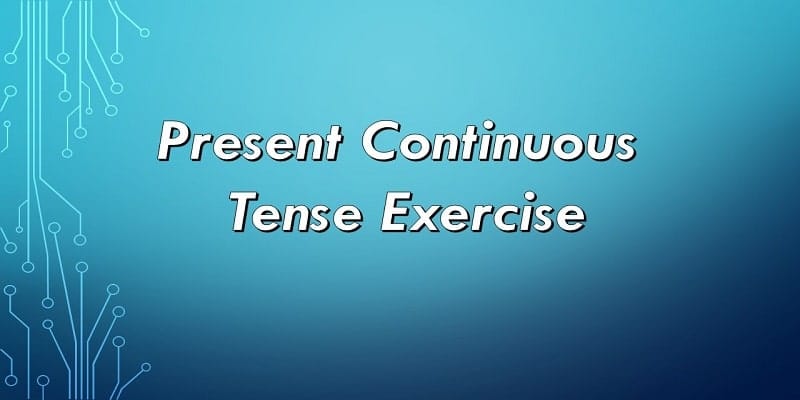
Now that we've learned about the present continuous tense rules, let's get some practice with some multiple-choice exercises. Remember, repetition is key to mastery!
* Question 1: Select the correct form for the following sentence:
Sita (is reading/reads) a book.
Answer: Sita is reading a book.
* Question 2: Choose the right option:
I (am not playing/don't play) cricket now.
Answer: I am not playing cricket now.
* Question 3: Which is the correct form?
Neha (is working/works) on her project at this moment.
Answer: Neha is working on her project at this moment.
* Question 4: What's the right use of present continuous tense?
The sun (is shining/shines) brightly today.
Answer: The sun is shining brightly today.
* Question 5: Choose the appropriate option:
Kumar and Ravi (are discussing/discuss) an important issue currently.
Answer: Kumar and Ravi are discussing an important issue currently.
These present continuous tense exercises help you understand how to use this tense in real-life situations.
For instance, if you're explaining what you're doing at a particular moment, like in a phone conversation, you'll likely use the present continuous tense.
For example, "I am talking to you." Similarly, if you want to describe changes happening around you or plans for the near future, this tense comes in handy.
For instance, "The climate is getting warmer" or "We are visiting Agra next month".
Practicing these exercises will help improve your English fluency and understanding of sentence structure. Keep practicing and soon you'll find it easier to converse in English without hesitating or second-guessing your grammar!
Bridging the Gap: From Passive Learning to Active Application
-------------------------------------------------------------
Understanding the rules of present continuous tense is one stage; applying this knowledge in daily conversation is another. This leap from passive learning to active application can seem daunting, but with the right techniques and consistent practice, you can master it.
* For example, narrate your actions in English while cooking dinner or cleaning your room using present continuous tense - "I am chopping vegetables", "I am vacuuming the floor", etc.
* Secondly, engage in exercises that focus specifically on the present continuous tense. For instance, take up a 'present continuous tense worksheet' and attempt to answer all questions correctly. Such exercises not only test your understanding but also help in better application of this tense.
* Thirdly, remember the rule of thumb for becoming fluent: practice makes perfect. So, converse with others in English as much as possible. Don't worry about making mistakes; they are part of the learning process!
* To enrich your vocabulary and fluency further, start reading English newspapers and listening to English podcasts or music regularly. Pause after each sentence or two and repeat them aloud in a present continuous form whenever applicable. This exercise will help you get accustomed to the rhythm and flow of English speech while reinforcing your understanding of the present continuous tense.
Before we wrap up, let's go through more practice questions on the present continuous tense.
* Question 1: Choose the correct option for the blank.
"I am \_\_\_\_\_ a book on Indian history."
A. reads
B. reading
C. read
Answer: B. reading
Explanation: Since we're discussing an ongoing action, we have to use the present continuous verb form 'reading'.
* \*Question 2:\* Identify the correct sentence.
A. She is playing badminton every day.
B. She is playing badminton now.
C. She is play badminton now.
Answer: B. She is playing badminton now
Explanation: The present continuous tense is used when talking about activities happening at this very moment, hence option B is correct.
* \*Question 3:\* Fill in the blank with the appropriate form of verb.
"They \_\_\_\_\_ (watch) a Bollywood movie."
Answer: They are watching a Bollywood movie.
Explanation: The sentence describes an ongoing activity, so we use 'are watching', which is a present continuous tense.
* \*Question 4:\* Select the correct option for this sentence:
"Ravi \_\_\_\_\_\_\_\_\_\_\_\_ (not/work) today because it's a national holiday."
A. are not working
B. isn't working
C. don't work
Answer: B. isn't working
Explanation: Here 'isn't working' correctly indicates that Ravi is not at work today, which is an exceptional circumstance mentioned here.
* \*Question 5:\* Choose the right form for this sentence:
"My mother \_\_\_\_\_\_\_\_\_\_ (make) samosas right now."
A. is making
B. makes
C. make
Answer: A. is making
Explanation: The action of making samosas is happening at this moment, so we use 'is making', which is a present continuous tense form.
How Clapingo can help?
----------------------
Simply knowing the learning theory of English isn't enough. It's important to put these concepts into practice with real people in real-life situations to get better. That's why one-on-one practice is so valuable. If you don't have anyone to practice with, you can find experts and fellow learners on Clapingo. There, you can connect over one-on-one video calls to practice concepts like the present continuous tense and work towards becoming fluent.
Our tutors guide learners through structured lessons focusing on fluency, pronunciation, vocabulary enhancement, and sentence structure improvement. They offer a comfortable learning environment and provide immediate feedback on your progress. You can ask questions, practice speaking, and get corrections instantly during these sessions, which can be scheduled at your convenience.
With [Clapingo](https://clapingo.com/)'s approach of blending structured learning with practical exercises, mastering the present continuous tense becomes an attainable goal instead of a daunting task. So why wait? Take control of your language-learning journey with us and experience the difference!
Key Takeaways
-------------
Understanding the present continuous tense is a crucial stepping stone in your journey toward English fluency. This tense allows us to describe actions happening now, or actions that will occur shortly. It's what you need when telling someone, "I'm waiting for my promotion," or planning a get-together and saying, "We're meeting at the new café downtown."
We know that learning any language can be a challenging task but remember—patience and persistence are key. Just like Sachin Tendulkar didn't become a cricket legend without regular practice, improving your English skills also demands consistent effort.
To help you gauge your progress with the present continuous form, here's an engaging and interactive PRESENT CONTINUOUS Quiz[.](https://www.youtube.com/watch?v=JNqGyjxZUDQ\).) This quiz presents situations where you'll choose the correct phrase in the present continuous form. It's not just an 'exercise'; it's a fun way to test your understanding while learning something new.
And if you want to explore more about English usage, check out our blogs on [Between Moments: Exploring the Contrast of 'Sometime' and 'Some Time'](https://clapingo.com/blog/sometime-vs-some-time) and [Understanding the Dynamics of Passive vs Active Voice](https://clapingo.com/blog/passive-vs-active)[.](https://clapingo.com/blog/passive-vs-active\).) They shed light on other crucial aspects of English that often confuse learners.
FAQs
----
1. **What is the Present Continuous Tense?**
The present continuous tense, also known as the present progressive tense, refers to ongoing actions happening right now or in the near future. It consists of two parts: the present simple form of 'to be' (am, is, are) and the base form of the verb + ing. For example, "She is waiting for the bus."
2. **How can I practice Present Continuous Tense exercises?**
You can practice present continuous tense exercises through a variety of resources like online worksheets or language learning apps. One effective way is to use a constant tense worksheet where you fill in blanks with appropriate verb forms. Clapingo offers a range of interactive exercises tailored to non-native English speakers.
3. **How does the Present Continuous Tense enhance my spoken English?**
The present continuous tense helps paint a vivid picture in conversations by indicating ongoing actions or plans. It aids in expressing emotions, describing scenarios, and sharing plans, making your spoken English more dynamic and engaging. For instance, instead of saying, "I wait for my friend", using the present continuous form "I am waiting for my friend" sounds more natural and immediate.
4. **Where can I find answers to Present Continuous Tense Exercises?**
Most exercise platforms provide solutions for self-assessment. For personalized guidance and instant feedback on your answers, consider one-on-one coaching sessions with native English speakers at Clapingo tailored to your learning pace and needs.
---
This blog is powered by Superblog. Visit https://superblog.ai to know more.
---
## Understanding The Future Perfect Continuous Tense: Hindi Edition
Author: Unknown
Published: 2024-07-16
Meta Title: Understanding Future Perfect Continuous Tense Through Hindi
Meta Description: A step-by-step guide to future perfect continuous tense in English, using Hindi. Learn through examples and exercises. Boost your fluency with Clapingo!
Tags: future perfect continuous , future perfect tense in hindi, perfect continuous in hindi
URL: https://clapingo.com/blog/future-perfect-continuous-tense-hindi

Struggling with explaining future actions in English? Many in India face this challenge with the future perfect continuous tense. But fear not! Our goal here is to simplify this tricky tense.
This tense helps talk about actions continuing until a future event. Understanding and using this tense well improves your communication.
For example, "By December, I will have been working here for four years." It's precise, specifying the action and duration. The Hindi translation of this would be 'दिसंबर तक मुझे यहां काम करते हुए चार साल हो जाएंगे।'
Mastering such tenses boosts your spoken English. Clapingo's coaching gives detailed help with these tenses. With practice, handling tough conversations becomes natural.
In short, the future perfect continuous tense isn't as scary as it seems. It's a tool to express yourself clearly. Keep learning with us as we explore this grammar gem!
What is Future Perfect Continuous Tense?
----------------------------------------
To understand spoken English, you need to get comfortable with various tenses. One such complex but essential tense is the 'Future Perfect Continuous Tense'. This tense is used to express an action that will continue up until a point in the future. The structure is usually **will + have + been + verb (base form) + ing**.
For instance, consider this sentence: "By 10 PM tonight, I will have been studying for three hours." Here, studying starts in the past or present and continues till a specific time in the future (10 PM). The phrase 'for three hours' indicates the duration of the action.
Let's look at some more examples:
1. By next Monday, Shilpa will have been working in this office for five years.
2. In December 2022, they will have been living in Mumbai for ten years.
3. He will have been singing that song for two hours by the time his friends arrive.
In each of these sentences, we see actions that start in the past or present and continue into a future point. Notice how each sentence includes a duration ('for five years', 'for ten years', 'for two hours'). This time expression is a key element of the future perfect continuous tense.
This tense might seem intimidating at first, but with a little practice, it becomes quite manageable.
Decoding Future Perfect Continuous Tense Structure
--------------------------------------------------

Understanding the structure of the future perfect continuous tense is the first essential step towards mastering its use. This tense has a unique structure: **'will + have + been + present participle of the verb'**. Let's break this down to understand it thoroughly.
1. 'Will' is a modal verb utilised to express a future action or event.
2. 'Have' and 'been' are auxiliary verbs that help in forming tenses, moods, voices, etc.
3. The present participle (verb+ing) signifies an ongoing action.
So, when these components come together, they form the future perfect continuous tense. This tense is used to indicate an action that will continue up until a point in the future.
For instance: "By the time you arrive, I will have been waiting for you at the airport for three hours." This sentence illustrates an ongoing action (waiting) that will continue until a specific event (your arrival) in the future.
This understanding of structure is key to gaining fluency in spoken English. It equips you with the ability to articulate complex thoughts accurately.
Comparing it with Hindi - A Familiar Approach
---------------------------------------------
Learning English tenses can be more enjoyable and relatable by understanding it through our native language, Hindi. The beauty of learning any new language is how beautifully it can be connected and compared with the one we already know.
In Hindi, the future perfect continuous tense is often represented as "जा रहा होंगा" or "किया जाता है". Now, let's compare this with English.
**English Sentence Structure**
**Hindi Sentence Structure**
Subject + will have been + verb(ing) + for/since + time
विषय + जा रहा होंगा/किया जाता है + लिए/से + समय
It's important to note that both languages follow a similar structure while forming sentences in the future perfect continuous tense. Let's look at an example:
1\. English: I will have been living in Mumbai for five years by 2025.
Hindi: मैं 2025 तक मुंबई में पांच साल से रह रहा होंगा।
2\. English: She will have been doing her homework for three hours.
Hindi: वह पत्र कुपोन की प्रतीक्षा करती हुई मिलेंगी।
The examples above illustrate how the future perfect continuous tense operates in both English and Hindi. By understanding this relationship between the two languages, you can simplify your learning process and effectively improve your English skills.
Remember to practice these sentences regularly and integrate them into your daily conversations.
Scenarios: Applying Future Perfect Continuous Tense
---------------------------------------------------
So, how do we apply the Future Perfect Continuous tense in real-life contexts? Let's dive into a few examples that will help you master this tense.
### Scenario 1: Professional Emails
Imagine you need to send your boss an update on your ongoing project. You could write, "By next month, I will have been working on this project for two years." This sentence articulates both the duration and the future achievement of your work on the project.
### Scenario 2: Daily Conversations
Suppose you are chatting with a friend about an upcoming anniversary. You might say, "By next week, we will have been married for five years." Such sentences can make your everyday conversations more engaging and accurate.
### Scenario 3: Presentations
In a business presentation discussing performance metrics, you could state, "By the end of this quarter, our team will have been surpassing its sales targets for three consecutive quarters." This highlights your team's consistency and future expectations clearly.
Remember, practice makes perfect! Try integrating this tense into your daily English usage - while conversing in English, drafting an email or preparing a presentation. As you get more comfortable with it, you'll notice an improvement in your fluency and confidence.
Common Mistakes and How to Avoid Them
-------------------------------------
One of the most common errors made by Indian learners when using the future perfect continuous tense is incorrectly translating Hindi verb structures into English.
For instance, 'मैं 5 घंटे से गीत गा रहा होगा' might be inaccurately translated as 'I will be singing song for 5 hour', which is grammatically incorrect. The correct translation should be 'I will have been singing for 5 hours.'
Here are a few tips to avoid such mistakes:
1. **Understand the structure:** In English, the future perfect continuous tense uses the structure: Subject + will have been + Verb-ing; unlike in Hindi.
2. **Time references:** Usually, this tense is used with time references such as ‘for’ or ‘since’, so don’t forget to include them.
3. **Verb agreement:** Ensure that your subject and verb agree in number and person.
4. **Singular-Plural distinction:** Watch out for singular-plural mismatches like 'day' vs 'days', or ‘book’ vs ’books’.
Visit our [Tense- Crash Course playlist](https://www.youtube.com/playlist?list=PL2uSif5LcfbhvIV_H_jhazyXnHEUJZQj4) for more insights on how to correctly use various tenses other than the future perfect continuous tense.
Remember, practice is key! The more you practise using this tense in conversation or writing, the better you’ll become at avoiding these common mistakes.
Practicing Future Perfect Continuous Tense
------------------------------------------
To help you understand and practice the future perfect continuous tense, here are some exercises that you can do:
**1\. Sentence Formation:**
Try to form sentences using the future perfect continuous tense. Remember, the structure is: "will have been" + verb-ing. For example: By next year, I will have been working at this company for five years.
Write 5 such sentences of your own.
**2\. Fill in the Blanks:**
Fill in the blanks with suitable verbs in the future perfect continuous tense.
* By 2025, we \_\_\_\_\_\_\_\_\_\_ (live) in this house for two decades.
* She \_\_\_\_\_\_\_\_\_\_ (study) French for four years by December.
**3\. Conversion Exercises:**
Convert these sentences from present perfect continuous tense to future perfect continuous tense:
* He has been reading this book since morning. (He \_\_\_\_\_\_\_\_\_\_ this book by evening)
* I have been learning Spanish for two years now. (I \_\_\_\_\_\_\_\_\_ Spanish for three years by next year)
**4\. Translating Sentences:**
Translate these Hindi sentences to English using future perfect continuous tense:
* मैं अपने आगामी दो साल में किताब को पढ़ चुका होऊंगा।
* वे अपने बेटे की शादी के लिए 6 महीने से ज्यादा समय से तैयारी कर चुके होंगे।
**_Solutions:_**
**2\. Fill in the Blanks:**
* By 2025, we will have been living in this house for two decades.
* She will have been studying French for four years by December.
**3\. Conversion Exercises:**
* He will have been reading this book by evening.
* I will have been learning Spanish for three years by next year.
**4\. Translating Sentences:**
* I will have been reading the book in the next two years.
* They will have been preparing for their son's wedding for more than six months.
These exercises are meant to be a starting point. You should continue practising with more complex sentences and scenarios as you become more comfortable with the future perfect continuous tense. You can also find many online resources and worksheets to help you along the way.
Using it in Real Life
---------------------
Now that we have an understanding of the future perfect continuous tense, on to the next step. Which is, practice!
Without practice, fluency in English cannot be achieved, with just theoretical knowledge of grammar concepts. Hence, it becomes crucial for all English learners to seek out study partners who'll help them practice English through conversation.
Luckily, there are platforms like Clapingo that can help. With Clapingo, native English speakers give real-time feedback on fluency, pronunciation, vocabulary, and sentence structure in one-on-one practice sessions.
Mastering a new language takes time, but with dedication and Clapingo's support, fluency is achievable. [Book a quick demo now!](https://clapingo.com/book-instant-demo)
A Quick Recap
-------------
In your English learning journey, you've explored the future perfect continuous tense, a complex tense.
We saw some example sentences in Hindi and English side-by-side to get an idea. Like "मैं तीन घंटे तक व्यायाम करता रहूँगा"" for "I will have been exercising for three hours."
Understanding these examples is key!
Practice using this tense in daily conversations. Describe how long you'll be doing something or how many hours you'll have been studying by tomorrow. The more you use it, the better you'll get.
Mastering complex tenses like this one improves your spoken English fluency. It helps you express future activities in detail, making your communication richer and more confident.
The learning journey continues. Explore [Clapingo](https://clapingo.com/) for personalized coaching tailored for non-native English speakers like you.
Stay dedicated and motivated. Learning English opens up a world of opportunities!
FAQs
----
**1: How does understanding future perfect continuous tense in Hindi help my English-speaking skills?**
Understanding future perfect continuous tense in Hindi can enhance your English conversation skills. When you know how this tense is formed and used in your native tongue, it helps you grasp the concept better in English. It allows you to make complex sentences about actions that will be ongoing at a specific time in the future.
**2: Can you give an example of a future perfect continuous tense sentence translated from Hindi to English?**
Let's consider a Hindi sentence like "मैं गाने गा रहा होगा". In English, it translates to "I will have been singing". Here, 'will have been singing' is an example of the future perfect continuous tense, indicating that the activity (singing) will be ongoing in the future.
**3: How many hours should I practice daily to master this tense?**
While there's no fixed answer, language experts suggest regular practice can lead to quicker mastery. Even dedicating 15 minutes every day consistently can help you improve significantly. If possible, try to commit several hours a week for focused practice.
**4: What are some effective ways to practice this tense?**
One great way is by translating sentences from Hindi to English and vice versa. You could also write and recite sentences or engage in conversation using this tense. Listening to songs and recognizing this tense is another fun method - next time you hear an English song, listen out for lines like "You will have been waiting for hours", and try using them in your conversations!
**You May Want to Read:**
[Continuous Progress: A Guide to Future Continuous Tense](https://clapingo.com/blog/future-continuous-tense)
---
This blog is powered by Superblog. Visit https://superblog.ai to know more.
---
## Time of Action: All You Need to Know About Present Continuous Tense
Author: Unknown
Published: 2024-07-16
Meta Title: Present Continuous Tense in English: A Detailed Guide
Meta Description: Polish your English fluency with this simple guide to using the present continuous tense. Start speaking confidently and accurately using the tips and explanations.
Tags: Present Continuous definition, Present Continuous Tense rules, Present Continuous examples , Present Continuous Tense
URL: https://clapingo.com/blog/present-continuous-tense

Picture this: you're in a classroom and your teacher asks you, "What are you doing?" You reply, "I read a book," instead of the correct response, "I am reading a book." Both sentences are grammatically accurate. But it is the second sentence that correctly uses the present continuous tense to show something that is happening right now. This minute detail can make a significant difference in your English communication skills.
So what exactly is the present continuous tense? It's a grammatical structure used to express an action that's happening right now. For instance, "I am reading this blog." The action of reading is ongoing at this very moment. This tense is essential in English as it helps us to convey exactly when an action takes place.
Now, why should you stick around and read further? This blog post aims to simplify the complex rules of the present continuous tense and provide practical ways to use it correctly. We will discuss its formation, usage with dynamic and stative verbs, and common mistakes learners may make. We will also provide some exercises for practice.
After you are thorough with the rules, make sure that you find opportunities to practise them in real life to achieve absolute fluency! So let's start!
What is Present Continuous Tense?
---------------------------------
The present continuous tense, also known as the present progressive tense, describes an action that is happening now or around now. You can use it when you want to express an event that is in progress at the current moment. But how do we form it?
The present continuous tense is formed by taking the auxiliary verb 'to be' (is, am, or are) and adding it to the root verb with an 'ing' ending - forming a 'verb+ing' structure. For example, if you're in the middle of reading this article right now, you would say "I am reading." The structure can be shown as:
**Subject + is/am/are + verb + ing**
Now, let's differentiate it from simple present tense using a table:
### Simple Present Tense
### Present Continuous Tense
I work every day.
I am working right now.
You study English.
You are studying English at the moment.
We play cricket on Sundays.
We are playing cricket this Sunday.
In these examples, simple present tense illustrates habitual or regular actions. Present continuous indicates the action happening at this very moment.
Practise with different verbs and situations to get comfortable using the present continuous tense!
When to Use Present Continuous Tense?
-------------------------------------
The present continuous tense is a critical grammar component in English and is widely used in various scenarios.
* **Actions happening now:** This tense is used to describe an action that is currently in progress. For example, "I am reading this blog post" clearly signifies an action taking place at the present moment.
* **Future plans:** Interestingly, the present continuous tense also helps express future plans or arrangements. For instance, "We are visiting Jaipur next week" indicates a planned future event.
* **Temporary actions:** The present continuous is also used for temporary situations or actions that are not habitual but are true at the current time. For example, "I am staying with my aunt until my apartment gets ready."
* **Annoyances:** Often, we use this tense to express annoyance about habits that we find irritating. Here's an example: "She's always losing her keys!"
Let's understand these concepts better with a comparison table:
**Incorrect Usage**
**Correct Usage**
**Scenario**
I reading this book.
I am reading this book.
Action happening now
We visit Jaipur next week.
We are visiting Jaipur next week.
Future plans
I stay with my friend this week.
I am staying with my friend this week.
Temporary actions
He always fails the tests!
He's always failing the tests!
Annoyances
For more insights and clarifications on when and how to correctly use the present continuous tense, don't forget to check out this YouTube video by Clapingo. It offers a comprehensive understanding of present continuous tense usage!
Detailed Demonstration of Present Continuous Tense Usage
--------------------------------------------------------
The present continuous tense is a fundamental aspect of English grammar, crucial for conveying actions happening at the moment. Let’s break down its usage, starting with positive sentences.
* The structure for positive sentences is as discussed above: 'subject + am/is/are + verb-ing'. For instance, "I am reading a book." Remember, it's about an ongoing action.
* For negative sentences in the present continuous tense, we use 'subject + am/is/are + not + verb-ing'. So, our earlier example becomes "I am not reading this book". This indicates the action is not happening currently.
* Lastly, forming questions involves 'Am/Is/Are + subject + verb-ing?'. So, you might ask: "Are you reading a book?"
Now let's explore more examples:
**Positive Sentences:**
1. "We are watching cricket."
2. "She is cooking dinner."
**Negative Sentences:**
1. "They are not playing football."
2. "He is not writing an email."
**Questions:**
1. "Am I speaking clearly?"
2. "Are they leaving for Jaipur?"
Understanding verbs is also crucial to mastering the present continuous tense. Verbs can be classified into stative and dynamic verbs:
* **Stative verbs:** These express a state rather than an action happening. They usually relate to thoughts, emotions, relationships, senses, states of being and measurements. Verbs like love, hate and know are examples. Typically, we don't use stative verbs in the present continuous tense. For example, we say "I love ice cream," not "I am loving ice cream."
* **Dynamic verbs:** These signify actions which are in progress or happening at the moment of speaking. Examples include read, write, run and draw. We often use dynamic verbs with present continuous tense for actions happening right now or around now. Example: "Raj is studying for his exams."
Here are the rules to keep in mind while using the present continuous tense summarised:
* Use 'am' for 'I', 'is' for singular subjects (e.g., he, she), and 'are' for plural subjects (e.g., they) or you.
* Always add '-ing' to verbs. For instance: "She is running."
* Stative verbs don’t typically use this tense as they're about states rather than actions.
By understanding and practising these structures and rules of present continuous tense regularly, you will surely strengthen your skills in spoken English.
Understanding the Auxiliary Verb 'be' in the Present Continuous Tense
---------------------------------------------------------------------
In the world of English grammar, the auxiliary verb 'be' plays a pivotal role. It's like the backbone of the present continuous tense. It adapts to different pronouns, forming an essential part of a sentence where an action is happening.
Here's a table demonstrating various forms of 'be':
### Pronoun
### Form of 'be'
I
am
You
are
He/She/It
is
We
are
They
are
For example, in the sentences "I am eating" or "They are playing", the words 'am' and 'are' reflect the ongoing nature of the action.
This is different from past tense verbs like ‘went’ and ‘gone’. In such cases, there isn't any need for an auxiliary verb to indicate continuity. You can learn more about this distinction in our previous blog on [Gone vs. Went: Parsing the Verb Tense Forms](https://clapingo.com/blog/gone-vs-went)[.](https://www.clapingo.com/blog/gone-vs-went-parsing-the-verb-tense-forms\).)
So, remember - when using present continuous tense, befriend the auxiliary verb 'be'. It will help you fluently describe actions that are in motion!
Common Mistakes with Present Continuous Tense
---------------------------------------------
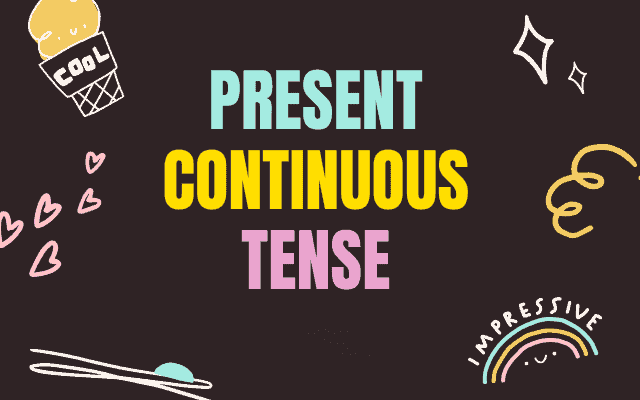
Correct usage of the present continuous tense can often trip up non-native English speakers. Below are some common mistakes made by Indians and how to correct them:
### 1\. Using simple present instead of present continuous:
Many learners tend to use the simple present tense when the action is happening now. For instance, they might say "I do my homework" instead of "I am doing my homework". Remember, the present continuous tense is used for actions ongoing at this moment.
### 2\. Incorrect use of the auxiliary verb:
The auxiliary verb for this tense is always 'am', 'is', or 'are'. A common mistake could be saying "She do cooking" rather than "She is cooking".
### 3\. Forming negatives and questions incorrectly:
The word order changes in negative sentences and questions. For example, saying "I not going to school" instead of "I am not going to school", or "Is I going?" rather than "Am I going?"
To solve these errors, remember that you must use 'am', 'is' or 'are' before your main verb in its base form (plus -ing). Then place ‘not’ after the auxiliary verb for negatives. For questions, interchange the subject and auxiliary verb’s position.
Perfecting the Present Continuous through Practice
--------------------------------------------------
Mastering any tense, especially the present continuous, is like learning a musical instrument; practice makes perfect. The more you train your brain to use the correct verbs and auxiliary verbs in daily conversations, the more natural it will become.
Let's practise with a quick fill-in-the-blanks exercise. Complete the following sentences with suitable verbs:
1\. I \_\_\_\_(am)\_\_\_\_ watching a cricket match.
2\. She is \_\_\_\_(study)\_\_\_\_ for her exams.
3\. We \_\_\_\_(are)\_\_\_\_ planning a trip to Goa.
Correct answers:
1\. am
2\. studying
3\. are
Now, let's add practical activities and exercises to your routine:
* **Listening Exercises:** Tune into English shows or songs and try to identify sentences in the present continuous tense.
* **Speaking Exercises:** Use present continuous tense in daily conversations as much as possible.
* **Writing Exercises:** Incorporate this tense into your journal entries or emails.
Engage actively with these exercises and use present continuous tense in everyday scenarios for reinforcement of learning.
For further insight and guidance on fluency, here's a helpful link to Clapingo's blog on [**20+ Engaging Lectures for Fluency**](https://clapingo.com/blog/english-lectures-improve-english). By committing to regular practice and using these resources, you'll soon master the art of using the present continuous tense effectively!
How to Use Present Continuous Tense in Real-Life?
-------------------------------------------------
Tenses, particularly the present continuous tense, are key components of the English language. As discussed in this blog, the present continuous tense follows certain rules and formats. While knowing these rules is essential, applying them in real-life conversations is even more crucial. This can only be achieved through constant practice. But this is not that easy in the Indian context.
Many language learners in India face a major problem that hinders their ability to master English: they find it difficult to practice grammar rules because they lack opportunities to converse in English in their daily lives. Wouldn't it be nice if each learner could find a language partner to converse and practise these rules in a non-judgmental environment?
Here's where Clapingo can help. Clapingo offers learners the opportunity to have one-on-one sessions with expert tutors who not only provide them with a safe space to engage in conversations but also guide them by offering valuable feedback. The tutors ensure that the sessions cover different grammar rules and tense forms, including present continuous tense, and thus help the learners become fluent English speakers.
By providing a platform where learners can practise regularly under expert guidance, Clapingo ensures that mastering the present continuous tense becomes an achievable goal.
Key Takeaways
-------------
Understanding the present continuous tense significantly improves your fluency in spoken English. In this article, we've learned about this tense in detail, focusing on its usage to describe actions happening now, future plans, and events changing over time. We also discussed the distinction between dynamic and stative verbs, shedding light on why certain verbs don't typically appear in the present continuous tense.
Remember, mastering a language skill requires consistent practice and patience. Practising with realistic examples or engaging in conversations with native speakers can enhance your command over the present continuous tense. Regularly using it in your day-to-day interactions will also help reinforce this learning.
Don’t be disheartened if you find the learning process difficult at first. Every language learner moves at their own pace. Keep pushing forward with determination and positive energy. Remember that every challenging scenario is a new opportunity for growth.
The journey might be challenging, but the rewards are worth it!
FAQs
----
**1\. What is the present continuous tense?**
The present continuous tense, also known as the present progressive, describes an action happening at the moment of speaking. It's formed by combining 'am', 'is', or 'are' with the verb's -ing form. For instance, "I am reading a book right now."
**2\. When do we use the present continuous tense?**
We use this tense to talk about actions happening in the present or future. It is particularly used for ongoing actions ("She is studying for her exam"), temporary actions or situations ("We are staying in Delhi this week"), and future arrangements ("They are playing cricket tomorrow").
**3\. How do I form the Present Continuous Tense in English?**
To form the Present Continuous Tense, you need a 'be' verb (am/is/are) and a main verb ending in '-ing'. The 'be' verb should correspond with the subject. For example, "I am cooking" – here ‘am’ corresponds with 'I', and ‘cooking’ is the main verb in its -ing form.
**4\. Are there any exceptions when using the present continuous tense?**
Yes, certain stative verbs that denote mental states, emotions, possession, and senses typically aren't used in the present continuous tense. Examples include verbs like know, want, believe, own and see.
---
This blog is powered by Superblog. Visit https://superblog.ai to know more.
---
## Crafting Engaging Sentences: Mastering the Structure of Present Continuous Tense
Author: Unknown
Published: 2024-07-12
Meta Title: Master the Structure of Present Continuous Tense: A Guide for Language Learners
Meta Description: Learn how to use the present continuous tense correctly! With relatable examples and clear instructions, this comprehensive guide breaks down the structure for English learners.
Tags: past continous structure, Past Continuous Exercises, Past Continuous Tense usage
URL: https://clapingo.com/blog/structure-present-continuous-tense
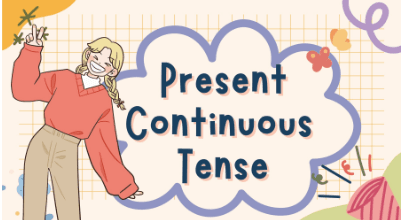
English can often seem like a chain of rules for non-native speakers, especially when it comes to tenses. One such area that learners commonly struggle with is the present continuous tense. Understanding when and how to use this tense is crucial in your journey towards English fluency.
So, what exactly is the present continuous tense? It's a form of present tense that describes ongoing actions at the time of speaking. It combines the present form of 'to be' (is/am/are), with the 'present participle' - basically, any verb plus ‘ing’. For instance, "I am typing this blog post" or "They are playing cricket".
Why focus on this? The present continuous tense is widely used in spoken English. It is essential for holding conversations, giving real-time updates, or describing current scenarios.
This exploration of the structure of the present continuous tense is a step forward in your English learning journey. Let's look at this aspect together and make your conversations smoother than ever before.
What is Present Continuous Tense?
---------------------------------
The present continuous tense, sometimes known as the present progressive tense, is used to show actions that are ongoing or happening right now. The Cambridge Dictionary defines present continuous tense as the verb form used for actions or events that are happening or developing now.
This tense is formed by combining the subject, the verb ‘to be’ in the present form (am, is, are), and the present participle form (the verb ending with -ing).
A visual representation of this structure would be:
**Subject + Auxillary Verb (am/is/are) + Present Participle form of the verb**
Let's look at a few examples to better understand its usage.
1. I am reading a book.
2. She is cooking dinner.
3. They are playing cricket.
In each of these sentences, the action is currently in progress at the time of speaking.
Remember that understanding and using the present continuous tense correctly can significantly improve your spoken English fluency. Don't hesitate to practice it whenever you get a chance!
How is the Present Continuous Tense Formed?
-------------------------------------------
The structure of the present continuous tense isn't really complex. But it requires careful attention to its components.
1. Subject: The 'doer' of the action. It could be I, you, he, she, it, we, they.
2. Auxiliary Verb: The helping verb 'am', 'is', or 'are' is used depending upon the subject.
3. Main Verb + ing (Present Participle): Add -ing to the base form of the main verb.
Creating a sentence using this tense follows these steps:
1. Identify your subject (I, you, he...)
2. Choose the correct auxiliary verb based on your subject (am for I, is for he/she/it, are for you/we/they).
3. Add -ing to your main verb to form the present participle.
Check the table for the proper auxiliary verbs to use for different subjects:
I
am
You
are
He/she/it
is
We
are
They
are
Singular subjects (Ravi, book, etc)
is
Plural subjects (Boys, books, etc)
are
For example:
* I am reading a book.
* She is watching a movie.
* They are playing cricket.
Note how each sentence uses a different auxiliary verb based on its subject while keeping the main verb in its -ing form. Use these steps to create your own sentences in the present continuous tense and improve your spoken English skills!
This YouTube video from Clapingo offers more detailed explanations and examples:
Changing Structures: How to Convert Simple Present Tense Sentences into Present Continuous?
-------------------------------------------------------------------------------------------
It is important to understand the difference between simple present and present continuous tense. The simple present tense is used to express daily habits, general truths, or unchanging situations. For example, "I read the newspaper every day."
On the other hand, the present continuous tense, often characterised by a verb ending in '-ing' (known as a present participle), denotes actions happening right now or around now. Example: "I'm reading a book."
Follow these steps to convert from Simple Present to Present Continuous:
1. Identify the subject of your sentence.
2. Change the main verb into its present participle form (verb + ing).
3. Add 'is', 'am', or 'are' before the main verb depending on the subject.
Let's illustrate this through an example:
* Simple Present: "She writes a letter."
* Present Continuous: "She is writing a letter."
Notice how we changed 'writes' into 'is writing'. Now, you try converting some sentences!
Here's a comparison table for better understanding:
**Simple Present**
**Present Continuous**
I play cricket.
I am playing cricket.
You sing well.
You are singing well.
He eats apples.
He is eating apples.
With these rules and examples, you should be able to distinguish between these two tenses and convert sentences from one form to another confidently! Keep practising till you master it.
Practical Scenarios and Dialogues in Present Continuous Tense
-------------------------------------------------------------
Let's take a look at some practical scenarios that can help you grasp the structure and usage of the present continuous tense better. Here are a few engaging dialogues showcasing familiar contexts where this tense is often employed.
### Scenario 1: A Phone Call Between Friends
Priya: Hello, Rahul! What are you doing?
Rahul: Hi Priya! I am watching a cricket match. Virat Kohli is playing brilliantly.
### Scenario 2: In a Restaurant
Waiter: Good evening, sir. Are you ready to order?
Customer: Not yet, actually. We are still deciding what to eat.
### Scenario 3: During a Class
Teacher: Rohit, stop talking! You are disturbing everyone.
Rohit: Sorry, ma'am. I was just asking Ravi for a pen.
These dialogues show how the present continuous tense is used in daily conversations for actions happening now or around now.
Common Errors Made in the Structure of Present Continuous Tense
---------------------------------------------------------------
Your native language can affect how you put together sentences in English, especially in the present continuous tense. For example, some Indian languages don’t form the present continuous tense by adding suffixes to the verb. So, forming sentences this way in English might feel strange. This can lead to errors like forgetting to use "am," "is," or "are" with the verb’s "-ing" form.
To fix this, practice English sentences regularly, focusing on using "am," "is," or "are" with verbs ending in "-ing." Let's discuss some common mistakes that Indian learners often make.
* One usual error is in the selection of is/am/are before the present participle form. For example, one might say 'I is eating' instead of 'I am eating'. It's essential to remember that 'am' is used with 'I', 'are' with 'you', 'we', and 'they', and 'is' with 'he', she', and 'it'.
* Another frequent mistake is using -ing with stative verbs. Stative verbs describe a state or condition, like love, know, or believe, which don't usually take the -ing form. So sentences like "I am knowing the answer" are incorrect; it should be "I know the answer".
These errors stem from direct translations from our native languages into English. Recognising and correcting these mistakes will significantly improve your use of the present continuous tense.
Here is a useful blog post from Clapingo to help you tackle the challenge of mother tongue influence: [How can you remove the mother tongue influencer problem in English Speaking?](https://clapingo.com/blog/mother-tongue-influence-problem-english) Remember that consistent practice and mindful application go a long way in mastering any language structure!
Exercises to Master the Structure of Present Continuous Tense
-------------------------------------------------------------
Now, let's do some exercises to help you apply your understanding of the structure of the present continuous tense. These exercises will involve fill-in-the-blanks questions. Don’t worry, we’ll provide the answers too.
1. \_\_\_\_ am \_\_\_\_(watch)\_\_\_\_ a movie.
2. She is \_\_\_\_(cook) dinner at the moment.
3. We \_\_\_(be) \_\_\_\_(run) a marathon next week.
4. The \_\_\_(child/children)\_\_\_ are playing football outside.
5. They \_\_\_(be) \_\_\_\_(write) their assignments right now.
Here are the completed sentences with the correct forms of auxiliary verbs and present participle forms of the verbs:
1. I am watching a movie.
2. She is cooking dinner at the moment.
3. We are running a marathon next week.
4. The children are playing football outside.
5. They are writing their assignments right now.
With these examples, you can see how each sentence follows the structure- subject + auxiliary verb 'be' + verb in present participle form (verb+ing). Practice with more sentences using this structure to master the present continuous tense!
Tips and Tricks to Master Present Continuous Tense
--------------------------------------------------

Understanding the structure of the present continuous tense and its applications is only half the battle. You must also put this knowledge into action to truly master it. Here are some guidelines to help you overcome common issues that Indian non-native English speakers often face with present continuous tense.
**1\. Observe and Mirror Native Speakers:** Pay close attention to how native English speakers use the present continuous tense in everyday conversation. This will help you understand its practical employment better. For instance, when someone says, "I'm doing my homework now," note how they have used the present participle 'doing' with the subject 'I' and the verb 'am'.
**2\. Practice Changes in Verbs:** It's critical to get familiar with verb changes in the present continuous tense, especially for irregular verbs. Make flashcards or try out online quizzes.
**3\. Use Contextual Examples:** Always use this tense within meaningful contexts, such as "I am watching a cricket match" or "She is buying vegetables".
**4\. Speak Out Loud:** Practice speaking sentences in this tense aloud. This will not only boost your confidence but also improve your pronunciation and fluency.
**5\. Write Daily:** Make it a habit to write daily using present continuous tense, be it in emails, diary entries or social media updates.
While these tips will aid you in mastering the structure of present continuous tense on your own, there's always professional help available if you still struggle with it. That's where [Clapingo](https://clapingo.com/) comes into the picture, offering personalised one-on-one coaching sessions with expert English tutors who can guide you effectively through these challenges.
For more assistance on improving your English proficiency further, check out our post on [How to Learn Basic English Easily: Your Step-by-Step Guide](https://clapingo.com/blog/learn-basic-english)[.](https://www.clapingo.com/blog/how-to-learn-basic-english-easily-your-step-by-step-guide\).) This resource will not only help you improve your grasp of foundational English concepts but also empower you to communicate confidently.
Summing Up
----------
The journey through the structure of the present continuous tense has been enlightening, hasn't it? We've explored its composition, understanding the role of 'am', 'is' and 'are' combined with a verb in its present participle form. We dove into numerous examples and scenarios, helping you grasp how this tense works in real-life conversations.
We know mastering a new language skill takes time and practice. It's like learning to make your favourite dish; it needs patience, persistence and lots of trials! So don't be disappointed; each challenge is a stepping stone towards fluency. Remember, every successful conversation in English is a result of your efforts.
If you're looking for more personalised learning experiences, Clapingo offers one-on-one coaching sessions tailored to your unique needs. Interactive sessions with expert tutors can solidify your knowledge of English tenses and help you achieve flawless pronunciation. They guide you through practices, ensuring you become comfortable using the present continuous tense effortlessly in your everyday conversations.
There's no better time than now to start your English learning journey. Keep practising, stay motivated and watch as doors open to an empowered future with fluent English communication!
FAQs
----
**1\. What is the present continuous tense?**
The present continuous tense, also known as the present progressive tense, describes actions happening right now or plans scheduled for the future. For example, "She is reading a book" or "They are going to a wedding."
**2\. How do I form the present participle of a verb?**
You form the present participle by adding '-ing' to the base form of a verb. For instance, 'run' becomes 'running', and 'speak' turns into 'speaking'. Remember to double the final consonant for verbs ending with a single vowel followed by a consonant, like 'sit' to 'sitting'.
**3\. When should I use the present continuous tense?**
Use this tense when talking about actions happening at this very moment, such as "I'm writing an email." It's also used for expressing future plans or events that are already decided or arranged, like "We are visiting Delhi next week".
**4\. What are some common mistakes while using this tense?**
Non-native speakers often forget to use ‘am’, ‘is’ or ‘are’ before the verb in its '-ing' form. Another common mistake is using simple present instead of present continuous when discussing ongoing actions.
---
This blog is powered by Superblog. Visit https://superblog.ai to know more.
---
## Exploring the Wisdom of Tamil and English Proverbs
Author: Unknown
Published: 2024-07-12
Meta Title: Unraveling the Beauty of Tamil and English Proverbs: A Cultural Exchange
Meta Description: Discover their meanings and applications, and learn new ways to incorporate them into your daily conversations.
Tags: proverbs examples in english, proverbs examples in hindi, proverbs in english and tamil
URL: https://clapingo.com/blog/proverbs-english-tamil

Imagine you are at a friendly gathering – a mix of Tamil and English-speaking folks. The atmosphere is convivial, and conversations are flowing. Suddenly, someone quotes a Tamil proverb, sending ripples of laughter through the room. You feel left out because you can't understand the proverb's essence in English. Sounds familiar?
This typical scenario paints the challenge many face while translating proverbs from Tamil to English or vice versa. Proverbs, with their cultural implications and deep meanings, often lose their essence in translation.
But why bother about proverbs? Well, proverbs are essential ingredients in language learning! They add spice to a conversation, bestow wisdom subtly, reflect cultural nuances, and often convey complex ideas succinctly. Understanding 'proverbs in English and Tamil' can open doors to better communication and deeper cultural understanding.
With some guidance and practice, you'll soon be tossing around Tamil proverbs with as much ease as you do with English ones. So gear up for an exciting journey into the world of 'proverbs in English and Tamil'!
Understanding Proverbs: Definition and Cultural Significance
------------------------------------------------------------
At its simplest, a proverb is a short, well-known saying that expresses a universal truth or piece of advice. They are nuggets of wisdom passed down through generations and often encapsulate the moral values, life lessons, and cultural heritage of a society.
For instance, consider the Tamil proverb "அகத்தின் அழகு முகத்தில் தெரியும்" (Akathin azhagu mugathil theriyum), which translates into English as "The beauty of the mind is known from the face." This proverb reflects an age-old belief in both Tamil and English cultures that one's inner character is reflected in their outward appearance.
Proverbs play an invaluable role in preserving our cultural legacy. By learning proverbs in English and Tamil, you're not merely expanding your vocabulary but also gaining insight into different cultural perspectives.
Learning proverbs can significantly enhance your language skills. Here's how:
1. **Improves Vocabulary:** As you explore more proverbs in Tamil with meaning translated to English, you naturally expand your vocabulary bank.
2. **Enhances Understanding:** Grasping the nuances between similar proverbs in different languages sharpens your comprehension skills.
3. **Boosts Communication:** Proverbs can add richness to your conversations, making them more engaging and impactful.
Let's learn by example:
* **Tamil Proverb**: "ஆள் எப்பொழுதும் குலையான் இருக்க வேண்டும்" (Aal eppozhuthum kulaiyaan irukka vendum).
* **English Translation**: "A man should always be flexible."
This proverb, when used in conversation, suggests a willingness to adapt and change, a skill highly valued in both personal and professional spheres.
10 Common English Proverbs & Their Tamil Equivalents
----------------------------------------------------
Understanding proverbs in English and Tamil can greatly enrich your linguistic skills. They not only provide cultural insights but also help you express complex ideas succinctly. Here are ten common English proverbs, their meanings, and their Tamil equivalents:
1. **\*"Every cloud has a silver lining"\*** – This proverb suggests that every difficult situation has some positive aspect. The Tamil equivalent is "கேட்டாலும் கேள்வியில் நன்மை உண்டு" (Kettalum Kelviyil Nanmai Undu).
2. **\*"Don't count your chickens before they hatch"\*** – This means not to plan anything that depends on a good thing you expect to happen in the future. In Tamil, it's "முன்பே ஆண்டு விதை கூரியே விளையும்" (Munbe Aandu Vidhai Koorie Vilaiyum).
3. **\*"Actions speak louder than words"\*** – This proverb signifies that actions are more revealing of one's true character than words. The Tamil equivalent is "செயல் வார்த்தைக்கு மிகுந்து பேசும்" (Seyal Vaarththaikku Miguindhu Pesum).
4. **\*"The early bird catches the worm"\*** – This implies that success comes to those who prepare well and put in their efforts early. It translates to "அ) முதலில் எழுந்தவன் பூணையையும் கொள்ளும்" (Mudhalil Ezhundhavan Poonaiaiyum Kollum).
5. **\*"Rome wasn’t built in a day"\*** – This proverb conveys that great things take time to achieve. In Tamil, it's "ரோம் நிர்மாணம் ஒரு நாளில் நிறைவேற்றியு" (Rome Nirmanam Oru Naalil Niraiverriyathu).
6. **\*"Don't put all your eggs in one basket"\*** – This means not to risk everything by investing all your efforts or resources in one plan or goal. The Tamil equivalent is "உன்னிடை உள்ள அ) அ) கோ(ttai yelaam ondrE koottil vekkaathaE)".
7. \***"Cut your coat according to your cloth"\*** – This advises us to live within our means. In Tamil, it translates as "ಉದಯ ಪ್ರಕಾರ ನೀವು ನಿಮ್ಮ ಹೋ(^(dhige hola(ku)".
8. **\*"A stitch in time saves nine"\*** – This suggests timely action can prevent more work later on. The Tamil equivalent is "kai vandhaa pinne vandaalum kaniyaa poogaa".
9. **\*"You can't make an omelette without breaking eggs"\*** – This proverb means that it's impossible to achieve something important without causing unpleasant effects. The Tamil equivalent is "முட்டை உடையாமல் ஓம்லெட் செய்ய முடியாது" (Muttaai Udaiaamal Omelette Seiyya Mudiyathu).
10. **\*"Don’t judge a book by its cover"\*** – This advises not to judge people or things by what they appear to be on the outside. The Tamil equivalent is "ಕನ್ನೂ ಪುಸ್ತಕ(ದ ಅವ(loo(do)₹).
Understanding proverbs in English and Tamil will help you appreciate the richness of both languages and navigate conversations with greater ease.
Understanding Proverbial Contexts: English and Tamil Proverbs
-------------------------------------------------------------
Familiarising oneself with proverbs in English and Tamil can enhance your conversational skills, making you sound more fluent and confident. Here's an exploration of some common proverbs in both languages, with their meanings.
### English and Tamil Proverbs
Let's start by taking a look at some popular proverbs in English and their Tamil equivalents:
1. **'Actions speak louder than words':** செயல்கள் வார்த்தைகளை விட சத்தியமாக பேசும் (Seiyalgal vaarththaigalai vida saththiyamaaga pesum)
2. **'Don't count your chickens before they hatch'**: உன் கோழிக்குஞ்சுகள் முடிந்து விளைய ஒன்று, அதை முந்தே எண்ணி நிற்பிலிரு (Un kozhikkunjugal mudindhu vilaya onru, athai munthe enni nirppiliru)
3. **'Where there is smoke, there is fire':** புகை வெளிச்சி, அంగీ ఎల్లామే (Pugai vellischi, ange ellame)
These proverbs teach us the importance of actions over words, not to anticipate outcomes prematurely, and that signs often indicate a larger issue respectively.
Understanding the context is crucial when interpreting proverbs in English and Tamil. Let's break down a few examples to get a clearer picture.
**Proverb in Tamil:** "அரை கூடை தலைவிழுந்தாலும் முழு கூடை அருகில் உள்ளது." (Arai koodai thalaivizhunthaalum muzhu koodai arugil ullathu.)\*
This proverb translates as "Even if half the basket falls, the full basket is nearby." It's often used to comfort someone who has suffered a minor loss by reminding them of the bigger assets they still possess.
### Exercise for Understanding Proverbial Context
Here's an exercise to help you understand proverbs in Tamil with meaning. Consider the proverb 'எலியும் பிள்ளையும் ஏறி சென்றால் அது மேலும் உழைக்கு' (Eliyum pillaiyum eri sentraal athu melum uzaikku). In English, this means 'If the rat and its child climb up, they will dig more'.
The proverb means that if people less capable of a job are given power or important responsibilities, they can cause more harm than expected. Think about situations where you've seen this happen around you. Write down your experiences and how they align with the proverb.
Now let's move on to some exercises that can help you understand proverbs better.
### Exercise 1: Choosing The Right Proverbs
Consider the following situations:
a) Your friend promises to help but never shows up when you need him.
**Suggested proverb:** Actions speak louder than words.
b) You've lost a small amount of money, but you still have your job and savings.
**Suggested Tamil proverb:** அரை கூடை தலைவிழுந்தாலும் முழு கூடை அருகில் உள்ளது.
### Exercise 2: Understanding The Context
Read the following scenarios and pick the appropriate proverbs:
a) Rajesh has been studying hard for his exams, while his roommate Suresh has been partying every night. On exam day, Rajesh scores well while Suresh fails.
**Suggested proverb:** You reap what you sow.
b) Despite a small setback in her business, Meena continues to have faith because her overall sales are still robust.
**Suggested Tamil proverb:** அரை கூடை தலைவிழுந்தாலும் முழு கூடை அருகில் உள்ளது.
Sometimes, we can use proverbs in English and Tamil according to specific contexts to express ourselves better.
For example, if you find yourself amidst people who are planning too far ahead without considering possible obstacles, you can remind them not to 'count their chickens before they hatch' (Un kozhikkunjugal mudindhu vilaya onru).
Similarly, using the Tamil proverb 'Eliyum pillaiyum eri sentraal athu melum uzaikku' in a scenario where wrong people are given important tasks can highlight the potential damage..
Challenges in Translating Proverbs from Tamil to English and Vice Versa
-----------------------------------------------------------------------

When you translate a Tamil proverb (referred to as 'Pazhamozhigal' in Tamil) into English or an English proverb into Tamil, literal translations often fall flat.
For instance, translating the Tamil proverb "Aadu nanayum paei varum" literally to English gives us "When the goat drinks water, the fox will come." Quite meaningless in English, isn't it? However, this proverb in Tamil carries a deeper implication about opportunists who take advantage when others are vulnerable.
Here are five handy tips for effective translation of proverbs:
1. Understand the Context: Before translating, understand the cultural context and intended message of the proverb.
2. Avoid Literal Translation: Word-for-word translation often leads to loss of meaning. Instead, aim to convey the essence or message.
3. Use Idiomatic Equivalents: If available, use idiomatic equivalents in the target language that convey a similar sentiment.
4. Explain if Necessary: If direct translation isn't possible, explain the proverb's meaning in a simple, straightforward manner.
5. Practice Regularly: Regular practice can help you improve your translation skills over time.
Check out this Clapingo blog on 100 [conversational English tips for beginners](https://clapingo.com/blog/english-conversation).
Detailed Demonstration on How to Incorporate Proverbs in Everyday Conversations - With Dialogue Snippets in Tamil
-----------------------------------------------------------------------------------------------------------------
Using proverbs can help you sound more like a native English speaker and make your speech more attractive. Here are some practical ways to incorporate proverbs into everyday conversations:
* \*Tamil proverb\*: "Arai kudaiyinil mannu madakkumbole."
\*Translation\*: "When you pound sand in a half pot, it only grinds itself."
\*Meaning\*: If you unnecessarily harm others, it will eventually harm you.
\*Usage\*: Suppose your friend is upset with someone and thinking of taking revenge.
* \*Tamil proverb\*: "Kaasa panam dhandam kaasu moolai."
\*Translation\*: "Money earned will be the club and the root cause for someone."
\*Meaning\*: Money can become both a boon and bane.
\*Usage\*: If someone is obsessed with accumulating wealth, remind them of this proverb in Tamil.
* \*Tamil proverb\*: "Panathai virumbi paarkkaadhe. Paasathai virumbi vaazh."
\*Translation\*: "Do not desire wealth; desire love and live life happily."
\*Meaning\*: Prioritize love over materialistic possessions for a happy life.
\*Usage\*: "Always remember, do not desire wealth; desire love and live life happily."
Below are some examples of popular proverbs in English and Tamil with their corresponding meanings:
**English Proverb**
**Tamil Equivalent**
**Meaning**
Actions speak louder than words
Seyal pesuvathai vida sol pesum
What you do has more impact than what you say
Every cloud has a silver lining
Kashtathin sirappu kidaitha thagam
Every bad situation has some good aspect
The early bird catches the worm
Kaalai vandhal kaavalan varum
Early comers have great advantages
Guide to Use Proverbs in Professional Settings – With Personalised Examples
---------------------------------------------------------------------------
In a professional setting, using proverbs can enhance your communication skills and create a favourable impression. Here are some Tamil proverbs translated into English that can be used at work:
1. \*Tamil proverb\*: "Aal paathu kaasu kudu, kaasu paathu pugai pudu."
\*Translation\*: "Spend money after considering the person; light the pyre considering the corpse."
\*Meaning\*: Plan according to what you have.
\*Usage\*: This proverb can be used while advising your team about planning project resources wisely – "As they say, we should spend money after considering the person; light the pyre considering the corpse. Let's plan our resources accordingly."
2. \*Tamil proverb\*: "Anjaa kothi anaithukondu alladhu, unda kaiyil irukkum poonaiyae patriye theriyaadhu."
\*Translation\*: "The monkey that has five hands does not exist, but we do not know about the cat that is in our hand."
\*Meaning\*: We often overlook what's in our hands while chasing after unattainable things.
\*Usage\*: If your team is neglecting available resources while seeking unnecessary ones, use this proverb to provide advice - "Remember, there's no monkey with five hands but we don't know about the cat in our hand. Let's utilize what we have efficiently."
And now that we have seen how English and Tamil proverbs can be used in daily conversation and professional settings, let's explore more with this educational podcast video by Clapingo that discusses speaking anxiety.
How Clapingo Helps Learners Incorporate Proverbs into Their English Learning Routine?
-------------------------------------------------------------------------------------
Clapingo offers one-on-one **[spoken English classes online](https://clapingo.com/)** with industry experts as tutors. Here’s how Clapingo helps you into your English learning routine.
* **Personalized Sessions**: Our one-on-one coaching sessions are tailored according to your needs. If you're a fan of proverbs in English and Tamil, our native English-speaking tutors will help you understand their meanings, usages, and origins. Say goodbye to searching 'proverbs in Tamil with meaning\*' online - we bring all the information directly to you!
* **Native Language Coaching:** We believe that comparing the proverbs of your native language (in this case, Tamil) with those in English can help bridge linguistic gaps and promote better understanding.
* **Real-Life Usage**: Learning isn’t confined to just books or online resources. At Clapingo, we encourage learners to incorporate learned proverbs into daily conversations for practical usage.
Key takeaways
-------------
Proverbs reflect the wisdom, customs, and ethos of a culture. Mastering proverbs in English and Tamil can help you understand the linguistic nuances and enrich your vocabulary. Proverbs offer a glimpse into the societal values and philosophies of a community. For example, the Tamil proverb "அறிவு கதவை திற", which translates to 'Knowledge opens doors' in English, signifies the importance of education in Tamil society.
Translating proverbs can be tricky due to cultural differences and context-specific usages. Try to understand the essence of the proverb rather than translating it word for word. By learning proverbs in Tamil and English, you will be able to better express yourself and comprehend nuanced elements of these languages.
If you need assistance on this journey or want to enhance your English speaking skills further, consider joining Clapingo's personalised training programmes. They offer one-on-one coaching sessions conducted by native speakers who understand your unique challenges as a non-native English speaker in India. If you are still doubtful about what Clapingo offers, then [book a demo](https://clapingo.com/book-a-demo) here.
FAQs
----
1. **What are some examples of proverbs in English and Tamil?**
There are numerous proverbs in both English and Tamil languages. For instance, the English proverb "Actions speak louder than words" and its Tamil equivalent "செயல் வார்த்தைக்கு மிகுந்தது" (Seial vārttaikku mikutatatu) share the same message.
2. **How can I find the meaning of proverbs in Tamil?**
Many online platforms provide translations and meanings of Tamil proverbs. Some even provide context or usage examples to help you understand better.
3. **Are there resources for learning 50 proverbs in Tamil and English?**
Yes, several educational resources can help in learning proverbs in Tamil and English. Clapingo's personalised coaching sessions could be particularly helpful for non-native English speakers looking to understand such proverbs contextually.
4. **How similar are English and Tamil proverbs?**
While English and Tamil might have unique idiomatic expressions, many proverbs convey universal truths.
---
This blog is powered by Superblog. Visit https://superblog.ai to know more.
---
## Mastering Singular and Plural Nouns: Your Ultimate Guide
Author: Unknown
Published: 2024-07-12
Meta Title: Decoding the Mystery: A Comprehensive Guide on Singular and Plural Nouns
Meta Description: Navigate the complexities of singular and plural nouns with ease! Insights, examples, and exercises for mastering this fundamental aspect of English language proficiency.
Tags: Singular vs Plural Examples, Singular vs Plural difference, Singular vs Plural Nouns
URL: https://clapingo.com/blog/singular-vs-plural-nouns

Imagine this scenario: You're at a business conference, mingling with professionals from around the world. You have an interesting conversation with a colleague, and you want to share about your city's astounding architecture. But you hesitate, unsure if you should say "Mumbai has many beautiful building" or "Mumbai has many beautiful buildings". This is where understanding singular and plural nouns becomes crucial.
The English language often poses challenges for non-native speakers, particularly when it comes to differentiating between singular and plural nouns. Using them correctly can transform your sentences from confusing to clear, making your communication more effective and impressive. It's not just about grammar rules; it's about conveying your ideas precisely and confidently.
In this blog post, we'll help unravel the mysteries of "singular plural" discrepancies by breaking down the basics of "singular and plural nouns". We'll share practical tips, real-life examples, and easy-to-remember rules that will make mastering these noun forms as easy as pie.
Understanding Nouns
-------------------
Let's dive right into understanding one of the basic building blocks of English - the noun. Picture a noun as a label. Just like we put sticky notes on things in an office to remember their purpose, nouns are labels we put on people, places, things and ideas. For example, words like 'Delhi', 'cricket', 'joy', and 'teacher' are all nouns.
Nouns can be classified into several types. Let's look at some:
1\. **Common Nouns**: These are general names given to people, places or things. Examples include city, game, emotion, etc.
2\. **Proper Nouns**: These nouns refer to specific names of people, places or things. They always start with a capital letter. For instance: Delhi (city), Cricket (game), Joy (emotion).
3\. **Abstract Nouns**: These refer to feelings or ideas that we cannot touch or see like happiness or knowledge.
4\. **Concrete Nouns**: As opposed to abstract nouns, these are items you can physically interact with- book, apple etc.
5\. **Countable Nouns**: These are nouns that we can count. They have both singular and plural forms.
To summarise:
* Common noun – city
* Proper noun – Delhi
* Abstract noun – happiness
* Concrete noun – apple
* Countable noun – books
Understanding Singular Nouns with Real-world Examples
-----------------------------------------------------
Let's dive straight into a core component of English language structure - the singular noun. Simply put, a singular noun represents one entity, person, place, object or idea. For example, 'bird', 'Delhi', 'bottle', or 'happiness'. It's easy to comprehend, right?
However, when it comes to using singular nouns in sentences, non-native speakers often encounter hiccups. Here are a few common errors:
1. **Incorrect Article Usage**: Articles in English (a, an, and the) are often misused before singular nouns. Remember, use 'a' before words that start with a consonant sound and 'an' before words that start with a vowel sound. For instance, it should be 'a cat' not 'an cat'.
2. **Misuse of Singular Nouns for Plural References**: Non-native speakers sometimes use singular nouns when referring to multiple items or people. For example, saying "I have two brother" instead of "I have two brothers" is incorrect.
Expanding Your Vocabulary: Plural Nouns
---------------------------------------
Plural nouns, simply put, refer to more than one person, place, thing or idea. They are the opposite of singular nouns which represent only one entity. In English, we typically form plural nouns by adding an 's' or 'es' to the end of a singular noun. For instance, 'book' becomes 'books', and 'bus' becomes 'buses'. Now that we understand what plural nouns are, let's look into some common mistakes non-native speakers make when using them.
One typical error many learners commit is overgeneralizing the rules of forming plural nouns. While it's true that most singular nouns turn into plurals by adding 's' or 'es', there are plenty of exceptions in the English language.
Words like 'children', 'feet', and 'mice' are all irregular plurals that don't follow the standard rule.
Secondly, some learners often overlook the need to change verbs and pronouns to match with plural nouns. For example, instead of saying "The cats is beautiful", you should say "The cats are beautiful". Remember, in English, your verb needs to agree with your noun for correct grammar.
Another common mistake lies with uncountable nouns – things that we can't count as separate items such as information or advice. These words don't have a regular plural form. It's incorrect to say "informations" or "advices".
Lastly, many struggle with compound nouns - words formed from two or more words like 'mother-in-law'. The correct plural form is 'mothers-in-law', not ‘mother-in-laws'.
Understanding Singular and Plural Nouns: Spotting the Differences
-----------------------------------------------------------------
English language, with its innumerable rules and exceptions, can be tricky. One such rule pertains to nouns. Nouns can be singular or plural, and understanding this difference is vital for communication.
Let’s consider an example: The word ‘car’ is a singular noun as it represents just one car, while ‘cars’ is a plural noun indicating more than one car. Pretty straightforward, right? But wait! English isn't always that simple. Let's dive into some key differences between singular & plural nouns.
**A Comparative Snapshot**
**Singular Nouns**
**Plural Nouns**
Denote a single person, place, object or idea
Indicate more than one person, place, object or idea
Usually don’t end with ‘s’ (Exception: The bus is here)
Often end with ‘s’ (Exception: The children are playing)
Use verbs without 's' (The cat purrs)
Use verbs with 's' (The cats purr)
By now you may have noticed that English doesn't follow a 'one size fits all' rule! This makes the distinction between singular & plural nouns nuanced and somewhat intricate.
So how can non-native English speakers avoid common mistakes? Here are some practical tips.
### Tip 1: Remember the Rules
Some rules are etched in stone. For example:
* \- Most nouns add 's' to form their plurals - cat becomes cats.
* \- Nouns ending with s, ss, sh, ch, x usually add 'es' to form their plurals - bus becomes buses.
* \- Some nouns change completely when they become plural - child becomes children.
### Tip 2: Practice with Sentences
The best way to learn anything is to practice. Regularly make sentences using both singular & plural nouns. For instance, "I have one cat" (singular noun) vs "I have two cats" (plural noun).
### Tip 3: Beware of Irregular Plurals
English is full of exceptions, and plural nouns are no exception! Some nouns change completely when they become plural, like 'man' becomes 'men', 'tooth' becomes 'teeth'. Be on the lookout for these irregular plurals.
### Tip 4: Use Language Apps
In this digital age, learning English has never been easier. Several language apps provide exercises focusing on singular & plural nouns. Make use of them!
### Tip 5: Watch English Content
Watching English movies, TV shows or even YouTube videos can help improve your understanding of nouns in a natural context.
### Tip 6: Engage in Conversations
Don't shy away from speaking English because you're afraid of making mistakes. Engage in conversations as much as possible - it will not only boost your confidence but also help you learn from your mistakes.
Understanding and Mastering Irregular Plural Nouns
--------------------------------------------------
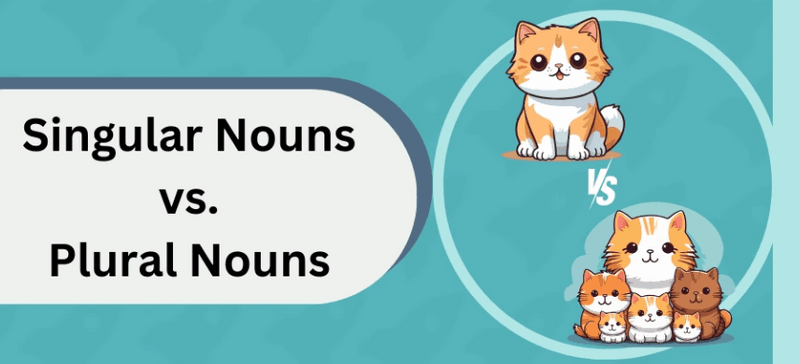
Irregular plural nouns, as the name suggests, don’t adhere to the regular rules of forming plurals; they march to their rhythm. Simply put, these nouns do not end in 's' or 'es' when transformed into their plural form.
For example, the word ‘man’ becomes ‘men’ while ‘child’ changes to ‘children’. The irregular plural is a complexity of the English language that might be challenging, but it's not an insurmountable mountain. Here are some examples of irregular plural nouns that you often come across:
1. Tooth – Teeth
2. Goose – Geese
3. Mouse – Mice
4. Cactus – Cacti
5. Person - People
Given these unique transformations from singular to plural form, these irregular plural nouns may seem tricky at first glance, especially for non-native English speakers. But there's no need to worry because we're here with strategies to assist you in remembering these exceptions.
* **Group and Learn:** Grouping similar patterns together is one of the best ways to remember irregular plurals. For instance, nouns ending in -f or -fe usually change this ending to -ves in the plural (loaf-loaves, wife-wives). Likewise, some words change internal vowels in their plural forms (foot-feet).
* **Create Mnemonics**: A mnemonic is a simple memory aid that can help you remember complex information. For instance, "One mouse has a house; many mice need nice ice" helps recall that 'mouse' becomes 'mice'.
* **Consistent Practice**: Regular use of these nouns will engrave them in your memory over time. Practice using them in your daily conversations or writing tasks.
* **Flashcards**: Write singular & plural nouns on flashcards and use them for spontaneous revision sessions.
To understand more about how singular nouns change to irregular plural forms, check out this video on Singular & Plural Nouns[.](https://www.thesaurus.com/e/grammar/singular-vs-plural-nouns/\).)
Think about it: wouldn't it be remarkable to say 'I watched geese flying over the Ganges at sunset' with confidence? Or 'Our database has access to a myriad of people's information' during a work presentation? With irregular plural nouns under your belt, you'll be one step closer to weaving such captivating sentences with ease.
Practical Exercises to Master Singular and Plural Nouns
-------------------------------------------------------
Let's dive straight into some practical exercises to help you exercise your brain and gain mastery over singular & plural nouns. Use these exercises as a practical tool to enhance your understanding of singular and plural forms, and remember, the key is consistent practice!
### Exercise 1: Fill-in-the-Blanks
Complete the following sentences using the correct singular or plural forms of the nouns in brackets.
1\. Please pass me a \_\_\_\_\_\_\_ (spoon).
2\. There are several \_\_\_\_\_\_\_ (book) on the shelf.
3\. I have two \_\_\_\_\_\_\_ (child) at home.
4\. She bought a beautiful \_\_\_\_\_\_\_ (dress) for the party.
5\. The \_\_\_\_\_\_\_ (fox) caught its prey.
### Exercise 2: Sentence Correction
Correct the sentences that are wrong and leave the right ones as they are.
1\. Sheeps are grazing in the field.
2\. I have three childs.
3\. He has two cars in his garage.
4\. We should respect our elder.
5\. The dog chased its tail.
### Exercise 3: Convert Singular to Plural
Transform each singular noun into its plural form:
1\. Tomato
2\. Leaf
3\. Foot
4\. Man
5\. Mouse
### Exercise 4: Convert Plural to Singular
Now, convert each plural noun into its singular form:
1\. Children
2\. Teeth
3\. Geese
4\. Dice
5\. Women
Understanding how to correctly use singular & plural nouns is an important step towards fluency in English! You can refer to this helpful blog post on [Grammar Rules: When to Use 'Whoever' or 'Whomever',](https://clapingo.com/blog/whoever-vs-whomever) to reinforce your learning and continue building your English proficiency. Make your practice sessions a regular part of your routine, and you'll notice improvement in no time!
**Answers:**
**Exercise 1:**
1\. Spoon
2\. Books
3\. Children
4\. Dress
5\. Fox
**Exercise 2:**
1\. Sheep are grazing in the field.
2\. I have three children.
3\. He has two cars in his garage.
4\. We should respect our elders.
5\. The dog chased its tail.
**Exercise 3:**
1\. Tomatoes
2\. Leaves
3\. Feet
4\. Men
5\. Mice
**Exercise 4:**
1\. Child
2\. Tooth
3\. Goose
4\. Die
5\. Woman
Clapingo's Personalised Coaching Sessions: A Game-changer for Non-native English Speakers
-----------------------------------------------------------------------------------------
Stepping out of your comfort zone and immersing yourself in a new language is no easy task. But what if there was a platform which not only understood your linguistic challenges but also offered tailored solutions to overcome them? Enter Clapingo, a game-changer in the world of English learning.
Clapingo offers personalised coaching sessions designed specifically for non-native English speakers. Every learner is different - their understanding level, the pace at which they grasp new concepts, their fluency, pronunciation issues, and even their vocabulary range. Clapingo acknowledges these individual differences and designs its sessions accordingly.
Every session with Clapingo is one-on-one, providing learners with the undivided attention of the tutor. This allows for an open, judgment-free environment where you can make mistakes, ask questions, and truly learn at your own pace. So [book your session](https://clapingo.com/) with your favourite tutor.
So, embrace these quirks of the English language, because that's where its beauty lies. And remember, every challenge is an opportunity for growth. Happy learning!
Key takeaways
-------------
A quick recap before we sign off: mastering the concepts of singular and plural nouns is a foundational step towards improving your spoken English. We've explored the importance of understanding these two forms, how they can change the meaning of sentences, and how to use them correctly. Remember, while singular nouns refer to one item, person, or idea, plural nouns indicate more than one. For example, "apple" vs "apples" or "child" vs "children". Together, let's work towards breaking down language barriers and boosting your fluency in English communication. Start learning with [Clapingo](https://www.clapingo.com/) today!
FAQs
----
**1\. What's the main difference between singular and plural nouns?**
The basic difference lies in the number of entities they refer to. A singular noun refers to one entity, for example, "cat". On the other hand, a plural noun refers to more than one entity, such as "cats".
**2\. How do I form plural nouns from singular nouns?**
Most singular nouns form their plural by adding 's'. For instance, "book" becomes "books". However, the English language has exceptions where the singular and plural forms are entirely different or the same. For instance, "man" becomes "men", while "sheep" remains "sheep" for both singular and plural.
**3\. Can you give examples of regular and irregular plurals?**
Sure! Regular plurals form by adding 's' or 'es' to the end of a singular noun like "pen" to "pens", or "box" to "boxes". Irregular plurals change the word itself or remain unchanged like “child” to “children”, or “deer” to “deer”.
**4\. How do I use singular and plural nouns correctly in a sentence?**
Every noun must agree with its verb in a sentence. If the subject is singular use a singular verb, if it's plural use a plural verb. For example: The bird sings (singular), The birds sing (plural).
---
This blog is powered by Superblog. Visit https://superblog.ai to know more.
---
## Mastering Singular and Plural: An Engaging Guide for Hindi Speakers
Author: Unknown
Published: 2024-07-12
Meta Title: Understanding Singular and Plural in Hindi: A Guide for Learners
Meta Description: Discover the world of singular and plural in English with the aid of examples in Hindi. Broaden your language skills with examples, exercises, and helpful resources.
Tags: Singular and Plural examples, Singular and Plural definition, Singular and Plural in hindi
URL: https://clapingo.com/blog/singular-plural-hindi

When it comes to effective communication, knowing the singular and plural forms of words is essential. This becomes especially significant for Hindi speakers who are learning English as a second language. The reason? There are many differences in the way these two languages form singular and plural nouns.
Understanding these differences might seem difficult in the beginning. But don't worry! This blog post is here to guide you through these challenges. It will explain how singular-plural forms work in English versus Hindi, and provide practical tips on how you can master them.
Whether you're preparing for a presentation in English or planning to chat casually with your English-speaking friend, understanding these basics will make your communication more accurate and fluent. So get ready for a journey into the world of singulars and plurals!
Why is Understanding Singular and Plural Important?
---------------------------------------------------
Understanding the difference between singular and plural nouns is crucial for mastering spoken English. It's about understanding how the number of items or persons affects the overall communication. This knowledge can make your sentences more accurate and enhance your fluency.
While singular nouns refer to one person, animal, place, thing, or idea, plural ones denote more than one. For example, 'cat' (singular) becomes 'cats' (plural). Incorrect usage can lead to confusion. Imagine saying "I have two cat" instead of "I have two cats". The improper usage not only affects the meaning but also affects the impression you're trying to make on your listener.
Understanding singular and plural forms also helps you speak correctly in different tenses. For instance, in the present simple tense, verbs often get an 's' in the singular form: "He loves mangoes." But not in the plural: "They love mangoes".
Finally, using the singular plural forms properly can improve your fluency. Many nouns change entirely when they become plural - like 'child' to 'children', or 'mouse' to 'mice'.
Remember: fluency comes from getting these basics right! Now, let us take a look at these in detail.
What are Singular Nouns?
------------------------
In the English language, a singular noun refers to just one person, place, thing, or idea. For instance, 'book', 'cat', 'city' and 'joy' are all examples of singular nouns. They usually don't end in an 's', unlike their plural counterparts.
Let's take a look at some common examples along with their Hindi translations:
1\. Dog - कुत्ता (Kutta)
2\. Car - कार (Car)
3\. Tree - पेड़ (Ped)
4\. House - घर (Ghar)
Understanding and correctly using singular nouns is essential for crisp and clear communication. It helps us define the number or quantity of the subject being referred to.
Consider this English dialogue snippet:
Rahul: "I have a new phone."
Anjali: "That's great! Where did you buy it from?"
And its Hindi translation:
राहुल: "मेरे पास एक नया फोन है।"
अंजली: "बहुत बढ़िया! तुमने इसे कहां से खरीदा?"
In this dialogue, 'phone' is a singular noun referring to one object that Rahul has acquired. Mastering the use of singular nouns can greatly enhance your English speaking skills. It gives you the confidence to engage in conversations more fluently and accurately.
What are Plural Nouns?
----------------------
In the English language, plural nouns hold a significant place. They denote more than one person, place, idea, or thing. In simple terms, when we say 'books', 'chairs' or 'buses', we are using plural nouns.
Let's look at some commonly used plural nouns along with their Hindi translations:
1\. Books - पुस्तकें (Pustaken)
2\. Chairs - कुर्सियां (Kursiyaan)
3\. Buses - बसों (Buson)
4\. Dogs - कुत्ते (Kutte)
5\. Bottles - बोतलों (Botalon)
Now let's see these plural nouns in action in some dialogues:
English: "Can you please pass me the pens?"
Hindi: "क्या आप मुझे पुस्तकें दे सकते हैं?" ("Kya aap mujhe pustakende sakte hain?")
English: "We need to order more files for the office."
Hindi: "हमें कार्यालय के लिए और फ़ाइलें ऑर्डर करने की आवश्यकता है।" ("hamen kaaryaalay ke lie aur failen ordar karane kee aavashyakata hai.")
Understanding and correctly using plural nouns can help you articulate your thoughts more clearly and confidently while conversing in English from day-to-day life to professional interactions!
Changing Singular into Plural: A Step-by-step guide
---------------------------------------------------
Mastering the concept of changing singular into plural nouns is crucial for enhancing your English communication skills. Here's a simple, step-by-step guide to help you convert singular nouns into their corresponding plurals. The rules have a varied level of complexity.
### Regular Rules:
Most English words follow a regular pattern to form plurals. You just add an 's' or 'es' to the end of the singular noun. These are the basic rules:
* For nouns ending in 's', 'ss', 'sh', 'ch', 'x', or 'z', add '-es'.
* Words finishing with a consonant plus 'y' change to '-ies'.
* For most of the other nouns, simply add '-s'.
For example, the word boy ('ladka') becomes 'boys', and chair ('kursi') becomes 'chairs'.
### Exceptions to the Rule:
English isn't always straightforward! There are exceptions like 'main' (I) translating to 'hum' (we), where there is no clear pattern. Some irregular plurals are:
* Man - men
* Sheep - sheep
* Child - children
* Ox - oxen
Here is a table comparing regular and irregular plurals:
**Hindi Singular**
**Hindi Plural**
**English Singular**
**English Plural**
Ladka
Ladke
Boy
Boys
Kursi
Kursiya
Chair
Chairs
Main
Hum
I
We
Aadmi
Log
Man
Men
This table clearly exhibits the patterns and exceptions in converting singular nouns to plurals in English.
Remember, practice makes perfect when trying to master these rules and exceptions. Incorporate these into your daily language practice routine, using them in sentences until they become second nature.
For more detailed guidance on improving your English skills, check out Clapingo's blog post: [English Kaise Sikhe: A Step-by-Step Guide for Hindi Speakers](https://clapingo.com/blog/english-kaise-sikhe).
Singular and Plural: Where Do We Make Mistakes?
-----------------------------------------------

As native Hindi speakers, we often make mistakes with singular and plural forms in English. This is due to the influence of grammar rules in the mother tongue. This is mainly because Hindi has a different system for defining the number of nouns, as compared to English. Let's take a look at some of these common errors and find ways to rectify them.
* **Not adding 's' for plurals:** In Hindi, plurals are often formed by adding specific suffixes or changing the noun's form, unlike English where simply adding 's' or 'es' often forms the plural.
* **Misunderstanding irregular plurals:** English has many irregular plural forms (e.g., tooth/teeth, mouse/mice) that don't follow a consistent pattern. This rule can be challenging for Hindi speakers to remember. For instance, it is incorrect to say "two deers." The correct usage is "two deer." Another interesting example is that the correct plural form of "daughter-in-law" is not "daughter in laws" but "daughters in law."
* **Confusion with countable and uncountable nouns:** Hindi doesn't always distinguish between countable and uncountable nouns in the same way English does. This can lead to errors like using the word 'equipments' instead of 'equipment'.
* **Incorrect agreement with verbs:** Hindi verbs don't always change based on the subject's number like English verbs do. This can lead to errors such as using 'is' instead of 'are' with plural subjects.
* **Using singular forms for collective nouns:** Hindi often treats collective nouns (e.g., family, team) as singular, whereas English may treat them as singular or plural depending on context. This can lead to errors like using 'is' instead of 'are' with collective nouns. There could be sentences like "My family is in New Delhi" as well as "My two uncles are studying law in India."
So how can you avoid these mistakes?
1. Always remember that there are exceptions to the rule of adding 's' or 'es' for plurals in English. Make a list of commonly used irregular plurals and practice them regularly.
2. Pay attention to the subject-verb agreement rule in English as it is different from that of Hindi.
For more help with grammar-related queries, check out Clapingo's YouTube video:
Practical Exercises For Mastering Singular Noun and Plural Nouns
----------------------------------------------------------------
Practising through exercises can be an effective way to understand the usage of plural and singular nouns in Hindi and English. Let's look at some exercises!
### 1) Sentence Completion:
Complete the sentences by using the correct form of the noun (singular or plural):
1\. There is a \_\_\_\_\_\_\_\_(dog/dogs) in the garden.
2\. I bought two \_\_\_\_\_\_\_\_(pen/pens) from the market.
3\. She has a beautiful \_\_\_\_\_\_\_\_(baby/babies).
4\. He \_\_\_\_\_\_\_\_ (is/are) studying mechanical engineering.
**Answers:** 1) dog, 2) pens, 3) baby, 4) is
### 2) Spot The Error:
Identify the errors in the following sentences related to singular and plural nouns:
1\. There are many childs playing in the park.
2\. There are a lots of books written about law in India.
3\. He bought three phone yesterday.
**Answers:** 1) children, 2) lot, 3) phones
### 3) Translation Exercises From English To Hindi And Vice Versa:
Translate these sentences from English to Hindi while paying attention to singular and plural nouns:
1\. She is eating an apple.
2\. They are reading books.
Translate these sentences from Hindi to English:
1\. मैंने एक किताब खरीदी।
2\. हमने दो सैंडविच बनाएं।
**Answers:**
English to Hindi: 1) वह एक सेव खा रही है।, 2) वे किताबें पढ़ रहे हैं।
Hindi to English: 1) I bought a book., 2) We made two sandwiches.
These exercises are intended to strengthen your understanding of singular and plural nouns. However, if you're finding it difficult to grasp these concepts or need additional practice, consider checking out [Clapingo's](https://clapingo.com/) personalised coaching sessions. These sessions are designed to help you overcome challenges in understanding singular-plural usage by offering a solution from a trusted source. With one-on-one coaching in your native language, Clapingo ensures that language learning is no longer a difficult task for you. With the sessions, you also receive the opportunity to practice pronunciation.
To build vocabulary, keep practising until you feel confident in using singular and plural nouns accurately. And don't forget, mastering singular noun forms and plural noun forms in both Hindi and English is just one step towards becoming a proficient speaker. If you want to know more about learning English grammar, check out our comprehensive guide [Learn English Grammar Step by Step: Your Complete Guide](https://clapingo.com/blog/learn-english-grammar-step-by-step).
Final Thoughts
--------------
With this guide, we've covered the basics of singular noun forms and plural noun forms and how to master them. Remember, these concepts form the cornerstone of all languages, be it English, Hindi, Japanese, German or even Spanish. They influence sentence formation and meaning. Be mindful of the 's' and 'es' endings for plurals in English and understand that not all nouns follow this pattern.
The journey towards English proficiency can be challenging yet rewarding. The understanding of singular and plural forms could be your first step towards effective English communication. It's now time to take these principles into real-life situations, whether it's a professional conversation or a casual chat with friends who speak English.
Don't stop here! There's always more to learn and perfect when it comes to language proficiency. Explore Clapingo's guides for more useful tips and consider signing up for personalised coaching sessions with Clapingo. The expert tutors at Clpaingo teach in your native language, focusing on areas such as vocabulary expansion, fluency improvement, pronunciation correction, and much more.
Your journey towards mastering the English language doesn't end here—it only gets more exciting. Keep practising, keep learning, and never stop improving!
FAQs
----
**1\. As a native Hindi speaker, why do I sometimes struggle with singular and plural forms in English?**
Rules for forming singular plural in Hindi are significantly different from English. Plurals are often formed by adding specific suffixes or changing the noun's form, whereas English typically adds 's' or 'es'. This difference in plural word formation can lead to confusion when learning English.
**2\. How does learning Hindi influence my understanding of singular and plural nouns?**
Learning Hindi provides a unique perspective on singular and plural forms, as the Hindi language handles plurals differently. In this language, nouns may change form or take specific plural markers, unlike English, where plurals are often indicated by adding 's'. Understanding these differences can help bridge the gap between the two.
**3\. Can you provide examples of singular and plural nouns in Hindi across various topics?**
Certainly! In Hindi, nouns can take different plural forms depending on the word's gender and ending. For example, the word 'device' (उपकरण) becomes 'devices' (उपकरणों) in plural form. There are unique plural forms like 'politics' (राजनीति), 'arms' (हथियार) and 'weapons' (हथियारों). Similarly, 'police' (पुलिस) remains the same in both singular and plural forms.
---
This blog is powered by Superblog. Visit https://superblog.ai to know more.
---
## Master Active and Passive Voice: A Guide for Indian English Learners
Author: Unknown
Published: 2024-07-12
Meta Title: Active and Passive Voice Mastery for Indian English Learners
Meta Description: Clapingo's guide to understand and apply active and passive voice in daily communication for Indian English learners.
Tags: Active and Passive defintion, Active and Passive examples, Active and Passive difference
URL: https://clapingo.com/blog/active-passive-voice

Imagine you're in a meeting, and your client says, "I was told by Raj that the meeting is postponed." This sentence structure confuses you. Isn't it simpler to say, "Raj told me that the meeting is postponed"? This is a common challenge for non-native English speakers, especially with active and passive voices.
In active voice, the subject does the action: "The dog bit the postman." In passive voice, the object becomes the subject: "The postman was bitten by the dog."
Why does it matter? Mastering both voices helps clear communication, sound natural, and improve professionalism. It's also important for storytelling in presentations or writing.
Our blog breaks these concepts down with simple explanations, exercises, and examples from daily life. With practice, you'll confidently switch between active and passive voices!
What are Active And Passive Voices?
-----------------------------------
Let's dive straight into the topic and understand these two important concepts in English grammar - active voice and passive voice.
### Active Voice
In the active voice, the subject of the sentence performs an action. The sentence structure typically follows a simple pattern: **Subject-Verb-Object**. Here are some examples:
* Rohit hits the cricket ball.
Here, 'Rohit' is the subject, 'hits' is the verb, and 'the cricket ball' is the object.
* The students finished their homework.
In this sentence, 'The students' are doing an action - 'finished', and 'their homework' is what they finished.
These sentences are direct, clear, and predominantly used in everyday conversations.
### Passive Voice
On the flip side, we have passive voice in which action happens to the subject or when the subject of the sentence is acted upon. Unlike active voice, passive voice generally follows this pattern: **Object-Verb-Subject**. Let's look at some examples:
* The cricket ball was hit by Rohit.
Here, 'The cricket ball' becomes the focus of our sentence. It was acted upon by 'Rohit'.
* The homework was finished by the students.
Similarly in this case, 'The homework' is what comes into focus first which was completed by ‘the students’.
This form often adds complexity to your sentences and is frequent in formal writings or when you want to emphasise on results more than who did it.
Let's put these voices side-by-side for better understanding:
**Active**
**Passive**
1
Rohit hits the cricket ball.
The cricket ball was hit by Rohit.
2
Students finished their homework.
The homework was finished by students.
To further understand these concepts, here's a quick video from Clapingo on active and passive voice:
Why Do We Need Active and Passive Voice?
----------------------------------------
Active and passive voice play significant roles in spoken English. They help us in expressing ideas with clarity and finesse. They are like two sides of a coin, each holding equal importance and serving different purposes.
Often, in spoken English, we use the active voice. For instance, "The dog chased the thief". In this sentence, the subject, 'the dog', is performing an action. It helps us speak directly and assertively. It creates a lively conversation and keeps listeners engaged.
However, there are times when we want to focus more on what happened rather than who did it. That's where passive voice comes into play. For example, "The thief was chased by the dog". Here, emphasis shifts from the dog to what happened to the thief. Passive voice is essential when we discuss incidents or experiences where the doer isn't as important as the action itself.
Native speakers of English intuitively switch between active and passive voice depending upon the context. Imagine a situation wherein students are discussing their favourite pet animals; they would likely say, "I own a bicycle" (active voice), instead of "A bicycle is owned by me" (passive voice). The active voice sounds more natural in this case.
Understanding when to use active or passive voice is crucial for non-native English speakers striving for fluency.
How Can I Identify Active And Passive Voice?
--------------------------------------------
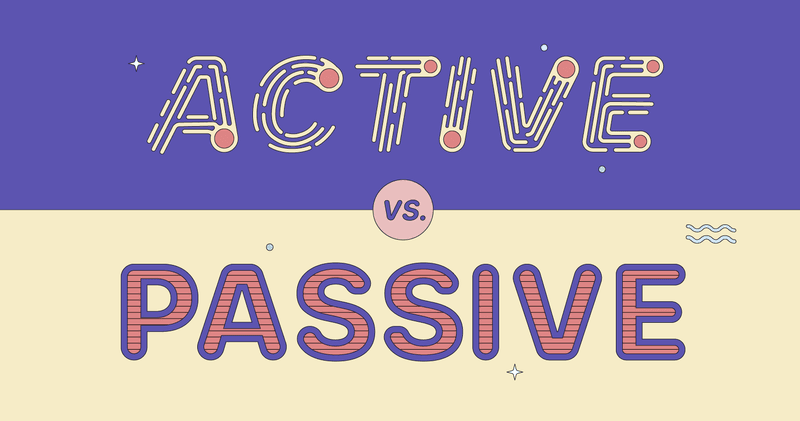
How can you identify these voices in sentences? Let's break it down.
### Detecting Sentences in Active Voice
1. **Subject Dominance:** In an active voice sentence, the subject performs the action. For instance, "The kids (subject) chased (verb) the ball (object)."
2. **Verb Usage:** Active sentences generally use transitive verbs, which need a direct object to complete their meaning.
3. **Directness:** Active voice conveys information straightforwardly. It makes your writing clear and assertive.
4. **Tense Consistency:** The tense of the verb remains consistent throughout the sentence in active voice.
### Recognising Sentences in Passive Voice
1. **Object Dominance:** In a passive voice sentence, the object becomes the subject of the sentence. For example, "The ball (subject) was chased (verb) by the dog (agent)."
2. **Verb Form:** Passive sentences use a form of "be" followed by a past participle verb form.
3. **Preposition Usage:** The word "by" often indicates a passive sentence as it introduces the performer of the action.
4. **Action Focus:** If a sentence focuses more on an action or its receiver than on who or what initiates it, it's likely in passive voice.
Common Challenges Faced by Indians in Using Active and Passive Voice
--------------------------------------------------------------------
The usage of active and passive voice can be a real sticking point for many Indian English learners. Let's dive into some of the common challenges they face.
**1\. Interchanging Voices:**
of the most prevalent mistakes is interchanging these two voices. For instance, you might say, "The cake was eaten by me" instead of the active form, "I ate the cake".
**2\. Confusion Over Sentence Structure:**
The drastic change in sentence structure when switching between active and passive voice often confuses students. For example, in the transformation from "She writes a letter (active)" to "A letter is written by her (passive)", the subject and object swap positions.
**3\. Tense Maintenance:**
Maintaining tense while converting from one voice to another is another common stumbling block. Students often forget to adjust the verb form, leading to errors like "The song was sing by him" instead of "The song was sung by him".
**4\. Inappropriate Use:**
Sometimes, students use passive voice unnecessarily due to overemphasis on its importance in academic writing, leading to clumsy and verbose sentences.
**5\. Omitting Agent:**
In passive voice sentences, it's common for learners to omit 'by' followed by the agent doing the action as in: "A story was told" rather than "A story was told by grandmother".
To illustrate these challenges further, let's consider a scenario:
Imagine you're narrating yesterday's cricket match between India and Australia to a friend. You start saying, "Six balls were bowled by Bumrah in an over", when the correct active form would be: "Bumrah bowled six balls in an over".
Then you add: "Two wickets was taken", confusing tense in passive voice instead of saying: "Two wickets were taken". When your friend asks who won, you reply: "The match was won", leaving out the agent which should be: "The match was won by India".
So next time, before you start speaking or writing, take a moment to think about the appropriate voice to use.
How Can I Switch from Active to Passive Voice and Vice Versa?
-------------------------------------------------------------
Understanding how to switch from active voice to passive voice, and vice versa, can greatly enhance your English communication skills. Let's break down the process step-by-step.
### Converting Active Voice to Passive Voice
Imagine a simple sentence in active voice: "The cat (subject) scratched (verb) the wall(object)."
Follow these steps:
1. **Identifying the Subject, Verb, and Object:** In this sentence, 'cat' is the subject, 'scratched' is the verb, and 'wall' is the object.
2. **Switching Positions of Subject and Object:** In passive voice, swap the positions of subject and object. The sentence now becomes "The wall…"
3. **Adding Auxiliary Verb:** Based on the tense of the verb in the active voice sentence ('scratched' being past tense here), add an auxiliary verb ('was' in this case). It now reads "The wall was…"
4. **Adding Past Participle of Verb:** Replace the original verb with the past participle form of a verb ('scratched' remains 'scratched'). So it becomes "The wall was scratched..."
5. **Adding Preposition 'by':** To complete passive construction, add the preposition ‘by’. The final statement is "The wall was scratched by…"
6. **Bringing in Original Subject:** Add the original subject at the end of the sentence. The final sentence reads: "The wall was scratched by the cat."
### Converting Passive Voice to Active Voice
Let’s reverse this process using another example: "English (subject) is spoken (verb) by students (agent)."
1. **Identifying Subject, Verb and Agent:** In a passive voice sentence, identify the subject ('English'), verb ('is spoken') and agent ('students').
2. **Switching Positions of Subject and Agent:** Swap subject and agent to begin the conversion. It now reads "Students…"
3. **Locating Verb in Correct Tense:** Identify the correct tense of the verb. 'Is spoken' is present tense, so use ‘speak’. Now, we have "Students speak…"
4. **Bringing in Original Subject:** Add the original subject at the end of the sentence. Our active voice sentence becomes: "Students speak English."
Applying Active And Passive Voice in Real-Life Scenarios
--------------------------------------------------------
Whether you're an aspiring professional, a student, or a busy homemaker, mastering active and passive voices can boost your English lskills. Let's break it down with some real-life scenarios.
**Scenario 1: At the Office**
Active Voice: "I will prepare the presentation for tomorrow's meeting."
Passive Voice: "The presentation for tomorrow's meeting will be prepared by me."
In the active voice sentence, I, who is doing the action of 'preparing', is the subject. In passive voice, the object (presentation) becomes the focus.
**Scenario 2: Homework Time**
Active Voice: "Akbar completes his homework every day."
Passive Voice: "The homework is completed by Rohan every day."
Here, Akbar is doing the action (completing homework), hence he is at the beginning in active voice. The emphasis shifts to homework in passive voice.
**Scenario 3: A Day in Kitchen**
Active Voice: "Sheela bakes a cake for her son's birthday."
Passive Voice: "A cake for her son's birthday is baked by Sheela."
In this example, Sheela is taking action (baking), so she appears upfront in active voice. However, the cake becomes central in passive voice.
While these instances help understand basic sentence structures, mastering these voices requires practice. Opting for active and passive voice exercises can help greatly.
Solving Grammar Puzzles: Active And Passive Voice Exercises
-----------------------------------------------------------
Now that we've covered the essentials of using active and passive voice, let's put your knowledge to the test through some exercises.
**Exercise 1: Passive to Active**
Transform the following passive sentences into an active voice:
1. The letter was written by Ravi.
2. The match was won by our team.
3. An apple pie will be baked by Meena.
4. The novel was being read by Simran.
5. The songs were sung by the choir.
**Exercise 2: Active to Passive**
Convert the following active sentences into a passive voice:
1. Rohan walks the dog every morning.
2. Lata opened the door for her guests.
3. The students ate all the mangoes at lunchtime.
4. R K Narayan wrote 'The Guide'.
5. Lata Mangeshkar sang 'Aye mere watan ke logon'.
**Exercise 3: Identifying Tenses in Passive Voice**
Identify which tense is used in each of the following passive sentences:
1. The goldfish has been fed by Priya.
2. A letter will be written by Ankit next week.
3. The cake had been baked before guests arrived.
4. Pooja is being awarded a trophy right now.
5. Emails are sent daily by Mr.Verma.
**_Answers:_**
Exercise 1:
1. Ravi wrote the letter.
2. Our team won the match.
3. Meena will bake an apple pie.
4. Simran was reading the novel.
5. The choir sang the songs.
Exercise 2:
1. The dog is walked every morning by Rohan.
2. The door for her guests was opened by Lata.
3. All the mangoes were eaten at lunchtime by the students.
4. 'The Guide' was written by R.K Narayan.
5. 'Aye mere watan ke logon' was sung by Lata Mangeshkar.
Exercise 3:
1. Present Perfect
2. Future Simple
3. Past Perfect
4. Present Continuous
5. Present Simple
Leveraging Clapingo for Mastering Active And Passive Voice
----------------------------------------------------------
Clapingo's coaching sessions make mastering active and passive voice easy. Our native English-speaking tutors will guide you through learning and practising these skills in everyday conversations.
Sessions are tailored to your needs, ensuring focused attention on areas you need help with. Whether it's switching sentence voices or knowing when to use each, our coaches are here for you.
We also offer YouTube tutorials that explain grammar concepts, including active and passive voice, in simple ways. These videos include explanations, examples, and quizzes for self-assessment.
Consistent practice is key, and Clapingo makes it easy with flexible session scheduling. Want to see our tutors in action? Check out these [Clapingo session](https://www.youtube.com/playlist?list=PL2uSif5Lcfbg1zhrNmPWO1uyorZu5R3AK)s on our YouTube channel.
### To Recap
Understanding active and passive voice is crucial for improving English communication. Knowing when to use each helps express thoughts accurately.
In active voice, the subject does the action: 'Subject + Verb + Object'. For example, "John ate an apple."
Passive voice flips this: 'Subject + Verb + by + Agent'. So, "The apple was eaten by John."
Mastering these concepts boosts communication skills. Active voice brings clarity and energy to statements, while passive can be tactful for sensitive topics.
English is vast, and mastering it brings personal and professional growth. Keep practising, and if you need help, [Clapingo](https://clapingo.com) offers personalized coaching in your native language for fluency, pronunciation, vocabulary, and more. Let's learn together!
### FAQs
**1\. What is the main difference between active and passive voice?**
In the active voice, the subject of the sentence performs the action (e.g., "Ayesha ate an apple"). In contrast, in the passive voice, the subject of the sentence is acted upon by some other agent or by something unnamed (e.g., "The apple was eaten by Ayesha").
**2\. Does English always require active voice?**
Not at all. While many instructors and grammar books recommend using active voice for clarity and directness, both voices have their place and can be used effectively. Passive voice can be purposefully used when you want to put emphasis on the action itself or when it's not crucial who performed it.
**3\. Can changing from active to passive change my sentence’s meaning?**
Switching between active and passive voice doesn't usually change the basic meaning of a sentence. However, it often shifts the focus of attention from one part of the sentence to another, which might alter how your message is perceived.
### **You may want to read.**
[Understanding the Dynamics of Passive vs Active Voice](https://clapingo.com/blog/passive-vs-active)
---
This blog is powered by Superblog. Visit https://superblog.ai to know more.
---
## Effective Ways to Learn Singular and Plural Forms: Worksheets Edition
Author: Unknown
Published: 2024-07-12
Meta Title: Mastering Singular and Plural Nouns: Complete Worksheet Guide for Learners
Meta Description: Learn about singular and plural nouns using worksheets. Find out ideal approaches for learners to build confidence and improve English communication skills.
Tags: Singular and Plural worksheet, Singular and Plural Forms , Singular and Plural examples, Singular and Plural definition
URL: https://clapingo.com/blog/singular-and-plural-worksheets

Picture this: you're at your favourite fruit stall, trying to buy mangoes. You accidentally say, "I want six mango" instead of "I want six mangoes." This is a simple instance where mistakes in using singular and plural forms can reduce the quality of your communication.
Mastering singulars and plurals in English might seem simple. But, it holds so much importance in everyday conversations. It helps us convey accurate information and avoid misunderstandings caused by confusing "one" with "many". It also improves our sentence structuring abilities, leading to clear and effective communication.
This blog will explore the mystery of singular and plural nouns one step at a time. We'll walk you through the basic rules about their use, with relatable examples for better understanding. We'll also introduce worksheet-based exercises specifically designed to help you practice these rules and refine your English-speaking skills. By the end of this journey, you'll be able to avoid any mistakes with singulars and plurals!
What are Nouns? Understanding Singular & Plural Nouns
-----------------------------------------------------
Nouns are the bread and butter of English language communication. They are words that represent a person, place, thing, or idea. For instance, 'book', 'Raj', 'Delhi', and 'happiness' - are all nouns! Mastering nouns is crucial for English learners to express themselves accurately.
A singular noun refers to one entity (e.g., ‘apple’), whereas a plural noun implies more than one (e.g., ‘apples’). Pretty simple, right? But, learners must understand these basics before progressing to more complex structures.
A singular noun is often converted to its plural form by adding an 's’ or 'es’ at its end. For example, 'cat' becomes 'cats' and ‘bus’ becomes ‘buses’.
It is equally important to remember some rules while adding -s and -es to singular nouns:
* If a word ends in –s, –sh, –z, –ch or –x like ‘bus’, 'fox', or ‘wish’, you add –es to make it plural. This gives ‘buses’, 'foxes' and ‘wishes’.
* For almost all other nouns like ‘dog’ and ‘table’, you add an –s to pluralise them. This gives plurals like ‘dogs’, and ‘tables’.
Here are a few more words:
**Singular**
**Plural**
pen
pens
bottle
bottles
teacher
teachers
chair
chairs
dish
dishes
mango
mangoes
This table clearly shows the transformation of singular nouns into their plural counterparts, mainly by adding 's' or 'es' to the singular nouns. However, there are many exceptions such as 'child' and 'children'. These are called irregular plurals. You'll understand this in detail in the next section.
Next time you find a noun in your reading or conversation, try figuring out its singular or plural form. It's a great way to master this fundamental aspect of English! You can use the Clapingo article [Top 35 Books To Help You With English Learning](https://clapingo.com/blog/english-learning-books) for more useful resources.
Irregularities in Transforming Singular to Plural Nouns
-------------------------------------------------------
English is a global language with various influences. So it has a lot of irregularities. This is particularly true when transforming singular nouns to plural. As mentioned earlier, we usually add an 's' or 'es' at the end of a word to make plurals. But there are instances where this rule doesn't apply.
**1\. Irregular Plural Nouns:** Some nouns undergo a complete transformation when pluralised. For example, the correct plural of 'goose' is 'geese', 'tooth' becomes 'teeth' and 'child' becomes 'children.'
**2\. Uncountable Nouns:** Certain nouns do not have plurals because they cannot be counted, like 'information', 'advice', or 'luggage'.
**3\. Same Form for Both:** Some nouns remain unchanged regardless of whether they are one entity or multiple entities. For instance, 'sheep', 'aircraft', and 'species' use the same form for both contexts.
**4\. Unique Nouns:** Certain unique nouns take an unusual route to become plurals, like ‘appendix’ becoming ‘appendices’ and ‘index’ changing to ‘indices’.
**5\. Collective Nouns:** We often use plural nouns singular-way when referring to collective groups, such as 'The team is practising' instead of 'The team are practising.'
Remember, mastering these exceptions takes time to master. So keep practising using worksheets and real-life conversations to solidify your understanding of noun transformations.
Verbs to be Used With Nouns
---------------------------
Understanding the subject-verb agreement is crucial when using singular and plural nouns. This means that nouns require matching verbs. Simply put, a singular noun requires a singular verb, and a plural noun needs a plural verb. Let's make it clear.
Consider the regular noun 'cat'. When we talk about one cat, we use 'is', a singular form of 'to be': "The cat _is_ on the mat." However, if there are multiple cats, 'are', the correct plural form of 'to be', comes into play: "The cats _are_ on the mat."
Now let’s look at irregular nouns like 'sheep'. Whether you're talking about one sheep or many, the noun remains the same. Yet, the verb changes according to number: "The sheep _is_ in the field." vs "The sheep _are_ in the field."
When it comes to regular verbs, they often end in 's' or 'es' when used with singular words. For instance, "He _dances_ well." With plural subjects like "They", we drop the 's', making it "They _dance_ well."
Remember that practising using worksheets can greatly help students improve their English language proficiency. So keep practising with different sentences until you master this concept.
The Role of Worksheets in Practising Singulars and Plurals
----------------------------------------------------------
As the rules of singulars and plurals have been clarified, worksheets can serve as an excellent tool to reinforce this understanding. They provide an interactive and engaging platform for learners to put theory into real-life usage.
Worksheets offer many benefits:
**1\. Supplementing Knowledge:** They help recall the rules learned during lessons.
**2\. Practice:** Worksheets enable repeated exposure to various types of nouns, aiding familiarity.
**3\. Instant Feedback:** Mistakes can be spotted and corrected instantly, strengthening learning.
**4\. Confidence Boost:** With every correct answer, students gain confidence in their language skills.
Here are a few tips for practising with worksheets:
* Begin by solving easy exercises with basic sentences. Gradually move towards complex ones.
* Use correct sentences as references while working on the exercises.
* After completing the worksheets, review the mistakes and understand where you went wrong.
In the next section, we will provide different types of worksheets which can be used for practising the usage. Such worksheets can make a big difference in mastering this vital aspect of English language proficiency!
Singular Plural Worksheet and Exercises
---------------------------------------
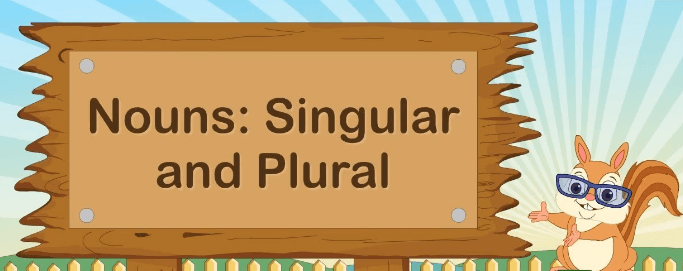
As promised, here are some singular and plural worksheet exercises that will help you strengthen your understanding and usage skills.
**Exercise 1: Regular Plurals**
Regular plurals are formed by simply adding "-s" or "-es" to the end of a singular noun.
Let's take a look at these words:
1. Dog – \_\_\_\_\_\_\_\_
2. Cat - \_\_\_\_\_\_\_\_
3. Book - \_\_\_\_\_\_\_\_
4. Potato - \_\_\_\_\_\_\_\_
5. Box - \_\_\_\_\_\_\_\_
Here is the answer key with explanations:
1. Dogs – We add "-s" because "dog" is a regular noun.
2. Cats – We add "-s" as "cat" is also a regular noun.
3. Books – We add an "-s" here too.
4. Potatoes – For words ending with '-', we add an "-es".
5. Boxes – With words ending in '-x', we add “-es”.
**Exercise 2: Irregular Plurals**
Irregular plurals change completely from their singular form or have the same form in both cases.
Write down the plurals for the following:
1. Child - \_\_\_\_\_\_\_\_
2. Tooth - \_\_\_\_\_\_\_\_
3. Mouse - \_\_\_\_\_\_\_\_
4. Sheep - \_\_\_\_\_\_\_\_
5. Ox - \_\_\_\_\_\_\_\_
The answer key:
1. Children – This is an irregular plural noun, hence the change.
2. Teeth – Another irregular plural noun that changes completely.
3. Mice – This is another example of entirely different irregular plurals.
4. Sheep – No change is needed for the word 'sheep'.
5. Oxen – Oxen is one of the most unique plural forms.
**Exercise 3: Uncountable Nouns**
Uncountable nouns are substances or concepts that we cannot divide into separate elements.
What would you do if you were asked to convert these uncountable nouns:
1. Information - \_\_\_\_\_\_\_\_
2. Advice - \_\_\_\_\_\_\_\_
3. Furniture - \_\_\_\_\_\_\_\_
The answer key:
1. Information – Uncountable, hence no plural.
2. Advice – Also uncountable, hence no plural.
3. Furniture – This is uncountable too. We don't use plural.
**Exercise 4: The Use of Verbs**
In English, the verb changes depending on whether the noun is singular or plural.
Here is the exercise:
1. The dog (jump/jumps).
2. The cats (run/runs).
3. This lesson (is/are) good.
4. The birds (is/are) beautiful.
5. The students (study/studies) hard.
And here are your answers:
1. The dog jumps – As 'dog' is a single entity, it take verbs with -s or -es.
2. The cats run – With plural subjects, we use the base form of the verb.
3. This lesson is good – 'Is' is appropriate with the single subject.
4. The birds are beautiful. - With plural nouns like "birds," we use plural.
5. The students study hard. - Plural nouns like "students" take verbs in the base form, without any added "-s" or "-es."
Remember, learning English is a journey, and every step you take brings you closer to proficiency. So keep practising with these worksheets until you feel confident with nouns! Happy learning!
The Role of Regular Practice & Spoken English Coaching
------------------------------------------------------
Mastering any language aspect is like learning to ride a bike. It all comes down to practising them. The more you immerse yourself in using correct forms of noun usage, the more proficient you become.
Personalised coaching also plays a significant role in this journey. With [Clapingo's](https://clapingo.com/) one-on-one online sessions, learners can focus on crucial aspects like fluency, pronunciation, vocabulary and sentence structure. A dedicated tutor can guide you through interactive activities and worksheets that specifically target your understanding and application of singular-plural forms.
For instance, teachers at Clapingo may present several exercises during a session and encourage students to identify whether each one is singular or plural. This exercise not only helps reinforce what you learn but also provides immediate feedback on your progress.
Remember to give yourself the time to learn and grow – Rome wasn't built in a day!
Check out this encouraging video by Clapingo demonstrating how to clear up any confusing aspects of English grammar:
Final Thoughts
--------------
The journey towards mastering any language is full of challenges. English is no different, with many details to master. As you have seen, understanding various noun forms is one of the fundamental steps in this journey.
Singular-plural worksheets can be your best friend in this regard. They provide students with numerous exercises and help them understand the rules better. The regular use of these worksheets will aid you in avoiding common mistakes made by many students while dealing with nouns.
We know learning a new language can sometimes seem challenging. But remember, every step you take brings you closer to your goal. Consistency is the key. Clapingo is here to encourage continuous learning and support you at every step.
So keep practising, keep learning and let's conquer English together!
FAQs
----
**1\. Why are singular and plural forms important in English?**
Understanding singulars and plurals is the basis for the accurate construction of sentences. It helps to differentiate between one item and more than one item.
**2\. How can teachers use singular plural worksheets effectively?**
Teachers can use singular and plural nouns worksheets to reinforce understanding of nouns among students. They can step up the difficulty level gradually, starting with simple nouns and moving on to irregular ones.
**3\. Can plural nouns ever act as singular?**
Yes, sometimes plural nouns (singular entity) can be used to refer to a group. For instance, "The committee meets every Monday" treats "committee" as an individual entity, even though it's composed of multiple members.
### **You may want to read.**
**[Beyond the Basics: Exploring the World of Nouns](https://clapingo.com/blog/types-noun)**
---
This blog is powered by Superblog. Visit https://superblog.ai to know more.
---
## Sharpen Your English Skills: Past Continuous Tense Exercises
Author: Unknown
Published: 2024-07-12
Meta Title: Past Continuous Tense: Exercises for Indian English Learners
Meta Description: Master the past continuous tense with our guide filled with practical exercises, examples, and insights specifically for English learners in India.
Tags: Past Continuous meaning, Past Continuous Exercises, Past Continuous Tense usage
URL: https://clapingo.com/blog/past-continuous-tense-exercises
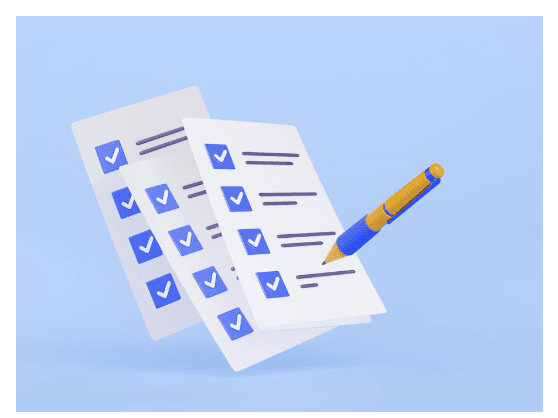
Non-native Indian English speakers often struggle with understanding the past continuous tense. The main issue is differentiating it from the simple past tense. For example, choosing between 'I was eating' (past continuous) and 'I ate' (simple past) can be confusing.
Another challenge is forming negative sentences or questions in this tense. Many learners find phrases like 'Was she not dancing?' or 'Were they not playing?' difficult.
Mastering the tense is important for clear communication in both personal and professional settings. Using the correct tenses in meetings or conversations shows your English proficiency, boosting your credibility.
For instance, when telling a story about a past event, using the past continuous tense like 'was enjoying' emphasizes an action interrupted in the past.
This blog post aims to make the past continuous tense easier for you. We'll explain its structure and usage with examples and provide practice exercises. Stay tuned to master the past continuous tense!
What is Past Continuous Tense?
------------------------------
The past continuous tense is a form of past tense that indicates an action that was ongoing at a certain point in time in the past. In other words, it tells us about an event that had started before a particular moment and was still happening at that moment.
For instance, consider this: "Yesterday at 5 pm, I was reading a book." Here, 'was reading' is the past continuous tense, indicating that the act of reading was ongoing at 5 pm yesterday.
But why should you care about this? Well, the past continuous tense allows you to make your conversations more engaging and detailed by expressing duration, reasons or background information for actions in the past. For example, instead of saying "I saw him yesterday", you could say "I was having coffee when I saw him" to provide more context.
In order to form sentences in this tense, we use 'was' or 'were' based on our subject followed by the verb ending with '-ing'. For example:
* She was cooking dinner.
* They were playing cricket.
Here are some common verbs used in past continuous tense:
* Reading: I was reading a book.
* Writing: She was writing an email.
* Playing: The kids were playing outside.
* Sleeping: He was not sleeping well.
* Watching: We were watching a movie.
How to Formulate Past Continuous Tense
--------------------------------------
Understanding and perfecting the past continuous tense is a stepping stone towards mastering English. This tense is used to describe an action or situation that was in progress at a specific point in the past. The structure of past continuous tense sentences is quite simple and follows the pattern: **Subject + was/were + present participle verb-ing**.
Let's see this in action with a comparison table:
**Subject**
**Auxiliary Verb (was/were)**
**Present Participle (verb-ing)**
I
was
sleeping
You
were
studying
He/She/It
was
playing
We/They
were
sitting
The subject denotes who or what is performing the action. The auxiliary verbs 'was' or 'were' indicate the tense, and the present participle form of the verb describes the ongoing action.
Here are some example sentences using this structure:
* I was reading a novel.
* You were cooking dinner.
* He was washing his car.
* We were watching a cricket match.
To change the main verb into its present participle form, we typically add -ing to the end of the regular verb. For example, 'talk' becomes 'talking', and 'move' becomes 'moving'. However, irregular verbs have unique rules.
When Do We Use Past Continuous Tense?
-------------------------------------
The past continuous tense or the past progressive tense is an essential aspect of English grammar. It's used to describe actions that were in progress at a particular time in the past. In real-life conversations and written English, there are three primary situations where we use this tense.
**1\. Actions Happening at a Specific Time in the Past**
This usage of the past continuous tense allows us to depict an activity that was ongoing at a certain time in the past. For instance:
* At 7 pm yesterday, Rohan was studying for his exams.
In this sentence, 'was studying' is in the past continuous tense and shows that Rohan's study session was ongoing at 7 PM yesterday.
**2\. Two Actions Occurring Simultaneously in the Past**
When two events were happening simultaneously in the past, we use the past continuous tense for both activities. For instance:
* While I was cooking dinner, my sister was watching TV.
Here, both 'was cooking' and 'was watching' are examples of past continuous tense usage, reflecting that both actions occurred concurrently.
**3\. Actions Interrupted by Other Actions or Events**
We often use this tense to describe an action that was interrupted by another event or action. We typically use the simple past tense to express the interrupting action. For instance:
* I was reading a book when the power went out.
In this sentence, 'was reading' is in the past continuous tense as it indicates an action (reading a book) that got interrupted by another event (the power going out).
### Advanced Usage of Past Continuous Tense
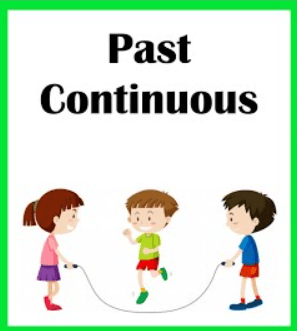
The past continuous tense is not only used to describe actions occurring in the past but also finds application in polite expressions, reported speech, and hypothetical scenarios. Let's dive a little deeper into each of these uses.
* **Polite Expressions:**
The past continuous tense can help soften requests or queries, making them sound more respectful and polite. For instance, instead of saying "Do you want something?", you might say "Were you wanting something?". This use of the past continuous tense in English makes your sentences sound less direct and more courteous.
* **Reported Speech:**
When reporting what someone else said, especially questions or statements about ongoing actions, the past continuous tense often comes into play. For instance, if Ravi said, "I am watching a movie," you could report it as "Ravi said he was watching a movie."
* **Hypothetical Situations:**
We can use the past continuous tense to express hypothetical situations or wishful thinking about the past. These are sentences that discuss events that didn't occur but are imagined or wished for. For instance: "If I was living in Mumbai last year, I would have attended your wedding." Here, 'was living' is in the past continuous tense indicating a non-real or hypothetical situation.
Now let's look at some dialogues based on plausible scenarios to understand these uses better:
1\. Polite Expression
Person A: "Were you wanting to see me?"
Person B: "Yes, I was looking for some advice."
2\. Reported Speech
Person A: "She was telling me that she was going on a vacation."
Person B: "That sounds exciting! Where was she going?"
3\. Hypothetical Situation
Person A: "If I was earning more money last year, I would have bought that car."
Person B: "Well, maybe this year will be better."
By understanding these scenarios and practising their usage actively, you can master using the past continuous tense with ease. Remember, practice makes perfect!
Common Mistakes When Using Past Continuous Tense
------------------------------------------------
Learning a new language, especially English, can be challenging. And it's natural to make some errors along the way. Let's take a look at some common mistakes Indian English speakers frequently make when using the past continuous tense.
**1\. Conjugation Errors**
Incorrect: He was sit outside when it started raining.
Correct: He was sitting outside when it started raining.
Explanation: The verb must be in its '-ing' form after 'was/were' in a past continuous tense sentence.
**2\. Incorrect Use of Auxiliary Verbs**
Incorrect: I were watching a movie yesterday.
Correct: I was watching a movie yesterday.
Explanation: Use 'was' with singular subjects (I, he, she, it) and 'were' with plural subjects (we, you, they).
**3\. Mixing up Simple Past with Past Continuous**
Incorrect: I played cricket when he arrived.
Correct: I was playing cricket when he arrived.
Explanation: Past continuous tense is used to denote an ongoing action that was interrupted by another event.
**4\. Neglecting Time References**
Incorrect: She was reading a book.
Correct: She was reading a book last night.
Explanation: The past continuous tense often requires a specific time reference to indicate when the action was happening.
Studying these common mistakes should help you understand the correct usage of past continuous tense more effectively. For more insights into common English grammar mistakes made by non-native speakers like yourself, check out [Clapingo blogs](https://clapingo.com/blog).
In the next section, we'll dive into some practical exercises to help you grasp the past continuous tense better.
Past Continuous Tense: Exercises for Practice
---------------------------------------------
Let's dive into some practical exercises to reinforce your understanding of the past continuous tense.
**Exercise 1: Fill in the blanks**
1. I \_\_\_\_\_\_\_ (work) on my project when the power went off.
2. They \_\_\_\_\_\_\_ (play) cricket in the park when it started raining.
3. She \_\_\_\_\_\_\_ (read) a book when her phone rang.
4. We \_\_\_\_\_\_\_ (watch) a movie when the electricity was cut-off.
5. He \_\_\_\_\_\_\_ (cook) dinner when his friend arrived.
**Exercise 2: Convert present tense sentences to past continuous**
1. I am studying for my test ->
2. They are playing video games ->
3. She is listening to music ->
4. We are preparing for a party ->
5. He is cleaning his car ->
**Exercise 3: Write negative sentences in past continuous tense**
1. I was not laughing at the joke.
2. They were not arguing over politics.
3. She was not singing in the shower.
4. We were not dancing at the party.
5. He was not driving to Bangalore.
**Exercise 4: Correct or Incorrect Usage**
Identify if the following statements are correct based on the use of past continuous tense.
1. I was watching TV.
2. She were cooking lunch.
3. They was playing football.
4. We was studying maths.
5. He was reading newspaper.
**Exercise 5: Mix and Match**
Match Column A with Column B to make meaningful sentences in past continuous tense.
**Column A**
**Column B**
1\. I was watching
a. when the teacher entered.
2\. They were playing
b. when I found a ₹500 note.
3\. She was singing
c. when the doorbell rang.
4\. We were cleaning
d. when it started to rain.
5\. He was writing
e. a movie when I fell asleep.
#### Solutions
Before we jump to the solutions, take your time and attempt these exercises on your own.
Now let's check your answers:
Exercise 1 - 1) was working 2) were playing 3) was reading 4) were watching 5) was cooking
Exercise 2 - 1) I was studying for my test 2) They were playing video games 3) She was listening to music 4) We were preparing for a party 5) He was cleaning his car
Exercise 3 - Correct as given
Exercise 4 - Correct, Incorrect, Incorrect, Incorrect, Correct
Exercise 5 - Match: 1-e, 2-d, 3-a, 4-b, and 5-c
Comparing Past Continuous Tense with Other Tenses
-------------------------------------------------
One might wonder how past continuous tense differs from the simple past tense and past progressive tense. Let's demystify this by taking a closer look at these three tenses, their similarities and differences.
**Structure**
**Usage**
**Past Continuous Tense**
Utilises the auxiliary verb 'was' or 'were' with the -ing form of the main verb. Example: I was eating.
Indicates an action that was ongoing at a specific time in the past but is no longer occurring. Example: She was studying when he arrived.
**Simple Past Tense**
Simply uses the past form of the main verb. Example: I ate.
Describes an action or situation that happened and finished in the past. Example: They moved to Delhi last year.
**Past Progressive Tense**
Follows the same structure as past continuous, using 'was' or 'were' with the verb in -ing form. Example: I was running.
Similar to past continuous tense, it denotes an action ongoing at a specific time in the past. However, this tense often includes another event interrupting the ongoing one. Example: I was watching TV when she called me.
From our comparison table, we can see that while all three tenses help us express actions or situations that happened in the past, they do this differently based on context and nuances.
* The simple past tense is used for actions that happened and completed in the past with no particular emphasis on their duration or continuity.
* On the other hand, both the past continuous tense and the past progressive tense refer to ongoing actions in the past, often interrupted by another event. The chief difference lies in their usage; sometimes they are used interchangeably.
* In Indian contexts, you would use simple past tense to say something like "I cooked biryani yesterday", indicating a completed event. Past continuous tense would be used in a sentence like "I was cooking biryani when my friend arrived", signifying an ongoing action interrupted by another event.
You can also learn about different tenses in quick and videos. Check out Clapingo's [Tenses - Crash Course](https://www.youtube.com/playlist?list=PL2uSif5LcfbhvIV_H_jhazyXnHEUJZQj4).
Key Takeaways
-------------
In our study of the past continuous tense, we've learned many important things. We understand that this tense describes an action happening at a specific past time.
The sentence structure is simple: 'was' or 'were' comes before the verb, which ends in 'ing'. For example, "I was reading a book yesterday at this time." It's important to use the correct form of 'was' or 'were'.
People often mix up past continuous with simple past or forget to add 'ing' to the verb. Fixing these errors can really improve your sentences.
We looked at exercises and compared this tense to others. Exercises help strengthen your understanding. Knowing when to use each tense is key.
Practicing the past continuous makes your English richer. Regular practice will make you fluent.
For personalised help, [Clapingo](https://clapingo.com) offers one-on-one coaching. Our experts focus on fluency, vocabulary, and grammar. Lessons in your native language help you learn faster.
Learning English is a journey of continuous improvement and growth. Keep at it!
FAQs
----
**1\. Why is the past continuous tense important to learn?**
Learning the past continuous tense is crucial as it helps you accurately describe ongoing events in the past. It allows you to share anecdotes, talk about your experiences, or narrate historical events, thereby enhancing your conversational English skills.
**2\. What is the structure of sentences in the past continuous tense?**
The structure for past continuous tense sentences is: **Subject + was/were + Verb-ing** (present participle). For example, "I was reading a book" or "They were playing chess."
**3\. Can we use past continuous tense to talk about two things happening at the same time in the past?**
Yes, we often use the past continuous tense to describe two simultaneous actions in the past. For instance, "While I was studying, my sister was cooking dinner." Here 'was studying' and 'was cooking' happened at the same time.
---
This blog is powered by Superblog. Visit https://superblog.ai to know more.
---
## The Ultimate Guide to the Future Perfect Tense Formula
Author: Unknown
Published: 2024-07-12
Meta Title: Future Perfect Tense Formula: A Guide for Indian Learners
Meta Description: Improve your future perfect tense usage with this guide. Get practical tips, examples, and exercises for Indian learners to enhance your communication skills.
Tags: Future Perfect Tense meaning, Future Perfect Tense rules, Future Perfect Tense Formula, Future Perfect Tense examples
URL: https://clapingo.com/blog/future-perfect-tense-formula

Understanding English tenses well is important. It helps you speak fluently and share your ideas clearly. This avoids confusion.
Imagine you're in a meeting and you say, "I will finish the project by next week." You mean the project will be done before the week ends. But, people might think you'll start and finish it next week. This can cause confusion and problems with planning.
This post helps smooth out these issues. Our goal is to help you learn and use the future perfect tense correctly. This will improve how you communicate at work and in your personal life.
We'll explain things in simple terms and examples. You'll get not just theories but also exercises to practice what you've learned.
Stay with us as we explore the future perfect tense. Learn how to use it in daily conversations. Knowing this tense well will make your English much better.
What is the Future Perfect Tense?
---------------------------------
Future perfect tense is used when we talk about an action or event that will be completed before a certain time in the future. It's announcing something that’s yet to happen but will definitely be completed at a specific future moment.
Imagine you are preparing for an important job interview in six months. You're planning to master enough English to communicate fluently during the interview. Here, you could say, "I will have perfected my English communication skills by the time I attend the interview." This statement uses the future perfect tense.
The importance of mastering this tense lies in its power to project confidence and foresight in your conversation. In professional scenarios especially, such as project deadlines or business objectives, making definitive statements about future accomplishments showcases your confidence and commitment.
Let's understand its structure: **'will' + 'have' + 'past participle of the main verb'** forms the basis of future perfect tense. For example, if you're planning to finish reading a book before next week, you would say, "I will have finished reading this book by next week."
This formula might seem complex initially, but don't worry! With regular practice and real-life applications, it becomes effortless. Remember, knowledge of tenses like these adds depth to your spoken English repertoire and equips you for success in diverse contexts - from professional meetings to casual conversations with friends.
Understanding Future Perfect Tense Formula with Examples
--------------------------------------------------------
The future perfect tense helps you communicate actions or events that will be completed by a certain time in the future. The general formula for this tense is: **Subject + will have + Past Participle (main verb)**.
Let's understand each component of this formula:
1. **Subject:** It refers to the person or thing performing the action.
2. **Will Have:** This combination of auxiliary verbs conveys that the action will be completed at some point in the future.
3. **Past Participle (main verb):** It denotes the main action in the sentence, presented in its past participle form.
Consider these examples:
* I will have finished my report by evening.
* She will have left for the airport by 6 pm.
* We will have eaten dinner by 8 pm.
Each sentence follows our future perfect tense formula precisely. They illustrate how an action or event will be complete at a certain point in the future.
To contrast, let's look at a table comparing simple future tense and future perfect tense:
**Simple Future Tense**
**Future Perfect Tense**
I will finish my report.
I will have finished my report by evening.
She will leave for the airport.
She will have left for the airport by 6 pm.
We will eat dinner.
We will have eaten dinner by 8 pm.
While simple future tense expresses actions that will happen, future perfect tense outlines actions that will have been completed by a specific time in the future.
Remember to use the right structure - subject, 'will have', and past participle of the main verb when forming sentences in future perfect tense. It not only enhances your communication but empowers you to articulate your thoughts clearly and confidently.
### How to Construct Negative and Interrogative Sentences Using Future Perfect Tense Formula
To construct negative sentences in future perfect tense, the formula is: **Subject + will not have + past participle of the main verb**. For instance, if you want to say your friend won't have finished his project by next Monday, the sentence would be: "Raj will not have finished his project by Monday."
Turning a statement into a question in future perfect tense? Simply switch the subject with the auxiliary verb (will). The formula becomes: **Will+ Subject + have + past participle of main verb + ?** Let's take an example - "Will Raj have finished his project by Monday?"
Time Expressions in Future Perfect Tense
----------------------------------------
Time expressions play a pivotal role in the future perfect tense. They help us reference specific moments or periods in the future when an action or event will be completed. Here are some common time expressions used with examples:
1. **By:** "By" is used to show the latest time an action will be finished.
For example, "By next Diwali, I will have saved enough money to buy a new car."
2. **In:** "In" indicates a period of time during which an action will be completed.
Like: "In three months, I will have finished reading this book".
Let's now bring these expressions to life through some example scenarios.
Scenario 1 - Imagine you are planning for Holi celebrations at your home next year. You might say, "By next Holi, I will have arranged all the necessary items for the celebration."
Scenario 2 - Suppose you and your friends are discussing Virat Kohli's cricket stats. You can use the future perfect tense to predict his performance: "By the end of this IPL season, Virat Kohli will have scored more than 500 runs."
Future Perfect Continuous Tense: An Extension of Future Perfect Tense
---------------------------------------------------------------------
Before delving into future perfect continuous tense, let's refresh our understanding of the future perfect tense. The future perfect tense represents an action that will be completed by a particular time in the future. For example, "By next week, I will have finished my project."
Now, let's extend this to the future perfect continuous tense. This tense refers to an ongoing action that will have been happening for some time when another event occurs in the future. Here is an example to illustrate this: "By 5 o'clock, I will have been studying for three hours." This sentence indicates that from now until 5 o'clock, you'll continue to study.
To understand the relation and differences between the Future Perfect Tense and Future Perfect Continuous Tense, let's look at this comparison table:
**Future Perfect Tense**
**Future Perfect Continuous Tense**
Structure: Subject+ Will + Have + Past Participle of Main Verb + rest of the sentence
Structure: Subject+ Will + Have + Been + Present Participle of Main Verb + rest of the sentence
Example: By next week, I will have finished the project
Example: By next year, I will have been working here for twenty years
This table illustrates how these two tenses differ mainly in their structure and usage. The past participle of the main verb characterizes the future perfect tense while the present participle characterizes the future perfect continuous tense.
To gain a better understanding of tenses in English grammar, we recommend checking out our Tenses- Crash Course on Clapingo's YouTube channel.
Thus, mastering the future perfect continuous tense can enhance your fluency and allow you to express complex actions or events occurring over a time period in the future. So take your time to practice and feel confident using it in your conversations!
Common Mistakes While Learning Future Perfect Tense
---------------------------------------------------

Mistakes are common while learning. Here are some common errors and how to avoid them:
* **Misplacing time expressions:**
Always remember that phrases indicating time in the future like 'by next week', 'in two days' etc., go at the end of the sentence. Example:
Incorrect - "By tomorrow I will have completed my work".
Correct - "I will have completed my work by tomorrow".
* **Incorrect use of ‘will’:**
Avoid using 'will' in time clauses beginning with when, before, after etc. Example:
Incorrect - "When I will reach home, I’ll have dinner".
Correct - "When I reach home, I’ll have dinner".
Now it's your turn! Practice makes perfect. Below are some exercises to help you master the future perfect tense:
Exercises for Mastering Future Perfect Tense
--------------------------------------------
Let's dive into some exercises designed to help you master the future perfect tense formula.
**Exercise 1: Fill in the blanks with appropriate verbs in the future perfect tense form.**
1. By the time you read this, I \_\_\_\_(finish) all my work.
2. She \_\_\_\_(learn) English by next year.
3. They \_\_\_\_(arrive) at the venue before we start.
4. We \_\_(complete) our project by tomorrow.
5. You \_\_\_(eat) all the cupcakes by then.
**Exercise 2: Convert these sentences into future perfect continuous tense.**
1. They play cricket every day.
2. I walk to work daily.
3. She practices dance regularly.
4. We watch a movie every weekend.
5. You read books often.
**Exercise 3: Match each action or event in column A with its future perfect tense version in column B.**
**Column A**
**Column B**
1\. I eat my lunch
a) You will have cleaned your room
2\. She paints a picture
b) He will have studied for his exam
3\. He studies for his exam
c) They will have run five kilometres
4\. You clean your room
d) I will have eaten my lunch
5\. They run five kilometres
e) She will have painted a picture
**_Answers:_**
Exercise 1: 1. will have finished; 2. will have learned; 3. will have arrived; 4. will have completed; 5. will have eaten.
Exercise 2: Answers: 1: They will have been playing cricket every day; 2: I will have been walking to work daily; 3: She will have been practising dance regularly; 4: We will have been watching a movie every weekend; 5: You will have been reading books often.
Exercise 3: 1-d; 2-e; 3-b; 4-a; 5-c.
For personalised assistance, consider Clapingo's coaching sessions[.](https://www.clapingo.com/\).) Trained tutors work one-on-one with you to help you understand and apply the future perfect tense or any other challenging English language concepts.
### Summary
We've explored the future perfect tense, important for clear English communication. This tense describes actions that will be finished by a certain future time.
First, we learned what the future perfect tense is. The formula is: **'Will + Have + Past Participle of the Main Verb**'. Using examples like "By next year, I will have graduated from college," helped us understand how to use it. We also learned important time words such as 'by', 'by then', and 'by the time'.
Keep practising with exercises and everyday use. Follow our tips regularly and see how your English improves.
At [Clapingo](https://clapingo.com), we offer personalized coaching to help you learn better. These sessions give you extra help to master English. Mastering English takes effort, but with practice and support, you can do it.
FAQs
----
**1\. What is the Future Perfect Tense formula?**
The Future Perfect Tense formula is: \[Subject\] + will have + \[past participle of the main verb\]. For instance, 'By next month, I will have finished this project.'
**2\. When do we use the Future Perfect Tense?**
We use this tense to describe an action or event that will be completed before a specific time in the future. For example, 'She will have left for her office by 9 am tomorrow.'
**3\. What is the difference between the Future Perfect Tense and Future Perfect Continuous Tense?**
While both tenses predict actions to be completed in the future, the Future Perfect Continuous Tense emphasises the duration or ongoing nature of an action. For example, 'I will have been living in Delhi for five years by December' (Future Perfect Continuous), compared to 'I will have lived in Delhi for five years by December' (Future Perfect)
**4\. Can I use other auxiliary verbs instead of 'will' in the Future Perfect Tense?**
Yes, 'shall' can be used instead of 'will' when the subject is 'I' or 'we'. For instance, 'We shall have arrived by 6 pm.' However, modern English typically uses 'will' for all persons.
**5\. Is it mandatory to mention a specific point in time while using this tense?**
Generally, a reference to a specific time in the future helps clarify when an action will be completed in sentences using this tense. However, it's not mandatory; context can also indicate the future time frame.
### **You may want to read.**
**[Lingering Moments: A Deep Dive into Past Continuous Tense](https://clapingo.com/blog/past-continuous-tense)
**
---
This blog is powered by Superblog. Visit https://superblog.ai to know more.
---
## Inching Closer or Taking a Leap: A Look at 'Towards' and 'Toward'
Author: Unknown
Published: 2024-07-12
Meta Title: Towards vs Toward Grammar: A Guide for English Learners
Meta Description: Confused between 'towards' and 'toward'? Get clarity with this guide, tailor-made for non-native English speakers in India.
Tags: Towards and Toward examples, Towards vs Toward difference, Towards and Toward meaning
URL: https://clapingo.com/blog/towards-vs-toward

Let's say you're writing a formal email to a senior colleague, and you get stuck at "towards" or "toward". Does it matter which one you choose?
English is full of such confusing words, and today we're going to look at one such pair of words — toward vs towards. This blog aims to help you get a clear understanding of the use of toward vs towards, with easy examples.
What are Prepositions?
----------------------
Prepositions are small yet important tools in English. They connect and establish relationships between words within a sentence. They provide context — pointing to time, direction, location, or manner. In, on, at, for, with, to, etc. are some of the most common prepositions.
For instance, in "_He arrived at noon_", 'at' signifies time.
Prepositions can also change the meaning of a sentence. Look at these two sentences:
1\. "The cat is **_on_** the table."
In this sentence, the preposition "on" indicates the location of the cat. The cat is physically located on the surface of the table.
2\. "The cat is **_under_** the table."
Here, the preposition "under" changes the meaning. The cat is positioned below or beneath the table.
To learn more about prepositions and their important role in English grammar, watch this informative YouTube video. The Clapingo Blog has many helpful articles on grammar, common mistakes, confusing homophones, and more. For example, check out this blog on [the proper usage of the prepositions 'To' and 'For](https://clapingo.com/blog/to-vs-for)'.
Towards or Toward: The Basics
-----------------------------

The words 'towards' and 'toward' mean the same thing. They both indicate direction or motion to a place, point, or situation.
In terms of usage, 'towards' is more common in British English. 'Toward' is typically used in American English. However, in India, where we follow British English, you’ll mostly see ‘towards’.
That said, neither form is incorrect in any version of English. It’s just about regional preferences. To illustrate with examples:
1. _"He walked towards the market."_
2. _"She ran toward the bus stop."_
Both sentences present the same meaning using different words based on regional usage – ‘towards’ and ‘toward’.
Regional Variations: British vs American English
------------------------------------------------
India, being a former British colony, mostly follows British English. This is reflected in our spelling, vocabulary, and even preposition usage.
In British English, 'towards' is used to indicate direction. However, in American English, 'toward' performs the same function. It's important to remember that both forms are correct; it just depends on the region you're communicating in.
Common Mistakes and How to Avoid Them
-------------------------------------
Here are a few common errors that we often make while using towards/toward and ways to correct them:
1\. Incorrect: She walked towards to the market.
Correct: She walked towards the market.
Tip: Remember, use 'towards' as a preposition indicating direction or approach.
2\. Incorrect: He ran towards quickly to catch the bus.
Correct: He ran toward the bus quickly.
Tip: Use 'toward' before indicating speed or manner of motion.
To avoid these mistakes, keep practicing sentences using both 'toward' and 'towards'.
How Clapingo Aids Your English Learning Journey
-----------------------------------------------
Do you sometimes struggle to speak English fluently? Clapingo can assist you! We provide personalized coaching to improve your use of prepositions and overall English speaking skills. Our native English tutors simplify grammar rules and offer a 5-step course to help you become proficient in spoken English in a supportive learning environment.
You can even take an [instant demo with Clapingo](https://clapingo.com/book-a-demo)!
To Sum Up
---------
Understanding the minor difference between 'toward' and 'towards' can improve the fluency and accuracy of spoken English.
'Toward' is generally used in American English, while 'towards' is more common in British English. Remember, both convey a similar meaning and can be used interchangeably without changing the meaning of your sentence.
As a final note, remember that every little step counts in your journey towards masterful spoken English. With persistent effort and practice, you will undoubtedly reach your goal. Start your English learning journey with [Clapingo](https://clapingo.com/) to get a headstart.
FAQs
----
**1\. What is the difference between ‘toward’ vs ‘towards’ in English grammar?**
"Toward" and "Towards" are both prepositions used to indicate direction or movement in relation to something else. The difference lies more in their geographical usage rather than grammar. "Toward" is commonly used in American English, while "Towards" is preferred in British English, which is traditionally followed in India.
**2\. Can we use ‘toward’ and ‘towards’ interchangeably?**
Yes, you can use 'toward' and 'towards' interchangeably without affecting the grammatical correctness of your sentence. The decision between the two depends on the form of English you're using (American or British) or simply personal preference. In India, following the UK convention, 'towards' is more frequently used.
**3\. Is one form more formal than the other when comparing ‘toward’ vs ‘towards’?**
Neither form – 'toward' or 'towards' – is more formal or informal than the other. They both carry the same meaning and connotations; their usage merely depends on regional dialects of English. So whether you're speaking casually with friends or presenting at a business meeting, either term can be appropriately used.
### **You may want to read.**
**[Was vs Were: Gaining Insight into the Proper Use and Application](https://clapingo.com/blog/was-vs-were)
**
---
This blog is powered by Superblog. Visit https://superblog.ai to know more.
---
## Historical vs. Historic: Navigating the Differences and Definition
Author: Unknown
Published: 2024-07-11
Meta Title: Understanding 'Historical Vs Historic': A Comprehensive Guide for Indian English Learners
Meta Description: Understand the differences in the usage of 'historical vs historic.' Find relatable examples, insightful tips, and engaging exercises here.
Tags: Historical vs Historic example, Historic meaning, Historical meaning, Historical vs Historic meaning
URL: https://clapingo.com/blog/historical-vs-historic

The English language is full of tricky vocabulary. Non-native English speakers often struggle with words that sound or look alike but mean different things. 'Historical' and 'historic' are a classic example of this. They might seem like they can be used interchangeably. But, if you dig a bit deeper, you'll see that's not true.
In this blog post, we're going to discuss these similar-sounding words in detail. We will provide detailed explanations, examples and practical tips for correct usage. Follow this guide and you'll never mix up 'historical vs historic' again.
What is the Difference Between 'Historical' and 'Historic'?
-----------------------------------------------------------
The words 'historical' and 'historic' are adjectives that have their roots in history. But they serve different functions. Let's begin by looking at historical vs historic definition.
'Historical' primarily refers to any aspect or element from the past. It simply indicates that something relates to history or occurred in the past. For instance, any old monument in your city would be referred to as a _historical_ structure, whether it played any significant role or not.
'Historic' refers to something that has a significant impact on history. For example, we might say, "India's Independence Day is a _historic_ event."
Now let's consider a couple of practical examples:
1. These family photos are _historical_ records of your ancestors.
2. The signing of the Indian Constitution on 26th January 1950 was a _historic_ moment.
You can check out the Cambridge Dictionary guide Historic or historical? for more examples.
Remember this simple rule. _All historic events are historical, but all historical events are not historic!_ In your professional life, you may come across doubts about the definitions of historical vs historic. You may also be confused about the use of historical vs historic data. In such instances, remember that the difference lies in the level of significance!
Practical Tips for Mastering the Usage of 'Historical' and 'Historic'
---------------------------------------------------------------------
Remembering the difference between 'historical' and 'historic' can be difficult, but with these simple tips, you can master it easily.
* **Visualisation techniques**: Think of 'historic' as a spotlight. It shines on a key event or figure on a stage representing history. In contrast, 'historical' is like looking at the entire stage. This may be filled with many characters and events.
* **Mnemonic devices**: Remember, 'historic' is like 'hitting' a final shot in cricket. It's a game-changer. But, 'historical' is like 'typical' – part of the general course of events.
Let’s apply this understanding in a conversation:
Anu: "I visited the _historic_ Red Fort last weekend."
Manu: "That's amazing! It played such an important role during India's independence."
Anu: "I also went to an exhibition on _historical_ artefacts from various dynasties."
Manu: "Sounds fascinating! History truly comes alive through such items."
Sharpen Your Skills: Exercises on 'Historic' and 'Historical'
-------------------------------------------------------------
The best way to master 'historical' vs 'historic' differences is through practice. Let's do some practice exercises.
Choose between 'historic' and 'historical' to fill in the blanks:
a) The Taj Mahal is a \_\_\_\_\_\_\_\_ monument.
b) He is an enthusiast of \_\_\_\_\_ data and loves studying old records.
c) This event has been considered a \_\_\_\_\_ milestone in Indian sports history.
d) The \_\_\_\_\_ buildings in Old Delhi hint at a rich past.
After you are done marking the answers on your own, you can check the answers and explanations here:
a) Historic: Given its global significance, the Taj Mahal is considered “historic”.
b) Historical: Data from the past is referred to as “historical” data.
c) Historic: The event signified a major milestone, hence it's 'historic.'
d) Historical: Here, we’re talking about the buildings' connection to the past. Hence, "historical" is suitable.
Remember to keep practising. You can make use of Clapingo's resources for an in-depth understanding of such differences in English. Here is a useful article: [Top 25 English Speaking Course Books You Shouldn't Miss](https://clapingo.com/blog/english-speaking-course-book).
Broadening Your Vocabulary: Related Terms to ‘Historical’ and ‘Historic’
------------------------------------------------------------------------

To master the English language, it is important to have good vocabulary skills. Here are some terms related to ‘historical’ and ‘historic’ to expand your vocabulary:
* **Antiquated:** Very old or old-fashioned.
Example: "The antiquated law needs revision."
* **Ancestral**: Relating to family ancestors.
Example: "The ancestral home still stands in Rajasthan."
* **Bygone**: Referring to something that belonged to a past time.
Example: "The bygone era of royal Maharajas is often romanticised."
* **Heritage**: Used to talk about the culture of a particular society. This includes traditions, languages, or buildings that were created in the past and still have importance.
Example: "Our heritage sites need preservation."
If you wish to improve your vocabulary further, you can check out this Clapingo blog: [How to Improve Vocabulary in English Online at Home](https://clapingo.com/blog/how-to-improve-vocabulary-in-english)
Elevate Your English Learning Journey with Clapingo
---------------------------------------------------
Understanding complex English terms can be a challenge. This is especially true when they seem so similar, like 'historical' and 'historic'. This is an aspect that many language learners struggle in mastering.
This is where Clapingo can assist! Clapingo offers personalised one-on-one coaching sessions tailored for non-native English speakers in India. These sessions are designed to help you conquer and master language challenges. Clapingo offers a detailed exploration of vocabulary, fluency, pronunciation and sentence structure. The classes also address specific challenges faced by each learner.
Check out this YouTube video to learn more about Clapingo:
Mastering 'Historical' vs 'Historic': The Way Forward
-----------------------------------------------------
By now, you must be confident in using the words 'historical' and 'historic' accurately. Remember, 'historic' refers to something significant. 'Historical' means related to the past or history. It's the basic differences like this that form the foundation of proficient English communication. Mastering them will help you in the long run.
Continue this exploration on reliable platforms like Clapingo. With practice, you'll grow comfortable with these terms. Eventually, you will be able to improve your overall communication skills.
FAQs
----
**1\. What is correct: a historical or an historical?**
A: Use "a historical." The "h" at the beginning of "historical" is not silent. So, "a" is appropriate.
**2\. What is the difference between historic and old?**
A: "Historic" implies significance or importance. "Old" simply refers to age.
**3\. How do you use historical in a sentence?**
A: Historical is used as an adjective in a sentence. Here’s an example: “The monument has great historical value."
### **You may want to read.**
**[Beyond the Basics: Exploring the World of Nouns](https://clapingo.com/blog/types-noun)**
---
This blog is powered by Superblog. Visit https://superblog.ai to know more.
---
## Counsel or Council? Understanding the Advice and Governance
Author: Unknown
Published: 2024-07-11
Meta Title: Clarity in Communication - Counsel vs Council Explained
Meta Description: Clear the confusion behind ‘Counsel and Council’. Improve your English fluency with Clapingo’s simple guide.
Tags: Counsel vs Council definition, Counsel vs Council examples, Counsel vs Council differences
URL: https://clapingo.com/blog/counsel-vs-council

Indian learners often get confused about similar-sounding words like "counsel" and "council." Understanding these differences can greatly improve how you communicate. Using these words incorrectly can cause misunderstandings, especially at work.
In this post, we'll explain the differences between these words . We will give examples to help you use them right, and share some tips. So let's dive right into understanding 'counsel vs council'.
Clarifying 'Counsel' and 'Council'
----------------------------------
Let's begin with the term 'counsel'.
In English, 'counsel' can function as both a noun and a verb. As a noun, it often refers to advice given formally. For instance, "_I received sound counsel from my professor about my career options"_. As a verb, ‘counsel’ means giving advice. Like, "_The teacher counselled the student to focus more on his studies._"
Here are different contexts where 'counsel' is used:
* **Legal Counsel:** This implies a lawyer or group of lawyers providing legal advice. Example: "_The defendant’s legal counsel argued that he was innocent._"
* **Counsel of War:** A discussion among leaders about strategies for battle
* **Pastoral Counsel:** Guidance provided by religious leaders
Next up is 'council'.
This word is only used as a noun in English. It refers to a group of people chosen for administration, legislation, or advisory work. For example, "_The school council met to discuss the annual function plans._"
Here are different contexts where 'council' is used:
* **City Council:** The governing body of a city
* **Student Council:** A group of students elected to represent their peers
* **United Nations Security Council:** It is one of the six main parts of the United Nations. They are responsible for maintaining global peace and security.
Why Does it Matter? The Impact of Misusing ‘Counsel’ and ‘Council’
------------------------------------------------------------------
Misunderstanding 'counsel' and 'council' can lead to funny situations. For example, writing 'seek council' instead of 'seek counsel' for a legal issue can be awkward.
Using these words right helps you communicate better, whether at work or with friends. When you say 'legal counsel,' people know you mean a lawyer. If you talk about the 'student council,' it's clear you're talking about a group.
How to Remember the Difference Between ‘Counsel’ and ‘Council’?
---------------------------------------------------------------
To remember the difference between 'counsel' and 'council', consider employing mnemonic devices.
For instance, the word 'counsel' has an 'e' in it as does the word 'advice'. Therefore, you can associate 'counsel' with giving advice. 'Council' contains an 'i' like in the word 'institution', which can help you remember it refers to a group of people.
Here is a simple comparison to further clarify:
**Counsel**
**Council**
Is used as a noun and verb
Is used only as a noun
Refers to advice or a person giving advice
Refers to a group of people who make decisions
Example: _The lawyer offered his legal counsel to the defendant._
Example: _The city council decided to build new parks._
There are more fun ways to remember English words! Watch this Clapingo video on common confusion in grammar and some vocabulary tips:
Remember that practice makes perfect when learning terms like **legal counsel vs council** or **counsel vs council lawyer**.
### Common Mistakes While Using Counsel and Council
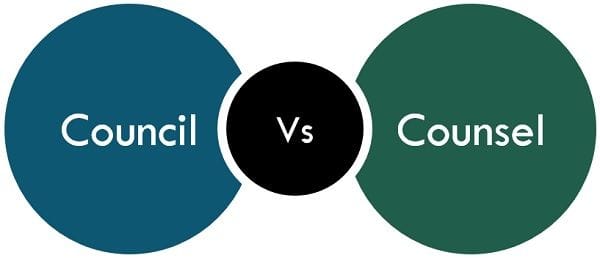
Indian English learners often face confusion while using 'counsel' and 'council'. Here are five common mistakes:
1. **Misusing terms:**
Due to similar pronunciation, many use 'counsel' when they mean 'council'. Remember, a council is a group of people, while counsel can refer to advice or a legal advisor.
2. **Incorrect spelling:**
Some write ‘councel’ instead of 'counsel'. Use the mnemonic - 'sel' in counsel for the sel-ling of advice.
3. **Wrong context:**
‘Counsel’ is used inappropriately in political contexts. For example, saying ‘the President’s counsel’ instead of ‘the President’s council’.
4. **Inappropriate use in legal context:**
Often, learners say ‘he is a council’ instead of ‘he is a counsel(lawyer)’.
5. **Confusing plural forms:**
Learners might incorrectly say 'counsels' instead of 'councils' when referring to multiple groups.
Your Personal Language Coaches at Clapingo
------------------------------------------
At Clapingo, we know learning a new language can be tough. Especially with tricky words like 'counsel' and 'council' or ['stationery vs stationary](https://clapingo.com/blog/stationery-vs-stationary)'. That's why our personalized coaching sessions help make these challenges easier to understand.
At Clapingo, we believe in learning together in a supportive environment. We provide a safe space where mistakes are seen as chances to learn. Whether you're working on words like 'counsel vs council' or improving your pronunciation, our coaches are here to support you.
Summing Up
----------
As we wrap up our discussion on 'counsel' and 'council', let's review the main points.
* 'Counsel' means advice or guidance, often from a lawyer or group of lawyers. Think of it as your legal guide.
* 'Council' refers to a group making decisions, like a committee for city matters.
Understanding these differences is important to avoid mix-ups in personal and professional situations. A helpful tip: think of 'counsel' as 'consultation' and 'council' as 'committee'.
Practice is key to mastering these distinctions in English. And Clapingo's tutors are here to help you improve your speaking skills. [Book a quick demo now!](https://clapingo.com/book-a-demo)
FAQs
----
**1\. What is the meaning of 'counsel' and 'council'?**
'Counsel' usually refers to advice or guidance. It is also used in a legal context to denote a lawyer or group of lawyers giving legal advice. 'Council' refers to an assembly of people who make decisions or advice on a particular matter.
**2\. I often confuse 'counsel vs council'. How can I remember their meanings?**
Remember that 'se'l in 'counsel' stands for 'someone else's logic', implying advice or guidance from someone else, like a lawyer or advisor. Whereas, 'ci'l in 'council' stands for ‘community involved’, indicating a group or body involved in community affairs or governance.
**3\. Can you provide examples of using 'legal counsel vs council'?**
Here's an example:
"_The company's legal counsel advised them about the potential lawsuit. Even before the council was discussing budget allocations_."
---
This blog is powered by Superblog. Visit https://superblog.ai to know more.
---
## In Unison or Completely? Navigating 'All Together' and 'Altogether'
Author: Unknown
Published: 2024-07-11
Meta Title: All Together Vs Altogether: Simplifying English Phrases with Examples
Meta Description: Learn the use of 'all together' vs 'altogether' in spoken English. With examples, relatable scenarios, and advice for Indian non-native speakers.
Tags: all together meaning, altogether meaning, All Together vs Altogether
URL: https://clapingo.com/blog/all-together-vs-altogether

Imagine you're in a meeting and say, "We're altogether in this project." Then, your colleague corrects you, saying it should be 'all together'. Confusing, right?
When learning English, we often find words and phrases that sound similar but mean different things. 'All together' and 'altogether' are examples of this.
Knowing how to use these phrases correctly is important because it can change what your sentences mean. This article helps clear up the confusion between 'all together' and 'altogether' for learners like you, so you can use them right in your conversations.
Let's start.
What do 'All Together' and 'Altogether' Mean?
---------------------------------------------
'All together' refers to a collective whole or group action. For instance, imagine you're at a family dinner and everyone is scattered around the house. You want them to come and sit at the dinner table, so you say, "_Can we all sit down at the table all together?_" Here, 'all together' shows that you would like everyone to do an action simultaneously.
'Altogether' is an adverb meaning entirely or completely. Suppose your friend has stopped eating sweets to stay healthy. You might say, "_He has given up sweets altogether._" This means he's completely stopped eating sweets—not just reduced the quantity but stopped entirely.
Remember, these two phrases are not interchangeable in spoken English.
For instance:
* Incorrect: "We sang the birthday song altogether."
* Correct: "We sang the birthday song all together."
* Incorrect: "She was missing from work all together today."
* Correct: "She was missing from work altogether today."
### When to Use All Together?
'All together' is used when you want to say that everyone or everything is doing something collectively.
For example, if your friends singing a song, you could say "_We were singing all together_". Or you’re distributing sweets at Diwali and everyone comes to collect them at once. You might say "_The kids came all together_". Remember, 'all together' refers to the collective action of a group.
### When to Use Altogether?
On the other hand, 'altogether' means completely or in total.
If you've stopped drinking tea entirely due to health concerns, you can say "_I've given up tea altogether_". Or consider this scenario: paying for movie tickets and popcorn for your friends, you spent around Rs 1,500. In this case, you could say "_The night out cost me Rs 1,500 altogether_". So, 'altogether' refers to an absolute state or the total sum of different elements.
Common Mistakes Made by Non-Native Speakers using All Together Vs Altogether
----------------------------------------------------------------------------
Many English learners in India mix up 'all together' and 'altogether', causing confusion and mistakes in how they're used. Here are some common mistakes:
1. **Incorrect Sentence Construction:** "We are altogether surprised by the announcement." 'All together' should be used in this context as the surprise is shared by a group collectively.
2. **Misunderstanding the Meaning:** "The team worked all together for the project." The correct term here is 'altogether', which refers to 'entirely' or 'completely'.
Check out this Clapingo video that explains more about common mistakes made by learners:
Practical Tips to Remember the Difference between All Together Vs Altogether
----------------------------------------------------------------------------
1. **Use Context:** 'All together' is used when referring to a group in unison or simultaneously. While 'altogether' implies entirely or completely. For example, "_We sang all together at the party_," but "_I'm altogether tired of this song_."
2. **Check for Separation:** You can separate 'all' and 'together' in a sentence. You can never separate 'altogether'. For instance, "_We all came together for the event_" is correct but separating 'altogether' as "_She is all together tired"_ is incorrect.
**All Together**
**Altogether**
Refers to a group acting in unison
Refers to something being complete or total
Can be separated in usage
Cannot be separated
Exercises to Practice Using All Together Vs Altogether
------------------------------------------------------

Here are some exercises that will help enhance your understanding.
1. **Fill in the blanks with either 'all together' or 'altogether':**
* We sang the national anthem \_\_\_\_\_\_\_\_\_\_ at the Independence Day celebration.
* Ramesh decided to quit smoking \_\_\_\_\_\_\_\_\_\_\_.
* The team worked \_\_\_\_\_\_\_\_\_\_ on the project.
1. **Choose the correct option in these multiple-choice questions:**
* We need to put our heads \_\_\_\_\_\_\_\_\_\_ and solve this issue.
a. altogether
b. all together
* It's another matter \_\_\_\_\_\_\_\_\_ when playing against an international team.
a. all together
b. altogether
**Solutions:** 1) all together, altogether, all together; 2) b, b.
How Clapingo Can Help Improve Your English Skills
-------------------------------------------------
Understanding tricky English differences, like 'all together' versus 'altogether' or [Affect vs Effect](https://clapingo.com/blog/affect-vs-effect), can be difficult. Clapingo is here to help! We provide personalized coaching to help you master these nuances in a supportive way. Our native English tutors customize each session to focus on fluency, pronunciation, vocabulary, and sentence structure, ensuring you build strong language skills.
So, if you are aspiring to enhance your English skills, Clapingo is an excellent resource.
To Recap
--------
In this article, we've talked about the difference between 'all together' and 'altogether'.
'All together' means a group acting as one, while 'altogether' shows the total or extent. For example, we sang the anthem 'all together', but she stopped eating sweets 'altogether'.
The key to mastering these phrases lies in regular practice. Constant effort is crucial to master English as a language. If you're seeking more in-depth learning and personalised guidance, consider engaging with [Clapingo's](https://clapingo.com/) services.
FAQs
----
**1\. What does 'all together' mean?**
'All together' refers to all the elements or people being in one place or acting as a group. For example, in a family gathering, you might say, "_We sang the birthday song all together._" This indicates that everyone sang in unison.
**2\. When should I use 'altogether'?**
'Altogether' is an adverb meaning completely, totally, or on the whole. For instance, if you decide to quit smoking, you could say, "_I've given up smoking altogether_." This means you've completely stopped smoking.
**3\. Can I interchange 'all together' and 'altogether'?**
No, 'all together' and 'altogether' are not interchangeable as they have different meanings. Using them incorrectly can lead to confusion and misunderstanding in communication.
---
This blog is powered by Superblog. Visit https://superblog.ai to know more.
---
## Decode English: Understand and Use 'Presume vs Assume' with Simple Examples
Author: Unknown
Published: 2024-07-11
Meta Title: Presume Vs Assume: Detailed Examples for Indian Learners
Meta Description: Explore the differences between 'Presume' and 'Assume' with examples for improved English communication.
Tags: Presume vs Assume examnples, Presume vs Assume meaning, Presume vs Assume definition
URL: https://clapingo.com/blog/presume-vs-assume

Consider this common scenario. During a team meeting, your boss says, "Rajesh, we presume you will finish the project by next week". A wave of confusion hits you as you wonder if 'presume' means the same as 'assume'. You're not alone. The confusion between 'presume' and 'assume' is a challenge that many English learners face.
Understanding the correct use of these terms is important for effective communication. Especially in professional and academic settings where every word matters.
This article will guide you through a detailed explanation of both terms, with examples and tips to remember their difference. Let's dive into understanding these two commonly confused words!
What Do ‘Presume’ and ‘Assume’ Mean?
------------------------------------
'Presume' implies a belief or action based on reasonable evidence or likelihood. For instance, you might say, "_Since it's raining outside, I presume he would have taken the umbrella_".
'Assume' suggests a belief or action taken without proof or guarantee. For instance, you could say, "_He hasn't called yet, so I assume he must be busy_".
Both words are about beliefs, but the main difference is how sure or supported those beliefs are. Check out this comparison table for a clearer **'Presume Vs Assume' meaning**.
**Word**
**Meaning**
**Level of Certainty**
Presume
To believe based on probability
High (based on some evidence)
Assume
To believe without validation
Low (based on assumptions)
Understanding ‘Presuming’ Vs ‘Assuming’ Through Examples
--------------------------------------------------------
Let's clarify the difference between 'presume' and 'assume' with some real-life contexts. Here are two scenarios:
1. Let's imagine your colleague hasn't shown up to work for three days without any information. You might say, "_I presume she is sick_," because you're making an educated guess based on her absence. But, if you see your colleague in the morning with a heavy backpack, you might say, "_I assume you're going on a trip._" That's because it's a prediction based on observation.
2. In another case, consider two friends discussing a popular movie they haven't seen yet. One might say, _"I presume the movie is good as everyone is talking about it_," drawing conclusions from popular opinion. But if one of them has read the book on which the movie is based and says, "_I assume the movie will stick to the book's plotline_," they are making an assumption based on prior knowledge.
These examples show that 'presume' and 'assume' both mean forming beliefs without complete certainty, but they have slight differences. 'Presume' is about what's likely or probable, while 'assume' is about guessing without solid proof.
For more examples of everyday scenarios like these, do check out our post on "[61 Must-Know English Sentences for Daily Use](https://clapingo.com/blog/english-sentences-for-daily-use)".
Common Misunderstandings Between Presume and Assume
---------------------------------------------------
Non-native speakers often interchange 'presume' and 'assume', creating confusion. Some typical errors include:
* Using 'presume' for guessing without evidence.
* Using 'assume' when there's a reasonable basis for belief.
### How to Avoid Mistakes with ‘Presume’ and ‘Assume’
To master the differences of 'presume' and 'assume', follow these steps:
1. Remember: 'Assume' is guesswork; 'Presume' has reasonable grounds.
2. Practice with sentences, focusing on the **presume vs assume meaning**.
Practice Makes Perfect – Exercises to Master ‘Presume’ and ‘Assume’
-------------------------------------------------------------------
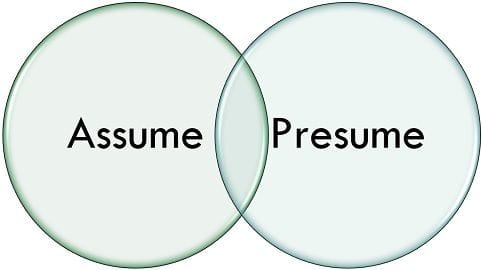
Let's do some exercises to help you differentiate between 'presume' and 'assume'.
1\. Fill in the Blanks
* I \_\_\_\_\_\_\_ you've done your homework. (Hint: There's certainty based on regular habit)
* She \_\_\_\_\_\_\_ it was going to rain and carried an umbrella. (Hint: There's no strong evidence)
2\. True or False
* "I presume I'll see you at the party" – The speaker is reasonably certain.
* "I assume this is your book" – The speaker has a strong basis for this belief.
3\. Sentence Completion
* I \_\_\_\_\_\_\_ that you're enjoying the cricket match since you're cheering so loudly.
* Despite no response, she \_\_\_\_\_\_\_ he had understood her explanation.
**Solutions:** 1. Presume, Assume; 2. True, False; 3. Presume, Presume.
Final Thoughts
--------------
To summarise, remember that 'presume' and 'assume' are not entirely interchangeable. Understanding their usage can enhance your spoken English skills. The key difference lies in the basis of belief. 'Presume’ is based on probability or reasonable grounds, while ‘assume’ is based on no evidence.
Take the discussion we had on '**presume vs assume meaning**' as an example. If you presume your train will arrive on time because it generally does, you're basing that presumption on evidence from past experiences. However, if you assume it will rain today even though there are no signs of rain, you're making an assumption without any solid evidence.
With [Clapingo's](https://clapingo.com/) coaching, you can practice small differences in English to get better at speaking. For example, learning 'presume vs assume' can help you speak English confidently, which can be useful in your personal and work life.
FAQs
----
1\. **Define assume vs presume.**
Presume and assume, both infer a belief or acceptance of something as true without proof. However, they differ in their degree of certainty. 'Assume' implies a general belief based on insufficient evidence or lack of proof.
**2\. Can you provide some presume vs assume examples?**
Here are two scenarios:
* Scenario 1: If your friend doesn't show up for a meeting, you can say, "_I assume he forgot about our meeting_." It means you're guessing without any solid proof.
* Scenario 2: If the same friend often forgets about meetings, and again doesn't show up, you may say, "_I presume he forgot about our meeting_." Here, your presumption is based on past behaviour.
**3\. When should I use presume vs assume in conversation?**
* Use 'assume' when you believe something to be true based on incomplete or no evidence. For example, "_I assumed she would be late because she always is_."
* Use 'presume' when you have a reasonable basis for your belief or inference. For instance, if she has told you she will be late, then you can say, "_Given her message that she’s stuck in traffic, I presume she’ll be late._"
---
This blog is powered by Superblog. Visit https://superblog.ai to know more.
---
## The Past Continuous Tense in Hindi: A Common Scenario
Author: Unknown
Published: 2024-07-11
Meta Title: Mastering Past Continuous Tense in Hindi: Easy, Effective, and Engaging Methods
Meta Description: Learn through simple instructions, practical examples and relatable scenarios tailor-made for Hindi speakers.
Tags: Past Continuous Tense in Hindi, Past Continuous Tense examples, Past Continuous Tense rules
URL: https://clapingo.com/blog/past-continuous-tense-hindi

Imagine you're engaged in a conversation with an English-speaking colleague about your last vacation. You say, "I was reading a book on the beach," but instead, it comes out as "I read a book on the beach". You've just used the simple past tense instead of the past continuous tense, changing the context of your story.
This confusion often arises when translating from Hindi to English because, in Hindi, there's no equivalent for 'was' or 'were' (past continuous tense markers). Instead, we use 'था', 'थी', थे', or 'रहे थे' which translates directly to ‘was’ or ‘were doing’.
Let's take a moment now to understand what past continuous tense is and why it's vital in spoken English.
The past continuous tense (also known as the past progressive tense) is used to describe an action that was happening at a specific time in the past. It's formed using 'was/were' + verb-ing (e.g., I was eating). In Hindi, this would be expressed as मैं खा रहा था/खा रही थी.
This blog aims to make understanding and using the past continuous tense easier by providing simple explanations accompanied by Hindi and English examples.
We'll delve into details such as when and how to use this tense correctly and provide numerous continuous tense examples for better understanding. We'll also discuss common mistakes Hindi speakers make while using this tense and ways to avoid them.
So stay tuned as we unravel the enigma of the past continuous tense in Hindi and English!
Definition and Structure of Past Continuous Tense
-------------------------------------------------
The past continuous tense, also known as the past progressive tense, is used to express an action or situation that was ongoing in the past. In Hindi, it's often represented by phrases like "रहा था", "रहे थे" or "रही थी".
The structure for this tense is relatively simple:
'Subject + was/were + Verb-ing (present participle)'.
For instance, 'I was reading', 'You were cooking', or 'They were playing'.
Here’s a table to help you understand:
**Subject**
**Auxiliary Verb**
**Main Verb (Present Participle)**
I / He / She / It
was
verb+ing
You / We / They
were
verb+ing
To form negative sentences in this tense, we simply add 'not' after the auxiliary verb. E.g., 'I was not reading'. For questions, the subject and auxiliary verb switch places, like 'Were you cooking?'.
Usage Rules with Simple Examples
--------------------------------
Now let's delve into when to use the past continuous tense. Here are three common situations:
1. To show an ongoing action at a specific time in the past.
Example: At 8 PM yesterday, I was studying for my exam. In Hindi: कल शाम 8 बजे मैं परीक्षा की तैयारी कर रहा था।
2. To describe two actions happening simultaneously in the past.
Example: While you were cooking dinner, I was washing dishes. In Hindi: जब तुम खाना पका रहे थे, मैं बर्तन धो रहा था।
3. To show an action was interrupted by another.
Example: I was reading when the power went out. In Hindi: मैं पढ़ रही थी जब बिजली चली गई।
Common Errors Made by Native Hindi Speakers While Using Past Continuous Tense
-----------------------------------------------------------------------------
Understanding the Past Continuous Tense can be slightly tricky for native Hindi speakers learning English. There are a few common mistakes that you might make without even realising. Let's look at some examples:
**Error 1: Incorrect Use of ‘Was/Were’**
In English, we use "was" with singular subjects and "were" with plural subjects or 'you'. In Hindi, however, there is no such distinction. All actions in the past continuous tense are expressed using "रहा था", "रही थी", or "रहे थे". So you might say, \*“They was eating lunch when I arrived” (वे खाना खा रहे थे जब मैं पहुंचा). The correct sentence is, “They were eating lunch when I arrived.”
**Error 2: Forgetting to Use ‘ing’ Form of Verb**
Sometimes you may forget to add 'ing' to the verb in past continuous tense sentences since Hindi doesn't need it. You might say, “She was watch TV all evening” (since in Hindi it translates to वह पूरी शाम टीवी देख रही थी). The correct sentence is, “She was watching TV all evening.”
To avoid these errors:
* Practice Makes Perfect: Regularly practice making sentences in the past continuous tense in English. The more frequently you use this tense, the more comfortable you will become with its rules.
* Understand the Grammar: Take some time to understand the rules of English grammar related to the past continuous tense.
* Use English Resources: Read books, listen to podcasts, or watch films in English. Exposure to correct English usage helps reinforce grammar rules.
* Engage in Conversations: Practice speaking English as much as possible. The more you speak, the more you’ll naturally start using different tenses correctly.
Detailed Step-by-step guide for understanding past continuous tense in Hindi
----------------------------------------------------------------------------
### Formation Rules
The formation of the past continuous tense in Hindi, or रहा था, रही थी, and रहे थे, is relatively straightforward.
1. Begin with the subject: This could be a noun or pronoun like He (वह), She (वह), I (मैं), or We (हम).
2. Add the verb in its present participle form: For example, 'was writing' becomes 'लिख रहा था' or 'लिख रही थी'.
3. End with the corresponding tense marker: Use 'was' for singular subjects and 'were' for plural subjects.
Here's a simple table illustrating this:
**English**
**Hindi**
He was eating
वह खा रहा था
She was drinking
वह पी रही थी
We were playing
हम खेल रहे थे
### Usage Scenarios in Hindi and English
The past continuous tense is used to express an action that was ongoing at a certain time in the past. Here are some examples:
**English**
**Hindi**
I was studying when he called me.
जब उसने मुझे बुलाया तो मैं पढ़ाई कर रहा था.
They were watching a movie at 8 pm last night.
वे कल रात ८ बजे मूवी देख रहे थे।
### Incorporating Negativity and Interrogation
To form negative sentences in the past continuous tense, just add 'नहीं' that is 'not' before the verb.
For instance, 'वह खा नहीं रहा था' would be 'He was not eating'.
For questions, simply switch the positions of the subject and verb. 'क्या वह खा रहा था?' becomes 'Was he eating?'
**English**
**Hindi**
She was not sleeping
वह सो नहीं रही थी
Were they playing?
क्या वे खेल रहे थे?
By understanding these nuances, you're one step closer to mastering English grammar and expressing yourself more accurately and confidently. So, keep practising!
Importance of Understanding Differences between Simple Past and Past Continuous Tenses
--------------------------------------------------------------------------------------
Grasping the nuances between the simple past tense and past continuous tense is an integral part of mastering English. While both tenses discuss past events, they do so distinctively, thereby providing different contexts. Understanding these differences can enhance your fluency, clarity, and confidence.
Let's delve deeper into this with a comparative table:
**Simple Past Tense**
**Past Continuous Tense**
Describes an action that happened and finished in the past. E.g.: "I ate a mango."
Describes an ongoing action that was happening at a specific time in the past. E.g.: "I was eating a mango."
Formed by using the second form of the verb. E.g.: "She danced gracefully."
Formed by was/were + present participle (verb+ing). E.g.: "She was dancing gracefully."
Used to narrate stories or events of the past. E.g.: "They won the cricket match."
Used to describe two actions simultaneously happening in the past. E.g.: "They were winning when it started raining."
For a more detailed explanation of simple past tense, check out this YouTube tutorial:
To further illustrate these differences, let's consider some examples:
* Simple Past Tense example:
"मैंने कल एक फिल्म देखी।" translates into English as "I watched a movie yesterday."
* Past Continuous Tense example:
"मैं कल सात बजे फिल्म देख \*रहा था\*।" translates into English as "I was watching a movie at 7 PM yesterday."
In the first example, we simply state that the action of watching a movie happened in the past. In contrast, the second example indicates that the action was ongoing at a specific moment in the past.
It's worth noting that these tenses can also be used together to indicate that an action (simple past tense) interrupted another ongoing one (past continuous tense). For example:
"जब मैं फिल्म देख \*रहा था\*, बिजली चली गई।" translates into English as "When I was watching a movie, the power went out."
Here, 'was watching' (past continuous) shows an ongoing action, and 'went out' (simple past) indicates an action that interrupting it.
Real-life examples showcasing correct usage of past continuous tense in Hindi and English
-----------------------------------------------------------------------------------------

The past continuous tense (अपूर्ण भूत काल) is often used to narrate an action that was happening in the past. It is formed by using 'was/were' + verb + 'ing' in English, and "रहा था/रही थी/रहे थे" in Hindi. Let's look at some relatable examples:
1. English: I was cooking when the power went off.
Hindi: जब बिजली चली गई तो मैं खाना बना रहा था।
2. English: They were playing cricket when it started raining.
Hindi: वे क्रिकेट खेल रहे थे तभी बारिश होने लगी।
Next, let's consider some role-play dialogues depicting the use of past continuous tense in various scenarios like office, market, or social events.
\*At the Office\*
* English: While we were discussing the project, our boss walked in.
* Hindi: जब हम प्रोजेक्ट पर चर्चा कर रहे थे, हमारे बॉस अंदर आये।
\*At the Market\*
* English: I was buying vegetables when I ran into my neighbour.
* Hindi: जब मैं अपने पड़ोसी से मिला तो मैं सब्जियाँ खरीद रहा था।
\*At a Social Event\*
* English: They were dancing when the music stopped.
* Hindi: जब संगीत बंद हुआ तो वे नाच रहे थे।
Brushing Up on Past Continuous Tense: Quizzes and Exercises
-----------------------------------------------------------
Keep practising and soon you'll find it easier to converse in English without hesitating or second-guessing your grammar! To master its rules, let's start with a short quiz.
1. Select the correct form of the past continuous tense for the sentence: "She \_\_\_(read) a book when I called her."
* Was reading
* Read
* Were reading
2. Which sentence correctly uses past continuous tense?
* He was study when she arrived.
* They were playing cricket yesterday.
* She is cooking when I visited.
3. Fill in the blank with the appropriate verb form: "While we \_\_\_\_(watch) the match, it started raining."
* Watched
* Is watching
* Were watching
Answers:
* was reading
* They were playing cricket yesterday.
* were watching
Now, let's move on to some practice exercises to improve your proficiency.
1. Craft a sentence using past continuous tense about a time you were caught in traffic.
2. Create a dialogue between two friends, where one friend interrupts another doing homework.
3. Describe your last weekend using at least three instances of past continuous tense.
How to use it in real life?
---------------------------
Understanding and mastering the past continuous tense can significantly enhance your English skills. By practising regularly with these rules and examples, you'll soon find that using this tense in Hindi becomes second nature.
Remember, the key to [mastering any tense](https://clapingo.com/blog/english-conversation) in English lies in constant practice and application. So, keep practising these exercises until you feel comfortable with the past continuous tense.
To further enhance your skills and understanding of this and other tenses in Hindi and English, consider signing up for Clapingo's one-on-one coaching sessions. But before that check out some free stuff to help you [improve your English](https://clapingo.com/blog). You'll benefit from personalised attention from native speakers who understand your unique learning needs and challenges as an Indian professional seeking fluency.
To sum up
---------
As we wind up, it's essential to remember the key points we've covered about the past continuous tense in Hindi. We've delved into what the past continuous tense is, its structure, and how it's used in sentences. We've examined examples of continuous tense such as 'मैं खाना खा रहा था', 'वह गाना गा रही थी', or 'हम पढ़ाई कर रहे थे' showcasing how the tense works in different contexts.
Practice is the cornerstone of mastering any language aspect - and it's no different with past continuous tense. Make a habit of using the conversations with your friends or even talking to yourself in English when you're alone. You can always turn everyday scenarios into learning opportunities!
We hope this blog post has made understanding the past continuous tense easier for you. The next step is to take action and apply what you've learned! Remember, Clapingo is here to support you on your path to becoming fluent in English, one grammar rule at a time!
Is this blog post helpful? Don’t forget to share it with your friends who might also be struggling with their English grammar skills. Stay tuned for more posts like this from Clapingo – your trusted guide on your English learning journey!
FAQs
----
1. **How is the past continuous tense used in Hindi?**
The past continuous tense or "अपूर्ण भूत काल" in Hindi is used to express an action that was happening at a specific time in the past. This tense is generally used with the words 'रहा था', 'रही थी', or 'रहे थे'. Here's an example: 'मैं खाना बना रही थी।' which translates to 'I was cooking food.'
2. **How can I differentiate between past simple and past continuous tenses in Hindi?**
The main difference lies in the nature of the actions they denote. A simple past tense indicates an action that was completed in the past, for instance, ‘मैंने खाना खाया’ (I ate food). On the other hand, a past continuous tense describes an action that was ongoing at a certain time in the past, like 'मैं खाना खा रहा था’ (I was eating food).
3. **Can you give some examples of sentences using the past continuous tense in Hindi?**
Here are some examples illustrating how this tense operates:
\- मैं पढ़ाई कर रही थी - I was studying.
\- हम पिकनिक मना रहे थे - We were having a picnic.
\- सुरेश पुस्तक पढ़ रहा था - Suresh was reading a book.
4. **How can I practice using the past continuous tense in Hindi?**
One effective way to practice is by constructing sentences about past events. You can also use it while narrating stories or describing everyday activities. The more you use the past continuous tense in conversation, the more natural it will become for you. You may also consider joining a language platform like Clapingo to practice with native speakers and gain confidence in using different tenses.
---
This blog is powered by Superblog. Visit https://superblog.ai to know more.
---
## Continually vs Continuously: Understanding the Differences and Meaning
Author: Unknown
Published: 2024-07-11
Meta Title: Continually vs Continuously: Clearing The Confusion
Meta Description: Explore the meaning of continually and continuously. Understand their correct usage and enhance your English skills.
Tags: Continually vs Continuously, Continuously definition, Continually definition
URL: https://clapingo.com/blog/continually-vs-continuously

Mastering the English language can be challenging. This is especially true in the case of words that seem almost the same, like 'continually' vs 'continuously'. But don't worry! Getting the hang of these words is achievable. Knowing how to use them will help improve your communication skills.
Why is this important, you might ask? Well, even though these two words look alike, they have differences that can change what a sentence means. Using them correctly helps you express yourself clearly and confidently.
In this blog post, we'll discuss the meanings of continually vs continuously in detail. We'll also give you some real-life usage examples. By the end, you'll be able to use these adverbs like a pro! So let's start!
Understanding ‘Continually’ and ‘Continuously’
----------------------------------------------
Let’s begin with the definitions and meanings of continually vs continuously.
Both continually and continuously are adverbs. This means that they describe how an action happens. According to the Oxford Learner's Dictionary, 'continually' means something happens repeatedly. This happens often to the point of being annoying and without any breaks. For example, "The neighbours have been arguing continually since morning." This means they've been arguing without stopping, and it's probably annoying to others.
'Continuously' means something keeps happening or existing without any interruptions. It also refers to an event repeated many times. Consider this example: "The waterfall flows continuously throughout the year." In this case, 'continuously' suggests that the waterfall never stops flowing.
The words are indeed similar and can sometimes be used interchangeably. Keep following along as we explore more examples.
When to use 'Continually' Vs 'Continuously': Examples and Practical Tips
------------------------------------------------------------------------
Understanding the difference between 'continually' and 'continuously' can help improve your English skills. These two words are similar, but they're mostly used in different situations. Let's break it down with some examples and practical tips.
### Words
### Usage
### Examples
Continually
Repeatedly, often annoyingly
She continually interrupted the meeting.
The baby cried continually.
He continually checked his phone for messages.
Continuously
Without interruption
The machine hummed continuously.
The river flows continuously.
The rain fell continuously throughout the day.
Here are some tips to remember when to use these words:
* **Continually**: If something happens again and again, and it is bothering you or others, use "continually."
* **Continuously**: If something happens without any break, like a river flowing or a machine working, choose "continuously."
Remember, mastering these distinctions will help you communicate more clearly.
Dialogues for Practical Understanding: Continually Vs Continuously in Conversation
----------------------------------------------------------------------------------
Real-life conversations help in understanding the difference between 'continually' and 'continuously' better. Let's consider two dialogue snippets:
**Scenario 1:**
Anu: "My phone keeps disconnecting continually during calls."
Meena: "Have you tried restarting it?"
In this snippet, 'continually' suggests that the disconnections happen frequently and cause annoyance.
**Scenario 2:**
Ann: "This machinery operates continuously throughout the day."
Maya: "Must be hard on the power bills."
Here, 'continuously' means the machinery is operating non-stop, without any breaks.
Remember these examples during conversations. They will help you master the usage of continually vs continuously in no time!
How to Practice Using ‘Continually’ and ‘Continuously’?
-------------------------------------------------------
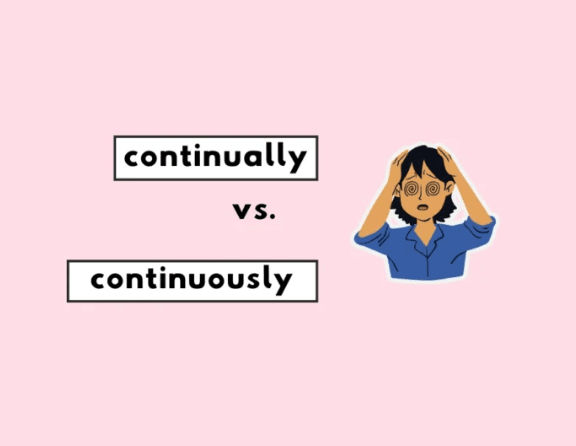
To master the usage of 'continually' and 'continuously', practice is key. Begin by using these adverbs in your daily conversations and written communication. Try using these words in places where you might use 'often', 'regularly', or 'constantly'. This will help you understand their usage better. For instance, you could say, "She talks continually during movies, which bothers everyone." or "The fan runs continuously in summer." Reading novels or watching English movies can also help you see these words in context.
Reading is a great way to get better at language. It lets you see lots of different ways sentences are put together and learn new words. Novels are particularly helpful for this. They give you lots of examples of how words like 'continually' and 'continuously' are used. For a list of novels that can help you improve your English, check out Clapingo's blog post: [Novels to Elevate Your English Proficiency](https://clapingo.com/blog/top-novels-english-speaking).
For more practice, you can also explore various software options. Check out this blog post to learn more: [Software Recommendations for Speaking, Reading and Writing](https://clapingo.com/blog/software-recommendations-english).
To help you improve your day-to-day communication, here is a useful YouTube video:
Final Thoughts
--------------
We have seen that it is important to understand the meanings and usages of words like 'continually' and 'continuously'. They may look and sound alike. But, their usage varies depending on the context. Grasping this difference can improve how clearly you express yourself.
To enhance your English fluency further, you can use platforms like Clapingo. Clapingo offers personalised sessions conducted in your native language. Flexible schedules and an easy-to-use platform are other helpful features. Continue this rewarding journey with Clapingo. It will help you unlock countless opportunities in your personal and professional lives.
FAQs
----
**1\. How do you use continually in a sentence?**
You could use continually as an adverb in a sentence. It indicates actions happening repeatedly such that they may cause annoyance. For example, "He continually argues with me."
**2\. Is 'constantly' and 'continuously' the same?**
No. 'Constantly' also implies ongoing action like 'continuously.' But constantly has connotations of frequency rather than uninterrupted continuity.
**3\. What can I say instead of continuously?**
Synonyms like uninterruptedly, incessantly, ceaselessly or non-stop can be used instead of continuously. The choice depends on the context.
---
This blog is powered by Superblog. Visit https://superblog.ai to know more.
---
## Empathic vs Empathetic: A Guide for Understanding Emotional Intelligence
Author: Unknown
Published: 2024-07-11
Meta Title: Empathic vs Empathetic: Exploring the Fine Line in Empathy
Meta Description: Learn the differences between 'empathic' and 'empathetic' to improve your English communication skills.
Tags: Empathic vs Empathetic meaNING, Empathic vs Empathetic example, Empathic definition, Empathetic definition
URL: https://clapingo.com/blog/empathic-vs-empathetic

Many English learners in India struggle with telling apart similar words. For instance, they often mix up 'empathic' and 'empathetic'. Knowing the difference between similar words can help you communicate more clearly.
In the following sections, we'll look into these two terms and their usage in various contexts. Along the way, we’ll also provide tips on how to use them effectively in everyday conversation. Let's get started.
What Does Empathic Mean in English?
-----------------------------------
'Empathic' is derived from the root word 'empathy'. It originates from the Greek words 'em' (in) and 'pathos' (feeling or suffering). It describes a person's ability to understand and share the feelings of others.
Synonyms for empathic include:
* Sympathetic
* Compassionate
* Understanding
* Sensitive
Here are some sentences illustrating its usage:
* _As an empathic listener, she could easily understand her friend's problems._
* _His empathic response to the situation showed his maturity._
What Does Empathetic Mean in English?
-------------------------------------
Continuing our exploration of **empathic vs empathetic definition**, let's look at 'empathetic'.
'Empathetic' also originates from the Greek word for empathy. 'Empathetic' is often used interchangeably with 'empathic'. But language experts make slight distinctions between the two.
"Empathetic" describes someone who regularly demonstrates empathy or possesses empathic qualities.
Synonyms for empathetic include:
* Concerned
* Feeling
* Responsive
* Caring
Consider these sentences showing its proper use:
* _She gave an empathetic nod, acknowledging his feelings._
* _The empathetic teacher provided extra support to the struggling students._
Is There A Difference Between Being Empathic And Empathetic?
------------------------------------------------------------
**Empathic vs empathetic meaning** is a common point of confusion among Indian learners. Both come from "empathy" but are used in different ways. Some think they can be swapped, but a small difference adds richness to your English.
Consider this table for a better understanding:
**Term**
**Definition**
Empathy
Understanding and sharing another person's feelings
Sympathy
Feeling sorry for someone else's misfortune
Empathic
Refers to cognitive empathy, understanding what others feel
Empathetic
Refers to emotional empathy, feeling what others feel
For example, your friend talks about a tough day at work. And your response is "empathic" means you understand and acknowledge their feelings. But if your response is "empathetic," it means you not only understand but also feel their stress as if it's your own.
Why is Understanding Empathic vs Empathetic Important for English Learners in India?
------------------------------------------------------------------------------------
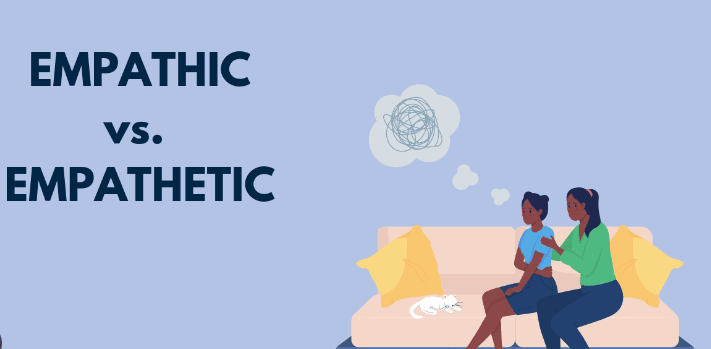
As English learners, you must have come across the terms 'empathic' and 'empathetic'. It's important to understand their meanings for effective communication and to avoid misinterpretation.
For instance, the term 'empathic' implies an ability to understand another's feelings. While 'empathetic' refers to sharing those feelings.
Here are two situations where incorrect usage can lead to confusion:
1. **In a job interview:** Using these words wrongly can make you look not very proficient. It can also affect your chances of getting the job.
2. **Social interactions:** Incorrect usage might lead to misunderstandings, especially in emotionally charged conversations.
For more such challenging words and terms, check out Clapingo's [blogs](https://clapingo.com/blog) and [videos](https://www.youtube.com/@Clapingo).
How Can You Improve Your Usage of 'Empathic' and 'Empathetic'?
--------------------------------------------------------------
Here are three steps to help you understand these words better:
### Know the difference:
'Empathic' is about understanding others' emotions deeply, especially in psychology. 'Empathetic' is more about sharing feelings in everyday relationships.
### Practice in conversations:
Use both words in different situations to see how they fit. For example, "_As a psychologist, I need to be empathic_" versus "_As his friend, she was empathetic to his problems_".
### Learn with Clapingo:
[Clapingo's](https://clapingo.com/) spoken English courses for Indian learners cover these tricky words in detail.
Final Thoughts
--------------
Knowing the distinction between "empathic" and "empathetic" can be crucial for English learning. 'Empathic' means understanding someone's feelings without feeling them yourself. 'Empathetic' is about feeling what the other person feels.
Regular practice of these skills will enhance your vocabulary and emotional understanding. This is beneficial in both personal and professional contexts.
Learning English isn't just about knowing words and rules. It's also about expressing thoughts and emotions clearly and accurately. [Take a quick demo](https://clapingo.com/book-a-demo) and start your English learning journey with Clapingo!
FAQs
----
**1\. What does ‘empathic’ mean?**
'Empathic' refers to someone who can sense and understand other people's feelings. If you're an empathic person, you're good at picking up subtle cues that reveal how others are feeling. You're able to put yourself in another person's shoes and feel what they're going through.
**2\. How does ‘empathetic’ differ from ‘empathic’?**
'Empathetic' may seem very similar to 'empathic', as both refer to the ability to understand others' feelings. However, being empathetic usually involves a stronger emotional response. It's not just about understanding someone else’s emotions, but also sharing them.
**3\. Can I interchangeably use ‘empathic’ and ‘empathetic’ in my conversations?**
In casual conversation, people often use 'empathetic' and 'empathic' interchangeably without confusion. But for formal or professional writing clarity matters. It's crucial to pick the right word based on their slight differences. 'Empathic' is about understanding emotions, while 'empathetic' means a stronger emotional connection.
---
This blog is powered by Superblog. Visit https://superblog.ai to know more.
---
## Two Sides of the Same Coin: 'Fulfill' and 'Fulfil'
Author: Unknown
Published: 2024-07-11
Meta Title: Fulfil vs Fulfill: A Comprehensive Guide with Examples
Meta Description: A look at the differences between ‘fulfil vs fulfill’. Learn this English language variation with real-world examples and tips for Indian learners.
Tags: Fulfill & Fulfil meaning, Fulfill & Fulfil difference, Fulfill & Fulfil definition
URL: https://clapingo.com/blog/fulfill-vs-fulfil

As English speakers in India, choosing between British and American English can be a confusing task. This decision not only affects our accent and pronunciation but also our spelling and word usage. One such example is the words “fulfil” and “fulfill.”
In British English, we spell it as "fulfil," while in American English, it's spelt "fulfill."
Understanding these slight differences can greatly improve your English language skills. It can help you communicate with different audiences and adapt your language based on the situation. So, let's get started.
Understanding 'Fulfil' and 'Fulfill'
------------------------------------
Firstly, there are two different spellings for 'fulfill' - 'fulfil' in British English and 'fulfill' in American English. They both mean to achieve or carry out something, to meet a need or requirement, or to satisfy a condition. Let's look at some examples
British English (Fulfil)
* I need to fulfil my duty
* We must fulfil our promise
American English (Fulfill)
* I need to fulfill my duty.
* We must fulfill our promise.
Now, you might be wondering about the general differences between British and American spelling rules. Here are a few bullet points to help you understand:
* Words ending in ‘-our’ in British English (e.g., colour), often end in ‘-or’ in American English (e.g., color).
* Words ending in ‘-etre’ in British English (e.g., theatre), usually end in ‘-eter’ in American English (e.g., theater).
* Sometimes, words with a single ‘l’ before vowels like ‘l’ or ‘p’ are doubled in British English but not in American English. Example: travelling vs traveling.
For more words that have different spellings across these language variants, check out Clapingo blogs like [Canceled or Cancelled](https://clapingo.com/blog/canceled-vs-cancelled) and [Favourite Vs Favorite](https://clapingo.com/blog/favourite-vs-favorite).
Why Do These Differences Occur?
-------------------------------
The spelling variations between 'fulfil' and 'fulfill' are due to historical differences in English language usage between the United Kingdom and the United States.
During the late 18th and early 19th centuries, American English began to differ from British English, adopting simplified spellings for certain words. This linguistic shift was led by prominent figures such as Noah Webster, who wanted to create a unique American linguistic identity.
Two similar examples to 'fulfil vs fulfill' are 'colour vs color' and 'centre vs center'. In both these cases, the British version retains the original form, while the American variant opts for a simplified spelling.
Want to learn more about the journey of language evolution?
Common Mistakes with 'Fulfil' and 'Fulfill'
-------------------------------------------

Mistakes often crop up when learners grapple with 'fulfil' and 'fulfill'. Here are some common errors along with their corrections.
**Mistake 1:** Using the wrong spelling in the wrong context. For example, "_I have fulfiled my duties_" would be incorrect in Indian English usage as it follows British spellings. The corrected sentence would be, "_I have fulfilled my duties._"
**Mistake 2:** Incorrectly conjugating these verbs. Both 'fulfil' and 'fulfill' follow regular verb conjugation rules. An incorrect usage might be "_I fulfill my promise_". The correct form should be, "_I fulfilled my promise_."
Choosing Between 'Fulfill' & 'Fulfil': What Should Indian Learners Do?
----------------------------------------------------------------------
Feeling confused about whether to use 'fulfil' or 'fulfill'? Many English learners in India face this confusion, especially when they have to write in different contexts such as academic, professional, or casual environments.
In British English, which is typically followed in India, we use 'fulfil'. So if you're writing an academic essay or a formal email in your workplace, use 'fulfil'.
On the other hand, if you're chatting with your American friend on social media or writing for an international audience who may be more used to American English, use 'fulfill'.
Remember, both spellings mean the same thing - to complete or carry out something.
So next time you face this doubt, ask yourself: Who am I speaking with? Where are they from? And what version of English do they use? Your answers will guide your choice between 'fulfil' and 'fulfill'.
Powering Up Your English Skills with Clapingo
---------------------------------------------
[Clapingo](https://clapingo.com/) offers personalized coaching to improve vocabulary, pronunciation, and fluency for individuals dealing with complex language issues like "fulfil vs fulfill".
With our custom sessions and flexible plans, you'll soon navigate through the English language with ease, improving your communication skills for professional growth.
A Quick Recap
-------------
In our journey to master English, we have solved the confusion between 'fulfil' and 'fulfill'.
To recap, British English prefers 'fulfil', while American English leans towards 'fulfill'. Both words carry the same meaning - to carry out or achieve an action, duty, or role as required or promised.
Remember, in professional communication, consistency is key. If you're using British English spellings in your document, use 'fulfil' in all the places. The same rule applies for American English and 'fulfill'.
For more detailed learning and understanding confusing words like 'fulfil' and 'fulfill', try [Clapingo](https://clapingo.com/). Their personalized coaching sessions are tailored to meet individual language requirements. Keep exploring and evolving with Clapingo - [Book a quick demo here](https://clapingo.com/book-instant-demo).
Frequently Asked Questions
--------------------------
**1\. Why do British people use ‘fulfil’ while Americans use ‘fulfill’?**
The difference in spelling is due to the differences between British and American English. The British version uses a single 'l', while the American version uses double 'l'. This variation is seen in several other words too, such as 'travelled' (UK) vs 'traveled' (US), or 'labelled' (UK) vs 'labeled' (US).
**2\. Am I wrong if I use ‘fulfill’ instead of ‘fulfil’ in India?**
No, you're not wrong. Both spellings are correct and understandable to English speakers worldwide. However, in India, we usually follow British English, including spelling and pronunciation rules. Thus, using 'fulfil' might be more appropriate for formal or academic contexts.
**3\. Does using ‘fulfil’ or ‘fulfill’ affect my spoken English?**
Not greatly! Since both words have the same pronunciation, the spelling doesn't impact your spoken English directly. However, knowing these differences can improve your overall understanding of the language.
### You May Want to Read
### [Delving into the Depths of Present Perfect Continuous Tense](https://clapingo.com/blog/present-perfect-continuous-tense)
---
This blog is powered by Superblog. Visit https://superblog.ai to know more.
---
## Understanding Palate vs Palette: From Food to Artistry
Author: Unknown
Published: 2024-07-11
Meta Title: What's the Contrast: Palate & Palette for English Learners
Meta Description: Discover the differences between 'palate' and 'palette' in this guide made for English learners in India.
Tags: Palate vs Palette differences, Palate vs Palette examples, Palate vs Palette meaning
URL: https://clapingo.com/blog/palate-vs-palette

Picture yourself pitching your groundbreaking restaurant chain to international investors. However, a small error in your presentation, such as using "palette" instead of "palate," could lead to confusion and doubts regarding your credibility.
Mastery of English, especially distinguishing between homophones like "palate" and "palette," is important for creating a positive and professional impression.
This post aims to look into the differences between these words, helping improve your spoken English.
What are Homophones?
--------------------
Homophones are words that sound the same when pronounced but have different spellings and meanings. For example, 'pair' (two items) and 'pear' (a fruit); both sound the same but have different meanings.
Understanding homophones can greatly improve your English communication skills. Here are some common homophones Clapingo has covered in their blogs - [there vs their](https://clapingo.com/blog/there-vs-their), [lier vs liar](https://clapingo.com/blog/lier-vs-liar), [principle vs principal](https://clapingo.com/blog/principal-vs-principle), etc.
Now let's understand the two confusing homophones "palette" and "palate" in detail.
Introducing 'Palate' and 'Palette'
----------------------------------
'Palate', a noun, is used in the context of taste or the roof of one's mouth. It's commonly used in phrases like '_a refined palate_' or '_the chicken curry tickled my palate_'.
Whereas, 'Palette' is also a noun that is commonly used in artistic fields. It refers to a thin board or slab on which an artist mixes paints and colours. An example could be, '_The artist cleaned his palette before starting a new painting_'. Remember that both words are pronounced the same.
To help you understand better, take a look at this comparison table:
Word
### Palate
### Palette
Definition
The roof of one's mouth. A person's ability to distinguish between and appreciate different flavours
A thin board with curved edges and a hole for the thumb, used by artists for holding and mixing paint.
Part of Speech
Noun
Noun
Usage Context
Cooking, Tasting
Art, Colour Schemes
Example
Spices from India excited his palate.
The artist mixed colours on his palette
Palate or Palette: How to Remember?
-----------------------------------

Remembering the difference between 'Palate' and 'Palette' can be tricky.
* One helpful trick is connecting each word with something Indian that is familiar to you. Think of 'Palate' as 'Pani Puri Palate', as it's connected with taste and food.
* And, think of 'Palette' as 'Peacock Palette', connecting it to colours and art, just like a peacock's beautiful feathers.
This method, known as mnemonic association, is a powerful memory technique[.](https://www.clapingo.com/blog/memory-techniques-for-language-learning\)\).) It involves linking new information to something familiar, increasing the chances of remembering it correctly.
Common Mistakes with 'Palate' and 'Palette':
--------------------------------------------
Many English learners in India often confuse these two terms. Let's address some common mistakes:
1. **Misuse in context:** Sometimes learners use 'palette' when referring to taste or use of language (which should be 'palate'). For example, "_She has a diverse palette for cuisines_" should be corrected as "_She has a diverse palate for cuisines_."
2. **Spelling confusion:** It is common to accidentally switch the spellings of these two words.
Practical Exercises for Mastering 'Palate' and 'Palette' Usage
--------------------------------------------------------------
Now let's practice using 'palate' and 'palette' correctly.. Below are a few exercises to help.
1\. Fill in the blanks with the right word - 'palate' or 'palette':
* The artist mixed his colours on his \_\_\_\_\_\_\_.
* Spicy food can overpower your \_\_\_\_\_\_\_.
* Vibrant colours bring life to an artist's \_\_\_\_\_\_\_.
* A wine taster needs a discerning \_\_\_\_\_\_\_.
2\. Write sentences of your own using both 'palate' and 'palette'.
**_Answers:_**
palette, palate, palette, palate
How to Boost Your Professional Communication
--------------------------------------------
Knowing English well, especially the difference between homophones like "palate" and "palette," can really improve your written communication. For example, if you're writing a business proposal for an international client, using the wrong word could make things confusing or even change what you mean.
Clapingo's personalized sessions aim to help you learn these English language details. This way, you can avoid mistakes, communicate more confidently, and make a better impression in your professional life. [Take a quick demo](https://clapingo.com/book-a-demo) to see why Clapingo is the best fit for you.
Final Thoughts
--------------
To wrap up:
* 'Palate' refers to the roof of your mouth and, more broadly, your sense of taste.
* 'Palette', on the other hand, is a term related to art, referring to the board an artist uses to mix their colours.
Learning these small details can really boost your confidence in speaking English. [Clapingo](https://clapingo.com/) helps you by letting you talk one-on-one with native speakers, which is a great way to learn. Keep going with Clapingo and achieve your goal of speaking English fluently and confidently.
FAQs
----
**1\. What is the difference between 'palate' and 'palette'?**
'Palate' refers to the roof of the mouth in humans and other mammals, or a person's appreciative taste for food or drink. 'Palette' refers to a thin board or slab on which an artist mixes colours or the range of colours used by an artist.
**2\. Are 'palate' and 'palette' pronounced the same way?**
Yes, as homophones, they are pronounced the same way despite having different meanings and spellings. This can be a challenge while learning English. It's important to understand their context to use them correctly.
**3\. When should I use 'palate' and when should I use 'palette'?**
Use 'palate' when referring to taste or culinary matters: "_The chef's dishes satisfied my palate_". Use 'palette' when discussing art or colours: "_The sunset displayed a beautiful palette of oranges and purples_".
---
This blog is powered by Superblog. Visit https://superblog.ai to know more.
---
## Ensure vs Insure vs Assure: A Simple and Insightful Guide
Author: Unknown
Published: 2024-07-11
Meta Title: Understanding the Meaning and Usage of Ensure Vs Insure Vs Assure
Meta Description: Understand the difference between 'ensure', 'insure', and 'assure' and improve your English skills. Learn definitions, usage and examples tailored for Indian learners.
Tags: Ensure vs Insure vs Assure, Ensure meaning, Assure meaning, Insure meaning, Ensure vs Insure difference
URL: https://clapingo.com/blog/ensure-vs-insure-vs-assure
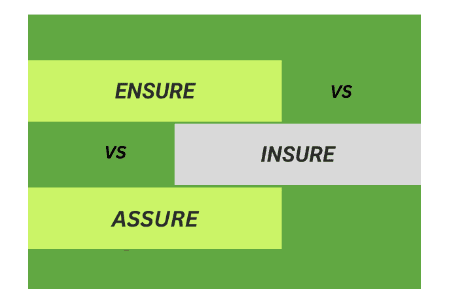
Learning a new language can be really interesting, but it can also be tricky. For people in India who don't speak English as their first language, one big challenge is mixing up words that sound alike. Words like "ensure," "insure," and "assure" are notable ones among them. Even though these words sound similar, they mean different things and are used differently. This mix-up can cause mistakes when writing or talking in English.
This blog post aims to help you understand the differences between these commonly confused words. Once you know when to use 'ensure' vs 'insure' vs 'assure,’ you'll get better at English, speak more smoothly, and feel confident when you communicate. Let's dive in!
What Do Ensure, Insure and Assure Mean?
---------------------------------------
Let's first clarify the meanings of these often-confused words.
1. Ensure: To 'ensure' something means to make sure it will occur or to guarantee its occurrence. It is about removing doubt or risk so a desired result becomes certain.
For example, "To _ensure_ you catch the 9 AM train from Delhi to Agra, set your alarm for 7 AM."
2. Insure: This term is mostly about getting financial protection against loss or damage. So, when you insure something like a car or a house, you're making sure that you're protected financially if something like damage or theft happens.
Example: "_Insure_ your new motorcycle to protect you from financial loss in case of an accident."
3. Assure: 'Assure' means telling someone something confidently to make sure they don't have any doubts. So, when you assure someone, you're making them feel better by confidently saying something certain.
For instance: "I can assure you that our team will meet the project deadline."
Each term has its unique usage and cannot be used interchangeably. So next time remember to 'ensure' you use the right word, 'insure' your car against damages and 'assure' your friend about your plans!
Ensure vs Insure vs Assure: Correct Usage with Examples
-------------------------------------------------------
Let's understand the correct usages of 'ensure', 'insure', and 'assure' through an easy-to-follow table. Some relatable examples are also given.
#### Words
#### Descriptions
#### Usage Examples
Ensure
To make sure or guarantee
"To ensure a good harvest, farmers follow a strict watering schedule."
"Ensure you have your passport before leaving for the airport."
Insure
Related to financial compensation against loss
"Rahul decided to insure his new Maruti Suzuki car."
"I will insure my bike immediately."
Assure
To remove someone's doubts or fears or to promise
"The captain assured the cricket team fans that they would give their best."
"I assure you that the train will arrive on time."
Remember these differences when using 'ensure vs insure vs assure' in your daily English conversations!
Ensure vs Insure vs Assure: Remembering the Difference
------------------------------------------------------
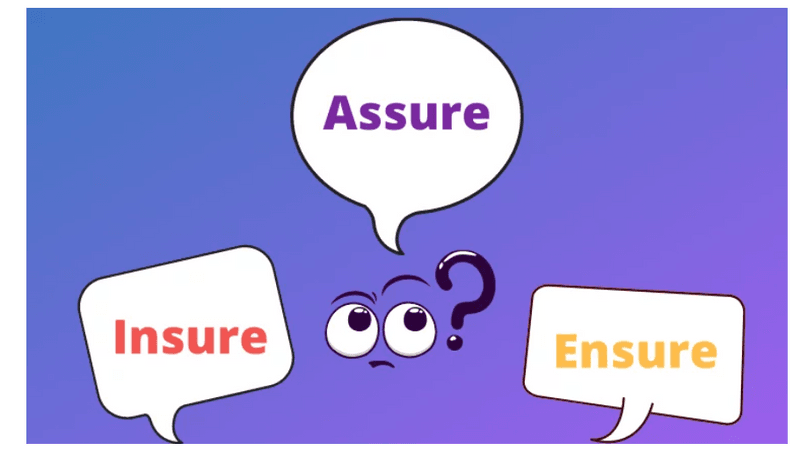
Here are some mnemonic devices to remember the meaning and usage of "ensure," "insure," and "assure":
### **Ensure:**
* Mnemonic: "Ensuring is Making Sure and Secure."
* Remember "Ensure" by thinking about securing every need or making things certain.
### **Insure:**
* Mnemonic: "Insurance Involves Risk, Secure Everything"
* "Insure" relates to insurance, which involves securing against risks or potential losses.
### **Assure:**
* Mnemonic: "Assure Someone Safety, Secure Reassurance"
* "Assure" involves providing reassurance or guaranteeing safety to someone.
These mnemonics help associate each word with its specific meaning and usage. This makes it easier for learners to remember which one to use in different contexts.
For more such useful language tips and practical exercises, check out Clapingo's YouTube video:
Improve Your Vocabulary: The Journey Towards Fluency
----------------------------------------------------
Building a strong vocabulary is really important for speaking English fluently. We have seen how tricky it is to understand similar-sounding words like 'ensure', 'insure', and 'assure'. So here are some ways to get better at building vocabulary:
* Read books, newspapers or articles online. You'll learn new words and see how they are used in sentences.
* Make flashcards to learn words. Write the word on one side of the card and what it means on the other side. Practising with these can help you remember them better.
* Check out platforms like [Clapingo](https://clapingo.com/) for helpful tips to improve vocabulary. The Clapingo blog post on "[How to Improve Vocabulary in English Online at Home](https://clapingo.com/blog/how-to-improve-vocabulary-in-english)" gives great advice on boosting your vocabulary skills.
Remember, improving your vocabulary is a process that demands regular practice. Keep practising. Before you know it, words like 'ensure', 'insure', and 'assure' will naturally come to you.
Final Thoughts
--------------
To wrap up, remember that 'ensure' is about making sure and 'insure' is about financial protection. 'Assure' is about giving comfort or confidence. It might seem hard at first, but with practice, you'll master them in no time.
[Clapingo's](https://clapingo.com/) one-on-one coaching sessions can really boost your grasp of these language details. Remember, being able to communicate clearly and correctly in English is important for doing well in your personal and work life. So keep learning and keep practising - English fluency is at your fingertips!
FAQs
----
**1\. Is ‘ensure’ a synonym for ‘assure’?**
While they may seem similar, 'ensure' and 'assure' aren't synonyms. 'Ensure' means to make certain something will occur. 'Assure' means to promise or confirm something to someone.
**2\. What can I use instead of ‘ensure’?**
You can use words like "guarantee", "confirm", or "make certain" instead of ‘ensure’. The choice of words depends on the context.
**3\. Is ‘I assure you’ correct?**
Yes, using ‘I assure you’ is correct when you want to confirm or promise something to someone.
---
This blog is powered by Superblog. Visit https://superblog.ai to know more.
---
## Choosing Right Verb Tense: A Guide to Simple Past and Present Perfect
Author: Unknown
Published: 2024-07-11
Meta Title: Mastering Verb Tenses: Simple Past vs Present Perfect
Meta Description: Learn the difference between Simple Past and Present Perfect tense. With examples, exercises, and tips for non-native English speakers in India.
Tags: Simple Past vs Present Perfect, Simple Past examples, Present Perfect examples, Present Perfect meaning, Simple Past definition
URL: https://clapingo.com/blog/simple-past-and-present-perfect

Have you ever struggled in a conversation, wondering whether to use simple past or present perfect tense? Maybe you were talking about something from last week with a colleague or sharing a recent memory with a friend. You're not alone.
This confusion between simple past and present perfect is a common issue for non-native English speakers in India. It comes up in everyday conversations, work discussions, and social situations.
In this blog post, we aim to clear the difference between these two tenses. We'll look into each of these tenses, explain their usage rules with examples, and provide exercises for practice. We'll also share engaging activities and real-life scenarios employing both tenses.
Difference Between Simple Past and Present Perfect Tense
--------------------------------------------------------
Understanding tenses, especially distinguishing between simple past and present perfect tense, can be challenging in spoken English. Let's understand them.
The simple past tense is used to express a completed action in the past. For example:
* _I watched a cricket match yesterday._
* _She visited Delhi last year._
The Present Perfect tense describes an action that occurred at an unspecified time before now or an action that started in the past and continues till now. Consider these examples:
* _I have watched this Bollywood movie before._
* _They have lived in Mumbai for ten years._
Here's a comparison table showcasing the differences:
### **Simple Past**
### **Present Perfect**
Time Reference
Specific past time
Unspecified past time / Continuity
Examples
_I ate samosas yesterday._
_I have eaten samosas before._
To learn about the various tenses in detail, check out this Clapingo playlist:
When to Use Simple Past Vs Present Perfect Tense?
-------------------------------------------------
Many English learners struggle with deciding when to use the simple past tense versus the present perfect tense. Let's understand this with some examples.
* The simple past tense is ideal when you’re talking about completed actions with a specific time mentioned or easily understood. For instance, think of the sentence, "_I ate noodles yesterday_." It indicates that the action of eating noodles happened at a definite time in the past – yesterday.
* The present perfect tense is used when you’re referring to actions that happened at an unspecified time before now or have relevance to the present situation. For example, consider "_I have visited the Taj Mahal_." Here, there’s no specific time mentioned. It only informs that, at some point in your life, you have experienced visiting the Taj Mahal.
Regular practice is key to mastering tenses and building strong language habits. Join the [Clapingo Practice Club](https://docs.google.com/forms/d/e/1FAIpQLSfR01aGy46euHtancFtRJnfjxI-zaHEGrdPJ3js1vb8-S9Yow/viewform) for a judgment-free, online space to improve your English skills! Connect with like-minded individuals, learn, and grow together.
Practical Examples: Applying Simple Past in Real-Life Scenarios
---------------------------------------------------------------
The correct application of simple past tense can completely change your conversational skills. Consider narrating a past event or sharing an old story with friends. Now, let's form some sentences using the simple past tense:
1. _I watched the cricket match yesterday._
2. _She bought a new sari for the festival._
Remember, in each of these examples, the action is fully complete and occurred at a specific time in the past.
Practical Examples: Implementing Present Perfect Tense in Real-Life Scenarios
-----------------------------------------------------------------------------

The present perfect tense is the best choice for giving updates or describing ongoing situations. Let's look at some dialogues illustrating this:
1. _I have completed my English course._
2. _They have lived in Delhi since 2010._
In these examples, there's no specified end time. Actions may still be ongoing or just finished.
Try making your own sentences using **simple past vs present perfect activities** and see how your understanding improves!
Common Mistakes When Using Simple Past Vs Present Perfect and How to Avoid Them
-------------------------------------------------------------------------------
People often mix up **simple past vs present perfect tenses** because they both refer to past actions but in different ways.
For instance, you might say, "_I have read that book last week_" instead of correctly saying, "_I read that book last week_". The error here is that 'last week' is a finished time period, and hence, simple past should be used.
To avoid these mistakes:
* Always use simple past when talking about completed actions in a finished time period.
* Use present perfect when the exact time of the action isn't important or when discussing an action from the past that has relevance in the present.
Exercises to Master Simple Past Vs Present Perfect Tense
--------------------------------------------------------
Let's do a few **simple past vs present perfect exercises.**
1\. Choose the correct tense (simple past or present perfect) to complete the sentences.
* I \_\_\_\_\_\_ (leave) my office early today.
* He \_\_\_\_\_\_ (not/see) his friends since last year.
2\. Identify if the sentence is in simple past or present perfect and correct it if necessary.
* She have visited the Taj Mahal last week.
* I did not eaten anything since morning.
3\. Convert the following simple past sentences into present perfect and vice versa.
* I ate two samosas.
* They have moved to a new house.
Answers:
1\. Left, has not seen
2\. She visited, I have not eaten
3\. I have eaten two samosas, They moved to a new house
A Quick Recap
-------------
We have explored the difference between simple past and present perfect tenses.
Simple past refers to a completed action at a definite time in the past, such as '_I visited Goa last year._' Present perfect is used for actions that happened at an indefinite time in the past or that started in the past and continue to the present. For example, _'I have visited Goa_.'
We discussed examples to improve our understanding and saw common mistakes often made during usage.
Remember, mastering these difficult aspects of English grammar can improve your fluency and boost your confidence. These tenses are essential tools for professional communication. At [Clapingo](https://clapingo.com/), we encourage constant practice and dedication. Continue leveraging our resources and make language learning an ongoing journey.
FAQs
----
**1\. What is the main difference between simple past and present perfect tense?**
The simple past tense is used to describe actions which have been completed. It's typically used when the time of action is clearly stated. The present perfect tense is used to describe an action that happened at an unspecified time before now or that started in the past and continues in the present.
**2\. Can you provide some examples of simple past vs present perfect sentences?**
Here are some comparative examples:
\- Simple Past: "She finished the report last night." (A specific time is mentioned)
\- Present Perfect: "She has finished the report." (The exact time isn't important; what's important is that it's done)
**3\. Why should I bother learning the difference between these two tenses?**
Understanding simple past and present perfect tense lets you talk about your experiences more accurately. It will also improve your overall English fluency and comprehension skills – whether you’re writing an email, preparing for a job interview, or simply chatting with friends.
### **You may want to read.**
**[Singular vs. Plural Verbs: Mastering the Subject-Verb Agreement](https://clapingo.com/blog/singular-vs-plural-verbs)**
---
This blog is powered by Superblog. Visit https://superblog.ai to know more.
---
## Sneaked or Snuck: Understanding the Usage and Acceptability
Author: Unknown
Published: 2024-07-11
Meta Title: Sneaked vs Snuck: Understanding the Difference
Meta Description: Master the words 'sneaked' and 'snuck' to improve your communication skills. Our guide explains this common confusion for Indian English learners.
Tags: Sneaked and Snuck difference, Sneaked and Snuck meaning, Sneaked and Snuck examples, Sneaked defintion, Snuck definition
URL: https://clapingo.com/blog/sneaked-vs-snuck

Imagine you’re a professional storyteller. During a library session with children, you need to describe someone entering a room secretly. Should you say they "sneaked" in or "snuck" in? You hesitate and lose confidence, unsure which is correct
English can be challenging, especially for non-native speakers in India. The language has words like 'sneaked vs. snuck' that can create gaps in communication and cause misunderstandings if not understood properly.
This blog post will help you with practical tools, tips, and insights to understand 'sneaked vs snuck'. So let's get started.
The Puzzle of Sneaked and Snuck
-------------------------------
The words 'sneaked' and 'snuck' can cause confusion and debates among English learners.
Originating from the verb 'sneak', both 'sneaked' and 'snuck' serve as its past tense. Interestingly, 'sneaked' is the original form, dating back to the late 16th century. In contrast, 'snuck' emerged in the United States around the 19th century. Today, both forms are widely accepted in English-speaking countries, with some regional preferences.
Consider this comparison table outlining their key similarities and differences:
### **Sneaked**
### **Snuck**
Traditional form
American variant
Preferred in written British English
Common in spoken American English
Used worldwide
Becoming globally accepted
Both words depict an action performed stealthily or without being noticed. For example, you might say "_I sneaked/snuck into the kitchen for a midnight snack._"
To learn about more such confusing words and phrases, explore [Clapingo Blogs](http://www.clapingo.com/blog)[.](http://www.clapingo.com/blog\).) They offer many insightful articles on English language learning for your easy understanding!
Sneaked vs Snuck: When to Use Which?
------------------------------------
1. **Sneaked:** Traditionally, 'sneaked' is the past tense and past participle of 'sneak'. It's commonly used in formal or written English. For instance, "_Ravi sneaked out of his house to play cricket with his neighbours_."
2. **Snuck:** Emerging in the late 19th century, 'snuck' is mostly used in informal or spoken English. Example: "_Yesterday, I snuck into the kitchen for some midnight snacks_."
Here's a bullet list summarising when to use each term:
Use 'sneaked':
In formal situations or written documents
* When following traditional English grammar rules
Use 'snuck':
* In informal conversations
* When you want to sound more conversational
Common Misunderstandings with Sneaked and Snuck
-----------------------------------------------

Non-native English speakers often get confused between these terms. Here are one common error:
**Using 'snuck' in formal context:** For instance, "_She snuck the report into her boss's desk._" It should rather be "_She sneaked the report into her boss's desk_."
Though it is not technically _wrong_ to use snuck in formal contexts, it is better to use 'sneaked' in formal speech and writing, especially in British English.
Improving your Spoken English with Clapingo
-------------------------------------------
For those wanting to improve their spoken English, Clapingo offers personalized coaching for each student's needs. These one-on-one classes can help overcome challenges like differentiating between 'sneaked' and 'snuck' or understanding [Inter vs Intra](https://clapingo.com/blog/inter-vs-intra).
Our native English-speaking tutors will guide you through these language problems, offering practical tips to remember and use these words correctly in conversations. You'll get to practice real-life situations, boosting your confidence in using the language.
Clapingo's structured 5-step course covers [fluency, pronunciation, vocabulary, and sentence structure](https://clapingo.com/blog/improve-english-skills-online#what-should-be-covered-while-learning-english) comprehensively. This ensures a well-rounded development of proficiency, providing learners with the tools for effective communication in formal settings like workplaces or educational institutions.
Not sure if Clapingo is the right fit for you? [Take a quick demo](https://clapingo.com/book-a-demo) to make the best choice.
To Sum Up
---------
In our exploration of 'sneaked' vs 'snuck', we've learnt that both terms refer to the past tense and past participle of the verb 'sneak'.
While 'sneaked' is traditionally correct, 'snuck' has gained acceptance in informal settings. Remember, context is the key. In formal conversations or professional emails, it's safer to go with 'sneaked'. However, when chatting with friends or posting on social media, 'snuck' could be an alternative.
We encourage you to apply this knowledge in your daily life. Next time you're narrating a story or writing a post, try using these terms correctly based on the context. Remember, language mastery comes from practice and patience.
At [Clapingo](https://clapingo.com/book-a-demo), we're here to assist you in your journey towards English fluency. Your path to English proficiency is just a click away!
FAQs
----
**1\. Is "sneaked" or "snuck" the correct past tense of "sneak"?**
Both "sneaked" and "snuck" are correct They can be used interchangeably as the past tense and past participle of "sneak". The usage depends on personal preference, geographical location, and the context. In British English, "sneaked" is more commonly used. In American English, you might hear "snuck" more often.
**2\. How do I use "sneaked" and "snuck" in a sentence?**
Here's how you can use these words:
* Sneaked: _He sneaked out of the house while his parents were asleep._
* Snuck: _I snuck a piece of cake from the kitchen when no one was looking._
Remember, both sentences convey the same meaning; only the form of the verb changes.
**3\. Is there a change in meaning when using sneaked vs snuck?**
No, there isn't any change in meaning whether you use 'sneaked' or 'snuck'. Both represent the past tense and past participle of 'sneak' - to move quietly or secretly. However, remember that 'sneaked' is more formal and generally preferred in writing, especially in British English. On the other hand, 'snuck', which is more colloquial, is often used in informal conversations or writings. So depending on your context or audience, you may choose either.
---
This blog is powered by Superblog. Visit https://superblog.ai to know more.
---
## Navigating the Language Maze: Understanding 'Offence' vs 'Offense'
Author: Unknown
Published: 2024-07-11
Meta Title: A Guide to 'Offence' and 'Offense' for English Learners
Meta Description: Explore the slight differences between 'offence' and 'offense', with practical examples, pronunciation tips, and usage insights.
Tags: Offence vs Offense meaning, Offence vs Offense examples, Offence vs Offense difference, Offence vs Offense definition
URL: https://clapingo.com/blog/offence-vs-offense

English is full of words that sound similar but have different meanings and spellings. These homophones can often be a point of confusion, especially for non-native speakers.
This blog post aims to explain the usage of 'offence' vs 'offense'. We'll explore their spellings in British and American English and guide you on how to use these terms. Let's start.
Setting the Scene: Why Does Spelling Matter?
--------------------------------------------
Spelling plays a crucial role in communication. Small differences in spelling can change meanings and lead to miscommunications.
Consider the words ‘desert’ and ‘dessert’. A single 's' difference completely alters their meanings.
Spelling variations are common across regions. As an Indian English learner, it's important to distinguish between British and American influences.
Let's consider Rajesh, an IT professional. He was writing an important email to his American client but used British spellings throughout. This confused his client as he was not familiar with UK English variations. Rajesh's professional image was affected negatively as his message came across as unprofessional.
The Twins: Offence vs Offense - A First Look
--------------------------------------------
'Offence' and 'offense' may seem identical, but they differ slightly in spelling and usage. Both terms originate from Old French 'offense', meaning a crime or wrong action.
In the English language, the term 'offence' is defined as a breach of law or rule; an illegal act 'Offense' has the same meaning, but it's spelt differently depending on where you are.
The difference lies in regional spellings:
* 'Offence' is used in British English (commonly used in India).
* 'Offense' is followed in American English.
Here's a concise table that gives a comparative view:
### **Offence**
### **Offense**
Definition
A breach of law or rule; an illegal act
An act or instance of offending someone
Origin
Derived from Old French
Derived from Old French
Spelling Usage
British English (also followed in India)
American English
This shows how the same word can be spelt differently based on regional preferences without changing its meaning.
Exploring The Differences: British Vs American English
------------------------------------------------------

It's fascinating to see how English varies across the globe! The differences between British and American English are particularly intriguing. While both versions share the same roots, they have evolved differently. This leads to variations in spelling, pronunciation, vocabulary, and even grammar.
Here's a quick snapshot of common word variations:
* Colour (British) vs Color (American)
* Centre vs Center
* Organise vs Organize
* [Cancelled vs Canceled](https://clapingo.com/blog/canceled-vs-cancelled)
* [Favourite vs Favorite](https://clapingo.com/blog/favourite-vs-favorite)
These distinctions are not just linguistic - they reflect cultural and historical shifts.
Spotting Offences and Offenses: Usage in Sentences
--------------------------------------------------
Let's look into some examples to understand the usage of 'offence' and 'offense'. Consider these sentences with ‘offence’ (British English):
1. _"The batsman took offence when the umpire ruled him out."_
2. _"In professional settings, a lack of punctuality might be considered an offence."_
Similarly, let's look at how 'offense' is used in common American English scenarios:
1. _"The coach devised a new offense strategy for the football game."_
2. _"On the basketball court, a strong offense is as important as a good defence."_
Navigating English: Tips for Mastering Spelling Variations
----------------------------------------------------------
Mastering spelling variations like 'offence' and 'offense' may seem intimidating, but there are useful tips to make it simpler. Here are three practical ways to remember the correct usage of these words:
1. **Know the difference:**
The term 'offence' is used in British English, while 'offense' is American English. Since, in India, we generally follow British English, use 'offence'.
2. **Create associations:**
Establish mental connections with familiar concepts. For instance, 'e' in offence can be associated with the 'e' in England.
3. **Use them in sentences:**
Use both terms in different sentences to understand their use better. For instance, "_The offence committed by the robber was severe,_" versus "_The offense committed by the robber was severe._"
Don't forget, practising often can make you better at spelling in English and more confident when speaking.
Why Clapingo is Your Perfect English Learning Companion?
--------------------------------------------------------
Navigating English confusions like 'offence' vs 'offense' is easier with Clapingo's tailored coaching. Designed for Indian professionals, Clapingo provides personalized sessions with native tutors who understand your challenges. Overcome language hurdles with relatable examples, making learning effective and enjoyable.
Key Takeaways
-------------
Knowing the difference between 'offence' and 'offense' is more than just learning English; it improves your communication, helps you express yourself clearly, and boosts your confidence.
'Offence' is mostly used in British English, while 'offense' is in American English.
Practice is essential to get these right. For personalised guidance tailored to your needs, consider platforms like [Clapingo](https://clapingo.com/) that offer one-on-one coaching with native English speakers.
FAQs
----
**1\. Is 'offence' or 'offense' the correct spelling?**
Both 'offence' and 'offense' are correct spellings, but their usage depends on the geographical locale. In India, following British English, the term 'offence' is preferred. So, if you're writing a formal letter or a business document in India, use 'offence'.
**2\. Can I interchangeably use 'offence' and 'offense'?**
Technically yes, but it's better to stick to one style of English consistently. If you're in India or any other country that follows British English, then use 'offence'. If you're writing for an American audience or following American English rules, use 'offense'.
**3\. Does the difference between 'offence' and 'offense' affect comprehension?**
No, the difference does not impact comprehension as both terms have the same meaning. Whether you write offence or offense, your reader will understand that it means an act of breach or violation. Also, in spoken English both spellings have the same pronunciation.
**4\. Why does such a spelling difference exist?**
The difference in spelling between 'offence' and 'offense' comes from how British and American English have evolved differently over time. In British English, many words end with '-ce,' while in American English, they end with '-se.'
---
This blog is powered by Superblog. Visit https://superblog.ai to know more.
---
## Discreet vs Discrete: A Comprehensive Guide for Indian English Learners
Author: Unknown
Published: 2024-07-11
Meta Title: Discreet Vs Discrete: Understanding Their Meaning and Usage in Daily Life
Meta Description: Confused about discreet vs discrete? Explore this guide for the meanings, differences and usages of these confusing words.
Tags: Discreet vs Discrete examples, Discrete defintion, Discreet vs Discrete meaning, Discreet defintion
URL: https://clapingo.com/blog/discreet-vs-discrete
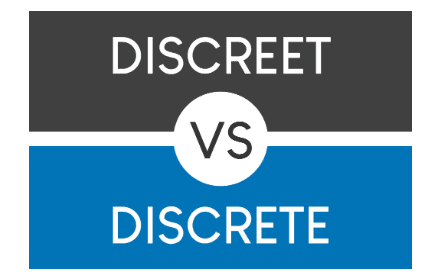
Have you ever wondered about the similarities between the words discreet and discrete? They may look and sound similar, but their meanings are completely different! If English is not your first language, you might find such words confusing. This can also lead to communication gaps. Mastering their usage can be a game-changer in your communication skills.
Figuring out the difference between 'discreet' and 'discrete' is important. This blog post will help you understand the distinction between these tricky words. We'll give you clear explanations, examples, and exercises to make sure you never mix them up again. So let's get started!
What are Discreet and Discrete?
-------------------------------
Let's start by understanding the basics of discreet vs discrete meanings. The words "discreet" and "discrete" are homophones. This means that they have the same pronunciation. But their meanings are different.
'Discreet' is an adjective. It refers to someone who is careful in their speech or actions. This is usually to avoid causing offence or embarrassment or gaining attention. For example, "She was discreet in her inquiry about the job vacancy."
'Discrete', also an adjective, means separate and distinct. For example, "There are several discrete sections to this vast building."
Here's a comparison table to clarify the differences:
### Word
### Meaning
### Example
Discreet
Being careful and guarded in one's words or actions
"She sent a _discreet_ message to her colleague."
Discrete
Separate or distinct
"The children sorted their toys into discrete bins based on colour and size."
Remembering the difference between these two is crucial. Using one when you mean the other can result in serious misunderstandings! So next time you need to use discreet vs discrete in a sentence, remember this guide!
Why Do We Confuse Discreet with Discrete?
-----------------------------------------
Discreet and discrete are classic examples of homophones. Homophones are words that sound identical but have different meanings. Even the spellings of these words are very similar except for the position of the final two letters.
Similar pronunciation can mix up our understanding and lead to confusion. This is especially true for non-native English speakers. This is due to the lack of exposure to these words in daily conversations or texts. Without familiarity with their usage, it's tough to master the meaning of discreet vs discrete. Books, newspapers and English movies can help in familiarising yourself with these words.
There are many other confusing homophones in English. You can find Clapingo blogs that provide guidelines for their usage. This includes homophones like '[their vs there](https://clapingo.com/blog/there-vs-their)' and '[stationary vs stationery](https://clapingo.com/blog/stationery-vs-stationary)'.
Practical Exercises: Mastering the Meaning of Discreet and Discrete
-------------------------------------------------------------------
Let's put your knowledge of 'discreet' and 'discrete' to the test. Here are five exercises to test your understanding of the use of discreet vs discrete in a sentence:
1. The officer was \_\_\_\_\_\_\_\_\_\_ about his investigation.
2. The \_\_\_\_\_\_\_\_\_\_ categories in the survey helped gather clear data.
3. He made a \_\_\_\_\_\_\_\_\_\_ exit from the party, not wanting to disturb others.
4. Mathematics deals with \_\_\_\_\_\_\_\_\_\_ variables and constants.
5. She passed on the secret message in a \_\_\_\_\_\_\_\_\_\_ manner.
Now, let's check your answers:
1. The officer was _discreet_ about his investigation.
2. The _discrete_ categories in the survey helped gather clear data.
3. He made a _discreet_ exit from the party, not wanting to disturb others.
4. Mathematics deals with _discrete_ variables and constants.
5. She passed on the secret message in a _discreet_ manner.
Did you select the right words? Remember, practice makes perfect! Each correct use reinforces your understanding of 'discreet vs discrete'.
How Can Clapingo Help?
----------------------
English is a language with a vast vocabulary. Confusing 'discreet' and 'discrete' may seem like a small mistake. But it can change the entire meaning of a statement. This often leads to misunderstandings. For example, if you were to write, “Please be discrete,” when you actually meant, “Please be discreet.” The first sentence implies that you're asking someone to separate or distinguish themselves. This is quite the opposite of what you intended!
Such errors may seem silly to some. But they can have serious impacts on your personal and professional communication. They can create confusion about your intentions. Others may also question your language fluency. These issues could affect your path to expressing yourself with confidence.
But don't worry! Clapingo is here to help. Clapingo focuses on enhancing your fluency and understanding of complex language rules. The expert tutors at Clapingo offer personalised English language coaching through one-on-one sessions. These tailored lessons address specific areas such as pronunciation, sentence structure and vocabulary. This also includes the correct usage of terms like 'discreet' and 'discrete.'
Check out this YouTube video to learn more:
Final Thoughts
--------------

As we wrap up, it's crucial to remember a few points. 'Discreet' refers to being careful or guarded in one's speech or actions. 'Discrete' means distinct or separate things. These small differences in spelling can change the meaning of the entire sentence. The tips and exercises we've explored will guide you towards mastering these terms. But, true fluency comes with practice and personalised guidance. As such, we recommend Clapingo's one-on-one coaching sessions. With these sessions, you can practice language usage without the fear of judgment.
Start with understanding the small yet significant difference between discreet vs discrete. Take charge of your English learning journey today!
FAQs
----
**1\. Does discreet mean secret?**
Yes, 'discreet' can imply secrecy. It often involves being careful not to cause embarrassment or attract undue attention.
**2\. How do you use the word discrete?**
Use 'discrete' when referring to separate or distinct entities. For example, "They divided the project into discrete phases."
**3\. Are discreet and discrete interchangeable?**
No. 'Discreet' and 'discrete' have similar spellings but different meanings. They are not interchangeable.
---
This blog is powered by Superblog. Visit https://superblog.ai to know more.
---
## Sorry or Not Sorry: The Fine Line Between 'Apologies' and 'Apologize'
Author: Unknown
Published: 2024-07-11
Meta Title: Diving into the Differences of 'Apologies' vs'Apologize'
Meta Description: Discover the difference between ‘apologies’ and ‘apologize’. A guide to clear confusion, enhance language skills, and communicate confidently.
Tags: Apologies&Apologize examples, Apologies and Apologize, Apologies meaning, Apologize meaning
URL: https://clapingo.com/blog/apologies-vs-apologize

Imagine this, you're in an international virtual meeting with clients from the US and UK. You easily navigate the discussion until you stumble upon a little speed bump - should you say "I apologize" or "my apologies" for a slight delay on your part? You feel uncertain, which shakes your confidence.
This scenario highlights why mastering minor details in English, such as 'apologies vs apologize', is crucial in a professional setting.
Understanding these small differences will improve your overall communication skills. So, let's delve into the specifics of 'apologies vs apologize'.
'Apologies' and 'Apologize': What Do They Really Mean?
------------------------------------------------------
When it comes to the English language, context is important. So, let's understand the terms 'apologies' and 'apologize' within their appropriate contexts.
* The term 'apologies' is a noun that represents the expression of regret or sorrow for an error or offence.
* On the other hand, 'apologize' is a verb that means to express regret or sorrow for an error or offence.
### **Apologies**
### **Apologize**
Meaning
Expression of regret or sorrow
To express regret or sorrow
Usage
"_My apologies for the delay._"
"_I apologize for my tardiness._"
These terms are often used interchangeably but are more appropriate in certain situations.
\- Apologies
* During formal communication
* When addressing multiple people
\- Apologize
* During informal communication
* In one-on-one conversations
When to Use 'Apologies' or 'Apologize' in Everyday Conversations?
-----------------------------------------------------------------
Understanding the difference between 'apologies' and 'apologize' can be tricky. Here are some common scenarios where you might use these terms:
1. At the office: Your colleague is waiting for a report from you that got delayed. You can say, "_I apologize for the delay. I'll send it across immediately._"
2. At a social gathering: You accidentally stepped on someone's foot while dancing, causing them discomfort. You respond, "_My sincere apologies for stepping on your foot._"
On the other hand, many non-native English speakers in India often confuse these terms. For instance, saying "_I apologies for the delay_" instead of "_I apologize for the delay_" is a common mistake.
For more such insights into confusing words in English, check out [Clapingo's blog list](https://clapingo.com/blog) or [YouTube videos](https://www.youtube.com/@Clapingo).
The Impact of Culture on Language: Why Indians Might Struggle with 'Apologies' vs 'Apologize'?
----------------------------------------------------------------------------------------------
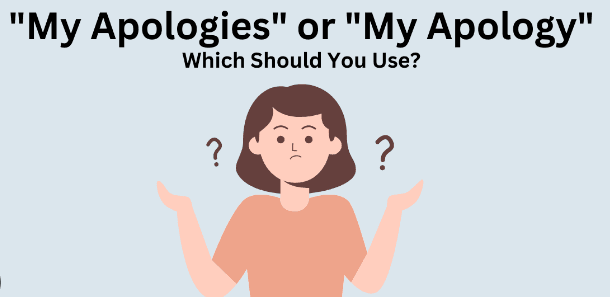
Indian culture, rich in linguistic diversity, often influences the way Indians learn and use English. With multiple regional languages mixing with English, the difference between 'apologies' and 'apologize' might be difficult to understand.
Here are a couple of tips to navigate this cultural language barrier:
1. **Be Context-Focused:** Remember, 'apologize' is an action (verb), while 'apologies' is a noun (an expression of regret). For example, you apologize for being late but offer your apologies to your boss.
2. **Practice Regularly:** The key to mastering these differences is consistent practice. Use these words in daily conversations or writing exercises.
How Misusing 'Apologies' or 'Apologize' Can Create Communication Barriers
-------------------------------------------------------------------------
In professional settings, the misuse of 'apologies' and 'apologize' can trigger misunderstandings. For example, saying "_Apologies for my mistake_" instead of "_I apologize for my mistake_" can come across as being insensitive or rude. Similarly, telling someone _"You should apologies_" instead of "_You should apologize_" is grammatically incorrect and can convey a lack of language proficiency.
Finally, be cautious about using these terms excessively. Overusing 'sorry' or other forms of apology might make you appear less confident or assertive.
Quiz: Test Your Understanding of 'Apologies’ vs ‘Apologize'
-----------------------------------------------------------
Take this quiz to test your understanding of the usage between 'apologies' and 'apologize'.
1\. Choose the correct sentence:
a) I apologies for my late arrival.
b) I apologize for my late arrival.
c) Both are correct.
2\. Fill in the blanks: "My \_\_\_\_\_\_\_\_ if I kept you waiting."
a) Apologize
b) Apologies
3\. Which is the noun form?
a) Apologize
b) Apologies
**Answers:**
1\. B- The correct sentence is "I apologize for my late arrival."
2\. B- "My apologies" is used as an expression of regret.
3\. B- 'Apologies' is the noun form whereas 'apologize' is a verb.
How Clapingo Can Help You
-------------------------
Clapingo is an online platform that offers one-on-one personalized English fluency coaching. This platform is a game-changer in mastering challenging language nuances, such as the difference between 'apologies' and 'apologize'.
With adaptable sessions and a structured approach, Clapingo tutors focus on such specific issues to ensure learners grasp the proper usage and context of these words. Thus, making them skilled in articulating their thoughts accurately and confidently.
Wrapping Up
-----------
Understanding the subtle variations of English like the difference between 'apologies' and 'apologize' can greatly enhance your communication skills.
Here's a quick recap: 'Apologize' is a verb that denotes an action, as in "_I apologize for the delay._" On the other hand, 'apologies' is a noun, often used to convey regret or remorse for something, such as in "_My apologies for the confusion_."
As we wrap up this discussion, it becomes clear that resources like [Clapingo](https://clapingo.com/) are invaluable tools in improving your English skills. Taking advantage of personalized coaching sessions from native speakers is an effective way to understand and master English. [Book a quick demo today](https://clapingo.com/book-instant-demo)!
FAQs
----
**1\. Can we use 'apologies' as a verb?**
No, 'apologies' cannot be used as a verb. It's a noun and represents an act of apologizing. The verb form would be 'apologize'. For example: '_She has sent her apologies_ (noun) _for not attending the meeting_'. But '_She has apologies_ (verb) _for not attending the meeting_' would be incorrect.
**2\. Is it okay to use “my apologies” instead of “I’m sorry”?**
Yes, both are expressions of regret and can be used interchangeably in most cases depending on formality level and context. While "I'm sorry" tends to be more personal and direct, "my apologies" is slightly more formal. For example, '_My apologies for the late response_', is more formal than say, '_I'm sorry I responded late_'.
**3\. Can "apologize" be used without an object?**
Yes, it can be used without an object. When you say ‘I apologize’, it is clear that you're expressing regret but what for isn't specified. The context usually makes it clear though. For example: The speaker could say 'I apologize' after delivering a joke in bad taste.
---
This blog is powered by Superblog. Visit https://superblog.ai to know more.
---
## Understanding the Transition Words: Nevertheless Vs Nonetheless Explained
Author: Unknown
Published: 2024-07-11
Meta Title: Nevertheless Vs Nonetheless: Understanding Their Usage
Meta Description: Discover the meanings of "nevertheless" and "nonetheless" with this practical guide. It is designed for non-native English speakers in India aiming for fluency.
Tags: Nevertheless meaning, Nevertheless vs Nonetheless, Nonetheless meaning
URL: https://clapingo.com/blog/nevertheless-vs-nonetheless
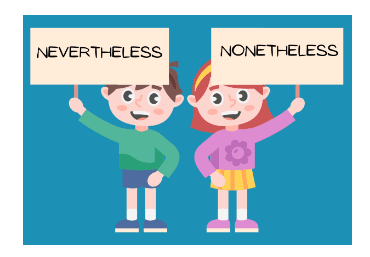
Exploring the English language is an exciting journey full of discoveries. One such interesting aspect is transitional phrases like "nevertheless" vs "nonetheless". Often, non-native English speakers find these words confusing. Are they identical? Or do they have distinct meanings?
This blog aims to clarify the difference between "nevertheless" and "nonetheless". We will discuss their definitions, explain their usage, and highlight the differences. We'll thus help you understand these phrases and use them correctly in spoken English.
Defining Nevertheless vs Nonetheless
------------------------------------
Transition words help link ideas in sentences, paragraphs, or longer texts. They make writing easier to follow. They improve the flow of the sentences by guiding readers through a logical course of thoughts and arguments. These words show different relationships between ideas. This includes addition, contrast, comparison, cause and effect and sequence.
Let us start by looking at the meaning of "nevertheless" and "nonetheless." Both these transition words are used to indicate contrast or concession. You might often hear them in English conversations or see them in written communications. They have very similar meanings. But they can sometimes be used slightly differently.
Nevertheless is used to introduce a statement that contrasts with or adds to a previous statement. They suggest that despite what has just been said, the following statement is still true or relevant.
Here are some example sentences:
* She was tired; nevertheless, she persisted with her studies.
* The weather was rainy; nevertheless, they decided to go for a hike.
Nonetheless is similar to nevertheless. It is used to introduce a contrasting or qualifying statement. It emphasizes that the following statement remains true or applicable despite the preceding fact.
Look at the following sentences that use nonetheless:
* The restaurant was expensive; nonetheless, the food was excellent.
* He failed the first exam. Nonetheless, he managed to pass the course.
Some common synonyms of these words include:
* However
* Yet
* Still
* But
* Even so
Remember, understanding the meanings and using these words will help improve your English skills. This will make your communication more effective.
Is 'Nevertheless' Interchangeable with 'Nonetheless'?
-----------------------------------------------------
'Nevertheless' and 'nonetheless' are considered synonyms. They are both adverbs used to suggest contrast or concession in a sentence. There might be slight differences in usage or tone depending on the context. But they are generally interchangeable in most situations.
The word 'nevertheless' suggests a stronger sense of continuing or persisting with an action or argument. For example, "It was raining heavily; nevertheless, he decided to go for a jog". Here 'nevertheless' indicates that despite the rain, the person continued his planned activity.
'Nonetheless' implies a concession or a change in direction. Consider this example: "She didn’t get the job she wanted. Nonetheless, she remains optimistic about her future career prospects". This sentence implies that even though she didn't achieve her immediate goal, it did not cause a change in her attitude towards her career.
To sum up, there's a slight difference in how they're used depending on the context and intended meaning. But most of the time, you can use them interchangeably. So feel free to use these words when speaking English. They can add depth to your conversation and showcase your language skills!
Common Mistakes When Using Nevertheless and Nonetheless
-------------------------------------------------------
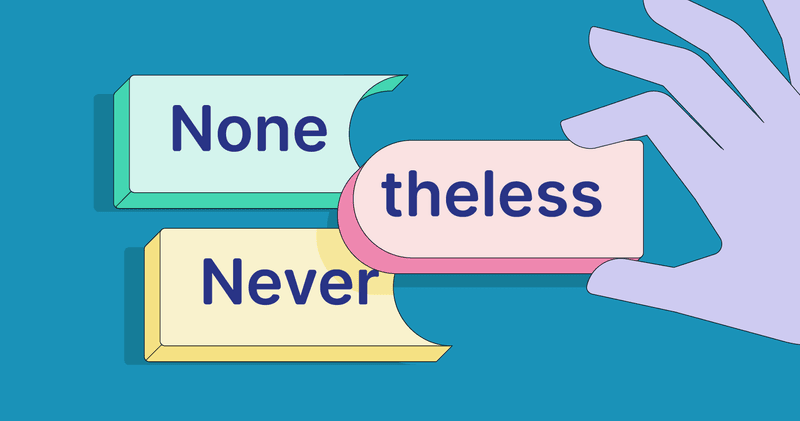
Language learners often struggle with the correct use of 'nevertheless' and 'nonetheless'. It's essential to be aware of the common errors in their usage.
**1\. Incorrect Positioning:** Both words are usually placed at the beginning or in the middle of a sentence to show a contrast.
Incorrect: "I will finish my homework. Nevertheless, I want to play football.".
Correct: "I want to play football. Nevertheless, I will finish my homework."
**2\. Incorrect Punctuation:** 'Nevertheless' and 'nonetheless' should usually be preceded by a full stop (.) or a semicolon (;), and followed by a comma (,) when used at the beginning of a sentence.
Incorrect: "He was tired nevertheless he went for a run.".
Correct: "He was tired. Nevertheless, he went for a run."
**3\. Redundant Usage:** Using these words with conjunctions like 'but' or 'yet' causes repetition.
Incorrect: "It was raining but nevertheless, we decided to go out".
Correct: "It was raining; nevertheless, we decided to go out".
Revisit these rules before using 'nevertheless' and 'nonetheless' in sentences. You can also check out Clapingo's [100 Short Conversational English Tips for Beginners](https://clapingo.com/blog/english-conversation) for more guidance on perfecting your conversational English!
How Can Clapingo Help?
----------------------
In our discussion of 'nevertheless' and 'nonetheless', we've seen how they function as transition words. Why not use these words in your daily discussions?
With [Clapingo's](https://clapingo.com/) personalised coaching, you can master these elements of English language usage. Its native-language instruction approach makes learning natural and effective. This method helps you grasp the usage of similar terms like 'nevertheless' and 'nonetheless'. This will eventually improve your communication skills.
Remember, understanding such phrases is crucial for clear and impactful communication. Mastering these details can enhance your English-speaking abilities. This can make your conversations more clear and accurate.
So why wait? Continue your language learning journey with Clapingo's tailored coaching sessions. Explore Clapingo's courses today and take the next step toward confident English communication!
FAQs
----
**1\. How do I use nonetheless?**
Nonetheless is used as a linking word to show contrast or contradiction. It's often placed at the beginning of a sentence. For example, "It was pouring rain. Nonetheless, he decided to walk to the store."
**2\. Where do you use nevertheless in a sentence?**
Nevertheless is usually used at the beginning of a sentence or clause. For example, "She was tired after work. Nevertheless, she went to the gym for her workout."
**3\. What is the difference between nevertheless and despite?**
"Nevertheless" and "despite" both indicate contrast, but are used differently. "Despite" is followed by a noun phrase. For instance, "Despite the rain, they continued playing." Nevertheless appears at the beginning of a sentence or clause. For example, "It was raining. Nevertheless, they continued playing."
### **You may want to read.**
**[Lier Vs Liar : Understanding Nuances and Usages](https://clapingo.com/blog/lier-vs-liar)**
---
This blog is powered by Superblog. Visit https://superblog.ai to know more.
---
## Understanding 'Theater Vs Theatre': Spelling, Pronunciation, & Meaning
Author: Unknown
Published: 2024-07-11
Meta Title: Spelling Of Theater Vs Theatre: Understanding The Difference
Meta Description: Are you confused about the spelling of theater vs theatre? Let's understand the difference with examples and tips for non-native English speakers in India.
Tags: Theater Vs Theatre, Theater Vs Theatre meaning, Theater Vs Theatre difference, Theater Vs Theatre examples
URL: https://clapingo.com/blog/theater-vs-theatre

Imagine you're writing an email to your boss about a new play. You're not sure whether to use 'theater' or 'theatre'. This happens a lot in India as we deal with these language details. Knowing the difference between 'theater' and 'theatre' can improve our English skills.
That's why this blog post is important for non-native English speakers in India. It explains 'theater' and 'theatre' clearly, with examples to make it easy to understand. You'll learn about how they're spelt and pronounced and what they mean.
What's In A Name? Theater Vs Theatre
------------------------------------
Theatre or theater? It's a common confusion amongst English learners. But don't worry, they are the same word but just spelt differently. The difference come from American and British English spelling preferences. Both words refer to a place where plays, movies, and other performances are held.
In American English, the preference is for 'theater'. For instance, if you're in New York City, you're likely to see Broadway 'theaters'.
Whereas, British English prefers the spelling 'theatre'. So, when you take a trip to London's West End, expect to see many proud signs with the word 'theatre'.
This difference also extends to other words. For example, in American English, it's common to see words ending with 'er' like 'center' or 'fiber'. However, in British English, these same words would be spelt as 'centre' and 'fibre' respectively. Similarly, words like 'color' and 'labor' in American English transform to 'colour' and 'labour' in British English.
Here is a quick list of countries that prefer each spelling:
\- Theater: United States, Philippines
\- Theatre: India, UK, Canada, Australia, New Zealand
At first, the different spelling of theater vs theatre in British and American English might be confusing. However, with practice, they'll become natural. This will improve your English skills and help you communicate the way your audience prefers.
Differences Beyond Spelling: Theater Vs Theatre Pronunciation
-------------------------------------------------------------

British and American English speakers pronounce 'theater' and 'theatre' the same way. Despite the different spelling. Both terms refer to the same concept - a venue or art form related to performing plays, dramas, or shows.
These words are pronounced as ˈθiːətər in American English and ˈθiːətə in British English. Notice that the only difference lies in accent and intonation – not in the basic structure of the word!
Clapingo's YouTube video "Should I Use British or American English?" offers an engaging insight into this fascinating subject. It includes the movie Notting Hill as an example, demonstrating the practical usage of both British and American English.
English Language Adoption Across The World - A Snapshot
-------------------------------------------------------
English is a global language that brings people closer in today's interconnected world. In more than [67 English-speaking countries](https://clapingo.com/blog/english-speaking-countries), different versions of English are used. Each has its distinct features.
India has a unique position among these nations. Despite not being a native-English-speaking nation, India ranks second in terms of the number of English speakers. However, Indian English has its own character. This is because of regional dialects, local languages, and native cultures. This makes it somewhat different from other versions of English across the world.
Final Thoughts
--------------
In this article, we've looked at the difference between 'theater' and 'theatre', a small but important detail in English. We've talked about how they're spelt, pronounced, and what they mean. Knowing these little differences can really improve your English skills. Especially in India where English is used a lot in work and everyday conversations.
Whether it's 'theater' or 'theatre', what truly matters is your willingness to learn and grow. Your journey towards mastering English is filled with such intriguing insights.
Take your learning a step further with [Clapingo's](https://clapingo.com/) personalized coaching sessions designed to improve your spoken English. Our tutors are here to guide you through all such difficulties of the language.
For a more practical look into spoken English practice, watch our video [Clapingo Speaking Practice](https://www.youtube.com/watch?v=H5yTF0V2BVc) on YouTube. Keep practicing, keep improving!
FAQs
----
**1\. What's the difference between theater vs theatre?**
The difference between 'theater' and 'theatre' is primarily geographic. 'Theater' is commonly used in American English. While 'theatre' is the preferred spelling in British English, which is followed in India. Both words carry the same meaning - a place where plays, films, or other performances are presented.
**2\. Is there a difference in theater vs theatre pronunciation?**
Despite different spellings, 'theater' and 'theatre' are pronounced almost the same in most dialects of English. The pronunciation is typically /ˈθiːətər/ with the stress on the first syllable.
**3\. Can I use theater and theatre interchangeably?**
While both words mean the same, we should choose one spelling and stick with it consistently within a piece of writing. In India, since we follow British English norms, 'theatre' is generally preferred.
### **You may want to read.**
**[Lier Vs Liar : Understanding Nuances and Usages](https://clapingo.com/blog/lier-vs-liar)**
---
This blog is powered by Superblog. Visit https://superblog.ai to know more.
---
## Birth or Burden: Understanding 'Born' and 'Borne difference
Author: Unknown
Published: 2024-07-11
Meta Title: Exploring the Distinctions Between 'Born' and 'Borne'
Meta Description: Learn how to use 'Born' and 'Borne' with easy examples, clear explanations, and helpful tips designed for English learners in India.
Tags: Born and Borne difference, Born and Borne meaning, Born and Borne examples
URL: https://clapingo.com/blog/born-vs-borne

In English, there are words that sound alike but mean different things, which can be confusing. A common mix-up for many Indian learners is between "Born" and "Borne". Though they sound the same, their meanings and uses are different.
Knowing how to use "born" and "borne" correctly is important for clear English communication. Using them wrong can change what you're trying to say and cause confusion!
This article will explain "born vs borne", how to use them right with examples, and tips to avoid mistakes. Let's get into the difference between "born" and "borne" and learn to use them properly!
Understanding 'Born'
--------------------
'Born' is a common term in English that denotes the start or origin of something or someone. It typically refers to when a person or creature comes into existence. Usually by being given birth to by their mother.
Let's explore some contexts where 'Born' is used:
1. Birth of a human: "_I was born in Mumbai._"
2. Origin of an idea: "_A new plan was born during the brainstorming session._"
3. Start of something significant: "_A star was born when he scored a century at the cricket match._"
Non-native speakers often confuse 'born' with other similar-sounding words like 'borne'. For example, they might incorrectly write, "_The burden was born by him_." Instead of the correct use, "_The burden was borne by him._" To avoid such mistakes, remember that 'born' is primarily associated with birth or beginning.
Here is a simple comparison table:
**Incorrect Usage**
**Correction**
_The burden was born by him._
_The burden was borne by him._
_She was borne in 1990._
_She was born in 1990._
For more examples of common mistakes in English, you can refer to the [Clapingo blog posts](https://clapingo.com/blog).
Exploring 'Borne'
-----------------
'Borne', on the other hand, is a word that means carrying or spreading something. It's often used when talking about diseases and burdens.
Here are some contexts where 'Borne' is used:
* Carrying responsibility: "_The cost has been borne by the company_."
* Spreading diseases: "_Malaria is a mosquito-borne disease._"
Here's a quick comparison:
**Wrong Usage**
**Right Usage**
_He was borne in Kolkata._
_He was born in Kolkata._
_A new idea was borne._
_A new idea was born._
Still confused about language errors? Check out the helpful [Clapingo YouTube channel](https://www.youtube.com/@Clapingo).
Born Vs Borne – Spotting The Differences
----------------------------------------
The terms 'Born' and 'Borne' often cause confusion among English learners. Let's understand their differences in a simple way.
### **Born**
### **Borne**
Use
Refers to the birth of a living being.
Used to denote carrying or spreading something.
Example
She was born in Kolkata.
The news was borne across the globe swiftly.
Here's the reason that often causes confusion. 'Bear' is a verb with multiple meanings. It can mean to hold or support, to tolerate or endure something, or even to produce fruit! When you transform 'bear' into past participle for the first two meanings (holding/supporting and tolerating), it becomes 'borne'. However, when referring to birth (third meaning - producing), it becomes 'born'.
Let's illustrate this with examples:
1. _The tree has borne fruits this summer_ (referring to production).
2. _She has borne the pain silently for years_ (referring to tolerance).
3. _He was born on a rainy day_ (referring to birth).
Practical Exercises for Mastering ‘Born’ and ‘Borne’
----------------------------------------------------

Here are two simple exercises to help you distinguish between 'born' and 'borne':
**A: Fill in the blanks with 'born' or 'borne':**
1. The baby was \_\_\_\_\_ on 15th August.
2. The swan gracefully \_\_\_\_\_ its weight on the calm lake.
3. He has always \_\_\_\_\_ the burden of responsibility.
**_Answers:_**
1. Born: We use 'born' when referring to birth.
2. Borne: Here, 'borne' refers to carrying or supporting something, in this case, the swan's weight.
3. Borne: Again, 'borne' is used when referring to carrying something, here figuratively referring to responsibility.
**B: Correct the usage of born/borne in the following sentences:**
1. The evidence borne out her innocence.
2. The aircraft has born off course due to strong winds.
Answers:
1. Bore instead of borne. As it is past tense we use bore instead of borne.
2. Borne instead of born. Here, we're talking about carrying or moving something (the aircraft).
How Clapingo Can Help You Master English Usage
----------------------------------------------
Understanding the difference between 'born' and 'borne' might seem hard, but Clapingo is here to help make your English learning easier. With one-on-one coaching from native speakers, Clapingo teaches these difficult parts of English in a friendly way.
Clapingo offers various plans to fit your level, whether you're just starting or already know some English. Imagine not being sure which word to use in a work email. Clapingo's coaching means you won't have to worry about that anymore. Practising regularly with native speakers will make you sure about using 'born' and 'borne', helping you speak and write English confidently in any situation. You can [book a quick trial](https://clapingo.com/book-instant-demo) to see if Clapingo is the best fit for you.
To Recap
--------
Let's review what we've learned about "Born vs Borne." The main difference is how they're used:
* "Born" refers to birth, like in "_He was born in Delhi._"
* "Borne" means carried or spread, such as "_The disease was borne by mosquitoes_."
Don't worry about these small mix-ups stopping you from learning English. Picking up a new language is tough but possible with regular practice and effort. If you're ever confused about English concepts or rules, look them up, practice, and ask questions when needed.
For extra help, consider using services like [Clapingo](https://clapingo.com/), which provides learning programs designed for non-native English speakers.
FAQs
----
**1\. What is the difference between born and borne?**
The key difference between 'born' and 'borne' lies in their usage. 'Born' is specifically used in the context of birth. For example, "_She was born in Chennai._"
'Borne' is used to convey the meaning of carrying or spreading. For example, "_The cost will be borne by the company_."
**2\. Can I use ‘Borne’ in place of ‘Born’?**
Grammatically speaking, no. The term 'borne' should not replace 'born' as they hold different meanings and contexts. Misusing them could lead to confusion. Remember the tip: 'born' for birth, and 'borne' for bearing or carrying.
**3\. Which form of ‘bear’ should I use after a preposition?**
After a preposition, always use the '-ing' form – 'bearing'. Example: "_They went into the jungle, bearing gifts for the tribal chief_."
---
This blog is powered by Superblog. Visit https://superblog.ai to know more.
---
## From Governance to Geography: Exploring Capital vs Capitol
Author: Unknown
Published: 2024-07-11
Meta Title: Capital Vs Capitol: A Guide for Spoken English Learners
Meta Description: Learn the meaning and differences between 'Capital' and 'Capitol' in English, with relatable examples and practice tips.
Tags: capital vs capitol difference, capital vs capitol meaning, capital vs capitol examples
URL: https://clapingo.com/blog/capital-vs-capitol

English can be confusing for non-native speakers because of its wide range of words and similar terms and homophones.
For example, 'capital' can mean a city or money, while 'capitol' refers to a legislative building. Remembering the differences can be difficult, even though they're used in distinct situations.
This blog post will simplify the 'capital vs capitol' confusion to help you understand it better.
What is a Homophone?
--------------------
Homophones are words that sound the same but have different meanings and are often spelt differently. For example, 'pear' (a fruit) and 'pair' (a set of two). Another instance is 'peace' (absence of conflict) versus 'piece' (a part of something).
Confusing, right? But don't worry; we've got you covered. Check out this list of Clapingo blogs on such confusing homophones - [Lier vs Liar](https://clapingo.com/blog/lier-vs-liar), [Principal vs Principle](https://clapingo.com/blog/principal-vs-principle), and more.
Understanding 'Capital'
-----------------------
'Capital' is a term with multiple meanings.
It could refer to a city serving as the seat of government, such as New Delhi being the capital of India. The word can also mean an uppercase letter, for instance, 'A' is the capital letter of 'a'. Additionally, in business language, 'capital' refers to financial resources or assets. For example, you might hear someone say, "_I need to raise capital for my startup_."
Let's recap the various meanings of 'Capital':
* **City serving as the seat of government:** "_New Delhi is the capital of India._"
* **Uppercase Letter:** "_Please write your name in capital letters._"
* **Financial resources or assets:** "_Raising capital for a new venture can be challenging_."
Understanding 'Capitol'
-----------------------
Contrary to 'capital', the term 'Capitol' has a specific meaning. It refers to a building where legislative work occurs. In American English, it often denotes the building where the US Congress meets.
For instance: "_The US Capitol in Washington DC is an iconic structure where legislative decisions are made_."
How to Differentiate Between ‘Capital’ and ‘Capitol’?
-----------------------------------------------------
A common challenge for English learners in India is distinguishing between similar-sounding words like 'capital' and 'capitol'. Let's explore the **capital vs capitol difference.**
### Usage
* Capital: This term can mean a city that serves as the seat of government, a significant wealth resource, or an upper-case letter. Example: _New Delhi is the capital of India._
* Capitol: This term specifically refers to a building where legislative activities occur. Example: _The Rashtrapati Bhavan is the capitol of India._
### Meaning
* Capital: Besides signifying a chief city, 'capital' also means wealth in business contexts or an uppercase alphabet.
* Capitol: 'Capitol' refers only to a building housing legislative offices.
### Context
* Capital: You would use 'capital' while discussing cities, business assets, or grammar.
* Capitol: You would use 'capitol' when referring to governmental buildings.
Here's a simple diagram to help you understand the differences.

---
---
---
Real-world Examples and Practice
--------------------------------
Let's explore 'capital' and 'capitol' in everyday contexts.
1. **Capital:** Ram was excited to visit Delhi, India's capital city, for a business meeting.
2. **Capitol:** Rohan saw the grand US Capitol building when he visited Washington D.C for a conference.
Now it’s your turn! Determine whether to use 'capital' or 'capitol' in these sentences.
1. The \_\_\_\_\_\_\_\_\_ of India is New Delhi.
2. The \_\_\_\_\_\_\_\_\_ building is where legislative decisions are made.
3. Amsterdam is known as the '\_\_\_\_\_\_\_\_\_ of Art'.
**Solutions:**
1\. capital, 2. capitol, 3. capital
Regular practice with examples of 'capital' and 'capitol' will help you understand and use these words in both spoken and written English.
Common Mistakes & How To Avoid Them
-----------------------------------
Here are some simple tips to remember capital and capitol:
1. **Memorise Definitions:** Understand that 'capital' refers to cities or money, while 'capitol' refers to a particular type of building.
2. **Use Mnemonics:** Remember this phrase - "O" in capitol is for "Office", pointing towards legislative buildings.
3. **Practice:** Regularly practice using these words in sentences until you are comfortable distinguishing between them.
4. **Read and Listen:** Engage with English language content – news articles, podcasts, [novels](https://clapingo.com/blog/top-novels-english-speaking)– where these terms are frequently used can help your understanding.
How Can Clapingo Help?
----------------------
At Clapingo, we have personalised English learning that focuses on homophones among many other things. Our one-on-one coaching sessions can help learners understand difficult or confusing English terms.
You'll also have access to a wealth of resources on our platform - including [blogs](https://clapingo.com/blog) and [videos](https://www.youtube.com/@Clapingo/playlists) on common homophones, grammar rules, and more. You can [book a quick demo](https://clapingo.com/book-a-demo) to see if Clapingo fits your needs.
Key Takeaways
-------------
In our exploration of 'capital' vs 'capitol', we've learned some essential things.
While both words look strikingly similar, they carry distinct meanings. The term 'capital' broadly refers to a city that serves as the seat of government in a country or state, financial assets, or even the uppercase letters. Conversely, 'capitol' specifically means a building where legislative activities occur.
Practising with the provided exercises and examples will help to understand the difference between capital vs capitol.
To further improve your learning, check out [Clapingo’s](https://clapingo.com/) services. Clapingo's personalised coaching sessions are designed for unique language needs.
FAQs
----
**1\. What is the difference between 'Capital' and 'Capitol'?**
'Capital' mainly refers either to a city that serves as the head of government in a country or state, or to wealth or resources. For example, "_Delhi is the capital of India_" or "_He made a significant capital investment in his business."_
On the other hand, 'Capitol' specifically refers to a building where legislative work is conducted. In the USA, for instance, "_The Capitol in Washington D.C. is where Congress meets_."
**2\. Can you provide some examples to illustrate ‘Capital’ and ‘Capitol’ usage?**
Let's consider some **capital vs capitol examples**.
For Capital: (a) “_Mumbai is known as the financial capital of India_.” (b) “_She invested a sizable amount of her capital into real estate._”
For Capitol: “T_he US Capitol Building was stormed by protestors_.”
**3\. Is there any easy trick to remember the difference between ‘Capital’ and ‘Capitol’?**
An easy way to remember the **capital vs capitol difference** is by focusing on the spelling. The 'o' in Capitol can stand for 'office' or 'official', both typically associated with governmental buildings. That way, you'll always remember that Capitol refers to a legislative building!
---
This blog is powered by Superblog. Visit https://superblog.ai to know more.
---
## Fluent in Any Setting: Learning English Beyond an English-Speaking Environment
Author: Unknown
Published: 2024-05-22
Meta Title: Mastering English in a Non-English Environment: Expert Tips
Meta Description: Master English fluency despite living in a non-English environment! Explore strategies to improve spoken English skills irrespective of your environment.
Tags: online english speaking course, books to learn english, Learn to Speak English, Non-English Environment, Improve English Skills
URL: https://clapingo.com/blog/learn-speak-english-well-non-english-environment
Contents
* [How Easy (or Difficult) Is it for Non-Native Speakers to Learn English?](#how-easy-or-difficult-is-it-for-non-native-speakers-to-learn-english)
* [How Can I Learn to Speak English Well in a Non-English Environment?](#how-can-i-learn-to-speak-english-well-in-a-non-english-environment)
* [1\. Create an English-speaking environment:](#1-create-an-english-speaking-environment)
* [2\. Online resources:](#2-online-resources)
* [3\. Self-learning techniques:](#3-self-learning-techniques)
* [4\. Join English-Speaking Clubs:](#4-join-english-speaking-clubs)
* [How To Create An English-Speaking Environment At Home?](#how-to-create-an-english-speaking-environment-at-home)
* [1\. Watch English shows and movies:](#1-watch-english-shows-and-movies)
* [2\. Listen to podcasts or audiobooks:](#2-listen-to-podcasts-or-audiobooks)
* [3\. Engage in conversations with native speakers:](#3-engage-in-conversations-with-native-speakers)
* [4\. Create a study corner:](#4-create-a-study-corner)
* [5\. Use mobile apps:](#5-use-mobile-apps)
* [How Can Books Aid In Enhancing Spoken English Skills?](#how-can-books-aid-in-enhancing-spoken-english-skills)
* [How To Improve English Listening Skills?](#how-to-improve-english-listening-skills)
* [Does Online Tutoring Help Improve Spoken English Skills?](#does-online-tutoring-help-improve-spoken-english-skills)
* [Key Takeaways](#key-takeaways)
* [FAQs](#faqs)

Are you struggling to communicate effectively in English in a professional setting? Do you find it challenging to express your thoughts and ideas with confidence? You're not alone. Many Indian natives face difficulties in speaking English fluently, especially when they don't have an English-speaking environment to practice in.
The lack of exposure to an English-speaking environment can hinder your language development. Without regular interaction in English, it becomes harder to improve your vocabulary, grammar, and pronunciation. Consequently, you may feel less confident when communicating with colleagues or clients who are fluent in English.
However, mastering the English language is crucial for professional success, personal growth, professional success, international travel, and global understanding. It opens up numerous opportunities for career advancement and enables you to build connections with people from different cultures around the world.
In this blog post, we aim to provide actionable tips and strategies for learning English in a non-English environment. We understand that not everyone has access to formal language classes or an immersive English-speaking atmosphere. That's why we want to equip you with practical techniques that you can implement on your own.
How Easy (or Difficult) Is it for Non-Native Speakers to Learn English?
-----------------------------------------------------------------------
Learning any language can be challenging, especially when you are not surrounded by an English-speaking environment. But with the right approach and resources, you can still achieve fluency, accuracy, and confidence in English.
Here are some common difficulties faced by non-native speakers when trying to enhance their spoken English skills:
1. **Limited Exposure:** Without regular exposure to native English speakers, it can be difficult to grasp the nuances of pronunciation, intonation, and natural speech patterns.
2. **Lack of Conversational Practice:** Engaging in conversations with native speakers is crucial for improving your spoken English skills. In a non-English speaking environment, finding opportunities for conversation might be challenging.
3. **Limited Access to Learning Resources:** Living in a non-English speaking location may mean limited access to quality learning resources such as books, classes, or language exchange programs.
4. **Grammar and Vocabulary Challenges:** Learning perfect sentence formation in English online can be particularly challenging without proper guidance and support. Non-native speakers often struggle with grammar rules and expanding their vocabulary.
5. **Cultural Differences:** Understanding cultural references and idiomatic expressions is crucial for effective communication in any language. As a non-native speaker learning English outside an English-speaking ecosystem, you may face challenges in grasping cultural nuances
To help you navigate these challenges, here's a table comparing the difficulties faced by non-native speakers with possible solutions:
**Challenges**
**Possible Solutions**
Limited exposure
Seek out online communities or language exchange programs
Lack of conversational practice
Practice speaking with a language partner or tutor
Limited access to learning resources
Utilize online platforms like Clapingo for comprehensive courses and materials
Grammar and vocabulary challenges
Enroll in online English courses or work with an English tutor
Cultural differences
Immerse yourself in English literature and films
How Can I Learn to Speak English Well in a Non-English Environment?
-------------------------------------------------------------------
With adaptability, determination, and the right resources, you can overcome environmental barriers and learn to speak English fluently. Here are some strategies to help you on your journey:
### 1\. Create an English-speaking environment:
Even if you're not surrounded by native English speakers, you can create an immersive environment that promotes language learning. The following section will explore this in detail.
### 2\. Online resources:
The internet is a treasure trove of resources for learning spoken English. Take advantage of these platforms to enhance your skills:
a) **Language Learning Apps:** Use apps like Duolingo, Babbel, or Clapingo to practice vocabulary and sentence formation.
b) **YouTube Channels:** Watch educational videos on channels like BBC Learning English or TED Talks for exposure to different accents and topics.
c) **Language Exchange Websites:** Connect with language exchange partners on websites like ConversationExchange.com or Tandem.
### 3\. Self-learning techniques:
Take charge of your learning process and incorporate these techniques into your routine:
a) **Develop a study plan:** Set specific goals and allocate dedicated time for practising listening, speaking, reading, and writing skills.
b) **Utilize language learning websites:** Explore websites like Clapingo that offer structured courses designed for self-study.
c) **Practice speaking aloud:** Engage in conversations with yourself or record your voice while reading aloud to improve pronunciation and fluency.
d) **Listen to podcasts or audiobooks:** Immerse yourself in the English language by listening to podcasts or audiobooks on a variety of topics.
### 4\. Join English-Speaking Clubs:
Look for English-speaking clubs or meetups in your area. These provide opportunities to interact with other learners and practice conversational English in a supportive environment.
To further assist you, we recommend watching the YouTube video "Everyday English: Language for Daily Scenarios"[.](https://youtu.be/abcd1234\).) This video focuses on common situations and provides useful phrases and vocabulary for daily conversations.
How To Create An English-Speaking Environment At Home?
------------------------------------------------------

Creating an English-speaking environment at home is essential for improving your English-speaking skills, especially if you have been wondering 'How to learn English if we are in a non-English speaking location?'
Without a supportive environment, it may seem challenging to practice and develop your English fluency. However, with the right approach and dedication, you can create an immersive English-speaking atmosphere in your own home. Here's how:
### 1\. Watch English shows and movies:
* Stream or download English shows and movies online.
* Use subtitles in English to enhance comprehension.
* Pay attention to pronunciation, intonation, and vocabulary.
### 2\. Listen to podcasts or audiobooks:
* Explore various genres of podcasts or audiobooks available in English.
* Focus on understanding different accents and speech patterns.
* Take note of new words and phrases for further practice.
### 3\. Engage in conversations with native speakers:
* Join online communities or language exchange platforms to connect with native speakers.
* Participate in virtual language exchange sessions and practice speaking with others.
* Seek feedback and ask for guidance on improving your speaking skills.
### 4\. Create a study corner:
* Set up a dedicated space at home for studying and practising English.
* Surround yourself with learning materials like books, dictionaries, and grammar guides.
### 5\. Use mobile apps:
Here are some useful apps that can help you improve your spoken English skills:
**App Name**
**Features**
Duolingo
Offers interactive lessons focusing on listening comprehension and speaking exercises
FluentU
Provides real-world videos with interactive subtitles for vocabulary-building
HelloTalk
Connects language learners with native speakers for conversation practice
Clapingo
Provides comprehensive tips to improve English speaking fluency
Clapingo's blog post "[How to Improve English Speaking Fluency: 27 Simple Tips](https://clapingo.com/blog/how-improve-english-speaking-fluency)" is an excellent resource for further reading on this topic.
By incorporating these strategies into your daily routine, you can create an English-speaking environment at home that fosters continuous learning and growth.
How Can Books Aid In Enhancing Spoken English Skills?
-----------------------------------------------------
Reading books is an excellent way to enhance your spoken English skills, even if you are in a non-English environment. Books not only expose you to a vast array of vocabulary but also help improve sentence structure, grammar, and overall language command. Here's how:
1. **Improving Vocabulary:** Books provide a treasure trove of words that can expand your vocabulary. When you encounter new words while reading, make sure to look up their meanings and understand their usage.
2. **Enhancing Sentence Structure:** Reading well-written sentences in books can greatly impact your sentence construction skills. You'll learn how to form grammatically correct sentences and use appropriate connectors like conjunctions and transitional phrases.
3. **Strengthening Grammar:** Books offer examples of correct grammar usage, which can reinforce your understanding of grammar rules. By observing how authors construct sentences and use tenses, you'll gain a better grasp of English grammar.
4. **Developing Language Command:** Regular reading helps you internalize the language and develop a strong command over it. The more exposure you have to different writing styles, the better equipped you'll be to express yourself fluently in spoken English.
To aid your journey in finding the right books for improving spoken English, Clapingo has compiled a list of "[Top 25 English Speaking Course Books You Shouldn't Miss](https://clapingo.com/blog/english-speaking-course-book)." This curated selection covers various aspects of spoken English development and includes popular titles such as:
1. _English Grammar in Use_ by Raymond Murphy: A comprehensive guide that covers all aspects of English grammar with clear explanations and practice exercises.
2. _Word Power Made Easy_ by Norman Lewis: A vocabulary-building book that teaches new words through engaging exercises.
By incorporating reading into your language learning journey, you can improve your vocabulary, sentence structure, grammar, and overall command of the English language.
How To Improve English Listening Skills?
----------------------------------------

Listening skills are crucial for language acquisition as they help in understanding and interpreting spoken language. They also aid in improving pronunciation, vocabulary, and overall communication skills. Here are some actionable tips and resources to enhance your English listening abilities:
1. **Listen to English every day:** Make it a habit to listen to English podcasts, and audiobooks, or even watch movies and TV shows in English. This exposure will help you familiarize yourself with different accents, vocabulary, and sentence structures.
2. **Practice active listening:** When you listen, focus on understanding the meaning behind the words rather than just passively hearing them. Pay attention to intonation, stress, and emotions conveyed through speech. Train yourself to catch important details and key points of conversations.
3. **Join conversation groups or language exchange programs:** Engaging in conversations with native English speakers or fellow learners can provide valuable listening practice opportunities. It allows you to adapt to the natural pace of spoken English while gaining confidence in your speaking abilities.
4. **Utilize online resources:** Take advantage of online platforms like Clapingo that offer a variety of interactive listening exercises tailored for learners at different proficiency levels. These platforms provide audio materials accompanied by comprehension questions and exercises that challenge your understanding of spoken English.
5. **Use subtitles wisely:** When watching movies or TV shows in English, try using subtitles sparingly or turning them off altogether once you become more proficient. This encourages you to rely solely on your listening skills rather than relying heavily on reading comprehension.
6. **Engage with authentic materials:** Once you feel comfortable with basic listening exercises, challenge yourself by exploring authentic materials such as news broadcasts, TED Talks, or podcasts aimed at native speakers. These resources expose you to real-life situations and help you develop a deeper understanding of the language.
7. **Practice English listening exercises on YouTube:** For better understanding and practice, check out this YouTube video: "Practice English Listening for Beginners - Improve your Listening Skills every day"[.](https://www.youtube.com/watch?v=XXXXXXXX\).) The video provides practical tips and exercises to enhance your listening skills.
By incorporating these tips into your daily routine and utilizing the suggested resources, you can significantly improve your English listening skills. Remember, consistent practice and exposure are key to becoming a proficient listener in any language.
Does Online Tutoring Help Improve Spoken English Skills?
--------------------------------------------------------

In today's globalized world, being able to speak English fluently is a valuable skill that can open doors to countless opportunities. But what if you find yourself in a non-English speaking environment? You may ask 'How can I improve my English speaking skills when there is not a supportive environment to learn?' The answer lies in online tutoring.
Online tutoring offers several benefits that make it an ideal option for improving spoken English skills. Firstly, it provides convenience like no other. You can learn from the comfort of your own home or any location of your choice. No need to commute or adhere to fixed schedules. This flexibility allows you to fit your English learning sessions into your busy life easily.
Secondly, online tutoring offers personalized instruction tailored specifically to your needs. With one-on-one sessions, you get the undivided attention of expert instructors who can focus on your specific areas of improvement. Whether you need help with pronunciation, vocabulary, or sentence formation, online tutors will guide you every step of the way.
To further emphasize the advantages of online tutoring over traditional classes, let's take a look at this comparison table:
**Online Tutoring**
**Traditional Classes**
Convenience: Learn from anywhere at any time
Fixed schedules
Flexibility: Plan sessions as per your availability
Limited class timings
Personalization: Tailored instruction
Generic teaching approaches
Access to Expert Instructors
Limited access to experienced teachers
Now that we understand the benefits online tutoring brings, let's explore how Clapingo can be a valuable resource for learning spoken English. Clapingo offers one-on-one sessions with native speakers who are trained in teaching English as a second language. These sessions provide an immersive experience where learners can practice their speaking skills with someone fluent in English.
Clapingo also offers diverse plans to cater to different learning needs. Whether you are a beginner looking for basic conversation skills or an advanced learner aiming for fluency, Clapingo has a plan for you. With their structured curriculum and expert guidance, you can progress steadily on your journey to speaking English confidently.
So, if you're wondering how you can improve your English speaking skills in a non-English environment, look no further than Clapingo. Join their community and experience personalized, easily accessible spoken English coaching from expert instructors. With their support and guidance, you'll be speaking fluent English in no time.
Key Takeaways
-------------
* Learning English as a non-native speaker can be challenging, but it is absolutely possible with dedication and practice.
* Create your own English-speaking environment at home by immersing yourself in the language. Watch English movies and TV shows, listen to English music, and read books in English.
* Books are an excellent resource for enhancing spoken English skills. They provide exposure to different sentence structures, vocabulary, and idiomatic expressions.
* Improving your listening skills is crucial for developing spoken English proficiency. Practice listening to podcasts, news broadcasts, or audiobooks in English.
* Online tutoring is a valuable tool for improving spoken English skills, especially when there is no supportive environment to learn in your location.
Learning a new language requires determination and perseverance, especially if you don't have access to an English-speaking environment. However, with the right resources and consistent effort, anyone can achieve fluency in spoken English.
At Clapingo, we understand the challenges non-native speakers face. That's why we're committed to providing comprehensive support through our platform – including online tutoring sessions tailored to individual needs. You'll find a range of courses designed specifically for Indian learners aiming to enhance their speaking and writing abilities in professional and personal contexts.
Don't let your environment limit your potential – take that leap and start your English language learning journey today with [Clapingo](https://clapingo.com/)!
FAQs
----
1\. How can I speak English without an English environment?
* **Immerse yourself in English media:** Watch movies and TV shows, read books, and listen to music in English. This will help you become familiar with the language and improve your pronunciation.
* **Practice speaking with native speakers online:** Join language exchange platforms or find native speakers who want to practice your native language. This will allow you to converse in English and receive feedback.
**2\. How can I improve my English outside the school environment?**
* **Take advantage of online resources:** Clapingo offers a wide range of courses and resources designed to enhance your spoken and written English skills. Make use of these resources at your own pace.
* **Join conversation clubs or language meetups:** Look for local groups or clubs where you can meet other learners or native speakers and practice speaking in a supportive environment.
* **Engage in self-study:** Set aside dedicated time each day for self-study. Use textbooks, online exercises, or mobile apps to practice grammar, vocabulary, and listening comprehension.
**3\. How easy is English to Learn for non-English speakers?**
* **Similarities between languages:** If your native language shares similarities with English, such as having a Latin-based alphabet or similar grammar structures, it can be easier to grasp certain aspects of English.
* **Access to resources:** With the internet, you have access to countless resources, courses, and platforms like Clapingo that cater specifically to non-English speakers looking to improve their English skills.
**4\. How can I improve my English speaking skills when there is not a supportive environment?**
* **Find online language partners:** Use language exchange platforms to connect with native speakers who are interested in learning your native language. This way, both parties can practice speaking in each other's languages.
* **Record yourself speaking:** Use a voice recorder or smartphone app to record yourself speaking in English. Listen back and identify areas where you need improvement.
* **Practice speaking with confidence:** Don't be afraid of making mistakes. The more you practice, the more comfortable and confident you will become.
---
This blog is powered by Superblog. Visit https://superblog.ai to know more.
---
## Fuel Your English Fluency: Motivational Proverbs for Language Growth
Author: Unknown
Published: 2024-05-17
Meta Title: Motivating Life with English Proverbs: A Guide for Learners
Meta Description: Explore English proverbs and their meanings. With practical examples, learn how to use them to boost your confidence in spoken English.
Tags: motivational proverbs english, english motivational proverbs , proverbs in english, motivational proverbs
URL: https://clapingo.com/blog/motivational-proverbs-english
Contents
* [What Are Proverbs?](#what-are-proverbs)
* [1\. Brevity:](#1-brevity)
* [2\. Universality:](#2-universality)
* [3\. Expressive:](#3-expressive)
* [Importance of Proverbs in English Communication](#importance-of-proverbs-in-english-communication)
* [Decoding Common English Proverbs](#decoding-common-english-proverbs)
* [1\. "Actions speak louder than words"](#1-actions-speak-louder-than-words)
* [2\. "The early bird catches the worm"](#2-the-early-bird-catches-the-worm)
* [3\. "A journey of a thousand miles begins with one step"](#3-a-journey-of-a-thousand-miles-begins-with-one-step)
* [4\. "Never put all your eggs in one basket"](#4-never-put-all-your-eggs-in-one-basket)
* [5\. "All that glitters is not gold"](#5-all-that-glitters-is-not-gold)
* [6\. "Fall seven times, stand up eight."](#6-fall-seven-times-stand-up-eight)
* [7\. "Where there's a will, there's a way."](#7-where-theres-a-will-theres-a-way)
* [8\. "Hope for the best, prepare for the worst."](#8-hope-for-the-best-prepare-for-the-worst)
* [9\. "Opportunity knocks but once."](#9-opportunity-knocks-but-once)
* [10\. "Every cloud has a silver lining."](#10-every-cloud-has-a-silver-lining)
* [Some More Motivational Proverbs in English](#some-more-motivational-proverbs-in-english)
* [The Art of Using Proverbs Effectively](#the-art-of-using-proverbs-effectively)
* [Context matters:](#context-matters)
* [Know when to hold back:](#know-when-to-hold-back)
* [Avoid misusing:](#avoid-misusing)
* [Making Proverb Learning Fun Through Activities](#making-proverb-learning-fun-through-activities)
* [Key Takeaways](#key-takeaways)
* [FAQs](#faqs)

In India, where many languages coexist, the common language often becomes English. One aspect of English that's both charming and challenging is its proverbs. A proverb refers to a simple, concrete saying popularly known and repeated. They express a perceived truth based on common sense or experience.
While these wise sayings are short and straightforward, they can be puzzling for non-native English speakers. But don't let that confuse you!
Understanding and using proverbs effectively can significantly enhance your vocabulary. They offer more than just moral lessons; they enable you to express complex ideas in simple words. This helps strengthen your command of the language. They also provide cultural insights, helping you connect better with native English speakers.
This article aims to guide you through motivational English proverbs and help you use them in your daily conversations. We are here to help you learn the meaning behind some popular motivational proverbs. We will also guide you on how to use them correctly in different contexts. Ready to jump in? Let's start!
What Are Proverbs?
------------------
A proverb refers to a simple, well-known saying that expresses a universal truth or piece of wisdom. It is a phrase or sentence that has been used by many generations, often metaphorically, to guide actions and provoke thought.
Proverbs have some distinct features:
### 1\. Brevity:
They are concise yet impactful, delivering wisdom in a few words.
### 2\. Universality:
They convey truths applicable across cultures and times.
### 3\. Expressive:
They use figurative language like metaphors or idioms for vivid imagery.
English proverbs not only beautify your conversation but also pack power into your language. By using an English proverb appropriately, you can convey complex ideas engagingly.
So next time when you're in a discussion or drafting an email, include a relevant proverb—it might make your message much more interesting!
Importance of Proverbs in English Communication
-----------------------------------------------
Proverbs are the wisdom of the ages. They provide memorable lessons that can be applied to various situations in life. For non-native English speakers, understanding proverbs is vital not only for enhancing vocabulary but also for gaining cultural insights.
Proverbs are like packing an ocean of wisdom into a drop of language! By learning English proverbs, you bridge language gaps and gain insight into English-speaking cultures. This will help you engage in meaningful communication.
Interestingly, there's much common ground between Indian proverbs and their English counterparts. For instance, the English proverb "Work is worship" resonates with the Hindi proverb "कर्म ही पूजा है" (Karma hi pooja hai). Such similarities show the universal appeal of wisdom. This also makes learning new proverbs an interesting exercise.
In essence, proverbs are gems in language that enhance your command of English and deepen your cultural knowledge. So dive into this treasure and enrich your language experience!
Decoding Common English Proverbs
--------------------------------

Motivational proverbs are like little bits of wisdom that can help us stay positive and keep going when things get tough. Let's take a closer look at some popular ones, understand what they mean, and see how we can use them in everyday life.
### 1\. "Actions speak louder than words"
The saying "actions speak louder than words" tells us that what we do is more important than what we say. It's like showing your true colours through your actions rather than just talking about stuff.
Think about someone who promises to help you but never actually does anything. Then there's another person who quietly lends a hand without bragging about it. The second person is living out this proverb.
People all over the world believe in the power of actions over words. It's about being genuine and proving yourself through what you do.
### 2\. "The early bird catches the worm"
This saying tells us that being quick to act can lead to success. It's like saying that if you're the first one to wake up and get moving, you'll have a better chance of getting what you want.
Imagine two students preparing for a test. One starts studying weeks ahead, while the other waits until the last minute. The first student, the early bird, is more likely to do well because they didn't waste time.
Even though this saying talks about birds and worms, its message is universal. This proverb refers to being proactive and not waiting for things to happen.
### 3\. "A journey of a thousand miles begins with one step"
This proverb means that every big accomplishment starts with a small action. It's like saying that even the longest journey begins with just one step forward.
Think about someone wanting to learn a new skill. The new skill, like a thousand miles, begins with many challenges. It might seem overwhelming at first, but if they take it one step at a time, they'll get there eventually.
This saying comes from ancient Chinese philosophy, teaching us to be patient and persistent in pursuing our goals. Even if we begin a task poorly, we can try harder to complete it perfectly.
### 4\. "Never put all your eggs in one basket"
This proverb means that one should not rely too much on just one plan or idea. Here, "all your eggs", means everything you have and " one basket", means a single option. Relying on one basket, meaning a single option, can be risky. This is because if this "one basket" doesn't work out, you'll lose everything.
Imagine someone investing all the money in just one stock expecting a hefty profit. If the stock market crashes, they'll lose everything. It's safer to spread your investments around.
While putting all your eggs in the same basket might sound funny, it's actually really smart life advice. People all over the world can follow this to avoid unnecessary risks.
### 5\. "All that glitters is not gold"
This proverb means that one should not be fooled by appearances. Just because something looks shiny and attractive on the outside doesn't mean it's good on the inside.
Think about a job offer that sounds amazing but turns out to be really stressful and not worth it. It's like saying looks can be deceiving.
This saying has been around for a long time, reminding us to look beyond surface appearances and not judge things solely by how they look.
### 6\. "Fall seven times, stand up eight."
The proverb means that it is important to keep trying, no matter how many times we fail. It's like saying that even if you get knocked down seven times, you should get back up eight times.
Imagine someone trying to learn a new sport. They might fall down a lot at first, but if they keep getting back up and trying again, they'll eventually get better.
This saying comes from Japan, teaching us the importance of resilience and never giving up, no matter how tough things get.
### 7\. "Where there's a will, there's a way."
This saying tells us that if we're determined enough, we can find a solution to any problem. It's like saying if you really want something, you'll figure out how to make it happen.
Think about someone facing a difficult challenge. If they're determined to overcome it, they'll find a way, no matter what.
This saying is all about the power of determination and resourcefulness, qualities that people admire in any culture.
### 8\. "Hope for the best, prepare for the worst."
This proverb means that one should stay positive but also be ready for things to go wrong. It's like saying it's good to hope for the best outcome but also be prepared for the worst-case scenario.
Imagine someone planning a big outdoor event. They hope for sunny weather but also have a backup plan in case it rains.
This life advice is about being optimistic yet practical, a mindset that's valued in many cultures around the world.
### 9\. "Opportunity knocks but once."
This saying tells us that opportunities don't come around very often, so we should grab them when they do. It's like saying don't wait around because you might miss your chance.
Think about a job opening that's perfect for you. If you hesitate too long to apply, someone else might snatch it up.
This saying reminds us to be proactive and seize opportunities when they arise, no matter where we come from.
### 10\. "Every cloud has a silver lining."
This saying tells us to look for the good in every bad situation. It's like saying even when things seem really bad, there's always something positive to find.
Imagine someone losing their job. It's tough, but maybe it gives them the chance to pursue a career they're truly passionate about.
This saying is about staying hopeful and resilient, even when life gets tough. It's a universal message that everyone can relate to.
Understanding the right meaning of these motivational sayings can give us a little boost when we need it most. They remind us to stay positive, keep trying, and never give up on our dreams. So, let's keep these wise words in mind as we face whatever challenges come our way!
Some More Motivational Proverbs in English
------------------------------------------
In many cultures, the proverb "A cat has nine lives" holds a special place. Imagine a person who has faced many challenges in life, yet always manages to bounce back stronger. They are like cats that survive seemingly fatal events multiple times. It inspires others to keep pushing forward despite setbacks. It's as if each trial faced adds to their "nine lives," granting them the strength to endure.
"Fortune favors the brave" also holds a similar meaning. Just like a city declaring support after a disaster, this proverb reminds us of the remarkable capacity within us to overcome adversity.
In the realm of traditional sayings, "People in glass houses shouldn't throw stones" stands out as a timeless reminder to avoid criticizing others when we're not perfect ourselves. It's like saying we shouldn't "throw stones" or judge someone else's faults when we have "glass houses" of our own to deal with. Similarly, "A picture is worth a thousand words" emphasizes the power of visuals to convey meaning more effectively than mere words. "A thousand words" also reminds us that our actions can speak volumes compared to other external factors.
The proverb "Curiosity killed the cat" warns against blindly pursuing curiosity without considering potential dangers or consequences. Like "a rolling stone gathers no moss", this saying advises against aimlessly wandering like an incapable person without purpose or direction. While basic skills are important, tackling too big a task can be challenging.
Similarly, "one man's junk is another man's treasure" suggests that life experiences and needs can be different for different people. Even if two people belong to the same place, the one with more influence may find it difficult to understand the other.
The Art of Using Proverbs Effectively
-------------------------------------
Using common English proverbs can add spice to your conversation, making you sound more fluent and proficient. However, the art of using proverbs effectively is quite complex. It requires some practice to master most proverbs. Here are some tips to keep in mind:
### Context matters:
* A proverb is most impactful when it perfectly suits the situation or sentiment. For instance, if a friend is facing adversity and remains optimistic, you could say, "When life gives you lemons, make lemonade."
### Know when to hold back:
* Overuse can make your conversation feel forced or cliché. Proverbs should be an occasional dash of flavour, not the main ingredient of your verbal stew.
### Avoid misusing:
* Understand the meaning of the proverb before using it. Misused proverbs might confuse listeners or lead to misunderstandings. If someone is taking a long time to make a decision, saying "The early bird catches the worm" encourages them to hurry up.
Also, immerse yourself in English literature for exposure to these common sayings. Reading classics can introduce you to many proverbs used organically in context. Clapingo's blog post [Literary Learning: Novels to Elevate Your English Proficiency](https://clapingo.com/blog/top-novels-english-speaking) provides some helpful recommendations.
For more conversational tips and guidance on how to make your English sound more natural and fluent, check out Clapingo's blog post [Learn Quickly: 100 Short Conversational English Tips for Beginners](https://clapingo.com/blog/english-conversation).
Making Proverb Learning Fun Through Activities
----------------------------------------------
Learning common English proverbs needn't be such a complex project. In fact, it can be enjoyable! Here are a few fun activities and exercises to help you remember and practice using motivational proverbs in real-life situations:
1. Proverb Charades: Think of an English proverb, act it out, and let your friends guess the proverb! This game not only tests your understanding of the proverb but also boosts memory recall.
2. Story Building with Proverbs: Weave an English proverb into a short story. Narrating stories helps you understand the context in which to use these proverbs.
3. Proverb of the Day: Choose one English proverb each day and use it in conversation as often as possible. This practice strengthens your command over its usage.
Active engagement is key to mastering any language. When you use these proverbs in conversations or writing, they become part of your regular vocabulary.
[Clapingo's](https://clapingo.com/) one-on-one personalised sessions bring this practice-oriented approach to learning English proverbs and much more. The expert tutors at Clapingo tailor lessons to your proficiency level and learning pace. They guide you on how to seamlessly incorporate proverbs into daily speech.
This YouTube series by Clapingo's tutors where they provide deeper insights on idioms and phrases can be useful:
Key Takeaways
-------------
Understanding and employing motivational English proverbs can significantly improve your spoken English skills. These common English proverbs offer a unique perspective into the cultural aspects of the English language. They help you to connect with native speakers on a deeper level. Moreover, by mastering these expressions, you could boost your confidence and fluency, making social and professional interactions smoother.
Learning these proverbs is not only enriching but can also be fun. Remember that 'every cloud has a silver lining'. So even if you find this process challenging at first, look for the positive learning experiences it brings. As discussed, a proverb refers to a simple and concrete saying that expresses a perceived truth based on common sense or experience. So embracing them will no doubt enhance your English language proficiency.
Let 'Rome wasn't built in a day' be your mantra—a proverb reminding us that important work takes time. Keep up the effort in learning English proverbs and you will see significant improvement in your language skills.
Always remember that Clapingo is here to help you in this language-learning journey. So 'keep your eyes on the prize', maintain focus on your goals and continue your empowering journey!
FAQs
----
**1.** **What makes motivational proverbs universally relatable?**
Motivational proverbs resonate across cultures because they encapsulate timeless wisdom in simple phrases. "Birds of the same feather flock together" emphasizes the power of unity. "Familiarity breeds contempt" refers to the problems caused by overexposure. All these concepts are understood the same way worldwide.
**2.** **How do motivational proverbs help in overcoming challenges?**
Motivational proverbs offer innovative solutions in tough situations. "Laughter is the best medicine" encourages optimism, while "A squeaky wheel gets the grease" reminds us to speak up. They help individuals navigate obstacles and tasks more effectively.
**3.** **Can motivational proverbs be applied practically?**
Yes, motivational proverbs have practical applications in daily life. "People tend to cover the same ground," suggests repetitiveness. "Time is money" provides valuable insights into life. "An idle brain is the devil's workshop" warns against laziness.
---
This blog is powered by Superblog. Visit https://superblog.ai to know more.
---
## Past Continuous Tense Made Simple: Exploring the Formula
Author: Unknown
Published: 2024-05-07
Meta Title: The Past Continuous Tense Formula: A Comprehensive Guide
Meta Description: Understand the past continuous tense formula and improve your English speaking skills. With relatable examples specifically crafted for Indian learners.
Tags: Past Continuous Tense use, Past Continuous Tense , Past Continuous Tense Formula
URL: https://clapingo.com/blog/past-continuous-tense-formula
Contents
* [What is Past Continuous Tense?](#what-is-past-continuous-tense)
* [How to Formulate Past Continuous Tense](#how-to-formulate-past-continuous-tense)
* [](#)
* [When Do We Use Past Continuous Tense?](#when-do-we-use-past-continuous-tense)
* [Advanced Usage of Past Continuous Tense](#advanced-usage-of-past-continuous-tense)
* [Common Mistakes When Using Past Continuous Tense](#common-mistakes-when-using-past-continuous-tense)
* [Past Continuous Tense: Exercises for Practice](#past-continuous-tense-exercises-for-practice)
* [Comparing Past Continuous Tense with Other Tenses](#comparing-past-continuous-tense-with-other-tenses)
* [To Sum Up](#to-sum-up)
* [FAQs](#faqs)

Learning English as a second language in India can be tricky, especially with tenses like the past continuous. Confusion often arises between the past simple and past continuous, or when using auxiliary verbs and present participles.
Mastering the past continuous is crucial because it's commonly used in daily and professional conversations to describe ongoing past actions. Incorrect usage can lead to misunderstandings.
This blog post aims to clarify the past continuous tense with examples and exercises. Whether it's understanding 'was/were' as auxiliary verbs or adding '-ing' to main verbs, we'll cover it all.
Ready to improve your English skills for personal and professional growth? This blog post on the past continuous tense will boost your confidence in using it correctly!
What is Past Continuous Tense?
------------------------------
Ever wondered how you can express actions that were ongoing in the past? This is where the past continuous tense comes into play.
The past continuous tense, often also called the past progressive tense, allows us to talk about past events that were in progress at a certain moment in time. It is used to express actions or situations that were ongoing or 'continuous' in the past.
This tense is formed using was/were + present participle (the verb ending in -ing). For instance, "I was playing cricket when it started raining." Here, 'was playing' represents the past continuous tense.
The purpose of this tense in spoken English is to indicate interrupted actions, parallel or simultaneous actions, and atmospheric conditions in the past. Let's explore some common verbs often used in this tense:
1. Working: He was working when I called him.
2. Playing: They were playing board games all evening.
3. Reading: I was reading a novel during my train journey.
4. Cooking: She was cooking dinner when you arrived.
5. Writing: We were writing our assignments till late night.
How to Formulate Past Continuous Tense
--------------------------------------
Let's dive right into the structure of past continuous tense, which consists of two parts.
* The first part is an auxiliary verb—either "was" or "were", used according to the subject.
* The second part is the main verb, which takes a present participle form ending with "-ing".
* This combination gives us the standard formula: **Subject + was/were + present participle verb -ing**.
Confused? Let's break it down with some examples:
* I was eating samosa when she called.
* They were playing cricket until it started raining.
* You were studying English when I visited you last.
Each of these sentences highlights a past ongoing action, captured by the past continuous tense formula.
To make things easier for you, here's a table comparing the subject and the auxiliary verb usage in past continuous tense:
**Subject**
**Auxiliary Verb**
I
was
He/She/It
was
You/We/They
were
Now that we've got that covered, let's look at how to use our main verbs in their present participle form:
* work -> working
* play -> playing
* study -> studying
Even irregular verbs follow this rule in the past continuous tense:
* go -> going
* do -> doing
* see -> seeing
As you can see, adding "-ing" to our main verb is pretty simple! But remember, spelling changes might occur with certain verbs. Fear not. There are many online resources that can help you with regular and irregular verbs transformed into their present participle forms for your convenience.
When Do We Use Past Continuous Tense?
-------------------------------------
The past progressive tense comes in handy in several scenarios. Let's delve into some situations where the past continuous tense is most aptly used.
**1\. Actions Happening at a Specific Time in the Past:**
If you're describing an action that was happening at a particular time in the past, the past continuous tense is your go-to. Suppose you're narrating a story about your last visit to Kolkata. Example:
A: "What were you doing at 8 pm yesterday?"
B: "I was watching the cricket match on television."
**2\. Two Actions Occurring Simultaneously in the Past:**
When two actions were occurring at the same time in the past, we use this tense for both actions. The present participle form of both main verbs is used to denote overlapping action. Example:
A: "What happened when you met Rekha last week?"
B: "We were discussing her new book while sipping on Darjeeling tea."
**3\. Actions Interrupted by Other Actions or Events:**
When an ongoing action in the past was interrupted by another event or action, we use the past continuous tense for the action that was already happening and simple past tense for the action that interrupted it. Example:
A: "Why didn't you answer my call yesterday?"
B: "Sorry! I was taking a shower when you called."
### Advanced Usage of Past Continuous Tense
Let's dive deeper into the past continuous tense and explore its advanced applications. This tense is not just for describing actions in progress, it can also be used for polite expressions, reported speech, and hypothetical scenarios.
a. For polite expressions, the past continuous tense softens requests or questions. Here's an example of a situation you might encounter at work:
* Simple past: "You took my pen."
* Past continuous (polite): "I believe you were using my pen."
The past continuous form shows respect and avoids direct confrontation.
b. In reported speech, this tense maintains the original speaker’s verb tense when quoting indirectly. Suppose your colleague was complaining about a difficult client.
* Direct speech: He said, "The client is being difficult."
* Reported speech: He said that the client was being difficult.
c. Finally, in hypothetical situations or second conditionals, the past continuous is used to express an unreal situation in the present.
* If I were living in Mumbai (but I'm not), I would go to Marine Drive every evening.
These are more advanced uses of the past continuous tense. You can also form a negative sentence and a negative interrogative sentence using this tense. For instance:
Negative sentence:
* The music wasn't playing when I entered the room.
* I was not studying when the phone rang.
Negative interrogative sentence:
* Wasn't it snowing yesterday when we went for a walk?
* Were you not working yesterday?
Common Mistakes When Using Past Continuous Tense
------------------------------------------------
When non-native English speakers use the past continuous tense, certain errors often creep in. Here are a few common mistakes and how to correct them:
**1\. Incorrect Positioning of Auxiliary Verb**
Incorrect: I was not knowing where he was.
Correct: I did not know where he was.
Explanation: The auxiliary verb 'was' should be placed before the main verb in its present participle form - 'knowing'. However, 'know' is a stative verb, which means it does not usually use in the continuous form. Hence the correct sentence is "I did not know where he was."
**2\. Wrong Form of Present Participle**
Incorrect: He was runing when I saw him.
Correct: He was running when I saw him.
Explanation: The main verb's present participle form must end with '-ing'. In this example, 'run' becomes 'running', not 'runing'.
**3\. Misuse of Time Clauses**
Incorrect: While I was watch TV, she arrived.
Correct: While I was watching TV, she arrived.
Explanation: In a time clause starting with ‘while’, ensure you're using a sentence in the past continuous tense appropriately.
**4\. Incorrect Use of Past Continuous with Adverbs**
Incorrect: He always was playing cricket on Sundays.
Correct: He was always playing cricket on Sundays.
Explanation: Adverbs such as always, often, and sometimes should be positioned between the auxiliary verb and main verb in past continuous sentences.
Remember that continual practice is key to mastering English grammar. For more information about common English grammar mistakes and how to avoid them, check out our [Clapingo blogs](https://clapingo.com/blog)!
Past Continuous Tense: Exercises for Practice
---------------------------------------------
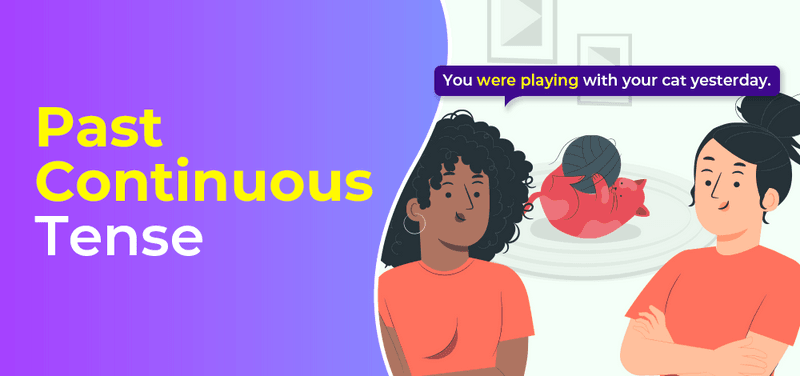
Here are some exercises to test your understanding of the tense.
**Exercise 1:**
Rewrite the following sentences in past continuous tense using the given clues.
1. She reads a book. (Clue: Yesterday at 5 pm)
2. The dog barks. (Clue: Last night at 8 pm)
3. They play football. (Clue: Sunday morning)
4. He eats an apple. (Clue: This morning at 9 am)
5. I write an email. (Clue: Yesterday evening)
**Exercise 2:**
Change these sentences into past continuous tense.
1. We did our homework.
2. She sang a song.
3. They ran to catch the bus.
4. I painted a picture.
5. He cooked dinner.
**Exercise 3:**
Make sentences in past continuous tense using the following words:
1. She - read - novel
2. Children - play - park
3. I - write - letter
4. Birds - sing - morning
5. He - eat - lunch
**Answers**
Exercise 1:
1. She was reading a book yesterday at 5 pm.
2. The dog was barking last night at 8 pm.
3. They were playing football on Sunday morning.
4. He was eating an apple this morning at 9 am.
5. I was writing an email yesterday evening.
Exercise 2:
1. We were doing our homework.
2. She was singing a song.
3. They were running to catch the bus.
4. I was painting a picture.
5. He was cooking dinner.
Exercise 3:
1. She was reading a novel.
2. The children were playing in the park.
3. I was writing a letter.
4. The birds were singing in the morning.
5. He was eating lunch.
Comparing Past Continuous Tense with Other Tenses
-------------------------------------------------
Understanding the nuances of different English tenses can be tricky, especially for non-native English speakers in India. Let's compare the past continuous tense with the simple past tense and the present perfect progressive tense to clarify their differences. (You can also get a quick understanding of these different tenses in these [Clapingo videos](https://www.youtube.com/playlist?list=PL2uSif5LcfbhvIV_H_jhazyXnHEUJZQj4).)
* The past continuous tense (or past progressive) is used to describe an ongoing action that took place in the past. It uses the formula: subject + was/were (auxiliary verb) + present participle (main verb ending in -ing). For example, “I was reading a book.”
* The simple past tense indicates a completed action or event that took place in the past. The formula here is: subject + main verb (in its past form). For example, “I read a book.”
* The present perfect progressive tense describes an action that started in the past and is still continuing or has only recently finished. The formula is: subject + have/has (auxiliary verb) + been + present participle (main verb -ing). An example of this could be, “I have been reading a book.”
Here's a comparison table to help you understand better.
**Tense**
**Structure**
**Usage**
**Example**
Past Continuous
Subject + was/were + present participle
Describes an ongoing action that took place in the past
"I was reading a book"
Simple Past
Subject + main verb (past form)
Indicates a completed action or event that took place in the past
"I read a book"
Present Perfect Progressive
Subject + have/has been + present participle
Describes an action that started in the past and is still going on or recently finished
"I have been reading a book"
Understanding these differences will help you communicate more effectively in English, whether you're narrating a story, describing an event, or discussing your experiences.
To Sum Up
---------
In our learning journey about the past continuous tense, we've covered a lot. We started with its definition as a tense for ongoing actions in the past. Then looked at its structure as 'was/were + present participle (main verb -ing)' like in "I was sleeping when he arrived."
We also learned its uses: describing ongoing actions in the past, parallel or simultaneous past actions, or background settings in stories. We discussed common mistakes to avoid, like confusing it with the simple past tense.
The exercises provided are great for practicing and improving your understanding.
Comparing it with other tenses helped us understand it better, showing how versatile English can be. Mastering this tense isn't just about grammar; it's about expressing yourself confidently.
And don't forget, [Clapingo](https://clapingo.com) is here to help. If you want to improve your English skills beyond the past continuous tense, our personalized coaching can guide you. Our native English speakers make learning easier with practical scenarios.
Keep going! Your English journey is progressing, and we're here to support you with easy-to-understand content and tailored coaching sessions!
FAQs
----
**1\. What is the formula for past continuous tense?**
The structure of the past continuous tense is very simple. The formula uses the subject (like 'I', 'you', 'he', etc.), followed by the auxiliary verb 'was' or 'were' (based on the subject), and a present participle which is the base form of the main verb plus 'ing'. For example, "I was studying."
**2\. When should I use past progressive tense?**
Past continuous tense is used to describe an action that was in progress at a certain time in the past. For example, "At 8 pm yesterday, I was watching a movie." It can also be used for two simultaneous actions in the past, such as, "While he was cooking, she was cleaning."
**3\. Can you provide some examples of sentences in past continuous tense?**
Here are some examples:
* While the teacher entered the classroom, the students were working on their assignments.
* The guests arrived at the party while we were preparing the snacks.
* I was helping with decorations at my cousin's wedding when the power went out.
* Everything was going well yesterday until I realized I had forgotten my wallet at home.
**4\. What is a common mistake non-native English speakers make with past continuous tense?**
A common mistake made by learners, particularly those who speak English as a second language in India, is confusion between simple past and past continuous tense. Remember: Past continuous emphasizes an ongoing action or event that was happening at a specific time in the past. For example, "I was reading" indicates that reading was an action that continued over time; it's not just something I did once and completed.
---
This blog is powered by Superblog. Visit https://superblog.ai to know more.
---
## Continuous Progress: A Guide to Future Continuous Tense
Author: Unknown
Published: 2024-05-07
Meta Title: Master Future Continuous Tense: Guide for English Learners
Meta Description: Understand Future Continuous Tense with this quick guide, packed with examples, practical tips, and relatable scenarios for Indian learners of English.
Tags: future continuous tense, future continuous exercises, future continuous examples
URL: https://clapingo.com/blog/future-continuous-tense
Contents
* [What is Future Continuous Tense?](#what-is-future-continuous-tense)
* [How to Construct Sentences in Future Continuous Tense?](#how-to-construct-sentences-in-future-continuous-tense)
* [Common Challenges Faced By Non-Native Speakers](#common-challenges-faced-by-non-native-speakers)
* [Why is Future Continuous Tense Important?](#why-is-future-continuous-tense-important)
* [Future Continuous vs Other Continuous Tenses: A Comparison](#future-continuous-vs-other-continuous-tenses-a-comparison)
* [Useful Tips and Techniques to Master Future Continuous Tense](#useful-tips-and-techniques-to-master-future-continuous-tense)
* [Practice Time! Future Continuous Tense Exercises](#practice-time-future-continuous-tense-exercises)
* [Why Learning with Clapingo can help you master Future Continuous Tense?](#why-learning-with-clapingo-can-help-you-master-future-continuous-tense)
* [Key Takeaways](#key-takeaways)
* [FAQs](#faqs)

Imagine you're narrating an event scheduled for next week to a friend. How would you convey it in English? The future continuous tense is your solution! It's a powerful tool that allows us to express an action taking place at a certain point in the future.
For example, "I will be attending a party next Friday."
Indian learners often stumble over this tense due to its dual-component structure. Misplacing ‘will’ or forgetting the ‘-ing’ ending are common errors. But don't worry! We're here to help you master this versatile grammatical tool.
This blog post will guide you through using future continuous tense effectively. We'll delve into its practical applications with relatable scenarios, offer clear explanations, and provide example sentences to practice. By the end, you'll be confidently using future continuous tense in your professional and casual conversations alike!
What is Future Continuous Tense?
--------------------------------
The future continuous tense is a staple in English grammar. It's used to describe an action that will be ongoing at a set time in the future. For example, "Next month, I will be visiting my grandmother." Here, the action of visiting is not yet completed—it will still be happening next month.
Understanding this tense requires us to break down its structure. A sentence using the future continuous tense usually includes three parts:
1. **The subject** - who or what is performing the action (I, you, he, she, it)
2. **The auxiliary verbs** - 'will' and 'be'
3. **A main verb** - in its present participle form (ending in 'ing')
So if you ever need to use the Future Continuous tense, remember this formula:
**Subject + Will Be + Present Participle**
Now let's illustrate it with some example sentences:
* "You will be working on the project tomorrow."
* "They will be travelling to Pune next month."
While using this tense might seem straightforward, non-native speakers often make common mistakes. One error is neglecting the auxiliary verbs 'will' and 'be'. They are crucial for constructing a future continuous sentence correctly. Without these words, your sentence may accidentally become the simple future tense instead.
Remember that you should only use future continuous when you're discussing an unfinished action taking place at a given point in the future — not something that's already complete.
How to Construct Sentences in Future Continuous Tense?
------------------------------------------------------
Future continuous tense is also known as future progressive tense. It is used to talk about actions that will be in progress at a certain point in the future. Here's your step-by-step guide to constructing sentences in this tense:
* **Step 1:** Start with the subject: This is the person or thing that will be doing the action. It can be 'I', 'You', 'He', 'She', 'It', 'We' or 'They'.
* **Step 2:** Add the auxiliary verb: For future continuous tense, you always use the auxiliary verb "will be".
* **Step 3:** Add the main verb in its present participle form: The present participle of a verb is formed by adding "-ing" to its base form.
To illustrate this process, let’s consider an example with ‘work’ as the primary verb.
**Subject + Will Be + Present Participle**
* I will be working.
* You will be working.
* He/She/It will be working.
* We/They will be working.
Now let’s see these rules applied to some more verbs:
**Subject**
**Auxiliary Verb**
**Main Verb (Present Participle)**
**Correct Sentence**
**Incorrect Sentence**
I
Will Be
Eating
I will be eating later tonight.
I am eating later tonight.
She
Will Be
Dancing
She will be dancing at 8 o'clock tomorrow night.
She dances at 8 o'clock tomorrow night.
They
Will Be
Studying
They will be studying.
They studying when you arrive.
Remember, we use the future continuous to talk about actions that will start before a certain time in the future and are likely to continue beyond that time. So, let's add a reference to time in the future:
* I will be eating dinner later tonight.
* She will be dancing at 8 o'clock tomorrow night.
* They will be studying when you arrive.
Practice constructing your own future continuous sentences to cement this understanding. For more examples and a detailed look into how to construct different types of sentences (positive, negative, interrogative, etc.) in the future continuous tense.
Common Challenges Faced By Non-Native Speakers
----------------------------------------------
Many Indian learners grapple with the minute points of the future continuous tense. One of the common problems is struggling to distinguish between the future continuous and simple future tense. This can lead to sentences that sound unnatural or incorrect.
Confusion often arises when it comes to understanding exactly when to use the future continuous tense. Some learners assume it's only used for actions happening at a specific time in the future. In reality, it's also used to express an ongoing action that will occur in the future.
Moreover, constructing sentences using this tense can be difficult too. Remember, it follows this structure: **'will' + 'be' + present participle** (verb ending with -ing). For instance, instead of saying "I will work on Monday", if you're highlighting an ongoing task, you should say "I will be working on Monday."
Another common mistake is forgetting to use the present participle form of the main verb (ending in -ing). Using just the base form of the verb can lead to misunderstandings since it changes the meaning of your sentence. For example, "I will be work on Monday" is incorrect.
Although these challenges might seem tough at first, with regular practice and focused learning, you can overcome them. It's important to grasp the correct way to create and use the future continuous tense to demonstrate your English language skills effectively.
Why is Future Continuous Tense Important?
-----------------------------------------
Mastering the future continuous tense is crucial for effective spoken English. Let's look into why:
**1\. Reflects Proficiency in English:**
Proper usage of the future continuous tense shows a solid grasp of the English language, enhancing your overall fluency and mastery.
**2\. Clear Intention Communication:**
It allows you to express actions that will be ongoing at a specific time in the future. For instance, "I'll be attending a webinar next Thursday" clearly communicates your planned activity.
**3\. Portrays Politeness:**
In some scenarios, using the future continuous tense instead of the simple future can sound more polite and less assertive. Example: Saying "Will you be joining us for dinner?" sounds less demanding than "Will you join us for dinner?"
**4\. Use in Conditional Sentences:**
Future continuous tense often features in conditional sentences which form a significant part of everyday communication - "If it rains tomorrow, I will be staying home."
In real-life scenarios, we frequently use the future continuous tense without even realising it! Perhaps you're making plans with friends and tell them, "We'll be watching a movie this Saturday." Or reminding your colleague about an upcoming meeting - "Don't forget, we'll be discussing the project tomorrow."
In professional communication too, this tense proves invaluable. For instance, when scheduling appointments or meetings, we often say things like - "I will be meeting with clients all day tomorrow." It's also used while making predictions or assumptions about business trends – “By 2025, we’ll be exporting our products worldwide.”
Remember that mastering any language involves embracing its complexities and intricacies. Understanding how to use the future continuous tense effectively is undoubtedly a vital part of this journey!
Future Continuous vs Other Continuous Tenses: A Comparison
----------------------------------------------------------
To fully understand the future continuous tense, it's useful to compare it with its counterparts - the present and past continuous tenses.
* The future continuous tense is used to discuss actions that will be in progress at a specific time in the future. For example, "I'll be eating dinner at 8 pm tomorrow." Here, the action (eating dinner) will be ongoing at a certain time (8 pm next day).
* We use the present continuous tense to talk about activities happening now or plans in the near future. For instance, "I am eating lunch now," or "We are going to a movie tonight."
* The past continuous tense is used for an action that was in progress at a specific time in the past. An example of this could be, "She was studying when I called her last night."
Here's a quick comparison table:
**Tense**
**Usage**
**Example**
Future Continuous
Actions in progress at a specific time in the future
He will be working on his project next week
Present Continuous
Actions happening now or future plans
She is reading a book right now
Past Continuous
Actions in progress at a specific time in the past
They were playing cricket when he arrived yesterday
Understanding other continuous tenses can make it easier for you to use the future continuous more effectively. Clapingo has some [interesting videos](https://www.youtube.com/playlist?list=PL2uSif5LcfbhvIV_H_jhazyXnHEUJZQj4) that delve deeper into each of these tenses. These videos contain example sentences and helpful tips on how you can practice using all these tenses correctly.
Useful Tips and Techniques to Master Future Continuous Tense
------------------------------------------------------------
Here are some practical tips and techniques that can help you get a hang of this tense:
**1\. Understand Its Usage:**
The future continuous tense is used to express actions that will be happening at a scheduled time in the future. For example, "I will be watching a movie this evening."
**2\. Formulate It Correctly:**
This tense is formed by using 'will be' followed by the present participle (base verb + ing). For instance, "They will be travelling next week."
**3\. Use Time Markers:**
Using time markers such as 'next week', 'tomorrow', or 'in an hour' can help clarify when an action will occur.
**4\. Practice with Example Sentences:**
Write down your own example sentences using this tense, and read them aloud.
Practice Time! Future Continuous Tense Exercises
------------------------------------------------

Here are a few self-practice exercises to reinforce your understanding:
**a. Transform these simple future sentences into future continuous:**
1\. "I will play cricket tomorrow."
2\. "She will cook dinner tonight."
**b. Fill in the blanks using the future continuous tense:**
1\. "We \_\_\_\_\_ (travel) to Goa next month."
2\. "He \_\_\_\_\_ (study) at this time tomorrow."
**_Solutions_**
a. Transformed Sentences:
1\. "I will be playing cricket tomorrow."
2\. "She will be cooking dinner tonight."
b. Filled Blanks:
1\. We will be travelling to Goa next month.
2\. He will be studying at this time tomorrow.
You can practice further with the many worksheets and exercises available online.
Why Learning with Clapingo can help you master Future Continuous Tense?
-----------------------------------------------------------------------
Are you finding the future continuous tense challenging? If so, Clapingo's personalised coaching sessions can effectively help you conquer this hurdle. Here's why:
**1\. Native English Coaches:**
Our coaches, being native English speakers, understand the nuances of the future continuous tense perfectly. They can guide you to use 'will be' along with the present participle in sentences like 'Next month, I will be visiting Jaipur'.
**2\. Practical Application:**
Clapingo believes in teaching through practice-oriented methods. Our tutors engage learners in conversations based on realistic situations where they naturally use the future continuous tense.
**3\. Pace and Flexibility:**
At Clapingo, we respect your learning pace. Struggling with forming the future tense or using 'will'? We'll spend more time on it.
**4\. One-on-one Attention:**
In our individual sessions, we focus on your specific needs. If you're having trouble envisioning a time in the future when using this tense would be appropriate, we'll provide plenty of example sentences and contexts to help.
Check out this video of a Clapingo session to get a taste:
Key Takeaways
-------------
Let's sum up what we've learned about the future continuous tense. It helps us talk about ongoing events in the future, like "I will be travelling to Mumbai next month."
Learning about other grammar basics, like simple future and present participle forms, can also boost your understanding of this tense. Just remember, the future continuous tense is formed by using "will be" followed by a verb's present participle.
Using this tense well can improve how you speak English and make your intentions clear in conversations. Don't worry if you make mistakes at first; practice makes perfect!
[Clapingo](https://clapingo.com) has great resources to help you learn, including personalized sessions with native English speakers. They can guide you through understanding tenses like the future continuous.
With Clapingo's help, mastering the future continuous tense is easier than you think!
FAQs
----
**1\. What is the future continuous tense?**
The future continuous tense, also known as the future progressive tense, is used to indicate an ongoing action that will occur in the future. It is formed by combining the simple future tense of the verb 'to be' ('will be') with the present participle (the 'ing' form) of the main verb. For example: "Next week, I will be visiting Delhi."
**2\. When do we use the future continuous tense?**
We use the future continuous tense to talk about actions or events that will be in progress at a certain time in the future. It's often used for predictions, scheduled events or to express a sense of certainty about the future. For example:
* At 6 PM tomorrow, I will be playing tennis with my friends.
* This time next Friday, she will be watching TV while I study for exams.
* By the time you arrive, I will be sleeping, so please don't wake me up.
**3\. How is it different from simple future tense?**
While both tenses refer to actions in the future, their usage differs based on context and intent. The simple future tense describes actions that will happen in general whereas, future continuous emphasizes an ongoing action at a set point in the future. For example, saying "I will read a book" (simple future) expresses your intention to read a book sometime in general, but saying "I will be reading a book at 7 pm" (future continuous) means you'll be in the process of reading at that specific time.
### **You may want to read.**
[Ms vs Miss vs Mrs: Understanding Titles and Etiquettes](https://clapingo.com/blog/ms-vs-miss-vs-mrs)
---
This blog is powered by Superblog. Visit https://superblog.ai to know more.
---
## Inspirational Insights: Unveiling the Wisdom of English Proverbs
Author: Unknown
Published: 2024-05-07
Meta Title: Understanding English Proverbs: A Guide for Learners
Meta Description: Boost your English fluency with a masterclass on proverbs! Discover practical tips, relatable examples, and exercises tailored for Indian learners.
Tags: English proverbs, english proverbs examples, english proverb exercises
URL: https://clapingo.com/blog/english-proverbs
Contents
* [Understanding Proverbs](#understanding-proverbs)
* [Top 10 Common Proverbs in English and their Meanings](#top-10-common-proverbs-in-english-and-their-meanings)
* [How to Interpret Proverbs](#how-to-interpret-proverbs)
* [The Art of Using Proverbs Correctly](#the-art-of-using-proverbs-correctly)
* [Practice Makes Perfect: Exercises on Proverb Usage](#practice-makes-perfect-exercises-on-proverb-usage)
* [The Impact of Proverbs on Professional Communication](#the-impact-of-proverbs-on-professional-communication)
* [Clapingo's Role in Mastering English Proverbs](#clapingos-role-in-mastering-english-proverbs)
* [To Sum Up](#to-sum-up)
* [FAQs](#faqs)

English proverbs, rich in cultural meaning, can confuse non-native speakers. Yet, mastering them is crucial, especially professionally, boosting confidence and credibility.
For example, Ravi once misinterpreted "all that glitters is not gold" at a client meeting and started researching gold prices. This illustrates the risks of misunderstanding proverbs in professional contexts.
This blog aims to empower aspiring Indian professionals by decoding popular English proverbs. We'll explain each proverb's meaning and provide examples for practical understanding.
By understanding common English proverbs like "_People who live in glass houses shouldn't throw stones_", you'll not only improve fluency but also gain valuable life advice. No more confusion when encountering these sayings in conversations!
Understanding Proverbs
----------------------
A proverb is a short, well-known saying that expresses a universal truth or piece of advice. They pass down wisdom from one generation to another. For example, the English proverb "All that glitters is not gold" warns that not everything attractive is valuable. It's a reminder to be cautious in judging things by appearance.
Knowing proverbs is important for speaking English well. They make conversations interesting and meaningful. Proverbs also reflect cultural ideas. They give insight into how different people think and see the world.
Mastering proverbs enhances language proficiency and cultural know-how.
Top 10 Common Proverbs in English and their Meanings
----------------------------------------------------
Proverbs are simple sayings used to express universal truths or pieces of advice. As a non-native speaker, understanding these common English proverbs can really enrich your language and make you sound more fluent.
Let's explore ten of them:
**_1\. The early bird catches the worm:_**
This proverb means that those who start early on tasks have a better chance of success. For instance, an employee who begins working on a project early is more likely to complete it successfully.
_Example:_ "Ravi always starts his work early in the day. He believes that the early bird catches the worm."
**_2\. Don't put all your eggs in one basket:_**
This proverb suggests diversifying investments to avoid putting everything at risk on one venture.
_Example:_ "I'm investing in several different stocks, not just one. After all, it’s not wise to put all your eggs in one basket."
**_3\. Every cloud has a silver lining:_**
The meaning behind this English proverb is even in difficult or negative situations, there is often a positive aspect or outcome to be found.
_Example:_ "Even though I didn't get my promotion, I learned valuable lessons from the experience. Every cloud has a silver lining."
**_4\. Actions speak louder than words:_**
This proverb means what you do is more significant than what you say.
_Example:_ "Your apologies mean nothing if your actions don't change. Remember, actions speak louder than words."
**_5\. Where there's smoke, there's fire:_**
This saying suggests that if there are rumours or signs of something, then it likely exists or is happening.
_Example:_ "There have been so many complaints about him lately; where there's smoke, there's fire."
**_6\. You can't judge a book by its cover:_**
This proverb advises against judging people or things based solely on appearances.
_Example:_ "The restaurant may not look impressive from the outside, but the food is fantastic. You can't judge a book by its cover."
**_7\. Rome wasn't built in a day:_**
This proverb means achieving significant things takes time.
_Example:_ "You may feel overwhelmed learning English, but remember, Rome wasn't built in a day."
**_8\. Beggars can't be choosers:_**
This saying implies that people who need something should be satisfied with what they get rather than demanding more.
_Example:_ "I wanted a higher-paying job, but I have to accept this one for now. Beggars can't be choosers."
**_9\. Birds of a feather flock together:_**
This proverb means people with similar characteristics or interests tend to stick together.
_Example:_ "Most of my friends are artists too. Birds of a feather flock together, after all."
**_10\. When the cat's away, the mice will play:_**
This proverb suggests that without supervision, people may not follow rules as strictly.
_Example:_ "As soon as the teacher left the room, everyone started chatting and laughing. Well, when the cat's away, the mice will play."
Remember, English speakers often use these proverbs in conversation or writing, so understanding them will make your English communication much smoother and more natural. Apart from proverbs, common idioms and phrases can also add a colourful touch to your vocabulary.
How to Interpret Proverbs
Interpreting the context of a proverb is crucial to understanding and using it correctly. The use of English proverbs in conversation can often enhance your expression, but if misused, it can lead to confusion.
For instance, consider the common English proverb "A journey of a thousand miles begins with a single step" implies that even the longest and most challenging journey starts with taking the first small step. It emphasizes the importance of starting and making progress, no matter how daunting the task may seem initially.
Decoding proverbs involves understanding their figurative rather than literal meaning. For non-native English speakers, this may initially be challenging but becomes easier with practice and exposure to varied contexts. The key lies in remembering that a proverb means more than its literal interpretation; it presents universally applicable wisdom or advice in metaphorical language.
The Art of Using Proverbs Correctly
-----------------------------------
Proverbs in English are nuggets of wisdom, often giving advice in just a few words. But using them correctly can be a little tricky. Here's how you can master this art.
**1\. Understand the meaning:**
Grasp the full significance of the proverb before usage. "A rolling stone gathers no moss" means that if you keep moving and trying new things, you won't get stuck or weighed down by problems. It can also mean that if you keep moving around and never settle in one place or focus on one thing for too long, you won't accumulate the benefits that come with stability and continuity, like experience, knowledge, or friendship. Since a proverb can have many different interpretations and meanings depending on the context, we must be careful before using it.
**2\. Use proverbs in appropriate contexts:**
"Two heads are better than one" means it's often better to work with someone else than by yourself. It shows that when people cooperate, they can come up with better ideas and solutions. This proverb might sound strange at a dinner party but makes sense when discussing productivity at work.
**3\. Avoid unnecessary modifications:**
Changing a common English proverb can confuse English speakers. Stick to saying 'An idle mind is the devil's workshop', instead of replacing words like, 'An empty brain is Satan's workshop'. This proverb means that when you have nothing to do, you're more likely to get into trouble or do something bad. It highlights the importance of staying busy and productive to avoid negative thoughts or actions.
To provide clarity, let’s compare the correct versus incorrect usage for some selected proverbs:
**English Proverb**
**Correct Usage**
**Incorrect Usage**
"Don't put all your eggs in one basket"
Used to advise not risking everything on a single venture.
Misused by saying "don't put all your fruits in one bowl"
Correctly using English proverbs demonstrates a mastery of language and enhances fluency.
Practice Makes Perfect: Exercises on Proverb Usage
--------------------------------------------------

Practising with proverbs in English can be fun and immensely rewarding. Here are some exercises that will help you not just understand but also use common English proverbs like a native speaker:
**1\. Proverb Storytelling:**
Choose an English proverb like 'Too many cooks spoil the broth' and draft a short story exemplifying this piece of wisdom. This helps you to frame sentences using proverbs in a contextual manner.
**2\. Proverb Translation:**
Translate your favourite Hindi or regional proverbs into English. For example, ‘नेकी कर दरिया में डाल।’ literally translates to 'Do good deeds and throw them in the water', which is similar to the English proverb 'Cast your bread upon the waters'. Both proverbs mean to be generous or do good deeds without expecting something in return. This helps in understanding how the essence of life advice conveyed through proverbs is universal.
**3\. Proverb Illustration:**
Draw a picture illustrating the meaning of a proverb like ‘Familiarity breeds contempt’. Exploring visual representations can help cement understanding.
**4\. Replacing Words:**
Choose a sentence from your daily conversation or from a book, and replace one part of it with a proverb. For instance, 'Rising early helped me finish my tasks on time.' can be rephrased as 'Being an early bird helped me catch the worm.' This enhances your sentence construction skills using proverbs.
**5\. Proverb Challenge:**
Have a conversation with a friend where both of you have to incorporate as many proverbs as possible. Proverbs like 'One man's junk is another man's treasure', 'Fortune favours the bold', 'Curiosity killed the cat', etc., will enhance conversational skills amongst native and non-native English speakers alike.
Remember, a proverb means more than just its words - it carries a wealth of wisdom and life experience. The more you practice, the closer you are to using these nuggets fluently! Get started today!\`
The Impact of Proverbs on Professional Communication
-------------------------------------------------------
Proverbs in English are part of everyday language and communication. Their usage can greatly enhance the quality of your conversation, especially within a professional setting. For instance, imagine you're in a meeting and want to advise against relying too much on one client. Instead of saying it plainly, you can use the proverb "Don't put all your eggs in one basket." This makes your point more convincing and clear.
Using proverbs in professional conversations shows your language skills and helps English speakers understand you better. Proverbs pack big ideas into small phrases, making communication straightforward and enjoyable. They also make conversations more interesting and lively.
Correctly using proverbs can make you seem like a skilled communicator, which can benefit your career. Employers appreciate good communicators because they often make effective leaders. So, mastering English proverbs could be a step toward success in your career!
Clapingo's Role in Mastering English Proverbs
---------------------------------------------
At Clapingo, we're dedicated to helping non-native speakers master English proverbs effortlessly. Our native English-speaking tutors possess deep knowledge of these expressions and their contexts, ensuring comprehensive learning during personalized coaching sessions.
We focus on improving fluency, pronunciation, vocabulary, and understanding the meaning and usage of each proverb. Our tailored approach addresses individual needs, whether it's grasping the wisdom within a proverb or refining pronunciation.
Through interactive exercises and regular practice, Clapingo guides you to use proverbs naturally and confidently, especially in professional settings. Our structured 5-step course ensures not just learning proverbs but also seamlessly integrating them into your conversations, enhancing your English proficiency and eloquence.
You can also take [a quick trial](https://clapingo.com/book-instant-demo?) to see if Clapingo is the best fit for you.
To Sum Up
---------
In our journey of learning English proverbs, we've discovered some important things. Proverbs aren't just fancy phrases; they offer valuable life advice and wisdom that everyone can relate to.
"A picture is worth a thousand words" means that a single image can tell a story or express an idea better than a lot of words. It shows how powerful visuals can be in communication.
We've looked at common English proverbs and understood what they mean. Mastering proverbs is key to improving how you express yourself and sounding more like a native speaker. Remember, it's important to use proverbs in the right context for them to make sense.
Now, you have a richer vocabulary and a better understanding of English culture through these proverbs. Keep practicing them in everyday situations until they feel natural to use.
We hope this guide has been helpful. Remember, [Clapingo](https://clapingo.com/) is here to support you as you continue mastering English. Let's keep learning together!
FAQs
----
**1\. What are some commonly used English proverbs in India?**
Indian professionals often use various English proverbs in their day-to-day work life. Here are a few examples:
* _You can't judge a book by its cover_ - Don't judge something or someone based solely on appearance.
* _A drowning man will clutch at a straw_ - When in desperate situations, people will grasp at any hope, no matter how small or unlikely it is to help.
* _Beauty is only skin deep_ - True value and worth go beyond outward appearance; what's inside, such as character and personality, matters more.
These proverbs add depth and colour to spoken English, enhancing communication skills.
**2\. What is the significance of using proverbs in English communication?**
Using proverbs in English can make conversations more engaging and meaningful. They provide brief, impactful advice, making conversations relatable and interesting. Furthermore, they help non-native English speakers demonstrate their understanding and mastery of the language.
**3\. How can understanding and using English proverbs help improve my fluency?**
Recognizing and using common English proverbs can significantly enhance your language skills. They enable you to express complex ideas succinctly, improving both spoken and written communication. Also, as native English speakers often use these phrases, understanding them helps you follow conversations more easily.
**4\. Where can I learn more about how to use proverbs in my daily communication?**
Various online platforms offer resources to understand and practice using proverbs. [Clapingo](https://clapingo.com), for instance, provides one-on-one coaching sessions with native English speakers who can guide you on the efficient usage of these phrases as per your specific needs.
### **You may want to read**
**[11 Of The Best Apps For Improving Your English Speaking Skills](https://clapingo.com/blog/best-apps-english-speaking)**
---
This blog is powered by Superblog. Visit https://superblog.ai to know more.
---
## Singular vs. Plural Verbs: Mastering the Subject-Verb Agreement
Author: Unknown
Published: 2024-05-07
Meta Title: Mastering Singular and Plural Verbs: A Guide for Learners
Meta Description: A quick guide to help non-native English speakers in India understand the use of singular and plural verbs, with practical examples and tips.
Tags: Singular vs Plural Verbs, Plural Verbs definition, Singular verbs definition
URL: https://clapingo.com/blog/singular-vs-plural-verbs
Contents
* [What Are Singular And Plural Verbs?](#what-are-singular-and-plural-verbs)
* [Exploring Subject-Verb Agreement](#exploring-subject-verb-agreement)
* [Why Is Verb Agreement Crucial?](#why-is-verb-agreement-crucial)
* [How Do Singular Verbs Differ From Plural Verbs?](#how-do-singular-verbs-differ-from-plural-verbs)
* [Handling Compound Subjects](#handling-compound-subjects)
* [Practical Tips For Mastering Singular And Plural Verbs](#practical-tips-for-mastering-singular-and-plural-verbs)
* [Exercises to Master Singular and Plural Verbs](#exercises-to-master-singular-and-plural-verbs)
* [How Clapingo Can Support Your Journey](#how-clapingo-can-support-your-journey)
* [A Quick Recap](#a-quick-recap)
* [FAQs](#faqs)

In India, where English is widely used in both work and personal situations, non-native speakers often struggle with when to use singular or plural verbs.
Imagine this: you're in a business meeting. You say, "The team work hard," but then wonder, "Should it be 'work' or 'works' on weekends?" The silence in the room makes you realize your grammar mistake, making things uncomfortable.
Understanding when to use singular or plural verbs is really important. In English, verbs must match their subjects in number (singular or plural). For example, we say 'she dances' (singular verb with singular subject) but 'they dance' (plural verb with plural subject).
Using the wrong verb can cause confusion and misunderstandings. It can also make you seem less professional, especially in important situations like job interviews or meetings.
But don't worry! This article will explain singular and plural verbs clearly. Our goal is to make navigating English grammar easier for you. We'll use simple explanations, relatable examples, exercises, and strategies to help you use singular and plural verbs correctly in everyday conversations and work situations.
Stay tuned as we explore this topic together!
What Are Singular And Plural Verbs?
-----------------------------------
Singular and plural verbs are a fundamental part of English grammar. A singular verb refers to an action performed by a single subject. While a plural verb indicates an action carried out by more than one subject. In other words, if the noun in your sentence is singular, the used verb should also be singular. Conversely, if the noun is plural, then the verb should be plural.
For example,
* **Singular:** The cat (singular noun) chases (singular verb) the mouse.
* **Plural:** The cats (plural noun) chase (plural verb) the mouse.
Here are some commonly used singular and plural verbs:
1. **Eats/Eat:** Ram eats an apple (Singular). Ram and Shyam eat apples (Plural).
2. **Is/Are:** She is my friend (Singular). They are my friends (Plural).
3. **Runs/Run:** Manu runs fast (Singular). Manu and Sonu run fast (Plural).
Understanding how to use singular and plural verbs properly is key to mastering English grammar. However, the English language doesn't follow the rules blindly. There's one important rule you should know about. It is called 'subject-verb agreement'.
Exploring Subject-Verb Agreement
--------------------------------
Verb agreement, also known as subject-verb agreement, is a grammar rule stating that the verb must match its subject in person and number.
This means if your subject is singular, your verb must be singular, and if your subject is plural, your verb must be plural.
For instance,
* **Compound Subject:** Vinita and Suresh (plural subject) are going to school together.
* **Collective Noun:** The team has won the match.
In "Vinita and Suresh are going to school together", 'Vinita and Suresh' form a plural subject due to the 'and' conjunction, requiring a plural verb. In contrast, in "The team has won the match", 'team' is a collective noun representing multiple individuals acting as one. So it takes a singular verb.
Understanding these subject-verb agreement rules is crucial for correctly speaking English. For instance, 'The girl is reading a book' (singular subject and verb) contrasts with 'The girls are reading books' (plural subject and verb), illustrating subject-verb agreement.
Indian speakers often struggle with verb agreement due to regional language influences. One common mistake is using a plural verb with 'everyone,' which is singular. For example, saying 'Everyone are happy' is incorrect. It should be 'Everyone is happy'. Errors also occur with collective nouns or indefinite pronouns.
Why Is Verb Agreement Crucial?
------------------------------
Verb agreement is the backbone of English grammar, acting as the glue that holds a sentence together. It ensures that your sentences make sense and are understood by others.
Consider this scenario: you're at a business meeting and say, "The manager with his assistants are coming." This sentence sounds odd. Why? Because it disregards the rule of subject-verb agreement. The correct sentence should be, "The manager with his assistants is coming." By using the singular verb 'is', you match it with the singular subject 'manager', even though 'assistants' is plural. This clarity avoids confusion, ensuring effective communication.
Furthermore, mastering verb agreement significantly enhances your fluency and confidence in English. In professional settings like job interviews or presentations, accurate usage demonstrates your proficiency in English, creating a positive impression.
Moreover, ignoring verb agreement can lead to embarrassing misunderstandings. For instance, saying "The dogs chases the cat" instead of "The dogs chase the cat" may cause confusion about how many dogs are involved in the action.
To sum up, knowing whether to use a singular or plural verb is not just about following grammatical rules. It's about imparting clear and precise information without confusion.
How Do Singular Verbs Differ From Plural Verbs?
-----------------------------------------------
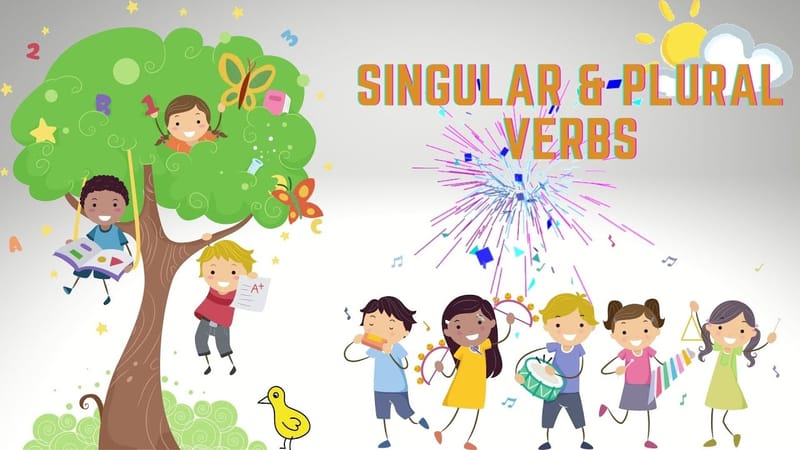
Understanding the distinction between singular and plural verbs is important in mastering English language fluency. A common challenge for non-native English speakers, the correct usage of singular and plural verbs hinges primarily on subject-verb agreement.
The following table shows the difference:
### Singular Verb
### Plural Verb
Relates to a single subject
Relates to multiple subjects
Examples: walks, sleeps, eats
Examples: walk, sleep, eat
The rule is fairly straightforward. A singular verb accompanies a singular subject. While a plural verb pairs with a plural subject. For instance:
* Gayathri (singular subject) loves (singular verb) biryani.
* The children (plural subject) play (plural verb) cricket in the park.
Here are the key differences summarised for you:
1. **Subject relationship:** Singular verbs correspond with single entities while plural verbs pair with multiple entities or groups.
2. **Endings:** Singular verbs often end in 's' or 'es', whereas plural verbs don’t.
3. **Sentence structure:** In sentences, singular subjects are followed by singular verbs. While plural subjects are accompanied by plural verbs.
4. **Compound Subjects:** When two subjects are joined by 'and', we usually use a plural verb unless the compound subject is considered as one entity. (We'll take a detailed look at compound subjects in the following section.)
Remember these key points while speaking or writing in English and you'll observe a significant boost in your language fluency.
Handling Compound Subjects
--------------------------
Compound subjects refer to instances where two or more nouns or pronouns are connected by conjunctions (like 'and', 'or'). The most important question here is - do they take up singular verbs or plural verbs?
Well, if the compound subjects are connected by 'and', they typically require plural verbs. For example: "Rahul and Meera are attending the conference." The two subjects (Rahul and Meera) joined by 'and' use the plural verb ‘are’ as they are a single unit.
However, when compound subjects are connected by 'or' or 'nor', decide between singular or plural verbs based on the subject closer to the verb. For instance, in the sentence, "Either the manager or his assistants are responsible", 'assistants' is closer to the verb, hence, we use ‘are’ and not 'is'.
Understanding subject-verb agreement including compound subjects can be tricky. But it can be learned with some practice.
Practical Tips For Mastering Singular And Plural Verbs
------------------------------------------------------
Mastering the use of singular and plural verbs can seem daunting. But with regular practice and these actionable tips, you'll be on your way to becoming more confident.
**1\. Understand Subject-Verb Agreement:**
The fundamental rule for using singular and plural verbs is subject-verb agreement. A singular subject takes a singular verb. While a plural subject takes a plural verb. For example, "She dances" (singular) and "They dance" (plural).
**2\. Identify Singular and Plural Nouns:**
Often, the confusion between singular and plural verbs arises from difficulty in distinguishing between singular and plural nouns. Brushing up on your understanding of singular and plural nouns can help you choose the right verb form.
**3\. Beware of Exceptions:**
English has its share of exceptions. Some words like 'news', 'mathematics', and 'physics' are singular even though they end in 's'.
**4\. Compound Subjects:**
When two or more subjects are joined by 'and’, use a plural verb. For instance, "Ahmed and Riaz are going to the market." However, when the compound subject is joined by 'or’ / ‘nor’, the verb agrees with the noun or pronoun closest to it.
**5\. Practice through Real-life Scenarios:**
Use every conversation as an opportunity to practice. Whether you're ordering food at a restaurant or discussing cricket with friends, consciously apply these rules.
Apart from mastering the singular verb and plural verb, there are also many other tips and strategies for you to improve your English fluency. Check out this [Clapingo blog](https://clapingo.com/blog/how-improve-english-speaking-fluency) to know more.
Exercises to Master Singular and Plural Verbs
---------------------------------------------
Let's dive into a few exercises that will help you test your understanding of the subject-verb agreement.
**Exercise 1: Choose the Correct Verb Form**
Select the correct verb form - singular or plural - to complete each sentence.
1. The book (is/are) on the table.
2. My friends (lives/live) in different cities.
3. She (likes/like) to write poems.
4. They (plays/play) cricket every evening.
5. The collection of paintings (is/are) impressive.
**Exercise 2: Fill in the Blanks**
Fill in the blanks with either a singular or plural verb form, as appropriate.
1. The house on the corner \_\_\_\_\_\_\_ for sale.
2. Most of my family \_\_\_\_\_\_\_ vegetarian food.
3. Neither of my parents \_\_\_\_\_\_\_ travelled abroad before.
4. The team \_\_\_\_\_\_\_ ready for their presentation today.
5. A group of boys \_\_\_\_\_\_\_ playing football near my house.
**Exercise 3: Correcting Errors**
Identify and correct any errors in subject-verb agreement in these sentences:
1. My dogs is very playful.
2. Is there any books left?
3. His phone are on the table.
4. Each of these problems seems difficult at first, but they are actually quite easy!
5. Either my brother or his friends shops at this store regularly.
**_Answers:_**
Exercise 1: 1. is, 2. live, 3. likes, 4. play, 5. is
Exercise 2: 1. is, 2. prefers, 3. has, 4. is, 5. are
Exercise 3:
1. My dogs are very playful.
2. Are there any books left?
3. His phone is on the table.
4. Each of these problems seems difficult at first, but it is actually quite easy!
5. Either my brother or his friends shop at this store regularly.
To gain more practice and enhance your command over singular and plural verbs, explore worksheets and exercises available online.
How Clapingo Can Support Your Journey
-------------------------------------
Clapingo's personalized coaching sessions make learning singular and plural verbs easier. Our expert tutors teach English grammar rules through real-world examples, making lessons relatable and effective.
These sessions help you understand subject-verb agreement and practice using singular and plural nouns in conversation. You will practice with native English speakers, learning correct usage and different accents.
Clapingo offers flexible scheduling to fit your pace. It suits working professionals and students alike. With Clapingo, you can master singular and plural verbs effectively.
Want to see Clapingo tutors in action? Check out these [session videos](https://www.youtube.com/playlist?list=PL2uSif5Lcfbg1zhrNmPWO1uyorZu5R3AK) from Clapingo's YouTube channel.
A Quick Recap
-------------
Knowing how to use singular and plural verbs correctly is key to mastering English. This involves making sure singular subjects have singular verbs, and plural subjects have plural verbs.
For example, "She dances well" shows a singular subject with a singular verb. "They dance well" shows a plural subject with a plural verb.
Remember, some group nouns like "team" use a singular verb, as in "The team is playing well." Because 'the team' is considered a single unit.
We also discussed compound subjects. When subjects are joined by 'and', use a plural verb: “Ravi and Ritu are going to the conference.” If linked by 'or' or 'either/or', match the verb to the subject closest to the verb: “Either my brother or my sisters are doing laundry.”
Following these examples daily can improve your English. Practice regularly to gain confidence and grow personally and professionally.
[Clapingo](https://clapingo.com) can help you learn these rules through personalized coaching. Every lesson moves you closer to fluency. Keep learning and practicing with Clapingo’s support. Start this exciting journey to master English today!
FAQs
----
**1\. What is the difference between singular verbs and plural verbs?**
Singular verbs are used when the subject of a sentence is singular, like a single person or thing, whereas plural verbs are used when the subject is more than one person or thing. For instance, 'Raj reads a book' (singular verb) versus 'Raj and Anjali read books' (plural verb).
**2\. How do I know if a verb is singular or plural?**
In English grammar, most verbs become singular when they end in '-s' or '-es'. For example, 'He plays football.' On the other hand, if there's no '-s' or '-es' at the end of the verb, it's usually plural. For instance, 'They play football.'
**3\. What happens when there's a compound subject in a sentence?**
A compound subject is when two or more subjects are joined by 'and' or 'or'. With 'and', we usually use plural verbs as we're referring to multiple entities like 'Raj and Anjali are friends.' But with 'or', it’s crucial to look at the subject closer to the verb for correct subject-verb agreement: ‘Either Raj or his friends are coming.’
**4\. Do words like ‘everyone’ and ‘someone’ take singular or plural verbs?**
Despite referring collectively to many individuals, words like everyone, someone, nobody, etc., are considered singular nouns and take singular verbs. Example: ‘Everyone is responsible for their own luggage.’
---
This blog is powered by Superblog. Visit https://superblog.ai to know more.
---
## Voice in Action: Understanding Active and Passive Voice Rules
Author: Unknown
Published: 2024-05-07
Meta Title: Learning the Active and Passive Voice Rules: A Quick Guide.
Meta Description: Understand the rules of active and passive voice to improve your English. Our guide is tailored for Indian learners striving for language mastery.
Tags: active voice rules chart, active vs passive voice rules , active passive voice rules , passive voice rules chart
URL: https://clapingo.com/blog/active-passive-voice-rules
Contents
* [Understanding Active and Passive Voice](#understanding-active-and-passive-voice)
* [Rules of Active Voice](#rules-of-active-voice)
* [Understanding Passive Voice](#understanding-passive-voice)
* [Converting Active Voice to Passive Voice](#converting-active-voice-to-passive-voice)
* [Converting Passive Voice to Active Voice](#converting-passive-voice-to-active-voice)
* [Common Mistakes in Using Active and Passive Voice](#common-mistakes-in-using-active-and-passive-voice)
* [Active vs Passive Voice: When to Use Which?](#active-vs-passive-voice-when-to-use-which)
* [Practice Exercises for Active and Passive Voice](#practice-exercises-for-active-and-passive-voice)
* [Clapingo's Approach to Mastering Active and Passive Voice](#clapingos-approach-to-mastering-active-and-passive-voice)
* [In A Nutshell](#in-a-nutshell)
* [FAQs](#faqs)
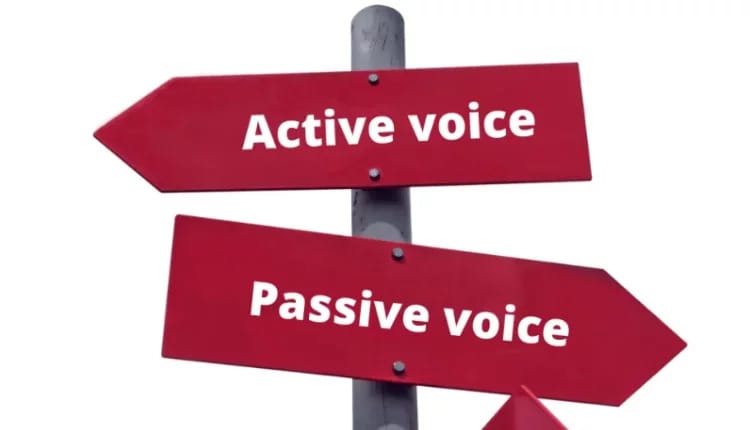
Understanding and using active and passive voice rules is crucial for effective English communication. It improves both spoken and written expressions.
However, mastering these rules can be challenging, especially for non-native speakers. Switching between active and passive voice can feel overwhelming, especially with the differences between Indian languages and the English language.
But don't worry; you can overcome this challenge with the right guidance. Platforms like Clapingo are here to help. We understand the struggles of Indian English learners and are dedicated to making English grammar easier for you.
This blog post simplifies active and passive voice usage. It will explain complex concepts with practical examples relevant to everyday contexts.
Let's get started on this English language journey that will make you a confident communicator in no time!
Understanding Active and Passive Voice
--------------------------------------
The path to fluent English includes learning some crucial concepts like active and passive voice. So, let's dive right into it!
* Active voice is a way of constructing sentences where the subject performs the action. It gives your sentence a direct, strong, and clear tone. For example: "Rahul ate an apple." Here, Rahul (the subject) performed the action of eating.
* On the other hand, passive voice is a sentence construction where the object of an action becomes the subject of the sentence. It's used to focus on what happened more than who did it. Using our previous example in passive voice would be: "The apple was eaten by Rahul."
To further clarify these concepts, let's look at a comparison table:
**Active Voice**
**Passive Voice**
The subject performs action
The object receives action
Sentence: Rahul ate an apple
Sentence: The apple was eaten by Rahul
Focus: On who is doing
Focus: On what is being done
Remember that neither form is incorrect; they are simply used in different contexts. However, active voice tends to be more engaging and straightforward.
Let's consider some additional examples:
* Active: Shreya cooked dinner.
* Passive: Dinner was cooked by Shreya.
* Active: Mahesh closed the door.
* Passive: The door was closed by Mahesh.
For visual learners, here's a quick Clapingo video explaining the difference between the two voices:
Rules of Active Voice
---------------------
The active voice in English breathes life into your sentences. It makes them more dynamic and engaging. Understanding its rules can significantly enhance your spoken English skills.
Firstly, an active voice sentence follows the structure: **Subject - Verb - Object**. Here, the subject is the doer of the action (verb). And the object receives the action. For instance, in the sentence "Ravi ate an apple," Ravi is the subject, 'ate' is the verb, and 'an apple' stands as the object.
Secondly, verbs play a significant role in active voice sentences. The verb must be an action verb indicating something that can be done, like eat, play, or sing. Also, it must match the subject in terms of number and tense.
Thirdly, remember that not all sentences will have a clear object. Some verbs may not require one. For example, "Geeta sleeps early."
Now let's consider some examples of active voice for better comprehension:
* Rahul writes a letter. (Subject: Rahul; Verb: writes; Object: a letter)
* The girls are playing football. (Subject: The girls; Verb: are playing; Object: football)
* I read the newspaper every morning. (Subject: I; Verb: read; Object: Newspaper)
Understanding Passive Voice
---------------------------
The passive voice is one of the essential elements in the English language, and mastering it can significantly improve your communication skills. It's often used when the focus is on the action rather than who or what is performing the action. Here's a breakdown of its rules:
**Rule 1:** The passive voice structure: **Object + Be + Past Participle**. The focus shifts from the 'doer' to the action done.
* Active: Ram painted the wall.
* Passive: The wall was painted by Ram.
**Rule 2:** The tense of the verb 'be' matches with that of the main verb in active voice.
* Active: She will finish her work.
* Passive: Her work will be finished by her.
**Rule 3:** For transitive verbs (verbs that take an object), use the passive voice to shift focus to the object.
* Active: Kids love ice cream.
* Passive: Ice cream is loved by kids.
Remember, using active and passive voice correctly reflects your understanding of English grammar and enhances your communication skills.
Converting Active Voice to Passive Voice
----------------------------------------

Understanding how to convert sentences from active to passive voice is a crucial part of mastering English grammar. This skill can help you add variation and depth to your writing or speaking. In an active sentence, the subject performs the action. While in a passive sentence, the subject is acted upon.
In essence, to convert an active voice sentence into passive voice, you need to follow three simple steps:
1. Make the object of the active sentence into the subject of the passive sentence.
2. Add an appropriate form of verb "be" (is, am, are, was, were) + past participle of the main verb.
3. Move the subject of the active sentence after the verb and add "by".
Let's look at this rule in action with a few examples:
### **Active Voice**
### **Passive Voice**
Ram reads a book.
A book is read by Ram.
I made a mistake.
A mistake was made by me.
The cat chased the mouse.
The mouse was chased by the cat.
Converting Passive Voice to Active Voice
----------------------------------------
Just as we learned how to convert from active to passive voice, understanding how to transform sentences from passive back to active voice is equally important. It adds clarity and conciseness to your speech or writing.
To convert a passive voice sentence into active voice:
1. Make the object after "by" into the subject of your new sentence.
2. Follow with your main verb from your original sentence.
3. End with what used to be your subject in your original sentence.
Here are some passive voice examples that are turned to active voice:
**Passive Voice**
**Active Voice**
A letter is written by Rita.
Rita writes a letter.
The cake was eaten by the children.
The children ate the cake.
The game was won by the team.
The team won the game.
Common Mistakes in Using Active and Passive Voice
-------------------------------------------------
Learning a new language, especially English, can be difficult when it comes to mastering voice rules such as active and passive voice usage. Here are some common mistakes non-native English speakers often make:
**1\. Incorrect verb form:**
For instance, saying "The cake was eat by him" instead of "The cake was eaten by him."
**2\. Inappropriate usage:**
Using the passive voice where the active would be more effective – "The keys were lost by me" as opposed to "I lost the keys."
**3\. Overcomplicating sentences:**
Unnecessary use of the passive voice can lead to awkward phrasing – "It has been observed that he is always late" instead of simply stating, "He is always late."
Let's tackle these hurdles with some practical tips:
* It may sound obvious and repetitive, but practice makes perfect. Practice recognizing and using correct verb forms in both active and passive sentences. You can also use visual aids like an active passive voice rules chart to help you along.
* Keep it simple. Whenever possible, use the active voice for clarity and brevity.
* Know your subject. In situations where you want to emphasize the object or action expressed over who performed it, opt for the passive voice.
Now let's see how these play out in dialogues:
Correct: "She baked a cake." (Active Voice)
Incorrect: "A cake was baked by her." (Unnecessary use of Passive Voice)
Correct: "A beautiful mural was painted on the wall." (Passive Voice)
Incorrect: "Someone painted a beautiful mural on the wall." (Unneeded information in Active Voice)
Active vs Passive Voice: When to Use Which?
-------------------------------------------
Mastering active and passive voice rules can enhance your English speaking skills significantly. To ensure you use each correctly, here are some guidelines:
* Use active voice when you want to emphasize who is performing an action or when the doer's identity is important.
* Use passive voice when you want to highlight the action or object, or when the doer is unknown or irrelevant.
Let's consider some examples:
Active - "The dog chased the cat." (Emphasis on who is doing the action)
Passive - "The cat was chased by the dog." (Emphasis on what was done)
To solidify this understanding, let's look at some relatable scenarios:
* Buying groceries: In active voice, you might say "I bought vegetables from the market." In passive voice, you'd say "Vegetables were bought from the market by me."
* Watching a cricket match: You could say in active voice, "Sachin hit a six!" whereas in passive voice, you'd say "A six was hit by Sachin!"
Remember, neither voice is 'better' than the other. The key is to understand when each can be most effectively used. Active voice is generally recommended as it is direct and bold.
So go ahead, start experimenting with these guidelines in your daily conversations, and see your English communication skills soar!
Practice Exercises for Active and Passive Voice
-----------------------------------------------
Let's put your understanding of the concept into practice with a few exercises.
**Exercise 1: Convert from Active to Passive Voice**
1. She eats an apple.
2. The teacher explains the lesson.
3. The dogs chased the cat.
4. They painted the house green.
5. We celebrated his birthday.
**Exercise 2: Convert from Passive to Active Voice**
1. The song was sung by her.
2. A letter was written by me.
3. The match was won by our team.
4. The windows were cleaned by the workers.
5. The cake was baked by Grandma.
**Exercise 3: Identify whether the sentence is in Active or Passive Voice**
1. The email was sent by him.
2. She dances gracefully.
3. We were invited to their wedding.
4. I solve puzzles during my free time.
5. Dinner is being cooked by Mother.
Now, check your answers below:
**_Answers_**
Exercise 1:
1. An apple is eaten by her.
2. The lesson is explained by the teacher.
3. The cat was chased by the dogs.
4. The house was painted green (by them).
5. His birthday was celebrated (by us).
Exercise 2:
1. She sang the song.
2. I wrote a letter
3. Our team won the match
4. The workers cleaned windows
5. Grandma baked the cake
Exercise 3:
1. Passive
2. Active
3. Passive
4. Active
5. Passive
Clapingo's Approach to Mastering Active and Passive Voice
---------------------------------------------------------
Mastering grammar can be tough, especially for non-native English speakers. Whether you need help with voices in past tense and future tense or understanding the [difference between intransitive and transitive Verbs](https://clapingo.com/blog/intransitive-verb-vs-transitive-verb), Clapingo makes it easier with personalized coaching.
We know everyone learns differently, so our sessions are customized to your style, speed, and language level. Our tutors simplify complex theories into easy concepts, focusing on hands-on learning through exercises and real-life situations.
We emphasize not just theory but also practical usage. You'll learn when to use active voice for direct impact and when to use passive voice for subtlety or politeness, vital for both writing and speaking English well.
Listen to what our users have to say and decide for yourself. Here are some testimonials from Clapingo users.
Why Choose Clapingo:
Dipali's Journey:
Give your English language skills a boost with Clapingo's personalised coaching sessions!
In A Nutshell
-------------
Navigating English grammar may feel overwhelming, but it's a journey, not a race. You've made progress in understanding active and passive voice rules, and practicing will reinforce this knowledge.
In this post, we've explained active and passive voice, where the subject and object switch places. Passive voice is identified by auxiliary verbs like "is," "am," "are," "was," and "were" with past participles, often used when the doer is unknown or unimportant.
We've outlined the steps to change from active to passive voice: identify the subject, verb, and object in an active sentence, then move the object to the subject position in a passive sentence. 'By' is used before mentioning the doer in passive sentences.
Practice with everyday examples is crucial. Books or newspapers offer good practice material. For more grammar help, check out the roundup of grammar guides on [Clapingo’s blog](https://clapingo.com/blog).
At [Clapingo](https://clapingo.com), we're dedicated to helping non-native English speakers improve fluency, pronunciation, vocabulary, and sentence structure. Mastering each rule gets you closer to fluent English. Keep practicing, and remember, every expert was once a beginner!
FAQs
----
**1\. What is the key difference between active and passive voice?**
In an active voice sentence, the subject does the action, while in a passive voice sentence, the subject receives the action. For example, Active: "Ravi ate an apple." (Ravi is doing the action), Passive: "The apple was eaten by Ravi." (The apple receives the action).
**2\. Why should I learn about active and passive voice rules?**
Mastering active and passive voices enhances your English skills, enabling you to express ideas with greater clarity and variety. It also helps in understanding written texts better, particularly in academic or formal contexts where passive voice is often used.
**3\. Can a sentence be both in active and passive voice?**
No, a single sentence cannot be both in active and passive voice at once - it's either one or the other. However, within larger chunks of text, individual sentences can alternate between these two voices as per the requirements of expression.
**4\. How can I convert an active sentence into a passive one?**
To convert an active sentence to a passive one, move the object to the beginning of the sentence and use appropriate form of 'be' + past participle of main verb. For instance, "She paints beautiful portraits" (active) becomes "Beautiful portraits are painted by her" (passive).
---
This blog is powered by Superblog. Visit https://superblog.ai to know more.
---
## In the Midst of Choice: Among versus Amongst
Author: Unknown
Published: 2024-05-07
Meta Title: Understanding Usage of 'Among' vs 'Amongst' - A Guide
Meta Description: Explore the difference between 'among' and 'amongst'. Learn about their usage in British and American English to improve your English skills.
Tags: Among vs Amongst Meaning, Among vs Amongst example, Among vs Amongst difference, Among vs Amongst definition
URL: https://clapingo.com/blog/among-vs-amongst
Contents
* [What Do 'Among' and 'Amongst' Mean?](#what-do-among-and-amongst-mean)
* [Understanding 'Among' and 'Amongst'](#understanding-among-and-amongst)
* [When Should You Use Among Vs Amongst?](#when-should-you-use-among-vs-amongst)
* [Among Vs. Amongst in UK and US English](#among-vs-amongst-in-uk-and-us-english)
* [Common Mistakes While Using 'Among' and 'Amongst'](#common-mistakes-while-using-among-and-amongst)
* [How Clapingo Can Support Your English Language Learning Journey](#how-clapingo-can-support-your-english-language-learning-journey)
* [To Sum Up](#to-sum-up)
* [FAQs](#faqs)
* [You may want to read.](#you-may-want-to-read)

Ever been writing an email to your team and got stuck. Maybe deciding if you should use "the responsibility is shared among us" or "the responsibility is shared amongst us"? You're not alone, and this post is here to help.
We'll clear up the confusion between 'among' and 'amongst'. Though it might seem small, getting it right can improve your communication in English. We'll look at the difference between the two, provide examples, and explain when to use among vs amongst.
By the end of this post, you'll know how to use 'among' and 'amongst' correctly, helping you speak and write English more confidently. Let's get started!
What Do 'Among' and 'Amongst' Mean?
-----------------------------------
'Among' and 'Amongst' are words that connect nouns to other parts of a sentence. Both mean being in the middle of or surrounded by something, showing a kind of group connection.
For instance:
* Among: _"I found my phone among the books on my desk."_
* Amongst: "_He felt at ease amongst his friends."_
Here, 'among' and 'amongst' mean being surrounded by things or people. The choice between them today is mainly about style.
Understanding 'Among' and 'Amongst'
-----------------------------------
Here are some points on using 'among' and 'amongst':
* Use them when talking about three or more things.
* 'Among' is more common today.
* 'Amongst' sounds more formal or old-fashioned.
For example:
1. Sharing snacks with friends, you might say: “_The samosas were shared among all guests._”
2. In a story from the Mughal era, it might read: “_The prince walked amongst his loyal subjects._”
When Should You Use Among Vs Amongst?
-------------------------------------
Thinking over among vs amongst usage? The choice between these words depends largely on the context. Although both indicate being surrounded by or in the company of others, 'among' is often used in modern English. While 'amongst' resonates with traditional, poetic, or formal contexts.
Let's illustrate this with dialogue snippets:
1. _Ravi found himself among friends at the party._
2. _She was amongst the first to arrive at the meeting._
The among vs amongst difference lies subtlely in their vibes. 'Among' sounds more casual and contemporary, while 'amongst' feels formal or even old-fashioned.
**Word**
**Scenario**
**Usage**
Among
Casual conversation
"He sat among his colleagues."
Amongst
Formal writing or speech
"She is amongst those shortlisted for the prize."
This shows how the setting can change which word you use. For more tips on using words like these, check out the [Clapingo blog](https://clapingo.com/blog).
Among Vs. Amongst in UK and US English
--------------------------------------
To define among vs amongst, it's crucial to consider geography. British English often leans towards 'amongst', whereas American English prefers 'among'.
For instance:
* British: _The Queen distributed presents amongst her grandchildren._
* American: _The President moved among the crowd._
However, remember that these are general tendencies rather than firm rules!
When looking at among vs amongst grammar, remember that both are prepositions giving a sense of being part of a larger group. Understanding this improves your overall grasp on among vs amongst meaning.
Common Mistakes While Using 'Among' and 'Amongst'
-------------------------------------------------

Non-native English speakers frequently mix up 'among' and 'amongst.' Here are some common errors:
1. **Interchangeable usage:**
Many believe these two words can be swapped at will. This is not entirely correct. While they have similar meanings, 'amongst' is used more in British English and is viewed as more formal.
2. **Incorrect preposition choice:**
When unsure, some learners use neither among nor amongst. They replace them with other prepositions like between or around. This can lead to grammatical errors.
3. **Misuse with singular nouns:**
Both 'among' and 'amongst' should be used with plurals or groups of people or things. Using them with singular nouns is a mistake.
To avoid these mistakes, remember to practice among vs amongst usage correctly. Use them for indicating relationships within a group, stick to 'among' for a casual or American context and use 'amongst' when writing formally or in British English.
How Clapingo Can Support Your English Language Learning Journey
---------------------------------------------------------------
Understanding the among vs amongst difference can boost your confidence while speaking or writing English. It's details like these that matter when you're striving for fluency and clarity of expression.
At Clapingo, we offer personalized coaching sessions to help you navigate these subtleties of the language. Our qualified tutors focus on improving your understanding and application to improve your personal and professional interactions.
We believe in learning at your own pace, so our sessions are adaptable to suit your comfort level. Whether you are a working professional or a student, Clapingo can be your guide.
To Sum Up
---------
We explored 'Among vs Amongst' and they mean similar things. Both "among" and "amongst" show when something is with others or part of a group.
However, 'among' is more popular today, especially in India. 'Amongst' is often used in older texts, formal writing, and British English. Knowing the difference helps improve your confidence. Try to use both words in conversations to get comfortable with them.
Practising is key to learning any language, and you don't have to struggle to practice.
[Clapingo](https://clapingo.com/) offers coaching sessions for non-native speakers to help with words like 'among' and 'amongst.' With Clapingo, you can learn more about English grammar and vocabulary in a way that's customised for you. Join us on this learning journey to become a better English speaker!
FAQs
----
**1\. Is there a difference between 'among' and 'amongst'?**
Both 'among' and 'amongst' are prepositions that indicate sharing or distribution. However, the difference between them lies in their usage and preference. 'Among' is more commonly used in modern English, especially American English. While 'amongst' tends to be preferred in British English.
**2\. Can I interchangeably use 'among' and 'amongst'?**
Yes, you can interchangeably use 'among' and 'amongst'. But it's essential to understand the context and the regional preferences. For instance, if you're speaking with an American audience, you might want to use 'among'. But with a British crowd, you might prefer using 'amongst'.
**3\. When should I use 'among' or 'amongst'?**
You can use both these prepositions when referring to three or more things in a non-specific way. The choice between them often comes down to stylistic preference or regional norms. Although either choice will generally be understood by English speakers worldwide.
### **You may want to read.**
[Top 35 Books To Help You With English Learning](https://clapingo.com/blog/english-learning-books)
---
This blog is powered by Superblog. Visit https://superblog.ai to know more.
---
## Crack the Code of Complex Tenses: Mastering Past Perfect Continuous Tense
Author: Unknown
Published: 2024-05-02
Meta Title: Mastering Past Perfect Continuous Tense: The Ultimate Guide
Meta Description: Get a complete understanding of the past perfect continuous tense. Boost your English fluency with practical examples, tips and exercises.
Tags: Past Perfect Continuous Tense, Past Perfect Continuous
URL: https://clapingo.com/blog/past-perfect-continuous-tense
Contents
* [Understanding the Basics: What is Past Perfect Continuous Tense?](#understanding-the-basics-what-is-past-perfect-continuous-tense)
* [Rules that Govern Past Perfect Continuous Tense](#rules-that-govern-past-perfect-continuous-tense)
* [Common Errors & How to Avoid Them?](#common-errors-and-how-to-avoid-them)
* [1\. Overusing the tense:](#1-overusing-the-tense)
* [2\. Incorrect formation of the tense:](#2-incorrect-formation-of-the-tense)
* [3\. Confusing past perfect with past perfect continuous:](#3-confusing-past-perfect-with-past-perfect-continuous)
* [4\. Misplacing time expressions:](#4-misplacing-time-expressions)
* [5\. Omitting additional information:](#5-omitting-additional-information)
* [Incorporating Past Perfect Continuous Tense in Daily Conversations](#incorporating-past-perfect-continuous-tense-in-daily-conversations)
* ['Past Perfect' vs 'Past Perfect Continuous': When to Use Which?](#past-perfect-vs-past-perfect-continuous-when-to-use-which)
* [Present Perfect Continuous Tense:](#present-perfect-continuous-tense)
* [The Practical Approach to Mastering Past Perfect Continuous Tense](#the-practical-approach-to-mastering-past-perfect-continuous-tense)
* [The Way Forward: How Clapingo Can Help?](#the-way-forward-how-clapingo-can-help)
* [Key Takeaways](#key-takeaways)
* [FAQs](#faqs)
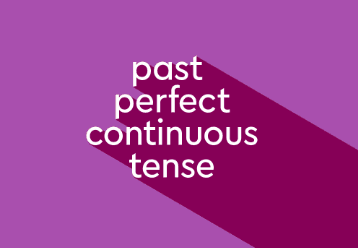
Imagine you have been reading a novel for two hours before your friend called. Or, you had been cooking a delicious butter chicken recipe for several hours till the guests finally arrived. Can you describe these events in English accurately? These are situations where actions started before a particular time in the past and were still in progress up to that time. The past perfect continuous tense is an excellent way to express such situations.
Understanding different tenses in English is crucial for effective communication. It gives clarity, accuracy and richness to your language by expressing actions correctly with respect to time. Whether you're talking at work or just chatting with friends, being good with tenses can make you better at speaking English.
In this blog post, we'll explore the past perfect continuous tense in detail. We'll explain how it's formed and when to use it, and give examples that relate to everyday situations. Our aim is to help you become skilled and confident in using this tense when speaking English. Let's begin our journey of mastering another part of the English language!
Understanding the Basics: What is Past Perfect Continuous Tense?
----------------------------------------------------------------
The past perfect continuous tense, also known as the past perfect progressive tense, is a key aspect of English grammar. This specific tense denotes an action that started and continued in the past up to another point in the past. It's constituted of two key parts - 'had been' (the auxiliary verb) and the present participle (-ing form of the main verb).
Now, when do we use this interesting tense? Let's understand through some common situations:
* To express an action that began in the past and was ongoing till another action occurred.
* When explaining a cause or reason for a past event.
* For describing situations or habits that were true for some time in the past.
Here are some sample sentences for each of these situations:
1. I had been living in Delhi before I moved to Mumbai.
2. She felt exhausted because she had been working all night.
3. He had been smoking for years before he decided to quit.
These examples will help you get a clearer picture of how to use this tense appropriately in diverse scenarios.
Rules that Govern Past Perfect Continuous Tense
-----------------------------------------------
Past perfect continuous or past perfect progressive is an advanced tense. It often causes confusion among non-native English speakers. Grasping the rules can be challenging, but with practice, you'll find it easier to use. The primary grammatical rule for this tense is that it's formed using the auxiliary verb "had been" followed by the present participle (-ing form) of the main verb. This is then followed by any additional information.
The structure is quite simple:
### Subject
### Auxiliary Verb "had been"
### Present Participle (Main Verb -ing)
### Additional Information
I
had been
studying
for two hours
She
had been
waiting
at the bus stop
They
had been
working
on the project
He
had been
living
in that city
She
had been
playing
outside
Let's see some more examples:
1. I had been working on the project for three months when my boss appreciated my efforts.
2. She had been practising English with Clapingo before she aced her job interview.
3. She had been attending class for two hours, waiting long before she finally asked a question.
4. She had been attending class for five minutes when the teacher began explaining the structure of verb tenses.
5. "She hadn't been sleeping for very long when the alarm clock rang." (negative sentence)
These sentences imply an ongoing action in the past that continued up until another action or a specific time.
Keep practising these rules and examples to get a strong grip on the past perfect continuous tense. Over time, you’ll find that being aware of this tense not only enhances your sentence construction but also enriches your conversations.
Common Errors & How to Avoid Them?
----------------------------------
Even if you try really hard, you might still make mistakes when using the past perfect continuous tense. Here are some common errors non-native English speakers make and some practical tips to help you avoid them:
### 1\. Overusing the tense:
You shouldn't overcomplicate your sentences by using the past perfect continuous when the simple past tense would work.
* Incorrect: "When I arrived, he had been waiting for me."
* Correct: "When I arrived, he was waiting for me."
### 2\. Incorrect formation of the tense:
Make sure to use the auxiliary verb "had been" and the present participle.
* Incorrect: "She had been study all night."
* Correct: "She had been studying all night."
### 3\. Confusing past perfect with past perfect continuous:
Understand that past perfect and past perfect continuous tenses serve different purposes. The former is used for completed actions while the latter emphasises duration.
* Incorrect: "By the time she finally arrived, they had been left."
* Correct: "By the time she finally arrived, they had left."
### 4\. Misplacing time expressions:
With this tense, placement matters! Time expressions should correctly show a duration leading up to a specific point in the past.
* Incorrect: "When I visited, he had been living in that city for two years ago."
* Correct: "When I visited, he had been living in that city for two years."
### 5\. Omitting additional information:
Always remember to include relevant details about duration, location, or circumstances for clarity.
* Incorrect: "They had been playing."
* Correct: "They had been playing outside for hours when it started raining."
To avoid these errors, practice writing sentences using this tense and checking them against examples.
Incorporating Past Perfect Continuous Tense in Daily Conversations
------------------------------------------------------------------
Adding the past perfect continuous tense to your daily conversations can significantly improve your English speaking skills and fluency. Let's take a look at some real-life scenarios.
* **Chatting with a Friend:** When you're catching up with an old friend, you might say, "We had been talking for hours before we realised it was midnight!" This sentence uses the past perfect continuous form to express an action that started and continued up until another action in the past.
* **In a Professional Meeting:** You could use this tense while discussing a task or project at work. For example, "By the time we finished, we had been working on that proposal for seven hours!"
* **At School or College:** When describing how long you studied for an exam, you could say, "I had been studying for three weeks before the final exam."
* **Narrating Past Events:** When sharing old memories or events, this tense comes in handy. Example: "The rain had been pouring down heavily since morning when we decided to cancel the picnic."
For more examples and ways to integrate tenses into your conversations, check out Clapingo's YouTube video. It provides practical dialogue snippets showcasing its usage in different scenarios.
'Past Perfect' vs 'Past Perfect Continuous': When to Use Which?
---------------------------------------------------------------
Both the past perfect and past perfect continuous tenses reflect actions in the past. But, the past perfect continuous form adds an emphasis on the duration or course of that action.
Let's take a look at when to use each:
* **Past Perfect:** Use the past perfect tense to talk about a completed action before another point in the past. This verb tense has non-continuous meanings and uses non-continuous verbs. The past participle form of the verb (V3) is used here.
* Example: "She had finished her work by 5 pm."
* **Past Perfect Continuous:** Use the past perfect continuous tense to express an action that started in the past and continued until another action or time in the past.
* Example: "She had been teaching since morning."
Here's a comparison table that might help clarify things:
**Tense**
**Usage**
**Verbs**
**Example**
Past Perfect
Talk about completed actions before another point in the past
Had + Non-continuous verbs (V3)
She had finished her work when he arrived.
Past Perfect Continuous
Express actions that started and continued up until another time or action in the past
Continuous verb (-ing)
She had been working when he arrived.
Let us also look at another similar tense.
### Present Perfect Continuous Tense:
The present perfect continuous tense is used to describe actions that started in the past and are still continuing in the present. For example, "She has been resting for two hours as she was tired." This indicates that the action of rest by the subject started in the past and is still ongoing in the present.
By remembering these differences, you'll be able to choose the right tense for every situation, enhancing your English communication skills.
Try creating your own sentences using perfect and perfect continuous tenses, paying attention to their unique uses and structures.
The Practical Approach to Mastering Past Perfect Continuous Tense
-----------------------------------------------------------------
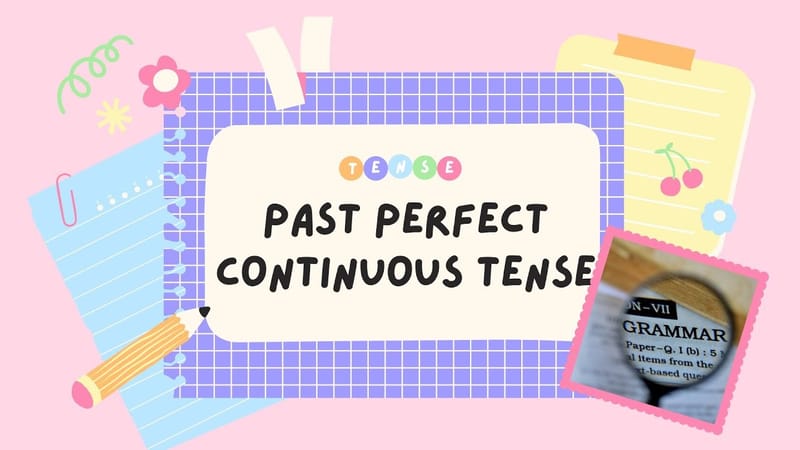
Are you ready to put your knowledge into practice? Let's look at some exciting exercises that will help you grasp the tense more effectively.
**Exercise 1: Fill in the blanks.**
1\. He \_\_\_\_\_ (play) cricket for two hours when it started raining.
2\. They \_\_\_\_\_\_ (study) for their exams since morning, so they felt exhausted.
3\. She \_\_\_\_\_\_\_ (wait) for her friend at the café for over an hour before she arrived.
**Answers:**
1\. had been playing
2\. had been studying
3\. had been waiting
**Exercise 2: Choose the grammatically accurate sentence.**
1a. I had been reading this book since two weeks.
1b. I had been reading this book for two weeks.
2a. We had been training for the marathon when it was postponed.
2b. We were training for the marathon when it was postponed.
**Answers:**
1b, 2a
Finally, let's look at how this tense can be used in everyday situations.
**Situation 1: At a family gathering**
a) Uncle Ravi says, "I had been learning classical music for three years before I performed on stage." Here, Uncle Ravi used past perfect continuous to show an action that started in the past and continued up until a certain point in the past.
b) Imagine you're talking with a friend about a cricket match you both watched yesterday. You might say, "Sachin Tendulkar had been playing brilliantly until he got out."
**Situation 2: In a professional setting**
a) Imagine you're presenting a report at work and say, "Our team had been working on this project for six months before we achieved these results." This sentence shows how this tense can be effectively used to express the duration of an action until an exact moment in the past in a professional context.
b) In a job interview, when asked about your previous role, you could respond with, "I had been managing a team of five people before I decided to look for a new opportunity."
Mastering this tense might seem challenging initially, but with consistent practice and the usage of examples in sentences, you'll certainly get there.
The Way Forward: How Clapingo Can Help?
---------------------------------------
Mastering the past perfect continuous tense, like other grammar rules, depends on practice and expert guidance. Engaging in activities such as reading English books or watching English movies can help you naturally understand how tenses work in different situations. Additionally, including English in your daily conversations will help you understand this tricky verb tense even better.
However, to truly excel in your language journey, a structured learning environment is important. Here's where Clapingo steps in with its personalised coaching sessions. Clapingo's expert tutors tailor each lesson to your specific needs, focusing on challenging areas like the past perfect continuous tense.
The one-on-one coaching sessions provide targeted practice and immediate feedback. It enables you to find errors on the spot and gain confidence in using the tense accurately. With Clapingo by your side, mastering complex grammar structures becomes an easy goal.
For additional tips on enhancing your English skills, check out Clapingo's blog post on [Top 5 Ways to Hone Your English Speaking Skills](https://clapingo.com/blog/top-ways-practice-english-speaking)[.](https://www.clapingo.com/blog/top-5-ways-to-hone-your-english-speaking-skills\).)
Clapingo's YouTube series on tenses also offers quick recaps and exercises on various tenses including the past perfect continuous tense. You can access them here:
[Tenses- Crash Course](https://www.youtube.com/playlist?list=PL2uSif5LcfbhvIV_H_jhazyXnHEUJZQj4)
Key Takeaways
-------------
As we wrap up, let's revisit the key points from our journey through the past perfect continuous tense. This tense is formed with the auxiliary verb 'had been' and a present participle. It is used to describe an ongoing action that occurred before another event in the past. For instance, "She had been living in Delhi for five years before she moved to Mumbai."
One of the key advantages of mastering this tense is that it enhances your English fluency, allowing you to express complex thoughts accurately. Remember, mistakes are stepping stones on your path to learning and mastering English. It's perfectly fine to make mistakes as you learn - many English speakers also do so occasionally! Be patient with yourself and continue practising.
To further improve your English skills, explore the wealth of resources provided by Clapingo. With one-on-one coaching sessions and a structured course tailored for non-native speakers, Clapingo can help you bridge gaps in your English language journey.
So keep practising, keep exploring and keep improving. The world of fluent English communication awaits you!
FAQs
----
**1\. What is the difference between past perfect continuous and present perfect continuous tense?**
Past perfect continuous suggests that an action started and continued until a moment in the past. The present perfect continuous refers to actions that started in the past and are still happening now.
**2\. How do I use past perfect continuous for interrupted actions?**
Use it to describe actions that were ongoing but were interrupted at a specific moment in the past, like "She had been waiting for three hours when the phone rang."
**3\. What's the meaning of negative sentences in past perfect continuous tense?**
Negative sentences in this tense indicate that an action hadn't been happening before a certain period in the past. For example "She hadn't been resting for an hour before she fell asleep."
**4\. How long should an action have been going on to use past perfect continuous?**
There is no prescribed time for deciding this. It's typically used for actions that have been going on for a period of time before another past action or moment. For example, "She had been waiting for an hour when he finally arrived."
---
This blog is powered by Superblog. Visit https://superblog.ai to know more.
---
## Delving into the Depths of Present Perfect Continuous Tense
Author: Unknown
Published: 2024-05-01
Meta Title: Learning the Secrets of Present Perfect Continuous Tense
Meta Description: Explore the Present Perfect Continuous Tense with easy examples. Get practical exercises and simple tips designed for Indian English learners.
Tags: perfect continuous tense, present perfect continuous
URL: https://clapingo.com/blog/present-perfect-continuous-tense
Contents
* [What is Present Perfect Continuous Tense?](#what-is-present-perfect-continuous-tense)
* [When to Use Present Perfect Continuous Tense?](#when-to-use-present-perfect-continuous-tense)
* [How to Construct Sentences Using Present Perfect Continuous Tense?](#how-to-construct-sentences-using-present-perfect-continuous-tense)
* [Examples and Applications of Present Perfect Continuous Tense](#examples-and-applications-of-present-perfect-continuous-tense)
* [Common Mistakes When Using Present Perfect Continuous Tense](#common-mistakes-when-using-present-perfect-continuous-tense)
* [Practising Present Perfect Continuous Tense: Exercises](#practising-present-perfect-continuous-tense-exercises)
* [Tips for Mastering Present Perfect Continuous Tense from Clapingo Experts](#tips-for-mastering-present-perfect-continuous-tense-from-clapingo-experts)
* [In a Nutshell](#in-a-nutshell)
* [FAQs](#faqs)
* [You may want to read.](#you-may-want-to-read)

Understanding English tenses can greatly improve your communication. Today, we'll focus on the present perfect continuous tense, which can be tricky for learners. This tense helps describe actions that started in the past and continue into the present or have just ended, especially in relation to the present moment.
In this blog, we'll break down this tense step by step. We'll cover the use of the auxiliary verb 'have/has', past participle 'been', and the main verb's present participle form – along with their correct usage patterns. By mastering this tense, you'll enhance your English skills and avoid common mistakes.
Follow along as we explore practical examples tailored for Indian learners, making complex grammar easier to grasp. Bookmark this page for future reference on your journey to fluent English!
What is Present Perfect Continuous Tense?
-----------------------------------------
The present perfect continuous tense is also known as the present perfect progressive. This tense allows us to express an action that started in the past and has continued till now. It is often used to emphasise the duration of the action.
The structure of a sentence in this tense typically includes the subject, followed by 'have' or 'has' (the auxiliary verb), then 'been' (the past participle of 'be'), and finally a verb in its present participle form. For example: "_I have been waiting for you._"
So how does this differ from other tenses? In simple present tense, we describe actions happening now or habits. For instance: "_I eat apples._" Here, we're simply stating a fact or a habit.
When we move to the present perfect tense, we're dealing with actions that started in the past and are complete at the time of speaking. But they have relevance to now. An example would be: "_I have eaten an apple_." Here, I'm not eating the apple right now, but my action of eating it impacts the current moment. Maybe someone asked me if I was hungry or if I had had lunch.
But when we use present perfect continuous tense, like "_I have been eating apples_," it implies that I started eating apples at some point in the past and am still doing so now.
Understanding these minor differences between tenses can greatly improve your English fluency and confidence!
When to Use Present Perfect Continuous Tense?
---------------------------------------------
The present perfect continuous tense is a great tool in the English language. Particularly valuable for expressing certain time-specific actions or states. Here are some common situations where you might use this tense:
**1\. Indicating an action that started in the past and continues in the present:**
In this context, we use the present perfect continuous to emphasise the action's duration. For example, "_Aman has been working at this company for five years._" It highlights that Aman started working there in the past and is still working there.
**2\. Describing recently completed actions which have an impact on the present:**
For instance, "_It has been raining, so we can't play cricket today._" Here, it suggests that the rain has recently stopped but its effects (the wet ground) prevent us from playing cricket.
**3\. Expressing repeated actions till now:**
We use present perfect continuous when talking about repeated actions or habits from the past to now. Example: "_Zara has been visiting Jaipur every summer._"
**4\. When you want to emphasise the process of an activity:**
For instance, "_I have been learning Hindi for six months._" This sentence focuses on the ongoing process of learning rather than the outcome or completion.
**5\. Explaining why something is happening now:**
If you wish to explain why a current situation exists or why someone looks/feels/behaves a certain way now, you may use this tense. For instance, "_Why are you so tired?_" "_I have been studying for my exams._"
Understanding when to use present perfect continuous tense can improve your English fluency. In the following section, we'll see in detail how to construct sentences in the said tense.
How to Construct Sentences Using Present Perfect Continuous Tense?
------------------------------------------------------------------
Learning the present perfect continuous tense is like mastering a new recipe. Once you understand the ingredients (syntax) and steps (sentence structures), it's smooth sailing.
The basic formula for this tense is **Subject + have/has + been + present participle (verb+ing) + since/for (if needed) + the rest of the sentence (if needed)**.
Here's a simple 4-step guide for you:
**1\. Auxiliary Verb 'Have':**
Begin your sentence with the subject, followed by the auxiliary verb 'have' or 'has'. 'Have' is used with the subjects I, we, you, and they. 'Has' is used with he, she, and it.
**2\. Auxiliary Verb 'Been':**
After this comes another auxiliary verb - ‘been’.
**3\. Present Participle Form of Main Verb:**
This is followed by the present participle form of the main verb (verb+ing). For example, if your main verb is 'run', you'd use 'running'.
**4\. Time Reference:**
Finally, include a time reference that communicates how long an action has been ongoing. You may use 'since' or 'for'.
Let’s put this into practice: "_They have been playing cricket since morning_."
To better understand how this tense differs from other tenses in sentence construction, let's look at this comparison table:
**Tense**
**Example Sentence**
Present Simple
They play cricket.
Present Continuous
They are playing cricket.
Present Perfect
They have played cricket.
_Present Perfect Continuous_
_They have been playing cricket since morning._
As you can see from the table above, each tense uses a different combination of auxiliary verbs and form of the main verb to indicate different levels of completeness and time frames. Want to learn more about the different tenses? Here are some Clapingo videos that can help.
In the next section, we'll dive deeper into when to use the present perfect continuous tense. Remember that practice makes perfect! So, don't hesitate to experiment with forming sentences using the tense.
Examples and Applications of Present Perfect Continuous Tense
-------------------------------------------------------------
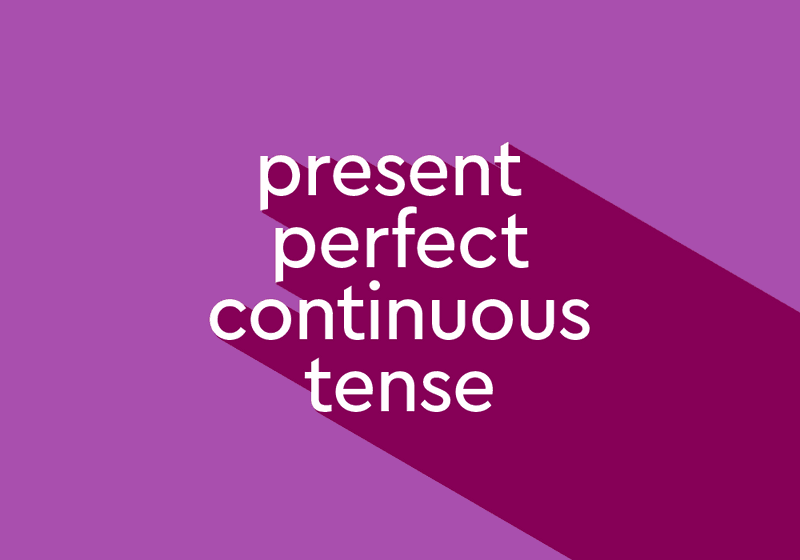
The present perfect continuous tense or the present perfect progressive is an important tool to express ongoing actions that have an impact on the present moment. Let's dive into some examples and common applications of this tense.
**1\. Expressing Ongoing Actions:**
This tense is used when discussing actions that began in the past and continue up to now. For instance, "_I have been working at this company since 2015._" Here 'have been working' is the present perfect continuous tense, where 'have' is the auxiliary verb, and 'been working' is the main verb in its present participle form.
**2\. Describing Unfinished Actions with a Result:**
When an action has just stopped but has an evident result in the present, we use this tense. For example: "_My hands are dirty because I have been painting_."
**3\. Talking about Life Experiences:**
This tense can be used to discuss experiences up to now, without specifying when they happened. For example: "_We have been visiting various temples across Tamil Nadu._"
Common Mistakes When Using Present Perfect Continuous Tense
-----------------------------------------------------------
Understanding and using the present perfect continuous tense correctly can be a little tricky, especially for non-native English speakers in India. Let's explore some common mistakes and how to avoid them:
**1\. Misuse with Stative Verbs:**
Unlike dynamic verbs, stative verbs (e.g., want, know, believe) typically don't work in the present perfect continuous tense. Incorrect: "_I have been wanting a new job._" Correct: "_I have wanted a new job._"
**2\. Using Simple Past Tense instead:**
A frequent error is using simple past tense when the action has continued up to the present moment. Incorrect: "_I lived here since 2010._" Correct: "_I have been living here since 2010._"
**3\. Confusion with ‘since’ and ‘for’: ‘**
'Since’ is used for a specific point in time, while ‘for’ indicates duration. Incorrect: "_I have been reading this book for yesterday_." Correct: "_I have been reading this book since yesterday._"
**4\. Incorrect Subject-Verb Agreement:**
It’s crucial to maintain subject-verb agreement with this tense. Incorrect: "_They has been working on the project_." Correct: "_They have been working on the project._"
**5\. Neglecting Negative Contractions:**
In spoken English, we often use contractions for negatives in this tense. Somewhat incorrect: "_She has not been feeling well._" Correct (and more natural): "_She hasn't been feeling well."_
Use these pointers as you engage in conversation or write professional emails at work. You will find yourself gradually mastering the present perfect continuous tense, enhancing your language skills for both personal and professional success.
Practising Present Perfect Continuous Tense: Exercises
------------------------------------------------------
The best way to master any tense, including the present perfect continuous tense, is through consistent practice. Here are some exercises to help you grasp this tense better. Let's start!
**_Exercise 1:_**
Fill in the blanks with appropriate present perfect continuous form of the verb in brackets.
1\. I \_\_\_\_ (write) my novel for three months now.
2\. She \_\_\_\_ (study) English for two hours.
3\. Raj \_\_\_\_ (work) in that company since 2010.
**_Exercise 2:_**
Convert the following sentences into present perfect continuous tense.
1\. Ramesh plays cricket every day.
2\. They eat dinner at 7 PM daily.
3\. She has been reading her favourite book.
**_Exercise 3:_**
Choose the correct option to complete the sentence.
1\. We \_\_\_\_\_\_\_ (have been waiting/have waited) for the bus for half an hour.
2\. You \_\_\_\_\_\_\_ (have been knowing/have known) him since childhood.
3\. She \_\_\_\_\_\_\_ (has been living/has lived) in Mumbai for five years.
**_Solutions_**
Exercise 1:
1\. have been writing
2\. has been studying
3\. has been working
Exercise 2:
1\. has been playing
2\. have been eating
3\. has been reading
Exercise 3:
1\. have been waiting
2\. have known
3\. has been living
Tips for Mastering Present Perfect Continuous Tense from Clapingo Experts
-------------------------------------------------------------------------
Mastering the present perfect continuous tense can really improve your English. It's used for actions that started in the past and may continue in the future, helping you express complex ideas. Here are some tips from Clapingo's expert coaches:
* **Understand the Structure:**
The present perfect continuous tense uses the auxiliary verbs 'have' or 'has' along with 'been' and the present participle form of the main verb (verb+ing). For instance, "_I have been reading this book for two hours_".
* **Use Time Indicators:**
Words like 'since', 'for', 'all day', are often used with this tense to indicate duration. Example: "_He has been waiting for you all day_".
* **Practice Regularly:**
Practice makes perfect, as they say! Write sentences, make conversations and try to use this tense in your daily communication.
* **Personalised Coaching:**
One-on-one sessions at Clapingo can help you understand and use this tense better. Our tutors provide personalised examples and strategies specific to your learning style.
Clapingo's personalised coaching sessions focus on these complex tenses, making them easy for learners like you to understand. It's not about rote-learning grammar rules; it's about understanding them so that they become an inherent part of your spoken English skills. You can check out some of these coaching sessions to get an idea of how it works. Right from Clapingo's YouTube channel, no sign-up required!
In a Nutshell
-------------
Understanding the present perfect continuous tense is important for both academic and professional growth. It helps you speak fluent English, crucial for global business interactions.
This tense is formed using the auxilary verb 'have' or 'has', 'been', and the main verb's present participle (-ing form). It describes actions that started in the past and are still happening or have recently stopped but affect the present.
For example, if you've been working on a project for three hours, you'd say: "_I have been working on this project for three hours._" This makes your communication clear and precise.
Mastering this tense is beneficial for professional conversations with people worldwide. It makes writing emails and having meetings easier to understand. Keep practising to improve.
If you need help, consider [Clapingo's](https://clapingo.com) coaching. They focus on improving English fluency and are taught by native speakers who understand Indian learners' challenges with English tenses.
FAQs
----
**1\. What is the present perfect continuous tense?**
The present perfect continuous tense, also known as the present perfect progressive, is a tense in English that combines the present perfect and continuous (or progressive) aspects. Used to indicate an action that started in the past and continues to the present, it employs the auxiliary verb 'have' (or 'has' for third-person singular subjects), followed by 'been', and then the present participle form of a main verb.
**2\. How to form sentences in present perfect continuous tense?**
To form sentences in the present perfect continuous tense, you will need an auxiliary verb ('have' or 'has'), 'been', and a main verb's present participle form. For example, ‘_I have been studying for my exams._’
**3\. When should I use present perfect continuous tense?**
You can use this tense to talk about actions that started in the past but continue into the present or have just finished, with their effects still felt. It can indicate the duration or cause of a current situation or state.
**4\. Is there any difference between present perfect and present perfect continuous tense?**
Yes, while both tenses refer to a past action with relevance to now, the present perfect simple emphasises the completion of an activity. Whereas the present perfect continuous emphasises the duration or ongoing nature of an activity.
### **You may want to read.**
**[Exploring the Importance of a Spoken English Syllabus: A Comprehensive Guide](https://clapingo.com/blog/spoken-english-syllabus)**
---
This blog is powered by Superblog. Visit https://superblog.ai to know more.
---
## Beyond the Basics: Exploring the World of Nouns
Author: Unknown
Published: 2024-04-30
Meta Title: Understanding Types of Nouns: A Guide for Language Learners
Meta Description: Explore various types of noun forms in English and their practical usage. Learn through relatable examples, language rules, and everyday scenarios.
Tags: Countable Nouns, Concrete and Abstract Nouns, Types of Nouns, Proper Nouns, Common Nouns
URL: https://clapingo.com/blog/types-noun
Contents
* [Why are Types of Nouns Important?](#why-are-types-of-nouns-important)
* [Proper Nouns: What Sets Them Apart?](#proper-nouns-what-sets-them-apart)
* [People:](#people)
* [Places:](#places)
* [Events:](#events)
* [Institutions/Companies:](#institutionscompanies)
* [Common Nouns: More Common Than You Think!](#common-nouns-more-common-than-you-think)
* [Concrete and Abstract Nouns: How To Tell Them Apart?](#concrete-and-abstract-nouns-how-to-tell-them-apart)
* [Countable and Uncountable Nouns: A Numbers Game?](#countable-and-uncountable-nouns-a-numbers-game)
* [Collective Noun: When Singular Meets Plural](#collective-noun-when-singular-meets-plural)
* [Compound Noun: Two Words, One Meaning](#compound-noun-two-words-one-meaning)
* [Attributive Nouns & Appositive Nouns: The Lesser-Known Types!](#attributive-nouns-and-appositive-nouns-the-lesser-known-types)
* [Practical Exercises To Master The Types Of Nouns](#practical-exercises-to-master-the-types-of-nouns)
* [1\. Singular and Plural Nouns:](#1-singular-and-plural-nouns)
* [2\. Common Noun and Proper Noun:](#2-common-noun-and-proper-noun)
* [3\. Abstract Noun:](#3-abstract-noun)
* [4\. Compound Noun:](#4-compound-noun)
* [5\. Uncountable and Countable Nouns:](#5-uncountable-and-countable-nouns)
* [The Journey Ahead in Mastering English](#the-journey-ahead-in-mastering-english)
* [FAQs](#faqs)

Nouns are everywhere. In every conversation, every book we read, every message we send. But what exactly is a noun? Simply put, a noun is a word used to identify a class of people, places or things. Mastering different types of nouns is essential for effective communication in English. Understanding their usage can enhance your spoken and written English skills significantly.
Knowledge of different types of noun forms is not just about grammar perfection. It directly influences how effectively we convey our thoughts and express ourselves.
In this blog post, we will guide you through various types of nouns. We will also offer plenty of illustrative examples and exercises for practice. From identifying different types of nouns to figuring out the functions that various nouns perform, this blog post will make this journey easy to understand and enjoyable for you.
So get ready to explore the world of English nouns, strengthen your language skills, and communicate confidently!
Why are Types of Nouns Important?
---------------------------------
Nouns serve as the backbone of the English language. They function as the main characters of our sentences. These are words that represent people, places, things, and ideas. Nouns give names to everything around us - from 'Taj Mahal' to 'tea', everything is a noun!
In terms of sentence construction, imagine nouns as the pillars that hold everything together. For instance, in the sentence "Ravi loves samosas", 'Ravi' and 'samosas' are both nouns. Without these key components, we would be left with an incomplete sentence.
Now you might ask why it's crucial to understand different types of nouns for fluency in spoken English. The answer is simple; variety adds spice to life and language! Diversifying your knowledge of noun types can help you express yourself more accurately and vividly in English. From concrete details like 'book', to abstract concepts like 'happiness', having a solid understanding of various noun types allows us to paint detailed pictures with our words.
In our journey towards mastering English, acknowledging the importance of nouns is a significant step forward. But remember, it's just one step in a larger process. Keep practising and building on what you've learned today!
Proper Nouns: What Sets Them Apart?
-----------------------------------
Proper nouns, one of the various types of nouns, are unique identifiers. They represent specific entities like the name of a particular person, place, institution or brand.
Let's consider some examples from our everyday lives:
### People:
* When discussing the name of a particular person like Ravi and Geeta, 'Ravi' and 'Geeta' are proper nouns.
### Places:
* Cities like Delhi or Mumbai are also proper nouns.
### Events:
* Special occasions such as Diwali, Holi or Christmas are considered as proper nouns.
### Institutions/Companies:
* Names of organisations like Clapingo or Tata Motors are also treated as proper nouns.
A proper noun is a naming word and is always capitalised. Yes, you read that right! They always start with a capital letter regardless of where they appear in a sentence. Remember this rule while writing sentences.
For instance, if you're saying, "I love reading books by Ruskin Bond," remember to capitalise the name 'Ruskin Bond'. Similarly, when expressing "My favourite place is Shimla," 'Shimla' needs to be capitalised.
Keep applying these simple rules around proper nouns and pay attention to capitalisation. You can enhance your spoken and written English dramatically. Every step counts when it comes to mastering the types of nouns!
Common Nouns: More Common Than You Think!
-----------------------------------------
Common nouns are everywhere! These are the most ordinary types of nouns you encounter every day. Common nouns refer to general things around you, not specific ones. For instance, 'city', 'cricket', and 'food' are all common nouns.
They denote general things, places, or people around us without specifying them by name. Unlike proper nouns, common nouns usually start with a lowercase letter unless they appear at the beginning of a sentence.
Here are a few examples:
1\. Can you pass me the ‘pen’?
2\. I love visiting ‘cafes’ around the 'city'.
The words ‘pen’, ‘cafes’ and 'city' here are common nouns as they refer to general items or places without specifying them by name. Everyday conversations are full of common nouns!
Now let's take a look at a quick comparison between proper and common nouns:
### Proper Noun
### Common Noun
**Definition**
Names specific person/place/thing
Common noun refers to general person/place/thing
**Capitalisation**
Always starts with a capital letter
Starts with lowercase unless it is the first word of a sentence
**Examples**
Rahul, Taj Mahal, McDonald's
pen, city, cafes, building
By understanding these differences, identifying whether a noun is proper or common becomes easier. Don't forget that mastering the use of nouns is key to improving your English language skills.
Concrete and Abstract Nouns: How To Tell Them Apart?
----------------------------------------------------
Let's look at the differences between abstract and concrete nouns. Abstract nouns refer to intangible concepts, such as 'happiness', 'freedom', or 'love'. Contrarily, a concrete noun is something you can physically touch or experience with your senses, like a 'book', a 'rose', or a 'pen'.
### Abstract Noun
### Concrete Noun
Love
Book
Bravery
Rose
Happiness
Song
Here are some examples in sentences:
* **Abstract noun:** "She was overwhelmed by immeasurable _joy_."
* **Concrete noun:** "She smelled the fresh _roses_ in the _garden_."
Practice makes perfect. So try identifying nouns as concrete and abstract when you're reading newspapers or speaking in English. This will help you become more familiar with how abstract and concrete nouns are used in real-world contexts. As an exercise, write down five examples of abstract and concrete noun words every day. Soon, telling them apart will be second nature!
Countable and Uncountable Nouns: A Numbers Game?
------------------------------------------------
Understanding the difference between countable and uncountable nouns is crucial in English grammar.
Countable nouns are things we can count, like apples or books. We can say one apple or three chairs. Uncountable nouns are things we can't count, like water or information. We can't say one water or three informations. Instead, we say a bottle of water or a piece of information.
A countable noun may have both singular and plural forms, like "apple" and "apples." But, uncountable nouns usually don't have a plural form. When we use an uncountable noun, we usually use it with singular verbs. So, we say "Water is important" instead of "Water are important."
Here's a helpful tip: If you're unsure whether a word is a countable noun or an uncountable noun, try adding a number or an indefinite or definite article before it. If it makes sense, then it's likely a countable noun. For example, 'a water' does not make sense but 'an apple' does.
Remember, mastering these types of nouns will help enhance your fluency and understanding of English grammar rules!
Collective Noun: When Singular Meets Plural
-------------------------------------------
Understanding collective nouns can be tricky. But they are essential in mastering the types of nouns. Collective nouns refer to a group or collection of people, animals, or things treated as a single unit. For instance, 'team', 'family', and 'class' are good examples.
What's peculiar about a collective noun is its usage in sentences. A collective noun can take either a singular or plural verb depending on the context. If you consider the collective noun as a single entity performing an action collectively, use a singular verb.
For example, look at the following sentences:
* "The team is playing well."
* "The family is going on vacation next week."
Here, you're viewing the collective nouns team and the family as single units.
On the other hand, when focusing on individual members within the group, use a plural verb. For instance: "The class were arguing among themselves." Here, each student in the class is acting individually. So remember—the key lies in understanding whether we're looking at the group as one entity (singular noun) or as individuals (plural).
Compound Noun: Two Words, One Meaning
-------------------------------------

A compound noun is a type of noun formed by two or more words combined to create a new meaning. For instance, when we combine 'tooth' and 'paste', we get 'toothpaste', a term having a unique meaning separate from its individual components.
To help you better grasp compound nouns, let's look at some commonly used examples:
**1\. Airplane:** This compound noun combines 'air' and 'plane' to describe a vehicle that flies in the air.
**2\. Blackboard:** Blend 'black' and 'board', and you get this familiar object found in most classrooms.
**3\. Bookshop:** Here's another one! Combine 'book' and 'shop', you have a place where books are sold.
**4\. Sunflower:** Merging 'sun' and 'flower', we have the name of a radiant flower that follows the sun across the sky.
**5\. Rainbow:** By combining 'rain' and ‘bow’, we get this beautiful natural phenomenon often seen after rainfall.
Understanding types of nouns like compound nouns will help boost your English language skills! Practice using these examples in your daily conversations for mastery.
Attributive Nouns & Appositive Nouns: The Lesser-Known Types!
-------------------------------------------------------------
While we've touched on the common types of nouns, there are two more lesser-known but equally important types - attributive nouns and appositive nouns. Let's break them down.
Nouns that modify other nouns are called attributive nouns. They are much like adjectives. Consider the phrase "train ticket". Here, "train" is the attributive noun modifying "ticket". You're not talking about any ticket; you're specifically talking about a train ticket. Another example is the phrase 'cricket match'. Here, 'cricket' describes the type of match and performs the function of adjectives.
On the other hand, an appositive is a noun or noun phrase that renames another noun beside it. The appositive can be a short or long combination of words. Look at this sentence - "Rohit, my brother, is a doctor". In this sentence, "my brother" is the appositive to Rohit.
Identifying and using different types of noun forms can significantly improve your English speaking skills. So keep practising!
Practical Exercises To Master The Types Of Nouns
------------------------------------------------
To conquer the world of nouns, let's put our learning into practice. Here are some exercises to help you identify different types of noun forms in sentences.
### 1\. Singular and Plural Nouns:
"The cat chased its tail." Can you spot the singular nouns in this sentence? Now try converting them into plural nouns.
### 2\. Common Noun and Proper Noun:
"Rajat loves to eat biryani." Identify the common noun and proper noun in this sentence.
### 3\. Abstract Noun:
"Honesty is an admirable trait." Find the abstract nouns in this statement.
### 4\. Compound Noun:
"I left my sunglasses at the coffeehouse." Spot and break down the compound noun here.
### 5\. Uncountable and Countable Nouns:
"The children drank juice with their breakfast." Identify the uncountable noun in this sentence.
Here are the answers for you to check:
1\. Cat, tail. Plural form: cats, tails
2\. Common noun: biriyani; proper noun: Rajat
3\. Honesty, trait
4\. Sunglasses: sun + glasses; coffeehouse: coffee + house
5\. Juice
Remember to review your answers by comparing them with the rules we discussed earlier for each type of noun. For more information about learning grammar, head over to Clapingo's blog [Learn English Grammar Step by Step: Your Complete Guide](https://clapingo.com/blog/learn-english-grammar-step-by-step).
Keep practising these exercises regularly, and soon, identifying and using these noun types will become easy for you!
For more grammar-related exercises, watch Clapingo's YouTube video:
The Journey Ahead in Mastering English
--------------------------------------
Understanding the various types of nouns is an important step in your journey towards mastering English. While it might seem difficult at first, remember that even the longest journey begins with a single step. With regular practice and observations, you'll soon identify the important distinction between common nouns, compound nouns and abstract nouns effortlessly in daily conversations.
Try this simple exercise: as you read this blog or any text, underline every noun you come across. Notice whether it's a singular noun or plural, common or compound. How is it functioning in the sentence? Practising this daily will help strengthen your understanding of how nouns work.
Clapingo's one-on-one coaching sessions offer you the ideal platform to master these rules of English grammar. Clapingo's expert tutors will guide you through interactive activities and real-life situations tailored specifically for non-native English speakers in India. They'll ensure that learning about types of nouns no longer feels like a challenging task but an engaging part of your language learning journey.
Every challenge overcome is a step closer to your dreams. So stay patient with yourself, practise diligently, and keep exploring the wonderful world of English with Clapingo!
FAQs
----
**1\. What are the different types of noun forms?**
There are several types of noun forms. This includes common nouns like 'cat' or 'table', proper nouns such as 'India' or 'Ravi', abstract nouns such as 'love' or 'happiness' and compound nouns like 'basketball' or 'toothpaste'.
**2\. What is an appositive?**
An appositive is a noun or noun phrase that identifies or explains another noun next to it. For example: My best friend, Sarah, loves to play cricket." In this sentence, "Sarah" is the appositive, which renames or further identifies "my best friend."
**3\. What is an abstract noun?**
Abstract nouns denote ideas, qualities, or states rather than concrete objects. Examples include feelings such as 'joy', concepts like 'freedom', and qualities such as 'bravery'.
**4\. How is a singular noun different from a plural noun?**
A singular noun represents one item, person, or concept. For instance, 'cat' refers to one cat. However, plural nouns refer to more than one. If you own two adorable cats, you'd use the plural noun 'cats'. A singular noun takes singular verbs and a plural noun takes plural verbs.
---
This blog is powered by Superblog. Visit https://superblog.ai to know more.
---
## Action Unfolding: Present Continuous Tense With Examples Explained
Author: Unknown
Published: 2024-04-30
Meta Title: Present Continuous Tense: Examples and Tips for Learners
Meta Description: Dive into our detailed guide on present continuous tense examples, designed specifically for Indian English learners to improve their spoken language skills.
Tags: Present Continuous Tense rules, Present Continuous Tense
URL: https://clapingo.com/blog/present-continuous-tense-examples
Contents
* [What is Present Continuous Tense?](#what-is-present-continuous-tense)
* [How Do We Form Present Continuous Tense?](#how-do-we-form-present-continuous-tense)
* [Let's Explore Some Present Continuous Tense Examples](#lets-explore-some-present-continuous-tense-examples)
* [Present Continuous Tense Questions](#present-continuous-tense-questions)
* [Practicing with Exercises](#practicing-with-exercises)
* [How is Present Continuous Tense Used in Indian English?](#how-is-present-continuous-tense-used-in-indian-english)
* [Tips to Master Present Continuous Tense](#tips-to-master-present-continuous-tense)
* [How Clapingo Can Help Improve Your Present Continuous Tense](#how-clapingo-can-help-improve-your-present-continuous-tense)
* [To Sum Up](#to-sum-up)
* [FAQs](#faqs)

Spoken English is a powerful tool, shaping our professional and personal conversations. Among its many difficulties, getting the tense right is crucial in conveying our thoughts. This brings us to the 'present continuous tense', a commonly used element that can often confuse non-native English speakers.
The present continuous tense, also known as the present progressive tense, is an indispensable part of everyday conversations. Whether it's discussing what you're doing now ("_I am playing football"_) or talking about plans in the near future ("_We are going to a party tonight_"), this tense allows us to express actions happening at or around the very moment of speaking.
However, mastering its use can be challenging due to its temporary nature and different forms such as negative sentences ("_She isn't coming to the party_") and present continuous questions ("_Are you enjoying your meal?_"). But there's no need to worry.
In this blog post, we will understand this aspect of grammar, offering clear explanations and providing relatable examples for present continuous tense. We'll also share tips and practice exercises tailored for non-native learners.
What is Present Continuous Tense?
---------------------------------
The present continuous tense, also known as the present progressive tense, is an important part of English grammar. It's a verb form that combines the present tense of the verb 'to be' with the present participle (a verb ending in -ing).
So, when you say "_Karim is eating lunch_" or "_They are playing football_" - you're using the present continuous tense.
* The primary use of this tense is to describe ongoing actions that are happening right now.
For instance, if your mother is preparing samosas in the kitchen and you're asked what she's doing, you might say, "_She is making samosas_". This indicates an action in progress at the moment of speaking.
* The present continuous even extends to future plans.
So if you're meeting friends at a party tomorrow, you could say, "We are going to a party tomorrow."
Some common dynamic verbs often used in this tense include: eating, running, going, sitting, standing and writing. When combined with helping verbs or even stative verbs like 'is', 'am' or 'are', they give us sentences like "_I am eating biryani_" or "_The stars are shining brightly_".
Let's see how this compares with the present simple tense:
**Present Simple Tense**
**Present Continuous Tense**
Describes habits or general truths
Describes ongoing actions or near future plans
Formed with the base form of the verb
Formed with 'be' + present participle (-ing form)
E.g., _She eats an apple every day._
E.g., _She is eating an apple now._
How Do We Form Present Continuous Tense?
----------------------------------------
Present continuous tense helps us express an action happening right now or the near future in a lively way. Let's explore how to form this useful tense.
The key to forming the present continuous tense lies in this simple formula: **subject + auxiliary verb 'be' + main verb ending in '-ing**'.
The auxiliary verb 'be' changes forms depending on the subject of your sentence. Here's a handy table for you:
**Subject**
**Auxiliary Verb 'Be'**
I
Am
You
Are
He/She/It
Is
We
Are
They
Are
Now let’s talk about the main verb ending in '-ing', also known as the present participle. To form it, simply add an '-ing' at the end of the base verb. For instance, 'talk' becomes 'talking', and 'write' becomes 'writing'.
But remember some verbs have exceptional rules when converting into '-ing' form! For instance, verbs ending with a consonant followed by ‘e’ drop the ‘e’ and add ‘ing’. So, 'come' changes into 'coming', and 'write' into 'writing'.
Let's put this all together with some examples:
* _I am talking to my friend._
* _You are studying for your exams._
* _He is playing cricket._
Let's Explore Some Present Continuous Tense Examples
----------------------------------------------------
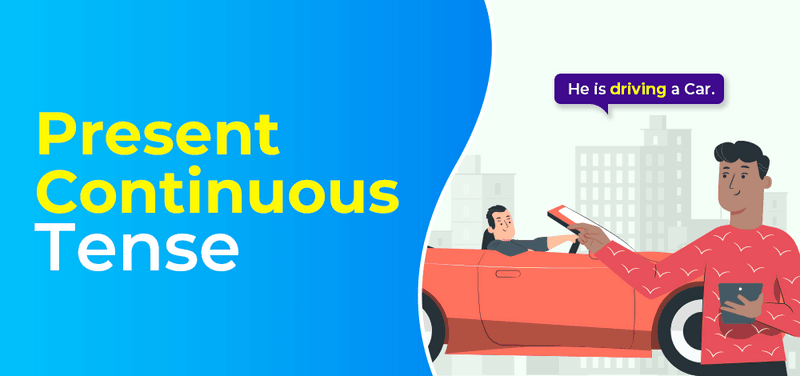
Here are some examples to help you understand better:
_1\. I am reading a book._
In this sentence, 'am reading' is in the present continuous form. 'Am' is the auxiliary verb or helping verb and 'reading' is the present participle derived from the base verb 'read'.
_2\. They are playing cricket._
Here,'are playing' denotes a present continuous action. 'Are' stands as the auxiliary verb, while 'playing' is the present participle of the verb ‘play’.
_3\. They are playing chess._
In this example, 'are' is used with 'they', and ‘playing’ is the present participle of ‘play’. This suggests that a game of cricket is presently underway.
_4\. She is preparing for her exams._
In this case, 'is' pairs with 'she', and ‘preparing’ denotes an ongoing activity related to exam preparation.
_5\. We are planning a trip to Goa next month._
The use of present continuous here signifies a plan or arrangement for the near future.
_6\. He is working on his painting skills these days._
This example shows us how to use the present continuous to express an action with a temporary nature.
Now that you've understood how these sentences work, let's look at some of the common errors made by learners and ways to correct them.
**Common Error**
**Correction**
_She play cricket now._
_She is playing cricket now._
_I am watch a movie._
_I am watching a movie._
### Present Continuous Tense Questions
Present continuous tense questions often confuse learners. For example, instead of asking "_What you are doing?_", say "_What are you doing?_" Following this structure: **question word+ auxiliary verb+ subject + present participle**, can help avoid errors.
To give you an idea of how to use the present continuous tense in everyday conversation, here's a brief dialogue between two friends meeting after work:
Anjali: _Hi! What are you doing here?_
Sid: _I am waiting for my brother._
Anjali: _How long have you been waiting?_
Sid: _About half an hour._
Revisiting these examples and practising dialogues like these will help solidify your understanding of the present continuous tense.
Practicing with Exercises
-------------------------
Now that we've discussed some present continuous tense examples, let's put them into practice.
**Exercise 1: Fill in the blanks**
For each sentence, choose the correct present continuous verb from the options provided.
1. She \_\_\_\_\_\_\_\_\_\_\_ (is baking / bake) a cake for her son's birthday.
2. The children \_\_\_\_\_\_\_\_\_\_\_ (are playing / is playing) in the park.
3. I \_\_\_\_\_\_\_\_\_\_\_ (am reading / read) a novel by Chetan Bhagat.
**Exercise 2: Convert to Present Continuous Tense**
Convert the following sentences into their present continuous tense:
1. He writes a letter to his mother.
2. We watch a Bollywood movie.
3. She cooks biryani for dinner.
#### Answers and Explanations
In Exercise 1, the correct answers are:
1. She is baking a cake for her son's birthday.
2. The children are playing in the park.
3. I am reading a novel by Chetan Bhagat.
The present continuous tense uses "am", "is", or "are" before the present participle of the verb.
In Exercise 2, here are your converted sentences:
1. He is writing a letter to his mother.
2. We are watching a Bollywood movie.
3. She is cooking biryani for dinner.
Remember, in this tense, we use 'am', 'is' or 'are' followed by verb+ing (present participle).
To master the use of the present continuous tense, keep practicing more exercises and speaking aloud using this form.
How is Present Continuous Tense Used in Indian English?
-------------------------------------------------------
India, with its vibrant regional influences, has a unique take on English which we fondly call 'Indian English'. One specific grammatical aspect where this uniqueness is apparent is in the use of present continuous tense. Let's explore a few Indian phrases that highlight this peculiar usage.
1\. "_I am liking your new kurta._" Globally, the verb 'like' doesn't usually take the present continuous form. However, Indian English speakers often use the present continuous to express personal preferences or emotions.
2\. "_We are usually having lunch at 1 pm_." In global English standards, we'd say "_We usually have lunch at 1 pm"_. The present simple tense reflects habitual actions or repeated actions. But in Indian English, it's not unusual to use the present continuous for such instances.
The interesting thing about these examples is they show how language usage can adapt based on cultural context and regional influence. As linguists have observed, variations in spoken English across different parts of India indicate how regional languages impact our English grammar and vocabulary.
Understanding these variances helps us identify areas where we might need to adjust our English usage when communicating with non-Indian speakers or in more formal contexts.
Tips to Master Present Continuous Tense
---------------------------------------
Mastering the present continuous tense can be a stepping stone to fluency in English. Here are some easy-to-follow, practical tips that can help you conquer this aspect of spoken English.
**1\. Think in English:**
One of the best strategies you can adopt is to start thinking in English. When you see an object or action around you, try to describe it using the present continuous form. This habit will not only help you understand the present continuous tense better but will also enable you to use it effortlessly.
**2\. Read Aloud:**
Another effective technique is reading aloud in English. Pick an interesting article or a chapter from your favourite book and read it out loud, focusing on sentences that contain examples of the present continuous tense.
**3\. Understanding Context:**
The key to nailing the present continuous tense is understanding its context. Remember, we use this tense primarily to talk about an action happening right now or around now. Contextual understanding will not only improve your comprehension but also enhance your application of this tense.
One common mistake Indians often make is confusing the present perfect continuous with the present progressive tense; these two tenses have different uses despite their similar forms. For instance, "_I am working here since 2010_" is incorrect; instead, it should be "_I have been working here since 2010_". When unsure, remember - if an action started in the past and continues into the present moment, then you should use the present perfect continuous tense.
How Clapingo Can Help Improve Your Present Continuous Tense
-----------------------------------------------------------
Mastering the present continuous tense is key to English fluency, and Clapingo simplifies this journey with personalized coaching and adaptable plans. By focusing on fluency, pronunciation, vocabulary, and sentence structure, Clapingo ensures that using the present continuous tense becomes effortless. Picture confidently saying, '_I am reading a book_' with perfect pronunciation and knowing exactly when to use this tense.
One standout aspect of Clapingo is its tailored approach. Each session is adjusted to match your proficiency level, ensuring steady progress. Through interactive role-plays mimicking real-life situations, like chatting at an office coffee machine ('_I am waiting for my coffee_') or with a neighbour (_'I am watering my plants'_), you'll gain practical experience with present continuous verb forms.
Clapingo's method also emphasizes the temporary nature of actions in the present continuous tense. For instance, when sharing holiday updates like 'We are visiting the Taj Mahal', your friends understand it's happening now but won't last forever. Let Clapingo guide you through mastering the present continuous tense and beyond! [Take a quick trial now.](https://clapingo.com/book-a-demo)
To Sum Up
---------
Understanding and using the present continuous tense correctly can greatly improve your English communication skills. This tense, with its present participle form, is crucial in everyday conversations. It helps to describe ongoing actions or plans for the near future. It's a simple yet powerful tool that makes your language rich and meaningful.
Throughout this blog, we've explored various present continuous tense examples and their practical usage, emphasizing the importance of learning through real-life scenarios and exercises. We've seen how it highlights the temporary nature of actions, and also how it is used to talk about future plans.
The journey doesn't stop here. Remember that practice makes perfect. Use the present continuous tense in your daily conversations and see how it enhances your fluency over time. Embrace the power of repetition and keep testing yourself with present continuous questions.
As you continue on your path to mastering English, remember that [Clapingo](https://clapingo.com) is here to support you every step of the way with personalised coaching sessions tailored to your needs.
We urge you not to stop at just the present continuous verb forms but venture further into other advanced grammar topics. Challenge yourself! Your increased understanding will help build self-confidence and further solidify your command of English.
Are you ready to take on more? Explore our posts on the [Clapingo blog](https://clapingo.com/blog) on advanced grammar topics for Indian English Learners.
FAQs
----
**1\. What is present continuous tense and when do we use it?**
The present continuous tense, also known as the present progressive tense, expresses an ongoing action at the moment of speaking. It is formed using the subject + "is/are/am" + present participle. For instance, "_I am watching a movie_." You use this tense to talk about an action happening now or near future plans.
**2\. What is a present participle?**
A present participle is the form of a verb that typically ends in '-ing'. It's used with auxiliary verbs to form present continuous tense. For example, in the sentence "_They are eating ice cream_," 'eating' is the present participle of the verb 'eat'.
**3\. How is present continuous different from present perfect continuous?**
Present continuous describes an action occurring right now or future plans, while present perfect continuous refers to an action that began in the past and continues in the present. For instance, "_She is studying for her exam_" (present continuous) vs "_She has been studying for three hours_" (present perfect continuous).
**4\. Can you provide examples of present continuous questions?**
Here are a few examples: "_Are you reading a book?_", "_Is she cooking dinner?_", "_Am I speaking loudly?_" These questions are formed by swapping the subject and 'is/are/am'. They help engage in conversation, solicit information, or show interest in what someone else is doing right now.
---
This blog is powered by Superblog. Visit https://superblog.ai to know more.
---
## Lingering Moments: A Deep Dive into Past Continuous Tense
Author: Unknown
Published: 2024-04-30
Meta Title: Mastering Past Continuous Tense: A Guide for Indian Learners
Meta Description: Learn past continuous tense with this easy-to-understand guide. Explore the rules, usage, exercise, and relatable examples to improve your English fluency.
Tags: Past Continuous Tense meaning, Past Continuous Tense example, Past Continuous Tense rules
URL: https://clapingo.com/blog/past-continuous-tense
Contents
* [Understanding the Past Continuous Tense](#understanding-the-past-continuous-tense)
* [Why is Past Continuous Tense Important?](#why-is-past-continuous-tense-important)
* [Constructing Sentences in Past Continuous Tense](#constructing-sentences-in-past-continuous-tense)
* [Correct vs Incorrect Sentence Construction](#correct-vs-incorrect-sentence-construction)
* [Common Errors When Using Past Continuous Tense](#common-errors-when-using-past-continuous-tense)
* [Distinguishing Between Simple Past and Past Continuous Tense](#distinguishing-between-simple-past-and-past-continuous-tense)
* [Exercises to Practice Past Continuous Tense](#exercises-to-practice-past-continuous-tense)
* [Clapingo's Role in Enhancing Your English Fluency](#clapingos-role-in-enhancing-your-english-fluency)
* [Final Thoughts](#final-thoughts)
* [FAQs](#faqs)

When it comes to mastering English, many learners in India often find themselves confusing the concept of 'past continuous tense.' As a non-native English speaker, it's not uncommon to feel overwhelmed by the seemingly complex nature of this particular grammatical element. However, it's essential to keep in mind that tenses play a crucial role in fluent and effective communication.
Imagine trying to narrate an interesting cricket match without using the appropriate tenses! It can lead to misunderstanding or even rob your narrative of its charm. Hence, mastering the correct usage of tenses, particularly past continuous tense, is critical for your journey towards English fluency.
In the following sections, we will look into the world of 'past continuous tense', expanding on its essential rules, application, and even common errors. We'll help you understand how to form sentences using this tense and share examples of past continuous tense.
Stay tuned as we learn past continuous tense and improve your understanding of its usage. And remember - practice makes perfect when trying to use past continuous tense effectively!
Understanding the Past Continuous Tense
---------------------------------------
The past continuous tense is often seen as a tricky concept by many learners. It is actually a simple and vital aspect of English grammar. It is formed using the past tense of the verb 'to be' (was/were) followed by a verb ending in -ing (known as the present participle).
So, the formula becomes: **Subject + Was/Were + Verb(ing)**. For instance, "_I was studying_", "_You were playing_", or "_They were waiting_".
Now, let's dive into where and when we use past continuous tense.
1. **To indicate an ongoing action in the past:** This action started and continued for some time in the past. For example, "_I was talking to my cousin yesterday evening._"
2. **To describe two simultaneous past actions:** Two actions or two events were happening at the same time or the time mentioned. For instance, "_While you were cooking dinner, I was setting the table_."
3. **To paint a vivid background for a story:** Here, you set a scene with ongoing actions before introducing a specific event. An example could be, "_It was raining heavily, and people were rushing to find shelter when suddenly a dog started barking loudly_."
4. **For polite inquiries about past decisions or plans:** Such inquiries typically start with ‘Was I…’ or ‘Were you…’. For example, "_Were you planning to visit Jaipur last summer?_"
Why is Past Continuous Tense Important?
---------------------------------------
Understanding the past continuous tense is key to effective communication in English because it helps us convey specific types of events or conditions that occurred in the past. Its importance goes beyond grammar textbooks. It's deeply linked with how we share experiences, narrate stories, and form connections. Any words or verbs we use can change the meaning of a sentence completely.
Let's consider some practical scenarios to underscore the value of mastering past continuous tense.
**1\. Narrating past events:**
Whether it's sharing about your last Goa trip with friends or describing a historical event, the past continuous tense helps create clear and engaging narratives. Instead of saying, "I went to Goa. It rained.", you could say, "_I was in Goa last week. It was raining heavily when I first saw the beach_."
**2\. Professional communication:**
During meetings or presentations, you may need to discuss past projects or actions. Instead of saying, "_Our team worked on the project._", use the past continuous for more precision: "_Our team was diligently working on the project throughout last month._"
**3\. Everyday conversations:**
The past continuous tense allows us to ask questions politely and express curiosity about people's past actions or plans, fostering deeper connections through meaningful conversations.
**4\. Writing skills:**
From emails to essays, understanding and using this tense correctly leads to clear and effective written communication.
So there you have it! The past continuous tense is not just a grammar rule but a powerful tool that enhances our ability to communicate effectively in English.
Constructing Sentences in Past Continuous Tense
-----------------------------------------------
The past continuous tense, also known as the past progressive tense, is a crucial aspect of English grammar. It allows us to describe actions that were in progress at a certain moment in the past. Let's understand its formula and look at some examples of past continuous tense.
1. **Identify the subject:**
This could be a noun or a pronoun (I, you, he, she it, we, they).
2. **Use the auxiliary verb 'was' or 'were':**
**'**Was' is used with singular subjects (I, he, she, it) while 'were' pairs with plural ones (you, we, they).
3. **Add main verb + ing:**
The main verb will take on an 'ing' form—this is called the present participle.
So the structure becomes: **subject + was/were + main verb(ing)**. Let's look at some examples.
* _I was waiting for my friend._
* _They were watching TV._
### Correct vs Incorrect Sentence Construction
A common mistake among learners is incorrectly using the past continuous tense. Let's look at the following examples in a comparison table that show correct and incorrect uses:
**Correct Use**
**Incorrect Use**
_I was watching TV when the phone rang._
_I was watched TV when the phone ring._
_You were studying for your exam all night._
_You studying for exam all night._
_She was listening to music while working out._
_She listening music while workout._
Remember, practice makes perfect. Regularly use the past continuous tense in your everyday conversations and writing tasks to become fluent in its usage.
Common Errors When Using Past Continuous Tense
----------------------------------------------
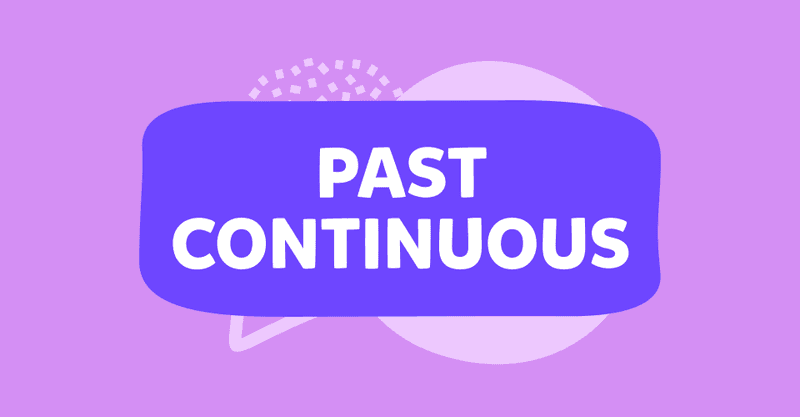
In learning the past continuous tense, there's a chance you'll make some mistakes along the way. Mistakes are a part of the learning process. Below are common errors that English learners often make. Identifying these will help you avoid them in your future conversations.
1. **Using incorrect verb forms:**
Remember, past continuous tense requires the use of 'was/were' followed by a present participle form of the verb (verb + ing). For instance, saying "_I was play cricket_" is incorrect. The correct form is "_I was playing cricket_."
2. **Confusing the usage of past simple and past continuous tense:**
Often, learners interchange these two tenses incorrectly. While recounting an interrupted past action or describing two actions that happened at the same time, always use the past continuous tense. You can't say "_I watch TV when she called_." Instead, it should be "_I was watching TV when she called._"
3. **Incorrectly using 'when' and 'while':**
These conjunctions are frequently misused with past continuous tense. Use 'when' for short actions in simple past and 'while' for longer actions in past continuous tense. Saying "_While she arrived, I was cook dinner_" is incorrect. The correct sentence is "_While I was cooking dinner, she arrived._"
4. **Ignoring subject-verb agreement:**
Another common mistake is not agreeing the subjects with 'was/were'. A singular subject takes 'was', while plural subjects take 'were'. So it's wrong to say "T_hey was watching a movie yesterday._" It should be "_They were watching a movie yesterday_."
5. **Overusing this tense:**
It's crucial to remember that not every action needs to be described in the past continuous form. Sometimes simple past serves better for completed actions or to state facts.
For further reading on common grammar mistakes and confusing topics, you can visit [Clapingo's blog](https://clapingo.com/blog). You can also watch Clapingo's [YouTube videos](https://www.youtube.com/playlist?list=PL2uSif5LcfbhvIV_H_jhazyXnHEUJZQj4) on other tenses, like simple past tense or present continuous tense.
Distinguishing Between Simple Past and Past Continuous Tense
------------------------------------------------------------
The simplest way to distinguish between the simple past and past continuous tense is to understand their individual uses. When it comes to English grammar, every tense has its unique role. Now let's look into differentiating these two tenses.
The simple past tense is used to talk about a completed action or state of being that happened at a specific time mentioned in the past. For example, "_I watched 'Dil Bechara' last night_." Here 'watched' is a verb in the simple past.
Meanwhile, the past continuous tense, also known as past progressive tense, is used for actions ongoing at a point in the past or to describe an interrupted action in the past. It is formed with 'was/were' + verb'-ing' (the present participle). For instance, consider this sentence: "_I was watching 'Dil Bechara' when the power went off._" Here 'was watching' the present participle form represents an action that was happening but got interrupted by another event.
Now, let's analyse these tenses through a few more examples:
**Simple Past Tense**
**Past Continuous Tense**
_I played cricket yesterday._
_I was playing cricket when it started raining._
_She cooked dinner for us._
_She was cooking dinner when we arrived home._
_They visited Agra last year._
_They were visiting Agra when they heard about the lockdown._
As illustrated above, simple past describes an action that happened and finished in the past. And the past continuous tense represents an ongoing activity that got interrupted or events happening at the same time.
To practise your understanding of these tenses, try converting these sentences from simple past to past continuous:
1. I read a book.
2. We played football.
3. He ate a sandwich.
Remember, the key to mastering the use of past continuous tense is practice. In the following section, we will do some exercises to improve your understanding of past continuous tense.
Exercises to Practice Past Continuous Tense
-------------------------------------------
Here are four exercises to help you master the past progressive tense.
**Exercise 1: Fill in the blanks**
Complete the following sentences using the correct form of the verb in parentheses.
1. I \_\_\_ (watch) a movie when he called.
2. The kids \_\_\_ (play) in the garden when it began to rain.
3. We \_\_\_ (have) dinner when the doorbell rang.
**Exercise 2: Correct or Incorrect**
Identify whether these sentences use the past continuous correctly.
1. Was she singing when you saw her?
2. The dog were barking at the stranger.
3. They was reading books when I arrived.
**Exercise 3: Convert Sentences**
Change these simple past tense sentences into past continuous tense.
1. He spoke on the phone.
2. She walked in the park.
3. They ate dinner.
**Exercise 4: Pair matching**
Match each sentence with its corresponding action as described by a present participle verb+ing:
A) She was drawing
B) He was dancing
C) They were studying
1) Moving rhythmically to music
2) Busy preparing for an exam
3) Making a picture using pencils
Ready to check your work? Here are the solutions:
**_For Exercise 1:_**
1\. I was watching a movie when he called.
2\. The kids were playing in the garden when it began to rain.
3\. We were having dinner when the doorbell rang.
**_For Exercise 2_**, all correct except second and third sentence should be "The dog was barking at the stranger" and "They were reading books when I arrived."
**_For Exercise 3:_**
1\. He was speaking on the phone.
2\. She was walking in the park.
3\. They were eating dinner.
**_For Exercise 4:_**
A) She was drawing - 3) Making a picture using pencils
B) He was dancing - 1) Moving rhythmically to music
C) They were studying - 2) Busy preparing for an exam
Remember, practice is key in mastering any language concept, past continuous tense is no different.
Clapingo's Role in Enhancing Your English Fluency
-------------------------------------------------
Learning the past continuous tense can be a difficult task, especially when you're studying by yourself. That's where Clapingo comes to your rescue! We offer personalised, one-on-one coaching sessions that can help you master tenses, including the past continuous tense.
Our dedicated native English-speaking tutors understand the unique hurdles faced by non-native English speakers in India. They guide you through each step of learning 'past continuous tense', from understanding its foundations to mastering its usage in different contexts. Our tutors focus on simplifying the complexities of 'verb + ing' structure and the use of 'was/were', which are crucial components of this tense.
We know that mastering any language is about more than just theory–practice makes perfect! Clapingo provides ample opportunities to use the past continuous tense in a real conversation. In our coaching sessions, we simulate scenarios where this tense is often used—like describing an action that was happening at a certain time in the past—to ensure you can apply what you have learned.
At Clapingo, our mission goes beyond teaching English—we aim to help learners gain confidence and fluency. Check out this testimonial from a past student to understand how Clapingo helped him:
Final Thoughts
--------------
Let's take a moment to summarise our journey through the past continuous tense. We've discovered how this tense is formed using 'was/were' + present participle (verb+ing). We've explored various scenarios where you can use the past continuous like talking about an interrupted action in the past, two parallel actions, or when setting the scene for a story.
Remember, mastering any grammatical concept, including the past continuous tense, requires consistent practice. Try constructing sentences using this tense in your daily conversations. For instance, '_I was reading an interesting book when power went off_,' or '_They were playing cricket while others were cheering._' This ongoing practice will gradually build your confidence and fluency.
However, self-learning can sometimes be challenging. You might hit obstacles that require expert guidance to overcome. That's where [Clapingo](https://clapingo.com) steps in. With our personalised coaching sessions, you can learn directly from native English speakers who understand your unique challenges as an Indian learner. Through one-on-one interactions focusing on fluency, sentence structure and pronunciation, Clapingo offers adaptable plans to meet your specific needs.
Whether it's to impress at job interviews or converse with ease at social gatherings, Clapingo is here to assist you on this journey of mastering English.
FAQs
----
**1\. What is the past continuous tense?**
Past continuous tense refers to an action that was ongoing at a specific moment in the past. The structure of this tense is 'was/were' + 'present participle' (verb + ing). For example, "_I was reading a book when you called._"
**2\. When should I use the past continuous tense?**
You can use the past continuous tense to describe an action that was happening at a specific time in the past, for two actions happening simultaneously in the past, or to express an interrupted action.
**3\. What is a present participle?**
A present participle is derived from a verb but used as an adjective or a verb. It always ends with ‘ing’. When combined with auxiliary verbs ('was/were'), it forms the past continuous tense.
**4\. Can you provide some past continuous tense examples?**
Here are some examples:
* _I was watching TV when she arrived._
* _They were eating dinner at 8 pm last night._
* _We were studying when the power cut happened._
---
This blog is powered by Superblog. Visit https://superblog.ai to know more.
---
## Chose or Choose? Selecting the Correct Verb in Grammar
Author: Unknown
Published: 2024-04-30
Meta Title: Chose Vs Choose: A Guide for Indian English Learners
Meta Description: Understand the difference and usage between 'chose' and 'choose' with examples and pronunciation guides. Boost your communication skills with Clapingo.
Tags: Chose or Choose excercise, Chose or Choose meaning, Chose or Choose definition, Chose or Choose example
URL: https://clapingo.com/blog/chose-or-choose
Contents
* [What is the Definition of Chose and Choose?](#what-is-the-definition-of-chose-and-choose)
* [How to Pronounce Chose vs Choose?](#how-to-pronounce-chose-vs-choose)
* [How to Properly Use Chose vs Choose?](#how-to-properly-use-chose-vs-choose)
* [Common Mistakes When Using Chose vs Choose](#common-mistakes-when-using-chose-vs-choose)
* [How to Practice Chose vs Choose](#how-to-practice-chose-vs-choose)
* [To Sum Up](#to-sum-up)
* [FAQs](#faqs)
* [You may want to read.](#you-may-want-to-read)

Imagine Ravi, an Indian professional, giving a presentation at an international conference. He mistakenly says, "We choose to implement the strategy last quarter," confusing his colleagues. This mix-up between 'chose' and 'choose' is common for non-native English speakers and can affect career growth. It's important to know how to use 'chose' vs 'choose' correctly for clear communication.
This blog post will explain what these words mean, show how to use them with examples, teach the chose vs choose pronunciation, and point out common errors.
What is the Definition of Chose and Choose?
-------------------------------------------
Let's first understand the chose vs choose meaning.
'Chose' and 'choose' are common words in English that often confuse non-native speakers. However, understanding the chose vs choose definition can greatly improve your proficiency.
* 'Chose' is the past tense of 'choose', meaning it describes an action completed in the past. For instance, "_I chose a blue shirt yesterday._"
* 'Choose' is the present tense, used when discussing current or future actions. For example, "_You can choose your dessert now_."
**Term**
**Tense**
**Example**
Chose
Past Tense
"Yesterday, Ravi chose to walk instead of taking a bus."
Choose
Present Tense
"You can either choose to work or play right now."
Improving your vocabulary can be easy if you know synonyms for words.
**_Synonyms for 'Chose':_**
* Selected
* Picked
* Decided
**_Synonyms for 'Choose':_**
* Pick
* Select
* Decide
How to Pronounce Chose vs Choose?
---------------------------------
English vowel sounds can be tricky, especially for Indian learners. Here's an easy explanation to help you out:
1. "Chose" - The phonetic transcription is **/tʃəʊz/**. The 'o' in 'chose' sounds similar to the 'o' in words like 'go' or 'so'. That's the long 'o' sound. The final 'e' is silent.
2. "Choose" - Phonetic transcription for this word is **/tʃu:z/**. The word has a slightly elongated 'oo' sound, like in words such as 'shoe' or 'boo'. Again, the ending ‘e’ isn't pronounced.
Focusing on vowel sounds can make a big difference in your pronunciation of these words.
How to Properly Use Chose vs Choose?
------------------------------------
Understanding when to use 'chose' and 'choose' is often confusing for English learners in India. Let's explore some scenarios where these terms might be incorrectly used:
1. **_At Work_:** If you're telling your colleague about a task you've selected for today, it's incorrect to say, "_I chose to work on the report today._" Instead, you should say, "_I choose to work on the report today_", as this refers to a present-tense decision.
2. **_Social Settings_:** Perhaps you're sharing with friends about your plans for dinner. It would be wrong to say, "_I choose biryani yesterday_". The correct sentence should be, "_I chose biryani yesterday_", as it refers to a past-tense decision.
Common Mistakes When Using Chose vs Choose
------------------------------------------
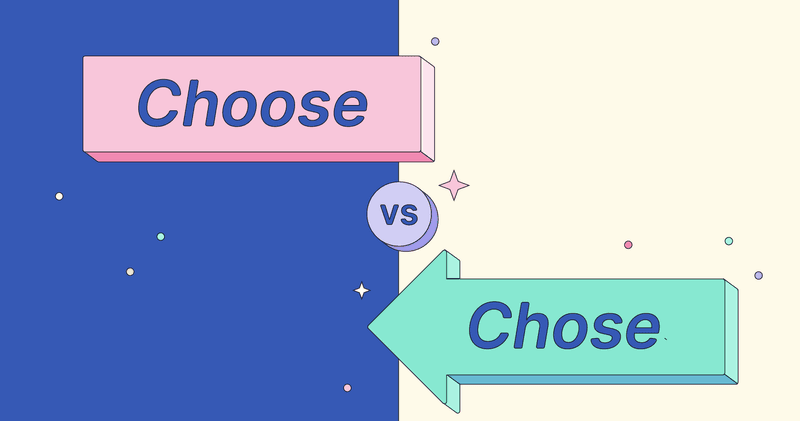
When it comes to 'chose' and 'choose', many English learners in India often get confused. The words sound similar but have different meanings and usages. Here are some common mistakes and their corrections:
**Common Mistake**
**Correction**
_I choose to go to the movies yesterday._
_I chose to go to the movies yesterday._
_I will choose a book for bedtime last night._
_I chose a book for bedtime last night._
Remember, 'choose' is a present tense verb, used when talking about a decision you're making now or in the future. Meanwhile, 'chose' is a past tense verb that refers to a decision made in the past.
To avoid these mistakes while using chose vs choose in a sentence:
1\. Always consider the time frame of your sentence before choosing between 'chose' and 'choose'.
2\. Practice using both words in sentences.
3\. Review your sentences for proper tenses.
How to Practice Chose vs Choose
-------------------------------
Here are some activities to help you master these words:
1. **Quizzes:** Online quizzes are interactive ways to learn. Try quizzes on 'chose' vs 'choose' and check your understanding.
2. **Flashcards:** Design flashcards using chose vs choose in a sentence. Challenge yourself by guessing the correct word before turning over the card.
3. **Daily Notes:** Use these words in your day-to-day communication. Keep a journal and note down instances where you used them correctly and incorrectly.
Learning with Clapingo can further help your English learning journey. You can join the [Clapingo Practice Club](https://docs.google.com/forms/d/e/1FAIpQLSfR01aGy46euHtancFtRJnfjxI-zaHEGrdPJ3js1vb8-S9Yow/viewform) to practice difficult words and phrases in a supportive environment.
To Sum Up
---------
To sum up, knowing when to use 'chose' and 'choose' is important for clear professional communication.
'Chose' is used for decisions in the past ("_I chose a career in finance_"), while 'choose' is for current or future decisions ("_You need to choose your words carefully_"). Mixing them up is a common mistake, even for those who know the chose vs choose definition. Also, remember how they sound: 'chose' rhymes with 'nose', and 'choose' with 'lose'.
Using these words correctly shows your command of English in professional settings. To get better, read our blog posts and practice speaking. If you want to improve your English, check out [Clapingo](https://clapingo.com/) for courses designed for non-native speakers in India. Explore our offerings now!
FAQs
----
**1\. What is the difference between 'chose' and 'choose' meaning?**
The difference between chose vs choose meaning is that 'choose' is used to express a decision made in the past. For example, "_I chose to learn English with Clapingo_." And, 'choose' is used when deciding on the present or future. For instance, "_You can choose to improve your English skills at any time._"
**2\. Can you give me an example of how to use 'chose' and 'choose'?**
Here are the examples for 'chose' and 'choose':
* **Present/Future:** "_I can't decide whether I should choose the red sari or the blue one for my cousin's wedding._"
* **Past:** "_For my last job interview, I chose to wear a formal suit._"
**3\. Is it important to understand the difference between 'chose' and 'choose'?**
Yes, understanding this difference allows you to accurately yourself in different time contexts. It can make your spoken English clearer and more precise.
### **You may want to read.**
**[Top 35 Books To Help You With English Learning](https://clapingo.com/blog/english-learning-books)**
---
This blog is powered by Superblog. Visit https://superblog.ai to know more.
---
## Towns, Cities and Villages: Understanding the Settlement Vocabulary
Author: Unknown
Published: 2024-04-30
Meta Title: Town Vs City Vs Village: Understanding the Differences
Meta Description: Learn the differences between Town, City, and Village from an English learning perspective. Gain practical knowledge and enhance your spoken English skills.
Tags: Town Vs City Vs Village, Town Meaning, City meaning, Village meaning
URL: https://clapingo.com/blog/town-vs-city-vs-village
Contents
* [What Do Town, City and Village Mean?](#what-do-town-city-and-village-mean)
* [Town Vs City Vs Village: Some Common Confusions and Mistakes](#town-vs-city-vs-village-some-common-confusions-and-mistakes)
* [Building Vocabulary Around Town, City and Village](#building-vocabulary-around-town-city-and-village)
* [Boosting Confidence in Spoken English: How Clapingo Can Help](#boosting-confidence-in-spoken-english-how-clapingo-can-help)
* [FAQs](#faqs)
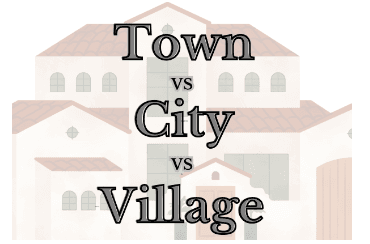
If you've ever struggled to understand the differences between 'town', 'city', and 'village' in English, you're not alone. This can be especially tricky for English language learners in India. This is because the way these terms are used in India differs from English-speaking countries.
Understanding these differences is crucial. But don't worry! This article will clear up these confusing concepts for you.
With relatable examples, we'll explain the differences between a town, city, and village. Plus, we'll provide a step-by-step approach to help you differentiate between these terms and use them in your conversations. So let's dive straight into our exploration of 'town vs city vs village'!
What Do Town, City and Village Mean?
------------------------------------
A town is a built-up area that is larger than a village but smaller than a city. It may serve as an administrative, economic, or educational centre for the surrounding rural areas. For example, Shimla in Himachal Pradesh is a well-known town in India.
A city refers to a large town. It has clear borders and most people follow a fast-paced lifestyle. It houses many amenities and infrastructures. Cities like Mumbai and Delhi are bustling metropolises in India.
A village denotes a small community in the countryside. It is often characterized by less population density and fewer amenities than towns or cities. An example would be Mawlynnong in Meghalaya which is called the cleanest village in Asia.
So, 'town', 'city', and 'village differ based on their size, population, facilities, lifestyle etc. Here is a table summarising these points:
### Term
### Size
### Pace of Life
### Facilities
Town
Medium-sized
Moderate
Limited but growing
City
Large-sized
Fast-paced
Advanced
Village
Small-sized
Slow-paced
Basic
Remember that each has its charm and challenges. You may often have to describe your hometown or migrate to other places. So, understanding these terms can help with your communication.
Town Vs City Vs Village: Some Common Confusions and Mistakes
------------------------------------------------------------
We often encounter common mistakes while differentiating the terms town, city, and village. Let's explore a few:
1. **Size Misconception:** Many believe that only the size dictates whether a place is a town, city or village. But, it's more about administrative factors and population density.
2. **Function Misinterpretation:** Cities are often associated with bustling activity and villages with peace. While these assumptions can be true, they aren't strict rules.
3. **Confusion over Urbanisation**: Rapid urbanisation in India often blurs the boundaries between these terms.
To get past these language challenges, you need to practice regularly. It is also important to be aware of how our mother tongue influences our English abilities. Here is a useful guide to help you navigate such problems: [How can you remove the mother tongue influencer problem in English Speaking?](https://clapingo.com/blog/mother-tongue-influence-problem-english) With time and effort, you'll confidently navigate these nuances of English communication!
Building Vocabulary Around Town, City, and Village
--------------------------------------------------
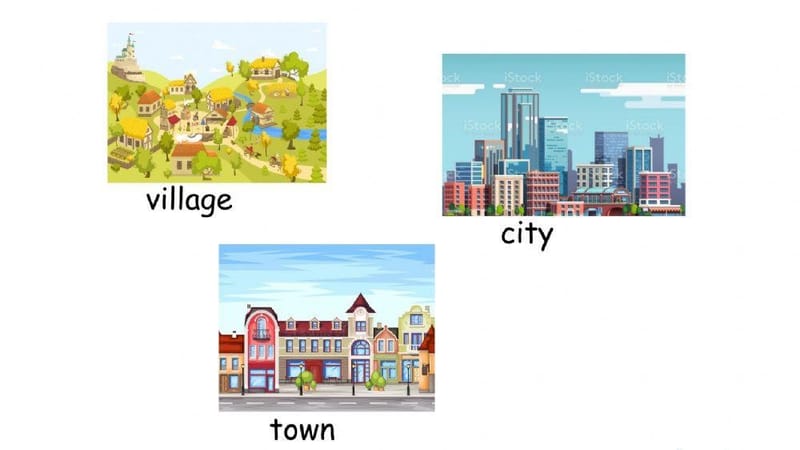
A good starting point while learning a language is to expand your vocabulary with phrases and idioms related to the words you learn. Here are some common idioms related to towns, villages and cities to make your conversations interesting:
* **'To go to town'**: This phrase means spending money carelessly. For example, "She always goes to town with her shopping at the annual sale."
* **'The talk of the town'**: This expression refers to someone who has become a subject of gossip due to their behaviour or lifestyle. For instance, "Since his dramatic weight loss, Rajesh has been the talk of the town."
* **'Fight city hall'**: Taking up a challenge against bureaucracy or authority is often referred to as fighting city hall. Example: "Despite knowing he might lose, Ravi decided to fight city hall over unfair property taxes."
* **'Village idiot'**: A person known for being foolish or silly is often called a village idiot. Example: "Don't listen to him; he's the village idiot."
* **'It takes a village'**: Rooted in a proverb, this idiom suggests that collective efforts are crucial for achieving big tasks. For example: "It takes a village to bring about social change."
Make sure to practice these expressions. Using them appropriately can make your spoken English more engaging and relatable!
Boosting Confidence in Spoken English: How Clapingo Can Help
------------------------------------------------------------
Remember, understanding the differences between a town, city, and village is more than just about population size. It involves understanding their features. This includes their facilities and lifestyle to the governance and development level. Now that you're aware of what sets a town vs city vs village apart, use these terms accurately in your conversations!
Practicing is key. Make use of dictionaries or online resources to help clarify your understanding. For a personalised approach to improving your English skills, check out platforms like [Clapingo](https://clapingo.com/).
Clapingo's coaching sessions aim to boost the confidence of non-native English speakers. Understanding how English is used in various settings, from towns to cities to villages, can improve your language skills. So the expert tutors at Clapingo assist you in navigating such different scenarios.
Your search for an [English learning partner](https://clapingo.com/blog/english-learning-partner) ends here at Clapingo. Let's start this rewarding journey of mastering spoken English together with confidence.
FAQs
----
**1\. What's the main difference between a town and a city?**
Cities are typically larger than towns and have a higher population density. They also have more facilities like shopping centres and advanced healthcare facilities.
**2\. Are villages considered smaller than towns?**
Yes, villages are generally smaller than towns in terms of geographical size and population. They also have fewer facilities compared to towns.
**3\. Do English learners often confuse town vs city vs village?**
These terms refer to specific types of settlements and each has its unique features. Understanding these differences can enhance an English learner's vocabulary.
---
This blog is powered by Superblog. Visit https://superblog.ai to know more.
---
## Was vs Were: Gaining Insight into the Proper Use and Application
Author: Unknown
Published: 2024-04-30
Meta Title: Decoding the Usage of Was Vs Were: A Thorough Guide
Meta Description: Master the usage and meaning of was vs. were with this comprehensive guide. Learn the most important common problems, rules, tips, and practical examples.
Tags: Was vs Were meaning, Was vs Were examples, Was vs Were excercise, Was vs Were meanings
URL: https://clapingo.com/blog/was-vs-were
Contents
* [Understanding 'Was' and 'Was': The Grammar Rules](#understanding-was-and-was-the-grammar-rules)
* [Was vs Were in Questions & Negative Sentences](#was-vs-were-in-questions-and-negative-sentences)
* [Understanding the Subjunctive Mood](#understanding-the-subjunctive-mood)
* [Practical Exercises for Mastering Was vs Were](#practical-exercises-for-mastering-was-vs-were)
* [Final Thoughts](#final-thoughts)
* [FAQs](#faqs)

Welcome to the fascinating world of English grammar. In this world, understanding the correct usage of words like was vs were helps in refining your language skills. This might seem like a small difference. But it can significantly impact your sentence construction and meaning. It's also not about knowing grammatical rules alone. It is about confidently using them in everyday conversations.
In this guide, we will discuss the usage of was vs were in detail. We will back this with practical examples and clear explanations. This guide is specifically designed for non-native English speakers in India. We promise to make this journey engaging and relatable for you. So let's get started!
Understanding 'Was' and 'Was': The Grammar Rules
------------------------------------------------
Let's start with the basics. Both 'was' and 'were' represent the past tense in English. But, their usage is determined by the singularity or plurality of the subject they are used with.
Let's take you back to the basics of English grammar, focusing on the usage of 'was' and 'were'. Firstly, we must understand what these words represent. Simply put, 'was' is a past tense verb that we use with singular subjects. Consider this example: "Ravi was at the cricket match yesterday." Here, 'Ravi' is a singular subject and so we use 'was'.
'Was' is used for all singular subjects. For example, "I was at a cricket match yesterday." Here, 'I', being a single individual, is coupled with 'was'. Other instances where we use 'was' include sentences like:
* He was late for school.
* Shreya was excited about her trip to Goa.
* It was a sunny day.
'Were' is used for plural subjects or when paired with 'you'. For more than one entity like 'they', we use 'were'. Let's look at some examples:
* We were playing football.
* They were on vacation last week.
* You were very helpful.
As mentioned, 'were' is also used with 'you.' For instance, "You were always fond of Bollywood music." In this case, whether you're addressing one person or several, you use ‘were’.
In summary, here's a simple table to help you decide whether to use ‘was’ or ‘were’:
### Subject
### Correct Verb
### Example
I
Was
I was eating.
He/She/It
Was
She was studying.
You
Were
You were sleeping when I came home.
We/They
Were
They are playing hockey.
Was vs Were in Questions & Negative Sentences
---------------------------------------------
It is equally important to understand the guidelines for the use of was vs were in questions and negative sentences. Let's take a look at the was vs were rules for these:
When you're framing questions, 'was' and 'were' are used at the beginning of yes/no questions. 'Was' is used with singular nouns or pronouns (like he, she, it). 'Were' pairs with plural subjects (like we, you, they). For example:
1. "Was Raj at the cricket match yesterday?"
2. "Were the Sharma sisters at the party last night?"
In negative sentences, 'was not' or 'wasn’t' is used with singular subjects and 'were not' or ‘weren’t’ with plural ones. Here are some examples:
1. "She wasn't at the meeting."
2. "They weren't satisfied with the proposal."
3. "Wasn't he supposed to call you back?"
4. "Weren’t we going to the film festival?"
Remember these simple rules when framing your next question or constructing a negative sentence! Understanding the use of was vs. were in sentences with different structures can truly improve your English skills!
Understanding the Subjunctive Mood
----------------------------------

In English grammar, there's a special case where 'were' is favoured over 'was'. This is known as the subjunctive mood. It's used to express hypothetical or unreal conditions, desires, or suggestions.
It might sound complex but don’t worry. Let's understand it through examples.
* If I were rich, I'd buy a house in Mumbai.
* She would travel the world if she were not afraid of flying.
* If he were taller, he could have been a basketball player.
In these scenarios, we're talking about single individuals (which usually requires 'was'). But we use 'were' because the situations are unreal or hypothetical. So remember, when expressing a wish or an unreal situation, use 'were', even for singular subjects.
Practical Exercises for Mastering Was vs Were
---------------------------------------------
Let’s put your understanding of was vs were usage to the test. Below are five fill-in-the-blank questions. Try to insert the right form – 'was' or 'were'.
1. She \_\_\_ in Delhi last week.
2. If I \_\_\_ a dog, I would be happy all day.
3. I \_\_\_ not expecting them to come.
4. We \_\_\_ wondering if you'd like to join us for dinner.
5. You \_\_\_ there, weren’t you?
Answers:
1. was
2. were
3. was
4. were
5. were
Each question shows a typical usage example for was and were. They are designed to help you get comfortable with their usage in different contexts and sentences.
Don't worry if you didn't get all of them right; language learning is a journey! [Clapingo](https://clapingo.com/)'s personalised coaching sessions can help you master such rules of English grammar. This includes was vs were rules and more.
Looking for more practice material? Don't miss Clapingo's compilation of [Top 25 English Speaking Course Books You Shouldn't Miss](https://clapingo.com/blog/english-speaking-course-book). These books also include exercises on the use of was vs were in sentences. Keep practising, and soon you'll be using 'was' and 'were' effortlessly!
Final Thoughts
--------------
In this blog post, we've explained the differences between 'was' and 'were'. We've seen that 'was' is used with singular subjects. 'Were' appears with plural subjects, 'you' or hypothetical situations. Remember, becoming skilled in these details requires practice and time.
It is normal for non-native English speakers to find understanding these rules challenging. The expert tutors at [Clapingo](https://clapingo.com/) understand this difficulty. So, Clapingo's personalised coaching sessions are designed to assist you in mastering these rules. Achieving language fluency takes time, but with consistent effort, it's absolutely possible.
Keep practising and learning! Each day brings you closer to mastering the use of 'was' and 'were' and improving your spoken English. Keep in mind that progress in language isn't about quick success but steady improvement. Every step forward is a victory.
FAQs
----
**1\. When to use was vs were?**
Use 'was' when talking about singular subjects in the past tense, except for the pronoun 'I'. Use 'were' for plural subjects and with 'I'.
**2\. Should I say I was or I were?**
Generally, use 'I was'. But in hypothetical situations, use 'I were'. For example, "I wish I were a billionaire".
**3\. Can I say if I were you?**
Yes, it's correct and common to use "If I were you." It is used when giving advice about what you would do in the other person's situation.
---
This blog is powered by Superblog. Visit https://superblog.ai to know more.
---
## Decoding the Nuances and Variations: Disinterested vs. Uninterested
Author: Unknown
Published: 2024-04-30
Meta Title: Disinterested Vs Uninterested: Clearing the Confusion.
Meta Description: Understand the difference between disinterested and uninterested and boost your English skills. Explore examples, definitions, and an interactive quiz.
Tags: Disinterested vs Uninterested, Disinterested meaning, Uninterested meaning
URL: https://clapingo.com/blog/disinterested-vs-uninterested
Contents
* [Disinterested vs Uninterested: Definitions and Examples](#disinterested-vs-uninterested-definitions-and-examples)
* [Tips for Remembering the Difference](#tips-for-remembering-the-difference)
* [Test Your Understanding with Disinterested vs Uninterested Quiz](#test-your-understanding-with-disinterested-vs-uninterested-quiz)
* [The Importance of Correct Usage and Accurate Vocabulary](#the-importance-of-correct-usage-and-accurate-vocabulary)
* [Summing Up](#summing-up)
* [FAQs](#faqs)

Words that look or sound alike can confuse people who are learning English. This is one of the tricky parts of the language that makes learners puzzled.
Have you ever found yourself stuck in such a situation? For instance, were you ever unsure whether to use 'disinterested' or 'uninterested' in a sentence? You're not alone! Many students and professionals struggle to tell the difference between these two terms. But don't worry! We're here to clear up this confusion.
Today, we'll be talking about the meanings and usages of 'disinterested' and 'uninterested'. Knowing what they mean and when to use them, can help you in telling them apart and use them correctly. Keep reading for explanations that will make it clear once and for all!
Disinterested vs Uninterested: Definitions and Examples
-------------------------------------------------------
First, let's break down the definitions of 'disinterested' and 'uninterested'.
'Disinterested' refers to a person who is impartial or unbiased, like a judge or referee in a game. Here’s an example: “The judge remained disinterested in the debate between the lawyers.”
'Uninterested' describes someone who lacks interest or enthusiasm in a particular matter. For instance: “She was uninterested in the football match happening on TV.”
Here is a table for a better understanding. It also gives some examples of disinterested and uninterested:
### Word
### Meaning
### Examples
**Disinterested**
Being impartial or unbiased
"The disinterested judge decided the case purely based on evidence."
"She remained disinterested in the gossip."
**Uninterested**
Lacking interest or enthusiasm
"He remained uninterested during the entire lecture."
"He seemed uninterested in joining the team's celebration."
Remember that knowing the difference between disinterested and uninterested can improve your spoken English. So, it’s essential to understand their definitions and use them correctly. Practice using these terms in sentences until you can use them with ease.
Tips for Remembering the Difference
-----------------------------------
Let's simplify remembering the difference between 'disinterested' and 'uninterested' with some quick tips:
1. **Associate:** Link 'disinterested' with 'decision'. A disinterested person can make unbiased decisions since they have no personal stake.
2. **Visualise:** Picture 'uninterested' as being under a cloud of boredom. An uninterested person would like to be somewhere else. They find the current situation dull.
3. **Mnemonic**: Remember these word pairs: "Disinterested: Detached; Uninterested: Unimpressed."
4. **Practice**: Practice makes perfect! Regularly use these words in your conversations and writings.
5. **Quiz Yourself**: Take self-tests to reinforce your understanding. You can use the disinterested vs uninterested quiz below to check your progress.
Visit this blog to learn more ways to improve and expand your vocabulary: [Spoken English Words List To Learn English Under 15 Days!](https://clapingo.com/blog/spoken-english-words)
Explore such resources at Clapingo to enhance your skills. It will boost your confidence and help you communicate with more confidence.
Test Your Understanding with Disinterested vs Uninterested Quiz
---------------------------------------------------------------
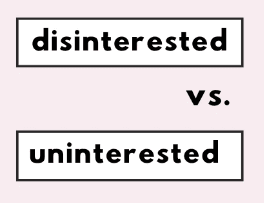
You've learned the basics of the meanings and usages of 'disinterested' and 'uninterested'. Now it's time to see how well you have understood them. This quick quiz will help you see how well you've understood the concept.
1\. Which of these sentences uses 'disinterested' correctly?
a) I was disinterested in the cricket match because I don't like sports.
b) The referee was disinterested and ensured a fair game.
2\. Choose the correct word for this sentence: "She seems \_\_\_\_\_ in the computer programming."
a) disinterested
b) uninterested
3\. If you do not care about something, would you be:
a) Disinterested
b) Uninterested
4\. Which is the right usage: "As a judge, he needs to remain \_\_\_\_\_\_ during the trial."
a) Disinterested
b) Uninterested
5\. Fill in the blanks: "The \_\_\_\_\_\_ teacher graded the papers impartially. The \_\_\_\_\_\_ students doodled in the margins."
a) disinterested, uninterested
b) uninterested, disinterested
Reflect on your choices and check your answers here:
Answers: 1-b, 2-b, 3-b, 4-a, 5-a
This quiz is a practical tool to help you remember the difference between these words. Continue practising these examples in real-life situations to enhance your spoken English skills!
To avoid making vocabulary mistakes, check out this YouTube video by Clapingo:
The Importance of Correct Usage and Accurate Vocabulary
-------------------------------------------------------
Knowing how to use words like 'disinterested' and 'uninterested' can affect how you interact with others. This includes both personal and professional communication. For example, let's say you're in a meeting with an international client. If you use 'uninterested' instead of 'disinterested', it might seem like you're not interested in the meeting. This could lead to misunderstandings and lost deals.
But, using these words correctly in casual conversations can make a good impact. If you use them while discussing a movie with your friends, you can show off your language skills. This can make you look more interesting.
Figuring out these language difficulties can be tough if you don't have the right help. That's where [Clapingo's](https://clapingo.com/) personalised coaching comes in handy. Clapingo's expert tutors, explain such differences but help you use vocabulary correctly. Clapingo also offers one-on-one sessions in your native language. This helps in making sure that you master confusing words like 'disinterested vs uninterested'.
Summing Up
----------
In this exploration of disinterested vs uninterested, we have discussed the usage of these confusing words in detail. We have discovered that 'disinterested' means being impartial or neutral. We also saw that 'uninterested' shows a lack of interest or concern. By looking at examples, we've seen how the context determines which word to use.
But this understanding alone is not enough. The real key lies in applying these learnings in your daily communication. So keep challenging yourself to use 'disinterested' and 'uninterested' correctly.
Continue this learning journey with personalised coaching sessions from [Clapingo](https://clapingo.com/). These coaching sessions will help you reach your goal of confident and fluent English communication. Remember, every step you take brings you closer to mastering English fluency.
FAQs
----
**1\. How do you use disinterested and uninterested?**
When referring to someone who is impartial or unbiased, use 'disinterested'. If someone lacks interest or is indifferent about something, use 'uninterested'.
**2\. Who is a disinterested person?**
A disinterested person is someone who does not have any personal involvement or bias. They remain neutral or objective in a situation.
**3\. Can you provide some disinterested vs uninterested examples?**
Sure! "The umpire must be disinterested during a cricket match," means he should not favour any team. "The students were uninterested in the lecture," means they were not interested in it.
---
This blog is powered by Superblog. Visit https://superblog.ai to know more.
---
## Either vs Neither: Understanding the Choice and Negation
Author: Unknown
Published: 2024-04-30
Meta Title: Exploring Either vs Neither: Meaning, Usage, and Exercises
Meta Description: Master 'either' & 'neither' with real-life examples, detailed explanations, tips, and practical exercises tailored to non-native English speakers in India.
Tags: either vs neither meaning, either vs neither difference, either vs neither excercise
URL: https://clapingo.com/blog/either-vs-neither
Contents
* [What does Either vs Neither mean?](#what-does-either-vs-neither-mean)
* [How is Either Used in Sentences?](#how-is-either-used-in-sentences)
* [How is Neither Used in Sentences?](#how-is-neither-used-in-sentences)
* [Either vs Neither: Spot the Difference](#either-vs-neither-spot-the-difference)
* [Let's Practice! Neither and Either Exercises for you!](#lets-practice-neither-and-either-exercises-for-you)
* [The Magic of Either and Neither in Conversations](#the-magic-of-either-and-neither-in-conversations)
* [Wrapping Up](#wrapping-up)
* [Frequently Asked Questions (FAQs)](#frequently-asked-questions-faqs)
* [You may want to read](#you-may-want-to-read)

Imagine you're on a conference call with colleagues from different countries. Suddenly, you're unsure whether to say 'either' or 'neither' in a tricky situation. This happens a lot to non-native English speakers in India, so it's important to understand these words for clear communication.
In this blog post, we'll explain when to use 'either' and 'neither', give easy rules to remember, point out common mistakes, and include either vs neither exercises. We'll also use either vs neither examples to help you use these words confidently in everyday conversations.
What does Either vs Neither mean?
---------------------------------
'Either' is used to express a choice between two alternatives. For instance, "You can either have a samosa or a vada pav." Here, 'either' gives you an option to choose one out of the two mentioned.
'Neither' is used to deny both of the two alternatives. For example, "I neither drink tea nor coffee." Here, 'neither' indicates that not even one out of the mentioned options is true for me.
The either vs neither meaning can vary a bit in different contexts:
* 'Either' can also mean 'both', like in "There are shops on either side of the road", implying shops on both sides.
* 'Neither', if used alone and not with ‘nor’, can express agreement with negative statements. For instance, if someone says "I don’t like spicy food.", you might respond with "Me neither!", meaning you also don't like spicy food.
How is Either Used in Sentences?
--------------------------------
'Either' is typically used to indicate one of two possible choices. Let's examine some examples of 'either' in sentences.
For instance, you could say, "_You can either go by train or by bus to Chennai_." In this sentence, the use of 'either' implies that there are two travel options: train or bus.
**Correct Usage**
**Incorrect Usage**
Either eat your vegetables, or leave the table.
Either eat your vegetables or leave.
You can either play cricket or study for your exams.
You can either play cricket or studying for exams.
How is Neither Used in Sentences?
---------------------------------
'Neither' is used when you want to say that two or more things are not true or possible. It negates both parts of a statement, offering a negative balance to 'either'.
For example, "_Neither Rohit nor Virat will be playing in tomorrow's match_", means that both Rohit and Virat will not play.
**Correct Usage**
**Incorrect Usage**
Neither Ravi nor Raj met their target sales this month.
Neither Ravi nor Raj has meeting their targets this month.
I like neither coffee nor tea.
I like neither coffee or tea.
Either vs. Neither: Spot the Difference
---------------------------------------

Understanding the difference between 'either' and 'neither' can be tricky, but fret not. Let's look at a simple table that outlines the correct either vs neither usage:
Term
Usage
Example
Either
Used to indicate one or another in a positive context
"You can either have tea or coffee."
Neither
Denotes not either, used in negative contexts
"Neither tea nor coffee is available."
Here are a few tips to remember: When you see 'either', think of options ('either this or that'), and when you see 'neither', think of denial ('neither this nor that'). Keep practising the use of these terms with various 'either vs neither exercises' online.
Let's Practice! Neither and Either Exercises for you!
-----------------------------------------------------
Perfecting the usage of 'either' and 'neither' might seem challenging, but it's all about practice. Here are some exercises for you.
1. Fill in the blanks:
\_\_\_\_\_\_\_\_\_\_\_ Ravi \_\_\_\_\_\_\_\_\_\_\_ Rohan was able to answer the question correctly.
2. Which is correct?
I don't like coffee and my brother doesn't like coffee too OR I don't like coffee and \_\_\_\_\_\_\_\_ does my brother.
3. Complete this sentence:
\_\_\_\_\_\_\_\_\_ he nor his friends arrived at the party on time.
Answers with Explanations:
1. "Neither...nor." Here, both Ravi and Rohan were unable to answer, hence 'neither…nor' is used.
2. "I don't like coffee and neither does my brother." In this situation, we are expressing a negative state that exists in more than one person hence we use 'neither'.
3. "Neither he nor his friends arrived at the party on time." When we want to indicate that two or more people did not do something, we use 'neither…nor'.
The Magic of Either and Neither in Conversations
------------------------------------------------
Knowing when to use 'either' or 'neither' improves your conversation skills, making you clearer and more fluent. Clapingo's personalized coaching helps you practice these tricky terms. Here's a video to give you a taste. Start improving your conversation skills with Clapingo today:
Wrapping Up
-----------
As we finish talking about "either vs neither", let's summarize. Both words give you a choice between two things, but they're used differently. "Either" means one of the options is true, while "neither" means both are false. Knowing this helps you use them right when you talk.
Learning English can seem hard, but practising regularly and getting the right help makes it easier. Try some either vs neither exercises or chat in English with friends to improve. At [Clapingo](https://clapingo.com/), we help Indian speakers with English, focusing on fluency and grammar in a friendly setting.
Explore our blog for more tips on spoken English. Remember, it's okay to make mistakes while learning. The key is to keep trying and soon you'll use "either" and "neither" perfectly!
Frequently Asked Questions (FAQs)
---------------------------------
**1\. What does 'either' mean?**
'Either' is used to indicate one out of two options. For example, "You can have either tea or coffee."
**2\. How is 'neither' used?**
'Neither' signifies a negative condition and is used when neither of the two options apply. Example: "Neither Hindi nor English is my mother tongue."
**3\. Can I use 'either' and 'neither' interchangeably?**
No. While both deal with two choices, they aren't interchangeable. 'Either' has a positive connotation (one of the two), while 'neither' signifies negation (not one nor the other).
### **You may want to read**
**[60+ English Conversation Topics](https://clapingo.com/blog/english-conversation-topics)**
---
This blog is powered by Superblog. Visit https://superblog.ai to know more.
---
## Understanding the Subtle Nuances of 'Lets' vs. 'Let's'
Author: Unknown
Published: 2024-04-30
Meta Title: Let's vs Lets: A Comprehensive Guide on Usage for Learners
Meta Description: Learn the difference between 'let's' and 'lets' in English grammar. Master their proper use with examples, exercises, and enhance your spoken English skills.
Tags: lets vs let's difference, lets vs let's meaning, lets vs let's example
URL: https://clapingo.com/blog/lets-vs-let-s
Contents
* [What is the Difference between Lets and Let's?](#what-is-the-difference-between-lets-and-lets)
* [When to Use Lets vs Let's: Rules and Guidelines](#when-to-use-lets-vs-lets-rules-and-guidelines)
* [Understanding How Situational Usage Affects Meaning](#understanding-how-situational-usage-affects-meaning)
* [Common Mistakes: What to Avoid When Using Lets or Let’s](#common-mistakes-what-to-avoid-when-using-lets-or-lets)
* [How Learning Lets vs Let’s Can Enhance Your Communication Skills?](#how-learning-lets-vs-lets-can-enhance-your-communication-skills)
* [Boost your English Proficiency with Clapingo](#boost-your-english-proficiency-with-clapingo)
* [A Quick Recap](#a-quick-recap)
* [FAQs](#faqs)
* [You may want to read](#you-may-want-to-read)

"Let's make the presentation tomorrow," Sanjay typed in the email to his team. He then changed it to "Lets make the presentation tomorrow." He felt unsure but sent it anyway. Later, during a coaching session at Clapingo, he learned about the difference between 'lets' and 'let's'. A small apostrophe made a big difference!
You might have faced similar doubts while writing emails or messages - when to use 'lets' vs 'let's', which can change the meaning of your sentences. This blog clarifies these common confusions about 'lets' and 'let's'. Stay tuned for easy explanations, lets vs let's examples, and tips to use them correctly!
What is the Difference between Lets and Let's?
----------------------------------------------
"Lets" and "let's" have distinct grammatical roles and meanings.
* The word "lets" is a third-person singular form of the verb "let", meaning to allow or permit. For example, "_He lets his dog play in the park._"
* "Let's" is a contraction of "let us", which is often used as a suggestion or proposal. For example, "_Let's go to the movies tonight._" This phrase invites or proposes an action for us (the speaker and listener) to do together.
**Word**
**Definition**
**Example Sentence**
Lets
Third-person singular of 'to let'
His mother lets him stay up late.
Let’s
Contraction of 'let us'
Let's study English together tonight.
When to Use Lets vs Let's: Rules and Guidelines
-----------------------------------------------
The word "lets" is used when we want to express that someone allows something to happen. For instance, "She lets him go to the park", here 'lets' shows permission.
"Let's" is a contraction of 'let us' and it invites or suggests an action. For example, "_Let's go to the movie_". Here, 'let's' proposes an idea.
Non-native speakers often interchange these terms due to their similar pronunciation. So, here are key rules for reference:
* Use 'lets' when expressing permission.
* Use 'let's' when suggesting an action.
Understanding How Situational Usage Affects Meaning
---------------------------------------------------

Indeed, context plays a crucial role when deciding whether to use "lets" or "let's". In different scenarios, these two words can convey diverse meanings.
* Consider a formal meeting where you might say, "_Let's discuss the agenda._" Here, 'let's' initiates a collective action.
* But in an informal chat with a friend about their pet dog, you could say, "_He lets his dog sleep on the bed._" In this case, 'lets' expresses permission.
Understanding of lets vs let's grammar will improve your communication skills.
Common Mistakes: What to Avoid When Using Lets or Let’s
-------------------------------------------------------
Here are a few common mistakes people make when using "lets" versus "let's":
1. **Using 'Lets' instead of 'Let's':** This is the most typical error. Remember, 'let's' is a contraction of 'let us', used when making suggestions or proposals. For example, "_Let's go to the cricket match!_" is the correct usage.
2. **Misplacing Apostrophes:** Sometimes, learners incorrectly use ‘let’s’ in place of ‘lets’. Here’s an example: Incorrect - “_He let’s his dog out in the garden._” Correct - “_He lets his dog out in the garden_.”
3. **Ignoring Context:** The context determines whether you should use 'lets' or 'let's'. It's essential to understand when each term applies. For instance, “_She lets her hair down after work_”, uses 'lets' correctly.
Remembering these common mistakes and the correct lets vs let's examples can help you avoid confusion between ‘lets’ and ‘let’s’. For more insights on common English grammar mistakes, check out Clapingo's video on common English grammar mistakes
How Learning Lets vs Let’s Can Enhance Your Communication Skills?
-----------------------------------------------------------------
If you've wondered about 'lets vs let's grammar', you're not alone. Using 'lets' and 'let's' correctly is important as it can alter the meaning of your sentences and cause confusion. Understanding these language nuances enhances your communication skills in both professional and personal situations. It helps you speak clearly, precisely, and confidently.
Being confident in English makes you appear more competent, which can lead to better opportunities.
Check out this Clapingo blog post on the importance of [effective communication for career success](https://clapingo.com/blog/english-speaking-practice).
Boost your English Proficiency with Clapingo
--------------------------------------------
Wish to confidently use 'lets vs let's' in your conversations? Clapingo can assist you. We offer personalized coaching sessions in your language to clarify language details like "lets" versus "let's" for non-native English speakers like yourself.
Our coaches are native speakers who grasp the challenges learners encounter and offer customized solutions. We have various plans to suit different needs, making learning enjoyable and adaptable. You can [book a quick trial](https://clapingo.com/book-instant-demo) to see if Clapingo is the best fit for you.
A Quick Recap
-------------
In this post, we've looked at the confusing words 'lets' and 'let's'. The difference may seem small but can completely change what you're saying. We talked about the grammar of 'lets vs let's' and gave examples to help understand 'when to use lets vs let's'.
Just remember, 'let's' is short for 'let us' and is used when suggesting something. Like "_Let's watch a movie_". On the other hand, 'lets' is the form of 'let' used when someone allows something. Like "_She lets her dog sleep on the bed_".
Knowing these details helps you speak English better, especially in professional settings like meetings or presentations. There's always more to learn, so keep practicing with [Clapingo](https://clapingo.com/).
FAQs
----
**1\. What is the difference between 'lets' and 'let's'?**
"Lets" is a third-person singular present tense of the verb "let" meaning allows or permits. "Let's", on the other hand, is a contraction of "let us" used to express a suggestion or proposal.
**2\. When should I use 'lets' vs 'let's'?**
Use "lets" when referring to someone allowing something to happen. Use "let's" when making a suggestion or proposal.
**3\. Can you show some lets vs let's example sentences?**
For 'lets', an example could be: "_She lets her children play in the park._" As for 'let's', an example could be: "_Let's learn English with Clapingo!_"
### **You may want to read**
**[11 Of The Best Apps For Improving Your English Speaking Skills](https://clapingo.com/blog/best-apps-english-speaking)**
---
This blog is powered by Superblog. Visit https://superblog.ai to know more.
---
## Beside vs Besides: Common Mistakes and Practical Examples
Author: Unknown
Published: 2024-04-30
Meta Title: Beside vs Besides Usage & Examples for Indian Learners.
Meta Description: Master the use of 'beside' and 'besides' with comprehensive practical examples, real-life scenarios, and exercises for non-native English speakers in India.
Tags: beside vs besides meaning, beside vs besides difference, beside vs besides examples
URL: https://clapingo.com/blog/beside-vs-besides
Contents
* [What's The Confusion?](#whats-the-confusion)
* [Beside - Meaning, Usage, and Examples](#beside-meaning-usage-and-examples)
* [Besides - Meaning, Usage, and Examples](#besides-meaning-usage-and-examples)
* [Beside vs Besides - Spotting The Difference](#beside-vs-besides-spotting-the-difference)
* [Common Mistakes And How To Avoid Them](#common-mistakes-and-how-to-avoid-them)
* [Quiz Time!](#quiz-time)
* [Improve Your English With Clapingo](#improve-your-english-with-clapingo)
* [Final Thoughts](#final-thoughts)
* [FAQs](#faqs)
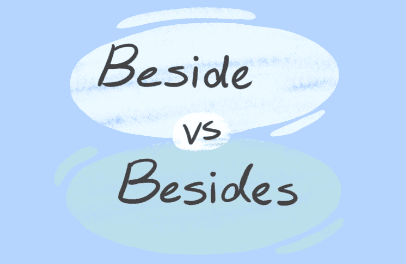
If you're learning English in India, you might have wondered about the words "beside" and "besides." They sound alike but mean different things. It's important to know how to use them correctly, not just for tests but also in everyday talks.
Many think "beside" and "besides" are the same, but they're not. Both can talk about closeness or adding something, which causes confusion. But they have slight differences that are easy to miss.
Don't worry! This article explains the words with clear beside vs besides examples. Plus, we have exercises to practice what you learn. Let's start understanding "beside vs besides" now!
What's The Confusion?
---------------------
Many learners often mix up 'beside' and 'besides', resulting in incorrect English usage. Directly addressing this issue, let's dive into why this happens. Primarily, the two words look and sound quite similar, causing people to use them interchangeably.
Let’s examine some incorrect examples:
1. "Amit is sitting besides Raj." (Incorrect usage of 'besides')
2. "The mother has other concerns beside her child's schooling." (Incorrect usage of 'beside')
So, let's look at what they actually mean.
Beside - Meaning, Usage, and Examples
-------------------------------------
'Beside' is a preposition that generally indicates the position or location of something. In simple words, it means 'at the side of' or 'next to'. For instance, when you say "The pen is beside the notebook", you are stating the pen's location relative to the notebook.
Consider this dialogue between two friends shopping at a local bazaar:
* Ravi: "Where did you keep my bag?"
* Megha: "It's right beside your wallet."
In this example, Megha uses 'beside' to indicate the bag’s position relative to Ravi’s wallet.
Besides - Meaning, Usage, and Examples
--------------------------------------
On the other hand, 'besides' can function both as a preposition and an adverb. As a preposition, it essentially means 'in addition to'. As an adverb, it denotes 'moreover' or 'furthermore'.
Now imagine this scenario:
* Naina: "What are we having for dinner?"
* Kunal: "Besides rajma chawal, I've also made your favourite paneer tikka."
In this dialogue, Kunal uses 'besides' to express that there is something additional to the rajma chawal for dinner.
Understanding these differences between beside vs besides can enhance your English communication skills. Keep practising with more such examples and dialogues relevant to your everyday life in India.
Beside vs Besides - Spotting The Difference
-------------------------------------------
Knowing when to use 'beside' and 'besides' can be tricky, but with practice, you can master it perfectly! Let's solve the beside vs besides meaning confusion right here and now.
### **Beside**
### **Besides**
Meaning
It implies being "at the side of" or "next to."
It means "other than" or "in addition to."
Example
"The book is beside the lamp on the table."
"Besides English, I also speak Hindi and Marathi."
Understanding this 'beside vs besides' difference is crucial. As a minor slip could alter your sentence's meaning entirely. For instance, consider these two sentences:
1\. "Beside his job, he also works as a freelance writer."
2\. "Besides his job, he also works as a freelance writer."
In the first sentence, 'beside' indicates that his job is physically located next to his freelancing work—a nonsensical context. In contrast, the second sentence using 'besides' correctly means that he does freelance writing in addition to his regular job. Quite different meanings, right?
Common Mistakes And How To Avoid Them
-------------------------------------
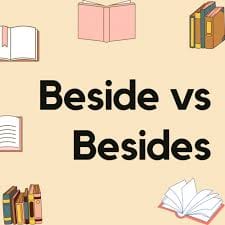
Here are some common mistakes when it comes to 'beside' and 'besides':
1. Using 'beside' when trying to express an additional point. _Incorrect - "Beside studying, I love playing cricket." Correct_ - "Besides studying, I love playing cricket."
2. Using 'besides' when referring to physical proximity. _Incorrect - "My house is besides the park." Correct_ - "My house is beside the park."
To avoid these mistakes, keep these practical solutions in mind:
* Always remember their basic meanings. 'Beside' denotes location, while 'besides' implies addition or exception.
* Read and write frequently. Using 'beside vs besides' exercises in your study routine could be beneficial.
* Practice speaking English. Use both words in conversations and ask for corrections if needed.
* Work on 'beside vs besides' worksheets to reinforce your understanding.
For more insightful tips on enhancing your English proficiency, check out our blog at [Clapingo](https://www.clapingo.com/blog).
Quiz Time!
----------
Let's test your understanding with a short quiz:
1. Which word would fit in this sentence? "\_\_\_ being a talented singer, she also plays the violin."
2. What about this one? "I stood \_\_\_ him while he made his speech."
3. And in this sentence? "Are there any subjects you enjoy \_\_\_ history?"
Answers:
1. Besides - here it means ‘in addition to’.
2. Beside - it refers to location or position.
3. Besides - indicates other interests apart from history.
Improve Your English With Clapingo
----------------------------------
Understanding these small differences in English is important for professionals. Whether writing an email, talking about a project, or working internationally. Clapingo gets this and offers coaching with native English speakers to help you. Our platform is flexible and easy to use, fitting various needs and times. Start improving your English with Clapingo today – [book a trial now](https://clapingo.com/book-instant-demo?undefined)!
Final Thoughts
--------------
As we wrap up, we now understand the difference between 'beside' and 'besides'. These two words might look similar, but they have different meanings and uses. Knowing such details helps you speak and write English more clearly.
* 'Beside' means next to, like in "The pen is beside the notebook."
* 'Besides' means in addition to, like in "Besides my daily chores, I also have to finish this assignment."
It might seem hard at first, but keep practising. [Clapingo](https://clapingo.com/) is here to help with flexible schedules and personal coaching. Want to get even better at English grammar? Check Clapingo's [English Grammar guide](https://clapingo.com/blog/learn-english-grammar-step-by-step) made for learners.
FAQs
----
**1\. What is the difference between 'beside' and 'besides'?**
'Beside' is a preposition that means 'next to' or 'at the side of'. For example, "The pen is beside the notebook." On the other hand, 'besides' can also be used as a preposition meaning 'apart from'. Or it can be an adverb meaning 'also' or 'additionally'. For instance, "Besides English, he also speaks Hindi."
**2\. Can you give a few more examples to clarify the usage of beside vs besides?**
As a preposition: "Beside you in this journey, we want to help you improve your English skills."
As an adverb: "Besides learning grammar rules, practising spoken English with Clapingo can boost your confidence."
**3\. How critical is it to use 'beside' and 'besides' correctly in spoken English?**
Precise usage enhances your communication skills and reflects well on your command of the language. However, remember that fluency and confidence are also key in spoken English. Don't let small mistakes hold you back!
---
This blog is powered by Superblog. Visit https://superblog.ai to know more.
---
## Till or Until: Understanding the Differences and Usage
Author: Unknown
Published: 2024-04-30
Meta Title: Understanding 'Till' vs 'Until' in English for Learners
Meta Description: Master 'till' and 'until' usage for better spoken English skills. Unveil their distinctions and grasp them with examples in this informative blog.
Tags: till vs until difference, till vs until examples, till vs until meaning
URL: https://clapingo.com/blog/till-vs-until
Contents
* [What are 'Till' and 'Until'?](#what-are-till-and-until)
* [Till Vs Until: Are they different?](#till-vs-until-are-they-different)
* [Usage of ‘Till’ and ‘Until’ in Everyday Conversations](#usage-of-till-and-until-in-everyday-conversations)
* [Common Mistakes While Using ‘Till’ and ‘Until’](#common-mistakes-while-using-till-and-until)
* [Exercises to Help You Master ‘Till’ and ‘Until’](#exercises-to-help-you-master-till-and-until)
* [Implementing Your Skills in Real-life Scenarios](#implementing-your-skills-in-real-life-scenarios)
* [Quick Recap](#quick-recap)
* [FAQs](#faqs)

At Clapingo, we're dedicated to helping non-native English speakers in India improve their fluency. Today, we're diving into the till vs until differences between 'till' and 'until'. These two prepositions are often confused.
Mixing up 'till' and 'until' can cause mistakes in both speaking and writing English. Using them incorrectly can change what you're trying to say and make communication harder.
This article will give you a clear understanding of 'till' vs 'until'. We'll discuss their meanings and how they're used with examples. Let's get started.
What are 'Till' and 'Until'?
----------------------------
'Till' and 'until' are two English words that often confuse non-native speakers. Let's understand the till vs until meanings one by one.
* 'Till', derived from the Old English word 'til', is a conjunction or preposition, meaning up to the point or time. For instance, "_I'll wait at the station till 5 pm._"
* 'Until' is a more formal term with a similar meaning. Originating from Middle English, it also means up to (the point in time). Like, "_She'll study until she has mastered the topic_."
Both words are used in contexts referring to time but understanding their precise use can be tricky.
Till Vs Until: Are they different?
----------------------------------
Despite having similar meanings, 'till' and 'until' aren't always interchangeable. Let's understand this with a simple table:
### **Till**
### **Until**
Usage
More casual
More formal
Examples
_"Stay till I come."_
_"Stay until I come."_
Misunderstandings
Can sometimes be confused with 'till' in cashier/billing context
Rarely causes confusion
Using 'till' when you mean a cash register (instead of a preposition) may lead to miscommunication. For instance, "_He worked at the till until 10 pm._" Here the first 'till' refers to a cash register and not a point in time.
To avoid such misunderstandings, it's important to understand the till vs until difference.
Usage of ‘Till’ and ‘Until’ in Everyday Conversations
-----------------------------------------------------
Using ‘till’ and ‘until’ correctly can make them sound more fluent and natural. Here are some common till vs until examples that show their correct usage:
* _“Wait here until I return.”_
* _“The shop is open till 9 pm.”_
* _“I can’t leave until the work is done.”_
* _“She will be busy till Friday.”_
Now, let's consider a dialogue snippet:
Anuj: "I've got meetings scheduled all day. Can we catch up for tea later?"
Raj: "Sure, I'm free after 6 pm."
Anuj: "Great! Let's meet at the café near our office. I'll be there till 7 pm."
Raj: "Perfect! I'll be there before then. So, until we meet!"
Common Mistakes While Using ‘Till’ and ‘Until’
----------------------------------------------

A common mistake is using 'till' as an abbreviation of 'until'. This is incorrect because both words have different origins. Also 'til' is actually the abbreviation of 'until'.
Another frequent error is using these words interchangeably. While they are synonyms, their usage depends on sentence structure and style. For instance, 'until' typically sounds more formal than 'till'.
Here are some tips to avoid these errors:
* Remember that 'till' is not short for 'until'; they are separate words.
* Use 'until' in formal conversations or writing.
* Use 'till' in casual dialogues or everyday conversations.
Here are some Clapingo blogs on other commonly confusing words in English.
* [Gone vs Went](https://clapingo.com/blog/gone-vs-went)
* [Sometime vs Some Time](https://clapingo.com/blog/sometime-vs-some-time)
* [Persons vs People](https://clapingo.com/blog/persons-vs-people)
Exercises to Help You Master ‘Till’ and ‘Until’
-----------------------------------------------
Here are a few exercises to help you practice ‘till’ and ‘until’:
1\. Fill in the blanks:
a) I will wait here \_\_\_\_\_\_\_\_ you return.
b) Keep stirring the curry \_\_\_\_\_\_\_\_ it boils.
c) He was working \_\_\_\_\_\_\_\_ late at night.
2\. Correct the errors:
a) I will not go till you don't come back.
b) We can't start until everyone doesn't arrive.
The answers are:
1a - until, 1b - till, 1c - until, 2a - I will not go until you come back, 2b - We can't start until everyone arrives.
Implementing Your Skills in Real-life Scenarios
-----------------------------------------------
Understanding the use of 'till' vs 'until' can improve your communication skills. Whether in job interviews, workplace interactions, or even casual social conversations. Imagine confidently explaining your availability to a recruiter. "I_'m currently working on my project until October_." Or telling a colleague: "_The meeting has been extended till 5 p.m._"
Improving your English skills not only makes you feel more confident but also helps you grow professionally. To get better at using English correctly, try Clapingo's personalized coaching with native English speakers who can teach you the finer points of grammar. Here's a video to give you a taste of Clapingo sessions.
Quick Recap
-----------
Before we wrap up this guide on 'till' vs 'until', let’s quickly revisit the essential points we've discussed so far. Remember, mastering English requires patience, practice, and persistence. We hope with our detailed explanation of till vs until usage, you can now confidently use these words in your daily conversations.
The till vs untill difference is subtle yet significant. Though both refer to a time that is up to a certain point or before a particular moment, 'till' is more informal and less frequently used than ‘until’ in written English.
To reiterate, here are some quick takeaways:
* Use 'till' in informal conversations
* Opt for 'until' in formal contexts or written English
* Practice using both words in different sentences
Finally, remember that consistent practice is key to progress. To make your learning journey easier, you might want to consider [Clapingo's](https://clapingo.com/) personalised one-on-one sessions. These sessions provide ample opportunities to practise and receive feedback on your till vs until usage of phrases like "till" and "until", among other aspects of spoken English.
[Book a quick trial now!](https://clapingo.com/book-instant-demo)
FAQs
----
**1\. What is the main till vs until difference?**
The words 'till' and 'until' essentially have the same meaning, signifying up to a particular point in time. However, there can be slight variations based on usage and context. For example, 'till' is often used in informal spoken English, while 'until' is more common in formal written English.
**2\. Can you provide some till vs until examples?**
Certainly! Here's how you can use them in a sentence:
* Till: "I can't leave till I finish my work."
* Until: "She will stay here until her parents arrive."
**3\. Is one more grammatically correct than the other – 'till' or 'until'?**
Both are grammatically correct and accepted in English language usage. However, the choice between "till" and "until" can depend on the degree of formality or the rhythm of speech required in a particular context.
**4\. What about ‘til’? How does that fit into the ‘till’ vs ‘until’ debate?**
‘Til’ is actually a shortened form of 'until', often used informally or in poetry to maintain rhythm. However, experts suggest it’s best to stick with either till or until to avoid any confusion.
---
This blog is powered by Superblog. Visit https://superblog.ai to know more.
---
## Book Your Next Session With Your Favourite Tutors
Author: Unknown
Published: 2024-04-25
Meta Title: Book a session with your favourite tutor - Clapingo guide
Meta Description: Guide: How to Book Sessions with Your Favorite Tutors: Add Teachers to Your Favorites List and Schedule Convenient English Learning Sessions with Them.
Tags: Clapingo tutor, Book session with Tutor, Book session
URL: https://clapingo.com/blog/book-session-favourite-tutor
Here are some ways to go about it…
There are 3 ways to do this.
Options 1 & 2 would be the easiest ways to ensure session bookings.
1. **Tutor Search**
2. **Favourite Tutor**
3. **Chat To Book**
**Option 1: Tutor Search**
---------------------------
### Step 1: Use the search option in the ‘Book Session’ tab to find preferred tutors.
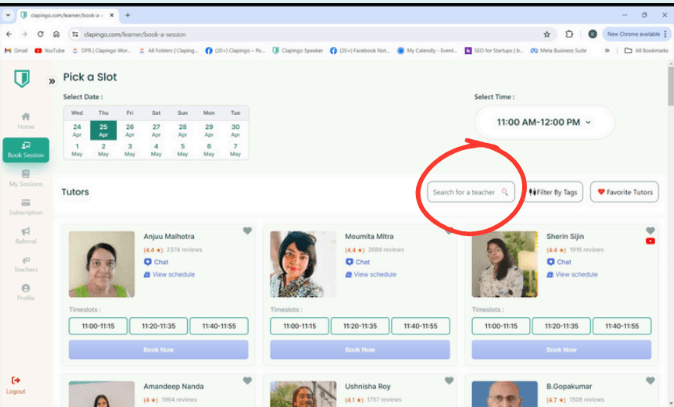
**Web Dashboard**
****
**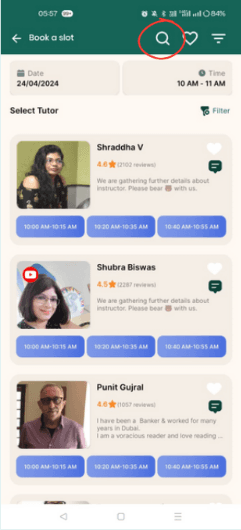**
**Android App**
### Step 2: Type their name in the search box and click on the search icon**.**
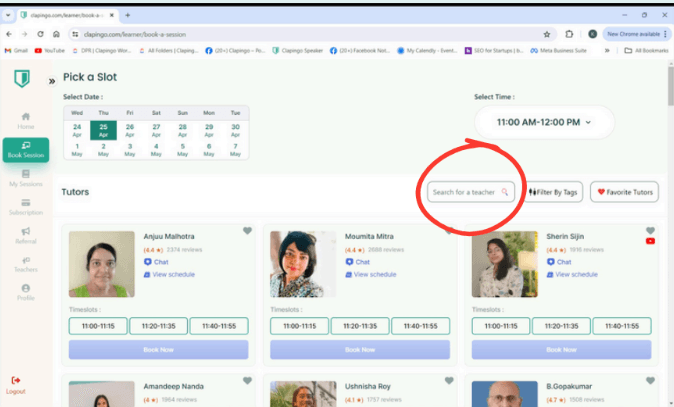
**Web Dashboard**

**Android App**
### Step 3: Their tutor card will pop up. Select ‘View Schedule’ on the website or click on their card on the Mobile App.
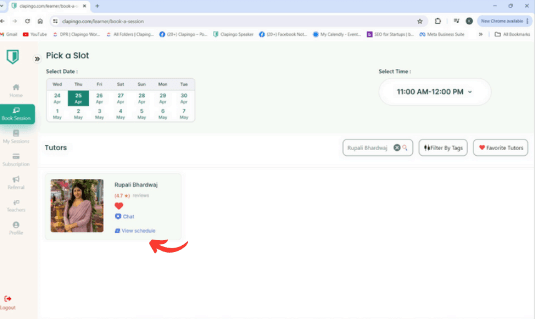
**Web Dashboard**

**Android App**
### Step 4: Choose the date and select an available time slot at your convenience.
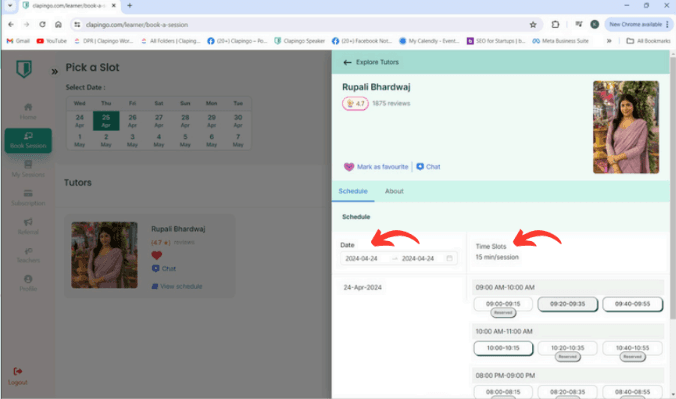
**Web Dashboard**
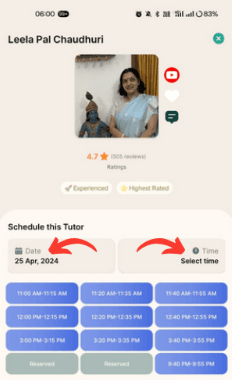
**Android App**
### Step 5: Check the date and time you have selected & confirm your booking.
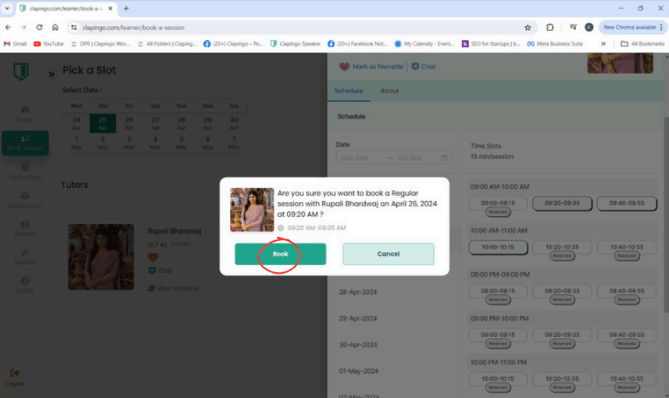
**Web Dashboard**
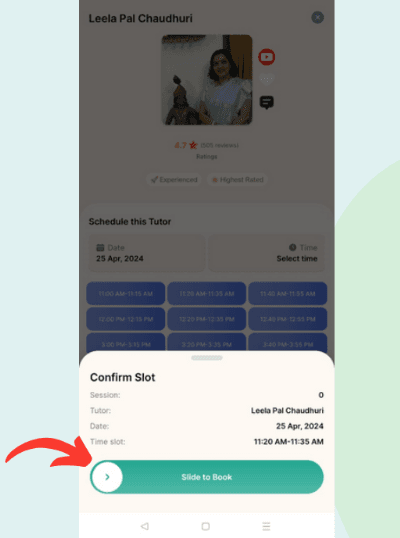
**Android App**
**Your session will then be added to your upcoming sessions.**
Option 2: Favourite Tutor
----------------------------
### Step 1: When you come across a tutor you like, you can click on the heart to mark them as your favorite.
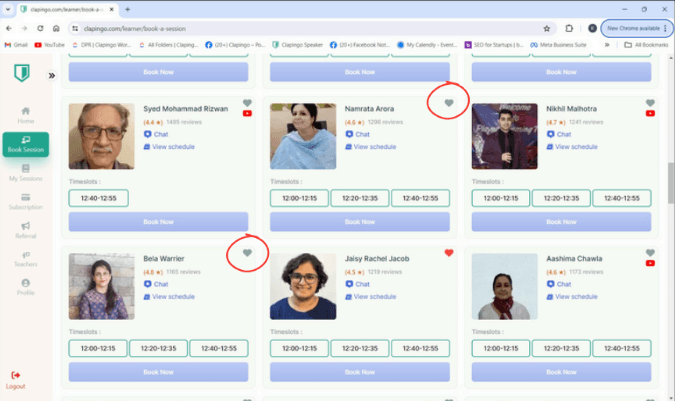
**Web Dashboard**
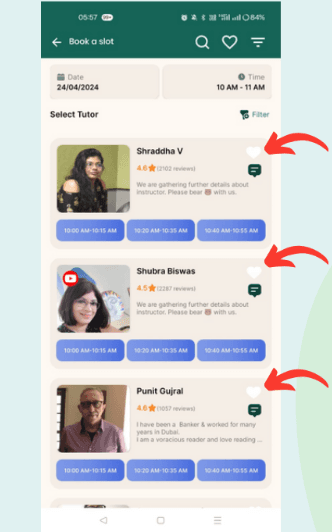
**Android App**
### Step 2: You can select the favorite tutor filter to find all your favorite tutors in one place
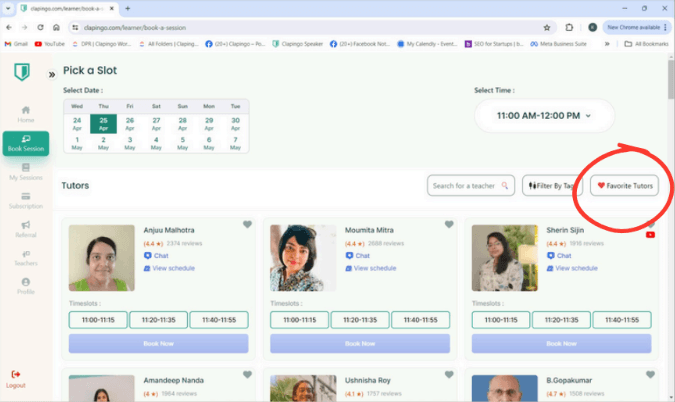
**Web Dashboard**
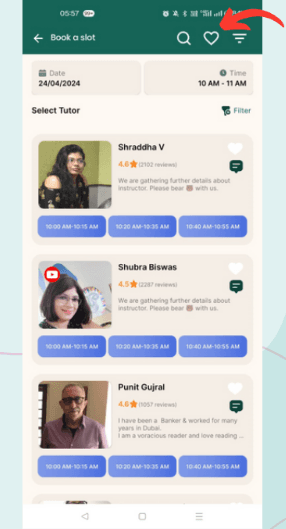
**Android App**
### Step 3: You will now be able to view all your favorite tutors. You can select a tutor of your choice.
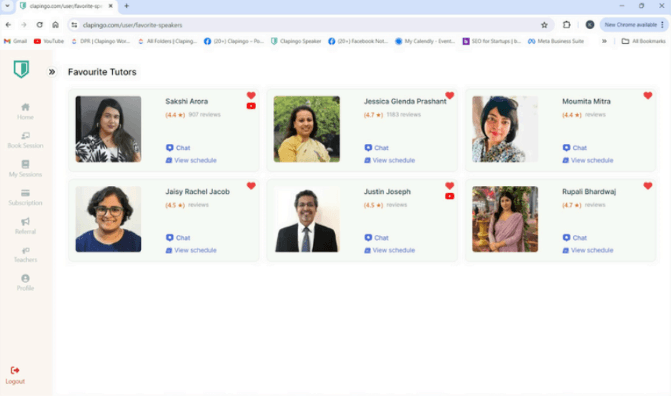
**Web Dashboard**
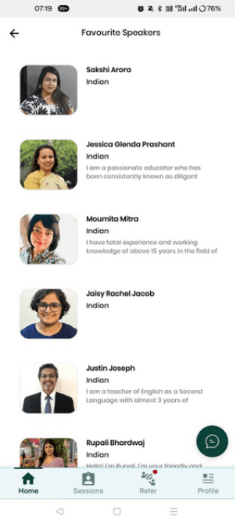
**Android App**
### Step 4: Select ‘View Schedule’ on the website or click on their card on the Mobile App.
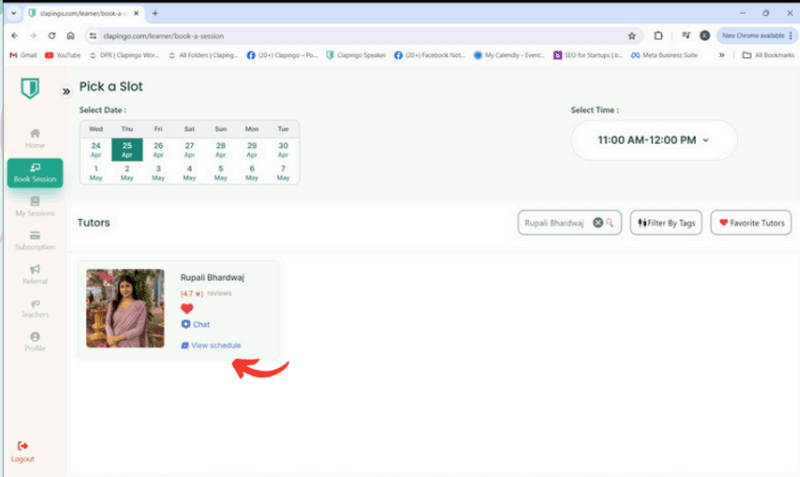
**Web Dashboard**
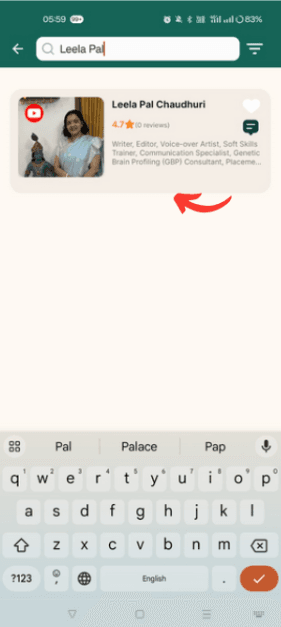
**Android App**
### Step 5: Choose the date and select an available time slot at your convenience.
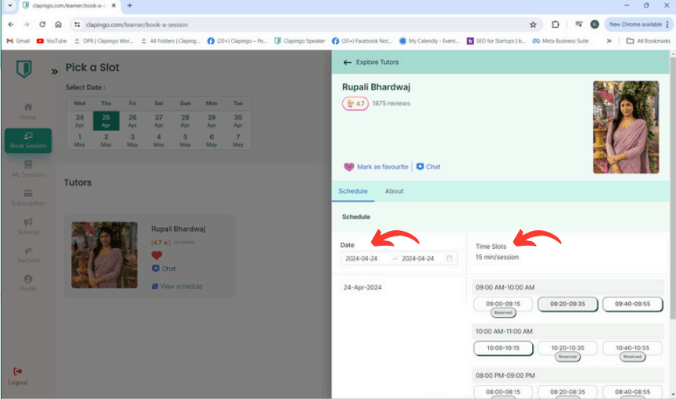
**Web Dashboard**
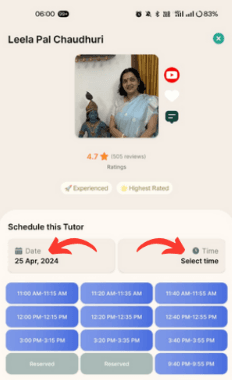
**Android App**
### Step 6: Check the date and time you have selected & confirm your booking.
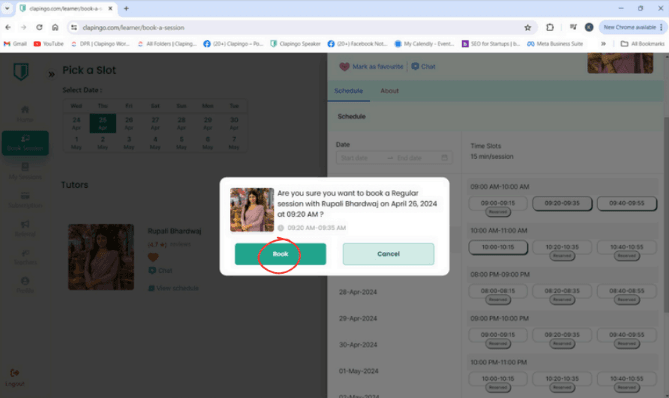
**Web Dashboard**
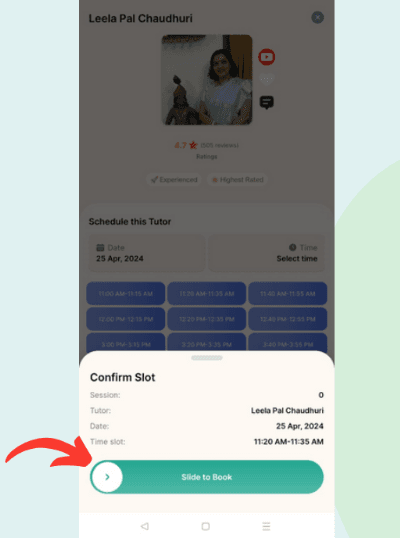
**Android App**
**Your session will then be added to your upcoming sessions.**
**Don’t worry if Options 1 & 2 don’t work for your convenience.**
**You always have Option 3 as a backup!**
Option 3: Chat To Book
--------------------------
You can use the Tutor Search or Favourite Tutor options to find your preferred teacher.
If their slots are unavailable or they have not provided slots for your preferred time, you can request a speaker to schedule a session.
### Step 1: Select ‘View Schedule’ on the website or click on their card on the Mobile App and check their availability for the date of your choice.
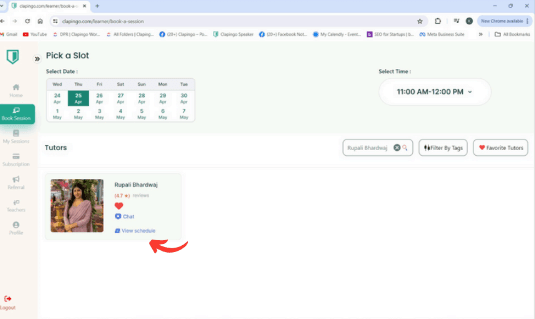
**Web Dashboard**

**Android App**
### Step 2: Please click on the chat option.
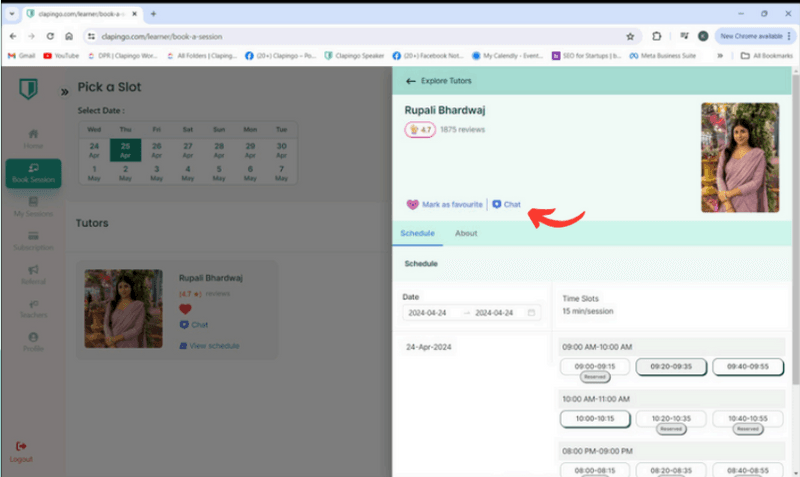
**Web Dashboard**
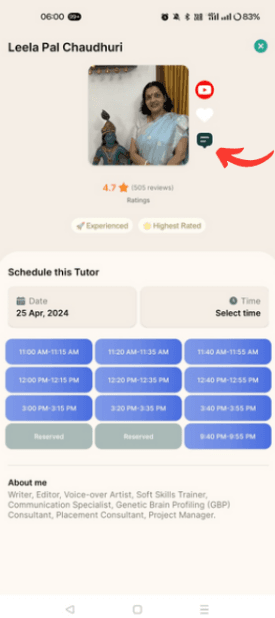
**Android App**
### Step 3: Select ‘Request to schedule a session’
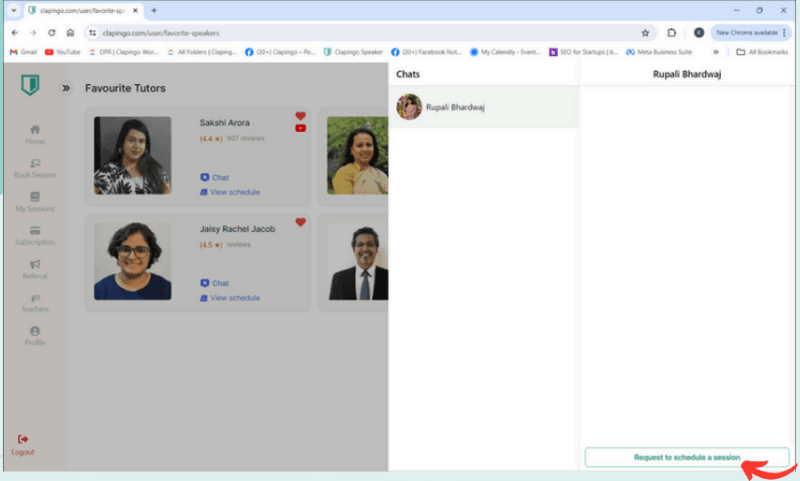
**Web Dashboard**
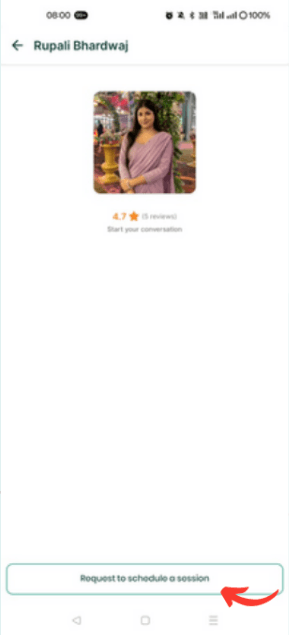
**Android App**
### Step 4: Select a Date & Time of your choice.
### (If they are already reserved for that time, the speaker will not be available to accept your request)
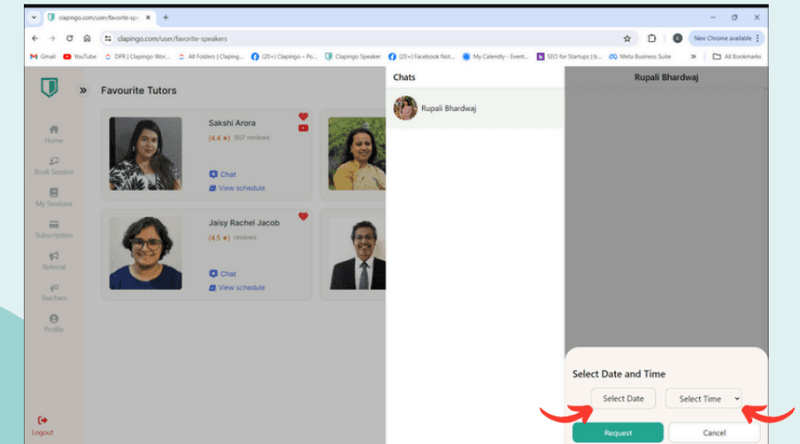
**Web Dashboard**
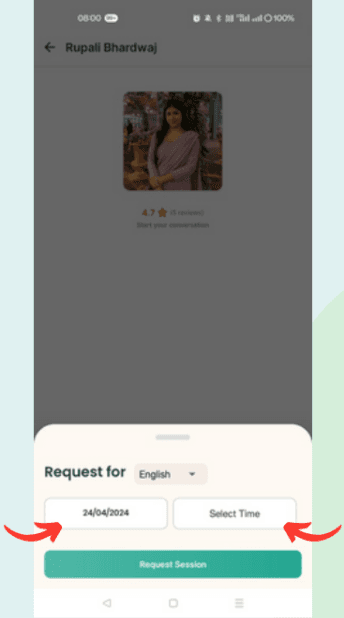
**Android App**
### Step 5: Click on the request button to send the request to the tutor.
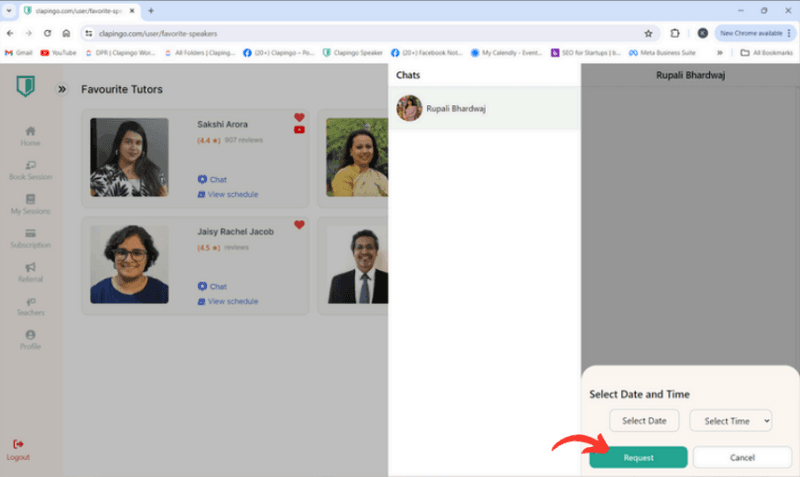
**Web Dashboard**
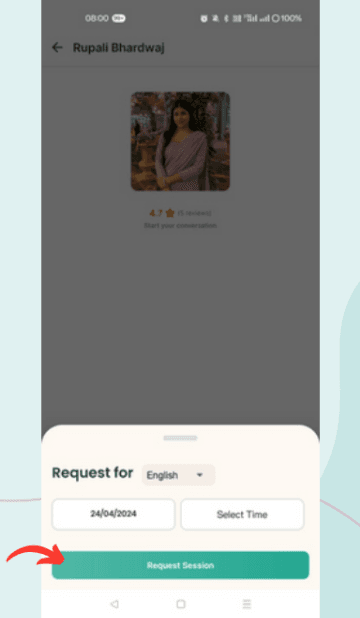
**Android App**
**The tutor will then be able to accept your request and schedule the session for the requested time.**
Your session will then be added to your upcoming sessions. (The tutor may decline your request based on their availability)
**Booking sessions with your favourite tutors is NOW EASY PEASY LEMON SQUEEZY!**
**Thank you**
**Happy Learning!**
---
This blog is powered by Superblog. Visit https://superblog.ai to know more.
---
## Who vs Whom: Understanding Pronouns in Everyday Language
Author: Unknown
Published: 2024-04-20
Meta Title: Who vs Whom: Understanding the Difference and Meaning
Meta Description: Clear up the mix-up between 'Who' and 'Whom' with practical examples and tips. Improve your English speaking with Clapingo, especially for learners in India.
Tags: Who vs Whom meaning, Who vs Whom difference, Who vs Whom examples
URL: https://clapingo.com/blog/who-vs-whom
Contents
* [Understanding the Basics: Who vs Whom?](#understanding-the-basics-who-vs-whom)
* [Why is it Important to Know When to Use Who or Whom?](#why-is-it-important-to-know-when-to-use-who-or-whom)
* [Who vs Whom: What’s the Rule?](#who-vs-whom-whats-the-rule)
* [Making it Simple: The Who Vs Whom Trick](#making-it-simple-the-who-vs-whom-trick)
* [Practical Exercises: Who vs Whom Practice](#practical-exercises-who-vs-whom-practice)
* [Dealing with Exceptions: When Rules Don’t Apply](#dealing-with-exceptions-when-rules-dont-apply)
* [Continuing Your Learning Journey: How can Clapingo Assist?](#continuing-your-learning-journey-how-can-clapingo-assist)
* [To Sum Up](#to-sum-up)
* [FAQs](#faqs)

Ever been writing an email or speaking and got stuck on whether to use 'who' or 'whom'? You're not the only one. Many people find these words confusing and might guess or avoid using them.
Don't worry! This blog will simplify 'who' vs 'whom', showing you easy rules, examples, and a quick trick to remember the who vs whom difference. With our guide and some who vs whom practice exercises, you'll soon use these words correctly in your daily conversations. Let's start!
Understanding the Basics: Who vs Whom?
--------------------------------------
Let's clarify one thing first. 'Who' and 'whom' are not interchangeable, even though many may use them that way. They have their own grammatical identities.
'Who' is a subject pronoun, like 'he', 'she' and 'I'. It refers to the person performing an action. For example, "_Who ate the last piece of cake?_"
On the other hand, 'whom', just like 'him', 'her', and 'us', is an object pronoun. It refers to the person on the receiving end of an action. For instance, "_Whom did you invite to your birthday party?_"
Here's a quick summary:
* Use 'who' when referring to the doer of an action.
* Use 'whom' when referring to the receiver of an action.
Why is it Important to Know When to Use Who or Whom?
----------------------------------------------------
Using 'who' and 'whom' correctly can really improve your English, especially at work. It shows you know your grammar well and makes a good impression on coworkers or bosses. These small details can even help your career grow a lot.
In personal situations too, using proper grammar could make you sound more confident and articulate. Want to know more about how English fluency can enhance your career prospects? Have a look at this blog post [here](https://clapingo.com/blog/english-speaking-practice).
Who vs Whom: What’s the Rule?
-----------------------------
Understanding the who vs whom difference can be difficult, especially for non-native speakers of English. However, knowing this grammatical rule can improve your spoken English significantly.
'Who' is a subjective pronoun, used in place of the subject in a sentence. It's like 'he', 'she', or 'we'. For example, "_Who is going to the market?_"
'Whom' is an objective pronoun, used in place of the object. It's similar to 'him', 'her', or 'us'. For instance, "_Whom did you give the ticket to?_"
**Pronoun Type**
**Example Pronouns**
**Usage in Sentence**
**Example**
Subjective
He, She, They
Used as Subject
_Who is reading?_
Objective
Him, Her, Us
Used as Object
_With whom are you going?_
Making it Simple: The Who Vs Whom Trick
---------------------------------------

The trick to remember the who vs whom usage lies in an easy swap method that you can apply while forming sentences.
* If your sentence makes sense with a subjective pronoun (he/she/they), use 'who'.
* If it works with an objective pronoun (him/her/them), use 'whom'.
Let's break it down:
1. Write your sentence with a blank where 'who' or 'whom' should be.
2. Try filling in that blank with ‘he’ or ‘him’.
3. If ‘he’ sounds correct, use ‘who’. If ‘him’ sounds better, use ‘whom’.
For instance:
* \_\_\_\_(1)\_\_\_\_ did you invite?
* I invited \_\_\_\_(2)\_\_\_\_. (him or he?)
* I invited him. – Correct.
* So, the correct sentence is: 'Whom did you invite?'
There you go! The who vs whom trick is simplified for easy practice!
### Practical Exercises: Who vs Whom Practice
Ready to test your understanding of who vs whom difference? Try these exercises!
1. \_\_\_(Who/Whom) did you give the book to?
2. \_\_\_(Who/Whom) wrote this novel?
3. To \_\_\_(Who/Whom) should we send these documents?
Here are the answers:
1. Whom - The book (object) is receiving the action (give).
2. Who - The subject is performing the action (wrote).
3. Whom - The documents (object) are receiving the action (send).
Dealing with Exceptions: When Rules Don’t Apply
-----------------------------------------------
In our endeavor to master the "who vs. whom" usage, it's essential to note there are times when rules may not apply. Language is fluid, and sometimes, it defies set structures—especially in spoken English.
For instance, even though "whom" is correct following prepositions (like "to," "from," or "about"), colloquial conversation might often ignore this rule. So while you'd learn to say, "_To whom was the letter written?_" in a formal setting, you're more likely to hear someone ask, "_Who was the letter written to_?" in casual speech.
Another exception occurs in questions ending with a verb. The standard rule would suggest using "whom," as in, "_Whom are you referring to?_" However, many native speakers might instead ask, "_Who are you referring to?_"
Remember, it's all about striking a balance between correctness and context.
Continuing Your Learning Journey: How can Clapingo Assist?
----------------------------------------------------------
At Clapingo, we know learning the difference between 'who' and 'whom' can be hard for those not native to English. But we've got your back! Our native English-speaking tutors are ready to make the concept clear with 'who vs whom' examples and exercises.
Yet, getting English right isn't just about 'who' and 'whom.' You need to know vocabulary, pronunciation, sentence structure, and more. That's why we invite you to keep learning with us, through our resources and personalized coaching.
We suggest reading more about topics like pronunciation stress or increasing your vocabulary with fun activities. Every step you take is one more toward being fluent in English!
To Sum Up
---------
Understanding the difference between 'who' and 'whom' is important for English learners. Remember, use 'who' when you're referring to the subject of a clause and 'whom' for the object. For instance, "_Who wrote this book?_" versus "_To whom was the book gifted?_".
The trick lies in replacing 'who' or 'whom' with he/she or him/her respectively. If he/she fits, use who; if him/her fits, it's whom.
It might seem daunting at first, but regular practice makes perfect. With [Clapingo’s](https://clapingo.com/) one-on-one coaching sessions, you can practice and perfect your usage of 'who' and 'whom'. Remember, knowing the who vs whom difference is a small step towards becoming confident and fluent English speakers. Keep practising and keep learning!
### FAQs
**1\. What is the difference between 'who' and 'whom'?**
The simplest tip to remember is that 'who' refers to the subject of a sentence who performs an action, whereas 'whom' refers to the object that receives an action. For example, "Who wrote this book?" versus "Whom did you give the book to?"
**2\. Are there specific rules when forming who vs whom questions?**
When forming a question, if you're referring to the person doing an action, use 'who'. If you're referring to someone receiving an action or something being done for/to them, use 'whom'. For instance, "Who made the chai?" versus "Whom was the chai made by?"
**3\. How important is it to use ‘who’ and ‘whom’ correctly?**
While it might seem daunting at first, correct who vs whom usage can significantly enhance your English communication skills. In professional settings - interviews, presentations or meetings – it adds polish to your language and makes a positive impression.
---
This blog is powered by Superblog. Visit https://superblog.ai to know more.
---
## Mastering Pronoun Precision: The Ultimate Guide to Who's vs Whose
Author: Unknown
Published: 2024-04-20
Meta Title: An Indian English Learner's Guide to 'Who's' vs 'Whose'.
Meta Description: Unravel the confusion between 'who's' and 'whose'. Step into this comprehensive guide for enhancing your spoken English speaking skills with clarity.
Tags: Who's vs Whose definition, Who's vs Whose tips, Who's vs Whose difference, Who's vs Whose meaning, Who's vs Whose examples
URL: https://clapingo.com/blog/whos-vs-whose
Contents
* [Understanding 'Who's'](#understanding-whos)
* [Understanding 'Whose'](#understanding-whose)
* [Comparison: Who’s vs Whose](#comparison-whos-vs-whose)
* [Common Mistakes with Who’s and Whose](#common-mistakes-with-whos-and-whose)
* [Mastering 'Who's' and 'Whose': Practical Tips and Tricks](#mastering-whos-and-whose-practical-tips-and-tricks)
* [Overcoming Challenges with 'Who's' vs 'Whose' in India](#overcoming-challenges-with-whos-vs-whose-in-india)
* [The Bottomline](#the-bottomline)
* [Frequently Asked Questions:](#frequently-asked-questions)
* [You may want to read](#you-may-want-to-read)

Navigating English can be difficult for non-native speakers. Let's take a common situation: Imagine you're writing an email about a colleague. Now, should you write, "_Who's the owner of the document?_" or "_Whose is the document?_" It's easy to get confused between who's and whose.
In India, where we use many languages daily, this confusion with English is normal. We might hesitate before sending an email or making a presentation because of doubts about who's and whose.
This guide will clear up the who's vs whose confusion. With simple explanations and examples for Indian learners, you'll understand the who's vs whose meaning. Let's tackle who's vs whose grammar together, so you can communicate without hesitation. Stay tuned for more!
Understanding 'Who's'
---------------------
'Who's', in the English language, is a contraction—an abbreviation of "who is" or "who has". This contraction is used when talking about someone doing something or possessing something. Each time you think about using 'who’s', substitute it with 'who is' or 'who has' to check if your sentence still makes sense.
For example, consider the sentence “_Who's coming to the cricket match tonight?_" Here, 'who’s' means 'who is'. Now let’s look at another example: "W_ho's got the tickets for the movie?_" In this case, 'who’s' stands for 'who has'.
Understanding 'Whose'
---------------------
Let's move on to 'whose'. It's a possessive pronoun that shows ownership or association. It asks to whom a thing or person belongs and is commonly used in questions.
Imagine you found an umbrella at the bus stop and want to know who it belongs to. You'd most likely ask, “_Whose umbrella is this?_" Here, you're using ‘whose’ correctly to inquire about ownership. Another example could be: "_Whose idea was it to order butter chicken for dinner?_" In this case, you're asking about the originator of an idea.
Comparison: Who’s vs Whose
--------------------------
Let's take a closer look at the two terms, 'Who's' and 'Whose'. They may sound similar but their meanings and usage are quite different. Here's a handy table to understand the who's vs whose meaning:
**Term**
**Meaning**
**Usage**
**Example**
Who's
Contraction of 'who is' or 'who has'
Commonly used to refer to an individual or ask about identity. It is also used for present perfect constructions.
_Who’s going to lead the project?_
Whose
Used to indicate possession.
It asks about ownership of something by someone.
_Whose laptop did you borrow?_
Common Mistakes with Who’s and Whose:
-------------------------------------
Here are some common mistakes often made by English learners:
* Misunderstanding the contraction "Who's" as indicating possession, instead of being short for "who is" or "who has".
Example:
Incorrect - "_Who's bag is this?_"
Correct - "_Whose bag is this?_"
* Confusing the use of “Whose” as a question word with it meaning “of whom”.
Example:
Incorrect - “_I don’t know whose he is talking._”
Correct - “_I don’t know who's (who is) talking._”
These mix-ups can be avoided with practice and understanding how to use who's vs whose in a sentence. There are many similar confusing words in English. Here are some Clapingo blogs that might be helpful to you:
* [Whoever vs Whomever](https://clapingo.com/blog/whoever-vs-whomever)
* [Gone vs Went](https://clapingo.com/blog/gone-vs-went)
* [Each vs Every](https://clapingo.com/blog/each-vs-every)
Mastering 'Who's' and 'Whose': Practical Tips and Tricks
--------------------------------------------------------

Understanding the difference between 'who’s' and 'whose' can be tricky. Here are some tips to help you:
1. Remember that 'who's' is a contraction of "who is" or "who has". So when you want to say "_Who is there?"_, you could also say "_Who's there?_".
2. 'Whose' indicates possession. It’s similar to “his”, “her” or “their”. For example, you could ask "_Whose book is this?_".
Keep up with your who's vs whose practice until it feels natural. Try swapping out 'who is' and 'who has' with 'who’s', and ‘his’, ‘her’ or ‘their’ with ‘whose’ in a sentence as part of your practice.
For more English tips and tricks, check out [Clapingo's YouTube channel](https://www.youtube.com/@Clapingo/featured).
Overcoming Challenges with 'Who's' vs 'Whose' in India
------------------------------------------------------
Misusing similar-sounding words like "who's" and "whose" is a common problem for Indian English learners. These words sound almost the same, leading to confusion. But understanding the difference between "who's" and "whose" can greatly improve your English fluency.
Here's an easy trick: "Who's" means "who is" or "who has," as in "_Who's going to the market?_" On the other hand, "Whose" shows ownership, like in "_Whose phone is this?_"
Mixing up these words can mess up your grammar and cause communication problems. But don't worry! Clapingo offers personalized coaching with native English speakers. You'll get clear explanations and who's vs whose examples and practice exercises to master these tricky words.
The Bottomline
--------------
We've unravelled the mystery surrounding 'who's' and 'whose'. To recap, 'who's' is simply a contraction of 'who is' or 'who has', while 'whose' is a possessive pronoun showing ownership. For instance, in the sentence "_Who's coming to the party?_" 'Who's' stands for 'who is'. Conversely, in "_Whose car is this?_", 'whose' signifies ownership of the book.
The path to mastery lies in consistent who's vs whose practice. Try using these terms in your conversations or written communications and observe how others use them.
Remember, learning any language takes time and patience. In the grand scheme of perfecting English, understanding the difference between 'who's vs whose' is a crucial step forward.
Continue this journey with [Clapingo](https://clapingo.com/) to refine your English skills further.
Frequently Asked Questions:
---------------------------
**1\. What is the difference between 'Who's' and 'Whose'?**
"Who's" is a contraction of "who is" or "who has," used in questions and sentences. For example, "_Who's coming to the meeting?_" On the other hand, "Whose" is a possessive pronoun, used to show ownership or relationship. For example, "_Whose book is this?_"
**2\. Can you give examples of 'Who's' vs 'Whose' in a sentence?**
Sure, here are some who's vs whose examples:
* Who's (Who is): "_Who's responsible for this presentation?_"
* Who's (Who has): "_Who's got the new project details?_"
* Whose: "_Whose pen is this on the table?_"
**3\. When should I use 'Who's' and when should I use 'Whose'?**
Use "Who's" when you want to say "who is" or "who has." Use it in questions or statements where you are asking about someone’s actions or status. Conversely, use "Whose" when you want to identify ownership or relationships between people.
### **You may want to read**
**[11 Of The Best Apps For Improving Your English Speaking Skills](https://clapingo.com/blog/best-apps-english-speaking)**
---
This blog is powered by Superblog. Visit https://superblog.ai to know more.
---
## The Tale of Two Spellings: 'Learned' vs 'Learnt'
Author: Unknown
Published: 2024-04-20
Meta Title: Learned vs Learnt: A Guide to Clarifying the Confusion.
Meta Description: Discover the differences between 'learned' and 'learnt', their correct usage, and easy examples, practical tips to improve your spoken English skills.
Tags: learned vs learnt difference, learned vs learnt meaning, learned vs learnt examples, learned vs learnt
URL: https://clapingo.com/blog/learned-vs-learnt
Contents
* [Understanding the Difference between Learned and Learnt](#understanding-the-difference-between-learned-and-learnt)
* [When to Use 'Learned' vs 'Learnt'?](#when-to-use-learned-vs-learnt)
* [The Impact of Culture on Language Learning: An Indian Perspective](#the-impact-of-culture-on-language-learning-an-indian-perspective)
* [Common Mistakes with Learned and Learnt & How to Avoid Them](#common-mistakes-with-learned-and-learnt-and-how-to-avoid-them)
* [Role of Online Learning Platforms in Enhancing English Skills](#role-of-online-learning-platforms-in-enhancing-english-skills)
* [Quick Recap](#quick-recap)
* [FAQs](#faqs)

Imagine this: You've finished a tough project at work and feel proud of what you've achieved. You want to tell your English-speaking colleague, "I learnt a lot from this project." But then you hesitate—should it be learned or learnt? Sound familiar? Figuring out words like these can be confusing, especially for non-native English speakers.
Understanding the difference between 'learned' and 'learnt' isn't just about grammar. It's about expressing yourself clearly, which matters in both personal and professional conversations. Making a small mistake, like using 'learned' instead of 'learnt', can make you feel uneasy and less sure.
In this article, we'll explore 'learned vs learnt' meanings in different situations and how to use them correctly. We'll use examples that Indian readers can relate to. Stick with us to clear up any confusion about these terms!
Understanding the Difference between Learned and Learnt
-------------------------------------------------------
'Learned' and 'Learnt' are two words that seem to confuse many English learners. Both are past tense forms of the verb 'learn'. It means to acquire knowledge or skills in something through study, experience, or teaching.
The main difference between these two terms lies in their region-specific application. 'Learned', pronounced as **/ləːnd/**, is widely used in American English. While British English favours 'learnt', pronounced as **/ləːnt/**.
### **Learned**
### **Learnt**
Origin
Old English
Variant of Learned
Usage
American English
British English
When to Use 'Learned' vs 'Learnt'?
----------------------------------
The context in which these spellings are used can vary. As previously mentioned, ‘learned’ is predominantly used in American English[.](https://www.clapingo.com/blog/american-vs-british-english-differences\).) For instance, “_I have learned so much from this workshop._”
Meanwhile, ‘learnt’ finds is primarily used in British English. Example: “_I’ve just learnt about the meeting tomorrow_.”
Consider these contexts:
* In an American workspace: "_We have learned new strategies for customer engagement._"
* Chatting with a friend from UK: "_Guess what? I've learnt how to cook biryani!_"
Here's a quick guide:
* Use ‘learned’: When writing for an American audience.
* Use ‘learnt’: While communicating with British English speakers.
Want to explore other words that differ in UK and US English? Check out the Clapingo blogs on a few of them:
* [Favourite vs Favorite](https://clapingo.com/blog/favourite-vs-favorite)
* [Defense vs Defence](https://clapingo.com/blog/defence-vs-defense)
* [Canceled vs Cancelled](https://clapingo.com/blog/canceled-vs-cancelled)
The Impact of Culture on Language Learning: An Indian Perspective
-----------------------------------------------------------------
India's diverse cultural mix, including its many languages, shapes how we learn English. Our history of British colonialism also gave us a blend called Indian English, mixing British and American styles with local dialects. This mix creates unique phrases and expressions not found in 'standard' English. For example, in India, "pass out" means graduating, unlike its usual meaning.
Respectful communication is also vital in our culture, leading to polite phrases like 'Could you please...' or indirect speech, even when direct speech might work.
Understanding these cultural quirks and adjusting how you speak can boost your interpersonal skills, especially in global communications.
Common Mistakes with Learned and Learnt & How to Avoid Them
-----------------------------------------------------------
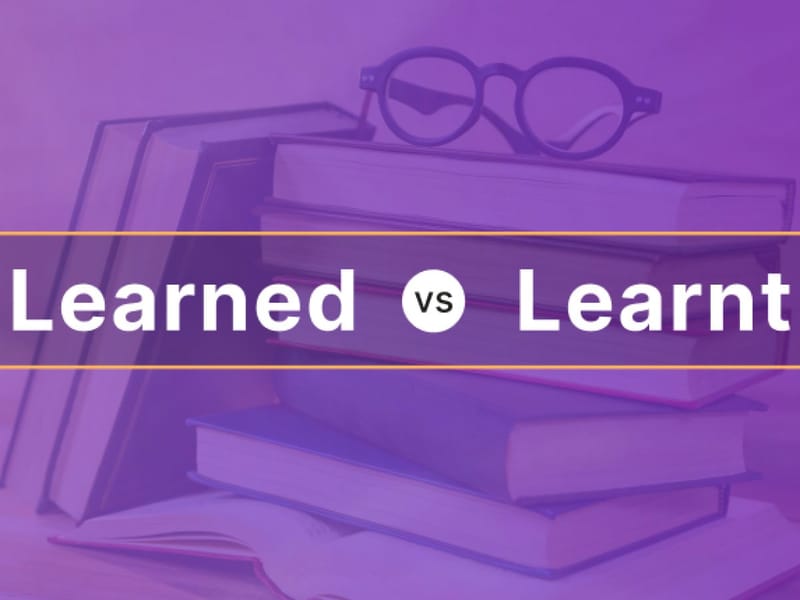
In India, due to our British colonial past, "learnt" is more commonly used than "learned." However, many learners aren't aware that both forms are correct but just used differently in British and American English.
Here are some common mistakes:
1. Using 'learnt' in written American English. While "learnt" is acceptable in spoken contexts or informal writing, stick to "learned" for formal American English writing.
2. Interchanging learnt/learned haphazardly. Consistency matters. If you're using British English rules in a document, stick to "learnt" in all the places.
To avoid these pitfalls:
* Be aware of the intended audience and adjust your language usage accordingly.
* Practice using both forms in sentences. For instance, "I learned (AmE) / learnt (BrE) how to bake a cake yesterday."
For more such common mistakes and their solutions, check out this helpful Clapingo video.
Role of Online Learning Platforms in Enhancing English Skills
-------------------------------------------------------------
In today's digital world, online platforms like Clapingo are a great help for people learning languages, especially in India. They provide a relaxed and flexible way to improve your English skills at your own speed. Whether you just want to improve your spoken English or you are preparing for the IELTS, Clapingo can help you.
One big advantage of these platforms is their personalized coaching sessions. Learning English isn't just about knowing more words or grammar. Understanding details like this is also important when you are crafting simple sentences. Like '_I_ _have learned vs learnt a lot from my mentor_.'
Clapingo plans sessions that focus on these small differences. Their English-speaking tutors can help you understand these details by explaining how they're used in real life.
This makes online platforms a great way to improve your English skills without giving up convenience or comfort.
Quick Recap
-----------
Let's quickly go over what we've talked about regarding the differences between 'learned' and 'learnt'. The big difference is where they're used. 'Learned' is more common in American English, while 'learnt' is used more in British English.
But neither is wrong! Both are right and understood everywhere. The trick is using the one that fits best the context/audience. These small differences in language can make you stand out as a skilled English speaker.
So, enjoy learning more about these interesting parts of English. Platforms like [Clapingo](https://clapingo.com/) can help non-native speakers get better at English at home. Remember, every lesson you learn is a step toward speaking English confidently.
FAQs
----
**1\. What is the difference between learned and learnt?**
Both 'learned' and 'learnt' are used to describe the past tense of learning. However, the use of these words depends on the region. In British English, which is commonly used in India, 'learnt' is more popular. For instance, you might say "_I learnt a new recipe today_". On the other hand, 'learned' is preferred in American English. Either way, both learned vs learnt mean something that was understood or acquired.
**2\. Can I switch between using learned and learnt?**
While consistency is important, switching between 'learned' and 'learnt' won't affect your communication. If you're writing for an international audience or speaking with Americans, using 'learned' might be more suitable. But for everyday conversations or professional communication in India, either can be used.
**3\. Are there other verbs like learn that follow this pattern?**
Yes! Many verbs in English can have two forms for simple past tense and past participle—one ending with '-ed' and another ending with '-t'. Examples include spilled/spilt, dreamed/dreamt, burned/burnt, etc. The '-t' ending is more common in British English, while the '-ed' ending is favoured in American usage.
---
This blog is powered by Superblog. Visit https://superblog.ai to know more.
---
## The Power of One or Many: Singular vs Plural Explored
Author: Unknown
Published: 2024-04-20
Meta Title: Understanding Singular and Plural Forms for Indian Learners
Meta Description: Make learning English easier with this guide on singular and plural forms. Get helpful tips, practical exercises, and easy examples to improve your skills.
Tags: Singular vs Plural Meaning, Singular vs Plural Examples, Singular vs Plural difference, Singular vs Plural
URL: https://clapingo.com/blog/singular-vs-plural
Contents
* [What are Singular and Plural?](#what-are-singular-and-plural)
* [Understanding Singular Vs Plural Words](#understanding-singular-vs-plural-words)
* [The Connection Between Singular Vs Plural Subjects And Verbs](#the-connection-between-singular-vs-plural-subjects-and-verbs)
* [Mastering Singular Vs Plural Pronouns In Sentences](#mastering-singular-vs-plural-pronouns-in-sentences)
* [Practical Tips To Remember The Difference And Avoid Mistakes](#practical-tips-to-remember-the-difference-and-avoid-mistakes)
* [In a Nutshell](#in-a-nutshell)
* [FAQs](#faqs)

Have you ever been in a tough spot during a business presentation because you said, "The data suggest..." instead of "The data suggests..."? It's a common mistake for people in India who are learning English. This small error can cause big problems in communication, leading to confusion or awkward moments.
Knowing when to use singular or plural words isn't just about being grammatically correct. It's also about making sure you're clear and precise when you speak or write.
In this blog, we want to help you understand how to use singular and plural words correctly. We'll explain the basic rules with easy examples and talk about common mistakes and how to avoid them. We'll look at some exercises to practice, and share tips for remembering the rules easily. Let's start!
What are Singular and Plural?
-----------------------------
In English, the terms 'singular' and 'plural' refer to numbers or quantity. They can be applied to nouns, pronouns, verbs, and more. When we talk about one thing or person, we use the singular form. However, when there's more than one entity involved, we switch to the plural form.
For example:
* Singular: Cat
* Plural: Cats
Similarly,
* Singular: Bus
* Plural: Buses
To compare the usage of singular vs plural nouns, let's consider a table.
### **Singular**
### **Plural**
This apple is sweet.
These apples are sweet.
The child is playing.
The children are playing.
She has a dog.
They have dogs.
Remember that in English grammar, the verb also changes according to the number of subjects.
Understanding Singular Vs. Plural Words
---------------------------------------
When learning English, understanding the difference between singular vs plural words is crucial. It helps you communicate accurately and confidently.
1. The singular form represents one item or person (e.g., "pen", "man").
2. The plural form represents two or more items or people (e.g., "pens", "men").
Consider these examples:
1. I have a book.
2. I have books.
In example 1, the single book is referred to using the singular noun ‘book’. In example 2, multiple books are denoted using the plural noun ‘books’.
Also, note how singular vs plural verbs change with them:
1. She plays football.
2. They play football.
In English grammar, it's important to understand rules that affect whether you use a single word or many words. Knowing these rules will help you communicate better!
The Connection Between Singular Vs Plural Subjects And Verbs
------------------------------------------------------------
Let's dive into this with a real-life scenario. Imagine you are chatting with your neighbour, Mrs. Sharma.
* Incorrect: "Mrs. Sharma, your flowers looks beautiful."
* Correct: "Mrs. Sharma, your flowers look beautiful."
In the first sentence, the verb 'looks' does not match its plural subject 'flowers'. Now, let's correct this in the second sentence where 'flowers' (plural subject) correctly matches the verb 'look' (plural verb).
Mastering Singular Vs Plural Pronouns In Sentences
--------------------------------------------------

Pronouns replace nouns in sentences, making our conversations smoother and less repetitive. They come in two forms - singular (he, she, it) and plural (they). Let’s compare them side by side.
### **Singular Pronouns**
### **Plural Pronouns**
He eats an apple every day.
They eat apples every day.
She watches TV in the evening.
They watch TV in the evenings.
It barks loudly when it's hungry.
They bark loudly when they're hungry.
Note how singular pronouns match with singular verbs ('eats', 'watches', 'barks') and plural pronouns go with plural verbs ('eat', 'watch', 'bark').
To explore more on pronoun usage and related topics, you can refer to Clapingo's engaging [blog posts](https://clapingo.com/blog) and [videos](https://www.youtube.com/@Clapingo/featured).
Practical Tips To Remember The Difference And Avoid Mistakes
------------------------------------------------------------
Learning the difference between singular and plural words is fundamental to mastering English. Here are some easy-to-follow tips:
1. **Memory Tricks:**
Create a list of singular vs plural nouns and connect an image to each pair.
2. **Practise Daily:**
Use the words in your daily conversations, say at office or while grocery shopping. Try sentences like: "I need one apple" and then "I need two apples".
**3\. Flashcards:**
Write singular words on one side of flashcards and their plural forms on the other. Spend some time each day reviewing these cards.
**4\. Interactive Activities:**
Engage in fun activities that require you to use singular vs plural words. Like playing Scrabble or practising tongue twisters.
You might also find it helpful to watch this Clapingo video on common English mistakes and how to avoid them.
In a Nutshell
-------------
Understanding the difference between singular and plural words is crucial for mastering the English language. Especially in ensuring that subjects and verbs agree.
* The distinction between singular and plural is about whether something refers to one thing or more than one thing.
* Subject-verb agreement is a key rule ensuring that the verb matches the subject in number, whether it's singular or plural.
Remember, practice is essential for improvement! Apply these rules in real-life conversations. If you need additional support, consider enrolling in [Clapingo's](https://clapingo.com/) 5-step course, where native speakers assist non-native learners like you in perfecting their English skills in a supportive environment. Your journey to fluency begins here!
FAQs
----
**1\. What's the difference between singular and plural nouns in English?**
In English, a singular noun typically refers to one person, place, thing, or idea. For instance, 'car' or 'book'. On the other hand, a plural noun refers to more than one person, place, thing or idea - like 'cars' or 'books'.
**2\. Can you give me some singular vs plural examples?**
Here are some examples:
* Singular: child / Plural: children
* Singular: woman / Plural: women
* Singular: mouse / Plural: mice
**3\. How do I know when to use singular vs plural verbs?**
In English, the subject of the sentence determines whether you use a singular or plural verb. If your subject is singular (like 'he', 'she', or 'it'), then you'll use a singular verb (like 'is'). However, if your subject is plural (like 'we', 'they', or 'cars'), then you'll need a plural verb (like 'are').
**4\. Why is understanding singular vs plural important?**
Understanding the concept of singular vs plural can help improve your grammar accuracy and fluency. It's especially important in professional settings where correct English can make a positive impression and help you communicate effectively.
---
This blog is powered by Superblog. Visit https://superblog.ai to know more.
---
## Clearing Up 'Wont' and 'Won't': When to Use Each Correctly
Author: Unknown
Published: 2024-03-14
Meta Title: Cracking the Code: 'Wont' Vs 'Won't' Difference Explained
Meta Description: Discover the difference between 'wont' and 'won't' using examples and exercises. Master these spoken English nuances from an Indian learner's perspective.
Tags: wont vs won't difference, wont vs won't definition, wont vs won't example, wont vs won't exercise
URL: https://clapingo.com/blog/wont-vs-wont
Contents
* [Understanding the Basics: What do 'Wont' and 'Won't' Mean?](#understanding-the-basics-what-do-wont-and-wont-mean)
* [Why does Confusion Arise?](#why-does-confusion-arise)
* [Decoding Usage: When to Use Wont Vs Won't?](#decoding-usage-when-to-use-wont-vs-wont)
* [Practical Applications: 'Wont' and 'Won't' in Everyday Scenarios](#practical-applications-wont-and-wont-in-everyday-scenarios)
* [Mastering the Usage: Tips and Techniques](#mastering-the-usage-tips-and-techniques)
* [The Bottomline](#the-bottomline)
* [FAQs](#faqs)

Imagine in an office meeting, you say, "We are wont to submit our reports every Friday." For a moment, there's silence. Some team members look confused while others start to chuckle. Why? You wanted to say that your team usually submits reports on Fridays but ended up saying something that sounded unusual to them. The confusion here stems from a common problem faced by many non-native English speakers - understanding the difference between 'wont' and 'won't'.
The distinction between 'wont' and 'won't' may seem minor at first glance, but mastering these nuances can greatly enhance your communication skills, especially in professional settings.
So, let's explore 'Wont Vs. Won't' from a non-native English speaker's perspective. Both words have different meanings and usages which are essential to grasp when learning English. So let’s dive deeper into understanding these terms better.
Understanding the Basics: What do 'Wont' and 'Won't' Mean?
----------------------------------------------------------
The English language can be confusing, especially for non-native speakers, because of its words that sound alike but have different meanings, like 'wont' and 'won't'. Let's unravel these commonly confused terms to make your journey to English fluency smoother.
**Wont:** This word is used as a noun or an adjective and signifies a custom, habit, or routine. Here are a few examples in different contexts:
* _Rajesh is wont to start his day with yoga._
* _It was their wont to celebrate birthdays with a small family gathering._
**Won't:** This contraction stands for 'will not', used when denying the future action of something or someone. Check out these examples:
* _I won't be able to attend the meeting tomorrow._
* _She won't forget your generosity._
To illustrate the difference between the two words more clearly, let's look at a comparison table:
### **Wont**
### **Won't**
Meaning
Habit or custom
Will not
Examples
She is wont to reading before bedtime.
He won't lend his books.
Type
Noun/Adjective
Contraction
Why does Confusion Arise?
-------------------------
The English language, while widely spoken in India, often gets tinted with regional influences and pronunciation issues. This is particularly true when it comes to differentiating between 'wont' and 'won’t', two words that sound identical in casual conversations but have completely different meanings like [principal and principle](https://clapingo.com/blog/principal-vs-principle).
Most of us speak English with a distinctive Indian accent. Our pronunciation is influenced by our mother tongue, whether it’s Hindi, Bengali, Tamil or any other regional language. This can lead to slight mispronunciations and confusion between 'wont' and 'won’t'.
Take this scenario for instance: You are part of an office discussion where your colleague texts, "_I am wont to arrive early for meetings_". If you're unfamiliar with the word 'wont', you might misunderstand it as 'won't', twisting the meaning entirely. What your colleague means is that they usually arrive early for meetings, not that they won't arrive early.
Decoding Usage: When to Use Wont Vs Won't?
------------------------------------------

Understanding when to use 'wont' and 'won't' can be a game-changer in your journey towards English mastery. Here are three key rules to remember:
1. **Usage of 'Wont':** The term 'wont' is an old-fashioned word meaning 'in the habit of'. For example, "Ravi, a chai lover, is wont to start his day with a steaming cup from the local tea stall."
2. **Usage of 'Won't':** On the other hand, 'won't' is a contraction of 'will not'. It's used to express refusal, denial, or the future tense. For instance, "Despite his mother's insistence, Rahul won't eat bitter gourd curry for dinner."
3. **Identifying Contexts:** Always consider the sentence context when choosing between 'wont' and 'won't'. If you're talking about habits or traditions, use 'wont'. If it's about refusal or future actions, go for 'won't'.
For more examples and tips, check out these vocabulary tips on Clapingo's YouTube Channel:
Practical Applications: 'Wont' and 'Won't' in Everyday Scenarios
----------------------------------------------------------------
Let's look at two common scenarios that will help you understand the correct usage of 'wont' and 'won't':
1. During a conversation between friends, Rohit might say, "_I won't be attending the party tomorrow as I have to prepare for my presentation_." Here, 'won't' is used as a contraction for 'will not', indicating Rohit's decision of not going to the party.
2. On the other hand, if Rohit's mother is discussing his habits with her friend, she could say, "_Rohit is wont to stay up late studying for his exams._" In this instance, 'wont' is used to describe a habit or custom that Rohit has - staying up late during exam times.
Mastering the Usage: Tips and Techniques
----------------------------------------
Perfecting the use of 'wont' and 'won't' requires practice and understanding. Here are some actionable tips:
1. **Understand the Context:** 'Wont' implies a habit or customary behaviour, while 'won't' is a contraction of 'will not'. Spotting the context will help you choose correctly.
2. **Mind the Apostrophe:** The presence of an apostrophe in 'won’t' is a clear indication that it’s a contraction, representing two words.
3. **Listen Closely:** Native English speakers often pronounce 'won’t' with a distinct emphasis on ‘o’. This can help you distinguish it from ‘wont’.
4. **Practice Writing and Speaking:** Regularly using these words in sentences helps reinforce their correct usage.
Still finding these nuances tricky? At Clapingo, we understand such linguistic challenges can be overbearing for non-native speakers. Our one-on-one personalised coaching sessions provide focused guidance on such specific issues, simplifying them through relatable examples and constant practice, all in your native language (like [Tamil](https://clapingo.com/product/spoken-english-tamil/) or [Telugu](https://clapingo.com/product/spoken-english-telugu/))!
The Bottomline
--------------
It's essential to pay attention to subtle differences in English usage, such as distinguishing between 'wont' and 'won't'.
While 'Wont' is a less commonly used term indicating a habitual practice or tendency, 'Won't' is a contraction widely used for 'will not'. It's easy to mistake one for another but understanding their proper use can make a significant impact on your spoken English skills.
At [Clapingo](https://clapingo.com/), we believe that every step forward in your learning process is a big leap toward achieving your dreams. We invite you to explore our diverse range of offerings designed specifically for non-native English speakers aspiring to communicate more effectively.
FAQs
----
**1\. How is 'wont' used in a sentence?**
"Wont" is an adjective that's not commonly used in everyday English these days, but it refers to a habit or something a person usually does. Here's an example: "_Radha is wont to taking a stroll in the park every evening._"
**2\. I often get confused between 'wont' and 'won't'. How can I remember which one to use?**
It's simple. If you are talking about a habitual action or custom, use "wont". But if you want to express a strong intention not to do something in the future, use "won't" which is the contracted form of 'will not'.
**3\. Is it okay to use 'won't' in formal writing?**
While it’s acceptable to use contractions like “won’t” in casual conversations or informal writing, for formal writing like academic papers or official letters, it's best to write the full form, i.e., "will not", for clarity and professionalism.
---
This blog is powered by Superblog. Visit https://superblog.ai to know more.
---
## Shedding Light on Lightening and Lightning: Understanding the Contrast
Author: Unknown
Published: 2024-03-14
Meta Title: Distinguishing Between the 'Lightening' vs 'Lightning.
Meta Description: Understanding the differences between the lightening and lightning. Learn to use them correctly in spoken English to enhance your fluency and accuracy.
Tags: lightening vs lightning, lightening meaning, lightning meaning
URL: https://clapingo.com/blog/lightening-vs-lightning
Contents
* [What is Lightening?](#what-is-lightening)
* [What is Lightning?](#what-is-lightning)
* [Lightening Vs Lightning: Understanding The Difference](#lightening-vs-lightning-understanding-the-difference)
* [Examples illustrating differences](#examples-illustrating-differences)
* [Why Confusing Lightening and Lightning Matters](#why-confusing-lightening-and-lightning-matters)
* [Common Mistakes and Tips for Correct Usage of Lightening and Lightning](#common-mistakes-and-tips-for-correct-usage-of-lightening-and-lightning)
* [Why Clapingo's Coaching Can Help You Master These Differences](#why-clapingos-coaching-can-help-you-master-these-differences)
* [To Sum Up](#to-sum-up)
* [FAQs](#faqs)

We've all been there – you're trying to articulate a thought in English, but the right words escape you. More so when similar-sounding words come into play. Take the case of 'lightening' and 'lightning'. These two seemingly identical words can create quite a confusion, thanks to their similar pronunciation.
Understanding the differences between such similar-sounding words can make a difference in your English communication skills.
By the end of this post, you'll know exactly how to use 'lightening' and 'lightning' accurately in conversations.
What is Lightening?
-------------------
Lightening, derived from the word 'lighten', refers to the act of making something lighter in weight, intensity, or colour. It's a verb used when you want to express reducing the heaviness, severity or darkness of something.
Some common contexts where 'lightening' is used are:
* Scenario 1: While cooking: "_He is lightening the sauce with some cream._"
* Scenario 2: In fashion or beauty industry: "_This product helps in lightening skin blemishes._"
What is Lightning?
------------------
On the other hand, 'lightning' is a noun referring to the natural electrical discharge of very short duration and high voltage that occurs between a cloud and the ground or within a cloud. It's associated with thunderstorms and is often witnessed during monsoons.
Here are some common contexts where 'lightning' is used:
* Scenario 1: In weather reports: "_There were reports of frequent lightning strikes in coastal areas."_
* Scenario 2: Metaphorically, in sports commentary: "_The footballer moved like lightning across the field."_
Lightening Vs Lightning: Understanding The Difference
-----------------------------------------------------
When learning English, it's common to get confused by words that sound similar but have different meanings. Two such words are 'lightening' and 'lightning.'
Let's break down the differences between them.
**Lightening**
**Lightning**
Meaning
To make lighter in weight or colour; The process of illumination or becoming brighter.
A flash of bright light in the sky produced by electricity.
Context
Usually used in the context of weight and colours. Example: "She was lightening her hair."
Primarily seen in weather-related discussions. Example: "The monsoon brings thunder and lightning."
### Examples illustrating differences
1\. Lightening:
* "I am lightening my suitcase by removing some clothes."
* "The sunrise was lightening the dark sky."
2\. Lightning:
* "During the storm, we saw a bolt of lightning."
* "Lightning illuminated the night sky."
Why Confusing Lightening and Lightning Matters
----------------------------------------------
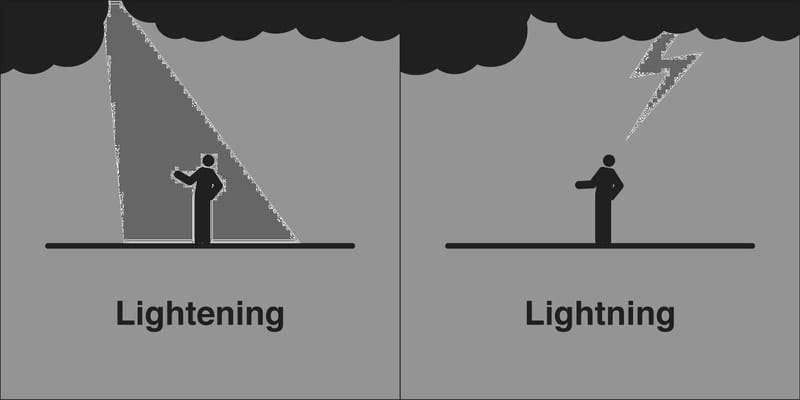
Misunderstanding or misusing words like 'lightening' and 'lightning' can lead to unnecessary confusion, misunderstandings, and sometimes even awkward moments.
Consider this scenario: You're at a networking event with international colleagues when you tell them about last night's thunderstorm saying, "There was so much lightening yesterday!" Instead of discussing the weather, your confused colleagues might start wondering why you're talking about making things lighter!
By understanding the distinct meaning and usage of these similar-sounding words, we can [communicate more accurately in English](https://clapingo.com/blog/practice-english-speaking-alone) – a skill important for personal growth and professional advancement.
Common Mistakes and Tips for Correct Usage of Lightening and Lightning
----------------------------------------------------------------------
Many non-native English speakers, especially in India, often confuse the words 'lightening' and 'lightning.'
* 'Lightning' refers to the natural phenomenon we witness during thunderstorms. For example, a sentence like "_The lightening flashed across the sky_" is incorrect. Instead, it should be "_The lightning flashed across the sky_."
* On the other hand, ‘lightening’ is a verb that means making something lighter or less dark. If someone says, "_She is lightening her hair this weekend_," they are using the term correctly.
**_Tip:_**
A mnemonic you could use is associating the extra 'e' in 'lightening' with 'ease', implying reduction or lessening. Conversely, remember that 'lightning' strikes fast and hard, with no room for an extra letter! By keeping these simple rules in mind, you can avoid mixing up these two words in your spoken and written English.
Why Clapingo's Coaching Can Help You Master These Differences
-------------------------------------------------------------
At Clapingo, we understand these details can be confusing for non-native English speakers. That's where our one-on-one coaching sessions come into play! Our native language coaching helps you get a deeper understanding of such differences by tailoring lessons according to your level of comprehension. With Clapingo's custom-made plans, you can master English language intricacies efficiently and avoid similar confusion in the future.
Still not sure if Clapingo is the right choice for you? Here's a student's testimonial to help you make a decision.
To Sum Up
---------
Understanding the distinction between 'lightening' and 'lightning' can be important in your English language journey.
Despite their similar spellings, one refers to the act of making something lighter, while the other is a powerful natural phenomenon. Mistaking these two can lead to confusing sentences like saying '_the sky was lightening_' when you meant lightning struck.
At [Clapingo](https://clapingo.com/), we believe in guiding non-native speakers like you through such challenges. Our one-on-one coaching sessions offer personalised assistance from native speakers who understand your unique needs.
So let's keep going! Keep practising, learning from your mistakes and turning every challenge into an opportunity for growth.
FAQs
----
**1\. What is the difference between 'lightening' and 'lightning'?**
"Lightening" refers to the process of making an object lighter in weight or colour. For instance, "_The new diet plan is lightening my weight_". On the other hand, "lightning" refers to a natural electrical discharge causing bright flashes in the sky during thunderstorms. Example: "_I saw a spectacular display of lightning last night_."
**2\. Are 'lightening' and 'lightning' pronounced differently?**
Yes, they are pronounced differently. "Lightening" has three syllables: light-en-ing, while "lightning" has only two: light-ning.
**3\. Can I use 'lightening' and 'lightning' interchangeably in conversations?**
No, you can't. They have different meanings and usages. Using them interchangeably could lead to confusion. For example, if you say, "_I saw a flash of lightening_", it would not make sense because "lightening" does not refer to a natural phenomenon but rather to the act of making lighter.
---
This blog is powered by Superblog. Visit https://superblog.ai to know more.
---
## Gone vs. Went: Parsing the Verb Tense Forms
Author: Unknown
Published: 2024-03-14
Meta Title: Mastering 'Gone vs Went': Examples, Usage & Common Mistakes
Meta Description: Uncover the correct usage of 'gone' and 'went' through relatable examples, common mistakes, and easy-to-follow guidelines tailored for English learners.
Tags: gone vs went difference, gone vs went meaning, gone vs went example, gone vs went
URL: https://clapingo.com/blog/gone-vs-went
Contents
* [What's the Difference Between 'Gone' and 'Went'?](#whats-the-difference-between-gone-and-went)
* [Understanding When to Use ‘Went’ with Examples](#understanding-when-to-use-went-with-examples)
* [Decoding the Usage of ‘Gone’ with Examples](#decoding-the-usage-of-gone-with-examples)
* [Helpful Tips & Activities to Master 'Gone' vs 'Went'](#helpful-tips-and-activities-to-master-gone-vs-went)
* [Clapingo's Approach to Mastering English](#clapingos-approach-to-mastering-english)
* [A Quick Recap](#a-quick-recap)
* [FAQs](#faqs)
* [You may want to read](#you-may-want-to-read)

One of the most common challenges that Indian English learners face is understanding the difference between 'gone' and 'went'. A minor slip in their usage can considerably alter the meaning of a sentence, leading to miscommunication or even hilarious confusion. For example, saying "_I gone to Mumbai last week_" instead of "_I went to Mumbai last week_" may raise eyebrows in a professional setting.
In this article, we aim to demystify this tricky but essential aspect of English grammar. We will provide you with practical rules, **gone vs went examples**, and details on common mistakes.
What's the Difference Between 'Gone' and 'Went'?
------------------------------------------------

Simply put, the main difference between 'gone' and 'went' lies in their grammatical role.
Let's clear up some English grammar jargon first.
* The simple past refers to a completed action that occurred in a time before now.
* On the other hand, a past participle is a verb form that usually ends in -ed or -en and is used with auxiliary verbs to demonstrate tense.
The word 'went' is the simple past tense of the verb 'go'. It refers to an action that has finished and does not require an auxiliary verb. For example, you might say, "_I went to the store yesterday._" Here's more about **had gone vs went**: if you say "_I had gone to run an errand_", it means that you went for it and have already returned.
As for 'gone', this is where things get interesting. 'Gone' is a past participle of the verb 'go'. It needs an auxiliary verb (has/have/had) to complete its meaning. For instance, "_She has gone to Delhi_." This means she is still there or on her way.
Understanding When to Use ‘Went’ with Examples
----------------------------------------------
The word 'went' is a past tense form of the verb 'go' and is used when describing an action completed in the past. For instance, suppose you have a friend named Ravi. Yesterday, Ravi visited the market. Here is how you would describe his action: "_Ravi went to the market yesterday._" Notice how we used 'went' to indicate that the act of going to the market is complete and occurred in the past.
However, there are some common scenarios where 'went' is often incorrectly substituted with 'gone':
1. Incorrect: "_I have went to the hospital._" Correct: "I _have gone to the hospital._"
2. Incorrect: _"She had went to Delhi_." Correct: "_She had gone to Delhi._"
3. Incorrect: "_They have went for lunch._" Correct: "_They have gone for lunch_."
Decoding the Usage of ‘Gone’ with Examples
------------------------------------------
'Gone' is a past participle of 'go' and is typically used when describing an action that started in the past but still holds relevance in the present. For instance, "I'm sorry, your friend has gone home." In this sentence, 'gone' denotes that your friend left (action started in the past) and is not currently present (relevance to now).
However, it's common for learners to incorrectly substitute 'gone' with 'went', which is the simple past tense of 'go'. Let's explore three scenarios where such confusion arises:
* **Scenario 1:** "_I had gone to the market yesterday._" Incorrect! Use ‘went’ instead because the action happened and ended in the past.
* **Scenario 2:** "_He has gone to school yesterday_." Incorrect again! The correct usage should be _"He went to school yesterday._"
* **Scenario 3:** "_She_ **_has gone vs went_** _shopping last night_". The right choice would be 'went' as it’s a completed action in the past.
Helpful Tips & Activities to Master 'Gone' vs 'Went'
----------------------------------------------------
Let's explore some actionable tips and interactive activities that can help you master the difference between 'gone' and 'went'.
1. **Practice Makes Perfect:** Write sentences using both 'gone' and 'went' in different scenarios. For instance, "_I had gone to the supermarket before you arrived_" or "_She went to the gym yesterday_".
2. **Speak it Out:** Verbally practice sentences using 'gone' and 'went'. A great conversation starter could be, "_Have you ever gone to Goa?_" or "Kenny went for a walk".
3. **Interactive Exercises:** Engage with online exercises and worksheets that can facilitate your understanding of these two verbs in varied contexts.
Remember, regular practice is key when mastering the **gone vs went difference**!
Clapingo's Approach to Mastering English
----------------------------------------
When it comes to mastering the English language, understanding the subtle differences in usage can be challenging. At Clapingo, we address this issue with a personalized learning plan designed specifically for you. Our tailored strategy assists you in grasping the intricate distinctions between similar words, such as 'gone' and 'went' or ["lier and liar"](https://clapingo.com/blog/lier-vs-liar).
In our one-on-one sessions with native speakers, learners experience an enriching exchange that helps them comprehend these nuances better.
A Quick Recap
-------------
In this blog post, we've learnt the essential differences between the use of 'gone' and 'went'. Both are forms of the verb 'go', but their usage varies based on the context. 'Went’ is used in simple past tense scenarios, while ‘gone’ applies to perfect tenses.
Understanding these nuances is crucial as it enhances your English communication skills. It allows you to express time references accurately and confidently converse in different tenses.
With [Clapingo’s](https://clapingo.com/) personalised coaching sessions, you can get tailored lessons focused on such key aspects from native speakers. They'll guide you through each step, clarifying doubts and providing tips based on your learning pace and style.
Take your English fluency a notch higher with Clapingo today!
FAQs
----
**1\. What is the difference between 'gone' and 'went'?**
'Gone' and 'went' both come from the verb 'go', but they're used differently. 'Went' is the past tense, used to talk about something that happened in the past, like "_I went to Chennai last week._" 'Gone', on the other hand, is the past participle and is used with helper verbs like has, have, had, etc., like in "_She has gone to Mumbai for a conference._"
**2\. Can I use 'had gone' and 'went' interchangeably?**
No. While both refer to past actions, their usage depends on context. Use 'went' when speaking of a complete action in the past - "_Simran went to Goa last year._" Use 'had gone' when referring to an event that occurred before another event - "_I had gone to Jaipur before I visited Agra_."
**3\. How do I know when to use 'has gone' and 'went'?**
You use ‘has gone’ when speaking about someone who has not yet returned from a location. For example: “_Akbar has gone to Kolkata for work_.” This implies that Akabar is still in Kolkata at present. You use ‘went’ for completed trips where the person has returned: “_Akbar went to Kolkata last month_,” meaning Rajesh has already returned.
### **You may want to read.**
**[Exploring the Importance of a Spoken English Syllabus: A Comprehensive Guide](https://clapingo.com/blog/spoken-english-syllabus)**
---
This blog is powered by Superblog. Visit https://superblog.ai to know more.
---
## Grammar Rules: When to Use 'Whoever' or 'Whomever'
Author: Unknown
Published: 2024-03-14
Meta Title: Whoever vs Whomever: Understanding the English Language
Meta Description: Embark on the journey to master the English language as we explore the intricacies of 'whoever' vs 'whomever'. Enhance your language skills for success.
Tags: whoever vs whomever, whoever vs whomever meaning, whoever vs whomever difference, whoever vs whomever example
URL: https://clapingo.com/blog/whoever-vs-whomever
Contents
* [Understanding ‘Whoever’ and ‘Whomever’](#understanding-whoever-and-whomever)
* [When to Use ‘Whoever’](#when-to-use-whoever)
* [When to Use ‘Whomever’](#when-to-use-whomever)
* [Common Mistakes and How to Avoid Them](#common-mistakes-and-how-to-avoid-them)
* [Quiz - Whoever vs Whomever](#quiz-whoever-vs-whomever)
* [How Clapingo Can Help](#how-clapingo-can-help)
* [Some Parting Words](#some-parting-words)
* [FAQs](#faqs)
* [You may want to read](#you-may-want-to-read)

Imagine you're chairing a meeting at your workplace, discussing the selection of a project leader. You say, "The task could be assigned to whoever or whomever showcases the best plan." Suddenly, you notice a few raised eyebrows among your colleagues. You wonder - did you use 'whoever' and 'whomever' correctly?
Incorrect usage of such pronouns can sometimes create confusion, leading to miscommunication.
It’s critical then, to master the distinction between 'whoever' and 'whomever'. Understanding this difference is not just about linguistic accuracy; it's also about effective communication. Let's delve deeper into these often confounding pronouns and decode their correct usage with examples and quizzes that can help make your spoken English more refined.
Understanding ‘Whoever’ and ‘Whomever’
--------------------------------------
'Whoever' and 'whomever' are often used interchangeably, but they serve different grammatical functions.
* The term 'whoever' is a subject pronoun, meaning it performs an action. For instance, "_Whoever arrives first will get the prize_." Here, 'whoever' is carrying out the action of arriving.
* On the other hand, 'whomever' is an object pronoun, which means it has an action done to it. For example, "_Give the letter to whomever you see first._" In this sentence, 'whomever' is receiving the action of being given the letter.
A helpful tip to remember the distinction is: if you can replace it with 'he' or 'they', use 'whoever'; if you can replace it with 'him' or 'them', use 'whomever'. For example:
* _Whoever eats my chocolates will have to buy me a new box_ (He eats my chocolates)
* _I will call whomever I want for help_ (I will call him for help)
It’s important to remember these rules as using correct grammar can make your English sound more polished and professional.
### When to Use ‘Whoever’
'Whoever' is used as a subject pronoun in sentences, much like 'he', 'she', or 'they'. Here are some situations where you might use it:
* When you don't know who will perform an action: "_Whoever arrives first, please switch on the lights_."
* In if-clauses with hypothetical situations: "_If whoever calls is a telemarketer_, hang up."
Remember these tips when using 'whoever':
* 'Whoever' is always singular.
* It can be used to start a sentence or clause.
### When to Use ‘Whomever’
Use 'whomever' when you need an object pronoun in your sentence. For example:
* When referring to someone who receives an action: "Give this report to whomever is responsible."
* In questions where you need an object: "Whomever did you invite?"
Here are some tips for using 'whomever':
* Like 'whoever', it's always singular.
* It often follows prepositions: "For whomever the bell tolls."
Common Mistakes and How to Avoid Them
-------------------------------------

In the journey of mastering English, it's common for Indian learners to grapple with 'whoever' and 'whomever'.
Tip 1: Remember that 'whoever' is a subject pronoun like 'he', 'she', or 'they'. It refers to the person doing something. Example: "_Whoever finishes first will get the prize._"
Tip 2: On the other hand, 'whomever' is an object pronoun like ‘him’, ‘her’, or ‘them’. It refers to the person something is done to. Example: "_Whomever you choose, let me know._"
Here’s a comparison table highlighting correct usage:
**Incorrect Usage**
**Correct Usage**
Whomever wins, gets a reward.
Whoever wins, gets a reward.
Send the invite to whoever.
Send the invite to whomever.
For more on this and other commonly made English grammar mistakes by us Indians, check out this Clapingo video.
Quiz - Whoever vs Whomever
--------------------------
Ready to test your understanding of 'whoever' and 'whomever'? Here's a quick **whoever vs whomever quiz**:
1. Choose the right word: \_\_\_ you choose will be perfect.
2. Is this correct? "Give it to \_\_\_ asks first."
3. Fill in the blanks: "\_\_\_ called, didn't leave a message."
4. Which is right? "\_\_\_ did that deserves an award."
5. Correct or incorrect? "She'll date \_\_\_ she likes."
**Solutions:**
1\. Whoever, 2. Whomever, 3. Whoever, 4. Whoever, 5. Correct
How Clapingo Can Help
---------------------
[Clapingo's](https://clapingo.com/) personalized coaching sessions are designed to simplify your English learning journey. Our native English tutors can guide you through intricate details such as the usage of **'whoever' vs 'whomever**'. Not only will they provide easy-to-understand explanations of these rules, but they’ll also offer real-life examples and engaging activities to bolster your understanding.
So, stop worrying and join Clapingo today to master the nuances of English language usage with confidence and ease.
Some Parting Words
------------------
Let's quickly recap what we've learned about the use of 'whoever' and 'whomever'.
* 'Whoever' is used for subjects, meaning the person doing the action.
* In contrast, 'whomever' is used for objects, meaning the receiver of the action. We’ve also seen some eye-opening **whoever vs whomever examples**, which added clarity to this topic.
Remember, mastering English is a journey. And every journey needs patience, practice, and persistence. Use these rules, take the **whoever vs whomever quiz** often to assess your understanding, and keep refining your usage.
But you don't have to do it all alone. Platforms like Clapingo are here to guide you through your English learning process with personalised coaching sessions tailored to your specific needs. With resources like Clapingo, every step would be more comfortable and clearer. Book your [Clapingo demo](https://clapingo.com/book-a-demo) now!
FAQs
----
**1\. When should I use 'whoever' in a sentence?**
'Whoever' is used when the person in question is the subject of a clause. It generally refers to an unknown or generic person. For example, "_Whoever solves this puzzle first will win a prize._"
**2\. What's the correct situation to use 'whomever' instead of 'whoever'?**
'Whomever' is used when the person in question is the object of a verb or preposition. For instance, "_Deliver the box to whomever you see first in the office_."
**3\. Is there any online tool like a whoever vs whomever checker that can help me practise?**
Yes, there are many online quizzes and grammar checkers. You can also take a **whoever vs whomever quiz** on websites like Grammarly or Oxford English Dictionary Online to improve your understanding.
### **You may want to read**
**[11 Of The Best Apps For Improving Your English Speaking Skills](https://clapingo.com/blog/best-apps-english-speaking)**
---
This blog is powered by Superblog. Visit https://superblog.ai to know more.
---
## While vs Whilst: Word Preferences Across Different Regions
Author: Unknown
Published: 2024-03-14
Meta Title: While Vs Whilst: Unravelling Confusion For English Learners
Meta Description: Learn English distinctions: 'while' vs. 'whilst'. Get tailored practical tips and examples for Indian non-native speakers. Enhance your language skills now!
Tags: while vs whilst, while vs whilst difference, while vs whilst meaning, while vs whilst exercise
URL: https://clapingo.com/blog/while-vs-whilst
Contents
* [Is There a Difference Between 'While' and 'Whilst'?](#is-there-a-difference-between-while-and-whilst)
* [When to Use While vs Whilst: Practical Guidelines](#when-to-use-while-vs-whilst-practical-guidelines)
* [Practice Makes Perfect: Some Engaging Exercises](#practice-makes-perfect-some-engaging-exercises)
* [Explore More: Enhancing Your Vocabulary](#explore-more-enhancing-your-vocabulary)
* [Clapingo Can Help: Achieving Fluency with Personalised Coaching](#clapingo-can-help-achieving-fluency-with-personalised-coaching)
* [Key Takeaways](#key-takeaways)
* [FAQs](#faqs)

Navigating the English language can be a rewarding journey, but sometimes, it's like walking through a dense forest! Take 'while' vs 'whilst' for instance. Knowing when and where to use these terms can significantly enhance your communication skills. As you start the journey of mastering English with us today, you'll discover that small changes can make a big difference!
In this blog, we will look into the meaning, usage, and differences between ‘while’ and ‘whilst’. We will explore their unique roles in different dialects of English such as British (UK), US and Australian English. Get ready for an exciting journey ahead!
Is There a Difference Between 'While' and 'Whilst'?
---------------------------------------------------
Let us start by looking at the meaning of while vs whilst. At their core, both 'while' and 'whilst' carry similar meanings, both primarily used to represent the idea of "during the time that" or "at the same time as". However, there are subtle differences in their usage. Let's break them down:
* **While**: This term is universally used in both British and American English.
* **Whilst**: Predominantly used in British English, it's often considered formal or old-fashioned.
Despite these differences, you can generally use 'while' and 'whilst' interchangeably without altering the meaning of your sentence. However, being aware of these differences can help you tailor your language according to different contexts. For instance, if you're writing a formal letter for a UK-based company, using 'whilst' can add an elevated tone to your message.
When to Use While vs Whilst: Practical Guidelines
-------------------------------------------------
Let's dive into some while vs whilst examples to illustrate the usage of both words. Suppose you're reading a book and sipping your coffee, you'd say "I enjoyed my coffee while reading". Alternatively, if you prefer a more formal tone or are writing for UK or Australian audiences, you might also say "I enjoyed my coffee whilst reading".
Notice how the context doesn't change? That's because 'while' and 'whilst' have the same meaning. However, their usage varies across different English-speaking regions. For example, in the UK, while and whilst are both understood. 'While' is more common in everyday speech whereas 'whilst' is often used in formal writing or traditional contexts. In the case of while vs whilst in Australian English too, you'll find both terms being used interchangeably.
Let's simplify this further with a comparison table:
### Words
### Regions
### Example
While
American, British (UK), Australian English
I listened to music while doing my homework.
Whilst
British and Australian English
He made notes whilst listening to the lecture.
Remember these guidelines next time you're unsure of which one to use. For more on regional differences in English across the world check out the Clapingo blog post on [Exemplary English: Identifying the Most Linguistically Precise Nation](https://clapingo.com/blog/english-speaking-nation).
Use these practical rules when choosing between using 'while' vs 'whilst', and sound like a native speaker regardless of where you are!
Practice Makes Perfect: Some Engaging Exercises
-----------------------------------------------

Mastering the usage of 'while' and 'whilst' needs practice. Let's look at some engaging exercises that could help you understand their use better.
**1\. Dialogue Scenario:** Imagine you're describing a recent incident to a friend. Try crafting sentences using both 'while' and 'whilst', like, "I was sipping my chai while reading the newspaper" or "I finished my report whilst working from the office."
**2\. Personalised Example:** Write a diary entry about your day, consciously using 'while' and 'whilst'.
Don't forget to check out the Clapingo IELTS Series on YouTube for more practice exercises: Don't forget to check out the Clapingo IELTS Series on YouTube for more practice exercises:
Explore More: Enhancing Your Vocabulary
---------------------------------------
Expanding vocabulary is vital for English fluency. Here are other commonly confused English word pairs whose usage varies regionally:
1. **Color vs Colour:** While 'color' is the American English spelling, 'colour' is used in British English.
2. **Realize vs Realise:** Americans spell it as 'realize', while British English speakers say 'realise'.
3. **License vs Licence:** In UK English, ‘license’ is a verb, ‘licence’ is a noun; but in US English, both are spelled as ‘license’.
Remember, exploring a language and learning new words should not feel like a chore but rather an exciting journey towards fluency, so keep pushing yourself and stay curious!
Clapingo Can Help: Achieving Fluency with Personalised Coaching
---------------------------------------------------------------
Many non-native English speakers in India struggle with understanding and using confusing vocabulary, including the tricky-looking 'while' vs 'whilst'. They often feel overwhelmed by the complexities of English grammar and vocabulary that can make or break their communication.
Here's where [Clapingo](https://clapingo.com/) comes in. Clapingo's personalised coaching sessions, conducted by native speakers, help learners understand and use English words and phrases correctly. The one-on-one classes focus on clarity in expression and accuracy in using terms like 'while' and 'whilst', making your journey to fluency a lot smoother.
Check out this YouTube video to learn more: Clapingo, where you can practice conversations and hone your English speaking skills.
Key Takeaways
-------------
So, we've unravelled the confusion of 'while' vs 'whilst'! Remember, while both words technically mean the same, 'while' is more commonly used globally. On the other hand, 'whilst' has a more formal tone and is primarily used in British and Australian English.
As you travel the path towards English mastery, remember that learning is a continuous process filled with rewards and challenges. Stay motivated! Don't hesitate to explore resources like Clapingo that can help you hone your skills further. After all, mastering English is not just about language proficiency; it's about connecting with people worldwide!
FAQs
----
**1\. Can I start a sentence with whilst?**
Of course! It usually depends on the context. For example, you can say "Whilst I enjoy playing cricket, I also love watching football."
**2\. Can I use whilst in writing?**
Yes, it’s perfectly fine to use 'whilst' in writing, especially within formal or British contexts.
**3\. Why do Australians say whilst?**
It's primarily because 'whilst' is more prevalent in British English which has influenced Australian English over time.
---
This blog is powered by Superblog. Visit https://superblog.ai to know more.
---
## Leadership Language: Understanding the Roles of Lead and Led
Author: Unknown
Published: 2024-03-14
Meta Title: Lead vs Led: Meaning, Definition, and Usage Explained
Meta Description: Addressing the confusion between lead and led with our guide. Understand their meanings, definitions, and examples for practical English communication.
Tags: lead vs led definition, lead vs led difference, lead vs led meaning, lead vs led example
URL: https://clapingo.com/blog/lead-vs-led
Contents
* [What is the Meaning of Lead?](#what-is-the-meaning-of-lead)
* [What Does Led Mean?](#what-does-led-mean)
* [Understanding the Difference: Lead vs Led](#understanding-the-difference-lead-vs-led)
* [Practical Examples of Using Lead and Led](#practical-examples-of-using-lead-and-led)
* [Common Mistakes and Misconceptions](#common-mistakes-and-misconceptions)
* [Clapingo - Your Language Partner](#clapingo-your-language-partner)
* [Wrapping Up](#wrapping-up)
* [FAQs](#faqs)
* [You may want to read](#you-may-want-to-read)

Picture this: You're presenting a project update to your team. Nervously, you say, "I lead the team to complete the project within the deadline." A murmur of confusion spreads across the room. You meant to use "led", not "lead".
This confusion between "lead" vs "led" is a common issue faced by many non-native English speakers in India. After all, both words sound similar, and their meanings are closely related.
These two words play a pivotal role in describing leadership roles or past events. Therefore, mastering their usage can boost your confidence and credibility in your workplace.
This blog post aims to demystify the confusion for you. We'll delve into **lead vs led definition,** meaning and usage so that you can avoid such errors in the future.
What is the Meaning of Lead?
----------------------------
The word "lead" is an intriguing one with multiple meanings in English. Predominantly, it's a verb meaning to guide or direct someone or something.
For instance, "_Can you lead the meeting today?_" It can also refer to being in charge or winning in a competition, like "_India leads the cricket match._" Lastly, "lead" can denote a type of heavy, soft, malleable metal - "_This figurine is made from lead._"
What Does Led Mean?
-------------------
Now, let's understand 'led'. It's simply the past tense and past participle form of 'lead'. When you've already guided someone or directed an activity in the past, you use 'led'.
For example, "_She led the team to victory last year_."
Need more clarity on past tense forms? Check out this handy guide on Clapingo's YouTube channel for a deeper dive into past-tense rules and usage.
Understanding the Difference: Lead vs Led
-----------------------------------------
One common confusion in English language usage, particularly for learners in India, is understanding when to use 'lead' and 'led'. To elucidate the **lead vs led meaning**, let's delve into the comparison table below:
**Word**
**Part of speech**
**Usage**
**Example**
Lead
Verb (Present)
Directing or guiding
He will lead the team meeting tomorrow.
Led
Verb (Past)
Past tense of leading
She led the project successfully last year.
Following are the summarized differences in bullet points:
\- 'Lead' is pronounced as /li:d/ and used when referring to present or future events.
\- 'Led', pronounced as /led/, is the past tense and past participle of 'lead'.
Now, onto grammatical rules about using 'lead' and 'led':
1. Use ‘lead’ when you are currently guiding or intending to guide someone or something.
2. Use ‘led’ to describe an action that has already happened.
For instance, consider these **lead vs led examples**:
* _"I will lead the presentation at tomorrow's conference."_ (Future tense)
* _"He led us through the difficult terrain during last year's trek._" (Past tense)
Practical Examples of Using Lead and Led
----------------------------------------
Let's understand 'lead' and 'led' with a couple of Indian workplace scenarios.
**Scenario 1:** During a presentation, Ravi says, "_I have lead the project for six months._" Here, Ravi incorrectly uses 'lead' instead of 'led'. The correct sentence should be: "_I have led the project for six months._" Remember, 'led' is the past tense of 'lead'.
**Scenario 2:** In a meeting, Priya states: "_Our CEO will lead us to new heights._" She uses the word 'lead' correctly as she talks about a future event. If she had said, "_Our CEO will led us to new heights_,” it would have been incorrect.
These examples illustrate the lead vs led usage in real-life situations.
Common Mistakes and Misconceptions
----------------------------------

A frequent error non-native English speakers in India make is using "lead" (pronounced as 'leed') when they mean "led". The **lead vs led meaning** can be confusing as both words are closely related.
Many people incorrectly use 'lead' (pronounced as 'led') thinking it is the past tense of lead (pronounced as 'leed'). It's a common mistake due to their identical pronunciation but different spellings and meanings. For instance, on your resume, you might say, “_I lead a project”_ when you should say, “_I led a project_”.
Moreover, another misconception is that these words can be used interchangeably. However, correct usage depends on whether you're referring to the present or past.
Remember these simple rules to avoid any lead vs led mix-ups in your spoken and written English:
1\. ‘Lead’ for present and future actions.
2\. ‘Led’ for past actions.
These are just some examples of commonly confused words in English. To avoid such errors and master English language nuances like the lead vs led distinction, exploring [Clapingo's blog posts](https://clapingo.com/blog) or [YouTube videos](https://www.youtube.com/@Clapingo/featured) on commonly confused words can be incredibly helpful.
Clapingo - Your Language Partner
--------------------------------
Navigating the confusing maze of English language can be tricky for non-native speakers. That's where Clapingo steps in as your trusty language partner. With one-on-one personalised coaching sessions, Clapingo offers a unique learning experience designed to tackle common language pitfalls like the lead vs led dilemma. Our platform hosts native English speaker tutors who guide you through a structured course with a singular focus on fluency and correct usage.
Wrapping Up
-----------
To reiterate, distinguishing between 'lead' and 'led' - both in written and spoken English - is quintessential for your professional growth.
Remember, 'lead' in present tense refers to guidance or direction, while 'led' is the past tense of the same verb. For instance, "_I will lead the prayer tomorrow_" (future tense) and "_I led the prayer yesterday_" (past tense).
This understanding helps avoid miscommunication, particularly in professional scenarios where such mistakes may leave a negative impression You might recall these **lead vs led examples** when updating your resume or drafting an email.
So why wait? Start your journey towards flawless English today with Clapingo!
FAQs
----
**1\. What is the difference between 'lead' and 'led'?**
While both 'lead' and 'led' are related to guidance or direction, their usage depends on tense. The term 'lead', pronounced as /li:d/, is a present tense verb meaning to guide or direct. On the other hand, 'led', pronounced as /lɛd/, is the past tense and past participle of 'lead'.
**2\. How do I use 'lead' and 'led' correctly in my resume?**
Your resume should reflect your professional journey accurately, including your leadership roles. When describing a role you're currently in using **lead vs led in a resume**, use 'lead', like "_I lead a team of five sales professionals_". If you're discussing a past role, use 'led': "_I led a project that increased revenue by 30%_".
**3\. How can I remember when to use lead versus led?**
One effective way is by recollecting that 'led' is a shorter word, just like 'past' - helping you remember it's used for past tense! Also, associating ‘lead’ with ‘read’ as they rhyme in the present tense can help.
### **You may want to read**
**[11 Of The Best Apps For Improving Your English Speaking Skills](https://clapingo.com/blog/best-apps-english-speaking)
**
---
This blog is powered by Superblog. Visit https://superblog.ai to know more.
---
## Between Moments: Exploring the Contrast of 'Sometime' and 'Some Time'
Author: Unknown
Published: 2024-03-14
Meta Title: Mastering English: Understanding 'Sometime' Vs 'Some Time'
Meta Description: Explore the nuanced difference between 'sometime' and 'some time'. Gain clarity with relatable examples and improve your English speaking skills.
Tags: sometime vs some time examples, sometime vs some time Exercise, sometime vs some time meaning
URL: https://clapingo.com/blog/sometime-vs-some-time
Contents
* [Deciphering 'Sometime': What Does It Mean?](#deciphering-sometime-what-does-it-mean)
* [Understanding 'Some Time': How Is It Different?](#understanding-some-time-how-is-it-different)
* [Comparing 'Sometime' Vs ‘Some Time’: The Key Differences](#comparing-sometime-vs-some-time-the-key-differences)
* [Practical Exercises: Mastering Both Terms Through Practice](#practical-exercises-mastering-both-terms-through-practice)
* [Common Mistakes And How To Avoid Them](#common-mistakes-and-how-to-avoid-them)
* [How Clapingo Can Help You Solidify Your Understanding](#how-clapingo-can-help-you-solidify-your-understanding)
* [Key Takeaways](#key-takeaways)
* [FAQs](#faqs)
* [You may want to read.](#you-may-want-to-read)

Consider this scenario: You're an IT professional based in Bangalore and you've just received an email from your US-based client asking if you could host a demo "sometime next week." In response, you reply, "Sure, I will provide the demo 'some time' next week." Your client might be left wondering why you emphasised the phrase 'some time', potentially confusing the timing or urgency of the demo.
Comprehending such subtle differences in English language is crucial for non-native speakers. It not only helps prevent miscommunications but also adds to our confidence while using English in daily conversations.
In this post, we will shed light on the difference between the words, providing numerous **sometime vs some time examples** to illustrate their proper usage. Let's start!
Deciphering 'Sometime': What Does It Mean?
------------------------------------------
The word 'sometime' is one of those tricky English terms that can easily confuse non-native speakers. When used as an adverb, 'sometime' refers to an unspecified or undetermined point in time in the future or the past.
Here's an easy way to remember: think of 'sometime' as a vague appointment in your calendar, where you know something will happen, but you're not sure when.
Let's look at some examples to understand how 'sometime' is used correctly:
1. "_We should catch up for a cup of tea sometime next week."_
2. _"I read that book sometime last year."_
Understanding 'Some Time': How Is It Different?
-----------------------------------------------
'Some time' is an expression that refers to a significant span or period. It's distinct from 'sometime', which denotes an unspecified point in time.
For instance, you may say, "_It took me some time to understand the concept of gravity_," where 'some time' signifies a considerable duration.
Let's look at some more examples:
1. "_You’ll need some time to complete this project._" (a substantial amount of time)
2. "_Can we take some time to decide on our next actions?_" (an unidentified moment)
Comparing 'Sometime' Vs ‘Some Time’: The Key Differences
--------------------------------------------------------
Understanding the key differences between 'sometime' and 'some time' can amplify your language proficiency, as even native English speakers occasionally use them interchangeably by accident.
Let's decipher these differences with a comparison table:
**Usage**
**Example**
Sometime (adverb): Refers to an unspecified point in time
"Let's catch up for coffee sometime."
Some Time (two words): Refers to a significant period of time.
"It took me some time to understand cricket rules."
In the first example, swapping 'sometime' with 'some time' could falsely imply that you want to catch up for coffee for a long duration rather than at an unspecified future date.
Practical Exercises: Mastering Both Terms Through Practice
----------------------------------------------------------

Let's dive into some exercises to better grasp the **sometime vs some time meaning**. Fill in the blanks with the appropriate term based on what you've learned about 'sometime' and 'some time'.
1. My friend said he would visit me \_\_\_\_\_\_\_\_\_\_\_ next week.
2. She needs \_\_\_\_\_\_\_\_\_\_\_ alone to finish her project.
3. Can we meet for coffee \_\_\_\_\_\_\_\_\_\_\_ this evening?
4. I haven’t seen it yet, but I plan on watching that movie \_\_\_\_\_\_\_\_\_\_\_.
5. The doctor advised her to take \_\_\_\_\_\_\_\_\_\_\_ off work and recover.
**Solutions:** 1. sometime, 2. some time, 3. sometime, 4. sometime, 5. some time
Common Mistakes And How To Avoid Them
-------------------------------------
English language learners often confuse 'sometime' and 'some time'.
* For instance, a common error is using 'sometime' when expressing a long duration. Incorrect example: "_I spent sometime reading that novel_." The correct version should be: "_I spent some time reading that novel_."
* Another mistake is using 'some time' when referring to an undefined moment. Incorrect example: "_Let's catch up some time next week_". The correct sentence is: "_Let's catch up sometime next week_".
To avoid these mistakes, remember that 'sometime' refers to an unspecified point in time, while 'some time' means a considerable duration.
For help with more confusing English terms, refer to our list of articles on [Clapingo's blog](https://clapingo.com/blog).
How Clapingo Can Help You Solidify Your Understanding
-----------------------------------------------------
Clapingo's one-on-one personalised coaching sessions are tailored to equip non-native English speakers in India with a robust understanding of language nuances like 'sometime' vs 'some time'. Our native English tutors carefully structure lessons to clarify such subtle differences, providing relatable examples and interactive exercises.
Our primary goal is to ensure that you grow progressively confident in your ability to communicate effectively in English.
Key Takeaways
-------------
Throughout this blog post, we've explored the nuanced difference between 'sometime' and 'some time'.
Remember, 'sometime' refers to an unspecified point in time in the future or past, while 'some time' means a considerable period or span of time. Grasping these subtle distinctions enhances your English communication skills significantly.
Practice using 'sometime' and 'some time' correctly in your everyday English conversations.
With [Clapingo's](https://clapingo.com) personalised coaching sessions, you can master these nuances with ease. So keep practising, keep learning, and watch how your English transforms!
FAQs
----
**1\. What is the difference between 'sometime' and 'some time'?**
'Sometime' refers to an unspecified or uncertain point in time, like '_We should catch up for coffee sometime_.' On the other hand, 'some time' signifies a certain amount of time, such as '_I need some time to finish this project._'
**2\. Is it wrong to use 'some time' instead of 'sometime'?**
Yes, using one in place of the other can change the meaning of your sentence. Always remember that ‘sometime’ means at an unspecified point in time, while ‘some time’ refers to a certain duration.
**3\. Can ‘sometime’ be used to refer to a day?**
Yes, when you're unsure about which day something will happen on, you can say it will happen "sometime". E.g., ‘_The cricket match will resume sometime next week_.’
### **You may want to read.**
**[Top 35 Books To Help You With English Learning](https://clapingo.com/blog/english-learning-books)
**
---
This blog is powered by Superblog. Visit https://superblog.ai to know more.
---
## Understanding the Dynamics of Passive vs Active Voice
Author: Unknown
Published: 2024-03-14
Meta Title: Passive vs. Active Voice: A Complete Guide for Indians
Meta Description: Explore the differences between passive and active voice in English. Improve your language skills with engaging examples and exercises.
Tags: passive vs active difference, passive vs active voice, passive vs active rules, passive vs active meaning
URL: https://clapingo.com/blog/passive-vs-active
Contents
* [Understanding Active Voice](#understanding-active-voice)
* [Understanding Passive Voice](#understanding-passive-voice)
* [Differences Between Passive and Active Voices](#differences-between-passive-and-active-voices)
* [Identifying When To Use Passive Or Active Voices](#identifying-when-to-use-passive-or-active-voices)
* [Exercises for Practising Passive and Active Voices](#exercises-for-practising-passive-and-active-voices)
* [How Clapingo Can Assist in Mastering Passive Vs Active Voices](#how-clapingo-can-assist-in-mastering-passive-vs-active-voices)
* [Key Takeaways](#key-takeaways)
* [FAQs](#faqs)
* [You may want to read](#you-may-want-to-read)
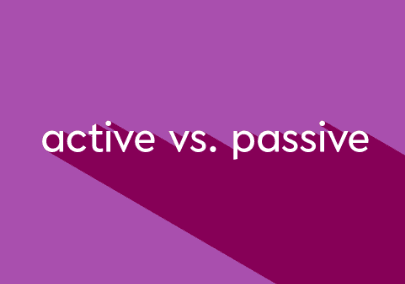
Let's consider an example: "_Ravi made the tea_" (active) versus "_The tea was made by Ravi_" (passive). Both sentences convey the same fact, but the active voice feels more immediate and engaging.
In many professional contexts in India, using active voice shows you as decisive and clear-headed, while passive voice can suggest diplomacy or tact.
With this blog post, we'll explore **passive vs active voice**, guiding you towards their correct usage with practical tips and real-life examples.
Understanding Active Voice
--------------------------
Active voice is a grammatical term denoting a sentence structure where the subject performs the action denoted by the verb. For example, "_Vinny cooks biryani_". Here, Vinny (the subject) is doing the action of cooking.
Active voice is commonly used in everyday conversations, storytelling, and professional communication.
When engaging in spoken English, using active voice can make your speech clearer and more direct. For more insights on grammatical voices in English, this video on Clapingo's YouTube channel.
Understanding Passive Voice
---------------------------
On the other hand, passive voice is when the object of an action becomes the subject of a sentence. Let's transform our previous example into passive voice: "_Biryani is cooked by Vinny_." Here, biryani (the object) has become the focus point.
Passive voice is frequently used when we want to highlight the action rather than who performed it or if we don't know who did it. For instance, if you come across a beautiful mural in your city and don't know the artist, you might say: "A stunning mural was painted on this wall."
Proficiency in both **active vs passive voices** adds variety to your English, making it richer and more nuanced.
It's important to note that neither voice type is 'better' than the other. They simply serve different purposes and add diversity to the language.
Differences Between Passive and Active Voices
---------------------------------------------

Let's understand the two voices and their key differences.
**Active Voice**
**Passive Voice**
The subject performs the action.
The subject receives the action.
Emphasizes who is doing the action.
Focuses on the action or what is acted upon.
Here is an example:
* Active Voice: The teacher will mark the papers.
* Passive Voice: The papers will be marked by the teacher.
In this example, 'the teacher' switches from being an active doer to a mere mention in the passive voice.
Understanding **passive vs active voice examples** like this can greatly improve your English speaking skills.
Identifying When To Use Passive Or Active Voices
------------------------------------------------
To master **passive vs active voice,** it's essential to understand when each should be applied. Let's look at some tips using examples.
1. **Assertiveness:** Use active voice when you want to sound more assertive or direct. It's often used in business meetings or presentations for clarity and decisiveness. For instance, "_I completed the project yesterday._"
2. **Object Focus:** Choose passive voice when the focus is on the object or action rather than who performed it. It's commonly used in scientific reports or news articles where the action is more important than the actor. For example, "_The project was completed yesterday_."
3. **Unknown Actor:** If you don't know who performed an action or it isn’t important, use passive voice. When narrating a story, this can add a sense of mystery. For instance, "_The window was shattered_."
4. **Formality:** Active voice can make your language sound more informal and conversational, while passive voice lends a formal tone to your sentences.
Remember that both voices have their place in English conversation and writing but choosing between **passive vs active speakers** wisely will ensure your communication is clear and effective!
### Exercises for Practising Passive and Active Voices
Here are some exercises to help you practice passive and active voices:
1. **Sentence Completion**
* She was praised by the boss for her diligence. (Passive)
* The manager \_\_\_\_\_\_\_ her for her hard work.
1. **Error Detection**
* The letter was written by John yesterday.
* John the letter wrote yesterday.
1. **Sentence Transformation**
* Neha prepared a wonderful presentation. (Active)
* A wonderful presentation \_\_\_\_\_\_\_\_ by Neha. (Passive)
**_Solutions:_**
1\. The manager praised her for her hard work.
2\. John wrote the letter yesterday.
3\. A wonderful presentation was prepared by Neha.
Consistent practice can significantly improve your proficiency in using active and passive voices.
How Clapingo Can Assist in Mastering Passive Vs Active Voices
-------------------------------------------------------------
Mastering the difference between passive and active voices can seem daunting. However, with Clapingo's one-on-one personalised coaching sessions, this complex grammatical concept becomes more accessible. Native English-speaking tutors understand the intricacies of voice usage and can guide you through practical examples. Plus, the flexible scheduling of sessions ensures a learning pace that suits your convenience.
Key Takeaways
-------------
In this journey through English grammar, we've covered **passive vs active voice**.
An active voice, as you've learnt, constructs sentences where the subject performs an action. For example, "_Ria eats an apple_." Passive voice switches the order of a sentence to "_Ria eats the apple_."
Understanding and correctly using **passive vs active voice** can enormously enhance your fluency in English, whether you're trying to discuss **passive vs active stock ownership** or exploring **passive vs active income avenues.**
Remember, every step towards mastering English grammar is a step towards self-empowerment. Start your English learning journey with [Clapingo](https://clapingo.com/).
FAQs
----
**1\. What is the difference between passive and active voice?**
In English grammar, the distinction between passive and active voice refers to the structure of a sentence. In the active voice, the subject performs the action, like "_Rahul played cricket._" Here, Rahul is acting. However, in a passive sentence, the subject is acted upon: "_Cricket was played by Rahul_."
**2\. When should I use passive versus active voice?**
Active voice makes your sentences direct and engaging, it's generally preferred for clarity and brevity. Example: "_The cat caught the mouse._" However, passive voice can be useful when you want to emphasize the action rather than who is doing it. Example: "_The mouse was caught by the cat._" Remember, both have their roles in language.
**3\. What does passive vs active learning mean?**
Active learning involves actively engaging with the material—like participating in a conversation or writing an essay in English. You're participating directly in your learning process. On the other hand, passive learning involves absorbing information without interacting—like watching an English movie or reading a book without practicing speaking or writing from it.
### **You may want to read**
[Modal Verbs in Action : Can vs Could](https://clapingo.com/blog/can-vs-could)
---
This blog is powered by Superblog. Visit https://superblog.ai to know more.
---
## The Singular-Plural: Alumnus vs. Alumni - Understanding Pluralization
Author: Unknown
Published: 2024-03-14
Meta Title: Understanding 'Alumnus vs Alumni': Meaning, Usage, and More
Meta Description: Dive into the terms 'alumnus vs alumni' that confuse many English language learners. Get clarity, examples, and tips for usage in professional contexts.
Tags: alumnus vs alumni difference, alumnus vs alumni, alumnus vs alumni meaning, alumnus vs alumni example
URL: https://clapingo.com/blog/alumnus-vs-alumni
Contents
* [What Does Alumnus Mean?](#what-does-alumnus-mean)
* [What Does Alumni Mean? And How Is It Different From Alumnus?](#what-does-alumni-mean-and-how-is-it-different-from-alumnus)
* [When Do We Use Alumnus vs Alumni?](#when-do-we-use-alumnus-vs-alumni)
* [Understanding Similar Terms - Alumna and Alumnae](#understanding-similar-terms-alumna-and-alumnae)
* [Common Mistakes Indian English Learners Make with These Terms](#common-mistakes-indian-english-learners-make-with-these-terms)
* [Improving Your English Vocabulary With Clapingo](#improving-your-english-vocabulary-with-clapingo)
* [Final Thoughts](#final-thoughts)
* [Frequently Asked Questions](#frequently-asked-questions)
* [You may want to read](#you-may-want-to-read)

Picture this: You’re attending a college reunion in Delhi, excited to reconnect with old friends. During a conversation, you find yourself pausing, uncertain whether to say "I'm an alumnus" or "I am an alumni". It’s a common problem many face.
Misusing terms can lead to awkward situations and misunderstandings. So, whether it's an email, a business meeting, or a casual chat at a reunion, knowing when to use 'alumnus' vs 'alumni' can make your interactions smoother and more confident.
In this article, we'll look into these two similar-looking words and provide examples of their correct usage. Let's start.
What Does Alumnus Mean?
-----------------------
"Alumnus" is a term used to refer to an individual who has graduated or completed their education from a particular institution. Originating from Latin, 'alumnus' comes with a masculine grammatical gender. However, in modern English usage, it can be used for both men and women.
For instance, you could say: "_Aamir is an alumnus of Delhi University_" or "_Meena is an alumnus of Indian Institute of Technology_".
What Does Alumni Mean? And How Is It Different From Alumnus?
------------------------------------------------------------
Contrary to 'alumnus', the term "alumni" refers to a group of individuals who have graduated from the same institution. Essentially, 'alumni' is the plural form of 'alumnus'.
It's important to remember that while 'alumnus' pertains to one person, 'alumni' denotes multiple graduates, male or female. For example: "_The alumni of St. Xavier's College have organised a reunion._"
Here's a quick comparison:
**Alumnus**
**Alumni**
Definition
One graduate from an institution
Group of graduates from the same institution
Usage
Singular
Plural
When Do We Use Alumnus vs Alumni?
---------------------------------
If you are a man who has graduated from a particular educational institution, then you would refer to yourself as an 'alumnus'.
For example, during a reunion, you might say "_As an alumnus of Madras University, I remember the bustling campus life vividly_."
On the other hand, if you are addressing or referring to a group of graduates from a specific institution (both men and women), the term 'alumni' is used. You could use it in your LinkedIn profile or job application like so: "_I'm proud to be among the alumni of IIT Madras_".
These terms are mostly used in formal settings like work or academia. It's essential to know their correct usage as it reflects your command of professional English.
Understanding Similar Terms - Alumna and Alumnae
------------------------------------------------

To dive deeper into the usage of _alumnus vs alumni_, it's essential to also clarify the terms "alumna" and "alumnae".
An "alumna" is a woman who has graduated from an educational institution. If you are referring to multiple female graduates, you would use the term "alumnae".
Let's look at a simple table to sum up the meanings of all four words:
**Term**
**Gender**
**Number**
Alumnus
Male
Single
Alumni
Male
Multiple
Alumna
Female
Single
Alumnae
Female
Multiple
Common Mistakes Indian English Learners Make with These Terms
-------------------------------------------------------------
A common error made by non-native English speakers in India is using the term 'alumni' when referring to a single person.
For example, one might say, "_My brother is an alumni of MGR College._" However, the correct usage should be, _“My brother is an alumnus of_ _MGR College._”
The term 'alumni' should be used when referring to a group: "_The alumni of Chennai Public School are organising a reunion_."
Another frequent mistake is using 'alumni' for both genders. The correct term for a female graduate is 'alumna', whereas 'alumnae' refers to a group of female graduates.
To avoid these mistakes, remember:
* 'Alumnus' for one male graduate
* 'Alumna' for one female graduate
* 'Alumni' for a group of male graduates or a mixed-gender group
* 'Alumnae' for a group of female graduates
By keeping these simple rules in mind, you can define and use the terms 'alumnus vs alumni' correctly in every situation.
Improving Your English Vocabulary With Clapingo
-----------------------------------------------
In today's competitive environment, expanding your English vocabulary is critical for achieving professional success. Clapingo's personalized coaching sessions can be a game-changer. Our tutors, proficient in your native language (could be [Telugu](https://clapingo.com/product/spoken-english-telugu/) or [Tamil](https://clapingo.com/product/spoken-english-tamil/)), focus on fluent English communication skills and empower you to enhance your skils and confidence.
To get a flavour of our teaching methods, check out this:
Final Thoughts
--------------
The difference between alumnus and alumni is simple but important.
* An alumnus is a single male or gender-neutral individual who has graduated from an educational institution (school, college, or university).
* Alumni refers to a group of graduates, regardless of their gender.
It's essential to remember these differences to navigate professional conversations correctly. As you continue your journey towards English mastery, applying such understanding in real-life situations can be empowering and rewarding.
At [Clapingo](https://clapingo.com/), we believe in turning language learning into an exciting journey rather than a daunting task. We're here to guide you through every step, providing personalised one-on-one sessions tailored to your unique learning needs and pace. Together, let’s conquer the English language!
Frequently Asked Questions
--------------------------
**1\. When should I use alumnus vs alumni?**
If you're referring to a single male graduate, you should use "alumnus". However, if you're speaking about a group of graduates from an institution, regardless of their gender, you can use "alumni".
**2\. Does the term alumni only refer to university graduates?**
While it's often used in the context of universities and colleges, the term "alumni" isn't limited to just higher education institutions. It can also refer to individuals who've attended schools or even companies where one has worked.
**3\. Can women be referred to as alumni?**
Yes. The term "alumni" is gender-neutral and can be used for groups of men, women, or mixed-gender graduates. If you want to specifically refer to female graduates, the singular term is "alumna", with the plural being "alumnae".
### **You may want to read**
**[60+ English Conversation Topics](https://clapingo.com/blog/english-conversation-topics)
**
---
This blog is powered by Superblog. Visit https://superblog.ai to know more.
---
## Navigating Nuances: A Closer Look at 'Latter' and 'Former'
Author: Unknown
Published: 2024-03-14
Meta Title: Learn the Difference: Understanding Latter vs Former
Meta Description: Master the difference between 'latter' and 'former' and improve your spoken English communication skills with our comprehensive guide.
Tags: former vs latter, former vs latter meaning, former vs latter difference, former vs latter examples
URL: https://clapingo.com/blog/former-vs-latter
Contents
* [What Does 'Latter' and 'Former' Mean?](#what-does-latter-and-former-mean)
* [Why is Knowing the Difference Crucial?](#why-is-knowing-the-difference-crucial)
* [How to Correctly Use 'Latter' or 'Former'?](#how-to-correctly-use-latter-or-former)
* [Common Mistakes & Tips to Avoid Them](#common-mistakes-and-tips-to-avoid-them)
* [Practice Exercises & Solutions](#practice-exercises-and-solutions)
* [Advancing Your English Communication Skills](#advancing-your-english-communication-skills)
* [Quick Recap](#quick-recap)
* [FAQs](#faqs)
* [You may want to read](#you-may-want-to-read)

Imagine you're in a business meeting, and your boss says, "Between improving our marketing strategies and increasing production efficiency, we should focus on the former." You might find yourself puzzled. Which one was he referring to? This is a common struggle faced by non-native English speakers when dealing with terms like "latter" and "former".
Our objective here is to help you get a firm grasp on the latter vs former meaning and usage, thus avoiding any awkward misunderstandings in professional or social scenarios. Let's dive in.
What Does 'Latter' and 'Former' Mean?
-------------------------------------
Understanding the English language can be a challenge, but we're here to make it simpler. Let's tackle the latter vs former definition.
'Latter' refers to the second or last item in a series of two, while 'Former' points to the first item in the same series. So, if we’re talking about Rohit and Virat, Rohit is the "former" and Virat is the "latter".
**Description**
**Example**
Former
Refers to the first item mentioned in a series of two.
Between tea and coffee, I prefer the former (tea).
Latter
Refers to the second or last item mentioned in a series of two.
Between Mumbai and Delhi, I like the latter (Delhi).
Why is Knowing the Difference Crucial?
--------------------------------------
Understanding the correct usage of 'latter' and 'former' can be key to effective and professional communication, particularly in business English. It can be the difference between clarity and confusion in your conversations.
Imagine you're in a team meeting discussing two potential marketing strategies for your upcoming product launch. If you incorrectly use 'latter' or 'former' when referring back to these strategies, you might send your team spiraling into a plan that was not meant to be prioritized. Miscommunication could lead to wasted resources, lost time and potential misunderstandings that could impact team dynamics negatively.
How to Correctly Use 'Latter' or 'Former'?
------------------------------------------
When faced with the challenge of using 'latter' and 'former', it's crucial to remember a few simple rules:
* **Rule 1:** 'Former' refers to the first of two things or people previously mentioned. For instance, consider this sentence: "Do you prefer tennis or cricket? The former is more popular in England." Here, 'former' refers to 'tennis'.
* **Rule 2:** Conversely, 'latter' refers to the second of two things or people previously mentioned. In the sentence, "Both Mumbai and Delhi are bustling cities, but I prefer the latter for its cultural diversity," 'latter' denotes 'Delhi'.
* **Rule 3:** Always use these terms only when referring to two things or individuals. For more than two entities, use ‘first’ or ‘last’.
Common Mistakes & Tips to Avoid Them
------------------------------------
Many times, non-native English speakers get confused between the terms "former" and "latter". Here are a few common mistakes and tips to avoid them:
**1\. Mistake:** Using 'former' to refer to the second item in a sentence.
Tip: Remember, 'former' refers to the first of two things mentioned.
Example: If you say, "_I prefer tea over coffee, the former being more refreshing_", it means you find tea more refreshing.
**2\. Mistake**: Using 'latter' when referring to more than two items.
Tip: Use 'latter' only when there are exactly two items. For more than two, use 'last'.
Example: In "_I visited Delhi, Mumbai and Kolkata, and loved the latter_", 'latter' incorrectly refers to Mumbai. Instead say, "_...and loved the last"_.
**3\. Mistake:** Forgetting that 'former' and 'latter' relate only to sequence and not importance.
Tip: Value judgments do not influence which term is used.
Example: Even if you like Chennai more than Bangalore, in "_I have lived in Bangalore and Chennai_", Bangalore is the former.
Practice Exercises & Solutions
------------------------------

Ready to test your understanding of 'latter' and 'former'? Here are a few exercises for you.
1\. Ravi and Rajan are brothers. The \_\_\_\_\_\_\_\_\_\_\_\_ is a doctor, while the \_\_\_\_\_\_\_\_\_\_\_\_ is an engineer.
2\. Mysore Palace and Gateway of India are famous landmarks in India. The \_\_\_\_\_\_\_\_\_\_\_\_ is in Mumbai, while the \_\_\_\_\_\_\_\_\_\_\_\_ is in Mysore.
3\. In the words "Latter vs Former", which term refers to the first of two things mentioned?
**Solutions:**
1. Ravi and Rajan are brothers. The latter is a doctor, while the former is an engineer.
2. Mysore Palace and Gateway of India are famous landmarks in India. The latter is in Mumbai, while the former is in Mysore.
3. In the words "Latter vs Former", 'Former' refers to the first of two things mentioned.
Advancing Your English Communication Skills
-------------------------------------------
At Clapingo, our personalised tutoring sessions are designed keeping in mind these unique requirements of non-native English speakers. With a focus on fluency and accurate usage of terms like latter vs former, our one-on-one sessions with native speakers provide a conducive learning environment. This individual attention ensures that you can address your specific challenges and improve on them effectively. The added advantage is coaching in your native language (like [Tamil](https://clapingo.com/product/spoken-english-tamil)/[Telugu](https://clapingo.com/product/spoken-english-telugu/)), which helps in better understanding and faster learning.
Quick Recap
-----------
We've explored the terms 'latter' and 'former', giving you a better understanding of their meanings and how to use them effectively. Remember, 'former' refers to the first of two previously mentioned items, while 'latter' addresses the second. Getting these small but important details right can add polish to your communication skills.
We explored various examples to further clarify their usage in sentences. Understanding the difference between 'latter vs former' meaning and applying this knowledge will undoubtedly enhance your English fluency.
As you continue exploring the English language with [Clapingo](https://clapingo.com/), remember that every new concept brings you a step closer to mastering it.
FAQs
----
**1\. Is there a simple way to remember when to use 'latter' and 'former'?**
The trick is to think of them as referring to the 'first' and 'last' in a list of two. The word with 'F' 'former' comes first, so it refers to the first item, while 'latter' with an 'L' comes last, indicating the last item.
**2\. Can I use 'latter' and 'former' when there are more than two items?**
No, 'latter vs former meaning' applies only when we talk about two things. For more than two things, you should specify which item you're referring to.
**3\. What is the antonym of ‘latter’ and ‘former’?**
The word ‘former’ is used to refer to the first of two items, hence its opposite would be ‘latter’, which refers to the second one. Similarly, if ‘latter’ is used for the second one, its antonym would be ‘former,’ indicating the first item.
### **You may want to read.**
**[Best Way To Learn English Fast](https://clapingo.com/blog/best-way-learn-english)
**
---
This blog is powered by Superblog. Visit https://superblog.ai to know more.
---
## Lay vs Lie: A Guide to Using These Verbs Correctly
Author: Unknown
Published: 2024-03-14
Meta Title: Lay vs Lie: A Guide for Non-Native English Speakers.
Meta Description: Clear your confusion between 'lay' and 'lie'. Explore this guide with simple examples, practical exercises, and quizzes for English learning.
Tags: lay vs lie difference, lay vs lie example, lay vs lie definition, lay vs lie chart, lay vs lie meaning
URL: https://clapingo.com/blog/lay-vs-lie
Contents
* [Understanding 'Lay vs Lie': Definition & Usage](#understanding-lay-vs-lie-definition-and-usage)
* [When to Use Lay: Practical Guidelines](#when-to-use-lay-practical-guidelines)
* [When to Use Lie: Helpful Examples](#when-to-use-lie-helpful-examples)
* [Common Errors & How To Avoid Them: Lay Vs Lie](#common-errors-and-how-to-avoid-them-lay-vs-lie)
* [Lay vs Lie Infographics: Visual Learning Aid](#lay-vs-lie-infographics-visual-learning-aid)
* [Quiz Time: Test Your Understanding](#quiz-time-test-your-understanding)
* [How Clapingo Can Help You Master English](#how-clapingo-can-help-you-master-english)
* [Final Thoughts](#final-thoughts)
* [FAQs](#faqs)
* [You may want to read](#you-may-want-to-read)

Imagine this. You're hosting a virtual meeting with global colleagues. You want to say, "I will lay down the project details for you," but wait - is it 'lay' or 'lie'? Let's face it, we've all been there – unsure whether to use 'lay' or 'lie'.
In English, small errors can make a big difference. The words ‘lay’ and ‘lie’ might seem nearly identical, but using them correctly can boost your fluency.
In this post, we will cover the **lay vs lie meaning** and usage in different contexts, with easy-to-understand **lay vs lie examples**. Let's dive in!
Understanding 'Lay vs Lie': Definition & Usage
----------------------------------------------
Let's explore the **lay vs lie definition**.
* 'Lay' is a transitive verb, meaning it requires an object. It implies to put or place something down in a flat position. For instance, "_I lay the book on the table_".
* On the other hand, 'lie' is an intransitive verb and doesn't need an object. It refers to reclining or being in a resting position. For example, "_I lie down for a nap after lunch_".
In terms of context, use 'lay' when an action is being done to something else. And, use 'lie' when discussing subjects that are reclining themselves.
Here are bullet points highlighting their key differences:
* 'Lay' requires an object; 'Lie' does not.
* Use 'lay' when placing something somewhere; Use 'lie' for reclining or resting.
* Past tense of lay is laid; Past tense of lie is lay.
When to Use Lay: Practical Guidelines
-------------------------------------
'Lay' is a transitive verb, requiring an object to complete its meaning. You use 'lay' when you are putting or placing something down in a resting position. Here are some examples:
1. _"I lay the newspaper on the table after reading."_
2. _"They lay the mat before practicing yoga."_
In these sentences, 'lay' is followed by an object - book and mat respectively.
When to Use Lie: Helpful Examples
---------------------------------
On the other hand, 'lie' is an intransitive verb that does not require an object. 'Lie' is used when you or something else is reclining or resting in a flat position. Here are some examples:
1. "I lie down for a nap in the afternoon."
2. "The cat lies on my lap while I read."
In these sentences, there's no object following 'lie'. The subject itself - I and cat - are doing the action of reclining or resting.
Common Errors & How To Avoid Them: Lay Vs Lie
---------------------------------------------
The **lay vs lie meaning** often confuses learners due to its usage in different contexts. Let's look into some common mistakes and how to avoid them.
1. **Mistaking 'Lay' for 'Lie':** Often, you might find yourself saying, "_I am going to lay down,_" when it should be, "_I am going to lie down._" Remember, 'Lay' needs an object (You lay something down), and 'Lie' does not.
2. **Incorrect Past Tense Usage:** A common mistake is using ‘laid’ instead of ‘lay’ as the past tense of ‘lie’. For example, “_I laid on the bed yesterday_,” should be “_I lay on the bed yesterday_.”
Here are two simple tips to avoid these errors:
* When unsure, ask yourself if there's an object involved. If yes, use 'lay', if not, use 'lie'.
* Memorise the handy **lay vs lie chart** in the following section: Lay (Present), Laid (Past), Laid (Past Participle); Lie (Present), Lay (Past), Lain (Past Participle).
Lay vs Lie Infographics: Visual Learning Aid
--------------------------------------------
To make learning the difference between 'lay' and 'lie' easier, let's use a descriptive table that compares 'lay' and 'lie' in different tenses. Check out this l**ay vs lie chart** from XterraWeb.
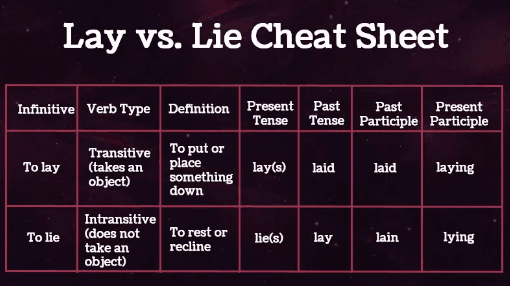
Quiz Time: Test Your Understanding
----------------------------------
Here's a **lay vs lie quiz** to help you test your understanding:
1\. Which of the following sentences is correct?
a) I lay down on the sofa after work yesterday.
b) I lie down on the sofa after work yesterday.
2\. Choose the correct sentence:
a) You need to lay still while I fix this bandage.
b) You need to lie still while I fix this bandage.
3\. Identify the correct usage:
a) He laid on the bed all day.
b) He lay on the bed all day.
(Answers: 1-a, 2-b, 3-b)
How Clapingo Can Help You Master English
----------------------------------------
Clapingo is here to help you conquer the challenges of the English language. Our one-on-one personalised coaching sessions are designed to focus on your unique learning needs. With us, you get a chance to learn from native English speakers who can clarify confusing concepts like lay vs lie or [may vs might](https://clapingo.com/blog/may-vs-might).
Final Thoughts
--------------
In this blog post, we have cleared the confusion of 'lay vs lie'. We've explored their meaning and usage and dived into real-world examples to make things more relatable. Remember these key takeaways: 'lay' requires an object and 'lie' does not. If you're planning to take a nap, you would say "I am going to lie down", not "lay down".
Keep practicing what you have learned and you will be fluent in no time. And Clapingo's flexible sessions can be very beneficial on your English journey. [Sign up](https://clapingo.com/book-instant-demo?undefined) for our personalised sessions today and take the first step towards overcoming language barriers in both professional and personal spheres.
FAQs
----
**1\. What is the difference between lay and lie?**
'Lay' is a transitive verb, meaning it requires an object to complete its sense. For instance, "_Rohan lays the book on the table_." Here, 'book' is the direct object. On the other hand, 'lie' is an intransitive verb and does not require an object. For instance, "_Aryan lies on the sofa_." Here, there is no direct object.
**2\. Could you give me more lay vs lie examples?**
Here are a few:
* Lay: "_I lay my phone down somewhere but can't remember where._"
* Lie: "_After a tiring day at work, I just want to lie down._"
**3\. Is there any easy way to remember when to use lay or lie?**
A simple way to remember this distinction is through a lay vs lie chart or a mnemonic device like: "People lie down, but objects get laid down."
### **You may want to read.**
**[Lier Vs Liar : Understanding Nuances and Usages](https://clapingo.com/blog/lier-vs-liar)
**
---
This blog is powered by Superblog. Visit https://superblog.ai to know more.
---
## Linguistic Twins: Weather vs Whether, a Comprehensive Explanation
Author: Unknown
Published: 2024-03-12
Meta Title: Weather Vs Whether: A Simple Guide for English Learners
Meta Description: Struggling with the usage of 'weather vs whether'? Find easy explanations, practical tips, and examples to master these English language nuances.
Tags: weather vs whether sentences, weather vs whether difference, weather vs whether examples, weather vs whether meaning, weather vs whether definition
URL: https://clapingo.com/blog/weather-vs-whether
Contents
* [Defining 'Weather' and 'Whether'](#defining-weather-and-whether)
* [Distinguishing ‘Weather’ from ‘Whether’](#distinguishing-weather-from-whether)
* [Practical Scenarios and Situations for Usage](#practical-scenarios-and-situations-for-usage)
* [Pronunciation Guide](#pronunciation-guide)
* [Practice Exercise – Weather Vs Whether Worksheets](#practice-exercise-weather-vs-whether-worksheets)
* [The Role of Personalised Language Coaching](#the-role-of-personalised-language-coaching)
* [Final Thoughts](#final-thoughts)
* [FAQs](#faqs)
* [You may want to read](#you-may-want-to-read)

One commonly confused pair of words in English, even for those who are pretty comfortable with the language, is ‘weather’ and ‘whether’. Many non-native English speakers, particularly here in India, often struggle to differentiate between them, understandably so because they sound quite similar.
However, their meanings and usage are different. 'Weather' refers to atmospheric conditions such as rain, sunshine or wind. 'Whether', on the other hand, is used to express a doubt or choice between alternatives.
In this post, we'll delve into the **weather vs whether definition**, and learn about their contexts through **weather vs whether sentences** and practical scenarios.
Defining 'Weather' and 'Whether'
--------------------------------
Let's begin by simplifying the **weather vs whether definition.**
* The term 'weather' refers to meteorological conditions, including temperature, humidity, wind, rainfall, or sunshine. For example, you might say, "_The weather in Mumbai is very humid today_," or "_I love the weather in Shimla during winters._"
* On the other hand, 'whether' is a conjunction used to express a doubt or choice between alternatives. Consider these sentences: "_I'm not sure whether I should take up this job offer_," or "_She was uncertain whether to go for the cricket match or stay home_."
Distinguishing ‘Weather’ from ‘Whether’
---------------------------------------
Understanding the difference between 'weather' and 'whether' with a comparison table for better clarity:
**Word**
**Meaning**
**Example Sentences**
Weather
Refers to climatic conditions like temperature, humidity, wind velocity.
The weather in Delhi is extremely hot in the summer.
Whether
Used to introduce alternatives or express doubt or uncertainty.
He asked her whether she would accompany him.
Practical Scenarios and Situations for Usage
--------------------------------------------
Let's dive into some common situations where the words 'weather' and 'whether' are often misused.
**Scenario 1:** Discussing Climate Conditions vs Expressing Doubt
* Incorrect: I cannot decide whether it will rain tomorrow.
* Correct: I cannot decide whether to carry an umbrella tomorrow.
Explanation: 'Weather' refers to climatic conditions like rain, sunshine etc., while 'whether' is used when expressing doubt or a choice between alternatives.
**Scenario 2:** Talking About Temperature vs Making a Choice
* Incorrect: Weather I should wear a sweater is uncertain.
* Correct: Whether I should wear a sweater depends on the weather.
Explanation: Here 'weather' indicates the temperature condition, whilst 'whether' suggests uncertainty about making a choice.
Check out this Clapingo blog on other commonly confused homophones like [There and Their](https://clapingo.com/blog/there-vs-their).
Pronunciation Guide
-------------------

‘Weather’ and ‘whether’ are homophones. This means they sound exactly the same when pronounced! Let's delve deeper into understanding these homophones and how they can be pronounced correctly.
The words 'weather' and 'whether' are pronounced identically in British English, which can confuse non-native speakers, especially those who rely solely on text-to-speech software or subtitles to learn English. This is where phonetics comes into play.
British English pronunciation for both words is **/ˈwɛðə/**. Here's how to pronounce it:
* Start with the /w/ sound, similar to the beginning of words like "word" or "wonder."
* Next, proceed to the short /e/ vowel sound, like in "bed" or "pen."
* Following that, you articulate /ð/, a voiced dental fricative seen in words like "the" or "that."
* Finally, you end with the unstressed schwa vowel /ə/, as in the final sound of "comma" or "idea."
Practice Exercise – Weather Vs Whether Worksheets
-------------------------------------------------
Ready to put your knowledge to the test? Here is a short **weather vs whether worksheet** that will help you apply what you’ve learnt.
**1\. Fill-in-the-blanks:**
a. \_\_\_\_\_\_\_\_\_ you like tea or coffee?
b. The \_\_\_\_\_\_\_\_\_ is quite hot today, isn't it?
**2\. Match-the-columns:**
**Column A**
**Column B**
Whether
( ) it's raining outside, I'll play cricket.
Weather
( ) you want to join me, it's up to you.
Answer Key:
1\. a) Whether, b) Weather
2\. Whether - ( ) you want to join me, it's up to you.; Weather - ( ) it's raining outside, I'll play cricket.
The Role of Personalised Language Coaching
------------------------------------------
Mastering the subtle nuances of English, like understanding the difference between 'weather' and 'whether', is crucial for effective communication. Through Clapingo's personalised coaching, you can effortlessly conquer these roadblocks. Our native English-speaking tutors focus on your individual struggles, offering tailored tips and strategies.
This personalised approach means you learn faster and more effectively, empowering you to communicate fluently and confidently in diverse scenarios.
Final Thoughts
--------------
In this journey of enhancing your spoken English skills, understanding the difference between 'weather' and 'whether' can be really beneficial.
So, let's recap: remember, 'weather' refers to climatic conditions while 'whether' is used to express doubt or choice between alternatives. Apply these definitions in your everyday language use and you'll start noticing improvements.
For a deeper dive into the fascinating world of English language nuances and for an added boost to your proficiency, explore [Clapingo's](https://clapingo.com/) personalised coaching sessions tailored for non-native English speakers. Our diverse plans offer one-on-one sessions with native English speakers who guide you through intricacies like the 'weather vs whether' conundrum and much more!
FAQs
----
**1\. Why do Indians often confuse ‘weather’ and ‘whether’?**
Weather and whether are homophones. This means they sound alike but have different meanings. For non-native English speakers in India, distinguishing between these two can be difficult, especially if you're not familiar with their usage in context.
**2\. What is the meaning of 'weather' and 'whether'?**
'Weaťher' refers to climatic conditions like sun, rain, wind etc. For example, "T_he weather in Chennai is quite hot today._" On the other hand, 'whether' is used to introduce alternatives or express uncertainty like "_I am not sure whether I should attend the meeting or not._"
**3\. Can you provide some sentences using 'weather' and 'whether'?**
Here are examples of **weather vs whether sentences**:
* Weather: "We cannot predict the weather for tomorrow’s cricket match."
* Whether: "She is deciding whether to go for a movie or stay at home."
### **You may want to read**
**[11 Of The Best Apps For Improving Your English Speaking Skills](https://clapingo.com/blog/best-apps-english-speaking)**
---
This blog is powered by Superblog. Visit https://superblog.ai to know more.
---
## Understanding Each and Every: How to Choose the Right Word
Author: Unknown
Published: 2024-03-12
Meta Title: Discover the Difference - Understanding 'Each' vs 'Every'
Meta Description: Understanding the usage of 'Each' and 'Every' in English. Join us as we explore their differences & examples and improve your spoken English skills.
Tags: each vs every, each vs every difference, each vs every meaning, each vs every example, each vs every usage
URL: https://clapingo.com/blog/each-vs-every
Contents
* [Understanding "Each"](#understanding-each)
* [Dissecting "Every"](#dissecting-every)
* [Each vs Every: The Key Differences](#each-vs-every-the-key-differences)
* [Each Vs Every in Indian English Contexts](#each-vs-every-in-indian-english-contexts)
* [Practical Exercises to Perfect Your Usage](#practical-exercises-to-perfect-your-usage)
* [Watch & Learn- Aiding Understanding with Videos](#watch-and-learn-aiding-understanding-with-videos)
* [Quick Recap](#quick-recap)
* [Frequently Asked Questions](#frequently-asked-questions)
* [You may want to read](#you-may-want-to-read)

Do you remember the last time you were writing an important email to a client and paused, wondering whether to use 'each' or 'every'? Maybe you were describing the features of a product by your company or discussing targets for every quarter. The problem is real.
When it comes to understanding the usage of 'each' and 'every', it's easy to get confused. These words seem deceptively similar, but they can change the meaning of a sentence when used interchangeably.
But don't worry! Like in all [Clapingo blog posts](https://clapingo.com/blog), we are here to clear up your confusion with a comprehensive guide on when and how to use 'each' and 'every'.
Understanding "Each"
--------------------
Let's understand the term 'each' in our **each vs every meaning** exploration. The word 'each' is used to refer to individual members of a group or collection and is usually used when you want to focus on one at a time.
It's simple to use; just remember that it always precedes a singular noun.
For instance, you might say, "_Each student in the class received an award._" Here, you're focusing on the students individually - each student has their own separate award.
Common errors involve forgetting that 'each' is always followed by a singular noun and verb. Avoid sentences like "_Each people were happy._" It should be "_Each person was happy._"
So remember, when you want to emphasise individuality within a group, go for 'each'.
Dissecting "Every"
------------------
Essentially, 'Every' refers to all members of a group or category but treats them as a collective whole, not as individuals.
For instance, when you say "every student in the class", you're referring to all students collectively. You're not focusing on individual students but addressing them as one entity.
Now let's look at some practical examples:
1. "_She attends school every day._" - Here, 'every' is used to denote repetition or regularity.
2. "_Every book on this shelf is interesting_." - In this case, 'every' is used to refer to all the books as a collective whole.
We often see some common mistakes while using ‘Every’. Here are a few:
* Using 'every' with plural nouns:
* Incorrect - "_Every dogs are barking._"
* Correct - "_Every dog is barking."_
* Using 'every' with uncountable nouns:
* Incorrect - “_Every information was useful._”
* Correct – “_All information was useful._”
Each vs Every: The Key Differences
----------------------------------
When it comes to **each vs every usage**, it's important to understand the small differences that separate these two words. Although both are used to talk about individual members of a group, 'each' implies attention to individual items separately, while 'every' refers to all the items as a group.
**Each**
**Every**
Focus
Individual items separately
All items as a group
Example
Each student has received a book.
Every student has received a book.
Each Vs Every in Indian English Contexts
----------------------------------------

Cultural events like festivals provide ideal scenarios for understanding this difference.
Let's take Diwali, a festival celebrated over five days.
* Saying "_I light diyas each day during Diwali_" signifies you light diyas on all individual days, emphasizing each separate day.
* Conversely, "_I light diyas every day during Diwali_" implies the continuity of this action throughout the festival without focusing on individual days.
Confusion often arises with phrases like **each vs every year**, so let's use Pongal as an example.
* While we say "_Each year, I visit my hometown during Pongal_," emphasizing every single year as separate entities.
* We say "_Every year we celebrate Pongal with great fervour_," implying an unbroken tradition over the years.
Practical Exercises to Perfect Your Usage
-----------------------------------------
In your journey towards improving your spoken English, practising **each vs every usage** is key. Here are some exercises that can help:
**1\. Fill in the blanks: Use 'each' or 'every' in the following sentences:**
* \_\_\_\_\_\_\_ employee must submit their report by Friday.
* I water my plants \_\_\_\_\_\_\_ day.
* She visits her grandmother \_\_\_\_\_\_\_ weekend.
**Solution:**
* Each employee must submit their report by Friday.
* I water my plants every day.
* She visits her grandmother each weekend.
**2\. Spot the error: Identify if the sentences use 'each' and 'every' correctly:**
* I meet him at the café each days.
* Every of her paintings is beautiful.
**Solution:**
* Incorrect. Correct sentence: I meet him at the café every day.
* Incorrect. Correct sentence: Each of her paintings is beautiful.
Remember these tips while practising:
* While 'every' can only be followed by singular nouns, 'each' can follow both singular and plural nouns.
* Avoid using ‘each’ or ‘every’ interchangeably; they denote different meanings.
Watch & Learn- Aiding Understanding with Videos
-----------------------------------------------
To further help your understanding of the concept each vs every, we've found a selection of YouTube videos that go into their practical usage in spoken English. These videos take a simple, easy-to-grasp approach, perfect for non-native English speakers in India.
1. [Each vs Every - English In A Minute](https://www.youtube.com/watch?v=n8Ks4K4YPaE&pp=ygUNZWFjaCB2cyBldmVyeQ%3D%3D), BBC Learning English
2. [Each vs Every - Usage and differences - English Grammar lesson](https://www.youtube.com/watch?v=WTS9yUtlbJU&pp=ygUNZWFjaCB2cyBldmVyeQ%3D%3D)
Quick Recap
-----------
Remember the key takeaway - 'each' is used when referring to individual items in a group and 'every' is used for groups as a whole. For instance, _'Each day is a new opportunity_' means every single day individually is a new opportunity, while '_Every year we celebrate Diwali with family_' refers to the group of all years as a whole.
If you're still unsure about **when to use each vs every**, keep practising with the exercises and worksheets we have provided and other online resources.
It's not uncommon for non-native speakers to face challenges with such differences. And [Clapingo](https://clapingo.com/), your supportive companion on this journey, offers personalised coaching sessions focusing on fluency, pronunciation, vocabulary and sentence structure - assisting you in mastering these subtleties.
In the pursuit of English proficiency, one thing holds true - perseverance pays off. [Book your instant demo](https://clapingo.com/book-instant-demo?) with Clapingo today!
Frequently Asked Questions
--------------------------
**1\. What's the difference between 'each' and 'every'?**
While both words refer to individuals within a group, 'each' is used when referring to individual members of a group separately, while 'every' is used to refer to all members of a group collectively.
**2\. Can I use 'each' and 'every' interchangeably?**
Not always. It depends on the context. For instance, in "Each day brings new opportunities," you can replace 'each' with 'every'. But in "Each of my friends has a different taste in music", replacing 'each' with 'every' changes the meaning.
**3\. When to use each vs every day**?
Both can be used to express regularity but ‘each day’ emphasises individual days, whereas ‘every day’ implies all days as a whole.
### **You may want to read.**
**[Mastering the Usage of 'To' vs 'For' - A Comprehensive Guide](https://clapingo.com/blog/to-vs-for)
**
---
This blog is powered by Superblog. Visit https://superblog.ai to know more.
---
## Navigating Grammar: Understanding the difference between Intransitive and Transitive Verbs
Author: Unknown
Published: 2024-03-12
Meta Title: Intransitive Verb vs Transitive Verb: A Simplified Guide
Meta Description: Learn the difference between intransitive and transitive verbs to elevate your English proficiency. This guide is crafted with the Indian learner in mind.
Tags: intransitive verb , intransitive vs transitive, transitive verb
URL: https://clapingo.com/blog/intransitive-verb-vs-transitive-verb
Contents
* [Understanding Intransitive Verbs vs Transitive Verbs](#understanding-intransitive-verbs-vs-transitive-verbs)
* [Identifying Transitivity and Intransitivity of Verbs](#identifying-transitivity-and-intransitivity-of-verbs)
* [Common Mistakes and How to Avoid Them](#common-mistakes-and-how-to-avoid-them)
* [Practical Exercises for Mastering Intransitive Verbs and Transitive Verbs](#practical-exercises-for-mastering-intransitive-verbs-and-transitive-verbs)
* [Advanced Usage of Intransitive Verbs vs Transitive Verbs](#advanced-usage-of-intransitive-verbs-vs-transitive-verbs)
* [How Clapingo Can Help?](#how-clapingo-can-help)
* [FAQs](#faqs)
* [You may want to read](#you-may-want-to-read)

The English language has many grammar rules and exceptions. For Indian learners, particularly those for whom English is not their first language, one such confusion is the distinction between intransitive verbs vs transitive verbs. It's an essential concept, but its practical application can be confusing.
So what are these terms - intransitive and transitive verbs? Simply put, a transitive verb requires an object to express a complete thought, while an intransitive verb does not. But don't get confused by these definitions! By the end of this blog, you will be confidently identifying and using both types of verbs.
Understanding Intransitive Verbs vs Transitive Verbs
----------------------------------------------------
Before we start, let's refresh some basic terms. The basic form of a sentence in English is Subject-Verb-Object. Subjects are the 'doers' in a sentence, verbs indicate the 'action' and objects 'receive the action'. For example, in the sentence "Ravi reads a book", 'Ravi' is the subject, 'reads' is the verb, and 'a book' is the object. Verbs fall under two categories: transitive and intransitive.
Let's begin by understanding transitive verbs. Simply put, a transitive verb requires an object to make the sentence meaningful. For instance, in the sentence "I love biryani", 'love' is a transitive verb as it conveys the action of loving to the object 'biryani'.
Familiar examples of transitive verbs include 'write', 'send', and 'give'. So, you could say, "I write emails", "They send invitations", or "He gives presentations".
Now let's look at intransitive verbs. These are independent verbs that don’t need an object to complete their meaning. They express actions without affecting anything else in a sentence. Take for example: "She smiles". Here, 'smiles' is an intransitive verb as it doesn't require an object for completion.
Commonly used intransitive verbs include 'arrive', 'run' and 'sleep'. You could make sentences like "The train arrives at noon", "They run in the park every morning" or "I sleep early on weekdays".
Understanding the difference between transitive and intransitive verbs can greatly improve your English proficiency and open up a whole new world of communication possibilities!
Identifying Transitivity and Intransitivity of Verbs
----------------------------------------------------
Understanding whether a verb is transitive or intransitive can be challenging. But don't worry; we've got you covered with some practical tips and examples.
**1\. Look for an Object:** A transitive verb requires an object to complete its meaning while an intransitive verb does not. For instance, consider the sentence "Rajesh reads." Here, the verb "reads" leaves us wanting to know – reads what? Hence, it's likely a transitive verb.
**2.** **Asking "what" or "whom":** A transitive verb gives a concrete answer when you ask "what" or "whom" to it. Verbs like "read" and "tell" that provide an answer when asked "read what" or "tell whom" are hence transitive.
**2.** **Sentence Test:** Try constructing a sentence with just the subject and the verb. If it makes complete sense without an object, it's an intransitive verb. For example, "Geeta sleeps."
Common Mistakes and How to Avoid Them
-------------------------------------
Many learners, especially those struggling with the advanced concepts of the English language, confuse transitive verbs with intransitive verbs. Let's look at a few common mistakes Indian English learners often make:
Mistake 1: Using an intransitive verb where a transitive verb is needed.
**Incorrect**
She threw. (But what did she throw?)
**Correct**
She threw the ball.
Mistake 2: Adding an unnecessary object to an intransitive verb.
**Incorrect**
He arrived the party.
**Correct**
He arrived at the party.
To avoid these mistakes, remember this golden rule: transitive verbs need an object to make sense, whereas intransitive verbs do not. Learning more about grammar will help you avoid such errors. Clapingo's [comprehensive guide on learning English grammar step by step](https://clapingo.com/blog/learn-english-grammar-step-by-step) can be a great resource for you.
Practical Exercises for Mastering Intransitive Verbs and Transitive Verbs
-------------------------------------------------------------------------
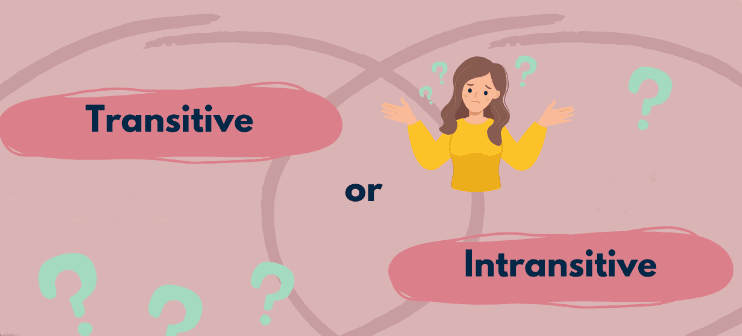
Practice makes perfect! To master the use of intransitive and transitive verbs, here is a short exercise.
Q. Identify whether the following sentences contain intransitive or transitive verbs:
a) The cat chased the mouse.
b) The bird flew.
c) She sings beautifully.
d) They built a house.
e) The flowers bloomed in the garden.
After you are done marking your answers on your own, check below to see if they are correct:
a) Transitive - "chased" (action transfers to "the mouse").
b) Intransitive - "flew" (no direct object).
c) Intransitive - "sings" (no direct object).
d) Transitive - "built" (action transfers to "a house").
e) Intransitive - "bloomed" (no direct object).
Another exercise could be constructing dialogues based on everyday scenarios. Let's take a festive family gathering:
* **Ravi**: "Did you _light_ the candles?" (Light has an object (the candles) and is hence a transitive verb.)
* **Priya**: "Yes, they _glowed_ beautifully all evening." (Glowed does not have any object. It is an intransitive verb.)
Keep practising these exercises which can help you master this tricky aspect of English grammar. For more practical exercises and deeper insights into English grammar, check out the Clapingo blog on [Unlocking the Secrets of English Grammar: A Practical Guide](https://clapingo.com/blog/learning-english-grammar-step-by-step). This guide will surely help you improve your English language skills!
Here's another informative YouTube video about verbs:
Advanced Usage of Intransitive Verbs vs Transitive Verbs
--------------------------------------------------------
It's fascinating to note that some verbs can work both ways - they can be transitive or intransitive based on the context.
Consider the verb ‘run’. You can 'run a marathon' (transitive usage) or just 'run' (intransitive usage). The former requires an object (marathon) for completion, while the latter stands complete by itself. Here's a dialogue to illustrate this:
**Ajay: "I run every day."**
In this case, 'run' is intransitively used since Ajay just runs; he doesn't run anything specific.
Now consider this dialogue:
**Ajay: "I run a startup."**
This time, 'run' is transitively used because Ajay runs something specific – a startup.
Now practice these scenarios in your daily conversation and soon enough, you'll master the use of transitive and intransitive verbs.
How Clapingo Can Help?
----------------------
By now, you've gained a solid understanding of both intransitive and transitive verbs. You know that intransitive verbs don't need an object to complete their meaning, while transitive verbs require one. You’ve also experimented with examples and exercises.
Now, apply this knowledge in your daily interactions. In restaurant orders or office discussions, try to purposefully use these verbs. Soon enough, their usage will become fluent to you!
How about adding professional guidance to this self-practice? This is where [Clapingo](https://clapingo.com/) comes into the picture! Clapingo's one-on-one coaching sessions by native speakers can provide personalised insights into these concepts. The flexible schedules mean you learn at your convenience.
Remember, English mastery is a journey - every small step counts. Start learning with Clapingo now and see how we can make this journey smoother for you!
FAQs
----
**1\. Can you give an example of an intransitive verb?**
Certainly, an intransitive verb doesn't need a direct object to complete its meaning. For example, in the sentence "He laughed.", "laughed" is the intransitive verb.
**2\. How does understanding the difference between transitive and intransitive verbs help?**
Understanding these differences enhances your grammar knowledge, making your English more fluent and accurate.
**3\. How can I improve my usage of transitive and intransitive verbs?**
Understanding the differences between transitive and intransitive verbs is the first step. Regular practice through speaking and writing exercises can also help solidify these concepts.
### **You may want to read.**
**[Then vs Than : Clearing the Common Confusion](https://clapingo.com/blog/then-vs-than)
**
---
This blog is powered by Superblog. Visit https://superblog.ai to know more.
---
## Surprise vs Suprise: Unraveling the Confusion in English Spelling
Author: Unknown
Published: 2024-03-12
Meta Title: Say it Right: The Difference between Surprise and Suprise
Meta Description: Understand the difference between 'Surprise' and 'Suprise' and boost your English language proficiency with this comprehensive, easy-to-understand guide.
Tags: surprise vs suprise, surprise vs suprise difference, surprise vs suprise meaning, surprise Pronunciation, suprise Pronunciation
URL: https://clapingo.com/blog/surprise-vs-suprise
Contents
* [What's in a Word? Understanding Surprise vs Suprise](#whats-in-a-word-understanding-surprise-vs-suprise)
* [Can You Spot the Error? Common Mistakes Made](#can-you-spot-the-error-common-mistakes-made)
* [Pronunciation Matters! How to Say it Right'](#pronunciation-matters-how-to-say-it-right)
* [Handy Tips to Avoid Confusion](#handy-tips-to-avoid-confusion)
* [Clapingo’s Aid: Overcome Common English Language Barriers](#clapingos-aid-overcome-common-english-language-barriers)
* [To Sum Up](#to-sum-up)
* [Frequently Asked Questions](#frequently-asked-questions)
* [You may want to read.](#you-may-want-to-read)

It was Ravi's big day. After months of toil, he was finally ready to present his project to the board of directors. However, instead of 'surprise', he wrote 'suprise' in his PowerPoint presentation. While he delivered a great presentation, many on the board noticed the spelling error and it became a topic of discussion, weakening Ravi’s otherwise brilliant work.
Does that sound familiar? Such minor slip-ups are common amongst non-native English speakers and can impact both personal and professional communication.
In this blog post, we aim to steer you clear of such traps. We will look into the correct pronunciation and usage of ‘surprise’, provide tips for remembering how to use the word correctly, and include practice exercises that will help solidify what you have learned. Let's start.
What's in a Word? Understanding Surprise vs Suprise
---------------------------------------------------
When it comes to English language learning, understanding the correct spellings of words is important.
Let's look at one such example - "surprise". A commonly used word, "surprise" is a noun and a verb and it refers to an unexpected or astonishing event, fact, or thing. For instance, you might say, "_The sudden rainfall was a pleasant surprise_," or "_She surprised him with a birthday party._"
On the other hand, 'suprise' does not exist in English. It’s simply a common misspelling made by learners and even native speakers. It largely happens due to the pronunciation of 'surprise', where the first 'r' often sounds weak or gets omitted entirely in casual conversation.
Can You Spot the Error? Common Mistakes Made
--------------------------------------------
Even for fluent English speakers, spelling errors can sometimes slip into our written communications.
Consider these two sentences:
1. "_I planned a birthday suprise for my sister_."
2. "_The exam results were a complete suprise to him._"
In both instances, the word 'suprise' is incorrect. The correct spelling is 'surprise'. The confusion often arises because while speaking, we tend to pronounce it as if it had one 'r', leading many learners to misspell it in their writing.
So the corrected sentences would look like this:
1. "_I planned a birthday surprise for my sister._"
2. "_The exam results were a complete surprise to him._"
Pronunciation Matters! How to Say it Right'
-------------------------------------------

The word we're looking at is 'surprise', pronounced as /səˈpraɪz/. The first syllable is quite soft, almost like a whisper: 'su'. The stress falls on the second syllable 'prize', pronounced with a clear, long 'i' sound.
Often, mispronunciations lead to spelling errors and thus, we find people writing 'suprise' instead of 'surprise'.
Handy Tips to Avoid Confusion
-----------------------------
Here are three tips to help you distinguish between 'surprise' and 'suprise':
1. **Remember the Correct Spelling:** The correct spelling is 'surprise' - with two R's. Use memory cues to remember this. For instance, associate 'surprise' with the phrase 'Really Remarkable', both having double Rs.
2. **Use Spell Check Tools:** Use spell check tools available in most writing software like MS Word, Google Docs or Grammarly. These tools automatically correct or highlight misspelt words like 'suprise'.
Try this simple exercise at home: write down 10 sentences using the word 'surprise'. This practice will strengthen your understanding of its correct usage and spelling.
Clapingo’s Aid: Overcome Common English Language Barriers
---------------------------------------------------------
Overcoming common English language mistakes, like the misuse of “surprise” and “suprise”, can be a difficult task. But don't worry! With Clapingo's personalised coaching sessions, you can conquer these hurdles easily. Our native English-speaking coaches provide one-on-one sessions in your native language. They make it easier for you to understand and correct your mistakes. One of the primary areas we focus on is pronunciation.
Clapingo can help you learn new words and phrases relevant to different [professional](https://clapingo.com/blog/15-things-your-boss-wishes-you-knew-about-spoken-english-ckue86kgl154371nplz8jdpxvj) and personal scenarios, which can greatly improve your communication skills. In fact, with regular practice and our expert guidance, soon enough "surprise" versus "suprise" will no longer be a challenge in your English fluency journey!
To Sum Up
---------
We've learned that 'suprise' is a common misspelling of the word 'surprise'. Practising regularly and exposing yourself to different contexts where the word ‘surprise’ is used can help you master its spelling and pronunciation.
If you're looking for more personalised guidance to better your language skills, consider [Clapingo](https://clapingo.com/). Made specifically for Indian learners, Clapingo offers flexible one-on-one coaching sessions in English for your unique learning needs. Our coaches are native English speakers who understand the nuances of the language that textbooks often miss.
So keep practising and never hesitate to ask for help when needed.
Frequently Asked Questions
--------------------------
**1\. What’s the difference between ‘surprise’ and ‘suprise’ in English?**
'Surprise' is the correct spelling in English, meaning an unexpected event or piece of information. 'Surprise' can be a noun, as in, "_The party was a great surprise_," or a verb, as in, "_He surprised me with his knowledge._" 'Suprise', on the other hand, is simply an incorrect spelling.
**2\. Is it common for non-native English speakers to misspell ‘surprise’ as ‘suprise’?**
Yes, it's fairly common for non-native English speakers and to misspell 'surprise'. This usually happens because of phonetic confusion—people often spell words how they sound.
**3\. How can I avoid such spelling mistakes in future?**
One way to avoid this particular mistake is by remembering that 'surprise' has two 'r's—one before and one after the 'p'. Practising regularly and reviewing your work are also effective strategies. Clapingo's personalised coaching sessions can help you strengthen your vocabulary and spelling skills.
### **You may want to read.**
**[Okay vs OK: Decoding the Linguistic Evolution of Acceptance](https://clapingo.com/blog/okay-vs-ok)
**
---
This blog is powered by Superblog. Visit https://superblog.ai to know more.
---
## From Individuals to Collectives: Exploring 'Persons' and 'People
Author: Unknown
Published: 2024-03-12
Meta Title: Persons Vs People: A Guide for Indian English Learners
Meta Description: Explore the Persons vs People key differences, understand when to use each term and, and enhance your spoken English skills with this comprehensive guide.
Tags: persons vs people, persons vs people example, persons vs people meaning, persons vs people difference, persons vs people quiz
URL: https://clapingo.com/blog/persons-vs-people
Contents
* [What's The Difference Between Persons Vs People?](#whats-the-difference-between-persons-vs-people)
* [When to Use 'Persons' and 'People'?](#when-to-use-persons-and-people)
* [Common Errors in Using ‘Persons’ and ‘People’](#common-errors-in-using-persons-and-people)
* [How To Correct These Mistakes?](#how-to-correct-these-mistakes)
* [Test Your Understanding](#test-your-understanding)
* [How Can Clapingo Help?](#how-can-clapingo-help)
* [A Quick Recap](#a-quick-recap)
* [FAQs](#faqs)
* [You may want to read.](#you-may-want-to-read)

Chances are you've found yourself in a dilemma when it comes to using 'persons' and 'people' correctly. You're not alone - this is a common confusion among non-native English speakers in India. But why is it important to know the difference? Improving your understanding of these seemingly similar words can help enhance your overall communication skills, enabling more precise and effective expression.
Through the course of this blog post, we aim to decode the difference between **'persons' vs 'people'**. We'll delve into the correct contexts for each term, provide practical examples, and equip you with actionable tips to use them accurately. Let's dive in!
What's The Difference Between **Persons Vs People**?
----------------------------------------------------
While ‘persons’ and ‘people’ seem similar, their usage differs in contemporary English. 'People' is generally preferred in informal and most formal contexts as the plural of 'person', used when referring to a group collectively. On the other hand, 'persons' is used more formally and specifically, usually in legal or official contexts when individuals are being separately considered.
**Term**
**Usage**
**Example**
**People**
Used to refer to more than one person collectively, typically in informal and general formal contexts.
"The people of India love cricket."
**Persons**
Used when referring to individuals separately or individually, often in legal contexts.
"Persons found littering will be fined."
### When to Use 'Persons' and 'People'?
Let's understand when to use 'persons' or 'people' with some practical examples:
1. **Use of 'People':** It's the most widely used term to refer to more than one person. For instance, "_The people in my neighbourhood are very friendly_". Here, we are referring to a collective group.
2. **Use of 'Persons':** This is typically used in legal contexts or formal writings when referring to individuals within a larger group. For instance, "T_he elevator is suitable for 12 persons_". Here, each individual's identity matters.
Common Errors in Using ‘Persons’ and ‘People’
---------------------------------------------
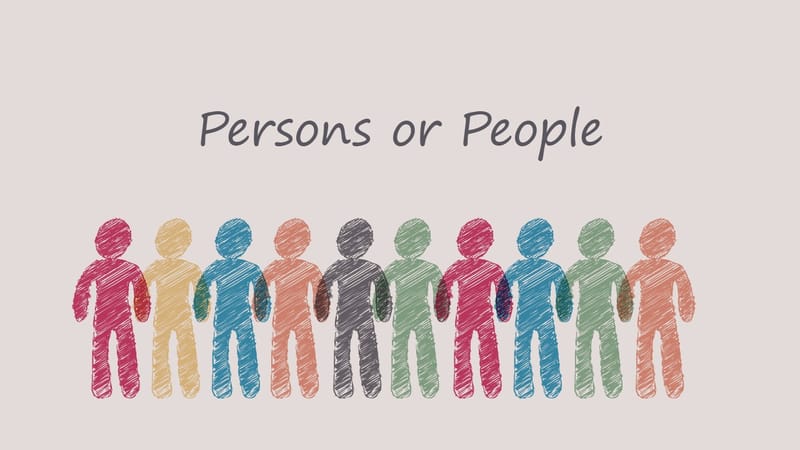
Here are three common mistakes non-native English speakers make when using these terms:
**1\. Interchanging the Terms:**
Many learners assume that since 'person' and 'people' both refer to human beings, they can be used interchangeably. But that's not correct. Example: Incorrect - "_There were five persons in the room._" Correct - "_There were five people in the room._"
**2\. Using 'Persons' in Informal Speech:**
The term 'persons' is typically used in legal documents, formal reports, or official notices and sounds awkward in casual conversation. Example: Incorrect - "_I met some interesting persons at the party_." Correct - "_I met some interesting people at the party._"
**3\. Ignoring Contextual Usage:**
In some situations, 'persons' might be used to emphasize individuality within a group, while 'people' generally refers to a group as a whole. This subtle distinction is often overlooked. Example: Incorrect (if emphasizing individuality) - “_The team consists of five people with unique skills_.” Correct - “_The team consists of five persons with unique skills._”
### How To Correct These Mistakes?
Here's a step-by-step approach to rectify this common mistakes:
* **Step 1: Recognise the Error**
This initial step involves being aware of the mistake. For example, in a conversation between a student and a tutor:
Student: "There were 25 persons in the conference."
Tutor: "Actually, we should say 'people' instead of 'persons'. Let's correct that."
* **Step 2: Understand The Rule**
Remember, ‘people’ is generally preferred when talking about an unspecified number or collective group. ‘Persons’ is used in formal or legal contexts.
* **Step 3: Consistent Practice**
Keep using 'people' in sentences where you're referring to more than one person until it becomes your second nature.
Test Your Understanding
-----------------------
Let's see how well you've grasped the distinctions between 'persons' and 'people'. Try answering these questions:
1. Which term is more commonly used in everyday English – ‘Persons’ or ‘People’?
2. Can ‘Persons’ be used in legal contexts? Yes/No
3. Is it correct to say, "There are many persons in this room"? Yes/No
Check your answers: 1. People; 2. Yes; 3. No
How Can Clapingo Help?
----------------------
When it comes to understanding the nuanced distinction between 'persons' and 'people', Clapingo’s one-on-one coaching sessions can be a game-changer. Our native English-speaking coaches can guide you through these tricky terrains of language and help you grasp such subtleties effortlessly. You get personalised attention and the chance to clarify all your doubts in real-time.
So, whether you're a student looking to ace [English exams](https://clapingo.com/ielts) or a professional aiming to communicate effectively at work, Clapingo's personalised programme is designed keeping YOU in mind.
A Quick Recap
-------------
Let's summarise our key takeaways about the usage of **'Persons' vs 'People'**.
* Firstly, while both 'Persons' and 'People' refer to more than one individual, their usage is context-specific. 'People' is generally used in informal settings or to refer to a large group with shared characteristics. On the other hand, 'persons' is typically used in legal or formal contexts and when referring to a specific number of individuals.
* Secondly, remember that consistent practice is crucial for mastering English conversation. Try using these words in your daily conversations and observe how others use them.
* Lastly, understanding these subtle nuances can significantly enhance your communication skills, enabling you to express yourself accurately and confidently.
We at [Clapingo](https://clapingo.com/) are here to guide you every step of the way in your English language journey. Our personalised coaching sessions provide targeted assistance, helping you overcome language barriers effortlessly. [Book your instant demo now](https://clapingo.com/book-a-demo)!
FAQs
----
**1\. What is the difference between 'persons' and 'people'?**
'Persons' and 'people' both refer to more than one individual. However, their usage varies. 'People' is the regular plural of 'person', used in general contexts. For instance, "Many people visit the Taj Mahal every year." On the other hand, 'persons' is used in a formal or legal context. For example, "The elevator has a capacity limit of 10 persons."
**2\. Can I use 'persons' instead of 'people' in everyday conversation?**
While technically correct, it's generally not common to use 'persons' in casual conversation or non-formal writing. Using 'people' sounds more natural and is widely accepted. Think of it like saying "Could I have a cup of tea?" instead of "Could I be given a cup of tea?"
**3\. Are there any exceptions to these rules?**
Yes, language is flexible and evolving! While these are standard rules, you might sometimes see deviations in literature or creative writing where writers experiment with language for dramatic effect.
### **You may want to read.**
[Ms vs Miss vs Mrs: Understanding Titles and Etiquettes](https://clapingo.com/blog/ms-vs-miss-vs-mrs)
---
This blog is powered by Superblog. Visit https://superblog.ai to know more.
---
## Precision in Language: The Usage of 'In' versus 'Into'
Author: Unknown
Published: 2024-03-12
Meta Title: In vs Into: Master These Prepositions with Clapingo
Meta Description: Unravel the mystery of 'in' vs 'into' prepositions with our guide and worksheet. Boost your spoken English, confidence, and career with Clapingo today.
Tags: in vs into, in vs into examples, in vs into preposition, in vs into difference, in vs into exercise
URL: https://clapingo.com/blog/in-vs-into
Contents
* [What are Prepositions?](#what-are-prepositions)
* [Understanding ‘In’ and ‘Into’: Meaning and Usage](#understanding-in-and-into-meaning-and-usage)
* [In](#in)
* [Into](#into)
* [Differentiating ‘In’ from ‘Into’](#differentiating-in-from-into)
* [Widespread Mistakes Using ‘In’ and ‘Into’](#widespread-mistakes-using-in-and-into)
* [Tips For Correct Usage of "In" Vs "Into"](#tips-for-correct-usage-of-in-vs-into)
* [Practice Makes Perfect – Using Worksheets](#practice-makes-perfect-using-worksheets)
* [Final Thoughts](#final-thoughts)
* [FAQs](#faqs)

Ever found yourself puzzled while writing an email, uncertain whether to use 'in' or 'into'? If so, you're not alone. Understanding the difference between these two seemingly similar prepositions can be quite tricky for non-native English speakers.
Knowledge of **when to use 'in' and 'into**', and their appropriate placement in a sentence, could mean the difference between an ordinary speaker and a proficient one. This blog post aims to unravel these complexities, acting as an interactive **in vs into worksheet**, guiding you through the intricate maze of these prepositions.
By gaining clarity on in vs into, not only will your confidence in English communication soar but using them correctly will become second nature in your day-to-day interactions. So let's dive right into the world of prepositions!
What are Prepositions?
----------------------
Before diving into the in vs into debate, let's familiarise ourselves with prepositions. Prepositions are useful little words that establish relationships between different parts of a sentence. They act like bridges, connecting nouns, pronouns, or phrases to other words within the sentence. For instance, in the sentence "_The book is on the table_", 'on' is a preposition that links 'book' and 'table'.
Prepositions come in many forms. Some commonly used ones include: **at, by, for, from, in, into, of, off, on** and **with**.
Prepositions carry hefty weight in English language conversations. Misusing them can lead to confusing or incorrect sentences.
Understanding ‘In’ and ‘Into’: Meaning and Usage
------------------------------------------------
Let's unlock the mystery of 'in' vs 'into' that often creates confusion for English learners. Essentially, both are prepositions used in different contexts.
### In
The preposition 'in' denotes a state or condition of being enclosed or surrounded. For example,
* You might say, "_I am in the office_", indicating your current position inside a specific location.
* In terms of time, we could say "_The train arrives in 10 minutes_”, implying an interval before a certain event occurs.
* When it comes to situations, the sentence “_She is in trouble_” exhibits this use.
### Into
On the other hand, 'into' signifies movement or transformation from one state to another. For instance,
* If you're moving from outside to inside a building, you'd use 'into', as in "_He walked into the room_”.
* It can also depict a change in form or condition like “_She transformed into a beautiful butterfly_”.
Differentiating ‘In’ from ‘Into’
--------------------------------
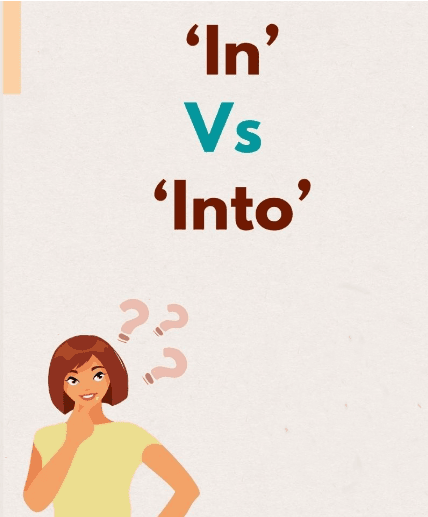
As we delve into the nuances of English language, understanding the difference between 'in' and 'into' can be quite a challenge.
Here's a comparison table that underlines their key differences:
**Preposition**
**Usage**
**Example**
In
Describes a state of being within a boundary
Alok is studying in his room.
Into
Indicates a movement or transition from one place to another
Alok walks into his room to study.
Widespread Mistakes Using ‘In’ and ‘Into’
-----------------------------------------
A common challenge for non-native English speakers is the correct usage of prepositions 'in' and 'into'.
One widespread mistake involves using 'in' when the action signifies movement or direction, requiring 'into'. For instance, incorrectly saying "He jumped in the pool" instead of the correct "He jumped into the pool". Here 'into' signifies moving from outside to inside.
Another prevalent error is using 'into' when there's no transition involved. For example, saying "She is into the room" instead of correctly saying "She is in the room". In this situation, 'in' should be used as it denotes location or position.
Remember, while both are prepositions, use 'in' to express a state or condition, and 'into' for actions involving direction and transformation. Make it a daily practice to mindfully apply these rules in your conversations for steady improvement.
Tips For Correct Usage of "In" Vs "Into"
----------------------------------------
1. **Movement:** Use 'into' when indicating movement from outside to inside. Example: _She walked into the classroom._
2. **Location:** Use 'in' for stationary positions. Example: _He's in the office_.
3. **Transformation:** 'Into' signals a change or transformation. Example: _He turned into a reliable person._
4. **Degree of Involvement:** Use 'into' to convey involvement or interest. Example: _I am really into the cricket match._
Practice Makes Perfect – Using Worksheets
-----------------------------------------
Mastering prepositions, particularly the subtleties between "in" and "into," requires consistent practice. A powerful tool to aid this learning process is a focused in vs into worksheet.
These worksheets offer targeted exercises that challenge your understanding of these prepositions, helping you to recognize their correct usage in different contexts.
Let's try a small exercise now. Fill in the blanks with either 'in' or 'into':
1\. She jumped \_\_\_\_\_\_ the swimming pool.
2\. We're living \_\_\_\_\_ a digital age.
3\. He turned \_\_\_\_\_\_ his boss for advice.
4\. There are many benefits to investing \_\_\_\_\_ real estate.
Solution: 1. into, 2. in, 3. to, 4. in
Final Thoughts
--------------
We've journeyed through the labyrinth of English prepositions, exploring the distinct meanings and differences between 'in' and 'into'. Remember, 'in' describes a state of being within a boundary while 'into' shows movement from outside to inside. Expanding your understanding of these two words will enhance your English fluency.
[Clapingo](https://clapingo.com/) is here to support you on this journey. Clapingo offers personalised coaching sessions that focus on improving your grasp of prepositions among other language aspects. Our wealth of resources, including practical worksheets and insightful blogs, provide ample opportunities for practice and learning.
Stay curious, keep learning, and continue your exciting journey towards English fluency with us at Clapingo!
FAQs
----
**1\. What is the difference between 'in' and 'into'?**
The prepositions 'in' and 'into' are often used interchangeably, but they have subtly different meanings. 'In' denotes a state of being inside something, whereas 'into' indicates movement from outside to the inside of something.
**2\. Can you give me some more examples of using 'in' and 'into'?**
Remember to use 'in' when displaying a static position: "_He’s in the garden_". Use 'into' to show movement: "_She walked into the room_". Notice how these **in vs into examples** highlight that ‘in’ shows location while ‘into’ shows action.
**3\. Why is understanding the difference between 'in' and 'into' important?**
As English learners, understanding the **in vs into differences** is crucial for accurate communication. Misusing these prepositions could potentially distort your intended meaning, confusing listeners or readers. By mastering this **in vs into preposition** distinction, you'll enhance your English fluency considerably.
### **You may want to read.**
[Inter vs Intra: Exploring Prefixes and Their Impact](https://clapingo.com/blog/inter-vs-intra)
---
This blog is powered by Superblog. Visit https://superblog.ai to know more.
---
## To vs Too: A Simple Guide to Proper Usage
Author: Unknown
Published: 2024-03-12
Meta Title: Mastering the Use of ‘To’ vs ‘Too’: A Simple Guide
Meta Description: Discover the correct usage and meanings of 'To' and 'Too.’ Improve your spoken English skills with our comprehensive guide with examples and exercises.
Tags: to vs too difference, to vs too meaning, to vs too example, to vs too
URL: https://clapingo.com/blog/to-vs-too
Contents
* [Crack The Code: Understanding the Meaning of ‘To vs Too’](#crack-the-code-understanding-the-meaning-of-to-vs-too)
* [Can You Tell Them Apart? To vs Too Examples](#can-you-tell-them-apart-to-vs-too-examples)
* [Your Cheat Sheet: Use of ‘To’ vs ‘Too’ in Sentences](#your-cheat-sheet-use-of-to-vs-too-in-sentences)
* [To vs Too: A Quiz to Test Your Understanding](#to-vs-too-a-quiz-to-test-your-understanding)
* [Practical Tips to Remember the Difference Between ‘To’ and ‘Too’](#practical-tips-to-remember-the-difference-between-to-and-too)
* [Summing Up](#summing-up)
* [FAQs](#faqs)

English can be a tricky language, especially when it comes to similar-sounding words like "to" and "too". Mastering their usage is crucial for effective communication in personal and professional spheres.
"To" is typically used to indicate direction or purpose. "Too", on the other hand, is used to show that something is extra or excessive. But there is more to know about their usage.
This article is your guide to the usage and meaning of "to" and "too". We'll walk you through their definitions, practical examples and exercises designed for non-native English speakers. By the end, you will have a better grasp of these often-confusing words.
Crack The Code: Understanding the Meaning of ‘To vs Too’
--------------------------------------------------------
Understanding the difference between common words like 'to' and 'too' is crucial in English language learning. First let's break down the definitions of to vs too:
* **To**: Prepositions are words that show the relationship between different words in a sentence. "To" is a preposition used to indicate direction, place, or position. For example, "She went to the store."
It can also function as an infinitive marker. Here, it shows that the verb used after "to" is in its basic form. For instance, "She likes to sing," or "I want to eat."
* **Too**: Adverbs are used to describe a verb or an adjective. "Too" is an adverb used to indicate excessiveness or additionally. For example, "This curry is too spicy" or "I like cricket too."
Remembering these rules will help you crack the code and understand the proper use of 'to' vs 'too'. Keep practising them in your daily conversations!
Can You Tell Them Apart? To vs Too Examples
-------------------------------------------
Let's look at a few easy 'to vs too' examples that you can apply in your daily life.
**1\. To:** Consider the sentence, "I am going _to_ school." Here, 'to' is used to indicate direction or movement.
**2\. Too:** In contrast, look at this sentence: "This curry is _too_ spicy for me." Here, 'too' implies excessiveness.
**3\. To and Too:** Now, let's combine them: "I want to go too!" In this instance, 'to' indicates purpose, while 'too' expresses the desire to join.
These examples are simple but essential in mastering the use of ‘to’ and ‘too’.
Your Cheat Sheet: Use of ‘To’ vs ‘Too’ in Sentences
---------------------------------------------------
Here are some phrases and sentences that will help you understand and practice the use of 'to' vs 'too'.
### To
1\. Going To
I am going _to_ the office for a meeting.
2\. Listen to Music
I love _to_ listen _to_ music while travelling.
3\. To Learn
She is eager _to_ learn English to enhance her career prospects.
4\. Travel to
They plan _to_ travel _to_ Delhi for a family wedding.
5\. Write to
It’s important _to_ write _to_ him about our decision.
### Too
1\. Too Tired
After the long journey, I was _too_ tired to attend the party.
2\. Too Spicy
The Biryani was _too_ spicy for my taste.
3\. Too Exciting
The cricket match was _too_ exciting, I couldn’t sleep!
4\. She's Coming Too
Don't forget, she's coming _too_.
5\. Too Expensive
That branded watch is _too_ expensive for me.
With these examples at your fingertips, you have taken one more step towards mastering English speaking skills!
For more tips and exercises, do check out this Clapingo blog post on [Mastering English Speaking Skills Alone: A Practical Guide](https://clapingo.com/blog/practice-english-speaking-alone)[.](https://www.clapingo.com/blog/mastering-english-speaking-skills-alone-a-practical-guide\).) Don't forget, practice makes perfect! So keep practising and bring your English speaking to new heights!
To vs. Too: A Quiz to Test Your Understanding
---------------------------------------------
Now let's put the 'to vs too' grammar rules you've learned into practice with this interactive quiz. This will help you understand the practical use of 'to' and 'too' in sentences.
Choose the correct option:
1. I am going \_\_\_\_\_ (to/too) the market.
Correct answer: To.
Explanation: 'To' is used here to indicate direction or destination.
2. The curry is \_\_\_\_ (to/too) spicy for me \_\_\_\_ (to/too) eat.
Correct answer: Too, to.
Explanation: 'Too' indicates an excessive degree of spiciness, and 'to' shows purpose.
3. I love samosas \_\_\_\_\_\_ (to/too) much!
Correct answer: Too.
Explanation: Here, 'too' is used to express a high degree of liking.
This is just a glimpse of what understanding to and too can do for your English proficiency.
Practical Tips to Remember the Difference Between ‘To’ and ‘Too’
----------------------------------------------------------------

Here are two handy tips to recall which 'to' or 'too' to use.
* **Mnemonic Device:** Think of 'too’ as extra, symbolised by its extra ‘o’. Whenever you need to express excessiveness or addition, use 'too'. For instance, "It's too hot today", means the heat is excessive.
* **Visual Aid:** Imagine a scale, on one side is 'to', representing direction or purpose like "She went to the store". On the other side is 'too', representing more than needed or in addition like "I too want a mango".
Clapingo’s personalised coaching sessions can be a great help in honing these rules of the English language. The tutoring by native speakers will provide you with clearer insights into such differences and more!
Here's a YouTube video to learn more about Clapingo:
Summing Up
----------
In this journey, we've looked into the mystery surrounding 'to' and 'too'. We've discussed their meanings and examples and challenged ourselves with quizzes. We've examined the use of 'to' as a preposition or part of an infinitive and 'too' as an adverb indicating excess or additionally. We've practised exercises and experimented with using 'to' and 'too' in sentences.
Learning a language can be tough, but remember - practice is your best friend. As you continue practising the usage of 'to' vs 'too', you'll find how easily it becomes second nature. Every small step takes you closer to speaking English fluently.
And remember, learning platforms like [Clapingo](https://clapingo.com/) are there to guide you through these challenges, making your language-learning journey less terrifying and more enjoyable. Happy learning!
FAQs
----
**1\. What's the difference between 'to' and 'too'?**
'To' primarily indicates direction or purpose, like "going _to_ a cricket match". 'Too' means also or excessively, as seen in "It's _too_ hot today."
**2\. Can I use 'to' and 'too' interchangeably?**
No, they have different meanings and uses in English grammar. Using one instead of another can change the meaning of your sentence completely.
**3\. How can I practice the use of 'to' vs 'too'?**
Try practising with sentences that require the use of both words. Use to vs too exercises and quizzes available online for more practice.
---
This blog is powered by Superblog. Visit https://superblog.ai to know more.
---
## The Grammar Guide to Fiancé and Fiancée: Know the Difference
Author: Unknown
Published: 2024-03-12
Meta Title: Understanding the Meaning of 'Fiancé vs. Fiancée': A Guide
Meta Description: Understanding 'Fiancé' and 'Fiancée' in English: Meaning, Pronunciation, Practical Examples, Exercises, and Usage for Non-Native Indian Speakers
Tags: fiance vs fiancee, fiance vs fiancee difference, fiance vs fiancee meaning, fiance vs fiancee example, fiance vs fiancee guide
URL: https://clapingo.com/blog/fiance-vs-fiancee
Contents
* [What Do 'Fiancé' and 'Fiancée' Mean?](#what-do-fiance-and-fiancee-mean)
* [Pronouncing 'Fiancé' Vs 'Fiancée': Spotting the Difference](#pronouncing-fiance-vs-fiancee-spotting-the-difference)
* [Using Fiancé and Fiancée in Sentences: Practical Examples](#using-fiance-and-fiancee-in-sentences-practical-examples)
* [Is There a Gender-Neutral Term? Exploring Progressive Language Policies](#is-there-a-gender-neutral-term-exploring-progressive-language-policies)
* [Common Mistakes and Misconceptions with 'Fiancé' and 'Fiancée'](#common-mistakes-and-misconceptions-with-fiance-and-fiancee)
* [Mastering the Usage of 'Fiancé' Vs 'Fiancée': Tips and Tricks](#mastering-the-usage-of-fiance-vs-fiancee-tips-and-tricks)
* [Key Takeaways](#key-takeaways)
* [FAQs](#faqs)
* [You may want to read.](#you-may-want-to-read)

Imagine this: Ravi has just proposed to his girlfriend, and in excitement, he rushes to social media to announce his engagement. However, a minor slip - he refers to his fiancé as fiancée in his posts! Why does it matter? Because 'fiancé' and 'fiancée' are not just replaceable terms; they bear different meanings that reflect one's gender.
Such confusions are commonplace in English language usage, especially for non-native speakers like us in India. And that's precisely why we're here today—to clear any doubts around 'fiancé vs fiancée'. With proper understanding and guidance on 'fiancé vs fiancée', you'll soon be able to differentiate between the two terms without hesitation or doubt.
Look out for our following sections where we will unpack the meaning of each term, pronounce them correctly, distinguish their usage through relatable examples, and finally provide some vital tips that can help you remember their usage.
What Do 'Fiancé' and 'Fiancée' Mean?
------------------------------------
Many of us often get confused by similar-looking words that have slight differences. One such pair is 'fiancé' and 'fiancée'. As we look into the **fiancé vs fiancée meaning**, let's remember that both these terms relate to engagement in a relationship.
The term 'fiancé' refers to a man who is engaged to be married. And, 'fiancée' pertains to a woman who has accepted a marriage proposal. The difference lies in the language's gender specificity, originating from French where nouns have male and female forms.
To further illustrate, consider this example: If Rahul proposes to Priya and she accepts, Rahul becomes Priya's fiancé, while Priya is Rahul's fiancée. The difference might seem small but it's significant in denoting gender roles in relationship statuses.
Pronouncing 'Fiancé' Vs 'Fiancée': Spotting the Difference
----------------------------------------------------------
Both 'fiancé' and 'fiancée' are borrowed from French and are pronounced identically. In phonetic symbols, both words look like this: **/fiːˈɒnseɪ/**.
The first syllable sounds like "fee", followed by an "ohn" sound (not emphasizing the "n"), and ending with a clearly pronounced "say". While the written difference between the two terms is based on gender, their pronunciation remains unchanged in English.
Using Fiancé and Fiancée in Sentences: Practical Examples
---------------------------------------------------------
Let’s dive into some practical examples that clear up the confusion between 'fiancé' and 'fiancée'.
1\. "_Rajiv is my fiancé. We will tie the knot next month._" (Here, Rajiv is a man engaged to be married, hence 'fiancé'.)
2\. "_Meet Priya, my fiancée. Our wedding is in December._" (In this case, Priya is a woman who is engaged, hence we use 'fiancée'.)
Now let's look at these short dialogues for clearer understanding:
**Scene at an office party:**
* A: "Who's that guy you're with?"
* B: "Oh, that's Ajay. He's my fiancé."
**Conversation between friends:**
* A: "I heard you got engaged!"
* B: "Yes! My fiancée, Meena, said yes!"
Is There a Gender-Neutral Term? Exploring Progressive Language Policies
-----------------------------------------------------------------------
The trend of using 'fiancé' as a gender-neutral term reflects a growing respect for and acknowledgement of diverse gender identities.
The traditional fiancé vs fiancée distinction, while still widely used, fails to accommodate non-binary or gender-fluid individuals.
For the LGBTQ+ community, adopting gender-neutral terms is a step towards greater acceptance and understanding.
Instead of using "fiancé" or "fiancée", consider using the more inclusive term "partner". Similarly, "spouse" can be used in place of "husband" or "wife". Here's an example: Instead of saying, "_My fianc_é_e is an artist_," you could say, "_My partner is an artist._"
So next time you talk about your 'fiancé' or 'fiancée', remember that there are gender-neutral terms that you can choose to use.
Common Mistakes and Misconceptions with 'Fiancé' and 'Fiancée'
--------------------------------------------------------------

Misunderstandings abound when it comes to the words 'fiancé' and 'fiancée'. Let's clear some of these misunderstandings together.
**Mistake 1:** _Assuming both words mean the same._ The **fiancé vs fiancée meaning** differs; 'fiancé' refers to a man engaged to be married, while 'fiancée' refers to a woman in the same position.
**Mistake 2:** _Incorrect pronunciation._ Confusingly_,_ **fiancé vs fiancée pronunciation** is identical in English even though they're spelt differently. Remember that both words are pronounced as fee-ohn-sey.
To avoid these common errors, remember these tips:
1. Always consider the person's gender before using either term in writing.
2. Practice the correct pronunciation: fee-ohn-sey for both words.
3. Revise the **fiancé vs fiancée definition** frequently until you're comfortable with it.
Mastering the Usage of 'Fiancé' Vs 'Fiancée': Tips and Tricks
-------------------------------------------------------------
As we have elaborated in 'Mastering English Pronunciation'[,](https://www.youtube.com/user/clapingo\),) fluency is about more than just vocabulary; it involves understanding small differences in pronunciation that can change the meaning of words. Knowing how to pronounce and use terms like "fiancé" and "fiancée" can make you sound more fluent in English.
To master these, you need regular exposure to the language, constant practice, and repetition.
* For example, repeat after native speakers or listen to them on audio tapes or videos. This will help you recognise and mimic their pronunciation patterns for words like 'fiancé' vs 'fiancée'.
* Another tip is to expose yourself to different settings where these terms are used. You can try reading romance novels or watching romantic movies where characters are often referred to as fiancé or fiancée.
To look deeper into mastering such fine points in English pronunciation, consider joining [Clapingo's personalised coaching sessions](https://clapingo.com/product/online-english-speaking-course-india). These one-on-one sessions with native English speakers will provide you with direct feedback on your pronunciation and help fine-tune your spoken English skills.
Key Takeaways
-------------
In our discussion on 'fiancé' vs 'fiancée', we learned that these two French-derived words describe individuals engaged to be married, but they differ in gender. While 'fiancé' refers to a man, 'fiancée' denotes a woman. It's also important to pronounce them correctly: the syllable stress is on the last syllable in both terms - fee-ohn-sey.
We also saw the rising trend of using 'fiancé' as a gender-neutral term, respecting and reflecting diverse gender identities.
However, we commonly mix up these terms due to their similar pronunciation and spelling. To avoid such mistakes, remember their differences and practice regularly.
Mastering such details in English can be challenging. That's why [Clapingo](https://clapingo.com/) offers personalized coaching sessions conducted by native English speakers who know exactly how to help you overcome these hurdles. Explore Clapingo's offerings and take your first step towards mastering pronunciation and enhancing your spoken English fluency.
FAQs
----
**1\. What does fiancé and fiancée mean, and how are they different?**
Fiancé and fiancée are French terms used to refer to a man and a woman engaged to be married, respectively. The difference lies in the gender; 'fiancé' is for males, while 'fiancée' is for females.
**2\. How do you pronounce fiancé and fiancée?**
Both 'fiancé' and 'fiancée' have similar pronunciations. They sound like "fee-ohn-say." However, in the case of 'fiancée', the emphasis may be stronger on the last syllable in certain accents and regions.
**3\. Are these terms gender-neutral?**
No, these two terms are not gender-neutral. 'Fiancé' refers to a man engaged to be married, while 'fiancée' refers to a woman.
### **You may want to read.**
[Top 35 Books To Help You With English Learning](https://clapingo.com/blog/english-learning-books)
---
This blog is powered by Superblog. Visit https://superblog.ai to know more.
---
## Hoping vs. Hopping: A Clear Guide to Clearing the Spelling Confusion
Author: Unknown
Published: 2024-03-12
Meta Title: Understanding the meaning "Hoping vs Hopping": A Guide
Meta Description: Unravel the mystery of "hoping vs. hopping." Learn their meanings, usage, examples, and pronunciation to enhance your English language skills
Tags: hoping vs hopping, hoping vs hopping difference, hoping vs hopping meaning, hoping vs hopping example, hoping vs hopping spelling
URL: https://clapingo.com/blog/hoping-vs-hopping
Contents
* [What’s in a Word? Understanding Hoping and Hopping](#whats-in-a-word-understanding-hoping-and-hopping)
* [Tips to Remember the Difference Between Hoping and Hopping](#tips-to-remember-the-difference-between-hoping-and-hopping)
* [The Importance of Pronunciation: Hoping vs Hopping](#the-importance-of-pronunciation-hoping-vs-hopping)
* [Building Vocabulary: Practice Makes Perfect!](#building-vocabulary-practice-makes-perfect)
* [Key Takeaways](#key-takeaways)
* [Frequently Asked Questions](#frequently-asked-questions)
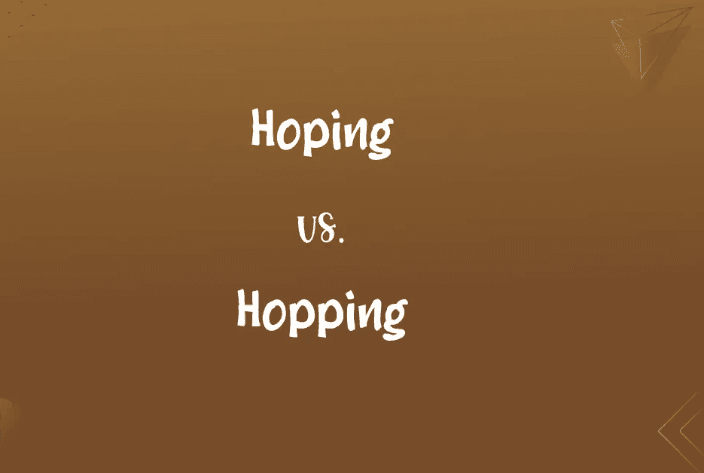
The words 'hoping' and 'hopping' are spelt and pronounced quite similarly. But they carry entirely different meanings. 'Hoping', derived from the noun 'hope', refers to the act of desiring a particular outcome or event to occur. On the other hand, 'hopping' pertains to the act of jumping lightly and quickly on one foot or both.
Consider a common scenario: you're speaking English with your friends and say, "I'm hopping for a promotion this year". Your friends seem confused because they picture you jumping around for a job upgrade instead of desiring it. Mistaking 'hoping' for 'hopping' and vice versa is a common issue among non-native English speakers in India, leading to such humorous mix-ups in daily conversations.
This blog post aims to eliminate such confusion by providing clarity on the meaning of hoping vs hopping. Remember, mastering spelling and pronunciation is essential for effective communication. Even small errors can change the meaning of your sentences dramatically and mess up your intent. Let's dive deeper into understanding these terms and their correct usage!
What’s in a Word? Understanding Hoping and Hopping
--------------------------------------------------
When we're learning English, words that sound similar can often cause confusion. 'Hoping' and 'hopping' are two such words.
As mentioned earlier, hoping refers to the act of expressing a desire or expectation for something to happen. For instance, "I am hoping for good weather tomorrow."
On the other hand, hopping means jumping lightly off one's feet. For example, "The rabbit was hopping across the garden."
Here are some situations where each word would be used appropriately:
### Word
### Appropriate Situations
### Examples
**Hoping**
When making a wish or expressing a desire
"I am hoping to visit Shimla next summer."
Making an optimistic prediction
"We are hoping that our team wins the cricket match."
**Hopping**
Descriptively in storytelling
"The children were hopping like kangaroos at the party."
In expressions like ‘bar hopping’
"We went bar hopping to celebrate our graduation."
Tips to Remember the Difference Between Hoping and Hopping
----------------------------------------------------------
**1\. Letter Count**: Remember that 'hoping' has 6 letters, while 'hopping' has 7. The extra letter in 'hopping' can remind you that it involves an additional action – the physical act of jumping.
**2\. Connecting with Meaning**: Connect the terms to their meanings. 'Hoping' is about expecting or wishing for something to happen, which is a mental activity. On the other hand, 'hopping' involves movement and physical effort, which demands more energy—like the double 'p' in it.
**3\. Looking out for context:** Context plays a key role in determining the correct word choice. Imagine you're at a cricket match, eager for India to win. You'd say, "I'm hoping India wins today!" But if you see the cheerleaders dancing on the sidelines, you'd say, "Look at those cheerleaders hopping and dancing. They're so energetic!"
**4\. Pronunciation Practice**: Rehearsing different sentences aloud can help strengthen your understanding. Try sentences like "I am hoping for a promotion this year" versus "The rabbit was hopping around in the garden."
Let's consider a quick role-play example:
* Rohan: "What are you doing these days, Neha?"
* Neha: "I've been hoping to find a new job soon."
* Rohan: "Ah, I remember how anxious I was when I was in your shoes!"
* Neha: "And what about you? How are your kids?"
* Rohan: "They're great! My son has been hopping from one hobby to another during his summer break."
In this dialogue, Neha uses ‘hoping’ to express her ambition of finding a new job, whereas Rohan uses ‘hopping’ to describe his son’s alternating hobbies—a realistic situation that helps you remember the difference between the meaning of hoping vs hopping.
The Importance of Pronunciation: Hoping vs Hopping
--------------------------------------------------

Understanding the phonetics behind 'hoping' and 'hopping' can make a world of difference to your spoken English. The pronunciation nuances can be challenging, but with a little practice, you'll get the hang of it!
Let's explore these two words and their phonetics more closely:
### Word
### Sound
Hoping
/həʊpɪŋ/
Hopping
/hɒpɪŋ/
Notice how 'hoping' has a long vowel sound /əʊ/, almost like you're saying 'hope'. On the other hand, in 'hopping', the vowel is short, like the 'o' in 'hot'. It's these tiny details that can contribute to clarity and accuracy in your pronunciation.
Don't worry about perfection right away; remember, practice makes perfect. With time and dedication, you'll be able to master these subtle differences and enhance your spoken English skills! Keep practising, keep learning.
Building Vocabulary: Practice Makes Perfect!
--------------------------------------------
Mastering vocabulary, including the difference between hoping and hopping, requires consistent practice and a dedicated mindset. Let's keep in mind that vocabulary development is a skill, and like any other skill, it needs frequent exercising.
One effective method of enhancing your vocabulary is journaling. Write about your day, thoughts, or dreams using new words you've learned. This not only exposes you to the practical usage of the words but also cements them in your memory.
Reading regularly, be it newspapers or storybooks, can significantly improve your vocabulary and comprehension skills. You'll often come across similar-sounding words and their correct usage in context.
Consistently practising newly learned rules can also lead to mastery. For instance, use 'hoping' and 'hopping' in sentences throughout the day to firmly grasp their meanings.
Consider [Clapingo](https://clapingo.com/), an effective tool for personalized spoken English coaching focusing on fluency, pronunciation, and vocabulary. It's designed specifically to help you conquer nuances in vocabulary like the meaning of 'hoping' vs 'hopping'.
Finally, remember to regularly revise our list of [100+ Daily Use English Words for Fluent Communication](https://clapingo.com/blog/daily-use-english-words). So keep practising, stay motivated, and let's conquer this language together!
To learn more, check out this YouTube video:
Key Takeaways
-------------
Through our journey, we've solved the mystery of 'hoping' and 'hopping'. The difference lies not just in spelling but also in meaning, usage, and pronunciation. Understanding such nuances can transform your English communication. It's these small steps that lead to big successes in your language-learning journey.
Remember, it's okay to make mistakes. What matters is the continuous effort you put into learning and improving. As you tackle more such challenges with [Clapingo](https://clapingo.com/), you'll notice your confidence building up. Find your way through the complex puzzle of English with determination and curiosity; soon, you'll be hopping from one milestone to another with hope and grace.
Frequently Asked Questions
--------------------------
**1\. What is the main difference between 'hoping' and 'hopping'?**
The primary difference lies in meaning and usage. 'Hoping' refers to having an expectation or desire for something to happen, whereas 'hopping' means to jump lightly or quickly from one place to another.
**2\. Can the words 'hoping' and 'hopping' be used interchangeably?**
No, they cannot. Using them interchangeably can change the whole context of a sentence. For example, saying "I am hopping for good results" instead of "I am hoping for good results" could lead to confusion and miscommunication.
3\. **How can I practice using ‘hoping’ and ‘hopping’ correctly?**
Try using these words in daily conversations or write sentences with them; consistent usage will help you gain confidence!
---
This blog is powered by Superblog. Visit https://superblog.ai to know more.
---
## Soapy Semantics: Unraveling the Debate Between 'Bathe' and 'Bath
Author: Unknown
Published: 2024-03-12
Meta Title: Bathe versus Bath: Understanding The Correct meaning
Meta Description: Explore the nuances between 'bathe' and 'bath' and refine your English proficiency with this comprehensive guide designed specifically for Indian learners.
Tags: bathe vs bath, bathe vs bath meaning, bathe vs bath difference, bathe vs bath examples
URL: https://clapingo.com/blog/bathe-vs-bath
Contents
* [What are Bathe and Bath?](#what-are-bathe-and-bath)
* [When Should You Use Bathe?](#when-should-you-use-bathe)
* [When Should You Use Bath?](#when-should-you-use-bath)
* [Common Mistakes Made with Bathe and Bath](#common-mistakes-made-with-bathe-and-bath)
* [How To Improve Your Vocabulary Understanding](#how-to-improve-your-vocabulary-understanding)
* [How Clapingo Can Help You Master English Usage](#how-clapingo-can-help-you-master-english-usage)
* [Key Takeaways](#key-takeaways)
* [FAQs](#faqs)
* [](#)

Imagine you are a football coach sharing your morning routine, saying, "Every morning, I bathe in cold water." But if you meant to express that you take a shower or soak yourself in a tub filled with cold water, 'bath' would be the correct term. Using 'bathe' instead could lead to confusion as it usually implies helping someone else clean themselves or indulging in activities like sunbathing.
The words "bathe" and "bath" may seem identical at first glance, but they are used differently in spoken and written English. Understanding the distinction between these words is crucial. The right usage can not only enhance your communication skills but also boost your confidence in professional and personal interactions.
This article will delve into these subtleties **bathe vs bath meaning**, helping you master their use in everyday situations. Let's get started!
What are Bathe and Bath?
------------------------
'Bathe' and 'bath' can be quite confusing for non-native speakers, like in India.
* Firstly, 'bathe' is a verb that means to clean oneself by immersing in water or washing oneself.
* Conversely, 'bath' is a noun referring to the act of cleaning oneself in a tub or basin filled with water.
One common misconception surrounding these terms is that they're interchangeable. However, their usage depends heavily on context. Incorrect usage can lead to awkward sentences and misunderstandings.
Let's look at this simple comparison table:
**Bathe**
**Bath**
Part of Speech
Verb
Noun
Meaning
To clean oneself by submerging in water or washing.
The act of cleaning oneself in a tub or basin.
Example
"_She likes to bathe in the evening_."
"_He took a quick bath before heading out_."
### When Should You Use Bathe?
The term 'bathe' is often used in the context of cleaning oneself or another. It is a verb, an action word that indicates the act of washing. For example, in a conversation between two friends, one could say, "_I bathe every morning before leaving for work_." Here, 'bathe' refers to the action of washing oneself.
Another time when 'bathe' can be used is when referring to immersing something in a liquid. In a culinary context, one might say "_Bathe the chicken pieces in the marinade overnight._" This means immersing the chicken in the marinade.
### When Should You Use Bath?
The word 'bath', on the other hand, can be used as both a noun and a verb. As a noun, it refers to an act or process of immersing oneself in water or any other liquid for cleaning or therapeutic purposes. Example: "_She enjoys taking a hot bath after a long day._"
As a verb, 'bath' is predominantly used in British English to describe giving someone (usually children or pets) a bath. For instance: "_I need to bath my dog this evening_."
Common Mistakes Made with Bathe and Bath
----------------------------------------

One common grammatical quirk that non-native English speakers often struggle with is the use of 'bathe' and 'bath'.
* **Using 'bathe' instead of 'bath'.** Remember, 'bath' is a noun, referring to the act or process of bathing.
* **Misusing 'bathe' as a noun.** ‘Bathe’ is a verb indicating the action of cleaning oneself or someone else in water.
Here are two tips to avoid these common mistakes:
1. Always remember: 'bathe' is a verb and 'bath' is a noun.
2. Practice using these words in sentences until you can do it naturally without second-guessing yourself.
How to Improve Your Vocabulary Understanding
--------------------------------------------
Improving vocabulary understanding is a vital step towards mastering English, particularly when it comes to differentiating between similar words like 'bathe' and 'bath'. Here are four simple strategies to enhance your vocabulary:
1. **Regular Practice:** Set aside 15 minutes every day to learn new words. Incorporate them in your daily conversations and writings.
2. **Use Dictionary Apps:** These not only provide meanings but also synonyms, antonyms, and usage examples. They can clarify the difference in usage between 'bathe' (a verb meaning to clean oneself with water) and 'bath' (a noun referring to an act of washing or the container used for bathing).
3. **Contextual Learning:** Practice using new vocabulary in sentences to understand their practical use better.
How Clapingo Can Help You Master English Usage
----------------------------------------------
To get the hang of subtle English usage like '**bathe vs bath**' or ['loose vs lose'](https://clapingo.com/blog/loose-vs-lose), personalized learning can make all the difference. At Clapingo, we offer one-on-one coaching sessions that focus on your individual needs and areas for improvement.
Moreover, Clapingo's unique feature of instruction in your native language (like [Tamil](https://clapingo.com/product/spoken-english-tamil/) or [Telugu](https://clapingo.com/product/spoken-english-telugu/)) creates a comfortable learning environment for you. This way, you don't have to worry about misunderstanding concepts because of unfamiliarity with the language used for instruction.
Key Takeaways
-------------
Here are the main points we've covered:
* 'Bathe' is a verb meaning to cleanse oneself in water or light, while 'bath' is predominantly a noun referring to the act of bathing or the container where one bathes.
* Misusage often occurs when 'bath' is used as a verb, which is incorrect in standard English but common in some dialects. Avoid saying ‘_I bath daily_’ – instead say ‘_I take a bath daily_’ or ‘_I bathe daily_’.
The more you use these words correctly in your daily conversations, read them in texts, and listen to them in dialogues, the easier they'll become part of your natural vocabulary.
Remember that understanding such nuances is part of mastering English fluency - but it's okay to stumble and make mistakes on this journey. Keep practising! Utilise resources like [Clapingo](https://clapingo.com/) that offer personalized coaching sessions with native English speakers who understand your challenges and offer solutions tailored to you.
Start your English learning journey today!
FAQs
----
**1\. What does 'bathe' mean?**
'Bathe', primarily a verb, refers to the act of cleaning oneself by immersing in water, usually in a bathtub or shower. For example, you can say "I prefer to bathe in the morning."
**2\. What does 'bath' mean?**
'Bath' is primarily a noun and refers to an act or process of washing yourself in a tub filled with water. It can also refer to the bathtub itself. For instance, "After a long day at work, taking a hot bath feels relaxing."
**3\. Can 'bath' be used as a verb?**
Yes, but it's less common and is more frequently used in certain dialects of English. An example could be "_I need to bath the dog today._
---
This blog is powered by Superblog. Visit https://superblog.ai to know more.
---
## The Spectrum of Perception: Exploring Subjective and Objective Realities
Author: Unknown
Published: 2024-03-11
Meta Title: Understanding Subjective and Objective for Indian Learners
Meta Description: Explore the difference between subjective and objective from an English learner's perspective with real-life examples, practical tips, and helpful exercises.
Tags: subjective vs objective, subjective vs objective rules, subjective vs objective test, subjective vs objective rule
URL: https://clapingo.com/blog/subjective-vs-objective
Contents
* [What does 'Subjective' Mean?](#what-does-subjective-mean)
* [Exploring 'Objective' Language](#exploring-objective-language)
* [Subjective Vs Objective: How Do They Differ?](#subjective-vs-objective-how-do-they-differ)
* [When to Use Subjective and Objective Language?](#when-to-use-subjective-and-objective-language)
* [Exercise: Reading, Speaking & Writing Practice](#exercise-reading-speaking-and-writing-practice)
* [Practical Tips for Using Objective Language Effectively](#practical-tips-for-using-objective-language-effectively)
* [Key Takeaways](#key-takeaways)
* [FAQs](#faqs)
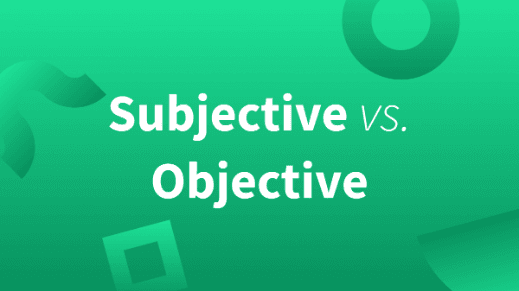
One of the trickiest aspects that non-native English learners in India grapple with is understanding the concept of subjective vs objective. Time and again, we have found students confused about when to use which term, often mixing up the two due to their contextual nuances.
The problem roots from the abstract nature of these terms— 'subjective' and 'objective'—which do not have direct translations into many Indian languages, making it difficult for learners to grasp their essence.
Clueless about the **subjective vs objective meaning**? Fret not! Our blog delves deeper into this topic, simplifying it with relatable examples and practical tips. So let's dive in and solve this linguistic puzzle together.
What does 'Subjective' Mean?
----------------------------
'Subjective', in English language, refers to situations or statements that are influenced by personal feelings, tastes, or opinions. They cannot be verified using concrete facts or figures. Essentially, anything subjective is fluid and varies from one individual to another based on their unique perspective.
To grasp the concept of subjective better, let's explore some examples of subjective sentences:
* "_I think butter chicken is the best Indian dish._" - This statement reflects a personal opinion and thus is subjective.
* "_Mumbai is too crowded for my liking._" - Here, the speaker's personal sentiments about Mumbai make this sentence subjective.
Exploring 'Objective' Language
------------------------------
Simply put, the term 'objective' refers to something that is not influenced by personal feelings, interpretations, or prejudice. It's considered factual and unbiased. Whenever we discuss "objective language" in English, it signifies a way of communication that is straightforward and based on facts.
Now let's dive deeper into understanding objective sentences using some examples:
1. **Statement of Fact:** Objective sentences often state undeniable facts. Example: _The Taj Mahal is in Agra._
2. **Impersonal Tone:** These sentences do not reveal personal emotions or opinions. Example: _India achieved independence in 1947._
3. **Evidence-based:** Any claim in an objective sentence can be verified with evidence. Example: _According to data from the World Health Organization, there were over 219 million malaria cases globally in 2017._
Subjective Vs Objective: How Do They Differ?
--------------------------------------------
When learning English, comprehending the distinction between subjective vs objective can be tricky. Let's break it down:
**Subjective**
**Objective**
Influenced by personal feelings or opinions
Not influenced by personal feelings or opinions
Can vary from person to person
Remains constant regardless of personal views
For example, consider **subjective vs objective sentences**: "_I believe Delhi is the most beautiful city in India_" is subjective because it's based on personal opinion. On the other hand, "_Delhi is the capital of India_" is an objective statement, as it's a fact that doesn't depend on personal views.
In testing scenarios, understanding **subjective vs objective test** types can prove helpful. For instance, an essay is a subjective test relying on your interpretation while a multiple-choice quiz is an objective test gauging your knowledge of facts.
Remember that distinguishing between **subjective vs objective data**, questions and pronouns helps improve clarity in English communication.
When to Use Subjective and Objective Language?
----------------------------------------------
Understanding when to use **subjective vs objective language** can elevate your English proficiency significantly. Let's dive into a few guidelines:
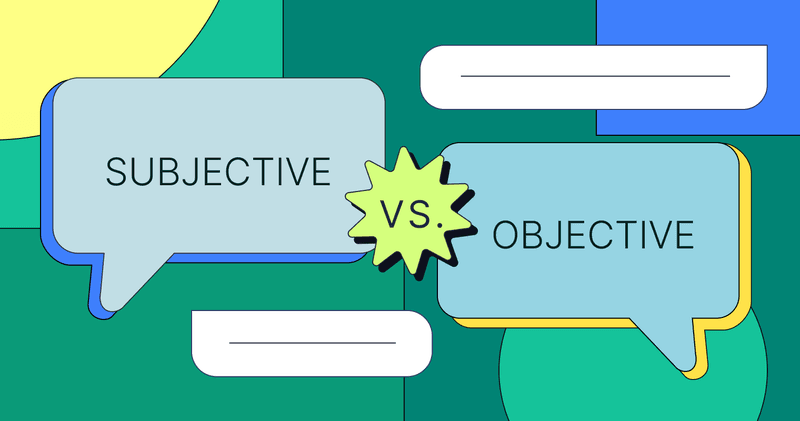
### **1\. Subjective Language:**
This is personal, opinion-based, and emotionally charged. Use subjective language when expressing personal viewpoints, feelings, or preferences. For example, in a book review, you might say, "_I found the narrative riveting._"
### **2\. Objective Language:**
This refers to facts and reality; it's unbiased and detached from personal feelings. Use objective language in academic writing, reports, or when stating verifiable facts. For instance, "_The Earth revolves around the Sun" is an objective statement_.
Turning this knowledge into practice is critical for mastering **subjective vs objective usage**. Here's a simple exercise to help you hone your skills:
### Exercise: Reading, Speaking & Writing Practice
* Read a blog post or news article. Identify five subjective and five objective sentences.
* Next, immerse yourself in a conversation with a colleague or friend. Try to consciously use both subjective and objective sentences.
* Finally, write a short paragraph describing your favourite movie – first using subjective language (your emotions and opinions), then another one using objective language (factual information about the movie).
Practical Tips for Using Objective Language Effectively
-------------------------------------------------------
Objective language is about stating facts without letting personal biases or emotions cloud your judgment or interpretation. It's an essential skill for professional, academic, and even daily communications. Here are some practical tips to improve your grasp over objective language usage:
1. **Stay Factual:** Stick to the details that can be proven or verified. The key to objective language lies in evidence.
2. **Avoid Personal Opinions:** Your views or sentiments do not belong in an objective statement.
3. **Use Precise Language:** Be clear and specific in your wording.
Let's see these tips in action through a real-world scenario:
Imagine you are participating in a debate on "Digital Media Vs Traditional Media".
* An objective statement would be: "_According to the 2020 report by the Indian Broadcasting Foundation, digital media users have surpassed traditional media users by 10%._" This statement is factual, devoid of personal opinion, and uses precise language.
* On the other hand, a subjective statement like "_I think digital media is more popular because it's more convenient_" is based on personal opinion and lacks solid evidence.
Remember, mastering objective language helps you communicate clearly and credibly – crucial skills for success in any professional field!
Key Takeaways
-------------
Wrapping up our discussion on subjective vs objective, remember that the distinction between these two concepts is crucial in defining how we perceive and communicate ideas.
* Subjective language is personal, opinion-based, and emotionally charged
* Objective language is factual, evidence-based, unbiased and detached from personal feelings
Practicing with **subjective vs objective examples** will help solidify your understanding of these concepts.
The journey to mastering English is continuous one, so keep learning and practicing. We at [Clapingo](https://clapingo.com/) are here to help you along the way with our personalised coaching sessions conducted by native English speakers. Our user-friendly platform offers flexible scheduling and diverse plans tailored to different needs, providing a supportive environment for your English learning journey.
[Book a quick demo](https://clapingo.com/book-instant-demo?) and start your English-learning journey with Clapingo!
FAQs
----
**1\. What is subjective vs objective?**
Subjective refers to things that are open to interpretation and heavily influenced by personal feelings, opinions, or perceptions. For instance, saying "_I believe biryani is the best dish_" is subjective as it's based on personal preference. On the other hand, objective deals with facts that remain true regardless of personal feelings or viewpoints. Saying "_Biryani is made with rice and spices_" is objective because it's a factual statement.
**2\. How to remember the subjective vs objective difference?**
A simple way to remember this is to think of 'Subjective' linked with 'Subject' which often involves personal views and opinion like in a debate subject. Whereas 'Objective' sounds like 'Object' which represents solid facts like an object in reality untouched by personal feelings.
**3\. Are there tests or questions to determine if a statement is subjective or objective?**
Yes, you can ask: 'Is this statement influenced by personal feelings or can it be verified universally?' If the answer leans towards personal feeling, it's subjective; if it can be universally verified, it's objective.
### **You may want to read**
**[100 Short Conversational English Tips for Beginners](https://clapingo.com/blog/english-conversation)**
---
This blog is powered by Superblog. Visit https://superblog.ai to know more.
---
## The Power of One Letter: Differentiating Complement from Compliment
Author: Unknown
Published: 2024-03-11
Meta Title: Untangling the Difference Between Complement & Compliment
Meta Description: Demystify the language duo of 'complement' and 'compliment' with clear definitions, examples, and tips to elevate your English fluency in daily situations.
Tags: complement vs compliment, compliment, complement
URL: https://clapingo.com/blog/complement-vs-compliment
Contents
* [What Are Complements and Compliments?](#what-are-complements-and-compliments)
* [What is the Confusion Between Complement and Compliment?](#what-is-the-confusion-between-complement-and-compliment)
* [Complement:](#complement)
* [Compliment:](#compliment)
* [How to Identify When to Use Complement vs Compliment?](#how-to-identify-when-to-use-complement-vs-compliment)
* [Complement:](#complement)
* [Compliment:](#compliment)
* [Activities to Reinforce the Difference Between Complement and Compliment](#activities-to-reinforce-the-difference-between-complement-and-compliment)
* [Summing Up](#summing-up)
* [FAQs](#faqs)

English is a vast, complex language that often confuses even seasoned learners. One such common confusion is distinguishing between 'complement' and 'compliment'. Seemingly identical, they can be mixed up quite easily, especially for non-native English speakers in India.
But don't worry, you're not alone in this struggle. Many of us often interchange 'complement' and 'compliment' without realizing the difference in their meanings. You might have heard sentences like "Your saree nicely complements your earrings" or "My boss complimented my presentation" but never really understood the distinction. This article will help unravel the difference between 'complement' and 'compliment'.
So let's delve into this interesting topic and untangle the confusion between ‘complement’ and ‘complement’. With practical examples and simple definitions, we'll demystify these commonly misused words for you!
What Are Complements and Compliments?
-------------------------------------
Firstly, let's define 'complement' and 'compliment'. A 'complement' often refers to something that completes or enhances another thing, making it perfect. For instance, you could say, "The marigold garlands are a great complement to the Diwali decorations."
On the other hand, a 'compliment' is a polite expression of praise or admiration. An example would be, "Raj received several compliments on his fluent English presentation at work."
Intriguingly, both words originate from the Latin complēre which means "to complete". Their common roots highlight their shared theme of "completion" but in different contexts.
Understanding these subtle yet significant differences between 'complement' and 'compliment' will pave your way towards mastering English language nuances!
What is the Confusion Between Complement and Compliment?
--------------------------------------------------------
'Complement’ and ‘compliment’ are two words that often trip up both learners and even some fluent speakers of English. The primary reason for this confusion stems from their striking similarity in spelling and pronunciation. With just one letter differentiating them, it's easy to mix them up! Here's how you can solve this confusion in terms of English grammar:
### Complement:
* In grammar, a complement is a word or group of words that completes the meaning of a verb, adjective, or another adverb in a sentence.
* Complements often come in the form of direct objects, indirect objects, or predicate nominatives.
* For example, in the sentence "The soup tastes delicious," 'delicious' is the adjective complement.
* They provide essential information to make the sentence grammatically correct and convey the intended meaning.
### Compliment:
* A compliment, on the other hand, refers to a polite expression of praise or admiration.
* In grammar, it typically does not have a structural role within a sentence but serves to convey positive sentiments.
* Compliments are used to express approval, esteem, or admiration for someone or something.
A great way to cement your understanding is through YouTube tutorials which provide detailed explanations along with practical complement vs compliment examples.
How to Identify When to Use Complement vs Compliment?
-----------------------------------------------------

Navigating through the nuances of English can be a tricky journey, but with a simple trick, you can quickly distinguish between 'complement' and 'compliment'. Here's a mnemonic device: think of the 'e' in 'complement' as an 'enhancer', reflecting how one thing complements or enhances another. The 'i' in 'compliment' can stand for 'impressive', suggesting praise or flattering remarks.
Let's contextualise these definitions through some scenarios:
* Complement: Imagine you're at a Diwali party. Your Kurta's colour _complements_ the festive decorations, meaning it enhances or completes the overall look.
* Compliment: On that same occasion, a guest _compliments_ your Kurta, saying it's impressive and looks good on you.
Here are some more examples of using complement and compliment in sentences:
### **Complement:**
* The scarf _complements_ her outfit perfectly, adding a pop of colour.
* Adding fresh herbs to the dish can _complement_ the overall taste and aroma.
### **Compliment:**
* Sarah received a lovely _compliment_ on her new haircut.
* The manager _complimented_ John on his excellent presentation skills.
Armed with these mnemonic devices and examples, you'll effortlessly differentiate between complement and compliment, enhancing your English fluency. Remember, practice makes perfect. So, don't shy away from using these words in your everyday conversations!
Activities to Reinforce the Difference Between Complement and Compliment
------------------------------------------------------------------------
Let's take your understanding of the meaning of 'complement' vs 'compliment' a notch higher with some interactive exercises.
Fill in the blank with the correct word:
1. Your shoes really \_\_\_\_\_\_\_ your outfit.
2. She gave me a wonderful \_\_\_\_\_\_\_ on my presentation skills.
3. The spices \_\_\_\_\_\_\_ each other in the biryani, enhancing its flavour.
4. At work today, I received a \_\_\_\_\_\_\_ for completing the project on time.
After you are done marking the answers by yourselves, check whether they are right. Here are the answers:
1\. Complement
2\. Compliment
3\. Complement
4\. Compliment
If you're unsure about any of these, don't worry! Keep practising these complement vs complement examples until they become second nature to you. Remember, nobody becomes an expert overnight.
We also suggest saying these sentences out loud with an English-speaking friend or mentor for real-time feedback - it’s a great way to gain confidence and perfect your pronunciation! Need help finding a language partner? For practical tips, check out our guide: [How Can I Find An English Learning Partner?](https://clapingo.com/blog/english-learning-partner)
Remember, practice makes perfect! Keep revisiting the complement vs compliment examples and definitions until you no longer confuse the two terms.
Summing Up
----------
In the journey of mastering English, understanding the meaning of complement and compliment is indeed a significant milestone. The subtle differences in meaning, pronunciation and usage can make a tremendous difference to your communication skills. Remember, a 'complement' enhances or completes something else, while a 'compliment' is an expression of praise or admiration.
Mastering proper language usage like this can elevate your professional conversations and add finesse to your personal interactions. For more tips on honing your English speaking skills, do visit the blog post: [Top 5 Ways to Hone Your English Speaking Skills](https://clapingo.com/blog/top-ways-practice-english-speaking).
We understand these nuances can be tricky to grasp and that's where Clapingo can help. With [Clapingo's](https://clapingo.com/) one-on-one coaching sessions, you get personalised attention from experienced tutors who guide you through these language barriers with ease.
So why wait? Dive into the world of fluent English with Clapingo’s personalized coaching sessions and give your communication skills a robust boost.
FAQs
----
**1\. What is the difference between complement and compliment?**
Complement refers to something that completes or enhances another thing while compliment is a polite expression of praise or admiration.
**2\. Can you give me an example of complement vs compliment in a sentence?**
Sure! For complement: "Her dress perfectly complements her blue eyes." For a compliment: "He complimented her on her eloquent speech."
**3\. Does pronunciation differ for ‘Complement’ and ‘Compliment’?**
No, both words have the same pronunciation but different meanings and uses.
---
This blog is powered by Superblog. Visit https://superblog.ai to know more.
---
## Deciphering Usage: Understanding the Differentiation Between Such As and Like
Author: Unknown
Published: 2024-03-11
Meta Title: Mastering English Usage for Learners: 'Such As' vs 'Like
Meta Description: Discover the rules and nuances of 'such as' and 'like', tailored for non-native speakers in India. Includes exercises for practice and real-life examples.
Tags: such as vs like meaning, such as vs like, such as vs like difference, such as vs like example, such as vs like exercise
URL: https://clapingo.com/blog/such-as-vs-like
Contents
* [What Do 'Such As' and 'Like' Mean?](#what-do-such-as-and-like-mean)
* [When to Use ‘Such As’ and 'Like'?](#when-to-use-such-as-and-like)
* [How Do Learners Commonly Misuse ‘Such As’ and ‘Like’?](#how-do-learners-commonly-misuse-such-as-and-like)
* [Practical Exercises to Master 'Such As' and 'Like'](#practical-exercises-to-master-such-as-and-like)
* [Final Thoughts](#final-thoughts)
* [FAQs](#faqs)

Mastering the English language can be tough, especially when you're trying to figure out the usage of similar phrases like 'such as' and 'like'. A misplaced word or incorrect usage could result in miscommunication, particularly in professional settings where accurate language is important.
But don't worry! This article aims to clarify your understanding of the expressions 'such as' and 'like'. We will delve into their correct usage, highlight their differences and similarities, and guide you through a series of exercises, all designed to boost your confidence in spoken English.
What Do 'Such As' and 'Like' Mean?
----------------------------------
In competitive exams like GMAT, 'such as' and 'like' are common English phrases that often confuse non-native aspirants. Understanding their correct usage will significantly enhance your English communication skills.
'Such as' is used to introduce specific examples within a general category. For instance, "The company offers various employee benefits, _such as_ health insurance and retirement plans." Here, health insurance and retirement plans are particular items in the general class of employee benefits.
On the other hand, 'like' is used to highlight similarities or comparisons, usually followed by a noun or pronoun. An example would be: "My friend sings just _like_ Lata Mangeshkar." In this case, 'like' compares the singing style of my friend with Lata Mangeshkar.
When to Use ‘Such As’ and 'Like'?
---------------------------------
When it comes to ‘such as’ vs 'like', choosing the right one hinges on the context.
As mentioned earlier, ‘such as’ is used to provide specific examples. It brings in additional information or examples without altering the meaning of the main sentence. For example, "Bollywood actors _such as_ Shahrukh Khan and Deepika Padukone have international recognition". The main idea – Bollywood actors being globally known – remains unchanged.
The function of 'like' varies:
* **Comparison**: When drawing comparisons or showing resemblance, use 'like'. For example, "She sings _like_ Lata Mangeshkar." Here, 'like' compares someone's singing style to Lata Mangeshkar's.
* **Preference**: 'Like' is also used as a verb for expressing preferences or dislikes. For example: "I _like_ watching cricket matches."
Remember these points while using 'such as' and 'like', and soon enough they'll become a natural part of your English communication!
How Do Learners Commonly Misuse ‘Such As’ and ‘Like’?
-----------------------------------------------------

A common mistake learners make while using 'such as' and 'like' is thinking these expressions are entirely interchangeable. While they can often substitute for each other, there are instances where one is more appropriate than the other.
For instance, in casual, spoken English conversations, 'like' is often used to introduce examples. 'Like' fits better in everyday conversations or informal writing. You might say, "I enjoy sports like cricket and badminton."
However, 'such as' presents a more formal tone compared to 'like'. In professional settings or written documents, it's more appropriate to say, "The report covers several topics, _such as_ market trends and customer behaviour," rather than using 'like'.
To avoid these common missteps and enhance your command over language usage, take a look at Clapingo's informative video on 5 Mistakes Spoken English Learners Must Avoid | Learn English Online.
Practical Exercises to Master 'Such As' and 'Like'
--------------------------------------------------
Excelling in the usage of 'such as' and 'like' involves consistent practice. Here is an interactive 'such as' vs 'like' exercise designed to help you get the hang of it:
1. He looks \_\_\_\_\_ his father when he smiles.
* **Answer**: like
* **Explanation**: "Like" is used to draw a comparison between two similar things or people. Here, it compares the son's smile to that of his father.
1. The chef prepared various desserts \_\_\_\_\_ chocolate cake and apple pie.
* **Answer**: such as
* **Explanation**: "Such as" is used to introduce examples of desserts that fall under a broader category.
1. She sings \_\_\_\_\_ an angel.
* **Answer**: like
* **Explanation**: "Like" is used to compare her singing to the characteristics of an angel, implying that her singing is similar in quality or purity.
1. They enjoy activities \_\_\_\_\_ swimming and playing tennis.
* **Answer**: such as
* **Explanation**: Again, "such as" introduces examples of activities within a broader category, in this case, physical activities.
Remember to use everyday situations to practice the usage of ‘such as’ vs ‘like’. The more you use it, the more natural it will come to you. For more guidance on improving your English skills online, check out Clapingo's blog post on [How Can I Improve My English Online: Level Up Your Language Skills](https://clapingo.com/blog/improve-english-skills-online).
Final Thoughts
--------------
Mastering the differences between 'such as' and 'like' may seem challenging at first. But as we've explored, knowing when to use each phrase can vastly improve your spoken English. Remember, 'such as' is used to provide specific examples while 'like' indicates similarity or comparison. Incorrect usage of these phrases is a common mistake among language learners. However, you now have the tools to avoid these errors!
Consistent practice is key here. Try using these tips in your daily communication - be it in professional emails or casual conversations with friends. Remember, every step you take in your learning journey is a step towards fluency.
For a more personalised, structured learning experience, consider [Clapingo's](https://clapingo.com/) one-on-one coaching sessions. Clapingo's native tutors can guide you in mastering such nuances of the English language effortlessly and effectively!
FAQs
----
**1\. What is the main difference between 'such as' and 'like'?**
'Such as' is used to provide specific examples within a broader category. On the other hand, 'like' is used to show similarity or comparison.
**2\. Can 'such as' and 'like' be used interchangeably?**
While both 'such as' and 'like' can be used to give examples, they are not always interchangeable. The use of one over the other depends largely on the context and specific sentence structure.
**3\. Are there any 'such as' vs 'like' exercises I can do?**
Absolutely! Sentence analysis, correction, and comparison exercises will be of great use in mastering 'such as' vs 'like'.
### **You may want to read.**
**[How Can I Improve My English Online: Level Up Your Language Skills](https://clapingo.com/blog/improve-english-skills-online)**
---
This blog is powered by Superblog. Visit https://superblog.ai to know more.
---
## Between vs Among: Simplifying the Confusing English Rules
Author: Unknown
Published: 2024-03-11
Meta Title: Between vs Among Practical Examples for English Learners
Meta Description: Explore the key differences between 'between' and 'among'. Discover practical examples, usage rules, and relatable scenarios to improve your English fluency.
Tags: between vs among, between vs among example, between vs among meaning, between vs among difference
URL: https://clapingo.com/blog/between-vs-among
Contents
* [Understanding the Basics: Between vs Among](#understanding-the-basics-between-vs-among)
* [When to Use Between vs Among?](#when-to-use-between-vs-among)
* [Common Mistakes & Tips to Avoid Them](#common-mistakes-and-tips-to-avoid-them)
* [Practice Makes Perfect: Exercises to Test Yourself](#practice-makes-perfect-exercises-to-test-yourself)
* [How Can Clapingo Help?](#how-can-clapingo-help)
* [Parting Thoughts](#parting-thoughts)
* [FAQs](#faqs)

Has there ever been a time when you found yourself confused while choosing between 'between' and 'among'? Maybe during an important meeting or while writing a work email, you've paused, unsure about which one is correct. You're not alone. Many non-native English speakers find the between vs among confusion rather challenging.
This article aims to clear your doubts and guide you through the accurate usage of 'between' and 'among'. We understand that mastering such differences can be tricky, but with the right guidance and practice, it's entirely possible.
In this blog, we'll provide plenty of between vs. among examples, practical tips to remember their usage, exercises for practice, and resources for further learning. Our goal is to ensure that by the end of this read, you'll confidently use 'between' and 'among' in your everyday communication.
Understanding the Basics: Between vs. Among
-------------------------------------------
Let's start by understanding the basics of between vs among differences.
'Between' is used when referring to one-to-one relationships or two or more distinctly separate items. You might say, "Ravi divided the sweets between Priya and Karan." Here, it's evident that Ravi is distributing sweets to two specific individuals, representing a direct relationship. You may also say, "There is an intense cricket rivalry between India, Pakistan, and Australia." In this example, though there are three entities, they are distinct.
Though 'between' is often associated with just two items, it isn't limited to them. Consider this: "The agreement was reached between the employees." Here, you're indicating a mutual arrangement involving individual employees.
On the other hand, we use 'among' when discussing indistinct or nonspecific items in a group or collective. For example, "There was a sense of excitement among the fans at the stadium." This sentence gives a sense of collective emotion. Hence, 'among' is more appropriate here.
When to Use Between vs. Among?
------------------------------
To remember the distinction between the usage of the 'between' and 'among', remember these simple rules:
1. Identify if you’re referring to individuals or groups.
2. Determine if you need to emphasize distinct relationships.
3. Use ‘between’ for individuals and distinct relations; and ‘among’ for groups and collective references.
Look at this table that summarises the usage rules with examples:
#### Words
#### Usages
#### Examples
Between
One-to-one relationships
"The conversation between the teacher and the student was intense."
Separate items
"There is a clear boundary between the two countries."
Among
Collective or group
"The secret was shared among the members of the team."
Indistinct or nonspecific items
"The solution lies among the various possibilities."
In competitive exams like the GMAT, between vs among usually appears as a common question to test your English language proficiency. Remember that mastering these differences not only makes your spoken English more effective but also helps in such exams[.](https://www.clapingo.com/blog/crafting-stronger-sentences-strategies-for-sentence-improvement-in-english\).) Practice using 'between' and 'among' in daily conversations.
Common Mistakes & Tips to Avoid Them
------------------------------------

Despite understanding the basic differences between 'between' and 'among', several learners often find their application difficult. Here are some common mistakes with these words and tips to avoid them:
* Using 'between' only for two items. Yes, 'between' is used when talking about distinct, individual items even if they are more than two. So it's fine to say, "A treaty was signed between India, Bhutan and Nepal".
* Using 'among' when referring to something specific. Remember, 'among' conveys a sense of being part of a group or collective, not for specific items.
You can find more such tips in the Clapingo guide on [100 Short Conversational English Tips for Beginners](https://clapingo.com/blog/english-conversation). Remember, becoming adept at using 'between' and 'among' requires practice. Regularly revising the rules can help you avoid these common slip-ups.
Practice Makes Perfect: Exercises to Test Yourself
--------------------------------------------------
Let's put what you've learned about the difference between 'between' and 'among' into practice. Here are some fill-in-the-blanks exercises for you:
1\. I couldn't decide \_\_\_\_\_\_\_\_\_ the red, black, and white shirts.
2\. The secret was shared \_\_\_\_\_\_\_\_\_ the three best friends.
3\. The book was hidden \_\_\_\_ the pile of newspapers.
4\. He distributed the sweets \_\_\_\_\_\_\_\_\_ his classmates.
5\. There is a long-standing dispute \_\_\_\_\_\_\_\_\_ the two neighbouring countries.
Have you marked your answers? Now check whether they are correct using the answer table given below:
1
between
2
among
3
among
4
among
5
between
Remember, regular practice is key to mastering these prepositions effortlessly!
How Can Clapingo Help?
----------------------
Sometimes, language learning calls for individual attention you don’t always get in traditional classroom settings. This is where online platforms like [Clapingo](https://clapingo.com/) can bridge the gap. With personalized coaching sessions, Clapingo tackles common challenges such as the difference between confusing words like 'between' and 'among'.
Clapingo's expert tutors understand the complexities of the language and are ready to help you enhance your vocabulary, pronunciation, and sentence structure. They offer customized strategies that will help you differentiate similar words easily. By practising with a tutor in a live one-on-one class, you can gain a real-time understanding of English grammar rules and their application.
Clapingo’s flexible scheduling allows you to learn at your own pace, making sure you thoroughly understand each lesson before proceeding to the next. Booking a trial with Clapingo is also simple; just follow this video tutorial for step-by-step instructions: How to book a trial on Clapingo:
Parting Thoughts
----------------
We hope this journey has been enlightening for you. With a clearer understanding of the usage of 'between' vs 'among', you are one step closer to mastering English communication. Always remember that ‘between’ denotes one-to-one relationships, and ‘among’ signifies collective or undefined relations. With Clapingo's personalised sessions, refining your grasp of these prepositions becomes simpler. Remember, every step you take in learning English is a stride towards growing personally and professionally. So keep learning and keep growing!
FAQs
----
**1\. Can 'between' be used for 3 things?**
Yes, 'between' can indeed be used when referring to more than two entities, but only when they are distinct and individually considered. For instance, "The treaty was negotiated between India, Pakistan, and China."
**2\. What is an example of "among" and "between"?**
For "between", you could say: "The agreement was made between the two companies." For "among", consider this sentence: "She felt comfortable among her colleagues."
**3\. Is it 'among us' or 'between us'?**
Both can be correct depending on the context. When you speak of something shared in a group like a secret or feeling, use 'among'. Example: "I feel a sense of friendship among us." For specific one-to-one relationships within a group, use 'between'. Example: "The secret must stay between us."
### **You may want to read.**
**[Boost Your English Skills: Software Recommendations for Speaking, Reading and Writing](https://clapingo.com/blog/software-recommendations-english)**
---
This blog is powered by Superblog. Visit https://superblog.ai to know more.
---
## Mastering Third Person vs First Person: An English Learner’s Guide
Author: Unknown
Published: 2024-03-11
Meta Title: Decoding the meaning of Third Person Vs First Person
Meta Description: Explore the practical usage of third person vs first person writing. Gain expert tips, relatable examples, and strategies for English speakers in India.
Tags: third person vs first person, third person , first person
URL: https://clapingo.com/blog/third-person-vs-first-person
Contents
* [What are First Person and Third Person Perspectives?](#what-are-first-person-and-third-person-perspectives)
* [When to Use Third-Person vs First-Person?](#when-to-use-third-person-vs-first-person)
* [Common Mistakes in Using First & Third Person](#common-mistakes-in-using-first-and-third-person)
* [Building Your Vocabulary in First & Third Person](#building-your-vocabulary-in-first-and-third-person)
* [Wrapping Up](#wrapping-up)
* [FAQs](#faqs)
* [You may want to read](#you-may-want-to-read)
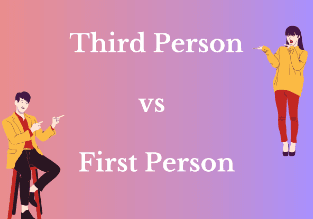
Welcome to a new chapter in your English learning journey in which we will discuss an interesting aspect of the language: "Third Person vs First Person". Grasping this concept is key to improving both your spoken and written English skills.
Mastering the use of first and third person can significantly enhance your spoken and written English skills, making your communication clearer and more impactful. This blog post will guide you step by step through practical advice, relatable examples, and effective strategies to navigate this aspect of the English language with confidence. Whether it's writing an email at work or choosing between 'third person vs first person' in an English speech – we've got you covered. So let’s start!
What are First Person and Third Person Perspectives?
----------------------------------------------------
First-person perspective uses first-person pronouns like 'I', 'me', and 'we'. It's like you’re on a personal phone call to your friend, sharing your experiences. Sentences like "I love idlis for breakfast" or "We went to the new mall last weekend" use the first-person perspective. You're the main narrator of your own story.
On the other hand, the third-person perspective involves third-person pronouns such as 'he', 'she', 'it', or 'they'. It’s as if you're an onlooker describing the actions that you see. Examples include "She cooks delicious biryani" or "They watched the latest episode of their favourite show". Here, you are narrating someone else’s story.
When to Use Third-Person vs First-Person?
-----------------------------------------
First Person
More personal
I/me/my/we/us/our
Third Person
More objective
he/him/his/she/her/it/its/they/them/their
The first person might be more suitable in casual conversations or personal essays where you're sharing experiences. It is suitable when expressing your feelings or recounting your personal experiences. For instance, during a job interview, you might say, "I supervised this project."
In contrast, the third-person works better for formal writing or when describing others' actions. Think of reporting an incident at work or writing unbiased reviews about a restaurant. This perspective works better when discussing others or presenting facts. In a project report, you'd hear, "They worked really hard on this project."
Think of it in relation to the third-person vs first-person in PUBG (PlayerUnknown's Battlegrounds), the popular mobile game. While the third-person view provides a wider view of the game world, the first-person view provides a more immersive experience of person experience. The perspectives work similarly in the English language as well.
Common Mistakes in Using First & Third Person
---------------------------------------------
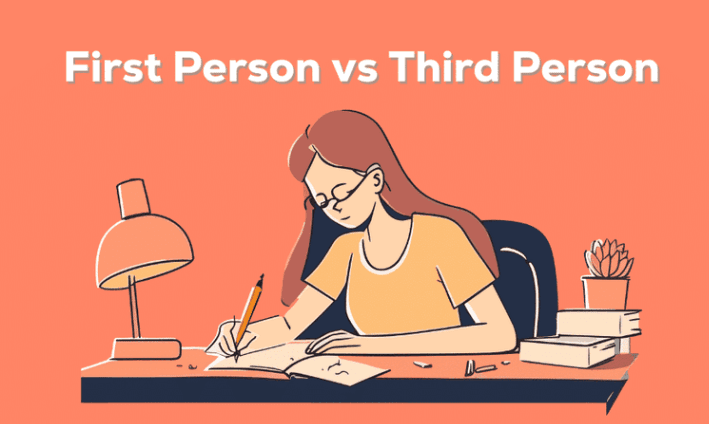
One common error with first-person usage is the incorrect form of pronouns, such as "me and my friend" instead of "my friend and I". Non-native speakers often misuse first-person pronouns unintentionally. Instead of saying, “Me and my friend went shopping,” it should be “My friend and I went shopping.” Remember to never use the first person pronoun "me" at the beginning of any sentence.
With third-person pronouns, learners often mix up 'his' and 'he's'. Remember, 'he's' is a contraction of 'he is' or 'he has'. Similarly, with third-person usage, it's common to confuse singular and plural forms. Correct usage is “He has his books” and "They have their books." Saying "He have his books" or "They has their books" is wrong.
Transitioning smoothly between the first-person and third-person perspectives is also crucial. Here's a tip: always consider who you are talking about – yourself (first person) or someone else (third person). Practice this by writing a narrative where you describe what you did in a day (first person), followed by explaining someone else’s actions (third person).
For example:
"This morning, _I_ woke up early and decided to go for a run. Meanwhile, _my_ neighbour Preeti was still fast asleep. _She_ finally woke up when _I_ was stretching after _my_ run."
Remember these tips as you practice switching between first and third-person perspectives. You'll soon master them!
Building Your Vocabulary in First & Third Person
------------------------------------------------
A robust vocabulary is crucial when using different narratives and perspectives. Enriching your vocabulary with diverse words and phrases that help you express third-person vs first-person perspectives can elevate your communication, making it more fluent and engaging. Browse through these [100+ Daily Use English Words for Fluent Communication](https://clapingo.com/blog/daily-use-english-words) to boost your day-to-day interactions.
Let's consider a quick exercise: Convert the following first-person sentences into third-person.
1\. "I enjoy reading books on history."
2\. "I am planning to visit the library tomorrow."
Using the third-person pronouns, these sentences can be converted as:
1\. "He enjoys reading books on history."
2\. "She is planning to visit the library tomorrow."
Now, practice this switch with sentences from your daily conversations! This repeated practice will help you comprehend the usage of perspectives while writing in third-person vs first-person and train your mind to use them properly, enhancing your fluency in spoken English. Remember, language mastery is all about practice!
Wrapping Up
-----------
In our discussion on third-person vs first-person writing and usage, we've covered some important ground. Remember, the choice between these two perspectives can drastically impact the tone and interpretation of your communication. Practising and understanding their usage in varied contexts is crucial to improving your language skills.
If you wish to master the English language better, [Clapingo](https://clapingo.com/) can aid you further. With personalised coaching that includes dealing with issues like third-person vs first-person usage, Clapingo is an ideal partner for those aspiring to master the English language.
Remember, no journey to English mastery happens overnight. It's a process that requires consistent effort and practice. Take comfort in knowing that with patience and practice, you will master this beautiful language. Don't be afraid of making mistakes; they're stepping stones on your language-learning journey.
FAQs
----
**1\. What are some third-person pronouns?**
Third-person pronouns include he, she, it (singular) and they (plural).
**2\. Do people prefer third-person or first-person shooting games?**
This largely depends on personal preference. Some players find the first-person perspective more immersive, while others prefer the wider field of view provided by third-person games.
**3\. Is third-person or first-person writing more appealing?**
Both perspectives have their merits depending on the context. In academic or formal writing, the third person is usually preferred for its objective stance. Yet, first-person writing can provide a direct and intimate connection with readers.
### **You may want to read.**
**[Daily Use English Words for Fluent Communication](https://clapingo.com/blog/daily-use-english-words)**
---
This blog is powered by Superblog. Visit https://superblog.ai to know more.
---
## Concave Vs Convex: A Simplified Guide for English Learners in India
Author: Unknown
Published: 2024-03-11
Meta Title: Understanding the Concave Vs Convex English Learners
Meta Description: Mastering Spoken English Complexities: A Comprehensive Guide for Indian English Learners Exploring the Meaning and Difference between Concave and Convex.
Tags: Concave Vs Convex difference', Concave Vs Convex meaning, Concave Vs Convex
URL: https://clapingo.com/blog/concave-vs-convex
Contents
* [What Are Concave and Convex?](#what-are-concave-and-convex)
* [Concave](#concave)
* [Convex](#convex)
* [Why is there Confusion Between Concave and Convex?](#why-is-there-confusion-between-concave-and-convex)
* [How Can You Remember the Difference?](#how-can-you-remember-the-difference)
* [Mnemonic Devices](#mnemonic-devices)
* [Concave vs Convex Examples](#concave-vs-convex-examples)
* [](#)
* [Concave Vs Convex Mirrors Explained](#concave-vs-convex-mirrors-explained)
* [An In-depth Look at Concave Vs Convex Lenses](#an-in-depth-look-at-concave-vs-convex-lenses)
* [Understanding Concave Vs Convex Graphs and Functions](#understanding-concave-vs-convex-graphs-and-functions)
* [How Clapingo Helps You Master English Language](#how-clapingo-helps-you-master-english-language)
* [Final Words](#final-words)
* [FAQs](#faqs)
[

](https://images.unsplash.com/photo-1513258496099-48168024aec0?crop=entropy&cs=tinysrgb&fit=max&fm=jpg&ixid=M3wzMjExNjV8MHwxfHNlYXJjaHw2fHxsZWFybmluZ3xlbnwwfHx8fDE3MDg2OTI4NjR8MA&ixlib=rb-4.0.3&q=80&w=1080?utm_source=Pepper-docs&utm_medium=referral)
Imagine you are preparing for a presentation at work, and the subject is the principles of light reflection. While researching, you stumble upon the terms 'concave' and 'convex'. These words may sound technical and confusing, but understanding their meaning can enable you to communicate your ideas effectively.
In the English language, precise vocabulary is like a key that unlocks effective communication. A word may seem small but can significantly change your sentence's meaning. So, understanding the difference between 'concave' and 'convex', especially in scientific contexts such as optics or mathematics, can make your communication more accurate.
But don't worry! We're here to help you navigate through this seeming maze.
What Are Concave and Convex?
----------------------------
Remember the following characteristics for each term:
### Concave
* Forms a hollow or depression.
* The curve appears to cave inwards.
* Examples: Inside of a bowl, cave entrance.
### Convex
* Forms an outward bulge.
* The curve seems to protrude outwards.
* Examples: Outside of a bowl, top surface of an umbrella.
These terms are often used in various fields, such as physics (concave vs convex mirror), mathematics (concave vs convex function), graphics (concave vs convex graph), and more. For instance, while opting for eyeglasses, one must understand the difference between concave vs convex lenses to make an informed choice.
In everyday language, these terms can be used metaphorically or literally. For example, "His argument had a concave logic; it lacked depth". Here, 'concave' is used metaphorically to imply a lack of depth or substance. Another common usage is describing natural landscapes or geographical features like hills and valleys (concave vs convex images).
Check out this comprehensive guide on [learning English Grammar step by step](https://clapingo.com/blog/learn-english-grammar-step-by-step).
Why is there Confusion Between Concave and Convex?
--------------------------------------------------
Many non-native English speakers tend to mix up the terms 'concave' and 'convex'. This confusion is often due to similar pronunciation, but a deeper understanding of both the terms can help clear this mix-up.
One common reason for the confusion between concave vs convex mirrors or concave vs convex lenses is their visual similarity when presented in a diagram. For instance, a concave vs convex mirror diagram might look similar at first glance. But remember, in a concave mirror, the reflective surface bulges inward, forming what looks like a cave (hence the term 'con-cave'). In contrast, the reflective surface bulges outward like an external curve in a convex mirror.
Confusion can also be seen among learners with mathematical functions or curves. For example, differentiating between a concave vs convex curve or a concave vs convex graph can be tricky. A simple trick to remember is that a concave function or graph has an inward curve (like a cave), while a convex function has an outward curve.
Pronunciation factors significantly into this confusion, too.
The words 'concave' and 'convex' sound quite alike, especially for non-native English speakers still fine-tuning their language skills. Pronouncing these words distinctly will help you separate them mentally – 'con-cayv' for concave with emphasis on 'cayv', and 'con-vex' for convex with stress on 'vex'.
Differentiating between these terms becomes easier with practice. Try using them in sentences such as "The salad bowl is concave" or "The balloon's surface is convex". Reflect on real-life concave vs convex examples around you for better understanding - notice how your spoon's inner surface is concaved while its back side is convex.
To avoid such confusion and enhance your spoken English skills, it's crucial to understand and rectify common mistakes made during learning. This video touches upon common errors you should avoid.
How Can You Remember the Difference?
------------------------------------
Remembering the differences between concave and convex can be tricky. But don't worry, we've got you covered.
### Mnemonic Devices
* Remember that it 'caves' inwards for a concave function or curve. Picture a cave as dented inwards.
* For a convex function or curve, think of an 'X'. It's like two slopes meeting in the middle to form a peak, similar to how a convex shape curves outwards.
### Concave vs Convex Examples
* Identify items around you. Your coffee cup has a concave bottom inside for your beverage, while its lid is usually convex on top.
* Draw diagrams of objects with concave vs convex shapes for visual reinforcement.
Concave Vs Convex Mirrors Explained
-----------------------------------
[

](https://images.unsplash.com/photo-1565376791568-d30e46523795?crop=entropy&cs=tinysrgb&fit=max&fm=jpg&ixid=M3wzMjExNjV8MHwxfHNlYXJjaHw1fHxyZWFyJTIwdmlld3xlbnwwfHx8fDE3MDg2OTI5MzJ8MA&ixlib=rb-4.0.3&q=80&w=1080?utm_source=Pepper-docs&utm_medium=referral)
A concave mirror, also known as a converging mirror, curves inward. It's like a portion of the interior of a sphere. You can see these mirrors used in vehicle headlights and shaving mirrors, as they focus light into one point and magnify images, respectively.
On the other hand, a convex mirror curves outward, resembling the exterior of a sphere. These mirrors spread light out and make images appear smaller. They're commonly found in rear-view mirrors of vehicles and security mirrors in shops to cover wider areas.
**Aspect**
**Concave Mirror**
**Convex Mirror**
Shape
Curves inward
Curves outward
Also known as
Converging mirror
Diverging mirror
Image produced
Focused and magnified
Spread out and diminished
Practical use
Vehicle headlights
Rear-view mirrors
An In-depth Look at Concave Vs Convex Lenses
--------------------------------------------
[

](https://images.unsplash.com/photo-1582143434535-eba55a806718?crop=entropy&cs=tinysrgb&fit=max&fm=jpg&ixid=M3wzMjExNjV8MHwxfHNlYXJjaHwzfHxsZW5zZXN8ZW58MHx8fHwxNzA4NjkyOTQ3fDA&ixlib=rb-4.0.3&q=80&w=1080?utm_source=Pepper-docs&utm_medium=referral)
A lens is a piece of transparent material with two opposing faces. Now imagine you're playing cricket, and your team wins the match. The trophy you lift, which narrows down in the middle, resembles a concave lens. Conversely, think about a pumpkin during Diwali; its bulging middle mirrors a convex lens shape.
Concave lenses, or divergent lenses, spread out light rays that have been refracted. On the other hand, convex lenses or convergent lenses bend light towards a central focal point.
These lenses have an array of practical uses. For instance:
* Concave lenses are employed in optical devices like telescopes and peepholes to broaden our view.
* Convex lenses are incorporated in magnifying glasses, cameras and eyeglasses to correct farsightedness.
Understanding Concave Vs Convex Graphs and Functions
----------------------------------------------------
[

](https://images.unsplash.com/photo-1464131065363-9e30e13470f6?crop=entropy&cs=tinysrgb&fit=max&fm=jpg&ixid=M3wzMjExNjV8MHwxfHNlYXJjaHwyfHxoaWxsc3xlbnwwfHx8fDE3MDg2OTMwMzF8MA&ixlib=rb-4.0.3&q=80&w=1080?utm_source=Pepper-docs&utm_medium=referral)
We've all seen hills and valleys in our geography lessons, haven't we? Imagine the upward curve of a mountain. It's like a convex graph or function. Now, think of the downward curve of a valley, which resembles a concave graph or function. Easy to remember, isn't it?
In technical terms, if we look at a concave vs convex graph, a function is considered 'concave' if the line segment joining any two points on its graph lies below the graph between those points. On the other hand, a function is 'convex' if the line segment joining any two points lies above the graph between those points.
How Clapingo Helps You Master English Language
----------------------------------------------
Learning English can be challenging, especially when you're trying to grasp concepts like 'concave vs convex'. But with Clapingo's one-on-one personalised sessions, mastering these intricacies becomes significantly easier.
How does Clapingo simplify your English learning journey? We help you avoid common mistakes many spoken English learners make. Take a look at this [video](https://www.youtube.com/watch?v=mmDZiVxVwKo) for valuable insights.
Additionally, our in-depth blog posts like [https://clapingo.com/blog/further-vs-farther](https://clapingo.com/blog/further-vs-farther) equip you with practical tips to navigate the complexities of English.
Final Words
-----------
Understanding the difference between 'concave' and 'convex', be it in mirrors, lenses, graphs or functions, is crucial to mastering the English language and its myriad terminologies. Remember, a concave mirror or lens' caves in', creating magnified images like the shaving mirrors! On the other hand, a convex mirror or lens bulges outwards and provides wider views than in-vehicle rear-view mirrors. Similarly, concave vs convex graphs and functions have distinct mathematical properties that define their shapes.
We encourage you to apply this knowledge to real-life situations. Whether it's during your science classes or while describing objects around you, don't hesitate to use these terms.
At Clapingo, we believe in empowering learners like you with tools for effective communication. So keep learning, keep growing!
For more interesting insights on English language learning, check out our blog post on [Learn English While Sleeping - Fact Or Fiction?](https://clapingo.com/blog/learn-english-while-sleeping)
FAQs
----
**1\. How to determine whether a mirror is concave or convex?**
Observing your reflection is the simplest way to identify the type of mirror. In a concave mirror, the image appears magnified when you're close and inverted at a distance. A convex mirror always forms a smaller, upright image.
**2\. Why do vehicles use convex mirrors?**
Convex mirrors are used in vehicles due to their wider field of view as they diverge light outwardly, allowing drivers to see more areas around them.
**3\. Why are concave mirrors used in telescopes and headlights?**
Concave mirrors are used in telescopes because they can focus distant light onto a single point, enabling clearer images of celestial bodies. In vehicle headlights, these mirrors focus light beams into a strong, directional path for better visibility.
---
This blog is powered by Superblog. Visit https://superblog.ai to know more.
---
## Ambience vs Ambiance: Exploring the Nuances of Atmosphere
Author: Unknown
Published: 2024-03-11
Meta Title: Perfecting Pronunciation: Exploring Ambience Vs Ambiance
Meta Description: Delve into the nuances of 'ambiance' and 'ambiance,' addressing pronunciation, and meaning to aid learners in their journey toward language proficiency.
Tags: ambience vs ambiance UK, ambience vs ambiance, ambience vs ambiance meaning, ambience vs ambiance example
URL: https://clapingo.com/blog/ambience-vs-ambiance
Contents
* [What Do 'Ambience' and 'Ambiance' Mean?](#what-do-ambience-and-ambiance-mean)
* [UK Vs US: How Regions Influence Usage](#uk-vs-us-how-regions-influence-usage)
* [Pronunciation Dilemma – Ambience Vs Ambiance](#pronunciation-dilemma-ambience-vs-ambiance)
* [How to Remember Which Word to Use?](#how-to-remember-which-word-to-use)
* [Mistakes To Avoid and Best Practices To Follow](#mistakes-to-avoid-and-best-practices-to-follow)
* [The Bottomline](#the-bottomline)
* [FAQs](#faqs)

Imagine you're in an international meeting, presenting your business proposal to foreign delegates. You're describing the attractive 'ambience' of a proposed retail outlet. But wait, should it be 'ambiance'? A moment's hesitation can disrupt your fluent delivery, potentially creating awkward pauses.
Pronouncing similar-sounding words, understanding their usage, and discerning subtle differences such as 'ambience' and 'ambiance' can often be challenging.
This blog post aims to shed light on the ambience vs ambiance conundrum. It provides a comprehensive analysis of the **ambience vs ambiance pronunciation**, meaning and usage, while also considering regional preferences. Let's dive in.
What Do 'Ambience' and 'Ambiance' Mean?
---------------------------------------
In the world of English language learning, there's often confusion regarding similar words or terms. Today, let's explore two such words – 'ambience' and 'ambiance'. While these terms seem different, they are variant spellings of the same word.
Word
Meaning
Example Sentence
Ambience
The character and atmosphere of a place
"The lively ambience of the Indian street market was infectious."
Ambiance
The character and atmosphere of a place
"He loved the serene ambiance of his grandmother's village home."
Both 'ambience' and 'ambiance' refer to the special atmosphere or mood created by a particular environment. Whether you're talking about the vibrant ambience at an Indian wedding or the tranquil ambiance in a yoga studio, you're describing how these places make you feel.
So, does it matter which spelling you use - ambience or ambiance? Let's explore that in detail in the following section.
UK Vs US: How Regions Influence Usage
-------------------------------------
In English, the use of certain words varies based on geographical regions. A classic example of this can be found in our topic of discussion - ambience vs ambiance.
1. In British English (as used in the UK), we commonly use "ambience" to describe the mood or atmosphere of a place.
2. In contrast, American English (predominant in the US) favours the term "ambiance".
Hence, if you were to walk into a café in London and comment on its pleasant "ambience", you would be perfectly correct. However, should you find yourself in New York describing a restaurant's relaxing "ambiance", that would also be appropriate!
There are numerous such examples where words change based on regional contexts. For instance, "colour" (UK) vs "color" (US), "organise" (UK) vs "organize" (US), and so forth.
Remember, both are correct and mean the same thing. This subtle difference in **ambience vs ambiance UK** and US spelling is something to keep in mind when writing for your global friends!
Pronunciation Dilemma – Ambience Vs Ambiance
--------------------------------------------

Let's dive into the **ambience vs ambiance pronunciation**. In India, we're more accustomed to the British English pronunciation of these words.
For "ambience", it's pronounced as /ˈæm.bi.əns/, and for "ambiance", you say it as /ˌɑːm.biˈɑːns/. Notice how the 'a' in ambiance is pronounced like 'on', in contrast to the 'a' in ambience, which sounds more like 'am'.
For a clearer understanding, check pronunciation guide for ambience and ambiance. Listen repeatedly, and try mimicking the sounds until they feel natural. Remember, consistent practice is key to mastering pronunciation.
How to Remember Which Word to Use?
----------------------------------
While both ‘ambience’ and ‘ambiance’ are correct, depending on the regional preference, it is critical for non-native English speakers in India to remember which version to use and when. Here are some quick strategies:
1. Context: Consider the audience you are addressing. If they're from the UK or India, use 'ambience'. For a French or American audience, choose 'ambiance'.
2. Visual Association: Link 'ambience' with British or Indian symbols like Union Jack or Taj Mahal. Associate 'ambiance' with Eiffel Tower or Statue of Liberty.
Let's look at some examples:
1. You could say, "_The ambience of this Indian restaurant reminds me of home_," when speaking to your British colleague.
2. Conversely, you might comment, "_The ambiance at this café feels so European_," while engaging with an American friend.
Mistakes To Avoid and Best Practices To Follow
----------------------------------------------
Many professionals in India struggle with the correct usage of similar-sounding English words such as 'ambience' and 'ambiance', like [there vs their](https://clapingo.com/blog/tag/there-vs-their-difference) or [favourite vs favorite.](https://clapingo.com/blog/tag/spelling-variations) Here are three common mistakes and solutions to avoid them:
1. Incorrect usage: In British English, the correct term is 'ambience' while 'ambiance' is used in American English. As Indians, we generally follow British English. Thus, it's incorrect to use 'ambiance' without being aware of this distinction.
1. Incorrect Pronunciation: There is a subtle difference in **ambience vs ambiance pronunciation**. ‘Ambience’ is pronounced as /ˈæmbɪəns/, while ‘ambiance’ is pronounced as /æmˈbiːəns/. Practice these pronunciations diligently.
Here are some best practices to overcome these challenges:
i) Familiarise yourself with British and American English differences: Know your audience and use the appropriate form.
ii) Practice pronunciation: Use online tools like [Clapingo](https://clapingo.com/) that offer one-on-one sessions with native English speakers to improve pronunciation skills.
iii) Contextual Usage: Always remember - both terms share the same meaning but differ in spelling and pronunciation based on their dialectic use.
The Bottomline
--------------
In conclusion, understanding the subtle differences between terms like 'ambience' and 'ambiance' can significantly enhance your English communication skills. This blog has equipped you with valuable insights into the **ambience vs ambiance meaning**, usage, and pronunciation of these terms. While 'ambiance' is more commonly used in American English, 'ambience' is preferred in British English. However, both convey the same meaning - the character or atmosphere of a place.
Remember that language learning is about practicing regularly, asking questions, and learning from mistakes.
This is where Clapingo steps in – offering personalized language coaching sessions tailored specifically to your needs. Our native English tutors can help you understand and practice these language nuances more deeply, helping you become more confident in your spoken English skills. To make your language learning journey smoother and more effective, [sign up for a trial session](https://clapingo.com/book-instant-demo) today at Clapingo!
FAQs
----
**1\. What's the difference between ambience and ambiance?**
While both words have the same meaning, referring to the special atmosphere or mood of a place, their usage differs based on region. 'Ambience' is commonly used in British English which is prevalent in India, whereas 'Ambiance' is used in American English.
**2\. How do we pronounce ambience vs ambiance?**
The pronunciation varies slightly between these two words. For 'ambience', typically used in India, we pronounce it as /ˈæmbɪəns/. On the other hand, 'ambiance', common in American English, has a pronunciation /æmˈbiːɑːns/.
**3\. Should I use ambience or ambiance in professional communication?**
As an Indian professional, using British English terms is advisable for consistency and clarity. Hence, 'ambience' would be appropriate for your professional communication.
### **You may want to read**
**[Speak Softly, Speak Well: English Speaking Tips for Introverts](https://clapingo.com/blog/english-speaking-tips-for-introverts)**
---
This blog is powered by Superblog. Visit https://superblog.ai to know more.
---
## Off Vs Of Examples: A Comprehensive Guide for Indian English Learners
Author: Unknown
Published: 2024-03-11
Meta Title: Off Vs Of Examples: A Practical Guide for English Learners
Meta Description: Learn the difference,usage and meaning between 'off' and 'of' with detailed examples and practice exercises tailored for Indian spoken English learners.
Tags: off vs of examples, off vs of, off vs of difference
URL: https://clapingo.com/blog/off-vs-of
Contents
* [What are 'Off' and 'Of'?](#what-are-off-and-of)
* [Common Misuses of Off vs Of & How to Avoid Them](#common-misuses-of-off-vs-of-and-how-to-avoid-them)
* [Using Off vs Of Correctly – Practice Makes Perfect!](#using-off-vs-of-correctly-practice-makes-perfect)
* [Parting Thoughts](#parting-thoughts)
* [FAQs](#faqs)

As a non-native English speaker in India, you may often find yourself confused between certain words that sound similar but have distinct meanings and uses. One such pair of confusing words is 'off' and 'of'. It's quite a common error to use these interchangeably, which can lead to misunderstandings in communication.
Why does the accurate usage of these tiny prepositions matter? They are the glue that holds our sentences together and gives them meaning. A slip-up in their usage can change the entire context of your conversation. Therefore, understanding 'off' vs 'of', along with their correct contexts, can greatly enhance your English skills.
In this blog post, we aim to uncover the usage of 'off' and 'of'. We'll explore their meanings, provide context-specific examples and share tips for easy remembrance. So let’s embark on this journey of mastering these two commonly muddled prepositions!
What are 'Off' and 'Of'?
------------------------
'Off' and 'Of' are two tiny words that pack a big punch in English communication. They are distinct in meaning but often misused because of their similar sound.
The word 'Off' is used as a preposition, adverb, adjective, or even a verb. It generally denotes detachment or separation. Here are some example sentences for each usage:
**Preposition**
Take the book off the table.
**Adverb**
He nodded off during the meeting.
**Adjective**
She wore an off-white dress to the party.
**Verb**
He decided to off the main switch.
On the other hand, 'of' is primarily a preposition expressing a relationship between parts of something or belonging to something. For example, "I am proud of my heritage." or "A slice of cake."
Understanding how these words function can remove confusion and greatly enhance your spoken English proficiency. You can also check out a similar guide from Clapingo on [Mastering the Usage of 'To' vs 'For'](https://clapingo.com/blog/to-vs-for). Understanding these differences can empower you to communicate effectively and fluently in English.
Remember, every small step brings you closer to mastering the English language!
Common Misuses of Off vs Of & How to Avoid Them
-----------------------------------------------

One common misuse of 'off' and 'of' among non-native English speakers in India is in their conversational English. For instance, look at these commonly used sentences like "Get of the bus!" or "Switch of the lights."
These sentences use the words of and off incorrectly. The correct usage would be:
"Get _off_ the bus!"
"Switch _off_ the lights."
To avoid such errors, focus on understanding that 'off' refers to separation or detachment while 'of' is used to show possession or a relation between two things. So here's a quick tip - when unsure about which word to use, pause and consider whether there's an action indicating departure or separation. If yes, go for 'off'. If you're showing possession or relation between two entities, use 'of'. Here is a conversation snippet that uses both words:
John: "Did you turn off the TV?"
Ravi: "Yes, right after the end of the match."
Practice using these words in daily conversations and writing exercises to master their usage. Make it a game if you like - observe your peers using English and spot the misuses of 'off vs of'. This will reinforce your learning!
Using Off vs Of Correctly – Practice Makes Perfect!
---------------------------------------------------
Now that we've discussed the differences between 'off' vs 'of', it's time to practice. Let's take a look at some exercises that will help you use these words correctly in various contexts.
Choose the correct word for each sentence:
1) Can you take your foot \_\_\_ the table?
2) The pen is made \_\_\_ plastic.
3) She lives just \_\_\_ main street.
4) I need to dust \_\_\_ this old furniture.
5) The colour \_\_\_ her dress is beautiful
Do exercises like these regularly, and you'll soon be comfortable using both 'off' and 'of'.
Here are the answers to the above questions for you to check:
1) off 2) of 3) off 4) off 5) of
For deeper understanding and practice, check out our comprehensive guide on [Learn English Grammar Step By Step: Your Comprehensive Guide](https://clapingo.com/blog/learn-english-grammar-step-by-step) on Clapingo's blog.
Parting Thoughts
----------------
With our journey through the difference between 'off' and 'of' coming to a close, we hope this article has enlightened you on the subtle yet essential differences between these two prepositions. It's all about context. Remember, 'off' typically suggests separation or removal, while 'of' suggests a connection or belongingness.
With a large number of confusing words like 'off' and 'of' to cover, English mastery cannot be an overnight achievement. It demands continuous learning and practice. Learning platforms like [Clapingo](https://clapingo.com/) can be extremely helpful in this journey. They provide one-on-one personalised coaching sessions with expert tutors, making learning engaging and effective.
Embrace your errors as stepping stones to improvement and remember that fluency comes with practice and patience. On this note, let's wrap up with an empowering message: no matter where you come from or what your native language is, mastering English is absolutely within your reach!
FAQs
----
**1\. Is it correct to use off of?**
Yes, but it's more prevalent in American English than British English. In most cases though, just using "off" conveys the same meaning.
**2\. How do I use off in a sentence?**
The word 'off' is used in sentences to show separation or detachment from something. For instance: "She took her jacket off because it was too warm."
**3\. Do you have an example of ‘off’ and ‘of’?**
Yes! For 'of': "The pages of the book are yellowing." For 'off': "The cat jumped off the roof."
### **You may want to read**
**[Best Way To Learn English](https://clapingo.com/blog/best-way-learn-english)
**
---
This blog is powered by Superblog. Visit https://superblog.ai to know more.
---
## Latin Abbreviations in English: Understanding 'eg' and 'ie'
Author: Unknown
Published: 2024-03-11
Meta Title: Eg Vs Ie: Understanding Meaning and Practical Application
Meta Description: Explore the meaning and differences of ‘e.g.,’ vs. ‘i.e.,’ with examples. Learn to use these abbreviations correctly in your professional communication.
Tags: eg vs ie, eg vs ie examples, eg vs ie difference, eg vs ie meaning, eg vs ie rules
URL: https://clapingo.com/blog/eg-vs-ie
Contents
* [What do 'eg' and 'ie' mean?](#what-do-eg-and-ie-mean)
* [When to use ‘eg’ and ‘ie’?](#when-to-use-eg-and-ie)
* [Common mistakes and how to avoid them](#common-mistakes-and-how-to-avoid-them)
* [Practical exercises for mastering ‘eg’ and ‘ie’](#practical-exercises-for-mastering-eg-and-ie)
* [How Clapingo can help you improve professional communication](#how-clapingo-can-help-you-improve-professional-communication)
* [A Quick Recap](#a-quick-recap)
* [FAQs](#faqs)
* [You may want to read](#you-may-want-to-read)

Picture this: You're drafting an important email at work and you need to provide a couple of examples. You pause, unsure whether to use 'eg' or 'ie'. Do they mean the same? Is one more formal than the other? These questions might seem trivial but they highlight a common confusion that many Indians grapple with while communicating in English.
Understanding the difference between 'eg' vs 'ie' can significantly enhance your written communication skills, making your messages more precise and easy to understand. In this blog post, we will define 'eg vs ie', explore their meanings, provide examples of when to use them, and highlight common mistakes. Let's get started!
What do 'eg' and 'ie' mean?
---------------------------
When it comes to navigating the English language, certain abbreviated terms can be quite perplexing. Two such terms that frequently pop up in writing are 'eg' and 'ie'. Let's uncover the **eg vs ie meaning**.
* 'eg' stands for 'exempli gratia', a Latin term that translates to 'for example'. We use it when we want to provide specific examples of a general statement. Suppose you're telling your friend about your favourite Indian sweets. You might say, "_I love Indian sweets, eg, gulab jamun and jalebi._"
* On the other hand, 'ie' is an acronym for the Latin phrase 'id est', which means 'that is'. It is used to clarify or rephrase a statement. For instance, if you're explaining cricket to someone unfamiliar with the sport, you could say, "_Cricket is a popular sport in India, ie, it's loved by millions across the country_."
To help you **define eg vs ie** more clearly, let's look at a comparison table:
**Abbreviation**
**Meaning**
**Use**
eg
exempli gratia
for example
To provide specific examples of a statement
ie
id est
that is / in other words
To clarify or rephrase a statement
When to use ‘eg’ and ‘ie’?
--------------------------
Both 'eg' and 'ie' are Latin abbreviations commonly used in English writing, but often mixed up. Let's understand when to use eg vs ie.
'Eg', short for "exempli gratia", means "for example". It's used when you want to provide an example or illustrate a point. Here's how you can use 'eg' in a sentence: "_I love reading classic literature, eg, works by Rabindranath Tagore or R.K. Narayan_."
So when should you use 'ie'? Here are some situations:
* To explain or elaborate on a point: "_The festival of Pongal (ie, the harvest festival celebrated in Tamil Nadu) starts tomorrow_."
* To define a term: "_Our CEO (ie, Chief Executive Officer) will address the meeting today_."
In professional contexts like emails or reports, use these abbreviations sparingly and only if the meaning is clear. Also, always follow 'eg' and 'ie' with a comma.
Common mistakes and how to avoid them
-------------------------------------
Let's look at some **eg vs ie examples** that are incorrect.
1\. **Mistake:** Confusing 'eg' for 'ie'. 'Eg' means 'for example', while 'ie' signifies 'that is'. Mixing them up can change the entire meaning of your sentence.
**Solution:** Keep this simple tip in mind - 'eg' hints at multiple possibilities, like other examples, but 'ie' points to one specific thing.
2\. **Mistake:** Using an incorrect format. The correct usage demands that both 'eg' and 'ie' should follow a comma and be followed by a comma.
**Solution:** Always remember - Comma before and after!
3\. **Mistake:** Capitalising 'eg' or 'ie'. These abbreviations are always written in lowercase unless they start a sentence.
**Solution:** Be mindful of capitalisation rules.
Note that both 'eg' and 'ie' can also be written as 'e.g.' and 'i.e.' (with periods after each letter), depending on the regional spelling conventions and style guides.
Practical exercises for mastering ‘eg’ and ‘ie’
-----------------------------------------------
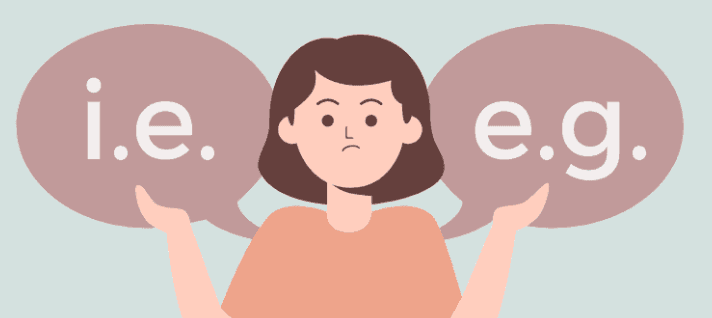
In the journey to understand the **eg vs ie meaning**, practice is your best friend. Here are a couple of activities that could help you.
1. Sentence Correction: Below are few sentences using 'eg' and 'ie'. Take a moment to correct these sentences before checking the solutions at the end of this section.
* He loves eating fruits, ie, bananas and apples.
* You should bring all essential documents, eg, your passport.
1. Fill in the Blanks: Complete these sentences using 'eg' or 'ie'.
* I prefer traditional art forms, \_\_\_\_ Kathakali and Bharatanatyam.
* She can't tolerate spicy food, \_\_\_\_ red chilli powder.
**_Answers:_**
1. Sentence Correction:
* He loves eating fruits, eg, bananas and apples.
* You should bring all essential documents, ie, your passport.
1. Fill in The Blanks:
* I prefer traditional art forms, eg, Kathakali and Bharatanatyam.
* She can't tolerate spicy food, ie, red chilli powder.
How Clapingo can help you improve professional communication
------------------------------------------------------------
[Clapingo](https://clapingo.com/) offers personalised coaching sessions with native English speakers, honing your fluency, pronunciation, vocabulary, and sentence structure. Our tutors understand the unique challenges faced by Indian professionals and are adept at simplifying intricate concepts like **eg vs ie meaning**.
With Clapingo assuring one-on-one classes, learners get undivided attention to overcome their language barriers. Our flexible session scheduling allows you to learn at your own pace while our diverse plans cater to specific needs.
A Quick Recap
-------------
As we've journeyed through the nuances of 'eg' and 'ie', let's quickly recap what we've learned.
* We defined 'eg' as an abbreviation for the Latin phrase 'exempli gratia', meaning 'for example'. It is used when you want to list examples of a certain statement.
* Conversely, 'ie' stands for 'id est', translating to 'that is'. It's used when you want to clarify or elaborate on a point.
* We understood their correct usage with some real-life scenarios.
* We also took note of common mistakes often made by non-native English speakers, like interchanging 'eg' and 'ie', or forgetting to use punctuation after them.
Remember, mastering these small yet significant language details can boost your professional communication skills significantly. If you need support along the way, Clapingo's spoken English courses are designed specifically to help learners like you grasp these subtleties effectively. [Book a quick demo here](https://clapingo.com/book-instant-demo).
FAQs
----
**1\. When to use eg vs ie?**
'Eg' is an abbreviation for the Latin phrase 'exempli gratia', which means 'for the sake of example'. You can use ‘eg’ when you want to provide examples to illustrate a point. For instance, "I prefer fruits, eg, apples and oranges."
**2\. Can I use eg and ie in formal writing?**
While it's acceptable to use these abbreviations in informal or less formal settings, it's best to avoid them in very formal writing. Instead, write out their full English equivalents: "for example" for ‘eg’, and "that is" for ‘ie’.
**3\. Do I put a comma after using eg or ie?**
Yes, in British English writing norms, a comma is typically placed after using either 'eg' or 'ie'. It aids readability by providing a slight pause after each abbreviation.
### **You may want to read**
**[Novels to Elevate Your English Proficiency](https://clapingo.com/blog/top-novels-english-speaking)
**
---
This blog is powered by Superblog. Visit https://superblog.ai to know more.
---
## Untangling Grammar Knots: A Guide to Using 'Which' and 'That'
Author: Unknown
Published: 2024-03-11
Meta Title: Mastering Which vs That Usage: A Guide for Indian Learners
Meta Description: Explore the difference between 'which' and 'that,' understand their correct usage, and improve your English with practical examples, exercises, and tips.
Tags: which vs that, which vs that rules, which vs that examples, which vs that difference
URL: https://clapingo.com/blog/which-vs-that
Contents
* [What's The Difference? Which vs That Meaning](#whats-the-difference-which-vs-that-meaning)
* [Where Do We Use Which vs That](#where-do-we-use-which-vs-that)
* [Exceptions in Which vs That Usage](#exceptions-in-which-vs-that-usage)
* [Practical Tips for Using Which vs That](#practical-tips-for-using-which-vs-that)
* [How Well Do I Understand These Rules? Which vs That Quiz](#how-well-do-i-understand-these-rules-which-vs-that-quiz)
* [Key Takeaways](#key-takeaways)
* [FAQs](#faqs)
* [You may want to read](#you-may-want-to-read)

Imagine yourself in a critical business meeting, presenting to foreign delegates. You're smoothly sailing through until you stumble over a sentence where you're unsure whether to use 'which' or 'that'. You see puzzled faces, and it dawns on you - your confusion between 'which' vs 'that' has made you pause too long in the middle of a sentence.
This situation is all too common. As non-native English speakers, we often struggle to differentiate between these two relative pronouns and use them accurately.
In this blog post, we'll delve into the nuances of **which vs that usage**, providing thorough explanations, real-world examples, interactive exercises, and more. So buckle up for this enlightening journey towards mastering the **usage of 'which' vs 'that'**.
What's The Difference? Which vs That Meaning
--------------------------------------------
The words 'which' and 'that' are both relative pronouns used in English but they serve different purposes. Here's a simple definition:
* **Which:** Used in non-restrictive clauses, providing additional information that isn't essential to the sentence.
* **That:** Used in restrictive clauses, providing necessary information to the sentence.
Let's compare them through this table:
**Which**
**That**
Use
Non-restrictive clauses
Restrictive clauses
Information
Additional, not essential
Essential for understanding
Now, let's look at some usage rules:
1. Use 'which' when the information it introduces is additional and can be left out without changing the meaning of the sentence.
2. Use 'that' when the information it introduces is crucial to understanding what is being talked about.
3. Always use commas before 'which'.
4. Never use commas before 'that'.
Where Do We Use Which vs That
-----------------------------
In English language, the usage of **which vs that relative pronouns** can sometimes be confusing. But don't worry, with a little bit of practice and understanding, you’ll get the hang of it.
* The word 'which' is often used in non-restrictive clauses. This is additional information which doesn't change the meaning of a sentence even if removed. For instance, consider this sentence: "_My bike, which is red in colour, is parked outside_." Here 'which is red in colour' is an extra detail about the bike but removing it doesn't change the essential information about my bike being parked outside.
* On the other hand 'that' is used in restrictive clauses. These are vital pieces of information without which the meaning of a sentence changes. For example: "_The book that I bought yesterday is very interesting._" If we remove 'that I bought yesterday', we won't know which book is being referred to.
Exceptions in Which vs That Usage
---------------------------------
Just like every language, English also has its fair share of exceptions. Even in the **usage of which vs that,** there are instances where both can be used interchangeably. Let's delve into those areas to gain a clearer understanding.
* For example, consider the sentence - "_The book which I borrowed from the library is interesting._" Here, 'which' is used to introduce a non-restrictive clause.
* However, 'that' can also be used instead of 'which' without altering the sentence meaning - "_The book that I borrowed from the library is interesting_".
This demonstrates how sometimes these relative pronouns can be used interchangeably without changing the sentence's meaning.
Practical Tips for Using Which vs That
--------------------------------------

Let's take a moment to untangle the which vs that conundrum. Follow these handy tips to grasp the usage of 'which' and 'that' effectively:
1. **Use 'that' in restrictive clauses:** A restrictive clause is essential to the meaning of a sentence, and hence it cannot be left out. For instance, "_The movie that you recommended is amazing_." Here, 'that you recommended' is a restrictive clause as it specifies which movie we're talking about.
1. **Use 'which' in non-restrictive clauses:** A non-restrictive clause can be removed from the sentence without changing its main meaning. It usually adds extra information and is separated by commas. For instance, "_The book, which has a blue cover, is amazing_." Here, 'which has a blue cover' merely provides additional information.
Remember this rule of thumb: THAT restricts, WHICH discloses!
For further understanding of the **use of which vs that**, test your knowledge with our quiz.
How Well Do I Understand These Rules? **Which vs That Quiz**
------------------------------------------------------------
Let's put your 'which vs that' knowledge to the test with this quick quiz.
1. Fill in the blank: The book \_\_\_\_\_\_\_ you gave me was very interesting.
2. Choose the right word: My bike, \_\_\_\_\_\_\_\_ is blue, has a flat tire.
3. Select the correct option: She didn’t like the movie \_\_\_\_\_\_\_\_ we saw last night.
Now, check your answers:
1. That - We use 'that' when the information it introduces is necessary to understand which specific thing or person we are talking about.
2. Which - 'Which' is used when adding non-essential information to a sentence.
3. That - Again, 'that' is correct because it specifies a particular movie from many others.
Well done! If you found any of this challenging, don't worry – with consistent practice using exercises and worksheets you can master these nuances of the English language.
Key Takeaways
-------------
As we conclude, remember that the difference between 'which' and 'that' is more than just semantic - it's about clarity and precision. The rules of ‘which vs that’ usage are simple: use 'that' in restrictive clauses when the information is essential; use 'which' in nonrestrictive clauses when the details are additional.
Keep practising these principles in everyday conversations to improve your spoken English skills. Remember, learning a language takes constant practice and patience.
If you’re seeking further guidance on enhancing your English proficiency, [Clapingo](https://clapingo.com/) offers personalized one-on-one coaching sessions with native English speakers. These sessions focus on fluency, pronunciation, vocabulary and sentence structure - a comprehensive approach to mastering English communication!
FAQs
----
**1\. What is the main difference between 'which' and 'that'?**
The main difference lies in their usage. 'That' introduces a restrictive clause, while 'which' introduces a non-restrictive or parenthetical clause.
**2\. Can 'which' and 'that' be used interchangeably?**
No, they can't be used interchangeably. Misuse of 'which' and 'that' can lead to confusion in meaning. Understanding their proper usage is key.
**3\. Why is it important to distinguish between the use of 'which vs that'?**
Understanding the correct **use of which vs that** is crucial for clear, concise communication, especially in professional settings where precision in language matters.
### **You may want to read**
**[How do I speak like Shashi Tharoor](https://clapingo.com/blog/speak-like-shashi-tharoor)
**
---
This blog is powered by Superblog. Visit https://superblog.ai to know more.
---
## The 'Is' vs 'Are' Conundrum: Understanding Subject-Verb Agreement
Author: Unknown
Published: 2024-03-11
Meta Title: Is Vs Are Usage: A Guide for English Learners in India
Meta Description: Understand 'is' vs 'are' usage with examples, scenarios, and tips. Improve your spoken English speaking skills with this practical and effective guide.
Tags: is vs are , is vs are usage, is vs are examples, is vs are difference, is vs are rules
URL: https://clapingo.com/blog/is-vs-are
Contents
* [What are "Is" and "Are"?](#what-are-is-and-are)
* [When to Use 'Is'](#when-to-use-is)
* [When to Use 'Are'](#when-to-use-are)
* [Special Cases: Is vs Are Usage Rules](#special-cases-is-vs-are-usage-rules)
* [Common Mistakes in Using Is vs Are](#common-mistakes-in-using-is-vs-are)
* [Is vs Are Quiz Time](#is-vs-are-quiz-time)
* [Wrapping Up](#wrapping-up)
* [FAQs](#faqs)

Picture yourself in a crucial presentation at work. You confidently say, "The data in these reports are indicating positive growth." Subtle nods around the room quickly turn into puzzled frowns. You've just made a common error - misusing 'is' and 'are'.
Effective communication is the cornerstone of professional success. Using verbs like 'is’ and ‘are’ correctly not only enhances clarity but also builds credibility.
In the following sections, we delve into the basics of **is vs are usage**, provide numerous real-life **is vs are examples**, explain when to use **is vs are in a sentence**, clarify tricky **is vs are grammar rules**, discuss using **is vs are in questions**, and more. Let's start.
What are "Is" and "Are"?
------------------------
To learn the difference between 'is' and 'are', we must analyze their roles as forms of the verb "to be", a key component of sentence structure.
Essentially, 'is' and 'are' help us link the subject of a sentence with the predicate, which can be a noun, adjective, pronoun or phrase that tells us more about the subject.
This brings us to the ‘subject-verb agreement’ rule. Simply put, it signifies that your subject and verb must agree in number. If you have a singular subject, you should use a singular form of a verb like 'is'. And if the subject is plural, the fitting version of 'to be' would be 'are'.
Let's illustrate this with simple examples:
* Sunita _is_ going to the market.
* Sunita and Ravi _are_ going to market.
In both sentences, we're giving information about Sunita's actions. However, when Ravi joins her making it a plural subject (Sunita and Ravi), we shift from using ‘is’ to ‘are’. This basic use of ‘is’ and ‘are’ is at the heart of forming grammatically correct sentences.
When to Use 'Is'
----------------
The word 'is' is used when talking about singular nouns or pronouns. For instance, consider the sentence, "_This is a book_." Here, 'book' is a singular noun, so we use 'is'. The incorrect usage would be "_This are a book_", which sounds off because 'are' is used for plural nouns or pronouns.
Here are three tips to remember when to use 'is':
1. If the noun or pronoun is singular (e.g., he/she/it), use ‘is’.
2. In sentences with uncountable nouns like ‘music’ or ‘happiness’, always use ‘is’.
3. When describing one person or thing’s state or action, use ‘is’.
When to Use 'Are'
-----------------
The word 'are' is used when dealing with plural nouns or pronouns. For example, in the sentence "_These are books_", 'books' represents more than one item, thus it requires 'are'. The incorrect version would be saying "_These is books_".
To ensure correct usage of ‘are’, remember these guidelines:
1. If the noun or pronoun is plural (e.g., they/we), use ‘are’.
2. In sentences starting with “there” followed by plural objects (e.g., There are people waiting).
3. When talking about multiple people doing an action or being in a condition, use ‘are’.
Special Cases: Is vs Are Usage Rules
------------------------------------
Let's look into some special cases of **"is vs are" usage**. Understanding these rules can help you speak and write English more accurately and naturally.
**Case**
**Rule**
**Example**
Collective Nouns
Use 'is' when group acts as one unit
_The team is ready for the match._
Compound Subjects
Use 'are' when subjects are joined by 'and'
_Ayesha and Priya are going on a trip._
Sentences starting with 'there'
Use 'is' for singular, 'are' for plural noun following 'there'
* There is a book on the table.
* There are apples in the basket."
Common Mistakes in Using Is vs Are
----------------------------------

In India, where many learn English as a second language, it's not uncommon to see mistakes when using 'is' and 'are'. This is primarily due to translating directly from their native language, where singular-plural distinctions may differ.
* One common mistake is mismatching subjects with verbs. For instance, instead of saying "_The boxes are heavy_," some might say "_The boxes is heavy_".
* Another error is inverting verb and subject order in questions. Many people incorrectly ask "_Is the shoes on sale?_" instead of “_Are the shoes on sale?_”.
To avoid these errors, remember this simple rule: 'is' is used with singular nouns and 'are' with plural nouns.
For more insights into commonly made mistakes by non-native English speakers in India, you can explore other topics on our [Clapingo blog](https://clapingo.com/blog).
**Is vs Are Quiz** Time
-----------------------
Ready to test your understanding of 'is' vs 'are'? Let's dive into this multiple-choice quiz!
1\. Which is correct?
a) There is many books on the shelf.
b) There are many books on the shelf.
2\. Choose the right option:
a) The keys to the car is on the table.
b) The keys to the car are on the table.
3\. Fill in the blank:
a) Each of the students \_\_\_\_ required to complete the assignment.
i) is
ii) are
4\. Select the right sentence:
a) Here is your pens.
b) Here are your pens.
Answers:
1. b) There are many books on the shelf - 'Books' is plural, so use ‘are’.
2. b) The keys to the car are on the table - Even though 'keys' is preceded by 'the', it's still plural, hence ‘are’ fits here.
3. a) Each of the students is required to complete their assignments - 'Each' implies one at a time, so use ‘is’.
4. b) Here are your pens - Again, since 'pens' is plural, use ‘are’.
Wrapping Up
-----------
To reiterate, understanding the distinction between 'is' and 'are' can significantly improve the grammatical accuracy of your English communication.
The rule of thumb is to use 'is' with singular nouns or pronouns, and 'are' with plural ones. For instance, "_This apple is fresh_" versus "_These apples are fresh_". However, as we've seen, there are certain exceptions to this rule, especially when dealing with collective nouns or quantities.
The journey of learning English often involves making mistakes and that's perfectly fine. The more you use these verbs in sentences, the more natural their usage will become.
In case you need additional support in your English learning journey, remember that [Clapingo](https://clapingo.com/) offers personalised learning resources tailored for non-native speakers like you. With a determined attitude and a little help from Clapingo, mastering the 'is vs are' usage will soon be a piece of cake!
FAQs
----
**1\. When to use 'is' vs 'are' in a sentence?**
The usage of 'is' and 'are' is decided by the subject. If the subject is singular, we use 'is', and if it's plural, we use 'are'. Here are some examples:
* Singular: _The dog is playing with a ball._
* Plural: _The dogs are playing with balls._
**2\. Can I use both 'is' and 'are' in one sentence?**
Yes. There are many scenarios where both 'is' vs 'are' can be used within the same sentence. For example, "_The book is on the table and the pens are in the drawer._"
**3\. Are there exceptions to 'is' vs 'are' grammar rules?**
Yes. Some words may appear plural but require singular verbs like "news", "mathematics", etc. For instance, we say "The news is good" not "The news are good".
### **You may want to read**
**[How Can I Find An English Learning Partner?](https://clapingo.com/blog/english-learning-partner)
**
---
This blog is powered by Superblog. Visit https://superblog.ai to know more.
---
## Understanding the Key Difference: Nauseous vs Nauseated Explained
Author: Unknown
Published: 2024-03-11
Meta Title: Nauseous Vs Nauseated: Correct Usage for English Learners
Meta Description: Avoid language mix-ups! Understand the difference between nauseous and nauseated. Enhance your spoken English skills with these practical tips and examples.
Tags: nauseous vs nauseated misuse, nauseous vs nauseated meaning, nauseous vs nauseated example, nauseous vs nauseated
URL: https://clapingo.com/blog/nauseous-vs-nauseated
Contents
* [Understanding Nauseous and Nauseated](#understanding-nauseous-and-nauseated)
* [The Grammar Behind Nauseous & Nauseated](#the-grammar-behind-nauseous-and-nauseated)
* [Common Misuses & Correcting Them](#common-misuses-and-correcting-them)
* [Practical Tips for Remembering The Difference](#practical-tips-for-remembering-the-difference)
* [How Clapingo Can Help With Vocabulary Enhancement](#how-clapingo-can-help-with-vocabulary-enhancement)
* [Parting Thoughts](#parting-thoughts)
* [FAQs](#faqs)
* [You may want to read](#you-may-want-to-read)

Imagine you're in the middle of an international conference call. Suddenly, you feel a wave of discomfort and uneasiness. It's been an hour since lunchtime; perhaps it's something you ate? You try to excuse yourself from the call, saying, "I'm sorry, but I'm feeling…" You pause midway, wondering which of the two words to use - nauseous and nauseated.
Aren't they interchangeable? In your mind, they both mean feeling sick or queasy. This situation is not uncommon for non-native English speakers in India, where these terms are often used interchangeably.
Today's topic centres on these two commonly confused terms: "nauseous" and "nauseated". While both relate to sickness, their usage is distinct.
So let's look at what these words mean. With our thorough insights and practical examples, you'll never be confused between these terms again!
Understanding Nauseous and Nauseated
------------------------------------
The English language has a handful of words that often get used interchangeably, leading to common confusion. Two such words are 'Nauseous' and 'Nauseated'.
Originating from the Latin word 'nausea', which means seasickness, both terms refer to a feeling associated with stomach distress.
* However, traditionally, 'Nauseous' is an adjective describing something that causes the feeling of sickness or revulsion. For example, "_The nauseous smell from the garbage dump made me cover my nose_".
* On the other hand, 'Nauseated' describes the person who feels sick or queasy. For instance, "_I felt nauseated after eating that stale food_".
Here are some more examples:
1. Nauseous - _The nauseous smell made me cover my nose._
2. Nauseated - _I felt nauseated after the boat ride._
However, modern usage has blurred these lines and 'Nauseous' is often used in place of 'Nauseated'. It's crucial to understand the traditional usage but also be aware of this shift in casual conversations.
The Grammar Behind Nauseous & Nauseated
---------------------------------------
Even native English speakers often get confused between 'nauseous' and 'nauseated'. Here’s why - the context of usage for these words has changed over time, causing confusion.
* In grammar, 'nauseous' is an adjective that describes something that causes nausea.
* Meanwhile, 'nauseated' is a verb, used when you want to express feeling unwell or experiencing nausea.
While these rules are traditionally correct, modern usage often sees ‘nauseous’ being used in place of 'nauseated'. However, as a language learner, it's essential to understand and respect traditional grammatical structures before embracing colloquial shifts.
Common Misuses & Correcting Them
--------------------------------
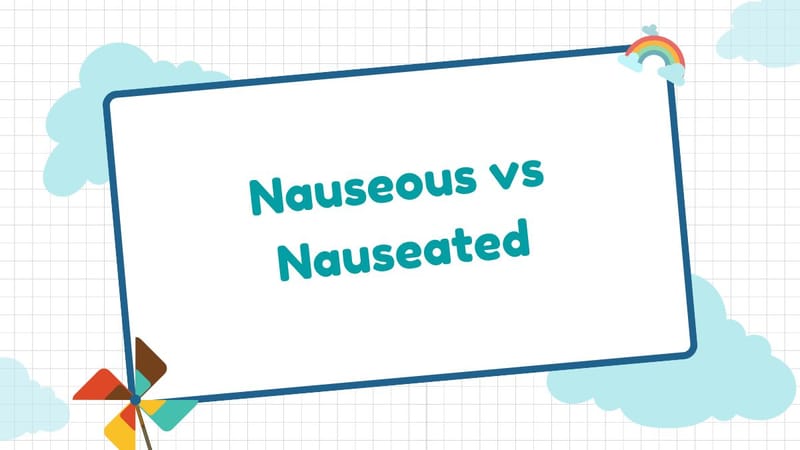
Regrettably, the misuse of 'nauseous' and 'nauseated' is a common occurrence. Let's delve into some examples:
1\. Misuse: "_I'm feeling nauseous after that roller coaster ride._"
Correction: "_I'm feeling nauseated after that roller coaster ride._"
In this instance, using 'nauseous' implies that the speaker is causing others to feel sick. The correct term here would be 'nauseated', which denotes the speaker's feelings of sickness.
2\. Misuse: "_The sight of blood makes me nauseous._"
Correction: "_The sight of blood makes me nauseated._"
Again, 'nauseated' should be used to describe the feeling of nausea induced by an external stimulus.
But worry not – with practice, you can avoid these common missteps. Here are other potential confusions you might encounter:
* Using 'nauseous' when describing someone's reaction to an unpleasant taste or smell.
* Confusing 'nausea' (the condition) with 'nauseous' (causing nausea).
* Assuming that 'nauseous' and 'nauseating' are interchangeable.
Practical Tips for Remembering The Difference
---------------------------------------------
1. **Visual Technique:** Visualise the word 'nauseous' as being filled with something nauseating, like a rotten egg. This will help you remember that 'nauseous' means causing nausea, similar to how a rotten egg can cause an unpleasant feeling.
2. **Word Association:** 'Nauseated' contains the word ‘ate’, which can remind you of eating something bad and feeling sick afterwards. This can help you recall that 'nauseated' refers to feeling sick.
3. **Idiomatic Expressions:** Familiarise yourself with idioms where these words appear, such as 'Ad Nauseam', which means to an excessive or annoying extent (external link).
To improve your overall language fluency, [reading novels](https://clapingo.com/blog/top-novels-english-speaking) is always a good idea.
How Clapingo Can Help With Vocabulary Enhancement
-------------------------------------------------
Clapingo's personalised coaching sessions are designed to boost your confidence in English vocabulary. These one-on-one sessions with native English speakers provide a unique language learning experience, tailored to your learning style and needs.
Our flexible scheduling ensures you can learn at your own pace without feeling overwhelmed. This personalised approach promotes deeper understanding and fosters better retention of challenging vocabulary terms.
Parting Thoughts
----------------
We've journeyed through the difference between 'nauseous' and 'nauseated', understanding their correct usage.
One fundamental takeaway is that 'nauseous' is used to describe something causing nausea, while 'nauseated' denotes the feeling of being sick.
Regular practice coupled with expert guidance from platforms like [Clapingo](https://clapingo.com/) can significantly enhance your spoken English skills. Remember that every step taken towards improving your English proficiency is a step towards professional growth and personal fulfilment.
FAQs
----
**1\. Why do people confuse 'nauseous' and 'nauseated'?**
Often, speakers mistake 'nauseous' for 'nauseated' due to their similar sounding nature and related meaning. However, they have distinct usage. Traditionally, 'nauseous' describes something causing nausea - like a rotten smell, while 'nauseated' is the feeling of queasiness or being about to vomit.
**2\. Can I use 'nauseous' instead of 'nauseated'?**
While some dictionaries and language experts accept using 'nauseous' to mean feeling sick, it's more accurate and precise to use 'nauseated'. This is particularly important in formal communication or academic writing where clarity is key.
**3\. Which is more correct: I am nauseous or I am nauseated?**
Though both phrases are commonly used interchangeably in modern usage, some language scholars insist on a distinction. According to grammar, saying 'I am nauseous' implies that you are the source of the nausea, meaning you're making others feel sick! The intended phrase should be 'I am nauseated', meaning you feel like throwing up.
### **You may want to read.**
**[Top 25 English Speaking Course Books You Shouldn't Miss](https://clapingo.com/blog/english-speaking-course-book)
**
---
This blog is powered by Superblog. Visit https://superblog.ai to know more.
---
## Hanged vs Hung: Deciphering the Grammar Behind Execution and Hanging
Author: Unknown
Published: 2024-03-11
Meta Title: Understanding the Difference and Meaning: Hanged Vs Hung
Meta Description: Unlock the mystery of 'Hanged Vs. Hung' in the English language for Indian learners. Understand their differences and perfect your spoken English skills.
Tags: hanged vs hung meaning , hanged vs hung, hanged vs hung difference, hanged vs hung worksheets, hanged vs hung exercises
URL: https://clapingo.com/blog/hanged-vs-hung
Contents
* [Understanding Hanged and Hung:](#understanding-hanged-and-hung)
* [The Correct Usage of Hanged vs Hung in Different Contexts](#the-correct-usage-of-hanged-vs-hung-in-different-contexts)
* [Why do we Confuse Hanged and Hung?](#why-do-we-confuse-hanged-and-hung)
* [Tips for Mastering the Correct Usage of Hanged and Hung](#tips-for-mastering-the-correct-usage-of-hanged-and-hung)
* [How Clapingo Can Aid in Perfecting Your Spoken English](#how-clapingo-can-aid-in-perfecting-your-spoken-english)
* [Quick Recap](#quick-recap)
* [FAQs](#faqs)

Your heart pounds in your chest as you prepare to deliver a speech at your school on famous personalities. You confidently utter the sentence, "Bhagat Singh was hung by the British." A through the audience. Wasn't it supposed to be 'hanged'?
A common issue faced by non-native English speakers is the misunderstanding between 'Hanged' and 'Hung'.
English, with its list of homonyms, homophones and complex grammar rules, can be tricky to navigate. This particular aspect of English - knowing when to use 'hanged' and when to use 'hung' - often stumps learners across India. Is there a difference? If yes, what is it?
By the end of this article, you'll learn not only the difference between 'hanged' and 'hung', but also understand their usage in context. Plus, we will provide practical tips and examples that will help you remember which word to use when!
Understanding Hanged and Hung:
------------------------------
While both 'hanged' and 'hung' come from the verb 'to hang', they have different implications. Let's break down these terms.
* 'Hanged' refers to death by suspension, particularly in legal terminology or historical context. It is the past tense and past participle of 'hang' only when used in this specific context. For instance, "_He was hanged for his crimes_."
* On the other hand, 'Hung' is the standard past tense and past participle of 'hang'. It applies to all contexts other than causing death by suspension. For example, "_I hung my clothes out to dry_."
Basically, 'hanged' emphasizes a punishing or lethal action while 'hung' refers to suspending something physically.
The Correct Usage of Hanged vs Hung in Different Contexts
---------------------------------------------------------
Both words are past tense forms of 'hang'. Traditionally, 'hanged' is used when referring to death by hanging. On the other hand, 'hung' is used in all other contexts.
Now let's review some examples:
1\. Incorrect: The picture was hanged on the wall.
Correct: The picture was hung on the wall.
2\. Incorrect: He hung himself in despair.
Correct: He hanged himself in despair.
3\. Incorrect: Your coat is hanged on the rack.
Correct: Your coat is hung on the rack.
Why do we Confuse Hanged and Hung?
----------------------------------

The terms 'hanged' and 'hung' cause much confusion, especially among non-native English speakers. Here are three main reasons why these words often get mixed up:
1. **Similar Spelling:** The words 'hanged' and 'hung' look very similar, separated by just two differing letters. It's easy to mix up the two, particularly when writing or speaking quickly.
2. **Irregular Verb Form:** English is famous for its irregular verbs, and 'hang' is no exception. Non-native speakers might expect the past tense of hang to be 'hanged', following the pattern of regular verbs such as bake-baked or work-worked.
3. **Variation in Usage:** The correct usage of 'hanged' and 'hung' varies based on geographic location (like **hanged vs hung in USA**) and context, which can be confusing for learners. In certain contexts, both forms can be acceptable which further adds to the confusion.
Tips for Mastering the Correct Usage of Hanged and Hung
-------------------------------------------------------
1. Remember the rhyme: "Pictures are hung; people are hanged." This fun little mnemonic can help you remember when to use which term.
2. Practice makes perfect: Use exercises and worksheets to get a firm grasp on their usage. Practice sentences like "The criminal was \_\_\_\_\_\_\_ last night." or "She \_\_\_\_\_\_\_\_ the photo on the wall."
3. Stay consistent with your practice: Regularly revisiting these exercises will help reinforce your understanding.
How Clapingo Can Aid in Perfecting Your Spoken English
------------------------------------------------------
Embarking on your English learning journey with Clapingo can be a game-changer in overcoming common language barriers, including the 'hanged' vs 'hung' confusion.
Clapingo conducts personalised coaching sessions and [simple video lessons](https://www.youtube.com/@Clapingo/featured) which are specifically tailored for Indian learners like you. Through these sessions, you interact directly with native English speakers. This exposure allows you to grasp the language, helping you understand and use complex phrases and words correctly.
Also, with Clapingo, you can learn English through your mother tongue, like [Telugu](https://clapingo.com/product/spoken-english-telugu/) or [Tamil](https://clapingo.com/product/spoken-english-tamil/)!
Quick Recap
-----------
As we come to the end of our article, let's recap the primary difference between 'hanged' and 'hung'.
* Remember, 'hanged' is specifically used in reference to death by suspension or execution, such as "_The notorious criminal was hanged at dawn_."
* On the other hand, 'hung' applies to all other scenarios involving suspension, like "_She hung her coat on the hook._"
This understanding of **Hanged vs Hung meaning** can go a long way in helping you enhance your English proficiency. So continue your learning expedition and explore more intriguing aspects of the English language.
Remember that resources like [Clapingo's](https://clapingo.com/) diverse plans are always there for your support, providing one-on-one classes with native English speakers who can guide you through these intricacies in an accessible manner.
FAQs
----
**1\. What is the difference between 'hanged' and 'hung'?**
The difference between these two words lies in their usage. Generally, 'hung' is the past tense of 'hang' when referring to objects. For example, _"She hung her degree on the wall._" However, 'hanged' is used when referring to death by hanging in a legal or formal context. For instance, "_The criminal was hanged for his crimes._"
**2\. Is it correct to say "I hanged my clothes out to dry"?**
No, it's not correct. When talking about everyday objects like clothes, use 'hung'. The correct sentence is "_I hung my clothes out to dry._" Remember, 'hanged' is mostly used when talking about execution/death by hanging.
**3\. Where can I practice using ‘hanged’ and ‘hung’ correctly?**
You can find numerous online resources that provide exercises and **hanged vs hung worksheets** for practising these terms correctly. These worksheets often provide situations where you have to choose between ‘hanged’ and ‘hung.’
### **You may want to read.**
**[Speak Softly, Speak Well: English Speaking Tips for Introverts](https://clapingo.com/blog/english-speaking-tips-for-introverts)
**
---
This blog is powered by Superblog. Visit https://superblog.ai to know more.
---
## Faceoff: Opossums vs Possums – What Sets Them Apart?
Author: Unknown
Published: 2024-03-11
Meta Title: Breaking Down the Meaning and Usage : Opossum Vs Possum
Meta Description: Unravel the differences and meanings between Opossum and Possum through images, facts, pronunciation tips, examples, and more in this detailed.
Tags: opossum vs possum facts , opossum vs possum, opossum vs possum difference, opossum vs possum features
URL: https://clapingo.com/blog/opossum-vs-possum
Contents
* [Exposing Misconceptions: What is a Possum?](#exposing-misconceptions-what-is-a-possum)
* [Understanding The Other Side: What is an Opossum?](#understanding-the-other-side-what-is-an-opossum)
* [Opossum Vs Possum Difference: A Comparative Study](#opossum-vs-possum-difference-a-comparative-study)
* [Say it Right: Opossum Vs Possum Pronunciation Guide](#say-it-right-opossum-vs-possum-pronunciation-guide)
* [Visual Learning: Making the Most of Opossum Vs Possum Pictures](#visual-learning-making-the-most-of-opossum-vs-possum-pictures)
* [Why Does It Matter? The Impact Of Correct Usage](#why-does-it-matter-the-impact-of-correct-usage)
* [Quick Recap](#quick-recap)
* [Frequently Asked Questions](#frequently-asked-questions)

Many non-native English speakers are often puzzled by the terms 'opossum' and 'possum'. It's easy to see why such confusion arises. These creatures have similar names, and without clear visual aids, distinguishing between them can be challenging.
By using **opossum vs possum images**, you can quickly learn to differentiate between these two animals.
In this blog post, we'll look into **opossum vs possum facts** and differences. We'll also offer pronunciation tips backed by images to reinforce your understanding. So buckle up!
Exposing Misconceptions: What is a Possum?
------------------------------------------
Possums, native to Australia, are adorable marsupials with fluffy fur and long tails. Their name derives from the Aboriginal term for "white night animal".
Here are some interesting possum facts:
* Possums come in 70 different species.
* They have prehensile tails which they use for climbing.
* Some possum species play a crucial role in seed dispersal, aiding forest regeneration.
Understanding The Other Side: What is an Opossum?
-------------------------------------------------
Opossums, on the other hand, are North America's only marsupial. These creatures have greyish-white bodies and long naked tails. T
Let's learn some facts about opossums:
* Opossums have an average lifespan of 2-4 years.
* They have 50 teeth, more than any land mammal.
* An opossum's tail is hairless and acts as an appendage to hold onto branches.
* Opossums play dead when threatened.
Opossum Vs Possum Difference: A Comparative Study
-------------------------------------------------
Understanding the **opossum vs possum difference** is not that big of a challenge, but a simple comparative study. Let's take a look at the following comparison table:
Attribute
Opossum
Possum
Origin
North America
Australia
Appearance
White or grey fur, pointy snout, hairless tail
Brown or grey fur, rounder snout, bushy tail
Diet
Omnivorous
Primarily herbivorous
Behaviour
Nocturnal, solitary
Nocturnal, can be social
For example, if you see upon a creature with white or grey fur in your backyard in India or elsewhere, you've probably spotted an opossum that's strayed away from its usual North American habitat. But if you see a small, furry creature hanging from a tree in an Australian national park munching on eucalyptus leaves - that's definitely a possum!
For further clarification on similar language confusions, check out [Clapingo's blog.](https://clapingo.com/blog)
Say it Right: Opossum Vs Possum Pronunciation Guide
---------------------------------------------------
Now learn **opossum vs possum pronunciation**. Here is a simple step-by-step guide:
1. **Opossum:** Pronounce this as /əˈpɒsəm/; note the silent 'o' at the beginning is replaced by an 'uh' sound.
2. **Possum:** Say this as /ˈpɒsəm/, essentially the same as 'opossum' but without the initial silent 'o'.
Visual Learning: Making the Most of Opossum Vs Possum Pictures
--------------------------------------------------------------
Visual learning can be a powerful tool in distinguishing between similar-looking animals like the opossum and possum. For distinguishing between **opossum vs possum, pictures of** both creatures can help you identify key physical differences, aiding your understanding and correct usage of these terms.
For instance, an opossum's white face and grey body contrast starkly against a possum's darker brown hue.


---
Why Does It Matter? The Impact Of Correct Usage
-----------------------------------------------
Clarity in communication is important. Whether we're discussing animals like opossums and possums or any other specific topic, using the correct term enhances clarity and avoids confusion. If you mistakenly call a possum an opossum in conversation with someone familiar with these creatures, it could lead to misunderstandings, especially if you work in a scientific or biological field.
Moreover, mastering such specific vocabulary shows your command over English. It reflects your dedication towards understanding not just basic concepts but also intricate details of the language. This proficiency can impress potential employers or academic peers enhancing your personal brand.
Quick Recap
-----------
Let's revisit the main points we covered in this article.
We've seen a **few opossum vs possum images**, learned intriguing **opossum vs possum facts**, and distinguished between the differences and similarities in **opossum vs possum features.**
Mastering the correct usage of these terms enhances your English language skills and boosts your confidence. Remember, the difference lies not just in pronunciation, but also in geographical context. While 'opossums' are found in America, 'possums' in Australia (and a few other parts of the world).
For those seeking to further polish their English, [Clapingo](https://clapingo.com/) offers personalised one-on-one coaching sessions with native English speakers. These sessions are conducted in your native language to make learning more comfortable and effective. [Book a quick demo today!](https://clapingo.com/book-a-demo)
Frequently Asked Questions
--------------------------
**1\. What is the main opossum vs possum difference?**
The primary difference between opossums and possums lies in their geographic origins and species. Opossums belong to the Didelphimorphia order found primarily in North and South America, while possums belonging to the Phalangeriformes order are native to Australia, New Guinea, Sulawesi, and other islands of Indonesia. This distinction is fundamental when differentiating between **opossum vs possum facts.**
**2\. Can I use "opossum" and "possum" interchangeably?**
Technically no. While both terms refer to marsupials, they represent different animals from various regions. However, it's crucial to note that in casual speech, especially in America, 'possum' is often used as a shorthand for 'opossum'. But scientifically speaking, using them interchangeably might not be accurate given the significant **opossum vs possum difference.**
**3\. How can I correctly pronounce "opossum" and "possum"?**
In terms of pronunciation, "opossum" is pronounced as /əˈpɒsəm/, with the 'o' at the beginning being silent. On the other hand, "possum" is pronounced as /ˈpɒsəm/. So one key aspect of **opossum vs possum pronunciation** is whether you pronounce or skip the initial 'o'.
### **You may want to read**
[How can you remove the mother tongue influencer problem in English Speaking?](https://clapingo.com/blog/mother-tongue-influence-problem-english)
---
This blog is powered by Superblog. Visit https://superblog.ai to know more.
---
## Shell Showdown: Crawfish vs Crayfish - Are they the same?
Author: Unknown
Published: 2024-03-11
Meta Title: Crawfish, Crayfish, Crawdads: Exploring their Differences
Meta Description: Boost your spoken English language skills through this engaging exploration of the differences between crawfish, crayfish, and crawdads.
Tags: crawfish & crayfish difference, crawfish vs crayfish, crawfish vs crayfish meaning, crawfish vs crayfish example
URL: https://clapingo.com/blog/crawfish-vs-crayfish
Contents
* [Understanding Crawfish, Crayfish, and Crawdad - What Do They Really Mean?](#understanding-crawfish-crayfish-and-crawdad-what-do-they-really-mean)
* [Why Words Like 'Crawfish,' 'Crayfish,' And 'Crawdad' Confuse Indian Learners?](#why-words-like-crawfish-crayfish-and-crawdad-confuse-indian-learners)
* [Enriching Your Vocabulary With Aquatic Animal Names](#enriching-your-vocabulary-with-aquatic-animal-names)
* [Practical Tips For Learning Similar Sounding Words](#practical-tips-for-learning-similar-sounding-words)
* [To Sum Up](#to-sum-up)
* [FAQs](#faqs)
* [You may want to read](#you-may-want-to-read)

Imagine you're watching your favourite English show, and suddenly, the characters start talking about going 'crawfish' hunting. A few episodes later, they're planning a 'crayfish' feast. Now you're scratching your head, wondering, "Are crawfish and crayfish the same thing? Or are they different?”
This is a familiar occurrence in English. Common terms like "crawfish," "crayfish," and even "crawdad" are often used interchangeably. This understandably leads to confusion for non-native English speakers like us in India.
This blog post will help you understand the differences between these commonly confused words. By learning these distinctions, you can improve your vocabulary. Let's get started!
Understanding Crawfish, Crayfish, and Crawdad - What Do They Really Mean?
-------------------------------------------------------------------------
It may surprise you, but all three terms - crawfish, crayfish, and crawdad - refer to the same animal! It's a small, freshwater crustacean that resembles a tiny lobster. The variation in terminology is simply a reflection of regional differences in English.
* The term ‘crawfish’ is commonly used in the southern United States, particularly Louisiana where they're a popular cuisine.
* 'Crayfish', on the other hand, is widely accepted in most other English-speaking countries including the UK from where it originates.
* 'Crawdad' is another American colloquial term mostly used in the Midwest and Western regions.
This fascinating animal has created quite a stir with its many names!
Why Words Like 'Crawfish,' 'Crayfish,' And 'Crawdad' Confuse Indian Learners?
-----------------------------------------------------------------------------
As non-native speakers, many Indians struggle with English words that sound similar but have different meanings. Words like 'crawfish,' 'crayfish,' and 'crawdad' are particularly problematic as they refer to the same small, lobster-like creature found in freshwater environments and are popular in certain cuisines.
Confusion arises due to regional differences in the use of these terms. Moreover, India's multilingual culture often involves direct translations from mother tongues into English. This leads to further confusion when such words appear in conversations or written texts.
The key lies in understanding language variations and contexts. Just like we have regional differences in our Indian languages, so does English! So next time you see similar-sounding words, remember - it's not just about the word; it's also where and how it's used.
Enriching Your Vocabulary With Aquatic Animal Names
---------------------------------------------------
Did you know that the English language is flooded with confusing marine animal names? And it's not just "crawfish" and "crayfish"! Let's dive into a few more to help you navigate these tricky waters.
1. **Shrimp vs Prawn:** Generally, "shrimp" is used in American English, while "prawn" is used in British English. Both are small, edible sea creatures.
2. **Tuna vs Swordfish:** While both are popular as seafood, swordfish are distinguished by their long, pointed bill resembling a sword.
3. **Dolphin vs Porpoise:** They may look similar but dolphins have longer snouts and are usually more playful than porpoises.
4. **Squid vs Octopus:** These two might be hard to distinguish initially. However, octopuses have round heads and eight arms while squids have elongated bodies and ten appendages!
To make vocabulary learning easier, try visualizing each creature with its corresponding name or creating flashcards for regular practice.
Practical Tips For Learning Similar Sounding Words
--------------------------------------------------
Here are a few handy language tips:
1. **Context Clues:** Pay attention to the sentence and situation where the word is used. This can often provide clues about the correct term.
2. **Pronunciation Practice:** Regularly practice saying similar-sounding words out loud to familiarise yourself with their distinct sounds.
3. **Memory Tricks:** Create a unique memory trick associated with each word. For example, you could associate 'crawfish' with 'crawling on the river bed'.
But what if you need more help? That's where Clapingo steps in! With their personalised coaching sessions, you have access to native English speakers who can guide you through these intricacies. They understand your unique learning needs and adapt their teaching style accordingly. Plus, Clapingo's flexible session scheduling allows you to learn at your own pace - ensuring that no doubt remains unresolved!
To Sum Up
---------
For new learners, the world of English terms can often seem vast and confusing.
Today, we looked into one such mystery - the difference between crawfish, crayfish, and crawdad. But as we discovered, these are all different names for the same creature. Just as in India where a mango might be called 'aam' in Hindi or 'manga' in Tamil, regional variations exist in English too! Understanding these variations can enrich your language skills and make you more fluent.
We at [Clapingo](https://clapingo.com/) are here to guide you through every step of your English learning journey. Our personalised coaching sessions are designed to help you navigate the richness and complexities of the English language with ease and confidence.
FAQs
----
**1\. Are lobster and crayfish the same?**

No, they are different species. Lobsters belong to a family of large marine crustaceans, while crayfish--also known as crawfish or crawdads—are freshwater crustaceans resembling small lobsters.
**2\. Is there a difference between crawfish and crayfish?**
The only difference between crawfish and crayfish is the regional usage. Both terms refer to the same small freshwater creature, but their usage varies. In the United States, 'crawfish' is commonly used in the South and Southeast regions, while 'crayfish' is preferred in other parts.
**3\. Where does the word 'crawfish' come from?**
The word ‘crawfish’ comes from an old French term ‘crevice’, influenced by ‘fissure’ meaning crack or cleft—a description of its cracked shell appearance. Over time, due to varying dialects and accents, it has evolved into different forms like 'crayfish', 'crawdad', and 'mudbug'.
### **You may want to read**
**[Linguistic Forecast : When Will India Embrace English?](https://clapingo.com/blog/when-india-become-english-speaking-country)
**
---
This blog is powered by Superblog. Visit https://superblog.ai to know more.
---
## Understanding Sympathy vs. Empathy: Understanding Key Concepts of Emotional Intelligence
Author: Unknown
Published: 2024-03-06
Meta Title: Understanding Sympathy Vs Empathy: Examples and Meanings.
Meta Description: Explore examples of sympathy and empathy, learn their differences, and understand the importance of these for personal and professional growth in India.
Tags: Sympathy vs Empathy, Sympathy vs Empathy Meaning, Sympathy vs Empathy differnces, Sympathy vs Empathy examples, Sympathy vs Empathy definition
URL: https://clapingo.com/blog/sympathy-vs-empathy
Contents
* [Sympathy vs Empathy: Meaning and Differences](#sympathy-vs-empathy-meaning-and-differences)
* [Sympathy Vs Empathy: Examples In Everyday Conversations](#sympathy-vs-empathy-examples-in-everyday-conversations)
* [Translating Sympathy And Empathy From English To Hindi](#translating-sympathy-and-empathy-from-english-to-hindi)
* [The Importance Of Sympathy and Empathy In Professional Communication](#the-importance-of-sympathy-and-empathy-in-professional-communication)
* [Exercising Sympathy And Empathy: Real-Life Scenarios](#exercising-sympathy-and-empathy-real-life-scenarios)
* [Summing Up](#summing-up)
* [FAQs](#faqs)

The English language is known for its rich vocabulary. When you're learning such a language which has lots of different words and expressions, it's not always about knowing what they mean. It's also about understanding the feelings and emotions that they convey. This is especially important in the case of words like 'sympathy' and 'empathy.' Grasping the meanings and usage of these words will help you understand human relations better and communicate efficiently.
Through this blog post, you'll develop a greater understanding of these two terms. By learning their definitions and exploring real-life sympathy vs empathy examples, you'll be able to communicate more authentically in English – showing not just your language proficiency but also your emotional intelligence. Ready to dive into the fascinating world of sympathy vs empathy? Let's get started!
Sympathy vs Empathy: Meaning and Differences
--------------------------------------------
Let us begin with the definition of sympathy vs empathy. Sympathy refers to the feeling of compassion or concern for someone else's grief or misfortune. It's like standing on the shore witnessing someone struggling to swim. You feel sorry for them, you wish them well, but you remain on the safe ground.
On the other hand, empathy is quite powerful. It means putting yourself in another person's shoes, and experiencing their feelings as if they were your own. It's like diving into the water to understand how it feels to struggle and then offering assistance.
Here are their distinct features:
**Sympathy:**
* Concerned with feelings of pity
* Involves feeling _for_ someone
* Can create distance as you're observing someone else's hardship
**Empathy:**
* Involves understanding experiences and emotions
* You feel _with_ someone
* Promotes connection as you step into another person’s shoes
Sympathy Vs Empathy: Examples In Everyday Conversations
-------------------------------------------------------
In everyday conversations, "sympathy" and "empathy" often get used interchangeably. However, they indicate distinct emotional responses. When we say 'I sympathise with you', we're expressing pity or sorrow for someone's misfortune, without necessarily understanding their feelings. For example, if a friend says, "I missed my train today", a sympathetic response might be, "That's unfortunate".
On the other hand, when we 'empathise' with somebody, we are putting ourselves in their shoes and experiencing their emotions. So if your friend missed the train, an empathetic response would be: "That must have been frustrating; I understand how you feel because I've experienced that myself".
The choice between using sympathy vs empathy depends on the situation and your relationship with the person. Practice observing others' emotions and reactions to enhance your understanding of these concepts in English conversation.
Translating Sympathy And Empathy From English To Hindi
------------------------------------------------------
Understanding the meaning of 'sympathy' and 'empathy' in Hindi can provide clarity on the difference between sympathy vs empathy.
'Sympathy' translates to 'सहानुभूति' (Sahānubhūti) in Hindi, which means feeling sorrow for someone else's hardship. For example, consider this English sentence: "I sympathize with her for losing her job." In Hindi, it is: "मैं उसकी नौकरी खोने के लिए उसके साथ सहानुभूति प्रकट करता हूं."
On the other hand, 'empathy' translates to 'समानुभूति' (Samānubhūti), meaning experiencing others' feelings as if they were your own. Here's an example: "I empathize with his struggle to learn English." In Hindi, it's: "मैं अंग्रेजी सीखने की उसकी संघर्ष के साथ समानुभूति प्रकट करता हूं."
Remember that improving your English fluency is a journey, and every new word you learn gets you one step closer to your goal. Stay patient, keep practising, and you'll see the results!
The Importance Of Sympathy and Empathy In Professional Communication
--------------------------------------------------------------------
In the professional sphere, mastering emotional intelligence which includes understanding the difference between sympathy and empathy, is essential. Misusing these terms can lead to misinterpretations and strain business relationships. Here are some practical tips for applying sympathy and empathy correctly:
* **Listen actively:** Pay attention to words, tone and body language to understand what the other person is experiencing.
* **Respond thoughtfully:** Use language that communicates your shared experience (empathy) or your concern for their situation (sympathy).
* **Validate emotions:** Acknowledge the other person's feelings without judgment.
For more guidance on improving conversational skills, do explore our article [Speak Softly, Speak Well: English Speaking Tips for Introverts](https://clapingo.com/blog/english-speaking-tips-for-introverts)[.](https://www.clapingo.com/eng-blog/speak-softly-speak-well-english-speaking-tips-for-introverts\).) It provides useful insights on effective communication strategies specifically for introvert non-native English speakers in India.
Exercising Sympathy And Empathy: Real-Life Scenarios
----------------------------------------------------
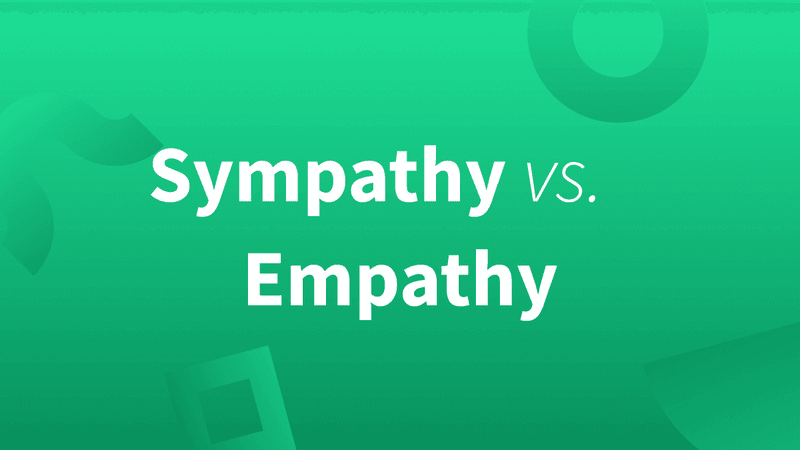
Understanding the difference between sympathy and empathy is essential, but how do we apply it in real-life scenarios? Let's consider these examples of sympathy and empathy.
Imagine a friend didn't perform well in an interview. Expressing sympathy, you might say, "I feel bad that your interview didn't go well." Here, you're acknowledging their situation, but not necessarily connecting with their feelings. On the other hand, expressing empathy, you could say, "I can only imagine how disappointing it must be for you." Notice the difference? In the empathetic response, you're connecting with their emotions, not just recognising them.
Remember - understanding sympathy and empathy not only improves your English communication but also helps build deeper connections in personal and professional relationships.
Summing Up
----------
So far, we have looked at the differences between the concepts 'sympathy' and 'empathy'. We've learned that while sympathy is a feeling of pity or sorrow for someone else's misfortune, empathy involves understanding and sharing another person's feelings as if stepping into their shoes. Embracing this difference can positively impact your English language skills as well as interpersonal interactions.
Remember, language isn't just about words and grammar. It’s also about expressing feelings and emotions appropriately. Knowing the difference between sympathy and empathy allows you to communicate more sensitively, and effectively. Enhancing your English speaking skills also requires practice. [Clapingo](https://clapingo.com/) offers one-on-one coaching sessions with non-judgmental native tutors to help you effectively communicate in various situations.
Keep practising with real-life situations to master these concepts. Learning is a journey, and every step counts. Clapingo is here to guide you through it one step at a time!
FAQs
----
**1\. Is "I'm sorry" sympathy or empathy?**
"I'm sorry" can express both sympathy and empathy, depending on the context and your relationship with the person you are speaking to.
**2\. How is sympathy different from empathy?**
Sympathy involves feeling for someone, whereas empathy involves feeling with someone.
**3\. Can you feel empathy but not sympathy?**
Yes, you can feel empathy without necessarily feeling sympathy, especially if you understand someone's perspective but don't feel sorry for them.
### **You may want to read**
**[Top 5 Ways to Hone Your English Speaking Skills](https://clapingo.com/blog/top-ways-practice-english-speaking)
**
---
This blog is powered by Superblog. Visit https://superblog.ai to know more.
---
## Defense vs Defence: A Linguistic Battle Across Borders
Author: Unknown
Published: 2024-03-06
Meta Title: Defense vs Defence: A Guide for English Learners in India
Meta Description: Discover the difference between 'defense' and 'defence', including regional variations and communication strategies for Indian English learners.
Tags: Defense vs Defence, Defense vs Defence examples, Defense vs Defence meaning, Defense vs Defence definition, defence vs defense guide
URL: https://clapingo.com/blog/defence-vs-defense
Contents
* [What's in a Spelling? Defense or Defence](#whats-in-a-spelling-defense-or-defence)
* [The Game Changer: American vs British English](#the-game-changer-american-vs-british-english)
* [Decoding Contextual Usage – Defense or Defence?](#decoding-contextual-usage-defense-or-defence)
* [Master ‘Defense’ and ‘Defence’: Practical Tips](#master-defense-and-defence-practical-tips)
* [How Clapingo Can Help](#how-clapingo-can-help)
* [The Bottomline](#the-bottomline)
* [Frequently Asked Questions](#frequently-asked-questions)
* [You may want to read](#you-may-want-to-read)

Imagine you're a software professional from India who got an opportunity to work on a cybersecurity project. Your manager, based in the US, expects you to prepare a report on "defense strategies against cyber threats". Simultaneously, your UK-based client anticipates a presentation on "defence measures in the digital realm". You notice two versions of the same word - "defense" and "defence," causing confusion and possibly impacting your professional credibility.
Understanding the difference between "defense" and "defence" helps you avoid misunderstandings and ensures accurate communication in diverse settings.
In this blog post, we delve into the **defense vs defence meanings** and differences, explaining when and where each version is used. We'll also discuss practical tips to remember these differences. So, let’s embark on this linguistic journey together.
What's in a Spelling? Defense or Defence
----------------------------------------
Often, learners of English, especially those tuning into the **defence vs defense UK** and US English debate, struggle with the correct usage of such words.
While "defense" and "defence" may appear different, they essentially stem from the same Latin root 'defensus', meaning to protect or resist. Both spellings carry the same meaning - protection against harm or danger.
So, why two spellings? It traces back to divergence in English language usage across regions, specifically between British and American English.
Essentially, your choice of spelling will depend on who your audience is. For Indian professionals engaging predominantly with UK businesses or following British English norms, 'defence' would be more appropriate.
Remember, whether it’s ‘defense’ or ‘defence’, what matters most is understanding and using the word confidently in your conversations!
The Game Changer: American vs British English
---------------------------------------------

* The British retained the Old French spelling - 'defence'. It's commonly used in Commonwealth countries, including India.
* On the other hand, Americans adopted a Latin influenced spelling - 'defense'. That's why you'll see this version more frequently in American literature and broadcasts.
Check out the table below for some words that differ in American and British English:
**British English**
**American English**
Colour
Color
Centre
Center
Defence
Defense
The disparities arose because Noah Webster, an American lexicographer, reformed spellings to create a unique identity for American English in the 1800s. This resulted in conundrums like "**defence vs defense Canada**", considering Canada leans towards British spelling conventions.
Decoding Contextual Usage – Defense or Defence?
-----------------------------------------------
As a professional, you may often find yourself needing to use either the word 'defence' or 'defense'. So, which one should you choose? Well, both are correct, but their usage is determined by context and regional preference.
Let's break down the **defence vs defense meaning** with some practical examples:
1. In a business meeting with American clients: "_The new cybersecurity measures will considerably strengthen our company's defense against potential threats._"
2. During a discussion with UK partners: "T_he proposed budget allocation for data protection will boost our defence capabilities._"
Remember, in American English, 'defense' is preferred while in British English, 'defence' prevails. But what about when you're interacting with Canadian or Australian colleagues who also have their own English variations? They primarily use 'defence', similar to the British.
Understanding these regional preferences can greatly enhance global communication.
While this post focuses on the **defence vs defense difference**, there are countless other words with varied regional spellings and meanings that you may encounter in your professional journey.
Master ‘Defense’ and ‘Defence’: Practical Tips
----------------------------------------------
To master the usage of 'defense' and 'defence', consistent practice is your best aid. Let's explore some practical tips.
1. **Reading Materials:** Start by reading UK-based publications, such as The Telegraph or The Guardian, where 'defence' is primarily used. Simultaneously, delve into US-centric reads such as The New York Times or Washington Post, which use 'defense'. Jot down sentences using these words for reference.
2. **Writing Tactics:** Practice writing sentences using both versions of the word depending on the context - '**defence vs defense UK**', '**defence vs defense in India**', etc. This will help consolidate your understanding.
3. **Interactive Exercises:** Participate in online quizzes and games specifically focusing on British and American English differences.
How Clapingo Can Help
---------------------
Are you puzzled by 'defence vs defense' or '[canceled vs cancelled](https://clapingo.com/blog/canceled-vs-cancelled)' or ['favourite vs favorite'](https://clapingo.com/blog/favourite-vs-favorite)? Clapingo's unique, one-on-one personalised coaching can fruitfully assist you with this and many such complicated aspects of English language learning. Our native English-speaking tutors understand the challenges faced by non-native speakers like you, particularly in India, where British English is prevalent.
Clapingo's easy-to-use platform comes with adaptable plans tailored for diverse needs. Whether you're looking to improve your professional communication or simply wish to hone your English skills, we have a plan that suits you.
The Bottomline
--------------
After a thorough exploration of the usage of 'defense' and 'defence', we've concluded that the key difference lies in the regional usage. Remember, "defense vs defence meaning" primarily ranges by geography and context. While both spellings are correct, your choice will depend on whether you're using British or American English.
Nevertheless, irrespective of spelling differences, the essence remains similar – they both refer to protection against harm or danger.
If you still find yourself at odds with these subtle differences in English usage, don't worry! [Clapingo](https://clapingo.com/) offers structured courses helmed by native English speakers who can guide you through these complexities. Our personalised coaching sessions strike the right balance between theoretical knowledge and practical usage.
Remember, mastering English can be easy when guided correctly; let Clapingo lead the way!
Frequently Asked Questions
--------------------------
**1\. What is the difference between defence and defense?**
The difference between "defence" and "defense" lies in their regional usage. Both words have the same meaning, referring to protection from harm or danger. "Defence" is used in British English, prevalent in India and UK, while "Defense" is used in American English, common in the US, Canada, and football terminology.
**2\. Is it wrong to use defense instead of defence in India?**
In India, following British English spelling conventions, "defence" is the correct usage. However, using "defense" isn't necessarily wrong—it's just more common in American English. If you're writing for an American audience or about North American football, using "defense" would be more appropriate.
**3\. Which spelling is used in legal contexts: defence or defense?**
Both spellings are used in legal contexts depending on the region. In countries that follow British English like India and UK, "defence" is used. In contrast, American law uses "defense". Regardless of the variant you choose, ensure consistency throughout your document.
### **You may want to read**
**[Exploring India's Challenges and Efforts with English Language Mastery](https://clapingo.com/blog/indians-struggle-to-speak-english)
**
---
This blog is powered by Superblog. Visit https://superblog.ai to know more.
---
## Resolving the Confusion Between License and Licence: A Simple Guide
Author: Unknown
Published: 2024-03-06
Meta Title: License Vs Licence: Meaning and Usage for English Learners
Meta Description: A comprehensive guide to understanding the difference between 'license' and 'licence', specifically oriented towards non-native English speakers in India.
Tags: license vs licence, license vs licence difference, license vs licence examples, License vs Licence Meaning
URL: https://clapingo.com/blog/license-vs-licence
Contents
* [License vs Licence: Meaning, Roots and Etymology](#license-vs-licence-meaning-roots-and-etymology)
* [Understanding Regional Variations: License Vs Licence in Different Countries](#understanding-regional-variations-license-vs-licence-in-different-countries)
* [Practice Makes Perfect: Activities for Remembering the Correct Usage](#practice-makes-perfect-activities-for-remembering-the-correct-usage)
* [Clapingo's Solution: Overcoming Language Barriers with Personalised Coaching](#clapingos-solution-overcoming-language-barriers-with-personalised-coaching)
* [Final Thoughts](#final-thoughts)
* [FAQs](#faqs)
* [You may want to read](#you-may-want-to-read)

Have you ever been perplexed by the term 'license' appearing as 'licence' while reading a British novel or a Canada-based news website? Are you unsure about the correct usage in conversations or official emails? The conundrum of 'license' vs 'licence' is common among non-native English speakers in India, especially when interacting in global contexts.
Understanding and using English words correctly is crucial to sounding confident and professional, and that's exactly what we'll help you with today. In this post, we will delve into the difference between 'license' and 'licence', explore their origin and how regional variations impact their usage. We'll illustrate with examples to clarify the concept further, followed by some exercises for practice. So let's embark on this journey to conquer another hurdle in mastering the English language – the confusion surrounding 'license' vs 'licence'.
License vs Licence: Meaning, Roots and Etymology
------------------------------------------------
In essence, 'licence' is used in the UK while 'license' is preferred in the US. Both variants mean essentially the same thing - permission to do something or a document that gives permission.
License vs licence in the UK in more complex in that 'license' is used as a verb that refers to the act of permitting as opposed to 'licence' which is used as a noun which refers to the permission itself. Here are some examples:
* She obtained her driver's _licence_ last week. (noun)
* The state government _licenses_ businesses to ensure they meet safety standards. (verb)
* "The city council will _license_ (verb) the new taxi company and the company will then apply for a _licence_ (noun)to operate its fleet."
The English language is rich and varied with its roots firmly grounded in history. Here, we're exploring the origins of 'license' and 'licence':
* **Licence**: Originating from late Middle English, this word stemmed from the Old French term ‘licence’. It's mainly used in British English today.
* **License**: This variant took root in America during the 19th century when Noah Webster sought to simplify British spellings.
This divergence resulted from the differing linguistic evolution between American and British English. Understanding these nuances helps clarify confusion between license vs licence meaning, crucial for non-native speakers in India.
Understanding Regional Variations: License Vs Licence in Different Countries
----------------------------------------------------------------------------

When it comes to the use of 'license' or 'licence', regional conventions play a pivotal role. As mentioned above, in the United States, 'license' is used regardless of whether it's a noun or a verb. For instance, Americans would say, "I need to renew my driver's license" and "The city licensed them to open a restaurant."
In contrast, the UK maintains a distinction between these terms based on their function in a sentence. They use 'licence' as a noun and 'license' as a verb. For example, Brits might say, "I have obtained my driving licence," but also affirm, "The council has licensed our café".
The choice of license vs licence in Canada leans towards British norms; Canadians spell the noun form as 'licence' and the verb as 'license'. Choosing between license vs licence in Australia also follows the same norm.
To summarize:
1. In the US: license (both noun and verb)
2. In the UK: licence (noun), license (verb)
3. In Canada: licence (noun), license (verb)
4. In Australia: licence (noun), license (verb)
Understanding these regional variations can make your English communication more precise and authentic. Want to delve deeper into such linguistic peculiarities? Explore our blog post on [Exemplary English: Identifying the Most Linguistically Precise Nation](https://clapingo.com/blog/english-speaking-nation)
Practice Makes Perfect: Activities for Remembering the Correct Usage
--------------------------------------------------------------------
Understanding the difference between 'license' and 'licence' can be a bit tricky since remembering these rules might feel like a daunting task. But with practice, it becomes easier. To make this learning process engaging, here are some fun activities:
1. Write sentences using both terms correctly every day. For example, "I need to license my new software" (UK usage) or "She has no license to sell here" (US usage).
2. Play word games with friends using these words.
3. Use them correctly in daily conversations or social media posts.
Learning rules is one thing; applying them is another. Whenever you write professional emails or engage in English conversations, try using these terms correctly. For instance, you could say: "I need to license my pet." The choice of spelling depends on the regional English preferred for your personal or professional use.
Remember that practice makes perfect! Regular practice not only cements your understanding but also boosts your confidence when using these terms in real-life situations.
Clapingo's Solution: Overcoming Language Barriers with Personalised Coaching
----------------------------------------------------------------------------
Understanding language nuances like 'licence' vs 'license' can be tough for non-native English speakers. The key lies in personalized learning, an approach [Clapingo](https://clapingo.com/) adopts with its offerings. Through one-on-one sessions with native speakers, Clapingo helps learners navigate the labyrinth of English language rules in a comfortable, learner-friendly environment.
When you learn from a native speaker, you not only understand the rules better but also the contexts in which different words are used. For instance, while 'license' is universally accepted in most legal contexts, 'licence' might be the go-to term in certain English-speaking countries such as Australia and the UK.
Through this platform, you can learn these subtle differences without feeling overwhelmed or judged. So, next time someone asks you about the difference between license and licence, you'll have a ready answer!
If you are thinking of working or settling down abroad, you may also explore our post on [Top English Speaking Countries to Settle Down](https://clapingo.com/blog/best-english-speaking-country) to weigh your options better!
You can learn more about using Clapingo for language proficiency here:
Final Thoughts
--------------
Mastering English not only involves perfecting grammar and pronunciation but also understanding the intricate nuances like the difference between "license" and "licence". Don't be disheartened. You're already on the right path by asking questions and seeking out answers.
Continue learning with [Clapingo](https://clapingo.com/), where experienced tutors break down these complexities for you and provide personalised sessions to meet your unique English learning needs. Remember, every step you take towards overcoming language barriers brings you closer to personal and professional success.
Remember, language barriers are only temporary stumbling blocks, not insurmountable obstacles. With consistent practice and guidance, you can achieve personal and professional success through fluent English communication skills. Keep practising; keep succeeding!
FAQs
----
**1\. How do you spell driver's license in Australia?**
In Australia, the term commonly used is 'driver's licence'.
**2\. Is it 'licence' or 'license' in India?**
In India, following British English conventions, we use 'licence' as a noun (Example: Driving Licence) and 'license' as a verb.
**3\. Is driving license correct usage?**
In American English, the usage 'driving license' is correct. However, in other regional varieties of English, it's referred to as a 'driving licence'.
### **You may want to read**
**[How Can I Find An English Learning Partner?](https://clapingo.com/blog/english-learning-partner)
**
---
This blog is powered by Superblog. Visit https://superblog.ai to know more.
---
## Linguistic Contrasts: Oxymoron and Paradox in Figure of Speech
Author: Unknown
Published: 2024-03-06
Meta Title: Understanding Oxymoron and Paradox with Realistic Examples
Meta Description: Explore the differences between the figures of speech oxymoron and paradox. Boost your English language skills and communicate effectively.
Tags: oxymoron vs paradox, Oxymoron vs Paradox differnce, Oxymoron vs Paradox meaning, oxymoron vs paradox examples
URL: https://clapingo.com/blog/oxymoron-vs-paradox
Contents
* [](#)
* [What is an Oxymoron?](#what-is-an-oxymoron)
* [What is a Paradox?](#what-is-a-paradox)
* [Oxymoron vs Paradox – The Key Differences](#oxymoron-vs-paradox-the-key-differences)
* [Using Oxymorons in Daily Life](#using-oxymorons-in-daily-life)
* [Using Paradoxes Effectively](#using-paradoxes-effectively)
* [Common Mistakes and How to Avoid Them](#common-mistakes-and-how-to-avoid-them)
* [Practice Makes Perfect – Exercises for You](#practice-makes-perfect-exercises-for-you)
* [How Clapingo Can Help](#how-clapingo-can-help)
* [Key Takeaways](#key-takeaways)
* [FAQs](#faqs)

What is an Oxymoron?
--------------------
An oxymoron, as this article explains, is a contradictory yet effective linguistic tool. It pairs two opposing words to create impactful phrases. Mastering the art of identifying oxymorons not only sharpens your comprehension skills but also adds a vivid touch to your conversations.
Here are some oxymorons:
* Clearly confused
* Civil war
* Act naturally
* Exact estimate
* Original copies
* Pretty ugly
What is a Paradox?
------------------
A paradox is a statement or proposition that, despite initial reasoning, leads to a conclusion that seems logically unacceptable or self-contradictory. The beauty of paradoxes is they encourage us to think deeper and challenge our understanding of language and logic.
Here are some paradoxes:
* 'This statement is false.' If it's true, then it must be false.
* 'Less is more.' An oxymoron vs paradox example where less complication can result in more appreciation.
In India, we often use the paradox, 'The only constant in life is change,' signifying life’s unpredictable nature.
Oxymoron vs Paradox – The Key Differences
-----------------------------------------
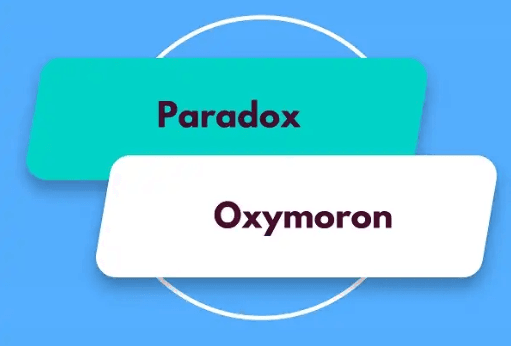
It's time to decode the differences between an oxymoron and a paradox. Both these terms are frequently used in English literature but often confuse non-native speakers.
### Oxymoron
### Paradox
Definition
An oxymoron is a phrase consisting of words that have opposite meanings.
A paradox is a statement that seems contradictory but may actually reveal a truth.
Example
"Deafening silence" - Here, 'deafening' typically refers to a loud sound, while 'silence' implies no sound. Yet, the phrase effectively communicates an intense quietness.
"Less is more" - While it appears contradictory, it conveys the deeper truth that simplicity can deliver greater value.
Using Oxymorons in Daily Life
-----------------------------
Here are two practical scenarios with dialogues to help you use oxymorons:
**1\. Ordering Food:**
While ordering at your favourite restaurant, you might say, "Can I have a jumbo shrimp?", where 'jumbo' and 'shrimp' are opposites.
**2\. Morning Chat:**
Commenting on the weather, "The morning sun is pretty ugly today", where 'pretty' and 'ugly' contradict each other.
**3\. At Work:**
During a team meeting, you might say, "It's an open secret that we're launching a new product", where 'open' and 'secret' are oxymoronic.
Using Paradoxes Effectively
---------------------------
To use paradoxes effectively in everyday conversations, consider these scenarios:
**1\. Coffee Break Conversation:**
You could tell your colleague, "The more you learn English, the more you realise there's much more to know", an intriguing paradox that emphasises continuous learning.
**2\. Discussing Books:**
While suggesting a book to a friend, you could say, "The protagonist is cruelly kind", a statement that seems contradictory but deeper thought reveals profound truth.
**3\. Expressing Personal Philosophy:**
In a heart-to-heart conversation with someone close, you might utter something paradoxical like, "I'm nobody; isn't it liberating?", reflecting the paradox of humility and freedom.
Common Mistakes and How to Avoid Them
-------------------------------------
Indian English learners often grapple with the nuances of oxymorons and paradoxes. One typical mistake is the misinterpretation of an oxymoron as a paradox or vice versa.
For instance, confusing the oxymoron "deafening silence" with paradoxical statements like "I am nobody" can complicate your understanding and application of these literary devices.
Another frequent error lies in incorrect usage within sentences. An oxymoron such as "bitter-sweet" might be wrongly used as "The ice-cream was bittersweet", when it should be "The farewell was bittersweet", reflecting the mixed feelings involved in farewells.
Avoiding these common mistakes involves understanding the fundamental differences between an oxymoron and a paradox.
Do check out [Clapingo's blog list](https://clapingo.com/blog) for more common mistakes and helpful topics.
Practice Makes Perfect – Exercises for You
------------------------------------------
Let's put you to the test with some interactive exercises.
**Exercise 1:** Identify whether the phrases listed below are oxymorons or paradoxes:
1. Bittersweet
2. Deafening silence
3. Wise fool
4. I’m a compulsive liar
**Exercise 2:** Write your own examples of an oxymoron and a paradox.
How Clapingo Can Help
---------------------
Mastering the nuanced usage of terms like oxymorons and paradoxes can be tricky, especially for non-native English speakers. This is where Clapingo steps in to offer a helping hand.
With our personalized coaching sessions, you'll receive one-on-one guidance from native English tutors who understand how to effectively explain these complex linguistic elements. What makes our program special is that we conduct these sessions in your native language (like [Tamil](https://clapingo.com/product/spoken-english-tamil/) or [Telugu](https://clapingo.com/product/spoken-english-telugu/)), creating a comfortable learning environment for you.
Key Takeaways
-------------
Throughout this article, we've journeyed together to explore the intriguing world of 'oxymoron' and 'paradox'.
Remember, an oxymoron combines two contrasting words to create a complex effect. For instance, in "painfully beautiful", the beauty is so intense it's painful. On the other hand, a paradox presents a statement that appears illogical but reveals a deeper truth, like "the more you learn, the less you know", implying that learning often opens up even more questions.
To navigate your English-learning journey effectively, consider Clapingo’s personalized English coaching sessions. Our native English tutors provide individualised attention and understand your unique challenges as a non-native speaker in India.
With Clapingo's supportive learning environment by your side on this language-learning voyage, mastering the artful use of oxymorons and paradoxes will be just another feather in your cap. [Book a demo now](https://clapingo.com/book-a-demo)!
FAQs
----
**1\. What is an oxymoron and how can I identify it?**
An oxymoron is a figure of speech that combines two seemingly contradictory terms, creating a unique effect. It's found in everyday language as well as literature. Examples include 'bittersweet', 'deafening silence', and 'living death'. Spotting an oxymoron involves looking for phrases that pair opposites or contradicting ideas.
**2\. What is a paradox and how does it differ from an oxymoron?**
A paradox is a statement that seems self-contradictory or absurd, but upon deeper reflection, holds some truth. For instance, 'I must be cruel to be kind.' Unlike an oxymoron which is essentially a phrase, a paradox can be an entire sentence or even span across sentences. Also, while oxymorons combine contradicting words for stylistic effect, paradoxes challenge the reader’s mind by presenting complex truths in seemingly absurd statements.
**3\. How can understanding oxymorons and paradoxes help improve my English?**
Understanding figures of speech like oxymorons and paradoxes not only enhances your vocabulary but also sharpens your comprehension skills. They are widely used in spoken and written English, including in business conversations, literature, movies, and everyday dialogue. Recognising them can elevate your communication skills, making you a more effective and articulate English speaker.
---
This blog is powered by Superblog. Visit https://superblog.ai to know more.
---
## Fabric or Fashion: A Comprehensive Look at Cloth Vs Clothes
Author: Unknown
Published: 2024-03-06
Meta Title: Dissecting the Difference Between Cloth and Clothes
Meta Description: Discover how to correctly use and pronounce 'cloth' and 'clothes' in English. Learn with examples, practical tips, and Clapingo's learning solutions.
Tags: cloth vs clothes, cloth vs clothes examples, cloth vs clothes differnce, cloth vs clothes pronunciation, cloth vs clothes mistakes
URL: https://clapingo.com/blog/cloth-vs-clothes
Contents
* [What are 'Cloth' and 'Clothes'?](#what-are-cloth-and-clothes)
* [How to Pronounce 'Cloth' and 'Clothes'?](#how-to-pronounce-cloth-and-clothes)
* [Common Mistakes in Using 'Cloth' and 'Clothes'](#common-mistakes-in-using-cloth-and-clothes)
* [Tips for Correct Usage and Pronunciation](#tips-for-correct-usage-and-pronunciation)
* [Clapingo's Role in Overcoming these Challenges](#clapingos-role-in-overcoming-these-challenges)
* [To Sum Up](#to-sum-up)
* [FAQs](#faqs)
* [You may want to read](#you-may-want-to-read)

A common confusion among non-native English learners in India is the usage of "cloth" and "clothes". Though similar in spelling and pronunciation, these two terms have distinct meanings and usages, creating a stumbling block for many. This blog post aims to dissolve that confusion, offering an accessible guide to differentiate between ‘cloth’ and ‘clothes’.
We'll provide a detailed exploration of each term, their specific usages, commonly made errors, and best practices to avoid these mistakes. Get ready to dive deep into practical scenarios and relatable examples that will illuminate the mystery surrounding these two words.
What are 'Cloth' and 'Clothes'?
-------------------------------
The English language is peppered with nuances, making it a beautiful yet challenging language to master. One such example is the difference between 'cloth' and 'clothes'. Both these words may sound similar, especially in the Indian context, thus leading to confusion as their meanings differ substantially.
Let's start by defining 'cloth'. This term refers to any material made by weaving, knitting, crocheting or bonding that we use to make clothes, curtains, or coverings for furniture. For example, in India, cotton cloth is used to make kurtas and sarees.
Now let's move on to 'clothes'. This term refers to garments that people wear. They can be made of cloth but also other materials like leather or silk. An example could be: "_I bought new clothes for Diwali_", meaning you bought new garments/outfits for the festival.
A common misconception amongst English learners in India is using these terms interchangeably due to their similar **cloth vs clothes pronunciation**. However, remember - 'cloth' is the material, while 'clothes' are what we wear.
How to Pronounce 'Cloth' and 'Clothes'?
---------------------------------------

What's intriguing is that pronunciation plays a key role in distinguishing these two terms. The difference lies in how we pronounce the end – with 'cloth' ending in a hard 'th' sound, while 'clothes' ends with a soft 'z' sound.
Understanding the pronunciation difference between 'cloth' and 'clothes' is important for non-native English speakers.
1. **Cloth:** Pronounced as **/klɒθ/**, the word 'cloth' rhymes with 'moth'. Practice saying it aloud until you are comfortable.
2. **Clothes:** The word should be pronounced **/kləʊðz/** where the ‘th’ sounds like ‘the’ and ends with a ‘z’ sound. It's similar to saying "close" but with a slight ‘th’ sound in the middle.
Common Mistakes in Using 'Cloth' and 'Clothes'
----------------------------------------------
Let's dive into some of the common mistakes made by Indian English speakers when using the terms 'cloth' and 'clothes':
**1\. Incorrect scenario:**
A: "Ajay, do you have any spare cloth in your wardrobe?"
B: "Yes, Rekha. I have a few cloth."
**Correct scenario:**
A: "Ajay, do you have any spare clothes in your wardrobe?"
B: "Yes, Rekha. I have a few clothes."
**2\. Incorrect scenario:**
A: "I bought a beautiful clothes today."
B: "Really? What kind of cloths did you get?"
**Correct scenario:**
A: "I bought some beautiful clothes today."
B: "Really? What kind of clothes did you get?"
Tips for Correct Usage and Pronunciation
----------------------------------------
**1\. Understand the difference:**
Remember, 'cloth' refers to any piece of fabric or material, while 'clothes' refers to garments or items of clothing. Understanding this distinction is key to using these terms correctly. For example, you might buy a piece of cloth to stitch into a shirt, but once stitched, it becomes your clothes.
**2\. Correct pronunciation:**
The pronunciation of both words can be tricky due to the 'th' sound. Spend time practicing these sounds aloud. Repeat after native English speakers or use online pronunciation guides.
**3\. Seek Professional Help:**
Sometimes guidance from professionals can make language learning much easier and faster. For more help with pronunciation, refer to Clapingo's blog posts and short videos with pronunciation and vocabulary tips.
**4\. Practice regularly:**
Practice makes perfect! Regularly speaking out loud using both words will help you become more fluent and confident in their usage and pronunciation.
Clapingo's Role in Overcoming these Challenges
----------------------------------------------
At Clapingo, we recognise that language learning is a journey, and every journey needs a guide. Our personalised coaching offers a map through the maze of English language learning, particularly the nuances like the difference between **'cloth' vs 'clothes' pronunciation** (among other such challenges).
Our native English speakers, your personal coaches, have an ear for phonetics and can provide detailed feedback on pronunciation and usage. They can help you distinguish between similar-sounding words and phrases, ensuring you feel confident while speaking English.
If you're looking to boost your spoken English skills, consider our comprehensive services. [Book a quick demo here](https://clapingo.com/book-a-demo).
To Sum Up
---------
In our exploration of 'cloth' versus 'clothes', we've unraveled that 'cloth' generally refers to a material used for making things, whereas 'clothes' refer to garments that we wear.
Understanding these nuances and their proper pronunciation is crucial, especially within the professional sphere in India. Consider practicing more real-life scenarios in English.
And remember, [Clapingo](https://clapingo.com/) is always here to help you climb this mountain. Their one-on-one coaching sessions provide personalized learning experiences tailored to meet your specific language needs.
FAQs
----
**1\. Can I use 'cloth' and 'clothes' interchangeably?**
No, you cannot use 'cloth' and 'clothes' interchangeably. Using these words incorrectly can lead to confusion in communication. Remember, while you might buy some cloth to make a dress, once that dress is made, it becomes part of your clothes.
**2\. When should I use 'cloth' vs 'clothes'?**
You should use 'cloth' when talking about fabric or material from which products are made. It's commonly used in contexts related to crafting or sewing. Conversely, use 'clothes' when you are referring to garments or attire that you wear.
**3\. Is there any difference in pronunciation between 'cloth' and 'clothes'?**
Yes, there is a slight variation in the **cloth vs clothes pronunciation**. While both words begin with the same sound, 'cloth' ends with the /θ/ sound (as in ‘think’), and 'clothes' ends with the /ðz/ sound (like ‘those’). If you need help with pronunciation, Clapingo offers personalized coaching sessions where native English speakers can guide you.
### **You may want to read**
**[The Day You Became a Better Speaker](https://clapingo.com/blog/fluency-lab)
**
---
This blog is powered by Superblog. Visit https://superblog.ai to know more.
---
## Dueling Descriptors: The Distinction Between Adverbs and Adjectives
Author: Unknown
Published: 2024-03-06
Meta Title: Improve Your English: Distinguishing Adverb vs Adjective
Meta Description: Explore the key differences between adverbs and adjectives through examples and exercises designed specifically for non-native English speakers in India.
Tags: adverb vs adjective, adverb vs adjective definition, adverb vs adjective examples, adverb vs adjective quiz, adverb vs adjective exercise
URL: https://clapingo.com/blog/adverb-vs-adjective
Contents
* [What are Adjectives?](#what-are-adjectives)
* [What are Adverbs?](#what-are-adverbs)
* [Adjective vs Adverb Meaning: What’s the Difference?](#adjective-vs-adverb-meaning-whats-the-difference)
* [Adjective vs Adverb Clause: Which One is It?](#adjective-vs-adverb-clause-which-one-is-it)
* [Adverb vs Adjective Worksheet: Practice Makes Perfect](#adverb-vs-adjective-worksheet-practice-makes-perfect)
* [Common Mistakes in Using Adverbs and Adjectives](#common-mistakes-in-using-adverbs-and-adjectives)
* [To Sum Up](#to-sum-up)
* [FAQs](#faqs)
* [You may want to read](#you-may-want-to-read)

We've all been there — that heart-sinking moment in a meeting when all eyes are on you and the words that tumble out seem to make no sense. Imagine Ravi has an excellent understanding of his field but struggles to communicate his ideas flawlessly in English. During one crucial presentation, he uses the adverb 'beautifully' instead of the adjective 'beautiful', saying "We have a beautifully product to offer", and confusion follows.
Ravi's predicament isn't uncommon. Many non-native English speakers in India grapple with similar challenges, unsure about adverbs and adjectives' differentiation. When you confuse an adjective for an adverb or vice versa, your message loses its clarity, making communication less effective.
This article aims to shed light on this issue, explaining the difference between adverbs and adjectives. We'll explore the meaning of these terms, provide practical exercises for better understanding.
What are Adjectives?
--------------------
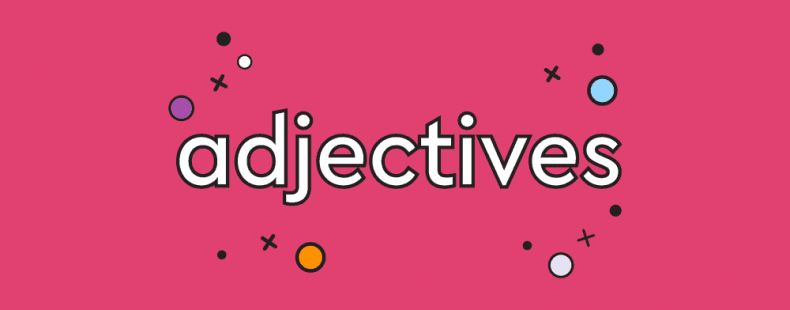
An adjective is a word used to describe or modify a noun or pronoun. Adjectives spice up sentences by providing additional details, making them more engaging and informative.
For example, consider this sentence - "_Ravi bought a shirt_." But what kind of shirt did Ravi buy? Was it expensive, cheap, stylish, or dull? The words 'expensive', 'cheap', 'stylish', 'dull' are all adjectives because they provide more information about the shirt. Without them, our conversation sounds bare and uninteresting.
What are Adverbs?
-----------------

When we navigate the road to English language proficiency, adverbs act as our compass, fine-tuning our expressions with precision. In essence, an adverb is a word that modifies verbs, adjectives, or other adverbs. It provides additional information about how, when, where, or in what manner something happens.
For instance, let's consider the sentence "_Rahul runs fast_". Here 'fast' is an adverb because it describes how Rahul runs.
To illustrate with some **adverb vs adjective examples** from real-life scenarios:
If you're watching an exciting cricket match and exclaim "_Virat Kohli plays brilliantly!_", 'brilliantly' is the adverb modifying the verb 'plays', indicating the quality of Kohli's performance.
**Adjective vs Adverb Meaning**: What’s the Difference?
-------------------------------------------------------
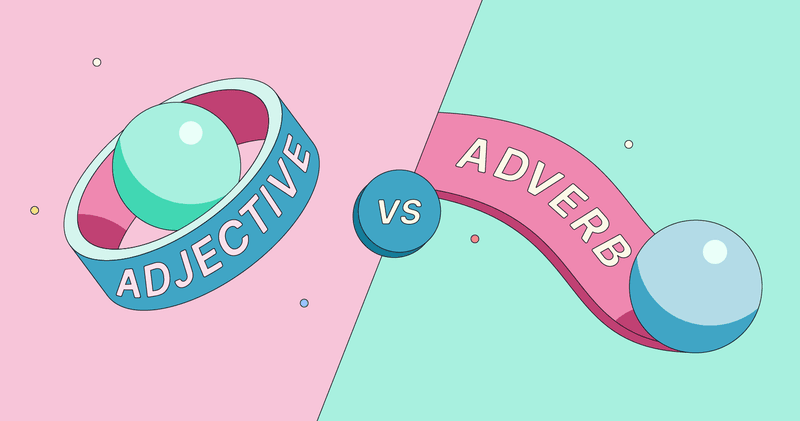
When it comes to understanding adverbs and adjectives, remember that they both have unique roles in English grammar.
* Adjectives are words that describe or modify other words, mainly nouns. For example, in the sentence "She wore a beautiful saree", 'beautiful' is an adjective describing the saree.
* Adverbs, however, modify verbs, adjectives or other adverbs. They usually answer questions like how, when, where, why, or to what extent. Take this sentence: "He runs quickly." Here 'quickly' is an adverb explaining how he runs.
Let's summarize this with a comparison table:
### **Adjective**
### **Adverb**
Modifies nouns
Modifies verbs, adjectives or other adverbs
Answers what kind? which one? how many?
Answers how? when? where? why? to what extent?
Here are some key points to remember:
* An adjective describes a noun: He has a _fast_ car. ('Fast' tells us about the car)
* An adverb defines a verb: He drives _fast_. ('Fast' tells us about his driving style)
**Adjective vs Adverb Clause**: Which One is It?
------------------------------------------------
Understanding the difference between adjective and adverb clauses can be a real game-changer in mastering English grammar. Let's simplify this for you.
* An adjective clause, also known as a relative clause, modifies a noun or pronoun. It starts with relative pronouns like 'who', 'which', 'that', etc. For instance_, "The book, which I bought yesterday_, is engaging." Here, the clause '_which I bought yesterday_' describes the noun 'book'.
* On the other hand, an adverb clause modifies verbs, adjectives or other adverbs. It typically starts with subordinating conjunctions like 'because', 'if', 'when', etc. In the sentence, "_I will call you when I arrive_," the clause '_when I arrive_' is modifying the verb 'call'.
Now, let's look at a simple 3-step process to identify whether a clause is an adjective or an adverb:
1. Identify the clause.
2. Determine what it is modifying - if it's a noun/pronoun, it's likely an adjective clause; if it's a verb/adjective/adverb, it's likely an adverb clause.
3. Check the first word of the clause - if it’s a relative pronoun (who/whom/whose/which/that), it’s probably an adjective clause; if it’s a subordinating conjunction (after/because/before/if/since/until/when/etc.), it’s probably an adverb clause.
**Adverb vs Adjective Worksheet**: Practice Makes Perfect
---------------------------------------------------------
The journey to mastering English isn't always easy, but it's certainly made smoother with practice. Test yourself with some **adverb vs adjective exercises**.
Consider this sentence: "Rahim runs quickly." In this instance, 'quickly' is an adverb modifying the verb 'runs'. Now take another example: "Rahim is a fast runner." Here, 'fast' is an adjective describing Rahim as a runner.
Remember, adverbs typically answer how, when, where, how much, or how often something happens, whereas adjectives describe or modify nouns. Try using this **adverb vs adjective quiz** to test your understanding further.
Read the following sentences and identify if they have an adjective or an adverb:
1. He spoke loudly during his speech. (Adverb or adjective?)
2. She has a beautiful voice. (Adverb or adjective?)
3. The rain fell heavily last night. (Adverb or adjective?)
4. The mangoes are incredibly sweet this year. (Adverb or adjective?)
Common Mistakes in Using Adverbs and Adjectives
-----------------------------------------------
Let's identify some common errors and how you can avoid them:
**1\. Misidentifying the** adverb vs adjective meaning**:**
Remember, adjectives describe nouns (e.g., a _red_ apple), while adverbs modify verbs, adjectives, or other adverbs (e.g., she runs _quickly_).
**2\. Incorrect positioning:**
Adjectives usually come before nouns they modify (a _beautiful_ song). Adverbs generally follow the verb (he sang _beautifully_).
**3\. Overuse of -ly suffix:**
Not all words ending in -ly are adverbs! Some adjectives also end in -ly, like ‘friendly’ or ‘lonely’.
4. **Confusing comparative forms:**
Use ‘more’ for non-comparative adjectives and ‘-er’ for short ones. For example, ‘more beautiful’, but ‘faster’.
**5\. Neglecting degree modifiers with absolute adjectives:**
Absolute adjectives like 'perfect' do not usually have comparative or superlative forms, so avoid saying 'more perfect'.
For more insights on common mistakes learners make while learning English, check out [Clapingo's YouTube channel](https://www.youtube.com/@Clapingo/playlists) which covers additional problematic areas in detail.
To Sum Up
---------
In our journey through the fascinating world of English grammar, we've delved into the crucial roles of adverbs and adjectives.
We've learned that adverbs describe verbs, adjectives, and other adverbs, adding depth to our sentences. Adjectives make nouns more specific and interesting.
Our dive into **adverb vs adjective examples** has shown us how these two grammatical elements are used differently in sentences. The **adverb vs adjective exercises** have given you a chance to test your skills and understand the practical applications of these rules.
This journey might be challenging but remember that every step you take brings you closer to mastery. And [Clapingo](https://clapingo.com/) is right there with you - providing guidance at every turn and ensuring learning English becomes not just an essential skill but also a delightful experience.
FAQs
----
**1\. What is an adverb?**
An adverb is a part of speech used to modify verbs, adjectives, or other adverbs. They describe how, where, when, how much, and with what frequency something happens. For instance, in the sentence "_She sings beautifully_", 'beautifully' is an adverb modifying the verb 'sings' by telling us how she sings.
**2\. What is an adjective?**
An adjective is a word that describes or modifies nouns or pronouns. Adjectives provide additional information about an object's size, shape, age, colour, origin or material. Example: "_The tall building_". Here 'tall' is an adjective describing the noun 'building'.
**3\. How can I distinguish between an adverb and an adjective?**
In English grammar, the primary difference between an adverb and an adjective lies in what they modify. Adjectives modify nouns and pronouns while adverbs primarily modify verbs. Adverbs often end in '-ly', though not exclusively so.
Consider this adverb vs adjective example: "_He runs quickly_." (adverb modifying the verb 'runs') versus "_He has quick reflexes_." (adjective modifying the noun 'reflexes').
### **You may want to read**
[Top 35 Books To Help You With English Learning](https://clapingo.com/blog/english-learning-books)
---
This blog is powered by Superblog. Visit https://superblog.ai to know more.
---
## Autobiography vs Memoir: An Insightful Guide Exploring Similarities and Differences
Author: Unknown
Published: 2024-03-06
Meta Title: Grasping the key Difference: Autobiography Vs Memoir
Meta Description: Learn to distinguish between Autobiography and Memoir in English. Explore these concepts with relatable examples, language insights, and practical advice.
Tags: autobiography vs memoir, autobiography meaning, memoir mening
URL: https://clapingo.com/blog/autobiography-vs-memoir
Contents
* [What is an Autobiography and a Memoir?](#what-is-an-autobiography-and-a-memoir)
* [Autobiography vs Memoir – A Comparative Study](#autobiography-vs-memoir-a-comparative-study)
* [Tips to Understand Autobiography Vs Memoir](#tips-to-understand-autobiography-vs-memoir)
* [Final Thoughts](#final-thoughts)
* [FAQs](#faqs)

Autobiography and memoir: – two genres often intertwined yet distinctly unique in the realm of literature! As an English language learner in India, you might grapple with distinguishing between an autobiography and a memoir due to cultural contexts and the nuances of translation. But worry not!
In this blog post, we promise a detailed journey into the heart of these two literary forms. We'll unveil their differences and similarities and how understanding them can enhance your English language skills. So buckle up for a captivating ride into the world of autobiographies and memoirs, taking one step closer towards mastering the English language.
What is an Autobiography and a Memoir?
--------------------------------------
An autobiography, as defined by the Cambridge Dictionary, is a book about a person's life, written by that person. You might be surprised to learn that it's not just celebrities or famous personalities who pen down their life stories; everyday individuals also write autobiographies to share their personal experiences and journeys.
Here are some key characteristics of autobiographies:
* **First-Person Narrative**: Autobiographies are written in the first person (using 'I') because they are personal accounts of the author's life.
* **Chronological Order**: Most autobiographies follow a chronological order, starting from the author's birth and progressing through their life events.
* **Detailed Life Story**: An autobiography usually covers major aspects of the individual's life like childhood, education, career, family life etc.
* **Truthful Account**: The ultimate goal of an autobiography is to present a truthful account; there's no room for fictional elements.
As you explore more about autobiography and memoir, knowing these features will help you discern between the two.
A memoir, as per the Cambridge Dictionary, is a written record of someone's life, typically focusing on specific experiences or periods rather than the entirety of their existence. Unlike an autobiography that covers an individual's whole life, a memoir hones in on particular memories or experiences that have profoundly shaped the person.
Consider this - if your life was a vast canvas painted with various experiences, an autobiography would be a detailed portrait of the whole canvas. In contrast, a memoir would be a close-up of one or two intriguing spots that caught your eye.
Let's break down some fundamental elements of memoirs:
**1\. Specific Focus:** Memoirs spotlight certain aspects or events and how they affected the author emotionally and psychologically.
**2\. Personal Perspective:** They are deeply personal and introspective, often revealing the author’s emotional journey.
**3\. Narrative Technique:** Memoirs often employ storytelling techniques such as vivid scene-setting, character descriptions, dialogue and chronological or thematic structure.
**4\. Authenticity:** They strive for emotional truth which may sometimes mean bending factual accuracy for greater emotional resonance.
**5\. Reflection:** They involve retrospective contemplation, providing insights into how past events shaped the author’s present self.
In essence, while both autobiography and memoirs deal with an individual's life story, their focus and presentation style make them distinct literary forms.
Autobiography vs Memoir – A Comparative Study
---------------------------------------------

To understand the subtle difference between autobiography and memoir, let's turn to some famous examples from popular culture.
An autobiography like "The Story of My Experiments with Truth" by Mahatma Gandhi chronicles his life's journey, practising non-violence and truth, providing a comprehensive account of his life. Similarly, "Wings of Fire" by A. P. J. Abdul Kalam takes readers through his childhood to his career as India’s missile man and president.
On the other hand, a memoir such as "This Life At Play: Memoirs" by Girish Karnad focuses on specific experiences or aspects of the author's life, like his journey through theatre and films. "The Test of My Life: From Cricket to Cancer and Back" by Yuvraj Singh is another example, capturing his battle against cancer rather than encapsulating his entire life.
Here’s a handy table with more examples for reference:
### Autobiographies
### Memoirs
"Playing It My Way" by Sachin Tendulkar
"Home in the World" by Amartya Sen
"I Know Why the Caged Bird Sings" by Maya Angelou
"And Then One Day: A Memoir" by Naseeruddin Shah
"Dreams from My Father: A Story of Race and Inheritance" by Barack Obama
"Made in India: A Memoir" by Milind Soman & Roopa Pai
Reading these books can be an enlightening journey, aiding you in your literary learning. It can also significantly elevate your English proficiency by introducing you to diverse sentence structures and extensive vocabulary. You can find more novel recommendations for English proficiency here: [Literary Learning: Novels to Elevate Your English Proficiency](https://clapingo.com/blog/top-novels-english-speaking).
Tips to Understand Autobiography Vs Memoir
------------------------------------------
Distinguishing between an autobiography and a memoir can be tricky. Here are three simple tips to help you:
* **Fact vs Feeling:** Autobiographies emphasize factual events, whereas memoirs delve into emotions and perceptions around those events.
* **Storytelling Style:** Autobiographies are written like historical accounts with a chronological order of events; memoirs are more personal and often contain reflections and emotions related to the experiences.
* **Author's Perspective:** In an autobiography, the author maintains a more or less objective perspective about their life. But in a memoir, they share personal insights and feelings.
For insights on everyday English usage in various situations, check out Clapingo's YouTube video:
Final Thoughts
--------------
Understanding the distinction between an autobiography and a memoir brings richness to your English language journey. An autobiography is a comprehensive account of an author's life, narrating significant incidents from birth till the present time. On the other hand, a memoir focuses on specific aspects or periods in an author's life, presenting personal experiences and learnings.
Being aware of these subtleties not only enriches your reading experience but also enhances your understanding of English literature. This newfound knowledge will undoubtedly add depth to your conversations and discussions, aiding your professional growth.
In this language-learning expedition, platforms like [Clapingo](https://clapingo.com/) prove to be your trusted companion. With its personalised coaching sessions by native speakers and adaptable courses, Clapingo empowers learners like you to confidently navigate through the world of English.
Your journey with English doesn't end here; continue exploring with Clapingo to unlock more facets of this dynamic language. Every step you take strengthens your command of English, propelling you towards fluency, one word at a time.
FAQs
----
**1\. Are memoirs written in the first person?**
Yes, memoirs are typically written in the first person since they recount personal experiences from the author’s perspective.
**2\. Can a memoir be fiction?**
No, a memoir cannot be fiction as it is based on factual events from the author’s life.
**3\. What is the difference between autobiography and memoir?**
While an autobiography narrates the entire lifespan of the author in chronological order, a memoir focuses on specific moments or phases that hold significant emotional value for the author.
---
This blog is powered by Superblog. Visit https://superblog.ai to know more.
---
## Exploring the Fine Line Between 'Few' and 'A Few'
Author: Unknown
Published: 2024-03-06
Meta Title: Exploring the Nuances of 'Few' Vs 'A Few': A Complete Guide
Meta Description: Gain a clear understanding of the key difference between 'few' and 'a few' and master their usage in spoken English with our comprehensive guide.
Tags: few vs a few meaning, few vs a few examples, few vs a few definition, few vs a few differnce, few vs a few usage
URL: https://clapingo.com/blog/few-vs-few
Contents
* [Defining 'Few' & 'A Few': Breaking Down Terminology](#defining-few-and-a-few-breaking-down-terminology)
* [Unearthing The Differences: 'Few' Vs 'A Few'](#unearthing-the-differences-few-vs-a-few)
* [Mastering Usage: When To Use ‘Few’ & ‘A Few’](#mastering-usage-when-to-use-few-and-a-few)
* [Common Mistakes And How To Avoid Them](#common-mistakes-and-how-to-avoid-them)
* [Practical Exercises: Putting Your Knowledge To Test](#practical-exercises-putting-your-knowledge-to-test)
* [Beyond The Blog: Improving English with Clapingo](#beyond-the-blog-improving-english-with-clapingo)
* [Final Thoughts: The Journey Ahead](#final-thoughts-the-journey-ahead)
* [FAQs](#faqs)

Navigating the English language can be a maze of subtle nuances and complex rules, especially when it comes to seemingly similar phrases like "few" and "a few". These terms often trip up non-native speakers, leading to confusion during conversations. Does saying "few people" convey the same meaning as saying "a few people"?
Herein lies the key – context. The context in which these phrases are used can change their meaning drastically. Not understanding the distinct difference between 'few' and 'a few' can sometimes lead to misunderstandings or misinterpretations.
This blog post aims to throw light on the nuanced difference between these phrases, helping you understand the **few vs a few meanings** effectively. Let's start.
Defining 'Few' & 'A Few': Breaking Down Terminology
---------------------------------------------------
'Few' refers to a small number of something, but it carries a negative connotation, implying not enough or less than expected. On the other hand, 'a few' also means a small number but with a positive or neutral connotation, suggesting that the quantity is satisfactory or more than expected.
Here are some key grammar rules to remember when using these phrases:
* 'Few' and 'a few' are used before plural countable nouns.
* We use 'few' when the quantity is insignificant or not sufficient.
* 'A few' is used when the quantity is enough or more than necessary.
Unearthing The Differences: 'Few' Vs 'A Few'
--------------------------------------------
Diving into the **few vs a few differences**, both phrases seem deceptively similar but carry distinct implications. 'Few' implies scarcity or near absence while 'a few' means a small quantity, but certainly more than none.
Here’s a comparison table for a clear illustration:
### **Few**
### **A Few**
Few people completed the survey (implies hardly any)
A few people completed the survey (implies some did)
I have few suggestions (suggesting almost none)
I have a few suggestions (I have some ideas)
Notice how the context changes the meaning subtly? So next time you use these phrases, weigh in on their connotations to ensure appropriate communication.
Mastering Usage: When To Use ‘Few’ & ‘A Few’
--------------------------------------------
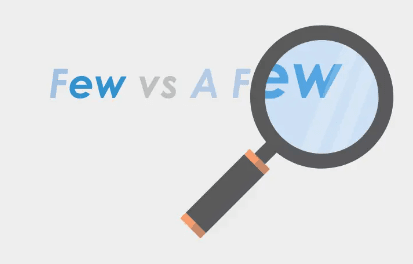
1\. **When you want to express scarcity or lack:** Use 'few' when you want to emphasise the absence of something or a small quantity.
2\. **When you want to suggest a positive quantity:** On the other hand, 'a few' is used when you want to highlight that while the quantity is small, it's still significant or satisfactory.
To illustrate this difference further, let's look at two dialogue snippets as **few vs a few examples**:
* Rohan: "How did your meeting go?"
* Megha: "Not great. Few people showed up."
Here, Megha uses 'few' because the number of people was disappointingly small.
In contrast,
* Rohan: "How was your party last night?"
* Megha: "It was fun! A few close friends came over."
In this situation, Megha uses 'a few' because even though the number of guests was small, it was still enjoyable for her.
Common Mistakes And How To Avoid Them
-------------------------------------
**Mistake 1:** Using 'few' when you really mean 'a few'. For example, saying "I have few friends," implies loneliness, whereas saying "I have a few friends" conveys contentment with your circle of friends.
**Mistake 2:** Using them interchangeably without considering their contrasting meanings. For instance, saying "There are a few problems with this project" signifies manageable issues, but saying "There are few problems with this project" suggests minimal issues.
For further blogs on common English errors, check out this list of [Clapingo blogs.](https://clapingo.com/blog)[](https://www.youtube.com/watch?v=abcdef\).)
Practical Exercises: Putting Your Knowledge To Test
---------------------------------------------------
1\. Choose the correct option: "He has \_\_\_ friends in his neighbourhood." (a) few (b) a few
2\. Fill in the blanks: "She got \_\_\_ mistakes in her test, so she wasn't upset."
3\. Fill in the blanks: He has visited \_\_\_\_\_\_\_\_\_\_ countries in Europe.
Now let's see how you did!
**Exercise**
**Solution**
**Explanation**
1.
(a) few
'Few' implies he does not have many friends, whereas 'a few' would mean he has some friends. Contextually, 'few' fits here better.
2.
a few
The use of 'a few' suggests that making some mistakes didn't bother her too much, implying these were acceptable.
3.
a few
'A few’ conveys he visited a small number of countries, not most or all of them.
Beyond The Blog: Improving English with Clapingo
------------------------------------------------
Language barriers can cause many a misunderstanding, especially when it comes to subtle differences in English usage, like the distinction between 'few' and 'a few'. This is where [Clapingo](https://clapingo.com/) steps in to help.
Clapingo offers personalised coaching sessions that are designed to combat these language barriers head-on. Conducted by native English speakers, these sessions are tailored to your unique learning pace and needs.
The cherry on top? They coach you in your native language (like [Tamil](https://clapingo.com/product/spoken-english-tamil/) or [Telugu](https://clapingo.com/product/spoken-english-telugu/))! This ensures that no nuance is lost in translation and you grasp all concepts fully. With their focus on enhancing your fluency, pronunciation, vocabulary, and sentence structure, you are guaranteed to see significant improvement in your spoken English skills.
Final Thoughts: The Journey Ahead
---------------------------------
To summarise, 'few' and 'a few' may seem deceptively similar, but they hold subtly different meanings in English. The understanding of **few vs a few meaning** can make a huge difference in your communication. While 'few' tends to denote scarcity or lack, 'a few' suggests the presence of a small number. By now, you should have a clear understanding of the **few vs a few differences** and how to use them accurately.
The key to mastering these subtle nuances is practice. Remember the examples we discussed and try to incorporate them into your daily conversations. Don't forget to review the **few vs a few usage** rules, test yourself with exercises, and keep learning.
Your English language journey is full of discovery and growth, so book your [Clapingo demo](https://clapingo.com/book-a-demo) today!
FAQs
----
**1\. I often get confused between 'few' and 'a few'. What's the difference?**
The difference lies in the context of usage. The term 'few' implies scarcity or almost none, while 'a few' refers to a small amount, but still something.
**2\. How can I remember when to use 'few' and when to use 'a few'?**
A rule of thumb is to use 'few' when you want to express negativity about the scarcity of something. Use 'a few' when you want to indicate positivity about having at least something, even if it's not much.
**3\. Can understanding the difference between 'few' and 'a few' help improve my spoken English skills?**
Yes! Mastering such nuances in English can significantly enhance your fluency and confidence. This is one of many linguistic details that we focus on in our Clapingo sessions.
---
This blog is powered by Superblog. Visit https://superblog.ai to know more.
---
## Choosing the Right Word: Beside vs Besides Demystified
Author: Unknown
Published: 2024-03-06
Meta Title: Decoding the Difference for Indians Learning English
Meta Description: Unlock the Mystery of 'Beside' vs 'Besides' in English: Explore Examples, Rules, and Tips Tailored for Indian Learners to Strengthen Their Language Skills.
Tags: beside vs besides meaning, beside vs besides difference, beside vs besides examples, beside vs besides worksheets
URL: https://clapingo.com/blog/beside-vs-besides-meaning
Contents
* [What are Prepositions?](#what-are-prepositions)
* [Understanding 'Beside'](#understanding-beside)
* [Grasping 'Besides'](#grasping-besides)
* [Beside Vs Besides – Spotting the Key Differences](#beside-vs-besides-spotting-the-key-differences)
* [Common Errors Indians Make with ‘Beside’ and ‘Besides’](#common-errors-indians-make-with-beside-and-besides)
* [Enhancing Your Fluency – Practice Exercises](#enhancing-your-fluency-practice-exercises)
* [Activity 1: Fill-in-the-blanks exercises using 'beside' and 'besides.'](#activity-1-fill-in-the-blanks-exercises-using-beside-and-besides)
* [Activity 2: Sentence formation tasks using both words.](#activity-2-sentence-formation-tasks-using-both-words)
* [How Clapingo Can Help You Overcome These Challenges](#how-clapingo-can-help-you-overcome-these-challenges)
* [Final Thoughts](#final-thoughts)
* [Frequently Asked Questions (FAQs)](#frequently-asked-questions-faqs)

Picture this. You're in a business meeting with foreign clients, and you say, "I have other responsibilities besides this project," but the confusion on their faces tells you that something went wrong. You'd meant to say 'beside' instead of 'besides'. It's a seemingly insignificant error, yet it has left an awkward air hanging in the room.
Terms like 'beside' and 'besides', which sound almost identical, can create tricky situations when misused.
By the end of this blog post, you'll gain a solid understanding of how to distinguish between 'beside' and 'besides', along with the correct usage of each term. We'll provide plenty of **beside vs besides examples**, unpacking their meanings and contexts to help you navigate these confusing waters. We'll also offer resources like **beside vs besides worksheets** so that you can practice until these terms become second nature to you.
Let's dive in!
What are Prepositions?
----------------------
Prepositions are your best friends when it comes to expressing relations in English, be it direction, time, or manner.
Prepositions are incredibly significant in English conversations, often serving as links between words and shaping the overall meaning of a sentence. Here are the 10 most common prepositions in English:
1. of
2. in
3. to
4. for
5. with
6. on
7. at
8. by
9. about
10. as
Imagine telling someone, "_The book is on the table_," versus saying, "_The book is under the table._" The prepositions 'on' and 'under' entirely change the location of the book and subsequently, the overall meaning of your statement.
Mastering preposition usage can dramatically improve your communication skills, enabling you to converse more fluently and confidently. Check out this insightful [Clapingo post on the prepositions to and for](https://clapingo.com/blog/to-vs-for).
Understanding 'Beside'
----------------------
The term 'Beside' is a preposition in English which typically conveys the meaning of 'next to' or 'at the side of'. It is used when you want to indicate that something or someone is at the side of another object or individual.
Now, let's look at some grammar rules for using 'Beside':
1. 'Beside' cannot be used with words expressing motion. It can only reference stationary objects.
2. Keep in mind it never conveys meanings like ‘apart from’ or ‘except for’.
Let's note these correct and incorrect usages in a comparison table:
**Correct Usage**
**Incorrect Usage**
_She lives beside a small lake._
_I'm going beside Mumbai next week._
_The dog was sitting quietly beside the chair._
_There was no one at the party beside me._
As you see, knowing when to use 'beside' correctly can make your English communication more accurate and effective.
Grasping 'Besides'
------------------
Unlike 'beside', 'besides' is a bit more versatile in its uses and meanings. It primarily means 'in addition to' or 'apart from', and is generally meant to expand upon something already stated.
For instance, if you're talking about your favorite subjects at school, you might say, "_Besides Mathematics, I also enjoy History._" Here, 'besides' introduces an additional subject that you like.
Here are some basic grammar rules for using ‘Besides’:
* Used as a preposition when referring to something additional: "_Besides cricket, he also likes football._"
* Used as an adverb when implying furthermore or moreover: "_I did not want to go to the party. Besides, I was not even invited._"
Here's a comparison table contrasting right vs wrong applications of 'besides':
**Correct Usage**
**Incorrect Usage**
_Besides being a singer, she is also an excellent dancer._
_She is besides a singer an excellent dancer._
_I can't go out tonight; besides, I have too much homework._
_I can't go out tonight besides I have too much homework._
Beside Vs Besides – Spotting the Key Differences
------------------------------------------------

Let's understand the key **beside vs besides differences**:
1. **Role in Speech:** 'Beside' is a preposition, meaning next to or at the side of. 'Besides' can be a preposition, meaning apart from, or an adverb, meaning also or additionally.
2. **Usage:** 'Beside' refers to physical proximity, while 'Besides' indicates addition or exception.
3. **Sentence Position:** 'Beside' commonly appears in the middle of a sentence. Conversely, 'Besides' can appear anywhere.
Now, let's illustrate this with a dialogue snippet:
**A:** "Is anyone sitting beside you?"
**B:** "No, you can sit here. Besides, I could use some company."
For more on similar confusing English terms, explore our [blog list](https://clapingo.com/blog) that explores common language challenges faced by Indian learners.
Common Errors Indians Make with ‘Beside’ and ‘Besides’
------------------------------------------------------
Here are three common mistakes people make when it comes to the **usage of beside vs besides:**
1. **Using 'besides' when 'beside' is appropriate:** For example, saying "_The pen is besides the notebook_" instead of "_The pen is beside the notebook_".
2. **Assuming both words can be used interchangeably:** While both these words seem similar, their usage differs significantly in sentences.
These errors usually stem from confusion about the exact meanings and usage of these terms. Here are a couple of simple language tips to avoid these errors:
* Whenever you mean to convey proximity or location, use 'beside'.
* When you need to express ‘in addition to’ or ‘apart from’, use 'besides'.
Enhancing Your Fluency – Practice Exercises
-------------------------------------------
Let's dive into some exercises that can give you hands-on experience with 'beside' and 'besides.'
### **Activity 1: Fill-in-the-blanks exercises using 'beside' and 'besides.'**
Consider these sentences and fill each blank with either 'beside' or 'besides', based on what you've learned about their usage.
1. I sat \_\_\_\_ my best friend at the movie.
2. \_\_\_\_ going to football matches, he also enjoys playing chess.
### **Activity 2: Sentence formation tasks using both words.**
Formulate your own sentences employing 'Beside' and 'Besides'. Here are two sample answers for inspiration:
1. Beside: The pencil is beside the notebook on my desk.
2. Besides: Besides being an accomplished writer, she is also a skilled painter.
3. \_\_\_\_\_\_\_\_\_\_\_\_\_\_\_\_\_\_\_\_\_\_\_\_\_\_\_\_\_\_\_\_\_\_\_\_\_\_\_\_\_\_\_\_\_\_\_\_\_\_\_\_\_\_\_\_\_\_\_\_\_\_\_\_\_\_
4. \_\_\_\_\_\_\_\_\_\_\_\_\_\_\_\_\_\_\_\_\_\_\_\_\_\_\_\_\_\_\_\_\_\_\_\_\_\_\_\_\_\_\_\_\_\_\_\_\_\_\_\_\_\_\_\_\_\_\_\_\_\_\_\_\_\_
5. \_\_\_\_\_\_\_\_\_\_\_\_\_\_\_\_\_\_\_\_\_\_\_\_\_\_\_\_\_\_\_\_\_\_\_\_\_\_\_\_\_\_\_\_\_\_\_\_\_\_\_\_\_\_\_\_\_\_\_\_\_\_\_\_\_\_
Consistent engagement with such exercises will help reinforce your understanding of "beside" vs "besides," their meanings, usage, and differences effectively.
How Clapingo Can Help You Overcome These Challenges
---------------------------------------------------
At [Clapingo](https://clapingo.com/), we strive to simplify your English learning journey through one-on-one classes with native English speakers. Our teaching approach is tailored to your unique learning pace and style, ensuring you grasp the subtle distinctions between tricky words like 'beside' and 'besides' or '[It's' vs 'Its](https://clapingo.com/blog/its-vs-it-s)'. Our tutors are adept at breaking down complex concepts into digestible parts.
So whether it's grasping **beside vs besides meaning**, or gaining fluency in spoken English overall, Clapingo is here to guide you every step of the way towards your language mastery journey.
Final Thoughts
--------------
The main takeaways from our discourse on 'beside vs besides' are:
* 'Beside' means next to or at the side of something.
* 'Besides' can mean either in addition to something or apart from something.
Practising these meanings and using them in context will help you understand the **usage of beside vs besides**.
To facilitate your learning journey further, consider joining Clapingo's personalized coaching sessions. [Book a quick demo now](https://clapingo.com/book-instant-demo?).
Frequently Asked Questions (FAQs)
---------------------------------
**1\. Can I use 'beside' and 'besides' interchangeably?**
No, 'beside' and 'besides' have different meanings and are used in different contexts. 'Beside' refers to physical proximity, while 'besides' indicates an addition or exception. Using these words interchangeably can change the meaning of your sentence.
**2\. What is the difference between beside and besides?**
The main difference lies in their usage. 'Beside', a preposition, typically means next to or adjacent to. For instance, "The pen is beside the notebook." On the other hand, 'besides' can be a preposition or an adverb implying moreover or apart from. Example: "Besides tea, I also like coffee".
**3\. How do I remember when to use ‘beside’ and ‘besides’?**
Remember that ‘beside’ usually refers to a physical location while ‘besides’ usually introduces additional information or exceptions. Associating each word with its function should help you use them correctly.
---
This blog is powered by Superblog. Visit https://superblog.ai to know more.
---
## Complex vs Compound Sentences : The Ultimate Guide
Author: Unknown
Published: 2024-03-06
Meta Title: Mastering Complex vs Compound: Difference and Examples
Meta Description: Enhance your English proficiency with clear examples of complex vs compound sentences, designed to empower Indian learners in their language journey.
Tags: Complex vs Compound Sentences, Complex sentences, compound sentences
URL: https://clapingo.com/blog/complex-vs-compound-sentence
Contents
* [Understanding Complex vs Compound Sentences](#understanding-complex-vs-compound-sentences)
* [Complex Vs Compound Sentences: A Detailed Comparison Table](#complex-vs-compound-sentences-a-detailed-comparison-table)
* [Practical Tips & Exercises to Master Complex vs Compound Sentences](#practical-tips-and-exercises-to-master-complex-vs-compound-sentences)
* [Boosting Confidence by Understanding Complex vs Compound Sentences](#boosting-confidence-by-understanding-complex-vs-compound-sentences)
* [Summing Up](#summing-up)
* [FAQs](#faqs)

Imagine you're seated across a panel of interviewers. You know what you want to say, but somehow, the words just don't flow as well as they do in your native language. You're struggling to construct complex and compound sentences in English - a challenge many non-native speakers in India face regularly.
Confusion due to sentence structure can lead to communication problems. This makes it essential for learners to grasp the difference between complex vs compound sentences. These sentence types form the foundation of fluent English. They help you express your thoughts and ideas comprehensively.
In this article, we'll look at complex vs compound sentences with practical examples. We'll also provide actionable tips and resources that will help you master these grammar essentials, thereby enhancing your fluency and confidence in spoken English. Whether it's acing that interview or presenting your ideas confidently at work - mastering these structures can make a world of difference. So let's dive right in!
Understanding Complex vs Compound Sentences
-------------------------------------------
Let's begin by defining complex sentences. A complex sentence contains one independent clause (a complete thought) and one or more dependent clauses (phrases that can't stand alone as a sentence). For instance, look at the sentence “She went to the market after she finished her work". Here, ‘She went to the market’ is an independent clause, while 'after she finished her work' is a dependent clause.
In complex sentences, conjunctions like 'after', 'although', 'as', 'because', 'before', 'if', 'since', 'unless' and 'while' are often used for joining clauses. For example, in the sentence "I will visit Taj Mahal if I go to Agra", 'if' is the conjunction linking two clauses.
On the other hand, a compound sentence is distinct as it contains at least two independent clauses joined by coordinating conjunctions like ‘and’, ‘but’, ‘or’, ‘so’ and ‘yet’. For instance, "Ravi likes cricket, but his brother prefers football." Both "Ravi likes cricket" and "his brother prefers football" could be complete sentences but are connected by 'but'.
Understanding the differences between these sentence types will help you express your thoughts more clearly. Visit Sentences - Grammar - Cambridge Dictionary for a more detailed understanding.
Complex Vs Compound Sentences: A Detailed Comparison Table
----------------------------------------------------------

Let's look at a comparison of these two types of sentences.
### Complex Sentence
### Compound Sentence
**Structure**
Consists of an independent clause and at least one dependent clause.
Has two or more independent clauses typically combined with a coordinating conjunction.
**Usage**
Used to express detailed thoughts, cause-effect relationships, conditionals, etc.
Used to join related thoughts or actions of equal importance.
**Punctuation**
Generally, a comma is used when the dependent clause comes first in the sentence.
A comma may or may not be used before the coordinating conjunction.
**Examples**
"Though she was late, she still made it to the meeting."
"Since apples are out of stock, I’ll make an orange pie instead."
Before you leave, please submit your progress report."
"I love idli, but my brother prefers dosa."
"Kohli hit a century and India won the match."
"We have completed the project report, so it’s ready for review."
Practical Tips & Exercises to Master Complex vs Compound Sentences
------------------------------------------------------------------
Here are some tips to master complex and compound sentences:
**1\. Read extensively:** Diversify your reading material. Newspapers, books, and blogs offer rich examples of complex vs compound sentences.
**2\. Practice writing:** Write a journal or start blogging. It helps you experiment with sentence structures.
**3\. Watch movies**: Hollywood movies have a lot of sentence variations. Check out this blog to know more: [Does watching Hollywood movies improve English speaking skills?](https://clapingo.com/blog/english-speaking-movies)
**4\. Self-review:** Review your writings or use language apps to check sentence structure.
Here are some exercises you can try doing:
* Write five compound sentences about your favorite movie.
* Read a newspaper article and identify ten complex sentences.
* Transform simple sentences into compound ones.
* Construct three complex sentences using conjunctions like 'although', 'since', and 'unless'.
With practice, you'll be able to use complex and compound sentences in English effortlessly! You can also check out this interesting conversation practice from Clapingo to see how different types of sentences can be used in daily conversations:
Boosting Confidence by Understanding Complex vs Compound Sentences
------------------------------------------------------------------
Familiarity with complex and compound sentences can significantly boost your confidence, both personally and professionally. Imagine being able to hold an engaging conversation at a conference or explaining a complicated process easily during a presentation. All this becomes possible when you master the art of using complex and compound sentences accurately.
Clapingo's personalized coaching sessions are designed to help non-native English speakers understand the usage of these sentence structures. With Clapingo, you'll learn from expert tutors who conduct classes in your native language. They will guide you through the complexities of these sentence types until they come to you naturally. You can explore more about improving your overall fluency through this detailed post on [How to Improve English Speaking Fluency: 27 Simple Tips](https://clapingo.com/blog/how-improve-english-speaking-fluency)[.](https://www.clapingo.com/blog/27-simple-tips-to-improve-english-speaking-fluency\).)
Summing Up
----------
In this journey, we have looked at the mystery of complex vs compound sentences, illustrating various complex vs compound sentence examples. Remember, a compound sentence combines two independent clauses, while a complex sentence joins an independent clause with one or more dependent clauses.
Moreover, continuous practice is crucial in mastering these concepts and boosting your confidence in speaking English fluently. Every correct sentence you form and every conversation you lead sets you one step closer to your goal. [Clapingo](https://clapingo.com) is here to help you navigate through these challenges with ease.
Never consider any hurdle as a setback but see it as a stepping stone to reach greater heights in your language journey. Keep learning!
FAQs
----
**1\. What's an easy way to distinguish between complex and compound sentences?**
Look out for the clauses. Complex sentences contain a dependent clause while compound sentences contain two independent clauses. If the clauses make sense in isolation, the sentence is compound.
**2\. Can I use both complex and compound structures in a single sentence?**
Yes! In fact, mixing sentence structures makes your spoken English more engaging and natural. For instance: "I love dosas because they are delicious, and I often eat them for breakfast."
**3\. How can mastering complex vs compound sentences help me?**
Mastering these sentence types improves your English fluency and allows you to express ideas more clearly and confidently. It also helps you understand spoken English better in professional or academic contexts.
---
This blog is powered by Superblog. Visit https://superblog.ai to know more.
---
## Resume Vs Curriculum Vitae: When To Use Which
Author: Unknown
Published: 2024-03-06
Meta Title: Resume vs Curriculum Vitae: Understanding the Difference
Meta Description: Get clarity on the difference and meaning between a resume and a curriculum vitae with this guide tailored specifically for aspiring professionals in India.
Tags: resume vs curriculum vitae, Resume, Curriculum vitae
URL: https://clapingo.com/blog/resume-vs-curriculum-vitae
Contents
* [What are Resume and Curriculum Vitae?](#what-are-resume-and-curriculum-vitae)
* [Major Differences Between Resume and Curriculum Vitae](#major-differences-between-resume-and-curriculum-vitae)
* [Enhancing Your Resume and CV](#enhancing-your-resume-and-cv)
* [Common Mistakes to Avoid](#common-mistakes-to-avoid)
* [Key Takeaways](#key-takeaways)
* [FAQs:](#faqs)

Imagine you're preparing for a job application. You've polished your English skills, ready to impress at the interview, but there's a problem - you're not sure whether to submit a resume or a curriculum vitae (CV). Sounds relatable? Fear not, because we're here to clear up the confusion.
The terms 'resume' and 'curriculum vitae' can seem interchangeable, but they're distinct in purpose and structure. A resume is typically one page long. It is a short summary of your skills and experiences relevant to the job you're applying for. On the other hand, a curriculum vitae is a detailed overview of your academic information, professional experiences and accomplishments, often covering several pages.
In this guide, we'll discuss these two essential tools of career growth in great detail. Join us as we unpack their differences and similarities, and understand when to use which.
What are Resume and Curriculum Vitae?
-------------------------------------
A resume, according to the Cambridge Dictionary, is a short document showcasing your skills, experience, and accomplishments relevant to the job you're applying for. It's your professional highlight reel, designed to grab an employer's attention quickly.
Typically, a resume includes:
* Personal details
* Career objectives
* Educational qualifications
* Work experience
* Skills relevant to the job
* References
For instance, if you are an Indian IT professional applying for a software developer position, your resume could focus on your coding skills, projects you've worked on, and the programming languages you're proficient in.
On the other hand, a Curriculum Vitae (CV) is much more comprehensive. Unlike a resume, a CV isn't tailored to specific jobs. Instead, it provides a detailed account of your complete career history. According to the Cambridge Dictionary, a CV is primarily used when applying for jobs in academia while a resume is used for other jobs.
A standard CV usually includes the following:
* Personal details
* Clear career summary or profile
* Education history and achievements
* Work experience
* Skills
* Hobbies and interests
* References
For instance, an Indian academic may use a CV to detail their research work, areas of expertise, publications, and conferences attended - information that wouldn't typically fit into a resume.
Whether using a resume or curriculum vitae, remember that both should be neat, and easy to read with clear headings and bullets. While both serve similar functions, they are used in different contexts based on job requirements and career stages.
Major Differences Between Resume and Curriculum Vitae
-----------------------------------------------------
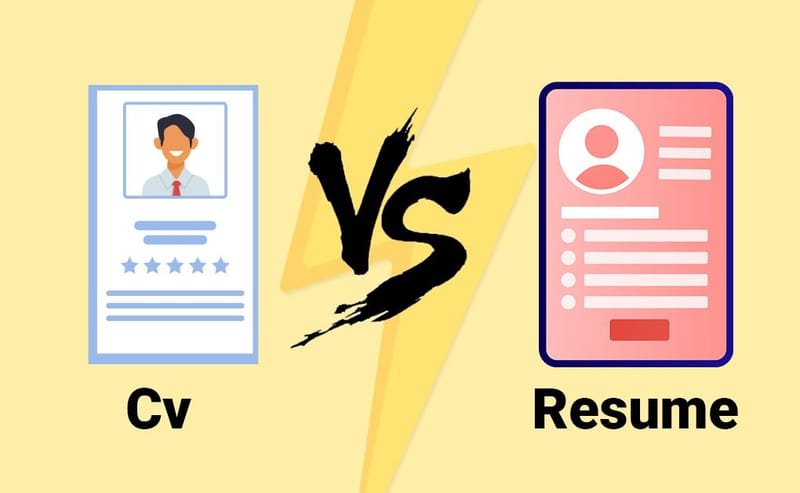
Understanding the differences between a resume and a CV is crucial, especially since they serve different purposes. Here's a table comparing the two:
### **Resume**
### **Curriculum Vitae (CV)**
**Length**
Short; typically 1-2 pages
Detailed; often more than 2 pages
**Purpose**
Summarises skills and experiences relevant to a specific job application
An in-depth document covering your entire career
**Layout**
Customized based on job
Consistent layout across applications
Consider this: you're applying for an IT consultant role with a major multinational company. For such specific roles, recruiters prefer resumes that summarise your relevant skills and experience.
On the other hand, if you're pursuing academic or research-based roles where comprehensive detail about your qualifications, publications or projects is essential, using a CV is more suitable.
Remember, knowing which document to use when applying for jobs can set you apart in competitive job markets. So understanding these differences matters greatly!
Enhancing Your Resume and CV
----------------------------
To make a powerful first impression, your resume or curriculum vitae (CV) must be perfect. Here are some tips to enhance these crucial documents:
* **Choosing the Right Document:** Understanding the resume vs curriculum vitae- difference is vital. Resume vs. Curriculum Vitae: What's the Difference? Can provide insightful guidance.
* **Professional Language:** Use formal, professional English language in your resume or CV.
* **Proofreading:** To avoid mistakes, proofread your document multiple times.
* **Prioritise Relevance:** Highlight your most relevant skills and experiences first.
* **Effective Verbs:** Start each bullet point with a strong action verb like 'managed', 'led', or 'improved'.
Mastering English can significantly enhance the quality of your resume or CV, making it more attractive to potential employers. Fluency enables you to express your skills and experiences more effectively, clearly demonstrating your professionalism.
This is where [Clapingo’s](https://clapingo.com/) personalized one-on-one English coaching sessions can help you stand out. At Clapingo, experienced tutors guide you to improve fluency, pronunciation, and vocabulary, ensuring your language skills shine in these critical professional documents. You can also check out this interesting Clapingo article: [Is Practicing Speaking English All it Takes to Advance Your Career?](https://clapingo.com/blog/english-speaking-practice)
Common Mistakes to Avoid
------------------------
When crafting your resume or curriculum vitae (CV), simple errors can lead to significant drawbacks. Here are some common mistakes and how to avoid them:
**1\. Grammatical Errors and Typos:** Every single word counts, so ensure you spell-check and review your grammar.
**2\. Lengthy Documents**: Whether it's a resume or a CV, keep it short. Stick to one or two pages for a resume and three or four for a CV.
**3\. Lack of Specificity:** Be specific about your skills, experiences, and achievements instead of using broad terms.
**4\. Irrelevant Information:** Prepare your document according to the job you're applying for. Remove any irrelevant details.
**5\. Inconsistent Formatting:** Maintain a consistent format throughout – this enhances readability.
Remember, the difference between a resume and a curriculum vitae lies in detail and length, but these mistakes apply to both. For more insights on avoiding errors during interviews, watch Clapingo's YouTube video:
Key Takeaways
-------------
In this blog, we've explored the significant differences between a resume and a curriculum vitae (CV). The resume vs curriculum vitae difference lies mainly in length, detail level, and purpose. A resume is a short document highlighting your skills and experience relevant to the specific job you’re applying for, while a CV is a detailed record of your entire career history.
Understanding these distinctions is crucial for Indian professionals aspiring for global opportunities. It empowers you to present yourself effectively to potential employers worldwide. Additionally, improving your English communication skills will also boost your opportunities.
Remember, for your progress in this journey, [Clapingo](https://clapingo.com/) can always help. Clapingo's mission is to help non-native English speakers in India improve their spoken English skills. Personalised coaching sessions tailored to your needs and conducted in your native language can help you overcome language barriers in professional and personal environments.
So stay positive! You have the potential to master English communication and unlock new professional heights!
FAQs:
-----
**1\. What is the main difference between a resume and a CV?**
The fundamental resume vs curriculum vitae difference lies in length, detail level and purpose. A resume is brief and tailored for each job application while a CV is detailed and covers your complete career history.
**2\. When should I use a CV instead of a resume?**
Generally, use a CV when applying for positions in academia or research while resumes are preferred for most other job applications. However, it's best to follow what the specific job advertisement asks for.
**3\. How can improving my English benefit my professional growth?**
Proficiency in English can significantly enhance your career prospects on an international level. It helps you communicate effectively in professional environments and opens up numerous opportunities globally.
---
This blog is powered by Superblog. Visit https://superblog.ai to know more.
---
## Top 10 Spoken English Classes in Surat: The Ultimate Guide
Author: Unknown
Published: 2024-03-06
Meta Title: Top 10 Remarkable online Spoken English Classes in Surat
Meta Description: Discover our curated list of the top 10 spoken English classes in Surat, including online and offline options. Improve your English with expert tutors.
Tags: top 10 spoken english classes, Spoken English Class Surat, spoken english classes, Best Spoken English Classes
URL: https://clapingo.com/blog/best-spoken-english-classes-surat
Contents
* [Moomal Singh (Clapingo)](#moomal-singh-clapingo)
* [Purvi Binwani (Clapingo)](#purvi-binwani-clapingo)
* [Chintan Katrodiya (Clapingo)](#chintan-katrodiya-clapingo)
* [Perfect Spoken English (Offline)](#perfect-spoken-english-offline)
* [MOEC: English For All (Offline)](#moec-english-for-all-offline)
* [Super English Academy (Offline)](#super-english-academy-offline)
* [Shejal Spoken English Classes (SSEC) (Offline)](#shejal-spoken-english-classes-ssec-offline)
* [TESCA (Offline)](#tesca-offline)
* [London School of English (LSE) (Offline)](#london-school-of-english-lse-offline)
* [Paradise Spoken English (Offline)](#paradise-spoken-english-offline)
* [Final Thoughts](#final-thoughts)
* [You may want to read](#you-may-want-to-read)

Did you know that according to recent statistics, English has beaten Mandarin Chinese to become the most spoken language in the world? This highlights the fact that more and more countries are now adopting English as the accepted medium of communication. Mastering English will now open doors to countless opportunities all over the world. But learning to speak this global language can be quite challenging, especially when you're balancing other professional or personal responsibilities. So, the demand for efficient and effective spoken English classes is high, particularly in a bustling city like Surat.
Enter online learning—a flexible, accessible alternative to traditional offline courses. Online platforms like Clapingo make it easy for individuals to learn from home at their own pace without the inconvenience of commuting or conforming to rigid timetables. With Clapingo’s 1:1 personalised coaching sessions conducted by native speakers, learners have access to real-time feedback and customised learning plans which suit specific needs and skill levels.
This article brings you a carefully curated list of the top 10 **[spoken English classes](https://clapingo.com/)** in Surat, starting with three exceptional online tutors from Clapingo followed by seven notable offline alternatives.
Moomal Singh (Clapingo)
-----------------------
At Clapingo, Moomal Singh stands out as a seasoned English teacher, bringing not only a wealth of experience but also a passion for her subject. Her teaching method is marked by a personalized touch, where she covers the nuances of language learning. Specializing in online sessions, Moomal ensures an engaging environment that enhances learners' fluency, pronunciation, vocabulary, and sentence structure. Her commitment to a holistic learning experience makes her a valuable asset to the Clapingo team.
Check out this informative video from a Clapingo tutor:
Purvi Binwani (Clapingo)
------------------------
Purvi Binwani, another notable professional at Clapingo, boasts over three years of experience in both online and offline education. Her approach is characterized by tailoring sessions to meet the unique needs of individual learners. Recognized for her expertise as an online private tutor of English, Purvi's contributions enhance the overall educational offerings at Clapingo.
Chintan Katrodiya (Clapingo)
----------------------------
Chintan Katrodiya, a distinguished spoken English and IELTS trainer at Clapingo, brings a deep understanding of the English language coupled with an impressive overall 6.5 band score in IELTS. His teaching strategies are finely tuned to engage learners effectively while addressing their individual needs. This makes him a sought-after mentor in the field.
To learn more about Clapingo, check out this YouTube video:
Perfect Spoken English (Offline)
--------------------------------
Located at Hari Nagar Udhna, Perfect Spoken English has been providing high-quality education since 2007. The institution's reputation is attributed to its highly qualified educators and customizable courses, creating a learning environment that caters to the diverse needs of students in the city.
MOEC: English For All (Offline)
-------------------------------
Celebrating over 30 years of service, MOEC: English For All stands as an ISO-certified coaching centre with a commitment to excellence. Its regular upgrades in curriculum and teaching techniques reflect a dedication to the ever-evolving landscape of English language education.
Super English Academy (Offline)
-------------------------------
Established in 1995, Super English Academy has been a pioneer in offering specialized spoken English courses. From Soft Skills Training to Social and Business Communication and Diction Training, the academy adapts to the changing demands of language education, providing a comprehensive platform for skill development.
Shejal Spoken English Classes (SSEC) (Offline)
----------------------------------------------
Shejal Spoken English Classes (SSEC) takes a comprehensive approach, focusing on speaking, writing, reading, and understanding English. Tailoring their classes to various segments of society, including youth, businessmen, corporate employees, and homemakers, the institution ensures a well-rounded learning experience for all.
TESCA (Offline)
---------------
As a leading English language coaching academy in Gujarat, TESCA has been a key player for over 15 years. Known for its professional approach and innovative teaching methods, TESCA continues to make significant contributions to the development of English language proficiency in the region.
London School of English (LSE) (Offline)
----------------------------------------
The London School of English (LSE) stands out for its structured approach to language learning. Going beyond traditional instruction, the institution offers internationally recognized certificates at the end of each session, providing added value to students' educational journeys.
Paradise Spoken English (Offline)
---------------------------------
Paradise Spoken English stands as an institution with diverse programs catering to students, businessmen, housewives, and IELTS aspirants. With Basic, Advanced, and Super-Advanced courses, the institution ensures a tailored approach to meet the varied learning needs of its students.
Final Thoughts
--------------

We have seen that Surat offers reliable options for both offline and online spoken English classes, catering to the diverse needs of language learners. Among the top 10 spoken English classes in Surat that we have listed here, aspiring learners must understand the importance of choosing classes that align with their individual requirements and learning preferences.
By considering factors discussed here such as teaching methodology, course customisation, and individualised attention, learners can make informed decisions that will contribute significantly to their language-learning journey. Since [Clapingo's](https://clapingo.com/) online classes offer flexibility, personalised learning plans and coaching by experienced tutors, it's emerging as an attractive option for many aspiring learners around the country. You can learn more about Clapingo's spoken English classes specifically catered to Gujarati speakers here: [Learn Fluent Spoken English in Gujarati with Clapingo](https://clapingo.com/product/spoken-english-gujarati)
With plenty of options at your disposal, you have the chance to engage in an exciting educational experience that goes beyond language proficiency, fostering personal and professional growth. Now it's time for you to choose an option and brace yourself for an exciting language-learning journey ahead!
### **You may want to read**
[Top 10 English Speaking Classes in Coimbatore](https://clapingo.com/blog/best-spoken-english-classes-coimbatore)
---
This blog is powered by Superblog. Visit https://superblog.ai to know more.
---
## 10 Top Spoken English Classes You Should Consider in Vijayawada
Author: Unknown
Published: 2024-03-06
Meta Title: Top 10 Spoken English Institutes in Vijayawada for Success
Meta Description: Discover the top 10 best spoken English classes in Vijayawada, including offline and online tutors from Clapingo, to empower your language proficiency.
Tags: top 10 spoken english classes, spoken english classes online, spoken english classes, Best Spoken English Classes
URL: https://clapingo.com/blog/best-spoken-english-classes-vijayawada
Contents
* [Clapingo: Vala Nagadeepthi](#clapingo-vala-nagadeepthi)
* [Clapingo: Soumya Damirekula](#clapingo-soumya-damirekula)
* [Clapingo: Satya Savithri K](#clapingo-satya-savithri-k)
* [Sai Apex Spoken English (Offline)](#sai-apex-spoken-english-offline)
* [Britfort Academy (Offline)](#britfort-academy-offline)
* [Sahithi Academy (Offline)](#sahithi-academy-offline)
* [Acharya IELTS Institute (Offline)](#acharya-ielts-institute-offline)
* [Speaking Tree (Offline)](#speaking-tree-offline)
* [Victory English Expertise Training Academy (Offline)](#victory-english-expertise-training-academy-offline)
* [Laangzee Spoken English (Offline)](#laangzee-spoken-english-offline)
* [Key Takeaways](#key-takeaways)
* [You may want to read](#you-may-want-to-read)

Vijayawada is a vibrant city on the banks of the Krishna River, known for its high-quality educational institutions. But when it comes to mastering spoken English, the issues faced by non-native speakers all over the country affect the learners of this city as well. The fear of speaking English, finding that our thoughts don't translate smoothly into English, and worries about accents or pronunciations all contribute to this struggle.
But guess what? The solution is not too far! With today's technology, you can access the best spoken English classes right from the comfort of your home. This is where learning platforms like Clapingo come into the picture. They bridge the gap between offline and online learning by providing interactive one-on-one coaching sessions with native tutors. Clapingo's flexible timings and personalized plans make it an ideal choice for busy professionals who want to enhance their communication skills without compromising other commitments or facing judgment from a classroom full of people.
To help you make an informed choice, let’s dive into the best spoken English institutes in Vijayawada along with three remarkable online tutors from Clapingo.
Clapingo: Vala Nagadeepthi
--------------------------
Vala Nagadeepthi brings over 11 years of teaching experience to her classes, making her a seasoned professional in the field. She has trained more than 1000 students for exams such as IELTS, TOEFL, GRE, SAT, and GMAT. Her expertise in the subject combined with Clapingo’s personalized coaching methodology ensures a comprehensive and efficient learning experience.
Check out this interesting podcast from Clapingo tutors:
Clapingo: Soumya Damirekula
---------------------------
With a Master's in English Literature and a Post Graduation Diploma in Teaching English, Soumya Damirekula is well-equipped to guide students on their language-learning journey. Having taught over 200 students, she has honed her teaching skills and understands the nuances of language learning. Students can expect personalized attention and comprehensive instruction in her classes.
Clapingo: Satya Savithri K
--------------------------
Satya Savithri K has a decade of experience teaching English to students at both school and college levels. Armed with MA and M.Phil degrees in English Literature, she offers in-depth insights into the language and literature. Her classes are designed to not only improve language skills but also develop a deeper appreciation for the subject. Her teaching experience is enhanced by Clapingo's one-to-one coaching model, ensuring personalized attention tailored to every learner's needs.
This video will help you learn more about joining Clapingo:
Sai Apex Spoken English (Offline)
---------------------------------
At Sai Apex Spoken English, one of the top spoken English institutes in Vijayawada, students can expect foundational classes covering essential aspects such as [vocabulary](https://clapingo.com/blog/how-to-improve-vocabulary-in-english), grammar, group discussions, and debates. The institute adopts a hands-on approach, encouraging the practical application of language skills to ensure effective learning outcomes. With a focus on real-world communication scenarios, students can build confidence in their spoken English abilities.
Britfort Academy (Offline)
--------------------------
As the Vijayawada branch of the renowned Britfort Academy, this institute offers comprehensive courses tailored for job aspirants, working professionals, and executives. With an emphasis on improving communication skills in English, students can expect practical training sessions and personalized guidance to meet their career objectives.
Sahithi Academy (Offline)
-------------------------
Located in Labbipet, Sahithi Academy specializes in providing spoken English coaching to learners of all levels. Their teaching methodology is centered around building confidence in communication skills, ensuring that students can express themselves fluently and effectively in English. With a supportive learning environment, students can overcome language barriers and achieve proficiency.
Acharya IELTS Institute (Offline)
---------------------------------
Acharya IELTS Institute is dedicated to preparing students for exams such as IELTS, TOEFL, and GRE while also offering comprehensive spoken English coaching. Ideal for individuals aiming for high scores in competitive exams, the institute provides expert guidance and resources to hone language skills.
Speaking Tree (Offline)
-----------------------
Exclusive to communicative English training, Speaking Tree offers specialized classes tailored for students and professionals alike. Conveniently located at Benz Circle in Vijayawada, the institute provides a favorable learning environment for students to enhance their English language proficiency. With experienced instructors and a focused curriculum, students can achieve their language learning goals effectively.
Victory English Expertise Training Academy (Offline)
----------------------------------------------------
Victory English Expertise Training Academy offers a comprehensive two-month course on spoken English alongside IELTS coaching. With around 10 years of experience in the field, the academy boasts expertise in providing effective spoken English training. Students can expect structured lessons to accelerate their language learning journey.
Laangzee Spoken English (Offline)
---------------------------------
Situated at MG Road, Laangzee Spoken English provides specialized training for competitive exams like IELTS and GRE while also focusing on enhancing spoken English skills. With a strategic approach to language learning, students can develop proficiency in both written and verbal communication. The institute's central location offers convenience for learners seeking to improve their English language abilities.
Key Takeaways
-------------
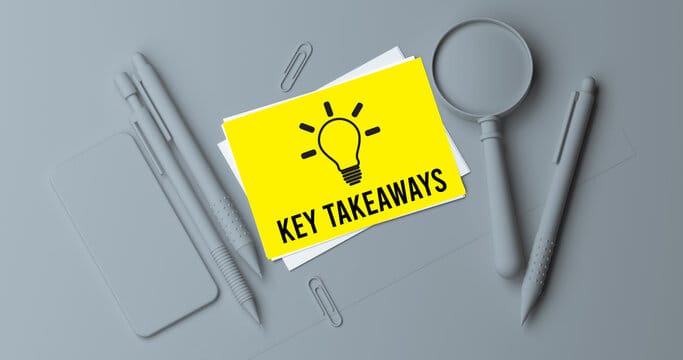
We have seen that Vijayawada offers a variety of English classes designed to meet various learning styles and needs. It is notable that in today's digital age, it is online learning via platforms like Clapingo that offers a unique advantage. It allows you to access premium education from the comfort of your home, saving both time and cost of commute. These personalized one-on-one sessions also accommodate your specific needs. You can check out the details of Clapingo's spoken English classes specifically catered to Telugu-speaking learners here: [Spoken English Classes in Telugu To Achieve Fluent English Communication](https://clapingo.com/product/spoken-english-telugu)
Above all, remember that learning English is a journey that takes practice and patience. But with constant effort and the right guidance from an effective tutor or institute, success is within reach. From the best spoken English classes in Vijayawada discussed here, choose one that aligns with your personal goals and step into a world of opportunities waiting for you!
Whether you choose Clapingo's online tutors or prefer offline institutes in Vijayawada, let this be your first step towards conquering spoken English!
### **You may want to read**
[Top 35 Books To Help You With English Learning](https://clapingo.com/blog/english-learning-books)
---
This blog is powered by Superblog. Visit https://superblog.ai to know more.
---
## Best Spoken English Classes in Trivandrum - Top Picks
Author: Unknown
Published: 2024-02-15
Meta Title: Discover the Best Spoken English Classes in Trivandrum
Meta Description: Improve your English skills with a handpicked list of the top 10 coaching institutes in Trivandrum. Find the perfect learning environment for you today!
Tags: english classes in trivandrum, spoken english in trivandrum, spoken english classes, Top-rated English Classes, Best Spoken English Classes
URL: https://clapingo.com/blog/best-spoken-english-classes-trivandrum
Contents
* [Clapingo: Shashikala Vijayan (Online Tutor)](#clapingo-shashikala-vijayan-online-tutor)
* [RM. Quest Institute Of English (Offline Classes)](#rm-quest-institute-of-english-offline-classes)
* [Veta - English Training Academy (Offline Classes)](#veta-english-training-academy-offline-classes)
* [Minta Cruz Language Academy (Online Classes)](#minta-cruz-language-academy-online-classes)
* [London School of English (Offline Classes)](#london-school-of-english-offline-classes)
* [Dr. Salims Institute of English (Online and Offline Classes)](#dr-salims-institute-of-english-online-and-offline-classes)
* [Fortune English Academy (Online and Offline Classes)](#fortune-english-academy-online-and-offline-classes)
* [The Hinduzone (Online Classes)](#the-hinduzone-online-classes)
* [JJ English Institute (Online and Offline Classes)](#jj-english-institute-online-and-offline-classes)
* [Ellphonics - English Coaching (Offline Classes)](#ellphonics-english-coaching-offline-classes)
* [Final Thoughts](#final-thoughts)
* [You may want to read](#you-may-want-to-read)

Historically, traditional classroom learning was the only way to master English – but is it truly the most effective method? Traditional classroom learning is often ineffective due to rigid schedules and a one-size-fits-all curriculum.
And that's why, personalized online coaching is a game-changer, offering flexible schedules and customized lesson plans. Learn at your own pace from the comfort of your home.
One such platform offering personalised online coaching is [Clapingo](https://clapingo.com)[.](https://clapingo.com/\).) With their one-on-one sessions conducted by native English speakers, Clapingo offers an immersive learning experience focusing on vocabulary enhancement, pronunciation accuracy and fluency.
But if you're looking for options within Trivandrum only, worry not! We have compiled a list of 10 highly recommended tutors/coaching centres specializing in spoken English training in Trivandrum. Each of these centres offers unique study programs and methods that cater to diverse learning needs. Do your research and pick the one that best suits your requirements!
Clapingo: Shashikala Vijayan (Online Tutor)
-------------------------------------------
Mrs Shashikala Vijayan is a seasoned educator and proficient Spoken English trainer based in Trivandrum. With a rich educational background including a BSc, MA, and MEd, she received her schooling in Delhi and completed her college education in Trivandrum. Mrs Vijayan brings over 23 years of teaching experience in both English and Science, coupled with 9 years serving as a Principal in various schools, including the esteemed Army Public School in Trivandrum.
Beyond her academic achievements, Mrs Vijayan is renowned for her soft skills and Spoken English training expertise. Mrs Vijayan is also recognized for her excellent public speaking skills, making her a sought-after tutor for those looking to enhance their spoken English proficiency.
Here's a video of Mrs Vijayan in action:
RM. Quest Institute Of English (Offline Classes)
------------------------------------------------
RM. Quest Institute of English is renowned for its competitive exams training (IELTS, TOEFL), offering personalized attention to each student's needs. The experienced tutors ensure that learners develop a strong command over the language. At Quest, learning goes beyond textbooks. The tutors encourage learners to engage in conversation, debates, and group discussions. These interactive sessions enable you to overcome inhibitions while speaking in English and help you become more confident.
Veta - English Training Academy (Offline Classes)
-------------------------------------------------
Veta is a renowned institute for English learning in Trivandrum that primarily focuses on spoken English skills. Their comprehensive approach aims to make students experts in spoken communication by providing them with the necessary training and practice opportunities. With excellent faculty and infrastructure facilities, Veta promises an enriching learning experience.
Minta Cruz Language Academy (Online Classes)
--------------------------------------------
Minta Cruz Language Academy is known for its effective teaching methods, allowing learners to grasp the English language quickly. They offer courses that enable students to acquire a good command of English within a short period. With their strategic approach, Minta Cruz ensures efficient learning outcomes.
London School of English (Offline Classes)
------------------------------------------
London School of English has established itself as one of the best coaching institutes for English learning in Trivandrum, with a perfect 5-star rating on Google. The institute boasts highly qualified and dedicated faculty members who provide exceptional guidance to students.
Dr. Salims Institute of English (Online and Offline Classes)
------------------------------------------------------------
Dr. Salims Institute stands out for its high-quality classes and conducive learning environment. The institute offers comprehensive courses that cater to learners' specific needs. What sets this institute apart is its commitment to personalised attention. Classes are conducted both offline and online, with batch sizes kept small so that every student receives individual attention from trainers. This ensures that learning is tailored specifically to each student's needs.
Fortune English Academy (Online and Offline Classes)
----------------------------------------------------
Fortune English Academy is a renowned centre for spoken English classes in Trivandrum. They offer both online and offline training classes to suit varying learner needs. What sets the academy apart is its teaching methodology, designed specifically to cater to non-native English speakers. Their approach focuses on the four core aspects of language learning - reading, writing, listening, and speaking. Fortune English Academy provides excellent teaching methods at reasonable fees.
The Hinduzone (Online Classes)
------------------------------
The Hinduzone is a highly regarded coaching institute for learning English in Trivandrum. With its expertise in various competitive exams, they tailor their teaching methods according to the specific dialects and requirements of these exams. The institute provides online English coaching, ensuring flexibility and convenience for students.
JJ English Institute (Online and Offline Classes)
-------------------------------------------------
While traditional curriculum often leans heavily on rote memorisation and grammar drills, JJ English Institute breathes fresh life into language learning by innovatively blending fun elements like stories, jokes, and songs into their curriculum. This approach not only keeps lessons lively but also naturally fosters fluency and builds confidence among learners.
Ellphonics - English Coaching (Offline Classes)
-----------------------------------------------
Ellphonics offers wide-ranging courses designed to enhance your English speaking skills. These include preparation for popular English language exams such as IELTS and TOEFL, which are required for studying or working abroad. Their curriculum is comprehensive, covering all aspects of spoken English including pronunciation, grammar, vocabulary, and conversational fluency.
Final Thoughts
--------------

As you embark on your journey of perfecting spoken English, remember the key points we've discussed. Understanding the challenges non-native English speakers face in India, like in Trivandrum, is the first step. Whether it's pronunciation issues, vocabulary deficiency, or sentence structure complexities - every problem has a solution.
Clapingo offers a unique solution to these problems by providing one-on-one personalised coaching sessions with native English speakers. With its diverse plans catering to your specific needs and flexibility in session scheduling, Clapingo creates a user-friendly platform that focuses on fluency, pronunciation, vocabulary, and sentence structure.
If you're still unsure about where to start or need more guidance, book [a quick demo](https://clapingo.com/book-instant-demo?) for a detailed insight into how Clapingo can help you enhance your spoken English skills.
Remember, mastering a new language is an ongoing process - so keep practicing, stay persistent, and enjoy your path towards fluent English speaking!
### **You may want to read**
[Top 35 Books To Help You With English Learning](https://clapingo.com/blog/english-learning-books)
---
This blog is powered by Superblog. Visit https://superblog.ai to know more.
---
## 10 Top-Rated Spoken English Classes and Tutors in Pune
Author: Unknown
Published: 2024-02-15
Meta Title: Discover the Best spoken English Speaking Course in Pune
Meta Description: Explore a world of opportunities. Discover Pune’s top 10 spoken English classes, featuring both online options like Clapingo and offline institutes.
Tags: spoken english classes in pune, spoken english classes, Best Spoken English Classes , english classes in pune, best english classes in pune
URL: https://clapingo.com/blog/best-spoken-english-classes-pune
Contents
* [Apoorva Bhoine - Clapingo Online Tutor](#apoorva-bhoine-clapingo-online-tutor)
* [Jaisy Rachel Jacob - Clapingo Online Tutor](#jaisy-rachel-jacob-clapingo-online-tutor)
* [Rohini Khanna - Clapingo Online Tutor](#rohini-khanna-clapingo-online-tutor)
* [Speakfast English Academy - Online & Offline Classes](#speakfast-english-academy-online-and-offline-classes)
* [Elixir - Online & Offline Classes](#elixir-online-and-offline-classes)
* [Seven Mentors Pvt Ltd - Online & Offline Classes](#seven-mentors-pvt-ltd-online-and-offline-classes)
* [Lotus IT hub - Offline Classes](#lotus-it-hub-offline-classes)
* [ELTIS (Symbiosis) - Offline Classes](#eltis-symbiosis-offline-classes)
* [Bapat Academy - Offline Classes](#bapat-academy-offline-classes)
* [Conifers - Online & Offline Classes](#conifers-online-and-offline-classes)
* [Key Takeaways](#key-takeaways)
* [You may want to read](#you-may-want-to-read)

Say, you're a budding professional in Pune, filled with ambition and enthusiasm. Yet, despite your technical prowess, there's one obstacle in your path to success - spoken English communication. You've tried the traditional route of attending Spoken English Classes at local institutes but are finding it hard to juggle between work commitments and rigid class schedules.
We've heard this relatable story before. Haven't we?
Traditional offline courses can indeed prove to be challenging. They often follow a fixed schedule, making it difficult for working professionals to attend. Moreover, these classes usually cater to a large group of students, leaving limited room for individual attention and personalised learning.
The digital era brings a transformative solution to these challenges - online learning. By opting for an online English speaking course, you can enjoy the convenience of learning at your own pace from the comfort of your home. It allows you to adopt a flexible study schedule that doesn't interfere with your professional commitments.
Among the top 10 Spoken English classes in Pune, Clapingo emerges as a front-runner. This platform provides one-on-one personalised English coaching sessions tailored to your unique learning needs. Moreover, Clapingo's flexible session scheduling aligns perfectly with your busy lifestyle. And despite offering such premium services, [Clapingo remains affordable](https://learn.clapingo.com/clapingo-adult-ga3/?utm_source=youtube03&utm_medium=151725357580&utm_content=664607654363&utm_campaign=20335674632&gad_source=1&gclid=CjwKCAiA_OetBhAtEiwAPTeQZ-wQ7MM3gDMbmYAaDZ-CGk7WCwO4LeIajTKnEdb19Fuyhm_hQSLHchoCBvYQAvD_BwE) making it an appealing choice among learners across Pune.
Now, let's take a look at the 10 best English speaking courses in Pune.
Apoorva Bhoine - Clapingo Online Tutor
--------------------------------------
If you are an engineering student struggling with technical jargon in English, Apoorva Bhoine, with her rich background in Electronics and Telecommunication Engineering from Pune University, is your go-to tutor. Apoorva believes in making learning a creative and imaginative process, helping students realize their full potential. Her lessons are marked by excellent communication, active listening, and impressive storytelling skills, providing an engaging learning experience.
Want to see Apoorva in action before you sign up for her classes? Check out this YouTube video -
Jaisy Rachel Jacob - Clapingo Online Tutor
------------------------------------------
Blending her passion for effective communication and language learning with her extensive experience in NGOs as a trainer and facilitator, Jaisy Rachel Jacob brings a fresh perspective to online English coaching. Her ability to facilitate engagement and use technology effectively makes her sessions interactive and productive. Whether you're an aspiring baker or an artist looking to improve your English skills, Jaisy's diverse professional background can keep your classes relevant and interesting.
Rohini Khanna - Clapingo Online Tutor
-------------------------------------
With over 13 years of experience training students for various competitive exams and college placements, Rohini Khanna has an unmatched ability to make complex topics simple. Known for her dedication towards teaching and mentoring students, Rohini understands the needs of local learners from Pune better than most.
Speakfast English Academy - Online & Offline Classes
----------------------------------------------------
Based in the Kothrud area of Pune, Speakfast English Academy offers both online and classroom-based English courses at reasonable fees. It provides engaging content designed to enhance fluency in spoken English. Whether you're a beginner or an advanced learner, Speakfast has a course tailored to your needs.
Elixir - Online & Offline Classes
---------------------------------
Elixir is a pioneer in Spoken English Training with more than 800,000 admissions in the last 22 years. Elixir’s modular courses offer a comprehensive solution for mastering the English language in this era of fast-developing technology.
Seven Mentors Pvt Ltd - Online & Offline Classes
------------------------------------------------
Located in the Shivajinagar area of Pune city, Seven Mentors Pvt Ltd aims not just to make students good at English grammar but to turn them into fluent speakers. Their courses are designed to meet the needs of students, professionals, homemakers, and job seekers alike.
Lotus IT hub - Offline Classes
------------------------------
Based in the Narhe area of Pune, Lotus IT Hub provides English speaking and personality development certification courses. Their belief that communication brings people together is reflected in their comprehensive course structure.
ELTIS (Symbiosis) - Offline Classes
-----------------------------------
ELTIS by Symbiosis offers spoken English courses under the brand name ‘Speakfast’. Their commitment to creating an excellent learning environment for both Indian and international students sets them apart. They offer an array of courses designed to enhance your communicative abilities.
Bapat Academy - Offline Classes
-------------------------------
Led by the well-known Prof. Ulhas Bapat, this academy is a family-run institution passionate about teaching English. They believe that with the right mentorship, anyone can become a proficient English speaker.
Conifers - Online & Offline Classes
-----------------------------------
Based in the Balewadi area of Pune, Conifers' communication skills and personality development sessions are conducted online and offline by Anthony D'Souza, a certified teacher from the American TESOL Institute with over 30 years of experience.
Key Takeaways
-------------

The goal of mastering spoken English is no longer a far-fetched dream. In the city of Pune, numerous institutes provide top-notch coaching. But don't forget the digital world; platforms like Clapingo are revolutionising language learning with their efficient online classes.
Clapingo's expert tutors go the extra mile to ensure effective learning. Apoorva Bhoine uses creative methods making technical aspects easy for learners. Jaisy Rachel Jacob combines her professional experience with an interactive teaching style, while Rohini Khanna breaks down complex concepts with simple explanations thanks to her vast experience. Truly, these tutors make Clapingo one of the top 10 spoken English classes in Pune.
So why wait? Experience [Clapingo](https://clapingo.com/)’s online coaching and step onto the path of confident English mastery today! After all, language barriers should never limit your personal or professional growth.
### **You may want to read**
[Mastering English: Fast Track to Fluency and Confidence](https://clapingo.com/blog/how-to-learn-english-fast)
---
This blog is powered by Superblog. Visit https://superblog.ai to know more.
---
## Top 10 Spoken English Classes in Chennai for Language Mastery
Author: Unknown
Published: 2024-02-15
Meta Title: Top 10 Online & Offline Spoken English Classes In Chennai
Meta Description: Discover the Top 10 English Classes In Chennai, including a mix of online and offline tutoring options. Boost your English communication abilities now!
Tags: spoken english classes, Best Spoken English Classes , english classes in chennai, spoken english classes chennai
URL: https://clapingo.com/blog/best-spoken-english-classes-chennai
Contents
* [Clapingo: Sudha C Prabhakar (Online)](#clapingo-sudha-c-prabhakar-online)
* [Clapingo: P. Deborah (Online)](#clapingo-p-deborah-online)
* [Clapingo: Zeba Shaheen (Online)](#clapingo-zeba-shaheen-online)
* [Let’s Speak: Language Training Academy (Offline)](#lets-speak-language-training-academy-offline)
* [VLC Institute (Offline)](#vlc-institute-offline)
* [EnglishLabs (Offline)](#englishlabs-offline)
* [Victory Academy for Spoken English (Offline)](#victory-academy-for-spoken-english-offline)
* [M.N.A Spoken English Center (Offline)](#mna-spoken-english-center-offline)
* [L.S.Spoken English and IELTS Center (Offline)](#lsspoken-english-and-ielts-center-offline)
* [Speak Now: Language and Training Institute (Offline)](#speak-now-language-and-training-institute-offline)
* [Key Takeaways](#key-takeaways)
* [You may want to read](#you-may-want-to-read)

Are you on the hunt for the best spoken English classes in Chennai? You're at the right place! Navigating through an array of options can be challenging, but we've simplified it down to a list of the top 10 spoken English classes in Chennai to supercharge your communication skills.
For many non-native speakers, the task of mastering spoken English can indeed appear daunting. While traditional offline learning methods have their merits, including face-to-face interactions and a structured environment, they come with certain disadvantages. The constraints of fixed schedules, the need for physical presence, and the associated costs of commuting can pose challenges for learners. However, the landscape is evolving, offering alternative avenues that provide greater flexibility and accessibility.
In contrast to the perception that online learning is less effective, today's digital platforms are rewriting this narrative. They not only break down the barriers of time and space but also offer engaging and personalized instruction tailored to individual learning needs. This is where platforms like [Clapingo](https://clapingo.com/) stand out—their tutors leverage the advantages of online learning, engaging students with interactive, one-on-one sessions designed to improve fluency, vocabulary, pronunciation, and sentence structure.
Let's dive right in to see the features of the top 10 spoken English classes in Chennai, both online and offline!
Clapingo: Sudha C Prabhakar (Online)
------------------------------------
Sudha C Prabhakar stands as a prominent figure in the realm of English education, bringing forth a wealth of expertise as an acclaimed lecturer and freelance IELTS instructor. With a teaching tenure spanning over a decade, Sudha's commitment to imparting linguistic proficiency is underscored by her academic achievements—a Master's in English coupled with a Bachelor's in Education (B.Ed.).
Within the Clapingo platform, she assumes the role of a star tutor, conducting personalized coaching sessions meticulously crafted to enhance not just [fluency](https://clapingo.com/blog/how-to-learn-english-fast), but also pronunciation, vocabulary, and overall sentence structure.
Clapingo: P. Deborah (Online)
-----------------------------
In the virtual halls of Clapingo, P. Deborah emerges as a seasoned educator with an impressive academic background. Her qualifications include a Master's in English, a Bachelor's in Education (BEd), and a Diploma in Functional English. Armed with a decade of teaching experience, P. Deborah's interactive lessons transcend the conventional, aiming not only to educate but also to make the process of learning English as engaging and enjoyable journey for her students.
Check out this interesting YouTube video from one of Clapingo's tutors:
Clapingo: Zeba Shaheen (Online)
-------------------------------
Zeba Shaheen brings a unique set of skills to the online teaching arena, where her prowess in both written and verbal communication sets her apart as a distinguished tutor on Clapingo. Thriving in fast-paced environments, Zeba infuses her one-on-one sessions with rationality and stress-resistant attributes, ensuring that her students not only grasp the intricacies of the English language but also develop resilience and clarity in their communication.
This YouTube video will help you learn more about Clapingo:
Let’s Speak: Language Training Academy (Offline)
------------------------------------------------
Let’s Speak, one of the best English coaching centres in Chennai, is a government-registered language institute boasting a legacy of over 14 years. Certified trainers within its hallowed halls curate high-quality content, and the academy’s approach to training is grounded in practicality, solidifying its standing as one of the foremost English coaching centres in Chennai.
VLC Institute (Offline)
-----------------------
Nestled in the heart of Tambaram, Chennai, VLC Institute wears the badge of an ISO 9001-2015 certification with pride. Specializing in IELTS and Spoken English coaching, the institute's approach is defined by focus and commitment, ensuring that learners not only acquire but master the art of spoken English through effective and targeted training.
EnglishLabs (Offline)
---------------------
EnglishLabs, a beacon of language education with branches scattered across Chennai, redefines language training beyond conventional paradigms. Its curriculum eschews traditional textbook methods, opting instead for a dynamic approach that revolves around audio-visual interactive sessions, fostering an immersive environment conducive to the holistic improvement of English language skills.
Victory Academy for Spoken English (Offline)
--------------------------------------------
Victory Academy is more than a provider of spoken English classes; it is a hub for professional editorial services. With an emphasis on intensive coaching, the academy endeavours to sculpt individuals into effective communicators, especially in settings that demand a high degree of fluency and precision, such as foreign environments.
M.N.A Spoken English Center (Offline)
-------------------------------------
With a legacy spanning an impressive 17 years, M.N.A Spoken English Center has earned its stripes by accommodating diverse learner schedules. The one-hour duration of each class, over a comprehensive course period of four months, reflects the centre's commitment to providing a thorough and well-paced learning experience.
L.S.Spoken English and IELTS Center (Offline)
---------------------------------------------
Situated in the vibrant locality of Ashok Nagar, Chennai, L.S.Spoken English and IELTS Center positions itself as an institution that welcomes beginners with open arms. Here, the focus extends beyond the conventional, as the centre meticulously addresses the basics while simultaneously offering specialized coaching tailored for the IELTS examination.
Speak Now: Language and Training Institute (Offline)
----------------------------------------------------
Speak Now, a distinguished institute known for its diverse portfolio of courses, serves as a catalyst for students aiming to elevate their language and communication skills. From the intricate art of calligraphy to the nuanced nuances of spoken English, Speak Now stands as a comprehensive destination, accommodating a wide array of learning objectives for language enthusiasts.
Key Takeaways
-------------

This list of top 10 spoken English classes in Chennai is carefully curated to help you navigate the wide variety of options available, whether online or offline. While traditional brick-and-mortar institutes have their benefits, online platforms like [Clapingo](https://clapingo.com/) bring forth accessible, flexible, personalised learning experiences that can be tailored to your specific needs. More details about Clapingo's spoken English classes catered specifically to Tamil-speaking learners from Chennai can be found here: [Spoken English in Tamil: Step into World of Fluent Communication.](https://clapingo.com/product/spoken-english-tamil)
Remember—learning a new language is a journey. It's not about the destination; it's about the progress you make along the way. So go ahead—choose your path and let your language-learning adventure begin with Clapingo!
### **You may want to read**
[Top 5 Ways to Hone Your English Speaking Skills](https://clapingo.com/blog/top-ways-practice-english-speaking)
---
This blog is powered by Superblog. Visit https://superblog.ai to know more.
---
## Discovering the Top 10 English Speaking Classes in Coimbatore
Author: Unknown
Published: 2024-02-15
Meta Title: Discover the Best Spoken English Classes in Coimbatore
Meta Description: Looking for the top English coaching centres? Explore our list of the top 10 spoken English classes in Coimbatore for expert guidance and quick fluency.
Tags: spoken english classes online, spoken english classes, Best Spoken English Classes , english classes in coimbatore, spoken english in coimbatore
URL: https://clapingo.com/blog/best-spoken-english-classes-coimbatore
Contents
* [Clapingo Tutor - Elvin A.L. (Online Classes)](#clapingo-tutor-elvin-al-online-classes)
* [Clapingo Tutor - Sangavi Murugesan (Online Classes)](#clapingo-tutor-sangavi-murugesan-online-classes)
* [The Hinduzone (Online Classes)](#the-hinduzone-online-classes)
* [English Hunt (Offline Classes)](#english-hunt-offline-classes)
* [ECS IELTS Coaching Centre (Offline Classes)](#ecs-ielts-coaching-centre-offline-classes)
* [Pranavam English Academy (Online and Offline Classes)](#pranavam-english-academy-online-and-offline-classes)
* [English Junction (Offline Classes)](#english-junction-offline-classes)
* [OSRAD's Institute (Offline Classes)](#osrads-institute-offline-classes)
* [KRS Institute of English (Offline Classes)](#krs-institute-of-english-offline-classes)
* [OMK Academy (Offline Classes)](#omk-academy-offline-classes)
* [Key Takeaways](#key-takeaways)
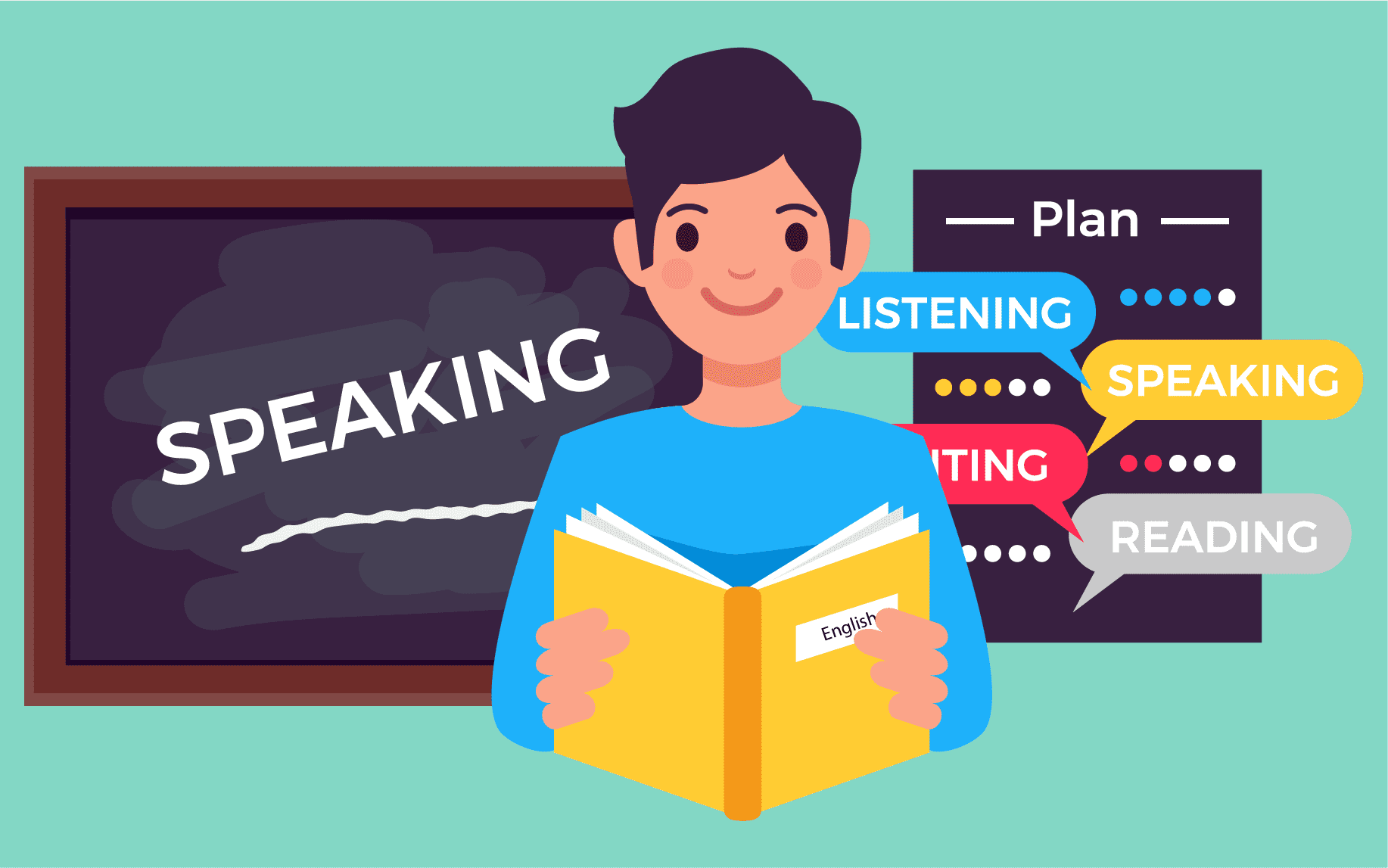
Wondering how to overcome the intimidating world of spoken English? You’re not alone. Whether you're aiming for career advancement or simply seeking to communicate more confidently, English fluency can open a world of opportunities.
However, traditional classrooms may not provide the personalised attention or flexible learning environment needed to hone your spoken English skills. Often, learners find themselves lost in a crowd, unable to voice out their struggles or get immediate feedback. This is where online coaching comes into play.
Online coaching platforms like [Clapingo](https://clapingo.com/) offer one-on-one personalized coaching sessions with native English speakers. The sessions are conducted in your native language and focus on fluency, pronunciation, vocabulary, and sentence structure. With adaptable plans and a user-friendly platform, Clapingo ensures that each learner gets the attention they need at their own pace.
In this article, we’re setting out to compile a list of 10 reputable tutors and coaching centres in Coimbatore that specialise in spoken English training. These centres have been handpicked based on their experience, teaching methodology, and student feedback. Let's dive in!
Clapingo Tutor - Elvin A.L. (Online Classes)
--------------------------------------------
What makes Elvin stand out among the top 10 spoken English classes in Coimbatore?
Firstly, his educational background is impressive. However, it's not just his academic credentials that make him an effective coach; it's also his professional experience. He has significantly honed his communication skills during his tenure as a content writer. His ability to write engagingly and accurately translates into his teaching methodology, helping students improve their spoken English.
So if you are on the lookout for an enriching language-learning experience in Coimbatore, you might want to consider signing up for a session with Elvin A.L. soon!
Clapingo Tutor - Sangavi Murugesan (Online Classes)
---------------------------------------------------
When seeking the best English coaching centre in Coimbatore, one name that stands out prominently is Sangavi Murugesan. A highly qualified individual, Sangavi holds a Master's degree in Biotechnology, adding a unique depth to her teaching style. Sangavi's academic prowess extends to her passion for teaching spoken English.
Her methodology is dynamic and interactive, encouraging students to participate actively in their learning process. Often listed among the top 10 spoken English classes in Coimbatore, Sangavi's sessions focus on improving pronunciation, enhancing vocabulary, and mastering sentence structure.
Check out Clapingo Conversation With Sangavi Murugesan to get a quick feel of her methods:
The Hinduzone (Online Classes)
------------------------------
Regarded as the best English coaching centre in Coimbatore, The Hinduzone has carved a niche for itself in the realm of language education. They employ effective strategies to help learners overcome common issues such as pronunciation difficulties, limited vocabulary, and sentence structuring problems.
Their training programmes are designed to cater to learners at different proficiency levels, so whether you're a beginner or looking to polish your command over the language, you can find a course that fits your needs.
English Hunt (Offline Classes)
------------------------------
English Hunt is a renowned name among the top 10 spoken English classes in Coimbatore. In addition to the conversational training, English Hunt also provides comprehensive study materials — from grammar books to vocabulary lists — that cover all aspects of the English language.
What sets English Hunt apart though is its affordable fee structure. Despite offering high-quality learning solutions, the centre ensures that its courses remain accessible to everyone.
ECS IELTS Coaching Centre (Offline Classes)
-------------------------------------------
If your goal is to ace the highly competitive Cambridge English examinations or you're planning to study abroad, one of the best English coaching centres in Coimbatore, ECS IELTS Coaching Centre, comes highly recommended.
This institute provides quality education at a reasonable fee, tailored for IELTS and Cambridge exams with a strong focus on speaking skills, to equip you with the confidence and fluency required for these high-stakes tests.
Pranavam English Academy (Online and Offline Classes)
-----------------------------------------------------
Pranavam English Academy is a reputed establishment that prides itself on providing comprehensive learning modules tailored to the individual needs of each student. Pranavam English Academy focuses on enhancing students' command of the language, bolstering their existing knowledge and guiding them towards fluency.
Their commitment towards personalized learning makes them one of the top 10 spoken English classes in Coimbatore.
English Junction (Offline Classes)
----------------------------------
English Junction, this top-notch institution caters to beginners and intermediate learners, with a keen focus on spoken English. For global education or overseas employment, you need to excel in tests like PTE and IELTS. English Junction prepares you for these tests and improves your chances of success.
OSRAD's Institute (Offline Classes)
-----------------------------------
This renowned centre ranks high among the top 10 spoken English classes in Coimbatore, thanks to its unique blend of exemplary teaching methods and hands-on practice sessions.
OSRAD's instructors are experienced professionals who strategically simplify complex rules into bite-sized lessons, making grammar less daunting and more manageable for learners at all proficiency levels.
KRS Institute of English (Offline Classes)
------------------------------------------
The KRS Institute of English has carved a niche for itself with its strong emphasis on grammar and vocabulary, the building blocks of any language. The institute has experienced tutors who specialize in equipping students with language skills to excel in competitive exams. They use engaging teaching methodologies for academic or communication skills prep.
OMK Academy (Offline Classes)
-----------------------------
OMK Academy’s approach is rooted in practicality and customized learning. They tailor each lesson according to a learner's proficiency level and personal goals.
OMK Academy employs educators who believe in effective yet swift teaching methods. The focus is on accelerating your ability to read, write, speak, and understand English without compromising the quality of education. Affordability is another key attribute of OMK Academy that makes it one of the best spoken English classes in Coimbatore.
Key Takeaways
-------------

Mastering English can seem like climbing a steep hill, but with the right support, it becomes a rewarding journey. Coimbatore hosts some of the Best English Coaching Centres, each offering unique learning experiences to help you conquer this global language.
Remember the names: Elvin A.L., Sangavi Murugesan, The Hinduzone, English Hunt, ECS IELTS Coaching Centre, Pranavam English Academy, English Junction, OSRAD's Institute, KRS Institute of English, and OMK Academy. The centers discussed here are renowned for their comprehensive courses and dedicated tutors. Whether you prefer group classes, individual lessons, or online sessions, they cater to diverse learning styles and needs.
In addition to these top 10 spoken English classes in Coimbatore, there's also Clapingo. This platform stands out with its one-on-one personalized coaching sessions conducted by native English speakers in your native language, for example, [Spoken English in Tamil](https://clapingo.com/product/spoken-english-tamil). With Clapingo's online sessions, you tackle fluency, pronunciation and sentence structure in a comfortable environment.
So why wait? Embrace the journey today; let your voice be heard around the world. Start your language journey now - [book a demo for just INR 99](https://clapingo.com/book-instant-demo)!
### **You may want to read**
**[How Can I Find An English Learning Partner?](https://clapingo.com/blog/english-learning-partner)
**
---
This blog is powered by Superblog. Visit https://superblog.ai to know more.
---
## Top 10 Recommendations for The Best Spoken English Classes in Patna
Author: Unknown
Published: 2024-02-15
Meta Title: Unleash Your English Speaking Skills: Top English Classes
Meta Description: Explore the top English tutors in Patna. Venture beyond traditional classes with Clapingo's tailored online courses for an unparalleled learning experience.
Tags: best spoken english institute , spoken english institute patna, spoken english, english institute in patna
URL: https://clapingo.com/blog/best-spoken-english-institute-patna
Contents
* [Kumari Dimpal (Clapingo)](#kumari-dimpal-clapingo)
* [Shabnam Khatoon (Clapingo)](#shabnam-khatoon-clapingo)
* [Arun Jee (Clapingo)](#arun-jee-clapingo)
* [Edu Race Institute (Offline)](#edu-race-institute-offline)
* [The Language Lab (Offline)](#the-language-lab-offline)
* [British Lingua (Offline)](#british-lingua-offline)
* [Mastermind Spoken English (Offline)](#mastermind-spoken-english-offline)
* [English.com (Offline)](#englishcom-offline)
* [Speakwell English Academy (Offline)](#speakwell-english-academy-offline)
* [Brit-American (Offline)](#brit-american-offline)
* [Final Thoughts](#final-thoughts)
* [You may want to read](#you-may-want-to-read)

Is it your dream to communicate confidently in fluent English, but you're not sure where to start? Or maybe you've already begun your spoken English journey but are still struggling with getting the right guidance? If so, you're at the right place. Today, we will explore some of the best spoken English classes in Patna - both online and offline.
We understand that learning a new language can be a daunting task, especially when it comes to speaking. However, with the right approach and resources, it doesn't have to be. In fact, there are many remarkable tutors and institutes out there ready to support you on this exciting adventure. Among them is [Clapingo](https://clapingo.com/) \- an innovative platform offering personalized online coaching sessions that debunk traditional language learning myths.
With Clapingo, you don't have to step outside of your home or accommodate a fixed class schedule. You can enjoy one-on-one coaching by experienced native speakers who understand your challenges as a non-native speaker. The platform offers flexibility and convenience unmatched by traditional brick-and-mortar institutions, making it an excellent alternative for working professionals and students alike.
Now let's dive into the details of these fantastic learning opportunities that await you in Patna!
Kumari Dimpal (Clapingo)
------------------------
Kumari Dimpal, an experienced English teacher, has 4 years of teaching prowess under her belt. She holds MA and BA degrees in English and excels at nurturing communication skills, making public speaking a breeze for her learners.
Dimpal brings her expertise to Clapingo, where she offers personalized online coaching sessions focusing on fluency, pronunciation, vocabulary, and [sentence structure](https://clapingo.com/blog/sentence-improvement-english). Her flexible lesson planning accommodates the unique needs of every learner. With Dimpal as your tutor, you can enjoy interactive and engaging sessions, unlocking your potential to communicate confidently in English.
Shabnam Khatoon (Clapingo)
--------------------------
Shabnam Khatoon is a proactive and enthusiastic Clapingo tutor specializing in IELTS training, soft skills, and communication skills training. Boasting 4 years of teaching experience, Shabnam is one of the best English teachers in Patna with a knack for identifying learners' needs and tailoring her lessons accordingly.
Her effective teaching methods combined with superior communication skills make learning English a rewarding experience. Whether you're preparing for IELTS or just want to boost your spoken English skills, Shabnam's personalized coaching approach will help you reach your goals faster.
Check out this interesting video about English pronunciation by one of Clapingo's excellent tutors:
Arun Jee (Clapingo)
-------------------
Arun Jee brings his advanced fluency and commendable teaching methods to Clapingo's online platform. He expertly integrates speaking with other language skills and designs courses that meet each learner's individual needs.
In addition to his impressive educational resume, Arun has facilitated numerous online courses for spoken English across different age groups since 2020. Now on Clapingo's platform, he continues to empower students with comprehensive spoken English solutions through one-on-one online sessions.
You can watch this YouTube video to learn more about Clapingo:
Edu Race Institute (Offline)
----------------------------
Edu Race Institute has made its mark as one of Patna's top destinations for comprehensive English courses and Personality Development programs. Its curriculum stresses both basics and the latest developments in the language-learning realm.
The faculty at Edu Race includes some of the best English teachers in Patna, who are focused on imparting language proficiency and essential life skills for the learners' holistic development.
The Language Lab (Offline)
--------------------------
The Language Lab has been providing practical and theoretical English training for over 21 years. The institute believes in creating an immersive language environment to help you read, write, and speak English effectively. It offers tailored programs that result in improved fluency in English and enhanced vocabulary skills.
British Lingua (Offline)
------------------------
British Lingua aims to provide easy access to the study of English, regardless of a learner's station in life. Its interactive method focuses on effective communication skills, thus enabling learners to frame sentences quickly and communicate with ease.
Mastermind Spoken English (Offline)
--------------------------------------
Mastermind Spoken English breaks down complex concepts into practical techniques for a joyful learning experience. Located in Sri Krishna Puri, Patna, the institute provides a passionate, positive, and inspiring learning environment.
English.com (Offline)
---------------------
Since 2006, this institute has been transforming dreams into reality for individuals willing to learn and speak in English. Known for quality delivery and student satisfaction, this institute offers courses in Spoken English, 12th English, and Basic English.
Speakwell English Academy (Offline)
-----------------------------------
Speakwell English Academy was established in 2013 at Boring Road, Patna. It teaches both British and American English and provides corporate English training for adults along with classes for children.
Brit-American (Offline)
-----------------------
Established in 2004, Brit-American offers a range of language courses including English, Korean, German, and Spanish. Over 5 years, they have trained thousands of students who are now effectively contributing their valuable services to nation-building.

Final Thoughts
--------------
Our journey through the top 10 spoken English classes in Patna, both online and offline, has come to an end – but your exciting language-learning adventure is just beginning!
Learning spoken English can open up countless opportunities personally and professionally – from broadening your global perspective to boosting your career prospects. While offline institutions like Edu Race Institute, The Language Lab, British Lingua, and others bring a traditional yet effective approach to English learning, online platforms like [Clapingo](https://clapingo.com/) give you the convenience and flexibility of personalized coaching.
With Clapingo's one-on-one sessions, you get access to individualized learning experiences tailored to your unique needs and paced at your comfort. The platform's dedicated tutors are committed to guiding you every step of the way. You can learn more about Clapingo's spoken English classes in Hindi here: [Speak like a Pro with Spoken English to Hindi classes](https://clapingo.com/product/spoken-english-hindi)
So why wait? Empower yourself with the confidence of fluent English communication. Let Clapingo be your partner in this journey towards success!
### **You may want to read**
[Mastering English: Fast Track to Fluency and Confidence](https://clapingo.com/blog/how-to-learn-english-fast)
---
This blog is powered by Superblog. Visit https://superblog.ai to know more.
---
## Mastering Fluency with the Top 10 Spoken English Classes in Hyderabad
Author: Unknown
Published: 2024-02-15
Meta Title: Make English Your Forte with Hyderabad's English Classes
Meta Description: Choose the best spoken English classes in Hyderabad with this guide. Discover some superb online tutors from Clapingo and other popular offline centers.
Tags: English Classes In Hyderabad, Best Spoken English Classes , English Classes Hyderabad
URL: https://clapingo.com/blog/best-spoken-english-institute-hyderabad
Contents
* [Clapingo: Shikha Gandhi (Online)](#clapingo-shikha-gandhi-online)
* [Clapingo: Sherin Sijin (Online)](#clapingo-sherin-sijin-online)
* [Clapingo: Vaka Amrutha Valli (Online)](#clapingo-vaka-amrutha-valli-online)
* [English Engine Spoken English Institute (Offline)](#english-engine-spoken-english-institute-offline)
* [British Institute of Spoken English (Offline)](#british-institute-of-spoken-english-offline)
* [ACE Institute (Offline)](#ace-institute-offline)
* [Vasu Spoken English (Offline)](#vasu-spoken-english-offline)
* [HIMS Training & Solutions (Offline)](#hims-training-and-solutions-offline)
* [Dream Spoken English Language Institute (Offline)](#dream-spoken-english-language-institute-offline)
* [PRAiGNYA Spoken English Training Institute (Offline)](#praignya-spoken-english-training-institute-offline)
* [Summing Up](#summing-up)

With every passing day, fluent spoken English is becoming an essential skill for professionals in a city like Hyderabad—the hub of India's IT industry. However, mastering this universal language can be a daunting task for non-native speakers. But rest assured, whether you're an IT professional wishing to impress your foreign clients or a student preparing for higher studies abroad, help is at hand! The 'City of Pearls' has numerous spoken English institutes and online tutoring platforms that cater to different learning styles and levels.
Before we proceed, let's debunk a myth straight away—offline classes aren't inherently superior to online ones; in fact, platforms like Clapingo provide personalised one-to-one coaching that’s convenient, judgement-free, flexible, and economical. Armed with expert tutors hailing from diverse backgrounds, Clapingo offers the comfort of learning from home without compromising on quality. So let's dive into our list of the best spoken English classes in Hyderabad—online and offline—for you to consider!
Clapingo: Shikha Gandhi (Online)
--------------------------------
With a remarkable career spanning over 15 years as a writer and journalist, Shikha Gandhi seamlessly imparts her extensive knowledge of languages to learners. Holding degrees in Mass Communications and English Literature, she brings versatility to her role as a trainer. By offering personalized sessions that focus on fluency and vocabulary building and creating a tailored learning experience for her students, Shikha has made a place for herself among the providers of some of the best spoken English classes in Hyderabad.
Clapingo: Sherin Sijin (Online)
-------------------------------
An established orator, Sherin Sijin leverages her academic background as a qualified assistant professor with UG & PG degrees in English. Her sessions are meticulously crafted to meet individual needs, offering a personalized approach to language learning. Sherin's expertise and commitment to tailor-made sessions make her a valuable resource at Clapingo.
Here is an informative YouTube video from two of Clapingo's excellent tutors:
Clapingo: Vaka Amrutha Valli (Online)
-------------------------------------
Vaka Amrutha Valli, a seasoned freelance tutor, boasts an excellent track record in both technical and language education. Her unique teaching methodology facilitates quick learning, making her sessions stand out. Vaka Amrutha Valli's commitment to adaptable individual sessions caters to diverse learning styles, ensuring an effective and personalized learning experience.
To learn how to book a trial session on Clapingo, check out this YouTube video:
English Engine Spoken English Institute (Offline)
-------------------------------------------------
Situated in KPHB Hyderabad, the English Engine Spoken English Institute stands out for delivering remarkable results through focused workshops and regular classes. With experienced corporate trainers providing personalized attention, the institute empowers students to confidently navigate interviews and enhance their spoken English skills.
British Institute of Spoken English (Offline)
---------------------------------------------
Renowned for its quality education, the British Institute of Spoken English boasts excellent faculty members who provide individual attention. Offering language classes for basic English, English grammar, and special courses for personality development, the institute is committed to fostering comprehensive language skills in its students.
ACE Institute (Offline)
-----------------------
ACE Institute takes pride in offering specialized courses for spoken English, business English, IELTS, PTE, TOEFL, and tuition. The learning experience is finely tuned according to learners' proficiency levels, ensuring a targeted and effective approach to language education.
Vasu Spoken English (Offline)
-----------------------------
With a mission to make speaking English easy for beginners whose mother tongue is Telugu or Hindi, Vasu Spoken English offers some of the best spoken English classes Hyderabad has ever seen. The institute designs practice sessions specifically to alleviate the fear of speaking English, focusing on building confidence and proficiency through tailored exercises.
HIMS Training & Solutions (Offline)
-----------------------------------
Led by Mr. V. Venkata Ramana, HIMS Training & Solutions is renowned for its result-oriented training approach. Specializing in communication skills and soft skills training in Hyderabad (Telangana), the institute equips students with the tools to excel in various professional settings.
Dream Spoken English Language Institute (Offline)
-------------------------------------------------
Dream Spoken English Language Institute is one of the best spoken English institutes in Ameerpet, Hyderabad. It is a premier institution offering courses in spoken English, IELTS coaching, soft skills training, and corporate training. The institute's mission is to foster growth, creativity, and excellence in learners through a holistic approach to language education.
PRAiGNYA Spoken English Training Institute (Offline)
----------------------------------------------------
Situated in Dilsukhnagar, Hyderabad, PRAiGNYA Spoken English Training Institute specializes in providing classes for spoken English, advanced grammar & vocabulary, and interview preparation. Additionally, the institute offers courses on personality development, voice modulation, pronunciation, and business English, providing a comprehensive platform for learners.
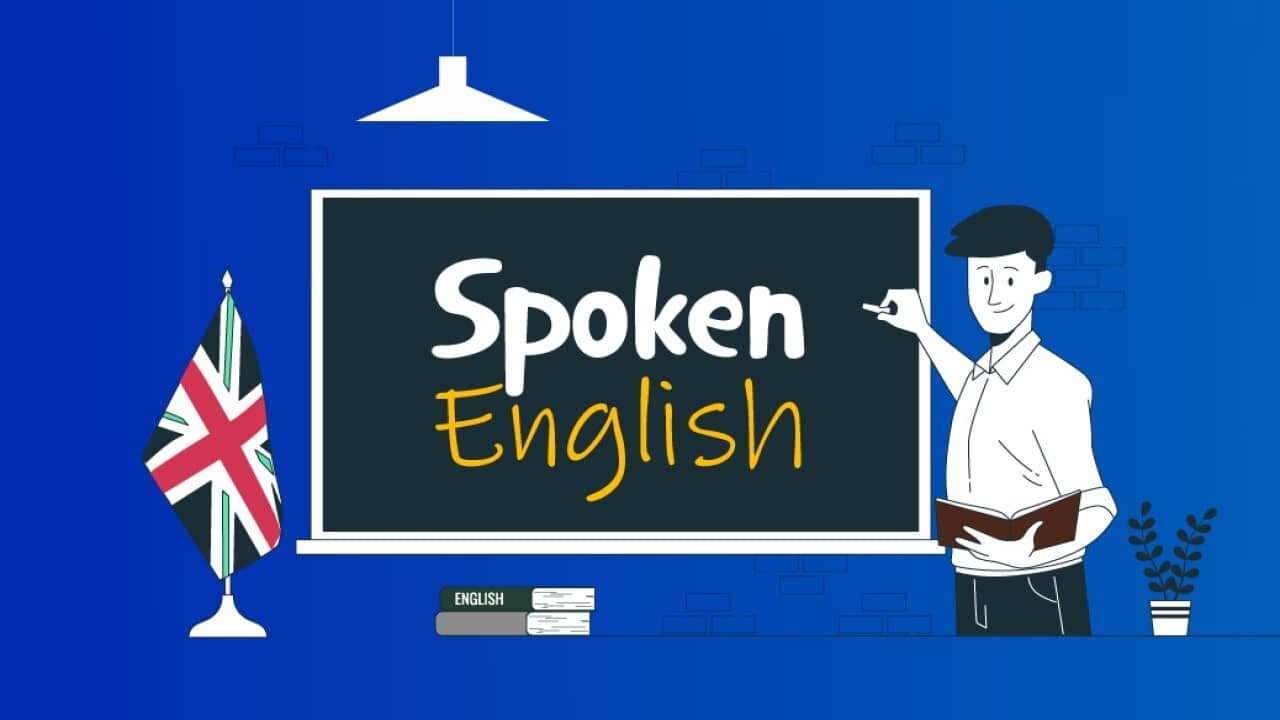
Summing Up
----------
English is truly a global language that can open doors to numerous opportunities for you - personal or professional. As we come to the end of our list of the top 10 spoken English institutes in Hyderabad, we have seen that the city offers plenty of choices for mastering this global language through spoken English classes—be it offline institutes or online platforms like [Clapingo](https://clapingo.com/). Whether you choose online tutoring with Clapingo or experiment with traditional offline classes in institutes around Hyderabad, the key lies in consistent practice and a dedicated approach.
Remember - every learning journey is unique! And while the dilemma between online and offline classes persists - consider Clapingo’s flexible session schedules and personalized approach offering a judgement-free environment catering to your specific needs from the comfort of home! No more fretting over traffic or missing out on lessons due to work schedule clashes! You can learn more about Clapingo's spoken English classes specifically catered to [Telugu-speaking](https://clapingo.com/blog/telugu-to-english-conversation) learners here: [Spoken English Classes in Telugu To Achieve Fluent English Communication](https://clapingo.com/product/spoken-english-telugu)
Keep striving and keep learning! With determination and perseverance, you can achieve excellent proficiency in spoken English right here in Hyderabad! After all, these are not just spoken English classes but stepping stones towards your brighter future!
### **You may want to read**
**[Software Recommendations for English](https://clapingo.com/blog/software-recommendations-english)
**
---
This blog is powered by Superblog. Visit https://superblog.ai to know more.
---
## Top 10 Spoken English Classes and Tutors in Jabalpur
Author: Unknown
Published: 2024-02-15
Meta Title: Discover the Best Spoken English Classes in Jabalpur.
Meta Description: Enhance your English speaking skills with these top-rated institutes offering online Spoken English courses in Jabalpur. Start your journey to fluency today!
Tags: best english coaching , english coaching jabalpur, english coaching in jabalpur, best english coaching jabalpur
URL: https://clapingo.com/blog/best-english-coaching-jabalpur
Contents
* [Clapingo Tutor - Shivani Rao (Online Classes)](#clapingo-tutor-shivani-rao-online-classes)
* [Madam Lobo’s Strides Classes (Online and Offline Classes)](#madam-lobos-strides-classes-online-and-offline-classes)
* [SAPE Spoken English Academy (Online and Offline Classes)](#sape-spoken-english-academy-online-and-offline-classes)
* [R K Global Institute (Online Classes)](#r-k-global-institute-online-classes)
* [Aadharshila Academy (Online and Offline Classes)](#aadharshila-academy-online-and-offline-classes)
* [IMS Institute (Online and Offline Classes)](#ims-institute-online-and-offline-classes)
* [The Globalizers Academy (Online Classes)](#the-globalizers-academy-online-classes)
* [Abhishek Sir English Classes (Online and Offline Classes)](#abhishek-sir-english-classes-online-and-offline-classes)
* [American Institute (Offline Classes)](#american-institute-offline-classes)
* [Institute Of Foreign Languages & Fabulous Faculties (Online and Offline Classes)](#institute-of-foreign-languages-and-fabulous-faculties-online-and-offline-classes)
* [Key Takeaways](#key-takeaways)
* [You may want to read](#you-may-want-to-read)

Have you ever wondered why spoken English is critical in today's modern Indian society? As our world gets increasingly globalised, fluency in English has become a prerequisite for professional success, social interactions and even personal growth.
One common misconception is that traditional classroom education is the only way to master English. Traditional classrooms, while providing basic language knowledge, often fail to focus on individual needs and the practical application of language skills. Furthermore, they are restricted by fixed schedules and geographical boundaries.
In contrast, online platforms like [Clapingo](https://clapingo.com) offer a more personalized and flexible learning experience. They allow learners to interact with native English speakers one-on-one, focusing on fluency, pronunciation and vocabulary enhancement. Furthermore, with an adaptable plan based on each learner's unique needs and a user-friendly platform, they make learning accessible to everyone.
This shift in learning approach has paved the way for numerous reputable tutors and coaching centres across India that specialize in spoken English coaching. Our goal is to compile a list of the 10 best English classes in Jabalpur that align with your specific requirements. Stay tuned!
Clapingo Tutor - Shivani Rao (Online Classes)
---------------------------------------------
Looking for the best spoken English classes in Jabalpur? Look no further than Shivani Rao! With over 4 years of experience as an English Grammar Teacher at Ashoka School Hall and 2 years as a Faculty in General Studies and English at DS IAS Classes, Shivani Rao has a proven track record of helping students excel in their language skills. Her expertise in organizing motivational classes and executing mock tests makes her one of the top choices for spoken English coaching in Jabalpur.
Madam Lobo’s Strides Classes (Online and Offline Classes)
---------------------------------------------------------
Madam Lobo's Strides Classes has been helping thousands of students improve their communication skills since 1984. This prominent institute offers courses in spoken English, soft skills, personality development, IELTS, and more. With a team of qualified teachers and a focus on individual attention, Madam Lobo's Strides Classes ensures that every student becomes a confident speaker of English.
SAPE Spoken English Academy (Online and Offline Classes)
--------------------------------------------------------
SAPE Spoken English Academy provides a range of training packages to meet learners' needs. Whether you prefer classroom sessions or e-learning opportunities at your own pace and schedule, they offer courses in IELTS preparation as well as Spoken English, TOEFL, PTE, and Online IELTS Training.
R K Global Institute (Online Classes)
-------------------------------------
R K Global Institute is known for its expertise in Spoken English courses as well as overseas educational consultancy. They offer various courses including IELTS General/Academic, PTE, Spoken English, Visa Services, Immigration Services, Study Abroad programs, and more.
Aadharshila Academy (Online and Offline Classes)
------------------------------------------------
Aadharshila Academy is a premiere institute for school students in Jabalpur. With qualified teachers having 18+ years of experience, Aadharshila Academy aims to provide quality education and English language training. Their small batch sizes ensure personalized attention, making learning effective and enjoyable.
IMS Institute (Online and Offline Classes)
------------------------------------------
IMS Institute has over 40 years of experience in shaping success stories. They offer training programs for IELTS, TOEFL, Spoken English, SAT, GRE/GMAT, Study Abroad options, and Personality Development. With their highly qualified and experienced teachers, they ensure students achieve their target scores.
The Globalizers Academy (Online Classes)
----------------------------------------
The Globalizers Academy is a prestigious overseas education consultancy in Jabalpur. They provide quality solutions in foreign education and offer courses in Spoken English, PTE, GRE/GMAT, IELTS, TOEFL, and Study Abroad programs.
Abhishek Sir English Classes (Online and Offline Classes)
---------------------------------------------------------
Abhishek Sir English Classes stands out for its comprehensive approach to English fluency. The courses focus on applying grammar rules in real conversations, enriching vocabulary, and daily conversational practice. With a blend of grammatical understanding, vocabulary expansion, and practical usage, Abhishek Sir’s classes offer a holistic approach to mastering spoken English, making them a top choice in Jabalpur.
American Institute (Offline Classes)
------------------------------------
American Institute brings the concept of overseas education to students' doorsteps. With its branch network and association with leading institutions worldwide, it offers Spoken English courses along with services like PTE coaching, IELTS training, interview preparation assistance, Global Education Services, and Visa Services.
Institute Of Foreign Languages & Fabulous Faculties (Online and Offline Classes)
--------------------------------------------------------------------------------
Institute Of Foreign Languages & Fabulous Faculties offers comprehensive coaching for IELTS, TOEFL, PTE, and Spoken English through its training system and facilities. They are committed to raising the standards of each candidate by providing personalized attention.
Key Takeaways
-------------

Here is a recap of the top ten best English-spoken classes in Jabalpur for you to consider:
* Clapingo Tutor Shivani Rao
* Madam Lobo’s Strides Classes
* SAPE Spoken English Academy
* R K Global Institute
* Aadharshila Academy
* IMS Institute
* The Globalizers Academy
* Abhishek Sir English Classes
* American Institute
* Institute Of Foreign Languages & Fabulous Faculties
While each of these institutions has its unique offerings, we'd like to highlight why Clapingo stands out amongst them.
At [Clapingo](https://clapingo.com), we believe in an individualized approach to learning English for non-native speakers. Our one-on-one personalised coaching sessions are conducted in your native language, focusing on fluency, pronunciation, vocabulary, and sentence structure – all attuned to your needs and schedule.
Our tutors are native English speakers who understand your challenges and mentor you with patience and expertise ([see them in action here](https://www.youtube.com/@Clapingo/playlists))[.](https://www.youtube.com/link\)\).) With our flexible session timings and diverse plans for different needs, we make sure that your learning experience is convenient yet impactful.
Our mission at Clapingo is to empower you with fluent English communication skills which can open up new professional avenues and personal experiences for you.
To experience the Clapingo advantage, [start your spoken English journey today](https://clapingo.com/book-instant-demo)[.](https://www.clapingo.com/signup\).)
### **You may want to read**
[60+ English Conversation Topics](https://clapingo.com/blog/english-conversation-topics)
---
This blog is powered by Superblog. Visit https://superblog.ai to know more.
---
## Top 10 Best Spoken English Classes in Kolkata
Author: Unknown
Published: 2024-02-15
Meta Title: Discover the Best Spoken English Institutes in Kolkata .
Meta Description: Looking to improve your English speaking skills? Explore the top 10 best online spoken English classes in Kolkata and find the perfect course for you.
Tags: best spoken english institute , Spoken English Institutes, spoken english, spoken english institute
URL: https://clapingo.com/blog/best-spoken-english-institute-kolkata
Contents
* [Clapingo Tutor - Priyanka Hussain (Online Classes)](#clapingo-tutor-priyanka-hussain-online-classes)
* [Clapingo Tutor - Aritraa Khastagir (Online Classes)](#clapingo-tutor-aritraa-khastagir-online-classes)
* [Clapingo Tutor - Ishika Singh (Online Classes)](#clapingo-tutor-ishika-singh-online-classes)
* [Henry Harvin (Online Classes)](#henry-harvin-online-classes)
* [Xbridge (Online Classes)](#xbridge-online-classes)
* [British Council-Kolkata English Learning Center (Offline Classes)](#british-council-kolkata-english-learning-center-offline-classes)
* [Veta (Offline Classes)](#veta-offline-classes)
* [FITA (Online Classes)](#fita-online-classes)
* [The Oxford Academy (Online and Offline Classes)](#the-oxford-academy-online-and-offline-classes)
* [L and S Language Academy (Online Classes)](#l-and-s-language-academy-online-classes)
* [Key Takeaways](#key-takeaways)

Have you ever wondered why spoken English has become such a crucial part of everyday life, especially in a multicultural city like Kolkata? In the evolving urban landscape, it's not just about reading or writing English anymore – speaking it fluently can significantly impact your personal and professional life. However, mastering spoken English doesn't necessarily entail enrolling in conventional classrooms. And here's why.
Traditional classrooms, while helpful, may not always address individual struggles or offer personalised attention. Not to mention the timing constraints and commuting hassles! But don't worry; online learning has emerged as a viable alternative. Platforms like [Clapingo](https://clapingo.com) not only provide one-on-one coaching sessions with native English speakers but also adapt their course plans to suit your unique needs.
So if you're residing in Kolkata and seeking to enhance your spoken English skills, we have some good news for you. We've handpicked the top 10 spoken English institutes and coaching centres that specialize in addressing unique language challenges faced by learners like you.
Clapingo Tutor - Priyanka Hussain (Online Classes)
--------------------------------------------------
Over the last 20 years, Ms. Priyanka Hussain has emerged as one of the best English teachers in Kolkata.
Recognized as a mentor by the Department of Education, USA, Priyanka's competence and patience have always been her standout traits. Since 2002, Priyanka has been tutoring ICSE and ISC students from reputed English medium schools in Kolkata. Her pedagogical methods extend beyond just rote learning; she emphasizes on holistic understanding of the subject matter. This is especially pertinent for non-native speakers who often struggle with grasping the nuances of spoken English.
Priyanka Hussain ranks among the top 10 spoken English institutes in Kolkata and is well-equipped to guide you through your journey towards mastering spoken English. Check out this Clapingo Conversation with Tutor Priyanka to get a taste of her classes.
Clapingo Tutor - Aritraa Khastagir (Online Classes)
---------------------------------------------------
Armed with a Master's degree in English and TESOL certification, Aritraa Khastagir is a shining example of dedication and hard work. She is an alumnus of the prestigious University of Calcutta, where she acquired her M.A. in English.
Aritraa's skill set broadens to include:
* **Creative Writing Proficiency**
* **Content Creation**
* **TESOL Certification**
* **Online Teaching Expertise**
With such an impressive array of skills, Aritraa leaves no stone unturned when it comes to guiding learners towards fluency in spoken English. Her high-quality training has consistently ranked Clapingo among the top 10 spoken English institutes in Kolkata, making it a preferred choice for aspiring speakers seeking the best spoken English classes in Kolkata.
Clapingo Tutor - Ishika Singh (Online Classes)
----------------------------------------------
Meet Ishika Singh, a passionate English tutor who is dedicated to transforming the spoken English skills of non-native speakers. What sets Ishika apart from other teachers? She brings value to her teaching through her extensive volunteer work.
Her approach focuses on enhancing students' fluency, pronunciation, vocabulary, and sentence structure—elements vital to excellent spoken English. As one of the best English teachers in Kolkata, she understands that each learner is unique and tailors her methods to suit their individual needs.
So if you're looking for the best spoken English classes in Kolkata that offer personalized attention and effective learning strategies—look no further. With tutors like Ishika, you're on your way to mastering the language with confidence.
Henry Harvin (Online Classes)
-----------------------------
With its reputation as one of the most renowned institutes in India, Henry Harvin stands out for its exceptional services. The institute ranks among the top 500 global tech companies and offers a variety of courses for individuals looking to improve their English speaking abilities. As part of their spoken English course, they provide comprehensive training to help students speak confidently and fluently. The course also focuses on enhancing reading skills at advanced levels.
Xbridge (Online Classes)
------------------------
Established in 2008, Xbridge has maintained its position as one of the leading institutes in Kolkata. Its courses focus on core grammar, informal sentence forms, vocabulary enhancement, and overall development of fluent speaking, listening, writing, and reading skills. Xbridge values top-end guidance for preparing students for the modern workplace, high virtue in providing English language proficiency, and ethnic inclusiveness by appreciating students' unique perspectives.
British Council-Kolkata English Learning Center (Offline Classes)
-----------------------------------------------------------------
When it comes to spoken English classes, nothing beats the British Council. Their knowledgeable instructors and engaging teaching methods make learning spoken English as simple as ABC. The small class size ensures that each student receives proper attention. The British Council offers various English-speaking courses in Kolkata, including general English, business English, and exam preparation courses.
Veta (Offline Classes)
----------------------
Veta has been a prominent brand in the field of spoken English training since its establishment in 1981. With specially tailored course materials for Indian learners, Veta offers comprehensive learning programs covering accent reduction, foundation building, and various other aspects of spoken English.
FITA (Online Classes)
---------------------
FITA Academy's Spoken English Course in Kolkata focuses on proper pronunciation, usage, phonetics, expressions, and sayings commonly used in English. Their integrated professional course equips learners with the essential skills and knowledge required for effective communication worldwide.
The Oxford Academy (Online and Offline Classes)
-----------------------------------------------
The Oxford Academy, established in 1999, is known for its methodical approach to teaching spoken English. Through a range of listening and speaking activities involving gestures, facial expressions, and visual aids, the academy focuses on accurate pronunciation and effective communication.
L and S Language Academy (Online Classes)
-----------------------------------------
L&S Language Academy has been teaching various languages in Kolkata for a long time. It is one of the top institutes in Kolkata for language instruction. With qualified teachers using different approaches for each language, they offer their services to people of all ages and occupations.

Key Takeaways
-------------
In this article, we've listed several spoken English tutors and classes that can end your search for the best spoken English institute in Kolkata. We've discussed how to assess the quality of a course, the importance of personalised attention, and the need for flexible learning schedules.
That's where [Clapingo](https://clapingo.com) shines[,](https://www.clapingo.com/\)*,) as an online English learning platform that offers comprehensive courses meticulously designed to cater to Indian learners' needs. Clapingo's uniqueness lies in its personalised approach with one-on-one coaching sessions delivered by native English speakers who can guide you in your native language. This tailored instruction focuses on fluency, pronunciation, vocabulary, and sentence structure.
Remember, our goal is not just learning a language—it's about gaining confidence, breaking barriers and opening doors to limitless opportunities. With comprehensive resources and dedicated teachers by your side at institutes like Clapingo and those listed as the top 10 spoken English institutes in Kolkata, you have all the tools necessary for success within your reach.
[Book an instant demo with Clapingo today](https://clapingo.com/book-instant-demo)!
### **You may want to read.**
[Mastering English: Fast Track to Fluency and Confidence](https://clapingo.com/blog/how-to-learn-english-fast)
---
This blog is powered by Superblog. Visit https://superblog.ai to know more.
---
## Exploring India's Challenges and Efforts with English Language Mastery
Author: Unknown
Published: 2024-01-24
Meta Title: India's English Proficiency: Challenges Despite Numbers
Meta Description: Explore reasons behind spoken English proficiency issues in India, the world's second-largest English-speaking nation. Discover strategies for improvement.
Tags: English Struggle , India's English Struggle , English proficiency issues, India's English Proficiency
URL: https://clapingo.com/blog/indians-struggle-to-speak-english
Contents
* [Why Do Indians Struggle To Speak English?](#why-do-indians-struggle-to-speak-english)
* [1\. The Role of Regional Languages and Dialects:](#1-the-role-of-regional-languages-and-dialects)
* [2\. Influence of Mother Tongue:](#2-influence-of-mother-tongue)
* [3\. Uneven Quality of English Education Across Regions:](#3-uneven-quality-of-english-education-across-regions)
* [What Are The Difficulties Faced By Indian Speakers While Speaking The English Language?](#what-are-the-difficulties-faced-by-indian-speakers-while-speaking-the-english-language)
* [Pronunciation Issues:](#pronunciation-issues)
* [Vocabulary Hurdles:](#vocabulary-hurdles)
* [Grammar and Spelling Quandaries:](#grammar-and-spelling-quandaries)
* [Inconsistent Accent:](#inconsistent-accent)
* [The Indianisms Conundrum:](#the-indianisms-conundrum)
* [What Are The Disadvantages Of Poor English Skills In India?](#what-are-the-disadvantages-of-poor-english-skills-in-india)
* [Overcoming The Struggles: Practical Tips and Strategies](#overcoming-the-struggles-practical-tips-and-strategies)
* [How Can Clapingo Help?](#how-can-clapingo-help)
* [Final Thoughts](#final-thoughts)
* [FAQs](#faqs)

Ever been in a situation where you're trying to articulate your thoughts in English, and words seem to elude you? It's surprising, isn't it, that many Indians struggle to speak English despite India standing tall as the world's second-largest English-speaking country? The answer lies not in lack of effort but in a few unique challenges faced by non-native English speakers in our nation.
The English language, with its complex rules and nuances, presents a maze of difficulties for an Indian speaker. The labyrinth extends from understanding sentence structures, grasping idioms and phrases, managing accents and pronunciation to conveying one's thoughts fluently. So what are the disadvantages of having low English proficiency in India? It's that poor language skills can hinder career growth, limit international exposure opportunities, and even impact personal relationships.
With limited exposure to spoken English in everyday life and a lack of structured learning environments, there is a considerable size of the population for whom accessing opportunities is extremely difficult when compared to their English-speaking peers.
This blog post is your compass out of this complex maze. We'll delve into why these challenges exist and the specific difficulties faced by Indian learners while speaking the English language, and offer practical ways to improve your proficiency. But worry not; we understand the journey may be arduous. Hence we aim to make the process enjoyable with relatable examples and scenarios tailored specifically for you! So buckle up for a voyage of discovery that will empower you with improved language skills!
Why Do Indians Struggle To Speak English?
-----------------------------------------
The road to mastering a language has many hurdles, and English is no exception. For many Indians, it’s a challenging journey indeed. With hundreds of regional languages and dialects across the nation, these linguistic diversities play a significant role in shaping one's English-speaking ability. Let's delve into this further.
### 1\. The Role of Regional Languages and Dialects:
India’s linguistic landscape is incredibly diverse. Each region has its own language or dialect—each with distinct grammar rules, pronunciation norms, and sentence structures. This variety can influence the way Indians learn and use English. For example, in Kerala, 'put the light' is often used instead of 'turn on the light', reflecting direct translations from Malayalam into English.
### 2\. Influence of Mother Tongue:
Mother tongue influence or MTI is another common challenge faced by Indian English learners. The syntax and vocabulary of one's native language can significantly affect their English pronunciation, grammar usage, and spelling accuracy. An example of phonetic differences affecting English pronunciation could be confusing 'v' and 'w' sounds since several Indian languages don't differentiate between them.
### 3\. Uneven Quality of English Education Across Regions:
The quality of English education varies greatly across India's urban and rural regions—teaching methods, curriculums, and teachers' proficiency levels—all differ substantially from place to place. In some regions where the focus is more on rote learning rather than practical application or understanding context, students often struggle with fluency and correct usage in real-life conversations.
Moreover, many schools teach English as a subject rather than as a communication tool. Consequently, students become proficient in written exams but stumble when speaking or writing informally.
Overcoming these challenges requires dedicated practice and guidance from experts who understand these unique hurdles faced by non-native speakers. Incorporating strategies like speaking English at home or practising with English-speaking friends can help. But for a more structured approach, consider seeking expert guidance like one-on-one personalised coaching that focuses on your specific challenges and learning style. Remember, where there's a will, there's a way. With consistent effort and the right support, mastering English is very much within your grasp.
What Are The Difficulties Faced By Indian Speakers While Speaking The English Language?
---------------------------------------------------------------------------------------

As a non-native speaker, you may find the English language to be a terrifying mixture of rules and exceptions. Alright, let's break down these challenges one by one.
### Pronunciation Issues:
Indian languages are syllable-timed, meaning each syllable gets equal time. English, on the other hand, is stress-timed with certain syllables receiving more emphasis. This leads to a common problem for Indians speaking English — mispronunciation. For instance, many Indians pronounce 'develop' as 'DEH-ve-lop', instead of the correct 'de-VEH-lop'.
### Vocabulary Hurdles:
English has borrowed words from many languages adding to its extensive vocabulary. Finding the right word amongst these thousands can often feel like looking for a needle in a haystack.
### Grammar and Spelling Quandaries:
If 'I before E except after C' is the rule, why isn't it 'soceity' instead of 'society'? English grammar and spelling rules are full of such contradictions making them difficult to grasp.
### Inconsistent Accent:
A mix of British and American accents is common among Indian speakers due to varying influences. This often leads to confusion while communicating with native speakers. On top of this, there is the aforementioned problem with the Indian English accent being highly influenced by the regional languages.
### The Indianisms Conundrum:
Indianisms refers to English phrases or terms that have been modified in usage by Indians. "I am having a pencil" or "kindly revert back" may sound perfectly fine to us but can confuse native speakers who would say "I have a pencil" or "please reply".
Remember, it's perfectly okay to make mistakes. Learning a new language is a journey and not a race. As you continue to practice and learn, these challenges will seem less daunting, and you'll find yourself more comfortable in expressing your thoughts in English.
To tackle pronunciation problems specific to Indian English speakers, check out YouTube videos addressing common pronunciation mistakes made by Indian speakers. By being aware of these mispronunciations and actively working on avoiding them, you'll see noticeable improvements in your spoken English.
What Are The Disadvantages Of Poor English Skills In India?
-----------------------------------------------------------
For many non-native speakers in India, poor English skills can act as a barrier to personal and professional growth. In the digital age of global communication, proficiency in English is no longer a luxury but a necessity.
In social interactions, limited English proficiency may prevent you from connecting with people outside your native language group. This can restrict your social circle and limit your exposure to diverse cultures and ideas.
Here are some areas where poor language skills can hamper progress:
**1.** **Job Opportunities**: Many employers require proficient English for higher-level positions.
**2\. Career Advancement**: Without strong English skills, you might struggle to express yourself effectively in meetings or presentations, impacting your career progression.
**3\. Education**: Higher education often requires a thorough understanding of academic texts that are mostly written in English.
**4\. Online Communication**: Social networking sites, forums and blogs are predominantly in English. If you struggle with the language, you might not be able to participate fully or communicate effectively online.
**5\. Travel Abroad**: Travelling internationally becomes challenging without strong English skills due to the language being widely spoken globally.
**6\. Cultural Understanding**: Many global movies, songs, and books are released primarily in English which might limit your exposure to worldwide culture and arts.
To overcome these challenges, it's important to enhance your knowledge of proper language skills through regular practice and learning resources.
Remember that improving your English is an ongoing process—but every step you take brings you closer to better job prospects, richer cultural experiences, and a more fulfilling social life. So, don't let the fear of making mistakes deter you. With determination and consistent efforts, you can master English and open doors to infinite opportunities.
Overcoming The Struggles: Practical Tips and Strategies
-------------------------------------------------------

Navigating the complexities of English grammar and spelling might seem daunting, but remember, practice makes perfect. Here’s your step-by-step guide to enhance your skills:
Step 1
Practise Regularly
Aim to use English in your day-to-day activities. Whether it's reading a newspaper or participating in discussions, ensure English becomes part of your routine.
Step 2
Read Extensively
Reading exposes you to different writing styles and vocabulary usage. Start with easy books or blogs before progressing to more complex literature.
Step 3
Engage with Authentic English Content
Listen to English podcasts, watch movies or series in English, and engage with native speakers whenever possible. This not only improves your pronunciation but also helps understand the context in which words are used.
Step 4
[Improve Your Vocabulary](https://clapingo.com/blog/how-to-improve-vocabulary-in-english)
Keep a pocket dictionary or dictionary app handy. Whenever you come across an unfamiliar word, look up its meaning, and usage and try incorporating it into your conversations.
Step 5
[Use Language Learning Apps](https://clapingo.com/blog/best-apps-english-speaking)
Utilize language learning apps that provide interactive exercises for improving grammar and vocabulary.
In addition to these steps, revisit the basics occasionally. Our comprehensive guide [Unlocking the Secrets of English Grammar: A Practical Guide](https://clapingo.com/blog/learning-english-grammar-step-by-step) offers a deep dive into the essential grammatical rules and provides useful strategies for mastering them.
Remember, it's okay to make mistakes while learning. The journey of language mastery is filled with trials and errors. Make note of errors, learn from them and strive not to repeat them.
How Can Clapingo Help?
----------------------
Perfecting English as a non-native speaker can be intimidating and challenging, especially when it comes to grammar and spelling intricacies. This is where [Clapingo](https://clapingo.com/) steps in by offering personalised coaching tailor-made for Indian learners. Whether you're a student or a professional, Clapingo's one-on-one sessions with native English speakers can help you overcome these hurdles and enhance your language skills.
A standout feature of Clapingo's classes is that the coaching is also conducted in the learner's native language. This method ensures that concepts are easily understood and removes any potential learning barriers created by language differences. As an Indian learner, this means you’ll receive instructions in Hindi, Bengali, Telugu – or whichever regional language you're comfortable with - making the learning process smooth and effective.
Clapingo also recognises the importance of flexibility in today's fast-paced world. The platform offers adaptable plans and allows learners to schedule classes at their convenience. Be it early morning before office hours or late evening after dinner; you can sit down for your English lessons without disturbing your daily routine.
The one-on-one coaching model is another feature of Clapingo. With this approach, each session becomes a focused learning experience customised to meet your specific requirements. You get undivided attention from your tutor, which guarantees progress at your pace. Moreover, it encourages open communication and creates an environment where learners feel free to ask questions without fear of judgment.
Whether it's building vocabulary, honing pronunciation skills, understanding sentence structure or mastering grammar rules – Clapingo offers comprehensive solutions aimed at enhancing fluency in English for non-native speakers.
To sum up, overcoming language barriers requires dedication and the right guidance. With its personalised approach, native language coaching, flexible scheduling options and one-on-one classes – Clapingo provides just that. So if you're grappling with English skills, Clapingo can be your trusted ally in conquering these challenges.
You can check out this video to know more:
Final Thoughts
--------------
As we draw this enlightening journey to a close, let's recap the main insights we've delved into throughout this blog post. We've highlighted why many English-speaking Indians grapple with grammar and spelling skills despite India's large English-speaking population. Mistakes in language usage, from incorrect tenses to misspelt words, primarily arise from a lack of quality education and exposure to regional dialects.
However, the beauty of learning is that it's an ongoing process; occasional errors are stepping stones on your path to fluency. Remember that persistence is key. Don't get disheartened by minor hiccups or stumble over your syntax and spelling. Take these challenges in stride as they help you grow into a more confident and polished speaker.
Just as a seed needs the right environment to bloom into a beautiful flower, you too require the right resources and guidance to master English. This is where [Clapingo](https://clapingo.com/) steps into your learning journey. With our dedicated team of native English speakers ready to coach you in your language, Clapingo offers personalised sessions focusing on fluency, pronunciation, vocabulary enhancement, and sentence construction.
In conclusion, let's embrace the idiosyncrasies of English together! Take charge of your learning journey with determination and vigour because every step you take brings you closer to your goal - mastering English with confidence and grace!
So go ahead; discover your potential with Clapingo and embark on an exciting journey toward achieving fluency in English!
FAQs
----
1\. Is English hard to learn for Indians?
Language learning is subjective and varies from person to person. English can definitely be challenging for Indians due to the stark grammatical and phonetic differences with native Indian languages. However, constant practice, exposure, and perseverance can make it easier. Our coaches at Clapingo can provide personalized sessions to help you overcome these challenges.
2\. Why is Indian English different?
Indian English has its uniqueness due to the influence of numerous local languages on vocabulary, pronunciation, and syntax. This sometimes leads to new phrases or words that are distinctively Indian.
3\. What are the common mistakes made by students studying English in India?
Common mistakes range from incorrect verb usage, misplaced prepositions, chaotic sentence construction, and incorrect tenses, to articulating a thought clearly in English without translating literally from their mother tongue.
---
This blog is powered by Superblog. Visit https://superblog.ai to know more.
---
## English Proficiency in Indian Education: Essential or Optional?
Author: Unknown
Published: 2024-01-23
Meta Title: The Necessity of Spoken English in India: An Analysis
Meta Description: Explore the importance of spoken English in the Indian education system. Find it out how it boosts personal and professional growth for a better future.
Tags: India's English Proficiency, Indian Education, English Proficiency, English Language Necessary, Tips to improve english
URL: https://clapingo.com/blog/english-speaking-skill-compulsory
Contents
* [Is English Language Necessary In Education?](#is-english-language-necessary-in-education)
* [1\. Prevalence of English as a medium of instruction:](#1-prevalence-of-english-as-a-medium-of-instruction)
* [2\. Better understanding of subjects taught in English:](#2-better-understanding-of-subjects-taught-in-english)
* [3\. Scenarios faced by students struggling with weak spoken English skills:](#3-scenarios-faced-by-students-struggling-with-weak-spoken-english-skills)
* [4\. Doors opened to higher education opportunities:](#4-doors-opened-to-higher-education-opportunities)
* [Why Is Learning English Compulsory In India? The Professional Aspect](#why-is-learning-english-compulsory-in-india-the-professional-aspect)
* [1\. Contrast in Job Opportunities:](#1-contrast-in-job-opportunities)
* [2\. Conversations Between Interviewers and Candidates:](#2-conversations-between-interviewers-and-candidates)
* [3\. Career Advancement:](#3-career-advancement)
* [Practical Tips To Improve Spoken English for Education and Career](#practical-tips-to-improve-spoken-english-for-education-and-career)
* [How Can Clapingo Help?](#how-can-clapingo-help)
* [Flexibility of Session Scheduling:](#flexibility-of-session-scheduling)
* [Tailored Plans for Your Success:](#tailored-plans-for-your-success)
* [Focus on Individual Needs:](#focus-on-individual-needs)
* [Final Thoughts](#final-thoughts)
* [FAQs](#faqs)

Imagine being a well-educated Indian professional, brimming with knowledge and expertise in your field. You have acquired an impressive list of qualifications and possess the necessary skills to excel in your chosen profession. However, there is one aspect that leaves you feeling somewhat handicapped - your lack of fluency in spoken English.
In a country where English is often considered a symbol of higher education and social status, not being able to speak the language proficiently can put you at a disadvantage. This scenario is relatable to many individuals who find themselves struggling due to their limited English communication skills.
It's important for us to empathize with this situation because it highlights the significance of spoken English in the context of education and career progression. Mastery of spoken English has become increasingly essential for professional growth and personal development. In today's globalized world, proficiency in English opens up doors to better education, job prospects, and overall personal growth.
In this blog post, we will delve deeper into why mastering spoken English is crucial for educational success in India. We will explore the various reasons why fluency in this language has become a prerequisite for professional advancement. So let's embark on this journey together and discover how learning perfect sentence formation in English online can further enhance our educational pursuits!
Is English Language Necessary In Education?
-------------------------------------------
English education plays a crucial role in India for several reasons. Not only is English widely spoken and understood, but it also serves as the medium of instruction in many Indian schools. Let's take a closer look at why English education holds such significance in India:
### 1\. Prevalence of English as a medium of instruction:
* A significant number of Indian schools conduct classes in English, making it essential for students to have a good grasp of the language.
* According to recent statistics, around 40% of Indian schools use English as their primary medium of instruction.
* This prevalence emphasizes the importance of learning and mastering English for students to succeed academically.
### 2\. Better understanding of subjects taught in English:
* Fluency in spoken English enables students to comprehend and engage with subjects taught in that language more effectively.
* When students struggle with weak spoken English skills, they may find it challenging to understand complex concepts presented in their textbooks or during lectures.
### 3\. Scenarios faced by students struggling with weak spoken English skills:
* Limited proficiency in spoken English can lead to difficulties in participating actively in classroom discussions and expressing ideas clearly.
* Students may face challenges while writing essays, giving presentations, or answering oral examination questions confidently due to language barriers.
### 4\. Doors opened to higher education opportunities:
* A good command of spoken English can open doors to higher education both within India and abroad.
* Many prestigious universities abroad require strong English language skills as part of their admission criteria.
To improve proficiency in spoken English, students can adopt the following strategies:
1. **Consistent practice:** Engage in regular conversations with fluent speakers or join language exchange programs.
2. **Enrol in an online course:** Platforms like Clapingo offer courses specifically designed to improve speaking skills ("[Breaking through Language Barriers: How to Improve English Speaking Skills](https://clapingo.com/blog/how-improve-english-speaking-skills)").
3. **Watch English movies or TV shows:** This helps in developing listening skills and understanding different accents.
4. **Read English books and newspapers:** Enhance vocabulary and understanding of grammar rules.
5. **Practice pronunciation:** Utilize online resources, such as YouTube videos or language learning apps, to improve pronunciation.
By adopting effective strategies, students can enhance their proficiency in spoken English and pave the way for a successful academic journey.
Why Is Learning English Compulsory In India? The Professional Aspect
--------------------------------------------------------------------
In today's increasingly globalized world, the ability to speak English fluently has become more than just an advantage - it has become a necessity, especially in the professional domain. Let's explore why learning English is compulsory in India from a professional perspective.
### 1\. Contrast in Job Opportunities:
Is it necessary to speak English in India? Yes, at least to a good extent. Fluency in spoken English opens up a plethora of job opportunities that are otherwise inaccessible to those who are not proficient in the language.
### 2\. Conversations Between Interviewers and Candidates:
Why is English important in India's education? Well, during job interviews, conversations between interviewers and candidates often revolve around assessing communication skills - with spoken English being a significant component. To demonstrate this contrast, let's examine two hypothetical scenarios:
a) **Interviewer**: "Tell me about yourself and your qualifications."
**Candidate A** (Fluent In English): confidently articulates their achievements and skills, leaving a lasting impression on the interviewer.
**Candidate B** (Not Fluent In English): struggles to express themselves, leading to a lack of clarity about their potential contributions.
b) **Interviewer**: "Can you explain your previous work experience?"
**Candidate A**: eloquently describes their roles and responsibilities, effectively communicating their expertise.
**Candidate B**: fumbles with words and fails to convey their accomplishments convincingly.
In both scenarios, it is highly likely that Candidate A will be selected and Candidate B will face rejection.
### 3\. Career Advancement:
Why English language is necessary for students? Improving spoken English skills can significantly aid career advancement. Whether it's networking with professionals from diverse backgrounds or delivering impactful presentations, effective communication is key. Proficiency in spoken English allows individuals to express themselves clearly, engage with colleagues and clients, and demonstrate their expertise confidently.
Moreover, employees who possess strong English language skills are more likely to be considered for promotions or leadership positions. This is because effective communication is essential for managerial roles that involve coordinating teams, negotiating deals, and presenting ideas.
To delve deeper into the professional advantages of learning English in India, you can refer to the academic article "The Returns to English-Language Skills in India". It provides valuable insights into the correlation between English proficiency and job prospects in various sectors.
Practical Tips To Improve Spoken English for Education and Career
-----------------------------------------------------------------

Is learning English compulsory in India? While it may not be mandatory, having strong spoken English skills can significantly enhance your educational and career opportunities. Here are some practical tips to help you improve your spoken English:
1. **Immerse Yourself in English:** Surround yourself with the language as much as possible. Listen to English podcasts, watch movies or TV shows in English, and read books or articles in English. This constant exposure will help you become more familiar with the language and its nuances.
2. **Practice Speaking Daily:** Consistency is key when it comes to improving your spoken English. Set aside dedicated time each day to practice speaking. You can do this by engaging in conversations with friends or family members who are fluent in English, joining conversation clubs or language exchange programs, or even recording yourself speaking and listening back to identify areas for improvement.
3. **Focus on Pronunciation:** Pay attention to how native speakers pronounce words and try to mimic their intonation and stress patterns. Practice pronouncing difficult sounds and words, using resources like pronunciation guides or online videos.
4. **Expand Your Vocabulary:** A rich vocabulary is essential for effective communication. Make it a habit to learn new words every day and use them in your conversations or writing exercises. Online vocabulary-building platforms like Clapingo can be immensely helpful in this regard.
5. **Learn Grammar Rules:** Correct grammar usage is crucial for clear communication. Brush up on grammar rules through online courses, books, or videos specifically designed for non-native speakers of English.
6. **Listen Actively:** When engaging in conversations or listening to native speakers, focus on understanding both the content and context of what is being said. Take note of new words or phrases you come across and try incorporating them into your own speech.
7. **Record Yourself Speaking:** Recording yourself speaking allows you to analyze your pronunciation, intonation, and fluency. It helps you identify areas that need improvement and track your progress over time.
8. **Seek Feedback:** Don't be afraid to ask for feedback from English speakers or language tutors. They can provide valuable insights into areas where you can improve and suggest specific exercises or resources to help you overcome challenges.
9. **Practice Speaking in Real-Life Situations:** Take every opportunity to practice speaking English, even in simple day-to-day situations like ordering food at a restaurant or asking for directions. This will help build your confidence and fluency.
10. **Use Technology to Your Advantage:** There are numerous language learning apps, websites, and platforms available that can assist you in improving your spoken English skills. Explore these resources, such as Clapingo's online courses or interactive speaking exercises.
By incorporating these tips into your daily routine, you can gradually enhance your spoken English skills and open up new educational and career opportunities for yourself.
For more detailed tips on improving English speaking fluency, check out our article "[How to Improve English Speaking Fluency: 27 Simple Tips](https://clapingo.com/blog/how-improve-english-speaking-fluency)." Additionally, if you're looking for additional resources to aid in your English learning journey, take a look at our recommended list of "[Top 35 Books To Help You With English Learning](https://clapingo.com/blog/english-learning-books)."
Remember, while mastering spoken English may not be compulsory for education in India, it certainly plays a crucial role in expanding your horizons and succeeding in today's globalized world.
How Can Clapingo Help?
----------------------
Clapingo offers personalized coaching sessions specifically designed to meet your individual needs and help you excel in spoken English. Let's dive into how Clapingo can assist you on your language learning journey.
### Flexibility of Session Scheduling:
At Clapingo, we understand that everyone has different schedules and commitments. That's why we offer flexible session scheduling to accommodate your availability. Whether you're a busy professional or a student with a packed timetable, we will work with you to find the best time for your coaching sessions.
### Tailored Plans for Your Success:
Clapingo believes in personalized learning experiences. Our native-speaking coaches will assess your language proficiency and create customized plans tailored to your unique goals, strengths, and areas for improvement. Whether you need assistance with pronunciation, grammar, vocabulary, or fluency, our coaches will provide targeted guidance to help you reach your full potential.
### Focus on Individual Needs:
At Clapingo, we prioritize the individual needs of our learners. Our coaches take the time to understand your specific challenges and focus on addressing them effectively. With one-on-one coaching sessions, you have the undivided attention of an expert coach who will guide and support you every step of the way.
Through flexible session scheduling, tailored plans designed for individual success, and a strong focus on meeting individual needs, Clapingo provides an exceptional learning experience that empowers learners to excel in spoken English. You can [book a quick demo](https://clapingo.com/book-instant-demo) for just INR 99.
Final Thoughts
--------------
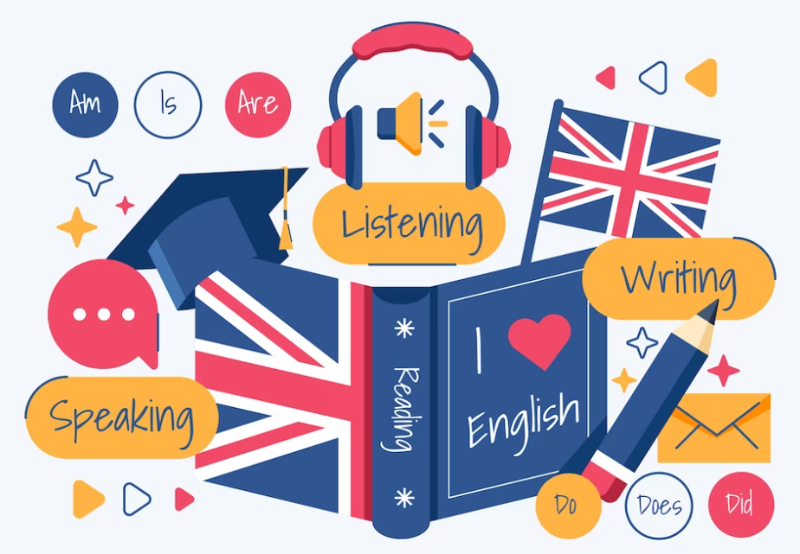
Let's summarize the key points from each section. We explored the importance of English in Indian education and professional sectors, discussed the challenges faced by non-English speakers, and examined how English proficiency can enhance career prospects.
Throughout this article, we have emphasized the significance of mastering spoken English in India. The ability to communicate effectively in English is not only essential for educational success but also crucial for professional development.
To reiterate, English language skills are necessary in education as they enable students to access a wealth of knowledge and resources. They facilitate understanding and engagement with academic subjects taught in English-medium institutions.
In the professional sphere, proficiency in spoken English is highly valued by employers across various industries. It enhances one's chances of securing employment by demonstrating effective communication skills, critical thinking abilities, and cultural adaptability.
Now that you understand the importance of developing fluency in spoken English, let me encourage you to continue your journey towards mastery with [Clapingo](https://clapingo.com/). Whether you're a beginner or looking to refine your existing skills, Clapingo offers comprehensive courses designed specifically for Indian learners.
So why wait? Start your language learning adventure with Clapingo today and embark on a fulfilling journey towards English fluency that will transform your education and career prospects.
FAQs
----
1\. Is it necessary to speak English in India?
English is not a compulsory language for education in India, but it is highly recommended and widely used. Many universities and schools across the country teach in English, and proficiency in the language can significantly enhance educational opportunities and career prospects. English is also the primary language used for communication in various professional fields, such as business, technology, and medicine.
2\. Why is English important in Indian education?
English holds immense importance in Indian education for several reasons. Firstly, it provides access to a vast range of educational resources like books, research papers, online courses, and academic journals that are predominantly available in English. Secondly, it enables students to connect with a global community of scholars and professionals, fostering cross-cultural understanding and collaboration. Lastly, learning English equips students with effective communication skills required for higher studies or employment opportunities abroad.
3\. Is learning English compulsory in India?
While English may not be compulsory at all educational institutions in India, it is increasingly becoming an essential skill due to globalization and the growing need for cross-border collaboration. Proficiency in English opens up more opportunities for higher education, job placements, and international exposure. As a result, many students choose to learn English as an additional language alongside their native tongue.
4\. Why English language is necessary for students?
Yes, knowledge of the English language is necessary for students due to its global significance. Having a strong command of English enables students to effectively communicate their ideas both orally and through writing. It enhances their critical thinking skills by exposing them to diverse perspectives from around the world through literature and other forms of media. Additionally, proficiency in English facilitates personal growth by broadening horizons and expanding intellectual capabilities.
---
This blog is powered by Superblog. Visit https://superblog.ai to know more.
---
## Linguistic Forecast : When Will India Embrace English?
Author: Unknown
Published: 2024-01-23
Meta Title: India as an English-Speaking Nation: Impact & Possibilities
Meta Description: Explore the impact and possibilities of India becoming an English-speaking country and weigh the advantages and disadvantages of speaking English in future.
Tags: Future Of English In India, Benefits Of English, Benefits Of English In India, English Speaking Country
URL: https://clapingo.com/blog/when-india-become-english-speaking-country
Contents
* [Introduction](#introduction)
* [Is English Really A Foreign Language In India?](#is-english-really-a-foreign-language-in-india)
* [What will be the Future of English in India?](#what-will-be-the-future-of-english-in-india)
* [What Are The Benefits Of English In India?](#what-are-the-benefits-of-english-in-india)
* [Will India Become an English-Speaking Country?](#will-india-become-an-english-speaking-country)
* [Is it Good or Bad for India if it Becomes an English-Speaking Country?](#is-it-good-or-bad-for-india-if-it-becomes-an-english-speaking-country)
* [Bridging The Language Gap: How Can Indians Enhance Their English Skills?](#bridging-the-language-gap-how-can-indians-enhance-their-english-skills)
* [Summing Up](#summing-up)
* [FAQs](#faqs)

Introduction
------------
Have you ever been in a situation where you're struggling to express your thoughts in English at your workplace or social gathering? In today's interconnected and globalized world, English has emerged as the universal language, shaping the way we communicate, learn, and even work. [Being fluent in English](https://clapingo.com/blog/best-way-learn-english) is no longer just an added advantage, but rather a prerequisite for both personal growth and professional advancement.
This brings us to the intriguing question - will India become an English-speaking country? As curious as it sounds, this query has its roots grounded in reality. India is indeed witnessing an exponential increase in people seeking to enhance their English proficiency.
But with this shift come concerns, too. Will our native languages lose their relevance? How will it impact our cultural identity? What will be the future of English in India? Language can either be a barrier restricting one's potential or a tool empowering individuals depending on one's proficiency level. That said, the scale at which English penetrates our lives is undeniable.
This article delves into the implications of such a linguistic shift for India's future. So buckle up for an enlightening journey through language corridors.
Is English Really A Foreign Language In India?
----------------------------------------------
The journey of English in India, post-British colonial era, is an intriguing tale of acceptance and adaptation. As we dig deeper into history, it's evident that English is far from a foreign entity in the Indian context.
Following Independence, instead of disowning the linguistic legacy of our colonisers, we embraced English as an associate official language. Why so? The answer lies in the multifaceted role that English plays within our socio-political fabric.
English has pervaded various sectors in India:
* **Administration**: English is predominantly used for legislative, administrative, and judicial purposes.
* **Education**: It's the medium of instruction in many schools and universities.
* **Business**: Globalisation has made it indispensable for trade and commerce.
* **Media**: Newspapers, magazines, television broadcasts – you'll find English everywhere!
These indicate that English isn't exactly a foreign language in India. It's more like a bridge that connects our diverse linguistic landscape. Do you know the rank of India in terms of English-speaking proficiency? According to the EF English Proficiency Index, India currently ranks 60th out of 113 countries. This is interesting considering how India has one of the largest populations in the world who uses English as either a second or third language.
So while English might technically be a foreign language to India, its widespread use has embedded it deep within the country's fabric. From professional settings to everyday interactions, the echoes of English can be heard across the length and breadth of India. As such, mastering this 'foreign' tongue can open doors to myriad opportunities for personal growth and professional advancement.
What will be the Future of English in India?
--------------------------------------------
With over 125 million English speakers, India stands second only to the US. However, what does the future hold for English in the Indian landscape? Let's delve into this intriguing question.
According to recent language surveys, the use of English in India is predicted to rise sharply in the coming decades. Several contributing factors influence this potential shift. Globalization is certainly at the forefront; as businesses expand across borders, fluency in English - the universal business language - becomes indispensable. Moreover, digitization demands a basic proficiency in English, given that a significant portion of digital content is produced in this language. Another key driver is the changing job market landscape with an increasing demand for proficient English speakers.
Thus, while it may be unlikely that India will become an entirely English-speaking country due to its vast linguistic diversity and cultural richness, we can certainly expect a substantial increase in English usage. At this critical juncture of evolving global dynamics, mastering English can open doors for professional growth and personal development.
What Are The Benefits Of English In India?
------------------------------------------

The merits of mastering English in India stretch far beyond personal development. Let's dissect the potential benefits across various spheres - personal, professional, and national.
### **Benefits of English**
### **Why It Matters**
Increased Job Opportunities
Most multinational corporations and tech giants prefer employees who are fluent in English.
Ease of International Communication
English is a universal language that simplifies communication with people from different regions.
Access to Global Knowledge Resources
Most research papers, journals, textbooks, and online resources are published in English.
From a personal standpoint, fluency in English opens doors to a world of opportunities, be it travelling internationally or accessing an ocean of global content on the web. Culturally, it broadens our horizons as we delve into different forms of arts such as literature, cinema and music from all over the world.
Professionally, English proficiency can significantly improve your career prospects. Whether you're planning to work for a global giant or aim at advancing your career abroad, strong English skills will put you one step ahead in the competitive job market.
At a national level, the importance of English cannot be understated. It serves as a link language in our multilingual country fostering unity amid diversity. Moreover, it enables us to engage confidently at international forums and negotiate effectively on global platforms.
Hence, mastering English isn't just about enhancing your social interactions or impressing folks around you; it's about leveraging this global language to boost your career growth while contributing positively to the nation's development.
Will India Become an English-Speaking Country?
----------------------------------------------
As we delve into this fascinating question, it's essential to remember that India is a multi-lingual nation with 22 official languages. However, the trend of integrating English into various spheres of life, especially education and professional fields, has escalated over the years. Here are some factors to take into consideration:
* **Education policies**: Education policies in India have increasingly emphasised English language learning. Even the recent National Education Policy (NEP) 2020 emphasizes the three-language policy in schools, with English as one of the primary choices. This certainly hints at a future where more Indians are proficient in the language.
* **Technology integration:** Technology integration has played a pivotal role in bridging the linguistic gaps. Numerous English learning apps have emerged, making learning accessible for everyone with a smartphone and internet connection. This digital revolution only aids the progression towards an increased number of English speakers.
* **Economic development:** This is another key driving factor. With globalisation and foreign direct investments on the rise, fluency in English is increasingly seen as a key competitive advantage in the job market.
However, challenges persist. Regional language preservation is one such issue. Many fear that overemphasis on English may lead to cultural erosion and loss of local languages. Additionally, socio-economic disparities often result in unequal access to quality education and resources necessary for mastering English.
Hence, while it's unlikely that India will become an entirely English-speaking nation considering its linguistic diversity, what we can expect is an increasing number of proficient English speakers fuelled by changing educational policies, technology integration and economic advancements. We can expect this shift in the near future, maybe India will wholeheartedly embrace English in the coming decade.
This YouTube video offers insights into how India's multilingual identity meshes with its affinity towards English: The "Minute" That Made India An English-Speaking Country
Is it Good or Bad for India if it Becomes an English-Speaking Country?
----------------------------------------------------------------------
If India was to become an English-speaking country, there would undoubtedly be concerns about the potential loss of cultural identity if native languages were sidelined. The diversity of India's regional languages is a reflection of its rich cultural tapestry, and maintaining these languages alongside English proficiency is crucial to keeping this heritage alive.
However, it's essential to remember that embracing English doesn't necessarily mean abandoning our mother tongues. Multilingualism, the ability to use multiple languages proficiently, is prevalent in many parts of the world. In fact, with the right approach, Indians can maintain their linguistic diversity while also achieving English proficiency. It's possible for India to be a multilingual nation where English is one of the commonly spoken languages, similar to countries like Canada and Switzerland.
Nationwide English proficiency can also significantly enhance India’s standing on a global scale. With English being the lingua franca in many international domains, from business to academia, India would be well-positioned for accelerated economic growth.
While valid concerns exist about the potential erosion of native languages, it appears that with careful planning and execution, multilingualism can coexist with nationwide English proficiency. Ultimately, this scenario could enhance India’s global standing without sacrificing our rich linguistic heritage. In essence, becoming an English-speaking country shouldn't mean losing touch with our roots; instead, it can open up new pathways for personal and national advancement - bringing us closer to our goal of being a truly global power.
Bridging The Language Gap: How Can Indians Enhance Their English Skills?
------------------------------------------------------------------------

As we have discussed, improving English skills is a vital part of bridging the language gap that many Indians face. It's important to remember that mastering English as a second language is not a race, but a personal journey. It is like trekking up the Himalayas; daunting at first, but rewarding once you reach the peak. It's about perseverance and taking ownership of your learning path. Let's look at a few strategies that can help bridge this language gap.
**1\. Daily Practice**: Just like Yoga strengthens your body, regular practice strengthens your command over the English language. Dedicate at least 15 minutes every day to read an English newspaper or watch an English documentary.
**2\. Learning the Fundamentals**: [Understanding basics](https://clapingo.com/blog/learn-basic-english) including grammar rules, punctuation and sentence structure plays a crucial role in learning English. For example, knowing the difference between 'its' (possessive) and 'it's' (it is) can make your sentences clear.
**3\. Building Vocabulary**: Learning new words every day can [enhance your vocabulary](https://clapingo.com/blog/how-to-improve-vocabulary-in-english) and make you more fluent. Use phrases like "accumulated experience" instead of "experience gained over time" to sound more professional.
**4\. Use Technology**: Make use of free language learning apps and websites. They offer interactive exercises, quizzes and video lessons that make learning fun and engaging.
**5\. Join a Language Learning Platform**: Personalised learning platforms like [Clapingo](https://clapingo.com/) offer focused, one-on-one sessions with native English speakers who understand your struggles and guide you through them.
Clapingo makes learning easy with its flexible schedules and diverse plans suited for different needs. Whether you're struggling with sentence construction or pronunciation, Clapingo’s tutors are there to assist you. Their structured 5-step course ensures you learn at a pace that's comfortable for you, improving fluency in everyday conversations.
Remember the adage "Practice makes perfect". In this case, practice makes fluent English speakers! So go ahead and take the first step towards bridging the language gap today.
Check out this YouTube video to learn more:
Summing Up
----------
Reflecting on this journey, we've explored the trajectory of English in India, its potential to become an English-speaking country, and the implications thereof. We've walked through challenging terrains of contrasting viewpoints, deconstructing stereotypes that paint English as a threat. Instead, we've introduced you to the vibrant landscape where English blooms as an opportunity – a tool of empowerment.
Now comes your role in shaping this future. It's time to seize this opportunity and master English fluency not out of compulsion, but with a genuine desire to grow personally and professionally. Remember, fluency in any language is a reflection of your dedicated practice and understanding; it is no magic trick that happens overnight.
So, what's stopping you from taking that first step? Transform your perspective towards English; view it not as a daunting mountain to conquer but as an exciting trail to embark on. Your language skills can only improve if you decide to work on them actively.
Take action today; usher in change with small yet significant steps towards proficient English communication. If you're wondering how to start, remember that help is just a click away. Explore the world of [Clapingo](https://www.clapingo.com/), where one-on-one personalized coaching sessions are designed for learners like you. It’s high time we turned the tables and made English our strength rather than a hurdle!
FAQs
----
**1\. Is knowing English necessary in India?**
Yes, knowing English in India is quite necessary, especially in professional sectors. Many multinational companies and industries require their employees to be proficient in English for better communication and collaboration with global partners. Plus, English is often the medium of instruction in higher education. However, it's not mandatory for daily life, as regional languages are commonly used across the country.
**2\. Is it beneficial for India to become an English-speaking country? (50 words)**
While mastering English can offer individuals better career opportunities and global exposure, a country's culture and heritage are inherently linked with its indigenous languages. Therefore, becoming an "English-speaking" country doesn't necessarily mean forsaking local languages but enhancing multilingual proficiency.
**3\. How can I improve my spoken English skills in India?**
Improving your spoken English skills requires consistent practice and exposure to the language. Engaging with native speakers can be beneficial; platforms like Clapingo offer personalised coaching sessions with native speakers for this purpose. Reading books, watching movies or shows in English, and practising speaking are also effective strategies.
---
This blog is powered by Superblog. Visit https://superblog.ai to know more.
---
## Let's Decode: Why Is My English Speaking Skill Declining Despite More Practice?
Author: Unknown
Published: 2024-01-23
Meta Title: Why Is My English Fluency Declining Despite Practice?
Meta Description: Learn about the reasons behind the decline in spoken English skills over time and explore effective strategies for improving your English speaking abilities.
Tags: English Speaking Practice, English Speaking Skill, English Practice mistakes, English speaking Struggling
URL: https://clapingo.com/blog/why-my-english-speaking-capability
Contents
* [Why Am I Suddenly Struggling To Speak In English?](#why-am-i-suddenly-struggling-to-speak-in-english)
* [How Overthinking Can Hinder Fluency and Tips to Avoid It:](#how-overthinking-can-hinder-fluency-and-tips-to-avoid-it)
* [Fear of Making Mistakes:](#fear-of-making-mistakes)
* [How Does Mother Tongue Influence Impact My English?](#how-does-mother-tongue-influence-impact-my-english)
* [Am I Practising The Right Way? Common Mistakes in English Practice](#am-i-practising-the-right-way-common-mistakes-in-english-practice)
* [1\. Quantity over Quality:](#1-quantity-over-quality)
* [2\. Lack of Speaking Practice:](#2-lack-of-speaking-practice)
* [3\. Not Stepping Out of Your Comfort Zone:](#3-not-stepping-out-of-your-comfort-zone)
* [4\. Relying Too Much on Mother Tongue:](#4-relying-too-much-on-mother-tongue)
* [The Role of Listening Skills in English Fluency](#the-role-of-listening-skills-in-english-fluency)
* [1\. Podcasts:](#1-podcasts)
* [2\. Movies:](#2-movies)
* [3\. Music:](#3-music)
* [4\. Audiobooks:](#4-audiobooks)
* [How Can I Overcome My Weak English? Practical Steps to Improvement](#how-can-i-overcome-my-weak-english-practical-steps-to-improvement)
* [Final Thoughts](#final-thoughts)
* [FAQs](#faqs)

Have you ever noticed your English fluency declining, though you practice regularly? It can be frustrating to put in the effort and not see improvement. But you're not alone. Many Indian learners face the same struggle of trying to improve their spoken English skills, only to find that it's getting worse with more practice.
But fret not! This is quite common and can be overcome with suitable strategies. In this blog, we will explore the reasons behind the decline in your English speaking capability as well as provide practical tips to help you regain your fluency.
By understanding why your English speaking capability is worsening despite regular practice, you can take targeted steps toward improvement. So, let's dive in and discover how to conquer this hurdle!
Why Am I Suddenly Struggling To Speak In English?
-------------------------------------------------
Overthinking and fear of making mistakes are two of the top reasons why one often starts to struggle with their speaking skills.
### How Overthinking Can Hinder Fluency and Tips to Avoid It:
* Overthinking is a common barrier to fluency. Focusing too much on grammar rules or trying to speak perfectly can hinder your ability to speak naturally and confidently. Don't get caught up in overanalyzing every word or phrase.
* One way to overcome overthinking is through practice. The more you practice speaking English without worrying about making mistakes, the more fluent you will become. Embrace a growth mindset and view mistakes as opportunities for learning and improvement.
* Another tip is to immerse yourself in English as much as possible. Surround yourself with English-speaking environments, such as watching English movies or TV shows, listening to podcasts or music in English, and reading books or articles in English. This will help you internalize the language and develop a natural flow of speech.
### Fear of Making Mistakes:
* The fear of making mistakes can negatively impact your speaking skills. It can make you hesitant and self-conscious, leading to decreased fluency.
* Remember that making mistakes is a normal part of the learning process. Everyone makes them! Instead of focusing on perfection, focus on effective communication. The more you practice speaking without fear of mistakes, the more confident and fluent you will become.
* Surround yourself with supportive people who understand your journey as an English learner. Join English conversation groups or find language exchange partners also learning English. Sharing your experiences and practising together can help alleviate the fear of making mistakes.
Here is a helpful YouTube video that provides strategies for overcoming the fear of speaking English: I am afraid to speak English - ACTION PLAN from linguamarina.
This video discusses practical tips and techniques to boost your confidence and beat the fear that hinders your progress in English. It offers actionable steps that you can implement in your daily practice to become a more fluent speaker.
How Does Mother Tongue Influence Impact My English?
---------------------------------------------------
It can be frustrating and confusing when your English skills don't seem to improve or even start declining. There could be several reasons why you are experiencing this setback, one of which is the influence of your mother tongue on your English fluency.
Mother tongue interference occurs when the patterns and sounds of your native language affect your ability to speak another language. In the case of Indian learners, who often have diverse native languages like Hindi, Tamil, Telugu, Bengali, or Marathi, the impact can be significant.
To give you a better understanding of how mother tongue interference works, let's compare some typical patterns in Indian languages and their influence on English:
1. **Pronunciation:** Each language has its own unique sounds and pronunciation rules. For example, many Indian languages have retroflex consonants that aren't present in English. This can lead to difficulties in pronouncing certain words correctly.
2. **Sentence Structure:** Indian languages often follow a subject-object-verb (SOV) sentence structure, whereas English generally follows a subject-verb-object (SVO) structure. This difference can result in incorrect sentence formation and grammar errors.
3. **Verb Tenses:** The concept of verb tenses may vary between Indian languages and English. For instance, some Indian languages have fewer tenses compared to the twelve verb tenses used in English. This disparity can make it challenging to express past or future actions accurately.
Now that we've explored how mother tongue interference can impact your spoken English skills let's look at some practical examples:
* **Pronunciation Example:** In Hindi, the sound 'v' is often substituted with 'w', leading to words like 'very' being pronounced as 'wery' in English.
* **Sentence Structure Example:** Tamil speakers might say, "I am going to the market today," as "Today I am going to the market," following the SOV structure of their mother tongue.
* **Verb Tenses Example:** Bengali speakers might struggle with correctly using the present perfect continuous tense, as it doesn't exist in their native language.
While it's essential to improve your pronunciation and language skills, embracing your unique accent is equally important. Your accent is a part of your identity and culture. Instead of trying to eliminate it completely, focus on clear communication and effective pronunciation. Embracing your accent also helps you build confidence in expressing yourself in English.
Understanding the influence of your native language on English fluency is the first step towards overcoming this challenge. By identifying specific areas where interference occurs and working on them diligently, you can gradually improve your spoken English skills while retaining your unique accent.
So, don't get disheartened! Keep practising and learning from experts who can guide you through this language journey and help you overcome obstacles. Did you happen to know? With Clapingo, you can learn spoken English _through_ your mother tongue, like [Tamil](https://clapingo.com/product/spoken-english-tamil/) or [Telugu](https://clapingo.com/product/spoken-english-telugu/).
Am I Practising The Right Way? Common Mistakes in English Practice
------------------------------------------------------------------

Practising English is crucial to fluency, but are you practising the right way? Here are some common mistakes to avoid during your practice sessions:
### 1\. Quantity over Quality:
Many learners must focus on the quantity of practice rather than the quality. Spending hours repeating phrases or sentences won't improve your English skills. Instead, I want you to aim for focused and meaningful practice sessions.
### 2\. Lack of Speaking Practice:
It's common for learners to spend most of their time reading or listening to English, neglecting their speaking skills. Remember, speaking is an essential part of language acquisition, so make sure to allocate enough time for speaking practice.
### 3\. Not Stepping Out of Your Comfort Zone:
You must challenge yourself to improve your English by practicing with different people in various situations. Don't be afraid to make mistakes; it's all part of the learning process.
### 4\. Relying Too Much on Mother Tongue:
One of the biggest challenges for learners is relying too heavily on their mother tongue while practising English. Instead, try to immerse yourself fully in the language by thinking and speaking in English as much as possible.
Now that you're aware of these common mistakes let's discuss how you can practice effectively:
* **Record Yourself:** Recording your voice while practising can help identify areas for improvement and track your progress over time.
* **Join Language Exchange Programs or Conversation Clubs:** Participating in language exchange programs or conversation clubs can provide you with opportunities to practice with native speakers and fellow learners. Check out [Clapingo's Practice Club](https://docs.google.com/forms/d/e/1FAIpQLSfR01aGy46euHtancFtRJnfjxI-zaHEGrdPJ3js1vb8-S9Yow/viewform) to get started.
Remember, the key to effective practice is consistency and dedication. By avoiding common mistakes and following these guidelines, you'll be on your way to improving your English skills quickly.
The Role of Listening Skills in English Fluency
-----------------------------------------------
Effective listening and fluent speaking go hand in hand. When you listen attentively to native English speakers or high-quality audio content, you expose yourself to different accents, vocabulary, sentence structures, and intonation patterns. This exposure helps you internalize the language and develop a better understanding of how words and phrases are pronounced and used in context.
To enhance your listening skills, here are some practical ways to immerse yourself in the English language:
### 1\. Podcasts:
Listen to podcasts on a variety of topics that interest you. Choose ones hosted by native speakers or professionals who speak clear and articulate English. This will expose you to different accents and help you improve your comprehension skills.
### 2\. Movies:
Watch movies or TV shows in English with subtitles. Pay close attention to the actors' pronunciation, intonation, and word usage. You can also challenge yourself by gradually reducing reliance on subtitles as your listening skills improve.
### 3\. Music:
Listen to songs in English and follow along with the lyrics. Focus on understanding the meaning behind the lyrics and try singing along to improve your pronunciation and intonation.
### 4\. Audiobooks:
Choose audiobooks narrated by native English speakers. This will help you practice listening skills while enjoying a good story.
Making these activities a regular language learning routine can significantly improve your listening skills. Additionally, practising active listening techniques such as note-taking, summarizing what you've heard, or engaging in conversations based on what you've listened to can further enhance your comprehension abilities.
If you'd like more detailed information on improving your listening skills, check out Clapingo's blog post, "[Boost Your English Listening Skills](https://clapingo.com/blog/listening-skills-english)." It provides valuable tips and resources to help you become a more confident listener.
How Can I Overcome My Weak English? Practical Steps to Improvement
------------------------------------------------------------------
Many language learners face similar challenges while mastering a new language. The good news is that there are practical steps you can take to overcome your weak English and see significant improvement. Let's explore some of these steps:
1. **Set Clear Goals:** Start by setting clear, achievable goals for yourself. Whether improving your speaking skills, expanding your vocabulary, or mastering grammar rules, having specific targets will help guide your learning journey.
2. **Immerse Yourself in English:** Surround yourself with the English language as much as possible. Watch movies and TV shows in English, listen to podcasts or audiobooks, and read books or articles in English. This will help you familiarize yourself with the language's sounds, rhythms, and vocabulary.
3. **Practice Speaking Regularly:** Practice speaking English every day, even if it's just for a few minutes. Find a conversation partner or join an online language exchange group to practice speaking with native English speakers. This will boost your confidence and fluency.
4. **Focus on Pronunciation:** Pay attention to pronunciation and work on improving it. Listen carefully to how native speakers pronounce words and practice imitating them. Use online resources or language learning apps that offer exercises specifically designed to improve pronunciation.
5. **Expand Your Vocabulary:** Learn new words daily and try using them in sentences or conversations whenever possible. Use flashcards, word games, or vocabulary-building apps to make this process more interactive and fun.
6. **Improve Sentence Formation:** Learn perfect sentence formation in English online through grammar exercises and practice writing different types of sentences, such as declarative, interrogative, imperative, etc.
7. **Seek Personalised Coaching:** Consider one-on-one personalised coaching sessions with native English speakers. These sessions can provide individual attention, targeted feedback, and guidance tailored to your specific needs. Clapingo offers such coaching sessions that can significantly enhance your language skills.
By incorporating these practical steps into your daily routine, you will gradually improve your English and see improvement. Just to remind you, consistency is key. You can also check out various videos and articles to help with this.
Final Thoughts
--------------
Congratulations on taking the first step towards improving your English speaking skills! In this article, we've discussed why your English-speaking capability may get worse with more practice. Now, let's summarize the main insights we've explored:
* The article discussed the common issue faced by Indian learners who find their spoken English skills declining despite regular practice.
* We identified overthinking and fear of making mistakes as significant obstacles, emphasizing the importance of embracing a growth mindset and creating an English-immersive environment.
* The impact of mother tongue interference was explored, highlighting pronunciation, sentence structure, and verb tenses as areas affected.
* We also discussed common mistakes in English practice, such as focusing on quantity over quality, neglecting speaking practice, and relying too much on the mother tongue.
* Practical tips to enhance listening skills, immersion in English, regular speaking practice, pronunciation focus, vocabulary expansion, and personalized coaching are effective strategies to overcome weak English.
To continue your language learning journey and overcome these obstacles, join Clapingo's community of learners. [Clapingo](https://clapingo.com/) offers a unique approach focusing on personalization and context-based learning to help you consistently improve your English speaking skills.
By joining Clapingo, you can access tailored lessons catering to your needs and interests. You'll also benefit from interactive exercises, real-life simulations, vocabulary tips, and opportunities for conversation practice with certified instructors.
Remember, fluency takes time and effort, but with the proper guidance and practice, you can conquer any obstacles and achieve your language learning goals. Keep practising, stay motivated, and enjoy the process of becoming a confident English speaker!
FAQs
----
1\. Why am I struggling to speak English fluently?
Becoming fluent in any language takes time and effort. If you struggle with fluency, it may be because you need more exposure to authentic English conversations or have yet to practice speaking regularly. Fluency comes with consistent practice, actively listening to native speakers, and conversing with others.
2\. Why is my English getting worse?
If your English skills deteriorate despite regular practice, it could be due to ineffective study habits or a lack of targeted training. It's essential to assess your learning methods and ensure they align with your goals.
Additionally, seeking guidance from an experienced teacher or enrolling in a language course can help you identify areas of improvement and provide tailored strategies.
3\. Why are my English skills not improving?
Improving language skills requires a well-rounded approach encompassing various aspects such as reading, writing, listening, and speaking. If your skills aren't improving, evaluate how you allocate your study time and whether you're focusing on all these areas equally. Consider diversifying your learning resources and incorporating different activities into your routine.
---
This blog is powered by Superblog. Visit https://superblog.ai to know more.
---
## The Day You Became a Better Speaker
Author: Unknown
Published: 2024-01-22
Meta Title: Master Public Speaking: Transformative Techniques Guide
Meta Description: Unlock the secrets to becoming a confident English speaker with proven techniques. Enhance your communication skills and effectively captivate your audience.
URL: https://clapingo.com/blog/fluency-lab

Want to become a better speaker? Then you have to start with good speaking.
Imagine if, on the first day of culinary school, the instructor says, “For your first assignment, please go and cook good food!”
**How stupid would that be?**
Instead, you spend the first part of your education mastering other people’s classic recipes. In doing this, you learn the patterns of great cooking. You understand the texture of greatness.
We learn music the same way. Copying other people’s great work.
But after a while, you start to make your own creations. Stealing what you like from others and combining it together.
And then _voilà_...now you have your own style.
We can learn how to speak in the exact same way.
This process is called imitation. This is how you learn to speak your mother tongue.
But for some reason, this method of learning has gone away.
**That's stupid.** Why? Because it's the best and quickest way to learn how to speak like a native speaker.
So, this 10-day course will teach you how to speak like world-class leaders. Speeches, presentations, whatever.
The goal is to teach you how to communicate flawless English like a native speaker. Simple.
You'll get 1 email a day (only on weekdays starting February 12th).
Your mission:
1. **Read, watch and absorb**. Read the email, which teaches a speaking lesson. Then, read the attached PDF - this is the speech you'll imitate. Read my commentary in the margins. We'll point out what makes it great. We will also include a recording of our commentary.
2. **Imitate the speech.** Give the speech in your own words and record it using our recorder. And send it to us.
3. **Do not miss a day**. This can potentially change your life. Skip one day, and you’ll likely skip the rest. Don’t screw yourself. Same time every day.
4. **Before speaking anything important, spend 3-5 minutes imitating your favorite speech.** This will get you in the groove.
See you tomorrow.
\-Clapingo
**PS:** Don't let your emails go to spam! If you haven't already, please add info@clapingo.com to your email contacts. If you use Gmail, here's how to do it:
1. Open Gmail on your Mac or PC.
2. Click the Google apps button at the top-right (it's next to your account icon and looks like 9 dots).
3. Click Contacts.
4. At the top-left of the screen, click Create Contact.
5. Enter info@clapingo.com, and click Save!
---
This blog is powered by Superblog. Visit https://superblog.ai to know more.
---
## Speak Softly, Speak Well: English Speaking Tips for Introverts
Author: Unknown
Published: 2024-01-10
Meta Title: Mastering English Speaking as an Introvert: A Guide
Meta Description: Discover how an introvert can become a good spoken English speaker. Learn practical tips to improve your English speaking skills and boost your confidence.
Tags: English Speaking Tip, Fluent Expression in English, improve your English speaking, Tips for Introverts
URL: https://clapingo.com/blog/english-speaking-tips-for-introverts
Contents
* [Why is Speaking in English a Unique Challenge for Introverts?](#why-is-speaking-in-english-a-unique-challenge-for-introverts)
* [How Can An Introvert Become A Good Speaker? Strategies for Improving Spoken English](#how-can-an-introvert-become-a-good-speaker-strategies-for-improving-spoken-english)
* [Strategy 1: Home Practice](#strategy-1-home-practice)
* [Strategy 2: Using technology](#strategy-2-using-technology)
* [Strategy 3: Joining a Study Group](#strategy-3-joining-a-study-group)
* [Strategy 4: English Immersion](#strategy-4-english-immersion)
* [Strategy 5: Confidence Building](#strategy-5-confidence-building)
* [How Can Introverts Talk More? Overcoming the Barrier of Shyness](#how-can-introverts-talk-more-overcoming-the-barrier-of-shyness)
* [Importance of Self-Confidence](#importance-of-self-confidence)
* [Tips to Overcome Shyness and Speak Up More](#tips-to-overcome-shyness-and-speak-up-more)
* [Personalised Learning with Clapingo](#personalised-learning-with-clapingo)
* [Final Thoughts](#final-thoughts)
* [FAQs](#faqs)

Are you an introvert struggling with improving your English speaking skills? Don't worry, you're not alone! Many introverted individuals face difficulties when it comes to practicing and becoming confident in their spoken English.
Introverts are individuals who tend to be more reserved, preferring solitary activities and drawing energy from their inner thoughts and feelings. The quiet nature of introverts can sometimes lead to shyness or inhibitions when speaking English. You may find it difficult to speak up or express yourself confidently in conversations. This hesitancy can hinder your progress in developing fluency and communicating effectively
But fret not! The purpose of this post is to equip you with practical tips and strategies that specifically cater to the needs of introverts seeking to improve their spoken English skills. We understand that traditional methods might not work for everyone, so we've curated a range of techniques that align with the strengths of introverted learners.
We aim to empower you on your language-learning journey by providing insights into how you can maximize your potential as an introvert. Let's dive in and discover how you can learn English as an introvert and become a proficient speaker!
Why is Speaking in English a Unique Challenge for Introverts?
-------------------------------------------------------------
As an introvert, you may find that speaking in English presents its own set of unique challenges. While language learning can be intimidating for anyone, introverts often face additional hurdles when it comes to expressing themselves verbally. Understanding these challenges can help you overcome them and improve your English speaking skills.
Here are some reasons why speaking in English may be a unique challenge for introverts:
1. **Fear of Judgment:** Introverts tend to be more self-conscious and fear being judged by others. When speaking in English, they may worry about making mistakes or sounding unintelligent. This fear can hold them back from fully engaging in conversations and expressing their thoughts.
2. **Need for Reflection Time:** Introverts typically need time to process information internally before responding. In fast-paced conversations, especially those conducted in a second language like English, it can be challenging for introverts to keep up and respond quickly.
3. **Preference for Deep Conversations:** Introverts often prefer meaningful and deep conversations over small talk. Engaging in such conversations requires a good command of the language and the ability to articulate thoughts effectively, which can pose a challenge when learning spoken English.
4. **Lack of Confidence:** Introverts tend to be more reserved and may lack confidence when it comes to speaking up in a group setting or initiating conversations. This lack of confidence can hinder their progress in improving their spoken English skills.
5. **Overstimulation in Group Settings:** Large group settings can be overwhelming for introverts as they prefer quieter and more intimate environments. These settings make it difficult for introverts to find the space and comfort needed to practice their English-speaking skills.
It's important to address prevalent misconceptions about learning spoken English as an introvert. While it is true that introverts are better language learners due to their introspective nature, this is not always the case. Introverts may face unique challenges when it comes to speaking in English, but with the right strategies and support, they can overcome these obstacles and become proficient speakers.
How Can An Introvert Become A Good Speaker? Strategies for Improving Spoken English
-----------------------------------------------------------------------------------
As an introvert, you may find it challenging to speak up and express yourself in English. But don't worry, there are strategies that can help you overcome your shyness and become a confident speaker. Here are some effective ways to improve your spoken English skills as an introvert:
### Strategy 1: Home Practice
Practicing at home is crucial for developing good speaking skills. It provides a comfortable environment where you can practice without feeling self-conscious. Create an at-home practice routine that includes activities like reading aloud, talking to yourself, and recording your voice.
For self-study, allocate dedicated alone time to focus on your English learning. This will give you the space you need to absorb new vocabulary and sentence structures at your own pace. Take advantage of this time by engaging in activities like watching English videos or practicing online sentence formation in English exercises.
**Tips for effective home practice:**
1. Read aloud from English books or articles to improve pronunciation.
2. Record yourself speaking and listen back for areas of improvement.
3. Engage in daily conversations with yourself in English to build fluency.
Here's a helpful blog to get you started - [Learn Quickly: 100 Short Conversational English Tips for Beginners](https://clapingo.com/blog/english-conversation).
### Strategy 2: Using technology
Leverage the power of technology by using apps and online platforms specifically designed to improve spoken English skills. Clapingo is an excellent platform that offers one-on-one coaching sessions, coaching in your native language, and other unique features catered towards Indian learners.
**Top 5 apps/online platforms for improving spoken English:**
1. **Duolingo** - Offers interactive lessons and quizzes to enhance grammar and vocabulary.
2. **HelloTalk** - Connects you with native speakers for language exchange opportunities.
3. **FluentU** - Provides immersive videos with interactive subtitles for improved listening skills.
4. **Rosetta Stone** - Utilizes speech recognition technology to develop pronunciation skills.
5. **Memrise** - Offers gamified lessons for vocabulary building and retention.
Check out this comprehensive list of apps for more options - [11 Of The Best Apps For Improving Your English Speaking Skills](https://clapingo.com/blog/best-apps-english-speaking)
### Strategy 3: Joining a Study Group
Joining a study group can be highly beneficial for introverted learners. It provides a supportive and collaborative environment where you can practice speaking English with fellow learners who understand your struggles. Look for suitable study groups in your area or join online communities focused on language learning.
**Benefits of joining a study group:**
* Opportunity to practice speaking English with peers in a comfortable setting.
* Exchange ideas, share resources, and learn from each other's experiences.
* Gain motivation and accountability through regular meetings and discussions.
### Strategy 4: English Immersion
Immerse yourself in English by exposing yourself to movies, songs, podcasts, and other forms of media in the language. This will help you improve your listening skills, expand your vocabulary, and familiarize yourself with natural speech patterns.
**Top 5 English movies/series for language learning:**
1. **Friends** - A popular sitcom that showcases everyday conversations among friends.
2. **The Crown** - A historical drama series with rich dialogue and accents.
3. **The Office** - A mockumentary-style sitcom featuring colloquial English used in the workplace.
4. **Sherlock** - An engaging detective series with complex dialogue and British accents.
5. **Harry Potter series** - Fantasy movies with a mix of formal and informal language.
Check out this list for some cool movie recommendations - [30 English Movies To Learn English: Know How The Language Works](https://clapingo.com/blog/english-movies-learn-english).
### Strategy 5: Confidence Building
Building confidence is key to becoming a good speaker. Practice body language techniques, such as maintaining eye contact and using appropriate gestures, to enhance your non-verbal communication skills. Work on tone inflexion to add emphasis and express emotions effectively.
To overcome speaking anxiety, watch Clapingo Podcast E01: Why do we Freeze? Overcome Speaking Anxiety. This podcast provides valuable insights and strategies to help introverts conquer their fear of public speaking.
By implementing these strategies consistently, you can gradually improve your spoken English skills as an introvert. Remember to embrace your strengths as an introvert, such as your ability to listen attentively and think before speaking. With practice and patience, you'll become a confident and articulate English speaker.
How Can Introverts Talk More? Overcoming the Barrier of Shyness
---------------------------------------------------------------
Do you find it challenging to speak up in public or express yourself freely? As an introvert, you may often feel inhibited when it comes to conversations and public speaking. However, with a few practical tips and a boost in self-confidence, you can overcome the barrier of shyness and improve your English speaking skills. Let's explore how you can become a more confident speaker.
### Importance of Self-Confidence
Self-confidence plays a crucial role in improving your English speaking skills. When you believe in yourself and your abilities, it becomes easier to express your thoughts and ideas. Here are some ways self-confidence can positively impact your language learning journey:
1. **Reduced Anxiety:** With increased self-confidence, anxiety diminishes, making it easier for you to engage in conversations without fear or hesitation.
2. **Better Pronunciation:** When you have confidence in your pronunciation skills, you'll feel more comfortable speaking English aloud and practising correct intonation.
3. **Improved Fluency:** Self-assurance allows for smoother and more natural speech, leading to improved fluency over time.
Tips to Overcome Shyness and Speak Up More
------------------------------------------

If shyness has been holding you back from expressing yourself fully, try implementing these practical tips:
1. **Start Small:** Begin by participating in low-pressure situations such as group discussions or casual conversations with friends. Gradually challenge yourself with more significant opportunities like giving presentations or joining a debate club.
2. **Preparation is Key:** Prepare beforehand for conversations or presentations by organizing your thoughts and practising what you want to say. This will help build confidence and reduce anxiety.
3. **Join Language Clubs or Conversation Groups:** Joining language clubs or conversation groups can provide a supportive environment where you can practice speaking English with others who share similar goals.
4. **Focus on Active Listening:** Active listening helps build rapport with others and gives you time to gather your thoughts before responding. Engage in conversations by asking questions and showing genuine interest in others' opinions.
5. **Embrace Mistakes:** Remember that making mistakes is a natural part of the learning process. Don't be afraid to make errors; instead, view them as opportunities for growth and improvement.
To further enhance your English speaking skills, Clapingo has a fantastic resource: Speak English Fluently in 2023: 5 Easy Steps to Confidence. This Clapingo YouTube video provides comprehensive guidance on developing confidence and improving your English skills.
Remember, becoming a confident speaker takes time and practice. By implementing these tips and believing in yourself, you can overcome shyness and become an excellent communicator in English.
Personalised Learning with Clapingo
-----------------------------------
Clapingo understands that as an introvert, you may prefer a more individualized approach when it comes to learning. With our tailored offerings, we can help you become a confident English speaker at your own pace and in your comfort zone.
At Clapingo, we have Native English speakers who serve as tutors. These tutors are trained to understand the specific needs and challenges of introverts. They create a supportive environment where you can feel comfortable expressing yourself and practicing your speaking skills.
One of the key features that makes Clapingo stand out is our personalised one-on-one sessions. We believe that every learner is unique and has different strengths and weaknesses. Our tutors will work closely with you to identify areas for improvement and tailor the lessons accordingly. Whether you need help with pronunciation, sentence formation, or overcoming shyness while speaking, our tutors will provide focused guidance specifically designed for you.
In addition to one-on-one sessions, we also offer structured courses that cater to introverts' learning styles. These courses are designed to be self-paced, allowing you to learn at a speed that suits you best. We provide comprehensive study materials and interactive exercises that cater specifically to the needs of introverted learners.
Join Clapingo today and discover how being an introvert doesn't have to hinder your journey towards becoming a confident English speaker.
Final Thoughts
--------------
As we reach the end of this article, let's take a moment to recap the main points we've discussed about improving English speaking skills as an introvert. Remember, being an introvert is not a drawback but an advantage if used correctly.
Firstly, we explored how introverts can leverage their strengths when it comes to learning and practicing spoken English. By utilizing their natural traits such as listening skills, reflection, and observation, introverts can become effective communicators. It's all about finding the right balance between solitude and social interaction.
We saw the importance of taking small steps towards improvement. Starting with brief conversations or participating in language exchange groups can gradually build confidence. Consistency is key - even dedicating just 15 minutes each day to practice speaking English can make a significant difference over time.
To further support your journey towards fluency as an introvert, check out [Clapingo](https://clapingo.com/)'s offerings. They provide specialized courses and materials designed specifically for Indian learners aiming to develop their spoken English skills.
So go ahead and embrace your introverted nature as you embark on this exciting adventure of improving your spoken English skills!
FAQs
----
**1\. How can an introvert become a good speaker?**
Becoming a good speaker as an introvert requires practice and stepping out of your comfort zone. Here are some tips to help you:
* **Start small:** Begin by speaking English in low-pressure situations, such as with close friends or family members.
* **Join language clubs or conversation groups:** These provide a supportive environment where you can practice speaking with others who are also learning English.
* **Practice public speaking:** Gradually challenge yourself by giving presentations or participating in group discussions.
* **Focus on listening skills:** Being a good listener will help you understand conversations better and respond effectively.
**2\. How to learn English as an introvert?**
Learning English as an introvert can be done in various ways that suit your personality:
* **Online resources:** Utilize websites, apps, and online courses like Clapingo that offer interactive lessons and opportunities for verbal practice.
* **Self-study:** Read books, watch movies or TV shows in English, and listen to podcasts or audiobooks to improve your vocabulary and comprehension skills.
* **Virtual language exchange programs:** Connect with native English speakers through platforms like Clapingo's language exchange program where you can have conversations in English at your own pace.
* **Keep a journal:** Writing down thoughts in English allows you to practice expressing yourself without the pressure of speaking.
* **How can introverts talk more?**
Introverts may feel more comfortable listening than speaking, but it's important to challenge yourself and find ways to talk more:
* **Set goals:** Start by setting small goals for yourself, like initiating one conversation per day or speaking up in a group discussion.
* **Prepare in advance:** If you know you'll be participating in a meeting or social gathering, prepare some talking points or questions beforehand to help you feel more confident.
* **Practice active listening:** Engage in conversations by asking follow-up questions and showing genuine interest in what others are saying. This can help create a natural flow for your own contributions.
**3\. Why am I so shy to speak English?**
Feeling shy to speak English is common among language learners, especially introverts. Here are some possible reasons:
* **Fear of making mistakes:** Remember that making mistakes is part of the learning process. Embrace them as opportunities for growth.
* **Lack of confidence:** Building confidence takes time and practice. Start with simple conversations and gradually challenge yourself to speak more.
* **Self-consciousness:** Focus on the content of your message rather than worrying about how others perceive your accent or pronunciation.
1. **How can introverts speak up in a group discussion?**
Participating in group discussions as an introvert may feel intimidating, but these strategies can help you speak up:
* **Listen actively:** Pay attention to what others are saying and look for gaps or opportunities to add value to the conversation.
* **Take notes**: Jot down your thoughts or ideas during the discussion, which can help you organize your points before speaking.
* **Use body language effectively:** Maintain eye contact, nod, and use hand gestures when appropriate to show engagement and interest.
* **Practice mindfulness techniques:** Deep breathing exercises or visualization techniques can help calm any anxiety or nervousness.
---
This blog is powered by Superblog. Visit https://superblog.ai to know more.
---
## Does watching Hollywood movies improve English speaking skills?
Author: Unknown
Published: 2024-01-10
Meta Title: Honing English Speaking Skills Through Hollywood Movies
Meta Description: Learn how Hollywood movies can help enhance your English skills. Explore practical tips and movie suggestions for non-native English speakers in India.
Tags: learn English from Hollywood, Improve Speaking Skills, Movies for Improving English
URL: https://clapingo.com/blog/english-speaking-movies
Contents
* [Does Watching English Movies Improve Speaking Skills?](#does-watching-english-movies-improve-speaking-skills)
* [Which Movies Help in Improving English?](#which-movies-help-in-improving-english)
* [How to Learn English from Movies? A Step-By-Step Guide](#how-to-learn-english-from-movies-a-step-by-step-guide)
* [Pre-viewing Activities:](#pre-viewing-activities)
* [During-viewing Activities:](#during-viewing-activities)
* [Post-viewing Activities:](#post-viewing-activities)
* [Challenges and Limitations of Learning English from Movies](#challenges-and-limitations-of-learning-english-from-movies)
* [How Can Clapingo Support Your Learning Journey?](#how-can-clapingo-support-your-learning-journey)
* [Summing Up](#summing-up)
* [FAQs](#faqs)

Ever wondered if you could improve your English speaking skills by just watching Hollywood movies? Well, it might surprise you to know that even Hollywood stars like Salma Hayek, a native Spanish speaker, kick-started her English learning journey by watching close-captioned English movies. It's an unconventional method, but one that has proven effective for many non-native speakers.
Now, if you're wondering if you too can learn English from Hollywood movies, read on! As we all know, Hollywood produces some of the finest films worldwide that are rich in diverse contexts and spoken English. All genres - be it drama, comedy, or science fiction - offer distinct language learning opportunities. This blog post explores the impact of Hollywood cinema on English language acquisition, specifically focusing on non-native speakers in India.
In this blog, we'll explore how Hollywood movie viewing can enhance your vocabulary, fluency, pronunciation, and understanding of colloquial language. We'll also cover practical tips to maximise your learning experience and provide relatable examples to guide you on this journey. So sit back and grab some popcorn as you get ready to turn your movie time into productive English learning sessions!
Does Watching English Movies Improve Speaking Skills?
-----------------------------------------------------
The answer is resoundingly affirmative! Research and expert opinion align to validate that watching English movies, especially Hollywood ones, can actually enhance your speaking skills remarkably. An academic study titled Teaching English through English Movies: Advantages and Disadvantages, for instance, affirms this view. It concludes that films provide a rich, immersive language experience, assisting learners in improving their pronunciation, vocabulary, sentence structure, and fluency.
Movies are essentially a treasure trove of real-life dialogues presented in varied scenarios. They offer you an opportunity to hear conversational language used by native speakers in a natural context. You will not only grasp the grammatical rules but also understand how they are applied in everyday conversations.
Moreover, watching Hollywood movies exposes you to cultural nuances and real-world applications of expressions that might not be covered in textbooks. For example, phrases like 'hang out', 'catch up' or 'what’s up' have specific cultural connotations which are best understood when heard being used naturally.
Ultimately every movie offers a chance for learning if approached the right way. So, without a doubt, watching English movies does help improve English speaking skills! It is not just entertaining but also an effective strategy that can improve communication skills.
Which Movies Help in Improving English?
---------------------------------------

Choosing the right movies can make a world of difference in your journey to learning English. A few factors you should consider include movie genre, difficulty level, and context.
Firstly, consider the genre of the movie. Comedies and dramas often use everyday language, making them an excellent choice for beginners. On the other hand, science fiction or historical films may use complex vocabulary that could be challenging for new learners. Choosing a movie also depends on your taste and interests. If you’re a fan of action movies, you will likely be introduced to short and powerful dialogues. Romantic films could expose you to everyday conversations and delicate nuances of spoken English.
The difficulty level is another crucial aspect of this learning process. Starting off with complex narratives may lead to confusion rather than comprehension. Opt for movies with simple storylines and clear dialogues initially. Gradually move towards more intricate plots as your understanding improves.
Context is yet another key factor in this approach. Movies that reflect cultures or settings you are familiar with can make understanding easier by providing relatable contexts. Movies set in an office environment can help you learn business English.
Here are a few notable movie recommendations for you to check out:
Toy Story (1995)
Great for beginners due to its accessible language.
Harry Potter Series (2001-2011)
Helps in understanding British accents and colloquial expressions.
Forrest Gump (1994)
Teaches idiomatic expressions and the Southern American accent.
The Social Network (2010)
Useful for learning modern phrases and technical jargon.
The Intern (2015)
Great for understanding conversational and workplace language.
Sherlock Holmes (2009)
Helps in understanding complex sentence structures.
Before Sunrise (1995)
A rich source of romantic dialogues and idioms.
The Pursuit of Happyness (2006)
Ideal for enhancing listening skills and understanding American accents.
Inception (2010)
Recommended for advanced learners due to its complex narrative and dialogue.
Shawshank Redemption (1994)
Excellent for understanding dramatic dialogues and narration.
To simplify this process further, we recommend checking out Clapingo's blog post [30 English Movies To Learn English: Know How The Language Works](https://clapingo.com/blog/english-movies-learn-english). It offers a well-curated list of 30 Hollywood movies that can help improve your English speaking skills.
Selecting the right Hollywood movie to improve your English speaking skills is just as important as regular practice. So, choose wisely and enjoy your learning journey!
You can also check out this Clapingo movie recommendation video on YouTube: Movie recommendation- The Parent Trap (Clapingo)
How to Learn English from Movies? A Step-By-Step Guide
------------------------------------------------------
Using movies to improve your English speaking skills isn't as simple as hitting play. It requires a structured approach that encompasses pre-viewing, during-viewing, and post-viewing activities. Let's break down each stage:
### Pre-viewing Activities:
**1\. Choose the Right Movie**: Not all Hollywood movies will be beneficial for language learning. Opt for films with clear dialogues and commonly used phrases. Films like 'Notting Hill' or 'The Social Network' are great starting points.
**2\. Understand the Context**: Read a brief summary of the film so you can focus on the language rather than trying to understand the plot.
**3\. Prepare Vocabulary List**: Identify some words you think might come up in the movie and learn their meanings beforehand.
### During-viewing Activities:
**1\. Listen Actively**: Pay attention to pronunciation, intonation, and accent of characters. Can watching movies thus improve communication skills? If you're an active listener, then absolutely!
**2\. Pause and Repeat**: After a dialogue delivery, pause the movie and try to mimic it, focusing on pronunciation and fluency.
**3\. Note Down New Phrases:** Keep a notebook handy to jot down unfamiliar phrases or expressions.
### Post-viewing Activities:
**1\. Review Vocabulary**: Go through the words and phrases you noted down during viewing. Use them in sentences to ensure understanding.
**2\. Discuss the Movie**: Talk about the film with friends or family in English to practice new vocabulary in conversation.
**3\. Watch Again Without Subtitles**: This tests your comprehension and listening skills without any aids.
Let us look at some examples to see how listening to phrases in movies can be helpful for language learning:
* Consider the famous dialogue from _Notting Hill_: "After all... I'm just a girl, standing in front of a boy, asking him to love her." You can try repeating this line focusing on pronunciation and intonation.
* In _The Pursuit of Happyness_, Will Smith's character says, "Don't ever let somebody tell you... You can't do something." Here, "Don't ever let" is a common phrase used for emphasis, while "you can't do something" is a simple sentence that's easy to understand.
* In the rom-com _When Harry Met Sally_, we hear the phrase, "I'll have what she's having." It's a simple request you could use at your favourite restaurant.
With these steps and tricks, you're equipped to learn English from Hollywood movies effectively. Happy viewing! For a live demonstration of how movies help understand accents and enhance language skills, check out this YouTube video: Should I Use British or American English?
Challenges and Limitations of Learning English from Movies
----------------------------------------------------------

As we have seen, Hollywood movies can offer a fun way to learn English. However, they also present certain challenges. Language learners might struggle to understand complex dialogues, accents, idioms, or cultural references. The fast-paced speech in movies might overwhelm beginners, and without professional guidance or feedback, it's hard to correct pronunciation errors or clarify doubts.
Let’s illustrate this with an example. Suppose a movie character says, "She’ll be over the moon when she hears the news!" If you're not familiar with the idiom "over the moon", you might assume it has something to do with astronomy! Here, professional assistance would clarify that "over the moon" means extremely happy.
Another limitation is that movies don't provide structured learning like a language course. They are great supplementary tools but relying solely on them might lead to learning gaps in grammar rules, vocabulary building, and pronunciation techniques.
So how can we overcome these challenges? Consider integrating your movie-watching habit with formal English learning channels. For instance, while continuing your regular English classes, watching Hollywood movies can be an additional practice tool. Also, consider using subtitles initially to better understand dialogues and expressions.
Making notes while watching movies can be helpful too. Jot down new words and phrases and try to use them in conversations. This real-life application will improve your recall and usage.
So, does watching English movies improve English speaking? Yes - but it isn’t a standalone solution. It’s like going on a boat ride for relaxation but also learning how to row in the process! Watching Hollywood movies can indeed improve communication skills when combined with other effective learning methods.
Hence even though you can learn English from Hollywood movies, remember to supplement this approach with other tools for balanced learning progress.
How Can Clapingo Support Your Learning Journey?
-----------------------------------------------
While Hollywood movies can indeed be a useful tool for improving your English speaking skills, Clapingo, with its unique offerings, is here to provide a more structured and personalised approach to mastering English.
Think of it: watching movies can help improve communication skills. But it's like trying to assemble a jigsaw puzzle without the picture on the box. The pieces are all there, but putting them together can be daunting. That's where [Clapingo](https://clapingo.com/) steps in.
With Clapingo’s one-on-one personalised coaching sessions, you have access to native English speakers who understand your struggles as a non-native speaker. These tutors guide you with fluency, pronunciation, vocabulary, and sentence structure - the building blocks of efficient communication - thus providing a more systematic approach compared to simply watching Hollywood movies.
Moreover, the flexible session scheduling feature ensures that no matter how busy your schedule is, learning English does not take a back seat. You can easily fit in your language training at any time convenient for you.
Plus, the sessions are conducted in the learner's native language which helps establish an immediate comfort zone and ensures better understanding. This personalised touch is something you won't get from watching movies alone.
Finally, Clapingo’s diverse plans cater to different needs - whether you're preparing for an interview or want to improve your day-to-day conversation skills - there’s always something suitable for you.
So if you've been asking yourself: remember that while watching Hollywood movies certainly does help, having professional guidance such as Clapingo will expedite and streamline your journey towards [fluent English](https://clapingo.com/blog/how-to-learn-english-fast) [communication](https://clapingo.com/blog/how-to-learn-english-fast). So why wait? Continue your adventure into the world of English-speaking with Clapingo!
Check out this YouTube video to learn more: Become a Fluent English Speaker with Clapingo. Crack your next interview with ease.
Summing Up
----------
In our journey of exploring the potential benefits of watching Hollywood movies to improve English speaking skills, we've travelled through some fascinating insights and practical tips. We've discovered how films offer a natural context for understanding common phrases, slang, and accents while also enriching our vocabulary and pronunciation.
Remember, Hollywood is a vast ocean of linguistic treasures ready to be explored. From timeless classics to modern blockbusters - each movie is an immersive lesson in spoken English. And with subtitles at your disposal, you can experience the language at your own pace.
But let's not forget that while movies are a great supplement, they're not a substitute for focused learning. Clapingo's personalised coaching sessions equip you with specific linguistic skills tailored to your needs. Their one-on-one classes provide a safe space where you can interact with native English speakers and practice what you've learned from the movies.
So here's our parting thought: Don't limit yourself to traditional methods of learning English. Embrace unconventional yet effective avenues like watching movies, which make the process enjoyable and relatable. Step out of your comfort zone, immerse yourself in the language, and witness your communication skills flourish. Remember - every dialogue heard, every phrase understood brings you one step closer to fluency!
FAQs
----
1\. **How can watching Hollywood movies improve my English speaking skills?**
Watching Hollywood movies can be a fun and effective way to enhance your English speaking skills. Through movies, you gain exposure to natural, conversational English in various accents and dialects. The dialogues can help you understand context, idioms, and colloquial expressions. Subtitles aid in vocabulary building.
2\. **Can I learn American accent by watching Hollywood movies?**
Yes, definitely! By consistently watching Hollywood films, particularly those set in regions with the accent you're interested in, you'll pick up pronunciation nuances and intonation patterns characteristic of the American accent.
3\. **Will watching movies alone make me fluent in English?**
While movies are a great tool for learning English, they might not be enough to achieve complete fluency. To become fluent, you should also engage in regular speaking practice and take part in conversations with native speakers. Platforms like Clapingo offer one-on-one sessions with native English speakers for this very purpose.
4\. **How often should I watch Hollywood movies to improve my English?**
Watching a Hollywood movie once or twice a week should suffice if complemented with regular conversational practice and vocabulary exercises. Remember, consistency is key when it comes to language learning!
---
This blog is powered by Superblog. Visit https://superblog.ai to know more.
---
## How can you remove the mother tongue influencer problem in English Speaking?
Author: Unknown
Published: 2024-01-10
Meta Title: Overcome MTI and Speak English Confidently: Expert Tips
Meta Description: Discover how to overcome the MTI problem in English speaking, enhance your communication skills, and gain confidence with expert tips tailored for Indians.
Tags: Speak English Confidently, remove the MTI problem, MTI problem in English
URL: https://clapingo.com/blog/mother-tongue-influence-problem-english
Contents
* [Understanding MTI: How Does it Affect Spoken English?](#understanding-mti-how-does-it-affect-spoken-english)
* [Some Common Challenges Faced Due to MTI](#some-common-challenges-faced-due-to-mti)
* [1\. Pronunciation Difficulties:](#1-pronunciation-difficulties)
* [2\. Word Stress and Intonation:](#2-word-stress-and-intonation)
* [3\. Grammar and Sentence Structure:](#3-grammar-and-sentence-structure)
* [4\. Vocabulary Limitations:](#4-vocabulary-limitations)
* [How to Get Rid Of MTI and Hesitation While Speaking English?](#how-to-get-rid-of-mti-and-hesitation-while-speaking-english)
* [1\. Phonetic Learning:](#1-phonetic-learning)
* [2\. Mirror Practice:](#2-mirror-practice)
* [3\. Listening and Repeating English Sounds:](#3-listening-and-repeating-english-sounds)
* [Practical Exercises to Remove MTI](#practical-exercises-to-remove-mti)
* [Leveraging Professional Help for MTI Removal](#leveraging-professional-help-for-mti-removal)
* [Summing Up](#summing-up)
* [FAQs](#faqs)

Have you ever found yourself in a situation where you struggled to communicate effectively in English due to the MTI problem? Picture this: You're watching an Indian movie and the protagonist, in an attempt to impress a foreign colleague, stumbles upon his words, struggling with pronunciation and fluency. The scene is both relatable and comical, highlighting the impact of MTI on English speaking.
So, what exactly is MTI? MTI stands for Mother Tongue Influence, which refers to the influence of one's native language on their pronunciation and speech patterns when speaking a second language like English. It affects both non-native English speakers as well as individuals from regions within the same country where different dialects and accents prevail.
The MTI problem has a significant impact on spoken English. It can lead to miscommunication, misunderstandings, and lack of clarity while conversing with others. This not only affects personal relationships but also hampers professional growth and career opportunities.
But don't worry! In this article, we will delve into effective strategies that can help you overcome the MTI problem and improve your English speaking skills. Here's a sneak peek into what lies ahead:
1\. Understanding the impact of MTI on spoken English
2\. Techniques to remove MTI while speaking English
3\. Improving overall communication skills in English
By the end of this article, you will have a toolbox filled with valuable strategies that will help you overcome the challenges posed by the MTI problem in spoken English. So let's dive in and unlock your full potential in English communication!
Understanding MTI: How Does it Affect Spoken English?
-----------------------------------------------------
Mother Tongue Influence (MTI) refers to the impact that one's native language has on pronunciation and overall communication in English. For Indian learners, MTI can pose certain challenges due to the differences between their native languages, such as Hindi or other regional languages, and English.
Certain sounds in Indian languages may not exist in English or may have different pronunciations. For example, the retroflex sounds (/ɖ/ and /ɳ/) commonly found in Hindi can be difficult for Indian learners to pronounce correctly in English words. As a result, words like "dance" or "think" might be pronounced as "dans" or "tink".
One common error is the substitution of the 'v' sound with a 'w' sound, as there is no 'v' sound in many Indian languages. This leads to pronouncing words like "very" as "wery". Another common error is omitting or mispronouncing word-final consonant sounds, such as saying "ram" instead of "ramp". Additionally, the influence of regional accents can affect pronunciation, making it harder for non-native speakers to be understood.
The thought process and sentence structure in one's native language can influence their spoken English. For example, Indian languages often use postpositions (words placed after nouns) instead of prepositions (words placed before nouns), which can result in incorrect sentence construction when speaking English. Native speakers may say phrases like "Give me that pen please" instead of "Please give me that pen."
It is important to understand the impact of MTI on spoken English and how it can be overcome. A study published in an academic journal titled "A Study on Mother Tongue Influence in English Communication" delves deeper into this topic. The study provides insights, strategies, and exercises to help individuals overcome MTI and improve their communication skills in English.
By understanding the specific challenges posed by MTI, Indian learners can take targeted steps to improve their pronunciation and overall spoken English proficiency.
Some Common Challenges Faced Due to MTI
---------------------------------------

MTI, or Mother Tongue Influence, can present various challenges for non-native English speakers. Let's explore some of the common challenges faced by non-native speakers due to MTI, along with real-life examples for each:
### 1\. Pronunciation Difficulties:
One of the primary challenges is incorrect pronunciation influenced by the sounds of one's native language. This often leads to difficulty in understanding and being understood by others. For example, pronouncing "beach" as "bitch" or "ship" as "sheep" can result in confusion during conversations.
### 2\. Word Stress and Intonation:
Non-native speakers may struggle with placing stress on the correct syllables in words and using appropriate intonation patterns while speaking. As a result, their speech may sound flat or monotonous, making it harder for others to follow their meaning. For instance, saying "record" (noun) with stress on the first syllable instead of "record" (verb) with stress on the second syllable can alter the intended message.
### 3\. Grammar and Sentence Structure:
Mother tongue influence often affects sentence structure and grammar usage in English. This can lead to errors such as incorrect verb tenses, subject-verb agreement issues, and improper sentence formation. Such errors can hinder effective communication and impact overall fluency.
### 4\. Vocabulary Limitations:
Limited exposure to English vocabulary due to MTI can restrict a non-native speaker's ability to express themselves accurately and precisely. A narrower range of words may cause them to struggle while finding appropriate terms or using synonyms effectively.
Here's a quick contrast of correct vs incorrect pronunciations influenced by MTI:
**Correct Pronunciation**
**Incorrect Pronunciation**
"Th" sound in "think"
"T" sound in "think"
"V" sound in "very"
"W" sound in "very"
Pronouncing the "-ed" ending properly (e.g., played)
Pronouncing the "-ed" ending as "-t" (e.g., playt)
Stressing the correct syllable in words like "photograph", with stress on the second syllable
Stressing the incorrect syllable, like saying "photoGRAPH", with stress on the first syllable
How to Get Rid Of MTI and Hesitation While Speaking English?
------------------------------------------------------------
Let us discuss various techniques that can help you reduce the influence of your mother tongue and get rid of hesitation while speaking English.
### 1\. Phonetic Learning:
* Learn the correct pronunciation of English sounds by using phonetic symbols.
* Practice pronouncing words with similar sounds to improve your accent.
* Use online resources and apps specifically designed for phonetic learning.
### 2\. Mirror Practice:
* Stand in front of a mirror and practice speaking English sentences.
* Observe your facial expressions, mouth movements, and body language.
* Focus on improving your pronunciation, intonation, and rhythm.
### 3\. Listening and Repeating English Sounds:
* Listen to native speakers or audio recordings of fluent English speakers.
* Pay attention to the way they pronounce words and imitate their pronunciation.
* Record yourself repeating the sounds and compare it with the original audio.
By incorporating these techniques into your language learning journey, you can gradually reduce the influence of your mother tongue and improve your spoken English skills.
If you want to explore more strategies on how to learn English quickly, check out our article "[Best Way To Learn English Fast - All You Need To Know](https://clapingo.com/blog/best-way-learn-english)". It provides valuable insights into effective learning methods that can further enhance your communication skills in English.
Practical Exercises to Remove MTI
---------------------------------
Do you want to improve your spoken English and eliminate the problem of MTI (Mother Tongue Influence)? Here are some practical exercises that can help you overcome this challenge:
1. Tongue Twisters: Tongue twisters are a fun and effective way to improve pronunciation and reduce MTI. Practice saying phrases like "Peter Piper picked a peck of pickled peppers" or "She sells seashells by the seashore" repeatedly, focusing on clarity and accuracy.
2. Mimicking Native English Speakers: Listening to native English speakers and imitating their pronunciation is another great exercise. Pay attention to their intonation, stress patterns, and word connections. You can find videos or podcasts featuring native speakers online and practice speaking along with them.
3. Watching English-language Movies: Watching movies in English can expose you to different accents, vocabulary, and sentence structures. It helps you familiarize yourself with the natural flow of conversation in English. Check out Clapingo's article "[30 English Movies To Learn English: Know How The Language Works](https://clapingo.com/blog/english-movies-learn-english)" for further learning resources.
4. Consistent Practice: Consistency is key when it comes to improving your spoken English. Set aside dedicated time each day for practicing pronunciation exercises, listening comprehension, and speaking activities. Regular practice will help you develop muscle memory for correct pronunciation, reducing the influence of your mother tongue.
Remember that overcoming MTI requires patience and perseverance. It won't happen overnight, but with consistent effort, you will see improvement over time.
To further assist you in your journey towards better pronunciation, here's a YouTube video link showing pronunciation practice: "Mastering English Pronunciation: Tips and Tricks." This video provides valuable insights into specific techniques to improve your speech clarity and eliminate MTI.
Leveraging Professional Help for MTI Removal
--------------------------------------------
Many Indian learners face the issue of Mother Tongue Influence (MTI) while speaking English. But there are effective ways to overcome this obstacle and improve your communication skills. One of the most efficient methods is to seek professional guidance through language trainers and specialized courses.
When it comes to removing MTI in English speaking, professional help can be a game-changer. Language trainers have the expertise and experience to identify specific areas where you need improvement. They can provide personalized guidance tailored to your needs, ensuring that you focus on the right aspects of pronunciation, fluency, vocabulary enhancement, and sentence structuring.
At Clapingo, we understand the challenges faced by Indian learners and offer comprehensive solutions to address them. Our one-on-one coaching sessions with native English speakers are designed specifically for individuals looking to improve their spoken English skills. With our expert trainers, you can receive personalized attention and guidance throughout your language-learning journey.
Here's what Clapingo offers in our coaching sessions:
1. **Pronunciation:** Our trainers will work with you to correct any pronunciation errors caused by MTI. They will help you understand the nuances of sounds in English that may be different from your mother tongue.
2. **Fluency:** We will guide you on developing a natural flow in your speech, helping you speak confidently without hesitation or pauses.
3. **Vocabulary Enhancement:** Building a strong vocabulary is crucial for effective communication. Our trainers will provide you with strategies and resources to expand your vocabulary repertoire.
4. **Sentence Structuring:** We will assist you in understanding sentence construction in English, enabling you to express yourself clearly and accurately.
By leveraging professional help through Clapingo's coaching sessions, you can fast-track your MTI removal journey and gain the confidence to communicate effectively in English.
Summing Up
----------
Now that we have covered various insights on removing the problem of MTI in English speaking, let's summarize the key points.
1. **Understand how MTI affects spoken English:** One of the major challenges faced by non-native speakers is the influence of their mother tongue on their English pronunciation and intonation. By recognizing how MTI affects spoken English, you can take steps to overcome it.
2. **Focus on stress and intonation:** Paying attention to stress and intonation patterns is crucial for sounding natural and fluent in English. Clapingo offers specific modules dedicated to mastering these aspects of spoken English.
3. **Practice listening skills:** Regularly listening to native speakers will help you become familiar with natural rhythms, intonations, and accents. Clapingo provides a wide range of audio resources that allow you to enhance your listening skills.
Learning any language takes time, effort, and dedication. It is essential to be patient with yourself as you work towards overcoming MTI in your spoken English. Learning a new language is an exciting and rewarding journey. [Clapingo](https://clapingo.com/) is here to support you every step of the way.
Remember, success in English speaking is within your reach! Together with Clapingo, let's transform your MTI into clear and confident spoken English.
FAQs
----
**1\. How does MTI affect spoken English?**
MTI can lead to difficulty in being understood by others and can hinder effective communication. The MTI problem often manifests through incorrect stress patterns, pronunciation of specific sounds, and difficulty in producing accurate intonation patterns.
**2\. How can I improve my communication skills in English?**
* One of the most effective ways to improve your communication skills is by actively practicing speaking in English regularly.
* Joining a conversation club or finding a language partner who is fluent in English can provide you with opportunities for consistent practice.
* Additionally, watching movies or TV shows, listening to podcasts or audiobooks, and mimicking native speakers can help improve your pronunciation and reduce the impact of MTI.
**3\. How do I get rid of hesitation while speaking English?**
Hesitation while speaking English is a common issue faced by learners due to lack of confidence or fear of making mistakes.
* To overcome this hesitation, start by practicing simple conversations with friends or family members who are supportive.
* Gradually increase the complexity of the conversations and focus on fluency rather than accuracy at first.
* Remember that making mistakes is part of the learning process, so don't be afraid to take risks and speak up!
**4\. What is the issue with having no MTI?**
While having no MTI may seem advantageous for non-native speakers, it can make their speech sound unnatural or robotic.
Native-like pronunciation should not be the ultimate goal for English learners, as it may lead to overcorrection and loss of individuality in their speech. Embrace your unique accent and focus on clear communication rather than trying to sound like a native speaker.
5\. How to remove MTI while speaking English?
The key to removing MTI while speaking English is consistent practice and exposure to the language.
* Focus on improving your listening skills by regularly listening to native speakers, podcasts, or recordings.
* Pay attention to the pronunciation of sounds that are different from your native language and practice them repeatedly.
* Seek feedback from a qualified English teacher or language expert who can guide you in identifying and correcting specific pronunciation issues.
---
This blog is powered by Superblog. Visit https://superblog.ai to know more.
---
## How Can I Find An English Learning Partner?
Author: Unknown
Published: 2024-01-10
Meta Title: Finding the Perfect English Conversation Partner: A Guide
Meta Description: Explore tips and strategies to find an English conversation partner in India. Learn how to improve English language skills by practicing with partners.
Tags: English conversation partner , Perfect English Partner, English Speaking Partner
URL: https://clapingo.com/blog/english-learning-partner
Contents
* [The Importance of an English Learning Partner](#the-importance-of-an-english-learning-partner)
* [1\. Faster improvement in fluency and pronunciation](#1-faster-improvement-in-fluency-and-pronunciation)
* [2\. Chance to learn new vocabulary](#2-chance-to-learn-new-vocabulary)
* [3\. Opportunity to gain confidence speaking in social settings](#3-opportunity-to-gain-confidence-speaking-in-social-settings)
* [4\. A better understanding of cultural nuances](#4-a-better-understanding-of-cultural-nuances)
* [Where to Find An English Learning Partner?](#where-to-find-an-english-learning-partner)
* [1\. Language Exchange Websites:](#1-language-exchange-websites)
* [2\. Forums and Online Communities:](#2-forums-and-online-communities)
* [3\. Language Learning Apps:](#3-language-learning-apps)
* [How to Approach Someone to Be a Language Partner?](#how-to-approach-someone-to-be-a-language-partner)
* [How to Maintain Effective Communication with a Language Partner?](#how-to-maintain-effective-communication-with-a-language-partner)
* [Regular Practice:](#regular-practice)
* [Communication Goals:](#communication-goals)
* [Providing and Receiving Feedback:](#providing-and-receiving-feedback)
* [What topics to discuss with A language exchange partner?](#what-topics-to-discuss-with-a-language-exchange-partner)
* [1\. Everyday Chats:](#1-everyday-chats)
* [2\. Cultural Exchange:](#2-cultural-exchange)
* [3\. Thought-Provoking Discussions:](#3-thought-provoking-discussions)
* [4\. Travel Experiences:](#4-travel-experiences)
* [What are Some Potential Challenges and How to Overcome Them?](#what-are-some-potential-challenges-and-how-to-overcome-them)
* [1\. Time zone differences:](#1-time-zone-differences)
* [2\. Imbalance in language exchange:](#2-imbalance-in-language-exchange)
* [3\. Lack of commitment:](#3-lack-of-commitment)
* [How can Clapingo help in The journey to fluency?](#how-can-clapingo-help-in-the-journey-to-fluency)
* [Key Takeaways](#key-takeaways)
* [FAQs](#faqs)

Imagine this: You're an ambitious Indian professional, working in a multinational company. You have the skills and knowledge to excel in your job, but there's one challenge holding you back - your lack of spoken English fluency. You struggle to communicate effectively with your colleagues and clients, leading to misunderstandings and missed opportunities.
There is a solution that can help you overcome this barrier - finding an English learning partner to talk to. Having a conversation partner is like having a friend who shares your goal of improving your English speaking skills. They can provide you with the practice and support you need to boost your confidence and fluency.
In this blog post, we'll discuss different methods and platforms you can use to connect with potential partners, such as language exchange apps, online communities, and language learning platforms like Clapingo. We'll also provide tips on how to make the most of your conversation sessions and maintain a productive partnership.
By the end of this article, you'll have a clear understanding of how to find an English learning partner who can help you on your journey towards proficiency. So let's dive in and discover how you can find the perfect English conversation partner to accelerate your language learning journey!
The Importance of an English Learning Partner
---------------------------------------------
Are you looking to improve your spoken English skills? Having an English learning partner can make a significant difference in your language journey. Let's explore why having a conversation partner is so important and how it can benefit you.
### 1\. Faster improvement in fluency and pronunciation
Practice with an English-speaking partner fosters real-life conversations, honing your ability to think on your feet and respond swiftly. Your partner's feedback aids in refining your pronunciation, contributing to a more natural and confident delivery.
### 2\. Chance to learn new vocabulary
Engaging with an English learning partner exposes you to new words and expressions not typically found in textbooks or language apps. Colloquial phrases and idioms used by your partner expand your vocabulary, adding authenticity to your communication.
### 3\. Opportunity to gain confidence speaking in social settings
Speaking in public, especially in a non-native language, can be daunting. However, regular practice with a language partner allows for gradual confidence building. Conversing with someone also learning English reduces the fear of mistakes, empowering you to confidently express yourself in social settings.
### 4\. A better understanding of cultural nuances
Language is deeply intertwined with culture. By conversing with a native speaker or someone from a different cultural background, you gain insights into their traditions, customs, and ways of thinking. This enhances your overall understanding of the language and helps you navigate cross-cultural situations with ease.
Now that we understand the importance of having an English learning partner let's discuss how to find one. Here are some useful methods for finding an English learning partner:
1. **Language exchange platforms:** Websites and apps like Clapingo offer language exchange features where learners can connect to practice their target languages. You can find partners who are also learning English and arrange regular conversation sessions.
2. **Join English speaking clubs or groups:** Many cities have clubs or social groups dedicated to practising English conversation. Search for such groups in your area or online platforms (like Clapingo's [Practice Club](https://forms.gle/TmwnQ7j1yPxJQ5xR6)) where you can connect with fellow learners and native speakers.
3. **Attend language meetups:** Look out for language-focused events or meetups in your locality. These gatherings provide an excellent opportunity to meet new people interested in learning English and engage in meaningful conversations.
4. **Online forums and communities:** Participate in online forums, Facebook groups, or subreddits dedicated to language learning. Connect with like-minded individuals who are enthusiastic about improving their English skills.
Where to Find An English Learning Partner?
------------------------------------------
Are you wondering, "How do I find an English conversation partner?" or "How can I find a friend to learn English?"
There are several platforms available where you can easily connect with someone to practice your English speaking skills. Let's explore some of the best options:
### 1\. Language Exchange Websites:
* **Tandem:** Connect with native English speakers around the world who are learning your native language.
* **HelloTalk:** Join a language learning community and interact through text, voice messages, and even video calls.
* **ConversationExchange:** Find language partners based on your interests, location, and proficiency level.
### 2\. Forums and Online Communities:
* **Reddit:** Engage in discussions on language learning subreddits like [r/languagelearning](https://www.reddit.com/r/languagelearning/) or [r/EnglishLearning](https://www.reddit.com/r/EnglishLearning/).
* **ESL Forums:** Participate in forums dedicated to English learning, such as eslHQ or UsingEnglish.
### 3\. Language Learning Apps:
* **Clapingo:** Utilize Clapingo's platform specifically designed for Indian learners to connect with trained tutors for conversational practice.
* **Tandem:** Access their app for convenient and interactive language exchange sessions.
Now, let's compare these platforms:
**Platform**
**Native Speakers**
**Cost**
**Tandem**
Yes
Free
**HelloTalk**
Yes
Free (in-app purchases)
**ConversationExchange**
Yes
Free
**Reddit**
N/A
Free
**ESL Forums**
N/A
Free
**Clapingo**
Trained tutors
Paid subscription
When choosing a learning partner, it's essential to consider a few key factors:
* **Proficiency Level:** Look for someone at a similar level of English proficiency to ensure productive conversations.
* **Time Zone Compatibility:** Find a partner whose availability aligns with your schedule.
* **Common Interests:** Connecting with someone who shares your interests will make conversations more engaging and enjoyable.
Integrating YouTube Link: Practise English Speaking with Trained Tutors (my Clapingo conversation)
With these options and considerations in mind, you'll be well on your way to finding an English learning partner to practice speaking with. Happy conversing!
How to Approach Someone to Be a Language Partner?
-------------------------------------------------
Approaching someone to be a language partner can be intimidating, especially if you're not sure how to start the conversation. But fear not! With the right approach and clear communication intentions, you can successfully find an English learning partner to talk to.
Here's how to initiate conversation with potential partners, ensuring politeness and clear communication intentions:
1. **Start with a friendly greeting:** Begin the conversation by greeting the person warmly. A simple "Hello" or "Hi" is a great way to break the ice.
2. **Introduce yourself:** Let the person know who you are and explain your intention of finding an English learning partner.
3. **Express your interest in language exchange:** Clearly state that you're interested in helping each other learn a new language.
4. **Discuss your goals and expectations:** Talk about what you hope to achieve through this language exchange partnership and ask them about their goals as well.
5. **Be polite and respectful:** Always remember to be polite throughout the conversation. Use phrases like "Please" and "Thank you" appropriately, showing respect for their time and effort.
6. **Propose a meeting schedule:** Suggest a schedule for regular conversations or meetings. This will help establish a consistent practice routine that benefits both of you.
To help you out, here's a scripted dialogue sample of reaching out to an English learning partner for the first time:
**You:** Hi! My name is \[Your Name\]. I noticed that you're also interested in learning English.
**Potential Partner:** Hi! Yes, I am.
**You:** That's great! I'm actually looking for an English learning partner to practice speaking regularly. Would you be interested?
**Potential Partner:** Yes, I would love to practice speaking English with someone.
**You:** Wonderful! I believe we can both benefit from this language exchange. We can help each other improve our conversation skills. What do you think?
**Potential Partner:** That sounds fantastic! I'm excited about it too!
**You:** Great! How about we schedule a weekly meeting where we can have conversations in English? It could be a fun and engaging way for us to practice.
**Potential Partner:** That works for me. Let's do it!
Remember, finding an English learning partner is all about building connections and helping each other improve. Don't be afraid to reach out and start the conversation. With the right approach, you'll soon find someone who shares your passion for learning English.
How to Maintain Effective Communication with a Language Partner?
----------------------------------------------------------------
Finding a language partner is an excellent way to practice speaking English and improve your language skills. Once you have found a language partner through Clapingo, it is essential to maintain effective communication to make the most out of your language learning experience.
### Regular Practice:
Regular practice is key to improving your English speaking skills. Set aside dedicated time each week to meet with your language partner and engage in conversation. Consistency is important in building fluency and confidence.
### Communication Goals:
Setting communication goals with your language partner can help you stay focused and motivated. Discuss what specific areas you want to work on, such as pronunciation, vocabulary expansion, or grammar accuracy. By having clear goals in mind, you can tailor your conversations accordingly.
### Providing and Receiving Feedback:
Feedback is crucial for growth and improvement. Encourage open communication with your language partner by giving constructive feedback on each other's speaking skills. This could include pointing out pronunciation errors, suggesting alternative vocabulary words, or providing explanations for grammatical mistakes.
To enhance the language learning experience further, here are some suggested activities:
1. **Discuss Books or Movies:** Choose a book or movie that both you and your partner are interested in and share your thoughts and opinions about it.
2. **Role-plays:** Engage in role-plays where you take on different roles or scenarios. This activity allows for the practical application of English skills in real-life situations.
3. **Debate Topics:** Select thought-provoking topics for debate sessions with your language partner.
4. **Share Personal Stories:** Take turns sharing personal stories or experiences.
By engaging in these activities and following the principles of regular practice, goal-setting, and feedback, you can maintain effective communication with your language partner on Clapingo.
To find an English learning partner on Clapingo, you can make use of Clapingo's conversation practice options like "Clapingo English conversation" or "English practice with Indian tutor on CLAPINGO".
These resources provide opportunities to connect with English speakers and have meaningful conversations to improve your language skills.
What topics to discuss with A language exchange partner?
--------------------------------------------------------

Once you've found a partner, you might be wondering, "What topics should I discuss with them?" Here are some engaging conversation topics that can help you have meaningful exchanges with your language exchange partner.
### 1\. Everyday Chats:
* Talk about your hobbies and interests. Share what you enjoy doing in your free time and ask your partner about theirs. Discuss your favourite books, movies, or TV shows.
* Share stories from your daily life. Talk about what happened at work or school, funny incidents, or interesting experiences.
### 2\. Cultural Exchange:
* Learn about each other's traditions and customs. Discuss festivals, food, music, and celebrations from your respective cultures.
* Share interesting facts about your country. Talk about famous landmarks, historical events, or unique aspects of your culture.
### 3\. Thought-Provoking Discussions:
* Debate current events or social issues. Discuss topics like climate change, gender equality, or technological advancements.
* Share your opinions on controversial topics like politics or religion while respecting each other's perspectives.
### 4\. Travel Experiences:
* Talk about places you've visited or would like to visit. Share travel stories and recommendations for future trips.
* Discuss different travel experiences such as backpacking trips, luxury vacations, or volunteering abroad.
Remember that the key to a successful language exchange partnership is active listening and being open-minded. Make sure to ask questions, show genuine interest, and be respectful of each other's opinions.
For more conversation topics, you can check out our blog posts "[60+ English Conversation Topics: From Everyday Chats to Thought-Provoking Discussions](https://clapingo.com/blog/english-conversation-topics)" and "[190+ Creative English Speaking Topics to Speak to Anyone](https://clapingo.com/blog/english-speaking-topics)". These resources provide a wide range of interesting topics that you can explore with your language exchange partner.
What are Some Potential Challenges and How to Overcome Them?
------------------------------------------------------------
Finding an English learning partner to talk to can be an exciting journey, but it's important to be aware of and address potential challenges that may arise along the way. Here are some common hurdles you might encounter and how you can overcome them:
### 1\. Time zone differences:
One of the biggest challenges is finding a partner who is available at the same time as you. If you're in India, for example, it can be difficult to coordinate with someone in a different time zone like the United States or the United Kingdom.
**Solution:** Look for online platforms like Clapingo that connect learners from around the world. These platforms often have features that allow you to filter partners based on their time zone. By doing this, you can find someone who is available when you are.
### 2\. Imbalance in language exchange:
Another challenge is maintaining a balance between practising English and helping your partner with their native language. Sometimes, one person may dominate the conversation in their native language, hindering your opportunity to practice English.
**Solution:** Set clear expectations with your partner from the beginning. Establish specific time allocations for each language during your conversations. For example, if you agree on a 30-minute conversation, allocate 15 minutes for English practice and 15 minutes for practising your partner's native language.
### 3\. Lack of commitment:
It's not uncommon for people to lose interest or become less committed over time. This lack of commitment can disrupt your progress and hinder your learning experience.
**Solution:** Choose a partner who shares similar goals and motivations as you do and communicate regularly. Consider joining online communities or forums where learners share resources and support each other, providing an extra layer of accountability.
By proactively addressing these challenges and implementing the suggested solutions, you can maximize your opportunities to find a compatible English learning partner and make significant progress in your language journey.
How can Clapingo help in The journey to fluency?
------------------------------------------------
Finding an English learning partner to practice speaking with can greatly accelerate your language learning journey. With Clapingo, you have access to a variety of resources and opportunities that can help you find the perfect language exchange partner.
1) **Personalised one-on-one sessions:** Clapingo offers personalised one-on-one sessions with native speakers who are focused on improving your fluency, pronunciation, vocabulary, and overall conversational skills.
2) **Focus on conversational English skills:** You can engage in real-life conversations with experienced tutors who will guide you through various topics and help you improve your ability to communicate effectively.
3) **Clapingo's courses:** These courses are designed to pair learners with similar goals and interests, allowing you to connect with like-minded individuals who are also motivated to improve their English speaking skills.
Remember, finding an English learning partner is crucial for practising your speaking skills. With Clapingo's personalised one-on-one sessions, focus on conversational English skills, and courses that match learners with similar goals, you'll have ample opportunities to engage in meaningful conversations that will enhance your fluency in no time.
You can also book a [quick demo](https://clapingo.com/book-instant-demo) for INR 99.
Key Takeaways
-------------
Finding an English learning partner can significantly enhance language proficiency and confidence. By engaging in conversations with a partner, learners have the opportunity to practice speaking, listening, and comprehension skills naturally and interactively. This not only improves fluency but also builds confidence in using the language.
There are various ways to connect with individuals who share a similar goal of improving their English skills. You can join language exchange platforms, where you can connect with native English speakers or other learners who are interested in practising conversation skills. These platforms provide a safe and supportive environment for language learners to interact and learn from each other.
Clapingo offers various tools such as guided conversations, pronunciation exercises, and vocabulary-building activities that can help you enhance your speaking skills. Make use of these resources alongside your learning partner to maximize your progress.
Learning a new language takes time and effort, but with the right mindset and dedication, you can achieve your goals. Stay motivated by setting realistic targets for yourself, celebrating small victories along the way, and embracing the challenges as opportunities for growth.
So take action today and embark on an exciting journey of language learning with enthusiasm!
FAQs
----
1\. How can I find a friend to learn English with?
Here's how you can find a friend to learn English together:
* Reach out to your existing network of friends and acquaintances who might be interested in learning English.
* Join local clubs, organizations, or hobby groups that cater to activities you enjoy.
* Consider taking group classes or joining study groups at language institutes or schools.
2\. Which is the best app to find English speaking partner?
There are several apps available that can help you find an English speaking partner easily: HelloTalk, Tandem, Speaky, HelloLingo, etc.
3\. How do you talk to someone who is learning English?
When talking to someone who is learning English, it's important to be patient, understanding, and supportive. Here are some tips:
* Speak slowly and clearly, but avoid patronizing or overcomplicating your language.
* Use simple vocabulary and sentence structures to aid comprehension.
* Encourage them to ask questions or seek clarification when they don't understand something.
* Be a good listener and offer constructive feedback when appropriate.
4\. What is the app to talk with strangers to improve English?
If you're looking for an app where you can practice speaking English with strangers, consider using the following: Cambly, Preply, and FluentU.
5\. Is there any app to speak English?
Yes, several apps focus on helping users improve their speaking skills in English. Some popular ones include ELSA Speak, Rosetta Stone, and Pronunciation Power.
---
This blog is powered by Superblog. Visit https://superblog.ai to know more.
---
## Top English Speaking Countries to Settle Down
Author: Unknown
Published: 2024-01-10
Meta Title: Finding the Best English-Speaking Country to Reside In.
Meta Description: Discover the ideal English-speaking country for a quality experience. Explore factors influencing your English speaking and the best place to call home.
Tags: English-Speaking Nation, Best English-Speaking Country, ideal English-speaking country
URL: https://clapingo.com/blog/best-english-speaking-country
Contents
* [The Importance of English Proficiency when Living Abroad](#the-importance-of-english-proficiency-when-living-abroad)
* [1) Language Barrier](#1-language-barrier)
* [2) Professional Opportunities](#2-professional-opportunities)
* [3) Social Integration](#3-social-integration)
* [4) Access to Resources](#4-access-to-resources)
* [5) Academic Pursuits](#5-academic-pursuits)
* [Factors Influencing the Choice of Country](#factors-influencing-the-choice-of-country)
* [Deep Dive: Popular English-Speaking Countries](#deep-dive-popular-english-speaking-countries)
* [a. The United States: Opportunities and Challenges](#a-the-united-states-opportunities-and-challenges)
* [b. The United Kingdom: Land of Historical Charm](#b-the-united-kingdom-land-of-historical-charm)
* [c. Australia: Embracing Diversity](#c-australia-embracing-diversity)
* [d. Canada: Multicultural Mosaic](#d-canada-multicultural-mosaic)
* [Overcoming Language Barriers with Clapingo](#overcoming-language-barriers-with-clapingo)
* [1\. Perfecting Pronunciation:](#1-perfecting-pronunciation)
* [2\. Polishing Grammar:](#2-polishing-grammar)
* [3\. Building Vocabulary:](#3-building-vocabulary)
* [4\. Developing Fluency:](#4-developing-fluency)
* [To Sum Up](#to-sum-up)
* [FAQs](#faqs)

Have you ever wondered what it would be like to live in an English-speaking country? As an Indian professional, you may have dreamt of immersing yourself in a different culture, exploring new opportunities, and improving your English skills. But with so many countries to choose from, how do you decide which one is the best place to live in?
Living in an English-speaking country has its own set of challenges for non-native speakers. In India, we face difficulties like lack of exposure to native speakers, limited opportunities for practice, and the need to adapt to a different accent and cultural norms. However, these challenges can be overcome with the right mindset and resources.
In this article, we will address the topic of finding the best place to live amongst English-speaking countries. We will discuss the factors that influence this choice and explore some major English-speaking countries that could be potential options for you. By the end of this article, you will have a better understanding of where you can thrive both personally and professionally.
So let's dive into our exploration of the best English-speaking countries! Are you ready? Let's begin our journey by discussing the factors that play a significant role in your decision-making process.
The Importance of English Proficiency when Living Abroad
--------------------------------------------------------
Living in an English-speaking country can be a wonderful and rewarding experience. However, to fully embrace the opportunities and integrate into the local community, fluency in English is essential. Let's explore why English proficiency is so important when living abroad.
### 1) Language Barrier
Without a doubt, language is the key to effective communication. Being able to speak fluent English will help you overcome language barriers and ensure smooth interactions with locals. Whether it's ordering food at a restaurant, asking for directions, or making friends, having a good command of English will make your daily life much easier.
### 2) Professional Opportunities
Fluency in English opens up a world of professional opportunities. Many multinational companies require employees who can communicate effectively in English. By being proficient in the language, you increase your chances of finding better job prospects and advancing in your career.
### 3) Social Integration
One of the greatest benefits of living abroad is immersing yourself in the local culture. By speaking fluent English, you can engage with locals more easily, build meaningful connections, and develop friendships. This not only enhances your overall experience but also helps you gain valuable insights into different cultures.
### 4) Access to Resources
Living in an English-speaking country gives you access to a wealth of resources such as books, newspapers, movies, and online content that are primarily available in English. Being proficient in the language allows you to fully utilize these resources for personal growth and learning.
### 5) Academic Pursuits
If you plan on pursuing further education abroad, having strong English skills becomes even more crucial. Most universities require international students to demonstrate proficiency in the language through standardized tests like IELTS or TOEFL. Additionally, studying in an English-speaking environment will be much smoother if you are already well-versed in the language.
In conclusion, fluency in English is vital when living abroad as it enables effective communication, opens up professional opportunities, facilitates social integration, grants access to valuable resources, and supports academic pursuits.
Factors Influencing the Choice of Country
-----------------------------------------

When it comes to choosing a country to live in among English-speaking countries, several important factors come into play. These factors can greatly influence your decision and have a significant impact on your overall experience. Here are some key elements to consider:
1. **Cost of Living:** The cost of living is a crucial factor that determines your financial stability and quality of life. It includes expenses such as housing, transportation, groceries, healthcare, and entertainment. Some English-speaking countries have a higher cost of living compared to others. For example, cities like London and New York are known for their high expenses, while countries like Canada and Australia offer a more affordable lifestyle.
2. **Job Opportunities:** Job opportunities play a vital role in determining your career growth and financial stability. Before choosing a country, research the job market and industries that are thriving in that particular location. Countries like the United States, Canada, Australia, and the United Kingdom offer diverse job opportunities across various sectors.
3. **Educational Institutions:** If you have plans to pursue further education or have children who will be attending school, the quality of educational institutions should be considered. Look for countries with renowned universities and schools that offer excellent academic programs. The United States and the United Kingdom are known for their prestigious educational institutions.
4. **Safety and Security:** Safety is paramount when considering a place to live in. Research crime rates, political stability, healthcare facilities, and emergency services in potential countries to ensure your safety and peace of mind.
5. **Lifestyle and Culture:** Each English-speaking country has its unique lifestyle and cultural aspects that may resonate with you differently depending on your preferences. Consider factors such as climate, social norms, recreational activities, diversity, and cultural events when making your decision.
6. **Healthcare System:** Accessible healthcare plays an essential role in ensuring your well-being when living abroad. Evaluate the healthcare system of each country by considering factors such as quality of care, affordability, and availability of services.
7. **Language Requirement:** If English is not your first language, it's important to consider the language requirement in each country. Some countries may have strict language proficiency requirements for employment or immigration purposes.
8. **Immigration Policies:** Understanding the immigration policies of potential countries is crucial if you plan to relocate permanently. Consider factors such as visa requirements, ease of obtaining residency, and citizenship options when making your decision.
Considering all these factors will help you make an informed decision about which English-speaking country is the best fit for you. It's important to remember that everyone's priorities and preferences may be different, so take the time to research thoroughly and choose a country that aligns with your goals and aspirations.
Deep Dive: Popular English-Speaking Countries
---------------------------------------------
When it comes to choosing the best country to live in among English-speaking countries, you're spoilt for choice. Each country offers unique opportunities and challenges that cater to different needs. Let's take a deep dive into some of the most popular English-speaking countries and explore what they have to offer.
### a. The United States: Opportunities and Challenges
The United States, known as the land of opportunities, attracts people from all over the world with its vibrant culture and diverse population. The country offers a wide range of career options, world-class education, and a high standard of living. However, it's important to consider factors like the cost of living, healthcare expenses, and competitive job market before making a decision.
### b. The United Kingdom: Land of Historical Charm
The United Kingdom is famous for its rich history, iconic landmarks, and cultural heritage. From bustling cities like London to picturesque countryside towns like Bath, the UK offers a unique blend of tradition and modernity. With excellent healthcare facilities, world-renowned universities, and a strong job market in sectors like finance and technology, the UK is an attractive destination for many.
### c. Australia: Embracing Diversity
Australia is known for its stunning landscapes, laid-back lifestyle, and welcoming atmosphere. It offers abundant opportunities in various sectors such as healthcare, engineering, tourism, and information technology. With its emphasis on work-life balance and outdoor activities, Australia appeals to those seeking a relaxed yet fulfilling lifestyle.
### d. Canada: Multicultural Mosaic
With its breathtaking natural beauty and friendly locals, Canada has become increasingly popular among immigrants. It boasts an excellent education system with internationally recognized universities and a strong economy that provides numerous job prospects. Canada's multiculturalism is celebrated throughout the country, making it an inclusive place for people from diverse backgrounds.
Now let's compare these countries based on factors like cost of living, lifestyle options, job opportunities, and more. Here's a table to help you make an informed decision:
**Factors**
**United States**
**United Kingdom**
**Australia**
**Canada**
**Cost of Living**
High
High
Moderate
Moderate
**Job Opportunities**
Abundant
Strong
Abundant
Promising
**Healthcare System**
Expensive
Excellent
Good
Excellent
**Education System**
World-class
World-class
Good
Excellent
**Work-life Balance**
Varied
Varied
Relaxed
Balanced
Navigating cultural nuances can be challenging when moving to a new country. Here are some language tips to help you adapt:
1. Learn perfect sentence formation in English online through Clapingo's interactive courses.
2. Familiarize yourself with local customs and traditions by immersing yourself in the culture through books, movies, and interactions with locals.
3. Improve your pronunciation skills by practising speaking English with native speakers or joining language exchange programs.
Remember, choosing the best country to live in among English-speaking countries depends on your individual preferences, goals, and priorities. Research thoroughly, weigh the pros and cons, and make an informed decision that suits your needs!
Overcoming Language Barriers with Clapingo
------------------------------------------
Language barriers can often be a significant challenge for individuals looking to thrive in English-speaking countries. However, with Clapingo's offerings to enhance English pronunciation and grammar skills, Indians can overcome these hurdles and confidently navigate their new environments. Let's explore some relatable situations that demonstrate how Clapingo's personalized teaching can help you conquer language challenges abroad.
### 1\. Perfecting Pronunciation:
One of the key aspects of effective communication is proper pronunciation. Clapingo provides tailored courses that focus on refining your pronunciation skills. Whether it's mastering vowel sounds, consonant clusters, or stress patterns, you'll receive expert guidance to ensure that your spoken English is clear and easily understandable.
### 2\. Polishing Grammar:
Grammar is the backbone of any language, and it plays a crucial role in effective communication. With Clapingo's comprehensive [grammar](https://clapingo.com/blog/learn-english-grammar-step-by-step) courses, you'll gain a deep understanding of English grammar rules, sentence structure, verb tenses, and more. By honing your grammatical skills through interactive exercises and practice sessions, you'll be able to express yourself fluently and accurately.
### 3\. Building Vocabulary:
Expanding your vocabulary is vital for expressing ideas precisely and eloquently in any language. Clapingo offers engaging vocabulary-building courses that expose you to a wide range of words and phrases commonly used in everyday conversations as well as professional settings. Through interactive activities like word games and contextual exercises, you'll acquire the tools needed to effectively communicate your thoughts and ideas.
### 4\. Developing Fluency:
Being able to speak confidently without hesitation is an essential aspect of integrating into an English-speaking country. Clapingo provides immersive speaking practice sessions where you can engage in stimulating discussions and conversational activities with experienced tutors. These sessions are designed to boost your confidence, improve your fluency, and help you adapt to various speaking situations effortlessly.
By availing yourself of Clapingo's personalized teaching methods, you can significantly reduce language barriers and embrace new opportunities in English-speaking countries.
To Sum Up
---------
Now that we have explored the various English-speaking countries and their unique features, let's summarize the key information we have gathered.
We discussed the question of which country is the best place to live in among the English-speaking countries. While each country has its own advantages, it ultimately depends on what you value most.
If safety is your priority, then New Zealand might be the ideal choice for you. On the other hand, if you are looking for a vibrant cultural scene and diverse opportunities, then Canada could be your top pick. The United States offers a wide range of possibilities for career growth and innovation. Australia boasts stunning natural landscapes and a laid-back lifestyle. Lastly, Ireland is known for its rich literary heritage and welcoming communities.
Throughout our discussion, one thing has become clear – English proficiency plays a crucial role in maximizing opportunities in these countries. Whether it's finding employment or connecting with locals, having a strong command of English opens doors to success.
Remember, whether you're wondering where the safest English-speaking country is to live or which city in India speaks the most English, [Clapingo](https://clapingo.com/) is your go-to platform for all your language-learning needs. Start your journey today and unlock a world of opportunities!
FAQs
----
1\. Where is the safest English-speaking country to live?
If safety is your top priority, then Canada is considered one of the safest English-speaking countries to live in. With low crime rates and a strong emphasis on public safety, Canada offers a secure environment for residents. From healthcare to infrastructure, Canada ensures the well-being of its citizens.
2\. Which is the number one English-speaking country?
The United States is often regarded as the number one English-speaking country due to its global influence, economic power, and cultural impact. It boasts a diverse population and a wide range of opportunities for education, career growth, and personal development.
3\. In which country do the most English speakers live?
India has the largest number of English speakers among all the English-speaking countries. With over 125 million people fluent in English, India has become a significant hub for English language learning and proficiency.
4\. Which city in India speaks the most English?
Among Indian cities, Mumbai stands out as being highly proficient in English. As one of India's major financial hubs and home to multinational companies, Mumbai attracts people from different parts of India and around the world. Consequently, there's a high demand for communication in English within this cosmopolitan city.
5\. What is the cheapest English-speaking country to live in?
For those looking for an affordable place to live while still experiencing an English-speaking environment, countries like Malaysia and South Africa offer relatively lower costs of living compared to other options. These countries provide access to quality education and healthcare facilities at more affordable rates.
---
This blog is powered by Superblog. Visit https://superblog.ai to know more.
---
## How do I speak like Shashi Tharoor
Author: Unknown
Published: 2024-01-10
Meta Title: The Art of English Speaking Like Shashi Tharoor: A Guide
Meta Description: Unleash your spoken English speaking skills and sound like Shashi Tharoor with our effective tips, easy strategies, examples, and structured guidance.
Tags: Mr. Tharoor's English, Speaking Like Shashi Tharoo
URL: https://clapingo.com/blog/speak-like-shashi-tharoor
Contents
* [What Makes Shashi Tharoor's English Unique?](#what-makes-shashi-tharoors-english-unique)
* [1\. Vocabulary Mastery:](#1-vocabulary-mastery)
* [2\. Pronunciation Prowess:](#2-pronunciation-prowess)
* [3\. Fluent Sentence Formation:](#3-fluent-sentence-formation)
* [Breaking Down Tharoor's Vocabulary](#breaking-down-tharoors-vocabulary)
* [Activity suggestion](#activity-suggestion)
* [The Art of Pronunciation and Sentence Formation](#the-art-of-pronunciation-and-sentence-formation)
* [Importance of correct pronunciation in sounding like a native speaker:](#importance-of-correct-pronunciation-in-sounding-like-a-native-speaker)
* [How Can I Speak English Fast Like A Native Speaker?](#how-can-i-speak-english-fast-like-a-native-speaker)
* [Sentence structure for effective communication:](#sentence-structure-for-effective-communication)
* [Demonstration of common sentence formation errors and corrections:](#demonstration-of-common-sentence-formation-errors-and-corrections)
* [Mastering Fluency and Confidence](#mastering-fluency-and-confidence)
* [Techniques for building fluency:](#techniques-for-building-fluency)
* [Steps to gradually increase fluency and confidence over time:](#steps-to-gradually-increase-fluency-and-confidence-over-time)
* [Diminishing the Indianism from Your English](#diminishing-the-indianism-from-your-english)
* [Continuing Your Language Journey with Clapingo](#continuing-your-language-journey-with-clapingo)
* [Key Takeaways](#key-takeaways)
* [FAQs](#faqs)
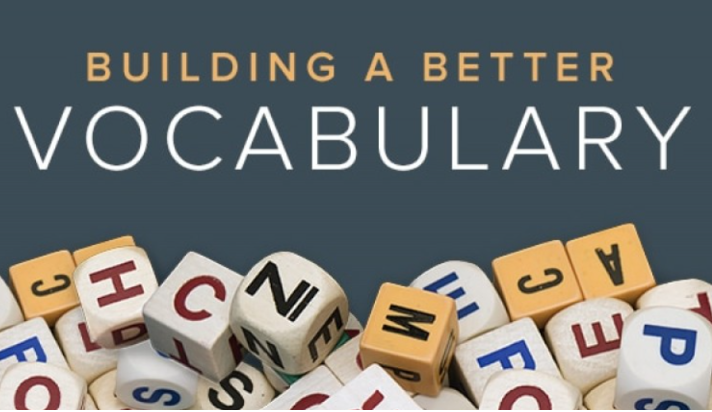
Have you ever been in awe of Mr. Tharoor's English? His eloquence, vocabulary, and command over the language are truly captivating. Many Indians aspire to speak English like him, as it can open doors of opportunity and enhance professional growth. If you find yourself wondering, "How can I speak quality English?" then you're not alone.
Shashi Tharoor's English speaking skills have become a benchmark for many Indians. His ability to articulate complex ideas with ease and finesse is truly remarkable. Whether it's his speeches or his writings, he effortlessly captivates his audience with his command over the language. It's no wonder that aspiring English learners look up to him as a role model.
In this blog post, we will provide you with valuable insights into how you can improve your spoken English skills and speak like Shashi Tharoor. We will discuss practical tips to enhance your vocabulary, provide strategies to overcome pronunciation hurdles, offer guidance on improving sentence formation, and share resources for continuous learning. By the end of this article, you will have a clear roadmap on how to progress towards speaking English confidently and fluently.
So buckle up and get ready to embark upon an exciting journey towards speaking English like Shashi Tharoor!
What Makes Shashi Tharoor's English Unique?
-------------------------------------------
Shashi Tharoor, an esteemed Indian politician, author, and former international civil servant, has captivated audiences worldwide with his exceptional command of the English language. His eloquence and fluency in English have made him a prominent figure in Indian politics and a sought-after speaker at various international forums.
Let's delve into what makes Shashi Tharoor's English unique and how you can acquire similar skills to enhance your communication abilities.
### 1\. Vocabulary Mastery:
Tharoor's extensive vocabulary is one of the defining features of his English. He effortlessly incorporates sophisticated words into his speeches, interviews, and writings, showcasing his deep understanding of the language. To speak like Shashi Tharoor, enrich your vocabulary by reading widely, exploring diverse genres, and learning new words every day. Websites such as Clapingo can help you develop your [vocabulary](https://clapingo.com/blog/how-to-improve-vocabulary-in-english) through tailored exercises and interactive lessons.
### 2\. Pronunciation Prowess:
Tharoor's impeccable pronunciation sets him apart as an exceptional communicator. He pays great attention to enunciating each word clearly and accurately. To improve your pronunciation skills, listen to native speakers, imitate their pronunciation patterns, and practice speaking aloud regularly. Online platforms like Clapingo offer [courses](https://clapingo.com/product/online-english-speaking-course-india) specifically designed to help learners improve their pronunciation and accent.
### 3\. Fluent Sentence Formation:
Tharoor effortlessly weaves together sentences that are both grammatically sound and aesthetically pleasing to the ear. His ability to construct articulate sentences gives him an air of sophistication in his speaking style. Developing this skill requires practising sentence formation regularly by constructing grammatically correct sentences and engaging in conversations in English with native speakers or advanced learners.
Tharoor's speeches are powerful due to his effective use of rhetorical devices such as alliteration, metaphors, and analogies as well.
Here is a quick look at how Tharoor's English stands apart.
**Elements**
**Shashi Tharoor's Approach**
Vocabulary
Incorporates sophisticated words with ease
Pronunciation
Impeccable enunciation
Sentence Formation
Articulate and grammatically sound sentences
To truly grasp the nuances of Tharoor's English, it is essential to witness him in action. Here are a few video snippets showcasing Tharoor's eloquence:
1. [Shashi Tharoor's powerful speech on "Ambedkar: the quest for equality in India"](https://www.youtube.com/watch?v=DqikwgRoYjw)
2. [Shashi Tharoor's Ted Talk on "A well-educated mind vs a well-formed mind"](https://www.youtube.com/watch?v=kcW4ABcY3zI&pp=ygUOc2hhc2hpIHRoYXJvb3I%3D)
By emulating Shashi Tharoor's approach to vocabulary, pronunciation, and sentence formation, you can enhance your own English speaking skills.
Breaking Down Tharoor's Vocabulary
----------------------------------

If you've ever marvelled at Shashi Tharoor's mesmerizing command over the English language and wondered how you too can speak English like him, then this section is for you. We'll break down some popular "Tharoorian" words, help you understand their meanings and pronunciation, provide example sentences to grasp their usage, and share tips for incorporating complex vocabulary into your daily conversations while maintaining comprehension. Let's dive into the world of Tharoor's vocabulary!
Here are 5 _Tharoorian_ words that will enhance your vocabulary:
1. **Floccinaucinihilipilification** (fluhk-si-noh-si-nahy-hil-i-pil-i-fi-kay-shun) - The act of considering something as worthless.
2. **Serendipity** (ser-uhn-dip-i-tee) - Finding something valuable by chance.
3. **Lethologica** (le-thuh-loj-i-kuh) - The inability to remember a word or a name.
4. **Sesquipedalian** (ses-kwi-pi-deylee-uhn) - Using long words or having a tendency to do so.
5. **Panglossian** (pan-glos-ee-uhn) - Excessively optimistic.
To comprehend the usage of these words, let's explore some example sentences:
1. The floccinaucinihilipilification of his achievements only revealed their ignorance.
2. It was through serendipity that I discovered my passion for painting.
3. My lethologica kicked in when I couldn't recall the actor's name from my favourite movie.
4. Tharoor's sesquipedalian speeches leave everyone in awe and admiration.
5. Despite facing setbacks, he remained panglossian about his chances of success.
### Activity suggestion
To enhance your vocabulary, start a daily word journal. Here's how to get started:
* Set aside a few minutes each day to explore new words.
* Find a word that intrigues you from books, articles, or even conversations.
* Write down the word, its meaning, and an example sentence in your journal.
* Review your word journal regularly to reinforce your learning.
By checking out more of Tharoor's vocabulary, understanding its usage, and incorporating complex words into your daily life, you can improve your English speaking skills and captivate others with your eloquence.
The Art of Pronunciation and Sentence Formation
-----------------------------------------------
To speak English like Shashi Tharoor, it is important to focus on two key aspects: pronunciation and sentence formation. Mastering these skills will help you sound more like a native speaker and effectively communicate your thoughts and ideas. So, let's dive into the art of pronunciation and sentence formation!
### Importance of correct pronunciation in sounding like a native speaker:
Correct pronunciation plays a vital role in sounding like a native English speaker. It helps you convey your message clearly and ensures that others understand you effortlessly. Moreover, it enhances your confidence while speaking English.
### How Can I Speak English Fast Like A Native Speaker?
To improve your pronunciation, pay attention to the correct phonetics of English sounds. Here are some guidelines with examples:
1. **Vowels**: Practice pronouncing words with long and short vowel sounds, such as "meet" (/iː/) and "sit" (/ɪ/).
2. **Consonants**: Focus on consonant clusters, like "strength" (/strɛŋθ/) or "twelfth" (/twɛlfθ/).
3. **Stress patterns**: Understand word stress and intonation to bring fluency to your speech. For instance, in the word "photograph," stress falls on the second syllable: "phoTOgraph."
### Sentence structure for effective communication:
Apart from pronunciation, sentence formation is crucial for effective communication. It helps you convey your thoughts clearly and ensures that your message is easily understood by others.
### Demonstration of common sentence formation errors and corrections:
Here are some common errors in sentence formation:
1. **Run-on sentences**: These are sentences that combine multiple independent clauses without proper punctuation or conjunctions. For example: "I went to the store I bought some groceries."
2. **Sentence fragments**: These are incomplete sentences that lack a subject or verb or fail to express a complete thought. For example: "Running through the park."
3. **Subject-verb agreement**: Make sure that the subject and verb agree in number and tense. For instance, "He runs" (singular) versus "They run" (plural).
Mastering the art of pronunciation and sentence formation is key to speaking English like Shashi Tharoor. Focus on correct phonetics, practice sentence structure, and engage in interactive exercises to improve these skills.
Mastering Fluency and Confidence
--------------------------------

To speak English like Shashi Tharoor, it is essential to focus on two key aspects: fluency and confidence. Developing these skills will not only enhance your communication abilities but also help you express yourself effectively in English. Let's explore some techniques and approaches that can assist you in mastering fluency and confidence.
### Techniques for building fluency:
* Incorporate commonly used phrases into your daily conversations. This will help you become more comfortable with expressing yourself naturally and fluently.
* Practice using phrases such as "How are you?", "What do you think?", or "Let's discuss" to improve your fluency.
* Relatable Scenarios: Imagine yourself in different situations where English is the primary language of communication. Whether it's a job interview, social gathering, or presentation, envision yourself confidently communicating your thoughts in English.
* Personalised Examples: Reflect on past experiences where lack of confidence hindered your ability to speak English effectively. Identify areas where you want to improve and work on overcoming those specific challenges.
* Find an English-speaking friend or language partner who can provide feedback on your speaking skills.
* Engage in regular conversations with them, focusing on improving pronunciation, vocabulary, and grammar.
### Steps to gradually increase fluency and confidence over time:
1\. **Set realistic goals:** Start by setting attainable goals for yourself, such as speaking confidently about a particular topic for a set duration each day.
2\. **Expand vocabulary:** Learn new words regularly through reading books, articles, or watching movies/TV shows in English.
3\. **Listen actively:** Pay attention to native English speakers and try to mimic their pronunciation, intonation, and rhythm.
4\. **Speak aloud:** Practice speaking out loud in English, even if you are alone. This will help improve your fluency and confidence.
5\. **Seek feedback:** Ask for constructive criticism from your language partner or teacher to identify areas that need improvement.
6\. **Embrace mistakes:** Don't be afraid of making errors. Mistakes are a natural part of the learning process, and they help you grow.
7\. **Be consistent:** Dedicate regular time to practice speaking English. Consistency is key to building fluency and confidence over time.
By implementing these techniques and approaches, you can gradually develop the fluency and confidence needed to speak English like Shashi Tharoor. Remember, it's a journey that requires patience and practice.
Diminishing the Indianism from Your English
-------------------------------------------
Indian languages have had a significant impact on spoken English in the country. The diversity of regional languages has contributed various words and phrases that have become an integral part of Indian-English vocabulary. For instance, Hindi words like "chai" (tea), "natak" (drama), or Tamil words like "appa" (father) have seamlessly integrated with spoken English in India.
Non-native speakers in India face several challenges when it comes to mastering spoken English. Common issues include pronunciation difficulties, limited vocabulary, lack of confidence while speaking, and incorrect sentence structure. These challenges can hinder effective communication and prevent individuals from expressing themselves fluently in English.
Sometimes their English sounds a bit different from native speakers. Many Indian learners face this challenge due to Indianisms in their language. But fear not, we're here to help you bridge that gap and speak English like a pro!
To start, let's compare British/American English with Indian English. By understanding the differences, we can identify the Indianisms in our language and work towards diminishing them.
Here are some examples of Indianisms:
**Words and Phrases**
**British/American English**
**Indian English**
Out of Station
I will be out of town/city/country next week.
I will be out of station next week.
Pass Out
He graduated from college last year.
He passed out from college last year.
Mugging Up
I need to memorize these formulas for the exam.
I need to mug up these formulas for the exam.
Timepass
Let's watch a movie for entertainment.
Let's watch a movie for timepass.
If you find yourself wondering, "Why my English is not improving?" then it's time to address these common Indianisms that might be holding you back. By observing, understanding, and rectifying these language quirks, you'll be well on your way to speaking quality English.
Here are some tips to help you diminish Indianisms from your English:
1. **Focus on pronunciation:** Pay attention to how native speakers pronounce words and practice emulating their accent and intonation patterns.
2. **Expand your vocabulary:** Read extensively in English, explore different genres, and learn new words every day. Use flashcards or digital apps like Clapingo's vocabulary builder to enhance your word power.
3. **Master sentence structure:** Learn perfect sentence formation in English online by studying sentence patterns and practising with exercises.
4. **Avoid literal translations:** Instead of translating directly from your native language, think in English and try to express your thoughts using English idioms and phrases.
5. **Watch English movies and TV shows:** Immerse yourself in the language by watching movies and TV shows in English without subtitles. This will help you improve your listening skills and familiarize yourself with natural conversation flow.
6. **Join an English-speaking group or club:** Surround yourself with like-minded individuals who are also striving to improve their English skills. Participate in discussions and debates, or even join Clapingo's [Practice Club](https://forms.gle/TmwnQ7j1yPxJQ5xR6) to enhance your speaking abilities.
7. **Record yourself speaking:** Use your smartphone or a recording device to record yourself speaking in English. This will allow you to listen back and identify areas where you need improvement.
Remember, diminishing Indianisms from your English is a gradual process that requires consistent effort and practice. With determination and the right resources you will be well on your way to speaking English like Shashi Tharoor!"
Continuing Your Language Journey with Clapingo
----------------------------------------------
Are you ready to take your English language skills to the next level? Look no further than Clapingo, the leading online English learning platform that is here to support you in your language journey. With a range of offerings tailored specifically for Indian learners, Clapingo provides one-on-one coaching sessions with native tutors who are experts in English language instruction.
Whether you want to improve your English for [everyday conversation](https://clapingo.com/product/daily-english-speaking/) or are preparing for competitive exams like [IELTS](https://clapingo.com/ielts), Clapingo is here for you. Here are some key features that make Clapingo stand out:
1. **Personalized Coaching:** At Clapingo, our expert tutors provide personalized coaching tailored to your unique goals. Whether you're working on speaking, writing, or public speaking, our tutors guide you every step of the way.
2. **Focus on Pronunciation:** Pronunciation is vital for effective communication. With Clapingo, you'll get dedicated attention to develop clear and accurate pronunciation skills, working on intonation, stress patterns, and phonetic sounds to sound more like a native speaker.
3. **Cultural Insights:** Beyond grammar and vocabulary, Clapingo offers insights into English-speaking culture, helping you understand idiomatic expressions, social norms, and everyday conversation topics.
4. **Flexible Learning Options:** Clapingo understands time constraints, offering flexible learning options with different session lengths and timings to fit your busy schedule.
Ready to embark on an exciting language journey with Clapingo? Visit our website at [www.clapingo.com](//www.clapingo.com) to explore our offerings and sign up for a free trial.
Key Takeaways
-------------
Here are the key insights from this blog post:
1. **Speak with Eloquence:** Shashi Tharoor is known for his eloquent speaking style. To emulate him, focus on improving your vocabulary and sentence structure. Learn perfect sentence formation in English online to express yourself effectively.
2. **Expand Your Vocabulary:** Tharoor's extensive vocabulary sets him apart. Make it a habit to learn new words every day. You can use vocabulary-building apps or websites like Clapingo to enhance your lexicon.
3. **Embrace Complexity:** Tharoor's speeches often contain intricate ideas and nuanced arguments. Challenge yourself by exploring complex topics and expressing your thoughts in a clear and intelligible manner.
4. **Develop Articulation Skills:** Pay attention to your pronunciation, enunciation, and intonation. Practice speaking slowly and clearly, emphasizing the correct syllables and stressing the right words.
All in all, mastering spoken English like Shashi Tharoor requires persistence and dedication. Remember that Rome wasn't built in a day, and fluency will come with time and practice.
Remember, at Clapingo, we are committed to helping Indian learners develop their English speaking and writing skills for [professional](https://organizations.clapingo.com/) and personal development. Join our community and let's embark on this language learning journey together!
FAQs
----
**1\. How can I speak English fast like a native speaker?**
To speak English fluently and quickly like a native speaker, it is important to immerse yourself in the language. Practice listening to native speakers through movies, TV shows, and podcasts. Pay attention to their pronunciation, intonation, and word usage. Additionally, engage in conversations with fluent English speakers and practice speaking regularly.
**2\. How can I speak quality English?**
Improving the quality of your spoken English involves several aspects. Firstly, focus on expanding your vocabulary by reading books, newspapers, and online articles. Secondly, work on your grammar by studying grammar rules and practising sentence formations. Lastly, pay attention to your pronunciation by listening to audio recordings or using pronunciation apps.
**3\. How to speak English in 30 days?**
While it may not be possible to become fluent in English within 30 days, you can make significant progress by following certain strategies. Devote time every day for practice and set specific goals for each day or week. Use language learning resources such as textbooks or online courses that provide structured lessons. Additionally, surround yourself with the language by watching movies or videos in English.
**4\. Why my English is not improving?**
There could be various reasons why your English skills are not improving as expected. Lack of consistent practice and exposure to the language might be one reason. It is essential to dedicate regular time for learning and practicing spoken English. Another reason could be a lack of appropriate resources or guidance tailored for your needs. Consider seeking support from a qualified tutor or enrolling in an online language course.
---
This blog is powered by Superblog. Visit https://superblog.ai to know more.
---
## Exemplary English: Identifying the Most Linguistically Precise Nation
Author: Unknown
Published: 2024-01-10
Meta Title: Which English-speaking nation speaks it most accurately?
Meta Description: Find out who truly speaks the 'correct' English! Explore the English language to empower learners to communicate confidently in diverse linguistic landscapes
Tags: Who speaks the proper English?, English-Speaking Nation, English accent
URL: https://clapingo.com/blog/english-speaking-nation
Contents
* [The Many Shades of English](#the-many-shades-of-english)
* [Common Words with Different Pronunciations or Meanings:](#common-words-with-different-pronunciations-or-meanings)
* [Exploring British English Origin & Influence](#exploring-british-english-origin-and-influence)
* [1) The History and Development of British English:](#1-the-history-and-development-of-british-english)
* [2) Colonial Influence on British English in India:](#2-colonial-influence-on-british-english-in-india)
* [Understanding American English – Spread & Domination](#understanding-american-english-spread-and-domination)
* [1\. Popularity of American Media:](#1-popularity-of-american-media)
* [2\. Influence on Pronunciation:](#2-influence-on-pronunciation)
* [3\. Vocabulary and Expressions:](#3-vocabulary-and-expressions)
* [4\. Internet Dominance:](#4-internet-dominance)
* [5\. Global English Standards:](#5-global-english-standards)
* [Looking at Australian, Canadian & New Zealand's versions of English](#looking-at-australian-canadian-and-new-zealands-versions-of-english)
* [So, Who Speaks the Most Correct English?](#so-who-speaks-the-most-correct-english)
* [Mastering Global Accents – A Clapingo Pathway](#mastering-global-accents-a-clapingo-pathway)
* [A Quick Recap](#a-quick-recap)
* [FAQs](#faqs)
* [You may want to read](#you-may-want-to-read)

Have you ever found yourself confused about which English accent is correct? Maybe you're an Indian professional who has interacted with people from different English-speaking countries and wondered, "Which country speaks English correctly?" It's a common misconception that one version of English is superior to others, and this can affect your confidence in speaking.
In this blog post, we'll explore the question of "Who speaks the proper English?" and dive into the topic of which countries are best at English as a first language. We'll take a closer look at different English-speaking nations and their accents, shedding light on how each country contributes to the richness and diversity of the English language.
By the end of this blog post, you'll have a deeper understanding of the English language's global reach and be better equipped to communicate effectively with people from different English-speaking nations. So, let's dive in and discover the fascinating world of English accents together!
The Many Shades of English
--------------------------
English is spoken by millions of people across the globe, and as a result, it has evolved into different accents, dialects, and variations. Each major English-speaking country has its unique way of pronouncing words, using vocabulary, and even structuring sentences. Let's explore the diversity of English accents across different nations and delve into the question: "Who speaks English most correctly?"
To better understand the differences in pronunciation, vocabulary, and grammar among major English-speaking countries, let's take a look at this comparison table:
**Country**
**Pronunciation**
**Vocabulary**
**Grammar**
United Kingdom
Received Pronunciation (RP)
British English terms
Use of present perfect
United States
General American
American English terms
Use of past simple
Canada
Canadian Raising
Canadian English terms
Use of both UK and US
Australia
Australian Accent
Australian English terms
Use of present perfect
India
Indian Accent
Indian English terms
Varied grammar usage
### Common Words with Different Pronunciations or Meanings:
Here are some common words that may have different pronunciations or meanings in each country:
**United States vs. United Kingdom:**
* Favorite/Favourite: US uses "favorite," and UK uses "favourite."
* Cookies/Biscuits: In the US, "cookies" are sweet baked goods, while in the UK, "biscuits" are similar but may not be sweet.
* Truck/Lorry: In the US, it's a "truck," and in the UK, it's a "lorry."
**Australia vs. United Kingdom:**
* Thongs/Flip-flops: Australians refer to flip-flops as "thongs," while in the UK, "thongs" are a type of underwear.
**United States vs. Australia:**
* Chips/Crisps: In the US, "chips" are thin slices of potato, while in Australia, they are called "crisps."
* Elevator/Lift: In the US, it's an "elevator," while in Australia, it's a "lift."
* Gas/Petrol: Americans use "gas" for fuel, while Australians use "petrol."
Exploring British English Origin & Influence
--------------------------------------------
When it comes to the English language, there's no denying the significant role that British English has played in its history and development. From its origin in the British Isles to its influence around the world, understanding the roots of British English is essential for any language learner.
Let's dive into the fascinating journey of this influential variant of English.
### 1) The History and Development of British English:
British English traces its origins back to the Germanic tribes who settled in what is now England during the 5th and 6th centuries. Over time, it evolved from Old English to Middle English, which was heavily influenced by Norman French after the Norman Conquest in 1066. This period marked a significant shift in vocabulary and grammar.
As you delve into British English, you'll encounter unique vocabulary and accents that make it distinct from other variations of English. Let's take a closer look:
1. **Vocabulary:**
* British English uses words like "lorry" for truck, "flat" for apartment, and "biscuit" for cookie.
* It also has some interesting expressions such as "cheeky" (playfully disrespectful), "bloke" (man), and "chuffed" (pleased).
1. **Accents:**
The British accent is diverse across different regions in the UK. Here are a few snippets of dialogue showcasing some iconic British accents:
* Received Pronunciation (RP): "Excuse me, could you direct me to the nearest tube station?"
* Cockney: "Cor blimey! That new song on the wireless is proper catchy!"
* Scottish: "Aye, ye cannae go wrong with a wee dram o' whisky!"
### 2) Colonial Influence on British English in India:
The colonial ties between Britain and India had a profound impact on Indian culture, including language. During nearly two centuries of British rule, English became an official language and played a crucial role in education, law, administration, and trade.
As a result, Indian English developed as a distinct variety influenced by British pronunciation and vocabulary but also incorporating native languages' nuances. This unique blend is evident in everyday Indian conversations where phrases like "Do you have any spare change?" seamlessly coexist with indigenous expressions.
Indian English showcases its colonial influence with distinct vocabulary and pronunciation:
1. **Vocabulary**:
* Indian English incorporates words from various Indian languages like Hindi, Tamil, and Bengali. For example, "chai" (tea), "bungalow" (single-story house), and "pukka" (genuine).
* It also has its own unique expressions like "timepass" (killing time), "prepone" (to reschedule for an earlier time), and "whatsapping" (using the messaging app WhatsApp).
1. **Pronunciation**:
* Indian English is influenced by the phonetics of regional languages, resulting in variations in accent. For example, pronouncing "th" as "t," such as saying "tin" instead of "thin."
Understanding American English – Spread & Domination
----------------------------------------------------
American media has had a significant influence on global perceptions of correct English. With the widespread reach of American movies, TV shows, music, and the internet, American English has dominated as the standard form of English in many parts of the world. Let's explore how this influence has shaped global perceptions.
### 1\. Popularity of American Media:
American movies and TV shows are enjoyed by millions worldwide, exposing people to the American accent and typical phrases. This constant exposure has led to a familiarity and acceptance of American English as the standard form. For example, phrases like "What's up?", "I'm down for that", or "Let's catch a movie" have become commonplace in informal conversations around the globe.
### 2\. Influence on Pronunciation:
The dominance of American media has also influenced pronunciation preferences. The distinct American accent is often imitated or adopted by non-native English speakers due to its prevalence in popular culture. This preference for American pronunciation can be seen in words like "schedule" (pronounced "sked-yool" in America, but "shed-yool" in British English) or "tomato" ("toe-may-toe" versus "to-mah-toe").
### 3\. Vocabulary and Expressions:
American media has introduced and popularized numerous words and expressions into the global vocabulary. Terms like "cool", "awesome", or "dude" have become part of everyday informal speech worldwide. Additionally, iconic phrases from movies like "I'll be back" or "May the force be with you" have become ingrained in popular culture, transcending national borders.
### 4\. Internet Dominance:
The rise of the internet has further spread American English globally. The majority of online content is generated by Americans, resulting in an overwhelming presence of American vocabulary, spelling, and grammar rules across websites and social media platforms. Non-native speakers learning English online are more likely to be exposed to American English due to its dominance in web content.
### 5\. Global English Standards:
Due to the influence of American media, some may argue that American English is the most widely understood and accepted version of English. However, it's important to note that different countries have their own variant of English, each with its unique accent, vocabulary, and grammar rules. The notion of "correct" English is subjective and varies depending on cultural context and geographical location.
Looking at Australian, Canadian & New Zealand's versions of English
-------------------------------------------------------------------
When it comes to English-speaking nations, the question of who speaks it most correctly often arises. In this section, we will explore the impact of Australian, Canadian, and New Zealand English on the global stage. Through dialogue snippets showcasing each accent and a bullet list of unique words and phrases from each country, we will gain a better understanding of their contributions to the English language.
Let's start by examining the Australian accent. Known for its distinctive twang and laid-back vibe, Australian English has made its mark on the world stage. Here are some dialogue snippets that demonstrate the unique features of this accent:
1. "G'day mate! How ya goin'?" (Hello friend! How are you?)
2. "I reckon it's gonna be a ripper day at the beach." (I think it will be an excellent day at the beach.)
3. "Chuck a sickie" (Take a day off work when not really sick)
4. "No worries, mate!" (No problem at all!)
Moving on to Canadian English, known for its politeness and slight influence from British and American English. Here are some dialogue snippets that showcase the Canadian accent:
1. "Sorry about that!" (Apologizing for a minor inconvenience)
2. "Eh? Can you pass me that double-double?" (Asking for a coffee with two creams and two sugars)
3. "Let's go tobogganing in winter!" (Let's go sledding in winter!)
4. "I'm going to Timmies for some Timbits." (I'm going to Tim Hortons for some doughnut holes.)
Lastly, let's explore New Zealand English, known for its distinct vowel sounds and unique slang terms called 'Kiwi-isms.' Here are some dialogue snippets highlighting the Kiwi accent:
1. "Kia ora, bro! How's it going?" (Hello, friend! How are you?)
2. "I'm keen as to go hiking in the bush this weekend." (I'm excited to go hiking in the wilderness this weekend.)
3. "She'll be right, mate!" (Everything will be fine, friend!)
4. "Sweet as!" (That sounds great!)
So, Who Speaks the Most Correct English?
----------------------------------------

When it comes to determining which country speaks English most correctly, it's important to remember that language is a living organism that evolves and adapts over time. No single version of English can be considered more correct than another because regional variations and cultural influences shape language in unique ways.
To illustrate this point further, let's consider a couple of examples:
* **Scenario 1:** You're having a conversation with someone from India who speaks English fluently but uses certain phrases differently than you might expect. Instead of correcting them, try to understand their cultural perspective. Embrace the diversity of expression within the English language.
* **Scenario 2:** You're watching a British comedy show where characters use an array of colloquialisms and slang words specific to their region. While some phrases may seem unfamiliar at first, they add authenticity and charm to the show's comedic effect.
In conclusion, no single country or region can claim to speak English most correctly as linguistic diversity is a natural part of language evolution. Embracing the richness of English variants allows us to appreciate the beauty and cultural nuances present in each form. Instead of focusing on correctness, let's celebrate the versatility and adaptability of English as a global language.
Mastering Global Accents – A Clapingo Pathway
---------------------------------------------
When it comes to learning English, one of the biggest challenges for many Indian learners is understanding and mastering different accents. English is spoken by a wide range of countries around the world, each with its own unique accent. As an Indian learner, you may find it difficult to comprehend native speakers from various English-speaking nations.
At Clapingo, we understand the importance of overcoming language barriers and becoming a confident speaker of English. That's why we offer personalized coaching by native speakers who can help you navigate the intricacies of different accents. Our expert coaches have years of experience in teaching and guiding learners like you towards speaking English fluently and accurately.
In fact, with Clapingo you can learn spoken English via your mother tongue, like Tamil or Telugu.
A Quick Recap
-------------
Of the English-speaking nations, who speak it most correctly? In our exploration of this question, we have discovered that there is no single correct version of English. Instead, we find different accents shaped by history and culture.
English learners need to remember that striving for correctness shouldn't be their main focus. Instead, they should prioritize clarity, confidence, and understanding when communicating in English.
We also discussed the diversity of English accents across different nations with a focus on major English-speaking countries. We explored the history and development of British English and how American media influence has affected global perceptions of correct English.
Indian learners should embark on their journey towards English fluency with an empowering message in mind: focus on clarity and confidence in communication rather than striving for an elusive standard of correctness. Embrace your own unique accent and use it as a tool to connect with others in the global community of English speakers.
Remember, at [Clapingo](https://clapingo.com/) we are here to support you every step of the way as you develop your English speaking skills. Keep practising, stay motivated, and don't hesitate to reach out for guidance whenever you need it!
FAQs
----
1) Which country speaks English clearly?
When it comes to speaking English clearly, countries like England, Scotland, Wales, and Ireland are often recognized as having native speakers with excellent pronunciation and enunciation skills.
2) Who speaks the proper English?
The term "proper English" can vary depending on different factors such as accents, dialects, and regional variations. However, countries like England and Scotland have traditionally been associated with speaking more standard or formal versions of the language.
3) Who speaks the most English in the world?
In terms of sheer numbers, countries with large populations like India, Nigeria, Pakistan, and the Philippines have a significant number of English speakers. These countries often use English as a second or official language alongside their native languages.
4) Which countries are best at English as a first language?
English-speaking nations such as Canada, Australia, New Zealand, and the United States have a high percentage of native speakers who excel in using the language as their first language. These countries offer immersive environments for learning and practising English.
**You may want to read**
------------------------
**[Top 15 Free Online Courses For English Speaking](https://clapingo.com/blog/free-english-speaking-course)**
---
This blog is powered by Superblog. Visit https://superblog.ai to know more.
---
## Literary Learning: Novels to Elevate Your English Proficiency
Author: Unknown
Published: 2024-01-10
Meta Title: Enhance Your spoken English with These Must-Read Novels.
Meta Description: Discover the best novels to improve your English. Engage in a fun and effective way to enhance your language skills and excel in your career. Get start now!
Tags: novels to improve English, Novels forEnglish Speaking , Must-Read Novels for english
URL: https://clapingo.com/blog/top-novels-english-speaking
Contents
* [Does Reading Books Improve Spoken English?](#does-reading-books-improve-spoken-english)
* [What Essentials Should I Consider While Choosing Novels?](#what-essentials-should-i-consider-while-choosing-novels)
* [Can You Suggest Some Beginner-Friendly Novels?](#can-you-suggest-some-beginner-friendly-novels)
* [1\. The Giver by Lois Lowry:](#1-the-giver-by-lois-lowry)
* [2\. Charlotte's Web by E.B. White:](#2-charlottes-web-by-eb-white)
* [3\. Holes by Louis Sachar:](#3-holes-by-louis-sachar)
* [4\. Matilda by Roald Dahl:](#4-matilda-by-roald-dahl)
* [5\. The Curious Incident of the Dog in the Night-Time by Mark Haddon:](#5-the-curious-incident-of-the-dog-in-the-night-time-by-mark-haddon)
* [6\. The Alchemist by Paulo Coelho:](#6-the-alchemist-by-paulo-coelho)
* [7\. The Little Prince by Antoine de Saint-Exupéry:](#7-the-little-prince-by-antoine-de-saint-exupery)
* [8\. The Outsiders by S.E. Hinton:](#8-the-outsiders-by-se-hinton)
* [9\. The Secret Garden by Frances Hodgson Burnett:](#9-the-secret-garden-by-frances-hodgson-burnett)
* [10\. Alice's Adventures in Wonderland by Lewis Carroll:](#10-alices-adventures-in-wonderland-by-lewis-carroll)
* [What Advanced-level Novels Can I Read Next?](#what-advanced-level-novels-can-i-read-next)
* [1\. 1984 by George Orwell:](#1-1984-by-george-orwell)
* [2\. To Kill a Mockingbird by Harper Lee:](#2-to-kill-a-mockingbird-by-harper-lee)
* [3\. Pride and Prejudice by Jane Austen:](#3-pride-and-prejudice-by-jane-austen)
* [4\. The Great Gatsby by F. Scott Fitzgerald:](#4-the-great-gatsby-by-f-scott-fitzgerald)
* [5\. Moby-Dick by Herman Melville:](#5-moby-dick-by-herman-melville)
* [6\. Crime and Punishment by Fyodor Dostoyevsky:](#6-crime-and-punishment-by-fyodor-dostoyevsky)
* [7\. One Hundred Years of Solitude by Gabriel Garcia Marquez:](#7-one-hundred-years-of-solitude-by-gabriel-garcia-marquez)
* [8\. The Catcher in the Rye by J.D. Salinger:](#8-the-catcher-in-the-rye-by-jd-salinger)
* [9\. Brave New World by Aldous Huxley:](#9-brave-new-world-by-aldous-huxley)
* [10\. Wuthering Heights by Emily Bronte:](#10-wuthering-heights-by-emily-bronte)
* [How Can I Effectively Apply What I Learn from Novels to My Spoken English?](#how-can-i-effectively-apply-what-i-learn-from-novels-to-my-spoken-english)
* [A Quick Recap](#a-quick-recap)
* [FAQs](#faqs)

Have you ever found yourself struggling with spoken English in a professional setting? It can be frustrating when you have the knowledge and skills, but struggle to communicate effectively. Fluent English speaking is crucial for career progression, as it allows you to express ideas confidently and connect with others. So, what can you do to improve your English speaking skills? One often overlooked but effective method is reading novels.
Reading novels not only helps you improve your vocabulary and grammar but also enhances your overall language fluency. It's a fun and engaging way to immerse yourself in the English language while enjoying captivating stories. However, finding suitable books for language improvement can be challenging. Many popular novels may not necessarily focus on everyday conversation or practical language usage.
In this article, we will recommend some of the best novels that will help boost your English speaking skills. Whether you are a beginner or an advanced learner, these books offer valuable insights into the English language while keeping you entertained. Let's dive into some exciting options that can transform your journey of improving spoken English!
Does Reading Books Improve Spoken English?
------------------------------------------
Reading books is not only an enjoyable pastime but also a powerful tool for improving your English language skills. Whether you are a beginner or an advanced learner, incorporating reading into your language learning routine can greatly enhance your vocabulary, grammar sense, and cultural understanding. So, if you've ever wondered, "Can we improve English by reading books?" the answer is a resounding yes!
**1) Vocabulary Enhancement:**
One of the key benefits of reading books is the exposure to a wide range of words and phrases that may not be commonly used in everyday conversation. By immersing yourself in different genres and styles of writing, you can expand your vocabulary and develop a richer lexicon. This will enable you to express yourself more precisely and eloquently in spoken English.
**2) Grammar Sense:**
Reading books allows you to observe sentence structures, grammar rules, and usage patterns in context. As you encounter well-constructed sentences and grammatically correct expressions, your own understanding of grammar will improve naturally. You'll start to develop an intuition for what sounds right or wrong in English, enhancing your spoken communication skills.
**3) Cultural Understanding:**
Literature provides valuable insights into different cultures, traditions, and perspectives. By reading novels from various authors and countries, you'll gain a deeper understanding of cultural nuances that can enhance your ability to communicate effectively with native English speakers.
What Essentials Should I Consider While Choosing Novels?
--------------------------------------------------------

When it comes to choosing novels to improve your English speaking skills, there are a few essential factors to consider. Let's take a closer look at each one:
1. **Interest level:** Choose a novel that captures your interest and keeps you engaged throughout the reading process. If you're not enjoying the story or finding it dull, it will be harder to stay motivated and continue reading.
2. **Difficulty level:** It's important to strike a balance between a novel that is challenging enough to help you improve your language skills but not so difficult that you become frustrated and give up. Start with simpler, easier reads and gradually increase the difficulty as you progress.
3. **Genre preference:** Consider your genre preferences when choosing a novel. Whether you enjoy romance, mystery, science fiction, or historical fiction, reading books in genres that interest you will make the learning process more enjoyable and engaging.
4. **Cultural context:** Opt for novels that provide insights into different cultures and societies. This will not only enhance your understanding of conversational English but also broaden your cultural knowledge.
Can You Suggest Some Beginner-Friendly Novels?
----------------------------------------------
Here are ten beginner-friendly novels that are perfect for non-native speakers:
### 1\. _The Giver_ by Lois Lowry:
* Plot: In a seemingly perfect society, Jonas discovers the dark secrets behind his community.
* Language simplicity: Easy to understand with simple sentence structure.
* Learning outcomes: Enhance vocabulary related to society, emotions, and morality.
### 2\. _Charlotte's Web_ by E.B. White:
* Plot: A heartwarming tale of friendship between a pig named Wilbur and a spider named Charlotte.
* Language simplicity: Simple language suitable for beginners.
* Learning outcomes: Learn about friendship, loyalty, and empathy.
### 3\. _Holes_ by Louis Sachar:
* Plot: Stanley Yelnats is sent to a juvenile correctional camp where he uncovers the truth behind a family curse.
* Language simplicity: Engaging yet easy-to-understand language.
* Learning outcomes: Improve vocabulary related to justice, resilience, and friendship.
### 4\. _Matilda_ by Roald Dahl:
* Plot: Matilda is a gifted girl with telekinetic powers who overcomes challenges at home and school.
* Language simplicity: Simple language with humorous elements.
* Learning outcomes: Expand vocabulary related to education, family dynamics, and personal growth.
### 5\. _The Curious Incident of the Dog in the Night-Time_ by Mark Haddon:
* Plot: Follow Christopher Boone, a teenager with autism, as he investigates the mysterious death of his neighbour's dog.
* Language simplicity: The language is straightforward, reflecting Christopher's unique perspective on the world.
* Learning outcomes: Enhance vocabulary related to autism, family relationships, and problem-solving.
### 6\. _The Alchemist_ by Paulo Coelho:
* Plot: A shepherd named Santiago embarks on a journey to discover his personal legend.
* Language simplicity: Simple language with philosophical undertones.
* Learning outcomes: Explore vocabulary related to dreams, destiny, and self-discovery.
### 7\. _The Little Prince_ by Antoine de Saint-Exupéry:
* Plot: A young prince explores different planets and learns valuable life lessons along the way.
* Language simplicity: Easy-to-understand language suitable for beginners.
* Learning outcomes: Improve vocabulary related to friendship, imagination, and human nature.
### 8\. _The Outsiders_ by S.E. Hinton:
* Plot: Ponyboy Curtis navigates conflicts between rival teenage gangs in 1960s Oklahoma.
* Language simplicity: Engaging yet accessible language for beginner readers.
* Learning outcomes: Expand vocabulary related to identity, social class, and loyalty.
### 9\. _The Secret Garden_ by Frances Hodgson Burnett:
* Plot: An orphan girl discovers a hidden garden that transforms her life and those around her.
* Language simplicity: Simple language accompanied by vivid descriptions of nature.
* Learning outcomes: Enhance vocabulary related to nature, growth, and healing.
### 10\. _Alice's Adventures in Wonderland_ by Lewis Carroll:
* Plot: Alice falls into a whimsical world filled with peculiar characters and nonsensical situations.
* Language simplicity: Simple language with imaginative storytelling.
* Learning outcomes: Learn vocabulary related to fantasy, curiosity, and imagination.
Reading these beginner-friendly novels will not only improve your English speaking skills but also ignite your imagination and introduce you to captivating stories. Here are similar lists that might interest you: Top 35 Books To Help You With English Learning - Clapingo
What Advanced-level Novels Can I Read Next?
-------------------------------------------

So, you've mastered the basics and are ready to take your English skills to the next level with some advanced-level novels. Here are 10 recommendations that will challenge you, expand your vocabulary, and help you improve your English speaking skills:
### 1\. _1984_ by George Orwell:
* Plot: Set in a dystopian future where Big Brother watches everything, this novel explores themes of government surveillance and individual freedom.
* Language Complexity: Intermediate to Advanced
* Learning Prospects: Enhances political vocabulary and critical thinking skills.
### 2\. _To Kill a Mockingbird_ by Harper Lee:
* Plot: Set in the 1930s, this novel follows Scout Finch as she navigates racial injustice in her small Southern town.
* Language Complexity: Intermediate
* Learning Prospects: Expands cultural understanding and exposes readers to diverse perspectives.
### 3\. _Pride and Prejudice_ by Jane Austen:
* Plot: A classic tale of love, marriage, and societal expectations as Elizabeth Bennet navigates through complicated relationships.
* Language Complexity: Intermediate
* Learning Prospects: Develops an understanding of British society and sharpens dialogue comprehension skills.
### 4\. _The Great Gatsby_ by F. Scott Fitzgerald:
* Plot: Set in the Roaring Twenties, this novel explores themes of wealth, love, and the American Dream through Jay Gatsby's pursuit of Daisy Buchanan.
* Language Complexity: Intermediate to Advanced
* Learning Prospects: Improves descriptive language skills and provides insights into American history.
### 5\. _Moby-Dick_ by Herman Melville:
* Plot: Join Ishmael on his seafaring adventure as he searches for the elusive white whale, Moby-Dick.
* Language Complexity: Advanced
* Learning Prospects: Enhances reading comprehension and vocabulary related to maritime themes.
### 6\. _Crime and Punishment_ by Fyodor Dostoyevsky:
* Plot: Follow Raskolnikov, a troubled student, as he contemplates and commits a crime, grappling with guilt and redemption.
* Language Complexity: Advanced
* Learning Prospects: Expands complex sentence structures and psychological vocabulary.
### 7\. _One Hundred Years of Solitude_ by Gabriel Garcia Marquez:
* Plot: Dive into the magical world of the Buendía family as they navigate love, war, and the cycle of life in Macondo.
* Language Complexity: Advanced
* Learning Prospects: Enhances understanding of magical realism and Latin American culture.
### 8\. _The Catcher in the Rye_ by J.D. Salinger:
* Plot: Experience three days in the life of Holden Caulfield as he navigates teenage angst, identity, and societal expectations.
* Language Complexity: Intermediate to Advanced
* Learning Prospects: Develops conversational language skills and exposes readers to colloquial expressions.
### 9\. _Brave New World_ by Aldous Huxley:
* Plot: Set in a dystopian future where society is controlled through technology and conditioning, this novel explores themes of individuality and conformity.
* Language Complexity: Intermediate to Advanced
* Learning Prospects: Expands scientific vocabulary and encourages critical thinking about societal issues.
### 10\. _Wuthering Heights_ by Emily Bronte:
* Plot: Follow Catherine Earnshaw and Heathcliff's tumultuous love story set against the backdrop of the Yorkshire moors.
* Language Complexity: Intermediate
* Learning Prospects: Enhances understanding of Gothic literature and British romanticism.
Worried about reading such 'difficult' classics? Don't worry, there are many online sites that can guide you through them. Here are some:
1. SparkNotes' _1984_ Study Guide
2. SparkNotes' _The Great Gatsby_ Study Guide
For a review of one of these recommended novels, check out this YouTube video:
1. Pride and Prejudice Book Review - Merphy Napier
How Can I Effectively Apply What I Learn from Novels to My Spoken English?
--------------------------------------------------------------------------
Now that you have started reading novels to improve your English speaking skills, you might wonder how to effectively apply what you learn from them to your everyday conversations. Here are some practical tips to help you do just that:
**1\. Actively using new vocabulary in daily conversations:**
* Make a list of new words or phrases you come across while reading.
* Practice using these words in sentences and try incorporating them into your conversations.
* Challenge yourself to use at least one new word or phrase every day.
**2\. Mimicking dialogues or monologues from books:**
* Choose a dialogue or monologue from a novel that resonates with you.
* Read it out loud several times, paying attention to the pronunciation, intonation, and rhythm of the speech.
* Practice speaking it aloud, trying to imitate the character's voice and emotions.
**3\. Integrating learnt grammar and phrases into your speaking style:**
* Take note of any interesting sentence structures or grammar patterns while reading.
* Try using these structures in your own sentences during conversations.
* Gradually incorporate these phrases and grammar into your natural speaking style.
**4\. Engaging with Clapingo's personalised sessions for expert guidance:**
Clapingo offers [personalized sessions](https://clapingo.com/product/spoken-english-classes) specifically designed to help you practice and improve your English speaking skills. These sessions provide expert guidance and feedback tailored to your individual needs.
Remember, the key is consistency and practice. Don't be afraid to make mistakes; it's all part of the learning process. By actively applying what you learn from novels in your daily conversations, you will gradually see improvement in your spoken English skills.
A Quick Recap
-------------
Now that we've explored the topic of improving your English speaking skills through reading novels, let's do a quick recap of the key points we've discussed.
We addressed the question "Which novel is best for improving English?" While there is no one-size-fits-all answer to this question, it's important to choose books that match your language proficiency level and personal interests. Selecting novels that are slightly above your current level can challenge you without being too overwhelming.
Next, we explored potential beginner and advanced-level novels that are suitable for English language learners. For beginners, classic children's books like _Charlotte's Web_ by E.B. White or _Matilda_ by Roald Dahl can be a great starting point. As you progress, you could move on to more challenging works such as _To Kill a Mockingbird_ by Harper Lee.
We then delved into some application techniques to make the most out of your reading practice, like mimicry and note-making.
Keep practising and exploring more books on their language progression journey with [Clapingo](https://clapingo.com/). Reading novels is just one aspect of language improvement; there are other resources available on Clapingo such as interactive speaking exercises and [grammar lessons](https://clapingo.com/product/spoken-english-classes) that can further enhance your English skills.
Remember, improving your English speaking skills takes time and consistent effort. By choosing suitable books, applying effective techniques, and continuing to explore new material, you will undoubtedly see progress along your language learning journey.
FAQs
----
**1\. Which novels are best for improving English?**
When it comes to improving your English speaking skills through reading novels, it's important to choose books that are not only enjoyable but also offer a variety of vocabulary, dialogues, and writing styles. Some classic novels that can help in this regard include:
* _To Kill a Mockingbird_ by Harper Lee
* _1984_ by George Orwell
* _Pride and Prejudice_ by Jane Austen
**2\. What should I read if I want to improve my English?**
If you want to enhance your English speaking skills, it's recommended to read a mix of classic literature, contemporary fiction, and non-fiction books. This will expose you to different writing styles and vocabulary.
Additionally, consider reading books from different genres such as mystery, science fiction, and historical fiction. Here are a few suggestions:
* Classic Literature: _Jane Eyre_ by Charlotte Bronte
* Contemporary Fiction: _The Fault in Our Stars_ by John Green
* Non-Fiction: _Becoming_ by Michelle Obama
**3\. Can we improve English by reading books?**
Absolutely! Reading books is an excellent way to improve your English speaking skills. It exposes you to new words, and sentence structures, and helps you understand how native speakers use the language naturally. Regular reading not only expands your vocabulary but also enhances your comprehension abilities.
**4\. How can I improve my English speaking through reading?**
To make the most out of your reading experience for improving spoken English:
* Choose books at an appropriate difficulty level.
* Keep a dictionary handy to look up unfamiliar words.
* Take notes of new words or phrases and practice using them in conversations.
* Join a book club or find a language partner to discuss the books you read.
* Listen to audiobooks while following along with the text to improve pronunciation and listening skills.
**You may want to read**
------------------------
**[Mastering English: Fast Track to Fluency and Confidence](https://clapingo.com/blog/how-to-learn-english-fast)**
---
This blog is powered by Superblog. Visit https://superblog.ai to know more.
---
## Boost Your English Skills: Software Recommendations for Speaking, Reading and Writing
Author: Unknown
Published: 2024-01-10
Meta Title: Software Tools to Boost English: Speak, Read, & Write.
Meta Description: Elevate your English language proficiency with recommended software. Improve speaking, reading, and writing skills for comprehensive language mastery.
Tags: English Skills, Improve Your English Skills, Top Reading Software Tools, Best Writing Software Tools, Tools for English Speaking, Best App for English Speaking
URL: https://clapingo.com/blog/software-recommendations-english
Contents
* [Why Choose Software to Improve Your English Skills?](#why-choose-software-to-improve-your-english-skills)
* [Top Reading Software Tools & Their Features](#top-reading-software-tools-and-their-features)
* [Best Writing Software Tools & How To Leverage Them](#best-writing-software-tools-and-how-to-leverage-them)
* [Grammarly:](#grammarly)
* [Hemingway App:](#hemingway-app)
* [ProWritingAid:](#prowritingaid)
* [Ginger:](#ginger)
* [Which is the Best App to Improve English Speaking?](#which-is-the-best-app-to-improve-english-speaking)
* [Building a Language Learning Routine with Software Tools](#building-a-language-learning-routine-with-software-tools)
* [Your Path Towards Improved English Proficiency Begins Here](#your-path-towards-improved-english-proficiency-begins-here)
* [FAQs](#faqs)

Have you ever been in a situation where you struggled to express your thoughts effectively at work because English is not your first language? If your answer is yes, remember, you are not alone. Many non-native English speakers in India face similar challenges in both professional and personal settings. In a country where numerous regional languages co-exist, English has emerged as the common thread tying us all together, especially in the professional sphere. Proficient English skills can open doors to better job opportunities, effective communication with global teams and even smooth travel experiences.
But how can one ace this global language? One effective way is by incorporating technology into your learning process. There are several software tools available that offer comprehensive modules to improve English speaking, reading and writing skills for non-native speakers. Are you wondering what is the perfect tool to improve English speaking skills? We'll delve into that and more in the following sections. So let's get started on this journey towards better English proficiency!
Why Choose Software to Improve Your English Skills?
---------------------------------------------------
In an era where technology is seamlessly interwoven into our daily lives, why not leverage its power to improve English skills? Learning with software tools offers remarkable benefits such as flexibility, personalisation, immediate feedback, and accessibility. Let's delve deeper into these advantages:
1. **Flexibility**: Unlike traditional classrooms bound by fixed timelines, software tools allow you to learn at your own pace and time. Busy day? No problem! You can always catch up at night.
2. **Personalisation**: Every learner has unique needs. Thanks to Artificial Intelligence, language learning software adapts the content based on your progress and strengths, offering a tailor-made experience.
3. **Immediate Feedback**: Instantaneous corrections can significantly speed up the learning process as it prevents the reinforcement of incorrect usage.
4. **Accessibility**: With learning software, quality education is just a click away. Irrespective of your geographical location or financial constraints, you can access top-notch English training resources.
The table below further emphasises the advantages of using software tools over traditional methods:
**Traditional Learning Methods**
**Software Learning Tools**
Fixed timings
Learn anytime
One-size-fits-all curriculum
Personalised content
Delayed feedback
Instant corrections
Limited accessibility
Global accessibility
This shows that the use of software tools in language learning is like having a personal coach available 24/7. So incorporating software into your learning strategy could be a game-changer. It accommodates your lifestyle while meeting your specific needs – making it an efficient and effective choice for mastering English skills!
Top Reading Software Tools & Their Features
-------------------------------------------
A wise investment in your English learning journey is to use tech tools designed to improve reading skills. These digital tools facilitate interactive and engaging reading experiences, improving vocabulary, comprehension, and sentence structure skills. They help you learn at your pace, turning reading from a daunting task into an enjoyable activity. Here's a quick rundown of top-rated software that Indian learners can utilise:
* ReadTheory: Offering personalised exercises based on your reading level and performance, ReadTheory optimises learning outcomes. It comes with a broad range of engaging texts that allow practice at increasing complexity levels.
* Reading Eggs: Designed for beginners, Reading Eggs offers interactive lessons filled with fun games, songs, and rewards. It’s user-friendly and focuses on phonics, sight words, vocabulary development, and comprehension.
* Newsela: If you're more advanced and wish to enhance your reading skills while staying updated on current affairs, Newsela is the perfect tool. Newsela transforms real-world news articles into reading comprehension exercises. It adjusts the text’s difficulty level per your ability and includes quizzes to evaluate your understanding.
* Readlang: Want to translate certain words or phrases instantly as you read? Look no further than Readlang! It also allows you to create flashcards for words you find difficult.
Now let's compare these tools:
**Software**
**Ease-of-use**
**Price**
ReadTheory
High
Free
Reading Eggs
Medium
Paid
Newsela
High
Free/Paid versions
Readlang
Medium
Free/Paid versions
Maximize your benefit from these options by setting aside dedicated reading time every day, actively engaging with the text, tracking your progress regularly, and applying what you learn to daily conversations.
Remember, there are several good techniques used to improve your English skills; using software tools for reading is just one effective strategy. Balance them with other methods for best results.
Best Writing Software Tools & How To Leverage Them
--------------------------------------------------

To elevate your [written English skills](https://clapingo.com/blog/how-to-improve-english-writing-skills), investing in good writing software tools can be a game changer. Let's examine four powerful tools that can help you improve your writing and communication.
### Grammarly:
Grammarly is an AI-powered writing assistant that helps with grammar checks and punctuation errors, and even suggests style improvements. It's particularly helpful when you're drafting an email, creating content for a presentation or typing up a report at work.
**Key Features**
**Description**
Real-Time Editing
Detects errors as you write and provides instant corrections.
Contextual Spelling Checker
Corrects misspelt words based on the context of the sentence.
Style Suggestions
Gives suggestions for enhancing your writing style based on the document type.
Here's an example of how Grammarly can aid in your daily English communication: You are sending an email to your team about a project update, and you write: "The project are on track". Grammarly will instantly highlight the error and suggest changing 'are' to 'is', ensuring your email is error-free.
### Hemingway App:
The Hemingway App is another excellent tool that helps you write clear and concise English. It highlights lengthy, complex sentences and common errors in your text, nudging you to write more succinctly.
**Key Features**
**Description**
Readability Grade Level
Assesses the complexity of sentences providing a readability score.
Passive Voice Detector
Alerts if the passive voice is overused, encouraging active voice usage.
Adverbs Counter
Keeps a check on excessive use of adverbs.
Here are two more software that could be useful for improving writing skills:
### ProWritingAid:
ProWritingAid is more than just a grammar checker; it's a style coach too. This comprehensive tool offers detailed reports on overused words, readability issues, sentence lengths, and much more. It is an excellent software for those who want to dive deep into improving their writing.
### Ginger:
Ginger is another handy tool for enhancing your English writing skills. Apart from basic grammar checks, it offers features like text reading (which reads your text aloud), sentence rephrasing (which offers different ways of expressing your ideas), and translation in 40+ languages.
To truly leverage these software tools in improving your English writing skills:
* Use them consistently while writing emails, assignments, or any professional work
* Pay attention to the suggestions given by these tools and try to understand why a particular error was highlighted
* Practice writing without these tools occasionally to test your skill improvement.
Remember, while these tools are incredibly helpful, they are not substitutes for dedicated practice and active learning. With regular usage and conscious effort, you'll see a marked improvement in your English writing skills.
Which is the Best App to Improve English Speaking?
--------------------------------------------------

In the digital age, learning English isn't confined to classrooms or textbooks. There are numerous software tools available that can significantly aid in improving your spoken English skills. Let's examine four of these resources.
**1\. Rosetta Stone**: This popular language learning tool is known for its immersive approach, diving straight into the language without resorting to translations. It emphasises listening and speaking, helping learners improve their pronunciation and fluency with interactive and engaging exercises.
**2\.** [**Clapingo**](https://clapingo.com/): Offering a truly personalised learning experience, Clapingo focuses on one-on-one coaching sessions with native English speakers. The course is adapted to each learner's individual needs, working on key areas like fluency, pronunciation, vocabulary and sentence structure through interactive exercises and real-life scenarios. What sets Clapingo apart is the flexible session scheduling that fits seamlessly into your busy schedule.
The personalized approach of Clapingo enables you to focus on areas you find challenging and hone your skills at a pace that suits you best. Plus, the tutors' native language expertise ensures accurate pronunciation guidance.
**3\. FluentU**: FluentU takes a unique approach by using real-world videos like music videos, movie trailers, news and inspiring talks to create personalised language learning lessons. This platform offers an engaging way to learn how native English speakers talk in real life.
**4\. HelloTalk**: HelloTalk connects you directly with native speakers for free text and voice chats. It provides an excellent opportunity for practising spoken English in a non-stressful environment.
These software tools help you practice your speaking skills anytime, anywhere - a convenience traditional classrooms cannot provide. As each tool has its strengths, combining them can give you a well-rounded learning experience that covers all aspects of spoken English improvement.
For a more in-depth analysis of all the major apps for improving spoken English, check out this Clapingo article: [11 Of The Best Apps For Improving Your English Speaking Skills](https://clapingo.com/blog/best-apps-english-speaking)
Building a Language Learning Routine with Software Tools
--------------------------------------------------------
Consistency and regularity are two pillars that strengthen the foundation of language learning. Incorporating English learning software into your daily routine can lead to substantial progress in your speaking, reading, and writing skills. Here's how you can do it:
**1\. Set a daily goal**: Start by determining what you want to achieve daily. Maybe you want to learn ten new words or read two pages from a book in English.
**2\. Choose Your Tool**: Pick the software or app that best suits your needs and learning style. You might choose Rosetta Stone for its immersive approach, Duolingo for its fun gamified lessons, Grammarly for improving written English, or Clapingo for its personalised spoken English coaching.
**3\. Schedule Time**: Dedicate a specific time each day for learning English using the chosen tool. This could be 30 minutes before breakfast or during your evening commute.
**4\. Engage in Exercises**: Most language learning tools offer interactive exercises and quizzes to make practice enjoyable and effective.
**5\. Track Your Progress**: Regularly review your progress to stay motivated and adjust your daily goals if necessary.
Further, here are some good techniques used to improve your English speaking skills using the aforementioned software. To make learning more enjoyable, you can follow these exercises compatible with these tools:
* **Listening Games**: Improving spoken English begins with comprehension. Use software like FluentU to play interactive listening games.
* **Writing Challenges**: Many apps have writing tasks where you write essays or messages which receive corrections from native speakers.
* **Speaking Sessions**: Clapingo provides opportunities to engage in conversations with non-judgemental tutors.
* **Pronunciation Practice**: Apps like ELSA Speak help in improving pronunciation through regular practice and immediate feedback.
Make learning fun by integrating engaging activities compatible with these software tools such as participating in virtual conversations, playing vocabulary games, or writing short stories based on prompts provided by the application.
Remember, adopting a regular routine powered by efficient software is certainly helpful for any language-learning journey! Just like how our body requires regular exercise to stay fit, our brain also needs consistent language workouts to improve our English speaking, reading, and writing skills.
Here is a YouTube video to guide you further:
Your Path Towards Improved English Proficiency Begins Here
----------------------------------------------------------
In this blog, we explored how one can improve their reading, writing and speaking skills in English using various software, apps and websites. We delved into the immense value of employing software tools such as apps and online platforms to enhance your reading, speaking, and writing skills in English. From fluent pronunciation to impeccable grammar, these resources arm you with the necessary tools to conquer any English language hurdles that come your way.
Remember, effective learning isn't a sprint; it's a marathon. With patience, persistence, and practice, you can master the English language. Whether you're honing your conversational skills or polishing your written vocabulary, there's a world of digital aids available at your fingertips.
As mentioned earlier, Clapingo is one of the most effective language-learning platforms available at the moment. Offering personalized coaching sessions with native English speakers, this platform provides you an opportunity to improve fluency and pronunciation in a non-judgmental environment.
Your journey towards improved English proficiency begins now. It's time to step out of your comfort zone and embark on this rewarding adventure. Forge ahead with confidence, because when it comes to language learning success – persistent practice is key. So what are you waiting for? Get started today!
FAQs
----
1\. Which tools can help me improve my English speaking skills?
Numerous software options are available for boosting your English-speaking abilities. Rosetta Stone provides immersive lessons to enhance conversational skills. Clapingo, a platform offering one-on-one sessions with native English speakers, is an ideal choice for personalised learning. They focus on fluency, pronunciation, and vocabulary development.
2\. What kind of software should I look for?
Look for software that offers personalisation. It should adapt to your learning style and pace. Features like speech recognition technology for accurate pronunciation feedback and interactive text exercises for improved reading comprehension can also be beneficial.
3\. How effective are these software applications for non-native learners like us in India?
Each software application has its unique strengths to assist non-native learners. Apps like Duolingo provide bite-sized lessons tailored to your skill level, making learning English manageable and fun. Clapingo's strength lies in its personalisation - tutoring is conducted in the learner's native language, which reduces learning barriers for non-native speakers from diverse linguistic backgrounds in India.
4\. Can these tools really help improve my professional communication in English?
Definitely! Tools like Grammarly can refine your written communication by rectifying grammatical errors and improving sentence construction. Platforms like Clapingo specifically cater to professionals seeking to overcome language barriers in their career progression, making them excellent resources for developing professional English communication skills.
---
This blog is powered by Superblog. Visit https://superblog.ai to know more.
---
## How Does English Impact a Country's Prosperity and Wealth?
Author: Unknown
Published: 2024-01-10
Meta Title: Prosperity and Wealth Resides in English-Speaking Nations?
Meta Description: Find the reasons behind the prosperity of English-speaking countries and learn how mastering spoken English can offer personal and professional advantages.
Tags: Importance of English, English The Most Used Language, English-Speaking Countries
URL: https://clapingo.com/blog/english-speaking-country-prosperity
Contents
* [Is Language the Key to National Prosperity?](#is-language-the-key-to-national-prosperity)
* [A Global Glimpse at Wealthy Nations](#a-global-glimpse-at-wealthy-nations)
* [Why is English the Most Used Language in the World?](#why-is-english-the-most-used-language-in-the-world)
* [English Language: The Business Lingua Franca](#english-language-the-business-lingua-franca)
* [How Has English Dominance Impacted India?](#how-has-english-dominance-impacted-india)
* [Does Speaking English Equate to Personal Wealth?](#does-speaking-english-equate-to-personal-wealth)
* [Learning English: Your Pathway to Prosperity](#learning-english-your-pathway-to-prosperity)
* [Key Takeaways](#key-takeaways)
* [FAQs](#faqs)
* [](#)

A quick glance at the list of the world's wealthiest nations reveals a striking pattern: a significant majority are English-speaking countries. From the United States to Australia, from Canada to the United Kingdom, it seems that prosperity and English proficiency go hand in hand. But why is this so? Do English-speaking countries have an advantage? And if so, how does this affect non-native English speakers, particularly in India?
As an English-language learner in India, you might have wondered how mastering this language could boost your success. After all, several Indian entrepreneurs, scientists and artists who have excelled globally often attribute their breakthroughs to their proficiency in English.
This blog post aims to delve into why English-speaking countries are generally more prosperous and richer than others. We'll discuss how English has become a global lingua franca and its implications on wealth distribution among nations. More importantly for our readers in India, we'll explore if improving your fluency in spoken English could potentially enhance your opportunities for professional advancement.
So let’s get started on this fascinating journey. We hope this exploration will not only satisfy your curiosity but also provide valuable insights into the power of mastering English as a second language!
Is Language the Key to National Prosperity?
-------------------------------------------
There are theories suggesting a correlation between a country's primary language and its economic prosperity. From a macroeconomic perspective, studies have shown that countries where English is the native or official language often boast higher GDP than non-English-speaking nations.
This isn't necessarily because English possesses some inherent economic magic; it's more about the historical, political, and cultural factors tied to the language's global prevalence. For example, many of the world’s leading economies — think USA, UK, Canada — are predominantly English-speaking. These countries have historically played prominent roles in global commerce and trade, inevitably making English a language of money-making.
As English continues to be a dominant language in international business and diplomacy, countries fluent in it may indeed enjoy certain economic advantages. But remember: correlation doesn’t necessarily imply causation!
A Global Glimpse at Wealthy Nations
-----------------------------------

Let's take a look at the wealth reservoirs across the globe. The table below showcases some of the wealthiest nations and their predominant languages:
**Country**
**Primary Language(s)**
United States
English
Ireland
Irish, English
China
Mandarin
Australia
English
Switzerland
German, French, English
Norway
Norwegian, English
Singapore
English, Malay, Mandarin, and Tamil
Canada
English, French
Germany
German
Japan
Japanese
United Kingdom
English
Denmark
Danish, English
As you can see, most of these countries have English as one of their primary languages.
Sure, there are countries like China and Japan that don't primarily speak English yet have massive economic power. However, the dominance of English-speaking countries in the global wealth sphere is undeniable.
When you look at international trade, tourism, or even global entertainment you'll find that it's often conducted in English. Just think of the popularity of Hollywood movies across the world. This makes English a universal tool for communication and prosperity worldwide.
This doesn't just impact countries on a macro level but also has significant implications for individuals seeking to boost their career growth and opportunities. So next time you wonder why learning English is crucial, remember this global perspective!
Why is English the Most Used Language in the World?
---------------------------------------------------
English, a beautiful blend of languages, cultures, and histories, has emerged as the most widely used language across the globe. Here's why:
**1\. History**: English spread worldwide during British colonial rule. From India to Australia, the sun never set on English-speaking territories - a legacy that still echoes in our global communications.
**2\. Economy**: Post World War II, America emerged as a significant economic power. As businesses aimed to participate in this prosperity, English became the language of international trade and commerce.
**3\. Media**: Hollywood movies and pop music have been pivotal in spreading English far and wide. Don't we all enjoy humming along to Ed Sheeran or watching "Friends"?
**4\. Science and Technology**: Think about it - from computer programming languages to scientific research papers, so much is written in English!
**5\. Education**: With many prestigious universities using English as their primary teaching language, students worldwide strive to learn it for better academic opportunities.
So why is there so much English in other countries? Simply put - it's due to its broad acceptance and usage across multiple spheres of life including business, entertainment, science, technology and education.
While this dominance of English can seem overwhelming if you're not fluent yet, remember - it's just another language skill that can be mastered with practice and perseverance.
English Language: The Business Lingua Franca
--------------------------------------------
Now that we have an idea regarding the global popularity of the English language, let us see how it has emerged as a global business lingua franca, heralding an era of globalisation and cultural exchange. Let's delve into some key reasons why English holds such a significant place in the world of international business:
* **Globalisation:** As businesses expand globally, a common language is vital to facilitate communication and foster collaboration. English, being widely spoken and understood, bridges linguistic gaps and is the preferred choice in international business dealings.
* **Cross-border Transactions:** Whether it's sealing deals with foreign companies or interacting with international clients and colleagues, knowing English equips you to communicate effectively.
* **Documentation & Legalities:** Most corporate documents, contracts, legal papers, and even digital data are predominantly in English. Knowledge of this language ensures that you can comprehend these crucial resources without risking misinterpretation.
* **Professional Networking:** Events like international conferences or seminars mainly use English as the medium of interaction. Thus, fluency in English helps you network with professionals from different corners of the world.
* **Access to Information:** An enormous amount of business-related literature and digital content is published in English. Being able to read and understand English provides access to this wealth of information.
* **Career Advancement Opportunities:** Proficiency in English often opens up opportunities for career growth, promotions, and higher pay scales. It's a skill that employers value greatly.
Remember, honing your English skills can open doors to more professional opportunities and potentially higher earnings. It isn't just about asking if English speakers make more money, but about recognising that proficiency in this globally dominant language can empower you to tap into a broader spectrum of career paths worldwide.
Unsure where to begin? Check out the [Clapingo blog](https://clapingo.com/blog/5-importance-tips-of-mastering-the-english-language-ckumucdm913471ns9jbv4ftoz) that discusses the importance of learning the English language. By understanding why English is the most used language in the world, you'll be better equipped to navigate today's interconnected global economy. With regular practice and dedicated learning efforts through platforms like Clapingo, you too can conquer the challenges of mastering this global business lingua franca.
How Has English Dominance Impacted India?
-----------------------------------------

The dominance of English in India can be traced back to our historical ties with the British Empire. However, its significance today extends beyond mere legacy and has far-reaching implications on our socio-economic landscape. Here's how:
1. **Income**: In India, fluency in English often equates to higher income. As per a study by the World Bank, "English fluent" Indians earn almost twice as much as their non-English speaking peers.
2. **Job Prospects**: In a globalised world where businesses are spread across continents, English serves as the common language of communication. From IT to hospitality sectors, a good command of English opens up a plethora of job opportunities.
3. **Social Mobility**: A strong grasp of English not only ensures professional growth but also facilitates social mobility. It helps individuals participate in mainstream discourses, access information, and connect with people worldwide.
Indeed, while we celebrate diverse regional languages that form the rich tapestry of our culture, it's imperative we also acknowledge the undeniable advantages of speaking fluent English in India. Be it climbing up the corporate ladder or broadening your social circle; proficiency in English is often a game-changer for Indian professionals. So why not take that first step towards mastering this global language? After all, every journey begins with one small step!
Does Speaking English Equate to Personal Wealth?
------------------------------------------------
We have seen that as a language widely spoken in global economic powerhouses, English proficiency can undoubtedly open doors to prosperity. But how does this translate on the individual level?
Firstly, English proficiency enhances employability. Many multinational companies operate in English, which means proficient speakers often have a competitive edge when it comes to job opportunities. In the Indian context, IT giants like Infosys and TCS value employees who can communicate effectively with international clients in English.
Secondly, if you’re contemplating higher education abroad or remote work opportunities, English fluency is crucial. Countries like the UK, US and Australia are preferred destinations for many Indian students and professionals because of their high-quality education and employment prospects. A strong command of English not only helps in securing admissions or jobs but also facilitates smooth integration into these societies.
Lastly, being fluent in English can help you grow your personal wealth by expanding your entrepreneurial possibilities. For example, if you aspire to start a digital marketing firm or freelance as a content writer, your potential client base grows exponentially if you can cater to the global market.
However, speaking English doesn't instantly guarantee wealth; it's one of many skills that contribute to personal prosperity. Alongside language proficiency, skills like problem-solving capacity, creativity and technical expertise also play a significant role in success.
So while learning English can provide an economic advantage, remember that it's part of a larger toolkit for achieving prosperity. With continuous learning and determination, mastering this global language can be your stepping stone towards personal growth and wealth creation.
### Learning English: Your Pathway to Prosperity
English is more than just a language; it's an avenue to personal and professional growth, a ladder to climb the global stage. The key to the prosperity of English-speaking countries lies in mastering the language itself. By honing your English skills, you can unlock countless opportunities, from better job prospects to international collaborations.
As part of this journey, [Clapingo](https://clapingo.com/) takes on the role of your trusted guide. It empowers learners with fluent English communication skills in a non-judgmental environment. Each session at Clapingo is personalised, catering specifically to Indian learners' needs and challenges. The course focuses on [enhancing fluency](https://clapingo.com/blog/how-to-learn-english-fast), pronunciation, [vocabulary](https://clapingo.com/blog/how-to-improve-vocabulary-in-english), and sentence structure.
This linguistic empowerment not only improves individual lives but also drives national economic growth. A nation of proficient English speakers attracts global businesses and investment, fuelling prosperity.
So take that step towards mastering English and see how it transforms your world! Remember, each word you learn is a brick laid on your path to prosperity. With Clapingo's support and your dedication, there's no limit to where this journey can take you!
Key Takeaways
-------------
We started this journey wondering whether English-speaking countries have an advantage in today's world. Attempting to figure out why English-speaking countries are generally more prosperous, we've explored various factors such as the historical influence of colonisation, the global dominance of English as a business language, and the advantages it brings in terms of international trade, technology and innovation.
From India's perspective, English fluency opens doors to global opportunities and accelerates personal growth. It helps us compete on an international platform and equips us to contribute significantly to our nation's development.
However, learning English might seem like climbing a steep mountain. That's where [Clapingo](https://clapingo.com/) comes in, providing tailored coaching sessions to help you conquer every hurdle. With empathy and expertise, we're committed to your language learning journey. We believe in your potential to master this global language and make your mark on the world stage.
Remember, every word you learn, and every conversation you participate in is a step towards not just personal success but also towards a prospering India. So keep going!
FAQs
----
**1\. Why are English-speaking countries often more prosperous and wealthier than others?**
English-speaking countries tend to be more prosperous due to historical, economic, and sociopolitical factors. English, being the global lingua franca, enables open access to global markets, resources, research, and technology. Moreover, these countries' colonial pasts have contributed to their wealth accumulation. However, prosperity isn't directly related to the language spoken but can be influenced by it.
**2\. Does speaking English determine a country's prosperity?**
Speaking English doesn't directly determine a nation's prosperity. However, it can contribute significantly towards economic growth and development due to its widespread acceptance worldwide. Countries where English is spoken have an edge in international trade relations and attract more foreign investments.
**3\. How does knowing English benefit professionals in India?**
Knowledge of the English language opens up numerous opportunities for professionals in India. It enhances employability by making one eligible for higher-paying jobs within India and abroad. Fluent English communication is key in most multinational corporations operating in India. Additionally, it facilitates access to global knowledge resources and networks.
**4\. How can I improve my spoken English skills as an Indian professional?**
Improving spoken English requires practice and exposure to the language in various contexts. Engaging with native speakers helps understand nuances like pronunciation and expressions better. You can also enrol with platforms like Clapingo where personalised coaching from native speakers helps enhance fluency and confidence.
---
---
This blog is powered by Superblog. Visit https://superblog.ai to know more.
---
## Top 5 Ways to Hone Your English Speaking Skills
Author: Unknown
Published: 2024-01-10
Meta Title: 5 Ways to Practice English Speaking and Speak Fluently.
Meta Description: Discover five effective ways to practice speaking English independently, improve confidence, and master the five steps to speaking English fluently.
Tags: Speak english fluently, Practice English Speaking, English Speaking Skills
URL: https://clapingo.com/blog/top-ways-practice-english-speaking
Contents
* [Why is Practising Spoken English Important?](#why-is-practising-spoken-english-important)
* [What Challenges do Indians Face While Speaking English?](#what-challenges-do-indians-face-while-speaking-english)
* [What Are The 5 Steps To Speak English Fluently?](#what-are-the-5-steps-to-speak-english-fluently)
* [Step 1: Vocabulary Building](#step-1-vocabulary-building)
* [Step 3: Pronunciation Practice](#step-3-pronunciation-practice)
* [Step 5: Confidence Building](#step-5-confidence-building)
* [How Can You Practice English Speaking Yourself? Some Practical Strategies](#how-can-you-practice-english-speaking-yourself-some-practical-strategies)
* [How Can You Improve Your English Speaking Skills Easily?](#how-can-you-improve-your-english-speaking-skills-easily)
* [How To Speak Fluently In English: The Role of Clapingo](#how-to-speak-fluently-in-english-the-role-of-clapingo)
* [Summing Up](#summing-up)
* [FAQs](#faqs)

Imagine this: you're sitting in a crucial job interview. The panel asks you a question, and you know the answer. But when you try to express your thoughts in English, the words don't come out right. You stumble, stutter, and ultimately don't communicate your point effectively. Sounds familiar?
This is a common scenario faced by many non-native English speakers in India. Despite having substantial knowledge and skills, they often struggle to articulate their thoughts fluently in English. Why is this so? Because English speaking isn't just about grammar or vocabulary—it's about confidence, practice, and real-world application.
In today's globalized world, being able to communicate effectively in English can open doors to numerous personal and professional opportunities. It can help you ace job interviews, deliver powerful presentations, network with international colleagues, and even experience foreign cultures more deeply.
That's why we've dedicated this blog post to helping you overcome your spoken English challenges. In this guide, we'll explore how you can practice English speaking yourself and improve your fluency over time. Get ready to break free from language barriers and unlock your full potential!
Why is Practising Spoken English Important?
-------------------------------------------
In our increasingly globalised world, the ability to converse flawlessly in English has become more than just a skill – it’s a necessity. This is particularly true in India, where English proficiency often opens doors to career growth and personal advancements. But, why exactly is practising spoken English so crucial?
1. **Boosts Career Prospects**: Employers across industries value employees with strong communication skills, especially in English. Fluent speakers often secure better job opportunities and quicker promotions. Remember that consistent practice can help you ace job interviews and interact confidently with colleagues and clients.
2. **Aids Global Communication**: With over 1 billion people worldwide speaking English, mastering this language helps you connect with a wider audience. So whether it's ordering pasta at an Italian restaurant or discussing cricket strategies with an Australian friend online, your command over spoken English will ensure smooth conversations.
3. **Facilitates Learning & Personal Growth**: Every time you ponder over improving your English speaking skills, you're engaging in self-improvement and learning - two qualities admired universally. Moreover, fluency in English allows access to vast resources like books, movies, and research papers, enhancing your knowledge about various topics.
4. **Improves Confidence**: Imagine being able to express your thoughts without stumbling or hesitating! Practising spoken English can give you that confidence; the more you practice, the more fluent you get!
5. **Opens New Opportunities**: Knowledge of spoken English can open up exciting avenues – be it studying abroad or exploring international markets for your business.
What Challenges do Indians Face While Speaking English?
-------------------------------------------------------
Stepping up to speak in English can be an intimidating experience, especially when you're not a native speaker. The struggle intensifies for Indian learners, who often grapple with several specific linguistic barriers. Let's examine some of these hurdles that might be hindering your path to fluent English speaking.
* **Pronunciation**: The phonetic structure of Indian languages differs significantly from English, leading to pronunciation challenges. One might find certain sounds like 'v' and 'w', or 'ʃ' and 'ʒ', difficult to distinguish and pronounce correctly.
* **Grammar Errors**: Many Indian learners face issues with sentence structure and grammatical rules due to the complexity of English grammar and the differences in sentence structures of Indian languages. For instance, the basic sentence structure of English is Subject-Verb-Object while that of Hindi is Subject-Object-Verb. One may also struggle with the correct usage of tenses or prepositions.
* **Lack of Vocabulary**: A limited vocabulary can restrict your ability to express thoughts accurately and confidently in English. You might find yourself often stuck searching for the right words.
* **Confidence Issues**: Lack of fluency and fear of making mistakes often leads to lower self-esteem, resulting in hesitation while speaking English.
Remember that these challenges are common, and overcoming them is entirely possible with consistent practice and the right guidance. So let's dive deeper into how you can tackle these obstacles head-on!
What Are The 5 Steps To Speak English Fluently?
-----------------------------------------------

A great journey begins with one small step. The same principle applies to mastering English speaking skills. Let's explore a structured 5-step course, which is designed to guide you on a logical, well-paced journey towards fluent spoken English.
### Step 1: Vocabulary Building
Starting with the basics, vocabulary building is essential. Without the right words at your disposal, it's impossible to frame sentences and express thoughts effectively. This involves learning new words daily and using them in different contexts.
For example, if your new word is 'serene', you might use it in sentences like 'The atmosphere in the library is always serene' or 'The serene sight of the sunrise made my day.' Consider another sentence like "I was really happy." Now, replace 'happy' with better synonyms like 'elated', 'thrilled', or 'overjoyed'. Notice how each replacement word adds a new layer of emotion to the sentence? That’s the power of vocabulary!
To build vocabulary, start with reading. Newspapers, magazines, or books expose you to new words and phrases. You could also use flashcards or mobile apps to learn and revise common words.
### Step 2: Grammar Mastery
Grammar is the cement that holds your conversation castle together. It's vital to master English grammar rules to ensure your sentences make sense and convey the intended meaning. Here's an illustrative table highlighting crucial components of English grammar:
**Grammar Component**
**Function**
Tenses
Indicate time and completion status of an action
Prepositions
Establish relationships between nouns/pronouns and other words
Conjunctions
Connect clauses or sentences
Articles
Define whether a noun is specific or general
Sentence Structure
The way words in a sentence are arranged
Punctuation Marks
Symbols used to organise sentences and clarify meaning
Mastering these rules can help you formulate sentences that are grammatically correct and sound natural.
To improve grammar, practice writing exercises and regularly review grammatical structures in [English textbooks](https://clapingo.com/blog/english-speaking-course-book) or online resources.
### Step 3: Pronunciation Practice
Getting pronunciation right can be particularly challenging for Indian learners due to the phonetic differences between regional languages and English. A comparison table can aid in understanding typical pronunciation challenges:
**Sound**
**Correct Usage**
**Common Indian Mispronunciation**
**Problem**
/w/
/wɔ:tə/
/vɔ:tə/
w vs v confusion
/ʒ/
/vɪʒn/
/vɪʃʌn/
ʒ vs ʃ confusion
Being aware of these common problems will help you improve your pronunciation drastically. To improve your pronunciation further, listen to native speakers through podcasts or audiobooks. You could also use pronunciation guides available online that detail various sounds using comparison tables.
### Step 4: Fluency Enhancement
To enhance fluency, there's nothing better than practising conversational English with native speakers. This provides you with real-life language exposure and helps you understand the nuances of spoken English. [Clapingo's](https://clapingo.com) one-on-one personalised coaching sessions offer you ample opportunities to interact with native speakers and practice speaking in a supportive, encouraging environment.
If you are wondering how you can practice English speaking yourself here's a stepwise approach to get you started:
* **Daily Conversations**: Use English in your daily conversations. Talk to your friends, family, and colleagues in English. This might feel unnatural at first, but it’s a great way to practice.
* **Mirror Practice**: Stand in front of a mirror and have a conversation with yourself in English! This will help you observe your body language and expressions as well.
* **Record & Playback**: Record yourself speaking in English and then listen back. It can help identify areas for improvement.
* **Read Aloud**: Pick up an English newspaper or book and read aloud. This can significantly improve your pronunciation and fluency.
* **Online Platforms**: Use online platforms like Clapingo for structured self-practice techniques.
### Step 5: Confidence Building
Finally, confidence is crucial when speaking English. Remember, everyone makes mistakes, and it's okay! A non-judgmental environment like Clapingo encourages learners to freely express themselves without fear of being incorrect. To boost your confidence, try these methods:
1. **Role-Playing:** This method involves acting out real-life situations in English. For instance, pretend you're at a cricket match, discussing the game with a friend. You could say, "The batsman played brilliantly today, didn't he?" This not only enhances your vocabulary but also helps you understand the context in which certain phrases are used.
2. **Shadowing Techniques:** This involves imitating native English speakers to improve pronunciation and fluency. Watch an English movie or listen to a podcast and repeat what they say. For example, if you're watching the popular series Friends, mimic Chandler's dialogue when he says, "Could I BE more sorry?"
3. **Public Speaking Opportunities:** Grab every chance to speak English in public. From work presentations to social events, use these platforms as opportunities to practice your spoken English skills.
We have now looked at 5 steps to speak English fluently. Each of these steps is interrelated and integral in your journey towards fluent English. By following them systematically, you can gradually enhance your English skills from vocabulary building to confident communication. You can also check out this useful Clapingo article: [How to Improve English Speaking Fluency: 27 Simple Tips](https://clapingo.com/blog/how-improve-english-speaking-fluency)
Here is a YouTube video on the steps to improve fluency:
How Can You Practice English Speaking Yourself? Some Practical Strategies
-------------------------------------------------------------------------
Mastering English as a second language indeed seems daunting, but the good news is that with consistent practice and the right strategies, it's absolutely achievable! Here are some practical ways that can help you surmount these challenges:
* **Leverage Audio-Visual Resources**: Harness the power of multimedia to improve your spoken English skills. Watching English movies, TV shows or YouTube tutorials can be an exciting way to train your ears to different accents and pronunciations.
* **Read Aloud Regularly**: The simple habit of reading books, newspapers or articles aloud in English can do wonders for your fluency and pronunciation. This helps in practising syllable stress, rhythm, and intonation in speech.
* **Practice Everyday Conversations**: Actively look for opportunities to speak English daily. Talk to your friends or colleagues in English or better yet, enrol yourself in online platforms like Clapingo where you can converse with native speakers and boost your speaking skills.
* **Use Language Learning Apps**: There are numerous apps available that offer interactive exercises focused on improving spoken English. Start with easy topics like "ordering food" or "booking a cab" and gradually move on to more complex conversations.
* **Record & Listen to Yourself:** This is a great way to spot errors in pronunciation and accent that you might not notice otherwise. Record a paragraph from a book or a dialogue from a movie and then listen back to identify areas of improvement.
Remember, it's perfectly okay to make mistakes while learning; they are stepping stones towards perfection! Every step you take to overcome these challenges brings you one step closer to becoming a fluent English speaker!
How Can You Improve Your English Speaking Skills Easily?
--------------------------------------------------------

Now that we have covered some effective ways to start speaking English fluently, let's take a look at how to improve it. Improving your spoken English can seem challenging, but there are specific strategies that make it easier. Here are three proven methods:
**1\. Imitate native speakers**: One of the best ways to learn how to speak fluently in English is by imitating native speakers. This helps you learn the correct pronunciation and intonation patterns. Watch English movies, listen to podcasts, or attend Clapingo's personalised coaching sessions with native English speakers for effective results.
**2\. Use technology for feedback**: Today's tech gadgets offer ample ways to practice English speaking yourself. You can record your voice and play it back to spot errors or use speech-recognition software like Google's voice search function for instant feedback.
**3.** **Join English-speaking communities**: Being part of an English-speaking community can enhance your conversational skills and help you adapt to different accents and slang terms. Join clubs, attend workshops, or participate in online forums like Reddit's r/EnglishLearning community.
How To Speak Fluently In English: The Role of Clapingo
------------------------------------------------------
With the challenges faced by non-native English speakers in India, personalized spoken English coaching like what's offered by [Clapingo](https://www.clapingo.com/) can be a game-changer.
Clapingo's one-on-one sessions are designed to help you overcome language barriers at your own pace. Learners get direct interaction with native English speakers which is crucial for catching the nuances of pronunciation and intonation.
The tailored coaching eliminates the fear of judgement, boosting confidence as you practice conversational English in a safe environment. Clapingo's flexible session scheduling allows learners to choose their convenient time, ensuring consistent learning.
The structured 5-step course focuses on key areas such as fluency, vocabulary enhancement, pronunciation, and sentence structure. This systematic approach ensures no aspect of spoken English is left unaddressed.
With Clapingo's personalized learning experience, you can embrace the journey to fluency in a supportive and encouraging space. The ultimate goal? To empower you to articulate your thoughts clearly and confidently in any given circumstance.
Summing Up
----------
As we wrap up, remember that the journey to mastering English speaking is an ongoing process. You've learned about the importance of mastering vocabulary, grammar, pronunciation, fluency and confidence. Consistent practice, reading aloud, listening to English content, attending language workshops, and leveraging language learning apps have also been understood to be helpful. These strategies will be your allies in achieving your goal of fluent English communication.
However, remember that individual attention and feedback can significantly fast-track your progress. Incorporating the key takeaways from this blog into your routine and coupling it with [Clapingo's](https://www.clapingo.com/) one-on-one coaching sessions could make all the difference. Rest assured, with persistent effort and the right guidance from Clapingo's native English-speaking tutors, you'll soon overcome any spoken English challenges you may face.
So keep practising, stay engaged with English in your daily life, and remember - success is just around the corner. You're now equipped with powerful tools to improve your spoken English skills. Here's wishing you all the very best in your language-learning journey with Clapingo!
FAQs
----
**1\. How can I best practice English speaking at home?**
You can practice your English speaking skills at home by engaging in simple activities such as watching English movies and news channels, reading aloud from English books, practising pronunciation using online tools, and making use of language learning apps. Try speaking in English with your family members or friends to gain confidence.
**2\. Is it necessary to think in English while practising spoken English?**
Thinking in English is a highly effective strategy because it helps you become comfortable with the language naturally rather than translating every sentence from your mother tongue into English. This speeds up your response time during conversations and improves fluency.
**3\. How do I overcome nervousness while speaking English?**
The key to overcoming any fear is regular practice and positive reinforcement. Start by conversing in familiar settings, like among friends or family. Consider joining a public speaking club or group discussions in English. Remember, making mistakes is part of the learning process - don't let them discourage you.
**4\. How long does it take to become fluent in spoken English?**
The time taken to attain fluency in spoken English varies greatly depending on the individual's dedication, existing proficiency level, and method of learning adopted. Regular practice coupled with consistent feedback can accelerate the process significantly.
---
This blog is powered by Superblog. Visit https://superblog.ai to know more.
---
## How Can I Improve My English Online: Level Up Your Language Skills
Author: Unknown
Published: 2024-01-03
Meta Title: Improve Your English Online: Guide for Non-Native Speakers
Meta Description: Explore strategies to improve your Spoken English skills online from your home. Enhance your English skills with top apps and websites tailored for Indians.
Tags: improve my english speaking, online english speaking course, improve English, Enhancing English Proficiency
URL: https://clapingo.com/blog/improve-english-skills-online
Contents
* [Can I Improve My English Skills By Myself?](#can-i-improve-my-english-skills-by-myself)
* [How Can I Learn to Speak English Fluently Online?](#how-can-i-learn-to-speak-english-fluently-online)
* [Step 1: Make a Commitment](#step-1-make-a-commitment)
* [Step 2: Explore Different Learning Materials](#step-2-explore-different-learning-materials)
* [Step 3: Engage Actively](#step-3-engage-actively)
* [Step 4: Practice Pronunciation](#step-4-practice-pronunciation)
* [Step 5: Review Regularly](#step-5-review-regularly)
* [Step 6: Seek Personalised Guidance](#step-6-seek-personalised-guidance)
* [What Should Be Covered While Learning English?](#what-should-be-covered-while-learning-english)
* [Vocabulary Enhancement](#vocabulary-enhancement)
* [Understanding Grammar](#understanding-grammar)
* [Pronunciation](#pronunciation)
* [Listening Skills](#listening-skills)
* [Which App is the Most Useful for Learning English?](#which-app-is-the-most-useful-for-learning-english)
* [Which Website is the Best For Improving English?](#which-website-is-the-best-for-improving-english)
* [Final Thoughts: Empowering Your Language Learning Journey with Clapingo](#final-thoughts-empowering-your-language-learning-journey-with-clapingo)
* [FAQs](#faqs)

English proficiency is the passport to success in today's competitive world. In India, where multilingualism is a norm, English holds a special place - it bridges state borders, powers trade, and unlocks global opportunities. Yet for many, mastering this language remains an uphill task.
Non-native speakers often hit roadblocks while learning English. Traditional classrooms may seem intimidating or inaccessible due to geographical constraints. Grammar rules may be challenging to grasp and the fear of mispronunciation can create self-doubt. Juggling professional obligations alongside language classes can also prove challenging.
Enter online learning - a flexible, efficient solution for those pondering about how to improve their English at home. It lets you learn at your own pace, from the comfort of your home or on-the-go during breaks at work. With resources available 24/7 online, you can revisit lessons whenever you need and practice until perfect.
This blog post is your comprehensive guide to improving your English skills online. We will delve into common challenges faced by non-native speakers in India and how to tackle them effectively. We'll discuss the benefits of online learning platforms like apps and websites, explore personalised coaching options and help you navigate through the digital labyrinth of resources. Lastly, we'll share tips on maintaining consistency in learning and boosting overall fluency.
So get ready to embark on an exciting journey towards perfecting your spoken English! Let's dive in!
Can I Improve My English Skills By Myself?
------------------------------------------
Absolutely, you can improve your English by yourself! The digital age has ushered in an era of unprecedented accessibility to resources and learning tools, making self-study a viable option. Being able to learn at your own pace offers convenience and flexibility that aligns with your schedule and personal learning style.
Self-study methods come with their pros and cons. On the bright side, you get to set your own pace, choose your learning materials, and focus on areas you find challenging. This ensures a personalised approach that caters to your specific needs. However, it requires self-discipline, consistency, and motivation to stay on track.
To optimise the benefits of self-learning, start by creating a study plan. Here’s a simple guide:
1. **Set clear goals**: Define what you want to achieve - be it improving vocabulary, enhancing pronunciation or mastering grammar.
2. **Allocate Time**: Dedicate specific hours each day for focused study.
3. **Choose Resources**: Select books and media that suit your level and interest.
4. **Practice Regularly**: Incorporate English into daily life - read newspapers, watch movies or converse in English as much as possible.
5. **Review & Adjust**: Regularly assess your progress and tweak the plan accordingly.
If you are still worrying about whether you can improve your English skills, the following section will provide you with a detailed explanation of the practical steps involved in self-learning English skills. You can also seek guidance from a myriad of resources available online that can aid your self-learning journey. Classic books like Word Power Made Easy can help build vocabulary while podcasts like BBC Learning English can help enhance listening skills.
How Can I Learn to Speak English Fluently Online?
-------------------------------------------------

Learning to speak English fluently online isn't rocket science, but a journey that requires dedication, practice, and the right strategy. Let's take a look at some practical steps you can take to enhance your language skills from the comfort of your home.
### Step 1: Make a Commitment
Determination is the foundation of learning any new skill, including English. Set aside dedicated time each day for English practice. Remember, consistency is the key - practising regularly even for short periods can work wonders on your fluency!
### Step 2: Explore Different Learning Materials
The internet offers a goldmine of resources to learn English:
* **Videos**: Visual aids help in understanding context and pronunciation. YouTube is loaded with channels providing free English lessons. BBC Learning English focuses on everyday phrases and Oxford Online English covers grammar topics.
* **Audio**: Podcasts and audiobooks allow you to listen and learn from native speakers. Try listening to BBC World Service for global perspectives or Luke's ENGLISH Podcast for a friendly approach.
* **Reading Materials**: Websites like British Council or Cambridge Dictionary offer articles, stories, and grammar guides suited to different levels of proficiency.
### Step 3: Engage Actively
Active use of the language is integral to learning it fluently. Here are some ideas:
* Interact with people online in English. Joining communities like English Language Learners Stack Exchange or language exchange apps like Tandem can provide such opportunities.
* Start thinking in English. It may be tough initially, but it helps in internalising the language and improving fluency.
* Write daily. Be it emails, social media posts, or a personal diary - writing provides a practical way to implement what you learn.
### Step 4: Practice Pronunciation
One major hurdle for non-native speakers is mastering pronunciation. Online resources can resolve this issue:
* Pronunciation guides on Forvo can help you pick up correct pronunciations of individual words.
* Interactive phonetics charts like the one on the International Phonetic Alphabet (IPA) can assist in understanding sounds associated with different letters.
### Step 5: Review Regularly
Revising what you’ve learned is crucial for retaining knowledge. Use flashcards for vocabulary and revisit grammar lessons periodically to keep them fresh in your mind.
### Step 6: Seek Personalised Guidance
Supplementing self-learning with professional guidance can fast-track your progress. Platforms like [Clapingo](https://clapingo.com/) offer personalised coaching sessions with native English speakers, enabling users to improve their fluency, pronunciation, vocabulary, and sentence structure effectively.
Remember, improving English fluency is a gradual process that demands patience and commitment. Happy learning!
What Should Be Covered While Learning English?
----------------------------------------------
Learning English effectively involves honing your vocabulary, grammar, pronunciation, and listening skills. If you are worried about how to improve your English skills at home, familiarise yourself with these aspects and their corresponding learning strategies:
### Vocabulary Enhancement
Mastering vocabulary is paramount for effective communication. Try the following strategies to boost your word bank:
**1\. Read Regularly**: Newspapers, books, or blogs can introduce you to new words. You can start with The Hindu Editorial which enhances your knowledge while learning new words.
**2\. Use Vocabulary Apps**: Apps like Memrise make learning fun with their game-based approach.
**3\. Flashcards**: Write down new words along with their meanings and synonyms on flashcards for easy recall.
### Understanding Grammar
Good grammar is the backbone of any language. Start with the basics like tenses, prepositions, articles, etc., and gradually move on to complex structures. Practice by writing sentences or paragraphs using the grammatical rules you've learned. Here are some online resources for self-study:
1. British Council Grammar Exercises
2. GrammarBook
You can check out this Clapingo article for more suggestions on improving grammar: [Unlocking the Secrets of English Grammar: A Practical Guide](https://clapingo.com/blog/learning-english-grammar-step-by-step)
### Pronunciation
Correct pronunciation can make your spoken English more understandable and effective. Practice sounds that are not present in your native language. Listen to native speakers and mimic their accents. Some useful resources to improve pronunciation are BBC Learning English Pronunciation and Sounds The Pronunciation App by Macmillan English.
### Listening Skills
Enhancing your listening skills allows you to understand spoken English better. Try these resources:
**1\. Audiobooks**: Websites like \[Open Culture\] offer free audiobooks.
**2\. Podcasts**: Podcasts like \[BBC Learning English\] provide interesting content for English learners.
**3\. YouTube Channels**: Channels like \[EnglishClass101\] offer various video lessons for English learning.
Remember, learning English is a gradual process, so don't rush yourself. Take one step at a time and soon, you'll see substantial improvement in your language skills. Stay persistent, keep practising, and you will master the language before you know it!
Which App is the Most Useful for Learning English?
--------------------------------------------------
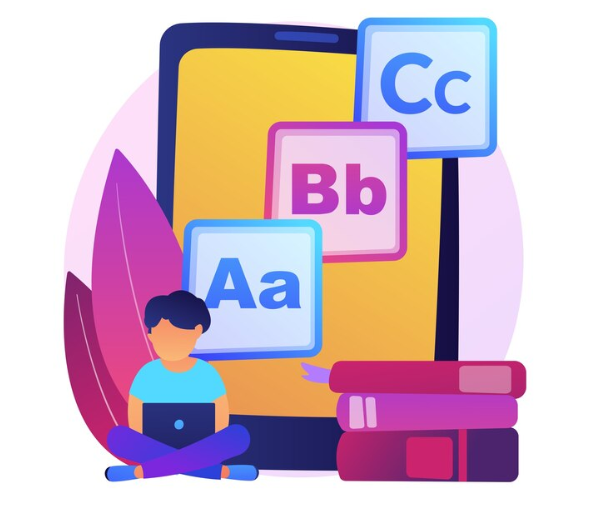
With a plethora of English learning apps available, it can be daunting to choose the one best suited to your needs. To simplify your decision, we've put together a comparison table detailing features, pros, and cons of popular language learning apps such as Duolingo, Rosetta Stone, Babbel etc.
**App**
**Features**
**Pros**
**Cons**
Duolingo
Gamified language learning with lessons in grammar and vocabulary.
Free access, engaging content and user-friendly interface.
Less focus on conversation skills; ads in the free version can be distracting.
Rosetta Stone
Comprehensive language learning with emphasis on pronunciation, reading, writing and speaking.
Immersive methodology and speech recognition technology for pronunciation correction.
More expensive and requires a consistent time commitment.
Babbel
Interactive dialogues and review sessions for understanding sentence construction and improving fluency.
Practical real-world scenarios; progress tracking feature.
Fee-based after initial lessons.
More beneficial for intermediate learners rather than beginners.
Hello English
Tailored towards learners who want to learn English from scratch or improve skills.
Uses interactive games for teaching grammar rules and vocabulary.
The interface is not very user-friendly.
Not enough emphasis on spoken English.
Each app has its unique strengths and could be used in conjunction depending on your specific learning goals and current proficiency level.
Now that you have a better idea about these apps' offerings, don't forget to check out our detailed guide on [11 Of The Best Apps For Improving Your English Speaking Skills](https://clapingo.com/blog/best-apps-english-speaking). Choose the app that matches your requirements the most and start learning. Always remember that consistent practice is key to mastering any language!
Which Website is the Best For Improving English?
------------------------------------------------
The internet is brimming with resources, and we have discussed quite a few of them in this blog. But, finding a platform tailored to the unique needs of Indian non-native English speakers can be challenging.
Your search for an ideal platform should focus on a few crucial features:
**1\. Comprehensible Lessons**: The material should be easy to understand, with lessons broken down into manageable sections.
**2\. Interactive Content**: Look for websites offering engaging activities like quizzes and interactive speaking tasks.
**3\. Native Speaker Involvement**: Platforms that involve native speakers as tutors offer an authentic learning experience.
**4\. Flexible Timings**: Opt for learning platforms that allow you to schedule sessions according to your convenience.
Among the plethora of learning platforms, [Clapingo](https://clapingo.com/) stands out as a preferred choice for many Indian professionals aiming to master the English language. With its personalised coaching sessions conducted in learners' native languages, it breaks down the language barrier effectively. The one-on-one classes focus on pronunciation, vocabulary and sentence structure, aiming at overall fluency.
Moreover, Clapingo also offers flexible session scheduling and a structured 5-step course adaptable to individual learner's needs. As a bonus, getting guidance from native English speakers provides learners with practical insights into colloquial terms and phrases.
In addition to dedicated platforms like Clapingo, there are several free online courses for enhancing your spoken English skills as well. You can check out our list of [Top 15 Free Online Courses For English Speaking](https://clapingo.com/blog/free-english-speaking-course) that cater specifically to non-native speakers in India.
Remember, improving your English online requires dedication and consistent practice alongside utilising these resources effectively!
Final Thoughts: Empowering Your Language Learning Journey with Clapingo
-----------------------------------------------------------------------
In this enriching journey through the intricacies of the English language, we've explored various strategies to enhance your English skills online. From harnessing digital platforms to looking at interactive learning modes, it's evident that improving English online is a feasible goal for every individual.
Remember, language learning is not a sprint; it’s more like a marathon. Each word you learn, each sentence you utter, and the confidence you gain along the way, all contribute to your overall progress. Persistence is key. Don't be disheartened by initial speed bumps; instead, view them as stepping stones towards fluency.
As we wrap up this guide, let's revisit the potential that lies in personalised English coaching. Platforms like [Clapingo](https://clapingo.com/) open up an efficient avenue for improving English online. With one-on-one sessions facilitated by native speakers who coach in your native language, they offer an environment conducive to effective learning.
The structured 5-step course offered by Clapingo ensures you enhance all aspects of spoken English - from fluency and pronunciation to vocabulary and sentence structure. It's an adaptable and flexible plan that fits seamlessly within your schedule.
Enhancing one's English skills isn't just about mastering a foreign tongue; it's about broadening horizons and breaking down barriers. It’s about gaining access to a world where language is no longer an obstacle but a stepping stone towards success.
So why wait? Take this opportunity to turn challenges into triumphs with these strategies coupled with Clapingo’s offerings. The journey may seem daunting initially, but remember – every step you take brings you closer to becoming a confident communicator in English!
Embrace your journey towards improved spoken English skills with enthusiasm and dedication. And remember – every little bit helps on your path towards mastering this universal language!
FAQs
----
1\. How can I improve my English speaking skills online?
The internet offers a plethora of resources! You can start by listening to English podcasts, watching movies, and participating in interactive language learning games. For a more focused approach, consider opting for personalised online courses like Clapingo, where you'll have one-on-one conversations with native speakers.
2\. How much time should I dedicate daily to improve my spoken English?
Consistency is key. Spending even 15-20 minutes a day can significantly improve your fluency over time. You could use this time for activities like talking to a language partner, watching an English show, or participating in an online lesson at Clapingo.
3\. Can I improve my English pronunciation online?
Definitely! Online resources like YouTube are a goldmine of pronunciation guides and accent training videos. If you are looking for personalised feedback and corrections, consider enrolling with platforms like Clapingo that provide one-on-one coaching with native speakers who can pinpoint your pronunciation mistakes and help you rectify them.
---
This blog is powered by Superblog. Visit https://superblog.ai to know more.
---
## It's vs Its : The Apostrophe Dilemma Solved
Author: Unknown
Published: 2023-12-09
Meta Title: Mastering It's vs Its: Solve the Apostrophe Dilemma.
Meta Description: Confused between it's and its? Learn the correct usage, meaning, examples, and never make mistakes again. Get clarity on this common English dilemma now!
Tags: It's vs Its, Meaning of It's and Its
URL: https://clapingo.com/blog/its-vs-it-s
Contents
* [What is the Meaning of "It's" and "Its"?](#what-is-the-meaning-of-its-and-its)
* [1) "It's" is a contraction of "it is" or "it has."](#1-its-is-a-contraction-of-it-is-or-it-has)
* [2) "Its" is a possessive pronoun indicating ownership.](#2-its-is-a-possessive-pronoun-indicating-ownership)
* [Understanding When to Use It's and Its](#understanding-when-to-use-its-and-its)
* [Common Mistakes with Practical Examples Differentiating Between "It's" and "Its"](#common-mistakes-with-practical-examples-differentiating-between-its-and-its)
* [Key Takeaways](#key-takeaways)
* [FAQs](#faqs)
* [You may want to read](#you-may-want-to-read)

Did you know that the correct usage of "it's" and "its" can sometimes cause confusion even among native English speakers? Well, don't worry! We're here to help you clear up this apostrophe dilemma once and for all.
Proper usage of "it's" and "its" is crucial for effective English communication. It may seem like a small detail, but it can make a significant difference in the meaning of your sentences. Understanding when to use "it's" as a contraction and when to use "its" as a possessive pronoun is essential for language proficiency.
In this article, we aim to provide you with clarity and guidance on the correct usage of "it's" versus "its". We'll explain their meanings and provide examples to help you grasp the concept easily. So, let's dive in and solve this apostrophe dilemma together!
Now that we have set the stage, let's move on to the following sections where we will delve into it's vs its meaning and it's vs its examples. Get ready to learn perfect sentence formation in English online!
What is the Meaning of "It's" and "Its"?
----------------------------------------
The apostrophe dilemma - it's a common confusion among English learners. It seems like such a small punctuation mark, but it can make a big difference in meaning. So, let's solve the mystery of it's vs its meaning once and for all!
### **1) "It's" is a contraction of "it is" or "it has."**
"It's" is a contraction, which means it combines two words into one by replacing letters with an apostrophe. In the case of "it's," it can stand for either "it is" or "it has." This contraction is commonly used in spoken and written English to express these two meanings.
For example:
* _It's raining outside. (It is raining outside.)_
* _It's been a long day. (It has been a long day.)_
### **2) "Its" is a possessive pronoun indicating ownership.**
On the other hand, we have "its." Unlike the possessive pronouns you may be familiar with, such as his, her, or their, "its" indicates possession without using an apostrophe-S ('s). It shows that something belongs to or is associated with something else.
For example:
* _The dog wagged its tail._
* _The company celebrated its anniversary._
Understanding the meaning and usage of "it's" and "its" will help you communicate more effectively in English. Keep practicing and soon you'll be able to use these terms with confidence!
Understanding When to Use It's and Its
--------------------------------------
The correct usage of "it's" and "its" can be a perplexing dilemma for many English learners. In this section, we will break it down for you and provide simple guidelines to help you differentiate between the two.
**It's**
**1\. Expressing a state:** When you want to describe a state or condition, use "it's". For example:
* _It's raining heavily outside._
* _It's cold in here._
**2\. Describing an action:** When you want to talk about an action, use "it's". For example:
* _It's time for dinner._
* _It's getting late._
**3\. Contractions:** In contractions, where two words are combined into one, use "it's". For example:
* _It's nice to see you._
* _It's been a long day._
**Its**
"Its" indicates possession or belonging without using an apostrophe. Unlike most possessive pronouns which require an apostrophe ('s), "its" does not have one. Instead, it indicates possession or belonging through context. Use 'its' when referring to something that belongs to or is associated with something else.
* _The bird built its nest high up in the tree._
* _The company is known for its innovative products._
Now let’s take a look at a table comparing correct and incorrect usage of possessive pronouns:
**Possessive Pronoun**
**Correct Usage**
**Incorrect Usage**
It’s
It’s a beautiful day.
Its raining heavily.
Its
The cat licked its paws.
The cat licked it's paws.
To reinforce your understanding, practice with online tests and exercises like this exercise from usinggrammar.com. Clapingo also offers [various resources](https://www.youtube.com/@Clapingo/videos) for online sentence formation in English, where you can learn perfect sentence formation in English online.
Common Mistakes with Practical Examples Differentiating Between "It's" and "Its"
--------------------------------------------------------------------------------
Let's explore some common mistakes made while distinguishing between "it's" and "its" and provide practical examples to help clarify the correct usage.
**Mistake 1: Using "it's" as a possessive pronoun.**
* Incorrect sentence: _The dog wagged it's tail excitedly._
* Correction: _The dog wagged its tail excitedly._
* Rationale: In this case, the possessive pronoun "its" is used to indicate that the tail belongs to the dog. The contraction "it's," on the other hand, is a shortened form of "it is."
**Mistake 2: Using "its" as a contraction.**
* Incorrect sentence: _Its going to snow tomorrow._
* Correction: _It's going to snow tomorrow._
* Rationale: Here, the contraction "it's" is used to mean "it is." The word should not be confused with the possessive pronoun "its," which indicates possession or relationship.
**Mistake 3: Failing to use an apostrophe when needed.**
* Incorrect sentence: _The bird spread its wings wide open._
* Correction: _The bird spread it's wings wide open._
* Rationale: In this example, an apostrophe should be used in the contraction "it's." This shows that the bird is spreading its wings wide open.
**Mistake 4: Confusing "it's" with "its" in a sentence.**
* Incorrect sentence: _It's important to remember to bring its umbrella._
* Correction: _It's important to remember to bring your umbrella._
* Rationale: In this sentence, the word "its" should be replaced with "your" to indicate possession. The contraction "it's" remains unchanged.
By understanding these common mistakes and their corrections, you can confidently navigate the usage of "it's" and "its." Remember, "it's" is a contraction meaning "it is," while "its" is a possessive pronoun denoting ownership or relationship. Practice using these words correctly, and you'll soon master the art of distinguishing between them.

Key Takeaways
Now that we've covered the ins and outs of "it's" vs "its", let's recap the key points to remember when using these terms.
"It's" is a contraction of "it is" or "it has," while "its" is a possessive pronoun indicating ownership or belonging. Remember that "it's" always requires an apostrophe, but "its" never does. To master the correct usage of "it's" vs. "its", it's essential to practice incorporating these terms into your everyday speech and writing.
As you continue on your journey to improve your English language skills, Clapingo is an invaluable resource for all your language learning needs. Whether you're looking to learn perfect sentence formation in English online or gain confidence in spoken English, Clapingo offers tailored courses and expert guidance to help you achieve your goals.
Visit Clapingo's website to explore their wide range of [basic](https://clapingo.com/product/basic-english-speaking-course) as well as [advanced spoken English courses](https://clapingo.com/product/advanced-english-speaking-course) and resources designed specifically for Indian learners like yourself.
FAQs
----
**1\. When do you use "it's" vs. "its"?**
"It's" is a contraction of "it is" or "it has." Use this when you want to say something like, "_It's a beautiful day_," or "_It's been a long time._"
On the other hand, "its" is a possessive pronoun indicating ownership. Use this when referring to something that belongs to or is associated with an object or animal, such as, "_The parrot spread its wings._"
**2\. How do you use "its" in a sentence?**
To use "its" correctly, remember that it shows possession or association without needing an apostrophe. Here are some examples:
* _The book lost its cover._
* _The tree shed its leaves._
**3\. What is the difference between "its" and "it is" in a sentence?**
The key difference lies in their meanings and usage. "It's" is a contraction of either "it is" or "it has." For example:
* _It's raining outside._ (contraction of it is)
* _It's been a great day._ (contraction of it has)
\- Conversely, when using just the pronoun form, we say:
* _Its colour is vibrant._ (referring to the colour belonging to something)
**4\. Is it correct to say "It's me"?**
Yes! Saying “It’s me” in casual situations like answering the phone or greeting someone at the door is grammatically correct. The contraction "It's" is commonly used as a shortcut for "It is" in informal contexts.
**5\. How do you remember "its" and "it's"?**
Remembering the correct usage of "its" and "it's" can be challenging, but here are a few tips to help you:
\- Create mental associations: Think of a dog wagging its tail; no apostrophe is needed.
\- Practice: Write out sentences using both words correctly until it becomes second nature.
\- Read aloud: When reading, pay attention to how the words are used in context, as this will reinforce their proper meaning.
**You may want to read**
------------------------
**[Mastering English: Fast Track to Fluency and Confidence](https://clapingo.com/blog/how-to-learn-english-fast)**
---
This blog is powered by Superblog. Visit https://superblog.ai to know more.
---
## Learn Quickly: 100 Short Conversational English Tips for Beginners
Author: Unknown
Published: 2023-12-08
Meta Title: Master Spoken English for Beginners with Short Sentences
Meta Description: Enhance your English Conversation skills with 100 basic sentences for beginners. Connect confidently in conversations with our simple guide for beginners.
Tags: short english conversations, english conversations
URL: https://clapingo.com/blog/english-conversation
Contents
* [](#)
* [Unlocking Fluency: Short English Conversations for Beginner Learners](#unlocking-fluency-short-english-conversations-for-beginner-learners)
* [Basic English Conversation Tips for Beginners](#basic-english-conversation-tips-for-beginners)
* [English Conversations for Everyday Situation](#english-conversations-for-everyday-situation)
* [English Conversations for Socialising](#english-conversations-for-socialising)
* [English Conversations in Professional Settings](#english-conversations-in-professional-settings)
* [Applying What You've Learned](#applying-what-youve-learned)
* [Closing Remarks: Keep Talking, Keep Learning: Your Path to Fluent English Conversations Begins Here](#closing-remarks-keep-talking-keep-learning-your-path-to-fluent-english-conversations-begins-here)
* [FAQs](#faqs)

Unlocking Fluency: Short English Conversations for Beginner Learners
--------------------------------------------------------------------
Are you ready to unlock the power of conversation? Mastering English, or any other language for that matter, is not just about knowing grammar rules and expanding vocabulary! It's about gaining the confidence to communicate and connect with people from different walks of life with regular English conversation practice.
This blog is your ultimate guide to short English conversations, especially tailored for beginners. Our primary goal? To empower you! We aim to help you dive into real-life situations, navigate through them with ease, and come out speaking English more fluently than ever before.
So, gear up and embark on this exciting journey of language learning with us!
Basic English Conversation Tips for Beginners
---------------------------------------------
One of the most important aspects for beginners is to focus on building a strong foundation. This is why we've put together some basic English conversation tips to help you get started:
1. Listen carefully: Pay close attention to what the other person is saying and try to understand their main message.
2. Be patient: Don't rush yourself or feel pressured to respond quickly. Take your time to process the information and formulate a response.
3. Use body language: Non-verbal communication, such as smiling and nodding, can encourage a positive conversation flow.
4. Ask questions: Showing interest in the other person's life and opinions is a great way to keep the conversation going.
5. Practice active listening: This means actively engaging with the speaker by repeating or summarizing what they have said to ensure understanding.
Consistent English conversation practice is vital in mastering English conversations. It helps reinforce your learning and turns understanding into second nature. By engaging in conversations regularly, you also improve your listening comprehension and response speed. The language gradually becomes more familiar, and your confidence grows.
Over time, daily English conversation practice can dramatically enhance your fluency. Remember, language mastery isn’t a sprint but a marathon. It’s about steady progress and persistence. So, make daily practice a habit and watch your English conversational skills soar!
English Conversations for Everyday Situation
--------------------------------------------

Everyday English conversations are the foundation of our daily interactions. By mastering basic English conversational skills, we can easily communicate with others and build meaningful relationships. Let's look at an example to see some common ways to start everyday conversations:
In this video, we see that the Clapingo tutor begins by asking the student "How are you doing?" to which the student replies, "I am doing great."
This is one of the most common ways to start a conversation in English. You can ask someone how they're doing and then continue the conversation based on their answer. Likewise, if someone asks you this question, you can reply with "I am doing great" or "I'm doing okay" and ask the other person a follow-up question to get the conversation going.
If you are a complete beginner, practising such stock conversation starters can help you strengthen your conversation skills.
Here are some more examples of basic English conversations for everyday conversations.
1. Greeting - "Hello, my name is John. What's your name?"
2. Compliment - "I love your dress, where did you get it?"
3. Asking for Directions - "Excuse me, could you please tell me how to get to the nearest subway station?"
4. Making Plans - "I'm free next Saturday. Would you like to join me for a movie?"
5. Asking for Help - "Sorry to bother you, but could you help me understand this report?"
6. Expressing Opinions - "In my opinion, the book's storyline was more compelling than the movie version."
7. Job Inquiry - "I am interested in the job you posted. Could you tell me more about the responsibilities?"
8. Ordering Food - "I would like to order a Margherita pizza and a diet coke, please."
9. Making a Complaint - "Excuse me, there's a mistake in my bill. Could you correct it, please?"
10. Saying Goodbye - "It was nice meeting you. Hope to see you soon!"
English Conversations for Socialising
-------------------------------------
Socializing is a common and enjoyable activity that allows us to connect with others and build relationships. It involves engaging in conversations with others at a party, gathering, or when you are just hanging out. These conversations can also involve asking about someone's day, hobbies, or interests. Let's look at another example:
In this video, we can see a Clapingo tutor asking her student about her experience at a restaurant. Such conversations are common in socialising settings. Here are some sentence types that you can see in the video as the conversation progresses:
1. Asking Questions - "Have you ever tried lasagna?"
2. Sharing Experiences - "Recently, I had a really bad experience with red sauce pasta at a restaurant."
3. Saying Goodbye - "It was really nice talking to you!"
The video also shows that follow-up questions are a great way to keep the conversation going and make it an enjoyable experience for both speakers. You can also use this method to keep the conversation alive and interesting.
Here are some more examples of English conversations you may have while socializing:
* "How is your day going so far?" - This is a great conversation starter to see how someone's day has been and show genuine interest in their well-being.
* "Have you travelled anywhere interesting recently?" - Travel is a common topic of conversation, as it allows people to share their experiences and learn about new places.
* "What do you enjoy doing in your free time?" - This question can lead to discovering common interests and potentially making plans together.
* "Do you have any pets?" - Pets are a beloved topic of discussion for many people, allowing them to share stories and bond over their furry friends.
* "What kind of music do you like?" - Music is another popular conversation topic, as it can reveal a lot about a person's personality and preferences.
* "Do you have any upcoming events or plans?" - This can lead to discussing exciting future activities and potentially making plans together.
* "What do you do for work/study?" - Work or study is a common topic of conversation, as it allows people to learn about each other's professions and daily lives.
* "What do you like about this city/town?" - This question can spark discussions about local attractions, hidden gems, and what makes the place special.
* "Do you have any favourite hobbies or sports?" - Hobbies and sports are great conversation topics as they can lead to learning new skills and potentially participating in activities together.
**Further Resources on English Conversation Starters:**
[190+ Creative English Speaking Topics to Speak to Anyone | Clapingo](https://clapingo.com/blog/english-speaking-topics)
English Conversations in Professional Settings
----------------------------------------------

Professional settings, especially job interviews, often follow a different set of English conversation topics compared to casual social settings. Mastering these conversations is crucial for making a good impression and showcasing your skills and qualifications.
To help you get started, here is a sample conversation:
In this video, the Clapingo tutor opens the conversation by asking the student "Is it a working Saturday for you?" The student replies, "Yes, I am taking online classes on the weekend." Such conversation starters are perfect for bringing up the topic of work and can help start a conversation revolving around professional settings. They then move on to talk about business ideas and how entrepreneurs come up with new, innovative products. This is a great way of engaging in casual or work-related conversations in a professional setting.
You can also take a look at these simple sentences that will come in handy during various professional interactions:
1\. Greeting someone: "Good morning/afternoon/evening! How are you today?"
2\. Introducing yourself: "Hi, my name is \[Your Name\]. I work as a \[Your Profession\]."
3\. Asking someone's name: "May I ask your name?"
4\. Giving your contact information: "Here's my business card/email address/phone number."
5\. Requesting information: "Could you please provide me with more details about \[topic\]?"
6\. Making small talk: "How was your weekend?"
7\. Offering assistance: "Is there anything I can help you with?"
8\. Scheduling a meeting: "When is a convenient time for us to meet?"
9\. Accepting an invitation: "Thank you for inviting me. I would be delighted to attend."
10\. Declining an invitation: "I appreciate the invitation, but unfortunately, I am unable to attend."
11\. Requesting clarification: "I'm sorry, could you please repeat that? I didn't quite catch it."
12\. Discussing goals and objectives: "What are our main objectives for this project/meeting?"
13\. Presenting ideas or suggestions: "I have an idea/suggestion that might be worth considering."
14\. Asking for feedback: "What do you think about my proposal/presentation?"
15\. Agreeing with someone's opinion: "I completely agree with you."
### Applying What You've Learned
Whether in personal or professional settings, effective communication is key to success. Using the above phrases in appropriate contexts can enhance your communication skills and help you convey your ideas more clearly. It's important to keep in mind that using these phrases alone won't make you a better communicator - it's also essential to listen actively, use nonverbal cues effectively, and adapt your message to different audiences.
By consistently practising English conversation and refining your communication skills, you can become a more confident and persuasive speaker, leading to stronger relationships and better outcomes in all aspects of your life. So keep learning, keep practising, and never stop striving for improvement!
Closing Remarks: Keep Talking, Keep Learning: Your Path to Fluent English Conversations Begins Here
---------------------------------------------------------------------------------------------------
[Practicing English conversations](https://clapingo.com/blog/practice-english-speaking-alone) is crucial for linguistic fluency and confidence. It helps in understanding the nuances of the language, including idioms, phrases, and cultural implications. Regular interaction in English bolsters listening and responding abilities, leading to effective and natural communication. Moreover, it bridges language barriers, fostering global connections and collaborations.
As we wrap up, remember that the conversations covered in this blog are not endpoints but starting points. Use them as a launchpad to dive deeper into the English language. Explore new phrases, idioms, and stylistic nuances as you engage in different English conversation dialogues. These interactions will not only enrich your vocabulary but also boost your confidence and fluency. Keep practising, and keep exploring!
[Clapingo](https://clapingo.com/) is here to support you on your journey to fluent conversations. With our interactive platform, you can practice real-life English conversations with native speakers and receive personalized feedback to enhance your skills further. Start your journey today and see how far it takes you! So don't wait any longer, come join us at Clapingo and start improving your communication skills today! Remember, the key to fluent conversations is practice, so keep talking and never stop learning!
FAQs
----
**How to start a conversation in English?**
Start with a simple greeting. Ask open-ended questions about the other person to keep the conversation going. Use appropriate body language and gestures while speaking. Focus on using small words and keep your sentences short, as this will help you remember what to say in English conversations. Listen carefully to the other person's response and use follow-up questions to show genuine interest.
**What are some easy ways to introduce myself?**
Introducing yourself can be as simple as introducing your name, where you’re from, and what you do. You can also talk about your family or hobbies to give the other person a better idea of who you are. Make sure to maintain eye contact and use a friendly tone when speaking.
**How to make small talk in English through conversations or dialogues?**
Making small talk in English through conversations or dialogues can be as simple as mentioning the weather, asking about how the day is going, or talking about recent news. Try to use open-ended questions that will lead to more detailed conversations.
---
This blog is powered by Superblog. Visit https://superblog.ai to know more.
---
## Top 25 English Speaking Course Books You Shouldn't Miss
Author: Unknown
Published: 2023-12-01
Meta Title: Master Fluency with Best English Speaking Course Books!
Meta Description: Polish fluency with English-speaking course books! From grammar to pronunciation, improve your skills and boost confidence. Find the perfect resources here!
Tags: english course book, english speaking course book, course book for english
URL: https://clapingo.com/blog/english-speaking-course-book
Contents
* [Unlocking Fluent English: The Perfect English Speaking Course Book](#unlocking-fluent-english-the-perfect-english-speaking-course-book)
* [1\. Understanding the Basics: Books to Build Strong Foundations](#1-understanding-the-basics-books-to-build-strong-foundations)
* [2\. From Shy to Confident Communicator: Books to Enhance English Speaking Skills](#2-from-shy-to-confident-communicator-books-to-enhance-english-speaking-skills)
* [3\. The Power of Active Listening: Books that Help in Sharpening Your Ears](#3-the-power-of-active-listening-books-that-help-in-sharpening-your-ears)
* [4\. Word by Word: Building a Stronger Lexicon with the Best English Speaking Course Books](#4-word-by-word-building-a-stronger-lexicon-with-the-best-english-speaking-course-books)
* [5\. Sounds Perfect: Books to Fine-tune English Pronunciation](#5-sounds-perfect-books-to-fine-tune-english-pronunciation)
* [6\. Confidently Fluent: English Speaking Course Books for Maximum Impact](#6-confidently-fluent-english-speaking-course-books-for-maximum-impact)
* [Closing remarks: Embark on Your English Journey with Clapingo](#closing-remarks-embark-on-your-english-journey-with-clapingo)
* [FAQs](#faqs)

Unlocking Fluent English: The Perfect English Speaking Course Book
---------------------------------------------------------------------
Choosing the right course book is crucial for improving your English speaking skills. A good English speaking course book not only provides you with the necessary knowledge but also helps you practice and apply what you've learned in a structured manner. It acts as your guide on the journey towards fluency and confidence in speaking English.
This article is intended for English learners of all levels who are looking to enhance their speaking skills. Whether you are a beginner, intermediate, or advanced learner, there is a book out there that can help you take your English speaking abilities to the next level.
In this article, we will cover various aspects of improving English speaking skills, such as understanding grammar, building vocabulary, developing conversational skills, enhancing listening skills, expanding vocabulary, improving pronunciation, and building confidence and fluency. Each section will highlight recommended books related to that particular aspect.
So get ready to unlock fluent English with the perfect English speaking course book! Whether you prefer traditional textbooks or digital resources like e-books and audiobooks, we have got you covered. And don't worry, you can find most of these English speaking course books' PDFs online.
Now, let's dive into the first section of our article, which focuses on understanding the basics of English.
1\. Understanding the Basics: Books to Build Strong Foundations
---------------------------------------------------------------
To truly excel in English speaking, it is crucial to have a solid foundation in grammar, vocabulary, and pronunciation. These essential concepts form the building blocks of effective communication. In this section, we will explore four top books that cover these fundamentals in a comprehensive and engaging manner.
1. [**Practice Makes Perfect: Basic English**](https://www.amazon.in/Practice-Makes-Perfect-English-Premium/dp/1260143724/) **by Julie Lachance**: This book is perfect for beginners looking to improve their English speaking skills. It provides clear explanations and numerous practice exercises to reinforce grammar rules, expand vocabulary, and develop correct pronunciation.
2. [**English Grammar in Use**](https://www.amazon.in/ENGLISH-GRAMMAR-USE-RAYMOND-MURPHY/dp/1009451782/) **by Raymond Murphy**: Widely regarded as one of the best grammar books for English learners, this book offers detailed explanations of English grammar structures. With its user-friendly format and interactive exercises, it helps learners grasp grammatical concepts with ease.
3. [**Word Power Made Easy**](https://www.amazon.in/Word-Power-Made-Norman-Lewis/dp/0143424688/) **by Norman Lewis**: A renowned vocabulary-building book, "Word Power Made Easy" provides practical techniques to expand your word bank effectively. Through engaging exercises and contextual examples, it helps learners understand word families, idiomatic expressions, and phrasal verbs.
4. [**Ship or Sheep?**](https://www.amazon.in/Ship-Sheep-Audio-South-Asian/dp/0521744954/) **by Ann Baker**: Pronunciation plays a vital role in effective communication. This book focuses specifically on improving pronunciation skills through minimal pair exercises. It helps learners identify common pronunciation errors and develop accurate speech patterns.
These books offer a strong foundation in grammar, vocabulary, and pronunciation. By incorporating them into your learning journey, you will develop a solid understanding of these essential concepts. The following sections will delve into these basics more deeply.
2\. From Shy to Confident Communicator: Books to Enhance English Speaking Skills
--------------------------------------------------------------------------------

Do you want to go from feeling shy and hesitant to becoming a confident and fluent English speaker? If so, developing your conversational skills is key. Engaging in conversations not only improves your fluency but also boosts your confidence in using the language. To help you on your journey, here are four highly recommended English speaking course books that focus on enhancing conversational skills:
1. [**English Conversation Practice**](https://www.amazon.in/English-Conversation-Practice-Grant-Taylor/dp/0070996032/) **by Grant Taylor**: This book offers a wide range of conversation topics and dialogues, allowing you to practice real-life situations. Through interactive exercises, role-plays, and vocabulary expansion activities, this book helps you develop natural conversational skills.
2. [**Fluent English: Making the Leap to Natural, Perfect English (Audiobook)**](https://www.amazon.in/Fluent-English-Making-Natural-Perfect/dp/1400020883) **by Barbara Raifsnider and Christopher A. Warnasch**: If you prefer an audio-based approach, this audiobook is perfect for you. It provides model conversations and teaches you how to express yourself confidently in various everyday situations.
3. [**Practice Makes Perfect: English Conversation**](https://www.amazon.in/Practice-Makes-Perfect-English-Conversation/dp/1260462161/) **by Jean Yates**: This comprehensive book focuses on improving your speaking fluency through practical exercises and targeted language instruction. It covers a wide range of topics such as travel, socializing, work, and more.
4. [**Fluent in 3 Months**](https://www.amazon.in/Fluent-3-Months-Benny-Lewis-ebook/dp/B00FVE4WFE/) **by Benny Lewis**: Benny Lewis shares his language learning journey and provides practical tips for quickly improving your conversational skills. This book emphasizes the importance of immersion-style learning and gives guidance on effective language exchange techniques, which can greatly enhance your speaking abilities.
These books will help you develop your conversational skills from being hesitant to becoming an eloquent communicator in English. Engaging in conversations about subjects you're passionate about allows you to express your opinions and thoughts freely while expanding your vocabulary on those specific topics. You can check this Clapingo article for interesting conversation topics: [190+ Creative English Speaking Topics to Speak to Anyone | Clapingo](https://clapingo.com/blog/english-speaking-topics)
This Ted Talk by Marc Green can also be helpful:
3\. The Power of Active Listening: Books that Help in Sharpening Your Ears
--------------------------------------------------------------------------

Listening comprehension plays a crucial role in improving your spoken English. A strong listening ability enables you to understand native speakers, grasp different accents, and respond appropriately in conversations. To enhance your listening skills, here are four highly recommended books that focus on developing this essential skill:
1. [**Oxford Skills World L6 Listening & Speaking Student Book/Workbook**](https://www.amazon.in/Oxford-Skills-World-Listening-Speaking/dp/0194113442) **by Joanna Ross:** This comprehensive book offers a variety of engaging listening activities that cover a wide range of topics. With its clear audio recordings and accompanying exercises, it provides ample opportunities to practice active listening and improve comprehension skills. The workbook section allows you to reinforce what you've learned and track your progress.
2. [**Top-Up Listening 1 (eBook)**](https://www.amazon.in/Top-Up-Listening-1-Chris-Cleary-ebook/dp/B08B1Q5J7P/) **by Chris Cleary, Bill Holden, et al.:** Top-Up Listening 1 is an interactive eBook designed to help you refine your listening skills through stimulating audio material. The book includes authentic conversations, interviews, and lectures that expose you to real-world language use. It also offers valuable tips and strategies for effective note-taking, summarizing information, and improving overall listening proficiency.
3. [**Active Listening Techniques: 30 Practical Tools to Hone Your Communication Skills**](https://www.amazon.in/Active-Listening-Techniques-Practical-Communication/dp/9389995949/) **by Nixaly Leonardo:** This practical guide focuses on developing active listening techniques that can be applied in various contexts. It presents 30 effective tools such as paraphrasing, empathetic listening, and asking clarifying questions to enhance understanding during conversations. By implementing these techniques, you'll become a better listener and communicator.
4. [**Basic Tactics for Listening**](https://www.amazon.com/Basic-Tactics-Listening-Booklet-Audio/dp/0194388301) **by Jack C. Richards and Sue Brioux Aldcorn:** Basic Tactics for Listening is a popular book that helps learners develop their listening skills across different contexts and situations. It provides a systematic approach to understanding and practising listening with clear explanations, engaging dialogues, and stimulating activities.
These books provide a structured approach to enhancing your listening skills and offer ample opportunities for practice. Remember, active listening is not just about hearing words; it's about understanding meaning, context, and nuances. Incorporating these books into your English learning journey will undoubtedly sharpen your ears and help you become a more confident and effective communicator.
[Clapingo Conversation With Arpita Amar ll English Listening Practice - YouTube](https://www.youtube.com/watch?v=gtajc5DnsZg&t=4s)
4\. Word by Word: Building a Stronger Lexicon with the Best English Speaking Course Books
-----------------------------------------------------------------------------------------
Building a robust vocabulary is crucial for effective communication in English. The more words we know, the better we can express ourselves and understand others. To help you expand your lexicon, here are some books that focus on vocabulary development:
1. [**The Vocabulary Builder Workbook**](https://www.amazon.in/VOCABULARY-BUILDER-WORKBK-Chris-Lele/dp/193975481X) **by Chris Lele:**
This book offers a comprehensive approach to building vocabulary. It includes exercises, word lists, and strategies to help you learn and retain new words effectively. With its structured approach, this workbook is perfect for learners of all levels.
2. [**Cambridge Idioms Dictionary**](https://www.amazon.in/Cambridge-Idioms-Dictionary-2Nd-Cup/dp/0521702437/) **by Cambridge University Press:**
[Idioms and expressions](https://clapingo.com/blog/the-most-important-english-expressions-to-know) play a significant role in English conversations and can be challenging to understand for non-native speakers. This dictionary provides clear explanations and examples of common idioms used in everyday language. It's an invaluable resource for improving your understanding and usage of idiomatic expressions.
3. [**Oxford Word Skills series**](https://www.goodreads.com/series/87920-oxford-word-skills) **by Ruth Gairns:**
The Oxford Word Skills series comprises several books that focus on different aspects of vocabulary development. Each book is divided into units that cover specific topics, such as collocations, phrasal verbs, idioms, and expressions related to particular fields or contexts.
4. [**Oxford Advanced Learner's Dictionary**](https://www.amazon.in/Advanced-Learners-Dictionary-Hardback-Premium/dp/0194798518/) **by Oxford University Press:**
A comprehensive dictionary is essential for any English learner. The Oxford Advanced Learner's Dictionary is highly regarded as one of the best resources available. It provides detailed definitions, example sentences, collocations, and pronunciations for over 86,000 words and phrases.
Expanding your vocabulary is an ongoing process that requires regular practice and exposure to new words. These books will serve as valuable companions on your journey to building a stronger lexicon. You can also check out this article from the Clapingo blog: [100+ Daily Use English Words for Fluent Communication (](https://clapingo.com/blog/daily-use-english-words)[clapingo.com](//clapingo.com)[)](https://clapingo.com/blog/daily-use-english-words)
5\. Sounds Perfect: Books to Fine-tune English Pronunciation
------------------------------------------------------------

One of the essential aspects of effective communication in English is pronunciation. Clear and accurate pronunciation can greatly enhance your ability to express yourself clearly and be understood by others. To help you improve your pronunciation skills, here are four highly recommended books that focus specifically on this area:
1. [**Gimson's Pronunciation of English**](https://www.amazon.in/GIMSONS-PRONUNCIATION-ENGLISH-6ED-2001/dp/0340806680/) **by Cruttenden and Gimson:**
This comprehensive guide provides a detailed exploration of English phonetics and phonology. It covers the [International Phonetic Alphabet (IPA)](https://www.internationalphoneticassociation.org/content/full-ipa-chart) and offers valuable insights into the sounds, stress patterns, and intonation of English. With clear explanations and numerous examples, this book is an invaluable resource for learners looking to refine their pronunciation.
2. [**Better English Pronunciation**](https://www.amazon.in/English-Pronunciation-Cambridge-Language-Learning/dp/0521231523) **by J.D. O'Connor:**
This classic book offers practical exercises and guidance to improve your spoken English through accurate pronunciation. It covers all aspects of pronunciation, from individual sounds to word stress, rhythm, and intonation patterns. The book also includes audio recordings that allow learners to compare their own pronunciation with native speakers.
3. [**English Phonetics and Pronunciation for Indian Learners**](https://www.amazon.in/English-Phonetics-Pronunciation-Indian-Learners/dp/1947137433/) **by Dr. G.S.Kushwaha:**
Specifically designed for Indian learners, this book addresses common challenges faced by speakers from India in mastering English sounds. It focuses on the differences between the phonetics of Indian languages and those of English, providing exercises that target specific areas where Indian learners often struggle.
4. [**Pronounce it Perfectly in English (Book + Audio)**](https://www.amazon.in/Pronounce-Perfectly-English-Audio-Cassettes/dp/0812082443/) **by Jean Yates:**
This practical guide breaks down the complexities of English pronunciation into manageable units. It covers common problem areas such as vowel sounds, consonant clusters, word stress, and linking words together. The accompanying audio provides native speaker models for practice.
5. [**A Course in Phonetics and Spoken English**](https://www.amazon.in/Course-Phonetics-Spoken-English/dp/8120314956/) **by J Sethi and PV Dhamija:**
This comprehensive guide covers the fundamentals of phonetics and its application in spoken English. It provides a systematic approach to understanding and improving pronunciation, intonation, and other aspects of oral communication in English.
Remember, mastering pronunciation takes time and consistent practice. These books will provide you with the necessary tools and guidance to fine-tune your pronunciation skills and make significant progress on your journey towards perfect spoken English.
6\. Confidently Fluent: English Speaking Course Books for Maximum Impact
------------------------------------------------------------------------
Building confidence and fluency are essential aspects of developing strong speaking skills. To help you reach your goals, here are some highly recommended books that focus on boosting confidence and fluency in spoken English:
**1\.** [**Fearless Fluency: Speak English with Extraordinary Confidence**](https://www.amazon.in/Fearless-Fluency-Extraordinary-Confidence-Advanced-ebook/dp/B06Y62K9YS/) **by Julian Northbrook:**
* This book provides practical exercises and strategies to help you overcome inhibitions and speak confidently in various situations.
* It offers techniques for effective self-expression through presentations, public speaking, and discussions.
**2\.** [**English Collocations in Use Advanced**](https://www.amazon.in/English-Collocations-Advanced-Book-Answers/dp/1316629953) **by Felicity O'Dell and Michael McCarthy:**
* This book focuses on collocations, helping you learn natural word combinations that native speakers commonly use.
* It offers practice exercises to reinforce learning and broaden your vocabulary.
**3\.** [**The Art of Public Speaking**](https://www.amazon.in/Art-Public-Speaking-Dale-Carnegie/dp/935599561X/) **by Dale Carnegie:**
* Public speaking plays a vital role in building confidence. This classic book guides you through the process of delivering impactful speeches.
* It equips you with techniques to engage an audience, organise your thoughts effectively, and deliver persuasive presentations.
**4\.** [**English Fluency for Advanced English Speaker: How to Unlock the Full Potential to Speak English Fluently**](https://www.amazon.in/English-Fluency-Advanced-Speaker-Potential/dp/1514632284) **by Whitney Nelson:**
* This book focuses on helping English learners enhance their fluency and communication skills in the language.
* It provides practical strategies, exercises, and techniques to improve speaking skills and overcome common challenges.
Remember, the key to improving your English speaking skills is practice. Make use of these books as resources for regular speaking practice. Engage in conversations with native speakers or language partners whenever possible to further refine your skills. Check this article to know more: [How to Learn English Step by Step: Expert Tips for Fast Fluency (](https://clapingo.com/blog/how-to-learn-english-fast)[clapingo.com](//clapingo.com)[)](https://clapingo.com/blog/how-to-learn-english-fast)
This YouTube video will also be helpful:
### Closing remarks: Embark on Your English Journey with Clapingo
Now that you have explored the top books to enhance your English speaking skills, it's time to embark on your English journey with Clapingo. As we have established throughout this article, finding the right English speaking course book is crucial for your learning progress. However, it is equally important to supplement your learning with personalised coaching and guidance.
[Clapingo](https://clapingo.com/) is an exceptional platform that offers personalised English coaching classes. Our expert tutors are committed to helping learners like you develop their English speaking and writing skills for both professional and personal growth. With Clapingo, you can get tailor-made lessons that specifically address your areas of improvement.
Whether you need help with grammar, vocabulary, pronunciation, conversation skills, or building confidence in public speaking, our experienced coaches will provide all the guidance and support you may need to excel.
Remember, practice makes perfect! Consistency and dedication are key when it comes to improving your spoken English. So take advantage of all the resources at your disposal – the perfect English speaking course book, personalised coaching from Clapingo, informative blogs, and online courses – and watch your speaking skills flourish. To begin your English learning journey with Clapingo, visit [our website](https://clapingo.com/) and sign up for personalised coaching classes. Together, we will unlock the doors to fluent and confident English speaking.
FAQs
----
1\. How to select an English Speaking Course Book?
To select the right course book, consider your proficiency level, learning objectives, and preferred teaching style. Look for books that cover grammar, vocabulary, pronunciation, conversation practice, and listening comprehension.
2\. Which book is best for an English Speaking Course?
The best book for an English speaking course depends on individual preferences and goals. Some popular options include _Practice Makes Perfect: Basic English_ by Julie Lachance for foundational skills and _English Conversation Practice_ by Grant Taylor for conversational fluency.
3\. Can I learn English using course books?
Absolutely! You can learn English using books specifically designed to improve speaking skills. These books provide structured lessons, exercises, and audio resources that facilitate language acquisition and enhance communication abilities.
---
This blog is powered by Superblog. Visit https://superblog.ai to know more.
---
## Inter vs Intra : Exploring Prefixes and Their Impact
Author: Unknown
Published: 2023-11-30
Meta Title: Exploring Inter vs Intra: Understanding the Difference
Meta Description: Discover the meaning, usage, tips, examples, and impact of inter vs intra prefixes in English. Uncover their differences and enhance your language skills!
Tags: Difference of Inter vs Intra , Inter vs Intra, Inter vs Intra Prefixes, Meaning of Inter vs Intra
URL: https://clapingo.com/blog/inter-vs-intra
Contents
* [](#)
* [Mastering the Inter vs Intra Difference](#mastering-the-inter-vs-intra-difference)
* [Differences in Inter vs Intra Meaning and Usage](#differences-in-inter-vs-intra-meaning-and-usage)
* [1\. Contextual Usage:](#1-contextual-usage)
* [2\. Advantages of Correct Usage:](#2-advantages-of-correct-usage)
* [3\. Common Mistakes:](#3-common-mistakes)
* [Intra vs. Inter: Navigating the Competitive Landscape in Education](#intra-vs-inter-navigating-the-competitive-landscape-in-education)
* [Improving Cross-Disciplinary Communication with 'Intra' and 'Inter'](#improving-cross-disciplinary-communication-with-intra-and-inter)
* [Key Takeaways](#key-takeaways)
* [FAQs](#faqs)
* [You may want to read](#you-may-want-to-read)

Mastering the Inter vs Intra Difference
---------------------------------------
Have you ever come across the terms "inter" and "intra" in English? These prefixes are commonly used, but do you know what they mean and how they differ? In this article, we will explore the inter vs intra meaning from a language-learning perspective!
Knowing the inter vs intra difference is crucial when it comes to expanding your vocabulary and improving your communication skills. These prefixes have distinct meanings that can greatly impact the way we express ourselves in English.
Understanding these differences can help you navigate through various contexts with ease. Whether you are discussing international relations or exploring personal growth, knowing when to use inter vs intra can make a significant difference in conveying your ideas accurately.
Now let's delve deeper into how these prefixes impact our language learning journey. Stay tuned for more insights on this fascinating topic!
Differences in Inter vs Intra Meaning and Usage
-----------------------------------------------
When it comes to prefixes in the English language, "inter-" and "intra-" have distinct meanings that can significantly alter the words they modify. It's essential to grasp these differences to use them correctly and effectively.
* The prefix "inter-" is derived from Latin and means "between" or "among." It indicates the interaction or relationship between two or more things.
* On the other hand, the prefix "intra-" also comes from Latin but signifies "inside" or "within." It denotes something happening within a single entity or group.
Here are some examples of words using each prefix:
**1\. Words using the prefix "inter-":**
* International: Referring to activities occurring between nations.
* Intersection: Referring to a point where two lines or paths cross.
* Interdisciplinary: Describing collaboration between multiple academic disciplines.
**2\. Words using the prefix "intra-":**
* Intramural: Relating to events taking place within a single institution, such as intra-school sports competitions.
* Intravenous: Pertaining to something administered through veins within the body.
* Intrapreneurship: Signifying entrepreneurship within an existing organization.
Here's a table that shows word pairs with their altered meanings when using inter vs intra.
**Word Pair**
**Altered Meanings**
Interstate vs Intrastate
Interaction between multiple states vs Activities taking place within a single state
Interact vs Intrapersonal
Communication or engagement between individuals vs Internal processes or self-reflection
Interschool vs Intraschool
Between different schools vs Within the same school
In summation, while "inter-" emphasizes interactions between entities, "intra-" focuses on activities happening within a single entity or same group.
Did you know there is a huge list of prefixes and suffixes in English that we use every day?

Inter vs Intra Usage Guidelines for Spoken English
When it comes to using the prefixes "inter" and "intra" in spoken English, it is important to be precise and accurate to convey your intended meaning clearly. Let's explore some guidelines for incorporating these prefixes into your conversations.
### 1\. Contextual Usage:
* Use "inter" when referring to interactions or relationships between two or more different entities or groups. For example, "interpersonal communication" relates to communication between individuals, while "international relations" refers to relationships between different countries.
* On the other hand, use "intra" when discussing interactions or relationships that occur within a single entity or same group. For instance, "intrapersonal communication" refers to self-reflection and internal dialogue, while "intra-team collaboration" implies teamwork within a specific group.
### 2\. Advantages of Correct Usage:
Using "inter" and "intra" correctly can help you express precise meanings in your conversations. By incorporating these prefixes accurately, you will be able to clarify the nature of relationships and interactions you are referring to, leading to better understanding among your listeners.
### 3\. Common Mistakes:
It is common for learners of English to confuse the usage of "inter" and "intra."
Let's look at an example: confusing inter-personal with intra-personal. These terms have distinctly different meanings: inter-personal refers to relationships between individuals (e.g., friendships), while intra-personal refers to self-reflection and awareness (e.g., understanding one's own emotions).
Another incorrect usage could be saying, "The inter-communication within our team needs improvement." In this case, the correct term to use would be "intra-communication," as it refers to communication taking place within the team.
By following these guidelines, you can confidently incorporate "inter" and "intra" into your spoken English, ensuring accuracy and clarity in your communication. Remember to pay attention to the context and meaning behind these prefixes, avoiding common mistakes and confusion.
Inter vs Intra : Navigating the Competitive Landscape in Education
------------------------------------------------------------------
In the educational landscape, the distinction between intra and inter-school competitions plays a pivotal role in nurturing a student's growth and fostering a spirit of camaraderie and competition. Intraschool competition, confined within the same group or school, allows students to explore their abilities and compete in a familiar environment, promoting unity and collective improvement. Contrarily, interschool competition, involving different schools, pushes students beyond their comfort zones, exposing them to diverse strategies and perspectives. This external challenge encourages students to adapt, innovate, and collaborate, drawing on different suggestions and tactics to excel. Whether it's competing against peers in a single group or rival schools, both intra and inter-school competitions serve as valuable platforms for development, each with its unique set of benefits and lessons.
Improving Cross-Disciplinary Communication with 'Intra' and 'Inter'
-------------------------------------------------------------------
Diving deeper into the nuances of "intra-" and "inter-" illuminates their application across various fields, enhancing not only intrapersonal skills but also our understanding of complex computer network architectures. These two prefixes serve as fundamental building blocks in distinguishing activities and relationships. For example, in the world of technology, recognizing the difference between "internet" (a vast network connecting smaller networks globally) and "intranet" (a network confined within a single organization) is essential. This distinction underscores the broader application of these prefixes, demonstrating their relevance beyond simple language mechanics to integral aspects of our daily interactions and professional fields.
In the academic realm, the distinction between inter and intra plays a crucial role in fostering collaboration and innovation. Interdisciplinary research, which crosses boundaries between different disciplines, allows for a richer exploration of complex problems by integrating diverse perspectives and methodologies. This stands in contrast to intradisciplinary studies that delve deeply within the confines of a single discipline, focusing on its unique challenges and contributions. The clarity these two prefixes provide extends beyond academia, affecting how we perceive and engage with around the world, from the intricacies of social interactions to the development of new technologies and solutions.
The careful choice between inter and intra can significantly impact the clarity of communication in various contexts, including common nouns, style guides, and different forms of writing. Whether it's an intraschool competition, where students compete within the confines of their own school, or interschool events that encourage interaction between multiple institutions, understanding and correctly applying these prefixes enhances the precision of our language. Different style guides may offer varying suggestions on their usage, yet the underlying principle remains: "inter-" implies interaction between two or more entities, while "intra-" denotes activities or relationships confined within a single group or entity. Mastering these distinctions enables learners and professionals alike to articulate complex ideas and relationships with greater accuracy and nuance.
Key Takeaways
-------------
Now that we have explored the meaning and usage of "inter" and "intra" prefixes, here are the key takeaways to remember:
The prefix "inter" denotes between, among, or reciprocal relationships, such as intercity, international, and interpersonal. On the other hand, the prefix "intra" signifies within or inside something, like intrapersonal skills or intrastate.
By understanding the nuances of these prefixes, you can expand your vocabulary and express yourself more precisely in English. Incorporating words like interstate, intercultural, intraorganizational, or intradepartmental will enable you to convey specific meanings and concepts with ease.
[Clapingo](https://clapingo.com/) is dedicated to helping Indian learners enhance their English speaking and writing skills for personal and professional development. With a team of experienced teachers and a range of interactive courses tailored to individual needs, Clapingo provides a supportive environment whether you are a [young student](https://clapingo.com/kids) or seeking professional growth and [preparing for IELTS](https://clapingo.com/ielts).
Remember that improving your English proficiency takes time and practice. Clapingo is here to guide you every step of the way!
FAQs
----
**1\. What is the difference between "inter" and "intra"?**
The prefix "inter" means between or among, while "intra" means within or inside. So, "inter" is used when referring to interactions or relationships between different entities, whereas "intra" is used when talking about interactions or relationships within a single entity.
For example, "international" refers to something that involves multiple countries (inter-country), while "intrapersonal" refers to something that takes place within an individual (intra-personal).
**2\. How do you remember "inter" and "intra"?**
It can be confusing at first, but here's a simple trick to remember: think of "inter" as interactions happening "between" different things or entities, like international conversations or interplanetary travel. On the other hand, think of "intra" as interactions happening "inside" a single thing or entity, such as intramural sports within a same school.
**3\. What is the difference between inter- and intra-college?**
When we talk about inter-college events or activities, it means events that involve multiple colleges coming together for competitions, debates, or other collaborative activities. In contrast, intra-college events are those that take place within a single college among its students and faculty members.
**4\. What is an example of "inter" and "intra"?**
Here are some examples to help clarify the usage of these prefixes:
* Interpersonal communication: Communication happening between individuals
* Intrapreneurship: Entrepreneurial initiatives taken by employees within an organization
* Interschool competition: Competition involving multiple schools
* Intravenous medication: Medication administered directly into a vein
**5\. What is the opposite of intra?**
The opposite of intra is "inter". As mentioned earlier, "inter" signifies interactions or relationships between different entities, while "intra" refers to interactions or relationships within a single entity.
**You may want to read**
------------------------
**[Mastering English: Fast Track to Fluency and Confidence](https://clapingo.com/blog/how-to-learn-english-fast)**
---
This blog is powered by Superblog. Visit https://superblog.ai to know more.
---
## Ms vs Miss vs Mrs: Understanding Titles and Etiquettes
Author: Unknown
Published: 2023-11-30
Meta Title: Unraveling the English Etiquette: Ms vs Miss vs Mrs
Meta Description: Confused about when to use 'Ms', 'Miss', or 'Mrs'? This engaging guide reveals the meanings, usage, tips, and examples of these titles for English learners.
Tags: usage of ms vs miss vs mrs, Ms vs Miss vs Mrs, Different type of titles
URL: https://clapingo.com/blog/ms-vs-miss-vs-mrs
Contents
* [Decoding the Meanings and Usage of Ms, Miss and Mrs](#decoding-the-meanings-and-usage-of-ms-miss-and-mrs)
* [1) Ms:](#1-ms)
* [2) Miss:](#2-miss)
* [3) Mrs:](#3-mrs)
* [Exploring Pronunciation Differences](#exploring-pronunciation-differences)
* [Ms, Miss, and Mrs in Professional and Social Settings](#ms-miss-and-mrs-in-professional-and-social-settings)
* [Cultural Perspectives on Titles](#cultural-perspectives-on-titles)
* [Tips and Tricks to Remember the Use of Ms, Miss and Mrs](#tips-and-tricks-to-remember-the-use-of-ms-miss-and-mrs)
* [Final Thoughts](#final-thoughts)
* [FAQs](#faqs)
* [You may want to read](#you-may-want-to-read)

Imagine you are filling out a form and you come across the options 'Ms', 'Miss', and 'Mrs'. You pause and wonder, which one should you choose? If you've ever been unsure about when to use these titles, worry not! This guide will provide all the answers.
Using correct titles is important in English communication as it shows respect and acknowledges someone's marital status or lack thereof. Addressing someone incorrectly can lead to misunderstandings or unintentionally cause offence.
Let's delve deeper into understanding the differences between Ms, Miss, and Mrs. We'll explore their pronunciation and meanings, and provide examples of their usage throughout this guide. So let's get started!
Decoding the Meanings and Usage of Ms, Miss and Mrs
---------------------------------------------------
Understanding the meanings and proper usage of titles like Ms, Miss, and Mrs is essential for effective communication. These titles are used as a form of address to show respect or indicate marital status. Let's dive in and decode the differences between them.
### 1) **Ms:**
Ms is a title that can be used for any woman regardless of her marital status. It is a neutral term that doesn't reveal whether a woman is married or unmarried.
\- Example: _Good morning, Ms Patel._
### 2) **Miss:**
Miss is used as a title for unmarried women. It indicates that the woman has not yet been married.
\- Example: _Miss Sharma will be joining us for dinner tonight._
### 3) **Mrs:**
Mrs is used as a title for married women. It shows respect by acknowledging their marital status.
\- Example: _Mrs Kapoor, thank you for joining us today._
To sum up quickly -
**Title**
**Usage**
Ms
Used for any woman regardless of her marital status
Miss
Used for unmarried women
Mrs
Used for married women
It's important to note that these titles are primarily used in formal contexts such as addressing someone in professional emails, letters, or during introductions at formal events.
In informal contexts, people often use first names or nicknames instead of titles like Ms, Miss, or Mrs. This is especially true among friends and colleagues who have known each other for some time.
Exploring Pronunciation Differences
-----------------------------------
Pronunciation is a key aspect of effective communication in spoken English. It helps convey your message clearly and ensures that you are understood by others. In this section, we will explore the pronunciation differences between the titles Ms, Miss, and Mrs in UK, US, and Indian English.
**1) Pronunciation of Ms:**
\- In UK English: The title "Ms" is pronounced as /mɪz/. The 's' at the end is pronounced as a 'z' sound.
\- In US English: The pronunciation remains the same as in UK English - /mɪz/.
\- In Indian English: The pronunciation again follows the UK and US pattern - /mɪz/.
**2) Pronunciation of Miss:**
\- In UK English: "Miss" is pronounced as /mɪs/. The 's' at the end is pronounced as an 's' sound.
\- In US English: Similar to UK English, "Miss" is also pronounced as /mɪs/.
\- In Indian English: Again, it follows the same pronunciation pattern - /mɪs/.
**3) Pronunciation of Mrs:**
\- In UK English: The title "Mrs" is pronounced as /ˈmɪsɪz/. It consists of two syllables - "missis".
\- In US English: Unlike UK English, "Mrs" is pronounced as /ˈmɪzərz/. It has three syllables - "missiziz".
\- In Indian English: Generally, it follows the pronunciation pattern of UK English - /ˈmɪsɪz/.
Clear pronunciation plays a vital role in spoken English communication. It helps avoid misunderstandings and enhances your overall fluency. Properly pronouncing titles like Ms, Miss, and Mrs not only reflects your language proficiency but also shows respect towards others.
By mastering the pronunciation of these titles, you will feel more confident and make a positive impression in both formal and informal settings.
Ms, Miss, and Mrs in Professional and Social Settings
-----------------------------------------------------
In today's world, it's important to understand the nuances of addressing women appropriately in professional and social settings. The use of titles such as Ms, Miss, or Mrs can have different implications based on the context. Let's delve into the professional and social implications of using these titles.
**1) Why is Ms considered more professional in certain situations?**
The title "Ms" is often considered more professional because it does not reveal a woman's marital status. It provides a neutral alternative that focuses solely on a woman's professional identity rather than her personal life. This is especially important in formal business settings where it is crucial to maintain a level of professionalism.
**2) Examples showcasing how women choose their preferred titles:**
Women have the freedom to choose their preferred title based on their personal preferences and beliefs. For instance, a woman who has recently gotten married may prefer to be addressed as "Mrs" as it aligns with her new marital status. On the other hand, a woman who wants to emphasize her independence and professional identity may opt for "Ms". It is essential to respect an individual's preference when addressing them.
**3) The importance of respecting a woman's preference for a specific title:**
Respecting a woman's choice of title shows our understanding and acknowledgement of her autonomy. By using the preferred title, we convey our respect for her individuality and personal choices. It also promotes inclusivity by recognizing that each person has different preferences.
**4) Tips for addressing women appropriately in professional emails or business settings:**
\- Use "Ms" when unsure about a woman's marital status or if she prefers not to disclose it.
\- If you know an unmarried woman prefers "Miss", use this title accordingly.
\- When addressing a married woman, "Mrs" can be used if you are aware that she prefers this title.
\- When uncertain about which title to use, it's always safer to go with "Ms" to maintain professionalism.
**5) Suggestions for asking someone about their preferred title politely and respectfully:**
When in doubt, it is best to ask someone about their preferred title rather than assuming. Here are a few examples of respectful ways to inquire:
\- "May I ask how you prefer to be addressed? Is it Ms, Miss, or Mrs?"
\- "I want to make sure I address you correctly. What would be your preferred title?"
\- "Could you please let me know which title you would like me to use when addressing you?"
Remember, the key is to approach the subject with sensitivity and respect for the individual's preferences. By understanding and respecting the implications of using Ms, Miss, or Mrs in professional and social settings, we can foster an inclusive and respectful environment for everyone.
If you need further assistance with ms vs miss vs mrs pronunciation, ms vs miss vs mrs meaning, or ms vs miss vs mrs examples, consider joining Clapingo's online English learning platform. There, you can learn perfect sentence formation in English online and enhance your overall language skills with [Clapingo's helpful YouTube videos](https://www.youtube.com/@Clapingo/videos) and other resources.
Cultural Perspectives on Titles
-------------------------------
In different cultures, titles are perceived and used differently. Understanding these cultural perspectives can help us navigate social interactions and address individuals appropriately. Let's explore how titles are interpreted in Indian languages such as Hindi, Urdu, Bengali, Tamil, etc., by highlighting interesting translations and interpretations in the following table:
**English Title**
**Hindi Translation**
**Urdu Translation**
**Bengali Translation**
**Tamil Translation**
Ms
श्रीमति (Shrimati)
(Begum) بیگم
বেগম (Begum)
மிஸ் (Miss)
Miss
कुमारी (Kumari)
بی بی (Bibi)
মিস (Miss)
செல்வி (Selvi)
Mrs
श्रीमती (Shrimati)
خاتون (Khatun)
দাদীমা (Didima)
திருமதி (Tirumati)
These translations reflect the linguistic diversity of India and how titles are addressed based on marital status or respect for someone. It is also important to note that these are all approximate translations and their usage can change depending on the context and preferences. For instance, the Urdu "خاتون" (Khatun) can also simply mean a woman or a lady.
Understanding these translations and interpretations of titles in Indian languages can foster better communication and respect across cultures. It allows us to address individuals correctly, acknowledging their marital status and cultural background.

Tips and Tricks to Remember the Use of Ms, Miss and Mrs
Now that you have a clear understanding of the differences between Ms, Miss, and Mrs, it's time to learn some tips and tricks to remember their meanings and usage. These techniques will help you confidently address women with the appropriate title in any situation.
**1\. Visualizing scenarios with the titles being used correctly**
To better understand the usage of Ms, Miss, and Mrs, try visualizing different scenarios where these titles are used correctly. For example:
* Imagine a professional setting where a woman prefers not to disclose her marital status. In this case, you can picture her as your boss or colleague and use the title "Ms."
* Visualize a young unmarried woman attending a social event or gathering. You can think of her as your friend or cousin and address her as "Miss."
* Picture a married woman who is attending a formal event with her husband. You can imagine her as your aunt or neighbour and use the title "Mrs."
**2\. Creating memorable associations with each title**
Another useful technique is creating associations that help you remember when to use Ms, Miss, or Mrs.
* Think of "Ms." as short for "Mystery." Just like a mystery novel keeps you guessing about its contents until the end, "Ms." allows women to keep their marital status private.
* Associate "Miss" with being young and single by considering it as an abbreviation for "Miss Independent" – representing an unmarried woman who is confident and independent.
* For "Mrs.", link it to marriage by remembering that when someone gets married, they often change their last name. So "Mrs." indicates that the person is married.
Final Thoughts
--------------
Throughout this article, we have explored the differences between Ms, Miss, and Mrs and their correct usage.
Using the correct titles shows respect and professionalism in your interactions. It demonstrates your understanding of cultural norms and etiquette. When addressing someone by their appropriate title, you are acknowledging their marital status and showing them that you value their identity.
However, it is essential to approach titles with cultural sensitivity and understanding. Different cultures may have varying expectations when it comes to addressing individuals. So, always consider the context and preferences of the person you are communicating with.
In addition to cultural sensitivity, mastering spoken English pronunciation is crucial for effective communication. A resource that can greatly assist you in achieving this goal is [Clapingo](https://clapingo.com/), an online English learning platform specifically designed for Indian learners.
Clapingo offers comprehensive courses tailored to the specific needs of Indian English learners. Clapingo offers a range of courses including, [English Pronunciation Practice](https://clapingo.com/product/english-pronunciation-practice), [Spoken English in Tamil](https://clapingo.com/product/spoken-english-tamil/), and more.
FAQs
----
**1\. Do I use Ms or Mrs or Miss?**
When it comes to addressing women, it's important to consider their marital status. If a woman is married or prefers to be addressed as such, you can use Mrs. On the other hand, if she is unmarried or prefers not to disclose her marital status, it's best to use the title Ms. This way, you can show respect without making any assumptions.
**2\. What is the full form of Ms for a girl?**
The term "Ms" was introduced as a neutral alternative to distinguish a woman without referencing her marital status. It does not have a specific full form like Mr (Mister) or Mrs (Mistress). Instead, "Ms" serves as a universally applicable title for women.
**3\. Is Ms or Mrs more professional?**
Both titles are considered professional and appropriate in various settings. However, using "Ms" can be more inclusive and respectful when you are uncertain of someone's marital status or they prefer not to disclose it. It allows individuals more autonomy in choosing how they want to be addressed professionally.
**4\. Can I use these titles for men?**
No, these titles are specifically used to address women. For men, you can use the title "Mr" followed by their last name.
**You may want to read**
------------------------
**[Mastering English: Fast Track to Fluency and Confidence](https://clapingo.com/blog/how-to-learn-english-fast)**
---
This blog is powered by Superblog. Visit https://superblog.ai to know more.
---
## Okay vs OK: Decoding the Linguistic Evolution of Acceptance
Author: Unknown
Published: 2023-11-30
Meta Title: Decoding the Linguistic Evolution of English: Okay vs OK
Meta Description: Discover the meaning, tips, and usage differences between 'okay' and 'ok'. Learn how to use the correct form and improve your language skills with Clapingo!
Tags: Okay vs Ok difference, Okay vs OK meaning, Okay vs OK, Difference between okay and ok
URL: https://clapingo.com/blog/okay-vs-ok
Contents
* [Understanding the Meaning](#understanding-the-meaning)
* [Usage Differences](#usage-differences)
* [Popularity and Regional Variations](#popularity-and-regional-variations)
* [Final Thoughts](#final-thoughts)
* [FAQs](#faqs)

Have you ever wondered why there are two different ways to say "okay" in English? It may seem like a small detail, but using the correct form in written English is quite important.
While both "okay" and "ok" essentially convey acceptance or agreement, there are subtle distinctions in their usage. By delving into these differences, we can gain a deeper understanding of how language evolves and how to use it appropriately.
Throughout this article, we will provide examples and explanations to help you navigate the complexities of "okay" versus "ok". We will also highlight common scenarios where one form is preferred over the other. So, whether you want to master your sentence formation skills online or improve your English fluency, learning the distinction between "okay" and "ok" is essential.
Now that we have set our aim for this article - decoding the linguistic evolution of acceptance through examining the okay vs ok meaning and usage differences between, let's dive right in!
Understanding the Meaning
-------------------------
To truly grasp the nuances of "OK" and "okay," it's important to understand that they both convey the same meaning. These terms are used interchangeably to indicate agreement, acceptance, or approval in various contexts.
"OK" and "okay" share a common purpose: expressing consent or affirmation. Whether you choose to use one or the other, rest assured that your message will be understood. For example, if someone texts asking if you're ready for a meeting, replying with either "OK" or "okay" conveys the same level of readiness and agreement.
It's worth noting that the usage of these terms may vary across different English-speaking regions, but they come down to an individual's personal preference rather than standard spelling conventions. In British English as well as American English, both "OK" and "okay" are commonly used without any distinction in meaning.
To learn about more commonly confusing words like "OK" and "okay", check out Clapingo's helpful videos and [blogs](https://clapingo.com/blog/daily-use-english-words).

Usage Differences
Decoding the subtle differences in usage between "okay" and "ok" can be a linguistic adventure. While these two words have similar meanings, there are scenarios where one form is preferred over the other based on context.
### **1\.** Use "okay" for formal writing or professional communication:
In formal writing or professional communication, such as emails, reports, or academic papers, it is generally preferred to use the word "okay." This form adds a touch of professionalism and sophistication to your language. For example:
_\- The team meeting has been rescheduled for tomorrow. Is that okay with you?_
_\-The client found the revised proposal okay and approved the project._
### **2\.** Prefer "ok" in informal conversations or casual writing:
In contrast, when engaging in informal conversations or casual writing, such as text messages, social media posts, or friendly emails, it is more common to use the shortened form "ok." It feels more relaxed and conversational. For example:
_\- Sure, we can meet at 5 pm. That's ok with me._
_\- Are you ok with going to that new restaurant for dinner tonight?_
Remember that while these guidelines are helpful, there can be variations based on regional preferences or personal style choices. Also, both terms can function as adjectives, adverbs, interjections, and even verbs depending on the context.
Popularity and Regional Variations
----------------------------------
When it comes to the usage of "okay" and "ok" in different English-speaking regions, it's interesting to note that there are some variations in popularity. Let's take a closer look at how these two forms are used across the globe.
**1\. Popularity of "okay" in British English:**
In British English, "okay" is more commonly used as compared to "ok". This linguistic preference can be attributed to historical factors and cultural influences. The term "okay" originated from the American English expression "Oll Korrect," which was later shortened to "OK." However, in British English, the longer form "okay" has remained popular over time.
**2\. Global acceptance with regional preferences:**
Both forms, "okay" and "ok," are widely accepted globally, but regional preferences may exist. In many countries, including India and Australia, both terms are used interchangeably without any significant preference for one over the other. However, it's worth mentioning that some regions may lean towards one form more than the other based on local dialects or personal preferences.
For example, in certain parts of North America, particularly the United States, the abbreviated form "ok" is more commonly used in informal contexts such as text messages or casual conversations. On the other hand, formal writing or professional settings might still favor the longer form "okay."
Similarly, in some Asian countries like Japan or South Korea where English is taught as a second language, both forms are widely understood and used interchangeably. It's important for English learners to familiarize themselves with both variations ("okay" and "ok") since they might encounter either form depending on their interactions with different speakers from various regions.
Final Thoughts
--------------
Now that we have explored the meaning and usage of "OK" and "Okay," let's summarize the key points discussed throughout this article.
Firstly, we discovered that both "OK" and "Okay" have similar meanings and can be used interchangeably in most contexts. They both convey agreement, approval, or acknowledgment. Whether you use "OK" or "Okay," it ultimately depends on your personal preference or the specific style guide you are following.
While "OK" has become more prevalent in informal communication such as text messages and social media due to its brevity, "Okay" is often preferred in more formal writing or when added emphasis is required.
Keep practicing the usage of "OK" and "Okay" in various contexts as you continue your language learning journey. For further English language learning resources and guidance on topics like okay vs ok meaning and okay vs ok examples, we highly recommend visiting [Clapingo](https://clapingo.com/). This reliable platform offers a wide range of materials including grammar lessons, vocabulary exercises, pronunciation practice sessions, and much more to help you improve your English skills.
So why wait? Start exploring Clapingo today and improve your spoken English online with [personalized one-on-one coaching](https://learn.clapingo.com/clapingo-adult-ga3/?utm_source=youtube03&utm_medium=151725357980&utm_content=664607654381&utm_campaign=20340121345&gad_source=1&gclid=CjwKCAiAx_GqBhBQEiwAlDNAZgXWXN6GKUlO-NN2kFDH5jRnI4jWqWT0ow1a0d90GDSJRMkVElmbJBoC5gAQAvD_BwE)!
FAQs
----
**1\. Is "OK" or "okay" formal?**
The word "OK" is more commonly used in informal settings, while "okay" can be used in both formal and informal contexts. However, it's worth noting that neither "OK" nor "okay" is considered overly formal or informal, making them versatile choices for various situations.
**2\. Is "okay" British English or American English?**
Both "OK" and "okay" are widely used in both British English and American English. The evolution of these terms dates back to the 19th century when they emerged as abbreviations for humorous misspellings, such as "oll korrect." Since then, they've become globally recognized expressions of acceptance.
**3\. What is the meaning of OK?**
The term "OK" or "okay" is often used as a colloquial way to express agreement, acknowledgement, or approval. It can also be used to indicate that something is suitable, acceptable, or satisfactory and sometimes as an exclamation.
**4\. Can I use "OK" and "okay" interchangeably?**
Yes! In most cases, you can use "OK" and "okay" interchangeably without any significant difference in meaning or usage. Whether you prefer one over the other may simply depend on personal preference, regional influences, or the formality/informality of the context.
---
This blog is powered by Superblog. Visit https://superblog.ai to know more.
---
## Inspite (In Spite of) vs Despite: Unraveling the Mystery
Author: Unknown
Published: 2023-11-30
Meta Title: Unraveling the Mystery: Meaning of Inspite vs Despite!
Meta Description: Confused about the meaning of 'inspite' and 'despite'? Learn their meanings, practical examples, usage, tips, and pronunciation to get it right every time!
Tags: inspite vs despite difference, inspite vs despite meaning , inspite vs despite examples
URL: https://clapingo.com/blog/inspite-vs-despite
Contents
* [](#)
* [Navigating the difference between 'inspite' and 'despite'](#navigating-the-difference-between-inspite-and-despite)
* [Understanding the Meanings](#understanding-the-meanings)
* [Where do you use despite and in spite?](#where-do-you-use-despite-and-in-spite)
* [Tips for Proper Pronunciation](#tips-for-proper-pronunciation)
* [Translations and Interpretations](#translations-and-interpretations)
* [Final Thoughts](#final-thoughts)
* [FAQs](#faqs)

Navigating the difference between 'inspite' and 'despite'
---------------------------------------------------------
Have you ever found yourself confused about when to use "inspite" and "despite"? Picture this: You're in a conversation with your friends, and you want to express contrast or opposition. But then, you hesitate, unsure whether to use "inspite" or "despite." Don't worry; you're not alone! It's a common dilemma faced by many English learners.
First things first, let's clarify one thing - "inspite" is an incorrect usage. The correct phrase to use is "in spite of." Now that we have that cleared up, let's dive into the detailed discussion of the meaning, usage, and pronunciation of "in spite of" and "despite."
The key aim of this article is to help Indian English learners understand the proper usage of "in spite of" and "despite." By the end of this article, you'll be able to confidently differentiate between them and use them accurately in your conversations. So let's get started!
Understanding the Meanings
--------------------------
Understanding the meanings of "in spite of" and "despite" is crucial to using them correctly in sentences. Both phrases convey a sense of contrast or opposition in a sentence. However, there is a difference between them in terms of attitude and perspective.
"In spite of" suggests that there is a recognition or acknowledgement of an obstacle or difficulty, but it does not diminish the determination to proceed. "Despite" implies that the obstacle or difficulty has not affected one's action or outcome at all.
Let's take a look at some examples to illustrate their usage:
1\. In spite of the heavy rain, she went for a walk.
* Here, despite the heavy rain being an obstacle, she still went for a walk. There was no impact on her decision or action.
2\. Despite the difficult circumstances, he remained optimistic.
* Even though there were difficult circumstances, his optimism remained unaffected.
In most cases, "in spite of" and "despite" can be used interchangeably. To further clarify their usage, let's look into a few more examples of "in spite of" and "despite" in sentences:
### Sentence
### Meaning
In spite of his fear of heights, he climbed the mountain.
He acknowledged his fear but still managed to climb the mountain despite it.
Despite her busy schedule, she found time for exercise.
Her busy schedule did not hinder her from finding time for exercise.
In spite of my lack of experience, I got the job offer.
The speaker recognized their lack of experience but still received a job offer.
Despite the noise, he managed to concentrate.
The noise did not affect his ability to concentrate.
As you can see from these examples, "in spite of" and "despite" convey similar meanings of contrast or opposition in sentences.
Where do you use despite and in spite?
--------------------------------------
As mentioned earlier, owing to the similarity of the two words, many learners mix them up and use "inspite" instead of "in spite of." The correct forms are "in spite of" or "despite" as the word "inspite" does not exist in standard English.
Another common mistake learners make while using these words is confusing them the other way around. Sometimes, learners begin sentences with "despite of" which is incorrect. Remember that "despite" is never followed by "of."
To use "in spite of" and "despite" correctly, you need to follow a specific structure. They are typically followed by a noun, noun phrase, or gerund (verb+ing). Here are some examples:
1. In spite of + noun phrase:
Example: In spite of the heavy rain, the picnic went ahead as planned.
2. In spite of + verb ending in -ing
Example: In spite of feeling unwell, she attended the meeting.
3. Despite + noun phrase
Example: Despite the traffic, he arrived on time.
4. Despite + verb ending in -ing
Example: Despite living far away, they visit us often.

Tips for Proper Pronunciation
Mastering the correct pronunciation of "in spite of" and "despite" is also essential. Let's dive into some tips to help you pronounce these words accurately.
**1\. Phonetic Transcription**: To understand the pronunciation, let's break down the words phonetically.
* "In spite of": /ɪn spaɪt əv/
* "Despite": /dɪˈspaɪt/
**2\. Pay Attention to Stress**: Stress plays an important role in English pronunciation. In both phrases, the stress falls on the first syllable.
* "In spite of": in-SPI-te-of
* "Despite": de-SPITE
**3\. Clear Articulation**: When pronouncing these phrases, ensure that each syllable is enunciated clearly. This will help convey your message accurately.
**4\. Use Fluent Speech Patterns**: Practice saying these phrases in various sentence structures to develop fluency and naturalness in your spoken English.
Remember, there are no regional variations in the pronunciation of "in spite of" and "despite." The same pronunciation applies in all English-speaking regions.
By following these tips, you'll be able to pronounce "in spite of" and "despite" correctly, enabling better understanding and communication with native English speakers.
Translations and Interpretations
--------------------------------
When it comes to learning a new language, understanding the nuances and cultural differences in word usage is essential. So let's explore how "in spite of" and "despite" are translated and interpreted in some Indian languages.
### Language
### Translation of "In Spite Of"
### Translation of "Despite"
Hindi
बावजूद
इसके बावजूद
Odia
ବଦଳରେ
ସତ୍ତ୍ .େ |
Malayalam
എന്നിരുന്നാലും
ഉണ്ടായിരുന്നിട്ടും
Telugu
ఉన్నప్పటికీ
ఉన్నప్పటికీ
Urdu
کے باوجود
کے باوجود
These translations and interpretations highlight the interesting similarity between the meanings of "in spite of" and "despite" since some of the languages use the same words to interpret both phrases. It's also important to note that while some translations may directly correspond to the English phrases, others might have subtle differences in connotation.
By understanding these translations, Indian learners can gain a deeper understanding of how to use "in spite of" and "despite" effectively in their conversations and written communication.
Final Thoughts
--------------
Now that we've unravelled the mystery behind "inspite" and "despite", let's recap the key points discussed in this article.
First, it's important to note that "inspite" is an incorrect usage, and the correct term is "in spite of". The same goes for "despite" which should always be used instead of "despite of". Using these words correctly is crucial to avoid confusion or sounding ignorant.
Despite their slight differences in perspective and attitude, both "in spite of" and "despite" convey contrast or opposition in a sentence. They can be used interchangeably in most cases. To improve your English skills, it's essential to practice using these phrases in your everyday conversations. By doing so, you'll become more confident and proficient in expressing contrast or opposition.
If you're looking for further guidance and support in improving your [English speaking skills](https://clapingo.com/blog/how-improve-english-speaking-skills), [Clapingo](https://clapingo.com/) is an excellent platform. With its comprehensive resources and expert coaching, Clapingo can help you [develop fluency](https://clapingo.com/blog/how-to-learn-english-fast), gain confidence, and excel in both professional and personal domains.
Remember, mastering the usage of "in spite of" and "despite" will take time and practice. Keep exploring different contexts where these phrases can be applied and soon enough they will become second nature to you!
FAQs
----
**1) What is the difference between despite and inspite?**
Despite and in spite of are both used to convey contrast or opposition. They both convey a sense of contrast or opposition. The only difference lies in their formality; despite is slightly more formal than in spite of.
**2) How do you use inspite in a sentence?**
In spite of is the correct phrase to use in a sentence when expressing contrast or opposition. For example, "In spite of the heavy rain, she went for a walk." Using inspite instead of in spite can lead to confusion or misunderstanding as it is not grammatically correct.
**3) Is it "to spite you" or "despite you"?**
It depends on the context. "To spite you" implies an intention to annoy or harm someone, while "despite you" indicates something happening regardless of someone's actions or presence.
---
---
This blog is powered by Superblog. Visit https://superblog.ai to know more.
---
## May Vs Might: A Comprehensive Guide to Proper Usage
Author: Unknown
Published: 2023-11-30
Meta Title: May Vs Might: A Guide of Mastering the Art of Proper Usage
Meta Description: Unlock the secrets of may vs might usage, understand their meanings, and discover examples and pronunciation tips in Clapingo's comprehensive guide.
Tags: may vs might difference, may vs might uses, May Vs Might, Understanding May Vs Might, example of may and might
URL: https://clapingo.com/blog/may-vs-might
Contents
* [Understanding May Vs Might](#understanding-may-vs-might)
* [1) Meaning:](#1-meaning)
* [2) Pronunciation:](#2-pronunciation)
* [How to Use May and Might?](#how-to-use-may-and-might)
* [Common Mistakes and How to Avoid Them](#common-mistakes-and-how-to-avoid-them)
* [Tips and Tricks to Remember the Usage of May and Might](#tips-and-tricks-to-remember-the-usage-of-may-and-might)
* [May Vs Might in Indian Languages](#may-vs-might-in-indian-languages)
* [Final Thoughts](#final-thoughts)
* [FAQs](#faqs)

Do you ever find yourself confused about when to use "may" and when to use "might" in English? The distinction between these two words can be quite subtle, leading to uncertainty even for native speakers.
Imagine this scenario: You're planning a trip with your friend, and you want to express uncertainty about the weather. Would you say, "_It may rain tomorrow_" or "_It might rain tomorrow_"? This example demonstrates how choosing between "may" and "might" can impact the meaning of a sentence. It's crucial to know when to use each word correctly to convey your intended message accurately.
In this comprehensive guide on the proper usage of "may" vs "might", we will explore the nuances of these two modal verbs in depth. We will cover their meanings, provide examples of correct usage, delve into pronunciation differences, and equip you with the knowledge needed to confidently use these words in everyday conversations.
By the end of this guide, you'll have a solid understanding of when to use "may" and when to use "might". So let's dive in!

Understanding May Vs Might
Understanding the proper usage of modal verbs is essential for effective communication in English. Two commonly used modal verbs that often cause confusion are "may" and "might". While these words may seem similar, they have distinct meanings and uses. In this section, we will explore the key differences between "may" and "might" in terms of meaning, usage, examples, and pronunciation.
### 1) Meaning:
Both "may" and "might" express possibility, but with different degrees of certainty.
* "May" is used when there is a higher likelihood or probability.
* On the other hand, "might" suggests a lower possibility or a hypothetical situation.
### 2) Pronunciation:
Correct pronunciation is crucial for effective communication. Here are some guidelines for pronouncing "may" and "might":
* May: Pronounced as /meɪ/
* Might: Pronounced as /maɪt/
Now that you have a better understanding of the differences between these two modal verbs in terms of meaning and pronunciation, you can confidently use them in your conversations and writing. Remember to pay attention to the level of certainty when choosing between "may" and "might".
For a quick explainer check out this video on the differences between, meaning, and pronunciation of "may" and "might" from Clapingo:
How to Use May and Might?
-------------------------
Let's explore how to use may and might in different contexts.
**1) Using "may" to express present or future possibility or permission:**
* **Present Possibility:** Use "may" when there is a chance that something will happen in the present. For example, "_She may come late._" This indicates that there is a possibility of her arriving late.
* **Future Possibility:** Employ "may" to indicate a possibility that something will happen in the future. For instance, "_They may go on vacation._" This suggests that there is a chance they will go on vacation at some point.
* **Permission:** "May" can also be used to seek permission. For example, "_May I borrow your pen_?" This politely asks for consent to borrow someone's pen.
* **Requests:** Similar to seeking permission, you can use "may" for requests. For instance, "_May I have some water?_" This asks politely for water.
Here are some examples of using "may" in different contexts:
\- _You may find it helpful to practice speaking English every day._
_\- May I have your attention, please?_
_\- She may join us for dinner if she finishes work early._
_\- May I use your restroom?_
**2) Using "might" to express past, present, or future possibility, uncertainty, or hypothetical situations:**
* **Past Possibility/Uncertainty:** Use "might have" when expressing uncertainty about something that could have happened in the past. For example, "_She might have forgotten her keys._" This suggests there is uncertainty about whether she forgot her keys or not.
* **Present Uncertainty/Hypothetical Situations:** Employ "might" when expressing uncertainty or hypothetical situations in the present. For instance, "_It might snow tomorrow._" This indicates that there is a possibility of snow, but it is uncertain.
* **Polite Suggestions:** "Might" can be used to make polite suggestions. For example, "_You might want to consider studying more._" This suggests a polite recommendation without being too direct.
Here are some examples of using "might" in different contexts:
_\- He might have left the office early today._
_\- We might go to the beach if the weather is good._
_\- You might want to bring an umbrella just in case._
It's worth noting that "might" is slightly more formal than "may" and often used in written English or formal situations.
When choosing between "may" and "might," it is essential to consider the context and purpose of your communication. Understanding the nuances will help you convey your message accurately and effectively.
Remember, practice makes perfect! Keep exploring may vs might usage, meaning, examples, and pronunciation to enhance your language skills with Clapingo [blogs](https://clapingo.com/blog) and [courses](https://clapingo.com/product/english-speaking-course). You can also test your understanding by taking some tests from the list of may and might exercises available on Agenda Web.
Common Mistakes and How to Avoid Them
-------------------------------------
Mistakes in using "may" and "might" are quite common, as the two words are often confused. Let's address some of the most common usage scenarios and explore how to avoid these mistakes.
**1\. Difference between present possibility and future possibility:**
One mistake people make is not understanding the distinction between "may" and "might" when expressing present or future possibilities. Use "may" when there is a higher degree of certainty, and "might" when there is a lower degree of certainty.
* Incorrect: _I might go to the party tonight._
* Corrected: _I may go to the party tonight._
In this example, using "may" instead of "might" conveys a higher level of certainty about going to the party.
**2\. Distinguishing past possibility from uncertainty:**
Another common mistake is using "may" or "might" incorrectly when talking about past possibilities. Use "might have" for past possibilities that didn't happen, and use "may have" for past possibilities that actually occurred.
* Incorrect: _She may have missed her flight yesterday._
* Corrected: _She might have missed her flight yesterday._
In this case, using "might have" instead of "may have" indicates an unrealised past possibility.
**3\. Using "might” instead of “may” in polite requests or suggestions:**
Sometimes, people mistakenly use “might” when making polite requests or suggestions, but it should be “may” in such cases.
* Incorrect: _Might I borrow your pen?_
* Corrected: _May I borrow your pen?_
Using “may” here sounds more polite and appropriate in a formal setting.
By being aware of these distinctions, you can avoid common mistakes in may vs might usage. Remember, practice makes perfect, so keep practising with examples to strengthen your understanding of the correct usage.
Tips and Tricks to Remember the Usage of May and Might
------------------------------------------------------
To help you differentiate between "may" and "might", here are some easy-to-remember mnemonic devices and tricks. These will not only assist you in understanding the meaning but also reinforce their proper usage with creative examples.
**1\. Mnemonic Devices:**
a) **"May is for possibilities, while might is for hypotheticals."** This simple phrase can help you remember that may is used when there is a chance or probability of something happening, whereas might is used to express a more uncertain or hypothetical situation.
b) **"May for permission, might for past tense."** This association helps you remember that may is commonly used to ask for permission in the present or future, while might is often used to convey past possibility or uncertainty.
**2\. Creative Examples:**
**a) May:**
\- _I may go for a walk this evening if the weather improves._ (possibility)
\- _May I borrow your pen?_ (permission)
**b) Might:**
\- _She might have missed her flight because of the traffic._ (uncertainty in the past)
\- _He asked if he might use my phone to make an urgent call._ (polite request)
By using these mnemonics and examples, you can develop a better understanding of when to use may and might. Remembering these associations will enable you to choose the correct word in various situations.
May Vs Might in Indian Languages
--------------------------------
In India, different languages have their unique ways of expressing the concepts of "may" and "might". Let's explore how these two words are used in popular Indian languages such as Hindi, Bengali, Malayalam, Tamil, and more.
Here is a table listing translations and corresponding usage scenarios:
**Language**
**Translation of "May"**
**Translation of "Might"**
**Usage Scenarios**
Hindi
सकता है (sakta hai)
हो सकता है (ho sakta hai)
1\. May I come in? - क्या मैं अंदर आ सकता हूँ?
2\. He may be late - वह देर से आ सकता है
Bengali
হতে পারে (hote pare)
হতে পারে (hote pare)
1\. You may go now - এখনো তুমি যাওয়া যাবে
2\. She might join us later - সেই পরে স্থানান্তরিত হতে পারে
Malayalam
സാധ്യമാണ് (saadhyamaanu)
മുക്കിൽ പോകേണ്ടതെന്ന് (mukkil pokenātathenna)
1\. He may come with us - അവൻ ഞങ്ങൾക്കും സമ്മിശ്രം വരും
2\. She might not understand - അവൾ അറിയുന്നില്ലെങ്കോ
Please note that these translations may vary depending on the dialect or region within each language.
By understanding the usage of "may" and "might" in Indian languages, you can enhance your communication skills and express possibilities more effectively.
Final Thoughts
--------------
As we wrap up this comprehensive guide on the proper usage of "may" and "might," let's quickly recap the main points we discussed.
Mastering the correct usage of "may" and "might" is essential for effective communication in English. These two modal verbs hold different levels of possibility or probability, which can greatly impact the meaning of your sentences. By using them accurately, you can convey your intentions clearly and avoid any confusion.
To truly internalise the correct usage of "may" and "might," it's crucial to practice using them in various contexts. Incorporate these modal verbs into your everyday conversations, presentations, and writing exercises. By doing so, you will gradually gain confidence in their application and improve your overall spoken English skills.
As an Indian learner looking to enhance your English speaking skills, [Clapingo](https://clapingo.com/) is a reliable platform that can assist you on this journey. With its tailor-made courses and experienced tutors, Clapingo offers a supportive environment for mastering not only may vs might usage but also various other aspects of English language learning.
FAQs
----
**1\. What is an **example of "may" and "might"?****
May and might are both modal verbs used to express possibility or permission, but there is a slight difference in their usage.
For example:
* _You may win the lottery if you buy a ticket._
* _She might come to the party if she finishes her work on time._
**2\. Is "might" more formal than "may"?**
Yes, "might" is generally considered more formal than "may". While "may" is commonly used in everyday conversation, "might" is often found in formal writing or more polite requests.
For example:
* _May I have a glass of water?_ (casual)
* _Might I have a moment of your time?_ (formal)
**3\. Is it "may" or "might" for kids?**
When teaching children the distinction between "may" and "might", it's best to start with simpler examples using "may". As they become more familiar with the concept of possibility, you can introduce the use of "might".
For example:
* _May I have a cookie?_ (starting point)
* _You might want to bring an umbrella in case it rains._ (gradual progression)
**4\. Is "may" a synonym of "might"?**
Although both words express similar meanings, they are not synonyms. While both indicate possibility, "may" suggests a higher likelihood than "might".
For example:
* _She may be late for the meeting._ (higher likelihood)
* _He might join us for dinner later._ (lower likelihood)
---
This blog is powered by Superblog. Visit https://superblog.ai to know more.
---
## Metaphor vs Simile: Which is the Perfect Tool for Expressing Your Thoughts?
Author: Unknown
Published: 2023-11-30
Meta Title: Understand the Power of Expression - Metaphor and Simile
Meta Description: Discover the differences and meaning between metaphors and similes, and learn how to master these powerful tools for expressing your thoughts in English
Tags: Metaphor vs Simile, Meaning of Metaphor, Meaning of Simile
URL: https://clapingo.com/blog/metaphor-vs-simile
Contents
* [](#)
* [Expressing Emotions Using Figurative Language](#expressing-emotions-using-figurative-language)
* [Exploring Creative Expression with Metaphor and Simile](#exploring-creative-expression-with-metaphor-and-simile)
* [Metaphor](#metaphor)
* [Simile](#simile)
* [Elevate Your Daily Conversations Using Metaphors and Similes](#elevate-your-daily-conversations-using-metaphors-and-similes)
* [Common Challenges Faced While Using Metaphors and Similes](#common-challenges-faced-while-using-metaphors-and-similes)
* [Metaphor vs Simile in Different Indian Languages](#metaphor-vs-simile-in-different-indian-languages)
* [Summing Up](#summing-up)
* [FAQs](#faqs)
* [You may want to read](#you-may-want-to-read)

Expressing Emotions Using Figurative Language
---------------------------------------------
Have you ever felt like words alone aren't enough to convey your thoughts and emotions accurately? Do you find yourself searching for that perfect phrase or expression that truly captures what you want to say? If so, then you've come to the right place!
Metaphors and similes are two literary devices that add depth and creativity to our language. They allow us to paint vivid pictures in the minds of our listeners or readers. By comparing unrelated concepts, they help us make connections and convey complex ideas with ease.
This article aims to delve deeper into the differences between metaphors and similes, helping you understand how each can enhance your expression. Whether you're a student looking to improve your writing skills or a professional aiming to impress your colleagues, understanding these tools will take your communication abilities up a notch.
So let's embark on this journey together!
Now that we've set our course for exploration, let's dive right in!
Exploring Creative Expression with Metaphor and Simile
------------------------------------------------------
Metaphors and similes are powerful literary tools that can elevate your writing and make it more engaging for your readers. While both metaphor and simile are figures of speech used to make comparisons, they have key differences that set them apart.
### **Metaphor**
A metaphor is a figure of speech where a word or phrase is used to describe something by suggesting a similarity between two unrelated things. It's like painting a picture with words. Unlike similes, metaphors do not use "like" or "as" to make the comparison explicit. Instead, they rely on the reader's or listener's understanding to grasp the intended meaning.
For example, when you say "_Time is money_," you are using a metaphor to convey the idea that time is valuable and should be spent wisely. Another example is Shakespeare's famous line "_All the world's a stage._" Here, he compares life to a theatre production, highlighting how we all play different roles throughout our lives.
### **Simile**
On the other hand, similes also make comparisons but use "like" or "as" to establish the connection between two things. Similes provide a direct point of reference for readers or listeners to understand the intended meaning.
Here are some examples of similes:
1. _She ran as fast as a cheetah._
2. _Her smile was like sunshine on a rainy day._
3. _He fought like a lion defending his pride._
Similes create vivid imagery by drawing parallels between two seemingly unrelated objects or ideas. They add depth and richness to language by enhancing descriptions and creating strong visual associations in the reader's mind.
Unlike metaphors, which rely on interpretation and understanding from the audience, similes leave little room for confusion due to their direct comparison using "like" or "as."
In addition to metaphors and similes, analogy is another figure of speech worth mentioning. Analogy compares two different things based on their similarities, often used to explain complex ideas in a more relatable way.
Now, let's take a look at some popular metaphors and similes used in literature, songs, movies, and everyday language:
Metaphors:
1\. "_Love is a battlefield_" - Pat Benatar
2\. "_Life is a rollercoaster_" - Ronan Keating
3\. "_The world is your oyster_" - William Shakespeare
Similes:
1\. "_You were as brave as a lion_" - The Wizard of Oz
2\. "_I'm as free as a bird_" - Lynyrd Skynyrd
3\. "_She's as pretty as a picture_" - Everyday expression
These examples showcase how metaphors and similes are widely used across various forms of communication to convey emotions, create vivid imagery, and engage the audience.
By understanding the key differences between metaphor and simile as figures of speech, you can choose the perfect tool to enhance your writing and captivate your readers.
Elevate Your Daily Conversations Using Metaphors and Similes
------------------------------------------------------------
Are your everyday conversations lacking that extra spark? Do you want to add some colour, creativity, and impact to your interactions? Using metaphors and similes can elevate your daily conversations to a whole new level. They paint vivid pictures in the listener's mind, making your words more engaging and captivating. Let's explore some practical tips for incorporating metaphors and similes into everyday conversations.
1\. **Be Observant:** Take inspiration from the world around you. Notice the things happening around you, the objects, people, or situations you encounter on a daily basis. Think about how these can be metaphorically represented in your conversation.
For example:
* _The city was a bustling beehive of activity._
* _Her laughter was like music to my ears._
* _His anger simmered like boiling water._
2\. **Practice Listening:** Pay attention to how others use metaphors and similes in their conversations. Observe how they bring depth and richness to their words. Analyze why certain metaphors or similes work well in specific situations.
3\. **Start Small:** Begin by incorporating metaphors or similes into simple sentences or descriptions. Use them sparingly to avoid overwhelming your listener.
4\. **Experiment with Familiar Concepts:** Start with familiar concepts that everyone understands easily such as weather, animals, or emotions. This will help ensure that your metaphors and similes are relatable.
For example:
* T_he storm of emotions that washed over me._
* _His words hit me like a tidal wave._
5\. **Use Analogies:** Analogies are another powerful tool for expressing complex ideas in simpler terms. They create connections between unrelated concepts.
6\. **Be Mindful of Context**: Understand the context of your conversation and use metaphors and similes that are appropriate and relevant to the topic at hand.
Using metaphors and similes in your everyday conversations can transform them from mundane to memorable. With practice, you'll become more comfortable incorporating these creative expressions into your speech. If you still need clarifications on metaphor vs simile vs analogy, you can also find many useful blogs, [videos](https://www.youtube.com/@Clapingo/featured), courses, and resources from Clapingo that will help you gain a creative and confident vocabulary.
Common Challenges Faced While Using Metaphors and Similes
---------------------------------------------------------
Learners may encounter certain difficulties when using and understanding these figures of speech. Let's explore some common challenges you may face and strategies to overcome them.
**1\. Language Barriers:** One of the primary challenges is language proficiency. Understanding metaphors and similes requires a strong grasp of vocabulary, idiomatic expressions, and contextual meaning. If English is not your first language, it can be challenging to interpret the intended metaphorical or figurative meaning accurately.
To overcome this challenge:
* **Enhance your vocabulary:** Regularly learn new words and phrases that are commonly used in metaphors and similes.
* **Practice reading:** Engage in extensive reading to expose yourself to different examples of metaphors and similes in various contexts.
* **Learn through context:** Pay attention to the surrounding words and sentences to infer the meaning of metaphors and similes.
**2\. Cultural References:** Cultural references play a significant role in understanding metaphors and similes accurately. These figures of speech often rely on cultural knowledge, experiences, or traditions that may vary across different communities or countries.
To overcome this challenge:
* **Broaden your cultural awareness:** Explore literature, movies, music, and art from different cultures to familiarize yourself with diverse cultural references used in metaphors and similes.
* **Ask for clarification:** If you come across a metaphor or simile that you don't understand due to a cultural reference, don't hesitate to ask for an explanation from native speakers or fellow learners.
**3\. Misinterpretation:** Metaphors and similes can sometimes be open to interpretation, leading to potential miscommunication or misunderstanding among listeners or readers.
To overcome this challenge:
* **Seek feedback:** Share your use of metaphors or similes with native speakers who can provide feedback on their clarity and effectiveness.
* **Use context cues:** Ensure that the metaphors or similes you use are appropriate for the context and situation to minimize the chance of misinterpretation.
By improving your language skills, expanding cultural knowledge, and seeking feedback, you can overcome these challenges and effectively incorporate metaphors and similes into your English expression.
Metaphor vs Simile in Different Indian Languages
------------------------------------------------
Metaphors and similes are powerful tools for expressing thoughts and ideas in any language. While these devices are commonly used in English, they also exist in various Indian languages, each with its unique translations and cultural nuances.
To help you explore the world of metaphors and similes beyond English, here is a table showcasing translations of these terms in Hindi, Urdu, Tamil, and Telugu:
**Language**
**Metaphor**
**Simile**
Hindi
रूपक (rūpak)
उपमा (upamā)
Urdu
مجاز (majaaz
تشبیہ (tashbīh)
Tamil
உருவாக்கம் (uruvākkam)
உருவாக்கம் (uruvākkam)
Telugu
రూపకల్పన (rūpakalpana)
ఉపమేయము (upamēyamu)
In addition to understanding the translations of metaphor and simile, let's explore some common metaphors and similes in these languages:
**1\. Hindi:**
* Metaphor: सूरज नाचता हुआ आया। (The sun came dancing.)
* Simile: उसकी मुस्कान सोने की तार की तरह है। (Her smile is as bright as gold.)
**2\. Urdu:**
* Metaphor: دل کا دریا (The river of the heart)
* Simile: اسکی آنکھوں کی چمک سورج کی مانند ہے۔ (The sparkle in her eyes is like the sun.)
**3\. Tamil:**
* Metaphor: மெல்லிய மேனி (Sweet honey)
* Simile: அவருடைய நடுப்பு காற்று போன்று இள அழுது இருக்கின்றது. (Her laughter is like the wind blowing gently.)
**4\. Telugu:**
* Metaphor: విద్య వంతుడు (A scholar)
* Simile: ఆ ప్రేమ నదీ సైన్చెను చూస్తూ ఉంటుంది. (That love is flowing like a river.)
By exploring metaphors and similes in different Indian languages, you can enhance your linguistic skills and cultural understanding. Experimenting with these devices will allow you to express your thoughts more vividly and imaginatively.
Did you know you could learn English through your mother tongue by taking Clapingo's courses? Check out courses like [Learn Spoken English in Telugu - Within 30 Days!](https://clapingo.com/product/spoken-english-telugu) and [Learn Fluent Spoken English in Tamil](https://clapingo.com/product/spoken-english-tamil) on the Clapingo website.

Summing Up
Metaphors and similes are powerful tools for expressing thoughts and emotions creatively. Throughout this article, we have explored the key differences between metaphors and similes, as well as their respective strengths and weaknesses.
To recap, metaphors are direct comparisons that do not use the words "like" or "as," while similes use these words to make comparisons. Metaphors can create vivid imagery and evoke strong emotions by drawing unexpected connections between two unrelated things. On the other hand, similes offer a more explicit comparison, making it easier for readers to grasp the intended meaning. We have discussed various examples of metaphor vs simile that demonstrate how both techniques can add depth and colour to our language.
To further enhance your understanding and mastery of metaphors and similes, I encourage you to explore [Clapingo's](https://clapingo.com/) English language learning platform. Clapingo offers comprehensive courses specifically designed to help Indian learners improve their English speaking and writing skills. With Clapingo's interactive lessons like [English Conversation Practice](https://clapingo.com/product/english-conversation-practice), exercises, and personalized feedback, you'll gain confidence in using metaphors, similes, analogies, and other linguistic devices effectively.
FAQs
----
**1\. What is an example of a metaphor and a simile?**
Metaphor: _Her eyes were sparkling diamonds._
Simile: _Her eyes sparkled like diamonds._
**2\. What is the difference between metaphor and simile?**
Metaphors and similes are both figures of speech used to make comparisons, but they differ in how they make those comparisons:
Metaphor: It directly compares two unrelated things by stating that one thing is another thing.
Simile: It compares two unrelated things using "like" or "as."
**3. What are 5 examples of** **metaphors?**
Here are five commonly used metaphors to help you understand how they work:
\- _Love is a battlefield._
_\- Life is a rollercoaster._
_\- Time is money._
_\- The world is your oyster._
_\- His words were daggers._
**4\. Is a metaphor stronger than a simile?**
Both metaphors and similes have their own strengths when it comes to expressing thoughts and ideas. While some may argue that metaphors have more impact due to their directness, others appreciate the vividness that similes can bring by using explicit comparison words like "like" or "as." Ultimately, the effectiveness of these devices depends on the context and the emotions they evoke in the reader.
**5\. How do you identify a metaphor?**
Identifying metaphors requires paying attention to language that suggests an indirect comparison or symbolism. Look for words like "is," "are," or other forms of "to be" that connect two unrelated things in a sentence. Metaphors often help create vivid imagery and evoke emotions, so keep an eye out for descriptions that go beyond their literal meaning.
**You may want to read**
------------------------
[11 Of The Best Apps For Improving Your English Speaking Skills](https://clapingo.com/blog/best-apps-english-speaking)
---
This blog is powered by Superblog. Visit https://superblog.ai to know more.
---
## Principal vs Principle: Navigating the Maze of Leadership and Ethics.
Author: Unknown
Published: 2023-11-30
Meta Title: Mastering the Linguistic Maze: Principal vs Principle
Meta Description: Are you Confused between "principal" and "principle"? Discover their meanings, usage, examples, and pronunciation to avoid miscommunication and errors.
Tags: Principal vs Principle meaning, Principal vs Principle, Principal Examples, Principle Examples
URL: https://clapingo.com/blog/principal-vs-principle
Contents
* [Principal vs Principle Meaning](#principal-vs-principle-meaning)
* [Principal vs Principle Examples](#principal-vs-principle-examples)
* [1\. Principal Examples:](#1-principal-examples)
* [2\. Principle Examples:](#2-principle-examples)
* [3\. Usage in Sentences:](#3-usage-in-sentences)
* [Principal vs Principle Pronunciation](#principal-vs-principle-pronunciation)
* [Common Mistakes to Avoid](#common-mistakes-to-avoid)
* [1\. Confusing the Meaning:](#1-confusing-the-meaning)
* [2\. Using the Wrong Word in Context:](#2-using-the-wrong-word-in-context)
* [Principal vs Principle in Indian Languages](#principal-vs-principle-in-indian-languages)
* [Summing Up](#summing-up)
* [FAQs](#faqs)
* [You may want to read](#you-may-want-to-read)
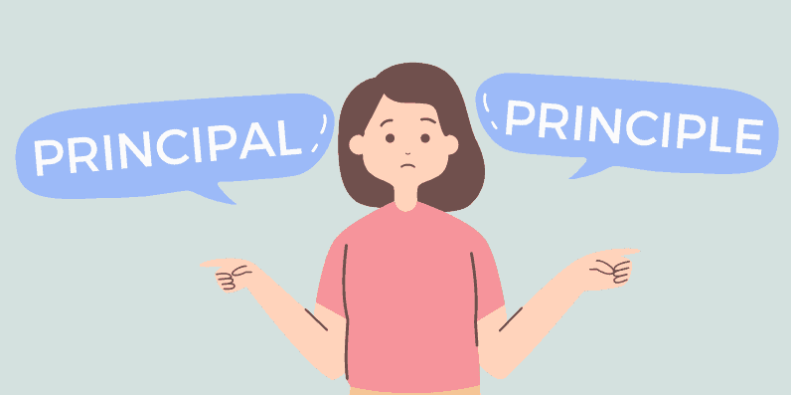
Have you ever found yourself confused about when to use "principal" and when to use "principle"? Don't worry, you're not alone! Many English learners struggle with these two words because they sound similar but have completely different meanings.
Did you know that "principal" can be both a noun and an adjective, while "principle" is always a noun? This distinction is important because it affects how we use these words in sentences.
Now, imagine this: You are writing an essay about leadership qualities. You want to convey that integrity is an essential principle for any successful leader. However, if you mistakenly use the word "principal" instead of "principle," it can lead to confusion or miscommunication.
Intrigued? Read on to learn more about principal vs principle meaning, principal vs principle examples, and even tips on principal vs principle pronunciation!
Principal vs Principle Meaning
------------------------------
Understanding the difference between "principal" and "principle" is essential to navigate the maze of leadership and ethics. Let's dive into their meanings and usage.
**1\. Principal as a noun:**
Refers to the head or leader of an organization, school, or institution.
Example: _The principal of the school addressed the students during the assembly._
Can also refer to the original sum of money invested or loaned.
Example: _He received a high interest rate on his principal investment._
**2\. Principal as an adjective:**
Describes something that is most important or influential.
Example: _The principal cause for their success was effective teamwork._
**3\. Principle as a noun:**
Refers to a fundamental truth, law, or belief that guides behaviour or action.
Example: _Simplicity is one of his guiding principles in life._
To summarise:
* Principal (noun): Head/leader/invested sum
* Principal (adjective): Most important/leading role
* Principle (noun): Fundamental truth/belief
Now that we've explored the principal vs principle meaning, let's move on to examine their usage in specific contexts related to leadership and ethics.

Principal vs Principle Examples
It's time to delve into some practical examples that highlight the correct usage of "principal" and "principle". This will help solidify your understanding and enable you to navigate the maze of leadership and ethics with confidence.
### 1\. Principal Examples:
**a. School Principal:** In the context of education, a principal refers to the head or leader of a school. For example, _Mrs. Johnson is the principal of Maplewood High School._
**b. Financial Institution:** In the financial sector, a principal can represent the original amount invested or borrowed. For instance, if you take out a loan for ₹50,000 from a bank, that is the principal amount.
### 2\. Principle Examples:
**a. Moral Values:** Principles are fundamental beliefs or values that guide your behaviour and decision-making process. For instance, honesty is an important principle in building trustworthy relationships.
**b. Scientific Laws:** Principles in science are laws or theories that explain natural phenomena based on repeated observations and experiments. For example, _The principle of gravity explains why objects fall towards the Earth._
### 3\. Usage in Sentences:
a. Correct sentence formation using "principal":
i) _The school principal addressed the students during assembly._
ii) _The bank applied an interest rate of 5% on the remaining loan principal._
b. Correct sentence formation using "principle":
i) _She firmly believes in adhering to her moral principles._
ii) _The principle of supply and demand governs market prices._
For some quick reference here's a table highlighting the difference.
**Principal**
**Principle**
Head of an institution
Fundamental belief or law
School principal
Moral principle
Financial investment
Scientific principle
Practice using "principal" and "principle" in sentences and refer to this comparison table whenever you need clarification. You can also test your comprehension of "principal" and "principle" by doing online exercises like this Principal/Principle Exercise from Towson University, Writing Support Program.
Remember, Clapingo is here to help you master the English language. Explore more about available courses and helpful videos to improve your spoken English on Clapingo's user-friendly platform.
Principal vs Principle Pronunciation
-------------------------------------
When it comes to the words "principal" and "principle," it's common to wonder about their correct pronunciation. But fear not! We're here to clear up the confusion and help you navigate the maze of leadership and ethics.
The words "principal" and "principle" are homophones, meaning they are pronounced the same way despite having different meanings. Let's break down their pronunciation and stress patterns using phonetic spelling:
**1) Principle:**
\- Pronunciation: PRIN-suh-puhl
\- Stress: Again, the stress falls on the first syllable, prin-, with a short 'i' sound (as in 'tip').
**2) Principal:**
\- Pronunciation: PRIN-suh-puhl
\- Stress: The stress falls on the first syllable, prin-, with a short 'i' sound (as in 'tip').
As you can see, both words have the same pronunciation. This is why many English learners find it challenging to differentiate between them solely based on sound.
It's important to note that "principal" can also be pronounced differently depending on its usage. As a noun, it is pronounced /ˈprɪnsɪp(ə)l/, while as an adjective, it is pronounced /ˈprɪnsɪp(ə)l/. On the other hand, "principle" is always pronounced /ˈprɪnsəp(ə)l/.
So there you have it! You now know how to pronounce "principal" and "principle" correctly with their respective stress patterns. You can practice the pronunciation of "principal" and "principle" by following this video from Tarle Speech on YouTube that breaks down the words syllable by syllable.
Common Mistakes to Avoid
------------------------
When it comes to understanding the difference between "principal" and "principle", English learners often make some common mistakes. Let's take a look at a few of them and how to correct them.
### 1\. Confusing the Meaning:
One common mistake is using "principal" when referring to a basic truth or rule, which is actually the meaning of "principle". For example, saying "_The principal of honesty should be followed_" is incorrect because it should be "_The principle of honesty should be followed._"
To avoid this mistake, remember that "principle" refers to a concept or general truth, while "principal" refers to a person in charge or a main element.
### 2\. Using the Wrong Word in Context:
English learners sometimes use the wrong word in certain contexts, leading to misunderstandings. For example:
\- Incorrect: _The main principal of this company is growth._
\- Correct: _The main principle of this company is growth._
In this case, "principal" would not fit because we are referring to a basic truth or rule (a principle), rather than a person in charge (a principal).
To ensure you use the correct word in context, it's helpful to understand both the meaning and usage of each word individually.
Principal vs Principle in Indian Languages
------------------------------------------
Let's explore how the terms "principal" and "principle" are translated and interpreted in some Indian languages:
**Principal (noun)**
**Principle (noun)**
Hindi
मुख्याध्यापक (mukhyadhyapak) or प्रधान (pradhan)
सिद्धांत (siddhant)
Bengali
প্রধান শিক্ষক (prodhan shikkhok)
সিদ্ধান্ত (siddhanto)
Telugu
ప్రిన్సిపాల్ (prinsipal)
అవుములు (avumulu)
Tamil
முதன்மை ஆசிரியர் (muthanmai achiriyaar)
அவ்வைகள் (avvaikal)
Marathi
मुख्याध्यापक (mukhyadhyapak)
सिद्धांत (siddhant)
Please note that translations may vary depending on the context. It's important to understand the meaning and usage of these words in specific situations.
By familiarising yourself with these translations, you can enhance your understanding of principal vs principle meaning and examples in Indian languages.
Summing Up
----------
You have now navigated the maze of leadership and ethics with a clear understanding of the difference between "principal" and "principle." The word "principal" refers to a person who holds a high position, such as the head of a school, while "principle" refers to a fundamental truth or law that guides behaviour.
We then delved into examples to help solidify your understanding. Remember that in sentences like "_The principal of the school is highly respected_," we are referring to the head of the institution. On the other hand, when we say, "_He believes in upholding his principles_," we are talking about his guiding beliefs or values.
To further enhance your language skills, it's essential to practice using words correctly. Use resources like [Clapingo's](https://clapingo.com/) online English courses to learn perfect sentence formation in English online. Clapingo offers [comprehensive courses for spoken English](https://clapingo.com/product/english-speaking-course), providing you with all the guidance you need on your language-learning journey.
FAQs
----
**1\. What are some "principal" and "principle" examples?**
To understand the meanings of principal and principle, let's look at some examples:
a) Principal (noun): The head or leader of a school.
Example: _Mrs. Smith is the principal of our school._
b) Principal (adjective): Main or most important.
Example: _The principal reason for his success is hard work._
c) Principle (noun): A fundamental truth or guiding rule.
Example: _Honesty is a principle that I live by._
**2\. Is it "principle of money" or "principal of money"?**
When referring to money, we use the word "principal." It represents the original sum invested or borrowed, excluding interest.
For example: _He repaid the loan but still owed the principal amount._
**3\. How do you use "principal" and "principle" in one sentence?**
Using both words in a sentence can help illustrate their different meanings:
_The principal (head) taught us about the importance of honesty as a guiding principle in life._
Here, "principal" refers to the head or leader of an educational institution, while "principle" represents a guiding rule.
**4\. What is the difference between a principal and a principle partner?**
In this context, "principal" refers to someone who holds an important position in an organization or business. They have decision-making authority and take responsibility for their actions.
On the other hand, a "principle partner" usually refers to someone who is involved in a partnership based on shared values, beliefs, or ethical standards. It's crucial to differentiate between these terms to avoid confusion while discussing roles within an organization or partnership.
**You may want to read**
------------------------
[11 Of The Best Apps For Improving Your English Speaking Skills](https://clapingo.com/blog/best-apps-english-speaking)
---
This blog is powered by Superblog. Visit https://superblog.ai to know more.
---
## Program vs Programme - Deciphering the Linguistic Binary.
Author: Unknown
Published: 2023-11-30
Meta Title: Program vs Programme: Differences in Spelling & Meaning
Meta Description: Confused between program and programme? Discover the meaning, examples, exercises, usage, and pronunciation differences to master this linguistic binary.
Tags: Program Pronunciation, Program vs Programme, Programme Pronunciation
URL: https://clapingo.com/blog/program-vs-programme
Contents
* [What is the Difference Between Program and Programme?](#what-is-the-difference-between-program-and-programme)
* [Difference in Meaning between Program and Programme](#difference-in-meaning-between-program-and-programme)
* [Difference in Spelling and Usage of Program and Programme](#difference-in-spelling-and-usage-of-program-and-programme)
* [Program vs Programme Pronunciation](#program-vs-programme-pronunciation)
* [Program vs Programme Examples](#program-vs-programme-examples)
* [Program Examples:](#program-examples)
* [Programme Examples:](#programme-examples)
* [Common Confusions: Program vs Programme](#common-confusions-program-vs-programme)
* [Final Thoughts](#final-thoughts)
* [FAQs](#faqs)
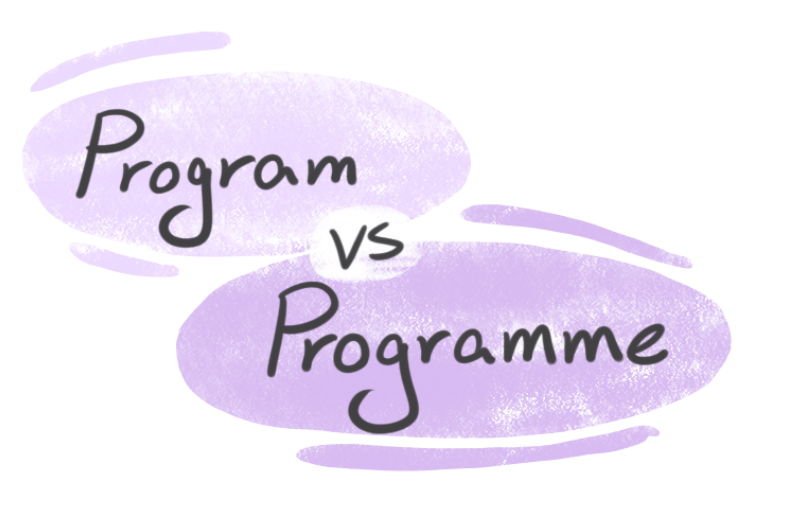
Are you baffled by the perplexing world of English spellings? Well, here's an interesting tidbit to pique your curiosity: Did you know that there are different spellings for the same word in British English and American English? Take "program" and "programme," for example. These two variations often confuse English learners, leading to common mistakes in both spoken and written English.
Understanding the nuances between "program" and "programme" is crucial for Indian language learners who strive to master the intricacies of the English language. In this article, we aim to provide clarity on the usage of "program" and "programme," helping you navigate through this linguistic binary with confidence.
So, whether you're searching for program vs programme meaning, program vs programme examples, or even program vs programme pronunciation, we've got you covered. Get ready to unravel the mysteries behind these two spellings as we embark on a journey to decipher their true significance in spoken and written English.
Let's dive right in!
Understanding "Program" and "Programme"
---------------------------------------
When we chat about words in American and British English, things can get interesting. For example, in America, people might watch a "morning breakfast program" on TV or talk about how a computer whiz programmed a new game. They spell it "program" for both. But in British writing, it's a bit different. They use "programme" when they're talking about a TV show. So, while Americans watch a TV program, British folks enjoy a TV programme. And it's not just the British; Australian English does the same thing. This shows how one word, like "program" or "programme," can have a different meaning or be spelled differently depending on where you are. It's pretty neat to see how words can change like that and reminds us that English can be a bit of a puzzle, with the difference between program and programme as one of its quirky pieces!
What is the Difference Between Program and Programme?
-----------------------------------------------------
When it comes to the words "program" and "programme," you might be surprised to learn that they have different meanings and are even spelt differently in British and American English. Let's delve into the nuances of these two words and unravel their linguistic binary.
### Difference in Meaning between Program and Programme
Firstly, let's explore the difference in meaning between program and programme. The word "program" refers to a set of instructions or code for a computer or electronic device. It can also refer to a software program or a programming language used for creating computer applications. For example, you may use a software program like Microsoft Word or learn programming languages such as Python or Java.
On the other hand, "programme" refers to a planned series of events or activities. It could be a television programme that you enjoy watching, like your favourite sitcom or reality show. It could also refer to an educational curriculum or training programme designed to enhance your skills in a specific area.
### Difference in Spelling and Usage of Program and Programme
Now let's discuss the difference in spelling and usage between program and programme. The spelling distinction is based on regional differences: "program" is the American English spelling, while "programme" is the British English spelling. However, both words convey similar meanings related to a planned series of activities or events and computer code.
Remember, irrespective of the meaning or context (whether you are talking about computer coding or TV shows), the correct spelling that you should use will depend upon whether you follow British spelling conventions or American spelling conventions.
To illustrate this further, here is an example:
American English: _She enrolled in a coding program at her local community college._
British English: _He signed up for a coding programme at his local community college._
### Program vs Programme Pronunciation
Finally, let's address the pronunciation of "program" and "programme". Both words are pronounced similarly with stress on the first syllable: PRO-gram (American English) or PRO-grahm (British English). The primary difference is in the spelling that differs in British English and American English.
Program vs Programme Examples
-----------------------------
Now that you have a clear understanding of the differences between "program" and "programme", let's look at some examples to further solidify your knowledge.
### Program Examples:
**1\. Computer Program:**
When referring to software or computer applications, we use the term "program." For example, _Microsoft Word, Adobe Photoshop, and Google Chrome are all computer programs._
**2\. TV Programs:**
In the context of television shows or series, we use "program." For instance, _I enjoy watching my favourite programs on Netflix._
**3\. Health and Fitness Programs:**
When discussing exercise or diet plans designed for specific goals, such as weight loss or muscle gain, we use "program." For example, I'm following a fitness program to improve my strength.
### Programme Examples:
**1\. Academic Programmes:**
In educational settings, we use "programme" to refer to courses or curricula offered by institutions. For instance, _She enrolled in an MBA programme at a renowned university._
**2\. Event Programmes:**
When talking about schedules or agendas for conferences, concerts, or other events, we use "programme." For example, _The programme listed the order of speakers and performances at the music festival._
**3\. Governmental Programmes:**
In the context of government initiatives or policies aimed at addressing specific issues or providing assistance to citizens, we use "programme." For instance, _The government launched a housing programme to address the affordable housing crisis._
These examples highlight how both program and programme are used in different contexts. Remember that while more commonly program is used in American English and programme is preferred in British English and other variants influenced by British English.
Keep practising program vs programme examples to ensure you become proficient in using these words correctly. Visit [Clapingo's blog](https://www.clapingo.com/blog/) for informative articles on various aspects of English language learning. You will find topics such as sentence formation, vocabulary-building tips, pronunciation guides, and more on their [YouTube channel](https://www.youtube.com/@Clapingo).
Common Confusions: Program vs Programme
---------------------------------------
Both "program" and "programme" are correct spellings, but they are used differently in British and American English. The term "British English spelling variant" refers to the specific way words are spelled according to British standards, highlighting the key differences and common mistakes made by learners when navigating these variations.
One of the most common errors among learners involves the confusion between "program" and "programme," with the choice largely dependent on regional linguistic preferences. In the context of British and American spellings, "programme" is favored in British English, whereas "program" is the standard in American English.
Here are some examples to illustrate how this confusion can occur:
**1\. Incorrect Usage:**
\- I'm attending a computer programme at university.
\- She's enrolled in a dance program.
**2\. Corrected Usage:**
\- I'm attending a computer program at university. (American English)
\- She's enrolled in a dance programme. (British English)
As demonstrated by these examples, using incorrect spelling can impact your written English and communication. It's crucial to acquaint yourself with the preferred spelling of words to prevent making similar mistakes.
Remember to pay attention to regional language preferences and choose the appropriate spelling based on your audience or context.

Final Thoughts
Now that we have explored the differences between "program" and "programme" in detail, it's important to recap the key takeaways.
The term "program" is used in American English, while "programme" is used in British English. "Program" refers to a series of coded instructions that can be executed by a computer, whereas "programme" refers to a planned series of events or activities. When referring to software or computer-related contexts, it is more common to use "program." On the other hand, when talking about TV shows or educational courses, "programme" is preferred.
Mastering correct spelling and usage is crucial for effective communication. Understanding the distinctions between similar words like "program" and "programme" ensures clarity in your writing and speaking. It demonstrates your attention to detail and professionalism. By paying attention to such nuances, you enhance your overall language proficiency and avoid confusion.
If you're looking for further resources to improve your vocabulary and English language skills, [Clapingo](https://clapingo.com/) can be an excellent companion on your learning journey. From [blog articles on grammar rules](https://clapingo.com/blog/learn-english-grammar-step-by-step) and videos on common mistakes to interactive exercises and expert advice, Clapingo offers a range of [resources](https://clapingo.com/blog/posts/3) tailored explicitly for Indian learners.
In the fascinating evolution of language, the terms "spelled program" and "programme" have journeyed through time, with "program" appearing prominently in American English and "programme" holding its ground in UK English. This distinction not only showcases the dynamic nature of language but also underlines the importance of contextual accuracy. The spelling and application of "program" and "programme" since the nineteenth century have mirrored the cultural and linguistic shifts between American and British societies.
Whether it's a "spelled program" in a software context or a "programme" for television and events, the precision in usage illuminates the path of communication, ensuring that the message intended is the message received. The clarity in differentiating "spelled program" from "programme" plays a critical role in bridging the gap between different English dialects, highlighting the significance of context in our linguistic choices.
With "program" appearing as a beacon of modernity and "programme" echoing the traditions of the nineteenth century, this linguistic dance between the two spellings enriches our understanding of English in its myriad forms. Understanding the nuances between "spelled program" and "program programme" becomes a key to unlocking the richness of UK English, providing a gateway to clearer and more effective communication across the Atlantic.
FAQs
----
**1\. What is the difference between program and programme?**
In terms of meaning, both "program" and "programme" refer to a series of planned activities or a set of instructions for a computer. However, the difference lies in their usage based on geographical location. In American English, "program" is predominantly used, while British English favours "programme." So, if you're in the UK, you would typically use "programme."
**2\. Is it "running a program" or "running a programme"?**
To keep things consistent with British usage, it's best to write "running a programme" in the UK. However, if you're in an American context or writing to an American audience, it would be more appropriate to say "running a program." Remember that these differences are mainly regional variations in spelling and should not cause any confusion when communicating with others orally.
**3. What is the plural form of "programme" in the UK?**
The plural form of "programme" in British English follows regular grammar rules by adding an -s at the end: "programmes." For example, if you're attending multiple events or watching several episodes on television, you would say "_I'm attending several television programme this week_," or "_There are many interesting programmes on TV tonight._"
**4\. Is there any pronunciation difference between program and programme?**
The pronunciation of both words is similar, with slight variations depending on accent and regional dialects. For "program," it's pronounced as PRO-gruhm (American) or PRO-grahm (British). For "programme," it's pronounced as PRO-grahm (American) or PROH-gram (British), with emphasis on the second syllable.
---
This blog is powered by Superblog. Visit https://superblog.ai to know more.
---
## Stationery vs Stationary: A Guide to Proper Usage
Author: Unknown
Published: 2023-11-30
Meta Title: Stationery vs Stationary: Master the Difference and usage
Meta Description: Confused about stationery and stationary? Learn their correct meanings with examples and tips in this practical guide. Boost your English fluency today!
Tags: Definition of Stationary, Stationery vs Stationary, Definition of Stationery
URL: https://clapingo.com/blog/stationery-vs-stationary
Contents
* [The Intriguing Case of Stationery vs Stationary](#the-intriguing-case-of-stationery-vs-stationary)
* [What is the Difference between Stationery and Stationary?](#what-is-the-difference-between-stationery-and-stationary)
* [1) Definition and Explanation of "Stationery":](#1-definition-and-explanation-of-stationery)
* [2) Definition and Explanation of "Stationary":](#2-definition-and-explanation-of-stationary)
* [Pronouncing Stationery vs Stationary](#pronouncing-stationery-vs-stationary)
* [Never Confuse Stationery with Stationary Again!](#never-confuse-stationery-with-stationary-again)
* [Translations and Interpretations in Indian Languages](#translations-and-interpretations-in-indian-languages)
* [Final Thoughts](#final-thoughts)
* [FAQs](#faqs)
* [You may want to read](#you-may-want-to-read)

The Intriguing Case of Stationery vs Stationary
-----------------------------------------------
Are you often confused about the difference between stationery and stationary? Don't worry, you're not alone! Many English learners struggle with these two words due to their similar spellings and pronunciations.
When it comes to stationery and stationary, the confusion lies in their meanings and usage. They may sound alike, but they have completely different definitions.
This article aims to provide you with a clear understanding of when and how to use these words correctly. By the end of this guide, you will be able to confidently distinguish between stationery and stationary in your everyday English conversations and writing.
Now that we've set our goal for this article, let's dive deeper into the differences between stationery and stationary.
What is the Difference between Stationery and Stationary?
---------------------------------------------------------
When it comes to the English language, two words that often cause confusion are "stationery" and "stationary". Though they sound similar, their meanings are quite different. Let's delve into each term to understand their distinctions.
### 1) Definition and Explanation of "Stationery":
Stationery refers to a wide range of writing materials, office supplies, and paper products that are commonly used for writing, drawing, or other forms of communication. This includes items such as pens, pencils, erasers, notebooks, envelopes, notepads, and much more. Stationery is an essential part of our daily lives and is often used at school, work, or when sending letters or invitations.
To better understand how to use the term "stationery" correctly in sentences, take a look at the following examples:
* _I need to buy some new stationery for school._ (referring to various writing materials)
* _She owns a beautiful collection of personalised stationery._ (referring to customised paper products)
* _The office supply store offers a wide range of stationery products._ (referring to different office supplies)
Now let's move on to understanding the term "stationary."
### 2) Definition and Explanation of "Stationary":
Stationary refers to something that is not moving or at rest. It describes objects or things that remain fixed in place without any motion. This term is commonly used to describe vehicles, machinery, or even fans.
Here are some examples illustrating the correct usage of the term "stationary":
* _The car stood stationary at the red light._ (referring to a vehicle not in motion)
* _Please keep your vehicle stationary while waiting for assistance._ (advising someone to keep their vehicle still)
* _The fan remained stationary on the ceiling._ (describing a fan that is not moving)
Understanding the difference between stationery and stationary is crucial for using these terms correctly in various contexts. By checking out more stationery vs stationary examples, you can enhance your communication skills and express yourself more effectively.

Pronouncing Stationery vs Stationary
When it comes to pronouncing "stationery" and "stationary", many learners may wonder if these two words are pronounced the same way or if there is a difference. Let's explore the different pronunciations for both "stationery" and "stationary" in US, UK, and Indian English.
It's important to note that despite their differences in spelling and meaning, these two words are homophones. This means that they are pronounced the same way, even though they have distinct meanings. So when you say either word aloud, they should sound identical!
In all three varieties of English, the word "stationery" is pronounced as /ˈsteɪʃən(ə)ri/. The stress falls on the second syllable in all cases.
On the other hand, the word "stationary" is also pronounced as /ˈsteɪʃəˌnɛri/ in US and UK English. However, in Indian English, it can be pronounced as /stɛɪʃəˌnari/. Again, the stress falls on the second syllable.
So we can see there is a slight variation that may or may not be very evident depending on the region and accent.
To summarise:
* "Stationery": /ˈsteɪʃən(ə)ri/ (US, UK, Indian English)
* "Stationary": /ˈsteɪʃəˌnɛri/ (US, UK English), /stɛɪʃəˌnari/ (Indian English)
Keep practising and perfecting your pronunciation skills to ensure your spoken English sounds natural and fluent.
Never Confuse Stationery with Stationary Again!
-----------------------------------------------
Many people stumble upon these two words due to their similar pronunciation and visual appearance. We have a helpful memory aid that will make sure you never confuse stationery with stationary again.
* **Visual Associations**
To remember the difference between stationery and stationary, let's use a visual association technique. Picture yourself standing in a stationery store, surrounded by beautiful pens, notebooks, and colourful paper. The letter 'e' in stationery stands for 'envelope' or 'eraser', items you can find in a stationery store. On the other hand, imagine yourself standing beside a statue that is completely still – just like the last three letters in stationary.
* **Flashcards**
Creating flashcards can be an effective way to reinforce your understanding of the difference between these two words. On one side of the flashcard, write "stationery" and on the other side write "stationary." Add relevant examples or visuals to each side to enhance your memory recall. Practice reviewing these flashcards regularly until you feel confident in distinguishing between the two words effortlessly.
* **Online Resources**
In addition to flashcards, there are several online resources available that can help you practice and solidify your knowledge of stationery vs stationary meaning and usage. Websites like Clapingo offer interactive exercises and quizzes specifically designed for English language learners. Take advantage of these [videos and resources](https://www.youtube.com/@Clapingo/shorts) to test your understanding and improve your skills at your own pace.
By using this memory aid and practising with flashcards or online resources, you'll soon become an expert in differentiating between stationery and stationary.
Translations and Interpretations in Indian Languages
----------------------------------------------------
As we delve into the topic of stationery vs stationary, it's essential to understand how these words are translated and interpreted in popular Indian languages. Here is a table listing the translations and interpretations of these terms:
**Language**
**Translation of "Stationery"**
**Translation of "Stationary"**
Hindi
कागज का सामान (kagaj ka saman)
अवस्थित (avasthit)
Tamil
மாடிச்சை (maadichchai)
நிலையான (nilaiyaana)
Telugu
ఆశ్రయించుట (aashrayinchutu)
స్థైర్యం పొందిన (sthairyam pondina
Bengali
একধরনের কাগজের প্রকার (ekdhonner kagajer prokar)
অবিচলিত অবস্থায় আছে (obicholito obosthaye ache)
Kannada
ಸಾಮಾನ್ಯ ಬಣ್ಣದ ಕಾಗದು (samaanya baṇṇada kāgadu)
ಸ್ಥಿರವಾದ (sthira vaada)
Malayalam
കാഗത പൊരുത്തപ്പെടുന്ന (kaagatha poruthappetunna)
സ്ഥിരാവസ്ഥ (sthiravastha)
This table provides approximate translations and interpretations in Hindi, Tamil, Telugu, Bengali, Kannada, and Malayalam. It's important to note that these translations may vary slightly depending on the context in which the words are used.
By understanding these translations and interpretations, you can effectively communicate the correct stationery vs stationary meaning in popular Indian languages. Remember, it's essential to use the appropriate word based on the context in which you are speaking or writing.
Final Thoughts
--------------
Congratulations on completing this guide to proper usage of stationery vs stationary! Let's recap the key points we've discussed:
Stationery refers to writing materials such as paper, pens, and envelopes, while stationary means not moving or fixed in one place. Remember the spelling difference - "a" for stationAry and "e" for stationEry. Many English learners often confuse these words due to their similar pronunciation. However, by understanding their distinct meanings, you can avoid making these errors in your writing.
Now that you have a clear understanding of the difference between stationery and stationary, it's time to put your knowledge into practice! At [Clapingo's](https://clapingo.com/) online platform, we offer a wide range of resources and courses tailored to help you improve your English language skills. Whether you want to learn perfect sentence formation in English online or searching for the perfect [fluent English speaking course](https://clapingo.com/product/fluent-english-speaking-course), Clapingo has got you covered.
FAQs
----
**1\. What is the difference between stationery and stationary?**
Stationery refers to writing materials such as paper, pens, pencils, envelopes, and other office supplies. On the other hand, stationary means not moving or fixed in one place. So, while stationery is related to writing materials, stationary refers to something immobile or still.
**2\. Is paper stationery or stationary?**
Paper falls under the category of stationery. It is a common writing material used for letters, notes, sketches, and more. When you think of stationery, paper is often the first thing that comes to mind.
**3\. Is school stationary or stationery?**
School supplies can be considered as both stationery and stationary items depending on their purpose. Notebooks, pencils, erasers, rulers, and other writing materials fall under the category of stationery as they are used for learning and communication purposes. However, desks, chairs, and blackboards are examples of stationary objects as they remain fixed in one place within a classroom.
**4\. Is stationary ever used as a noun?**
No, "stationary" primarily functions as an adjective, meaning not moving or fixed in one place.
**You may want to read**
------------------------
[Top 35 Books To Help You With English Learning](https://clapingo.com/blog/english-learning-books)
---
This blog is powered by Superblog. Visit https://superblog.ai to know more.
---
## Then vs Than : Clearing the Common Confusion
Author: Unknown
Published: 2023-11-30
Meta Title: 'Then' and 'Than': Your Guide to Clear Communication
Meta Description: Confused between 'then' and 'than'? Learn their meanings, get examples, and gain practical tips and examples for correct usage in this Clapingo article.
Tags: then vs than meaning, Then vs Than differnce, Then vs Than
URL: https://clapingo.com/blog/then-vs-than
Contents
* ['Then' vs 'Than': The One Letter Difference](#then-vs-than-the-one-letter-difference)
* [Understanding the Meanings and Usage of Then and Than](#understanding-the-meanings-and-usage-of-then-and-than)
* [1) The meanings of 'then' and 'than':](#1-the-meanings-of-then-and-than)
* [2) How 'then' is used:](#2-how-then-is-used)
* [3) How 'than' is used:](#3-how-than-is-used)
* [Pronouncing 'Then' and 'Than'](#pronouncing-then-and-than)
* [1) Pronunciation Guides:](#1-pronunciation-guides)
* [2) Consistency Across Regions:](#2-consistency-across-regions)
* [3) Audio Examples:](#3-audio-examples)
* [Look Out for These Common Mistakes](#look-out-for-these-common-mistakes)
* [1) Using "then" instead of "than" in comparative sentences:](#1-using-then-instead-of-than-in-comparative-sentences)
* [2) Using "then" instead of "than" in expressions of time or sequence:](#2-using-then-instead-of-than-in-expressions-of-time-or-sequence)
* [3) Confusing "since then" and "since than":](#3-confusing-since-then-and-since-than)
* [4) Using "then" instead of other words:](#4-using-then-instead-of-other-words)
* [Some Interesting Tips and Tricks](#some-interesting-tips-and-tricks)
* [Reinforcing with Indian Languages](#reinforcing-with-indian-languages)
* [Key Takeaways](#key-takeaways)
* [FAQs](#faqs)
* [You may want to read](#you-may-want-to-read)
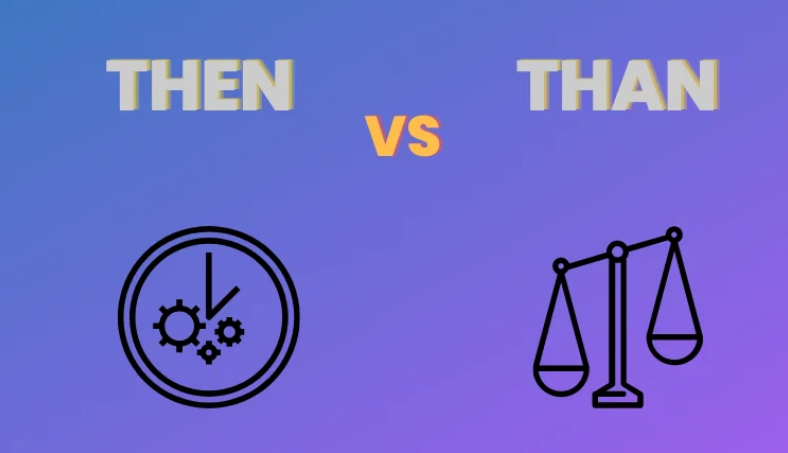
'Then' vs 'Than': The One Letter Difference
-------------------------------------------
Have you ever found yourself confused between 'then' and 'than' while speaking in English? It's a common dilemma for many learners of the language.
Using these two words correctly is crucial for conveying clear meaning in everyday conversations. While 'then' and 'than' may sound similar, they have distinct meanings and functions. Understanding their differences will not only improve your English communication skills but also enhance your overall language proficiency.
In this section, we will provide a brief overview of the difference between 'then' and 'than', offer practical examples, and share some useful tips to ensure correct usage. By the end of this article, you'll be equipped with the knowledge and confidence to use these words accurately in your spoken and written English.
Understanding the Meanings and Usage of Then and Than
-----------------------------------------------------
Are you often confused between when to use 'then' versus 'than'? Don't worry, you're not alone. Many English learners struggle with understanding the difference between these two words. In this section, we will break it down for you and clear the common confusion.
### 1) The meanings of 'then' and 'than':
* 'Then' is commonly used as an adverb to indicate time or sequence. It refers to a specific point in time or a consequence of something.
* On the other hand, 'than' is used as a conjunction to make comparisons between two things.
### 2) How 'then' is used:
* When referring to time, 'then' is used to indicate a specific point in the past or future. For example, "Back then, people didn't have smartphones."
* In conditional statements, 'then' is used to express an action that will happen if a certain condition is met. For instance, "If you study hard, then you will pass the exam."
* Additionally, 'then' can be used to depict a sequence of events or actions. For example, "First, complete your homework; then go play outside."
Examples with 'then':
* "If/then" statements: If you finish your work early (condition), then you can leave early (consequence).
* "Next/after that": First, wash the dishes; then dry them and put them away.
Here's a table highlighting different contexts where 'then' is appropriate:
**Context**
**Examples**
Comparing past events
_I was taller back then._
Conditional statements
_If it rains tomorrow morning, then we'll stay indoors._
Sequence
_First, eat breakfast; then brush your teeth._
### 3) How 'than' is used:
'Than' is used specifically for making comparisons between two things. It is typically followed by an adjective or adverb. For example, "_She is taller than him_" or "_He runs faster than his sister._"
Examples with 'than':
* Bigger than: _The blue balloon is bigger than the red balloon._
* Smarter than: _Sarah is smarter than her classmates._
Common structures with 'than' include comparative adjectives and expressions with '-er':
* Comparative adjectives: TallER than, smartER than, largER than.
* Expressions with '-er': FastER than, slowER than, strongER than.
Now that you have a clearer understanding of then vs than meaning and usage, you can confidently use them in your conversations and writing. For a quick explainer about 'then' and 'than', check out this helpful video from Clapingo -
Pronouncing 'Then' and 'Than'
-----------------------------
Have you ever found yourself confused about how to pronounce the words "then" and "than"? Don't worry, you're not alone! Many English learners struggle with these two words because they sound very similar. Let's delve into their pronunciations to help you differentiate them clearly.
### 1) Pronunciation Guides:
* 'Then': The word 'then' is pronounced as /ðɛn/. Pay attention to the voiced th sound at the beginning, similar to the th sound in "the". Then, it transitions into a short e vowel sound and ends with an n sound.
* 'Than': The word 'than' is pronounced as /ðæn/. Again, it starts with the voiced th sound, followed by a short 'a' vowel sound like in "cat" or "hat", and ends with an n sound.
### 2) Consistency Across Regions:
Regardless of your region or accent, the pronunciations of 'then' and 'than' remain consistent. Whether you're from North America, the UK, India, or any other English-speaking country, the pronunciation rules for these words are universal.
### 3) Audio Examples:
To further clarify the pronunciation differences between 'then' and 'than', here are some audio examples from Merriam-Webster that you can listen to:
\- Pronunciation example for 'then': \[[then](https://www.merriam-webster.com/dictionary/then)\]
\- Pronunciation example for 'than': \[[than](https://www.merriam-webster.com/dictionary/than)\]
By listening to these then vs than examples repeatedly and practising them aloud, you will gradually develop a clear understanding and mastery of how to pronounce these two words correctly.
Now that we have explored their pronunciations in detail let's move on to some common mistakes people make while using these two words and how you can avoid them.

Look Out for These Common Mistakes
Confusing "then" and "than" is a common mistake made by English learners. Here are some of the most common mistakes to watch out for:
### 1) Using "then" instead of "than" in comparative sentences:
This mistake occurs when learners use "then" to show comparison instead of using the correct word, "than". For example:
Incorrect: _She is taller then her sister._
Correct: _She is taller than her sister._
### 2) Using "then" instead of "than" in expressions of time or sequence:
Another common mistake is using "then" instead of "than" when expressing time or sequence. Here's an example:
Incorrect: _First, I will finish my homework, than I will go to the party._
Correct: First, I will finish my homework, then I will go to the party.
### 3) Confusing "since then" and "since than":
Some learners mistakenly interchange these two phrases. It's important to understand their meanings and use them correctly. For example:
Incorrect: _Since than, I have been studying English._
Correct: _Since then, I have been studying English._
### 4) Using "then" instead of other words:
Sometimes learners mistakenly use "then" when they should be using other words like "so", "therefore", or "as a result". Here's an example:
Incorrect: _He didn't study for the test, then he failed._
Correct: _He didn't study for the test, so he failed._
Remember, understanding the distinction between 'then' and 'than' is crucial for effective communication in English. To reinforce your knowledge and practice using these words correctly, you can find helpful resources such as worksheets, like this Then/Than exercise from the Towson University website, and examples on platforms like Clapingo. So don't hesitate to explore these resources and learn perfect sentence formation in English online.
Some Interesting Tips and Tricks
--------------------------------
Clearing the confusion between "then" and "than" can be tricky, but don't worry! We have some interesting tips and tricks to help you differentiate between these commonly confused words.
1. **Memory aids:** Mnemonic devices can be a great way to remember the difference between "then" and "than". Think of "thAn" with an "A" for comparison. This simple visual cue will remind you that "than" is used for making comparisons.
2. **Rhymes and phrases:** Another effective technique is to highlight rhymes or phrases that encapsulate the correct usage. For example, you could remember the phrase, "_I'd rather have cake than ice cream._" This will help you associate "than" with making choices or comparisons.
3. **Flashcards with example sentences:** Creating flashcards can provide hands-on practice and reinforcement of the correct usage of "then" and "than". Make flashcards with example sentences using each word correctly. For instance, one flashcard could say, "_I will go to the store first (then), and then (in addition) meet you at the café._" Another flashcard could say, "_She is taller than her sister._"
Using these tips and tricks like memory aids, rhymes or phrases, and flashcards will help cement your understanding of the differences between "then" and "than". Practice using them in sentences to reinforce your learning.
Reinforcing with Indian Languages
---------------------------------
One of the best ways to reinforce your understanding of English grammar and vocabulary is by connecting it with your native language. For Indian language speakers, this means exploring the translations of English words into Indian languages such as Hindi, Bengali, Urdu, Tamil, and more. In this section, we will provide you with translations of the English words "then" and "than" into various Indian languages, along with native scripts where applicable.
Here are the translations of "then" and "than" in different Indian languages:
Language
Then
Than
Hindi
तब (tab)
से (se)
Bengali
তখন (takhon)
চেয়ে (cheYe)
Urdu
پھر (phir)
سے (se)
Tamil
பின்னர் (pinnar)
மேல் (mel)
Understanding these translations can greatly aid comprehension for Indian language speakers learning English. By linking the familiar terms in your native language to their respective meanings in English, you can develop a stronger grasp of how to use "then" and "than" correctly.
For example, if you come across a sentence like "_I will go to the store and then meet you at the park_," knowing that "then" translates to तब in Hindi or তখন in Bengali can help you connect the meaning more easily.
Similarly, when comparing two things or making a comparison using "than," understanding the translation helps avoid confusion. For instance, if you encounter a sentence like "She is taller than him," knowing that "than" translates to سے in Urdu can provide clarity.
So, whether you're working on a then vs than worksheet or trying to learn the difference through then vs than examples, having these translations at hand will be immensely helpful.
Embrace the richness of your native language while expanding your English skills with Clapingo's comprehensive resources and guidance. You can learn spoken English in your mother tongue (like [Tamil](https://clapingo.com/product/spoken-english-tamil/) or [Telugu](https://clapingo.com/product/spoken-english-telugu/)) on Clapingo.
Key Takeaways
-------------
Now that we've covered the ins and outs of using "then" and "than" correctly, let's summarize the main points discussed in this article.
The key to mastering the usage of "then" and "than" is understanding their meanings. Remember, "then" is used to indicate time or sequence, while "than" is used for making comparisons. It's important to note that "then" can also function as an adverb or a conjunction, whereas "than" is strictly a conjunction used in comparative statements.
To reinforce your understanding, it's helpful to practice using these words in sentences. Choose a good then vs than worksheet or create your own exercises to ensure you have a firm grasp on their correct usage. By being aware of common mistakes and errors, you'll be better equipped to avoid them in your writing and speaking.
To further enhance your language skills and continue developing your English proficiency, explore Clapingo, our trusted English learning platform. Clapingo offers a wide range of resources including interactive lessons, grammar exercises, vocabulary-building tools, and expert guidance from qualified language instructors.
Visit Clapingo's [website](https://www.clapingo.com/) and [YouTube channel](https://www.youtube.com/@Clapingo) for more information on how we can assist you in achieving your language goals.
FAQs
----
**1\. When to use then vs than?**
When it comes to using "then" vs "than," it is essential to understand their meanings and contexts.
**Then:** "Then" is an adverb that relates to time or sequence. It is used to indicate what happens next, afterwards, or in the future. For example:
* _I will finish my work, and then we can go for a walk._
* _The movie starts at 7 pm; you need to be there by then._
**Than:** "Than" is a conjunction used for making comparisons between two entities or actions. It is often seen in sentences with comparative adjectives or adverbs. For example:
\- She is taller than her brother.
\- I would rather go for a run than watch TV.
**2.What is the difference between "then" and "than"?**
The main difference between "then" and "than" lies in their roles within a sentence:
* "Then": As an adverb, "then" indicates time or sequence, showing what happens next or afterwards.
* "Than": On the other hand, as a conjunction, "than" introduces comparisons between two entities or actions.
**3\. What are examples of "then" and "than"?**
To provide further clarity on the usage of these words, here are some examples:
A. _I'll finish my homework first;_ **_then_** _we can play outside._
B. _I'd rather go for a walk_ **_than_** _stay indoors all day._
**4\. Is it okay to use 'OK then' or 'OK than'?**
In standard English usage, it is correct to use 'OK then' instead of 'OK than'. The word 'then' is commonly used to indicate agreement or confirmation. For example:
\- A: "Shall we go?"
\- B: "OK then, let's go!"
However, 'OK than' is not grammatically correct and should be avoided.
You may want to read
--------------------
[Discover Your Dream Destination: Choosing The Perfect English-Speaking Country In Europe](https://clapingo.com/blog/english-speaking-country-europe)
---
This blog is powered by Superblog. Visit https://superblog.ai to know more.
---
## There vs Their: Demystifying the Confusing Homophone Pair
Author: Unknown
Published: 2023-11-30
Meta Title: Meaning of There and Their: Master the Differences.
Meta Description: Struggling with 'there' vs. 'their'? Master their meanings, distinctions, proper usage, and examples. Enhance your English with helpful tips and exercises.
Tags: there vs their difference, there vs their, there vs their meaning, there vs their examples
URL: https://clapingo.com/blog/there-vs-their
Contents
* [](#)
* [The "There" vs "Their" Conundrum](#the-there-vs-their-conundrum)
* [Usage Examples for "There" and "Their"](#usage-examples-for-there-and-their)
* [Pronouncing "There" and "Their" Properly](#pronouncing-there-and-their-properly)
* [How Do You Remember the Difference Between "There" and "Their"?](#how-do-you-remember-the-difference-between-there-and-their)
* ["There" vs "Their" in Indian Languages](#there-vs-their-in-indian-languages)
* [Some Common Mistakes & How to Avoid Them](#some-common-mistakes-and-how-to-avoid-them)
* [Key Takeaways](#key-takeaways)
* [FAQs](#faqs)
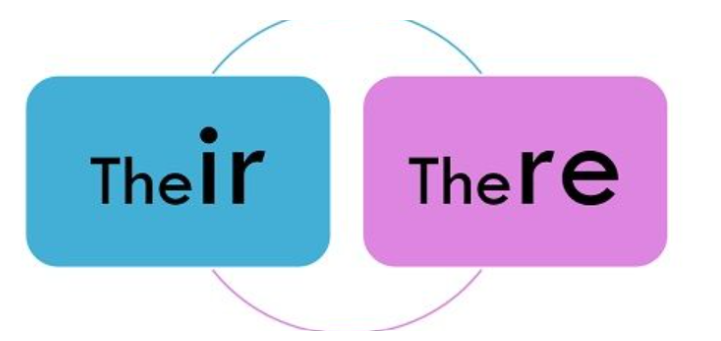
The "There" vs "Their" Conundrum
--------------------------------
"Once upon a time, their lived a lion. The lion was…"
Wait, did you notice anything wrong? If you did, good job! But if you did not, this article is exactly what you should read, because the correct usage here should be "Once upon a time, _there_ lived a lion"!
If you often find these words confusing, don't worry, you are not alone. "Their" vs "there" is a common conundrum that many English learners face. The meaning of "there" and "their" can be quite tricky to master, but fear not, we're here to demystify this confusing homophone pair.
To begin with, let's understand the basic difference between these two words. "There" is an adverb used to indicate a place or position. On the other hand, "their" is a possessive pronoun used to show ownership. That is not all, there are many more nuances to be aware of when using "there" and "their."
The aim of this article is to help you with these nuances and provide you with a clear understanding of the difference between "there" and "their." By the end, you'll be able to confidently use these words in your everyday English conversations.
Let's start with exploring some usage examples for "there" and "their."
Usage Examples for "There" and "Their"
--------------------------------------
Here is a table with detailed explanations of the use of "there" and "their." You can find the specific functions of "their" and "there" in different scenarios and the corresponding examples to help clarify the difference between these two words:
### Word
### Usage
### Examples
### Explanation
**There**
To indicate location
"The park is over there."
"Her house is here, not there."
"There" is used as an adverb to indicate a specific location.
In existence sentences
"There is a cat on the roof."
"Look! There are flowers in the garden."
"There" is used to introduce the existence of something.
In introductory sentences
"There are two apples on the table."
"There is a book on the shelf."
"There" is used to introduce a noun phrase and indicate its existence.
**Their**
To show possession while using plural nouns
"They took their dogs for a walk."
"The students returned to their classrooms."
"Their" indicates that multiple people possess multiple dogs.
With singular indefinite pronouns
“Everyone has their own opinion.”
“Somebody left their bag in the hallway.”
"Their” is used as a gender-neutral pronoun to show possession with singular indefinite pronouns.
With uncountable nouns in an implied sense
"The team celebrated their victory."
“The audience felt their excitement during the performance.”
"Their” refers to the entire team celebrating its victory.
It's important to grasp these usage examples properly because they demonstrate when and how each word should be used correctly. Practice incorporating these examples into your spoken English sentences for better fluency and accuracy.
Pronouncing "There" and "Their" Properly
----------------------------------------
Pronouncing words correctly is crucial for effective communication in English. When it comes to the homophones "there" and "their," it's important to note that they are pronounced exactly the same. Despite their different spellings and meanings, both words are generally pronounced as /ðɛər/. Let's take a closer look at this pronunciation and explore slight regional variations.
In both American, British, and Indian English, "there" and "their" are pronounced with the same sounds but with slight variations. Here is a table showcasing the variation in pronunciation of "there" and "their" across three regions:
### Region
### Phonetic Transcription
### Transcription with Alphabets
US
/ðɛər/
thehr
UK
/ðɛər/
theuh
India
/ðɛər/
dheuh
As you can see, the only difference in the pronunciation of "there" and "their" in different regions is that the /r/ sound at the end of both words is generally not prominently pronounced in UK and Indian English. The initial sound in the Indian English pronunciation also has a very slight variation.
Remember, regardless of where you are from or which English accent you use, focusing on clear articulation of each word will ensure effective communication.
You can check these YouTube videos posted by the Cambridge Dictionary to listen to these slight regional variations in the pronunciations of "there" and "their."

How Do You Remember the Difference Between "There" and "Their"?
Now that we have covered the basics of the meaning of "there" and "their" here are some fun tips and tricks to help you remember when to use each one correctly.
* **Mnemonic Devices**: One effective way to remember the difference between "there" and "their" is by creating mnemonic devices. One such device is associating 'there' with 'here'. Since both words end in "-ere," it can help remind you that "there" refers to a place or location away from the speaker, while "their" indicates possession.
* **Visualize the Context**: Another technique is visualizing the context in which each word is used. Picture yourself pointing towards a distant object or location while saying "there." This mental association will reinforce the meaning of the word as indicating a place. On the other hand, think of a group of people holding something together while saying "their." This visualization will help you remember that "their" implies possession by multiple individuals.
* **Create Personal Examples**: To make your learning experience more engaging, come up with personal examples for each word. For example, think about your friends going on a trip together and say, "They left their bags over there." By relating these words to your own experiences, you'll find it easier to recall their meanings in different contexts.
You can also try to distinguish between "there" and "their" in day-to-day situations where you are exposed to the English language, like while [watching movies](https://clapingo.com/blog/english-movies-learn-english). Remembering when to use "there" or "their" can be challenging at first, but with these fun tips, you'll soon become an expert!
"There" vs "Their" in Indian Languages
--------------------------------------
Indian languages have their own unique ways of expressing the meanings of "there" and "their". It's interesting to see how different languages handle these concepts. Let's explore the translations of "there" and "their" in a few Indian languages.
### Language
### There
### Their
Hindi
वहाँ (vahāṃ)
उनका (unka)
Bengali
সেখানে (shekhane)
তাদের (tader)
Telugu
అక్కడ (akkada)
వారి (vaari)
Malayalam
അതിൻറെ (athinte)
അവരുടെ (avaruṭe)
Punjabi
ਉੱਥੇ (utthe)
ਉਨਾਂ ਦੇ (una de)
Remembering the translations of “there” and “their” in your native language can help reinforce their meanings in English. This way, you can easily navigate between your native language and English, making it easier to grasp their nuances.
Some Common Mistakes & How to Avoid Them
----------------------------------------
In this section, we will highlight some common mistakes and provide tips on how to avoid them.
**1\. Incorrect usage with singular nouns**: Another error is using "their" with singular nouns instead of using the correct possessive pronoun "his" or "her." For example, saying "Everyone has their own opinion" should be corrected to "Everyone has his or her own opinion."
**2\. Pluralizing uncountable nouns**: Incorrectly using "their" with uncountable nouns can also be a mistake. For instance, saying "The team celebrated their victory" should be changed to "The team celebrated its victory."
**3\. Lack of subject-verb agreement**: Sometimes learners make errors by not matching the subject and verb correctly in sentences that use "there." For example, saying "There's two apples on the table" instead of saying "There are two apples on the table."
To avoid these mistakes:
* Understand the meanings of both words clearly.
* Review subject-verb agreement rules.
* Practice using possessive pronouns correctly with singular and plural nouns.
* Double-check your sentence construction before speaking or writing.
By being aware of these common mistakes and practising the correct usage, you can avoid confusion and improve your English language skills. You can also seek guidance from [spoken English course books](https://clapingo.com/blog/spoken-english-books) for more clarity. Remember, the key is to pay attention to the context and meaning of the sentence.
Key Takeaways
-------------
Now that we have explored the nuances in the meanings of "there" and "their", let's summarize the key points covered in this article. We have seen that "there" is used as an adverb to indicate location or existence, while "their" is a possessive pronoun used to show ownership by multiple people. Pronunciation-wise, both "there" and "their" are homophones, meaning they are pronounced the same way regardless of region or accent. To remember when to use "there" or "their", you can employ memory aids like associating 'there' with 'here', visualizing scenarios where each word is used correctly, or creating mental associations that help you recall their meanings.
Understanding the difference between "there" and "their" is crucial for effective day-to-day communication in English. Remember to practice using them correctly in spoken English to reinforce your knowledge. If you'd like further improvement in your language skills, visit [Clapingo](https://clapingo.com/)'s online English learning platform for resources tailored to Indian learners. You can find Clapingo's website [here](https://clapingo.com/).
Happy learning!
FAQs
----
**1\. When should you use there?**
The word "there" is used to indicate a place or location. For example, you can say, "The park is over there," when giving directions to a friend's place. Remember, "there" is an adverb.
2**. Which is correct, there or their?**
The choice between "there" and "their" depends on the context of the sentence. If you are referring to a place or location, use "there." On the other hand, if you are talking about possession by multiple people or things, use "their." For example, "They took their dogs for a walk."
**3\. Can I use their for singular?**
Generally, we use "their" to show possession for plural nouns. However, it's worth noting that sometimes we use it with singular indefinite pronouns like everyone or somebody to avoid implying gender bias. For example, we say, “Everyone has their own opinion.”
---
This blog is powered by Superblog. Visit https://superblog.ai to know more.
---
## Whisky vs Whiskey: Demystifying the Linguistic Symphony
Author: Unknown
Published: 2023-11-30
Meta Title: Whisky vs Whiskey: Unlocking the Linguistic Puzzle
Meta Description: Discover the fascinating world of whisky and whiskey, unraveling the linguistic differences and the confusion learners face. Join for a delightful journey!
Tags: whiskey meaning, whisky vs whiskey meaning, whisky meaning, Whisky vs Whiskey, Whisky vs Whiskey Difference
URL: https://clapingo.com/blog/whisky-vs-whiskey
Contents
* [Whisky vs Whiskey Difference](#whisky-vs-whiskey-difference)
* [Definition and Origin of the Term 'Whisky':](#definition-and-origin-of-the-term-whisky)
* [Definition and Origin of the Term 'Whiskey':](#definition-and-origin-of-the-term-whiskey)
* [Can You Use 'Whisky' and 'Whiskey' Interchangeably?](#can-you-use-whisky-and-whiskey-interchangeably)
* [1\. Legal Regulations:](#1-legal-regulations)
* [2\. Style and Origin:](#2-style-and-origin)
* [Final Thoughts](#final-thoughts)
* [FAQs](#faqs)
* [You may want to read](#you-may-want-to-read)

Do you ever find yourself puzzled by the difference between whisky and whiskey? You're not alone! The world of spirits can be a confusing place, especially when it comes to these two similar-sounding but distinct beverages.
Did you know that Scotland is home to over 130 active distilleries producing Scotch whisky? And did you know that Ireland has its own unique style of whiskey production, known for its smoothness and triple distillation process? These interesting facts are just a taste of what lies ahead as we dive deeper into this captivating world.
Imagine walking into a bar, confidently ordering your favourite drink by saying "I'd like a glass of whiskey, please." However, when the bartender serves you a glass of Scotch whisky instead, confusion sets in. This scenario exemplifies the common mix-up faced by many English learners when distinguishing between whisky and whiskey due to their similar pronunciation.
But fear not! In this article, we will unravel the mystery surrounding the whisky vs whiskey difference and provide you with all the information you need to navigate this linguistic puzzle.
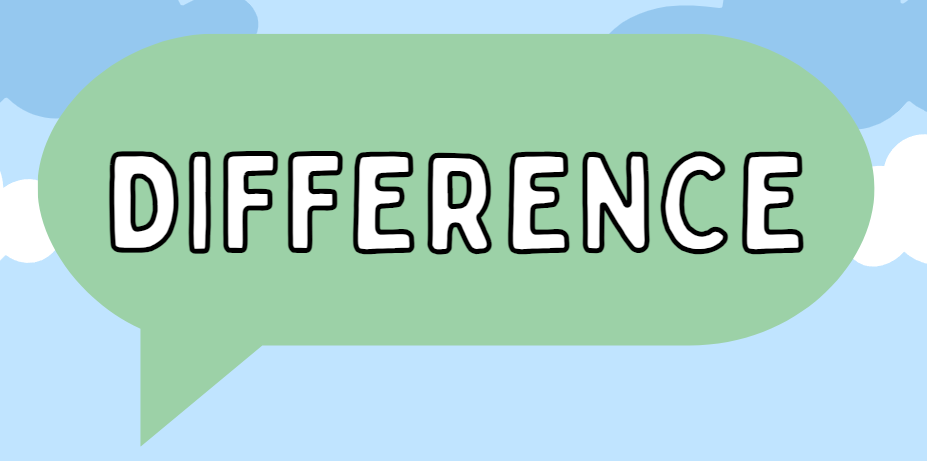
Whisky vs Whiskey Difference
When it comes to the world of distilled spirits, there is one debate that has been raging on for centuries - the whisky vs whiskey difference. While the two terms may sound similar, there are subtle distinctions that set them apart and give each its unique character and flavour. Let's dive into the definition and origin of both 'whisky' and 'whiskey' to demystify this linguistic symphony.
### Definition and Origin of the Term 'Whisky':
Whisky, with no 'e', is the preferred spelling in Scotland, Canada, India, and most other countries around the world. It is made from fermented grain mash, which is aged in wooden barrels for a specified period of time. The process gives whisky its distinct flavours and aromas.
The term 'whisky' originated from the Irish and Scottish Gaelic word 'uisce beatha', meaning 'water of life'. This name reflects the deep-rooted cultural significance attached to this noble spirit.
### Definition and Origin of the Term 'Whiskey':
On the other hand, whiskey, spelt with an 'e', is used predominantly in Ireland and the United States. Just like whisky, it is also made from fermented grain mash but can include different types of grains such as corn, barley, rye, or wheat.
The addition of an extra vowel in its name is believed to have been influenced by Irish immigrants who brought their distilling traditions to America. The term whiskey derives from the Old Irish word 'uisce beatha' as well.
To summarise:
\- Whisky (no 'e') is commonly used globally except in Ireland and the United States.
\- Whiskey (with an 'e') is mainly used in Ireland and the United States.
Now that we have clarified their definitions and origins, it's important to understand that while these spellings may differ slightly, both whisky and whiskey offer a delightful range of flavours and complexities. Whether you prefer the smoothness of a Scottish whisky or the boldness of an American bourbon, exploring the world of whisky/whiskey will surely enhance your appreciation for this magical spirit.
Can You Use 'Whisky' and 'Whiskey' Interchangeably?
---------------------------------------------------
When it comes to the spellings of 'whisky' and 'whiskey,' you might have noticed that there are two different variations. But can you use them interchangeably? Let's explore!
### 1\. Legal Regulations:
It's essential to note that the usage of 'whisky' or 'whiskey' depends on where the spirit is produced. Different regions have distinct legal regulations regarding the spelling of their respective products. In general, 'whisky' is commonly used for Scotch whiskies, Canadian whiskies, and whiskies from other parts of the world, excluding the United States and Ireland. On the other hand, 'whiskey' is primarily associated with American and Irish spirits.
### 2\. Style and Origin:
Using the correct spelling is crucial when referring to a specific style or origin of the spirit. For instance, if you're talking about a Scottish single-malt whisky, it would be appropriate to refer to it as 'whisky.' Similarly, if you're discussing an American bourbon or Irish whiskey, using the spelling 'whiskey' would be more accurate.
In short, while both spellings are technically correct, it's important to consider regional distinctions and adhere to them when referring to a particular style or origin of the spirit.
If you need help with more confusing words in English, like 'whisky' and 'whiskey', [Clapingo's YouTube channel](https://www.youtube.com/@Clapingo) is a treasure trove of vocabulary tips and helpful videos that can benefit you immensely.
Final Thoughts
--------------
As we wrap up our exploration of the whisky vs whiskey difference, here's a summary of the main points discussed in this article:
* Whisky and whiskey are both alcoholic beverages, but they differ in their spelling and production methods. Whisky typically refers to Scotch whisky, made in Scotland, while whiskey is commonly used to describe Irish and American whiskeys.
* The spelling distinction between whisky and whiskey originated from historical and cultural factors. Scottish distillers preferred the term "whisky," while Irish and American distillers adopted "whiskey" to differentiate their products.
* It's important to note that regional regulations play a significant role in determining how each type of whisky or whiskey is produced and labelled.
Now that you have gained a deeper understanding of the whisky vs whiskey distinction, we encourage you to continue exploring Clapingo's resources for English language learning. Our platform specialises in helping Indian learners develop their English-speaking skills for personal and professional growth, like [preparing for IELTS](https://clapingo.com/ielts).
Whether you want to learn perfect sentence formation in English online or improve your pronunciation through elocution coaching, Clapingo has a range of courses tailored to your needs. Visit our website at [www.clapingo.com](//www.clapingo.com) to discover more about our offerings and embark on your exciting journey towards English language fluency.
FAQs
----
**1\. Is it whisky or whiskey in India?**
In India, the spelling typically follows the British convention of "whisky" without an "e." This is because Indian whiskies are often inspired by Scottish whiskies, which also use the spelling "whisky." So, when referring to Indian whiskies or Scotch whiskies in India, remember to drop the "e" and spell it as "whisky."
**2\. Is Jack Daniel's whiskey or whisky?**
Jack Daniel's is an American brand of whiskey, so it follows the American convention of spelling with an "e." Hence, it is spelled as "whiskey." This distinction highlights the difference between American whiskeys and other types of whiskies like Scotch whisky or Irish whiskey.
**3\. What is the main difference between whisky and whiskey?**
The main difference lies in geographical origin and production methods. Whiskies from Scotland, Canada, Japan, and most other countries are spelt as "whisky," whereas whiskeys from Ireland and America are spelt with an "e," as in "whiskey." Additionally, each type has its own unique characteristics resulting from variations in ingredients, distillation processes, ageing techniques, and regional traditions.
**4\. Can I use whisky and whiskey interchangeably?**
While using both spellings informally may not raise many eyebrows, it's important to know when to use each term correctly. It's best to adhere to the accepted spelling conventions for different types of spirits. If you're referring to a specific style or origin such as Scotch whisky or Irish whiskey, use the appropriate spelling associated with that particular variety.
You may want to read
--------------------
[A Huge And Helpful Guide To 67 English-Speaking Countries (And More!)](https://clapingo.com/blog/english-speaking-countries)
---
This blog is powered by Superblog. Visit https://superblog.ai to know more.
---
## Lier Vs Liar : Understanding Nuances and Usages
Author: Unknown
Published: 2023-11-30
Meta Title: "Lier" vs "Liar": Unraveling the Fine Distinctions.
Meta Description: Discover the meanings, pronunciation tips, and proper usage of "lier" and "liar" in English. Master the distinction to enhance your language skills.
Tags: lier vs liar pronunciation, Lier Vs Liar, lier vs liar meaning, lier vs liar examples
URL: https://clapingo.com/blog/lier-vs-liar
Contents
* [What is the difference between "Lier" and "Liar"?](#what-is-the-difference-between-lier-and-liar)
* [Mastering the Proper Usage of "Lier" and "Liar"](#mastering-the-proper-usage-of-lier-and-liar)
* ["Lier" vs "Liar": Pronunciation Differences](#lier-vs-liar-pronunciation-differences)
* [Some Common Mistakes Made by Learners](#some-common-mistakes-made-by-learners)
* [Tips to Remember the Use of "Lier" and "Liar"](#tips-to-remember-the-use-of-lier-and-liar)
* ["Lier" vs "Liar" in Indian Languages](#lier-vs-liar-in-indian-languages)
* [Closing Remarks](#closing-remarks)
* [FAQs](#faqs)
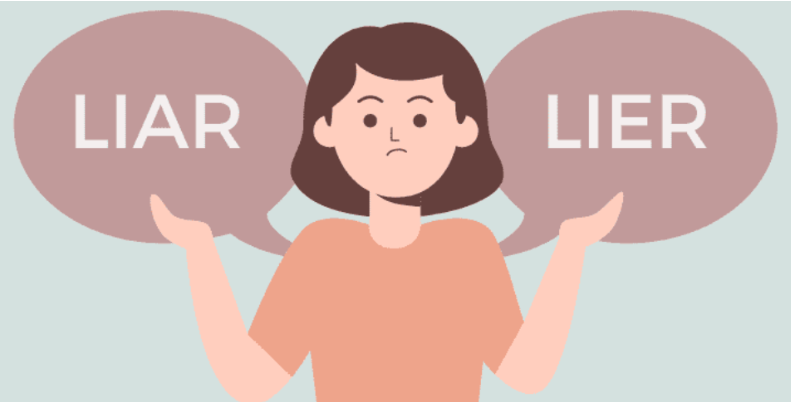
What is the difference between "Lier" and "Liar"?
-------------------------------------------------
Have you ever been confused about the difference between "lier" and "liar"? Don't worry, you're not alone! Many English learners often find these words challenging to distinguish.
At its core, the difference lies in their meanings. The meanings of "lier" and "liar" can be found from the initial letters of these words. "Lier" is a term used to describe someone who consistently lies down or reclines, while "liar" refers to an individual who tells falsehoods or untruths. Both words may sound similar, but their meanings are distinct.
The word "lier" comes from the Old English word 'leger,' which means to lie down or recline. On the other hand, "liar" originates from the Middle English word 'lyer,' meaning one who tells lies. It's fascinating to see how these words have evolved over time.
Now that we understand the definitions and origins of these words, let's explore some usage guidelines for more clarity.
Mastering the Proper Usage of "Lier" and "Liar"
-----------------------------------------------
Understanding the correct usage of words is vital when learning spoken English. Let’s delve into the nuances of usage and meaning of "lier" and "liar."
**When to Use "Lier":**
* The term "lier" is not commonly used in English. However, it refers to someone or something that lies down or reclines.
* Use "lier" when describing a person who frequently rests, lounges, or reclines.
**When to Use "Liar":**
* "Liar" is widely used in English and refers to a person who tells falsehoods or deliberately deceives others.
* Use "liar" when describing someone who habitually tells lies, whether big or small.
Here are a few examples of "lier" and "lier" in contexts illustrating the correct usage of both words:
* Lier:
* My cat is a lazy lier; she spends hours napping in the sun.
* After an exhausting day at work, I enjoyed being a couch-lier for some time.
* She is a habitual lier; she spends most of her day lying on the couch.
* Liar:
* She accused him of being a liar because he never kept his promises.
* The politician was exposed as a liar after evidence of corruption emerged.
* He is known as a compulsive liar; you can never trust anything he says.
Remember, context plays a crucial role in determining whether to use "lier" or "liar." Pay attention to the meaning you want to convey and choose accordingly.
"Lier" vs "Liar": Pronunciation Differences
-------------------------------------------
Now let's look into the pronunciation of "lier" and "liar." "Lier" and "liar" are homophones, meaning they sound the same but have different meanings. To pronounce them accurately, here's a handy guide:
1\. Lier: Pronounced as /lahy-er/
* The first syllable sounds like "lie", as in telling a falsehood.
* The second syllable rhymes with "air", like the air we breathe.
2\. Liar: Pronounced as /lahy-er/
* The pronunciation of "liar" is identical to that of "lier".
In British English, both "lier" and "liar" are pronounced without emphasizing the 'r' sound at the end. The 'r' is simply dropped. For example, "lier" would be pronounced as "lie-uh," and "liar" would be pronounced as "lie-uh."
On the other hand, in American English, both words are pronounced with an emphasized 'r' sound at the end. So, "lier" would be pronounced as "lie-er," and "liar" would be pronounced as "lie-er." The 'r' is distinctly articulated.
In Indian English, there can be variations depending on regional accents and influences from different English-speaking countries. However, most Indians tend to follow British pronunciation patterns.
These videos will provide you with clear demonstrations of how native speakers pronounce these words. By understanding these nuances, you can improve your pronunciation skills!
Some Common Mistakes Made by Learners
-------------------------------------
When it comes to using "lier" and "liar" correctly, there are a few common mistakes that learners tend to make. Let's take a look at them and understand why they occur:
**1\. Incorrect Pronunciation**: A common mistake occurs with the pronunciation of "lier." Because of its spelling, many learners mistakenly pronounce it as /li-er/ (rhyming with "ear") instead of the correct pronunciation /laɪər/ (rhyming with "fire"). To avoid this mistake, listen to the audio examples provided or look for the pronunciation of these words in the everyday media that you consume. This may include [movies](https://clapingo.com/blog/english-movies-learn-english), [music](https://clapingo.com/blog/can-listening-to-songs-help-you-improve-your-spoken-english-ckxga26vi03801jp75te3i8hx) or social media content.
**2\. Lack of Contextual Understanding**: Understanding context is crucial when it comes to using these words accurately. Remember that "liar" refers specifically to a person who tells lies intentionally, while "lier" is not a commonly used word in English and is often confused with "liar." Here are some usage examples of "lier" and "liar" in the incorrect and correct contexts:
* Incorrect: She is a known lier.
* Correct: She is a known liar.
By familiarizing yourself with the correct usage and avoiding these common mistakes, you'll be well on your way to mastering the difference between "lier" and "liar."

Tips to Remember the Use of "Lier" and "Liar"
Remembering the difference between the meaning of "lier" and "liar" can sometimes be challenging, but with a few simple tips, you can master their usage effortlessly. Here are some effective techniques to help you remember when to use each word correctly:
**1\. Mnemonic Technique**: Here's a mnemonic device to memorise the difference between "lier" and "liar":
"Lier" is like "L" for "laying down" or "lying horizontally."
"Liar" is like "liar, liar, pants on fire" - a common saying to remember dishonesty.
**2\. Personalized Memory Aids**: Create your own personalized memory aids based on your interests or experiences. For example, if you enjoy sports, associate the word 'lier' with a soccer player lying on the ground pretending to be hurt. This connection will remind you that 'lier' means someone who lies down or reclines.
**3\. Repetition and Practice**: Consistently using both words in sentences will reinforce their correct usage in your mind. Practice constructing sentences like, "He is a notorious liar," or "She always prefers lying down, she's a lier." This repetition will help solidify your understanding of when to use each word appropriately.
**4\. Online Resources**: Take advantage of online tools and resources specifically designed for language learners. Platforms like [Clapingo](https://clapingo.com/) offer interactive exercises, quizzes, and vocabulary-building games that can enhance your understanding of words like "lier" and "liar".
By implementing these tips into your learning routine, you'll develop a strong grasp of the nuances and usages of "lier" and "liar". Remember, practice makes perfect, so don't hesitate to put your knowledge into action by using these words in everyday conversations.
"Lier" vs "Liar" in Indian Languages
------------------------------------
In addition to understanding the nuances and usages of "lier" and "liar" in English, it can also be interesting to explore how these words are translated into various Indian languages. Here is a table that provides translations of "lier" and "liar" in some Indian languages:
### Language
### Translation of Lier
### Translation of Liar
Hindi
जो लेटा हो
झूठा
Marathi
जो झोपतो
लबाड
Tamil
படுத்திருப்பவன்
பொய்யர்
Malayalam
കിടക്കുന്നവൻ
നുണയൻ
Assamese
শুই থকা এজন
মিছলীয়া
Bengali
যারা শুয়ে আছে
মিথ্যাবাদী
It is important to note that while these translations may not capture the exact nuances of "lier" and "liar," they provide a general understanding of how these words are represented in various Indian languages. Understanding the translations can be beneficial for English learners who are bilingual or have exposure to multiple languages.
Closing Remarks
---------------
As we come to the end of our exploration of "lier" vs "liar," let's quickly recap the important points we discussed. We delved into the difference between these two words, understanding their meanings and origins. We also explored the nuances in the pronunciation of "lier" and "liar," recognizing that they are homophones.
Mastering the proper usage of "lier" and "liar" is crucial, and we provided guidelines on how to use these words correctly in spoken English. We emphasized the importance of context and provided examples to illustrate their appropriate usage. We also discussed some common mistakes to look out for when using "lier" and "liar."
To help you remember the difference between "lier" and "liar," we introduced a mnemonic device and a memory aid technique using visual imagery. For our Indian language learners, we provided translations of "lier" and "liar" in Indian languages as well, facilitating better understanding across different linguistic backgrounds.
As we conclude this article, we encourage you to continue enhancing your English language skills through platforms like [Clapingo](https://clapingo.com/) that provide personalised spoken English coaching for language learners of all proficiency levels. Their resources on [vocabulary improvement](https://clapingo.com/blog/how-to-improve-vocabulary-in-english) and [fast learning techniques](https://clapingo.com/blog/how-to-learn-english-fast) can support your journey towards fluency and confidence.
Always remember that practice is the key to language learning. Keep practising your English skills by engaging in conversations with native speakers or fellow learners. With dedication and perseverance, you'll see significant progress in no time.
So expand your linguistic horizons and enjoy the journey of mastering the English language!
FAQs
----
**1\. How do you use "lier" in a sentence?**
The word "lier" is not commonly used in English. When it is, it is used as a noun in sentences. For example, "After a long day of work, she preferred being a bed-lier."
**2\. Who is called a liar?**
A person who tells lies or makes false statements is referred to as a liar. This term is used to describe someone who intentionally deceives others by not telling the truth.
**3: Who is a lier?**
"Lier" can refer to the act of lying down, as in positioning oneself horizontally. It is not a common word in English and is sometimes used in contexts related to relaxation, rest, or physical positioning.
---
This blog is powered by Superblog. Visit https://superblog.ai to know more.
---
## Loose vs Lose: The Power of A Single Letter Difference
Author: Unknown
Published: 2023-11-30
Meta Title: Mastering the Differences : Loose vs Lose Explained!
Meta Description: Confused between "loose" and "lose"? Discover their meanings, pronunciation, common mistakes, usage and tips to use them correctly in sentences. Learn now!
Tags: loose vs lose difference, loose vs lose, loose vs lose meaning, loose vs lose in a sentence
URL: https://clapingo.com/blog/loose-vs-lose
Contents
* [The Confusing Case of "Loose" and "Lose"](#the-confusing-case-of-loose-and-lose)
* [Clearing the Confusion: Meaning of "Loose" and "Lose"](#clearing-the-confusion-meaning-of-loose-and-lose)
* [Loose vs Lose: Pronunciation Differences](#loose-vs-lose-pronunciation-differences)
* [Common Mistakes to Look Out For](#common-mistakes-to-look-out-for)
* [How to Remember the Difference between "Loose" and "Lose"?](#how-to-remember-the-difference-between-loose-and-lose)
* ["Loose" vs "Lose" in Indian Languages](#loose-vs-lose-in-indian-languages)
* [Final Remarks](#final-remarks)
* [FAQs](#faqs)

The Confusing Case of "Loose" and "Lose"
----------------------------------------
The English language is full of confusing words, and one such pair that often confounds learners is "loose" and "lose." Did you know that these two are among the most frequently confused words in the English language? They often lead to hilarious misunderstandings or embarrassing moments. Just imagine accidentally telling someone that you've "loosed your keys" instead of saying you've lost them! These mix-ups highlight the importance of mastering their correct usage.
Understanding the distinction between such similar, yet confusing words is crucial for effective communication in English. Using the wrong word can lead to misunderstandings and misinterpretations. So, the aim of this article is to provide a clear understanding of the differences in meaning, pronunciation, common mistakes, tips for proper usage, and even translations into Indian languages for the confusing words "loose" and "lose." By the end of this article, you'll have a solid foundation on how to use these words correctly in your everyday conversations.
Let's get started!
Clearing the Confusion: Meaning of "Loose" and "Lose"
-----------------------------------------------------
Let's start by taking a closer look at the meanings of these words to clear up any confusion.
"Loose" is an adjective that describes something not tight or secure. It can refer to clothing that does not fit tightly, like loose-fitting pants or a loose shirt. In addition, it can also describe relaxed or informal behaviour.
"Lose" is a verb that signifies misplacing something or failing to win. For example, you may lose your personal belongings like keys or a wallet, which means you cannot find them. Similarly, in a sports game or competition, if your team does not win, you can say that you lost.
Now that we have established their meanings let's explore some contextual examples of "loose" and "lose" in sentences to demonstrate the correct usage of these words:
### Words
### Context
### Examples
**Loose**
Not secure
The screw in the furniture became loose over time.
Clothing
My pants are too loose after losing weight.
Behaviour
She doesn't like people with a loose tongue.
**Lose**
Misplacing
I always seem to lose my keys when I'm in a rush.
Competition
Our team might lose the match against our rivals.

Loose vs Lose: Pronunciation Differences
When it comes to the words "loose" and "lose," it's not just their meanings that can cause confusion, but also their pronunciation. The subtle difference in the sound of a single letter can lead to miscommunication and misunderstandings. Let's dive into the pronunciation differences between "loose" and "lose" in various English accents.
1\. US English:
* "Loose": In US English, the word "loose" is pronounced as \[loos\], with a long /oo/ sound like in "food" and a soft /s/ sound at the end.
* "Lose": On the other hand, "lose" is pronounced as \[loo-z\], with a long /oo/ sound followed by a clear /z/ sound.
2\. UK English:
* "Loose": In UK English, the pronunciation of "loose" is similar to US English, with a long /oo/ sound and a soft /s/ at the end.
* "Lose": However, in UK English, the word "lose" has a slightly different pronunciation. It is pronounced as \[lu:z\], with a longer /u:/ sound like in "blue" followed by a clear /z/ sound. The vowel sound in "lose" is slightly longer than that in "loose".
3\. Indian English:
* Indian English pronunciation of "loose" and "lose" is similar to UK English. Loose is pronounced as \[loos\] and and lose as \[lu:z\].
Indian learners often struggle with differentiating between the short 'oo' and soft 's' sounds in "loose" and the long 'oo' and clear 'z' sounds in "lose." This can result in miscommunications and misunderstandings while speaking. To overcome this challenge:
* Listen carefully to native speakers pronouncing these words.
* Practice speaking aloud and pay attention to your pronunciation.
* Record yourself while speaking and compare it with native speakers.
* Seek feedback from native speakers or language experts who can guide you on proper pronunciation.
For a better understanding of the pronunciation of "loose" and "lose," you can listen to audio examples from reliable sources like Merriam-Webster's online dictionary or YouTube tutorials specifically designed for pronunciation practice.
Common Mistakes to Look Out For
-------------------------------
Let's take a closer look at some common mistakes to avoid when using "loose" and"lose."
**1\. Incorrectly using "loose" as a verb:**
Using "loose" as a verb when it should be used as an adjective is one of the common mistakes made by English learners. For instance, saying "I will loose weight by exercising regularly," which should be corrected to say "I will lose weight by exercising regularly." Remember that "loose" is used to describe something not tight or secure, while "lose" means to misplace or fail to win.
**2\. Misplacing hyphens with compound adjectives involving "loose":**
Hyphens are commonly misused when it comes to compound adjectives that involve the word "loose." For example, saying "She wore a loose-fitting dress," but mistakenly writing it as "She wore a loose fitting dress" without the hyphen. The correct usage is with the hyphen because it clarifies that both words together form a compound adjective modifying the noun.
To avoid making these mistakes, it's important to understand and remember the meanings of both words. Practice using them correctly in sentences and pay attention to their pronunciation differences.
How to Remember the Difference between "Loose" and "Lose"?
----------------------------------------------------------
Here are some tips that will help you avoid getting confused between "loose" and "lose," and remember the difference:
* **Tip 1: Visualize the Spelling**
One way to remember which word is which is to visualize their spelling. The word "loose" has double o's like in the word "too," which also means something excessive or more than enough. So, when you see those double o's in "loose," think of it as something extra or not tightly held together.
On the other hand, the word "lose" only has one o. Think of it as losing something, where there's a loss of something important.
* **Tip 2: Mnemonic Device**
Another helpful technique is using a mnemonic device. Create a simple phrase or sentence that helps you remember the difference between these words. For example:
_"Lose has one 'o,' just like when I lose my phone."_
This sentence connects losing with having only one 'o' in its spelling.
* **Tip 3:** **Visualize Scenarios**
Picture yourself in different situations where either "loose" or "lose" would be appropriately used. This visualization technique helps reinforce proper usage in your mind.
* **Tip 4:** **Practice with Sentences**
To solidify your understanding, practice using "loose" and "lose" in sentences. For instance, you could say, "I need to tighten this loose screw before it falls out," or "Don't lose hope even when things get tough."
Now that we've explored various strategies for remembering the distinction between "loose" and "lose," let's move on to understanding how these words differ in Indian languages.
"Loose" vs "Lose" in Indian Languages
-------------------------------------
As English learners, we often find ourselves confused about how to use these words correctly in our native tongues. Let's explore the translations of "loose" and "lose" in popular Indian languages to gain a better understanding:
### Language
### Translation of Loose
### Translation of Lose
Hindi
ढीला (Dheela)
खोना (Khona)
Telugu
వదులుగా (Vaduluga)
కోల్పోతారు (Kōlpōtāru)
Bengali
আলগা (Ālagā)
হারান (Hārāna)
Marathi
सैल (Saila)
गमावणे (Gamāvaṇē)
Gujarati
છૂટક (Chūṭaka)
ગુમાવવું (Gumāvavuṁ)
Kannada
ಸಡಿಲ (Saḍila)
ಕಳೆದುಕೊಳ್ಳುತ್ತಾರೆ
(Kaḷedukoḷḷuttāre)
Now that you have a better understanding of both words in English as well as their translations in Indian languages, you'll be able to navigate conversations more smoothly.
Final Remarks
-------------
Understanding the difference between words like "loose" and "lose" is crucial when it comes to spoken English. The confusion between these two words can lead to misunderstandings and even change the entire meaning of a sentence. So, let's recap the key points we discussed in this article.
Firstly, we explored the meanings of "loose" and "lose." "Loose" is used to describe something not tight or secure, while "lose" refers to misplacing or failing to win something. We looked at various contexts where these words are used correctly, such as loose-fitting clothing or misplacing personal belongings.
We also discussed the differences in the pronunciation of "loose" and "lose" and highlighted some common mistakes to look out for while using "loose." To help you remember the difference between these two words, we also introduced some memory aids. For Indian readers, we provided translations for 'loose' and 'lose' in popular Indian languages.
Mastering the difference between "loose" and "lose" can prevent confusion and ensure that your message is accurately conveyed. Remembering key points such as the meanings, pronunciation, and common mistakes will help you use these words correctly.
If you're looking for further language learning support, [Clapingo](https://clapingo.com/) is a valuable platform. Clapingo provides personalised spoken English coaching classes that are designed to help learners navigate their language-learning journey with ease. [Clapingo's blog](https://clapingo.com/blog/) also offers many useful resources like [a comprehensive guide to English grammar](https://clapingo.com/blog/learn-english-grammar-step-by-step) and a [curated list of spoken English books](https://clapingo.com/blog/spoken-english-books) for learners at all levels.
FAQs
----
**1: Is it "loose hope" or "lose hope"?**
The correct phrase is "lose hope." The word "lose" in this context means to be deprived of or unable to find something, which perfectly captures the feeling of losing hope.
**2: How do you use "loose" and "lose" in a sentence correctly?**
To use "loose" correctly, remember that it is an adjective that describes something not tight or secure. For example, you could say, "She wore loose-fitting pants for comfort."
On the other hand, "lose" is a verb used to indicate misplacing something or failing to win. For example, you could say, "I always lose my keys when I'm in a rush."
**3: Which is correct, loose or lose?**
The word you choose depends on what you want to convey. If you want to describe something not tight or secure, then use "loose." If you're talking about misplacing or failing to win something, go with "lose."
---
This blog is powered by Superblog. Visit https://superblog.ai to know more.
---
## Mastering the Usage of 'To' vs 'For' - A Comprehensive Guide
Author: Unknown
Published: 2023-11-30
Meta Title: Mastering 'To' vs 'For': Enhance Your Spoken English Skills
Meta Description: Discover the nuances and usage of 'to' and 'for' in spoken English. Improve your communication with engaging examples, exercises, and clear explanations.
Tags: To vs For, Usage of To and For, Differnce of To vs For
URL: https://clapingo.com/blog/to-vs-for
Contents
* ['To' vs 'For' - What's the Difference?](#to-vs-for-whats-the-difference)
* [1\. Using 'to':](#1-using-to)
* [2\. Using 'for':](#2-using-for)
* [Exploring Usage Scenarios - 'To' and 'For'](#exploring-usage-scenarios-to-and-for)
* [Understanding Contexts where we use 'To'](#understanding-contexts-where-we-use-to)
* [Understanding Contexts where we use 'For'](#understanding-contexts-where-we-use-for)
* [Common Mistakes to Avoid](#common-mistakes-to-avoid)
* [Mastering 'To' vs 'For' in Your Speech](#mastering-to-vs-for-in-your-speech)
* [Key Takeaways](#key-takeaways)
* [FAQs](#faqs)
* [You may want to read](#you-may-want-to-read)

Did you know that 'to' and 'for' are two of the most commonly used prepositions in the English language? Understanding their difference is essential for clear communication.
When it comes to mastering a language, it's not just about learning vocabulary or memorizing grammar rules - it's about understanding how words function in different contexts. Prepositions play a crucial role in expressing relationships between words, and 'to' and 'for' are no exception.
Whether you're preparing for an important business meeting or simply want to improve your everyday conversations, this guide will provide you with the tools needed to confidently navigate the subtle differences between 'to' and 'for'.
From sentence formation, 'to' vs 'for' examples to practical 'to' vs 'for' exercises, we've got you covered! Let's dive right in!
'To' vs 'For' - What's the Difference?
--------------------------------------
When it comes to using prepositions in English, one of the most common sources of confusion for learners is the difference between 'to' and 'for'. These two small words play a significant role in sentence formation and can drastically change the meaning of a sentence. In this section, we will explore the basic difference between 'to' and 'for' and provide 'to' vs 'for' examples to help you understand their usage.
**'To' vs 'For' Meaning** -
To put it simply, 'to' is used to indicate direction or movement towards someone or something.
On the other hand, 'for' is used to express purpose or benefit. Let's delve deeper into these concepts:
### 1\. Using 'to':
* **Direction:** When indicating movement towards a specific destination or recipient, we use 'to'. For example: _She sent a letter to her friend._
* **Indirect Object:** We also use 'to' when expressing an action done for someone else's benefit. For example: _He offered his help to his colleague_.
### 2\. Using 'for':
* **Purpose:** We use 'for' when stating why something is done or intended for a specific purpose. For example: _He studied hard for his exams._
* **Recipient/Beneficiary:** When indicating that something is being done or given for someone's benefit, we also use 'for'. For example: _They raised money for charity._
Exploring Usage Scenarios - 'To' and 'For'
------------------------------------------
In this section, we will explore different usage scenarios for both 'to' and 'for', providing you with clear examples and tables to help you grasp their meanings and applications.
### Understanding Contexts where we use 'To'
To start off, let's take a look at the various contexts where we commonly use the preposition 'to'. Here is a table comparing different scenarios:
**Scenario**
**Example**
Destination
_I am going to London._
Purpose
_She gave me a pen to write with._
Time
_I will be available at my office from Monday to Friday._
Giving
_I gave a gift to my friend._
Comparison
_Her performance in the second round was superior to her first-round effort._
In addition to the table, here are some examples highlighting typical situations requiring 'to':
* When indicating direction: _Walk straight ahead and turn left to reach the museum._
* When referring to a destination: _We planned a trip to Goa during our summer vacation._
* When expressing purpose: _I need a laptop to complete my online assignments._
* When mentioning specific times: _The webinar is scheduled from 9 a.m. to 11 a.m._
* When giving or transferring something: _She handed the package to her colleague._
### Understanding Contexts where we use 'For'
Now let's delve into the contexts where 'for' is appropriate. Here is a table presenting different scenarios:
**Scenario**
**Example**
Purpose
_I bought a book for studying._
Duration
_He has been waiting for an hour._
Beneficiary
_This gift is for you._
Exchange
_I traded my old phone for a new one._
Here are some examples illustrating common situations requiring 'for':
* When indicating purpose: _I bought a new laptop for work purposes._
* When referring to a duration of time: He has been practicing guitar for five years.
* When mentioning the recipient or beneficiary: _I baked a cake for my friend's graduation party._
* When explaining the cause or reason: _She received a promotion for her hard work and dedication._
* When talking about an exchange or trade: _They exchanged their contact information for future collaboration._
Now that you have a comprehensive guide on the usage of 'to' versus 'for', let's move on to the next section where we will focus on common mistakes and how to avoid them.

Common Mistakes to Avoid
By being aware some common mistake, you can improve your English language skills and communicate effectively. Let's explore some common mistakes and how to avoid them:
**Mistake 1: Confusing the purpose of 'to' and 'for'**
The key difference between 'to' and 'for' lies in their purpose. 'To' indicates direction or movement, while 'for' focuses on purpose or benefit.
Example:
Incorrect: _She gave a gift to me for thanking me._
Corrected: _She gave a gift to me to thank me._
**Mistake 2: Using 'to' when expressing duration**
When indicating duration, we use 'for,' not 'to.'
Examples:
Incorrect: _I have been waiting in line to two hours._
Corrected: _I have been waiting in line for two hours._
**Mistake 3: Misusing 'to' instead of an infinitive verb**
Instead of using 'to' alone, we need an infinitive verb following it.
Examples:
Incorrect: _They plan to visit Paris next month, but they don't have enough time to._
Corrected: _They plan to visit Paris next month, but they don't have enough time to do so._
By understanding these common mistakes and practicing with various examples, you can enhance your understanding of the correct usage of 'to' vs 'for.'
Mastering 'To' vs 'For' in Your Speech
--------------------------------------
To truly master the usage of 'to' and 'for' in your speech, you need to be aware of their nuances and practice incorporating them into your everyday conversations. Here are some tips and strategies to help you gain fluency and confidence in using these prepositions effectively:
1) **Pay attention to native speakers' usage patterns:**
* One of the best ways to learn how to use 'to' and 'for' correctly is by observing how native speakers use them in their everyday speech.
* Listen to conversations, podcasts, or watch TV shows or movies in English.
* Take note of the context in which these prepositions are used and try to understand the underlying meaning.
2) **Practice consciously incorporating these prepositions:**
* Learning a language is all about practice, so make a conscious effort to use 'to' and 'for' in your own conversations.
* Start small by focusing on specific phrases or sentences that commonly use these prepositions. For example, you can practice using expressions like 'I'm going to the store' or 'This gift is for you.'
* By actively using these prepositions, you'll become more familiar with their correct usage over time.
3) **Seek feedback from experienced language instructors at Clapingo:**
* Getting feedback from experienced language instructors can greatly accelerate your learning process.
* They can provide guidance on common mistakes and offer suggestions for improvement.
* At Clapingo, our team of expert instructors can help you navigate the complexities of using 'to' and 'for'. They can also provide you with personalised exercises tailored to your specific needs.
Key Takeaways
-------------
Now that we have covered the comprehensive guide on mastering the usage of 'to' vs 'for,' it's time to look at the key points discussed throughout this article.
The fundamental difference between 'to' and 'for,' with 'to' indicating direction or destination, and 'for' expressing purpose or intention. The best way to master the usage of 'to' vs 'for' is through practice. Incorporate these words into your everyday conversations, both written and spoken, to become more comfortable using them correctly.
As you continue your journey towards perfecting your English skills, Clapingo is here to provide further guidance and support. Visit [Clapingo's website](https://clapingo.com/) for additional resources, including exercises and examples related to using 'to' vs 'for'.
So why wait? Start incorporating 'to' and 'for' into your sentences today, and watch your English skills thrive with Clapingo's expert guidance and support!
FAQs
----
**1\. Which is correct 'used to' or 'used for'?**
When deciding between 'used to' and 'used for', it's essential to consider the context. 'Used to' is commonly used when referring to past habits or actions that no longer occur. For example, 'I used to live in London.'
On the other hand, 'used for' indicates the purpose or function of something. For instance, 'This knife is used for cutting vegetables.' Remember, understanding the context will guide you in choosing the correct phrase.
**2\. What is the difference between 'to me' and 'for me'?**
The distinction between 'to me' and 'for me' lies in their underlying meanings.
When someone does something 'to me,' they are acting upon me directly. For example, 'She gave a gift to me.' Conversely, when something is done 'for me,' it means an action has been done on my behalf or for my benefit. For instance, 'He made dinner for me.'
Understanding whether someone is acting directly upon you or performing an action on your behalf will help you differentiate between these phrases.
**3\. What is the difference between important to and important for?**
The difference between 'important to' and 'important for' can be subtle but significant. When we say something is 'important to' us, we are emphasizing its significance or value in relation to our personal feelings or beliefs. For example, 'Family is important to him.'
On the other hand, when we say something is 'important for,' we highlight its importance regarding a particular purpose or outcome. For instance, 'Proper nutrition is important for good health.' By considering whether emphasis lies on personal connection or purpose, you can determine whether to use 'important to' or 'important for'.
**4\. How can I practice using 'to' vs 'for' correctly?**
To improve your mastery of using 'to' vs 'for,' try incorporating them in different contexts. Here are a few exercises to help you practice:
* Write sentences where you use both 'to' and 'for' correctly.
* Use a dictionary or online resources to find more examples and study their meanings.
* Engage in conversations with native English speakers or language partners to get feedback on your usage.
You may want to read
--------------------
[Top 25 Best Spoken English Books for Beginners To Advanced Learners](https://clapingo.com/blog/spoken-english-books)
---
This blog is powered by Superblog. Visit https://superblog.ai to know more.
---
## Understanding The Nuances : Distinguishing Between 'Advice' and 'Advise'
Author: Unknown
Published: 2023-11-30
Meta Title: Mastering The Differences: Understanding Advice vs Advise
Meta Description: Confused between the meaning of advice and advise? Learn their differences, usage examples, and translations to improve your English language skills.
Tags: advise vs advice difference, advise vs advice meanin, advise vs advice, advise vs advice examples
URL: https://clapingo.com/blog/advice-vs-advise
Contents
* [Understanding the Meanings of Advice and Advise](#understanding-the-meanings-of-advice-and-advise)
* [When to Use Advise and Advice: Some Examples](#when-to-use-advise-and-advice-some-examples)
* [Examples demonstrating how to use advice correctly:](#examples-demonstrating-how-to-use-advice-correctly)
* [Examples illustrating the proper use of advise:](#examples-illustrating-the-proper-use-of-advise)
* [Pronouncing "Advice" and "Advise" Properly](#pronouncing-advice-and-advise-properly)
* [Grasping the Meaning in Regional Languages](#grasping-the-meaning-in-regional-languages)
* [Tips for the Use of Advice and Advise in Spoken English](#tips-for-the-use-of-advice-and-advise-in-spoken-english)
* [Key Takeaways](#key-takeaways)
* [FAQs](#faqs)
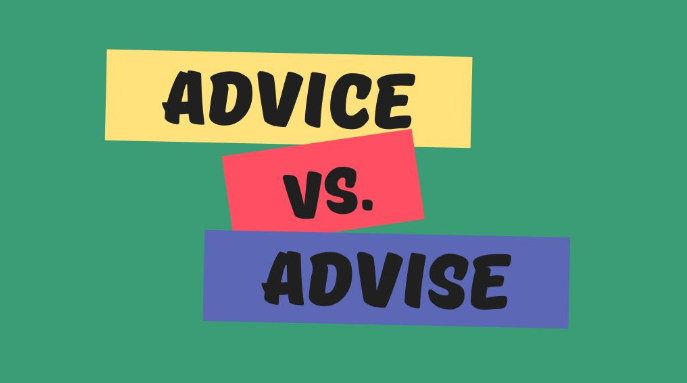
"_We are about to give you some advice regarding the use of advice and advise. We advise you to be careful while using them._"
Well, that was quite a lot of similar-looking words. Did they confuse you?
Don't worry, you're not alone! Many English language learners struggle with the use of the words "advice" and "advise" due to their similar spelling and pronunciation. However, mastering the difference between "advice" and "advise" is essential for effective personal and professional communication.
So in this article, we will explore the meanings of advice and advise using examples, provide instructions for proper pronunciation, discuss their translations in regional languages and offer tips for using them in spoken English. By the end of this article, you will have a clear understanding of when to use advice or advise in different contexts.
Now let's dive into each section to gain a comprehensive understanding of the nuances between advice and advise.
Understanding the Meanings of Advice and Advise
-----------------------------------------------
To truly grasp the difference between "advice" and "advise," it is essential to understand their individual meanings. Let's look at the parts of speech and definitions of these words:
### Word
### Part of Speech
### Definition
### Example
**Advice**
Noun
Suggestions or recommendations given to someone
"I need advice on which career path to choose."
**Advise**
Verb
To offer guidance or counsel to someone
"I advise you to take some time off and relax."
Now that we have established their meanings, let's move on to exploring some more examples of how advice and advise can be used in different contexts.

When to Use Advise and Advice: Some Examples
Here are some examples that showcase the distinction between "advice" and "advise."
### Examples demonstrating how to use advice correctly:
1. My friend gave me some great **advice** on how to ace the interview.
2. I always seek my grandmother's **advice** whenever I'm feeling lost.
3. The doctor's **advice** was to get plenty of rest and drink lots of fluids.
4. Can you give me some **advice** on how to improve my writing skills?
### Examples illustrating the proper use of advise:
1. I would **advise** you to take the early morning flight for better chances of avoiding delays.
2. The financial advisor **advised** us to invest in mutual funds for better returns.
3. She **advised** her friend against buying a used car without getting it inspected first.
4. The teacher **advised** the students to revise regularly for their upcoming exams.
By practising using these examples, you can gain a better understanding of when and how to use "advice" and "advise" appropriately in your conversations and written work.
Pronouncing "Advice" and "Advise" Properly
------------------------------------------
Although "advice" and "advise" look similar, there is a difference in how they are pronounced. Let's take a closer look at the correct pronunciation of these two words:
1\. Advice: /ədˈvaɪs/
* The word "advice" is pronounced as uhd-VAHYS.
* The stress is on the second syllable, which is emphasized with a rising intonation.
* The first syllable has a schwa sound (ə), which is the unstressed neutral vowel sound.
2\. Advise: /ədˈvaɪz/
* The word "advise" is pronounced as uhd-VYZ.
* Similar to "advice," the stress is on the second syllable with a rising intonation.
* Again, the first syllable has a schwa sound (ə).
It's important to note that the pronunciation of these words remains consistent across different English-speaking regions, including the UK, the US, and India.
Grasping the Meaning in Regional Languages
------------------------------------------
Understanding the meaning of these words in regional languages can provide a deeper perspective on their differences. Let's take a look at how "advice" and "advise" are expressed in some languages spoken in India.
### Language
### Translation of Advice
### Translation of Advise
Tamil
ஆலோசனை
ஆலோசனை செய்ய
Hindi
सलाह
सलाह देना
Malayalam
ഉപദേശം
ഉപദേശിക്കുക
Marathi
सल्ला
सल्ला देणे
Punjabi
ਸਲਾਹ
ਸਲਾਹ ਦੇਣ
Knowing these translations in regional languages can be helpful, especially when communicating with native speakers or translating texts. It allows us to express ourselves accurately and precisely, avoiding any confusion or misunderstanding.
Tips for the Use of Advice and Advise in Spoken English
-------------------------------------------------------
Now that you have a clear understanding of the differences between "advice" and "advise," let's explore some practical tips to help you use these words correctly in spoken English:
**1\. Understand the context and parts of speech**: Before using either "advice" or "advise," make sure you understand the context in which it is being used. Ask yourself whether the context requires a noun or a verb. This will help you choose the correct word.
**2\. Listen to native speakers**: One of the best ways to improve your spoken English is by listening to native speakers. Observe how they use "advice" and "advise" in various conversations and contexts.
**3\. Practice using both words**: The more you practice using these words, the more comfortable you will become with their correct usage. Engage in conversations where you can naturally incorporate "advice" and "advise."
**4\. Mnemonic devices**: Mnemonic devices can be helpful memory aids to remember the meanings of "advice" and "advise." Here is an example:
_"Advice" with a "C" is a "Counsel" or "reCommendation."_
_"Advise" with an "S" is an "action" that "S"omeone does for another._
By following these tips and remembering this mnemonic device, you'll be able to confidently navigate between using advice and advise in spoken English.
Key Takeaways
-------------
In this article, we have explored the differences between advice and advise, two commonly confused words in English. Let's quickly recap the key ideas discussed.
Advice is a noun that refers to suggestions or recommendations given to someone, while advise is a verb meaning to offer guidance or counsel. We have also provided examples of advice and advise for better clarity.
Remember that advice and advise are pronounced differently. While advice is pronounced with a final /s/ sound, advise has a /z/ sound at the end. However, there are no significant regional variations in the pronunciation of advice and advise in the US, UK, or India.
We also looked at the translations of both the words in some regional languages. To use advice and advise correctly, always remember to pay attention to the context and part of speech. Practice using them in conversations and observe how native speakers use these words.
Learning English is a journey, and if you feel worried about undertaking this journey due to confusions like these, remember that Clapingo is here to support you every step of the way. [Clapingo](https://clapingo.com/) is an online English learning platform that offers personalised English language coaching classes. It offers comprehensive resources for [learning spoken](https://clapingo.com/blog/i-want-to-improve-my-english-speaking-how-to-improve-spoken-english-clgwg4gou944483tpb41qba6ld) and [written English](https://clapingo.com/blog/how-to-improve-english-writing-skills).
So keep practising, stay curious, and soon you'll find yourself confidently navigating the nuances of the English language.
FAQs
----
**1\. Is it doctor's advice or advise?**
When referring to the suggestions or recommendations given by a doctor, we use the phrase "doctor's advice." For example, "The doctor gave me some valuable advice on how to manage my stress."
**2\. How do you use advice and advise?**
The key difference between these two words is that "advice" is a noun, while "advise" is a verb. The noun 'advice' refers to suggestions or recommendations given to someone, whereas the verb 'advise' means to offer guidance or counsel. For example, "I received some great advice from my mentor," and "She advised me to pursue my dreams."
**3\. Is it parents' advice or advise?**
When talking about the suggestions given by parents, we use the phrase "parents' advice." For instance, "My parents always give me sound advice when I need help with important decisions."
---
This blog is powered by Superblog. Visit https://superblog.ai to know more.
---
## 60+ English Conversation Topics: From Everyday Chats to Thought-Provoking Discussions
Author: Unknown
Published: 2023-11-30
Meta Title: Engaging Topics for Spoken English and Build Connections
Meta Description: Discover a wide range of English conversation topics, from everyday chats to deeper discussions, that will improve your fluency and boost your confidence.
Tags: English Conversation Topics, Conversation Topics In English
URL: https://clapingo.com/blog/english-conversation-topics
Contents
* [The Importance of Mastering English Conversations](#the-importance-of-mastering-english-conversations)
* [Break the Ice with These Conversation Topics In English](#break-the-ice-with-these-conversation-topics-in-english)
* [Keep the Chat Flowing: Fun and Light-hearted English Conversation Topics](#keep-the-chat-flowing-fun-and-light-hearted-english-conversation-topics)
* [Stay Informed and Spark Discussions with these Current Conversation Topics](#stay-informed-and-spark-discussions-with-these-current-conversation-topics)
* [Conversation Topics That Inspire Growth and Self-Improvement](#conversation-topics-that-inspire-growth-and-self-improvement)
* [Share your Adventures: Cultural Exchange and Travel Stories in English](#share-your-adventures-cultural-exchange-and-travel-stories-in-english)
* [Deepen Your Conversations with These Thought-Provoking Questions](#deepen-your-conversations-with-these-thought-provoking-questions)
* [Techniques to Master Conversational English](#techniques-to-master-conversational-english)
* [Closing Remarks](#closing-remarks)
* [FAQs](#faqs)

The Importance of Mastering English Conversations
-------------------------------------------------
Picture this: you're at a social gathering, surrounded by a diverse group of people. As conversations buzz around you, you find yourself longing to contribute meaningfully, to effortlessly weave in and out of discussions, leaving a lasting impression with your words. Engaging in lively and stimulating conversations in such instances is not just a skill – it's an art form that can enrich your personal and professional life in countless ways. If you are someone who wishes to master this art, you have come to the right place.
Mastering [English conversations](https://clapingo.com/blog/here-are-5-ways-in-which-you-can-master-conversational-english-ckwgil3x055232vruguo1r93k) is not just about holding words together; it's about connecting with others, expressing ideas with clarity and impact, and fostering a deeper understanding of the world around us. Whether you're engaging in small talks or diving into serious discussions, the ability to communicate effectively in English opens doors to new opportunities, relationships, and personal growth. By having some interesting [conversation topics](https://clapingo.com/blog/english-speaking-topics) at hand, you can actively participate in these discussions, thereby enhancing your comprehension and communication abilities.
In this article, we will explore a range of engaging English conversation topics, from lighthearted everyday subjects to thought-provoking discussions that spark intellectual curiosity. We will also provide practical tips to enhance your conversational prowess, empowering you to navigate any social or professional setting with confidence and finesse. Join us on this journey as we unlock the power of meaningful dialogue and the art of captivating communication.
Break the Ice with These Conversation Topics In English
-------------------------------------------------------
Starting a conversation can sometimes feel daunting, especially when you're trying to communicate in a language that's not your native one. That's why having a few icebreaker conversation topics in English up your sleeve can be incredibly helpful.
To make it easier for you, here are some interesting ice-breaker English conversation topics for beginners to start with:
1\. When do you feel like the best version of yourself?
2\. What fictional character do you most relate to?
3\. What's something you wish you could do again for the first time?
4\. If you could travel anywhere in the world right now, where would you go and why?
5\. What is your favourite way to relax after a long day?
These questions are designed to trigger personal anecdotes, opinions, and reflections, making them perfect for breaking the ice and getting to know someone on a deeper level. By asking open-ended questions like these, you create opportunities for engaging conversations that go beyond simple small talk.
By regularly practising these English conversation topics, beginners can gradually develop their speaking abilities, [expand their vocabulary](https://clapingo.com/blog/daily-use-english-words), and gain confidence in expressing themselves in everyday conversations.
Keep the Chat Flowing: Fun and Light-hearted English Conversation Topics
------------------------------------------------------------------------
Casual conversations are a great way to practice your English speaking skills in a relaxed and informal setting. They help you become more comfortable with expressing yourself, [improve your fluency](https://clapingo.com/blog/how-improve-english-speaking-fluency), and build connections with others. So, let's dive into some fun and light-hearted English conversation topics that will keep the chat flowing! Here are some casual English conversation topics for students that will help you enhance your proficiency while discussing subjects that interest you:
1\. Hobbies:
* What new hobbies have you tried recently and why?
* Do you prefer indoor or outdoor activities? Why?
2\. Movies:
* What is your all-time favourite movie and why?
* Are you a fan of any particular movie genre?
* If you can recommend only one movie to me, which one will you recommend and why?
3\. Travel:
* What is the most memorable place you have ever visited? What makes it memorable?
* Is there any destination on your travel bucket list?
* Do you prefer adventurous trips or relaxing vacations?
4\. Food:
* What is your favourite cuisine? Why do you like it?
* Are there any traditional dishes from your culture that you enjoy?
* Do you like to share any experience with cooking a new dish?
5\. Books:
* Who is your favourite author and why?
* Do you prefer reading fiction or non-fiction books? Why?
* Can you recommend a book that made an impact on you?
6\. Music:
* What kind of music do you listen to? Any favourite artists or bands?
* Do you play any musical instruments? If not, which instrument would you like to learn?
* Can you recommend some songs for me to listen to?
Engaging in these casual conversation topics and discussion questions will not only help you improve your English communication skills but also provide an opportunity to connect with others on a personal level.
You can also take advantage of Clapingo's Conversations video series available on YouTube to enhance your conversational skills. Check this out:
Stay Informed and Spark Discussions with these Current Conversation Topics
-----------------------------------------------------------------------------
Discussing current events is not only a great way to stay informed but also an excellent opportunity to enhance your English language skills. Engaging in conversations about the latest news and trends allows you to practice vocabulary, improve comprehension, and develop critical thinking abilities. Additionally, discussing current events can broaden your horizons by exposing you to different perspectives and cultures.
Here are some current affairs-related English conversation topics for adults that will inspire interesting and diverse conversations:
1. Do you think social media has had a positive or negative impact on society?
2. What is your take on addressing the issue of climate change on an individual level?
3. What are your thoughts on the role of technology in education?
4. Should governments prioritize economic growth or environmental sustainability?
5. What steps can countries take to reduce income inequality?
6. How do you feel about the role of artificial intelligence in our daily lives?
7. Should there be stricter regulations on the use of personal data by tech companies?
8. Should countries have more relaxed immigration policies or should they prioritize their own citizens?
9. How can societies strike a balance between humanitarian efforts and national security concerns?
10. Should genetic engineering be used for medical advancements despite ethical concerns?
To keep up with the latest news, it's essential to have access to reliable online sources. One such platform is The Guardian, which offers a wide range of news articles covering various topics from around the world. By exploring current events through discussions and debates, you not only improve your English fluency but also gain valuable insights into various topics.
Conversation Topics That Inspire Growth and Self-Improvement
------------------------------------------------------------
When it comes to engaging English conversation topics, discussing personal development goals not only enhances language skills but also allows for introspection and self-reflection. These types of conversations can inspire individuals to set new goals and work towards self-improvement. Here are some meaningful questions that can help initiate thought-provoking discussions on personal development:
### Category
### Questions
Career Aspirations
1\. What is your dream job, and what steps are you taking to achieve it?
2\. How do you plan to strike a balance between work and personal life?
Health and Well-being
1\. What are your health goals, and how do you plan to achieve them?
2\. Do you believe in the mind-body connection? How do you incorporate mental well-being into your daily routine?
Personal Growth
1\. What is something about yourself that you would like to improve? How do you plan on working towards that improvement?
2\. Do you have any rituals or practices that help nurture your personal growth?
Relationships
1\. What qualities do you value most in a friend or partner? How do these qualities contribute to personal development?
2\. Have there been any experiences or relationships in your life that have significantly shaped who you are today?
Life Lessons
1\. What is the most important life lesson you have learned so far? How has it impacted your personal development?
2\. Are there any experiences or challenges that have pushed you out of your comfort zone and helped you grow as an individual?
Engaging in conversations about personal development goals not only allows individuals to share their aspirations but also provides them with the opportunity to learn from other's experiences and gain valuable insights. It's a wonderful way to foster growth, encourage self-reflection, and inspire continuous improvement.
Share your Adventures: Cultural Exchange and Travel Stories in English
-------------------------------------------------------------------------
Sharing your travel experiences and cultural insights can be a fantastic way to practice your English conversation skills. Not only will you get to improve your language proficiency, but you'll also gain a deeper understanding of different cultures around the world. Let's dive into some prompts that will help you kickstart these engaging conversations!
1\. Share Your Favorite Travel Destination:
* Where is the best place you’ve ever been? What made it so special?
* Have you ever experienced culture shock while travelling? How did it affect you?
* What is one country or city that is on the top of your bucket list? Why do you want to visit?
2\. Discuss Local Customs and Traditions:
* Describe an interesting custom or tradition from a country you have visited.
* Have you ever participated in a local festival or celebration while travelling? Tell us about it!
* How do customs and traditions vary across different regions within your own country?
3\. Talk About Unique Experiences:
* Share a memorable encounter with locals during your travels.
* Do you have any funny or unexpected stories from your adventures abroad?
* Have you ever tried exotic foods while travelling? What was the most unusual dish?
4\. Seek Recommendations:
* Which are your favourite travel destinations and activities?
* What are some hidden gems there that tourists often miss out on?
* Are there any remarkable landmarks or historical sites in your city or country that visitors should explore?
5\. Reflect on Personal Growth through Travel:
* How has travelling changed your perspective on life?
* Did it open up new opportunities or inspire new interests?
* Share an experience that taught you something valuable about yourself.
Remember, these English conversation topics are not only a great way to practice your English skills but also an opportunity to connect with others and broaden your horizons. So, gather your travel stories and cultural insights, and get ready to engage in stimulating conversations with fellow language learners from around the world!
Deepen Your Conversations with These Thought-Provoking Questions
----------------------------------------------------------------
Engaging in thought-provoking discussions can not only enhance your language skills but also stimulate intellectual growth. Asking insightful questions allows you to explore different perspectives, challenge your thinking, and broaden your horizons. Here are some thought-provoking questions to spark meaningful English conversations for adults:
* If you were immortal, how would that change how you lived now?
* Are people ever deliberately bad?
* What would your utopia look like?
* If you had someone from another time or place visit you, what would you show them/share with them?
* If money was no object, how would you spend your time?
* If there was one thing in the world that you could change, what would it be?
* What role does art play in shaping society's values and beliefs?
Remember, thought-provoking discussions are not about finding right or wrong answers but rather exploring different perspectives and expanding our understanding of the world. Engaging in these English conversation topics will not only deepen your understanding of various topics but also refine your language skills, critical thinking abilities, and ability to express your thoughts clearly.

Techniques to Master Conversational English
To truly master conversational English, it's crucial to adopt practical strategies that focus on improving your speaking skills. Incorporating listening, speaking, and vocabulary-building exercises into your daily routine will help you become more fluent and confident in engaging English conversations. Here are some effective techniques to help you on your journey:
**1\. Active listening:** The key to successful casual conversations is to actively listen and respond with genuine interest. Through active listening, you demonstrate empathy and establish a connection with the other person. Check out this Clapingo article on ways to improve your listening skills: [Boost Your English Listening Skills: Tips And Techniques To Enhance Your Comprehension](https://clapingo.com/blog/listening-skills-english)
**2\. Watching English movies and series**: Immersing yourself in authentic English content is an excellent way to improve your listening skills and expand your vocabulary. Pay attention to the dialogues and try to mimic the pronunciation and intonation patterns of the actors.
**3\. Joining conversation clubs or discussion groups**: Look for local conversation clubs or online discussion groups where you can engage in meaningful conversations with like-minded individuals. Reddit has some discussion groups like Casual Conversations that provide a judgement-free environment for discussions.
**4\. Utilizing technology**: Take advantage of language learning apps, websites, and resources specifically designed for improving conversational skills. One such online platform is [Clapingo](https://www.clapingo.com/) which offers comprehensive resources for conversation practice and fluency development. With Clapingo, you can access a wide range of English conversation topics, exercises, and interactive sessions designed to improve your English speaking abilities. Whether you're a beginner or an advanced learner, Clapingo has something for everyone.
Remember that consistency is key when it comes to mastering conversational English. Make a habit of dedicating regular time to practising English conversation topics every day or week. Set achievable goals for yourself and gradually increase the difficulty level of the topics you choose to discuss.
Closing Remarks
---------------
Now that we've explored a wide range of engaging English conversation topics, it is clear that these conversation topics not only provide opportunities for language learners to practise their speaking skills but also play a crucial role in improving fluency and building confidence. We have covered a wide range of conversation topics suitable for learners at different levels. From simple small-talk topics like weather and sports to thought-provoking discussions on climate change and ethical dilemmas, there are numerous options for you.
Remember, learning English is a journey that requires consistent effort and practice. Utilize the suggested conversation topics to engage in meaningful discussions with others or even practice speaking on your own.
And if you're looking for a comprehensive resource to improve your English speaking skills, [Clapingo](https://www.clapingo.com/) is here to help. With its online spoken English classes, you can develop fluency and confidence in spoken English while receiving guidance from experienced instructors.
So keep exploring engaging conversation topics, have fun conversations, and continue honing your language skills. With regular practice and dedication, you'll soon become a fluent and confident English speaker!
FAQs
----
**1\. What are some good topics for discussion?**
When it comes to English conversation topics, there are endless possibilities. Some popular options include discussing hobbies and interests, talking about current events or news articles, sharing travel experiences, or even exploring thought-provoking subjects like climate change or gender equality.
**2\. What topics can I talk about in an English class?**
In an English class, you can discuss a wide range of topics to practice your language skills. Some common English conversation topics include personal experiences, cultural traditions, favourite movies or books, and even controversial issues like ethical dilemmas.
**3\. How can I make my English small talk interesting?**
To make your English small talk more engaging, you can focus on simple yet relatable subjects such as the weather, sports, food and cuisine. Asking open-ended questions and showing genuine interest in the other person's responses will help create a friendly atmosphere for conversation.
---
This blog is powered by Superblog. Visit https://superblog.ai to know more.
---
## Affect vs Effect : Unlocking the Language Puzzle
Author: Unknown
Published: 2023-11-29
Meta Title: Mastering Affect vs Effect: Unravel the Language Puzzle
Meta Description: Confused between affect and effect? Gain clarification on their meaning and usage in this simple, practical guide with examples and avoid common mistakes.
Tags: Affect vs Effect, meaning of affect and effect, differnce of affect and effect
URL: https://clapingo.com/blog/affect-vs-effect
Contents
* [Understanding the Meanings of Affect and Effect](#understanding-the-meanings-of-affect-and-effect)
* [1) Affect](#1-affect)
* [2) Effect](#2-effect)
* [Differentiating Affect vs Effect Pronunciation](#differentiating-affect-vs-effect-pronunciation)
* [Common Mistakes Learners Make](#common-mistakes-learners-make)
* [Translations and Interpretations in Indian Languages](#translations-and-interpretations-in-indian-languages)
* [Final Thoughts](#final-thoughts)
* [FAQs](#faqs)
* [You may want to read](#you-may-want-to-read)

Picture this: you're at a social gathering, engaging in interesting conversations with new acquaintances. Suddenly, the topic of weather comes up, and someone mentions how the rain affects their mood. You want to contribute to the discussion but hesitate because you're unsure if they used "affect" correctly or if it should have been "effect." Sounds familiar, doesn't it?
The importance of understanding the distinction between affect and effect cannot be stressed enough. These two words may seem similar, but their meanings are distinct.
For English learners, mastering the correct usage of affect vs effect can be challenging due to several reasons. Firstly, both words can be pronounced similarly in some contexts, leading to confusion during conversations. Secondly, there are instances where affect can also be used as a noun in specialized fields such as psychology and medicine.
Now, let's dive deeper into the differences between affect and effect. But before we do that, here's a question for you: Can you think of any scenarios where using affect instead of effect or vice versa would completely change the meaning of a sentence?
Think about it while we explore this topic together!
Understanding the Meanings of Affect and Effect
-----------------------------------------------
When it comes to the English language, certain words can be quite tricky to grasp. Two such words that often cause confusion are "affect" and "effect". To help you unravel this language puzzle, let's break down affect vs effect meanings and explore how they are used in different contexts.
### 1) Affect
"Affect" is primarily used as a verb to describe the influence or impact something has on someone or something else. Here are a few examples that showcase different contexts in which "affect" is used:
* _The rainy weather affected my mood, making me feel gloomy all day._
* _Poor time management can affect your productivity at work._
* _His kind words affected her deeply, brightening her day._
### 2) Effect
"Effect" can be used both as a noun and a verb, adding another layer of complexity to its meaning.
**Noun:** As a noun, "effect" refers to the result or consequence of an action. Here are some examples:
* _The effect of regular exercise on your health is immense._
* _The new government policies had a positive effect on the economy._
* _Music has a calming effect on my mind._
**Verb:** As a verb, "effect" means to bring about or accomplish something. Take a look at these examples:
* _He wanted to effect change within his community by starting an education program._
* _The CEO's decision will effectively restructure the entire organization._
* _The teacher's dedication effectively motivated her students to perform well._
By understanding the distinctions between "affect" and "effect," you can use them accurately in your communication. Remember that "affect" is usually used as a verb, describing influence or impact, while "effect" can be used as both a noun and a verb, referring to the result or accomplishment.
Differentiating Affect vs Effect Pronunciation
----------------------------------------------
Do you struggle with the pronunciation of "affect" and "effect"? In this section, we will focus on the latter - the pronunciation differences between "affect" and "effect". Let's dive in!
To help you understand the nuances of their affect vs effect pronunciation, let's compare them side by side with the help of their phonetic spellings and audio samples:
**Word**
**Phonetic Transcription**
**Sounds Like**
**Audio Sample**
Affect
/əˈfɛkt/
uh-fekt
\[[audio](https://www.merriam-webster.com/dictionary/affect)\]
Effect
/ɪˈfɛkt/
ih-fekt
\[[audio](https://www.merriam-webster.com/dictionary/effect)\]
In the table above, you can see that both words have a similar vowel sound represented by the letter 'e'. The key difference lies in the first syllable: 'uh' for "affect" and 'ih' for "effect". Paying attention to these subtle differences will help you pronounce them correctly.
To further illustrate how to pronounce these words, let's break them down.
**1\. Affect (/əˈfɛkt/):**
\- The first syllable sounds like the schwa sound ('uh'), which is a neutral vowel sound.
\- The second syllable rhymes with 'bet' or 'met', pronounced as /fɛkt/.
\- Think of it as saying "uh" followed by "fect", but blending them together quickly.
**2\. Effect (/ɪˈfɛkt/):**
\- The first syllable sounds like the short 'i' sound ('ih'), as in 'sit'.
\- The second syllable rhymes with 'bet' or 'met', pronounced as /fɛkt/.
\- Imagine saying "ih" followed by "fect", but smoothly connecting the two sounds.
Remember, practice makes perfect! To further solidify your understanding, here are a few sentences to help you differentiate the pronunciation of "affect" and "effect":
1\. _The storm affected_ (pronounced /əˈfɛktɪd/) _my mood_.
2\. _The medication had an effect_ (pronounced /ɪˈfɛkt/) _on his energy levels._
Understanding the pronunciation differences between "affect" and "effect" is vital for effective communication in English. By referring to the table and paying attention to the specific sounds in each word, you'll be able to confidently use them in conversation. Keep practising, and soon enough, their pronunciation will become second nature to you!

Common Mistakes Learners Make
As you delve into the intricacies of the English language, it's natural to come upon certain stumbling blocks. "Affect" and "effect" are two words that often confuse learners, but fear not! We're here to shed light on these language puzzlers and help you navigate them with ease.
To begin with, let's address some common mistakes learners make when using affect and effect. Here are a few incorrect affect vs effect examples:
1. _The rain had a positive affect on my mood._
2. _His absence had a huge affect on the team's performance._
3. _The new policy will not effect our daily operations._
Now, let's correct these sentences to demonstrate the proper use of affect and effect:
1. _The rain had a positive effect on my mood._
2. _His absence had a huge effect on the team's performance._
3. _The new policy will not affect our daily operations._
By understanding the subtle differences between affect and effect, you can avoid these common errors and communicate more effectively in English.
Remember, affect is usually used as a verb meaning "to influence or produce a change," while effect is typically used as a noun meaning "the result or outcome of something." Keep this simple rule in mind, and you'll be well on your way to mastering these language puzzle pieces.
For further clarification on the affect vs effect meaning, here are some helpful resources:
* Watch this video from Clapingo explaining the difference:
Now that we've cleared up some common misconceptions, let's move on to other fascinating aspects of English language learning. Stay tuned for more insights and tips to enhance your language skills!
Translations and Interpretations in Indian Languages
----------------------------------------------------
Have you ever wondered how the words "affect" and "effect" are translated or interpreted in different Indian languages? Language is a fascinating puzzle, and unlocking it can open up a world of understanding. Let's take a look at some translations in popular Indian languages:
Here is a table showcasing translations of "affect" and "effect" in some Indian languages:
**Language**
**Affect**
**Effect**
Hindi
प्रभाव (prabhav)
परिणाम (parinaam)
Bengali
প্রভাবিত করা (probhabito kora)
প্রভাব (probhab)
Telugu
ప్రభావితం చేయు (prabhavitham cheyu)
ప్రభావం (prabhavam)
Marathi
प्रभावित करा (prabhavit kara)
परिणाम (parinam)
Gujarati
અસર થવો (asar thavo)
પ્રભાવ (prabhav)
Malayalam
പ്രഭാവം ഉണ്ടാക്കുക (prabhavam uṇṭākkuka)
ഫലം (phalam)
Assamese
প্ৰভাবিত কৰক (probhabit korok)
ফলাফল (phalaphal)
Urdu
اثر انداز (asr andaaz)
تاثیر (taasir)
As you can see, the translations vary slightly in each language, but they all capture the essence of "affect" and "effect". These translations will help you understand the meaning and usage of these words in your native language.
Understanding the difference between "affect" and "effect" is crucial for effective communication in English. By learning these translations, you can enhance your language skills and avoid confusion.
Remember, learning a new language is not just about grammar and vocabulary; it's also about understanding cultural nuances and expressions. So, whether you're learning English or any other language, embrace the joy of language learning, one translation at a time!
Final Thoughts
--------------
You have successfully navigated through the intricate world of affect vs effect. Throughout this article, we have covered key points that will undoubtedly help you master these confusing words and unlock the language puzzle.
Remember, "affect" is typically used as a verb and refers to the influence or impact something has on someone or something else. On the other hand, "effect" is commonly used as a noun and represents the result or consequence of an action. "Affect" sounds like "uh-fekt," while "effect" sounds like "ih-fekt".
Understanding the distinction between affect vs effect is crucial for effective communication. Misusing these words can lead to confusion and sometimes even alter the intended meaning of your message. By mastering their correct usage, you can enhance your spoken English skills and convey your thoughts accurately.
To further assist you in your language learning journey, check out [Clapingo](https://clapingo.com/) \- an exceptional online platform dedicated to helping Indian learners develop their English speaking and writing skills. With a focus on spoken English development, Clapingo offers a wide range of resources tailored to your specific needs.
Whether you are a [young student](https://clapingo.com/kids) or a [business seeking to train its employees](https://organizations.clapingo.com/), Clapingo has got you covered. Their experienced tutors will guide you through practical exercises and provide valuable feedback to improve your pronunciation, fluency, and overall language proficiency.
With dedication and practice, you will conquer any language challenge that comes your way!
FAQs
----
**1\. What does affect vs effect mean?**
"Affect" is a verb that means to influence or produce a change in something or someone. On the other hand, "effect" is usually a noun that represents the result or consequence of an action. For example, "_The rain affected my mood_" or "_The effect of the rain was noticeable on my mood._"
**2\. How to use effect vs affect?**
To use affect correctly, remember that it is usually used as a verb and is followed by an object. For instance, "_Her speech affected the audience deeply._" On the other hand, effect is generally used as a noun and doesn't require an object after it. For example, "_The new policy had a positive effect on productivity._"
**3\. How do you remember effect vs affect?**
Remembering the difference between affect and effect can be challenging, but here's a helpful tip! Think of "affect" with an "a" as an action word, influencing something or someone. Conversely, think of "effect" with an "e" as an end result or consequence.
**4\. Will it affect me or effect me?**
In most cases, you would use "affect" instead of "effect" when referring to how something influences or impacts you personally. For example, "_Will this decision positively affect me_?" However, if you are referring to bringing about a change in yourself as a result of something external, you can use "effect." For instance, "_I will effect changes in my life starting today._"
**5\. Can you use affect and effect in a sentence?**
Here are examples of "affect" and "effect" used in the same sentences:
* _The manager carefully considered how the changes would affect the team members and anticipated a positive effect on their job satisfaction._
* _The unexpected market downturn had a significant effect on the project's timeline, ultimately affecting the team's morale._
* _Are you affected or effected by Covid?_
The correct term to use in this context is "affected." The correct form is "Are you affected by Covid?"
**6\. What are some examples of affect and effect?**
Here are some examples of affect and effect:
Affect:
* _The news affected her deeply._
* _The music affected my mood positively._
Effect:
* _The new policy had a positive effect on the company's sales._
* _The lack of sleep can have a negative effect on your health._
You may want to read
--------------------
[30 English Movies To Learn English: Know How The Language Works](https://clapingo.com/blog/english-movies-learn-english)
---
This blog is powered by Superblog. Visit https://superblog.ai to know more.
---
## Navigating the Nuances of 'Breath' vs 'Breathe' for Clear Communication
Author: Unknown
Published: 2023-11-29
Meta Title: Mastering 'Breath' and 'Breathe' for Clear Communication
Meta Description: Confused about when to use 'breath' and 'breathe'? Understand their meaning, pronunciation, differences, and usage with this practical Clapingo article.
Tags: Breath vs Breathe meaning, Breath vs Breathe difference, Breath vs Breathe, Meaning of Breath and Breathe
URL: https://clapingo.com/blog/breath-vs-breathe
Contents
* [Meaning and Pronunciation](#meaning-and-pronunciation)
* [When to Use 'Breath' and When to Use 'Breathe'?](#when-to-use-breath-and-when-to-use-breathe)
* [Using 'Breath':](#using-breath)
* [Using 'Breathe':](#using-breathe)
* [Translations in Indian Languages](#translations-in-indian-languages)
* [Winding Up](#winding-up)
* [FAQs](#faqs)

Have you ever been confused about when to use 'breath' and when to use 'breathe' in English? It's a common dilemma for many language learners, but fear not! In this article, we aim to provide a clear explanation of breathe vs breath meaning and usage, so that you can navigate these nuances with ease.
These two words may sound similar, but they have different meanings and functions. Mastering their correct usage will greatly enhance your proficiency in English.
Understanding when to use each word is essential for effective communication. Confusing them can lead to misunderstandings or even unintentionally change the entire meaning of a sentence.
Throughout this article, we will provide you with clear explanations, examples, and tips to help you navigate these nuances with ease. So let's dive in and explore the meaning and usage of 'breath' and 'breathe' together!
Meaning and Pronunciation
-------------------------
Understanding the meaning and pronunciation of words is vital for effective communication. Let's delve into breathe vs breath meanings individually, with examples, to help you differentiate between them.
**1\. Breath (noun):** The air taken into or expelled from the lungs during respiration
Example: _After running a marathon, she took a deep breath to calm her racing heart._
**2\. Breathe (verb):** To inhale and exhale air actively.
Example: _It's important to take breaks and breathe deeply when feeling overwhelmed by stress._
Now that we have explored their meanings, let's focus on their distinct pronunciations.
Pronunciation plays a crucial role in conveying our intended message accurately. To help you master breathe vs breath pronunciation, here are the phonetic transcriptions:
* **'Breath':** This word is pronounced as /brɛθ/, with a short vowel sound (/ɛ/) and a soft /θ/ sound at the end.
* **'Breathe':** The verb form has a longer vowel sound (/i:/) before the /ð/ sound at the end, making it /bri:ð/.
Here's a table with breathe vs breath pronunciation at a glance:
**Word**
**Phonetic Transcription**
**Sounds Like**
**Audio Sample**
Breath
/brɛθ/
breth
\[[audio](https://www.merriam-webster.com/dictionary/breath)\]
Breathe
/bri:ð/
breeth
\[[audio](https://www.merriam-webster.com/dictionary/breathe)\]
Now that you understand both the meaning and pronunciation of 'breath' and 'breathe', you can confidently use these words in your conversations. Practice saying them aloud to enhance your pronunciation skills.
Remember, clear communication starts with mastering essential vocabulary like 'breath' and 'breathe'. By learning their meanings, differentiating between them, and practising their correct pronunciation, you will be able to express yourself accurately in English.
Next, we will explore the usage of these words and look at some breathe vs breath examples associated with 'breath' and 'breathe'. Stay tuned for more insights on how to effectively incorporate these words into your daily English conversations.
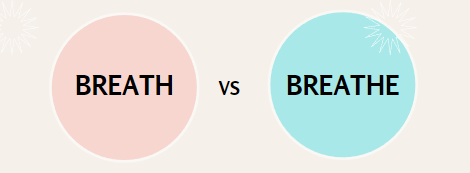
When to Use 'Breath' and When to Use 'Breathe'?
Navigating the nuances of 'breath' and 'breathe' can sometimes be confusing, but fear not! We're here to provide you with clear guidelines on when to use each word, ensuring your communication is always precise and accurate.
### **Using 'Breath':**
As a noun, 'breath' refers to the act or process of breathing, as well as a single inhalation or exhalation. It's important to remember that 'breath' is used to describe the concept or action of breathing itself.
Here are some examples:
1. _Take a deep breath before speaking in public._
2. _Hold your breath while diving underwater._
3. _He had bad breath after eating garlic._
In addition to these examples, there are also common idioms and phrases containing 'breath'. These phrases add depth and richness to your language while accurately conveying your intended meaning. Some examples include:
* _A breath of fresh air_ - meaning something new and refreshing
* _Out of breath_ - being physically exhausted after exercise
* _Bated breath_ - waiting anxiously for something
### **Using 'Breathe':**
As a verb, 'breathe' indicates the intentional action of inhaling and exhaling air. It's about actively taking in oxygen and releasing carbon dioxide from your lungs. By using 'breathe', you highlight the conscious act of inhaling and exhaling air for various purposes such as relaxation, rejuvenation, or simply improving your overall well-being.
Consider these examples:
1. _Take a moment to breathe deeply and relax._
2. _Breathe in the fresh air during your morning walk._
3. _He couldn't breathe properly due to his allergies._
Common idioms or phrases containing 'breathe':
* _Breathe down someone's neck_ - to closely monitor or supervise
* _Breathe new life into something_ - to revitalize or rejuvenate
* _Breathe easy_ - to feel relieved or relaxed
Understanding the difference between these two words will greatly enhance your ability to express yourself clearly. Remember, 'breath' is a noun describing the act or process of breathing, while 'breathe' is a verb representing the intentional inhaling and exhaling of air.
Translations in Indian Languages
--------------------------------
To help our Indian learners understand these words better, we have compiled translations and interpretations of 'breath' and 'breathe' in multiple Indian languages. Here are the translations in Hindi, Bengali, Telugu, Tamil, Gujarathi, Oriya, Assamese, and Urdu:
**Language**
**Breath**
**Breathe**
Hindi
सांस (saans)
साँस लेना (saans lena)
Bengali
শ্বাস (shwas)
শ্বাস নিতে (shwas nite)
Telugu
ఊపి తీయడం (oopi teeyadam)
ఊపి చేయు (oopi cheyu)
Tamil
மூச்சு (moochu)
மூச்சு எடுக்க (moochu edukka)
Gujarathi
સાંસ લેવી (saans levi)
સાંસ લેવું (saans levu)
Oriya
ସାଣି (sani)
ସାସ ନିଅନ (sasa nian)
Assamese
শ্বাস (shwas)
শ্বাস নিওঁ (shwas niom)
Urdu
سانس لینا (saans)
سانس لینا (saans lena)
Please note that these translations should be considered as guideposts and may vary in different regions or dialects.
To assist with pronunciation, we recommend using online resources such as Clapingo's pronunciation guides.
These guides can help you learn the correct phonetic representation of the translated words, making it easier for you to pronounce 'breath' and 'breathe' accurately in each language.
Now that you have the translations at your disposal, you can confidently express yourself in multiple Indian languages when discussing 'breath' and 'breathe'. Remember, clear communication is key, and understanding the nuances of words is a crucial step towards achieving fluency.
Winding Up
----------
Now that we have explored the nuances of "breath" and "breathe" for clear communication, let's recap the key points covered in this article.
First and foremost, it's important to understand the difference in meaning between "breath" and "breathe". "Breath" refers to the air we take in and release from our lungs, whereas "breathe" is the action of inhaling and exhaling that air.
Pronunciation plays a crucial role in distinguishing between these two words. While "breath" sounds like /brɛθ/, "breathe" is pronounced as /briːð/.
Now that we have reviewed these key points about breath and breathe, let us introduce you to Clapingo—an online English learning platform that offers comprehensive courses to improve your spoken and written English skills. With Clapingo, you can enhance your understanding of [grammar rules](https://clapingo.com/blog/learn-english-grammar-step-by-step), [vocabulary-building techniques](https://clapingo.com/blog/how-to-improve-vocabulary-in-english), [sentence formation strategies](https://clapingo.com/blog/sentence-formation-english), pronunciation exercises, and much more. By joining Clapingo's courses specifically designed for Indian learners like you, you can gain confidence in using English for professional and personal development.
To learn more about Clapingo's offerings or to enrol in a course today, visit their website at [www.clapingo.com](//www.clapingo.com).
FAQs
----
**1\. How to remember breathe vs breath?**
Remembering the difference between 'breathe' and 'breath' can be made easier by focusing on their roles in a sentence. Think of 'breathe' as an action that you do, while 'breath' refers to the air you take in or exhale.
**2\. How do you use breathe and breath in a sentence?**
To use these words correctly, let's look at some examples:
* Breathe: "Take a deep breath and slowly breathe out." Here, 'breathe' is used as a verb to describe the action of inhaling and exhaling.
* Breath: "Her breath caught in her throat as she saw the breathtaking view." In this sentence, 'breath' is used as a noun to refer to the air taken into the lungs.
**3\. Can 'breath' ever be used as a verb?**
While 'breath' is primarily used as a noun, there are instances where it can be used as a verb. However, it is less common and often considered archaic or poetic. For clear communication, it is recommended to use 'breathe' as the verb form.
**4\. What if I mistakenly use 'breathe' instead of 'breath', or vice versa?**
Don't worry! Mistakes happen, even for native English speakers. The important thing is to learn from them and correct them moving forward. In most cases, the listener or reader would be able to understand what you mean from context.
If you accidentally use 'breathe' instead of 'breath', or vice versa, simply take note of the correct usage and make a mental note to use it correctly in the future.
---
This blog is powered by Superblog. Visit https://superblog.ai to know more.
---
## Essential Language Guide: Distinguishing Brought from Bought Clearly
Author: Unknown
Published: 2023-11-29
Meta Title: Mastering the Meaning and usage of Brought vs Bought.
Meta Description: Confused between brought and bought? Discover the meanings, usage, pronunciation, and examples of brought and bought. Enhance your language skills today!
Tags: brought vs bought, Meaning of Brought vs Bought, brought vs bought difference
URL: https://clapingo.com/blog/brought-vs-bought
Contents
* [Brought vs Bought: A Common Confusion](#brought-vs-bought-a-common-confusion)
* [Understanding the Meaning of Brought and Bought](#understanding-the-meaning-of-brought-and-bought)
* [Some Usage Guidelines and Examples](#some-usage-guidelines-and-examples)
* [Pronunciation of Brought and Bought](#pronunciation-of-brought-and-bought)
* [How to Remember Brought and Bought?](#how-to-remember-brought-and-bought)
* [Brought vs Bought in Indian Languages](#brought-vs-bought-in-indian-languages)
* [Key Takeaways](#key-takeaways)
* [FAQs](#faqs)

Brought vs Bought: A Common Confusion
-------------------------------------
Picture this: You're at a restaurant, enjoying a delicious meal with your friends. Suddenly, one of your friends exclaims, "I brought this dessert for you!" Your other friends look around and wonder how your friend could have _brought_ the dessert when it was clearly _bought_ from the restaurant. Do you feel out of the loop? This scenario perfectly captures the common confusion between "brought" and "bought".
Understanding the difference between these similar-sounding words is crucial. So in this guide, we will help you clear all your confusion regarding the use of "brought" or "bought" with usage guidelines and examples. We will also discuss pronunciation tips that can help distinguish between these two words accurately.
So let's dive right in and master the meaning of brought and bought for clearer understanding!
Understanding the Meaning of Brought and Bought
-----------------------------------------------
In this section, we will explore the meanings of brought and bought individually and highlight how context plays a significant role in determining which word is appropriate. In simple terms, "brought" and "bought" are past tense forms of the verbs "to bring" and "to buy."
Brought refers to the action of carrying or conveying something or someone to a specific location. It implies that an object or person has been taken from one place to another. For example, if you say, "I brought my book to school," it means you carried it with you.
On the other hand, bought suggests the act of purchasing or acquiring something in exchange for money. It implies that an item has been obtained by paying for it. For instance, if you say, "I bought a new phone," it means you acquired it by exchanging money.
The context in which these words are used plays a significant role in determining which one is appropriate. It is essential to consider whether the action involves transporting something/someone or acquiring something through a transaction.
For further clarity, let's look at some usage guidelines and understand when to correctly use brought and bought using examples.

Some Usage Guidelines and Examples
Understanding when to use brought and when to use bought is essential for clear communication in spoken English. Using the correct word ensures that your message is conveyed accurately and avoids confusion. Here are some guidelines on how to use "brought" and bought with examples:
**Guidelines on when to use brought:**
When referring to the action of bringing something or someone
Examples:
* He brought his laptop to the meeting.
* She brought her favourite book to share with her friends.
In the context of bringing up a topic or introducing something
Example:
* She brought up an interesting point during the discussion.
**Guidelines on when to use bought:**
When referring to a purchase made in the past
Examples:
* They bought groceries from their favourite store.
* I bought a new dress for the party.
It can also be used metaphorically, indicating that someone has accepted or believed in an idea or concept.
Example:
* He bought into the idea of starting his own business.
Remember to pay attention to the context and the meaning you want to convey while choosing between brought and bought. Practice using these words in various sentences to strengthen your understanding and usage skills.
Pronunciation of Brought and Bought
-----------------------------------
Pronunciation plays a significant role in distinguishing between brought and bought. Let's delve into the phonetic transcriptions of these words.
Brought is pronounced as /brɔːt/, with a long /ɔː/ sound. Bought, on the other hand, is pronounced as /bɔːt/, with a short /ɔ/ sound.
It's worth noting that there are no regional variations in the pronunciation of these words in US, UK, and Indian English. The pronunciation remains consistent across all varieties.
To improve your pronunciation of brought and bought, here are some helpful tips:
**1\. Pay attention to the vowel sounds**: Apart from the obvious presence and absence of /r/ sound, the key difference lies in the length of the /ɔ/ sound. Practice pronouncing it correctly by focusing on the duration of the sound. Remember that brought has a longer /ɔː/ sound compared to bought's shorter /ɔ/ sound.
**2\. Listen to native speakers**: Immerse yourself in spoken English by listening to native speakers or watching English movies or TV shows. Pay close attention to how they pronounce brought and bought.
**3\. Mimic native speakers**: Practice pronouncing both words aloud after hearing them from native speakers. Mimicking their pronunciation will help you develop a more accurate understanding of how to differentiate between these two words.
Remember, mastering the correct pronunciation of brought and bought is crucial for effective communication in spoken English.
How to Remember Brought and Bought?
-----------------------------------
Remembering the differences between similar words can be a challenge, but with a few helpful techniques, you'll be able to distinguish between brought and bought effortlessly.
Follow these tips to keep these words straight in your mind:
**1\. Associate "bring" and "brought" with the common letter "r"**: One way to remember the meaning of brought is to associate it with the word bring. Both bring and brought have the letter "r" and share the same root word. Whenever you think of bring, remind yourself that brought is its past tense form.
**2\. Create mental associations using images:** Visualize a person carrying something when you think of brought. Picture someone bringing a gift or an object from one place to another. This visual representation will help solidify the meaning of brought in your mind.
**3\. Practice using brought and bought in sentences**: The more you practice using these words correctly, the easier it will be to remember their meanings. Start by writing simple sentences that incorporate brought and bought, such as "I brought my lunch today" or "He bought a new book." Gradually challenge yourself with more complex sentences like "She brought her expertise to the team meeting."
By employing these memory aids, you can confidently differentiate between brought and bought in spoken English.
Brought vs Bought in Indian Languages
-------------------------------------
Understanding the translations and interpretations of these words in your language can help you grasp their meaning more effectively. Let's explore how brought and bought are expressed in some of the top Indian languages:
### Language
### Translation of Brought
### Translation of Bought
Hindi
लाया
ख़रीदा
Tamil
கொண்டு வரப்பட்டது
வாங்கினார்
Bengali
আনা
কিনলেন
Marathi
आणले
विकत घेतले
Odiya
ଆଣିଲା |
କିଣିଛି
Understanding these translations can help you express yourself accurately while speaking. It's important to note that context plays a significant role in determining whether to use brought or bought, so make sure to pay attention to the situation at hand.
Key Takeaways
-------------
Now that we have covered the meaning, usage guidelines, and pronunciation tips of brought vs bought, let's recap the key points we have discussed so far.
Firstly, we clarified that brought refers to bringing or carrying something to a place, while bought means to purchase or acquire something by paying for it. Since context plays a crucial role in determining which word is appropriate we have provided detailed guidelines on when to use brought and bought.
Pronunciation also plays a significant role in distinguishing between these two words. Remember that the short /ɔ/ sound in brought is different from the long /ɔː/ sound in bought. Improving your pronunciation can enhance your overall [English speaking skills](https://clapingo.com/blog/how-improve-english-speaking-skills). We also provided translations of brought and bought in some Indian languages.
If you're looking to further enhance your English speaking skills, [Clapingo](https://clapingo.com/) is here to help! As a trusted platform for developing English speaking abilities among Indian learners, Clapingo offers comprehensive courses and individual coaching to help you improve your [spoken English fluency](https://clapingo.com/blog/how-improve-english-speaking-fluency).
So keep practising and never stop learning!
FAQs
----
**1\. Is purchased brought or bought?**
When you purchase something, you use the word "bought." For example, "I bought a new book yesterday." On the other hand, "brought" is used when you bring or carry something with you. So if you say, "I brought my laptop to work," it means you carried it with you.
**2\. What is the difference between bought and brought up?**
"Bought" refers to purchasing something, while "brought up" is used when discussing upbringing or raising someone or something. For instance, "My parents brought me up with strong values."
**3\. How do you use bought?**
"Bought" is the past tense of buy and should be used when referring to an action completed in the past. For example, "I bought a new laptop yesterday" and "She bought a beautiful dress for the party."
---
This blog is powered by Superblog. Visit https://superblog.ai to know more.
---
## Modal Verbs in Action : Can vs Could
Author: Unknown
Published: 2023-11-29
Meta Title: Can You vs Could You: Unlock the Power of Modal Verbs
Meta Description: Confused about when to use can or could? Learn the meaning of can and could, their pronunciation, examples and usage. Here is a perfect Clapingo guide!
Tags: can vs could difference, can vs could meaning, can vs could, can you vs could you
URL: https://clapingo.com/blog/can-vs-could
Contents
* [](#)
* [The Importance of Using Appropriate Language](#the-importance-of-using-appropriate-language)
* [Can vs Could: Meaning and Differences](#can-vs-could-meaning-and-differences)
* [Pronunciation of Can and Could Made Easy](#pronunciation-of-can-and-could-made-easy)
* [Can you vs Could you: Some Practical Examples](#can-you-vs-could-you-some-practical-examples)
* [Can and Could Across Languages](#can-and-could-across-languages)
* [Final Thoughts](#final-thoughts)
* [FAQs](#faqs)

The Importance of Using Appropriate Language
--------------------------------------------
Imagine you are at a restaurant, trying to order your food. Do you say 'Can I have the menu?' or 'Could I have the menu?' The choice of words might seem insignificant, but it can make a real difference in how you come across to others.
Using appropriate language is crucial in different situations as it helps convey your intentions and emotions effectively. Whether you want to request something politely, seek permission, express abilities, or talk about possibilities, choosing the right modal verb can make all the difference.
The aim of this article is to explore the meanings and differences between the modal verbs "can" and "could," discuss their pronunciation, provide practical examples for everyday situations, and examine how they are used differently across languages.
By understanding the nuances of using "can" and "could" correctly, you will be able to communicate more confidently in various scenarios. So let's dive into the world of these modal verbs and discover their power in action!
Can vs Could: Meaning and Differences
-------------------------------------
In this section, we will explore the meanings and differences between "can" and "could." As modal verbs, both "can" and "could" are used to express ability, permission, and possibility. However, there are subtle distinctions that set them apart.
Let's start by defining each word separately:
* Can: This modal verb is used to talk about general ability, permission, and possibility in present situations. For example:
* Ability: She can speak multiple languages fluently.
* Permission: Can I borrow your pen, please?
* Possibility: They can win the game if they play well.
* Could: Similar to "can," "could" also expresses ability, permission, and possibility but carries a more polite and tentative tone. It is commonly used when making requests or suggestions. For example:
* Polite request: Could you please pass me the salt?
* Tentative suggestion: We could go to the movies tonight.
Understanding the differences in usage between "can" and "could" is crucial for effective communication. Using "could" instead of "can" adds a polite touch to your language, making it ideal for formal or respectful situations.
The key differences between "can" and "could" are:
* **Politeness**: As mentioned, while both words can be used to make requests or seek permissions, using "could" imparts a greater sense of politeness.
* **Formality**: In formal situations or when speaking to someone of higher authority or respect, it's common to use "could." It helps maintain proper decorum.
* **Tentativeness**: "Could" also carries a sense of tentativeness or uncertainty, making it suitable for situations where you are suggesting or considering options.
In summary, "can" and "could" are both modal verbs used to express ability, permission, and possibility. Understanding when and how to use these words appropriately will greatly enhance your communication skills.
Pronunciation of Can and Could Made Easy
----------------------------------------
Mastering the correct pronunciation of words is essential for English learners, and this includes modal verbs like "can" and "could." To begin with, let's break down the pronunciation of "can" and "could" using phonetic symbols for better understanding:
**1\. Can**: /kæn/
* The vowel sound is represented by the symbol /æ/, which is the same as the 'a' sound in "cat."
**2\. Could**: /kʊd/
* The vowel sound is represented by the symbol /ʊ/, which is similar to the 'u' sound in "put."
It's worth mentioning that there are no regional variations in the pronunciation of can and could in US, UK, and Indian English. This means that regardless of where you are learning English from, you can follow the same pronunciation guidelines.
However, it's important to note that in fast speech, native speakers often contract these words. In fast speech, the vowel sounds in the middle of "can" and "could" may be shortened and become less distinct. Hence, in "can" the vowel /æ/ (as in "cat) will sound more like /ə/ (the "uh" sound as in the word "the"). Similarly, "could" which typically has the vowel sound /ʊ/ (as in "book") may undergo reduction and the vowel may be reduced to a shorter /ə/ sound in fast speech.
Now that we have the correct pronunciation, it's important to practice pronouncing and keep [listening](https://clapingo.com/blog/listening-skills-english) to ensure you're saying them accurately. You can find various audio resources online that provide examples of native speakers pronouncing these words.

Can you vs Could you: Some Practical Examples
Let's explore some practical examples of "can" and "could" to understand when to use them in everyday situations.
### Situation
### Appropriate Usage
Asking for help with a task
Can you help me carry these bags?
Requesting someone's assistance
Could you hold the door for me?
Ordering food at a restaurant
Can I have a glass of water, please?
Asking for directions
Could you tell me how to get to the nearest station?
Seeking permission from a teacher
Can I leave early today?
Requesting someone's opinion
Could you give me your thoughts on this matter?
Asking someone to repeat something
Can you say that again, please?
Inviting someone to an event
Could you join us for dinner tonight?
By practising these examples in various real-life situations, you will become more familiar with the appropriate usage of "can" and "could" when making requests. Remember, using the right language helps to create a positive and respectful environment in any conversation.
Can and Could Across Languages
------------------------------
In many Indian languages, such as Hindi, Kannada, Tamil, and Bengali, there are words for "can" and "could" with subtle differences. Let's take a closer look at some of these translations:
### Language
### Translation of Can
### Translation of Could
[Hindi](https://clapingo.com/blog/english-kaise-sikhe)
सकना
सकते थे
Kannada
ಮಾಡಲು ಸಾಧ್ಯ
ಮಾಡಬೇಕೆ
Tamil
முடியும்
செய்ய முடித்தேன்
Bengali
করতে পারা
পারে
As we can see, the translations of "can" and "could" mostly convey similar meanings and serve the same purpose in Indian languages. By understanding how different languages express these modal verbs, we can gain insights into the nuances of communication across cultures. It helps us appreciate the diversity of languages and allows us to navigate conversations more effectively.
Final Thoughts
--------------
Now that we have explored the meanings, differences, usage, and pronunciations of "can" and "could," let's recap the key points covered in this article.
We started off by discussing the importance of using appropriate language in different situations. Whether you are making a request, seeking permission, or talking about abilities and possibilities, choosing the right modal verb can make a significant difference in how your message is perceived.
We delved into the meanings of "can" and "could", highlighting how "can" is used for ability, permission, and possibility in present situations while "could" carries a more polite and tentative tone. To ensure correct pronunciation, we provided a simple guide along with phonetic symbols. Remember to keep practising to improve your pronunciation skills. We also explored how different Indian languages express similar meanings to "can" and "could."
In conclusion, using modal verbs correctly is essential for effective communication. Remembering the differences between "can" and "could" will help you convey your message accurately while maintaining politeness. If you want to further improve your English language skills on topics like this one or others related to speaking and writing, do check out [Clapingo](https://clapingo.com/). It's a reliable platform that caters specifically to Indian learners, providing resources and guidance to enhance your English proficiency.
FAQs
----
**1) When to use 'can' and 'could'?**
Both "can" and "could" can be used to talk about ability, permission, and possibility. However, "can" is commonly used in present situations while "could" carries a more polite and tentative tone.
**2) Should I use 'could' or 'can'?**
The choice between "could" and "can" depends on the context and the level of politeness you want to convey. If you want to sound more polite or tentative, it is better to use "could."
**3) Can you use 'could' in the future tense?**
Yes, you can use "could" in the future tense when expressing possibilities or making requests politely. For example, "Could you help me tomorrow?" implies a request for assistance in the future.
---
This blog is powered by Superblog. Visit https://superblog.ai to know more.
---
## The Spelling Debate : Canceled or Cancelled ?
Author: Unknown
Published: 2023-11-29
Meta Title: Decoding the Spelling Dilemma: Canceled or Cancelled?
Meta Description: Confused about the correct spelling? Discover the meaning, difference, tips, and usage of canceled vs cancelled in this engaging English language article.
Tags: canceled or cancelled, Canceled vs Cancelled Meaning
URL: https://clapingo.com/blog/canceled-vs-cancelled
Contents
* [Canceled vs Cancelled Meaning Explained](#canceled-vs-cancelled-meaning-explained)
* [Usage Guidelines for Canceled vs Cancelled](#usage-guidelines-for-canceled-vs-cancelled)
* [Empower Yourself with the Correct Spelling!](#empower-yourself-with-the-correct-spelling)
* [FAQs](#faqs)
* [To summarize:](#to-summarize)
* [You may want to read](#you-may-want-to-read)

Have you ever wondered why the English language has so many confusing spellings? From silent letters to irregular plurals, English has a way of keeping us on our toes. One particular spelling debate that often leaves people scratching their heads is the use of "canceled" or "cancelled."
But first, let's dive into some interesting trivia about the English language and its spellings. Did you know that English is one of the most widely spoken languages in the world, with over 1.5 billion speakers? It's also a mishmash of different languages, taking influences from Latin, French, Germanic languages, and more. This rich history is one reason why English has such diverse and sometimes perplexing spelling patterns.
Now, have you ever wondered which spelling is correct - canceled or cancelled? Does it really matter which one you use? Why are there two different spellings for the same word anyway? We understand your confusion!
Both spellings are considered correct within their respective dialects. You might be wondering which one to choose if you're not sure which dialect you're writing in.
In this article, we will discuss the meaning and usage of both "canceled" and "cancelled," delve into their meaning, provide examples to illustrate their usage in sentences, and offer guidance on when to use each spelling based on where you are writing.
So let's dive right in and start unravelling this intriguing spelling debate! And first things first, let's understand the meaning and usage of "canceled" and "cancelled."
Canceled vs Cancelled Meaning Explained
---------------------------------------
Let's dive into the canceled vs cancelled meaning and understand their usage in American and British English.
Canceled and cancelled are both past tense forms of the verb "cancel". They mean the same thing – to call off, annul, or revoke something. The only difference lies in their spelling.
In American English, "canceled" is the preferred spelling. It follows the typical American convention of dropping one letter before adding a suffix (such as -ed). For example:
* _I canceled my flight last week._
On the other hand, British English favours the spelling "cancelled." This is because British English tends to retain the double consonant when adding a suffix. For instance:
* _The event was cancelled at the last minute._
Here's a table summarizing the differences between "canceled" and "cancelled":
**American English**
**British English**
Spelling
Canceled
Cancelled
Usage
Preferred
Preferred
Consonants
One
Two
As you can see from this table, while both spellings are correct, they simply reflect regional preferences. So, whether you use "canceled" or "cancelled," it's important to be consistent within your own style guide or context.
To recap, both "canceled" and "cancelled" have the same meaning - they represent an action that has been called off or revoked. The difference lies in their spellings based on regional variations in American and British English.

Usage Guidelines for Canceled vs Cancelled
To ensure that you are using the correct spelling of "canceled" or "cancelled," it's important to follow these usage guidelines:
1\. Use "canceled" when writing in American English. In American English, the preferred spelling is "canceled." For example:
* _The match has been canceled due to bad weather._
* _She canceled her flight and booked a new one._
2\. Use "cancelled" when writing in British English or adhering to UK conventions. In British English, the preferred spelling is "cancelled." Here are a few examples:
* _The concert has been cancelled because of a scheduling conflict._
* _He cancelled his hotel reservation and decided to stay with friends instead._
3\. Maintain consistency within your writing. Whether you choose to use "canceled" or "cancelled," it's crucial to maintain consistency throughout your piece of writing. This ensures clarity for your readers and avoids confusion. If you are unsure which spelling is appropriate for your audience, it's always safe to use the spelling that aligns with their regional preferences.
By following these simple guidelines, you can confidently navigate the canceled vs cancelled debate and use the appropriate spelling according to your intended audience.
Remember, understanding the differences between American and British spellings is key to making an informed choice when writing in English. Here's an article from Oxford International English that may be useful.
For more language learning resources and tips on perfecting your sentence formation in English, visit [Clapingo's YouTube channel](https://www.youtube.com/@Clapingo/featured).
Empower Yourself with the Correct Spelling!
-------------------------------------------
When it comes to the spelling debate of "canceled" or "cancelled," it's important to empower yourself with the correct usage. Let's summarize the key points discussed throughout this article.
Firstly, both spellings are acceptable, but they differ based on geographical location. British English predominantly uses "cancelled" with two l's, while American English commonly uses "canceled" with one l.
To ensure you are using the appropriate spelling, consider your context and audience. If you are writing for a British audience or following British English standards, opt for "cancelled." On the other hand, if you are targeting an American audience or adhering to American English conventions, choose "canceled." Stick to one spelling throughout your document or piece of writing unless there are specific reasons for using both spellings.
If you're looking to enhance your English language skills further, [Clapingo](https://clapingo.com/) is an excellent online learning platform dedicated to helping Indian learners improve their spoken English and elocution abilities. With expert instructors and tailor-made courses designed specifically for Indian learners, Clapingo offers a unique opportunity to develop fluency and confidence in spoken English.
Whether you want to [communicate effectively in everyday life situations](https://clapingo.com/product/daily-english-speaking/) or [improve your pronunciation](https://clapingo.com/product/english-pronunciation-practice/), Clapingo has a range of courses and resources catered specifically to meet your needs.
FAQs
----
**1\. Canceled vs Cancelled: Which is correct?**
Both spellings are technically correct, but it depends on where you are from. In American English, "canceled" with one "L" is the preferred spelling, while in British English, "cancelled" with two "Ls" is more commonly used. So, if you want to sound more American, go with "canceled." On the other hand, if your preference leans towards British English, opt for "cancelled."
**2\. How do you spell 'cancelled' in Australia?**
In Australia, British English conventions are followed, so the preferred spelling would be "cancelled."
**3\. Is it 'cancelled' or 'canceled' in the UK?**
As mentioned earlier, in the UK and other Commonwealth countries like Canada and New Zealand, the two-"L" spelling of "cancelled" is widely accepted and considered standard.
**4\. Is it 'cancelled' or 'canceled' in Canada?**
Similar to the UK and other Commonwealth countries, Canadians also use the British spelling of "cancelled."
### To summarize:
**Country**
**Preferred Spelling**
USA
canceled
UK
cancelled
Australia
cancelled
Canada
cancelled
You may want to read
-----------------------
[Can listening to songs help you improve your Spoken English?](https://clapingo.com/blog/can-listening-to-songs-help-you-improve-your-spoken-english-ckxga26vi03801jp75te3i8hx)
---
This blog is powered by Superblog. Visit https://superblog.ai to know more.
---
## Mastering Language Choices : Center and Centre Unveiled
Author: Unknown
Published: 2023-11-29
Meta Title: Mastering Language Choices: Decoding Center vs Centre
Meta Description: Confused about when to use "center" or "centre"? Unveil the secrets of English language usage in this Clapingo article. Improve your English skills today!
Tags: center vs centre difference, Center vs Centre, Meaning of Center and Centre
URL: https://clapingo.com/blog/center-vs-centre
Contents
* [What do 'Center' and 'Centre' Mean?](#what-do-center-and-centre-mean)
* [1\. Nouns:](#1-nouns)
* [2\. Adjectives:](#2-adjectives)
* [3\. Verbs:](#3-verbs)
* [Is There a Difference Between 'Center' and 'Centre'?](#is-there-a-difference-between-center-and-centre)
* [Which Spelling Should You Use?](#which-spelling-should-you-use)
* [Embrace Correct Language Usage](#embrace-correct-language-usage)
* [FAQs](#faqs)
* [You may want to read](#you-may-want-to-read)

Language is a powerful tool that allows us to communicate our thoughts, ideas, and emotions. As English learners, it's important for us to not only expand our vocabulary but also master the nuances of language choices. One such confusion that often arises is the usage of "center" and "centre."
Have you ever wondered why some people spell it as "center" while others prefer "centre"? This small difference in spelling can lead to confusion and uncertainty. But fear not! We are here to help unravel the mystery behind these two variations.
Correct language usage is vital in written and spoken English. Imagine reading an article or listening to a speaker who constantly uses incorrect grammar or misspells words—it can be distracting and diminish your confidence in their credibility. On the other hand, when someone communicates with precision and clarity, it leaves a lasting impression, making you more likely to trust their knowledge and expertise.
By understanding the meanings and usage of these words, you can confidently express yourself in both written and spoken forms. So let's dive deeper into the world of center vs centre together and enhance our language skills step by step.
What do 'Center' and 'Centre' Mean?
-----------------------------------
The two words may look similar, but they have slight variations in meaning depending on which version of English you are using. In British UK English, both "center" and "centre" refer to a central point or location. Let's explore the center vs centre meanings and usage in more detail.
In terms of their definition, both "center" and "centre" can be used as nouns, adjectives, and verbs. They generally refer to a place or position that is at the middle or heart of something.
For example, you might say, "_The shopping center is located in the centre of town_," or "_The hotel has a fitness center with state-of-the-art equipment._" Both words can also be used to describe an action that involves bringing things together or focusing on a particular point.
To illustrate their usage as nouns, adjectives, and verbs, let's take a closer look:
### **1\. Nouns:**
* Center: The specific place that serves as the focus or central point. For example: _The community center is where people gather for various activities._
* Centre: The same meaning as "center," but spelled in British UK English. For instance: _The shopping centre has a wide variety of stores._
### **2\. Adjectives:**
* Centered: Having a balanced or centered position. Example sentence: _She took a deep breath to stay centered during the yoga class._
* Centred: The British UK English spelling for "centered." Usage example: _Her artwork was well-balanced and centred on the canvas._
### **3\. Verbs:**
* To center: The act of placing something in the middle or focusing attention on it. Example sentence: _The teacher asked us to center our thoughts before starting the meditation exercise._
* To centre: The equivalent action as "to center," but spelled in British UK English. For instance: _He carefully centred the vase on the table._
As you can see, both "center" and "centre" have similar meanings and can be used interchangeably, depending on whether you are using American or British UK English. They both refer to a central point or location that holds significance within a certain context.
Now that you understand the meaning of these words, you can confidently use them in your conversations and writing. Remember to pay attention to which version of English you are using and practice incorporating them appropriately.
Stay tuned for our next section, where we will delve into the differences between American and British UK English spellings as far as "center" or "centre" are concerned.
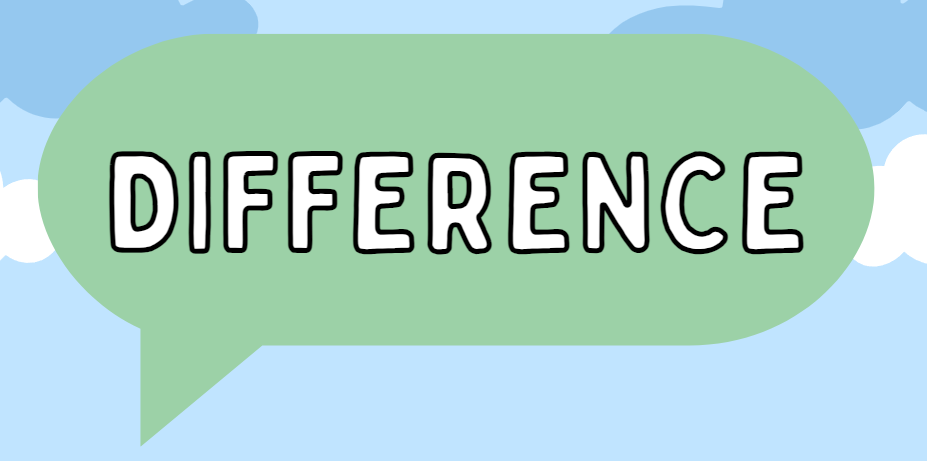
Is There a Difference Between 'Center' and 'Centre'?
When it comes to spelling, the English language can be quite tricky. One common dilemma that English learners often face is whether to use "center" or "centre". Let's delve into this issue and uncover the differences between the two spellings.
In different English-speaking regions, spelling preferences can vary significantly. To make it easier for you, here's a table summarizing the preferred spellings in the United States, United Kingdom, and India:
**Region**
**Preferred Spelling**
United States
center
United Kingdom
centre
India
centre
As we can see, "center" is the preferred spelling in American English, while "centre" is predominantly used in British UK English and Indian English. This regional variation in spelling often confuses learners, but understanding these nuances will help you communicate effectively across different contexts.
Let's take a look at some examples showcasing these regional variations:
1\. In American English:
* _The shopping center is bustling with activity._
* _Please meet me at the conference center._
2\. In British UK English:
* _She frequents the town centre for her grocery shopping._
* _The hotel has a beautiful garden at its centre._
3\. In Indian English:
* _The Cultural Centre hosts various events throughout the year._
* _The city centre is known for its vibrant nightlife._
By familiarizing yourself with these regional spelling preferences, you'll be able to choose the appropriate spelling based on your audience or context. Remember, mastering such language choices will contribute to your overall fluency and confidence in English communication.
Which Spelling Should You Use?
------------------------------
Now that you understand the difference between "center" and "centre," you may be wondering which one to use in your writing. Here are some guidelines to help you make the right choice:
1. **Consider your audience:**
If you are writing for an international audience or following British UK English norms, it is generally recommended to use "centre." This spelling is commonly used in British English and in many other countries that follow British conventions. Using "centre" will ensure consistency and familiarity for readers who are accustomed to this spelling.
1. **Follow prescribed style guides:**
In certain contexts, such as academic writing or official documents, it's important to adhere to prescribed style guides or organizational preferences. Some institutions may have specific guidelines regarding spelling choices, so it's crucial to consult these resources before making a decision. For example, if you are writing a research paper for a university that follows British English conventions, you should use the spelling "centre" as per their guidelines.
It'll be beneficial for you to check The Chicago Manual of Style or The Oxford University Style Guide depending on your audience and region.
1. **Use online tools for assistance:**
If you are still unsure about which spelling to use, there are online tools available that can help you check for correct spellings and provide guidance on language choices. Tools like Grammarly can detect inconsistencies in your writing and suggest alternative spellings based on the context. Utilizing such resources can help you ensure accuracy in your language usage.
By considering your audience, consulting appropriate style guides, and using online tools, you can confidently choose between "center" and "centre" based on the specific requirements of your writing task.
Embrace Correct Language Usage
------------------------------
Now that you have learned about the differences between "center" and "centre," it's time to put your knowledge into practice and embrace correct language usage. Here's a recap of the key points from the article:
"Center" is the American spelling, while "centre" is the British spelling. Both words have the same meaning, referring to a place or location that is the focal point or middle point of something. It's important to be consistent in your spelling choice, especially in formal writing or when communicating with British English speakers. Familiarize yourself with other commonly misspelt words in American and British English to avoid making mistakes.
To continue practising your English skills and further enhance your language proficiency, explore platforms like [Clapingo](https://clapingo.com/).
Clapingo offers a wide range of resources and interactive exercises tailored specifically for Indian learners. Through their user-friendly interface, you can access various modules on grammar, vocabulary, pronunciation, and more. Additionally, Clapingo offers live sessions with experienced tutors who can guide you through spoken English practice sessions and elocution training.
By utilizing platforms like Clapingo, you can [practice everyday English conversation](https://clapingo.com/product/english-conversation-practice/)s or even [prepare for IELTS](https://clapingo.com/ielts) from the comfort of your home!
FAQs
----
**1\. Is it "center" or "centre" in India?**
In India, both spellings "center" and "centre" are used interchangeably. However, it's important to note that "centre" is the preferred spelling according to British UK English conventions, which are followed in India.
**2\. What is the meaning of "center" and "centre"?**
The words "center" and "centre" have the same meaning - the middle point of something or a place where activities revolve around. Whether you write "center" or "centre", it refers to the same concept.
**3\. When did "centre" become "center"?**
The shift from using the spelling "centre" to "center" occurred during the 19th century in America as part of Noah Webster's efforts to standardise American English spellings. This change was not adopted universally, with British UK English continuing to use the spelling "centre".
**4\. Is it acceptable to use both spellings interchangeably?**
Yes, it is acceptable to use both spellings interchangeably depending on your context and audience. If you're writing for an Indian audience or following British UK English conventions, using "centre" would be more appropriate. However, if you're targeting an American audience or following American English conventions, using "center" would be preferred.
You may want to read
--------------------
[How to Improve Vocabulary in English Online at Home](https://clapingo.com/blog/how-to-improve-vocabulary-in-english)
---
This blog is powered by Superblog. Visit https://superblog.ai to know more.
---
## Emigration Vs Immigration : Key Differences and Implications
Author: Unknown
Published: 2023-11-29
Meta Title: Emigration Vs Immigration: Understanding Key Differences
Meta Description: Discover essential disparities between emigration and immigration in this engaging English learning article. Expand your English language skills today!
Tags: Emigration Vs Immigration, Emigration Meaning, Immigration Meaning
URL: https://clapingo.com/blog/emigration-vs-immigration
Contents
* [Differentiating the Migrations](#differentiating-the-migrations)
* [Emigration vs Immigration: Meaning Explained](#emigration-vs-immigration-meaning-explained)
* [Pronouncing "Emigration" and "Immigration" Perfectly](#pronouncing-emigration-and-immigration-perfectly)
* [Emigration vs Immigration in Indian Languages](#emigration-vs-immigration-in-indian-languages)
* [Sorting Out Migration Terms! Migrate, Immigrate, Emigrate...](#sorting-out-migration-terms-migrate-immigrate-emigrate)
* [1\. Clarification of terms: migrate, immigrate, emigrate](#1-clarification-of-terms-migrate-immigrate-emigrate)
* [2\. They are often used interchangeably](#2-they-are-often-used-interchangeably)
* [3\. Tips for distinguishing between the three in spoken English](#3-tips-for-distinguishing-between-the-three-in-spoken-english)
* [4\. Some mnemonic devices and memory tricks](#4-some-mnemonic-devices-and-memory-tricks)
* [Summing Up](#summing-up)
* [FAQs](#faqs)
* [You may want to read](#you-may-want-to-read)

Differentiating the Migrations
------------------------------
Picture this: you're at a family gathering, and the topic of emigration and immigration comes up. Everyone seems to have an opinion, but do you really know the difference? The ability to differentiate between these two terms is crucial as they play a significant role in shaping our world today.
Emigration and immigration are both variations that have developed from the broader concept of migration. But what sets emigration apart from immigration? And why is it important to understand their distinctions? These questions are worth pondering upon.
Throughout history, emigration and immigration have shaped societies, economies, and ecosystems in profound ways. By understanding their meaning and implications, we can appreciate the impact they have on our lives.
In the next sections, we will delve deeper into the migration vs immigration definition, explore their significance within ecology and biology, and uncover the key differences between these two concepts. Let's embark on this enlightening journey together!
Emigration vs Immigration: Meaning Explained
--------------------------------------------
Emigration and immigration are terms that we often come across when discussing the movement of individuals from one country to another. Let's dive into the meaning of these terms and understand their implications.
Emigration, in simple terms, refers to the act of leaving one's home country to settle in another place. This involves individuals moving away from their homeland, often seeking better opportunities or a lifestyle change. It is important to note that emigration is a noun derived from the verb "emigrate" and the adjective "emigrant."
On the other hand, immigration entails individuals arriving in a foreign country with the intention of settling down. It is the opposite of emigration, where people leave their home country to become residents in a new nation. Like emigration, immigration is also a noun form derived from the verb "immigrate" and the adjective "immigrant."
Here are some key differences between emigration and immigration:
**Emigration**
**Immigration**
1) Individuals leaving their home country
1) Individuals arriving in a foreign country
2) Involves relocating permanently
2) Involves settling down permanently
3) People often emigrate for better job prospects, education opportunities, or for personal reasons.
3) People immigrate for various reasons such as employment, education, family reunification, or seeking refuge.
4) Emigrants are those who leave their home country.
4) Immigrants are those who enter and settle in a new country.
Now let's explore how ecological factors influence both emigration and immigration patterns. In ecology, these movements are not limited to human populations but also observed among animals and plants.
Ecological factors such as food availability, climate change, habitat degradation, and population density play crucial roles in driving both emigration and immigration patterns. For example:
* Animals may emigrate from an area with limited resources to seek better feeding grounds.
* Birds may immigrate to a different region to escape harsh winters and find suitable nesting habitats.
These ecological dynamics impact the movement of species, leading to population shifts and changes in ecosystems over time. Understanding emigration and immigration patterns can help scientists monitor and manage ecological systems effectively.
In short, emigration and immigration are two sides of the same coin, representing people moving away from or arriving in a new country. While emigration involves leaving one's home country, immigration entails settling down in a foreign land. Ecological factors also influence both movements, shaping the dynamics of populations and ecosystems.

Pronouncing "Emigration" and "Immigration" Perfectly
Pronouncing words correctly is essential for effective communication. Let's dive into the correct pronunciation of the words "emigration" and "immigration" in US, UK, and Indian English.
In both US and UK English, the stress is placed on the second syllable in both words. However, there is a slight difference in the vowel sound.
**In US English:**
1\. Emigration: e-mi-GRAY-shun
2\. Immigration: i-mi-GRAY-shun
**In UK English:**
1\. Emigration: e-MI-gray-shun
2\. Immigration: i-MI-gray-shun
It's important to note that in Indian English, the pronunciation may vary slightly due to regional accents and influences from local languages.
Here are the correct pronunciations of emigration and immigration in Indian English:
1\. Emigration: em-i-GREY-shuhn
2\. Immigration: im-i-GREY-shuhn
To help you practice these pronunciations, here are audio clips of each word pronounced in US and UK English from the Cambridge Dictionary's site:
* Emigration: \[[audio clip](https://dictionary.cambridge.org/pronunciation/english/emigration)\]
* Immigration: \[[audio clip](https://dictionary.cambridge.org/pronunciation/english/immigration)\]
By mastering these pronunciations, you'll be able to express yourself clearly and confidently when discussing emigration vs immigration meaning, ecology, or biology.
Remember to practice regularly by listening to native speakers or using resources like Clapingo's website and [YouTube channel](https://www.youtube.com/watch?v=7Rt0yVm7QXs) to improve your pronunciation skills.
Emigration vs Immigration in Indian Languages
---------------------------------------------
In India, a land of diverse cultures and languages, it's fascinating to explore how different Indian languages define and interpret the concepts of emigration and immigration. Let's take a look at some popular Indian languages and their translations for these terms:
**Language**
**Emigration**
**Immigration**
Hindi
प्रवास (Pravas)
प्रवासन (Pravasan)
Tamil
வெளிநாடு செல்லுதல் (Veḷināṭu Cellutal)
வேலை செல்லுதல் (Vēlai Cellutal)
Bengali
প্রবাসন (Praban)
অবাসন (Abasan)
Telugu
విదేశం ప్రవేశం (Vidēśaṁ Pravēśaṁ)
అభ్యాస ప్రవేశం (Abhyāsa Pravēśaṁ)
Kannada
ಪ್ರವಾಸ (Pravāsa)
ಅನುಮತಿ (Anumati)
These linguistic differences demonstrate how Indian languages approach and interpret the concepts of emigration and immigration. Understanding these nuances enhances our appreciation of language diversity across India.
Sorting Out Migration Terms! Migrate, Immigrate, Emigrate...
------------------------------------------------------------
Migration terms can often cause confusion, with words like migrate, immigrate, and emigrate being used interchangeably. But fear not! In this section, we will break down the differences between these terms and provide you with helpful tips to easily distinguish between them in spoken English.
### 1\. Clarification of terms: migrate, immigrate, emigrate
Let's start by clarifying the definitions of each term:
* **Migrate:** This term refers to the movement of people or animals from one place to another. It can be used both for short-term movements (such as seasonal migrations of birds) and long-term movements (such as humans moving to a different country).
* **Immigrate:** This term specifically relates to individuals moving into a new country with the intention of settling there permanently. When someone says they are immigrating, it means they are relocating to a different country as their new home.
* **Emigrate**: On the other hand, emigration refers to leaving one's home country or region to settle in another. When someone says they are emigrating, it means they are leaving their current country or region behind.
### 2\. They are often used interchangeably
While these terms have distinct meanings, they are frequently used interchangeably due to their similarities in indicating movement across borders. In everyday conversations, people might say "_I'm migrating_" when they mean "_I'm immigrating_" or "_I'm emigrating._"
This interchangeable usage can lead to confusion and misunderstandings.
### 3\. Tips for distinguishing between the three in spoken English
To help you distinguish between these terms in spoken English, here are some tips:
* Remember that "migrate" is a broad term that can refer to any kind of movement from one place to another.
* When someone is moving permanently into a new country or region as their new home, they are "immigrating." Think of the "i" in "immigrate" as representing "into."
* Conversely, when someone is leaving their current country or region to settle elsewhere, they are "emigrating." Think of the "e" in "emigrate" as representing "exit."
### 4\. Some mnemonic devices and memory tricks
To make it even easier to remember the differences between these terms, here are some mnemonic devices:
* Migrate: Think of birds migrating from one place to another during certain seasons.
* Immigrate: Imagine a person carrying a suitcase with an immigration stamp on it, symbolizing their intention to settle permanently in a new country.
* Emigrate: Visualize someone waving goodbye with an exit sign behind them, representing their departure from their home country or region.
By using these mnemonic devices and memory tricks, you can easily recall the meanings of migrate, immigrate, and emigrate in any conversation.
Summing Up
----------
So, let's recap the key takeaways from this article about emigration vs immigration and their implications.
Emigration refers to the act of leaving one's own country to settle permanently in another country. On the other hand, immigration is the process of entering and establishing oneself in a foreign country. Emigration and immigration have different meanings, but they both involve movement across borders in search of better opportunities, improved living conditions, or to escape unfavourable circumstances.
Emigration can have significant ecological implications as it can lead to a loss of intellectual resources, hindering economic growth and development in the home country. Immigration, on the other hand, has positive implications for the receiving country as it brings diverse perspectives, talents, and skills that contribute to cultural enrichment and economic growth.
Now that you have a better understanding of emigration vs immigration meaning, examples well as the emigration vs immigration biology significance, you may be wondering how you can improve your English language skills further.
[Clapingo](https://clapingo.com/) is an online platform that provides comprehensive support for English language learning. Whether you want to learn perfect sentence formation in English online or improve your speaking skills through [engaging conversations with native speakers](https://clapingo.com/product/english-conversation-practice/), Clapingo offers various courses and resources tailored to your needs.
By joining Clapingo's community of learners, you'll have access to expert English teachers who will guide you every step of the way towards fluency. So why wait? Start your journey towards mastering English today with Clapingo!
FAQs
----
**1.What is the difference between immigration and emigration with an example?**
Emigration refers to the act of leaving one's own country to settle permanently in another country. On the other hand, immigration is when individuals move into a foreign country with the intention of residing there permanently. The main difference lies in the perspective - emigration focuses on leaving one's home country, while immigration centres around entering a new country.
For example, if someone from India decides to move to the United States for permanent residency, they are considered an immigrant to the US. However, from an Indian perspective, they would be viewed as an emigrant as they are leaving their home country.
**2\. Who are called immigrants?**
Immigrants are individuals who have relocated from their home country to another country intending to settle there permanently. They may move for various reasons such as seeking better economic opportunities, reuniting with family members already residing in the new country, or escaping political unrest or social issues in their home country.
**3.What is an example of immigration?**
An example of immigration can be seen when someone moves from Mexico to Canada for permanent residency. In this case, the individual would be considered an immigrant in Canada. They have left their home country (Mexico) and entered a new country (Canada) intending to settle there permanently.
**4\. Can you provide more examples of emigration and immigration?**
Here are additional example sentences using emigration and immigration.
* **Emigration:**
1\. _Many people from rural areas choose emigration to urban centres for better job prospects._
2\. _The economic downturn led to a significant increase in emigration rates._
* **Immigration:**
1\. _Canada has implemented various programs to attract skilled immigrants._
2\. _The United Kingdom experiences high levels of immigration due to its strong economy._
You may want to read
--------------------
[Learn English Grammar Step By Step: Your Comprehensive Guide](https://clapingo.com/blog/learn-english-grammar-step-by-step)
_
_
---
This blog is powered by Superblog. Visit https://superblog.ai to know more.
---
## Enquiry vs Inquiry: The Quest for Clarity in Questioning
Author: Unknown
Published: 2023-11-29
Meta Title: Unlocking the Clarity: Enquiry vs Inquiry in Questioning
Meta Description: Discover the distinction and meaning between enquiry and inquiry for clear communication. Master the art of asking questions with precision in English.
Tags: Enquiry vs Inquiry, Meaning of Enquiry and Inquiry, Enquiry vs Inquiry difference, Enquiry vs Inquiry meaning
URL: https://clapingo.com/blog/enquiry-vs-inquiry

Contents
* [](#)
* [Enquiry vs. Inquiry: Unlocking Clarity in Questioning](#enquiry-vs-inquiry-unlocking-clarity-in-questioning)
* [Enquiry vs Inquiry Meaning Explained](#enquiry-vs-inquiry-meaning-explained)
* [1\. Definitions of enquiry and inquiry:](#1-definitions-of-enquiry-and-inquiry)
* [2\. Usage in formal and informal contexts:](#2-usage-in-formal-and-informal-contexts)
* [3\. Cultural and legal differences in usage (Enquiry vs Inquiry in India):](#3-cultural-and-legal-differences-in-usage-enquiry-vs-inquiry-in-india)
* [4\. Similarities between enquiry and inquiry:](#4-similarities-between-enquiry-and-inquiry)
* [Enquiry vs Inquiry in UK and Indian English - The Preferred Usage](#enquiry-vs-inquiry-in-uk-and-indian-english-the-preferred-usage)
* [1\. Usage guidelines for enquiry in UK and Indian English:](#1-usage-guidelines-for-enquiry-in-uk-and-indian-english)
* [2\. Situations where inquiry is used more frequently in UK and Indian English:](#2-situations-where-inquiry-is-used-more-frequently-in-uk-and-indian-english)
* [Summing Up](#summing-up)
* [FAQs](#faqs)
* [You may want to read](#you-may-want-to-read)
Enquiry vs. Inquiry: Unlocking Clarity in Questioning
-----------------------------------------------------
Welcome to the exciting world of English language learning, where every word counts! Whether you're aiming to ace a job interview, deliver a persuasive presentation, or simply impress your friends with your eloquence, using the correct vocabulary is essential in both written and spoken English.
So let's dive right into the topic of enquiry vs inquiry. This is an area that even native speakers sometimes struggle with, so you're not alone! In this article, we'll discuss the subtle differences between these two words and help you use them confidently and appropriately.
To illustrate their usage, let's imagine a relatable scenario: You are walking into a store and want to ask about the availability of a product. Should you say "_Can I make an enquiry about this item?_" or "_Can I make an inquiry about this item_?" The difference may seem small, but it can impact how your question is perceived.
Enquiry (UK spelling) and inquiry (US spelling) are often used interchangeably. However, there is a slight distinction in meaning and usage. Understanding these nuances can make a significant difference in how effectively your questions are understood and answered.
So let's embark on this clarifying journey together as we explore the world of enquiry vs inquiry!

Enquiry vs Inquiry Meaning Explained
Enquiry and inquiry are two words that often confuse English learners, especially when it comes to understanding their meanings and usage. In this section, we will explore the definitions of enquiry and inquiry, discuss their usage in different contexts, highlight cultural and legal differences in their usage (specifically in India), and identify the similarities between them.
### 1\. Definitions of enquiry and inquiry:
Enquiry refers to the act of seeking information or clarification by asking questions. It is commonly used as a noun in British English. For example, _I sent an enquiry to the customer service department regarding my order._
On the other hand, inquiry is also used to refer to seeking information or investigation but is more commonly used in American English. It can be used as both a noun and a verb. For instance, _The police conducted an inquiry into the matter._" or "_She inquired about the availability of tickets for the concert._
### 2\. Usage in formal and informal contexts:
Both enquiry and inquiry can be used in both formal and informal contexts. However, enquiry is generally considered more formal than inquiry.
* In formal contexts such as business emails or official letters, it's common to use enquiry when requesting information or making inquiries about a particular topic. For example, _I am writing to make an enquiry about your language courses._
* In informal contexts such as casual conversations or personal emails, either term can be used interchangeably based on personal preference or regional conventions.
### 3\. Cultural and legal differences in usage (Enquiry vs Inquiry in India):
In India, there are cultural and legal differences that influence the preferred usage of enquiry versus inquiry.
Culturally, British English has had a significant impact on Indian English due to historical colonial ties. As a result, there is a greater tendency to use enquiry in official or formal settings.
Legally, Indian law uses the term "enquiry" specifically for a formal investigation conducted by authorities. For example, an "enquiry committee" is set up to investigate a matter of public interest. In this context, the term inquiry is not commonly used.
### 4\. Similarities between enquiry and inquiry:
Despite their differences, enquiry and inquiry share similarities in terms of their meaning and purpose. Both words are used to express the act of seeking information or clarification through questioning.
Additionally, both terms can be used in various contexts, including academic research, customer service interactions, legal proceedings, or personal inquiries.
In summary, while there are subtle differences between enquiry and inquiry in terms of their usage and cultural implications, they share a common goal - to seek information or clarification. Whether you choose to use enquiry or inquiry depends on the context and personal preference.
Enquiry vs Inquiry in UK and Indian English - The Preferred Usage
-----------------------------------------------------------------
In the quest for clarity in questioning, it's essential to understand the preferred usage of "enquiry" and "inquiry" in UK and Indian English. Let's take a closer look at these spelling variations and how they are used in different contexts.
### 1\. Usage guidelines for enquiry in UK and Indian English:
* **Formal correspondence:** When writing business letters or emails, it is common to use "enquiry" to refer to a formal request for information or clarification. For example, you might write, _I am writing this letter to make an enquiry about job vacancies at your company_. In such cases, "enquiry" is the preferred term.
* **Official inquiries or investigations:** In legal or official settings, such as conducting an inquiry into a matter of public interest or investigating a complaint, "enquiry" is the more commonly used term. For instance, government agencies might launch an inquiry into allegations of corruption.
* **Research or academic writing:** In academic or research contexts, when referring to an investigation or exploration of a particular topic, "enquiry" is generally preferred over "inquiry." For example, you might use it in a sentence like this: _The researcher conducted an enquiry into the effects of climate change on marine ecosystems._
### 2\. Situations where inquiry is used more frequently in UK and Indian English:
* **Informal contexts:** In casual conversations, social media interactions, or informal writing situations like personal emails or text messages, the term "inquiry" is often used instead of "enquiry." It adds a sense of informality and spontaneity to the conversation. For instance, you might say something like this during a chat with friends: _I have an inquiry about that new restaurant everyone's talking about._
By understanding these distinctions, you can confidently use "enquiry" or "inquiry" based on the appropriate context. So whether you're drafting a business email or engaging in a friendly conversation, now you know which one to choose!
For more examples, explanations, and exercises about "enquiry" and "inquiry", visit Grammar Monster's page - Enquiry or Inquiry?
Summing Up
----------
Let's summarize the main points we discussed regarding enquiry vs. inquiry:
Enquiry and inquiry both refer to the act of seeking information or clarification. However, "enquiry" is the preferred term in British English, while "inquiry" is more commonly used in American English. In India, both "enquiry" and "inquiry" are used interchangeably, with "enquiry" being more prevalent. Keep in mind that using either term will be understood by most people.
It's crucial to emphasize the significance of continuous improvement in your English language skills. Learning a new language is a lifelong journey, and every step you take brings you closer to fluency and confidence.
At [Clapingo](https://clapingo.com/), we understand your quest for clarity in questioning and provide a wide range of resources to enhance your spoken and written English skills. Whether you want to learn perfect sentence formation in English online or [prepare for IELTS](https://clapingo.com/ielts), our platform offers tailored courses designed specifically for Indian learners.
FAQs
----
**1.What is an example of inquiry and enquiry?**
Inquiry and enquiry both refer to the act of asking questions or seeking information, but the usage differs slightly depending on the context. Here are a few examples to illustrate this:
* Inquiry: _The detective conducted a thorough inquiry to solve the mystery._
* Enquiry: _I sent an enquiry to the hotel regarding their room availability._
**2\. What is the difference between inquiry and enquiry in research?**
In research, inquiry and enquiry are often used interchangeably, but some scholars argue for subtle distinctions. Generally, inquiry refers to a systematic investigation or study aimed at generating new knowledge or understanding. On the other hand, enquiry is commonly associated with gathering information or seeking clarification on existing knowledge.
**3\. Is it an inquiry or an enquiry form?**
The spelling of these terms can vary depending on your geographical location. In British English, "enquiry" is more commonly used, whereas in American English, "inquiry" is preferred. As Clapingo focuses on helping Indian learners develop their English skills, it's advisable to use "enquiry" when referring to question forms.
**4\. What are some other words for inquiry/enquiry?**
If you're looking for alternative words that convey a similar meaning as inquiry/enquiry, here are a few options:
* Investigation
* Query
* Interrogation
* Examination
You may want to read
--------------------
[How to Improve Spoken English](https://clapingo.com/blog/i-want-to-improve-my-english-speaking)
---
This blog is powered by Superblog. Visit https://superblog.ai to know more.
---
## Favourite Vs Favorite : Spelling Variations Across Borders
Author: Unknown
Published: 2023-11-29
Meta Title: Favourite vs Favorite: Unravelling the Spelling Mystery
Meta Description: Discover the meaning, difference, and usage of favourite vs. favorite for effective communication. This educational article will clear up the confusion.
Tags: Favourite Vs Favorite, favourite vs favorite meaning, Spelling Variations
URL: https://clapingo.com/blog/favourite-vs-favorite

Spelling Variations in the English Language
-------------------------------------------
Have you noticed that some words in English are spelt in different ways in different regions? Why do some people spell it as "favourite" while others prefer "favorite"? It's an interesting question, isn't it? Well, in this article, we aim to clarify the meaning, usage, and spelling of "favourite" and "favorite" for Indian English learners like you.
Understanding these spelling variations is crucial for effective communication. Imagine writing an email to a British colleague and using the American spelling of "favorite." It may create confusion or give the impression that you're not familiar with British English conventions. Similarly, if you use the British spelling in a conversation with an American client, they might find it odd.
To help you navigate these differences effortlessly, we will delve into the nuances of these two words. By learning when to use each variant, you'll be well-equipped to communicate confidently across borders.
So, buckle up and get ready to become a master of "favourite" vs "favorite"! In the next sections, we will explore favourite vs favorite meanings and usage guidelines, and provide practical examples to solidify your understanding.
Now that we've set the stage for our exploration, let's dive right in!
Favourite vs Favorite: Are there Meaning Variations?
----------------------------------------------------
The spellings of certain words differ between British and American English. And one such word is "favourite" or "favorite". While they are pronounced the same way, the difference lies in their spelling. Let's dive into this fascinating topic and explore the meaning variations between these two spellings.
Both "favourite" and "favorite" are adjectives that convey a sense of preference or choice. They are commonly used to describe something or someone that is preferred above others.
The terms "favourite" and "favorite" both stem from the Latin word "favoritus", meaning favored or preferred. However, over time, the British and American versions of English developed their own spelling conventions, resulting in slight variations between the two.
In British English, we use the term "favourite", while in American English, it is spelt as "favorite". This discrepancy in spelling is a classic example of how language evolves differently across borders.
To illustrate their usage, here are some examples:
\- _I have many favourite books, but Pride and Prejudice will always be my favourite._ (British English)
\- _She loves all flavours of ice cream, but chocolate will forever remain her favourite._ (British English)
\- _My favorite color is blue because it reminds me of clear skies on a sunny day._ (American English)
\- _The teacher asked us to write about our favorite hobbies during summer vacation_. (American English)
As you can see from these examples, whether you prefer to use "favourite" or "favorite" depends on the variant of English you are using. Regardless of the spelling, both words serve the same purpose of expressing personal preference or choice.
By understanding these slight spelling variations, you can improve your command of English and learn to use words accurately in different contexts. If you want a more comprehensive list of words and spelling differences between British English and American English, check out this article from Collins Dictionary - 9 Spelling Differences Between British and American English.
Keep exploring the fascinating world of language, and remember that [Clapingo's videos and resources](https://www.youtube.com/@Clapingo/featured) are also here to help you perfect your sentence formation in English online!

Tips for Choosing the Correct Spelling
Choosing between "favourite" and "favorite" can be a bit confusing, especially since both spellings are correct in different regions. However, there are a few tips you can keep in mind to help you choose the correct spelling.
### **Understand your target audience or region to determine which spelling to use:**
Different countries have different preferences when it comes to spelling. If you're writing for a British audience or using British English, "favourite" is the preferred spelling. On the other hand, if you're writing for an American audience or using American English, "favorite" is the way to go.
### **Check style guides or language references for specific contexts:**
Style guides such as The Chicago Manual of Style (for American English) and The Oxford Style Manual (for British English) provide specific rules and guidelines on spelling variations. These references can be extremely helpful when you're unsure about which spelling to use in a particular context.
### **Consistency is key – choose one spelling and stick with it:**
While it's important to know the preferred spelling based on your target audience, what matters most is consistency throughout your writing. Choose one spelling (either "favourite" or "favorite") and use it consistently throughout your document. This ensures clarity and avoids confusion for your readers.
By following these tips, you can confidently choose the correct spelling of "favourite" or "favorite" depending on your target audience or region.
Key Takeaways
-------------
Spelling variations in English can be a cause of confusion and misunderstanding, especially when it comes to words like "favourite" and "favorite". In this article, we have explored the differences in spelling between British UK English and American US English, and why it's important to understand these variations for effective communication.
British UK English tends to use "favourite" while American US English uses "favorite". Both spellings are correct, but it's essential to remember the preferred spelling in your target audience or country. By using the appropriate spelling for your audience, you demonstrate that you value their language and culture.
When writing or speaking in a global context, being aware of these spelling variations becomes crucial. This knowledge allows you to adapt your language accordingly and avoid confusion among different readers or listeners.
To further develop your understanding of such spelling variations, [Clapingo](https://clapingo.com/) offers various resources and courses that can help you enhance your command of written and spoken English. Clapingo's one-on-one guidance from experienced tutors will help you improve your English skills based on your individual needs.
With a range of courses like [English Conversation Practice](https://clapingo.com/product/english-conversation-practice/), [Spoken English in Telugu](https://clapingo.com/product/spoken-english-telugu), and more, Clapingo is here to support you in every step of your language-learning journey.
FAQs
----
**1.Why is "favourite" spelt differently?**
The difference in spelling between "favorite" and "favourite" can be attributed to regional variations in English. In American English, the spelling "favorite" is commonly used, while British English tends to favour the spelling "favourite." These differences can be traced back to historical influences and language evolution over time.
**2\. Is it "favorite" or "favourite" in Canada?**
In Canada, both spellings – "favorite" and "favourite" – are accepted and widely used. This is because Canadian English draws influences from both British and American English. While some Canadians may lean towards the British spelling, others may prefer the American variant. It's important to note that both spellings are considered correct in Canada.
**3.Is "favourite" the British spelling?**
Yes, indeed! The spelling "favourite" is commonly associated with British English. It's one of many distinct features that set British English apart from other varieties of English worldwide. If you're studying or using British English, it's essential to familiarise yourself with this particular spelling variation.
**4.Can I use both spellings interchangeably?**
While there is no difference in meaning between these two spellings, it's generally preferable to stick to one consistent spelling throughout your writing. Using both spellings interchangeably may cause confusion for your readers. It's best to choose either the American variant ("favorite") or the British variant ("favourite") and use it consistently. This will ensure clarity and coherence in your writing, preferably based on the region and audience.
**You may want to read**
**[How to Improve Your English Writing Skills](https://clapingo.com/blog/how-to-improve-english-writing-skills)
**
---
This blog is powered by Superblog. Visit https://superblog.ai to know more.
---
## Further vs Farther : Mastering The Distance-Based Distinctions
Author: Unknown
Published: 2023-11-29
Meta Title: Decoding the Distance: Exploring "Further" vs "Farther"
Meta Description: With examples and a pronunciation guide, clarify the meaning of 'further' vs. 'farther,' and master distance-based distinctions for English communication.
Tags: Further vs Farther, further vs farther meaning, further vs farther example, further vs farther difference
URL: https://clapingo.com/blog/further-vs-farther
Contents
* [Why Distinguish between Further and Farther?](#why-distinguish-between-further-and-farther)
* [Defining Further and Farther](#defining-further-and-farther)
* [Guidelines for the Proper Use of Further and Farther](#guidelines-for-the-proper-use-of-further-and-farther)
* [Further vs Farther: Pronunciation Differences](#further-vs-farther-pronunciation-differences)
* [Further and Farther in Indian Languages](#further-and-farther-in-indian-languages)
* [Final Thoughts](#final-thoughts)
* [FAQs](#faqs)

Why Distinguish between Further and Farther?
--------------------------------------------
Did you know that the word "further" originated from the Old English word "furthra," meaning "more distant" or "extended"? On the other hand, "farther" comes from the Middle English word "feorr," which means "far." This word gradually transformed into "farther" in Middle English but eventually took on the sense of a literal interpretation of distance. These origins shed light on the subtle nuances of their usage.
Well, are you wondering why there is a need to distinguish between the words "further" and "farther" even though they look and sound extremely similar? Then you should know that it's not just about being grammar nerds. There are some practical reasons behind this distinction. The confusion surrounding their usage can lead to misunderstandings and imprecise communication.
In this article, we will delve deeper into understanding the meanings of further and farther, provide guidelines for their proper use, explain pronunciation differences and explore how they are translated into Indian languages.
So let's dive in!
Defining Further and Farther
----------------------------
Understanding the differences between "further" and "farther" is crucial for clear and precise communication. Let's dive into their meanings and usage.
1\. Further:
* As a comparative adjective, "further" denotes additional distance or time.
* It can also be used as an adverb, modifying verbs or adjectives.
* Example sentences:
* "I need to study further to improve my English skills."
* "We need to investigate this matter further."
* "Clapingo can take you further in your English journey with its comprehensive learning resources."
2\. Farther:
* Unlike "further," "farther" is used specifically for physical distance. It indicates a greater physical separation between two points.
* Like "further," it can also be used as an adverb or adjective.
* Example sentences:
* "The supermarket is farther from my house than I thought."
* "He threw the ball farther than anyone else."
By understanding these definitions and grasping the examples of "further" and "farther", you'll be able to choose the right word for specific contexts, avoiding confusion and inaccuracies.
Guidelines for the Proper Use of Further and Farther
----------------------------------------------------
Here are some guidelines to help you navigate the proper usage of further and farther:
**1\. Using "Further" for Advancement or Progression:**
When you want to express metaphorical advancement or progression, use "further." It denotes additional distance, time, or progress. For example:
* She further elaborated on her research findings.
* We need to further discuss this matter.
Tips for incorporating "further" in spoken English:
* Practice using phrases like "furthermore," "in addition," or "to go even further."
* Learn perfect sentence formation in English online to confidently express yourself.
Here are some more common phrases that use "further":
* Further information
* Further details
* Further investigation
**2\. Using "Farther" for Physical Distance:**
When referring to physical distance only, use "farther." It is a comparative adjective that indicates a greater physical distance compared to something else. For example:
* The supermarket is farther from my house than the park.
* He ran farther than anyone else in the race.
Tips for correctly using "farther" in different contexts:
* In travel-related situations, use "farther" when talking about distances between destinations.
* When discussing measurements, such as length or depth, choose "farther."
Common phrases that use "farther":
* Go no farther
* No farther than
It's worth noting that while both words can be used as adjectives and adverbs, "further" is more commonly used than "farther."
Remember these guidelines whenever you find yourself unsure about which word to use. With practice, you'll become more comfortable and confident in your usage of further and farther.
Next up, let's dive into the pronunciation differences between further and farther in the various English accents. Stay tuned!

Further vs Farther: Pronunciation Differences
---------------------------------------------
Understanding the correct pronunciation of words is essential for effective communication. The English language is known for its unique pronunciation rules and variations in different regions. In this section, we will explore the pronunciation differences between "further" and "farther" in US, UK, and Indian English.
In US English, "further" is typically pronounced as \[ˈfɜrðər\], with a soft "th" sound. On the other hand, "farther" is pronounced as \[ˈfɑrðər\], where the "a" takes on a more open sound.
In UK English, "further" is pronounced similarly to US English, with \[ˈfɜ:ðə\]. However, "farther" is pronounced as \[ˈfɑːðə\], with a longer vowel sound.
In Indian English, particularly in regions influenced by British colonialism, the pronunciations are closer to UK English.
By understanding the subtle differences in pronunciation between further and farther, you can confidently use these words in your conversations, ensuring clarity and precision.
Further and Farther in Indian Languages
---------------------------------------
Did you know that the distinctions between "further" and "farther" exist not only in English but also in various Indian languages? Let's explore how these words are translated and interpreted in some of the top Indian languages.
### Language
### Translation of further
### Translation of farther
Hindi
आगे
दूर
Bengali
আরও
আরও দূরে
Kannada
ಮುಂದೆ
ದೂರದ
Punjabi
ਅੱਗੇ
ਹੋਰ ਦੂਰ
Assamese
আগলৈ
দূৰলৈ
These translations highlight the cultural nuances embedded in the understanding of distance and advancement in different Indian languages.
Final Thoughts
--------------
Now that you have gained a deeper understanding of the distinctions between "further" and "farther", let's recap the key points discussed in this article. Throughout this article, we explored the origins of "further" and "farther" and highlighted the confusion surrounding their usage. We discussed how "further" is used to denote additional distance or time, while "farther" specifically indicates physical distance. Both words can be used as adjectives or adverbs.
To ensure proper usage, we provided guidelines for incorporating "further" and "farther" in spoken English. We shared examples of using 'further' to express metaphorical advancement or progression, as well as common phrases that incorporate 'further'. In terms of 'farther', we shared examples showcasing its usage in relation to physical distance, along with tips for correctly using it in different contexts such as travel or measurement.
We also addressed the pronunciation differences between further and farther in US, UK, and Indian English. In addition, we explored translations of further and farther in Indian languages using a table that highlighted cultural nuances.
To conclude, we encourage you to practice using "further" and "farther" correctly in your daily conversations. Remember, clarity and precision are key when communicating effectively. For further resources on enhancing your English language skills, [Clapingo](https://clapingo.com) is an excellent platform to explore. Their blog offers valuable insights on [improving speaking fluency](https://clapingo.com/blog/how-improve-english-speaking-fluency) and [mastering conversational English](https://clapingo.com/blog/here-are-5-ways-in-which-you-can-master-conversational-english-ckwgil3x055232vruguo1r93k).
In conclusion, by understanding the nuances between further and farther, you are better equipped to express ideas accurately. Keep practising, stay curious, and strive for continuous improvement. Happy learning!
FAQs
----
**1) When should I use 'farther' and 'further'?**
The key distinction lies in their meanings. "Further" is used when denoting additional distance or time, either metaphorically or physically. On the other hand, "farther" is specifically used to indicate physical distance only. So, if you want to express advancement or progression in a non-physical sense, use "further." However, if you are referring to an increase in physical distance, choose "farther."
**2) What is the difference between further and farther away?**
Both words can be used interchangeably when referring to physical distance. However, it's more common to use "farther away" when emphasizing a greater physical distance. For instance, you could say, "The mountains are farther away than they appear."
**3) Is it "nothing further" or "nothing farther"?**
The correct phrase is "nothing further." This phrase signifies that there is no more information or progress available beyond the current point. It isn't related to physical distance but rather metaphorical advancement.
**4) Do you speak 'further' or 'farther'?**
When it comes to pronunciation, both words follow a similar pattern in US, UK, and Indian English. The key difference lies in the vowel sound: /ɜː/ for “fur” in further and /ɑː/ for “a” in farther.
---
This blog is powered by Superblog. Visit https://superblog.ai to know more.
---
## Has vs. Have: Navigating Verb Agreement with Ease
Author: Unknown
Published: 2023-11-29
Meta Title: Mastering Subject-Verb Agreement: Has vs. Have Meaning.
Meta Description: Learn the difference and meaning between "has" and "have" and nail subject-verb agreement effortlessly. Elevate your English skills now with Clapingo!
Tags: Has vs. Have, verbs, Essential Verbs Has vs Have, Correct Usage of Has and Have
URL: https://clapingo.com/blog/has-vs-have
Contents
* [Mastering Essential Verbs: Has vs Have](#mastering-essential-verbs-has-vs-have)
* [What is the difference between have, has, and had?](#what-is-the-difference-between-have-has-and-had)
* [Has vs Have: Difference as Auxiliary Verbs: Understanding Subject-Verb Agreement](#has-vs-have-difference-as-auxiliary-verbs-understanding-subject-verb-agreement)
* [Tips for Correct Usage of "Has" and "Have"](#tips-for-correct-usage-of-has-and-have)
* [Pronunciation of "Has" and "Have"](#pronunciation-of-has-and-have)
* [Key Takeaways](#key-takeaways)
* [FAQs](#faqs)

Mastering Essential Verbs: Has vs Have
--------------------------------------
Will you believe us when we say that something as simple as the difference between "has" and "have" can have a significant impact on your life? It may sound exaggerated but it is true! These two common words may seem innocuous, but in both personal and professional settings, a mistake in their usage can be quickly noted, potentially tarnishing your first impression. Picture this: confidently discussing your achievements in a job interview, only to falter when choosing between "has" and "have," leaving your potential employer with a less-than-ideal impression. It's often the small details that shape our success, and mastering the distinction between these seemingly straightforward words is essential for clear and effective communication.
Perfecting the usage of "has" and "have" is essential for native-like fluency. These verbs appear so frequently in everyday conversations, emails, presentations, and other forms of written and spoken communication that confusing them won't be a smart look on you.
In this article, we will explore the meaning of "has," "have" and "had," understand the usage of "has" and "have" as auxiliary verbs in different contexts, discuss subject-verb agreement with singular and plural subjects and provide tips for their correct usage.
What is the difference between have, has, and had?
--------------------------------------------------
Understanding the meaning and usage of "has," "have," and "had" is essential for mastering spoken English. These three words serve as verbs and auxiliary verbs, helping to convey various tenses, moods, and aspects in different contexts. Let's dive deeper into their meanings and explore how they are used.
"Has" is used with third-person singular subjects, such as he, she, or it. It indicates possession or ownership in the present tense. For example, you can say, "She has a beautiful garden." Here, "has" demonstrates that she currently possesses a beautiful garden.
"Have" is used with first-person and second-person pronouns (I, you) as well as plural subjects (we, they). It also indicates possession or ownership in the present tense. For instance, you might say, "We have two cats." In this sentence, "have" shows that we currently possess two cats.
Now let's look at the past tense form of these verbs - "had." This word represents past possession or ownership. For example, you could say, "He had a lovely car." Here, "had" indicates that he owned a lovely car in the past.
To understand their usage better here are some examples:
### Subject
### Verb
### Example
I
have
I have the book you want.
You
have
Do you have a pen?
She
has
She has a new job.
He
has
He has an appointment.
They
have
They have five children.
We
have
We have our completed assignments.
Now that you have a better understanding of the meaning of "has" and "have", let's explore their use as auxiliary verbs and subject-verb agreement further in the next section.
Has vs Have: Difference as Auxiliary Verbs: Understanding Subject-Verb Agreement
--------------------------------------------------------------------------------
Subject-verb agreement is a crucial rule in grammar that ensures that the subject and verb in a sentence align in number (singular or plural). This agreement is essential for maintaining clarity and coherence in communication. In essence, the correct form of a verb (singular or plural) must correspond to the number of the subject it relates to. In this section, we will look at how "has" and "have" can be used as auxiliary verbs by following subject-verb agreement.
Auxiliary verbs, also known as helping verbs, are used in conjunction with main verbs to express shades of time, aspect, or mood. As auxiliary verbs, "has" and "have" are essential in forming the present perfect and present perfect continuous tenses. In these tenses, "has" and "have" work in collaboration with the main verb to express different aspects of an action. Let us look at the rules to understand the difference between "has" and "had":
* In the present perfect tense, "has" is used with singular third person subjects to indicate actions that have been recently completed or have relevance to the present.
* Example: "She has danced beautifully," "He has eaten lunch."
* "Have" is used with plural subjects and singular first and second person subjects in the present perfect tense to denote completed actions without specifying a particular time.
* Example: "They have explored new territories," "I have studied for the exam."
* In the present perfect continuous tense, "has" is paired with singular third person subjects to signify continuous actions that started in the past and are still ongoing.
* Example: "She has been running for an hour," "It has been raining all day."
* "Have" is used with plural subjects and singular first and second person subjects in the present perfect continuous tense to convey ongoing actions without specifying a definite endpoint.
* Example: "They have been working hard," "I have been studying for hours."
In summary, the choice between "has" and "have" as auxiliary verbs in the present perfect and present perfect continuous tenses depends on the subject's person and number. Understanding subject-verb agreement with singular and plural subjects is essential for effective communication in English. By practising these concepts, you will enhance your spoken English skills and convey your ideas accurately.

Tips for Correct Usage of "Has" and "Have"
Navigating through the difference between "has" and "have" can seem challenging, but with a few practical tips, you'll be able to use these verbs with confidence. Let's explore some strategies that will help you choose between "has" and "have" correctly in your sentences.
**Tips for choosing between “has” and “have”:**
* Remember to match the verb with the subject in terms of number. If the subject is singular, use "has," and if it's plural, use "have."
* You can use the mnemonic device "S" is in "has" and "singular" to remember the rule.
* Be aware of exceptions where we do not use “has” with singular subjects. For instance, when using pronouns such as I or you as singular subjects, we still use “have.” For example, “I have a job interview today,” or “You have great taste in music.”
**Tips for subject-verb agreement:**
* Pay attention to the noun closest to the verb. Sometimes there may be multiple nouns in a sentence. Ensure that you consider the noun closest to the verb when determining whether to use “has” or “have.” For example, in the sentence “The teacher and her students have been studying all day,” we use “have” because "students" is closer to the verb.
* Practice [sentence formation](https://clapingo.com/blog/sentence-improvement-english). The more you practice constructing sentences using "has" and "have," the easier it will become to choose the correct form.
* Read aloud and listen to native speakers: Reading aloud will help you internalize the correct usage of "has" and "have." Additionally, listening to native English speakers will familiarize you with their natural intonation and rhythm when using these verbs.
By following these tips, you'll be able to navigate the usage of "has" and "have" effectively, ensuring subject-verb agreement in your spoken and written English. Keep practising, seek feedback from teachers or language partners, and soon you'll master these verbs with ease.
Pronunciation of "Has" and "Have"
---------------------------------
When it comes to the pronunciation of "has" and "have," it's important to pay attention to the subtle differences in how they are spoken. Let's dive in and explore their pronunciation together.
First, let's break down the phonetic transcription of "has" and "have."
Has
/hæz/
Have
/hæv/
However, in fast speech, "has" is often pronounced with a reduced vowel sound, making it sound like /həz/ or even /hz/. Similarly, "have" may be pronounced as /həv/ or /hv/ when spoken quickly. The reduction of the vowel sounds occurs to facilitate smoother and quicker speech patterns. These alterations are common in fluent and rapid speech across various English-speaking regions.
It's worth noting that the pronunciation of "has" and "have" does not typically vary across different regions such as the US, UK, or India. Now that you know how to pronounce these verbs correctly in sentences, you can confidently use them in your spoken English without any hesitation.
Key Takeaways
-------------
Now that we have explored the meaning and usage of "has" and "have," let's summarize the key takeaways from this article.
Firstly, "has" is used with singular subjects, especially when referring to third-person singular pronouns like he, she, or it. For example, "She has a new car," or "The dog has a bone." There are exceptions when we do not use "has" with singular subjects, such as I and you (singular).
On the other hand, "have" is used with plural subjects like we, you (plural), and they. For example, "We have plans for the weekend," or "They have three children." It's important to remember that we use "has" and "have" with singular and plural subjects respectively because of subject-verb agreement. Practise using both verbs in sentences to get familiar with their usage.
Remember that mastering verbs like "has" and "have" is just one aspect of English language learning. If you want to delve deeper into sentence formation, [grammar rules](https://clapingo.com/blog/learn-english-grammar-step-by-step), and more, [Clapingo](https://clapingo.com/) is an excellent online platform that offers personalized spoken English coaching classes. Clapingo provides comprehensive lessons tailored to help you navigate the complexities of the English language, allowing you to communicate confidently.
Let's keep practising and exploring the wonders of the English language together!
FAQs
----
**1\. Which is correct: does she have or has?**
When talking about singular third-person subjects like "she," we use "has." But when used with question words like "does" the correct usage would be "does she have."
**2\. What does John has or have?**
When referring to John in the present tense, we use "John has." For example, you would say, "John has a car."
**3\. Can we use will has or have?**
We cannot use "has" with "will". Instead, we use "will have" for future tense. For example, "She will have dinner later."
**4\. Can we use has for a girl?**
Yes! When referring to a singular third-person female subject like a girl or woman, we use "has." For example: The girl has a doll.
5**. Does she have or has a boyfriend?**
The correct phrase would be: "Does she have a boyfriend?" In questions, when the question word is in the singular form (in this case "does"), "have" is used with the subject.
---
This blog is powered by Superblog. Visit https://superblog.ai to know more.
---
## Top 35 Books To Help You With English Learning
Author: Unknown
Published: 2023-11-28
Meta Title: Discover the Top English Learning Books for Every Learner
Meta Description: Enhance your English with the best books! Discover top picks for vocabulary, grammar, speaking, and writing, suitable for beginner and advanced levels.
Tags: top english learning books, english learning books, books to learn english
URL: https://clapingo.com/blog/english-learning-books
Contents
* [Importance of English Learning Books](#importance-of-english-learning-books)
* [Best English Learning Books for Beginners](#best-english-learning-books-for-beginners)
* [Novels to Help Improve Your English](#novels-to-help-improve-your-english)
* [Best Books for Learning English Grammar](#best-books-for-learning-english-grammar)
* [Books for Expanding Your Vocabulary](#books-for-expanding-your-vocabulary)
* [Books to Improve English Speaking Skills](#books-to-improve-english-speaking-skills)
* [Books to Improve Your English Writing Skills](#books-to-improve-your-english-writing-skills)
* [Online Resources to Enhance English Learning](#online-resources-to-enhance-english-learning)
* [Final Thoughts](#final-thoughts)
* [FAQs](#faqs)

Importance of English Learning Books
------------------------------------
English learning books play a vital role in your journey to mastering the language. They are not just ordinary books; they are powerful tools that can significantly enhance your vocabulary, grammar skills, and overall language proficiency.
When you dive into the pages of well-written English learning books, you expose yourself to a wealth of new words, phrases, and sentence structures. This exposure helps expand your vocabulary and allows you to develop a deeper understanding of how words are used in context. Moreover, these books also provide clear explanations of grammatical rules, helping you to improve your grammar skills with ease.
One incredible benefit of reading different genres is that it exposes you to various writing styles and topics. Whether it's fiction, non-fiction, or even poetry, each genre has its unique way of using the English language. By exploring these different genres through books specifically designed for language learners, you can strengthen your language skills and develop a more natural command of English.
In this article, we will explore the top 35 English learning books that cater to various levels and aspects of language learning. From beginners' books designed to build a strong foundation to advanced grammar guides and vocabulary-building resources, we've got you covered. So let's dive in and discover the best English learning books to help you on your journey towards fluency!
Best English Learning Books for Beginners
-----------------------------------------
Choosing the right books is crucial when starting your English learning journey. The best English learning books for beginners are those which are specifically designed to provide a solid foundation in the language. Here, we have compiled a list of recommended books that will help you kickstart your learning process.
1\. [English for Everyone: Level 1: Beginner, Course Book: A Complete Self-Study Program](https://www.amazon.in/English-Everyone-Beginner-Complete-Self-Study/dp/1465447628):
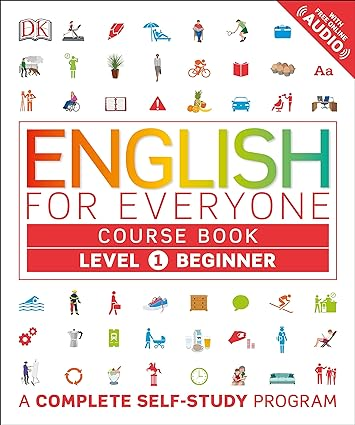
This book offers a comprehensive self-study program for beginners, covering vocabulary, grammar, and practical exercises.
2\. [Oxford Picture Dictionary for the Content Areas for Kids](https://www.amazon.in/Oxford-Picture-Dictionary-Content-Areas/dp/0194017753):
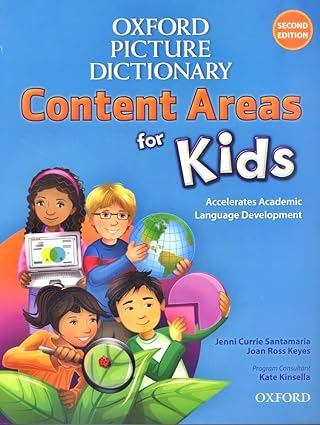
Ideal for young learners, this dictionary uses vivid images to teach essential vocabulary in various content areas
3\. [American Accent Training](https://www.amazon.in/American-Accent-Training-Ann-Cook/dp/0764173693/) by Ann Cook:
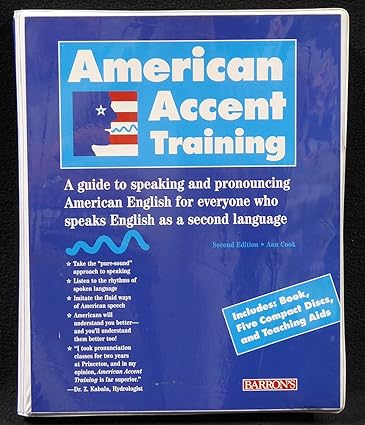
If you want to improve your pronunciation and sound more like a native speaker, this book is a great resource.
4. [Essential Grammar in Use with Answers](https://www.amazon.in/Essential-Grammar-Answers-Interactive-eBook/dp/1107480531) by Raymond Murphy:
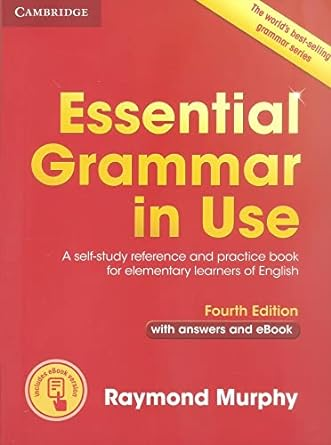
This grammar book is perfect for beginners as it provides clear explanations and practice exercises.
5\. [Speakout Starter Student's Book](https://www.amazon.in/Speakout-Starter-Students-DVD-ROM-MyEnglishLab/dp/1292115998) by Frances Eales and Steve Oakes:
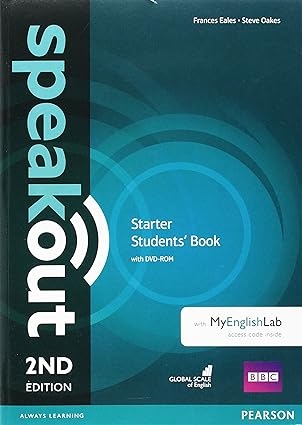
Designed for adult learners, this book focuses on practical speaking skills through engaging activities and real-life conversations.
These books are highly recommended for beginners as they provide a solid foundation and cover essential language skills. Happy learning!
Novels to Help Improve Your English
-----------------------------------

Reading novels is a fantastic way to enhance your English language skills. Not only do novels expose you to a wide range of vocabulary and sentence structures, but they also improve your comprehension and overall language proficiency. If you're an intermediate learner looking to dive into some captivating stories while improving your English, here are six great novels that can help you along the way:
* [Pride and Prejudice](https://www.amazon.in/Pride-Prejudice-Jane-Austen/dp/8172344503/) by Jane Austen: A classic tale of love, misunderstandings, and societal expectations.

* [Animal Farm](https://www.amazon.in/Animal-Farm-George-Orwell/dp/812911612X/) by George Orwell: An allegorical novel that explores themes of power, corruption, and revolution.

* [1984](https://www.amazon.in/1984-George-Orwell/dp/8129116111/) by George Orwell: A dystopian novel that warns against totalitarianism and explores the importance of individual freedom.

* [The Great Gatsby](https://www.amazon.in/Great-Gatsby-DELUXE-HARDBOUND/dp/9390183529) by F. Scott Fitzgerald: A story of wealth, love, and the pursuit of the American Dream in the 1920s.

* [Jane Eyre](https://www.amazon.in/JANE-EYRE-CHARLOTTE-BRONTE/dp/812914011X/) by Charlotte Bronte: A gothic romance novel that delves into themes of identity, independence, and social class.

* [Lord of the Flies](https://www.amazon.in/Lord-Flies-William-Golding/dp/0399501487/) by William Golding: In this thought-provoking novel, a group of boys stranded on an uninhabited island must navigate power struggles and human nature.

These novels offer captivating storylines that will keep you engaged while expanding your vocabulary and improving your English language skills. So grab a book, find a cosy spot, and let these stories transport you to new worlds while enhancing your English proficiency.
Best Books for Learning English Grammar
---------------------------------------
Grammar is an essential aspect of learning English effectively. Whether you're a beginner or an advanced learner, having the right grammar resources is crucial to improving your language skills. Here are five highly recommended English learning books that can help you strengthen your grammar foundation:
1\. [English Grammar in Use](https://www.amazon.in/English-Grammar-Answers-Interactive-eBook/dp/1108586627/) by Raymond Murphy:
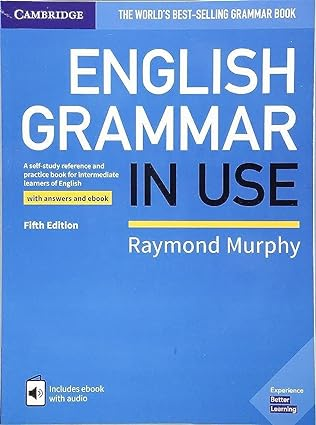
This comprehensive self-study reference and practice book is perfect for learners of all levels. It provides clear explanations, examples, and interactive exercises to reinforce your understanding of English grammar.
2\. [The Blue Book of Grammar and Punctuation](https://www.amazon.in/Blue-Book-Grammar-Punctuation-Easy/dp/1119653029/) by Jane Straus:
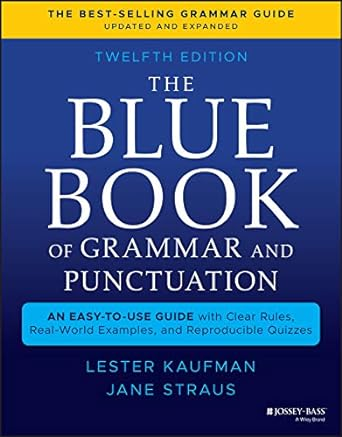
A trusted resource for understanding the rules of grammar and punctuation. This book offers easy-to-follow explanations, quizzes, and real-world examples to improve your writing skills.
3\. [Oxford Practical English Usage](https://www.amazon.in/Practical-English-Usage-4th/dp/0194202461/) by Michael Swan:
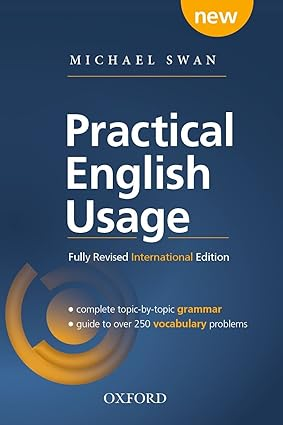
Widely used by teachers and learners alike, this book covers common grammar problems faced by non-native speakers. It offers practical explanations and strategies to enhance your accuracy in using English.
4\. [Advanced Grammar in Use](https://www.amazon.in/Advanced-Grammar-Use-Answers-Self-Study/dp/1107697387/) by Martin Hewings:
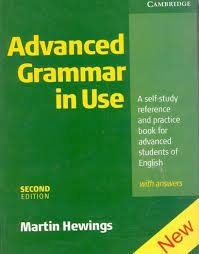
Designed for advanced learners, this book delves into complex grammatical structures and explores idiomatic expressions. It includes challenging exercises that allow you to practice using English in context.
5\. [Oxford Practice Grammar](https://www.amazon.in/Oxford-Practice-Grammar-John-Eastwood/dp/0195654722/) by John Eastwood:
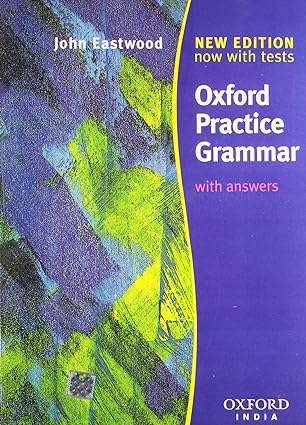
Suitable for intermediate learners, this book provides concise explanations along with contextualized exercises to reinforce your knowledge of grammar rules.
These English learning books will serve as valuable resources to improve your grammar skills, allowing you to communicate more effectively in English. Remember, combining reading with other learning activities will enhance your overall language proficiency. Once you get a grasp of basic grammar, you can move on to sentence formation. Check this article: [Master English Sentence Formation: Beyond Grammar Basics (](https://clapingo.com/blog/sentence-formation-english)[clapingo.com](//clapingo.com)[)](https://clapingo.com/blog/sentence-formation-english)
Books for Expanding Your Vocabulary
-----------------------------------
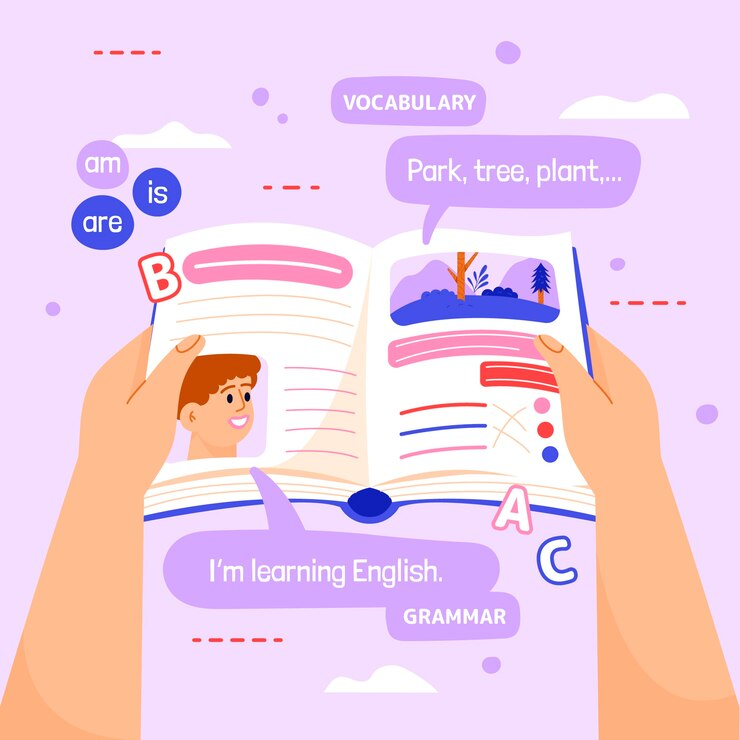
[Expanding your vocabulary](https://clapingo.com/blog/daily-use-english-words) is crucial for effective communication in English. To help you make an informed decision, here are some recommended books that focus on building your vocabulary. The table given below compares the word count, word types, and additional resources of each book:
**Book Cover**
**Book Title**
**Word Count**
**Word Types Covered**
**Additional Resources**
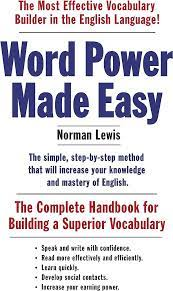
[Word Power Made Easy](https://www.amazon.in/Word-Power-Made-Norman-Lewis/dp/0143424688/)
1500+ words
Nouns, Verbs, Adjectives, Adverbs, etc.
Exercises
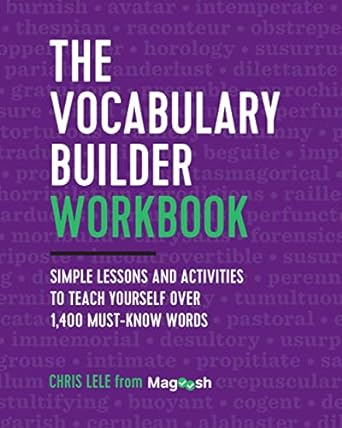
[The Vocabulary Builder Workbook](https://www.amazon.in/VOCABULARY-BUILDER-WORKBK-Chris-Lele/dp/193975481X/)
1000+ words
Synonyms, Antonyms, Roots, Prefixes
Worksheets
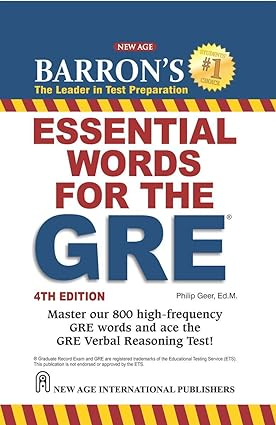
[Essential Words for the GRE](https://www.amazon.in/Barron%60s-Essential-Words-Philip-Geer/dp/9387477010/)
800+ words
High-frequency words for standardized tests
Practice tests
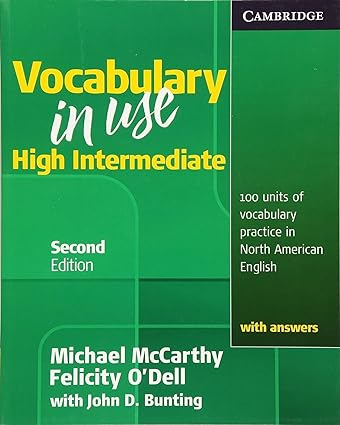
[Vocabulary in Use: High Intermediate](https://www.amazon.in/Vocabulary-High-Intermediate-Students-Answers/dp/0521123860/)
2000+ words
Phrasal verbs, Idioms
100 Units of Vocabulary Practice
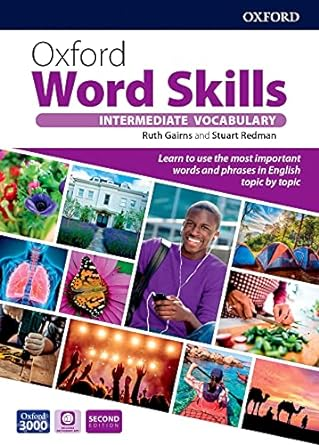
[Oxford Word Skills: Intermediate](https://www.amazon.in/Oxford-Word-Skills-Intermediate-Students/dp/0194605701/)
1500+ words
Collocations
Online resources
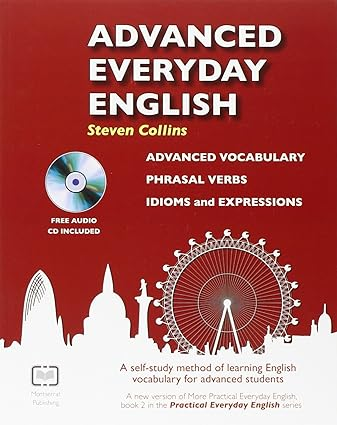
[Advanced Everyday English](https://www.amazon.in/Advanced-Everyday-English-Verbs-Advanced-Vocabulary-Idioms/dp/0952835843/)
2500+ words
Advanced vocabulary, Phrasal verbs
Audio exercises
By utilizing these vocabulary-building books and dedicating time to learning new words and [expressions](https://clapingo.com/blog/the-most-important-english-expressions-to-know) and their usage in context, you'll be well on your way to expanding your English vocabulary.
In addition to these, various books for expanding your vocabulary can be found in the article "Top 10 Books to Improve English Vocabulary" published by Times of India as well. Each book has its unique features, so you can choose the one that best suits your learning style and needs.
Books to Improve English Speaking Skills
----------------------------------------
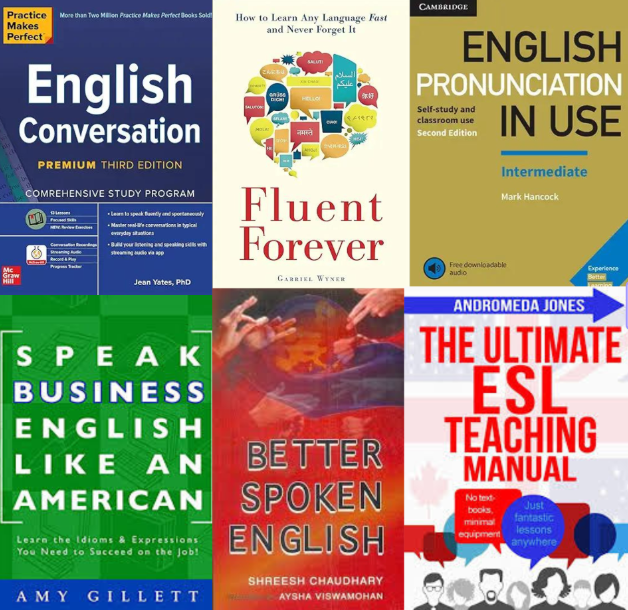
Speaking practice is essential for developing fluency in English. While books can be a great resource for learning vocabulary and grammar, they may not provide enough opportunities to practice conversational skills and pronunciation. That's why it's important to supplement your learning with books that specifically focus on [improving English speaking skills](https://clapingo.com/blog/how-improve-english-speaking-skills).
Here are some highly recommended books that can help you enhance your spoken English:
* [Practice Makes Perfect: English Conversation](https://www.amazon.in/Practice-Makes-Perfect-English-Conversation/dp/1260462161/) by Jean Yates: This book offers a wide range of conversational exercises and dialogues at various difficulty levels.
* [Fluent Forever: How to Learn Any Language Fast and Never Forget It](https://www.amazon.in/Fluent-Forever-Learn-Language-Forget/dp/0385348118/) by Gabriel Wyner: This book provides techniques for effective language learning, including strategies for improving pronunciation and conversation skills.
* [English Pronunciation in Use Intermediate Book with Answers](https://www.amazon.in/English-Pronunciation-Intermediate-Answers-Cd-Rom/dp/1316606767/) by Mark Hancock: With clear explanations and audio exercises, this book helps learners improve their pronunciation and spoken English.
* [Speak Business English Like an American: Learn the Idioms & Expressions You Need to Succeed On The Job!](https://www.amazon.in/Speak-Business-English-Like-American/dp/B079TLXMCX/) by Amy Gillett: Ideal for professionals, this book focuses on business-related conversations and idiomatic expressions used in the workplace.
* [Better Spoken English](https://www.amazon.in/Better-Spoken-English-Shreesh-Chaudhary/dp/8125915338/) by Shreesh Chaudhary: This practical guide covers various aspects of spoken English, including vocabulary, grammar, intonation, and stress patterns.
* [The Ultimate ESL Teaching Manual](https://www.amazon.in/Ultimate-ESL-Teaching-Manual-Textbooks/dp/1537511114/) by Andromeda Jones: While primarily aimed at ESL teachers, this manual includes a wealth of speaking activities that can benefit learners as well.
It's important to note that these English learning books offer different approaches to improving spoken English. Some focus on conversation practice while others provide techniques for better pronunciation or specific contexts such as business communication. Choose the ones that align with your learning goals and preferences.
Books to Improve Your English Writing Skills
--------------------------------------------

Effective writing skills are crucial for various professional and personal purposes. Whether you're writing an email, a report, or even a social media post, being able to communicate clearly and accurately in written English is essential. To help you enhance your writing skills, here are some recommended books:
### No.
### Book Title
### Author
### Description
1
[The Elements of Style](https://www.amazon.in/Elements-Style-William-Jr-Strunk/dp/1607962918/)

William Strunk Jr
A classic guide that offers concise rules on grammar, usage, and composition.
2
[On Writing Well](https://www.amazon.in/Writing-Well-Classic-Guide-Nonfiction/dp/0063026600/)

William Zinsser
A practical book that focuses on improving your overall writing style and clarity.
3
[The Oxford Essential Guide to Writing](https://www.amazon.in/Oxford-Essential-Writing-Resource-Library/dp/0425176401/)
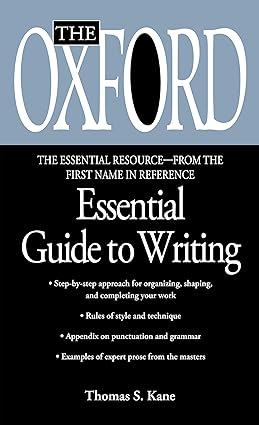
Thomas S. Kane
A comprehensive guide that covers a wide range of writing topics and provides helpful examples.
4
[Style: The Basics of Clarity and Grace](https://www.amazon.in/Style-Clarity-Joseph-M-Williams/dp/0205605354/)

Joseph M. Williams
A book that teaches you how to write with elegance, clarity, and grace.
5
[Writing Tools: 55 Essential Strategies for Every Writer](https://www.amazon.in/Writing-Tools-Essential-Strategies-Writer-ebook/dp/B00FOR2L4W/)
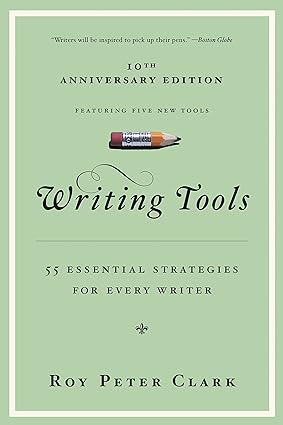
Roy Peter Clark
A resource that provides practical tips and techniques to improve your writing skills.
6
[Bird by Bird: Some Instructions on Writing and Life](https://www.amazon.in/Bird-Some-Instructions-Writing-Life/dp/B097HRXYQC/)
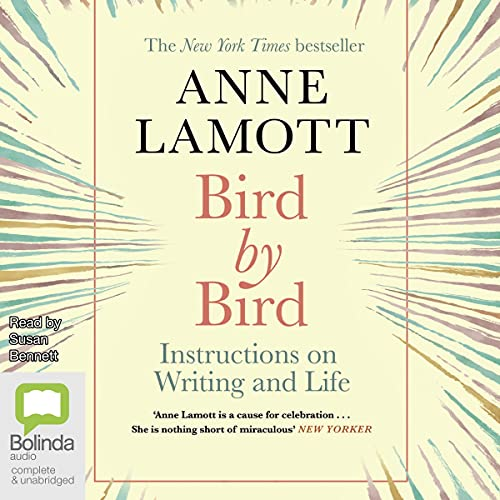
Anne Lamott
A delightful book that offers inspiration and guidance for aspiring writers.
Remember, practice makes perfect! These books for learning English will provide you with valuable insights and tools to enhance your English writing skills.
Online Resources to Enhance English Learning
--------------------------------------------
In today's digital age, online resources play a crucial role in enhancing English learning alongside traditional books. With a plethora of options available, it can be overwhelming to choose the right platforms. But fret not! Clapingo, an online English learning platform, is here to guide you through your language journey.
Clapingo offers paid 1-on-1 English coaching classes that provide personalized guidance and practice sessions. With experienced tutors and flexible schedules, you can learn at your own pace and convenience. Visit [Clapingo's website](https://clapingo.com/) to explore their wide range of courses and improve your speaking and writing skills in no time.
Additionally, Clapingo's [blog](https://clapingo.com/blog) provides valuable insights and tips for English learners. From articles on practising spoken English to boosting fluency without relying solely on grammar, you'll find a wealth of information tailored to your needs.
Learning using both books and online resources like Clapingo can accelerate your progress and make your English learning journey even more enjoyable. Take the next step and explore what Clapingo has to offer!
Check out this YouTube video to know more:
Final Thoughts
--------------
Are you ready to take your English learning journey to the next level? Look no further than Clapingo! By combining the use of English learning books and online resources, you can enhance your language skills in a comprehensive way.
Throughout this article, we have explored the best English learning books for beginners, novels to improve your English, grammar books, vocabulary-building books, and books for improving speaking and writing skills. However, it is important to remember that these resources are most effective when used in conjunction with a platform like Clapingo.
Clapingo offers one-on-one coaching classes with experienced English teachers who can provide personalized guidance and support. Whether you need help with pronunciation, conversation practice, grammar explanations, or writing feedback, Clapingo has got you covered.
To take the next step in your English learning journey and receive expert guidance from qualified teachers, visit Clapingo today. Don't miss out on this opportunity to achieve fluency in English and unlock new career opportunities.
Remember, combining the power of English learning books with the support of an online platform like Clapingo is the key to success. Start your journey today and see how far you can go!
FAQs
----
1\. Which books are best for learning English?
Some of the best English learning books are "English for Everyone" and "Word Power Made Easy." These books provide a comprehensive self-study program specifically designed for beginners. They cover all aspects of English learning, including vocabulary, grammar, and speaking practice.
2\. Can books help to improve English?
Yes, books can definitely help improve English. English learning books provide a wealth of knowledge and exposure to different language styles and structures. By reading books, learners can expand their vocabulary, enhance their comprehension skills, and gain a deeper understanding of the language.
3\. Can I learn English just by reading books?
While reading books is an excellent way to improve English, it's important to mix it with other activities as well. Language learning is a holistic process that requires practice in various areas such as speaking, writing, listening, and interacting with others. So while reading books can greatly enhance your language skills, it's essential to incorporate other forms of learning as well.
---
This blog is powered by Superblog. Visit https://superblog.ai to know more.
---
## 11 Of The Best Apps For Improving Your English Speaking Skills
Author: Unknown
Published: 2023-11-16
Meta Title: Discover the 11 Best Apps For English Speaking Skills!
Meta Description: Unlock your potential with these best apps For English speaking! Enhance pronunciation, fluency, and confidence today! A Guide for Spoken English Skills.
Tags: Best Apps For English Speaking, Learn English Speaking
URL: https://clapingo.com/blog/best-apps-english-speaking
Contents
* [](#)
* [Improving English Speaking Skills Through Apps](#improving-english-speaking-skills-through-apps)
* [Best Apps For Improving Your English Speaking Skills](#best-apps-for-improving-your-english-speaking-skills)
* [1) FluentU - Learn English Through Videos:](#1-fluentu-learn-english-through-videos)
* [2) ELSA: AI Learn & Speak English:](#2-elsa-ai-learn-and-speak-english)
* [3) Duolingo: Language Lessons:](#3-duolingo-language-lessons)
* [4) Memrise - Speak A New Language:](#4-memrise-speak-a-new-language)
* [5) Hellotalk - Learn Languages:](#5-hellotalk-learn-languages)
* [6) RealLife: Speak, Learn English](#6-reallife-speak-learn-english)
* [7) BBC Learning English:](#7-bbc-learning-english)
* [8) YouTube:](#8-youtube)
* [9) Rosetta Stone: Learn, Practice:](#9-rosetta-stone-learn-practice)
* [10) Cambly - English Teacher App:](#10-cambly-english-teacher-app)
* [11) LOLA SPEAK: English Practice:](#11-lola-speak-english-practice)
* [Clapingo - Your Trusted Language Learning Partner](#clapingo-your-trusted-language-learning-partner)
* [Final Remarks](#final-remarks)
* [FAQs](#faqs)

Improving English Speaking Skills Through Apps
----------------------------------------------
English speaking skills are crucial for personal and professional development. Whether you want to excel in your career, communicate effectively with colleagues and clients, or simply travel confidently, having strong spoken English skills can open countless doors for you. Improving your [English fluency](https://clapingo.com/blog/how-improve-english-speaking-fluency) can boost your confidence, enhance your communication abilities, and increase your chances of success in various aspects of life.
Indian learners face unique challenges in improving their [English speaking](https://clapingo.com/blog/i-want-to-improve-my-english-speaking) skills. These challenges include pronunciation difficulties, limited exposure to native speakers, lack of vocabulary and fluency, and fear of making mistakes. However, with the availability of various language learning apps today, overcoming these challenges has become easier than ever before.
These language learning apps provide a convenient and interactive way to practice spoken English anytime and anywhere. They offer a range of features such as real-world context through videos and conversations, pronunciation feedback, vocabulary quizzes, grammar exercises, and even connecting with native English speakers for language exchange. The aim of this article is to take you through some of the best apps for learning English speaking.
So let's explore eleven of the best apps that can help you enhance your spoken English fluency. Apart from these, this article also introduces you to Clapingo, one of the most trusted language-learning platforms in India.
Best Apps For Improving Your English Speaking Skills
----------------------------------------------------

Improving your English speaking skills is vital for effective communication in today's globalized world. Thankfully, there are numerous apps available that can help you enhance your spoken English abilities. These apps provide personalized feedback, engaging exercises, and interactive features to make your language learning experience enjoyable and productive. Here are five of the best apps for improving your English speaking skills:
### 1) FluentU - Learn English Through Videos:
FluentU is an immersive app that helps improve your English speaking skills through authentic videos covering various topics. It provides interactive subtitles and translations to aid comprehension while enabling speaking practice with video-based exercises. With Fluentu, you can immerse yourself in the language as you learn.
### 2) ELSA: AI Learn & Speak English:
ELSA: AI Learn & Speak English by ELSA Speak is considered one of the best apps for learning to speak English fluently. With its AI-powered technology, ELSA analyzes your speech patterns and provides personalized feedback to help you improve your pronunciation and reduce your accent. With its user-friendly interface and engaging exercises, ELSA makes practising English fun. The app also offers additional features such as pronunciation training and vocabulary-building exercises.
### 3) Duolingo: Language Lessons:
Known for its gamified approach to language learning, Duolingo is one of the most popular apps out there. It offers structured lessons that gradually build your vocabulary, grammar knowledge, and conversational skills. What sets Duolingo apart is its speech recognition feature that allows users to practice pronunciation and receive instant feedback. With its fun interface and bite-sized lessons, Duolingo makes learning how to speak English an enjoyable experience.
### 4) Memrise - Speak A New Language:
Memrise is an effective app for learning English speaking skills through gamification and audiovisual content. Engaging lessons with videos and audio recordings help enhance your listening comprehension and pronunciation skills. Additionally, Memrise offers vocabulary and phrase-building exercises along with conversation practice opportunities with native speakers.
### 5) Hellotalk - Learn Languages:
Hellotalk is a language exchange app that facilitates English-speaking practice with native speakers. It allows you to find language partners and engage in text, voice, or video chat conversations. The app also provides an opportunity for mutual language correction, where you can help each other improve pronunciation and grammar skills.
### 6) RealLife: Speak, Learn English
If you're looking for the best app for learning English speaking while focusing on real-life applications, RealLife is the perfect choice for you. This app provides various opportunities for vocabulary expansion and conversation practice with other learners. You can engage in conversations with native speakers through voice messages or video calls to hone your speaking skills in real-life scenarios.
### 7) BBC Learning English:
When it comes to learning English, the BBC Learning English app is an invaluable resource. It offers short podcasts featuring native speakers discussing various topics. These podcasts not only help improve your listening skills but also expand your vocabulary. The app provides transcripts for better comprehension as well. With its wide range of topics and engaging content, BBC Learning English is one of the best apps for learning English speaking for free.
### 8) YouTube:
YouTube is not just a platform for entertainment; it's also a goldmine for improving your English speaking skills. There are several YouTube channels dedicated to teaching English that provide valuable lessons and tips on pronunciation, grammar, and vocabulary. Some recommended channels that specifically deal with English speaking include Speak English With Vanessa, Rachel's English, and English Speaking Course. These channels offer interactive videos specifically designed to help learners practice their speaking skills.
### 9) Rosetta Stone: Learn, Practice:
For those who prefer an immersive language learning experience, Rosetta Stone is the go-to app. It teaches English through a combination of pictures, audio, and contextual exercises. By focusing on real-life situations, Rosetta Stone helps learners develop practical speaking skills. The app's TruAccent feature provides real-time feedback on pronunciation accuracy, ensuring that you sound like a native speaker. With an offline download option with each lesson, Rosetta Stone is one of the best apps for learning English speaking offline.
### 10) Cambly - English Teacher App:
If you're looking for personalized coaching with native English-speaking tutors, Cambly is the app for you. With Cambly, you can practice English over video chat with tutors who are available 24/7. Regardless of your proficiency level, there are tutors who specialize in helping learners at all stages of their language journey. Whether you need assistance with pronunciation, grammar, or vocabulary, Cambly provides one-on-one support tailored to your specific needs.
### 11) LOLA SPEAK: English Practice:
LOLA SPEAKS is another app that helps practice English speaking for real-life situations. It provides videos of native speakers which you can watch to improve your fluency and intonation skills. The lessons offered by LOLA SPEAK are designed specifically to boost your confidence in speaking English. With its user-friendly interface and engaging content, this app is perfect for beginner learners.
Clapingo - Your Trusted Language Learning Partner
-------------------------------------------------

Learning a new language can be a challenge, but with the right learning platform, you can make significant progress in your English speaking skills. As an Indian learner, it's important to choose a platform that understands your unique needs and provides comprehensive courses tailored to your requirements. That's where Clapingo comes in.
[Clapingo](https://clapingo.com/) is a trusted online English learning platform that offers a range of courses specifically designed to improve your speaking and writing skills. Whether you're a beginner or an advanced learner, Clapingo has something for everyone.
Take a look at the key features of the [Clapingo app](https://play.google.com/store/apps/details?id=com.app.clapingo):
**1\. Personalized Coaching**: Clapingo's experienced tutors will guide you through interactive lessons, providing individual attention and feedback to help you improve your spoken English fluency.
**2\. One-on-One Sessions with Native Speakers**: Practice speaking with native English speakers who will correct your pronunciation and provide valuable feedback for improvement.
**3\. Structured Curriculum**: Clapingo's carefully designed curriculum covers all aspects of English speaking, including vocabulary, grammar, pronunciation, and conversation skills.
**4\. Flexibility**: Learn at your own pace with our flexible scheduling options. Choose the course that fits into your busy lifestyle and start improving your English speaking skills today!
You can also check this article that compares Clapingo with another popular language-learning resource Spoken English Guru to understand how Clapingo's approach is unique and user-friendly: [Spoken English Guru or Clapingo: which is better? | Clapingo](https://clapingo.com/blog/spoken-english-guru-clapingo).
To embark on your journey towards becoming a confident English speaker, you need to [practice on your own](https://clapingo.com/blog/practice-english-speaking-alone) for which Clapingo will be your trusted guide. Visit [Clapingo's website](https://clapingo.com/) or app and explore our range of courses tailored for Indian learners. Trust us as your language learning partner and unlock endless opportunities for personal growth and career success!
Check out this YouTube video and learn how to be a fluent English speaker with Clapingo's support: [](https://www.youtube.com/watch?v=H5yTF0V2BVc)
Final Remarks
-------------
Improving your English speaking skills is crucial for personal growth and expanding career opportunities. It allows you to communicate effectively, build relationships, and gain confidence in both social and professional settings. The good news is that there are several language learning apps available to help you enhance your spoken English abilities. In this article, we have discussed eleven of the best apps for improving your English speaking skills. Let's recap their features:
**App Name**
**Key Features**
FluentU
* Wide range of engaging video content
* Interactive subtitles with translations
* Vocabulary quizzes and flashcards
ELSA Speak
* AI-powered personal pronunciation coach
* Personalized feedback for accurate pronunciation
Duolingo
* Gamified lessons with speech recognition
* Structured curriculum for vocabulary and grammar building
Memrise
* Engaging lessons with videos and audio recordings.
* Vocabulary and phrase-building exercises help you expand your language repertoire.
* Conversation practice with native speakers enhances your speaking fluency.
HelloTalk
* Language exchange with native speakers
* Real-time chat and voice call features
* Correction and feedback from natives
RealLife
* Focused on real-life applications
* Includes vocabulary and conversation practice with other learners
BBC
* Short, informative podcasts with native speakers
* A wide range of topics for vocabulary expansion
* Transcripts for better comprehension
YouTube
* Recommended YouTube Channels for Speaking Practice:
* Speak English With Vanessa
* Rachel's English
* Learn English with Let's Talk
Rosetta Stone
* Immersive teaching through pictures and audio
* Real-time feedback on pronunciation
Cambly
* Practice English over video chat with native speakers
* Tutors available for all levels
LOLA SPEAK
* Provides videos of native speakers
* Lessons focusing on fluency and intonation
Clapingo
* Personalized coaching
* One-on-one sessions with native speakers Comprehensive English language courses
While these apps offer valuable resources, it's essential to choose the one that suits your learning style best. If you're looking for a comprehensive platform that focuses on holistic language development including both speaking and writing skills in English, Clapingo is an excellent choice.
By using the apps mentioned in this article consistently, you will gain confidence in your English speaking abilities by improving your fluency. So don't miss out on the opportunity to enhance your English speaking skills! Start exploring these apps today and take your English-speaking skills to new heights!
FAQs
----
1: Which App Is Best For English Speaking?
The best app for English speaking varies based on individual preferences and requirements. Each app mentioned in this article has its unique features and benefits. It's essential to explore them and choose the one that suits your learning style and goals the best.
2: Which App Is Best For English Speaking Practice?
While there are numerous apps available for English speaking practice, Clapingo stands out as a reliable platform that offers opportunities to practice speaking with native speakers. With personalized coaching and one-on-one sessions, Clapingo provides a supportive environment for you to enhance your spoken English skills effectively.
3: Which App Is Best For Speaking English fluently?
To achieve fluency in spoken English, it is crucial to practice regularly with dedicated language learning apps. Among the apps mentioned in this article, Clapingo encompasses comprehensive features designed specifically to help learners develop fluency in spoken English. However, the choice ultimately depends on your personal preferences and goals.
---
This blog is powered by Superblog. Visit https://superblog.ai to know more.
---
## Discover Your Dream Destination: Choosing The Perfect English-Speaking Country In Europe.
Author: Unknown
Published: 2023-11-16
Meta Title: Choosing the Perfect English-Speaking Country in Europe
Meta Description: Explore career opportunities, quality of life, public services, and more as you navigate the path to settling down in an English-speaking country in Europe.
Tags: english speaking, English-Speaking Countries
URL: https://clapingo.com/blog/english-speaking-country-europe
Contents
* [Introduction: Navigating the European dream](#introduction-navigating-the-european-dream)
* [Selecting the Right English-Speaking Country](#selecting-the-right-english-speaking-country)
* [Factors to consider](#factors-to-consider)
* [Career Opportunities and the Job Market](#career-opportunities-and-the-job-market)
* [Technology](#technology)
* [Finance](#finance)
* [Health](#health)
* [Work-life balance](#work-life-balance)
* [Public facilities and services](#public-facilities-and-services)
* [Healthcare system](#healthcare-system)
* [Education](#education)
* [Public transportation and infrastructure](#public-transportation-and-infrastructure)
* [Lifestyle Aspects](#lifestyle-aspects)
* [Cost of living](#cost-of-living)
* [Cultural and recreational activities](#cultural-and-recreational-activities)
* [Quality of life in Europe](#quality-of-life-in-europe)
* [Learning Opportunities](#learning-opportunities)
* [Other Factors to Consider](#other-factors-to-consider)
* [Visa and immigration policies:](#visa-and-immigration-policies)
* [Cultural compatibility](#cultural-compatibility)
* [Case Studies](#case-studies)
* [Final Thoughts: Charting Your Course to a European Home](#final-thoughts-charting-your-course-to-a-european-home)
* [Clapingo's Role in Easing the Move](#clapingos-role-in-easing-the-move)
* [FAQs](#faqs)

Introduction: Navigating the European dream
-------------------------------------------
Choosing the right English-speaking countries in Europe goes hand in hand with the location you choose to settle down in the continent. Each European country offers its unique blend of culture, opportunities, and cost of living—whether it's the metropolitan area of the United Kingdom, the beauty of nature in Ireland, or the safety in Iceland, there are reasons enough to settle down in Europe.
To navigate yourself to your European dream, begin by ensuring that you're located in the right English-speaking country in Europe. Because many multinational companies use English as their official language, it makes the language a must for people to learn and speak. As Europe is the hub for international business and trade, [learning English for personal and professional growth is important](https://clapingo.com/blog/english-importance-global).
Living in English-speaking countries in Europe offers exceptional cultural diversity, great healthcare facilities, amazing education, efficient public transportation, and a strong emphasis on work-life balance.
If you've been planning to settle down in Europe, this is your cue to do it. With safety, historical beauty, job opportunities, and easy travel, Europe is your destination to live a high quality of life with sufficient annual income.
Selecting the Right English-Speaking Country
--------------------------------------------
All you have to do is choose the right English-speaking country in Europe, as it will directly impact your quality of life and lifestyle. Want to know why? Choosing an English-speaking country in Europe can influence your career potential and opportunities.
For example, countries like Ireland and the United Kingdom have rich job markets and are home to several multinational companies. They are some of the best destinations for those looking to settle in Europe for career improvement and international networking.
When you choose the right English-speaking country in Europe, you can access some of the world's top universities and seek better-paying jobs in companies that require English as a primary language.
### Factors to consider
Before settling in an English-speaking country in Europe, consider several critical factors:
* Firstly, understand the legal requirements, including visa and residency regulations, that comply with immigration policies.
* Second, understand the job market and analyse opportunities, job prospects, and salary levels in your field of expertise or skills.
* Third, calculate the cost of living, housing, transportation, healthcare, everyday expenses, safety and security, healthcare, and culture.
* Lastly, and most importantly, learn the English language with Clapingo to ensure a successful transition to the right English-speaking countries in Europe.
Career Opportunities and the Job Market
---------------------------------------

The career opportunities in English-speaking countries in Europe depend on diversity and competitiveness in the [overseas job market](https://clapingo.com/blog/are-you-looking-for-an-overseas-job-or-migration-ielts-can-help).
In the United Kingdom, major cities like London, Edinburgh, and Manchester offer a range of job opportunities in various sectors. Including—finance, healthcare, technology, and creative industries, making it an international job hub.
Ireland, specifically Dublin, is renowned for its booming tech sector, which attracts professionals from around the globe. Malta is experiencing great growth in iGaming and financial services, creating IT, marketing, and finance opportunities.
**Watch:** Clapingo's IELTS series
However, before settling in an English-speaking country in Europe, consider factors like the legal requirements, job market, and [language of communication](https://clapingo.com/blog/how-improve-english-speaking-skills) coming into play.
If you wish to study, work, or settle in English-speaking countries in Europe, you may have to take the IELTS. A good IELTS score can help you in your visa application. At [Clapingo](https://clapingo.com/blog/are-you-looking-for-an-overseas-job-or-migration-ielts-can-help), you can transform your professional and personal life with exceptional English communication skills.
Clapingo offers personalised coaching sessions—coaching in your native language, flexible plans for courses, and IELTS. Plus, diverse pricing and plans for different requirements. Time to speak English fluently and choose the right English-speaking country in Europe!
The European Union economy continues to grow, however, with reduced speed. Among European Union countries in April 2023, Spain had the highest unemployment rate at 12.7%.
**Country**
**Unemployment Rate**
Greece
11.2%
Italy
7.8%
Lithuania
7.5%
Sweden
7.2%
France
7%
In comparison, Czechia has the lowest unemployment rate in Europe, at only 2.7%.
### Technology
Did you know Finland is the world's most technologically advanced country, according to the UN report? Yes, even ahead of the USA.
Europe, known as "the old continent," is the birthplace of Western culture and a great deal of Science we use today. The Industrial Revolution started in the UK at the end of the eighteenth century and then took over the world by shaping it as it is currently. Today, things look much better with some of the best global innovation and technology leaders nested on European ground.
Even though the current market is low in tech startups, technologies like the Internet of Things, industrial data, advanced manufacturing, robotics, 3D printing, blockchain technologies, and artificial intelligence will let the European industry expand its leadership in the growing markets.
### Finance
Since the 19th century, London has been a major international financial hub for lending and investment on a global scale.
Today, the city of Frankfurt stands to be the most important financial hub in continental Europe. It is the key center of financial market stability. And _Euronext_, Europe's biggest stock exchange, combines five markets based in Amsterdam, Brussels, Dublin, Lisbon, London, Oslo, and Paris.
### Health
In Europe, healthcare is offered through different systems that are managed at the national level. A system of rightly managed private health insurance providers exists in most European nations, with government subsidies available for citizens who cannot afford coverage.
### Work-life balance
Known for its laid-back lifestyle, Spain offers long lunch breaks and midday "siestas", meaning naps! The country is known for its emphasis on leisure, and Portugal is the second-best country that values work-life balance. Similarly, the Netherlands strongly focuses on work-life balance, and you'd find that in the country's progressive culture and policies.
With an ideal work-life balance policy, settling in Europe is a great option. At Clapingo, you can now learn the reading, writing, speaking, and listening aspects of the IELTS test and everything you need to expect when you move to an English-speaking country in Europe.
Public facilities and services
------------------------------
It is essential to look at the public facilities and services available in any European city before settling down. These include:
### Healthcare system
Beginning a new life on a new continent can be overwhelming. When moving to another country, healthcare is one of the biggest challenges ex-pats can face. The healthcare system in Europe is, however, based on national healthcare, where medical expenses are state-covered. This means that residents only need to pay small service fees.
Those who move to any country in Europe for a longer time are usually included in the country's national health insurance scheme. And they can receive healthcare just like any European citizen. Expats can have additional private health insurance for benefits like English-speaking physicians, shorter wait times, and private hospital treatment.
Plus, the European Accessibility Act is a directive aiming to improve the functioning of the internal market for accessible services and products. The aim is to improve the trade between members of the EU for accessible services and products by removing country-specific rules.
This further enables people with disabilities and elderly people to benefit like:
* More accessible services and products in the market
* Fewer barriers when transport, education, and the open labor market need to be accessed
* Accessible services and products can be bought at more competitive prices
Most European countries have a system of competing private health insurance companies with government subsidies for citizens who cannot afford coverage.
### Education
In the European Union, there's no uniform education policy, which means no higher institute interferes or imposes specific requirements regarding education. This makes each country entirely responsible for its education curriculum and system.
UNESCO undertakes the development of teaching, the Council of Europe, as well as the United Nations (especially the sector of Education, Science, and Culture).
Also, did you know that Europe is the birthplace of modern universities? You can find top education and enjoy the benefits of the European Union for various reasons like:
* Europe is home to some of the world's most prestigious and oldest universities.
* There is great diversity in campus life, teaching patterns, and urban and natural landscapes.
* They have a rich cultural experience from various languages, exciting local customs, and delicious cuisines.
### Public transportation and infrastructure
In Europe, air, water, rail, and road transportation are all extremely important. The world's first railroads and motorways were built in Europe, which is also home to some of the busiest ports and airports today. Plus, the Schengen Area allows cross-border travel between 27 European countries without passing through border controls.
Fortunately, there are numerous inexpensive ways to travel throughout Europe. Thanks to the sharing economy, new bus options, discounted train passes, and various low-cost airlines, you can travel through Europe on a budget. Budget airline is by far one of the cheapest ways to travel long distances in Europe.
Building a sustainable Europe is not an easy task. The EU has adopted ambitious, long-term environmental and climate goals. However, much more work must be done to accomplish these despite some recent progress.
Lifestyle Aspects
-----------------

Next, lifestyle aspects like the cost of living, cultural and recreational activities, and quality of life must also be taken into account when considering a move to Europe.
### Cost of living
The annual cost of living can be estimated to be around €9600, including rent, food, and entertainment. While the monthly cost of health insurance can reach up to €80. Portugal has one of the lowest costs of living compared to many other European countries, and along with its stunning beaches, delicious food, and laid-back lifestyle, it's an attractive option for many looking to settle in English-speaking countries in Europe.
According to an analysis, the cheapest apartments and houses in Europe are in the capital of Greece, Athens. The average cost per square meter in this city is €1,940. While your exact expenses depend on many factors, here is the short answer about daily expenses about settling in Europe: Living in Berlin, Amsterdam, Portugal, and Spain are four of the more well-liked options for foreign residents considering Western Europe.
### Cultural and recreational activities
Shakespeare's sonnets to the viral poems of Instagram poets, cabaret shows to partying, and archery to virtual reality games—the history of European arts and entertainment has evolved, just like its creators, lovers, and guardians. For centuries, millions of people have found comfort, comedic relief, and thought-provoking ideas through the arts and entertainment.
Hiking, mountaineering, canyoning, rock climbing, and skiing are just a few of the many outdoor activities you can enjoy when you settle in Europe. Europe has much more to discover than just top-notch art, architecture, and gastronomy. With outdoor tours, you get the chance to disconnect from the busy, congested metropolis and see less-visited locations surrounded by nature.
### Quality of life in Europe
According to the Global Peace Index, Iceland ranked as the safest country in Europe. Further, Denmark and Ireland ranked as the two safest countries in the world. Austria and Portugal followed the list.
Speaking of quality of life, in 2021, Europeans rated their satisfaction with life on average at 7.2 points on a scale from 0 (very dissatisfied) to 10 (very satisfied).
**Country**
**Satisfaction Level**
Austria
8.0
Finland
7.9
Romania
7.7
Bulgaria
5.7
Hungary
6.5
Latvia
6.7
Most European countries have a system of the best private health insurance companies, with government grants available for citizens who cannot afford coverage. Many European countries offer their citizens a European Health Insurance Card, which provides insurance for emergency medical treatment insurance when visiting other participating European countries.
Even during challenging times, Europeans have managed to transform their lifestyles and economies. Europeans emphasize strong social relationships as well as work-life balance, and love being close to nature.
Learning Opportunities
----------------------
There are several learning opportunities in English-speaking countries in Europe. English-speaking skills have become supremely essential for effective communication and better job purposes. It is the language of science, aviation, computers, diplomacy, and tourism.
Knowing English increases your chances of getting a good job in a multinational company within your home country or English-speaking countries in Europe when you want to settle in.
Break through English barriers and improve your [English-speaking skills](https://clapingo.com/blog/english-lectures-improve-english) with Clapingo. At Clapingo, you can practice English with amazing communicators across the country and get regional tutors as well. Clapingo is proud to have changed the lives of thousands of aspirants. What are you waiting for? Clapingo, where you can [practice conversations and hone your English-speaking skills](https://clapingo.com/blog/how-improve-english-speaking-fluency).
**Watch:** Clapingo, where you can practice conversations and hone your English-speaking skills.
Other Factors to Consider
-------------------------
Lastly, we take a look at some miscellaneous factors that can play a role in choosing the perfect English-speaking country in Europe to settle down.
### Visa and immigration policies:
Understanding visa and immigration policies is an important part of settling in Europe. Depending on your purpose and the specific English-speaking countries in Europe you want to relocate to, understand the policies well. This includes visa categories, duration of stay, work permits, financial requirements, language proficiency, health insurance, and background.
The common immigration and visa rules of the European Union apply to individuals looking to move to an EU country for more than 90 days:
* High qualified workers
* Seasonal workers
* Researchers
* Students
* Intra-corporate transferees\*
* Trainees and volunteers\*
When you're from a country outside the EU and are staying legally in an EU country, the rules let you:
* Bring your family members with you
* Become a long-term resident after five years of residence.
Please note that when selecting the right English-speaking country in Europe, these rules may not apply in Denmark and Ireland but in all other EU countries.
### Cultural compatibility
Europe, a continent steeped in culture and history with a varied and supremely rich heritage, is unique to the region. The continent has something for everyone—from the modern metropolises of Paris and London to the ancient ruins of Rome.
For a very long time now, Europe has been a hub of culture and creativity, and the monuments, galleries, and museums are proof that cultural diversity is an important political and legal topic in the European Union.
You will find integral cultural space, various social behaviours, lifestyle patterns and moral and spiritual standards in different countries of Europe.
Case Studies
------------
Germany is a great choice for its strong job market, high-quality education, and diverse communities. It is a top English-speaking European country with more than 62.35% English speakers. While the Netherlands offers a great work-life balance and is home to multinational companies. And more than 90% of people speak English in The Netherlands and nearly 71.45% are proficient in English and can speak like a native.
Sweden topped the list of English-speaking Countries In Europe in 2016. Now, it holds third place, with 89% of people speaking English in the country.
Final Thoughts: Charting Your Course to a European Home
-------------------------------------------------------
Selecting Europe as your destination for a serene and high-quality life is the best decision you can make. You ask why? Because amongst many perks, Europe offers economic growth, providing abundant employment opportunities, enhanced wages, and generous pensions.
Live a sumptuous lifestyle in Europe, where you can enjoy the freedom of movement for labour and goods and benefit from its exceptional education systems and top-notch infrastructure, attracting people from all corners of the globe to seek job opportunities here!
If you're still sceptical, you'd be glad to know that other pros include affordable and accessible transportation between European cities. This means less expensive tourism, a better exchange rate, more cost-effective home prices, and an overall healthier lifestyle!
When you settle in an English-speaking country, Europe has several advantages. Firstly, English serves as a global _lingua franca_, allowing smooth communication in both personal and professional settings. This gives the expats access to better educational institutes and job opportunities looking to settle down in Europe.
Clapingo's Role in Easing the Move
----------------------------------
Clapingo, your one-on-one tutoring destination, lets you ask for whatever help you need. The tutors at [Clapingo](https://clapingo.com/) are great communicators, as they also help identify your weaknesses in the language and make recommendations accordingly. You get to have regular conversation practice that can, with time, help you master the language of English.
With Clapingo, practice your speaking skills with native English speakers across the country and master the language like a pro at your own pace! You can speak to a new tutor in every session. So, if you have ten sessions, you can speak to ten different tutors.
Clapingo encourages you to speak to as many tutors as possible to help boost your confidence and improve your spoken English skills with time. You can also choose to meet with the same tutor. Clapingo is not just your regular English learning online platform; it is a destination that offers personalized English coaching and [IELTS coaching](https://clapingo.com/ielts), too.
Learn Spoken English Fearlessly With Clapingo, Today!
FAQs
----
**1\. Why should I consider moving to Europe for settlement?**
With numerous booming job opportunities, scenic beauty, and a comfortable climate, moving to Europe is a decision you can take for a better quality of life.
**2\. What are the advantages of choosing an English-speaking country in Europe**
There are numerous advantages of choosing English-speaking countries in Europe, one of them being—these regions offer the best universities and countless job opportunities with English as the primary language. Plus, there are over 370 million English speakers out of about 450 million European Union residents.
**3\. How do I assess the job market in these countries?**
To start your research on industry demand and job prospects, consider location, region, and language prerequisites. Make use of online job platforms, recruitment agencies, and your professional connections to pinpoint potential employers and job openings.
**4\. What is the cost of living like in European English-speaking countries?**
The cost of living in English-speaking countries in Europe looks like: Greece is relatively low compared to other European countries, especially compared to cities like London or Paris. While Montenegro is popularly known as one of the cheapest places to live in Europe, it also has a higher percentage of the English-speaking population.
---
This blog is powered by Superblog. Visit https://superblog.ai to know more.
---
## A Huge And Helpful Guide To 67 English-Speaking Countries (And More!)
Author: Unknown
Published: 2023-11-16
Meta Title: Discover the top 67 English-Speaking Countries and More!
Meta Description: Explore a comprehensive guide to 67 English-speaking countries worldwide, including fascinating facts, cultural insights, language variations, and more.
Tags: Importance of English Speaking, English-Speaking Countries , 67 English-speaking Countries
URL: https://clapingo.com/blog/english-speaking-countries
Contents
* [The Spread And Reach of English In the World](#the-spread-and-reach-of-english-in-the-world)
* [History Of The English Language](#history-of-the-english-language)
* [How Did English Spread In Most Of The World?](#how-did-english-spread-in-most-of-the-world)
* [English—Important For Personal and Professional Development](#englishimportant-for-personal-and-professional-development)
* [An Overview of 67 English-speaking Countries In The World](#an-overview-of-67-english-speaking-countries-in-the-world)
* [English Spoken Natively and Non-Natively](#english-spoken-natively-and-non-natively)
* [List of Majority Native English-speaking Countries in the World](#list-of-majority-native-english-speaking-countries-in-the-world)
* [English Speaking Countries in Europe](#english-speaking-countries-in-europe)
* [English Speaking Countries in Asia](#english-speaking-countries-in-asia)
* [English in Contemporary India](#english-in-contemporary-india)
* [English-Speaking Countries in the Oceania Region](#english-speaking-countries-in-the-oceania-region)
* [English-Speaking Countries in Africa](#english-speaking-countries-in-africa)
* [English-speaking countries in the Americas](#english-speaking-countries-in-the-americas)
* [Different Types of English Language—American and British English](#different-types-of-english-languageamerican-and-british-english)
* [The Importance of Learning English Language & How Clapingo Can Help](#the-importance-of-learning-english-language-and-how-clapingo-can-help)
* [Benefits of Clapingo:](#benefits-of-clapingo)
* [Conclusion](#conclusion)
* [FAQs](#faqs)

English, a language which was the tongue of three tribes 1,500 years ago, is the language of about two billion people today. Out of the world population of 7.8 billion, the global language stands tall, with 1.35 billion speaking it. And surprisingly, the majority aren't even native English speakers. But about 360 million people speak it as their first language. In this article, we will inform you about several countries where English is commonly spoken.
The Spread And Reach of English In the World
-----------------------------------------------
**_English has three times more non-native speakers than native speakers._**
Of course, English is the most common foreign language that is studied worldwide. But out of the many perks, one of the major benefits of the growing influence and dominance of the language is—it [bridges the gap and makes communication easier](https://clapingo.com/blog/english-importance-global) in the globalised era. People from different areas around the globe—like America, Singapore, and India can come together and share a language despite the regional differences.
### History Of The English Language
Let's go back, just like the English language. The origins of English date back to the fifth century. This was when Germanic tribes invaded Britain, and "Old English" was born. Later, when the Normans invaded Britain in 1066, they brought a form of French that today is referred to as “Middle English.”
“Modern English,” formed with two important factors:
* The beginning of colonialism and modern printing in the 16th century.
* Thanks to Britain's first colonial 'adventure,' the language was brought to the New World—the Americas, South Africa, and Australasia.
Since English belongs to the Indo-European family of languages, it is related to most other languages spoken in - Europe, Iceland, western Asia, and India!
### How Did English Spread In Most Of The World?
Thanks to trade and colonization by the British Empire in the 18th and 19th centuries, English spread to several parts of the world. It was after the seventeenth century that English was extended as a language, and it hasn't stopped since.
As for why? Many important factors led English to spread in most of the world:
* Power of the British Empire
* Birth of the Industrial Revolution in England
* Supremacy of the United States of America throughout the world
Most importantly, English, over the last fifty years, has become a global language and the official language of international and multinational industries and companies. English is also popularly known as the language of the Internet.
Today, it is the dominant language of Ireland, Britain, the United States, New Zealand, Canada, Australia, and many smaller colonies. The language's use doesn't stop here. It is supremely spoken in various continents like Africa, Asia, and more! English became a global lingua franca in the second half of the twentieth century.
The use of the language isn't just limited to regions and writings. In fact, in Europe, English has taken over Latin and French languages in business and diplomacy, sharing technological and scientific information, and communication across national borders. However, global variations in English accents and dialects remain constant, even today.
### English—Important For Personal and Professional Development

With potential employers, partners, clients, or teachers, a better command of English can help you grow immensely. Of course, other skills make a difference, too, but the [confidence of speaking English](https://clapingo.com/blog/self-introduction-english) speaks louder for your personality. When you plan to relocate to English-speaking countries, you're helping yourself grow both personally and professionally.
#### Important For Personal Growth
Knowing English is great for making an impression and can make you seem confident during interaction with the concerned person. Those who have a good command of the language find it easy to communicate freely among friends, in groups, and with colleagues fearlessly. Even when you relocate to English-speaking countries in the world, your personality may benefit further from those surroundings.
#### Important For Professional Growth
The English language has, over the years, become the number 1 tool for employability. It is no longer a demand but a must to know the language. Whether you're planning on moving to get your dream job, for higher studies, or become an entrepreneur, learning English will always be a plus.
Now, let's look at 67 English-speaking countries in the world that can help you on an international vacation, for higher studies, or a job in these countries.
An Overview of 67 English-speaking Countries In The World
---------------------------------------------------------

Being one of the most widely spoken languages in the world, English is spoken by over 1.35 billion people worldwide. However, not all 1.35 billion speak English as a native language. But only 360 million do!
Many English-speaking countries use English as a _lingua franca_ working language to enable communication between people who speak various dialects. This list will unveil the most English-speaking countries and why the language is the most relevant one today.
### English Spoken Natively and Non-Natively
**Native English speakers:** Someone who speaks English as their first language rather than learning it as a foreign language. A person with English as their first language from birth is a native English speaker.
**Non-native English speakers:** Someone who may often have a different accent or may make grammatical errors influenced by their native language are non-native English speakers.
But, of 1,453 million speakers of English, 373 million are native speakers (English as their first language), and 1,080 million are non-native speakers (English as their second language).
### List of Majority Native English-speaking Countries in the World
According to the University of Sheffield, the UK government classifies these overseas countries as majority native English-speaking:
* Antigua and Barbuda
* Australia
* The Bahamas
* Barbados
* Belize
* Canada
* Dominica
* Grenada
* Guyana
* Ireland
* Jamaica
* New Zealand
* St Kitts and Nevis
* St Lucia
* St Vincent and the Grenadines
* Trinidad and Tobago
* United Kingdom
* United States of America
Many non-native countries in the world use English as a lingua franca or a de facto working language (most communication is done in English, even though it is not accepted as an official language)!
Below, in this blog post, we have classified the countries according to regions to simplify things for you when you relocate to the most English-speaking country or elsewhere.
English Speaking Countries in Europe
------------------------------------
There are way too many English-speaking countries in Europe. It is the native language of the UK and Ireland. English is also the official language of Malta, Dhekelia, Jersey, the Isle of Man, Gibraltar, Guernsey, and the Sovereign Base Areas of Akrotiri and Dhekelia.
In The Netherlands, English is officially a regional language, with 90% of the Dutch population speaking it. English is also the de facto official language of England.
Sweden, Belgium, Norway, Denmark, and Finland are some of the top English-speaking countries in Europe. 38% of European Union citizens can speak English locally, while only 13% speak English as their native language.
This means only a few European countries have English as an official language. However, many Nordic and Scandinavian countries have a high population that speaks the language.
Below, find a table of English-speaking countries with the estimated percentage of the population in Europe speaking English.
**English-speaking countries in Europe**
**Population percentage**
England
100%
Scotland
100%
Wales
100%
Ireland
98%
Malta
90%
Cyprus
80%
Norway
71%
Denmark
70%
Sweden
70%
Isle of Man
100%
Jersey
100%
Guernsey
100%
English Speaking Countries in Asia
----------------------------------
In the Asian Region, there are about 372 million native English speakers and a billion non-native English speakers. With the fast development and growth of English worldwide, the language has gained immense status in Asia.
English is the official language of Asian nations, such as India, Singapore, Nepal, the Philippines, and Pakistan. An estimated 125 million people speak English in India, around 94 million in Pakistan and 90 million in the Philippines.
### English in Contemporary India
Thanks to English's global presence today, it has become an international language. The history goes long back to the British arrival in India when English was introduced to Indians for becoming clerks at administrative buildings.
Fast forward to today, English has become one of the most sought-after languages and for all the right reasons. English has surpassed the language of Hindi in India and links and brings people from different cultures, regions, and mindsets together.
Today, English stands to be the language of trade and commerce, and with globalisation at its peak, the language is also vastly used in import and export areas.
In India, English is the language of education and the library language. About 1.3 billion people in India have English as their common language. No wonder knowing English in India today is an "essential skill" of modern life.
Plus, proficiency in English is more of a need for those who want to pursue higher education, as most colleges and universities in India (and abroad) require students to understand the language well. This has led to a high demand for English-speaking professionals from India in the global job market.
Below, find a table of English-speaking countries with the estimated percentage of the population in Asia speaking English.
**English-speaking countries in Asia**
**Population percentage**
India
10% (125 million speakers)
Pakistan
63%
Philippines
63%
Singapore
75%
Sri Lanka
10%
English-Speaking Countries in the Oceania Region
------------------------------------------------
Oceania is a region consisting of thousands of islands throughout the Central and South Pacific. Oceania is divided into four —Melanesia, Polynesia, Micronesia, and Australasia (Australia and New Zealand).
Oceania is described as a geographical region in most of the English-speaking world. However, outside of the English-speaking world, Oceania is considered one of the continents.
It is one of the most linguistically diverse regions in the world, with 450 Oceanic languages, all branches of the Austronesian languages. Speakers of these languages occupy the area: Melanesia, Micronesia, and Polynesia.
Even though they cover a vast area, Oceanic languages are spoken by only two million. And despite the number of languages, English is the most prominent one across Oceania, with over 30 million English speakers.
Below, find a table of English-speaking countries with the estimated percentage of the population in Oceania speaking English.
**English-speaking countries in Oceania**
**Population percentage**
Australia
100% (native language)
New Zealand
98% (New Zealand English)
Papua New Guinea
75%
Fiji
61%
Solomon Islands
59%
Vanuatu
2%
English-Speaking Countries in Africa
------------------------------------
The 12th Executive Committee Meeting in March 1994 approved the National Ozone Officers (NOOs) Network for English-speaking Africa. It is one of the largest Networks, which consists of 28 countries.
Africa is home to about 1 billion people, out of which nearly 130 million speak the English language. However, 27 out of 54 countries on the continent speak the language as their secondary or official language. The number of English speakers who are fluent in the language isn't as high even though English is spoken officially or unofficially in half of the countries in Africa.
**_Nigeria is the most English-speaking country in Africa with the highest number of English speakers._**
Below, find a table of English-speaking countries with the estimated percentage of the population in Africa speaking English.
**English-speaking countries in Africa**
**Population percentage**
Nigeria
60%
South Africa
31%
Ghana
66%
Kenya
19%
Uganda
30%
Botswana
79%
Cameroon
51%
Mauritius
865
Zambia
65%
Zimbabwe
95%
Tanzania
5%
Namibia
1%
Malawi
1%
English-speaking countries in the Americas
------------------------------------------
As of 2023, the United States is the most populous nation where English is a de facto national language, with around 332 million people speaking it, followed by Spanish with 35 million.
The colonists from England who settled along the Atlantic seaboard in the seventeenth century were the first ones to bring the English language to America. It was further followed by migrations in the 18th and 19th centuries.
The United States has contributed immensely to the spread of English as a global, international language. As for why? The country's economy, culture, and history have together contributed to making English a widely understood language worldwide.
One of the key factors for the spread of English across the United States is the American influence. Thanks to media like television, music, and movies, the domination of American culture is still uptight.
Additionally, the US also has a large population of native English speakers and those who learn English as a second language to communicate with fellow Americans.
The United States has a strong education system, with American universities being respected throughout the world. It isn't surprising to find numerous international students who come here and return home with a strong command of English; after all, the US is the most English-speaking country.
While England played a major role in the spread of English, the credit goes to the US for a widespread influential impact on the global language scene.
* North America is the largest English-speaking continent, with a 78.1% population and 334 million people speaking it.
* However, South America is made up of many Spanish-speaking countries. It also has one large Portuguese-speaking country called Brazil. Spanish and Portuguese stand neck to neck in South America for the title of the most spoken language in South America.
Below, find a table of English-speaking countries with the estimated percentage of the population in America speaking English.
**English-speaking countries in America**
**Population percentage**
United States
73%
Canada
75%
Belize
62%
Jamaica
99%
Guyana
85%
Bahamas
87%
Trinidad and Tobago
88%
Bermuda
96%
Puerto Rico
48%
Different Types of English Language—American and British English
----------------------------------------------------------------
The differences between American and British English occurred after the first settlers arrived in America. The key difference between the two is pronunciation. Additionally, there's a distinction in spelling, vocabulary, and [grammar](https://clapingo.com/blog/learn-english-grammar-step-by-step).
For instance;
**American English**: The band is playing. (collective nouns are considered singular).
**British English**: The band are playing. (collective nouns can be singular or plural).
**Did you know?**
English is not an official language in the United States of America. However, certain states like Michigan, New Jersey, and New York in the US list English as their official language.
The Importance of Learning English Language & How Clapingo Can Help
-------------------------------------------------------------------
Of course, surviving without knowing English is difficult, and we understand that you'd want to get well-versed in it to grow individually and professionally. If you're here to go beyond the typical "thank you," "sorry," and "no problem" and want to master the language for [fluency and command](https://clapingo.com/blog/how-to-learn-english-fast), it's time you invest your time in learning it with Clapingo.
At Clapingo, you can enroll in an [online spoken English course](https://clapingo.com/) and start learning the language right away! Whether you're in India or plan to move to the most English-speaking country, Clapingo believes a language shouldn't stop you from chasing your dreams.
With [Clapingo's IELTS course](https://clapingo.com/blog/are-you-looking-for-an-overseas-job-or-migration-ielts-can-help), you can now confidently study abroad, seek a job overseas or migrate eternally without worrying!
English can also significantly help in improving your quality of life. These [benefits](https://clapingo.com/blog/heres-why-you-need-to-start-learning-english-online-right-away-ckv17dmat47431npn8a4yc63e) include memory improvement, increased listening skills, better communication, and self-confidence.
Plus, students, professionals, homemakers, and entrepreneurs and advance their professional and personal lives. Because a great entrepreneur and interviewee must effectively sell, focus, learn, and communicate.
To learn English, Clapingo offers classes to help individuals polish their command over the language. Clapingo, a unique platform, helps you to practice conversations live with various tutors across the country. We're a judgment-free space where you can speak with a diverse set of people freely!
Benefits of Clapingo:
---------------------
* At Clapingo, you get a no-nonsense, 100% practice-based learning experience as only daily English speaking can make you confident.
* In Clapingo's personalized spoken English coaching, you benefit from one-on-one individualised attention and a tailored approach to your weaknesses, preparing you when moving to English-speaking countries.
* You can choose your tutor at Clapingo in every spoken English session. If you have twenty sessions, you can speak to twenty tutors or continue with the same.
* Clapingo has self-paced classes that let you pick a convenient time to practice, so there's no need to preset a particular slot beforehand.
To be a fluent English speaker, watch this video by Clapingo!
**Be a FLUENT ENGLISH SPEAKER**
Conclusion
----------
The English language is recognised as an official language in a total of 67 countries and 27 non-sovereign entities. The two largest English-speaking countries are the United States and the United Kingdom. With 230 million native speakers in the US, it is one of the largest English-speaking countries in the world, followed by the UK with 60 million native speakers.
Having a good command of the English language is crucial for both personal and professional fronts. If you're good at communicating through the language, you will appear confident for job interviews, with friends and families and also adjust well to English-speaking countries in the world.
FAQs
----
1. How many English-speaking countries are there in the world?
In 88 countries and territories, English is either an administrative, cultural, or official language.
1. Which type of English is particularly in demand among non-native English-speaking countries?
UK English is the preferred language in most European countries and English-speaking countries in Africa and South Asia.
1. Which five countries speak English the most?
The United States, the United Kingdom, Canada, Australia, and South Africa are the five countries that speak English the most.
1. Why is English preferred in India?
English is the language of higher education in India, giving students a competitive edge when applying for jobs. It is also widely spoken among government officials and corporate executives, making it an important tool for communication.
---
This blog is powered by Superblog. Visit https://superblog.ai to know more.
---
## Exploring the Importance of a Spoken English Syllabus: A Comprehensive Guide
Author: Unknown
Published: 2023-11-16
Meta Title: Unlock Your Spoken English Potential: A Complete Guide
Meta Description: Unlock fluent, confident communication with our guide on crafting an effective English syllabus. Begin your English language journey now with Clapingo!
Tags: Spoken English Practice, spoken english syllabus, Importance of Spoken English, spoken english
URL: https://clapingo.com/blog/spoken-english-syllabus
Contents
* [Preparing for a Spoken English Course](#preparing-for-a-spoken-english-course)
* [The European Language System and Spoken English](#the-european-language-system-and-spoken-english)
* [Overview of the European Language System](#overview-of-the-european-language-system)
* [Developing an Effective Spoken English Course Syllabus](#developing-an-effective-spoken-english-course-syllabus)
* [The Significance of a Spoken English Syllabus for Beginners](#the-significance-of-a-spoken-english-syllabus-for-beginners)
* [Introduction to spoken English syllabus for beginners:](#introduction-to-spoken-english-syllabus-for-beginners)
* [Key components to include in a beginner-level syllabus:](#key-components-to-include-in-a-beginner-level-syllabus)
* [Designing a Spoken English Syllabus for Advanced Levels](#designing-a-spoken-english-syllabus-for-advanced-levels)
* [Characteristics of an advanced-level spoken English syllabus:](#characteristics-of-an-advanced-level-spoken-english-syllabus)
* [Essential Elements to Include in a Spoken English Syllabus for Students](#essential-elements-to-include-in-a-spoken-english-syllabus-for-students)
* [Essential Elements to Include in a Spoken English Syllabus for Adults](#essential-elements-to-include-in-a-spoken-english-syllabus-for-adults)
* [Integrating Listening Comprehension Skills into a Spoken English Syllabus](#integrating-listening-comprehension-skills-into-a-spoken-english-syllabus)
* [The Role of Fluency Building Activities in a Spoken English Syllabus](#the-role-of-fluency-building-activities-in-a-spoken-english-syllabus)
* [The Clapingo Advantage: Enhancing Spoken English Skills with an Online Platform](#the-clapingo-advantage-enhancing-spoken-english-skills-with-an-online-platform)
* [Introduction to Clapingo as an online platform for spoken English practice:](#introduction-to-clapingo-as-an-online-platform-for-spoken-english-practice)
* [Benefits of using Clapingo for language learning:](#benefits-of-using-clapingo-for-language-learning)
* [Features and resources available on Clapingo:](#features-and-resources-available-on-clapingo)
* [Final Remarks](#final-remarks)
* [FAQs](#faqs)

A structured approach to learning spoken English is crucial for students as it helps them lay a strong foundation and progress smoothly. By understanding the foundational aspects of spoken English, students can develop their communication skills effectively.
When evaluating a spoken English course syllabus, it is important to properly understand the syllabus of the course before enrolling. The syllabus should include a variety of topics and themes to cater to different proficiency levels. A student needs to first assess their own proficiency level, then ensure that the syllabus has sufficient content that is tailored towards learners at their proficiency level. Thus, they will be able to take proper steps to improve their spoken English by being exposed to a wide range of vocabulary and expressions at a suitable pace.
Preparing for a Spoken English Course
-------------------------------------
Congratulations on taking the first step toward improving your spoken English skills! As you embark on this exciting journey, it's essential to prepare yourself to make the most of your Spoken English course. In this section, we will explore the key steps to help you get ready and ensure a successful learning experience.
**1\. Assessing Your Current Language Level:**
Before starting a Spoken English course, it's crucial to assess your current language proficiency level. This will help you determine which course level is most suitable for you and set realistic goals for improvement. Take advantage of online assessments or consult with language experts to accurately gauge your skills.
To receive personalized feedback on your spoken English and advice regarding areas to improve, [try out a trial with Clapingo](https://clapingo.com/book-a-demo) today!
**2\. Setting Realistic Goals and Expectations:**
To maximize your learning experience, it's important to set clear and realistic goals for what you want to achieve through the Spoken English course. Whether it's improving pronunciation, enhancing vocabulary, or gaining confidence in conversations, having specific objectives will keep you motivated throughout the learning process.
**3\. Engaging in Pre-Course Practice Activities:**
To prepare yourself before the course begins, engage in pre-course practice activities that focus on foundational skills such as listening and speaking. You can find various online resources that offer interactive exercises, audio materials, and speaking drills specifically designed to improve spoken English fluency.
**4\. Familiarizing Yourself with Common Topics and Vocabulary:**
To gain a head start in your Spoken English course, familiarize yourself with common topics and vocabulary that are often covered in spoken English classes. Focus on everyday conversation topics such as introductions, hobbies, travel experiences, and current events. This will enable you to participate actively during class discussions right from day one.
The European Language System and Spoken English
-----------------------------------------------
The European Language System, also known as the CEFR (Common European Framework of Reference for Languages), is an essential framework that helps learners measure their language proficiency. By understanding the CEFR levels and incorporating them into a spoken English syllabus, learners can have a clear roadmap for their language learning journey.
### Overview of the European Language System
The European Language System, or CEFR, is a standardized system used to assess language proficiency across Europe. This framework provides a clear description of the skills and competencies at different levels of language learning. Here are the levels defined by the CEFR along with their descriptions:
**CEFR Level**
**Description**
**A1: Beginner level**
At this stage, learners can understand and use basic expressions and everyday phrases related to personal information, introductions, shopping, etc.
**A2: Elementary level**
Learners at this level can communicate in simple and routine tasks requiring a basic understanding of familiar situations.
**B1: Intermediate level**
Learners have gained sufficient proficiency to handle most communication tasks encountered in work, school, or leisure situations.
**B2: Upper-intermediate level**
At this stage, learners can interact with a certain degree of fluency and spontaneity in conversations on familiar topics.
**C1: Advanced level**
Learners can express themselves fluently and spontaneously without much obvious searching for words. They have mastery over complex texts and formal communication.
**C2: Proficient level**
At this highest level, learners have complete command over the language. They can understand with ease virtually everything that is heard or read.
By aligning the spoken English syllabus with the CEFR levels, learners can track their progress as they move from one level to another. This provides a structured approach to language learning while allowing flexibility for individual needs and goals.
Developing an Effective Spoken English Course Syllabus
------------------------------------------------------
Creating a well-planned and effective syllabus for your spoken English course is crucial in ensuring that learners achieve their language goals. A comprehensive syllabus sets the foundation for a structured and organized learning experience. Let's explore the key points to consider when developing an effective spoken English course syllabus.
1. **Importance of an effective spoken English course syllabus:**
A strong emphasis on spoken English encourages learners to actively practice their speaking skills, building confidence and fluency. An effective syllabus provides clear direction and objectives, allowing learners to track their progress over time.
2. **Objectives and goals in a spoken English syllabus:**
Clearly defining objectives and goals is essential in guiding learners' language development. The syllabus should include specific language skills such as pronunciation, vocabulary, grammar, listening comprehension, and speaking fluency. It should also outline the expected outcomes at each proficiency level.
3. **Topics and themes for different proficiency levels:**
Tailoring topics and themes according to learners' proficiency levels ensures that they engage with relevant content while gradually expanding their linguistic abilities.
The Significance of a Spoken English Syllabus for Beginners
-----------------------------------------------------------
A well-structured spoken English syllabus is the primary foundation for beginners to develop their language skills. With a clear focus on spoken English, it provides a structured approach to learning and ensures learners have a solid grasp of the fundamental aspects of the language. Let's explore the importance of a spoken English syllabus in detail.
### Introduction to spoken English syllabus for beginners:
* A spoken English syllabus serves as a roadmap, guiding learners through their language-learning journey.
* It helps learners understand what will be taught in their spoken English classes and sets clear expectations.
* A well-designed syllabus also acts as a motivational tool, providing learners with a sense of direction and purpose.
### Key components to include in a beginner-level syllabus:
* **Listening practice:** Incorporating listening activities helps learners understand different accents, improve comprehension skills, and familiarize themselves with natural speech patterns.
* **Speaking exercises:** Engaging in interactive speaking exercises, such as dialogues and role plays, gives learners opportunities to practice using newly acquired vocabulary and grammar structures.
* **Vocabulary building:** Introducing new words through context-based activities and encouraging learners to use them in various contexts enhances their language proficiency.
* **Pronunciation training:** Including targeted pronunciation exercises like tongue twisters and minimal pairs practice helps learners develop accurate pronunciation skills.
Designing a Spoken English Syllabus for Advanced Levels
-------------------------------------------------------
Designing a comprehensive syllabus for advanced learners is crucial to ensure their continued growth and development in spoken English. As learners progress to higher levels, they need a syllabus that focuses on refining their grammar, expanding their vocabulary, and mastering advanced expressions.
### Characteristics of an advanced-level spoken English syllabus:
* **In-depth grammar:** At the advanced level, learners should focus on mastering complex grammatical structures such as conditionals, reported speech, passive voice, and modal verbs. Providing ample practice exercises and incorporating error correction activities will help them [refine their sentence formation skills](https://clapingo.com/blog/sentence-formation-english).
* **Extensive vocabulary:** Advanced learners should be exposed to a wide range of vocabulary related to various topics such as politics, economics, literature, science, and technology.
* **Idiomatic expressions and phrasal verbs:** Introducing idiomatic expressions and phrasal verbs specific to informal conversations will enable learners to sound more natural and fluent in their spoken English.
Essential Elements to Include in a Spoken English Syllabus for Students
-----------------------------------------------------------------------

To create an effective spoken English syllabus for students, it is crucial to address their specific needs and interests. A well-designed syllabus should not only focus on teaching the language but also engage students in interactive activities that enhance their learning experience. Let's explore some essential elements that should be included in a spoken English syllabus for students.
* **Tailored Content:** The syllabus should be designed to meet the requirements of different proficiency levels and age groups. It should include vocabulary, grammar, and speaking exercises appropriate for each student's level of English proficiency.
* **Interactive Activities:** To make learning enjoyable and engaging, the syllabus should incorporate various interactive activities such as group projects, role-plays, and discussions. These activities encourage students to actively participate and practice their speaking skills in real-life situations.
* **Pronunciation Practice:** Correct pronunciation plays a vital role in effective communication. Therefore, the syllabus should include pronunciation exercises such as tongue twisters, minimal pairs practice, and listening activities focused on intonation and stress patterns.
* **Authentic Materials:** Incorporating authentic materials like videos, podcasts, and articles into the syllabus exposes students to naturally spoken English from different contexts. This helps them improve their listening comprehension skills while also expanding their vocabulary and knowledge of idiomatic expressions.
Essential Elements to Include in a Spoken English Syllabus for Adults
---------------------------------------------------------------------
A well-designed and comprehensive spoken English syllabus is crucial for adults who wish to improve their communication skills. Creating a syllabus specifically tailored to the needs and interests of adult learners can greatly enhance their learning experience and ensure effective progress. Here are some essential elements to include in a spoken English syllabus for adults:
* **Addressing the needs and interests of adult learners:**
* Consider the professional backgrounds, goals, and specific areas of interest of adult learners.
* Incorporate topics related to their careers, hobbies, or personal interests into the syllabus to increase engagement.
* **Implementing interactive activities, group projects, and role-plays:**
* Engage students in interactive activities such as discussions, debates, and presentations that encourage them to practice speaking in real-life situations.
* Include role-play scenarios that mimic everyday situations like job interviews or social gatherings.
* **Grammar and vocabulary development:**
* Focus on advanced grammar structures relevant to real-life situations such as complex sentence formation or using modals for expressing possibility.
* Incorporate vocabulary expansion activities including idioms, collocations, and phrasal verbs commonly used by native speakers.
* **Building listening comprehension skills:**
* Include various listening activities such as dialogues, interviews, podcasts, or TED Talks that expose students to a range of accents and speaking styles.
* Provide strategies for improving listening skills such as note-taking techniques or practicing active listening.
*
*
Integrating Listening Comprehension Skills into a Spoken English Syllabus
-------------------------------------------------------------------------

Listening comprehension is a crucial aspect of learning spoken English. It allows learners to understand and interpret spoken language, helping them develop their overall communication skills. Let's explore the significance of integrating listening comprehension skills into a spoken English syllabus.
1. **Importance of listening comprehension in spoken English learning:**
* Listening comprehension forms the foundation for effective communication in English.
* It enhances vocabulary acquisition, grammar understanding, and pronunciation skills.
* Listening to native speakers helps learners become more familiar with natural speech patterns and intonation.
2. **Strategies to improve listening comprehension skills:**
* Incorporate authentic materials such as podcasts, TED Talks, or audio recordings in the syllabus. These resources expose learners to different accents, topics, and contexts.
* Encourage active listening by providing tasks or questions related to the listening material.
* Teach learners specific techniques like note-taking or summarizing to enhance their ability to extract key information while listening.
**Listening activities to include in the spoken English syllabus:**
**Listening Activity**
**Suggestions**
Dialogues
Use scripted or improvised dialogues that cover various scenarios like ordering food at a restaurant, booking a hotel room, or making phone calls.
Interviews
Provide learners with recorded interviews on specific topics or current affairs to develop their ability to comprehend different speaking styles.
Lectures
Introduce lectures on relevant subjects that challenge learners' comprehension abilities and expand their vocabulary.
The Role of Fluency Building Activities in a Spoken English Syllabus
--------------------------------------------------------------------
Fluency is a key aspect of effective communication in spoken English. It allows learners to express themselves confidently, fluidly, and naturally. Therefore, it is essential to include [fluency-building activities](https://clapingo.com/blog/how-improve-english-speaking-fluency) in a comprehensive spoken English syllabus. These activities not only help learners develop their speaking skills but also boost their confidence and overall language proficiency.
**Examples of Fluency-Building Activities**
**Activity**
**Benefits**
Debates
Enhances critical thinking skills and develops confidence in expressing opinions.
Discussions
Encourages meaningful conversations and exchange of ideas.
Presentations
Improves public speaking skills and enhances clarity of communication.
Role-plays
Simulates real-life scenarios, allowing practice in using English.
Group conversations
Fosters collaboration, interaction, and improves communication skills
The Clapingo Advantage: Enhancing Spoken English Skills with an Online Platform
-------------------------------------------------------------------------------
Are you ready to take your spoken English skills to new heights? Look no further than [Clapingo](https://clapingo.com/), the online platform designed to help you practice and improve your English speaking abilities. With Clapingo, you have access to a range of features and resources that will give you the advantage you need in your [language learning journey](https://clapingo.com/blog/heres-why-you-need-to-start-learning-english-online-right-away-ckv17dmat47431npn8a4yc63e).
### Introduction to Clapingo as an online platform for spoken English practice:
* Clapingo provides a user-friendly interface where learners can engage in conversations with native speakers and fellow English enthusiasts.
* You can choose from a variety of conversation topics and themes that cater to different proficiency levels.
* The platform offers a safe and supportive environment for learners to practice their speaking skills without fear of judgment.
### Benefits of using Clapingo for language learning:
* **Flexibility:** With Clapingo, you have the freedom to practice your spoken English anytime, anywhere. All you need is an internet connection.
* **Personalized Learning:** The platform allows you to tailor your learning experience according to your specific goals and interests.
* **Confidence Building:** Engaging in real-life conversations on Clapingo helps boost your confidence in speaking English fluently.
### Features and resources available on Clapingo:
* **Conversations with Native Speakers:** Interact with fluent English speakers who can provide valuable feedback on pronunciation, vocabulary, and grammar.
* **Language Exchange Sessions:** Connect with language exchange partners from around the world to practice speaking English while helping them learn your native language.
* **Pronunciation Tools:** Utilize interactive exercises, tongue twisters, and minimal pairs practice to improve your pronunciation skills.
* **Listening Comprehension Activities:** Access a wide range of listening materials such as podcasts, TED Talks, and dialogues to improve your listening skills.
So why wait? Join [Clapingo](https://clapingo.com/) and start your journey towards becoming a confident English speaker today. With the Clapingo advantage, you'll have all the tools and support you need to [enhance your spoken English skills](https://clapingo.com/blog/how-improve-english-speaking-skills).
If you're a teacher, then consider working with us at [Clapingo](https://clapingo.com/teach-with-us) to help students tackle their English-speaking challenges!
Final Remarks
-------------
the importance of a spoken English syllabus cannot be overstated. A well-structured syllabus provides learners with a clear roadmap to improve their speaking skills and achieve fluency in English. By following a structured approach, learners can focus on specific areas of improvement and track their progress effectively.
In conclusion, a spoken English syllabus is an invaluable tool for learners seeking to improve their speaking skills. By following a structured approach and incorporating key components such as pronunciation, vocabulary, grammar, and listening comprehension into the syllabus, learners can make significant progress in their language development. So, whether you are a beginner or an advanced learner, start exploring the world of spoken English syllabi today and embark on your journey to fluency!
FAQs
----
1\. What Is Taught In Spoken English Course Syllabus?
In spoken English Course Syllabus, learners are taught pronunciation, vocabulary, grammar, and conversational skills.
2\. How Do I Prepare For A Spoken English Course?
To prepare for a spoken English course, practice speaking and listening to English as often as possible. Familiarize yourself with common phrases and vocabulary, and try to engage in conversations with native English speakers. Additionally, you can watch English movies or TV shows and listen to English podcasts or audiobooks to improve your listening skills.
3\. What are the benefits of a spoken English course?
Some benefits of a spoken English course include improved communication and language skills, increased confidence in speaking English, better job prospects, and enhanced cultural understanding.
---
This blog is powered by Superblog. Visit https://superblog.ai to know more.
---
## Best Way To Learn English Fast - All You Need To Know
Author: Unknown
Published: 2023-11-14
Meta Title: Best Way to Learn English - An Ultimate Guide to Fluency!
Meta Description: Discover the best way to learn English speaking quickly. Master grammar, vocabulary, and more with tips and resources. Start your language journey now!
Tags: learn english fast, best way to learn enlish fast, fast english speaking
URL: https://clapingo.com/blog/best-way-learn-english
Contents
* [The Importance of Learning English](#the-importance-of-learning-english)
* [Step 1: Overcome Initial Challenges in Learning English](#step-1-overcome-initial-challenges-in-learning-english)
* [Challenges in pronunciation, grammar, and vocabulary](#challenges-in-pronunciation-grammar-and-vocabulary)
* [Cultural and regional variations in English](#cultural-and-regional-variations-in-english)
* [Importance of practising speaking](#importance-of-practising-speaking)
* [Embrace language exchange programs](#embrace-language-exchange-programs)
* [Overcoming Shyness in Language Learning](#overcoming-shyness-in-language-learning)
* [Step 3: Learn English Grammar](#step-3-learn-english-grammar)
* [Leveraging workbooks or online courses](#leveraging-workbooks-or-online-courses)
* [Embracing Imperfections for Progress](#embracing-imperfections-for-progress)
* [The Power of Consistent Practise](#the-power-of-consistent-practise)
* [Step 4: Learn English Vocabulary](#step-4-learn-english-vocabulary)
* [Newspapers, books, and blogs](#newspapers-books-and-blogs)
* [Newspapers:](#newspapers)
* [Books:](#books)
* [Flashcards and vocabulary apps](#flashcards-and-vocabulary-apps)
* [Context-based Learning](#context-based-learning)
* [Step 5: Acquire Good English Listening Skills](#step-5-acquire-good-english-listening-skills)
* [How Clapingo Can Help Learn English Fast](#how-clapingo-can-help-learn-english-fast)
* [Conclusion](#conclusion)
* [FAQs](#faqs)
[](https://assets.superblog.ai/site_cuid_ckucmy84h97811nplkx3qfbgx/images/image-cp-1699956714649-compressed.jpeg?utm_source=Pepper-docs&utm_medium=referral)
The Importance of Learning English
----------------------------------
Learning English has become a necessity in today's world. With the increasing globalization and interconnectivity, being able to communicate in English has become crucial for individuals from all walks of life. Whether it be for personal or professional purposes, having a good command of the language opens up doors of opportunities.
English is not just limited to native speakers, it has become a global language. It is estimated that over [1.5 billion people worldwide speak English](https://www.statista.com/statistics/266808/the-most-spoken-languages-worldwide/), making it the most widely spoken language in the world. This includes not only native speakers but also non-native speakers who use English as a second or third language.
**Important Statistics Related to the English Language**
1. English is the most widely spoken language in the world.
2. English is an official language in 75 different countries worldwide.
3. The United States has the highest number of English speakers in the world, followed by none other than India.
4. English is the language of communications, science, information technology, business, entertainment, and diplomacy.
Thus, we can see that learning [English can open up a world of opportunities](https://clapingo.com/blog/heres-why-you-need-to-start-learning-english-online-right-away-ckv17dmat47431npn8a4yc63e) for individuals, whether it be in their personal or professional lives. This blog post is specifically for those who want to learn English quickly and effectively. It aims to guide you on the best way to learn English fast, so you can make the most out of these opportunities. We will provide step-by-step tips, techniques, and strategies to help you achieve your goal of becoming a fluent English speaker.
Step 1: Overcome Initial Challenges in Learning English
-------------------------------------------------------
### Challenges in pronunciation, grammar, and vocabulary
The initial journey of learning English often involves grappling with challenges in pronunciation, grammar, and vocabulary. Pronouncing English words correctly can be tricky due to varied accents and silent letters.
Grammar rules in English can also be complex, with concepts like tenses, prepositions, and articles often proving to be stumbling blocks. Moreover, building an extensive vocabulary is essential for fluent English speaking, but remembering new words and their usage can be quite a task. Overcoming these hurdles is fundamental in determining the best way to learn English speaking fluently at home.
Here's a table with some common English words and their correct pronunciations using the International Phonetic Alphabet (IPA) notation. Keep in mind that English pronunciation can vary by region, so these are general guidelines:
**Word**
**IPA Pronunciation**
Apple
ˈæpəl
Banana
bəˈnænə
Computer
kəmˈpjuːtər
Dog
dɔːɡ
Elephant
ˈɛlɪfənt
Family
ˈfæmɪli
Guitar
ɡɪˈtɑr
Happy
ˈhæpi
### Cultural and regional variations in English
Recognizing the cultural and regional variations in English is another essential aspect of learning English fast. English, as spoken in the UK, the US, Australia, or India, can be remarkably different - in accent, vocabulary, and even grammar. Therefore, understanding these variations is the best way to learn English speaking fluently at home, as it can significantly enhance your communication skills and cultural understanding.
For example, in British English, "lift" is used instead of "elevator," while in American English, "chips" refer to what the British call "crisps." Similarly, in Indian English, "prepone" and "mugging up" might sound strange to native speakers but are everyday terms in this regional variation.
Watch: **🇬🇧 BRITISH ENGLISH vs INDIAN ENGLISH 🇮🇳 Vs 🇺🇲 AMERICAN ENGLISH how much difference?**
Step 2: Master Spoken English
### Importance of practising speaking
The importance of practising speaking as part of the best way to learn English fast cannot be overstated. Speaking English regularly is crucial for developing fluency and confidence, especially if you aim to learn English speaking fluently at home.
Speaking practice helps you familiarize yourself with English syntax, pronunciation, and conversational norms. It enables you to apply grammar rules in real-time, enhancing your ability to construct sentences while thinking in English.
This active engagement with the language not only improves your linguistic accuracy and comprehension but also reduces the fear of making mistakes. So, whether you're engaging in a one-on-one conversation or practising with Clapingo's English learning app, remember that speaking is a key component in finding the best way to learn English.
### Embrace language exchange programs
Language exchange programs offer a fantastic opportunity to enhance your speaking skills and make a stride towards finding the best way to learn English fast. By pairing up with a conversation partner who is a native English speaker, you not only apply what you've learned but also gain exposure to colloquial language use and cultural nuances.
This reciprocal learning experience can significantly improve your ability to learn English speaking fluently at home. Remember, consistent practice and constructive feedback are integral to mastering any language.
### Overcoming Shyness in Language Learning
Often, the biggest roadblock in the best way to learn English fast isn't the complexity of the language but our fears and shyness. Here are some tips to overcome this hurdle and learn English speaking fluently at home:
1. **Start Small:** Begin with simple words and phrases before jumping into complex sentences. Confidence builds up gradually.
2. **Embrace Mistakes:** Making mistakes is part of the learning process. They are not setbacks but opportunities for improvement.
3. **Practise Alone:** If speaking in front of others feels intimidating initially, practise speaking English alone. Record your sessions and self-evaluate.
4. **Join a Supportive Community:** Engage in communities where beginner learners support each other. A positive environment can motivate you to speak more.
5. **Use Technology:** Utilize language learning apps or platforms like Clapingo to interact with native speakers.
6. **Mindset Shift:** Shift your focus from fear of judgement to your progress.
Everyone starts somewhere! With patience, practice, and a positive mindset, you’ll soon overcome your shyness and find thebest way to learn English speaking fluently at home.
Step 3: Learn English Grammar
-----------------------------
### Leveraging workbooks or online courses
A crucial component in finding the best way to learn English fast is mastering the grammar. English grammar might seem overwhelming at first, but with the right resources, mastering it becomes less intimidating.
Grammar workbooks are one of the most effective tools to achieve this. They offer structured exercises and practice tests, helping you to progressively learn and apply grammar rules. Alternatively, online courses are also a fantastic option. Not only do they offer flexible learning schedules, but they also provide a broad range of content, from beginner to advanced level.
Besides, they often come with interactive elements, making learning grammar more engaging. Regardless of the method you choose, the best way to learn English grammar is to regularly practise and apply the grammar rules in your daily conversations.
### Embracing Imperfections for Progress
It's important to remember that learning English, or any language for that matter, is not about attaining perfection. Making mistakes is an integral part of the process. Every mistake you make is a learning opportunity - a chance for you to grow and improve. So, don't be afraid to slip up. Instead, see each stumble as a step forward. This mindset will not only help you find the best way to learn English fast but also make the journey more enjoyable and fulfilling.
* **Emphasizes Understanding:** Making mistakes in English allows you to understand the areas that need improvement. This aids in identifying gaps in your learning and strengthening your understanding.
* **Enhances Retention:** When you make a mistake and correct it, you're likely to remember the correct form better. It's a practical way to learn English faster.
* **Boosts Confidence:** Initially, making mistakes might seem disheartening. However, learning from them and seeing your progress boosts your confidence, thereby improving fluency.
* **Promotes Active Learning:** Mistakes encourage active learning. You become more involved in the learning process, which is crucial for fast and effective learning.
* **Facilitates Real-World Practice:** Mistakes are inevitable when you practise English speaking in real-life situations. Embracing them is the best way to learn English speaking.
### The Power of Consistent Practise
With the importance of embracing imperfections covered, let's shift our attention to another essential factor in fast and efficient language learning - consistent practice. This element is vital in discovering the best way to learn spoken English.
* **Spurs Memory:** Regular practice helps you remember new words and colloquial expressions, accelerating your learning speed.
* **Improves Fluency:** Consistent practice, especially in speaking, enhances your fluency, making English conversations more natural.
* **Enhances Comprehension:** Listening and reading English daily sharpens your understanding of the language's nuances.
* **Promotes Confidence:** Regular engagement with English boosts your confidence, pushing you towards fluency.
* **Facilitates Habit Formation:** Consistent practice forms a habit, which is the best way to learn English fast and effectively. It becomes a part of your daily routine, making it easier to stay on track and see progress.
**Table for English grammar**
**Aspect of English Grammar**
**Explanation**
Nouns
Words that represent people, places, things, or ideas. They can be singular or plural and can be proper (specific) or common (general).
Pronouns
Words that take the place of nouns. Examples include "he," "she," "it," "they," and "you."
Verbs
Words that express action or state of being. They can be in different tenses (past, present, future) and can be regular or irregular.
Adjectives
Words that describe or modify nouns. They provide information about the noun's qualities.
Adverbs
Words that describe or modify verbs, adjectives, and other adverbs. They provide information about how, when, or where an action occurs.
Step 4: Learn English Vocabulary
--------------------------------
### Newspapers, books, and blogs
[](https://assets.superblog.ai/site_cuid_ckucmy84h97811nplkx3qfbgx/images/image-cp-1699956718590-compressed.jpeg?utm_source=Pepper-docs&utm_medium=referral)
Diving into the world of English literature can prove transformative in your language-learning journey—the best way to learn English speaking fast. Begin with reading books in English that align with your interests, helping you enjoy the process while expanding your vocabulary.
Newspapers offer insights into current events and various writing styles, strengthening your reading comprehension. Don't forget to explore the dynamic world of English blogs. They are a treasure trove of colloquial language and contemporary expressions, making them an excellent tool for learning English and speaking fluently at home.
The more you immerse yourself in English, the faster you will learn. Here's a list of English newspapers and books that can enrich your vocabulary and help you learn English fast:
### Newspapers:
1. **The New York Times:** Known for its in-depth reporting and diverse topics.
2. **The Guardian:** A British newspaper that provides a different perspective on international news.
3. **The Washington Post:** Excellent for its political coverage and editorial pieces.
4. **The Wall Street Journal:** Ideal for financial news and business English.
5. **The Hindu:** A renowned Indian newspaper with a focus on global affairs and politics.
### Books:
1. [**To Kill a Mockingbird by Harper Lee**](https://www.amazon.in/Kill-Mockingbird-Harper-Lee/dp/0099549484/ref=sr_1_1_sspa?crid=W75JSGDM5MZ2&keywords=to+kill+a+mockingbird+by+harper+lee&qid=1697281596&sprefix=to+ki%2Caps%2C185&sr=8-1-spons&sp_csd=d2lkZ2V0TmFtZT1zcF9hdGY&psc=1&smid=APLYOO3IHSCW0)**:** A classic novel using simple, yet profound language.
2. [**The Old Man and the Sea by Ernest Hemingway**](https://www.amazon.in/Old-Man-Sea-Ernest-Hemingway/dp/0099908409/ref=sr_1_1?crid=V8ZD8BU9POFY&keywords=the+old+man+and+the+sea+by+ernest+hemingway&nsdOptOutParam=true&qid=1697281617&sprefix=the+old%2Caps%2C191&sr=8-1)**:** Hemingway's writing is known for its straightforward style.
3. [**Harry Potter Series by J.K. Rowling**](https://www.amazon.in/Harry-Potter-ChildrenS-Paperback-Boxed/dp/1408856778/ref=sr_1_3?crid=2K8LOLQS8L2GK&keywords=harry+potter+books+set&qid=1697281637&sprefix=harr%2Caps%2C201&sr=8-3)**:** A modern classic with easy-to-understand language.
4. [**Animal Farm by George Orwell**](https://www.amazon.in/Animal-Farm-George-Orwell/dp/812911612X/ref=sr_1_1_sspa?crid=2WXTWYP8TOAHP&keywords=animal+farm+book+by+george+orwell+penguin&nsdOptOutParam=true&qid=1697281658&sprefix=anima%2Caps%2C189&sr=8-1-spons&sp_csd=d2lkZ2V0TmFtZT1zcF9hdGY&psc=1)**:** A political allegory written in clear, simple English.
5. [**Pride and Prejudice by Jane Austen**](https://www.amazon.in/Pride-Prejudice-Deluxe-Hardbound-Austen/dp/938777967X/ref=sr_1_1_sspa?crid=39L7BSZLN3IBU&keywords=pride+and+prejudice+by+jane+austen+original+book&nsdOptOutParam=true&qid=1697281678&sprefix=prid%2Caps%2C194&sr=8-1-spons&sp_csd=d2lkZ2V0TmFtZT1zcF9hdGY&psc=1)**:** A love story with witty dialogues and formal language.
### Flashcards and vocabulary apps
Another excellent method for enhancing your English language skills is the use of flashcards and vocabulary apps. This is arguably one of the best ways to learn English fast at home, providing a flexible, interactive platform for language acquisition. Flashcards reinforce memory recall, accelerating the process of internalizing new words.
Vocabulary apps, on the other hand, are like having a pocket language tutor, offering immediate feedback, audio pronunciation guides, and personalized learning paths. These tools, when used consistently, can dramatically improve your fluency and help you master English speaking swiftly.
Regularly expanding your vocabulary is a key component in the race to learn English fast. So, don't underestimate the power of a simple flashcard or an innovative app in your language-learning journey.
### Context-based Learning
One of the best ways to learn English fast and effectively is through context-based learning. This method immerses you in the language in a way that's both practical and relevant. Instead of memorizing standalone words or grammar rules, you'll learn by understanding how they're used in real-life situations. This could be through watching movies, reading books, or even having conversations in English.
For instance, rather than learning the word 'astonishing' in isolation, you'll come across it in a book or a movie, see how it's used in a sentence, and understand its meaning from the surrounding context. This approach not only makes learning more interesting but also aids in better retention and recall of the language.
Context-based learning can be a game-changer in your journey towards learning English speaking fluently at home. It imparts a degree of authenticity to the learning process that conventional methods often lack. So, engage in activities that expose you to English in its natural, contextual form and watch your language skills flourish. Remember, the best way to learn English is to make it a part of your everyday life.
Step 5: Acquire Good English Listening Skills
---------------------------------------------
[](https://assets.superblog.ai/site_cuid_ckucmy84h97811nplkx3qfbgx/images/image-cp-1699956725490-compressed.jpeg?utm_source=Pepper-docs&utm_medium=referral)
Obtaining good English listening skills is an integral element in the best way to learn English fast. Listening actively to English conversations, broadcasts, or even songs allows you to familiarize yourself with the natural rhythm, tone, and flow of the language. These practices, which can be conducted comfortably at home, aid in improving your grasp of English usage and enhancing your fluency.
One effective method to boost your English skills is watching English movies and television shows with subtitles. This technique integrates entertainment and learning, making the process enjoyable and less stressful.
As you read the subtitles, you're exposed to new vocabulary, idioms, and structures. It also allows you to hear English in diverse accents, improving your understanding and pronunciation. Truly, incorporating this into your routine can significantly contribute to the best and fastest way to learn English.
To further enhance your English listening skills, participating in activities such as dictation exercises can be highly beneficial. Dictation not only improves your ability to understand spoken English but also helps in recognizing sentence structure and punctuation. This practice, when done regularly, can contribute significantly to the best way to learn English vocabulary.
**Movies to watch to improve your English listening**
* "The Social Network" - This film uses contemporary, conversational English throughout the dialogue, providing an ideal opportunity to learn modern English phrases and idioms.
* "Forrest Gump" - This classic movie offers a unique blend of historical and cultural references that will expand your English vocabulary while entertaining you.
* "Toy Story" - As an animated film, Toy Story uses simple English language and is ideal for beginners seeking to improve their English comprehension.
* "The Shawshank Redemption" - The movie's clear and articulate dialogue provides an excellent chance to practise English listening skills.
* "Harry Potter Series" - The series uses British English and is a good choice for those focusing on understanding different accents.
* "Friends" - Although it's a TV series rather than a movie, Friends is recommended for English learners due to its everyday conversational English and its diverse range of American accents.
**Clapingo's Movie Recommendation:**
Dead Poets Society
Step 6: Practise All Skills Together
Setting achievable goals is pivotal in your journey to learn English fast. Start by identifying what you want to achieve with your English proficiency. This could involve speaking fluently, writing professionally, or understanding native speakers with ease. Break down your large goal into smaller, manageable chunks.
For instance, you might aim to learn ten new vocabulary words each day or practise speaking for fifteen minutes daily. Don't be too hard on yourself; learning a language is a gradual process. Celebrate your progress, however small, and remember that consistency is key. Consider using resources like language learning apps, and don't shy away from seeking help if needed.
**Helpful Resources:** [Learn 10 Ways To Improve Your English Fluency Without Resorting To Grammar](https://clapingo.com/blog/learn-10-ways-to-improve-your-english-fluency-without-resorting-grammar-sitessupernameclapingopostsckybswn4t227621ko5vc96lic8)
Immersing yourself in English-speaking environments is undeniably one of the best ways to learn English fast and speak fluently. Surround yourself with English as much as possible—watch English news, listen to English music, read English books, and even think in English. The more you expose yourself to English, the more natural it becomes. It's like learning to swim; you need to jump in the water to truly learn. So don't hesitate to immerse yourself in English today!
Another effective strategy to learn English fast and enhance fluency is by engaging with native English speakers. This provides a real-world context for practising your speaking and listening skills. It also helps you to familiarize yourself with idioms, expressions, and pronunciation nuances that are unique to native speakers. Remember, learning English is not just about grammar and vocabulary; it's about understanding and using the language naturally. So, find a native English speaker, and start a conversation today!
**Helpful Resources:** [Here are 5 ways in which you can Master Conversational English](https://clapingo.com/blog/here-are-5-ways-in-which-you-can-master-conversational-english-ckwgil3x055232vruguo1r93k)
How Clapingo Can Help Learn English Fast
----------------------------------------
[Clapingo](https://clapingo.com/) offers one of the best ways to learn English fast, facilitating effective language learning right at home. Its unique approach to language education combines interactive personalized lessons, engaging exercises, and real-time conversations with native English speakers.
Clapingo's platform fosters an immersive English-speaking environment, aiding in achieving English fluency faster. It covers all aspects of language learning from grammar and vocabulary to idioms and expressions, ensuring you learn English speaking fluently. The user-friendly interface makes it easy to get started.
Simply, sign up on the Clapingo website, select your preferred [learning plan](https://clapingo.com/#plans), and begin your journey to master English today. You can also [book a trial](https://clapingo.com/book-a-demo) at just INR 99 to experience the platform firsthand and see how it can help you learn English fast.
Conclusion
----------
One of the main reasons for the widespread use of English is its dominance in international trade, education, and entertainment. It is the primary language of communication in many industries and plays a crucial role in international business transactions. Moreover, English has also become the language of technology and innovation, with most research and development being conducted in English-speaking countries. This further reinforces the importance of learning English in today's world.
FAQs
----
**1. What is the Best Way To Learn English speaking?**
The best way to learn English speaking is through immersion and practice. This means surrounding yourself with the language, practising regularly, and finding ways to actively use it in daily conversations.
**2. How long does it take to become proficient in spoken English?**
Honestly, the time it takes to become proficient in spoken English varies from person to person. It depends on various factors like your current level of English, how much time and effort you put into learning, and the resources you use.
**3. Are online English courses effective for learning grammar?**
Yes, online English courses like Clapingo are highly effective in learning grammar. Through interactive lessons and exercises, you can gain a better understanding of the rules of grammar and apply them in real-time conversations with native speakers.
**4\. Are there any free resources for learning English vocabulary?**
Yes, there are many free resources available online for learning English vocabulary. However, for a more comprehensive and structured approach to learning vocabulary, we recommend signing up for Clapingo's platform.
---
This blog is powered by Superblog. Visit https://superblog.ai to know more.
---
## 30 English Movies To Learn English: Know How The Language Works
Author: Unknown
Published: 2023-10-18
Meta Title: Movies To Learn the English Language and How It Works!
Meta Description: Explore English films for language learning, catering to all levels. Elevate your vocabulary, pronunciation, grammar, and cultural grasp with these picks.
Tags: learn english, english movies, Best Movies To Learn English
URL: https://clapingo.com/blog/english-movies-learn-english
Contents
* [Using Movies as Your Language Guide](#using-movies-as-your-language-guide)
* [Best English Movies for Beginners: Start with These Must-Watch Films](#best-english-movies-for-beginners-start-with-these-must-watch-films)
* [Best Movies to Learn Spoken English at an Intermediate Level](#best-movies-to-learn-spoken-english-at-an-intermediate-level)
* [Challenge Yourself with These Advanced-level English Movies](#challenge-yourself-with-these-advanced-level-english-movies)
* [Laugh and Learn: Best English Comedy Movies to Boost Your Vocabulary](#laugh-and-learn-best-english-comedy-movies-to-boost-your-vocabulary)
* [Action Speaks Louder Than Words: Movies to Enhance Pronunciation and Accent](#action-speaks-louder-than-words-movies-to-enhance-pronunciation-and-accent)
* [Love, Language, and Learning: Romantic Movies to Master English Idioms](#love-language-and-learning-romantic-movies-to-master-english-idioms)
* [Using Movies as Language Learning Resources](#using-movies-as-language-learning-resources)
* [Final Thoughts](#final-thoughts)
* [FAQs](#faqs)

Using Movies as Your Language Guide
-----------------------------------
Movies are not just a source of entertainment but can also be powerful tools for learning languages. By immersing yourself in the world of cinema, you can improve various language skills while enjoying captivating stories and engaging characters. Let's start by exploring the benefits of using movies as a language-learning tool and how they can help you learn perfect sentence formation in English.
Here are some advantages of using English movies to learn English:
* **Improved listening skills**: Movies expose you to natural dialogues and various accents, helping you train your ear to understand different speech patterns.
* **Enhanced vocabulary acquisition**: Contextual clues and visual aids in movies allow you to learn new words and phrases effortlessly, making the process more enjoyable and memorable.
* **Cultural understanding and awareness**: Movies provide insights into different cultures, traditions, and perspectives, helping you develop a deeper appreciation for the English language.
* **Subtitles for comprehension**: Many movies offer subtitles in English or your native language, which can aid comprehension and reinforce [sentence formation](https://clapingo.com/blog/sentence-formation-english) skills.
* **Engaging and enjoyable learning experience**: Learning through movies is a fun alternative to traditional methods, keeping you motivated and immersed in the language-learning process.
By observing how sentences are constructed, listening to native speakers' intonation and rhythm, and familiarizing yourself with idiomatic expressions used in movies, you can improve your overall sentence formation skills effectively.
In this article, we will provide you with a comprehensive list of some of the best movies to learn English. These movies are categorized by different levels of proficiency. Whether you're a beginner or an advanced learner, there's something for everyone on this list! So get ready to immerse yourself in the world of cinema while improving your English skills along the way.
Best English Movies for Beginners: Start with These Must-Watch Films
--------------------------------------------------------------------
If you're a beginner looking to learn English through English movies, you've come to the right place! Watching movies is not only a fun and entertaining way to learn, but it can also help you improve your language skills. To kickstart your journey, here are five of the best movies to learn spoken English that are perfect for beginners:
1\. The Lion King (1994): This classic animated film has simple language and clear pronunciation, making it ideal for beginners. Follow Simba on his journey to become king of the Pride Lands.
2\. Harry Potter and the Philosopher's Stone (2001): Step into the magical world of Harry Potter as he begins his adventures at Hogwarts School of Witchcraft and Wizardry. This movie introduces vocabulary related to magic and fantasy.
3\. The Princess Diaries (2001): Join Mia Thermopolis as she discovers that she is a princess of Genovia. This light-hearted film is filled with everyday conversations that are great for beginners.
4\. Legally Blonde (2001): Follow the story of Elle Woods as she proves that being true to yourself is more important than conforming to societal expectations. This movie showcases a mix of conversational and formal English.
5\. Notting Hill (1999): Dive into a romantic comedy set in London's Notting Hill neighborhood. This movie offers an opportunity to learn both British and American English accents.
Remember, these are just a few examples of the best movies for beginners learning English. By watching these films, you'll not only improve your language skills but also have an enjoyable time along the way!
Check out this YouTube video about Notting Hill:
Best Movies to Learn Spoken English at an Intermediate Level
------------------------------------------------------------
As an intermediate English learner, you're ready to take your language skills to the next level. Watching movies can be a fun and effective way to improve your spoken English. Here are five excellent movies that will help you enhance your vocabulary, understand different accents, and grasp diverse themes:
1\. Forrest Gump (1994): This iconic film follows the life of Forrest Gump, played by Tom Hanks. Through his unique perspective, you'll encounter a wide range of vocabulary and colloquial expressions.
2\. The Pursuit of Happyness (2006): Starring Will Smith, this inspiring movie tells the story of Chris Gardner's journey from homelessness to success. It offers realistic dialogues and emotional scenes that will engage and challenge your English comprehension.
3\. Love Actually (2003): A heartwarming romantic comedy set in London during Christmas time. You'll be exposed to various British accents while enjoying multiple interwoven love stories.
4\. The Devil Wears Prada (2006): This film explores the world of fashion journalism through the eyes of Andy Sachs, played by Anne Hathaway. It provides an opportunity to learn industry-specific vocabulary and idiomatic phrases.
5\. The Social Network (2010): Based on the story of Facebook's creation, this movie delves into the complex world of entrepreneurship and technology. You'll encounter advanced vocabulary related to business and innovation.
These movies offer a diverse range of vocabulary, accents, and themes that will challenge you as an intermediate learner while keeping you entertained. Sit back, relax, and let these films take your spoken English skills to new heights!
Challenge Yourself with These Advanced-level English Movies
-----------------------------------------------------------
If you're looking to take your English language skills to the next level, advanced-level movies can provide the perfect challenge. These English movies to learn English language skills will not only entertain you but also expose you to complex dialogues and thought-provoking concepts that will further enhance your fluency.
Here are five movies that will help you achieve fluent English:
**Movies**
**Description**
Inception (2010)
Christopher Nolan's mind-bending masterpiece challenges your comprehension skills with its intricate plot and philosophical themes.
The Shawshank Redemption (1994)
A powerful drama that explores friendship, hope, and redemption, this film offers a rich vocabulary and heartfelt performances.
The Great Gatsby (2013)
Based on F. Scott Fitzgerald's classic novel, this visually stunning movie immerses you in the opulent world of the Roaring Twenties while exposing you to sophisticated language.
Pulp Fiction (1994)
Quentin Tarantino's cult classic features sharp and witty dialogue that showcases a variety of American accents and slang.
Interstellar (2014)
This science fiction epic challenges you with its scientific concepts and emotional storytelling, showcasing a range of accents from different regions.
By watching these advanced-level movies, you'll be exposed to complex sentences, idiomatic expressions, and diverse linguistic styles. Remember to watch with subtitles or captions initially, take notes of new vocabulary and expressions, and embrace the challenge of understanding native speakers at their best!
For more resources on improving fluency in English speaking, check out Clapingo's blog post: [How to Improve English Speaking Fluency: 27 Simple Tips | Clapingo](https://clapingo.com/blog/how-improve-english-speaking-fluency)
You can also check this movie recommendation on YouTube:
Laugh and Learn: Best English Comedy Movies to Boost Your Vocabulary
--------------------------------------------------------------------

Who said learning English can't be fun? Comedy movies provide an enjoyable way to enhance your language skills while having a good laugh. Not only will you be entertained, but you'll also [expand your vocabulary](https://clapingo.com/blog/daily-use-english-words) in a lighthearted and memorable manner. Here are five comedy movies that will not only tickle your funny bone but also help improve your English vocabulary:
1\. Bridesmaids (2011): This hilarious film follows the misadventures of a group of bridesmaids as they navigate love, friendship, and wedding chaos.
2\. Anchorman: The Legend of Ron Burgundy (2004): Join Ron Burgundy, San Diego's top-rated news anchor, as he navigates the world of broadcast journalism in this outrageous comedy.
3\. Mean Girls (2004): Discover the highs and lows of high school life through the witty dialogue and unforgettable characters in this cult classic.
4\. Superbad (2007): Follow the hilarious mishaps of two best friends as they navigate their way through a night of partying and unexpected adventures.
5\. Pitch Perfect (2012): This musical comedy showcases the journey of an all-female college acapella group as they compete for glory and find their harmony.
By watching these comedy movies, you'll not only improve your vocabulary but also learn how to use humor in everyday conversations. Get ready for a dose of laughter while expanding your knowledge of the English language!
Action Speaks Louder Than Words: Movies to Enhance Pronunciation and Accent
---------------------------------------------------------------------------
Pronunciation and accent play a vital role in effective communication. Watching action-packed movies can not only provide entertainment but also help learners improve their pronunciation and accent through dynamic dialogues. Here are five action-packed films that can assist you in perfecting your language skills:
1\. Die Hard (1988): This iconic film featuring Bruce Willis provides fast-paced dialogue and intense action scenes, allowing learners to practice clear enunciation and pronunciation.
2\. The Dark Knight Rises (2012): With Christian Bale's deep, gravelly voice as Batman, this movie offers an opportunity to work on intonation and stress patterns in English.
3\. Mad Max: Fury Road (2015): This high-octane film offers diverse accents from different characters, making it a great resource for learning variations in pronunciation and developing an ear for different speech patterns.
4\. Mission Impossible (1996): Tom Cruise's spy thriller presents a range of accents and speech styles, helping learners adapt to various pronunciation nuances.
5\. John Wick (2014): Keanu Reeves' action-packed performance gives learners exposure to clear diction and phrasing while engaging with thrilling fight sequences.
By watching these movies attentively, imitating the actors' speech patterns, and practicing alongside them, you can refine your pronunciation, work on your accent, and enhance your overall spoken English skills.
Remember to have fun while watching these films, but also pay close attention to the language being used. Happy learning!
Love, Language, and Learning: Romantic Movies to Master English Idioms
----------------------------------------------------------------------
Romantic movies not only tug at our heartstrings but also provide a perfect platform for learning idioms and [expressions in English](https://clapingo.com/blog/the-most-important-english-expressions-to-know). These movies capture the essence of love while incorporating common phrases and idiomatic expressions used by native speakers. By watching these films, you can expand your vocabulary and understand the nuances of conversational English.
Here are five romantic movies that will help you master English idioms:
1\. Pride and Prejudice (2005): This classic Jane Austen adaptation is filled with wit and charm, offering insights into British society through its use of idiomatic expressions. As you follow Elizabeth Bennet's journey, you'll encounter phrases such as "a chip on your shoulder" and "the ball is in your court."
2\. The Notebook (2004): Set against the backdrop of a passionate love story, this movie showcases various idioms like "love at first sight" and "head over heels." You'll also come across expressions like "to make someone's heart skip a beat" and "to be on cloud nine."
3\. Silver Linings Playbook (2012): This heartwarming film explores mental health challenges while introducing viewers to idioms like "walk on eggshells" and "to have a lot on one's plate." You'll gain insights into American culture through the characters' conversations.
4\. La La Land (2016): This modern musical presents a whimsical tale of love, dreams, and aspirations. Throughout the movie, you'll encounter expressions such as "to chase after one's dreams" and "the city of stars." It offers an excellent opportunity to learn colloquial language.
5\. 500 Days of Summer (2009): This unconventional romantic comedy provides insight into modern relationships while featuring phrases like "to have a crush on someone" and "to be on the rebound." It showcases idiomatic expressions used in everyday conversations.
By immersing yourself in these romantic movies, you'll not only enjoy a captivating story but also gain a deeper understanding of English idioms and expressions. These films will help you communicate more effectively with native speakers and sound more natural in your conversations.
### Using Movies as Language Learning Resources

Movies are not just a source of entertainment; they can also be valuable tools for learning English. By incorporating movies into your language learning routine, you can improve your listening skills, expand your vocabulary, and gain a better understanding of the culture and context in which the language is used.
Here are some tips to effectively learn English with English movies:
* **Choose movies with subtitles or captions in your native language initially**: This will help you follow along with the dialogues and understand the plot without feeling overwhelmed.
* **Watch movies multiple times**: By watching a movie more than once, you can improve your listening comprehension and pick up on nuances that you might have missed during the first viewing.
* **Take notes of new vocabulary and expressions while watching**: Keep a notebook handy and jot down any unfamiliar words or phrases that you come across. This will help you expand your vocabulary and reinforce your understanding of the language.
* **Supplemental resources for further learning**: Clapingo offers online English coaching classes that can provide one-on-one guidance in mastering the English language. You can visit [their website](https://clapingo.com/) to explore their offerings. For more information on online English-speaking courses, you can check this Clapingo article as well: [Top 8 powerful English speaking courses in 2022 Guide - Clapingo](https://clapingo.com/blog/english-speaking-course)
By actively engaging with the best English movies to learn English that we have discussed, you can make your learning experience not only enjoyable but also effective in improving your English skills.
Final Thoughts
--------------
Movies have always been a source of entertainment, but we have seen that they can also be powerful tools for learning English. In this article, we've explored the best movies to learn English and how they can help you improve your language skills. From beginners to advanced learners, we have discussed something for everyone.
By using movies as a language-learning resource, you can enhance your listening skills, expand your vocabulary, gain cultural understanding, and make learning enjoyable. Whether you're watching movies with simple language or complex dialogues, each film provides a unique opportunity to immerse yourself in the English language.
We encourage you to explore the movies recommended throughout this article and apply your newfound language skills. Remember, repetition is also key. Watch the movies multiple times to enhance your listening comprehension and take notes of new vocabulary and expressions along the way.
For further guidance in mastering the English language, Clapingo offers personalized English coaching classes. Visit [Clapingo.com](//Clapingo.com) to discover how their online platform can support you in reaching your language goals.
Now get ready for an entertaining and educational movie night! Lights, camera, learn!
FAQs
----
1\. How to learn English through movies?
To learn English with English movies, start by choosing films with subtitles in your native language. Watch them multiple times to improve listening comprehension and take notes of new vocabulary and expressions. You can also use supplemental resources like online language courses or coaching classes.
2\. What are some English movies that help in learning English?
For beginners, "The Lion King" is a great choice as it uses simple language and clear pronunciation. Intermediate learners can benefit from watching "Forrest Gump" to expose themselves to diverse vocabulary and accents. Advanced learners would find "Inception" challenging yet rewarding with its complex dialogues and concepts.
3\. Why are movies good for learning English?
Movies are an excellent tool for learning English because they offer several benefits. They improve listening skills by exposing learners to natural dialogues and various accents. Movies also help in acquiring vocabulary through context and visual aids. Additionally, they provide cultural understanding and awareness. Subtitles can be used for better comprehension, making movies an engaging and enjoyable way to learn compared to traditional methods.
---
This blog is powered by Superblog. Visit https://superblog.ai to know more.
---
## Comparing English Speaking Course Fees: Finding the Right Value for Your Investment
Author: Unknown
Published: 2023-10-18
Meta Title: Comparing English Speaking Course Fees: Find Your Value
Meta Description: Compare Spoken English course fees and quality to find the best value for your investment. Make an informed decision on your English language journey.
Tags: online english speaking course, top english speaking courses, comparison of english courses
URL: https://clapingo.com/blog/english-speaking-course-fees
Contents
* [India - A Wise Spending Nation](#india-a-wise-spending-nation)
* [What to Look for When Comparing English-Speaking Course Fees](#what-to-look-for-when-comparing-english-speaking-course-fees)
* [Clapingo's English Learning Courses](#clapingos-english-learning-courses)
* [Clapingo's English Learning Course Fees](#clapingos-english-learning-course-fees)
* [British Council's English Speaking Course](#british-councils-english-speaking-course)
* [British Council's English Speaking Course Fees](#british-councils-english-speaking-course-fees)
* [Rapidex's English Speaking Course](#rapidexs-english-speaking-course)
* [Rapidex's English Speaking Course Fees](#rapidexs-english-speaking-course-fees)
* [Spoken English Guru's English Speaking Course](#spoken-english-gurus-english-speaking-course)
* [Spoken English Guru's English Speaking Course Fees](#spoken-english-gurus-english-speaking-course-fees)
* [Cambly English Speaking Course](#cambly-english-speaking-course)
* [Cambly's English Speaking Course Fees](#camblys-english-speaking-course-fees)
* [A Quick Comparison of the Top English-Speaking Courses](#a-quick-comparison-of-the-top-english-speaking-courses)
* [Wrapping Up](#wrapping-up)
* [Frequently Asked Questions (FAQs)](#frequently-asked-questions-faqs)

India - A Wise Spending Nation
------------------------------
India is often labeled as a cost-conscious country, and rightly so. We Indians calculate intrinsic and extrinsic returns for every rupee we spend. If the thing we are spending on doesn't provide value for our money, then it's a no-go.
This approach carries over to the education sector as well. When considering English-speaking courses, price is one of the primary factors that people consider. While it's important to get value for your money, it's equally imperative to ensure that quality doesn't suffer due to budget constraints.
In this blog, we'll compare fees between different English-speaking courses and find out which offers the right value for our investment. We will be comparing English Speaking course fees of popular platforms like:
1. Clapingo
2. British Council
3. Rapidex
4. Spoken English Guru
5. Cambly
By the end of the article, you'll be better informed about the prices of these courses and can make a more informed decision. So let's dive in!
What to Look for When Comparing English-Speaking Course Fees
------------------------------------------------------------

Learning English has become essential in today's globalized world, as it opens up numerous opportunities for personal and professional growth. As a result, the demand for English-speaking courses has risen significantly, leading to a wide range of options available in the market.
When comparing English-speaking course fees, prospective learners should consider several important factors to ensure they receive the best value for their investment. Below are key considerations to keep in mind:
**1\. Course Content and Quality**
Begin by assessing the course content and curriculum. Look for courses that offer a comprehensive approach to teaching English, covering all essential language skills - speaking, listening, reading, and writing.
**2\. Duration and Flexibility**
Evaluate the course duration and schedule. Some courses may be intensive and short-term, while others might offer more flexibility with longer-duration options. Choose a course that aligns with your time availability and learning pace.
**3\. Cost-Effectiveness**
While comparing English-speaking course fees, remember that the cheapest option might not always be the best choice. Weigh the course features, quality of instruction, and additional resources offered against the price. Sometimes investing a bit more in a quality course can yield better results in the long run.
4. **Teacher Qualifications and Experience**
The expertise and experience of the teachers greatly impact the effectiveness of the course. Research the qualifications, certifications, and teaching experience of the instructors involved. Highly qualified and experienced teachers are more likely to provide effective guidance and support throughout the learning journey.
Now, let's take a look at the different English learning courses with a special focus on the fees charged by them.
Clapingo's English Learning Courses
-----------------------------------
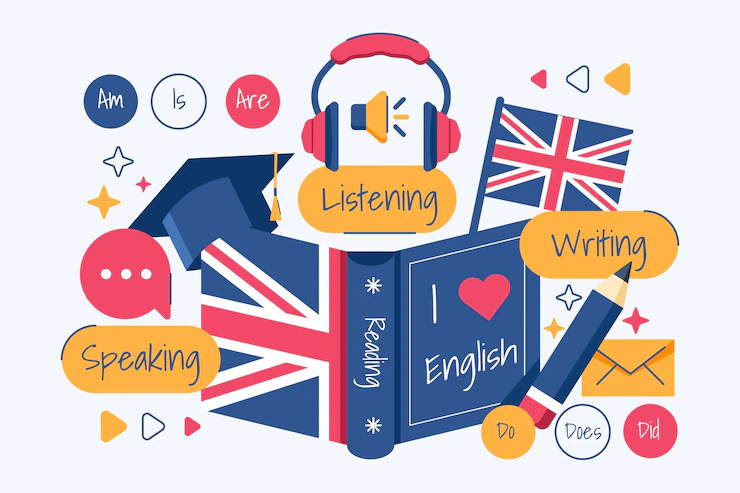
[Clapingo](https://clapingo.com/) is a popular language learning platform that offers different English learning courses for students, homemakers, professionals, and other language learners. The platform has a wide range of English learning courses, such as for [kids](https://clapingo.com/kids) and [IELTS](https://clapingo.com/ielts), with varying [fees](https://clapingo.com/#plans) depending on the length and scope of the course.
Clapingo’s English learning courses are designed to help you build strong foundations in English grammar, [vocabulary](https://clapingo.com/blog/daily-use-english-words), [sentence formation](https://clapingo.com/blog/sentence-formation-english), and pronunciation. These [lectures](https://clapingo.com/blog/english-lectures-improve-english) are highly engaging, interactive, and delivered by highly experienced and qualified instructors in one-on-one personalized classes.
**The key features of Clapingo include:**
* One-on-one sessions
* Self-paced learning
* Access to resources for practice
* Tailored lesson plans
* Regular assessments
* Choice of tutor
* Flexible schedule
### Clapingo's English Learning Course Fees
The English learning course fees charged vary depending on the duration of the course and the type of learning model you choose. The platform also offers a free trial class at just INR 99 that you can take to decide if the course is right for you.
### **Course**
### **Speak English Fluently**
### **Spoken English Course for Kids**
### **IELTS Speaking Skills**
**Duration**
6 months
6 months
3 months
**No of sessions**
120
60
36
**Fees**
**INR** **2729 per month**
**INR 3500 per month**
**INR 5400 per month**
You can find the reviews of Clapingo's previous users on YouTube. Check this one out:
British Council's English Speaking Course
-----------------------------------------
British Council is a renowned organization that offers high-quality English learning courses for individuals looking to improve their speaking skills. Their courses are designed by experienced and certified trainers who use the latest teaching methods and techniques to make learning effective, fun, and engaging. Here's how they work.
One standout feature of British Council's live English classes is that they are available 24\*7. This means that you can schedule your classes at any time of the day, making it convenient for individuals with busy schedules.
**Key features of British Council's English Speaking Course:**
* Experienced and certified trainers
* Latest teaching methods and techniques
* Customized lesson plans
* 24\*7 availability
* Badges and certificates upon completion of the course
### British Council's English Speaking Course Fees
British Council's English-speaking course fees vary depending on the duration of the course and the type of learning model chosen. However, they offer a 7-day free trial class for individuals to experience their teaching style and decide if the course is suitable for them.
### Plans
### Silver
### Gold
### Platinum
**Credits**
5
10
15
**Sessions**
* 5 private or group classes
* 4 webinars per month
* 10 private or group classes
* 4 webinars per month
* 15 private or group classes
* 4 webinars per month
**Fees**
**INR 6587 per month**
**INR 7600 per month**
**INR 10300 per month**
Rapidex's English Speaking Course
---------------------------------
Rapidex's English Speaking Course is another popular choice for individuals looking to improve their English speaking skills. This course has been around for over 40 years and has helped millions of learners enhance their English skills.
The course follows a structured approach, starting from basic grammar and vocabulary to advanced conversation practice. It offers offline materials like books, making it suitable for learners without consistent internet access. They also include audio-visual aids, such as CDs and DVDs, to improve listening and speaking skills.
Compared to other courses on this list, Rapidex's English Speaking Course has a more traditional approach but is still an effective and comprehensive way to learn English in times of technology. The course is suitable for all age groups and levels, making it a popular choice among users. It is available in multiple languages, catering to a wider audience.
**Key features of Rapidex's English Speaking Course:**
* 40+ years of experience
* Structured approach
* Offline materials available
* Audio-visual aids for listening and speaking practice
* Suitable for all age groups and levels
### Rapidex's English Speaking Course Fees
The fees for Rapidex's English Speaking Course include the cost of the book and other materials, making it an affordable option for learners. The cost of some of their course books are given below:
* **Building Vocabulary by Words Groups**: INR 195.00
* **Improve Your English**: INR 160.00
* **Business English**: INR 340.00
* **Correct English Usage**: INR 195.00
You can check the pricing of all language versions and the different Rapidex courses available here. Though these courses offer affordable options, they lack a personalized approach.
Spoken English Guru's English Speaking Course
---------------------------------------------
Spoken English Guru is a popular online platform for learning English through YouTube videos, e-books, and online courses. Their YouTube channel has over 7 million subscribers and offers free classes on basic grammar, vocabulary, sentence structure, and conversation skills.
In addition to the tutorials, Spoken English Guru also provides study materials such as e-books and audio files for offline practice. These materials are available in both Hindi and English. These prove to be useful for learners who prefer self-study and have limited access to the internet.
Spoken English Guru has a paid online 90-day English Speaking Course that offers video lessons and written materials. The course is designed for individuals who want a structured learning experience. Upon completion, learners also receive a certificate.
Key features of Spoken English Guru include:
* Free YouTube tutorials
* Study materials for offline practice
* Available in Hindi and English
* Paid online course with video lessons and written materials
* Certificate upon completion
### Spoken English Guru's English Speaking Course Fees
Spoken English Guru's online 90-day English Speaking Course is priced at ₹1,999. However, they often have discounts and offers, making the course more affordable for interested learners. You can check this Clapingo article for an in-depth comparison between Clapingo and Spoken English Guru: [Spoken English Guru or Clapingo: which is better? | Clapingo](https://clapingo.com/blog/spoken-english-guru-clapingo)
Cambly English Speaking Course
------------------------------
Cambly is an online platform that offers live video chat lessons with native English tutor. The main goal of the Cambly English Speaking Course is to provide learners with real-life conversation practice.
The course offers a personalized learning experience where learners can select their preferred topics and conversation partners based on their interests and goals. This allows for a more engaging and effective learning experience.
Cambly also offers 'Cambly MiniLesson' that lets users practice their English speaking with the Cambly AI tutor. This feature is available for free and allows learners to improve their pronunciation, vocabulary, and grammar.
Key features of the Cambly English Speaking Course include:
* Live video chat lessons with native English speakers
* Personalized learning experience
* Select preferred topics and conversation partners
* Free trial lesson available
### Cambly's English Speaking Course Fees
Cambly's prices for its English-speaking course vary based on the chosen package, with costs ranging from INR 1,417 to INR 2,249 per month. For detailed information on Cambly cost, including Cambly Kids, you can refer to the pricing plans table.
**Course**
**Complete**
**Group**
**Kids**
**Classes**
Practice 1:1 or in a group
Work with a tutor and 1-2 other students
1:1 time with specialized tutors
**Fees**
Starting from INR 1,417 per month
Starting from INR 1,512 per month
Starting from INR 2,249 per month
A Quick Comparison of the Top English-Speaking Courses
------------------------------------------------------
Now that we have reviewed the top online English-speaking courses, let's do a quick comparison to help you choose the best one for your needs.
**Clapingo**
6 months
INR 2729 per month
**British Council**
Monthly-based
INR 6587 - INR 10,300 per month
**Rapidex**
Offline materials/self-paced
INR 215 - INR 500, depending on the book
**Spoken English Guru**
3 months
INR 1,999/6 months validity
**Cambly**
Self-paced
Starting from INR 1,417 per month
As you can see, the duration and fees vary for each course. It's important to consider your learning goals and budget when making a decision. Remember, value for money weighs more than the cost of plans when choosing a good English-speaking course. Investing in a good English-speaking course can have a significant impact on your communication skills and career opportunities.
Wrapping Up
-----------
Improving your English communication skills is essential in today's globalized world. We have looked at the features and the prices of various English-speaking courses available in India. The above-mentioned online courses are some of the best options available for learners who want to improve their spoken English. Consider your learning goals, preferred learning style, and the English Speaking Course fees before making a decision. And remember, practice makes perfect! So be consistent and dedicated in your learning journey.
Frequently Asked Questions (FAQs)
---------------------------------
**1.** **Can I join the course if I am a beginner in English?**
Yes, most of the courses mentioned offer beginner-level programs. However, it's always a good idea to check the course description and curriculum to ensure it aligns with your learning needs.
**2.** **Are these courses suitable for non-native speakers?**
Absolutely! These courses are designed for non-native English speakers looking to improve their speaking skills. They cover a variety of topics and provide ample practice opportunities to enhance your fluency and accuracy.
**3.** **Will I receive a certificate upon completion of the course?**
It depends on the course you choose. Some courses offer certificates while others do not. Make sure to check the details before enrolling.
**4.** **Can I access these courses from anywhere in the world?**
Yes, in the internet age, all of these online courses can be accessed from anywhere with an internet connection. However, some courses may have specific time zones for live classes or assignments, so be sure to check before enrolling.
**5.** **How much time should I dedicate to these courses?**
It depends on your individual learning pace and the course structure. Most courses offer a suggested timeline, but you can also adjust it according to your schedule and goals. Remember, consistency is key in language learning.
---
This blog is powered by Superblog. Visit https://superblog.ai to know more.
---
## Boost Your English Listening Skills: Tips And Techniques To Enhance Your Comprehension
Author: Unknown
Published: 2023-10-18
Meta Title: Improving Listening Skills in English: Practical Tips
Meta Description: Enhance your language proficiency with effective listening techniques. Improve your listening skills in English for better comprehension and communication.
Tags: English Listening Skills, Basics of Listening Skills
URL: https://clapingo.com/blog/listening-skills-english
Contents
* [Importance of Listening Skills in English Language](#importance-of-listening-skills-in-english-language)
* [Understanding the Basics of Listening Skills in English](#understanding-the-basics-of-listening-skills-in-english)
* [Techniques to Improve Listening Skills](#techniques-to-improve-listening-skills)
* [Engage in regular practice through active exposure to native speakers or audio resources:](#engage-in-regular-practice-through-active-exposure-to-native-speakers-or-audio-resources)
* [Utilise podcasts, audiobooks, movies, or TV shows as learning tools:](#utilise-podcasts-audiobooks-movies-or-tv-shows-as-learning-tools)
* [Select appropriate materials:](#select-appropriate-materials)
* [Create a dedicated study routine:](#create-a-dedicated-study-routine)
* [Strategies to Enhance Comprehension During Listening Activities](#strategies-to-enhance-comprehension-during-listening-activities)
* [Overcoming Challenges and Difficulties in Listening](#overcoming-challenges-and-difficulties-in-listening)
* [Learn to recognize different accents or dialects:](#learn-to-recognize-different-accents-or-dialects)
* [Develop strategies to handle fast-paced speech or complex language structures:](#develop-strategies-to-handle-fast-paced-speech-or-complex-language-structures)
* [Break down sentences into meaningful chunks:](#break-down-sentences-into-meaningful-chunks)
* [Practice active listening:](#practice-active-listening)
* [Utilizing Supportive Resources to Enhance Listening Skills](#utilizing-supportive-resources-to-enhance-listening-skills)
* [Practical Tips to Incorporate Listening Practice into Daily Life](#practical-tips-to-incorporate-listening-practice-into-daily-life)
* [The Role of Clapingo in Enhancing English Listening Skills](#the-role-of-clapingo-in-enhancing-english-listening-skills)
* [Key Takeaways](#key-takeaways)
* [FAQs](#faqs)

Importance of Listening Skills in English Language
--------------------------------------------------
Studies show that listening skills in English are vital for effective communication and overall language proficiency. When you improve your listening skills in English, you open doors to countless opportunities, both personally and professionally.
* Firstly, enhanced listening skills allow for better comprehension of spoken English. This means you can understand conversations, lectures, presentations, and other forms of oral communication more easily. Improved comprehension leads to increased confidence in speaking and [writing in English](https://clapingo.com/blog/how-to-improve-english-writing-skills).
* Secondly, strong listening skills aid in effective communication. By actively listening to others, you can respond appropriately and engage in meaningful conversations. This helps build relationships and fosters a positive learning environment.
* Thirdly, good listening skills can boost career prospects. Many jobs require excellent verbal communication skills, and employers value individuals who can listen attentively to instructions, feedback, and colleagues.
These factors suggest that the importance of listening skills in English cannot be overlooked. By prioritizing the development of your listening skills in the English language and practicing consistently you will enhance your overall language proficiency and open up new opportunities for growth.
Understanding the Basics of Listening Skills in English
-------------------------------------------------------
To truly enhance your English listening skills, it's important to understand the basics. Let's dive into what listening skills are and how they play a crucial role in language acquisition.
Listening skills in English refer to the ability to comprehend spoken English and understand its meaning. They are fundamental for effective communication and overall language proficiency. Without strong listening skills, it becomes challenging to engage in conversations or comprehend complex information.
There are two major types of listening: active listening and passive listening.
**Active listening**
* Involves giving full attention and focus on the speaker's words,
* Involves responding appropriately
**Passive listening**
* More casual listening
* Listening without actively engaging with the content.
Key elements of effective listening include focus, concentration, and attentiveness. It's crucial to eliminate distractions and actively engage with the material being listened to.
Techniques to Improve Listening Skills
--------------------------------------

To truly excel in the English language, it is crucial to develop strong listening skills. The ability to comprehend spoken English is a fundamental aspect of effective communication and language proficiency. Here are some techniques that can help you improve your listening skills in English:
### Engage in regular practice through active exposure to native speakers or audio resources:
Actively immerse yourself in the language by listening to lectures, podcasts, audiobooks, movies, or TV shows in English. This exposure will not only enhance your understanding but also familiarise you with different accents and vocabulary.
### Utilise podcasts, audiobooks, movies, or TV shows as learning tools:
These resources provide a wealth of authentic content that can expose you to various topics and styles of conversation. Choose materials that align with your proficiency level to ensure optimal comprehension and learning. This could be a helpful resource for you: Podcasts | LearnEnglish
### Select appropriate materials:
It is essential to choose listening materials that match your current level of proficiency. Starting with materials that are too advanced can be discouraging and hinder progress. Gradually increase the difficulty level as your skills improve.
### Create a dedicated study routine:
Consistency is key when it comes to improving any skill, including listening. Set aside specific time slots each day for focused English listening skills practice sessions. This routine will help you stay committed and track your progress over time.
By incorporating these techniques into your language learning journey, you can strengthen your listening skills and ultimately enhance your overall proficiency in English.
Strategies to Enhance Comprehension During Listening Activities
---------------------------------------------------------------

To enhance your comprehension during listening activities and improve your English listening skills, it is essential to employ effective strategies. These strategies will help you stay focused, grasp key information, and retain what you have learned. Here are some techniques to enhance comprehension:
**1\. Developing pre-listening techniques**: Before engaging with the material, set the context and activate prior knowledge. Preview titles, headings, and summaries to get an idea of what to expect.
**2\. Making predictions and generating questions**: Based on the topic or theme, try to anticipate what you might hear. This will help you actively engage with the content and stay mentally involved throughout.
**3\. Using note-taking strategies**: Taking notes is crucial for effective comprehension. Follow these simple steps for effective note-taking:
* Employ abbreviations, symbols, keywords, and short phrases to jot down important points.
* Structure your notes using headings or subheadings for easy review.
By implementing these strategies in your listening practice sessions, you can significantly enhance your understanding of spoken English and boost your overall language proficiency.
Overcoming Challenges and Difficulties in Listening
---------------------------------------------------
Listening skills in English are crucial for effective communication and language proficiency. However, many learners face challenges when it comes to English listening comprehension. Don't worry, though! There are several strategies you can use to overcome these difficulties and enhance your listening skills.
### Learn to recognize different accents or dialects:
English is spoken in various accents around the world. Expose yourself to different accents by listening to podcasts, watching movies, or engaging in conversations with native speakers. This will help you become more comfortable with diverse speech patterns.
### Develop strategies to handle fast-paced speech or complex language structures:
Start by listening to slower-paced audio materials and gradually work your way up to faster ones. Practice focusing on keywords and phrases rather than trying to understand every single word. Additionally, familiarise yourself with common idioms and expressions used in everyday conversation.
### Break down sentences into meaningful chunks:
Long sentences can be challenging to follow, especially for non-native speakers. Try breaking them down into smaller parts and identifying the subject, verb, object, etc., which will help you grasp the meaning more easily.
### Practice active listening:
Engage actively while listening by making mental notes of the main ideas, key details, or any questions that arise during the process. This will help improve your comprehension and retention of information.
By implementing these strategies and consistently practicing your English Listening Skills, you'll gradually overcome obstacles and become a more confident listener.
Utilizing Supportive Resources to Enhance Listening Skills
----------------------------------------------------------
To boost your English listening skills, it's important to utilize supportive resources that can provide targeted practice and exposure. Here are some effective online tools, courses, and exercises you can incorporate into your learning journey:
**Type of Resource**
**Examples**
**Benefits**
Online Courses
[Clapingo](https://clapingo.com/)
* Offers paid 1:1 English coaching sessions.
* Provides personalized coaching for improving listening skills through interactive sessions with experienced tutors.
* The tailored approach focuses on addressing individual needs and helping learners enhance their overall language proficiency.
Reputable Websites
Cambridge English
* Offer a wide range of listening exercises and materials.
* You can access audio samples, podcasts, and other resources designed to improve your English listening comprehension.
Listening Exercises
YouTube
* Excellent platform for active exposure to native speakers or audio resources.
* Provides engaging videos with interactive captions, allowing you to practice listening skills in a fun and immersive way.
Podcasts and Audiobooks
Spotify
* Offers a variety of podcasts suitable for different proficiency levels.
Audible
* Provides audiobooks for improving listening skills.
* Expose you to different accents, vocabulary, and sentence structures.
By incorporating these supportive resources into your daily routine, you can enhance your English listening skills effectively. Remember, consistent practice and exposure are key to significant improvement in your language proficiency.
Practical Tips to Incorporate Listening Practice into Daily Life
----------------------------------------------------------------

Boosting your English listening skills is not just about studying textbooks or attending classes. It requires incorporating listening practice into your daily life. Here are some practical tips to help you enhance your comprehension skills:
**1\. Listen to English songs, podcasts, or audio lessons during commutes**: Make the most of your daily travel time by immersing yourself in English content. Whether it's catchy tunes or informative podcasts, listening on the go can greatly improve your understanding and pronunciation. This article sums this up well: [Can listening to songs help you improve your Spoken English | Clapingo latest Blog | 2022](https://clapingo.com/blog/can-listening-to-songs-help-you-improve-your-spoken-english-ckxga26vi03801jp75te3i8hx)
**2\. Integrate listening activities into everyday routines**: Turn [mundane tasks](https://clapingo.com/blog/learn-english-while-sleeping) such as cooking or cleaning into language learning opportunities. Play English-language TV shows or movies in the background while you work, allowing you to absorb the language effortlessly. Check out this interesting article: [Can I Improve My English Language Skills By Listening To Christmas Music| Clapingo English Blog 2022](https://clapingo.com/blog/improve-english-language-skills-by-listening-to-christmas-music-sitessupernameclapingopostsckxrpyxbp246981kn864wh88dq)
**3\. Watch English TV shows or movies with and without subtitles**: Start by watching with subtitles to grasp the context and familiarise yourself with new vocabulary. As your listening skills progress, challenge yourself by gradually removing the subtitles for a more immersive experience.
By incorporating these simple habits into your daily routine, you can actively work on improving your English listening skills outside of formal study settings.
The Role of Clapingo in Enhancing English Listening Skills
----------------------------------------------------------
At [Clapingo](https://clapingo.com/), we understand the importance of developing strong listening skills in English. That's why we offer a personalized English coaching platform to help learners enhance their listening skills and overall language proficiency.
With Clapingo, you can benefit from interactive sessions with experienced tutors who will guide you through targeted practice activities, tailored to your specific needs. Our tutors are well-equipped to provide you with the necessary tools and techniques to improve your listening skills effectively.
By joining Clapingo, you'll have access to a supportive learning environment where you can engage in real-time conversations and receive immediate feedback on your pronunciation, vocabulary, and understanding. Through regular practice and exposure, you'll see significant improvement in your English listening skills.
So why wait? Take advantage of the benefits of personalized coaching that Clapingo offers and start boosting your English listening skills today!
Key Takeaways
-------------
Developing strong listening skills in English is crucial for improving overall language proficiency. By enhancing your ability to listen, you can effectively communicate and comprehend spoken English. Consistent practice and exposure to native speakers or audio resources are key to boosting your listening skills.
Remember these key takeaways:
* Active exposure to native speakers or audio resources is essential for regular practice.
* Utilise podcasts, audiobooks, movies, and TV shows as learning tools.
* Select materials that match your proficiency level to enhance comprehension.
* Create a dedicated study routine for consistent improvement.
To achieve significant improvement in your listening skills and overall language proficiency, consider Clapingo as a reliable platform for personalized English coaching sessions with experienced tutors. Clapingo offers interactive sessions tailored to enhance your listening skills effectively.
That wraps up our exploration of techniques and strategies to boost your English listening skills! Incorporate these tips into your daily routine and enjoy the progress you make. Remember, consistent practice and exposure will lead to significant improvement over time.
FAQs
----
1: How to improve listening skills in English?
To improve your listening skills in English, you can start by actively exposing yourself to native speakers or audio resources. Regular practice is key, so try incorporating podcasts, audiobooks, movies, or TV shows into your learning routine.
2: What are the major listening skills in English?
The major listening skills in English include active and passive listening. Active listening involves focusing, concentrating, and being attentive to the speaker or audio material. Passive listening refers to casually hearing and absorbing information without actively engaging with it.
3: How to improve English listening skills?
To improve your English listening skills, you can try various strategies such as exposing yourself to native speakers or audio resources regularly. Additionally, using podcasts, audiobooks, movies, or TV shows as learning tools and following a consistent study plan can be beneficial.
4: How to improve listening skills in English for students?
Students can enhance their listening skills in English by actively exposing themselves to native speakers or audio resources through regular practice is vital. Utilizing podcasts, audiobooks, movies, or TV shows as learning tools can also aid in improvement. Students should select materials that suit their proficiency level and establish a dedicated study routine for consistent progress.
---
This blog is powered by Superblog. Visit https://superblog.ai to know more.
---
## Mastering Basic English: A Comprehensive Guide for Language Learners
Author: Unknown
Published: 2023-10-18
Meta Title: How to Learn Basic English Easily: A Step-by-Step Guide
Meta Description: Discover practical tips and resources to learn basic English grammar, speaking, vocabulary, and more. Start your journey towards English fluency today!
Tags: Guide for Language Learners, importance of basic English
URL: https://clapingo.com/blog/learn-basic-english
Contents
* [](#)
* [Getting Started: The Importance of Learning Basic English](#getting-started-the-importance-of-learning-basic-english)
* [Starting from Basics: Steps to Learn Basic English Grammar](#starting-from-basics-steps-to-learn-basic-english-grammar)
* [Speak Up! Steps to Learn Basic English Speaking](#speak-up-steps-to-learn-basic-english-speaking)
* [Words Matter! Steps to Learn Basic English Vocabulary](#words-matter-steps-to-learn-basic-english-vocabulary)
* [Use Different Methods for Learning New Words:](#use-different-methods-for-learning-new-words)
* [Read and Watch Movies in English:](#read-and-watch-movies-in-english)
* [Emphasize the Importance of Context:](#emphasize-the-importance-of-context)
* [Useful Beginner-Friendly Resources for Vocabulary Building:](#useful-beginner-friendly-resources-for-vocabulary-building)
* [Forming Sentences: Steps to Learn Perfect Sentence Formation](#forming-sentences-steps-to-learn-perfect-sentence-formation)
* [Tune In! Steps to Learn English from Basics through Effective Listening](#tune-in-steps-to-learn-english-from-basics-through-effective-listening)
* [Watch Movies with and Without Subtitles:](#watch-movies-with-and-without-subtitles)
* [Listen to Podcasts or Audiobooks:](#listen-to-podcasts-or-audiobooks)
* [Participate in Conversation Clubs or Language Exchange Platforms:](#participate-in-conversation-clubs-or-language-exchange-platforms)
* [Use Online Resources:](#use-online-resources)
* [Putting It into Practice: Learning Basic English by Seeking Speaking Opportunities](#putting-it-into-practice-learning-basic-english-by-seeking-speaking-opportunities)
* [Clapingo: Your Partner in Learning Basic English](#clapingo-your-partner-in-learning-basic-english)
* [FAQs](#faqs)

Getting Started: The Importance of Learning Basic English
---------------------------------------------------------
Learning a new language can be an exciting and rewarding journey. If you are reading this article, congratulations! You have taken the first step towards learning basic English. This article is designed for individuals who are starting from scratch and want to learn English or improve their basic language skills.
Learning basic English is crucial because it forms the foundation for effective communication in both personal and professional settings. By mastering the basics, you will be able to overcome common challenges faced by English language learners, such as difficulty in understanding conversations, struggling to express ideas, and lacking confidence in speaking.
The benefits of learning basic English extend beyond just communication. It opens doors to new opportunities, enhances job prospects, allows you to connect with a wider audience, and boosts your overall self-confidence.
The aim of this article is to guide you step by step through the process of learning basic English. We will cover essential areas such as grammar, speaking, vocabulary, sentence formation, listening skills, and practical application in real-life scenarios.
Throughout this journey, remember that consistency and regular practice are key. Learning any language takes time and effort, but with dedication and perseverance, you will achieve your goals.
Let's embark on this exciting adventure together! In the following sections of this article, we will explore each aspect of learning basic English in detail. From grammar rules to speaking practice, vocabulary acquisition to sentence formation techniques - we have got you covered!
Starting from Basics: Steps to Learn Basic English Grammar
----------------------------------------------------------

Grammar forms the foundation of any language, and learning basic English grammar is crucial for effective communication. Whether you are a beginner or have some prior knowledge, mastering grammar will help you build confidence in your English skills. Here are some steps to get started:
**1\. Understand the Importance of Grammar:**
Grammar provides a structure to communicate ideas clearly. It helps in forming coherent sentences, understanding others' messages accurately, and expressing yourself fluently.
**2\. Learn Basic Grammatical Rules:**
Start by familiarizing yourself with basic grammatical concepts such as subject-verb agreement, tenses, articles, and prepositions. Online resources like Clapingo's "Basic English Grammar Guide" offer simple explanations and examples to help you grasp these concepts easily.
**3\. Practice Grammar Exercises and Quizzes:**
Regular practice is essential for reinforcing your understanding of grammar rules. Solve exercises and quizzes that focus on specific grammar topics such as verb conjugation or sentence formation. Websites like Clapingo provide interactive exercises tailored for beginners.
**4\. Be Consistent in Your Practice:**
Consistency is key when learning grammar. Dedicate regular time to study and practice grammar exercises daily or several times a week. This will help you internalize the rules and make them second nature.
**5\. Utilize Beginner-Friendly Resources:**
To supplement your learning, explore beginner-friendly resources like English Grammar in Use by Raymond Murphy or The Blue Book of Grammar and Punctuation by Jane Straus.
**6\. Seek Feedback and Clarification:**
Whenever possible, engage with a teacher or native English speaker who can provide feedback on your grammar usage. This will help you identify areas for improvement and gain valuable insights into common mistakes made by English learners.
Remember, learning grammar takes time and patience. Don't be afraid to make mistakes; they are a natural part of the learning process. With consistent practice and determination, you will gradually build a strong foundation in English grammar.
Speak Up! Steps to Learn Basic English Speaking
-----------------------------------------------

Speaking is a crucial aspect of learning any language, including English. It not only helps you develop fluency but also boosts your confidence and ability to communicate effectively. If you're wondering how to learn basic English speaking, here are some simple steps that can help you on your journey:
* **Engage in Conversation with Native Speakers or Language Exchange Partners:**
One of the best ways to improve your speaking skills is by engaging in conversation with native English speakers or language exchange partners. This provides you with an opportunity to practice speaking in a real-life context and exposes you to natural pronunciation and vocabulary usage.
* **Overcome Shyness and Fear:**
Many learners feel shy or fearful when speaking in English, especially if they're worried about making mistakes. Remember that making mistakes is a natural part of the learning process, and it's through these mistakes that we grow. Don't be afraid to speak up! The more you practice, the more confident you'll become.
* **Regular Listening Practice:**
Improving your pronunciation and intonation goes hand in hand with speaking skills. Regularly listening to native speakers will help you understand the rhythm, stress, and melody of the language. It will also expose you to different accents and help you improve your overall comprehension skills.
* **Beginner-friendly Resources for Speaking:**
To enhance your learning experience, here are two useful beginner-friendly resources for improving your speaking skills:
* This YouTube playlist provides short dialogues on various everyday topics: Daily English Conversation (YouTube)
* The Speak English Daily app offers daily conversation practice through interactive audio lessons.
Remember, consistent practice is key when it comes to developing your speaking abilities. Don't hesitate to start small by engaging in simple conversations with friends or even practicing alone in front of a mirror. Every little effort counts!
By following these steps and embracing opportunities to speak, you'll gradually build your speaking skills and gain confidence in using basic English in everyday conversations.
Check this YouTube video to learn how Clapingo can help you improve English speaking skills:
Words Matter! Steps to Learn Basic English Vocabulary
-----------------------------------------------------
Building a strong vocabulary is an essential aspect of learning basic English. By expanding your word bank, you can communicate effectively and express your thoughts with confidence. Here are some steps to help you learn basic English vocabulary:
### Use Different Methods for Learning New Words:
Here is a table showing different tools and methods to learn new words comfortably:
**Flashcards**
Create flashcards with new words and their meanings. Review them regularly to reinforce your memory.
**Word Lists**
Compile word lists based on different themes or topics. This will help you remember words in context.
**Vocabulary-Building Exercises**
Engage in exercises specifically designed to enhance your vocabulary skills, such as matching activities, crossword puzzles, or word associations.
### Read and Watch Movies in English:
* Reading extensively exposes you to a variety of words and phrases in different contexts. Start with simple books or articles and gradually move on to more complex texts.
* Watching movies in English not only improves listening skills but also exposes you to natural spoken language and idiomatic expressions. Use subtitles initially if needed, but try to gradually wean off them as your comprehension improves.
### Emphasize the Importance of Context:
* Understanding the context in which a word is used helps you grasp its meaning accurately. Pay attention to how words are used in sentences or conversations.
* Use online dictionaries or tools like Thesaurus, which provide meanings, synonyms, and antonyms for each word, allowing you to understand its usage within a specific context.
### Useful Beginner-Friendly Resources for Vocabulary Building:
* Clapingo's blogs: Clapingo has a series of blog articles that introduce common words used in everyday conversations along with their meanings and example sentences. You can check them out here:
[100+ Daily Use English Words for Fluent Communication (](https://clapingo.com/blog/daily-use-english-words)[clapingo.com](//clapingo.com)[)](https://clapingo.com/blog/daily-use-english-words)
[Spoken English Words List To Learn English Under 15 Days! | Clapingo](https://clapingo.com/blog/spoken-english-words)
* Oxford English Dictionary (OED): OED is an authoritative resource that provides comprehensive definitions, synonyms, antonyms, and examples of word usage.
Remember, building vocabulary takes time and effort. Be consistent in your practice and strive to learn a few new words every day. Over time, you'll witness significant improvement in your language skills.
Forming Sentences: Steps to Learn Perfect Sentence Formation
------------------------------------------------------------
Forming sentences is a crucial aspect of learning basic English. It allows you to express your thoughts and ideas clearly and effectively. In this section, we will break down the process of sentence formation into simple steps and provide you with resources to enhance your understanding.
**1\. Understanding Subject-Verb-Object Construction:**
* Start by understanding the basic structure of a sentence, which typically follows the subject-verb-object (SVO) pattern.
* For example, "She (subject) eats (verb) an apple (object)."
* Practice constructing simple sentences using this structure and gradually move on to more complex ones.
**2\. Familiarizing with Different Sentence Structures:**
* Familiarize yourself with different sentence structures such as simple, compound, and complex sentences.
* Simple sentences consist of one independent clause.
* Compound sentences join two or more independent clauses using coordinating conjunctions like "and," "but," or "so."
* Complex sentences combine independent clauses with dependent clauses using subordinating conjunctions like "although," "because," or "while."
**3\. Regular Writing Practise:**
* Enhance your sentence formation skills by engaging in regular writing practice.
* Start with simple sentences and gradually challenge yourself to construct more complex ones.
* Write about various topics, describe events or experiences, or even create stories using the sentence structures you have learned.
**4\. Resources for Sentence Formation:**
* This Clapingo article on sentence formation provides detailed explanations and examples: [Master English Sentence Formation: Beyond Grammar Basics (](https://clapingo.com/blog/sentence-formation-english)[clapingo.com](//clapingo.com)[)](https://clapingo.com/blog/sentence-formation-english)
* Explore YouTube tutorials on basic English conversation practice that focus on sentence construction.
By following these steps and utilizing the suggested resources, you can improve your ability to form grammatically correct and coherent sentences in English. Remember, practice is key, so take every opportunity to write and reinforce your understanding of sentence formation.
Tune In! Steps to Learn English from Basics through Effective Listening
-----------------------------------------------------------------------
Listening skills play a crucial role in language acquisition. By actively engaging with spoken English, you can improve your comprehension, expand your vocabulary, and develop a natural sense of intonation and pronunciation. Here are some steps to help you enhance your listening skills and learn basic English effectively:
### Watch Movies with and Without Subtitles:
Watching movies in English with subtitles is an excellent way to improve your listening comprehension. Start with movies that have clear dialogue and use subtitles as a guide to understand unfamiliar words or phrases. As you progress, challenge yourself by gradually reducing the reliance on subtitles.
### Listen to Podcasts or Audiobooks:
Podcasts and audiobooks provide valuable listening practice opportunities. Choose topics that interest you and listen attentively to grasp the meaning of the content. Take notes while listening to help reinforce your understanding and review them later.
### Participate in Conversation Clubs or Language Exchange Platforms:
Engaging in conversation clubs or language exchange platforms is an excellent way to actively practice your listening skills while interacting with native speakers or other English learners. These platforms provide real-life scenarios where you can sharpen your understanding of spoken English.
### Use Online Resources:
Applications like Spotify and Audible provide a number of podcasts and audiobooks to help you improve your listening comprehension skills. Additionally, there are numerous YouTube videos available that focus on improving listening comprehension for beginners. This Clapingo article provides an interesting take on improving language skills by listening to songs: [Can listening to songs help you improve your Spoken English | Clapingo latest Blog | 2022](https://clapingo.com/blog/can-listening-to-songs-help-you-improve-your-spoken-english-ckxga26vi03801jp75te3i8hx)
Remember, active engagement is key when it comes to improving your listening skills in English. Make an effort to listen regularly, take notes, repeat phrases aloud, and analyze the content for better comprehension.
Putting It into Practice: Learning Basic English by Seeking Speaking Opportunities
-------------------------------------------------------------------------------------
Are you ready to take your basic English skills to the next level? One of the most effective ways to improve your English fluency is by seeking speaking opportunities. By actively engaging in real-life practice, you can enhance your confidence, overcome language barriers, and become a more fluent and proficient English speaker. Here are some tips on how to find and make the most of speaking opportunities:
* **Join public speaking clubs or language meetups**: Participating in public speaking clubs or attending language meetups can provide you with a supportive environment where you can practice speaking English with fellow learners. These platforms offer opportunities for group discussions, debates, and presentations, allowing you to refine your speaking skills in a friendly and encouraging setting.
* **Engage in role plays, debates, or presentations**: Role plays, debates, and presentations are excellent ways to put your English skills into practice. These activities allow you to apply what you have learned in real-life scenarios, improving your fluency and communication abilities. Additionally, participating in such activities helps build self-confidence and enhances your ability to express yourself effectively.
* **Don't worry about making mistakes**: Making mistakes is a natural part of the learning process. Don't be afraid to speak up even if you feel unsure about your language skills. The more you practice, the more comfortable and confident you will become.
Remember, perseverance is key. Learning basic English takes time and consistent effort. Don't get discouraged if progress seems slow at times. Keep practicing regularly and seeking out opportunities for conversation. This article could be helpful to you: [Master English Speaking Alone: Practical Tips & Strategies](https://clapingo.com/blog/practice-english-speaking-alone) ([clapingo.com](//clapingo.com))
By actively seeking speaking opportunities and embracing them with confidence and perseverance, you will see significant improvement in your basic English skills over time.
Clapingo: Your Partner in Learning Basic English
------------------------------------------------
Learning basic English is a crucial step towards personal and professional growth. It opens up a world of opportunities for career advancement, effective communication, and cultural understanding. As you embark on this exciting journey of learning basic English, Clapingo is here to be your trusted partner, supporting you every step of the way.
In this comprehensive guide, we have provided you with valuable insights on how to learn basic English grammar, speaking, vocabulary, sentence formation, listening skills, and seeking speaking opportunities. We have emphasized the importance of regular practice and consistency in mastering these skills.
At [Clapingo](https://clapingo.com/), our mission is to provide you with accessible resources and courses tailored to your needs. Whether you're a beginner or looking to improve your existing skills, we have something for everyone. With our user-friendly interface, engaging content, expert personalized guidance, native tutors for conversation practice, and continuous support we make learning basic English easy and enjoyable.
Explore our website today at [clapingo.com](https://clapingo.com/) and take advantage of the resources available to further your journey in learning basic English. Remember that with dedication and perseverance, success is within reach.
FAQs
----
**1\. How to learn basic English from basics?**
Learning basic English from scratch requires a solid foundation in grammar, vocabulary, speaking, listening, and sentence formation. Start by familiarizing yourself with basic grammar rules and practice regularly. Build your vocabulary by reading extensively in English and using flashcards or word lists. Engage in conversations with native speakers or language exchange partners to improve your speaking skills. Also, make sure to actively listen to podcasts or audiobooks for better comprehension.
**2\. How to learn basic English grammar?**
Understanding the basic rules of grammar is crucial for effective communication. Begin by grasping concepts like subject-verb agreement, verb tenses, and sentence structures. Practice using these rules through exercises and quizzes.
**3\. How to learn basic English speaking?**
Improving your spoken English involves regular practice and overcoming any shyness or fear you may have while speaking. Engage in conversations with native speakers or language exchange partners to gain confidence. Additionally, listen attentively to spoken English through podcasts or audiobooks to improve your pronunciation and intonation.
**4\. How to start learning English from basics?**
To start learning English from the basics, focus on building a strong foundation in grammar and vocabulary. Practice regularly through conversation clubs or language exchange platforms like Clapingo's Speaking Circle. Utilize beginner-friendly resources that provide step-by-step guidance.
**5\. How to learn English from basic to advanced?**
Progressing from basic to advanced-level English requires consistent effort and practice across all language skills: reading, writing, listening, and speaking. Challenge yourself by reading more complex texts, practicing writing sentences regularly, engaging in challenging conversations with advanced speakers, and utilizing resources like Clapingo's courses that cater to learners at different proficiency levels.
---
This blog is powered by Superblog. Visit https://superblog.ai to know more.
---
## List of Top 10 Online English-Speaking Courses in India
Author: Unknown
Published: 2023-10-12
Meta Title: Discover the Top Online English-Speaking Courses in India
Meta Description: Access expert guidance, flexible learning, and global opportunities by exploring the top online English-speaking courses in India to improve speaking skills.
Tags: English-Speaking Courses, Importance of English Speaking, top english speaking courses
URL: https://clapingo.com/blog/online-english-speaking-courses-in-india
Contents
* [Importance of English Speaking Skills](#importance-of-english-speaking-skills)
* [How to Improve Spoken English at Home](#how-to-improve-spoken-english-at-home)
* [Top 10 Online English-Speaking Courses in India](#top-10-online-english-speaking-courses-in-india)
* [Course 1: Clapingo’s Engaging Spoken English Classes](#course-1-clapingos-engaging-spoken-english-classes)
* [Course 2 - Henry Harvin Education](#course-2-henry-harvin-education)
* [Course 3 - British School of Languages](#course-3-british-school-of-languages)
* [Course 4 - Speechify](#course-4-speechify)
* [Course 5 - FluentU](#course-5-fluentu)
* [Course 6 - Zita's YouTube Channel](#course-6-zitas-youtube-channel)
* [Course 7: National Institute of Language's Integrated Personality Development Course](#course-7-national-institute-of-languages-integrated-personality-development-course)
* [Course 8 - National Institute of Language](#course-8-national-institute-of-language)
* [Course 9: iSchoolConnect's Online English-Speaking Courses](#course-9-ischoolconnects-online-english-speaking-courses)
* [Course 10: Udemy](#course-10-udemy)
* [Choosing the Right Online English-Speaking Course](#choosing-the-right-online-english-speaking-course)
* [FAQs](#faqs)

Importance of English Speaking Skills
--------------------------------------
English is not just a language but a tool that opens doors to endless opportunities. Mastering English speaking skills is essential in various aspects of life, including education, career opportunities, and social connections.
In the field of education, English plays a vital role. Most higher education institutions worldwide, especially in countries like the United States and the United Kingdom, conduct their courses in English. Proficiency in English enables students to access quality education globally and pursue their desired academic paths.
When it comes to career opportunities, English fluency is often one of the top requirements for many job positions. In today's interconnected world, businesses operate on a global scale, and effective communication in English becomes crucial for success. Being able to effectively communicate ideas and thoughts in English can boost confidence and help individuals stand out in professional settings.
Moreover, mastering spoken English can broaden social connections. It allows individuals to connect with people from different cultures and backgrounds, building bridges across borders. By speaking English fluently, individuals can engage in meaningful conversations and forge relationships that transcend geographical boundaries.
To help you understand the importance of mastering the English language further, I recommend reading our blog post on "[5 Importance Tips of Mastering the English Language"](https://clapingo.com/blog/5-importance-tips-of-mastering-the-english-language-ckumucdm913471ns9jbv4ftoz) from Clapingo. This article provides valuable insights into why mastering this language is crucial for personal growth and development.
The market is saturated with spoken English courses all vying for attention. It becomes important to separate the wheat from the chaff and identify the top courses that may be well-suited for you. For your benefit, we have listed the top 10 courses and analyzed their features and offerings. This will help you pick one that is suited to your requirements.
How to Improve Spoken English at Home
--------------------------------------
Improving spoken English skills doesn't always require formal classroom settings; you can enhance your communication abilities right from the comfort of your home. Here are some practical tips to help you improve spoken English at home:
**1\. Practice with native speakers:** One of the most effective ways to improve your spoken English is by conversing regularly with native speakers. This helps you familiarize yourself with the correct pronunciation, intonation, and rhythm of the language.
**2\. Watch English movies with subtitles:** Watching English movies with subtitles can enhance your listening skills and help you grasp new vocabulary and expressions. Pay attention to how native speakers articulate words and phrases.
**3\. Listen to English songs:** Listening to English songs exposes you to different accents and helps improve your pronunciation. Try singing along to the lyrics to practice your speaking skills.
**4\. Utilize online learning platforms:** Online learning platforms provide a wealth of resources for improving spoken English. They offer interactive lessons, practice exercises, and opportunities for conversation with other learners or native speakers.
To understand how online learning platforms can benefit your journey in improving spoken English further, I recommend reading our blog post on ["How To Learn English Speaking At Home" from Clapingo.](https://www.google.com/url?sa=t&rct=j&q=&esrc=s&source=web&cd=&cad=rja&uact=8&ved=2ahUKEwi1udSju-WAAxUURd4KHdMeCvsQFnoECBEQAQ&url=https%3A%2F%2Fclapingo.com%2Fblog%2Fhow-to-learn-english-speaking-at-home-clgwfnak2940643tpbikp9u8sy&usg=AOvVaw1wPXktzq_OdhN3T3NRdBFJ&opi=89978449) This article provides valuable insights into how to make the most out of online resources to effectively enhance your speaking skills.
Remember, consistency is key when it comes to improving spoken English. By incorporating these tips into your daily routine, you'll gradually see progress in your ability to communicate confidently in English.

Top 10 Online English-Speaking Courses in India
------------------------------------------------
Are you looking to improve your spoken English skills from the comfort of your own home? Look no further! In today's digital age, online English-speaking courses have become increasingly popular in India. These courses offer a convenient and flexible way to enhance your language skills on your own schedule.
With numerous options available, it can be overwhelming to choose the right course for you. That's why this section will highlight the top 10 online English-speaking courses in India, making your decision easier and more informed.
### Course 1: Clapingo’s Engaging Spoken English Classes

Clapingo is a renowned platform that specializes in teaching spoken English to Indian learners. Their expertise lies in providing engaging and interactive classes that focus on building fluency and confidence in spoken English. With experienced trainers and a carefully designed curriculum, Clapingo ensures that students receive personalized attention and guidance throughout their learning journey.
To learn more about how Clapingo can help you improve your spoken English skills, [visit their website.](https://www.clapingo.com/) Here, you'll find a detailed article highlighting the key features and benefits of their engaging spoken English classes. Don't miss out on this opportunity to take your English-speaking skills to new heights with Clapingo!
### Course 2 - Henry Harvin Education

Looking for one of the best institutes for an online English-speaking course in India? Look no further than Henry Harvin Education. With their comprehensive course, they focus on improving your fluency, grammar, and vocabulary skills, following the standards set by the Common European Framework.
**Advantages/Features**
**Description**
**1\. Comprehensive Course**
Henry Harvin Education offers a comprehensive course focusing on fluency, grammar, and vocabulary skills.
**2\. Fluency Enhancement**
The course includes ample practice opportunities and interactive sessions like discussions, debates, and role-plays to improve fluency.
**3\. Grammar and Vocabulary Emphasis**
Special attention is given to strengthening grammar and vocabulary skills with expert guidance and well-structured modules.
**4\. Correct Sentence Formation**
Students learn correct sentence formation, appropriate word usage, and idiomatic expressions to communicate accurately.
**5\. Alignment with European Framework**
The course aligns with the Common European Framework standards, offering international recognition and clear language proficiency levels (A1-C2).
**6\. Self-assessment Benchmark**
Upon completion, students gain a benchmark for self-assessment, helping them understand their language abilities for further studies or job opportunities abroad.
**7\. Personalized Feedback**
Experienced trainers provide personalized feedback on pronunciation, intonation, and speech delivery, boosting confidence in speaking English.
**8\. Confidence Building**
Completing the course boosts confidence, enabling students to speak English fluently without hesitation.
### Course 3 - British School of Languages

If you're looking for experienced English language teachers who can provide exceptional guidance throughout your learning journey, then the British School of Languages is the right choice for you. Their team of teachers is certified by renowned organizations such as the British Council, IDP, Cambridge, PTE, or TEDx.
**Advantages/Features**
**Description**
**1\. Certified Teachers**
The British School of Languages' teachers are certified by renowned organizations such as the British Council, IDP, Cambridge, PTE, or TEDx.
**2\. Wealth of Expertise**
Instructors bring extensive expertise and knowledge to their English-speaking courses, ensuring high-quality instruction.
**3\. Personalized Attention**
Experienced teachers offer personalized attention to address learners' challenges and adapt their teaching methods accordingly.
**4\. Solid Foundation**
Learning from certified teachers ensures accurate grammar, vocabulary usage, and pronunciation, laying a strong foundation for language proficiency.
**5\. Role Models and Inspiration**
Teachers serve as role models, inspiring and motivating learners to achieve their goals. They also foster soft skills development, including confidence, effective communication, and intercultural understanding.
**6\. High-Quality Learning Experience**
Choosing the British School of Languages guarantees a top-notch learning experience, backed by instructors' certifications and expertise in teaching English as a second language.
### Course 4 - Speechify

Looking for a platform that provides maximum practice in English speaking to improve your fluency? Look no further than Speechify! Speechify is an exceptional online English learning platform that focuses on helping learners develop their speaking skills through regular practice and interactive sessions. With Speechify, you can take your spoken English to the next level.
At Speechify, they believe that practice makes perfect. That's why they have designed their courses to allow students to speak for a minimum of 50-70% of the class duration. This approach ensures that learners get ample opportunities to apply what they have learned and build their confidence in speaking English. Whether it's engaging in discussions, giving presentations, or participating in role-plays, Speechify provides a supportive environment for learners to hone their speaking skills.
Regular practice is key when it comes to achieving fluency in English. With Speechify, you can have access to consistent practice sessions that will help you improve your fluency over time.
By incorporating interactive activities and real-life scenarios into their lessons, Speechify ensures that you are consistently exposed to authentic English language situations. This regular exposure allows you to gain confidence and fluency in expressing yourself in English.
### Course 5 - FluentU

Are you looking for an innovative way to improve your listening and speaking abilities? FluentU has got you covered! FluentU offers a unique approach to language learning by using authentic English videos with interactive subtitles. With FluentU, learning becomes exciting and enjoyable.
* FluentU offers authentic videos and self-study English language courses.
* Courses are suitable for learners of all levels, from beginners to advanced.
* Curated courses cater to specific needs and goals.
* FluentU covers various aspects of language learning, including vocabulary-building and pronunciation.
* Interactive subtitles feature aids in understanding words and phrases in real-time.
* Interactive subtitles help improve listening comprehension skills.
* Videos span diverse topics like news, entertainment, and everyday conversations.
* Exposure to different accents and contexts enhances the learning experience.
https://www.youtube.com/watch?v=M2FK\_LRXVu8
### Course 6 - Zita's YouTube Channel

Looking for an effective resource for learning English online? Don't miss out on Zita's YouTube channel! Zita offers a comprehensive course designed for effective learning with new concepts introduced daily. With Zita's YouTube channel, you can enhance your English language skills at your own pace.
* Zita's YouTube channel offers self-paced learning.
* Each video introduces new English language concepts, including grammar rules, vocabulary-building exercises, and communication tips.
* Lessons are presented in a clear and concise manner for easy comprehension.
* Maximizing the learning experience with Zita's channel involves regular concept revision.
* Revision reinforces learning and accelerates language skill development.
* Regularly revisiting lessons solidifies understanding of essential English language concepts.
So there you have it - three more fantastic online English-speaking courses that can help you on your journey to fluency! Take advantage of Speechify's maximum practice approach to speaking English, explore FluentU's unique use of authentic videos with interactive subtitles, and don't forget to check out Zita's YouTube channel for daily learning. Keep practicing and improving your spoken English skills!
### Course 7: National Institute of Language's Integrated Personality Development Course

Are you ready to not only improve your English speaking skills but also enhance your overall personality? Look no further than the National Institute of Language's Integrated Personality Development Course. This unique course goes beyond just language learning and focuses on developing your confidence, communication abilities, and personal growth.
Here are the unique features and highlights of this course:
**1\. Comprehensive Language Training:** The National Institute of Language provides a well-rounded approach to language learning. You will receive in-depth training in grammar, vocabulary, pronunciation, and fluency to ensure you become a proficient English speaker.
**2\. Interactive Sessions:** The course includes interactive sessions that encourage active participation. Through discussions, debates, role-plays, and group activities, you will have plenty of opportunities to practice speaking English in real-life situations.
**3\. Personality Development Modules:** In addition to language training, this course incorporates modules specifically designed for personality development. These modules cover areas such as public speaking, presentation skills, leadership skills, time management, emotional intelligence, and more.
**4\. Experienced Trainers:** The National Institute of Language boasts a team of experienced trainers who are dedicated to helping you reach your goals. They provide personalized attention and constructive feedback to help you improve both your English speaking abilities and overall personality.
To learn more about the National Institute of Language's Integrated Personality Development Course and enroll in this transformative program, visit their website.
### Course 8 - National Institute of Language
The National Institute of Language is a renowned institution that is certified by Cambridge Assessment English and the British Council for its excellence in providing language learning programs. Their online English-speaking course is designed to help learners improve their communication skills effectively.
Here's what sets their online course apart:
**1\. Certification:** By enrolling in the National Institute of Language's online English-speaking course, you will have the opportunity to earn a globally recognized certificate. This certification validates your language proficiency and can enhance your employability and educational prospects.
**2\. Integrated Personality Development Modules:** Alongside language training, the National Institute of Language offers integrated personality development modules. These modules focus on enhancing your confidence, presentation skills, interview techniques, and overall personality traits for personal and professional growth.
**3\. Flexible Learning Options:** The online platform provides you with the flexibility to learn at your own pace and convenience. You can access course materials anytime, anywhere, making it suitable for individuals with busy schedules or those who prefer self-paced learning.
To learn more about the National Institute of Language's online English-speaking course and how it can benefit you, visit their website.
### Course 9: iSchoolConnect's Online English-Speaking Courses

If you're looking for a wide range of online English-speaking courses that cater to different needs and skill levels, iSchoolConnect is the platform for you. They offer comprehensive courses designed to help learners improve their spoken English skills effectively.
Here's an overview of the courses available on iSchoolConnect:
**1\. Basic English Speaking Course:** This course is ideal for beginners who want to build a strong foundation in spoken English. It covers essential grammar rules, vocabulary-building exercises, pronunciation practice, and basic conversation skills.
**2\. Business English Course:** Designed for professionals or individuals looking to enhance their communication skills in a business context. This course focuses on business terminology, writing formal emails, making presentations, participating in meetings effectively, and improving overall business communication.
**3\. Interview Preparation Course:** If you're preparing for job interviews or entrance exams that require English proficiency, this course is perfect for you. It helps you sharpen your interview skills, build confidence while speaking in interviews or group discussions, and improve your overall communication during the selection process.
**4\. Advanced English Fluency Course:** For learners who want to take their English fluency to the next level, this course provides advanced grammar concepts, idiomatic expressions, advanced vocabulary, and opportunities for extensive speaking practice.
To explore the various English-speaking courses offered by iSchoolConnect and find the one that suits your needs, visit their website.
### Course 10: Udemy

Udemy, one of the leading online learning platforms, offers a wide range of free English learning resources. Whether you're a beginner looking to learn basic vocabulary or an advanced learner hoping to enhance your fluency, Udemy has courses to suit your needs.
Their courses cover various aspects of English language learning, including grammar, vocabulary, pronunciation, and conversation skills. You can find courses specifically designed for Indian learners as well. With the convenience of online learning, you can study at your own pace and from the comfort of your home.
To explore the free English learning resources available on Udemy, visit their website. Here you will find a vast selection of courses taught by experienced instructors from around the world. Simply browse through the course catalog and choose the ones that align with your goals and interests.
Whether you want to improve your spoken English or enhance your writing skills, Udemy has something for everyone. With their user-friendly interface and comprehensive course materials, you'll have everything you need to embark on a successful language-learning journey.
So why wait? Take advantage of this excellent opportunity to learn English for free with Udemy's high-quality courses. Visit their website today and start improving your English language skills.

Choosing the Right Online English-Speaking Course
--------------------------------------------------
When it comes to improving your English speaking skills, choosing the right online course is crucial for effective and efficient learning. With so many options available in India, it can be overwhelming to decide which one is best suited for your needs. To help you make an informed choice, let's summarize the key points discussed regarding the top 10 online English-speaking courses in India.
These courses vary in their approach and focus areas. Some prioritize fluency, while others emphasize grammar and vocabulary. It's important to consider your specific goals and requirements before making a decision.
While free courses may seem enticing, they often come with limitations. These courses may lack the comprehensive structure and personalized guidance offered by paid platforms. Additionally, the absence of professional instructors may hinder your progress in developing accurate pronunciation and intonation.
One highly recommended platform for online English courses is Clapingo. With a specialization in helping Indian learners develop their English speaking and writing skills, Clapingo offers a reliable and effective learning experience. Their courses are designed to provide both professional and personal development opportunities.
To learn more about Clapingo's offerings, [visit their website.](//www.clapingo.com) You'll find a wide range of courses tailored to meet your individual needs, whether you're looking to improve your fluency, enhance your grammar skills, or boost your confidence in speaking English.
In conclusion, choosing the right online English-speaking course is paramount in improving your language skills effectively. Consider your goals, preferences, and learning style when selecting a course. Remember that investing in professional platforms like Clapingo can greatly enhance your language proficiency and open doors to numerous opportunities both academically and professionally. Take control of your English journey today!
FAQs
----
**1\. How do I choose the right online English-speaking course?**
Choosing the right online English-speaking course is crucial for your learning journey. Here are a few key factors to consider:
**\- Course content:** Look for courses that cover all aspects of English speaking, including grammar, vocabulary, pronunciation, and conversation skills.
**\- Expertise of instructors:** Ensure that the course is taught by experienced English language teachers who can provide guidance and feedback.
**\- Flexibility:** Consider your schedule and find a course that offers flexible timings to accommodate your availability.
**\- Course reviews:** Read reviews and testimonials from other learners to get an idea of the course's effectiveness and learner satisfaction.
**2\. Are these online courses suitable for beginners?**
Absolutely! The top 10 online English-speaking courses in India cater to learners of all levels, including beginners. These courses provide a structured learning environment with step-by-step lessons designed to improve fluency, grammar, vocabulary, and pronunciation skills.
**3\. How long does it take to see improvement in my spoken English?**
The time it takes to see improvement in your spoken English varies from person to person, depending on various factors such as dedication, practice, and prior knowledge. However, with regular practice and consistent effort, you can expect noticeable improvement within a few months of taking an online English-speaking course.
**4\. Can I learn spoken English completely through online courses?**
Yes! Online English-speaking courses offer comprehensive lessons that cover all aspects of spoken English. These courses utilize various methods such as interactive exercises, video lessons, live classes with native speakers, and practice sessions to help you develop fluency in speaking. With dedication and regular practice, you can achieve significant progress in your spoken English skills through online learning.
Remember to choose the right course based on your specific needs and goals. And don't forget to enjoy the process of learning and improving your spoken English!
---
This blog is powered by Superblog. Visit https://superblog.ai to know more.
---
## Unlocking the Secrets of English Grammar: A Practical Guide
Author: Unknown
Published: 2023-10-12
Meta Title: Master English Grammar with Ease: A Step-by-Step Guide
Meta Description: Discover practical strategies to learn spoken English grammar step by step. Boost your skills and confidence with comprehensive courses and expert guidance.
Tags: english grammar, learn english grammar, Secrets of English Grammar
URL: https://clapingo.com/blog/learning-english-grammar-step-by-step
Contents
* [The Importance of Learning English Grammar](#the-importance-of-learning-english-grammar)
* [Building a Strong Foundation in Basic Grammar](#building-a-strong-foundation-in-basic-grammar)
* [1\. Parts of Speech and Their Functions:](#1-parts-of-speech-and-their-functions)
* [2\. Sentence Structure:](#2-sentence-structure)
* [3\. Articles and Determiners:](#3-articles-and-determiners)
* [4\. Proper Usage of Pronouns:](#4-proper-usage-of-pronouns)
* [Mastering Verb Tenses for Clear Communication](#mastering-verb-tenses-for-clear-communication)
* [1\. Present Tense:](#1-present-tense)
* [2\. Past Tense:](#2-past-tense)
* [3\. Future Tense:](#3-future-tense)
* [Irregular verbs and common mistakes made with tense usage:](#irregular-verbs-and-common-mistakes-made-with-tense-usage)
* [Developing Sentence Structure Skills for Clarity](#developing-sentence-structure-skills-for-clarity)
* [Subject-verb agreement](#subject-verb-agreement)
* [Sentence formation rules](#sentence-formation-rules)
* [Common sentence structure errors](#common-sentence-structure-errors)
* [Enhancing Vocabulary through Contextual Learning Techniques](#enhancing-vocabulary-through-contextual-learning-techniques)
* [Practical Tips to Overcome Common Grammar Mistakes](#practical-tips-to-overcome-common-grammar-mistakes)
* [Resources and Tools for Self-Study](#resources-and-tools-for-self-study)
* [Clapingo: Your Trusted Companion in English Language Learning](#clapingo-your-trusted-companion-in-english-language-learning)
* [Mastering English Grammar](#mastering-english-grammar)
* [FAQs](#faqs)

The Importance of Learning English Grammar
------------------------------------------
Grammar is the backbone of any language, and learning English grammar step by step is essential for mastering the language. Whether you are interested in improving your spoken English or enhancing your writing skills, understanding grammar forms the foundation for effective communication. Let's first explore how important it is to learn English grammar:
**1\. Grammar as the Key to Effective Communication:**
* Proper knowledge of grammar enables you to express yourself clearly and accurately.
* It helps you construct meaningful sentences that convey your thoughts precisely.
* Research shows that grammar is an indispensable part of English Language Teaching as well.
**2\. Impact on Spoken and Written English:**
* Learning grammar enhances both spoken and written English.
* In spoken English, grammar ensures clarity in speech and minimizes misunderstandings.
* In written English, correct grammar makes your writing coherent and professional.
**3\. Benefits of Learning English Grammar:**
* **Improved Fluency:** By understanding grammar rules, you can speak fluently without hesitation.
* **Enhanced Accuracy:** Correct usage of grammar ensures accuracy in both speaking and writing.
* **Better Comprehension:** Studying grammar enables you to understand others' communication more effectively.
**4\. Confidence Boost:**
* When you have a firm grasp of English grammar, it boosts your confidence in using the language.
* You'll feel comfortable expressing yourself without worrying about making mistakes.
Remember, learning how to learn English grammar step by step is crucial for achieving proficiency in the language. It opens up doors to effective communication and personal growth.
Now that we know the significance of building a strong foundation in basic grammar, let's look at the step-by-step guide to mastering the fundamental elements of sentence structure, parts of speech, and proper usage of articles, determiners, and pronouns.
Building a Strong Foundation in Basic Grammar
---------------------------------------------

To build a solid foundation in basic grammar, it's essential to understand key components of English grammar such as parts of speech, sentence structure, articles/determiners, and pronouns.
### 1\. Parts of Speech and Their Functions:
Learning parts of speech and their function in an English sentence can be an excellent step to begin your grammar learning journey. Here is a table that provides some basic information about these:
**Noun**
Nouns represent people, places, things, or ideas.
**Verb**
Verbs express actions, states of being, or occurrences.
**Adjective**
Adjectives describe or modify nouns and pronouns
**Adverb**
Adverbs modify verbs, adjectives, or other adverbs to provide additional information
### 2\. Sentence Structure:
The next step is understanding the sentence structure. Most sentences are made of sentences and predicates.
**Subject**
Who or what the sentence is about
**Predicate**
What the subject is doing or being
### 3\. Articles and Determiners:
* **Using Articles Correctly:** Learn when to use "a," "an," and "the" before nouns to provide appropriate context.
* **Understanding Determiners:** Become familiar with determiners like "this," "that," "these," and "those" to indicate specificity or quantity.
### 4\. Proper Usage of Pronouns:
* Learn how pronouns replace nouns to avoid repetition in sentences.
* Master using pronouns such as "he," "she," "it," "they," etc., accurately based on gender, number, and case.
By acquiring a firm grasp of these foundational elements of grammar, you'll become more proficient in constructing sentences correctly. This knowledge will serve as a solid base for further exploration into verb tenses, advanced sentence structures, vocabulary expansion techniques, and avoiding common grammar mistakes.
Mastering Verb Tenses for Clear Communication
---------------------------------------------

Verb tenses play a crucial role in accurately conveying time-related information in English. Whether you are speaking or writing, using the correct verb tense is essential for clear communication. Understanding verb tenses is like having a time machine that allows you to express actions and events in relation to the present, past, and future. By mastering verb tenses, you can effectively communicate when something happened or will happen.
In this section, we will explore the different verb tenses, provide explanations with examples, highlight common mistakes, and suggest online resources for further practice. Here is a detailed explanation of present, past, and future tenses with examples:
### 1\. Present Tense:
The present tense describes actions happening now or regularly. For example:
* I walk to school every day.
* She teaches English at a language institute.
* They eat dinner together every evening.
### 2\. Past Tense:
The past tense refers to actions that have already happened. For example:
* I walked to school yesterday.
* She taught English last year.
* They ate dinner together last night.
### 3\. Future Tense:
The future tense indicates actions that will occur later. For example:
* I will walk to school tomorrow.
* She will teach English next semester.
* They will eat dinner together tonight.
### Irregular verbs and common mistakes made with tense usage:
Irregular verbs can be tricky as they don't follow the typical patterns of conjugation. Examples include "go/went/gone" or "be/was/were/been." It's important to memorize these irregular forms to use them correctly in sentences.
Common mistakes with tense usage often involve using the wrong form of the verb or switching between tenses inappropriately. For example, saying "I go to the movies yesterday" instead of "I went to the movies yesterday." These mistakes can affect the clarity and accuracy of your communication.
Developing Sentence Structure Skills for Clarity
------------------------------------------------
Effective sentence structure is essential for clear communication in English. In this section, we will delve into subject-verb agreement, sentence formation rules, and common sentence structure errors, and suggest exercises or interactive platforms for practice.
### Subject-verb agreement
Subject-verb agreement ensures that the subject and verb in a sentence match in terms of number (singular/plural). For example:
* The dog barks. (singular subject)
* The dogs bark. (plural subject)
Inconsistencies occur when there is a mismatch between the subject and verb. For instance:
* The dog barks at cats. (correct)
* The dog bark at cats. (incorrect)
### Sentence formation rules
Before looking at the sentence structure rules, you should be aware of independent and dependent clauses. Independent clauses have a subject and a verb and can exist as a complete sentence on their own. Though dependent clauses also have a subject and a verb, they cannot make complete sense on their own. So they usually occur with independent clauses.
**1\. Simple Sentences:** These consist of one independent clause conveying a complete thought.
* Example: I love reading books.
**2\. Compound Sentences:** These combine two independent clauses using coordinating conjunctions.
* Example: I love reading books, and I enjoy writing stories.
**3\. Complex Sentences:** These contain one independent clause and one or more dependent clauses.
* Example: Although I love reading books, I don't always have enough time.
### Common sentence structure errors
Run-on sentences occur when two or more independent clauses are joined without proper punctuation or conjunctions. It's important to separate them into distinct sentences or use appropriate punctuation.
Fragments are incomplete sentences lacking a subject, verb, or both. They need to be revised to form complete thoughts.
Remember, mastering verb tenses and sentence structure skills will significantly enhance your English communication abilities. So keep practicing!
You can check out this Clapingo article that talks about the nuances of sentence formation for a more detailed explanation: [Master English Sentence Formation: Beyond Grammar Basics](https://clapingo.com/blog/sentence-formation-english)([clapingo.com](//clapingo.com))
Enhancing Vocabulary through Contextual Learning Techniques
-----------------------------------------------------------
Vocabulary plays a crucial role in effective communication. It allows us to express ourselves clearly and articulate our thoughts with precision. To boost your vocabulary beyond grammar, you need to explore various techniques that engage you with the language in real-life contexts.
Here are some effective strategies to enhance your vocabulary:
**1\. Explore extensive reading:** Reading extensively exposes you to a wide range of words and phrases used in different contexts. Choose books, articles, or blogs that align with your interests and read them regularly. This will not only expose you to new vocabulary but also enhance your understanding of how words are used in different sentences.
**2\. Watch movies/TV shows:** Watching movies or TV shows in English offers an engaging way to learn new words and phrases. Pay attention to the dialogues, expressions, and slang used by native speakers. Subtitles can be helpful for better comprehension.
**3\. Engage with authentic materials:** Authentic materials such as newspapers, magazines, podcasts, and TED talks provide valuable exposure to real-life language usage. These resources often feature up-to-date vocabulary related to current events, technology, business, and more.
**4\. Learn word families and collocations:** Word families are groups of words derived from the same root word (e.g., educate, education). Learning these word families helps expand your vocabulary systematically. Collocations are words that naturally go together (e.g., fast food). Familiarizing yourself with common collocations improves fluency and accuracy in expressing ideas.
**5\. Utilize online tools and resources:** Online platforms offer a multitude of tools specifically designed for vocabulary building. For instance, this Clapingo article will give you a list of everyday words to learn easily: [Spoken English Words List To Learn English Under 15 Days! | Clapingo](https://clapingo.com/blog/spoken-english-words)
**6\. Importance of context:** Understanding the context in which a word is used is essential for accurate comprehension. A word may have multiple meanings depending on the context. Pay attention to the surrounding words, phrases, and sentences to grasp the intended meaning.
By incorporating these strategies into your language learning routine, you can expand your vocabulary and enhance your English proficiency. You can also check out this Clapingo article for building your vocabulary: [100+ Daily Use English Words for Fluent Communication (](https://clapingo.com/blog/daily-use-english-words)[clapingo.com](//clapingo.com)[)](https://clapingo.com/blog/daily-use-english-words)
Practical Tips to Overcome Common Grammar Mistakes
--------------------------------------------------
Grammar mistakes can hinder effective communication and impact your overall language proficiency. To eliminate these errors, it's important to identify common grammatical mistakes made by English learners and implement effective strategies for improvement.
Here are some practical tips for overcoming common grammar mistakes:
**1\. Looking out for subject-verb agreement:** One of the most common errors is improper subject-verb agreement. Remember that singular subjects take singular verbs, while plural subjects take plural verbs. Practice recognizing subject-verb agreement patterns in sentences to improve your accuracy.
**2\. Practise verb tense consistencies**: Inconsistent verb tenses can make sentences confusing or convey incorrect information. Be mindful of maintaining consistent verb tenses throughout your writing or speaking. Regular practice and self-correction techniques can help you identify and rectify tense inconsistencies.
**3\. Use grammar checkers:** Utilize grammar checkers available online, such as, Grammarly to identify grammatical errors in your writing. These tools highlight errors and suggest corrections, enabling you to learn from your mistakes and improve over time.
**4\. Language exchange platforms:** Engaging in language exchange programs or online platforms allows you to interact with native English speakers who can provide feedback on your grammar usage. This exposure helps in identifying areas of improvement while gaining confidence in using correct grammar structures.
**5\. Hiring a tutor:** Consider hiring a qualified English tutor who specializes in teaching grammar rules and provides personalized guidance based on your specific needs. A tutor can offer valuable insights, correct mistakes, and provide targeted exercises for improvement. You can enroll in [Clapingo's](https://www.clapingo.com/) English grammar courses to find qualified tutors who give you personalized attention.
By implementing these tips into your language learning journey, you will uncover the secrets to eliminating grammar mistakes with ease and improve overall fluency in speaking and writing English.
Resources and Tools for Self-Study
----------------------------------
Learning English grammar requires consistent effort and practice, and self-study plays a crucial role in achieving proficiency. By taking charge of your own learning, you can set your own pace, focus on areas that need improvement, and explore various resources. Here are some valuable resources and tools to enhance your grammar skills:
**1\. Online Platforms, Apps, and Websites:**
To learn perfect sentence formation in English online, there are several platforms that offer interactive grammar exercises and quizzes. These resources allow you to practice grammar rules in a structured manner. One such platform is Duolingo, which provides a wide range of lessons, exercises, and assessments to help you strengthen your grammatical knowledge. This Clapingo article can also help you choose an online course to improve your language skills: [Top 8 powerful English speaking courses in 2022 Guide - Clapingo](https://clapingo.com/blog/english-speaking-course)
**2\. YouTube Channels Offering Grammar Lessons:**
YouTube has become a treasure trove of educational content, including English grammar tutorials. Some popular channels specialize in providing comprehensive lessons on different aspects of grammar. Check out Oxford Online English for engaging videos that break down complex concepts into easily understandable explanations.
**3\. Joining Online Communities or Forums:**
One of the most effective ways to improve your English grammar skills is by immersing yourself in a supportive community of language learners. Online forums or communities enable you to interact with fellow learners from around the world, ask questions, share experiences, and receive feedback on your writing or speaking skills. Engaging with others who are on the same language-learning journey can be highly motivating and beneficial.
Now that we have explored various self-study resources let's take a closer look at Clapingo - the online platform designed to boost your English grammar skills.
Clapingo: Your Trusted Companion in English Language Learning
-------------------------------------------------------------
Clapingo is an innovative and reliable online English learning platform that provides a comprehensive range of courses to help learners improve their grammar skills. Here's why Clapingo is your trusted companion in mastering English grammar:
**1\. Diverse Range of Courses:**
Clapingo offers a wide selection of courses dedicated to developing your grammar skills. From basic sentence structure to advanced grammar concepts, each course is designed to provide clear explanations, practical examples, and interactive exercises.
**2\. User-Friendly Interface and Interactive Learning Materials:**
Clapingo's user-friendly interface makes navigating the platform intuitive and enjoyable. The interactive learning materials, such as quizzes and multimedia resources, enhance your understanding of grammar rules and facilitate active learning.
**3\. Flexibility and Convenience:**
With Clapingo, you can access the courses anytime, anywhere, according to your schedule. Whether you prefer learning on your laptop or mobile device, Clapingo ensures flexibility and convenience so that you can study at your own pace.
To embark on your English grammar journey with Clapingo, visit [Clapingo](https://www.clapingo.com/) today!
By utilizing online resources, joining communities, and leveraging platforms like Clapingo, you can take ownership of your language learning journey and make significant progress in mastering English grammar.
Mastering English Grammar
-------------------------
Mastering English grammar is crucial for effective communication. It serves as the foundation for clear and concise expression in both spoken and written English. By understanding grammar rules, you can improve your fluency, accuracy, and overall language proficiency.
However, learning grammar requires continuous practice and dedication. It is not something that can be mastered overnight. You must immerse yourself in the language, engage in regular practice exercises, and seek expert guidance.
That's where [Clapingo](https://www.clapingo.com/) comes in. As a comprehensive online English learning platform, Clapingo offers dedicated courses focusing on improving grammar skills. With interactive lessons and user-friendly materials, you can enhance your understanding of English grammar at your own pace.
Remember, with dedication, practice, and the right resources like Clapingo, anyone can learn English grammar effectively. So take the leap and unlock the secrets of English grammar today!
FAQs
----
**1: What is the best way to learn English grammar step by step?**
Learning English grammar step by step requires a structured approach. Start with sentence structure - understand subjects and predicates and how they work together to form complete sentences. Next, focus on articles and determiners, as they play a crucial role in determining noun usage. Move on to pronouns and their correct usage.
**2: Are there any online resources that can help me learn English grammar?**
Yes! Clapingo offers comprehensive courses dedicated to improving English grammar skills. Their user-friendly interface and interactive learning materials make it easy for beginners to grasp grammar concepts effectively. Additionally, there are many websites and apps available that provide grammar exercises and explanations.
**3: How can I improve my grammatical accuracy?**
Improving grammatical accuracy requires practice. Regularly engage in activities that allow you to use newly learned grammar rules, such as writing short paragraphs or participating in language exchange programs where you can receive feedback on your mistakes.
**4: What are some common mistakes made by beginners in English grammar?**
Some common mistakes made by beginners include subject-verb agreement errors and incorrect verb tense usage. It's essential to familiarize yourself with these areas of difficulty and practice them regularly.
---
This blog is powered by Superblog. Visit https://superblog.ai to know more.
---
## Clapingo vs. British Council English Speaking Course comparison
Author: Unknown
Published: 2023-10-12
Meta Title: Clapingo vs British Council: Which Course Suits You?
Meta Description: Discover the differences between Clapingo and the British Council English Course. Find the perfect fit and elevate your English speaking skills today.
Tags: English-speaking courses, Clapingo vs. British Council
URL: https://clapingo.com/blog/clapingo-vs-british-council-english-speaking-course
Contents
* [Why Choose Clapingo Over British Council English Speaking Course](#why-choose-clapingo-over-british-council-english-speaking-course)
* [Effective Methods Offered by Clapingo for English-Speaking Fluency](#effective-methods-offered-by-clapingo-for-english-speaking-fluency)
* [Benefits of Learning English Online with Clapingo](#benefits-of-learning-english-online-with-clapingo)
* [See Varsha's journey towards English fluency with Clapingo:](#see-varshas-journey-towards-english-fluency-with-clapingo)
* [British Council English Speaking Course: Features and Benefits](#british-council-english-speaking-course-features-and-benefits)
* [Choosing Between Clapingo and British Council](#choosing-between-clapingo-and-british-council)
* [Clapingo - Unlock Your English Speaking Potential](#clapingo-unlock-your-english-speaking-potential)
* [Tips for Improving English Speaking Skills](#tips-for-improving-english-speaking-skills)
* [Elevate Your English Speaking Skills with Clapingo](#elevate-your-english-speaking-skills-with-clapingo)
* [FAQs](#faqs)

Why Choose Clapingo Over British Council English Speaking Course
----------------------------------------------------------------
Think of any life goal, whether it’s playing an instrument, honing an important skill, or any other form of personal development. The thing that determines whether you get there or not is determined majorly by one thing: "**_How you learn."_**
The same is the case when it comes to learning the English language. How you learn the language will define the speed of your progress, your fluency, and your level of confidence in speaking the language.
[Clapingo](https://clapingo.com/) and the British Council are two of the most-used English language learning platforms in the world. Both are renowned, respected, and trusted by hundreds of thousands of learners in India.
However, each platform takes a different approach when it comes to teaching English. So, which path should you take? Which option will truly help you unlock the doors to English fluency?
In this article, we dive into a head-to-head comparison between Clapingo vs. the British Council. Discover which platform aligns with your goals and preferences. Are you ready to embark on a journey to elevate your English proficiency?
Effective Methods Offered by Clapingo for English-Speaking Fluency
------------------------------------------------------------------
Clapingo offers a comprehensive array of methods to effectively improve English speaking fluency, catering to diverse learning preferences. The platform's personalized coaching and self-paced learning modules are cornerstones that allow learners to progress at their own speed. These modules are designed with adaptive content, tailoring lessons to individual proficiency levels and focusing on areas that need improvement.
Recorded sessions also play a pivotal role in honing fluency. Clapingo provides a library of recorded conversations featuring native speakers. Learners can listen to these dialogues, which encompass a range of scenarios, accents, and speech patterns. This exposure helps learners acclimate to real-life conversations and enhances their listening comprehension and speaking rhythm.
Another standout feature is the platform's friendly environment for practice conversations. Clapingo also provides learners with advanced technologies like:
* AI-driven practice partners to simulate natural conversations
* Spontaneous exchanges that enhance conversational skills
* Real-time feedback on pronunciation and grammar
At Clapingo, learners can expect a positive and supportive community environment that fosters English conversation skills with peers from around the world. This unique and multidimensional approach, which includes personalized self-paced modules, recorded sessions, AI-guided practice conversations, and a supportive learning environment, is designed to [enhance English speaking fluency](https://clapingo.com/blog/how-improve-english-speaking-fluency).
By combining these elements, Clapingo enables learners to practice in diverse contexts, reduce speaking anxiety, and gain the confidence needed for real-world communication.
Benefits of Learning English Online with Clapingo
-------------------------------------------------

Clapingo's online learning platform offers a multitude of advantages that cater to the modern learner's needs. One of its most prominent benefits is the flexibility it provides in scheduling. Learners can access course materials and engage in lessons conveniently, accommodating various schedules and commitments.
Learning from the comfort of home is another significant advantage of Clapingo's online platform. Students can create their ideal learning environment, customized to their preferences, which can lead to increased focus and productivity. This eliminates the need to commute to physical classes, thereby saving valuable time and reducing stress associated with traffic and transportation.
The platform's accessibility also breaks down geographical barriers, allowing students to access high-quality education regardless of their location. This global reach exposes learners to diverse perspectives and enhances their cross-cultural understanding.
Clapingo delivers a seamless user experience with easy accessibility to learning materials. Its intuitive interface ensures effortless navigation, enabling learners to access courses, assignments, and resources swiftly.
The platform's user-centric design promotes a hassle-free learning journey, while its compatibility with various devices ensures uninterrupted learning on the go. Furthermore, Clapingo incorporates interactive elements like discussion forums, virtual labs, and multimedia presentations into its approach. These enriching tools enhance engagement and cater to different learning styles.
These attributes collectively enhance the learning experience, providing a more tailored, comprehensive approach that aligns with the diverse requirements of today's dynamic educational landscape.
Let's take a look at some of Clapingo's English Learning Plans:
**Speak English Fluently**
**Spoken English Course for Kids**
**IELTS Speaking Skills**
Five days a week
25 minutes per session
Three days per week
120 sessions for six months
60 sessions for six months
36 sessions for three months
One-on-one session
One-on-one session
One-on-one session
###
### **See Varsha's journey towards English fluency with Clapingo:**
British Council English Speaking Course: Features and Benefits
--------------------------------------------------------------
The British Council's English Speaking Course is a comprehensive and renowned program designed to enhance individuals' spoken English skills. Packed with features and benefits, this course has garnered global recognition for its effectiveness in improving language proficiency.
Let us look at some key features of the British Council's English Speaking Course:
**1\. Structured Curriculum:** The course offers a well-structured curriculum that covers various aspects of spoken English, including vocabulary, grammar, pronunciation, and conversational skills. This ensures a holistic learning experience.
**2\. Interactive Lessons:** Interactive lessons combine audio, video, and engaging activities to provide an immersive learning environment. Learners practice real-life scenarios, enhancing their ability to communicate effectively.
**3\. Experienced Instructors:** The British Council's experienced and qualified instructors guide learners through the course. Their expertise ensures accurate language usage and provides valuable feedback for improvement.
**4\. Assessment Tools:** Regular assessments and quizzes help learners gauge their progress and identify areas that need further attention. This adaptive approach ensures personalized learning.
**5\. Speaking Practice:** The course places a strong emphasis on speaking practice. Learners engage in dialogues, discussions, and role-play exercises to boost their confidence in conversational situations.
These are some of the benefits of the British Council's English Speaking Course:
**1\. Improved Communication:** By emphasizing conversational skills, this course equips learners with the ability to confidently and fluently express themselves in a range of professional and social settings.
**2\. Cultural Awareness:** The British Council's course often incorporates cultural insights, promoting cross-cultural understanding and enabling learners to communicate with people from different backgrounds.
**3\. Global Recognition:** An English Speaking Course with the British Council adds credibility to an individual's language skills and is recognized by employers worldwide.
**4\. Flexible Learning:** The course's online format allows learners to study at their own pace and convenience, making it ideal for working professionals, students, and those with busy schedules.
This comprehensive approach guarantees that students can proficiently interact in English-speaking situations and achieve their goals both personally and professionally.
Choosing Between Clapingo and British Council
---------------------------------------------
When deciding between Clapingo and the British Council for an English language course, leaning towards Clapingo offers some distinct advantages.
1**. Flexibility:** Clapingo's emphasis on flexibility stands out, allowing learners to progress at their own pace and tailor their learning to fit busy schedules. The platform's interactive and multimedia-rich approach ensures an engaging experience, catering to diverse learning styles.
**2\. Cost-effectiveness:** Clapingo's potentially more cost-effective nature due to the absence of commuting expenses adds practicality to the equation. Learners can save both time and money by accessing course materials from the comfort of their own homes or any location with internet connectivity.
**3\. Global Accessibility:** Clapingo's online nature eliminates geographical constraints, making it an excellent option for those who aren't near a British Council center. This accessibility allows learners from different locations to access high-quality education without any barriers.
**4\. Targeted Courses:** Clapingo's targeted courses could be especially beneficial if your primary focus is on spoken English skills. The platform offers a comprehensive range of courses designed to address specific linguistic needs and challenges commonly encountered by Indian learners.
Here's a comparison of Clapingo's Personality Development in English classes and the British Council's English Speaking Course, highlighting their advantages and disadvantages:
**Aspect**
**Clapingo's Personality Development in English**
**British Council English Speaking Course**
**Advantages**
Customization
Tailored sessions to individual needs
Structured curriculum
Personalized Attention
Individualized support and guidance
Professional instructors
Interactive Learning
Group activities, role-plays, presentations
Interactive classroom environment
Real-World Results
Proven improvement in confidence and skills
Recognized certification
Convenience
Online classes available
Flexible schedules
**Disadvantages**
Course Recognition
Less established compared to the British Council
Highly recognized institution
Instructor Expertise
Instructor qualifications may vary
Consistently qualified instructors
Course Diversity
May focus on specific aspects
Comprehensive course offerings
Global Recognition
May not be globally recognized
International presence
Language Proficiency
Language proficiency may vary
High standards of language teaching
While the British Council has a strong reputation and global recognition for its quality education, there are some potential drawbacks:
* **Fixed Class Schedules:** The British Council often has fixed class timings which can prove challenging for individuals with busy lifestyles or varying schedules. This rigidity might hinder learners from maximizing their language learning potential.
* **Lack of Flexibility:** Unlike Clapingo's self-paced and personalized approach, the fixed curriculum and schedule at the British Council might not align well with modern learners seeking a more personalized and dynamic approach.
When choosing between Clapingo and the British Council for an English language course, you may consider factors such as flexibility, cost-effectiveness, global accessibility, targeted courses, and the ability to tailor your learning experience. Clapingo's adaptable and innovative learning environment, along with its emphasis on convenience and personalization, makes it an excellent choice for busy individuals looking to enhance their English skills.
Clapingo - Unlock Your English Speaking Potential
-------------------------------------------------
Clapingo works as a dedicated platform tailored to cater to the language learning needs of Indian learners, aiming to enhance speaking skills as well as [writing skills](https://clapingo.com/blog/how-to-improve-english-writing-skills) for both personal and professional growth. In a country where English proficiency can greatly impact career prospects and communication capabilities, Clapingo steps in as a transformative solution.
**1\. Comprehensive Courses:** Recognizing the unique challenges faced by Indian learners, Clapingo offers a comprehensive range of courses designed to address specific linguistic needs and challenges commonly encountered. Whether it's mastering spoken English for effective communication or honing writing skills for academic and professional success, Clapingo's mission is to unlock each learner's full potential.
**2\. Interactive Learning Experience:** Through interactive lessons, engaging exercises, and personalized learning paths, Clapingo ensures that every learner's journey is tailored to their abilities and objectives. The platform utilizes advanced technology to provide an immersive experience that enhances the learning process.
**3\. Convenience:** With a commitment to providing quality education accessible from the comfort of one's environment, Clapingo eliminates the constraints of physical classrooms and rigid schedules. This convenience makes it an ideal choice for busy professionals, students, and anyone seeking to enhance their English skills at their own pace.
**4\. Global Reach:** Clapingo's online platform allows Indian learners from all over the world to access high-quality education regardless of their location. This global reach exposes learners to diverse perspectives and enhances their cross-cultural understanding.
Thus, with its comprehensive courses, interactive learning experience, convenience, and global reach, Clapingo stands as a reliable partner in helping Indian learners unlock their English-speaking potential and achieve newfound levels of confidence and proficiency.
### **Watch How You Can Get On The Fast Track To English Fluency With These Easy Tips By Clapingo!**
Tips for Improving English Speaking Skills
------------------------------------------

Improving your English speaking skills requires consistent effort and practice. So before we wind up, here are some effective tips to help you on your journey:
* **Immerse Yourself in English Content:** Surround yourself with English movies, podcasts, and books to familiarize yourself with native speech patterns. This exposure will help you understand different accents, vocabulary, and expressions.
* **Practice Speaking Regularly:** Find opportunities to practice speaking with native speakers or language exchange partners. Engaging in conversations will build your confidence and improve your fluency. Online platforms like Clapingo provide opportunities to connect with English speakers around the world.
* **Expand Your Vocabulary:** Learn [new words](https://clapingo.com/blog/daily-use-english-words) daily and incorporate them into your conversations. This will not only enhance your vocabulary but also make your speech more diverse and engaging.
* **Focus on Proper Pronunciation:** Pay close attention to the pronunciation of native speakers and try to imitate their intonation, stress, and rhythm. Practice speaking aloud and record yourself to identify areas for improvement.
* **Record Yourself Speaking:** Recording yourself while speaking allows you to listen back and identify areas where you can improve pronunciation, clarity, or word choice. This self-assessment is a valuable tool for progress.
* **Join English-speaking clubs or Online Forums:** Engaging in discussions with other English learners or joining online forums provides an opportunity to practice speaking in a supportive environment. It also allows you to receive feedback from others who are on the same language-learning journey.
Remember that improving your English speaking skills takes time and dedication. Be patient with yourself and celebrate small victories along the way.
This video also provides some useful tips to improve English speaking skills:
Elevate Your English Speaking Skills with Clapingo
--------------------------------------------------
As an Indian learner looking to [enhance your English speaking ability](https://clapingo.com/blog/how-improve-english-speaking-skills), Clapingo is an excellent choice that offers some advantages over conventional options like the British Council English Speaking Course. Not only is Clapingo affordable, but its adaptable approach allows you to learn at your own pace without disrupting your routine.
Clapingo's personalized courses cater to your unique learning style, providing an interactive and successful learning experience. It connects you with native speakers, allowing you to learn authentic pronunciation and language nuances directly from experts.
As discussed above, you can enhance your English speaking skills by immersing yourself in English content, practicing regularly, expanding your vocabulary, focusing on pronunciation, recording yourself speaking, and joining English-speaking clubs or online forums. Clapingo provides a supportive environment where you can apply these tips and achieve fluency over time. Unlock your full potential with Clapingo today. Start your journey towards confident and effective communication in the global arena.
Before we bid adieu, we recommend you also read our [Spoken English Guru or Clapingo: Which is Better?](https://clapingo.com/blog/spoken-english-guru-clapingo) blog to understand how Clapingo fares better than another competitor, Spoken English Guru, in terms of features, pricing, and more.
FAQs
----
**1) Can I access Clapingo's English-speaking course from anywhere in India?**
Absolutely! Clapingo's online platform provides access to learners all across India. You can join the course and improve your English speaking skills no matter where you are in the country. With an internet connection, you can unlock a world of language learning opportunities right at your fingertips.
**2) How does Clapingo's English-speaking course stand out from the British Council?**
While both platforms aim to enhance English speaking skills, ClapIngo offers a unique and personalized learning experience. With ClapIngo, you receive undivided attention through personalized lessons and interactive exercises. The British Council's group classes might lack the same level of individualized attention, potentially limiting student engagement and personalized learning paths.
**3) Are there any specific benefits of choosing Clapingo over the British Council?**
Yes, choosing Clapingo over the British Council comes with several advantages. Firstly, Clapingo offers a user-friendly interface that simplifies navigation and enhances the learning experience. Secondly, its self-paced learning modules allow you to progress at your speed, ensuring targeted instruction for steady growth in speaking skills.
**4) Is Clapingo suitable for beginners or only advanced learners?**
Clapingo’s English-speaking course is designed for learners of all levels – from beginners to advanced speakers. Whether you're just starting on your language journey or looking to refine your existing skills, you'll find tailored courses that cater to your proficiency level and goals. So no matter where you are on your language-learning path, Clapingo is here to help elevate your English speaking abilities."
---
This blog is powered by Superblog. Visit https://superblog.ai to know more.
---
## Clapingo Vs Rapidex English Speaking Course - Which is Right for You?
Author: Unknown
Published: 2023-10-12
Meta Title: Clapingo vs Rapidex English Speaking Course. A Guide
Meta Description: Discover the strengths and benefits of Clapingo and Rapidex, two popular English-speaking courses. Find the perfect fit to enhance your speaking skills.
Tags: English-speaking courses, Clapingo and Rapidex
URL: https://clapingo.com/blog/clapingo-vs-rapidex-english-speaking-course
Contents
* [](#)
* [The Importance of Improving English Speaking Skills](#the-importance-of-improving-english-speaking-skills)
* [Understanding Clapingo's Approach to English-Speaking](#understanding-clapingos-approach-to-english-speaking)
* [Exploring Rapidex English Speaking Course](#exploring-rapidex-english-speaking-course)
* [Comparison between Clapingo and Rapidex](#comparison-between-clapingo-and-rapidex)
* [How to become better in English with Clapingo](#how-to-become-better-in-english-with-clapingo)
* [Summarization of the key differences between Clapingo and Rapidex](#summarization-of-the-key-differences-between-clapingo-and-rapidex)
* [Testimonials and Success Stories](#testimonials-and-success-stories)
* [Tips for Choosing the Right English-Speaking Course](#tips-for-choosing-the-right-english-speaking-course)
* [How Clapingo Can Help You Improve Your English Speaking Skills](#how-clapingo-can-help-you-improve-your-english-speaking-skills)
* [Choose the Right Platform for Your Goals](#choose-the-right-platform-for-your-goals)
* [FAQs](#faqs)

**The Importance of Improving English Speaking Skills**
-------------------------------------------------------
India has 122 major languages and 1599 other languages. While local languages are important, English is the most widely used language for communication in India. In today's increasingly digital world, a firm grasp of the English language can open up many doors and opportunities for personal and professional growth.
Whether you're looking to give your career an edge or gain confidence in speaking with people from different cultural backgrounds, improving your English speaking skills can be extremely beneficial. By mastering the English language, you can better express your ideas and opinions in an effective way. Moreover, understanding how to properly use English grammar will enable you to communicate with clarity and precision.
Learning a new language like English is always challenging, but it can also be incredibly rewarding. There are several platforms that offer people the opportunity to learn English. Among those, Rapidex and Clapingo are two of the most popular options.
Both of these platforms take a completely opposite and unique approach to teaching the language. Thus, choosing the right option can become difficult, especially if you don't know what to expect from each platform.
In this article, we will look in detail at the distinctive features of Clapingo and Rapidex English-speaking courses. We will make an objective comparison of the two platforms, looking at their various teaching methods, as well as any additional features that might be beneficial for language learners.
This will help you make an informed decision and choose the platform that best suits your needs.
**Understanding Clapingo's Approach to English-Speaking**
----------------------------------------------------------
Clapingo is an online English learning platform that specializes in helping Indian learners improve their speaking skills. The platform offers a variety of courses and [English lectures](https://clapingo.com/blog/english-lectures-improve-english) that are designed to help learners reach their English language goals, whether it be [IELTS](https://clapingo.com/blog/are-you-looking-for-an-overseas-job-or-migration-ielts-can-help), TOEFL, or simply conversational English. Let's take a look at some of its unique features:
* **One-on-one practice sessions with excellent communicators across the country:** Clapingo's tutors are all native English speakers with years of experience teaching English to Indian learners. They are experts in helping learners overcome their English speaking and writing challenges.
* **A friendly learning environment:** Clapingo's platform is designed to be a welcoming and supportive environment for learners of all levels. Learners can ask questions, get feedback, and practice speaking English without fear of judgment.
* **The ability to learn at one's own pace:** Clapingo's platform is flexible and allows learners to set their own learning goals and pace. Learners can choose the topics they want to learn, the time of day they want to study, and the length of their sessions.
* **Recorded sessions and undivided attention**: Clapingo's sessions are recorded so that learners can review them later. This is a great way to identify areas for improvement and track progress. Additionally, Clapingo's tutors give learners undivided attention during their sessions. This ensures that learners get the most out of their learning experience.
The platform offers a variety of features and benefits that are designed to help you reach your English language goals. Along with one-on-one video sessions with tutors, the Clapingo Subscription also includes access to Session Documents, the Clapingo Video Library, and all other benefits made available on the [Clapingo Platform.](https://www.clapingo.com/)
**See How Clapingo's English Conversation Practice Session Works**
**Exploring Rapidex English Speaking Course**
---------------------------------------------

Rapidex English Speaking Course is a popular language-learning resource that is designed to help learners improve all aspects of their spoken English. The course is comprehensive and covers a wide range of topics, including pronunciation, grammar, vocabulary, and conversation skills.
One of the key features of the Rapidex English Speaking Course is its interactive lessons which are designed to engage learners and help them practice their speaking skills in a fun and stimulating environment. The lessons are also accompanied by audio-visual materials, such as videos and audio recordings, which can help learners improve their listening comprehension skills.
In addition to the interactive lessons, the Rapidex English Speaking Course also includes a variety of practical exercises that are designed to help learners apply the skills they have learned in the lessons to real-world situations. The course is divided into ten modules, each of which focuses on a different aspect of spoken English.
The Rapidex English Speaking Course modules are progressive, so learners can build on their skills as they progress through the course. The course is self-paced, so learners can learn at their own speed.
Overall, the Rapidex English Speaking Course book is a comprehensive and effective language-learning resource that can help learners improve their spoken English skills. The course is suitable for learners of all levels, and it can be used independently or in conjunction with other language-learning resources
**Comparison between Clapingo and Rapidex**
--------------------------------------------
Clapingo and Rapidex are two distinct online platforms that share the common goal of enhancing English speaking skills, but they employ different methodologies to achieve this objective.
Clapingo stands out with its emphasis on personalized learning. The platform tailors learning plans based on individual needs and goals. It offers real-time practice sessions with native speakers, enabling learners to immerse themselves in authentic conversations. This approach fosters improved pronunciation, [sentence formation](https://clapingo.com/blog/sentence-formation-english), fluency, and confidence.
Additionally, Clapingo provides constructive feedback from experienced trainers, offering targeted guidance for improvement. Its diverse library of resources, including [writing skills courses](https://clapingo.com/blog/how-to-improve-english-writing-skills), contributes to a comprehensive language learning experience.
### **How to become better in English with Clapingo**
On the other hand, Rapidex adopts a structured course format. It offers a systematic progression through language modules, covering various aspects of English proficiency. This approach can benefit learners who prefer a well-defined curriculum and a step-by-step learning process. Rapidex's structured approach might help learners build a solid foundation in English skills.
The strengths of Clapingo lie in its personalized and interactive approach, which suits individuals looking for a more immersive and dynamic learning experience. However, some users might prefer a more structured approach, which is where Rapidex excels.
While Clapingo's real-time practice sessions and tailored feedback offer a personalized touch, Rapidex's structured curriculum provides a clear roadmap for language development. Learners need to consider their preferred learning style, goals, and flexibility when choosing between these platforms.
### **Summarization of the key differences between Clapingo and Rapidex**
**English Speaking Course**
**Clapingo**
**Rapidex**
**Teaching methodology**
* One-on-one classes with real-time practice sessions
* Structured course with interactive lessons
**Strength**
* Effective for improving speaking skills comfortably
* Personalized classes and feedback
* Access to recorded sessions and course materials
* Comprehensive course book
* Self-paced course
* Audio-visual materials available
**Best for**
* Learners who want to practice speaking with a native English speaker
* Learners who want to improve their speaking skills quickly and effectively
* Learners who want a more structured course
* Learners who want to learn at their own pace
**Testimonials and Success Stories**
-------------------------------------

Clapingo has been a transformative platform for countless individuals seeking to elevate their English speaking skills. Here are some inspiring testimonials from users who have experienced remarkable improvements:
* **Sarah M, Patna**
"_Clapingo's interactive practice sessions with native speakers propelled my confidence in speaking English. I now engage confidently in international business meetings, and my career has seen a remarkable boost."'_
* **Ajanti, Ghaziabad**
_"What a Unique and Realistic way of coaching and mentoring!!! It is a well-known fact in the universe that practice makes a man perfect and so is the mantra of Clapingo. Awesome speakers, patient, give ample tips and guide you throughout the sessions. Lifetime opportunity - worth investing_".
* **Prashanth, Hyderabad**
_"Firstly, I would like to thank Clapingo. You are doing an extraordinary job in delivering the skills. Moreover, the personal attention was too good in my perspective. Keep going."_
These success stories highlight Clapingo's impact on personal and professional growth. The platform's immersive approach, skilled trainers, and comprehensive resources have propelled users toward newfound confidence. From advancing in careers to engaging meaningfully in social interactions, Clapingo's influence is profound and far-reaching.
If you're striving for similar achievements, consider embarking on your English language journey with Clapingo. These testimonials are a testament to the platform's efficacy and its ability to empower learners to communicate effectively and excel in various spheres of life.
**Watch some Clapingo review videos and see for yourself the platform's features and benefits.**
**Tips for Choosing the Right English-Speaking Course**
--------------------------------------------------------
When selecting an English-speaking course like Clapingo or Rapidex, it's essential to consider your specific learning needs, preferences, schedule flexibility, and budget. To make an informed decision, start by assessing your goals for learning English.
Whether it's improving conversational skills, exam preparation, or professional communication, ensure the course aligns with your objectives. Additionally, think about your preferred learning style - whether you thrive in interactive online classes, self-paced modules, or in-person sessions.
Flexibility is vital, especially if you have a busy schedule. Look for courses that offer on-demand content, allowing you to learn at your own pace. Budget is another factor; research and compare prices to find a course that offers good value. Taking advantage of free trial options lets you experience the course firsthand before committing.
Examine the course content and make sure it covers the aspects of English you want to improve. Qualified instructors can greatly impact your learning, so research their backgrounds. Seek recommendations from trusted sources, such as friends or online reviews. Also, check the course provider's reputation; established institutions often offer more reliable experiences.
Consider the support and resources provided. A course with excellent customer support, study materials, practice exercises, and interactive sessions can enhance your learning. Look for courses that offer progress-tracking tools, allowing you to monitor your improvement over time.
Ultimately, choosing the right English-speaking course is a personalized process. Take your time to research and compare options, prioritizing your goals, preferences, and budget to find the perfect fit.
**How Clapingo Can Help You Improve Your English Speaking Skills**
-------------------------------------------------------------------
If you’re looking for an online English-speaking course that helps you reach your goals comfortably, Clapingo is the perfect choice. One of Clapingo's remarkable features is its emphasis on interactive practice sessions with native speakers.
This immersive approach exposes learners to authentic language use, improving pronunciation, fluency, and overall communication skills. These sessions create a supportive environment for learners to practice real-life conversations, boosting confidence in speaking English.
Feedback is crucial for growth, and Clapingo understands this well. The platform provides valuable feedback from experienced trainers, helping learners identify their strengths and areas for improvement. This constructive input aids in refining spoken English skills in a targeted manner.
Access to a rich library of resources further enriches the learning experience. From vocabulary expansion to grammar drills, learners can reinforce their understanding and apply their knowledge in practical contexts. This multifaceted approach ensures a holistic development of language skills.
Clapingo doesn't limit itself to spoken English alone. It offers additional courses to enhance writing skills, including crafting effective business emails. The availability of these supplementary courses demonstrates Clapingo's commitment to providing a comprehensive language-learning journey.
In summary, Clapingo offers a well-rounded approach to improving English speaking skills. From customized learning plans and interactive practice sessions with native speakers to constructive feedback and a library of resources, Clapingo ensures a comprehensive language learning experience with a commitment to fostering holistic language proficiency.
**Choose the Right Platform for Your Goals**
---------------------------------------------
In the quest to improve English speaking skills, platforms like Clapingo and Rapidex offer distinct advantages. Clapingo excels with its personalized learning plans, interactive sessions with native speakers, and diverse resource library, including writing skills courses.
Rapidex, on the other hand, emphasizes structured curricula and comprehensive language modules. Mastering English speaking skills holds significant value for personal and professional growth. Effective communication opens doors to enhanced opportunities and cross-cultural understanding. When deciding between platforms, it's crucial to assess your specific learning needs, preferences, and aspirations.
For those seeking a tailored and immersive learning journey, [Clapingo](https://www.clapingo.com/) emerges as a recommended choice. Its interactive approach, feedback from experienced trainers, and supplementary writing skills courses provide a holistic language learning experience. In conclusion, select the platform that aligns with your goals, and consider Clapingo for its unique features that foster both spoken and written English proficiency.
FAQs
----
**1\. How does Clapingo's approach differ from the Rapidex English Speaking Course?**
Clapingo takes a personalized approach to English learning, focusing on individual needs and goals. With Clapingo, you'll have access to practice sessions with excellent communicators across the country, creating a friendly learning environment where you can learn at your own pace. The platform provides recorded sessions and undivided attention to learners, ensuring that you get the support you need to improve your spoken English skills.
On the other hand, Rapidex offers a more structured course format. It is designed to cover all aspects of spoken English through interactive lessons, audiovisual materials, and practical exercises. While it may not provide the same level of personalized attention as Clapingo, Rapidex aims to equip learners with comprehensive English-speaking skills.
**2\. What are the strengths and weaknesses of Clapingo and Rapidex?**
Clapingo's strength lies in its personalized learning plans and real-time practice sessions with native speakers. This unique feature allows learners to receive targeted feedback on their spoken English skills while gaining confidence in their ability to communicate effectively. Additionally, Clapingo offers additional courses beyond spoken English, such as writing skills development.
Rapidex's main strength is its comprehensive course design that covers all aspects of spoken English. It provides learners with interactive lessons, audiovisual materials, and practical exercises for a well-rounded language learning experience. However, some learners may find that they need more individualized attention or real-time practice opportunities.
**3\. Which platform is better suited for beginners?**
Both Clapingo and Rapidex cater to beginners who want to improve their English speaking skills. However, if you prefer a more structured approach with interactive lessons, Rapidex may be a good choice for you. On the other hand, if you value personalized attention and real-time practice, Clapingo offers a unique learning experience that can benefit beginners as well.
**4\. How can I choose between Clapingo and Rapidex?**
Choosing the right platform depends on your specific learning needs, preferences, schedule flexibility, and budget. Consider the advantages of each platform, such as personalized attention from Clapingo or a comprehensive course structure from Rapidex. It's also helpful to explore free trial options to get a feel for each platform before making a decision.
---
This blog is powered by Superblog. Visit https://superblog.ai to know more.
---
## Learn English Grammar Step By Step: Your Comprehensive Guide
Author: Unknown
Published: 2023-10-12
Meta Title: Learn English Grammar Step by Step: Your Complete Guide
Meta Description: Discover how to learn English grammar step by step with this simple, practical guide. From basics to advanced concepts, improve your communication skills.
Tags: Importance of Spoken English, learn english grammar
URL: https://clapingo.com/blog/learn-english-grammar-step-by-step
Contents
* [The Importance of Learning English Grammar Step by Step](#the-importance-of-learning-english-grammar-step-by-step)
* [Understand the Fundamental Concepts of English Grammar](#understand-the-fundamental-concepts-of-english-grammar)
* [Master Sentence Formation in English](#master-sentence-formation-in-english)
* [Be Aware of the Common Grammar Mistakes and Learn How to Avoid Them](#be-aware-of-the-common-grammar-mistakes-and-learn-how-to-avoid-them)
* [1\. Subject-Verb Agreement:](#1-subject-verb-agreement)
* [2\. Using Incorrect Articles:](#2-using-incorrect-articles)
* [3\. Word Order:](#3-word-order)
* [4\. Misusing Verb Tenses:](#4-misusing-verb-tenses)
* [Delve into Advanced Grammar Concepts to Become Proficient Speakers](#delve-into-advanced-grammar-concepts-to-become-proficient-speakers)
* [Practice English Grammar Skills](#practise-english-grammar-skills)
* [The Role of Clapingo in Enhancing English Grammar Skills](#the-role-of-clapingo-in-enhancing-english-grammar-skills)
* [Closing Remarks](#closing-remarks)
* [FAQs](#faqs)

The Importance of Learning English Grammar Step by Step
-------------------------------------------------------
Learning English grammar is an essential step in mastering the language. It plays an important role in developing your overall communication skills and understanding sentence structure. Without a solid foundation in grammar, expressing yourself effectively can become challenging.
Improving your grammar skills also enhances your chances of [professional success](https://clapingo.com/blog/english-speaking-practice). Many job applications require a good command of written and spoken English, which includes using correct grammar.
To truly understand and communicate effectively, it's also important to start with the basics and gradually progress to more complex concepts. By following a systematic approach, you can build a strong foundation and develop your grammar skills step by step.
For these reasons, we have outlined a series of steps that will help you navigate this journey successfully in this comprehensive guide on learning English grammar step by step. From understanding fundamental grammar concepts to delving into advanced topics, this guide covers it all.
This article is for individuals at all levels who are looking to enhance their English language skills. Whether you are a beginner or an advanced learner, this comprehensive guide will provide you with step-by-step instructions to learn grammar effectively.
To get started on your journey to mastering English grammar, let's dive into these step-by-step instructions.
Understand the Fundamental Concepts of English Grammar
------------------------------------------------------
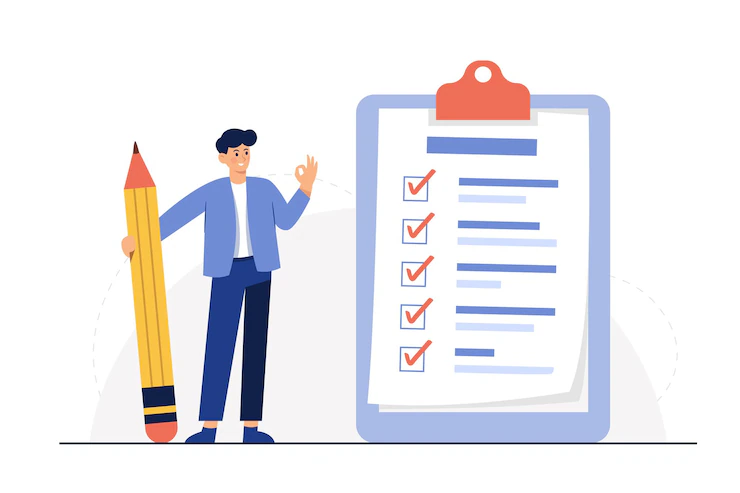
When embarking on your journey to learn English grammar step by step, it's essential to start with a solid foundation. By focusing on fundamental concepts, you will build a strong understanding of the language's structure and rules. Here are key areas to prioritize:
**1\. Parts of speech**: Begin by familiarizing yourself with the basic building blocks of sentences - nouns, verbs, adjectives, adverbs, pronouns, prepositions, conjunctions, and interjections. Understanding each part's function and usage is crucial for constructing meaningful sentences.
**2\. Sentence structure**: Learn how sentences are structured using subject-predicate-object or subject-verb-complement patterns. This knowledge will help you create clear and coherent sentences.
**3\. Verb tenses**: Master essential verb tenses like the present simple and past simple. These tenses form the backbone of English communication and allow you to express actions in different time frames accurately.
**4\. Basic punctuation rules**: Develop an understanding of punctuation marks such as periods, commas, question marks, exclamation marks, and apostrophes. Knowing when and how to use them correctly improves clarity and meaning in your writing.
To dive deeper into these concepts, refer to reliable resources like English Grammar in Use by Raymond Murphy. This comprehensive book breaks down each concept with clear explanations and examples.
By thoroughly grasping these fundamental grammar concepts in English step by step, you will lay a solid foundation for more advanced learning in the future. Remember that practice makes perfect!
Master Sentence Formation in English
------------------------------------
Sentence formation is a crucial aspect of effective communication in English. Without proper sentence construction, it can be challenging to convey ideas and thoughts accurately. In this step, we will focus on mastering the art of constructing well-formed sentences. By understanding the key elements of sentence formation, you will enhance your ability to express yourself clearly and confidently.
Here are some tips and techniques to help you master sentence formation in English:
* **Knowing Subject + Verb Agreement**: Ensure that the subject and verb in a sentence agree in terms of number and person. For example:
* Incorrect: "She run fast."
* Correct: "She runs fast."
* **Using Appropriate Articles (a/an/the)**: Choose the correct article based on the sounds produced while pronouncing them, whether the noun is countable or uncountable, singular or plural, and specific or nonspecific. For example:
* Incorrect: "I want apple."
* Correct: "I want an apple."
* **Understanding Word Order**: Arrange words in a sentence according to the standard word order in English (subject-verb-object). For example:
* Incorrect: "Play he video games."
* Correct: "He plays video games."
Remember that sentence formation goes beyond individual words; it involves understanding how they connect to convey meaning effectively. Practice constructing sentences using these guidelines to improve your language skills.
For further guidance on perfecting sentence formation, you can refer to Clapingo's blog post titled [Beyond Grammar: Polishing Your Sentence Formation in English](https://clapingo.com/blog/sentence-formation-english).
By mastering sentence formation, you will enhance your overall communication skills and become more confident in expressing yourself accurately and fluently.
Be Aware of the Common Grammar Mistakes and Learn How to Avoid Them
-------------------------------------------------------------------
Grammar mistakes are common when you are learning English grammar step by step. However, by being aware of these errors, you can avoid making them in your own speech and writing. Let's take a look at some common grammar mistakes made by learners at different proficiency levels and learn how to correct them.
### **1\. Subject-Verb Agreement:**
One common mistake is incorrect subject-verb agreement. To avoid this error, always make sure the verb agrees with the subject in number and person.
### **2\. Using Incorrect Articles:**
Using the wrong article (a/an/the) is another frequent mistake. Always remember to use "a" before singular countable nouns and "the" when referring to specific nouns.
### **3\. Word Order:**
Incorrect word order can lead to confusion in sentences. Remembering the correct word order will help you construct clear and meaningful sentences.
### **4\. Misusing Verb Tenses:**
Using the wrong verb tense is a common mistake made by English learners. It's essential to understand when to use past tense, present tense, or other verb forms.
Here is a table showing some common grammar mistakes and their corrections.
### Grammar component
### Mistake
### Corrected Sentence
Subject-verb agreement
The book are interesting.
The book is interesting.
Article
I saw an elephant in zoo.
I saw an elephant in the zoo.
Word Order
Yesterday I went cinema.
Yesterday I went to the cinema.
Verb Tenses
I have went to the store.
I have gone to the store.
By being aware of these common mistakes and practising their corrections, you can enhance your grammar skills and become a proficient English speaker.
Delve into Advanced Grammar Concepts to Become Proficient Speakers
------------------------------------------------------------------
Now that we have covered the steps to master basic English grammar, let's move on to the advanced level. Learning advanced grammar concepts will help you become a proficient speaker and writer. In this step, we will explore some essential advanced grammar topics that you can study.
* **Conditional Sentences**: Conditional sentences allow you to express hypothetical situations and their possible outcomes. Understanding the different types of conditional sentences, such as zero, first, second, and third conditionals, will enhance your ability to convey complex ideas.
* **Reported Speech**: Reported speech is used when we want to report what someone else has said. It involves changing verb tenses and pronouns. Mastering reported speech will enable you to accurately relay information in conversations or written texts.
* **Subjunctive Mood**: The subjunctive mood is used to express desires, wishes, possibilities, suggestions, or hypothetical situations that may not be true or have not happened yet. Learning how to use the subjunctive mood correctly adds depth and nuance to your language skills.
By diving into these advanced grammar concepts, you will gain a deeper understanding of the English language's intricacies and nuances.
To further strengthen your grasp of advanced grammar topics, we recommend checking out the book Advanced Grammar in Use by Martin Hewings. This resource offers valuable insights and exercises for enhancing your proficiency in using these advanced grammar concepts effectively. The Clapingo article titled [Mastering Sentence Improvement in English](https://clapingo.com/blog/sentence-improvement-english) will also help you get acquainted with advanced sentence structures.
Practice English Grammar Skills
-------------------------------

To truly master English grammar, it's important to put your knowledge into practice and continuously reinforce your skills. Here are some effective ways to do just that:
**1\. Engage in conversations with native speakers or language partners**: One of the best ways to improve your grammar is to engage in conversations with native speakers or language partners. This allows you to not only practice your grammar skills but also learn from their natural usage of the language. You can find language exchange platforms or join English conversation clubs in your area.
**2\. Read English books, newspapers, and articles**: Reading extensively exposes you to different sentence structures and helps you become familiar with correct grammar usage. Choose materials that match your level of proficiency and gradually challenge yourself with more complex texts. [This](https://clapingo.com/blog/can-listening-to-songs-help-you-improve-your-spoken-english-ckxga26vi03801jp75te3i8hx) interesting Clapingo blog article talks about how even songs can also help you in your language-learning journey.
**3\. Regularly write in English**: Writing is an excellent way to solidify your understanding of grammar rules and sentence formation. Start by maintaining a journal, where you can write about your daily experiences, thoughts, or reflections. You can also consider starting a blog where you share your ideas on topics that interest you.
Remember, the key here is consistency. Set aside dedicated time each day for these activities and make them a part of your routine.
By actively engaging in conversations, reading extensively, and regularly writing in English, you will not only enhance your grammatical accuracy but also develop fluency and confidence in using the language.
The Role of Clapingo in Enhancing English Grammar Skills
--------------------------------------------------------
Now that you have familiarized yourself with learning English grammar step by step, are you ready to take your English grammar skills to the next level? Look no further than [Clapingo](https://clapingo.com/), your reliable online platform for enhancing your understanding and proficiency in English grammar. Clapingo offers a range of features and resources designed to support learners at all levels, from beginners to advanced speakers.
One of the key benefits of using Clapingo is its tailored courses. These courses are specifically designed to address the unique needs and challenges that learners face when tackling English grammar. Whether you want to focus on sentence formation, verb tenses, or more advanced concepts like reported speech, Clapingo has a course that will meet your needs.
In addition to tailored courses, Clapingo also provides expert tutors who are dedicated to helping you improve your grammar skills. These tutors offer personalized feedback and guidance, ensuring that you receive individualized attention and support as you progress through your learning journey. You can also engage in conversations with native speakers or language partners through Clapingo.
By choosing Clapingo as your go-to resource for learning English grammar step by step, you can be confident that you're receiving top-notch guidance and support from industry experts. Start your journey with Clapingo today and discover how comprehensive grammar improvement can enhance your overall English language proficiency.
Closing Remarks
---------------
Congratulations on completing this comprehensive guide on how to learn English grammar step by step! By following the practical steps outlined in this article, you are well on your way to becoming a proficient English speaker and writer. Remember, learning grammar is crucial for effective communication, as it helps you understand sentence structure and convey meaning accurately.
Continuous practice is key to improving your grammar skills. Engage in conversations with native speakers or language partners to apply what you've learned. Reading books, newspapers, and articles exposes you to different sentence structures. Additionally, writing regularly in English through activities like journaling or blogging helps reinforce your knowledge.
Remember that learning English grammar is a journey that requires dedication and guidance from reliable resources. [Clapingo](https://clapingo.com/) is here to support you every step of the way! Our tailored courses, expert tutors, and personalized feedback can help you go beyond mere understanding of grammar rules to comprehensive use of the English language.
Stay motivated, stay dedicated, and embark on this exciting journey to learn English grammar step by step! Remember, the sky is the limit when it comes to mastering a new language.
FAQs
----
**1\. How to learn English grammar step by step for beginners?**
Learning English grammar step by step for beginners involves starting with the basics and gradually progressing to more complex concepts. Begin by understanding fundamental grammar concepts such as parts of speech, sentence structure, verb tenses, and basic punctuation rules. Practise sentence formation and become aware of common mistakes to avoid them. Delve into advanced grammar topics once you have a strong foundation in the basics.
**2\. How can I learn English grammar by myself?**
You can learn English grammar by yourself is possible with the help of online resources such as tutorials, courses, study materials, and practice exercises. Make use of online platforms like Clapingo that offer tailored courses and expert tutors who can guide you throughout your learning journey.
**3\. How do I improve my grammar?**
To improve your grammar, it is crucial to practice regularly. Engage in conversations with native speakers or language partners to apply what you've learned. Read books, newspapers, and articles in English to expose yourself to different sentence structures. Additionally, writing in English, whether through a journal or blog, allows you to practice applying grammar rules in real-life situations.
**4\. How can I learn and memorize English grammar rules?**
Learning and memorizing English grammar rules can be achieved through repetition and practice. Break down complex rules into smaller parts and focus on one concept at a time until it becomes second nature. Use mnemonic devices or create memory aids to help remember specific rules.
---
This blog is powered by Superblog. Visit https://superblog.ai to know more.
---
## Top 25 Best Spoken English Books for Beginners To Advanced Learners
Author: Unknown
Published: 2023-10-12
Meta Title: Spoken English Books: Boost Your Communication Skills!
Meta Description: Discover the best 25 Spoken English books for beginners to advanced learners. Enhance your grammar, vocabulary, and fluency with these trusted resources!
Tags: Best Book For English Speaking, Basic Spoken English Book
URL: https://clapingo.com/blog/spoken-english-books
Contents
* [](#)
* [Importance of Good Spoken English](#importance-of-good-spoken-english)
* [Spoken English Books for Beginners](#spoken-english-books-for-beginners)
* [Essential Grammar Books for Building Strong Foundations](#essential-grammar-books-for-building-strong-foundations)
* [Advanced Grammar Books to Enhance Language Skills](#advanced-grammar-books-to-enhance-language-skills)
* [Vocabulary Books to Expand Word Power](#vocabulary-books-to-expand-word-power)
* [Idioms and Expressions Books to Sound Fluent](#idioms-and-expressions-books-to-sound-fluent)
* [Interesting Books for Language Learners](#interesting-books-for-language-learners)
* [Reference Books for Language Learners for Business Purposes](#reference-books-for-language-learners-for-business-purposes)
* [Online Resources for Spoken English Improvement](#online-resources-for-spoken-english-improvement)
* [Final Remarks](#final-remarks)
* [FAQs](#faqs)

Importance of Good Spoken English
------------------------------------
Good [spoken English skills](https://clapingo.com/blog/how-improve-english-speaking-skills) play a crucial role in effective communication, opening doors to professional opportunities and enhancing personal relationships. Whether you're a beginner or an advanced learner, using the right spoken English books can significantly improve your language proficiency. Here are some key benefits of using books for learning spoken English:
* **Books provide structured content**: Spoken English books offer a systematic approach to language learning, starting from basic vocabulary and grammar to advanced speech patterns and expressions. They provide a clear roadmap for learners at different levels.
* **Books offer self-paced learning**: With books, you have the flexibility to learn at your own pace. You can revisit concepts, practice exercises, and track your progress. This self-study approach allows you to focus on areas where you need more practice.
* **Books enhance listening skills**: Many spoken English books come with audio resources that help improve listening skills along with comprehension. By listening to native speakers, learners develop an understanding of intonation, pronunciation, and rhythm.
In this article, we will explore the top 25 best spoken English books for beginners to advanced learners. These books have been carefully selected to cater to learners at different levels and with varying language goals.
Whether you are just starting your journey to improve your spoken English or looking to enhance your fluency further, this list will provide you with a range of resources that can support your learning needs.
Spoken English Books for Beginners
----------------------------------
As you embark on your journey to improve your spoken English skills, it is essential to start with the basics. Building a strong foundation will give you the confidence and understanding necessary to progress to more advanced levels. To help you get started, here are some highly recommended books for beginners:
1. [Easy English Step-by-Step for ESL Learners](https://www.amazon.in/dp/1260455181) by Danielle Pelletier DePinna[:](https://www.amazon.in/dp/1260455181\):) This basic spoken English book focuses on building a strong foundation in grammar and vocabulary through simple explanations and engaging exercises.
2. [English for Everyone: Level 1 Course Book - Beginner English: ESL for Adults](https://www.amazon.com/English-Everyone-Beginner-Complete-Self-Study/dp/1465447628) by Danielle Pelletier DePinna[:](https://www.amazon.com/English-Everyone-Beginner-Complete-Self-Study/dp/1465447628\):) This comprehensive course book covers essential language skills including speaking, listening, reading, and writing.
3. [English Made Easy Volume One: A New ESL Approach: Learning English Through Pictures](https://www.amazon.com/English-Made-Easy-One-Approach/dp/0804845247) by Jonathan Crichton, Pieter Koster[:](https://www.amazon.com/English-Made-Easy-One-Approach/dp/0804845247?tag=fluentu-20\):) Ideal for visual learners, this book uses pictures to teach vocabulary and sentence structures, making learning English enjoyable.
Starting with these books will lay a solid foundation for your spoken English journey. They cover essential grammar rules, vocabulary, and conversational skills that are crucial for effective communication.
Essential Grammar Books for Building Strong Foundations
----------------------------------------------------------

Grammar is an essential aspect of language learning. It provides the structure and foundation needed to communicate effectively in English. To help you build a strong grammatical foundation, here are some highly recommended grammar books:
1\. [Basic Grammar in Use](https://www.amazon.co.uk/Basic-Grammar-Use-Reference-Self-Study/dp/1108457657) by Raymond Murphy[:](https://www.amazon.co.uk/Basic-Grammar-Use-Reference-Self-Study/dp/1108457657\):) This book is perfect for beginners as it covers all the essential grammar rules with clear explanations and plenty of practice exercises. It also includes an answer key for self-assessment.
2\. [Essential English Grammar](https://www.amazon.co.uk/Essential-English-Grammar-Raymond-Murphy/dp/8175960299) by Murphy[:](https://www.amazon.co.uk/Essential-English-Grammar-Raymond-Murphy/dp/8175960299\):) Another excellent book by Raymond Murphy, this comprehensive guide covers both basic and advanced grammar topics. It provides learners with a solid understanding of English grammar through practical examples and exercises.
3\. [Clear Grammar 1, 2nd Edition: Keys to Grammar for English Language Learners](https://www.amazon.co.uk/Clear-Grammar-2nd-Language-Learners/dp/0472032410) by Keith S. Folse[:](https://www.amazon.co.uk/Clear-Grammar-2nd-Language-Learners/dp/0472032410\):) This book focuses on the most common grammatical errors made by English language learners and offers clear explanations and practice activities to overcome them.
4\. [English Grammar in Use Book with Answers: A Self-Study Reference and Practice Book for Intermediate Learners of English](https://www.amazon.co.uk/English-Grammar-Use-Answers-Self-Study/dp/1108457657), 5th Edition by Raymond Murphy[:](https://www.amazon.co.uk/English-Grammar-Use-Answers-Self-Study/dp/1108457657\):) This popular self-study reference book is designed for intermediate learners who want to improve their grammar skills. It covers a wide range of topics and includes interactive exercises to reinforce learning.
These spoken English grammar books will provide you with a solid foundation in English grammar and help you improve your overall language skills. Make sure to dedicate regular time to studying and practicing grammar to see progress in your spoken English.
Advanced Grammar Books to Enhance Language Skills
-------------------------------------------------
Grammar plays a crucial role in language learning, as it helps learners communicate effectively and accurately. Once you have a strong foundation in grammar, it's important to advance your knowledge to enhance your language skills. Here are two highly recommended advanced grammar books:
1\. [Advanced Grammar](https://www.amazon.com/Advanced-Grammar-Diane-Hall/dp/0582403839) by Mark Foley
* This comprehensive book is designed for learners who already have a good understanding of basic grammar concepts.
* It covers complex grammatical structures and provides in-depth explanations with numerous examples.
* The book also includes exercises to help you practice and reinforce your understanding of advanced grammar rules.
2\. [Practice Makes Perfect: Basic English](https://www.amazon.com/Practice-Makes-Perfect-English-Premium/dp/1260143724) by Julie Lachance
* This book focuses on improving grammar and vocabulary through various exercises and activities.
* It covers essential topics such as verb tenses, sentence structure, prepositions, and more.
* The book offers a step-by-step approach, making it easy for learners to grasp advanced grammar concepts.
In addition to these books, I would also recommend exploring [The Cambridge Grammar of the English Language](https://www.amazon.com/Cambridge-Grammar-English-Language-ebook/dp/B01LZ8VV6N) by Rodney Huddleston and Geoffrey K. Pullum. This authoritative reference book provides an in-depth analysis of English grammar. It is suitable for advanced learners who want to delve deeper into the intricacies of the English language.
Remember, mastering advanced grammar is a gradual process that requires consistent practice and exposure to diverse resources. By using these best books for English speaking and engaging in regular self-study, you can enhance your language skills and become a confident communicator in English.
Vocabulary Books to Expand Word Power
-------------------------------------
Building a [strong vocabulary](https://clapingo.com/blog/daily-use-english-words) is essential for effective communication in any language. A rich vocabulary allows you to express yourself more precisely and with greater fluency. Whether you are a beginner or an advanced learner, incorporating the right vocabulary books into your language learning journey can significantly enhance your word power. Here are some highly recommended vocabulary books:
1\. [Advanced Vocabulary in Context](https://www.amazon.com/Advanced-Vocabulary-Context-Donald-Watson/dp/1873630131) by Donald Watson: This book focuses on advanced-level vocabulary and provides learners with context-rich examples to help them understand and use new words effectively. It covers a wide range of topics and includes exercises to reinforce learning.
2\. [Building Vocabulary Skills](https://www.amazon.com/Building-Vocabulary-Skills-Comodromos-Langan/dp/1591945240) by Eliza Comodromos and Paul Langan: Designed for intermediate learners, this book offers a systematic approach to expanding vocabulary through engaging exercises and activities. It includes themed chapters that cover various domains like education, technology, and culture.
3\. [Vocabulary for the College Bound Student](https://www.amazon.com/Vocabulary-College-Student-Harold-Levine/dp/1567651046) by Harold Levine, Norman Levine, Robert T. Levine: Aimed at high school students preparing for college, this book presents essential words in a concise and organized format. It includes helpful definitions, examples, and exercises to reinforce learning.
4\. [Basic Vocabulary in Use: 60 Units of Vocabulary Practice in North American English With Answers](https://www.amazon.com/Basic-Vocabulary-Use-Practice-American/dp/0521123674) by Michael McCarthy, Felicity O'Dell, and John D. Bunting: This book is suitable for beginners who want to build their foundational vocabulary skills. It covers common everyday words and phrases through interactive exercises.
5\. [The Big Book of English Verbs (Big Book of Verbs Series)](https://www.amazon.com/Big-Book-English-Verbs-ebook/dp/B00IHC941Y) by Mark Lester, Daniel Franklin, and Terry Yokota: Verbs are the backbone of any language, so mastering them is crucial for effective communication. This comprehensive book provides learners with an extensive list of verbs along with their conjugations and usage examples.
Expanding your vocabulary not only improves your spoken English but also enhances your overall language proficiency. Remember to practice using new words in context to reinforce their meaning and usage.
Idioms and Expressions Books to Sound Fluent
--------------------------------------------
Idioms and expressions play a crucial role in mastering spoken English. They add color, nuance, and authenticity to your conversations, making you sound more fluent and natural. To help you enhance your idiomatic repertoire, here are some highly recommended books dedicated to learning idioms:
1\. [English for Everyone English Idioms](https://www.amazon.in/English-Everyone-Idioms-practise-expressions/dp/0241335884): This comprehensive book is designed for learners of all levels and covers a wide range of idiomatic expressions commonly used in everyday conversation. It provides clear explanations, contextual examples, and engaging exercises to help you understand and use idioms effectively.
2\. [Advanced English Expressions, Idioms, Collocations, Slang, and Phrasal Verbs: Master American English Vocabulary](https://www.amazon.com/Advanced-English-Expressions-Collocations-Phrasal/dp/B09FC9HQKC) by Jackie Bolen: This comprehensive book focuses on advanced vocabulary and expressions commonly used in American English. It covers idioms, collocations, slang terms, and phrasal verbs to help learners sound more natural and fluent.
3\. [Dictionary Of English Idioms](https://www.amazon.in/Penguin-Dictionary-English-Idioms/dp/0140514813/) by Daphne Gulland and David Hinds-Howell: This book examines various examples, offers definitions, and elucidates their appropriate usage. It is organized by theme, enabling readers to compare idioms within a specific subject area and choose the most suitable one for any given occasion, whether in writing or speech.
Learning idioms not only improve your language skills but also helps you better comprehend native speakers and communicate with confidence. With these spoken English books as your guides, you'll gain a deeper understanding of English idiomatic expressions and be able to incorporate them seamlessly into your conversations. You can also check this article that discusses English idioms and expressions: [The most important English expressions you should know | English blog | Clapingo](https://clapingo.com/blog/the-most-important-english-expressions-to-know)
Interesting Books for Language Learners
---------------------------------------

Reference books are an essential tool for language learners, providing them with a wealth of information and guidance. Whether you are a beginner, intermediate, or advanced learner, having the right reference books can greatly enhance your language learning journey. Here are some highly recommended reference books for learners at different levels:
1\. [Oxford Picture Dictionary 3E](https://www.amazon.in/English-Everyone-Idioms-practise-expressions/dp/0241335884): This dictionary is a comprehensive visual reference book that helps learners expand their vocabulary and improve their overall language skills. It includes over 4,000 words and phrases, along with vibrant illustrations to aid in understanding.
2\. [Cambridge Advanced Learner's Dictionary 4th Edition](https://www.amazon.com/Cambridge-Advanced-Learners-Dictionary-McIntosh/dp/1107685494): This dictionary is specifically designed for advanced learners of English. It includes over 170,000 words, phrases, and examples to help learners understand the meaning and usage of words in various contexts.
3\. [Collins COBUILD English Usage: B1-C2 Fourth Edition](https://www.amazon.com/Collins-COBUILD-English-Usage-B1-C2/dp/0008356408): This book provides in-depth explanations and examples of how English is used in different situations. It covers various aspects of grammar and vocabulary usage and offers valuable insights into common mistakes learners make.
4\. [McGraw-Hill Education Essential ESL Dictionary: 9,000+ Words for Learners of English 1st Edition](https://www.amazon.com/McGraw-Hill-Education-Essential-ESL-Dictionary/dp/0071840184): This dictionary is designed specifically for English language learners and includes over 9,000 words, phrases, and examples. It provides learners with the necessary vocabulary to communicate effectively in various contexts.
5\. [ESL Intermediate/Advanced Writing](https://www.amazon.com/Writing-Mary-Ellen-Munoz-Page/dp/0738601225) by Mary Ellen Munoz Page: This book focuses on developing writing skills for intermediate and advanced learners. It covers various types of writing, including essays, letters, reports, and more. It also provides valuable tips and techniques to improve writing fluency and accuracy.
These spoken English books provide valuable support for language learners at different stages of their journey. They serve as reliable resources for expanding vocabulary, improving grammar usage, and enhancing overall language skills. With the help of these books, you can confidently navigate the complexities of the English language and continue to grow as a proficient speaker.
###
Reference Books for Language Learners for Business Purposes
In today's competitive world, having strong English language skills is essential, especially in a professional setting. To excel in business communication, it is important to have a good command of spoken English. Here are some highly recommended reference books that cater specifically to learners who want to enhance their business English skills.
1\. [New International Business English Student's Book: Communication Skills in English for Business Purposes](https://www.amazon.com/International-Business-English-Students-Book/dp/1107632218) by Leo Jones and Richard Alexander: This spoken English book focuses on developing effective communication skills required in various business situations. It covers topics such as meetings, presentations, negotiations, and socializing. With its practical approach and authentic materials, this book provides learners with the necessary tools to succeed in the business world.
2\. [ESL Business English: The Essential Guide to Business English Communication by Lucas Burns](https://www.amazon.com/ESL-Business-English-Communication-communication-ebook/dp/B00X1JZ3AY): This comprehensive guide covers all aspects of business communication, including writing emails, making phone calls, giving presentations, and conducting meetings. It also provides tips on networking and building professional relationships. With its interactive exercises and real-life examples, this book helps learners develop confidence in using English for business purposes.
3. [American Business English: A Coursebook for Business English](https://www.amazon.com/American-Business-English-Coursebook-ebook/dp/B08F2SZH1L) by Eric Thomas: This coursebook is designed for non-native speakers who want to improve their business English skills. It covers essential topics such as making small talk, writing formal emails, participating in conference calls, and giving persuasive presentations.
These reference books offer valuable insights into the nuances of business communication and provide learners with the necessary tools to succeed in professional environments.
Online Resources for Spoken English Improvement
--------------------------------------------------
Are you ready to take your spoken English skills to the next level? In addition to using books, [online platforms](https://clapingo.com/blog/english-speaking-course) can be valuable resources for improving your spoken English. One such platform is [Clapingo](https://clapingo.com/), which offers personalized courses, live sessions, and speaking practice opportunities. Let's take a closer look at what Clapingo has to offer:
**1\. Personalized Courses**: Clapingo provides tailor-made courses designed to meet the specific needs of learners at different levels. Whether you're a beginner or an advanced learner, you can find a course that suits your requirements.
**2\. Live Sessions**: Interacting with experienced English instructors in live sessions is an excellent way to practice your speaking skills. Clapingo offers frequent live sessions where you can engage in conversations, ask questions, and receive feedback on your pronunciation and grammar.
**3\. Speaking Practice Opportunities**: To become fluent in spoken English, practice is crucial. Clapingo provides ample opportunities for speaking practice through role plays, discussions, and debates. This allows learners to build confidence and improve their fluency in real-life situations.
By utilizing these features offered by Clapingo, you can enhance your spoken English skills effectively and efficiently. To explore further assistance from Clapingo, visit their website [here](https://clapingo.com/)!
Remember that continuous practice and exposure to diverse resources are key to achieving fluency in spoken English. Alongside using books as a foundation for learning, online platforms like Clapingo offer additional support and guidance on your language learning journey.
So what are you waiting for? Start exploring the world of spoken English with books and online resources like Clapingo today!
Check out this YouTube video to learn more about Clapingo's personalized courses:
Final Remarks
----------------
In conclusion, using spoken English books is crucial for language learners of all levels. These books offer structured lessons and exercises that effectively improve speaking skills. By regularly practicing with a variety of resources, learners can reinforce their understanding of grammar rules, expand their vocabulary, and enhance their overall language proficiency.
For comprehensive support and improvement in spoken English skills, Clapingo is a trusted online platform offering personalized courses, live sessions with experienced tutors, and ample opportunities for speaking practice. With its user-friendly interface and expert guidance, Clapingo ensures an enjoyable learning journey.
So whether you are a beginner looking for basic spoken English books or an advanced learner seeking more challenging materials, these top 25 books recommended in this article will undoubtedly help you on your path to becoming fluent in English. Don't forget to explore Clapingo for additional assistance on your language-learning journey!
FAQs
-------
1\. Which book is best for spoken English?
The best book for spoken English depends on the specific needs and level of understanding of the learner. Beginners may find "Easy English Step-by-Step for ESL Learners" helpful, while intermediate learners can benefit from "English Grammar in Use Book with Answers." Advanced learners may find "Practice Makes Perfect: Basic English" useful.
2\. How to choose a spoken English book?
When choosing a spoken English book, consider your current level of understanding. Beginners should look for books that cover the basics, while intermediate learners can focus on more comprehensive materials. Advanced learners can choose books that delve deeper into advanced grammar concepts and vocabulary development.
3\. Which book can I read to improve my English?
To improve your English, it's beneficial to read both grammar books and fiction. Grammar books like "Basic Grammar in Use" and "Essential English Grammar" can help strengthen your language foundation. Reading fiction exposes you to different writing styles and vocabulary
---
This blog is powered by Superblog. Visit https://superblog.ai to know more.
---
## Self Introduction in English For Students: 5 Easy Ways to Introduce Yourself
Author: Unknown
Published: 2023-10-12
Meta Title: Self Introduction in English for Students: 5 Easy Tips
Meta Description: Discover self-introduction tips for students and job seekers. Boost your confidence and make a lasting impression. Ideal for college and career success.
Tags: Self introduction in English, English for interview, introduction for students
URL: https://clapingo.com/blog/self-introduction-english-students
Contents
* [](#)
* [Why is Self-Introduction Important?](#why-is-self-introduction-important)
* [5 Easy Ways to Master Self-Introduction in English](#5-easy-ways-to-master-self-introduction-in-english)
* [1\. Know the Basics of Self-Introduction](#1-know-the-basics-of-self-introduction)
* [2\. Structure Your Self-Introduction Efficiently](#2-structure-your-self-introduction-efficiently)
* [3\. Add Personal Touches to Your Self-Introduction](#3-add-personal-touches-to-your-self-introduction)
* [4\. Use Conversation Starters for Engaging Introductions](#4-use-conversation-starters-for-engaging-introductions)
* [5\. Practise Self-Introduction Skills](#5-practise-self-introduction-skills)
* [Self-Introduction in English for Students](#self-introduction-in-english-for-students)
* [Self-Introduction in English for Freshers or Job Seekers](#self-introduction-in-english-for-freshers-or-job-seekers)
* [1\. Tailor Your Introduction to Match Job Requirements or Industry Norms:](#1-tailor-your-introduction-to-match-job-requirements-or-industry-norms)
* [2\. Craft an Engaging Opening Statement:](#2-craft-an-engaging-opening-statement)
* [3\. Showcase Relevant Skills and Achievements:](#3-showcase-relevant-skills-and-achievements)
* [4\. Use Examples to Demonstrate Your Abilities:](#4-use-examples-to-demonstrate-your-abilities)
* [5\. End with a Strong Closing Statement:](#5-end-with-a-strong-closing-statement)
* [Online Resources for Self-Introduction Practice](#online-resources-for-self-introduction-practice)
* [Ending Notes](#ending-notes)
* [FAQs](#faqs)

Why is Self-Introduction Important?
-----------------------------------
First impressions are crucial in various situations, whether it's at school, college, job interview, or social events. A well-executed self-introduction can build a positive impression and open doors for networking opportunities. It allows others to get to know you better and shows your confidence and communication skills.
Self-introduction in English for students is an especially important area as in school or college, introducing yourself helps create connections with classmates and teachers that could last for a long time. It sets the tone for future interactions and establishes a welcoming environment. Similarly, during job interview, a strong student self introduction can make you stand out from other candidates and leave a lasting impact on potential employers.
Overcoming shyness is another reason why self-introduction is important. Many students struggle with shyness when speaking in public or meeting new people. By practicing self-introductions regularly, students can boost their self confidence levels and feel more comfortable expressing themselves.
Effective self-introduction also offers networking opportunities. By sharing your interests, skills, and experiences during an introduction, you can attract like-minded individuals who share similar passions or professional goals. This can lead to valuable connections for future collaborations or mentorships.
If you are someone, especially a student, who is struggling with self-introduction, you have come to the right place! In this article, we will guide you through five easy ways to master self-introduction in English. We will also provide you with tips and strategies to improve your self-introduction for various contexts. So let's dive in!
5 Easy Ways to Master Self-Introduction in English
--------------------------------------------------
Introducing yourself confidently is a key skill that can open doors to countless opportunities. Whether you're a student, a job seeker, or simply looking to build connections, mastering the art of self-introduction in English is essential. In this section, we will explore five easy ways to help you become an expert at introducing yourself.
### 1\. Know the Basics of Self-Introduction
The first step towards effective student self introduction is understanding the key elements. When introducing yourself, make sure to include your name, age, occupation, or study, as well as your hobbies and interests. By sharing these details, you create a connection with your audience and give them a glimpse into your personality.
It's also important to consider your target audience and adapt your introduction accordingly. Tailoring your self-introduction based on who you are talking to shows that you value their time and are interested in building a connection.
Additionally, pay attention to clear pronunciation and confident body language while introducing yourself. These non-verbal cues greatly impact how others perceive you and can leave a lasting impression.
### 2\. Structure Your Self-Introduction Efficiently
Structuring your self-introduction efficiently helps you deliver information effectively. Start with a warm greeting and express gratitude for the opportunity to introduce yourself. This sets a positive tone right from the beginning.
Organize the information logically by using either chronological order or highlighting significant achievements or experiences. For example, if you're introducing yourself in an interview, you might want to start with your educational background before moving on to relevant work experience.
To provide further clarity, here's an example of structuring an introduction:
* Greetings: Good morning/Good afternoon/Good evening!
* Gratitude: Thank you for this opportunity.
* Name: My name is \[Your Name\].
* Occupation/study: I am currently studying \[Course/Subject\] at \[Institution/University\].
* Hobbies/interests: In my free time, I enjoy \[Hobby/Interest\].
Remember to practice your introduction to ensure smooth delivery and confidence.
### 3\. Add Personal Touches to Your Self-Introduction
To make your self-introduction memorable, don't hesitate to share unique qualities or experiences that make you stand out from others. Adding personal touches helps create a lasting impression.
For instance, if you have traveled extensively, mention a country or two that left a deep impact on you. If you have won any awards or have unique skills, feel free to share them. These personal touches not only make you more relatable but also spark further conversation.
### 4\. Use Conversation Starters for Engaging Introductions
One way to make your self-introduction more engaging is by using conversation starters. Asking open-ended questions can initiate further dialogue after the introduction, making it easier for others to connect with you.
### Here are some sample conversation starters categorized by different scenarios:
**School**
* What subjects are you passionate about?
* Have you participated in any extracurricular activities?
**College**
* Which course are you pursuing?
* What made you choose this field of study?
**Job Interview**
* How did you develop an interest in this industry?
* What are some achievements that showcase your skills?
This Clapingo article will also provide you with some engaging topics to start engaging conversations: [190+ Creative English Speaking Topics to Speak to Anyone | Clapingo](https://clapingo.com/blog/english-speaking-topics)
### 5\. Practise Self-Introduction Skills
Like any skill, mastering self-introduction takes practice and preparation. Take the time to rehearse your introduction in front of a mirror or with a friend. This allows you to fine-tune your delivery and build self confidence.
Practicing has several benefits, including reducing anxiety and ensuring a smooth flow of speech during actual introductions. The more familiar and comfortable you become with introducing yourself, the more natural and confident your interactions will be.
Mastering self-introduction in English is crucial for various situations in life. By knowing the basics of self-introduction, structuring your introduction efficiently, adding personal touches, using conversation starters, and practicing regularly, you can confidently introduce yourself in any setting. So go ahead, practice these five easy ways, and make a lasting impression with your self-introductions!
Now let's move on to some context-specific tips and strategies for self-introduction.
Self-Introduction in English for Students
-----------------------------------------

Introducing yourself in English can be a nerve-wracking experience, especially for school and college students who may not have had much practice or experience with it. However, with a few simple tips and examples, you can confidently master the art of student self introduction in English. Let's take a look at some of them:
### **1\. Begin with greetings and stating your personal details**:
Start your self-introduction with a positive tone and let others know who you are.
* Begin by offering a warm greeting.
* Clearly state your full name to ensure everyone understands.
* Mention your class, section, or the course you are pursuing, and add any additional information related to your studies or field of interest.
* Here is an example of a student self introduction in English for college student: "Hi everyone! My name is Sarah Smith, and I am currently enrolled in the Bachelor of Arts program majoring in Psychology."
### **2\. Share a few details about your interests or hobbies**:
After introducing yourself, it's good to mention some of your interests or hobbies to help others connect with you on a personal level.
* Talk about hobbies that reflect your personality and interests outside of academics.
* Highlight activities that demonstrate your passion and dedication.
* Remember to keep it concise; sharing one or two hobbies is sufficient.
* For example: "Apart from my studies, I enjoy playing the guitar and painting. These activities allow me to express my creativity and relax."
### **3\. Mention any notable achievements or extracurricular activities**:
If you have participated in any notable achievements or extracurricular activities, don't hesitate to mention them.
* These showcase your skills and dedication outside of academics that could interest others.
* For example, you could say "I recently won first place in the inter-school debate competition" or "I am an active member of our school's dance club."
### **4\. Express eagerness to build connections and contribute positively to the class**:
Wrap up your introduction by expressing your eagerness to get to know everyone and contribute positively to the dynamics.
* Express enthusiasm about being part of the college community.
* Show eagerness to learn from others' experiences and contribute positively.
* Use phrases like "I look forward to getting to know all of you" or "I am excited about the opportunities this college offers."
* For example: "I am thrilled to be part of this vibrant school/college community, and I can't wait to meet new people, learn from each other, and make lifelong connections."
By following these simple tips, you'll be able to introduce yourself effectively in English and make a positive impression on your classmates and teachers. This article can also be helpful. Remember to be authentic, positive, and open to building new relationships.
Self-Introduction in English for Freshers or Job Seekers
--------------------------------------------------------

When it comes to job interviews or networking events, self-introduction plays a crucial role in making a positive first time impression. An effective job interview introduction can help you stand out from the crowd and showcase your skills and qualifications. Here are five easy ways to introduce yourself in English for freshers or job seekers.
### **1\. Tailor Your Introduction to Match Job Requirements or Industry Norms:**
Before attending an interview or networking event, research the company and understand the job requirements. Tailor your self-introduction accordingly to highlight relevant skills and experiences that align with the position. Use industry-specific terminology to demonstrate your knowledge and interest.
### **2\. Craft an Engaging Opening Statement:**
Your opening statement should be concise, confident, and attention-grabbing. Begin by stating your name and expressing enthusiasm for the opportunity. Highlight any outstanding achievements or relevant experiences that make you a strong candidate for the role.
### **3\. Showcase Relevant Skills and Achievements:**
During your self-introduction, mention key skills and accomplishments that are relevant to the job you're applying for. This could include certifications, internships, projects, or any other experiences that demonstrate your expertise in the field.
### **4\. Use Examples to Demonstrate Your Abilities:**
Instead of simply listing your skills, provide specific examples that showcase how you have utilized those skills in previous positions or projects. This helps employers visualize how you can contribute to their organization.
### **5\. End with a Strong Closing Statement:**
Conclude your self-introduction by expressing gratitude for the opportunity and summarizing why you believe you're a suitable candidate for the role. Invite further conversation by asking about the next steps in the hiring process or expressing interest in learning more about the company.
By following these five easy ways, you can effectively introduce yourself in English as a fresher or job seeker, leaving a lasting impression on potential employers or professional connections. As a fresher or job seeker hoping to up your career, this Clapingo article can also be helpful to you: [Is Practicing Speaking English All it Takes to Advance Your Career? Clapingo Blog | 2022](https://clapingo.com/blog/english-speaking-practice). Good luck with your self-introductions!
Online Resources for Self-Introduction Practice
-----------------------------------------------
Seeking professional guidance and practice is key to improving your communication skills. Fortunately, there are several online course and resources available that can help you ace your self-introduction game. Let's explore some of these platforms:
**1\. Clapingo**: As an online platform specializing in Spoken English Classes, [Clapingo](https://clapingo.com/) offers comprehensive courses specifically designed to improve self-introduction in English for students. Their experienced coaches provide expert guidance and personalized feedback, ensuring effective learning. You can also check out other online resources available and choose what feels best to you: [Top 8 powerful English speaking courses in 2022 Guide - Clapingo](https://clapingo.com/blog/english-speaking-course).
**2\. YouTube**: The popular video-sharing platform is a treasure trove of free resources for learning self-introduction in English. Alongside numerous tutorial videos, expert tips, and sample introductions, movies can also serve as an excellent resource to observe and learn from real-life scenarios. Watching movies allows you to see how characters introduce themselves in various contexts, providing a rich, contextual understanding of language and presentation skills.
**3\. Online Forums and Discussion Boards**: Participating in online forums such as Reddit or Quora can provide opportunities for students to introduce themselves in written form or engage in discussions related to student self introduction. You can seek feedback from other users or join conversations where self-introductions are shared.
Incorporating these online resources into your learning journey will undoubtedly enhance your ability to confidently introduce yourself in English, opening doors to new opportunities in academics, career, and social settings. So don't hesitate, to take advantage of these resources and start perfecting your self-introduction skills today!
You can also check out [Clapingo's YouTube channel](https://www.youtube.com/@Clapingo/about) for an interview-specific crash course that details self-introduction. Here's a video from the series:
Ending Notes
------------
Knowing how to introduce yourself effectively is a valuable skill that can open doors and create opportunities. By mastering the art of self-introduction, you can make a lasting impression in various situations, whether it's at school, college, job interview, or social events. The concept of "student self introduction" is particularly important as it helps in setting a positive tone for future interactions, showcasing your skills, and highlighting your interests and goals.
In this blog post, we've discussed five easy ways to introduce yourself in English. These strategies include knowing the basics of self-introduction, structuring your introduction efficiently, adding personal touches, using conversation starters for engaging introductions, and practicing self-introduction skills.
Implementing these techniques will help you build confidence, establish connections, and leave a positive impact on others. Remember to adapt your introduction according to the target audience and use clear pronunciation and confident body language to make a strong first impression. So go ahead and apply these tips in your daily life!
Now that we've covered the importance of self-introduction in English for students and job seekers, and provided you with practical tips for mastering this skill, it's time for you to put them into action. So don't hesitate to step out of your comfort zone and seize every opportunity to introduce yourself confidently in English. Most importantly, believe in yourself and showcase your enthusiasm when introducing yourself.
To prepare yourself before the course begins, engage in pre-course practice activities that focus on foundational skills. Such as [Spoken English Syllabus](https://clapingo.com/blog/spoken-english-syllabus).
FAQs
----
**1\. How to write a self-introduction in English for college students?**
--------------------------------------------------------------------------
When writing a student self introduction for college, start with a confident greeting and then state your name, course, and any relevant information. Share your interests or hobbies briefly to spark conversations. Finally, end with a positive closing statement that invites others to connect.
### **2\. How to give a self-introduction in English in college?**
For an interesting self-introduction in English for college students, begin with a confident and positive note. Share a few personal details about you and express your eagerness to build connections and contribute positively to the class.
### **3\. What should be included in a self-introduction in English for class 12 students?**
For class 12 students, when giving a self-introduction in English at school, it's important to start with greetings and introduce yourself by stating your name, grade, and section. Talk about your interests that can help you connect with your classmates. Mention any notable achievements or extracurricular activities you have participated in as well.
---
This blog is powered by Superblog. Visit https://superblog.ai to know more.
---
## Unlocking Effective Communication: How To Nail Your Self Introduction In English
Author: Unknown
Published: 2023-10-12
Meta Title: Unlocking Effective Communication - SeIf Introduction
Meta Description: A Clapingo Guide on crafting a solid, easy, and impactful self-introduction in English for interviews, professional settings, or everyday conversations.
Tags: Self introduction in English, Effective communication
URL: https://clapingo.com/blog/self-introduction-english
Contents
* [](#)
* [Why a Strong Self Introduction Matters](#why-a-strong-self-introduction-matters)
* [Crafting a Simple Self Introduction in English](#crafting-a-simple-self-introduction-in-english)
* [Self Introduction in English for Interviews or Other Professional Scenarios](#self-introduction-in-english-for-interviews-or-other-professional-scenarios)
* [Structuring a Formal Self Introduction in English](#structuring-a-formal-self-introduction-in-english)
* [Strategies to Deliver Your Best Self-Introduction](#strategies-to-deliver-your-best-self-introduction)
* [Responding to Common Questions During a Self-Introduction](#responding-to-common-questions-during-a-self-introduction)
* [How to Write an Engaging Self-Introduction](#how-to-write-an-engaging-self-introduction)
* [1\. Tailor the content to the specific audience and purpose:](#1-tailor-the-content-to-the-specific-audience-and-purpose)
* [2\. Include relevant achievements or experiences:](#2-include-relevant-achievements-or-experiences)
* [3\. Use concise and clear language:](#3-use-concise-and-clear-language)
* [4\. Be authentic and genuine:](#4-be-authentic-and-genuine)
* [Clapingo: Your Partner in English Language Development](#clapingo-your-partner-in-english-language-development)
* [Closing Remarks](#closing-remarks)
* [FAQs](#faqs)

Why a Strong Self Introduction Matters
--------------------------------------
A strong self-introduction is the first step to effective communication in English. It sets the tone for the conversation and helps build trust and credibility with the other person. In this section, we will explore why a strong self-introduction matters and how it can positively impact your interactions.
When you introduce yourself confidently and effectively, you make a memorable impression on others. It showcases your communication skills, confidence, and professionalism. Whether it's in an interview, a professional setting, or any other scenario, a strong self-introduction creates a lasting impact.
According to Leverage Edu, a self-introduction is defined as "a brief presentation about oneself." It provides an opportunity to present who you are, your background information, and key strengths or skills relevant to the conversation or topic at hand.
By delivering a strong self-introduction in English, you demonstrate that you are prepared, knowledgeable, and enthusiastic about engaging with others. It also helps establish a positive foundation for further communication and interaction.
In this article, we will guide you on crafting simple self-introductions for different scenarios, provide tips on delivering them [fluently and confidently](https://clapingo.com/blog/how-to-learn-english-fast), and offer strategies to respond to common questions effectively. Let's dive in and learn how to nail your self-introduction in English!
Crafting a Simple Self Introduction in English
----------------------------------------------
Whether you're meeting new people, attending interviews, or engaging in professional conversations, a well-crafted self-introduction sets the stage for successful interactions. Here are some tips to help you nail your self-introduction:
* **Start with your name and background information**: Begin by introducing yourself with your full name and provide some relevant background information. This creates an immediate connection and helps others remember you.
* **Mention your current role or occupation**: Share your current role or occupation to give others an idea of what you do professionally. For example, "I am currently working as a software engineer at XYZ Company."
* **Highlight one or two key strengths or skills related to the conversation/topic**: Focus on one or two key strengths or skills that are relevant to the conversation or topic at hand. This allows others to understand your expertise and engage in meaningful discussions. For instance, if you are participating in a discussion about problem-solving, you can say, "I have a strong problem-solving ability and enjoy finding innovative solutions to complex challenges."
By following these simple steps, you can create a concise yet impactful self-introduction that leaves a positive impression on others. Remember to tailor your introduction based on the context and purpose of the interaction.
Self Introduction in English for Interviews or Other Professional Scenarios
---------------------------------------------------------------------------

A good first impression is crucial in a professional setting, and your self-introduction plays a vital role in achieving that. It sets the tone for the entire interaction and can significantly impact your chances of [career growth](https://clapingo.com/blog/english-speaking-practice) and success. For self-introduction in English in a professional scenario, here are some key points to keep in mind:
**1\. Presenting yourself as a well-rounded candidate**: A self-introduction in English for a job interview is an opportunity to showcase your relevant skills and experiences. Highlight your accomplishments, both academic and professional, to demonstrate that you are qualified for the position. This will help build credibility with the interviewer or audience.
**2\. Tailoring your introduction to align with your job prospects**: Research the company and role beforehand to understand their requirements and values. This will enable you to tailor your self-introduction accordingly, emphasizing the skills and qualities that align with their needs. By doing so, you show that you have taken the time to prepare and are genuinely interested in the opportunity.
**3\. Demonstrating enthusiasm and motivation**: Expressing genuine enthusiasm towards the role or industry during your self-introduction can leave a lasting impression. Share why you are passionate about this field and highlight any relevant projects or initiatives you have been involved in.
**4\. Showcasing your professional accomplishments confidently**: Use your self-introduction as an opportunity to mention any notable achievements or successes that demonstrate your capabilities. This will help establish yourself as a competent individual who can contribute effectively to the organization.
You can also check this informative article about self-introduction in a professional setting: How To Introduce Yourself Professionally - Follow These 3 Easy Steps (talaera.com[)](https://blog.talaera.com/introduce-yourself-professionally)
To further enhance your communication skills for interviews, Clapingo offers an Interview Course by Dr. Sumita Roy on YouTube, which provides valuable insights into effective self-introductions and other aspects of interview preparation. Check it out:
Structuring a Formal Self Introduction in English
-------------------------------------------------
When it comes to formal situations, it's essential to have a well-structured and polished self-introduction. A formal self-introduction sets the tone for how you are perceived by others and can greatly influence their initial impression of you. Here's how you can structure a formal self-introduction in English:
**1\. Beginning:** Begin with a polite greeting or salutation. Start by greeting the person or audience respectfully, such as "Good morning/afternoon/evening" or "Hello everyone".
**2\. Body:** Provide concise personal details. Share important information about yourself briefly, including your name, hometown, educational background, and relevant work experience.
**3\. Conclusion:** Express interest in connecting further or discussing [specific topics](https://clapingo.com/blog/english-speaking-topics). Convey your eagerness to engage in meaningful conversations or explore specific areas related to the context of the meeting or event.
Remember to maintain professionalism throughout your self-introduction. Avoid sharing personal information that is not relevant to the conversation or oversharing intimate details.
By structuring your formal self-introduction this way, you will leave a lasting impression on your audience. They will perceive you as someone who is respectful, experienced, and eager to engage further.
Strategies to Deliver Your Best Self-Introduction
-------------------------------------------------
A strong self-introduction requires not only the right words but also confident delivery. Here are some strategies to help you deliver your best self-introduction in English:
* **Practice speaking confidently and clearly**: Confidence is key when delivering a self-introduction. Practice speaking aloud, paying attention to your pronunciation and clarity. Enunciate each word clearly to ensure your message is easily understood.
* **Pronunciation exercises**: To improve your pronunciation, practice vowel and consonant sounds, stress patterns, and intonation. Use online resources or consider enrolling in a spoken English course that focuses on pronunciation.
* **Voice modulation techniques**: Varying the pitch, tone, and volume of your voice can make your self-introduction more engaging. Experiment with different techniques such as emphasizing certain words or phrases for impact.
* **Articulation drills**: Clear articulation helps in conveying your message effectively. Practice tongue twisters and word exercises that target specific sounds to improve your articulation skills.
* **Use body language effectively**: Non-verbal communication plays a significant role in how others perceive you during a self-introduction. Maintain good posture, stand tall, and use natural gestures to appear confident and approachable.
* **Maintain eye contact**: Establishing eye contact shows attentiveness and interest in the conversation. Look directly at the listener while delivering your self-introduction to establish a connection.
* **Display open posture and gestures**: Open up your body by facing the listener directly, keeping your arms relaxed by your sides, or using natural hand gestures when appropriate. This conveys openness and warmth.
Remember, effective communication goes beyond just words. By practicing these strategies for delivery along with crafting a strong self-introduction, you will be better equipped to make a positive impression on others.
Check out this YouTube video about the power of body language in an interview:
Responding to Common Questions During a Self-Introduction
---------------------------------------------------------
When delivering your self-introduction in English, it's important to anticipate and prepare for common questions that may arise. This will ensure that you can respond confidently and effectively, leaving a lasting impression. Here are some common questions you may encounter, along with the appropriate responses:
**Question**
**Expected Details**
**Example Response**
Tell me about yourself.
Provide a brief overview of your background and key achievements.
My name is \[Your Name\]. I have a Bachelor's degree in \[Your Field\] and have been working in \[Your Industry\] for the past \[Number of Years\]. Some of my key achievements include \[Briefly mention relevant accomplishments\].
What are your strengths?
Highlight relevant skills and qualities that showcase your capabilities.
One of my strengths is my strong problem-solving skills. I am known for my ability to analyze complex situations and find practical solutions. Additionally, I am highly organized and thrive in fast-paced environments.
Why are you interested in this job?
Connect your personal interests with the requirements of the role.
I am genuinely passionate about \[Industry/Field\], and this job aligns perfectly with my career goals. The opportunity to work with a dynamic team and contribute towards \[Company's\] mission excites me.
How would you describe yourself?
Mention positive personality traits and professional skills that highlight your suitability for the role.
My self-introduction would be as a dedicated and detail-oriented individual who thrives in collaborative environments. With excellent communication skills, I am able to effectively convey ideas and work well with diverse teams.
Remember to tailor your responses according to the specific context or scenario of your self-introduction, such as an interview or networking event. Practice these responses beforehand so that you can deliver your best self-introduction in English confidently when the time comes.
Watch this YouTube video for an excellent answer to the question "Tell Me About Yourself": Tell Me About Yourself - An Excellent Answer to This Interview Question - YouTube
How to Write an Engaging Self-Introduction
------------------------------------------

Writing a self-introduction in English can be a daunting task, but with the right tips and techniques, you can create an engaging and impactful introduction. Here are some strategies to help you nail your self-introduction:
### **1\. Tailor the content to the specific audience and purpose**:
Whether you are introducing yourself in a job interview or a social gathering, it's important to customize your introduction based on the context. Consider what information would be most relevant and interesting to the people you are addressing.
### **2\. Include relevant achievements or experiences**:
Highlighting your accomplishments can make your self-introduction memorable. Mention any notable achievements or experiences that relate to the conversation or topic at hand. This will help you stand out and showcase your capabilities.
### **3\. Use concise and clear language**:
Keep your self-introduction brief and easy to understand. Avoid using complex jargon or technical terms that may confuse your audience. Instead, use simple language that effectively communicates who you are and what you bring to the table. This Clapingo article could be helpful: [Mastering Writing: Unlock the Power of Strong English Communication Skills (](https://clapingo.com/blog)[clapingo.com](//clapingo.com)[)](https://clapingo.com/blog/how-to-improve-english-writing-skills)
### **4\. Be authentic and genuine**:
While it's important to make a good impression with an engaging self-introduction, it's equally crucial to be true to yourself. Let your personality shine through and speak from the heart.
By following these tips, you can write an engaging self-introduction in English that leaves a lasting impact on your audience.
Clapingo: Your Partner in English Language Development
------------------------------------------------------
Unlocking effective communication starts with mastering self-introduction in English. And when it comes to enhancing your English skills, [Clapingo](https://clapingo.com/) is your go-to partner. As an online English learning platform, Clapingo specializes in helping Indian learners improve their English speaking and writing abilities for various scenarios, including self-introductions.
With a focus on spoken English, elocution, writing, and more, Clapingo provides comprehensive resources and personalized guidance to help you confidently introduce yourself in any situation. Whether it's a simple self-introduction in English or a formal introduction for job interviews or other professional settings, Clapingo equips you with the tools and knowledge you need to excel.
Through an array of courses and materials designed by language experts and experienced teachers, Clapingo ensures that you receive top-notch instruction tailored to your specific needs. With an emphasis on practicality and real-life application, we guide you through pronunciation exercises, voice modulation techniques, articulation drills, and effective use of body language.
So if you're looking to unlock effective communication through a strong self-introduction in English, look no further than Clapingo. Start your journey with us today!
Closing Remarks
---------------
Unlocking effective communication begins with a strong self-introduction in English. It sets the tone for the conversation, builds trust, and establishes credibility. By crafting a simple self-introduction that includes your name, background information, current role, and key strengths or skills related to the topic, you can make a memorable first impression.
In professional scenarios like interviews, tailoring your self-introduction to align with your job prospects is crucial. Demonstrating enthusiasm and motivation while showcasing your professional accomplishments confidently can make you stand out as a well-rounded candidate.
Remember to practice speaking confidently and clearly, work on pronunciation, voice modulation techniques, articulation drills, and use effective body language like maintaining eye contact and displaying open posture. These strategies will help you deliver your best self-introduction.
Practice is key! Use the tips provided in this article to practice your self-introductions in English and unlock effective communication skills. And remember, Clapingo is here to support you every step of the way in enhancing your English speaking and writing abilities.
FAQs
----
1\. How to give a self-introduction in English?
Giving a self-introduction in English is all about being clear, concise, and confident. Start with your name and background information, mention your current role or occupation, and highlight one or two key strengths or skills related to the conversation or topic.
2\. How to write a self-introduction in English?
When writing a self-introduction in English, tailor the content to your specific audience and purpose. Include relevant achievements or experiences that showcase your skills and qualities. Use concise and clear language to make a strong impression.
3\. How to give a self-introduction in English for an interview?
In an interview, it's crucial to present yourself as a well-rounded candidate with relevant skills and experiences. Connect your personal interests with the role's requirements to show your enthusiasm. Mention positive personality traits and professional skills when describing yourself.
---
This blog is powered by Superblog. Visit https://superblog.ai to know more.
---
## How to Improve Vocabulary in English Online at Home
Author: Unknown
Published: 2023-10-10
Meta Title: Effective Strategies to Enhance Your English Vocabulary
Meta Description: Discover techniques and online resources to improve your vocabulary in Spoken English. Boost your language skills and communicate with confidence! Learn now.
Tags: english vocabularly, improve vocabulary
URL: https://clapingo.com/blog/how-to-improve-vocabulary-in-english
Contents
* [Learn Perfect Sentence Formation in English Online](#learn-perfect-sentence-formation-in-english-online)
* [Expand Your Vocabulary with Reading](#expand-your-vocabulary-with-reading)
* [Clapingo's Recommended Reading Resources:](#clapingos-recommended-reading-resources)
* [Utilizing Mnemonics to Enhance Vocabulary Retention](#utilizing-mnemonics-to-enhance-vocabulary-retention)
* [Mastering Idioms and Phrasal Verbs](#mastering-idioms-and-phrasal-verbs)
* [Language Exchange Programs: Enhancing Vocabulary Through Interaction](#language-exchange-programs-enhancing-vocabulary-through-interaction)
* [Leveraging Technology: Vocabulary Building Apps and Games](#leveraging-technology-vocabulary-building-apps-and-games)
* [Using Contextual Learning for Vocabulary Acquisition](#using-contextual-learning-for-vocabulary-acquisition)
* [Harnessing the Power of Technology for Vocabulary Enhancement](#harnessing-the-power-of-technology-for-vocabulary-enhancement)
* [Key Takeaway:](#key-takeaway)
* [FAQs](#faqs)

Learn Perfect Sentence Formation in English Online
--------------------------------------------------
Are you looking to improve your vocabulary in English? One effective way to do so is by mastering perfect sentence formation. Not only does this skill enhance your understanding of words, but it also plays a crucial role in effective communication. In this digital age, online resources provide a convenient and accessible platform for learners to develop their sentence formation skills.
Sentence formation is significant in enhancing vocabulary as it allows you to grasp the meaning and usage of words in context. By constructing well-structured sentences, you can better comprehend the nuances of different words, expanding your lexicon.
Clapingo's online courses for sentence formation improvement are highly recommended for learners seeking to enhance their vocabulary skills. With their user-friendly interface, expert instruction, and practical exercises, these courses provide an optimal learning experience.
So why wait? Start improving your vocabulary today by learning perfect sentence formation in English online. Visit Clapingo's website to explore their resources and boost your language proficiency.
1\. [Learn 10 Ways To Improve Your English Fluency Without Resorting To Grammar](https://clapingo.com/blog/learn-10-ways-to-improve-your-english-fluency-without-resorting-grammar-sitessupernameclapingopostsckybswn4t227621ko5vc96lic8)
[2\. 5 Importance Tips for Mastering the English Language](https://clapingo.com/blog/5-importance-tips-of-mastering-the-english-language-ckumucdm913471ns9jbv4ftoz)

Expand Your Vocabulary with Reading
-----------------------------------
Reading is not only a source of knowledge and entertainment but also a powerful tool for expanding your vocabulary. The more you read, the more exposure you have to different words, phrases, and expressions. Here are some effective strategies to improve your vocabulary through reading:
**1\. The link between reading and vocabulary expansion:**
Reading exposes you to a wide range of words in various contexts. As you encounter unfamiliar words, you can infer their meanings from the surrounding text or use context clues to expand your vocabulary.
**2\. Types of reading materials suitable for vocabulary improvement:**
To enhance your vocabulary, explore different types of reading materials such as books, magazines, newspapers, articles, blogs, and online resources. Each type offers unique linguistic styles and subject matters that can enrich your word bank.
**3\. Tips for selecting appropriate books, articles, and blogs:**
When choosing reading materials for vocabulary improvement, consider your interests and language proficiency level. Start with books or articles that align with your hobbies or professional interests. Gradually challenge yourself with more complex texts as you progress.
**4\. Creating a reading routine and setting goals:**
Establishing a regular reading routine is essential for consistent vocabulary growth. Set aside dedicated time each day or week to read and stick to it. Additionally, set achievable goals such as completing one book per month or learning five new words every week.
**5\. Active engagement techniques for better vocabulary retention:**
While reading, actively engage with the text by highlighting unfamiliar words or phrases to look up later. Keep a notebook handy to jot down new vocabulary along with their definitions and example sentences.
### **Clapingo's Recommended Reading Resources:**
Clapingo offers a variety of recommended resources for language learners:
\- [Here’s why you need to start Learning English Online right away!](https://clapingo.com/blog/heres-why-you-need-to-start-learning-english-online-right-away-ckv17dmat47431npn8a4yc63e) This blog post explores the benefits of learning English online and provides useful tips for language learners.
By incorporating these strategies into your reading routine, you can expand your vocabulary and enhance your overall English language skills. Remember, practice makes perfect, so keep reading and discovering new words to improve your vocabulary in English.
Utilizing Mnemonics to Enhance Vocabulary Retention
----------------------------------------------------
Do you often find yourself struggling to remember new English words? Are you looking for effective ways to expand your vocabulary? One technique that can significantly improve your vocabulary retention is mnemonics. Mnemonics are memory aids that help you associate new information with existing knowledge, making it easier to recall later. Let's explore how mnemonics can be utilized to enhance your English vocabulary.
To begin with, mnemonics can be applied in various ways to expand your vocabulary. One common mnemonic technique is the use of acronyms, where each letter represents a word or phrase.
For example, to remember the order of colors in a rainbow (red, orange, yellow, green, blue, indigo, violet), you could create the acronym "ROY G BIV." Another mnemonic technique is visualization, where you form mental images associated with new words.
For instance, if you want to remember the word "extravagant," imagine yourself surrounded by luxurious items and extravagant decorations.
The benefits of incorporating mnemonic strategies into your vocabulary practice are numerous. Mnemonics make learning more enjoyable and engaging as they tap into your creativity and imagination. They also aid in long-term retention by forming strong connections in your brain between new words and previously learned information.
Additionally, mnemonics can help you quickly recall words during conversations or exams.
Here are some practical tips for creating personalized mnemonics:
1\. Create vivid mental images related to the word or its meaning.
2\. Use rhymes or catchy phrases that stick in your mind.
3\. Break down complex words into smaller parts and form associations.
4\. Practice regularly by reviewing your mnemonic devices.
If you're interested in learning more about using mnemonics for language learning, [Clapingo](https://clapingo.com/blog/can-listening-to-songs-help-you-improve-your-spoken-english-ckxga26vi03801jp75te3i8hx) offers valuable resources on its website. Start incorporating mnemonics into your vocabulary practice and watch your retention and recall abilities soar!
Mastering Idioms and Phrasal Verbs
-----------------------------------
Idioms and phrasal verbs are an essential part of English communication. These expressions add depth and flair to your language skills, allowing you to express ideas more effectively. However, understanding and using idiomatic expressions can be a challenge for learners.
Firstly, it's important to recognize the importance of idioms and phrasal verbs in English communication. Native speakers often use these expressions in daily conversations, so mastering them is crucial for understanding informal language and becoming fluent.
Despite the significance of idiomatic expressions, learners may face difficulties in comprehending their meanings and using them correctly. Idioms are figurative phrases that often have different interpretations from their literal meanings. Phrasal verbs, on the other hand, consist of a verb followed by a preposition or adverb, creating distinct meanings that may not be predictable based on the individual words.
To overcome these challenges, here are some strategies for learning and mastering idioms and phrasal verbs:
1\. Study idioms in context by reading books, articles, or watching movies.
2\. Use online resources or specialized idiom dictionaries to access comprehensive lists of common expressions.
3\. Practice using idioms and phrasal verbs in conversations with native speakers or language exchange partners.
4\. Take advantage of Clapingo's recommended resources that provide specific guidance on mastering idiomatic expressions.
By consistently practicing these strategies and immersing yourself in English language contexts, you'll become more confident in understanding and using idioms and phrasal verbs in your everyday conversations. Clapingo's idioms and phrasal verbs courses are also available to further enhance your learning experience.

Language Exchange Programs: Enhancing Vocabulary Through Interaction
--------------------------------------------------------------------
Language exchange programs offer a fantastic opportunity to improve your vocabulary in English. Through these programs, you can engage in conversations with native speakers or proficient English speakers, allowing you to learn new words and phrases naturally and interactively.
Here are the key benefits of participating in language exchange programs:
1\. Interacting with native or proficient English speakers provides an immersive language experience. This exposure to authentic conversations helps you understand the correct usage of words and phrases.
2\. These programs offer a chance to practice your speaking skills by engaging in real-life conversations, and building confidence and fluency as you express yourself in English.
3\. Various online language exchange platforms are available to connect with language partners worldwide. Some popular platforms include Tandema, HelloTalk, and ConversationExchange. These platforms allow you to find language partners who share similar interests or learning goals.
To make the most of your language exchange sessions and enhance your vocabulary:
1\. Prepare specific conversation topics that focus on vocabulary expansion. For example, discuss current events, books you've read, or hobbies that require specialized terminology.
2\. Actively listen during conversations and take note of new words or expressions. Ask for explanations or examples if needed.
3\. Don't be afraid to make mistakes! Language exchange programs are meant for learning, so embrace the opportunity to practice without worrying about perfection.
Clapingo recommends utilizing resources for a language exchange
By actively participating in language exchange programs and incorporating engaging conversation topics, you can significantly improve your vocabulary in English while enjoying meaningful interactions with language partners from around the world.
Leveraging Technology: Vocabulary Building Apps and Games
---------------------------------------------------------
Technology plays a crucial role in facilitating vocabulary improvement, offering a wide range of vocabulary-building apps and games that make learning enjoyable and interactive. These tools can be incorporated into your daily learning routines to enhance your English vocabulary effectively.
Let's explore some popular vocabulary-building apps and games that can be incorporated into your daily learning routine.
**App/Game Name**
**Features**
**Benefits**
Duolingo
Gamified lessons, quizzes, and challenges
\- Fun and engaging way to learn new words
- Interactive exercises for better retention
Memrise
Vocabulary flashcards, spaced repetition technique
\- Personalized learning experience
- Systematic review of words for long-term retention
WordUp! Vocabulary Game
Word quizzes with different difficulty levels
\- Improve vocabulary through challenging word games
- Track progress with game statistics
AnkiDroid Flashcards
Customizable flashcards with audio support
\- Learn vocabulary using the spaced repetition technique
- Audio feature aids in pronunciation practice
Elevate
Various language skills training including vocabulary building
\- Enhance critical thinking abilities while learning new words
- Track progress in various language areas
These apps offer a wide range of features that cater to different learning preferences. Whether you prefer gamified lessons or flashcard-based learning, there is an app or game that suits your needs. By incorporating these tools into your daily routine, you can make vocabulary building more enjoyable and effective.
Here are the key points to consider when leveraging technology for vocabulary enhancement:
1\. **Role of technology:** Technology provides convenient access to an extensive range of vocabulary-building resources, making it easier than ever to expand your word bank.
2\. **Popular vocabulary-building apps and games:** Some widely used apps include Duolingo, Memrise, and Quizlet. These apps offer engaging exercises, quizzes, and flashcards designed to enhance your understanding and retention of new words.
3\. **Overview of features and benefits:** Vocabulary-building apps often provide personalized learning experiences, adaptive quizzes, progress tracking, audio pronunciation guidance, and interactive exercises that cater to different learning styles.
4\. **Incorporating apps and games into daily learning routines:** Allocate dedicated time each day for using these apps or playing vocabulary-building games. Consistency is key to maximizing the benefits of these resources.
Incorporating technology-based vocabulary-building tools into your daily learning routine allows you to learn at your own pace and reinforce your knowledge through engaging activities. Whether you're commuting, taking a break, or relaxing at home, these apps and games provide an accessible and enjoyable way to expand your vocabulary in English.
Using Contextual Learning for Vocabulary Acquisition
----------------------------------------------------
Are you wondering how to improve your vocabulary in English? One effective strategy is contextual learning. By understanding the context in which a word is used, you can better comprehend its meaning and retain it in your memory.
Contextual learning involves acquiring new vocabulary by encountering words within their natural environment, such as reading books, and articles, or engaging in conversations. When we encounter words in context, we are exposed to their usage alongside other words and phrases that provide clues to their meaning.
Understanding context aids word comprehension by allowing us to make connections between the unfamiliar word and the surrounding words or sentences. For example, if you come across the word "meticulous" in a sentence describing someone who pays great attention to detail, you can infer that "meticulous" means being thorough or precise.
Moreover, understanding context helps with word retention. When we encounter a word multiple times within different contexts, we reinforce its meaning and usage. This exposure allows us to internalize the word more effectively and recall it when needed.
To make the most of contextual learning, try incorporating various reading materials into your routine. Choose books, articles, or blogs that interest you and expose you to different vocabulary. Additionally, engage in conversations with native speakers or join English-speaking communities where you can practice using words in context.
Remember that vocabulary acquisition is an ongoing process. By consistently exposing yourself to new words within their natural context, you will gradually expand your vocabulary and become more confident in using English effectively.
Harnessing the Power of Technology for Vocabulary Enhancement
-------------------------------------------------------------
In today's digital age, technology plays a crucial role in learning and practicing vocabulary. There are numerous language learning apps, websites, and online courses available that can help you enhance your vocabulary skills.
Language learning apps such as Duolingo, Memrise, and Babbel offer interactive exercises and games designed to improve vocabulary acquisition. These apps provide a fun and engaging way to learn new words and reinforce their usage through various activities.
Websites like Vocabulary.com and WordHippo provide comprehensive dictionaries, word lists, and quizzes to help you expand your vocabulary. These resources offer explanations, synonyms, antonyms, and example sentences to deepen your understanding of words.
Online courses specifically tailored for vocabulary enhancement are also worth exploring. Platforms like [Clapingo](https://www.clapingo.com/) offer structured courses that focus on various aspects of vocabulary development. With lessons on idioms, phrasal verbs, academic words, and more, you can systematically improve your vocabulary skills at your own pace.
By harnessing the power of technology, you can conveniently access these resources anytime and anywhere. Whether it's through mobile apps or online platforms, technology provides a wealth of opportunities for vocabulary enhancement.
Key Takeaway:
-------------
To recap the strategies discussed throughout this article on how to improve vocabulary in English:
1\. Learn perfect sentence formation in English online to enhance vocabulary understanding.
2\. Expand your vocabulary by reading various types of materials such as books and articles.
3\. Utilize mnemonics techniques like acronyms or visualization to aid memory retention.
4\. Master idioms and phrasal verbs by practicing with dedicated resources.
5\. Enhance vocabulary through language exchange programs and conversations with native speakers.
6\. Leverage technology by using vocabulary-building apps and games.
7\. Use contextual learning to acquire new vocabulary by understanding word usage in context.
Consistently implementing these techniques will help you strengthen your vocabulary skills and ultimately enhance your overall proficiency in English. Remember, having a strong vocabulary is crucial for effective communication and language fluency. So start incorporating these strategies into your English learning journey today!
If you're looking for a comprehensive platform for English language development, consider Clapingo. With a wide range of courses and resources catering to different proficiency levels and learning goals, Clapingo can help you achieve your desired level of fluency in English.
Start harnessing the power of technology today by exploring these language learning apps, websites, online courses, and especially Clapingo's resources. Take advantage of these tools to strengthen your vocabulary skills and make remarkable progress in your English language journey! Visit [Clapingo's blog](https://clapingo.com/blog) for more information.
FAQs
----
**1\. How can I improve my vocabulary in English?**
To enhance your English vocabulary, consider implementing the following strategies:
\- Learn Perfect Sentence Formation in English Online: Mastering sentence structure plays a crucial role in understanding and using vocabulary effectively. Online resources such as Clapingo's online courses provide comprehensive guidance on sentence formation.
**2\. Why is sentence formation important for improving vocabulary?**
Proper sentence structure facilitates effective communication and helps learners grasp the meaning and usage of words in context. It enables learners to express their thoughts clearly and precisely.
**3\. How can online resources help me master sentence formation?**
Online platforms offer various resources like interactive exercises, grammar tutorials, and quizzes to enhance sentence formation skills. These resources provide learners with ample practice opportunities and immediate feedback for improvement.
**4\. What are the benefits of learning perfect sentence formation online?**
Learning perfect sentence formation online offers several advantages, including:
\- **Flexibility**: Online courses allow learners to study at their own pace and convenience.
**\- Access to Expert Guidance:** Professional instructors provide guidance and support throughout the learning process.
\- **Interactive Learning:** Online platforms offer engaging activities that make learning enjoyable.
\- **Reinforcement through Examples and Exercises:** Learning platforms often provide examples, exercises, and practice materials for better understanding and retention.
**5\. Can you provide some examples and exercises to reinforce understanding?**
Certainly! Here are a few examples to illustrate how proper sentence formation can improve your vocabulary:
\- "The diligent student meticulously completed her assignments."
\- "The charismatic leader effortlessly captivated his audience."
\- "The adventurous traveler embarked on an exciting journey."
To reinforce understanding, try practicing by forming sentences using new words you encounter regularly.
**6\. Are there any recommended online resources for learning perfect sentence formation?**
Clapingo offers comprehensive online courses that focus on sentence formation improvement. These courses provide step-by-step guidance, interactive exercises, and personalized feedback to help learners excel in sentence construction.
Remember, building a strong vocabulary takes time and consistent effort. By incorporating these strategies into your language learning routine, you can gradually enhance your English vocabulary and become a more confident communicator.
---
This blog is powered by Superblog. Visit https://superblog.ai to know more.
---
## Breaking Down Barriers: Importance Of Spoken English As A Global Bridge Language
Author: Unknown
Published: 2023-10-10
Meta Title: Breaking Down Barriers: English - Your Global Bridge
Meta Description: Discover the power of spoken English as a global bridge language. Unlock new opportunities and enhance your career with Clapingo's expert guidance and tips.
Tags: Importance of Spoken English, spoken english
URL: https://clapingo.com/blog/english-importance-global
Contents
* [Why is Spoken English Important?](#why-is-spoken-english-important)
* [The Importance of Spoken English for Students](#the-importance-of-spoken-english-for-students)
* [The Importance of Spoken English in Our Daily Life](#the-importance-of-spoken-english-in-our-daily-life)
* [Examples of Popular Movies/TV Shows/Music/Literature Available Primarily in English](#examples-of-popular-moviestv-showsmusicliterature-available-primarily-in-english)
* [How Can Spoken English Break Language Barriers?](#how-can-spoken-english-break-language-barriers)
* [Tips for Improving Spoken English Skills](#tips-for-improving-spoken-english-skills)
* [The Importance of Learning English Online](#the-importance-of-learning-english-online)
* [Clapingo: Your Partner in English Language Learning](#clapingo-your-partner-in-english-language-learning)
* [Final Remarks](#final-remarks)
* [FAQs](#faqs)

English, the language of Shakespeare and Dickens, has become a global phenomenon. It serves as a bridge between people from different cultures and backgrounds. Whether it's connecting individuals from different countries or facilitating international communication, spoken English plays a crucial role in breaking down barriers and fostering understanding.
Why is Spoken English Important?
--------------------------------
1. Spoken English is the most widely spoken language globally, making it an essential tool for effective communication among people from diverse backgrounds.
2. Proficiency in spoken English enhances career opportunities as it has become a prerequisite for many jobs in various fields like IT, finance, hospitality, and customer service.
3. Fluency in spoken English not only boosts career prospects but also builds confidence and improves interpersonal skills.
4. It acts as the universal language that enables individuals to connect, collaborate, exchange ideas, and embrace diverse perspectives. From academic success to personal growth, mastering spoken English unlocks countless opportunities for individuals around the world.
The Importance of Spoken English for Students
---------------------------------------------
As a student, you may wonder about the importance of spoken English in your academic and professional journey. Spoken English plays a crucial role in your development by equipping you with essential skills and expanding your opportunities. So, let's dive into the reasons why spoken English is so important for students like you.
1. **Effective Communication and Active Participation:** When you can express your thoughts clearly and confidently, it becomes easier to engage with your peers and teachers. This skill not only enhances your learning experience but also showcases your knowledge and ideas.
2. **Access to Global Resources and Perspectives:** Fluency in spoken English opens doors to a wealth of educational resources, research materials, and global perspectives. By understanding spoken English well, you'll be able to learn from experts worldwide, keeping yourself updated with the latest knowledge.
3. **Enhanced Job Prospects:** In today's globalized world, employers value candidates who possess strong spoken English skills. Fluency in the language gives you an edge over other job seekers as it demonstrates your ability to communicate effectively with colleagues, clients, or customers from different backgrounds.
The Importance of Spoken English in Our Daily Life
--------------------------------------------------
English is not just a language; it is a global bridge that connects people from different cultures and backgrounds. Let's explore the importance of spoken English in our daily lives.
* Spoken English enables individuals to communicate confidently while traveling abroad or interacting with people from different countries. Whether you're ordering food at a restaurant, asking for directions, or engaging in casual conversations, fluency in spoken English helps you navigate through various situations effortlessly.
* It promotes cultural understanding and fosters friendship across borders. When we can communicate effectively with people from different cultures, we gain insight into their perspectives, traditions, and values. This cultivates empathy and opens doors to meaningful connections.
* Understanding the importance of spoken English in our daily lives helps us appreciate how it contributes to personal growth and global connectivity. It breaks linguistic barriers and creates opportunities for cultural exchange.
* Fluent spoken English allows individuals to access a wide range of entertainment options like movies, TV shows, music, and literature that are primarily available in the English language. From Hollywood blockbusters to popular novels and music albums, being proficient in spoken English provides endless opportunities for enjoyment and personal growth.
### Examples of Popular Movies/TV Shows/Music/Literature Available Primarily in English
TV Shows
Friends, Game of Thrones, Breaking Bad
Music
Songs by Adele, Ed Sheeran, Taylor Swift
Literature
Novels by Jane Austen, Charles Dickens, Shakespearean plays
Movies
Titanic, The Avengers, Harry Potter series
How Can Spoken English Break Language Barriers?
--------------------------------------------------
Language barriers can often hinder effective communication and understanding between people from different cultures and backgrounds. However, spoken English has emerged as a global bridge language, playing a crucial role in breaking down these barriers and fostering meaningful connections. Here are some key ways in which spoken English can [overcome language barriers](https://clapingo.com/blog/how-improve-english-speaking-skills):
1. **Spoken English as a Common Language:** One of the primary reasons for the importance of spoken English is its ability to act as a common language that transcends linguistic and cultural boundaries. When people from different countries who may not share a native language come together, English serves as the medium of communication, enabling them to understand each other.
2. **International Conferences, Business Meetings, and Workshops:** In various international conferences, business meetings, and workshops, English is widely used as the official medium of communication. For instance, events such as the United Nations General Assembly or World Economic Forum bring together delegates from all over the world who communicate primarily in English. This emphasizes how fluency in spoken English helps individuals actively participate in such global forums.
3. **Embracing Diverse Perspectives:** Proficiency in spoken English enables individuals to embrace diverse perspectives and engage in multicultural conversations. By breaking down language barriers, it allows people to connect with others from different backgrounds on a deeper level. This leads to greater cultural understanding and collaboration.
4. In conclusion, spoken English plays a vital role in breaking down language barriers by acting as a global bridge language. It facilitates effective communication among individuals from different countries who may not share a native language. Fluency in spoken English opens doors to opportunities for embracing diverse perspectives and engaging in multicultural conversations.

Tips for Improving Spoken English Skills
----------------------------------------
Are you ready to take your spoken English skills to the next level? Here are some [practical tips](https://clapingo.com/blog/how-improve-english-speaking-fluency) to help you build fluency and confidence in speaking English.
* Regularly practice speaking with native speakers or fluent English speakers through conversation exchanges or [online platforms](https://clapingo.com/blog/english-lectures-improve-english) like Clapingo. Engaging in conversations with native speakers will expose you to different accents, vocabulary, and idiomatic expressions, helping you improve your spoken English naturally.
* Listen to podcasts, and audiobooks, and watch English movies or TV shows to enhance your listening comprehension. Immersing yourself in English audio and visual content will not only improve your understanding of the language but also expose you to different speaking styles and colloquial phrases.
* Recommended Podcasts/Audiobooks/Movies/TV Shows for Improving Spoken English Skills:
Podcasts
EnglishClass101, The Fluent Show, TED Talks Daily
Audiobooks
"The Art of Public Speaking" by Dale Carnegie, "Speak Like Churchill, Stand Like Lincoln" by James C. Humes
Movies
The King's Speech, Dead Poets Society, Forrest GumP
TV Shows
Friends, The Office, SherlocK
The Importance of Learning English Online
--------------------------------------------
Learning a new language can be a daunting task, but with the advent of online platforms, it has become easier than ever before. In this digital age, learning English online has gained immense popularity due to its flexibility and convenience. [Let's explore why learning English online is important](https://clapingo.com/blog/heres-why-you-need-to-start-learning-english-online-right-away-ckv17dmat47431npn8a4yc63e) and how it can help you break down barriers.
1. **Flexibility and Convenience:** Learning English online provides learners with the freedom to access resources at their own pace and time. Whether you are a busy professional or a student with a packed schedule, online platforms like Clapingo offer courses that fit seamlessly into your routine.
2. **Tailored Courses for Individual Needs:** Online platforms like Clapingo understand that every learner is unique. They offer various courses designed to cater to individual needs, providing comprehensive lessons on grammar, vocabulary, pronunciation, and conversation skills.
3. **Comprehensive Resources:** Engaging with authentic learning materials on the internet improves practical language usage. These resources expose learners to real-life situations and encourage them to apply their knowledge in practical scenarios.
4. learning English online offers numerous advantages for language learners. It provides flexibility and convenience while offering tailored courses that cater to individual needs. With comprehensive resources available at your fingertips through platforms like Clapingo, you can enhance your spoken English skills from the comfort of your own home.

Clapingo: Your Partner in English Language Learning
---------------------------------------------------
Are you ready to embark on a journey of English language learning? Look no further, because Clapingo is here to be your trusted partner! With our tailored courses, expert guidance, and interactive resources, we are committed to helping you improve your spoken English skills and achieve your goals. Let's explore the benefits of using Clapingo's platform for your language learning journey.
* **Tailored Courses:** At Clapingo, we understand that every learner has unique needs and goals. That's why we offer a wide range of courses catering to learners of all levels - from beginners to advanced speakers. Our courses cover grammar, vocabulary, pronunciation, and conversation skills, ensuring comprehensive learning for holistic language development.
* **Expert Guidance:** Learning a new language can be challenging, but with our team of experienced teachers and language experts by your side, you'll never feel alone. Our instructors provide personalized feedback and guidance to help you overcome any difficulties you may encounter during your learning journey. They will be there to answer your questions, clarify doubts, and provide support whenever you need it.
* **Interactive Resources:** Learning should be engaging and fun! That's why we have curated a collection of interactive resources such as quizzes, exercises, videos, and audio lessons to make your learning experience enjoyable. These resources provide ample opportunities for practice and reinforcement of the concepts covered in our courses.
With Clapingo as your partner in English language learning, you can confidently take [steps toward improving your spoken English skills](https://clapingo.com/blog/i-want-to-improve-my-english-speaking). Whether you want to enhance your career prospects, expand your social network, or simply communicate more effectively, we are here to support you every step of the way. So what are you waiting for? Join [Clapingo](https://clapingo.com/) today and unlock a world of opportunities through spoken English fluency!
Final Remarks
-------------
Through proficiency in spoken English, individuals can navigate the complexities of international communication. It enables them to connect, collaborate, and exchange ideas with people around the world. In today's globalized world, fluency in spoken English is often a requirement for many jobs. By enhancing career opportunities, it empowers individuals to pursue their professional goals.
Furthermore, spoken English plays an integral role in our daily lives. It allows us to communicate confidently while traveling abroad or interacting with people from different countries. It promotes cultural understanding and fosters friendships across borders.
By acting as a common language that transcends linguistic and cultural barriers, spoken English is an essential tool for international conferences, business meetings, and workshops where professionals from different countries come together. As we embrace diverse perspectives and engage in multicultural conversations through fluent spoken English, we broaden our horizons and contribute to creating a more inclusive global society.
The importance of spoken English as a global bridge language cannot be overstated. It serves as a powerful tool for breaking down barriers and connecting people from different cultures and backgrounds. From enhancing career opportunities to fostering personal growth and promoting cultural understanding, the benefits of spoken English are immeasurable. So, embrace this language, develop your spoken English skills, and let it be the bridge that brings you closer to the world.
FAQs
----
**1\. What Is The Importance Of Spoken English?**
The importance of spoken English lies in its ability to facilitate effective communication across different cultures and countries. It enables individuals to express their thoughts, ideas, and emotions with clarity, allowing for better understanding and connection. Additionally, spoken English is often a requirement for various professional opportunities, higher education, and international travel.
**2\. What Is The Importance Of Spoken English In India?**
Spoken English is important in India for several reasons. It is the global language of business, technology, and communication. Proficiency in spoken English opens up employment opportunities, enhances career prospects, and allows for better communication with people from different backgrounds. It also helps in accessing higher education, participating in international forums, and staying updated with global trends.
**3\. What are the benefits of spoken English?**
****Some benefits of spoken English include improved communication skills, increased job opportunities, enhanced travel experiences, better social interactions, and increased self-confidence.
**4\. What is the importance of spoken English for students?**
The importance of spoken English for students lies in its ability to help improve their communication skills and confidence. It facilitates effective interaction with others, both in academic and professional settings, and enhances their chances of success in their future careers.
---
This blog is powered by Superblog. Visit https://superblog.ai to know more.
---
## Mastering Telugu To English Conversation: Essential Phrases And Vocabulary
Author: Unknown
Published: 2023-10-10
Meta Title: Essential Phrases & Vocabulary to Master Spoken English
Meta Description: Learn Telugu to English conversation skills with key phrases, and vocabulary. Perfect your conversation skills and boost your confidence with Clapingo!
Tags: learn english, English For Telugu speakers
URL: https://clapingo.com/blog/telugu-to-english-conversation
Contents
* [](#)
* [How to Learn Telugu to English Conversation Skills](#how-to-learn-telugu-to-english-conversation-skills)
* [Essential Phrases for Conversations](#essential-phrases-for-conversations)
* [Useful Vocabulary for Daily Communication in English](#useful-vocabulary-for-daily-communication-in-english)
* [Daily Activities:](#daily-activities)
* [Food:](#food)
* [Important Sentences for Expressing Needs and Desires](#important-sentences-for-expressing-needs-and-desires)
* [Mastering Sentence Formation in English Online](#mastering-sentence-formation-in-english-online)
* [1\. Word Order:](#1-word-order)
* [2\. Verb Tenses:](#2-verb-tenses)
* [3\. Articles:](#3-articles)
* [English to Telugu Translation Made Easy](#english-to-telugu-translation-made-easy)
* [Overcoming Pronunciation Challenges in Telugu to English Conversation](#overcoming-pronunciation-challenges-in-telugu-to-english-conversation)
* [Take Your Conversations to the Next Level with Clapingo](#take-your-conversations-to-the-next-level-with-clapingo)
* [Winding Up](#winding-up)
* [FAQs](#faqs)

How to Learn Telugu to English Conversation Skills
-----------------------------------------------------
Are you ready to embark on the exciting journey of mastering Telugu to English conversation? Learning English is not just important for personal growth, but it also opens up a world of opportunities in the professional domain. According to the article by The Times of India, learning English can help you secure better jobs and enhance your career prospects.
To assist you on this path, Clapingo offers a personalized online platform for English coaching. Clapingo Spoken English Classes provide a fear-free environment where you can improve your speaking skills. In this article, we will explore the benefits of learning Telugu to English conversation skills and give an overview of the language basics that will help you along the way. So let's dive in!
Essential Phrases for Conversations
-----------------------------------

Are you ready to level up your Telugu to English conversation skills? Mastering essential phrases is the key! Here are some common greetings and introductions in Telugu along with their English translations to help you get started:
**Telugu Phrase**
**English Equivalent**
Namaskaram
Hello
Meeru ela unnaru?
How are you?
Na Peru \[Your Name\]
My name is \[Your Name\]
Mee Peru enti?
What is your name?
Dhanyavadamulu
Thank you
Bagunnara?
Are you fine?
Maaku kuda baga anipinchindi
We are also good
If you're looking for more examples and practice, check out Learn English in 30 Days Through Telugu by Kishore B.R. It's a fantastic resource to improve your Telugu-to-English conversation skills. Start using these phrases in your daily conversations and watch your confidence soar!
Useful Vocabulary for Daily Communication in English
----------------------------------------------------
One of the key components of effective communication is having a strong vocabulary. Building a strong vocabulary is essential for effective communication in any language. By expanding your range of words and phrases, you can express yourself more confidently and accurately. In this section, we will explore some useful vocabulary for daily communication. Before we start, you can check this Clapingo article as well: [Spoken English Words List To Learn English Under 15 Days! | Clapingo](https://clapingo.com/blog/spoken-english-words)
To start, let's dive into basic vocabulary related to daily activities, food, and more. Here are some commonly used Telugu words with their English equivalents:
### Daily Activities:
* Wake up - Uyyaaru
* Morning - Udayam
* Eat breakfast - Aaharam cheyadam
* Go to work/school - Pani/vidyaalayam ki velu
* Have lunch - Bhojanam chestu
* Return home - Intiki raavu
* Relax - Vishraamam cheyadam
* Sleep - Padukovadam
### Food:
* Rice - Biyyam
* Vegetables - Kuragayalu
* Fruits - Pandlu
* Chicken - Kodi
* Fish - Chepa
Now that we have some vocabulary under our belt, let's see how these words can be used in sentences:
* I wake up at 6 am every day.
* Nenu roju saarlu aaru gantalu uyyaaranu.
* What did you have for lunch?
* Bhojanam lo emi tinnaavu?
* I love eating fruits, especially mangoes.
* Naaku pandlu ante chala istam, maatladukula ga manukunnam.
* I take the bus to work every morning.
* Naaku prathivratham pani ki bus teeskuntaanu.
Remember, building a strong vocabulary is an essential step towards mastering Telugu to English conversation. The resource by The United States Bureau of Educational and Cultural Affairs can also be useful as a starting point. Keep practicing and soon you'll be expressing yourself fluently in English!
Important Sentences for Expressing Needs and Desires
----------------------------------------------------
Knowing how to communicate your needs, desires, and preferences in English is essential for effective communication in personal and professional settings. Whether you want to order food at a restaurant, request assistance while traveling, or express your preferences in a conversation, being able to convey your thoughts clearly is crucial.
Having a hold of [basic expressions](https://clapingo.com/blog/the-most-important-english-expressions-to-know) that convey your needs and desires is essential when it comes to mastering Telugu to English conversation as well. Here are some sentences with their Telugu equivalents to help you confidently communicate your requirements. By learning these important sentences, you'll be able to effectively communicate what you want and what you need in English.
1. "I need some help." (Naaku sahayam kavali)
2. "I want to learn English." (Nenu inglis nercukoval)
3. "Can you recommend a good book?" (Miru oka manchi pusthaka samacharam cheskovala?)
4. "I am hungry" (Naku akaliga undi)
5. "I would like a cup of tea, please." (Naku oka kappi konnivvandi)
Remember to practice using these sentences in various contexts to build confidence in expressing your needs and desires.
Mastering Sentence Formation in English Online
----------------------------------------------
One essential aspect of effective communication is sentence formation. Whether it's for personal or professional development, mastering this skill can open doors of opportunity. Let's explore the importance of sentence formation and some tips for learning and practicing it online.
[Sentence formation](https://clapingo.com/blog/sentence-formation-english) plays a crucial role in conveying your thoughts accurately. The structure of a sentence in Telugu differs from that of English. Understanding these differences is key to expressing yourself fluently in English.
Here are some major differences in sentence structures between Telugu and English:
### 1\. Word Order:
Telugu follows a subject-object-verb (SOV) order, while English uses a subject-verb-object (SVO) order. To illustrate this difference, let's take the example sentence "I ate mangoes." In Telugu, it would be "Nenu mamidikayalani tinnaanu."
I \[subject\] + ate \[verb\] + mangoes \[object\]
Nenu \[subject\] + mamidikayalani \[object\] + tinnaanu \[verb\]
### 2\. Verb Tenses:
Telugu has fewer verb tenses compared to English. It's important to understand the different tenses and how they are used in English sentences.
### 3\. Articles:
Unlike Telugu, which doesn't use articles like "a," "an," or "the," they are an integral part of sentence structure in English.
To help you improve your sentence formation skills, here are some tips:
* **Read Widely**: Reading books, articles, and blogs written in English exposes you to various sentence structures and helps you internalize them over time.
* **Practice Speaking**: Engage in conversations with native English speakers or find speaking partners online who can provide feedback on your sentence formation.
* **Focus on Grammar**: Brush up on the grammar rules of English, paying special attention to sentence structure and verb tenses.
* **Listen to English**: Listening to English speakers, whether through podcasts, movies, or songs, helps you become familiar with natural sentence formations and intonation patterns.
So, if you're eager to learn perfect sentence formation in English online, practice regularly, and don't be afraid to make mistakes. With dedication and guidance from platforms like Clapingo, you'll soon master this crucial aspect of Telugu-to-English conversation.
English to Telugu Translation Made Easy
---------------------------------------

English to Telugu translation can be a challenging task, but with the right strategies and techniques, it can become much easier. In this section, we will explore the common challenges faced while translating from English to Telugu and discover ways to overcome them.
One of the main challenges in translation is capturing the essence of the original language while conveying it accurately in English. To achieve this, it is important to understand the cultural nuances and context behind certain phrases or expressions.
To make English-to-Telugu translation as well as Telugu-to-English translation easier, here are some common English phrases and expressions along with their translations into Telugu:
**English Phrase**
**Telugu Translation**
What is this called?
Dini Peru enti?
I am on my way.
Nenu darilo unnanu
How far is this place from here?
I pradesam ikkadi nundi enta duranlo undi?
The book Translation Guide: English-Telugu and Telugu-English published by Asian Educational Services is an established guide that could help you grasp the basics of English to Telugu and Telugu to English translation.
Overcoming Pronunciation Challenges in Telugu to English Conversation
---------------------------------------------------------------------
Are you struggling with pronouncing English words correctly while conversing? Don't worry, you're not alone! Many Telugu speakers face challenges when it comes to pronouncing certain sounds in English. However, with the right techniques and practice, you can overcome these hurdles and improve your pronunciation skills.
Here are some common pronunciation challenges faced by Telugu speakers:
1. **Difficulty with the "th" sound**: Telugu doesn't have a direct equivalent for the "th" sound found in English words like "think" or "this."
2. **Pronouncing the "r" sound**: Telugu tends to substitute the English "r" sound with a rolling "rr" sound.
3. **Differentiating between short and long vowel sounds**: Telugu has fewer vowel sounds compared to English, making it challenging to distinguish between short and long vowel sounds like "ship" and "sheep."
To improve your pronunciation skills, try these techniques:
* **Mimicking native speakers**: Listen closely to how native speakers pronounce words and imitate their intonation, stress, and rhythm patterns.
* **Tongue twisters**: Practice tongue twisters that focus on challenging sounds or phonemes.
* **Record yourself speaking**: Use recording apps or devices to record your own voice while speaking in English. Listen back and identify areas where you can improve.
Resources for improving pronunciation:
This article in The Hindu provides valuable insights into overcoming pronunciation challenges: Mastering English accent the Telugu way | Andhra Pradesh News - The Hindu
With consistent effort and the right resources, you can master Telugu to English conversation and speak confidently in no time. Keep pushing yourself, embrace mistakes as learning opportunities, and make use of Clapingo's personalized English coaching to take your pronunciation skills to the next level.
Take Your Conversations to the Next Level with Clapingo
-------------------------------------------------------

Are you ready to take your Telugu-to-English conversation skills to the next level? Look no further than Clapingo, an online platform dedicated to helping you master English speaking and writing. With personalized English coaching, Clapingo offers a range of features, benefits, and services that will make your language learning journey smooth and enjoyable.
By joining Clapingo's spoken English classes, you can learn to speak English fearlessly. Whether it's improving pronunciation, expanding vocabulary, or perfecting sentence formation, Clapingo has got you covered.
Get ready to unlock a world of opportunities by mastering Telugu to English conversation with Clapingo!
Winding Up
----------
As we come to the end of this article on mastering Telugu to English conversation, let's recap the importance of developing these essential language skills. Learning Telugu to English speaking is crucial for both personal and professional growth. Speaking fluent English opens doors to better job opportunities, higher education prospects, and improved communication with people from around the world.
Throughout this article, we have highlighted various resources and techniques to help you on your language-learning journey. Now it's time for you to take action! Utilize the resources mentioned in this article and practice regularly. Remember that consistency is key when it comes to language learning. Immerse yourself in English-speaking environments, engage in conversations, and make use of online platforms like Clapingo for further development.
We hope this article has inspired you to embark on your Telugu-to-English translation journey with confidence as well. Remember, it's never too late or too early to start improving your language skills. Start today and unlock a world of opportunities!
Don't forget that Clapingo is here to support you every step of the way. With its personalized approach and experienced tutors, you can confidently master Telugu To English conversation skills. Visit our website now to learn more about how they can assist you: [Cla](https://www.clapingo.com)
[pingo Spoken English Classes - Speak English Fearlessly!](https://www.clapingo.com)
So go ahead, take charge of your language learning goals, and let your journey towards fluency begin!
FAQs
----
1\. How to translate words from English to Telugu?
To translate words from English to Telugu, you can use various online translation tools such as Google Translate. These tools provide quick and accurate translations between English and Telugu, helping you understand and communicate effectively in both languages.
2\. How to learn Telugu to English speaking skills?
To learn Telugu to English speaking, it is important to immerse yourself in the language. Practise regularly by listening to English audio or video content, speaking with native English speakers, and using online platforms like Clapingo for personalised English coaching.
3\. What should I take care of while learning English through Telugu?
While learning English through Telugu, it is important to focus on correct pronunciation, grammar usage, and vocabulary building. Pay attention to sentence structures and try to use them in daily conversations. Practise regularly and seek guidance from language experts or join online classes for better results.
---
This blog is powered by Superblog. Visit https://superblog.ai to know more.
---
## Crafting Stronger Sentences: Strategies for Sentence Improvement in English
Author: Unknown
Published: 2023-09-22
Category: spoken english
Meta Title: Mastering Sentence Improvement in English: Top Strategies
Meta Description: Enhance your writing skills with sentence improvement in Spoken English. Learn techniques, tips, and resources for crafting impactful and clear sentences.
Tags: English Sentences, Sentence improvement
URL: https://clapingo.com/blog/sentence-improvement-english
Contents
* [Why Crafting Stronger Sentences is Crucial for Effective Communication](#why-crafting-stronger-sentences-is-crucial-for-effective-communication)
* [Importance of solid sentences in English language learning](#importance-of-solid-sentences-in-english-language-learning)
* [The impact of strong sentences on clarity and understanding](#the-impact-of-strong-sentences-on-clarity-and-understanding)
* [The connection between sentence strength and overall language proficiency](#the-connection-between-sentence-strength-and-overall-language-proficiency)
* [The relevance of strong sentences in academic, professional, and everyday communication](#the-relevance-of-strong-sentences-in-academic-professional-and-everyday-communication)
* [Mastering English Sentence Structure with Ease](#mastering-english-sentence-structure-with-ease)
* [Subject + verb + object/complement](#subject-verb-objectcomplement)
* [Different types of sentences](#different-types-of-sentences)
* [The role of punctuation marks in sentence structure and meaning](#the-role-of-punctuation-marks-in-sentence-structure-and-meaning)
* [Breaking Free from Monotonous Sentences in English Writing](#breaking-free-from-monotonous-sentences-in-english-writing)
* [The importance of sentence variety for engaging writing](#the-importance-of-sentence-variety-for-engaging-writing)
* [Strategies to vary sentence length and structure](#strategies-to-vary-sentence-length-and-structure)
* [Smooth Transitions for Coherent Writing](#smooth-transitions-for-coherent-writing)
* [The significance of transition words](#the-significance-of-transition-words)
* [Examples of Commonly Used Transition Words](#examples-of-commonly-used-transition-words)
* [How transition words enhance coherence and improve readability](#how-transition-words-enhance-coherence-and-improve-readability)
* [Say More with Less: Trimming Wordy Sentences](#say-more-with-less-trimming-wordy-sentences)
* [Impact of wordiness on sentence clarity and conciseness](#impact-of-wordiness-on-sentence-clarity-and-conciseness)
* [How eliminating unnecessary words can make sentences more impactful, precise, and direct](#how-eliminating-unnecessary-words-can-make-sentences-more-impactful-precise-and-direct)
* [Practical tips for identifying and removing wordiness from sentences](#practical-tips-for-identifying-and-removing-wordiness-from-sentences)
* [Painting a Vivid Picture: Enhancing Sentences with Descriptive Language](#painting-a-vivid-picture-enhancing-sentences-with-descriptive-language)
* [The importance of adding details](#the-importance-of-adding-details)
* [Techniques for incorporating specificity in writing](#techniques-for-incorporating-specificity-in-writing)
* [Sharpening Your Sentences Through Review and Revision](#sharpening-your-sentences-through-review-and-revision)
* [The value of seeking feedback from others for sentence improvement in English](#the-value-of-seeking-feedback-from-others-for-sentence-improvement-in-english)
* [Encouraging Active Editing and Revision Processes](#encouraging-active-editing-and-revision-processes)
* [Elevating Your English Sentence Skills with Clapingo](#elevating-your-english-sentence-skills-with-clapingo)
* [Frequently Asked Questions (FAQs)](#frequently-asked-questions-faqs)

India is the second-largest English-speaking country in the world, with over 125 million people speaking it as a first or second language. While this may make English quite popular in the country, the ground reality is that many of India's English speakers struggle with basic sentence structure and grammar.
This is a major problem for people from Tier II, Tier III, Tier IV cities, and beyond. This leads to a lack of clarity in their communication, which can hinder their personal and professional development. Fortunately, there are ways to improve one's sentence structure and grammar. Here are some strategies for sentence improvement in English:
Why Crafting Stronger Sentences is Crucial for Effective Communication
----------------------------------------------------------------------
In the context of [learning English](https://clapingo.com/blog/heres-why-you-need-to-start-learning-english-online-right-away-ckv17dmat47431npn8a4yc63e), the role of sentences cannot be overstated. Strong sentences aren't merely the building blocks of communication but the architects of clarity and understanding. Let's look at the importance of sentence improvement in English for effective communication.
### Importance of solid sentences in English language learning
Imagine sentences as building blocks for understanding the English language. Just like a puzzle, they fit together to create a clear picture. Thus, sentence improvement in English language learning is crucial for effective communication, as it helps create a concise and clear message.
### The impact of strong sentences on clarity and understanding
Think of strong sentences as a clear path for your ideas. It's like using a map to guide someone to a treasure. When your sentences are strong, your message reaches others without confusion.
For example, take a look at these two sentences:
**_"She went to the store, but she did not find what she was looking for, so she came back home without buying anything from the store."_**
The sentence improvement in English would be something like this:
**_"She searched the store in vain, returning home empty-handed."_**
The second sentence is more concise and clear, thanks to strong sentence construction. It conveys the same information as the first sentence but does so more effectively. This illustrates how crafting stronger sentences can enhance the clarity and understanding of your message.
### The connection between sentence strength and overall language proficiency
Here's a secret: strong sentences aren't just sentences. They're proof that you're [mastering the English language](https://clapingo.com/blog/5-importance-tips-of-mastering-the-english-language-ckumucdm913471ns9jbv4ftoz). Good sentences demonstrate a knowledge of English grammar, proper word usage, and good sentence structure. Again, look at the two different examples:
**_"Me not likes vegetables."_**
While somewhat understandable, this sentence is grammatically incorrect and shows a lack of understanding of English sentence structure. The sentence improvement in English would be:
**_"I do not like vegetables."_**
### The relevance of strong sentences in academic, professional, and everyday communication
Strong sentences have a magic quality – they're useful everywhere. In school, they make your essays and presentations stand out. At work, they help you explain things clearly and persuade others. Even when you're chatting with friends, sentence improvement in English makes your stories engaging.
Suppose you want to tell your friend about an interesting person you met recently. You could say something like, **_"They were really cool, and they told me so many interesting stories!"_** But with a few tweaks, that sentence could become much more vivid: **_"He was incredibly charismatic and had the most captivating stories."_**
See how much more powerful that second sentence is?

Mastering English Sentence Structure with Ease
----------------------------------------------
Sentence improvement in English may seem daunting, but it doesn't have to be. Once you understand the basics of English sentence structure, practicing sentence improvement can become second nature.
### Subject + verb + object/complement
Think of sentence structure as the framework that holds your words together. It's like building a house – you start with a strong foundation. In English, most sentences follow a simple pattern: subject + verb + object/complement.
For instance:
**Subject:** She
**Verb:** plays
**Object:** the piano
When you arrange these puzzle pieces correctly, you get: **_She plays the piano._** Wasn't that easy peasy?

Different types of sentences
----------------------------
In the English language, there are four main types of sentences. Each type serves a different purpose. Understanding them can also help in sentence improvement in English. so it's important to learn how to distinguish between them. The four main types of sentences are:
**Declarative** - used to make a statement.
E.g., The sun shines brightly.
**Imperative** - used to give commands and directions.
E.g., Pass me the salt, please.
**Interrogative** - used to ask questions.
E.g., Did you enjoy the movie?
**Exclamatory** - used to express excitement, surprise, or emphasis.
E.g., What a beautiful sunset!
### The role of punctuation marks in sentence structure and meaning
Punctuation marks guide readers on how to interpret your words. They help to convey the intended meaning and can even help with sentence improvement in English. Here's a classic example showing the importance of punctuation marks in sentence structure and meaning:
Without comma: _Let's eat, Grandma._
With comma: _Let's eat Grandma._
See how a simple comma can change the meaning entirely. You can either be a polite grandchild who wants to enjoy a meal with their grandmother, or you can be a savage cannibal.
Here are a few more examples:
**Without Punctuation Marks**
**With Punctuation Marks**
I enjoy hiking swimming and camping.
I enjoy hiking, swimming, and camping. (comma)
She wanted to travel to Paris he preferred Rome.
She wanted to travel to Paris; he preferred Rome. (semicolon)
Please bring the following items bread milk eggs cheese.
Please bring the following items: bread, milk, eggs, cheese. (colon and comma)
It's cold outside.
It's cold outside! (Exclamation mark)
Are you coming to the party I'm not sure.
Are you coming to the party? I'm not sure. (Question Mark)
Breaking Free from Monotonous Sentences in English Writing
----------------------------------------------------------
Most people get stuck in a writing rut, relying on the same sentence structures and words repeatedly. If you want to learn sentence improvement in English, you need to break free of the monotony.
### The importance of sentence variety for engaging writing
Imagine reading a book where every sentence sounds the same – that would be like eating the same meal every day. The same goes for writing. If you don't vary your sentence structures, your readers will soon be bored with what you're saying.
### Strategies to vary sentence length and structure
Here are some English sentence improvement strategies concerning its length and structure.
* Utilize simple, compound, and complex sentences appropriately. Mixing sentence types keeps your writing fresh.
* Incorporate introductory phrases or clauses for added complexity. Starting with phrases or clauses adds sophistication. For example: **_Despite the rain, the team practiced diligently._**
* Experiment with different sentence beginnings and endings. Varying the start and end of your sentences helps create a dynamic flow. For example, instead of starting with "**_The cat jumped at the owner suddenly,_**" try "**_Suddenly, the cat pounced at the owner."_**
* Use parallelism to create rhythm and balance. Parallel structure helps create a pleasing rhythm. This is accomplished by using the same grammatical form for two or more items in a series. For example, "**_Ryan likes to read books, watch movies, and listen to music."_**
* Break long sentences into shorter ones. Long sentences can be difficult to follow and intimidating for the reader. For example, **_"The boy fell on the ground while playing, and he started to cry."_** can be changed to **_"While playing, the boy fell on the ground. He began to cry."_**
* Combine short sentences to create longer, more complex constructions. This helps to keep writing interesting and engaging. Instead of writing, **_"The bird flew away. It was scared."_** try combining them into one sentence: **_"Scared, the bird flew away."_**
* Alternate between statement and question sentences. This creates an interesting back-and-forth that helps keep the reader's attention. For example, instead of **_"The dog barked loudly,"_** try **_"Did you hear how loud the dog was barking?"_**
Using these strategies can help you craft more engaging content while also practicing sentence improvement in English. However, be sure not to overdo it, as too much complexity can make your writing difficult to understand.
Smooth Transitions for Coherent Writing
---------------------------------------
Transition words are words that join two or more sentences together. They play an important role in sentence improvement in English. Let us look at the importance of transition words and how to use them correctly:
### The significance of transition words
Transition words are like bridges between sentences. They help ideas flow smoothly from one to the next, guiding readers through your thoughts. They help create a logical connection between sentences and ideas. Transition words also make it easier to spot the main points in your writing. By highlighting these keywords, readers can quickly understand the main ideas of your text.
### Examples of Commonly Used Transition Words
Here is a look at a few of the commonly used transition words and how they help with sentence improvement in English.
**However:** Adds contrast. She loves skiing; however, she dislikes snowboarding.
**Therefore:** Shows cause and effect. He studied hard; therefore, he aced the exam.
**In addition:** Adds more information. The concert was amazing. In addition, the fireworks were breathtaking.
**Moreover:** Also adds more information. He's an excellent teacher; moreover, he's a great mentor.
**In contrast:** Compares two things that are different. She likes playing sports; in contrast, her brother prefers video games.
### How transition words enhance coherence and improve readability
Using the right transition words in the right place will help create a logical flow, so your ideas are expressed clearly.
**_Therefore,_** it is easier for readers to understand and appreciate your message.
**_Furthermore_**, by avoiding abrupt changes of thought, you can make sure that each sentence logically leads to the next one.
**_In this way,_** using transition words helps improve readability and keeps readers engaged.
**_Additionally,_** transition words create cohesion between different sections of your writing, allowing the reader to follow a logical thought process as they read.
**_As a result,_** it is easier for them to understand and remember the key points you are making.
_You see what we did there?_
Say More with Less: Trimming Wordy Sentences
--------------------------------------------
Wordy sentences are often a result of having too many unnecessary words which are not needed and don't really add any value to the sentence and are just there. Let's look at how to trim wordy sentences for sentence improvement in English.
### Impact of wordiness on sentence clarity and conciseness
Wordy sentences blur your message, making your writing confusing and less engaging. Using too many words can also make it difficult for the reader to understand your idea, as they lose sight of the overall point. Additionally, wordy sentences lead to a lack of clarity and conciseness. This means that instead of getting straight to the point quickly, readers have to wade through piles of words before they get there.
**List of common wordy phrases to avoid:**
“to”
“because”
“at this point in time”
“in the process of”
“in the majority of cases”
“at this moment in time”
"in the majority of cases"
"due to the fact that"
To make your writing more concise and effective, replace these phrases with simpler ones like: “to”, “since”, “now”, "usually", and "because" respectively.
### How eliminating unnecessary words can make sentences more impactful, precise, and direct
Removing extra words that aren't necessary is a major part of sentence improvement in English. Eliminating unnecessary words helps make your sentences sound more professional and easier to understand. It also helps create clearer, more concise messages that are direct and precise.
Let's understand this with a few examples:
**Wordy Sentence**
**Concise Sentence**
We are in the process of making changes to our policies.
We are changing our policies.
In order, for us to ensure the success of this project, we need to increase its budget.
To ensure the success of this project, we need to increase its budget.
This report provides the results of our extensive analysis.
This report presents our analysis results.
In spite of the fact that it was raining heavily, he decided to go for a jog in the park.
Despite the heavy rain, he decided to jog in the park.
### Practical tips for identifying and removing wordiness from sentences
When in doubt, ask: "Can I say this with fewer words?" Also, watch out for phrases that repeat the same idea. If a word or phrase doesn't contribute meaning, it's probably expendable. Lastly, review your sentences for phrases that can be combined with other words, like using "not only" instead of "not only do."
Painting a Vivid Picture: Enhancing Sentences with Descriptive Language
-----------------------------------------------------------------------
Ever been lost in a story that felt like a movie playing in your mind? That's the magic of descriptive language.
### The importance of adding details
Adding details to a sentence can help with sentence improvement in English and help people draw vivid mental images. Instead of saying "**_The house was nice,_**" you could say "**_The house had an inviting, overgrown garden and tall white columns near the entrance."_** Not only does it make the sentence more interesting, but readers get a much clearer picture of what you are describing.
### Techniques for incorporating specificity in writing
To enhance your sentences with descriptive language, try these techniques:
* Use vivid adjectives to describe nouns.
* Employ strong verbs to convey action effectively.
* Include sensory details to engage readers' senses.
* Avoid cliches when possible; they often lack originality.
* Employ precise words that convey exact meanings.
* Introduce a few unfamiliar terms to help readers explore new ideas.
Sharpening Your Sentences Through Review and Revision
-----------------------------------------------------
Just as a sculptor refines their masterpiece, writers polish their sentences. Here's how sentence improvement in English can be done through review and revision.
### The value of seeking feedback from others for sentence improvement in English
It is best to have others read it and give their opinion. Others can provide valuable input on how to improve sentence structure and grammar, and even offer ideas for enhancing the writing with more descriptive language. This helps you better communicate your message in a concise way that resonates with readers.
### Encouraging Active Editing and Revision Processes
* Read aloud to identify awkward phrasing or grammatical errors
* Consider using online resources or grammar tools for assistance
* Collaborate with peers or language experts for feedback
* Print out the writing to mark up for further review and editing
* Set aside time for proofreading and making revisions as needed
Elevating Your English Sentence Skills with Clapingo
----------------------------------------------------
At [Clapingo](https://clapingo.com/), we recognize the role of well-constructed sentences in effective communication. That's why we've tailored our resources to empower you on this journey. With our guidance, you can harness the art of sentence improvement in English to convey your thoughts with clarity and eloquence.
Our platform provides you with a range of tools and courses designed to enhance your sentence-building prowess, from mastering sentence structures to integrating impactful transitions and incorporating vivid descriptions. Our expert tutors are dedicated to your progress, providing personalized attention and feedback that ensure you're on the right track.
Further reading: [Spoken English Guru Vs. Clapingo: A Detailed Comparison](https://clapingo.com/blog/spoken-english-guru-clapingo)
Explore the wealth of sentence improvement in English resources waiting for you at Clapingo. Elevate your English communication game and unlock a world of opportunities. To learn more, visit our [blog](https://clapingo.com/blog/) and embark on a journey toward fluency, confidence, and [effective expression](https://clapingo.com/blog/the-most-important-english-expressions-to-know) with Clapingo by your side.
Frequently Asked Questions (FAQs)
---------------------------------
**Why is sentence improvement in English important for learners?**
Sentence improvement is crucial as it enhances your ability to express ideas clearly and effectively. Well-constructed sentences facilitate better communication, ensuring your thoughts are understood and appreciated.
**Where can I find more resources for sentence improvement?**
Clapingo offers a range of resources and courses tailored to enhance your sentence construction skills. Explore our [platform](https://learn.clapingo.com/) to access personalized guidance, expert feedback, and comprehensive learning materials.
**What if English isn't my first language? Can sentence improvement in English still help?**
Absolutely. Sentence improvement is valuable for all learners. It helps you communicate more effectively, regardless of your language background. The principles apply universally.
**How can I know if I'm using transition words correctly?**
Practice is essential. Start with simple transitions like "and," "but," and "so." As you gain confidence, explore more complex ones. Reading examples and seeking feedback can also clarify their usage.
---
This blog is powered by Superblog. Visit https://superblog.ai to know more.
---
## English Kaise Sikhe: A Step-by-Step Guide for Hindi Speakers
Author: Unknown
Published: 2023-09-21
Meta Title: English Kaise Sikhe: A complete Guide For Hindi Speakers.
Meta Description: Are you a Hindi speaker looking to improve your speaking and writing skills? This step-by-step guide will help you learn English confidently and fluently.
Tags: learn english, English For Hindi speakers
URL: https://clapingo.com/blog/english-kaise-sikhe
Contents
* [English Sikhna Kyu Important Hai For Hindi Speakers](#english-sikhna-kyu-important-hai-for-hindi-speakers)
* [Clear Goals Set Karna](#clear-goals-set-karna)
* [Online Resources Use Karke English Kaise Sikhe](#online-resources-use-karke-english-kaise-sikhe)
* [Bharosemand English Learning Platforms](#bharosemand-english-learning-platforms)
* [Basic English Grammar Me Maharat Hasil Kaise Kare](#basic-english-grammar-me-maharat-hasil-kaise-kare)
* [Sentence Structure aur Parts of Speech Samajhna](#sentence-structure-aur-parts-of-speech-samajhna)
* [](#)
* [Tenses, Verb Conjugation, aur Agreement Sikhna](#tenses-verb-conjugation-aur-agreement-sikhna)
* [Articles, Prepositions, aur Conjunctions Ko Mastery Karna](#articles-prepositions-aur-conjunctions-ko-mastery-karna)
* [Vocabulary Ko Enhance Kaise Kare](#vocabulary-ko-enhance-kaise-kare)
* [English Confidently Bolna Kaise Sikhe](#english-confidently-bolna-kaise-sikhe)
* [English Likhna Kaise Sikhe With Easy Techniques](#english-likhna-kaise-sikhe-with-easy-techniques)
* [English Kaise Sikhe se Related Common Questions](#english-kaise-sikhe-se-related-common-questions)
* [You may want to read](#you-may-want-to-read)

Kya aap…
Um, Hello…Uh, my name is, uh, Vikrant….and I….I am a here for…the interview. The madam called yesterday..um, she told me, um…..come today for interview at 11 o clock in the morning…uh, that madam name, uh Swati. Can you, uh, help?
Se,
Hello, my name is Vikrant and I am here for an interview with Madam Swati which she called about yesterday. Could you please help me locate her office and guide me through the interview process? Thank you.
…aise confidently, bina hich-kichahat, aur spasht English mein baat karna chahate hain? Toh, worry not. Yeh article aapko step-by-step guide karega, jisse aap ekdum farratedar, nisankoch, aur clear English bolna sikh sakte hain.
English Sikhna Kyu Important Hai For Hindi Speakers
---------------------------------------------------
India ke history me British rule ke wajah se English India ki ek important language hai. Ye government, education, aur jobs me ek official aur jyadatar use ki jaanewali language hai. But, fir bhi India me, paach me se sirf ek vyakti English me baat kar sakta hai. Iss desh me abhi bhi ek badi abadi hai jo English me baat nahi kar paati. Naturally, aise logon ko jobs, education, and other opportunities haasil karne me problems hoti hai.
Agar jobs ki baat kari jaye, to ek research ke anusar eighty-five percent Indian employees ye maante hai ki career me aage badhne ke liye English ka aana jaroori hai. But, fir bhi bohot log kitna bhi try karein English seekh nahi paate, khaskar jo Hindi belt region, jaise ki UP, Bihar, Madhya Pradesh ya fir Tier II, Tier III, ya chote gaav se belong karte hai. Is wajah se ye log professional life me safal ya advance nahi kar pate.
English sikhna Hindi bhashi logon ke liye Mumbai, Hyderabad aur Bangalore mein rozgaar ke avasar khol deta hain. Globalization ke karan kaafi videshi companies aajkal India ke bade shehron me aa gayi hai jahan logon ko ek acchi salary milti hai. Lekin iske liye unhe acchi English bolne ki jarurat hoti hai.
To aayien jante hai ki Hindi speakers english bolna kaise sikh sakte hai ekdum saral tarike se.
Clear Goals Set Karna
---------------------
Realistic aur achievable goals koi bhi bhasha seekhne ki pratikriya ko nirdharit karne me important role play karte hai. English seekhne ke lakshyon ke importance ko saamjhna purey prayas ko adhik purposeful and effective bana sakta hai.
Personal motivation identify karna English kaise seekhe is question ka satik answer khojne me help kar sakta hai. Aap English kyu sikhna chahte ho? Kya vo personal reasons ke wajah se hai? Ya kya aapko aapke career me progress karne ke liye English sikhna hai? Ya fir aap personality development ke liye English sikhna chahte ho? In sabhi baaton ka khayal rakhkar aap apne goals set kar sakte hai.
Next, aapko aapke short term and long term goals set karne hai. Short term goals me new words sikhna ya uccharan clear karna ya new grammatical rules sikhna shaamil ho sakte hai hai. Aap long term goals me apne English fluency ko improve karne ya language ki achhi depth me understand karna jaisi goals set kar sakte hai.
Iske baad, aapko ek study plan create karni hai jisse aap apne short-term and long-term goals ko achieve kar saken. Is study plan me aapko kya sikhna hai and uske liye kitna time samarpit karna hai ye shaamil hona chahiye.
Online Resources Use Karke English Kaise Sikhe
----------------------------------------------
Online resources bohot helpful sabit hoti hai English sikhne me. Agar aap soch rahe hai ki online resources use karke english padhna kaise sikhe, english speaking kaise sikhe,ya english likhna kaise sikhe, to aayien dekhte hai ki aapko kya online resources mil jayenge.
### Bharosemand English Learning Platforms
Online, aapko kai saare English learning platforms mil jayenge jo aapko helpful resources provide karte hai. Aap unme se apne pasand ke kisi bhi platform dwara apne English skills me sudhaar la sakte ho.
Clapingo, ek bharosemand aur badiya platform hai jo aapko English speaking, reading aur writing sikhane me help karta hai. Is platform ko use karke aap apni grammar skills bhi improve kar sakte ho.
Clapingo par ap apne pasand ke teacher ke saath personalized one-on-one English learning sessions join kar sakte hai. Aapke teachers aapko kai activities aur exercises, aapke personal goals ke anusar, provide karenge jo aapke English skills ko enhance karne me madad karengi. Aap aaj hi ek [trial class](https://clapingo.com/book-a-demo) join karke Clapingo ka quality aur efficiency check kar sakte hai.
Aap popular YouTube channels bhi use kar sakte hai jo English learning, writing, and speaking skills ke liye kafi helpful hote hai. Aapko videos, lectures aur audio recordings dekhne ko milenge jinhe aap apni pacing ke anusar dekh kar English learn kar sakte ho. Hum aapko recommend karenge ki aap Sartaz Classes and Serene Paathshala jaise channels ko dekhe. Ye channels ek simple aur interactive way me English seekhne ka mauka dete hai.
Basic English Grammar Me Maharat Hasil Kaise Kare
-------------------------------------------------
English bolna kaise sikhe isme basic English Grammar ki samajh ek mahatvapurn kadam hai. Aap in baaton ko dhyaan mein rakhkar English Grammar ki practice kar sakte hai:
### Sentence Structure aur Parts of Speech Samajhna
Sentence structure jaise subject, object, aur verb aur parts of speech jaise noun, pronoun, verb, adjective, adverb, aadi ko samajhne ka prayas karein. English aur Hindi mein diye gaye udaharan is concept ko samjhne mein madadgar ho sakte hain.
* **Noun** - Naam
* **Pronoun** - Sarvnaam
* **Adverb** - Kriya visheshan
* **Adjective** - Visheshan
* **Verb** - Kriya
_**Sentence Structure Example:**_
My name is Ram
My name - Subject; is - Verb; Ram - Object
Mera naam Ram hai
Mera naam - Subject; Ram - Object; hai - Verb
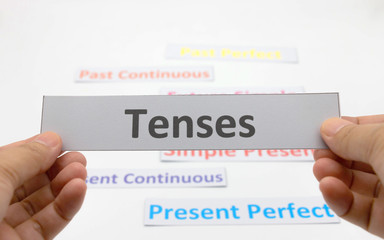
###
### Tenses, Verb Conjugation, aur Agreement Sikhna
English mein verb conjugation, agreement aur tenses ko jaanana bahut mahatvapurn hai. Inhein sikhne se aap baat karne mein fluent ho jayenge. Hindi mein tenses, verb conjugation aur agreement bhi isi tarah se sikhne ki jaroorat hai.
* **_Verb Conjugation Example:_**
**English** - I speak.
**Hindi** - Mai bolta hu.
**English** - He speaks.
**Hindi** - Vo bolta hai.
* **_Tenses Example:_**
**English** - I was speaking.
**Hindi** - Mai bol raha tha.
**English** - He will be speaking.
**Hindi** - Vo bolne wala hoga.
* **_Agreement Example:_**
English - He is a doctor.
Hindi - Vo ek doctor hai.
English - They are doctors.
Hindi - Ve doctors hain.
### Articles, Prepositions, aur Conjunctions Ko Mastery Karna
Articles (a, an, the) noun ko spasht rup se vyakt karte hain, jabki prepositions (in, on, under) shabdon ke beech sambandh darshate hain. Conjunctions (or, so, for, but, because, etc) vicharon ko jodne mein madad karte hain. Inka sahi istemal sikhna mahatvapurn hai.
**Examples:**
**Article:** This is an apple. (Ye apple hai.)
**Preposition:** Vo table ke _niche_ tha. (He was _under_ the table.)
**Conjunction:** Vo purana tha, _lekin_ bahut sundar tha. (It was old _but_ very beautiful
Vocabulary Ko Enhance Kaise Kare
--------------------------------
Ek baar aapne English grammar par maharat haasil kar li, fir aapko ab apni vocabulary ko enhance karna hoga. Aayiyen dekhte hai English padhna sikhna se aap vocabulary ko kaise enhance kar sakte hai.
* **English books, newspapers, and magazines padhein**
English vocabulary ko enhance karne ke liye aap shuruwat books, newspapers aur magazines padhne se kar sakte hai. Inmein aapko naye shabd aur phrases milenge. Aese words ko samajhne par aap apni vocabulary se enrich hote hain. Aap start me ekdum simple books padhein. Ek baar aap easy English wali books easily padh paye, to fir dheere dheere complex languages wali books padhein.
* **Mobile apps ki madad le**
Kai saare free aur paid mobile apps hai jinki madad se aap apni vocabulary ko enhance kar sakte hai. Aese apps me aapko daily new words aur phrases milenge. Aap khud se bhi new words learn kar sakte hain. Google Translate aur Clapingo jaise apps se aap apni vocabulary me new words learn sakte hain.
* **Flashcards aur quizzes ki madad le**
Lastly, aap flashcards aur quizzes ki madad le sakte hain. Flash cards se aapko regularly new words yaad rakhne me help milti hai. Ye cards aapke memory ko boost karne me help karte hain. Quiz bhi ek acchi tarah se words learn hone ki process ko easy banati hai. Aese quizzes me different levels hote hain jisse aapko complex words yaad rakhna asan ho jata hai.
Niche di gayi tables aapko vocabulary improve karne me madad karenge:
**Base Word**
**Noun form**
**Adjective Form**
**Verb Form**
Celebrate
Celebration
Celebratory
Celebrate
Music
Musician
Musical
Play Music
Nation
Nationality
National
Nationalize
Child
Childhood
Childish
Childcare
Create
Creation
Creative
Create
Educate
Education
Educational
Educate
Garden
Gardening
Garden
Garden
Communicate
Communication
Communicative
Communicate
Photograph
Photography
Photographic
Photograph
Explore
Exploration
Exploratory
Explore
**Confused Words**
**Correct Usage**
To / Too
She went to the store. It's too hot.
Farther / Further
The destination is farther. Let's discuss this further.
Principal / Principle
The school's principal is retiring. Honesty is a principle I value.
Stationary / Stationery
The car is stationary. I need some stationery for writing.
Lose / Loose
Don't lose your keys. The shirt is loose.
Than / Then
He is taller than her. First eat, then play.
Effect / Affect
The medicine had an effect. Emotions affect our decisions.
Its / It's
The dog wagged its tail. It's raining.
Your / You're
Is this your book? You're very kind.
Their / They're
Their cat is cute. They're coming over.
English Confidently Bolna Kaise Sikhe
-------------------------------------
Basic grammar aur vocabulary improve karne ke baad agla kadam aapka English confidently aur fluently bolna hona chahiye. Issey aap khud ko confidently express kar payenge aur apne thoughts easily dusron ke saath share kar payenge. Agar aap English speaking kaise sikhe janna chahte hain, toh aapko language ko learn karne ke liye in tips ko follow karna hoga:
* **Mirror ke saamne practice karna**
Aap har din mirror ke saamne practice karke apne English improve kar sakte hain. Agar aapko difficult words ya phrases ko bolna hai, toh ye exercise aapko correct pronunciation aur annunciation seekhne mein help karega.
* **English-bhashi logon ke saath practice karna**
Aap native-english speakers ya aise log jinki English fluent hai, aise logon ke saath practice karke apni English ko behtar bana sakte hain. Aap family members, relatives, ya friends ke sath shuruwat karein jissey aapka confidence build ho jaye. Fir aap advanced-English speakers ke sath practice kar sakte hain.
* **English mein movies, songs aur podcasts sunna**
Aap English movies dekhein aur usski dialogue ko follow karein. Songs bhi ek achhi tarike se seekhne ka source hai, isliye English mein songs sunne ka koshish karein. Aur podcasts bhi sun sakte hain, jo aapko difficult words aur pronunciation ko understand karne mein help karega.
Niche diye gaye table aapki English speaking improve karne me madad kar sakte hai:
**Situation**
**Useful Phrases**
Greetings
Hello! How are you?
Ordering Food
I'd like to order the chicken curry, please.
Asking for Directions
Can you tell me how to get to the nearest station?
Making a Reservation
I'd like to make a reservation for two people.
Asking for Help
Excuse me, could you help me with my luggage?
Shopping
How much does this shirt cost?
**Word**
**Correct Pronunciation**
Entrepreneur
ahn-truh-pruh-nur
Library
lahy-brer-ee
Jewelry
joo-uhl-ree
Nuclear
noo-klee-er
Espresso
e-spress-oh

English Likhna Kaise Sikhe With Easy Techniques
-----------------------------------------------
English sikhne ke last step mein hum aap easily English likhna kaise sikhe ispe focus karenge. English perfectly likhna sikhne ke liye, aapko kuch easy tips ko follow karna hoga. Inhe padhne aur ek saath implement karne se aapki English writing skills mein bahut improvement ayegi:
1. Chhote vishayon par likhna shuru karein jo aapko parichit hain.
2. Shikshakon, saathiyo, ya online communities se pratikriya prapt karein.
3. Daily ek ya aadha ghanta English likhna practice kareing aur schedule ko strictly follow karein.
4. Alag Alag writing styles analyze karein aur seekhein, jaise ki academic, journalistic, creative, etc. Issey aapko English writing improve karne me madad milegi.
5. Likhne ke baad ek break le aur aap ne jo likha hai use revise aur edit karein. Issey aap short aur clear sentences likh paayenge.
6. English mein vocabulary, grammar aur spelling sikhein aur practice karein.
7. Books aur online articles read karein jo aapko English writing me help kar sakega.
8. Aap [Clapingo app](https://www.clapingo.com/) use kar sakte hai jaha aapke tutors aapko correct English me likhne sikha sakte hai. Aapko time to time pe feedback aur practice advice milegi jissey aapki English writing aur bhi improve hogi.
[Book Trial @ 99](https://www.clapingo.com/)
English Kaise Sikhe se Related Common Questions
-----------------------------------------------
**1\. Kya Ghar Se English Sikha Ja Sakta Hai?**
Haan, aap ghar se bhi English sikh sakte hain. Aapko bas daily practice aur motivation ki zaroorat hai.
**2\. Clapingo app se English kaise sikhe?**
Clapingo app aapko English likhna, padhna, aur bolna sikhane me help karega. Aapko apni writing, reading, aur speaking ko improve karne me experts ki madad milegi. Bas aapko ek subscription kharidna padega aur aap tutors, lessons or practice drills se apni English ko improve kar sakte hain. Aap starting me ek demo class bhi book kar sakte hai sirf 99 Rs me.
**3\. English sikhne me kitne din lagte hai?**
Angrezi seekhne mein samay person ke maujooda bhasha ke hunar par, padhne mein diye gaye samay, seekhne ke tarike, aur vyaktigat kabiliyat jaise factors par nirbhar karta hai. Lekin lagbhag kuch mahino se ek saal mein, nirantar prayas ke parinamswarup aap English seekh sakte hai. Clapingo ki madad se aap sirf 180 days me English seekh sakte hai!
**You may want to read**
------------------------
**[Mastering English: Fast Track to Fluency and Confidence](https://clapingo.com/blog/how-to-learn-english-fast)
**
---
This blog is powered by Superblog. Visit https://superblog.ai to know more.
---
## Top 15 Free Online Courses For English Speaking
Author: Unknown
Published: 2023-09-21
Category: spoken english
Meta Title: Master English Speaking for Free: Top 15 Online Courses.
Meta Description: Discover the top 15 free English courses online to enhance your English speaking skills from grammar to fluency with Clapingo. Unlock new opportunities.
Tags: online english speaking course, free english courses
URL: https://clapingo.com/blog/free-english-speaking-course
Contents
* [Unlock Your Potential with Free English-Speaking Courses](#unlock-your-potential-with-free-english-speaking-courses)
* [1\. Duolingo - English for Speakers of Other Languages (ESOL)](#1-duolingo-english-for-speakers-of-other-languages-esol)
* [1\. Gamified Learning:](#1-gamified-learning)
* [2\. Comprehensive Skill Development:](#2-comprehensive-skill-development)
* [3\. Progress Tracking:](#3-progress-tracking)
* [2\. Coursera - Improve Your English Communication Skills Specialization](#2-coursera-improve-your-english-communication-skills-specialization)
* [3\. Alison - English Language Course](#3-alison-english-language-course)
* [1\. Comprehensive Grammar Instruction:](#1-comprehensive-grammar-instruction)
* [2\. Vocabulary Building Exercises:](#2-vocabulary-building-exercises)
* [3\. Reading Comprehension Practice:](#3-reading-comprehension-practice)
* [4\. Conversation Skills Development:](#4-conversation-skills-development)
* [5\. Certificates of Completion:](#5-certificates-of-completion)
* [4\. USA Learns](#4-usa-learns)
* [1\. Interactive Lessons:](#1-interactive-lessons)
* [2\. Pronunciation Feedback:](#2-pronunciation-feedback)
* [3\. Virtual Conversations:](#3-virtual-conversations)
* [4\. Progress Tracking:](#4-progress-tracking)
* [5\. ESLPod](#5-eslpod)
* [1\. Wide range of podcasts:](#1-wide-range-of-podcasts)
* [2\. Transcripts and vocabulary explanations:](#2-transcripts-and-vocabulary-explanations)
* [3\. Comprehension questions:](#3-comprehension-questions)
* [4\. Practice listening and pronunciation:](#4-practice-listening-and-pronunciation)
* [6\. OpenLearn - Everyday English](#6-openlearn-everyday-english)
* [1\. Practical Language Skills:](#1-practical-language-skills)
* [2\. Interactive Activities:](#2-interactive-activities)
* [3\. Personalized Learning:](#3-personalized-learning)
* [7\. FluentU](#7-fluentu)
* [1\. Authentic Videos:](#1-authentic-videos)
* [2\. Interactive Captions:](#2-interactive-captions)
* [3\. Flashcards and Quizzes:](#3-flashcards-and-quizzes)
* [4\. Personalized Progress Tracking:](#4-personalized-progress-tracking)
* [8\. TalkEnglish](#8-talkenglish)
* [1\. Categorized Lessons:](#1-categorized-lessons)
* [2\. Audio Recordings and Transcripts:](#2-audio-recordings-and-transcripts)
* [3\. Exercises for Practice:](#3-exercises-for-practice)
* [4\. Conversation Practice:](#4-conversation-practice)
* [9\. Oxford Online English: Speak English with Confidence course](#9-oxford-online-english-speak-english-with-confidence-course)
* [1\. Essential Conversation Skills:](#1-essential-conversation-skills)
* [2\. Pronunciation Techniques:](#2-pronunciation-techniques)
* [3\. Common Mistakes to Avoid:](#3-common-mistakes-to-avoid)
* [4\. Video Lessons:](#4-video-lessons)
* [5\. Quizzes:](#5-quizzes)
* [6\. Downloadable Materials:](#6-downloadable-materials)
* [10\. Great Learning: Free Spoken English Course](#10-great-learning-free-spoken-english-course)
* [1\. Grammar Enrichment:](#1-grammar-enrichment)
* [2\. Vocabulary Enhancement:](#2-vocabulary-enhancement)
* [3\. Fluency Development:](#3-fluency-development)
* [4\. Personalized Feedback:](#4-personalized-feedback)
* [5\. Convenient Access:](#5-convenient-access)
* [11\. Busuu](#11-busuu)
* [12\. LearnVern](#12-learnvern)
* [13\. Tree Campus](#13-tree-campus)
* [1\. Interactive Audio and Video Lessons:](#1-interactive-audio-and-video-lessons)
* [2\. Quizzes and Speaking Exercises:](#2-quizzes-and-speaking-exercises)
* [3\. Progress Tracking:](#3-progress-tracking)
* [4\. Certificates of Completion:](#4-certificates-of-completion)
* [14\. Basic English Speaking](#14-basic-english-speaking)
* [1\. Lessons on Basic Grammar Rules:](#1-lessons-on-basic-grammar-rules)
* [2\. Vocabulary Expansion:](#2-vocabulary-expansion)
* [3\. Practical Conversations:](#3-practical-conversations)
* [4\. Audio Recordings and Interactive Exercises:](#4-audio-recordings-and-interactive-exercises)
* [5\. Interactive Exercises:](#5-interactive-exercises)
* [15\. Learn American English Online with Ease](#15-learn-american-english-online-with-ease)
* [1\. Comprehensive Curriculum:](#1-comprehensive-curriculum)
* [2\. Grammar Mastery:](#2-grammar-mastery)
* [3\. Vocabulary Expansion:](#3-vocabulary-expansion)
* [4\. Idiomatic Expressions:](#4-idiomatic-expressions)
* [5\. Pronunciation Practice:](#5-pronunciation-practice)
* [Final Remarks](#final-remarks)
* [FAQs](#faqs)
In today's fast-paced world, mastering the art of effective communication in English is more important than ever. Whether you are aiming for personal growth or professional success, having strong English-speaking skills can open doors and create countless opportunities. Luckily, you don't need to spend a fortune on expensive courses to improve your fluency. There are numerous free online resources available that can help you sharpen your spoken English abilities.

Online courses have revolutionized the way we learn, providing a convenient and cost-effective alternative to traditional classroom settings. With just a laptop or smartphone and an internet connection, you can access a wealth of knowledge right at your fingertips. One such platform is Clapingo ([](//www.clapingo.com)[www.clapingo.com](https://clapingo.com/)), an online learning platform that offers personalized English coaching. While it is not a free course, Clapingo's services include [1:1 coaching](https://clapingo.com/product/english-speaking-course) with native lang uage speakers and a flexible plan that can give one an edge when it comes to [spoken English training](https://clapingo.com/blog/english-lectures-improve-english).
**Advantages**
**Clapingo's Premium 1:1 Coaching**
**Free Spoken English Programs**
**1:1 Personalized Coaching**
✔️ Highly personalized sessions tailored to individual learning needs.
❌ Typically offer group-based or generic content.
**Supervised Practice Sessions**
✔️ Practice sessions are closely supervised, allowing for immediate feedback.
❌ Limited or no supervised practice sessions in free programs.
**Native Language Support**
✔️ Teachers fluent in the learner's native language, facilitating better understanding.
❌ May not provide native language support.
**Flexible Session Timings**
✔️ Sessions can be scheduled at convenient times, accommodating busy schedules.
❌ Limited flexibility; fixed schedules in many free programs.
**Customized Learning Plans**
✔️ Tailored curriculum to address specific strengths and weaknesses.
❌ Often offer one-size-fits-all materials.
**Progress Tracking**
✔️ Regular progress assessments and feedback for continuous improvement.
❌ Limited or no formal progress tracking.
**Interactive Learning**
✔️ Interactive, engaging sessions that promote active participation.
❌ May rely more on passive listening or reading exercises.
**Access to Premium Resources**
✔️ Often includes access to premium learning materials and resources.
❌ May offer limited access to quality learning materials.
**Higher Motivation**
✔️ Personalized attention and progress tracking can boost motivation.
❌ Motivation may vary due to lack of personalization.
Investing time in improving your English speaking skills has multiple advantages. Not only does it boost your confidence in social interactions, but it also enhances your chances of securing better job opportunities in today's global economy. Whether you want to engage in fluent conversations with friends and colleagues or ace interviews and presentations, fluency in spoken English is essential.
Now let's explore the top 15 free online courses that can help you unlock your potential and become a fluent speaker of the English language.
1\. Duolingo - English for Speakers of Other Languages (ESOL)
--------------------------------------------------------------
Duolingo is an excellent platform to learn English online, and the best part is, it's entirely free! With its gamified approach and interactive exercises, Duolingo makes learning English fun and engaging. Here are the key points to know about Duolingo's English for Speakers of Other Languages (ESOL) course:

### **1\. Gamified Learning:**
Duolingo uses a game-like interface that keeps learners motivated and entertained while improving their English skills. It feels like you're playing a game rather than studying
### **2\. Comprehensive Skill Development:**
The interactive exercises on Duolingo focus on useful vocabulary, grammar, listening, and speaking skills. You can practice your English pronunciation by speaking into the microphone.
### **3\. Progress Tracking:**
Duolingo allows you to track your progress as you learn. You earn points, level up, and unlock new levels by completing lessons successfully.
Duolingo is an ideal choice for beginners or those looking to brush up on their basic English skills. Whether you want to learn perfect sentence formation in English or enhance your vocabulary, Duolingo has got you covered.
To start your free English-speaking course online with Duolingo, visit their website at www.duolingo.com/.
2\. Coursera - Improve Your English Communication Skills Specialization
------------------------------------------------------------------------
If you're serious about improving your English communication skills, then Coursera's "Improve Your English Communication Skills Specialization" is a fantastic option to consider. This comprehensive online course is designed to help English learners enhance their overall communication abilities in English. Let's take a closer look at what this specialization has to offer:
* **Pronunciation and Intonation:** One of the key focuses of this course is perfecting your English pronunciation and intonation. You'll learn how to produce clear, accurate sounds and use stress and intonation effectively in spoken English lessons.
* **Vocabulary Expansion:** Building a strong vocabulary is crucial for effective communication. Through engaging video lectures and interactive exercises, this specialization will help you expand your vocabulary and improve your word choice.
* **Effective Verbal Communication Strategies:** Communication involves more than just grammar and vocabulary. This course will teach you practical strategies for expressing yourself clearly, persuasively, and confidently in various situations.
* **Video Lectures, Quizzes, and Assignments:** As part of the learning experience, Coursera provides video lectures led by expert instructors. Interactive quizzes help reinforce your understanding of the material, while assignments allow you to apply what you've learned.
By enrolling in this specialization, you'll have access to a wealth of resources that can significantly enhance your English speaking abilities. Whether it's perfecting your pronunciation or expanding your vocabulary, Coursera has got you covered.
To enroll in the "Improve Your English Communication Skills Specialization," visit Coursera's website at www.coursera.org/specializations/english-communication-skills-improvement.
Remember, taking advantage of free online resources like this specialization can be an excellent way to enhance your skills without breaking the bank. So don't miss out on this opportunity to improve your English communication skills today!
3\. Alison - English Language Course
-------------------------------------
Alison, a well-known online learning platform, offers a free English language course that can help you improve your speaking skills. Whether you are a beginner or an advanced learner, this course has something for everyone. Let's take a closer look at the key features of Alison's English Language Course:
### **1\. Comprehensive Grammar Instruction:**
The course covers essential grammar rules and provides detailed explanations to help you build a strong foundation in English grammar.
### **2\. Vocabulary Building Exercises:**
Expand your vocabulary with interactive exercises that focus on common English words and phrasal verbs used in everyday interactions.
### **3\. Reading Comprehension Practice:**
Improve your reading skills through various texts and comprehension questions that will enhance your understanding of written English.
### **4\. Conversation Skills Development:**
Engage in conversation practice activities to boost your confidence and fluency in speaking English.
### **5\. Certificates of Completion:**
Earn certificates upon completion of each module or the full course, showcasing your dedication and progress in improving your English speaking abilities.
Alison's English Language Course is designed to be accessible to learners from all backgrounds and skill levels. With its user-friendly interface and well-structured lessons, it provides a seamless learning experience.
To enroll in Alison's free English Language Course, simply visit their website at www.alison.com and search for "English Language Course." Sign up for an account, select the course, and start your journey towards becoming a more confident English speaker.
Remember, taking advantage of free online resources like Alison's English Language Course is an excellent way to enhance your skills without breaking the bank. So why wait? Start learning today!
4\. USA Learns
---------------
USA Learns is a fantastic resource for anyone looking to improve their English speaking skills. With its self-paced learning program, interactive lessons, and practice exercises, USA Learns offers a comprehensive approach to language development. Here are the key benefits of using the USA Learns:
### **1\. Interactive Lessons:**
The platform provides engaging lessons that focus on building listening, speaking, reading, and writing skills. The interactive nature of the lessons keeps learners motivated and actively engaged in their language-learning journey.
### **2\. Pronunciation Feedback:**
USA Learns offers instant feedback on English pronunciation through its speech recognition feature. Learners can practice their pronunciation and receive real-time feedback to help them improve their speaking skills.
### **3\. Virtual Conversations:**
One unique aspect of USA Learns is its virtual conversation feature. Students can participate in virtual conversations with other learners, allowing them to practice their speaking skills in a supportive and interactive environment.
### **4\. Progress Tracking:**
Users can easily track their progress through the course materials and see how far they have come in their language learning journey.
To access this free English-speaking course online, visit the USA Learns website at www.usalearns.org.
5\. ESLPod
-----------
ESLPod is an excellent resource for English language learners looking to improve their listening and pronunciation skills. With a vast library of daily English podcasts, ESLPod covers various topics and language learning levels. Let's take a closer look at the key points:
### **1\. Wide range of podcasts:**
ESLPod offers a diverse collection of podcasts that cater to different interests and proficiency levels. Whether you're interested in business, travel, or everyday conversations, there's something for everyone.
### **2\. Transcripts and vocabulary explanations:**
Each podcast comes with a transcript, allowing learners to follow along easily. Additionally, vocabulary explanations are provided to help learners understand new English words and phrases.
### **3\. Comprehension questions:**
After listening to the podcast, learners can test their understanding with comprehension questions. This helps reinforce the content covered in the podcast and ensures comprehension.
### **4\. Practice listening and pronunciation:**
ESLPod is an excellent platform for practicing listening skills, as learners have the opportunity to listen to native speakers in natural conversations. By imitating the pronunciation of the speakers in the podcasts, learners can enhance their own speaking skills.

Overall, ESLPod is a valuable resource for English language learners seeking to improve their listening and pronunciation abilities. The combination of engaging podcasts, transcripts, vocabulary explanations, and comprehension questions makes it an effective tool for language development.
To access ESLPod's extensive library of podcasts, visit their website at www.eslpod.com.
6\. OpenLearn - Everyday English
---------------------------------
OpenLearn, one of the leading platforms for free online course, offers a fantastic resource for non-native English speakers called "Everyday English." This course is specifically designed to help learners improve their English speaking skills in practical everyday situations.
Here are the key features of OpenLearn's Everyday English course:
### **1\. Practical Language Skills:**
The course focuses on essential vocabulary and grammar concepts needed in everyday situations such as shopping, traveling, and socializing.
### **2\. Interactive Activities:**
Learners can engage in interactive activities and vocabulary quizzes to reinforce their understanding of vocabulary and grammar.
### **3\. Personalized Learning:**
OpenLearn's course materials are designed to cater to the needs of non-native English speakers, providing a personalized learning experience.
To access the Everyday English course materials provided by OpenLearn, visit their website. By utilizing this free resource, you can enhance your English speaking skills and feel more confident in various real-life scenarios. Don't miss out on this excellent opportunity to improve your spoken English for free!
7\. FluentU
------------
FluentU is an exceptional online platform that offers a unique and immersive language learning experience. With its vast library of authentic videos, FluentU provides an excellent opportunity to improve your English speaking skills. And the good part? You can try it out for free with a 14-day trial!
Here are some key features of FluentU:
### **1\. Authentic Videos:**
FluentU offers a wide variety of real-life videos, including watching English movies, TV shows, music videos, news clips, and more. By learning from these videos, you can enhance your understanding of English in different contexts.
### **2\. Interactive Captions:**
With interactive captions, you can easily follow along with the video while also having access to translations and definitions for any word or phrasal verbs. This helps you expand your vocabulary and improve comprehension.
### **3\. Flashcards and Quizzes:**
FluentU incorporates interactive flashcards and quizzes based on the video content to reinforce your learning. These tools help you practice new English words and phrasal verbs while testing your understanding of the material.
### **4\. Personalized Progress Tracking:**
FluentU tracks your progress throughout the course, allowing you to see how far you've come. This feature helps you stay motivated and engaged as you witness your improvement over time.
With its user-friendly interface and engaging content, FluentU provides an effective way to develop your English speaking skills naturally and effortlessly.
To give it a try, visit their website at www.fluentu.com and sign up for a 14-day free trial. Take advantage of this opportunity to immerse yourself in real-life English conversations and take your speaking skills to new heights!
Remember that while FluentU offers a fantastic resource for improving spoken English, Clapingo is always there to provide personalized coaching tailored specifically to Indian learners' needs. Check out Clapingo's services at [www.clapingo.com](//www.clapingo.com) for more information on how they can assist you in your English-speaking journey.
8\. TalkEnglish
----------------
TalkEnglish is a fantastic resource for anyone looking to improve their English speaking skills. With a range of free English lessons available, TalkEnglish offers learners the opportunity to practice and enhance their listening and speaking abilities. Here are some key features of TalkEnglish:
### **1\. Categorized Lessons:**
TalkEnglish provides a wide range of free English lessons that are categorized by level and topic. This makes it easy for learners to find lessons that suit their specific needs and interests.
### **2\. Audio Recordings and Transcripts:**
Each lesson on TalkEnglish includes audio recordings and transcripts, allowing learners to practice their listening skills while also improving their understanding of spoken English.
### **3\. Exercises for Practice:**
Along with the audio recordings and transcripts, TalkEnglish offers exercises for learners to practice what they have learned. These exercises focus on both listening and speaking skills, helping learners build their confidence in using English.
### **4\. Conversation Practice:**
One unique feature of TalkEnglish is the ability to access conversation practice with virtual partners through the website's chat feature. This allows learners to engage in real-life conversations and further develop their speaking skills.
With its user-friendly interface and comprehensive lessons, TalkEnglish is an excellent choice for individuals looking to improve their English speaking abilities online. So why wait? Start your free English-speaking course today!
9\. Oxford Online English: Speak English with Confidence course
----------------------------------------------------------------
Are you ready to boost your English speaking skills and gain confidence in conversations? Look no further than the Oxford Online English: Speak English fluently with Confidence course. This free online course is designed to help learners of all levels improve their spoken English abilities through dynamic video sessions, engaging quizzes, and downloadable materials.
Here are the key features of the Oxford Online English: Speak English Fluently with Confidence course:
### **1\. Essential Conversation Skills:**
Learn effective techniques for starting and maintaining conversations in various situations.
### **2\. Pronunciation Techniques:**
Master correct pronunciation and intonation to enhance clarity and understanding.
### **3\. Common Mistakes to Avoid:**
Identify and overcome common language errors made by non-native speakers.
### **4\. Video Lessons:**
Access a library of video lessons taught by experienced teachers who provide clear explanations and practical examples.
### **5\. Quizzes:**
Test your understanding after each lesson with interactive quizzes that reinforce key concepts.
### **6\. Downloadable Materials:**
Supplement your learning with downloadable resources, including transcripts, vocabulary lists, and exercises.
Take advantage of this fantastic opportunity to improve your spoken English skills for personal and professional growth. Enroll in the Oxford Online English: Speak English Fluently with Confidence course today!

Remember, practice makes perfect! Don't miss out on this valuable resource that will help you communicate confidently in English.
10\. Great Learning: Free Spoken English Course
------------------------------------------------
Are you looking for a free English-speaking course that covers all aspects of spoken English? Look no further! Great Learning offers a comprehensive spoken English course that will boost your grammar, vocabulary, and fluency. Here are the key aspects of this fantastic course:
### **1\. Grammar Enrichment:**
Learn perfect sentence formation in English online with interactive exercises and quizzes.
### **2\. Vocabulary Enhancement:**
Expand your vocabulary through engaging activities and practice using new English words in everyday conversations.
### **3\. Fluency Development:**
Improve your speaking skills through audio lessons and role-playing activities, gaining confidence in expressing yourself fluently.
### **4\. Personalized Feedback:**
Receive valuable feedback from instructors through discussion forums or live sessions, helping you identify areas for improvement.
### **5\. Convenient Access:**
Study at your own pace from anywhere with an internet connection, fitting it into your busy schedule.
With Great Learning's free spoken English course, you can develop essential language skills needed for personal growth and professional success. Start your journey today by visiting \[insert URL\]. Don't miss this opportunity to enhance your English-speaking abilities for free!
11\. Busuu
-----------
Busuu is a fantastic online platform that offers interactive language courses designed by language experts and native speakers. It focuses on providing learners with a comprehensive approach to improving their English speaking skills. Whether you want to enhance your reading, writing, listening, or speaking abilities, Busuu has got you covered.
One of the key features of Busuu is its interactive approach to learning. The platform provides a variety of exercises and activities that engage users in real-life conversations, allowing them to practice their English speaking skills in a practical way. Additionally, Busuu offers personalized feedback from native speakers through its community feature.
This allows learners to receive guidance and support from experts in the language.
Another benefit of Busuu is its emphasis on all four language skills: reading, writing, listening, and speaking. By engaging in various activities that focus on these areas, learners can develop a well-rounded understanding of the English language.
To access Busuu's English courses and start improving your speaking skills today, visit their website at www.busuu.com. Don't miss out on this incredible opportunity to learn perfect sentence formation in English online for free!
12\. LearnVern
---------------
LearnVern is a fantastic online platform offering a structured spoken English course that is taught by industry professionals through engaging video lectures. It covers all the essential aspects of English speaking, including grammar rules, vocabulary-building exercises, and conversation practice.
The course on LearnVern starts with the basics and gradually progresses to more advanced topics. The instructors use real-life examples and practical scenarios to ensure learners develop a strong foundation in English speaking skills.
One of the highlights of LearnVern is the inclusion of quizzes and assessments throughout the course. These help learners evaluate their progress and identify areas for improvement. By actively participating in these assessments, learners can monitor their growth and track their development over time.
With LearnVern's spoken English course, learners can gain confidence in communicating effectively in English. They can learn perfect sentence formation in English online, improve their pronunciation skills, expand their vocabulary, and enhance their overall fluency.
To access this free English-speaking course online in India, visit LearnVern's website. Start your journey towards becoming a more confident English speaker today with LearnVern!
13\. Tree Campus
-----------------
Tree Campus is an excellent platform that offers free English-speaking courses online. With its user-friendly interface and comprehensive modules, Tree Campus provides learners with the necessary tools to improve their spoken English skills. Here are the key features of Tree Campus:
### **1\. Interactive Audio and Video Lessons:**
Tree Campus offers engaging audio and video lessons that focus on essential conversation skills and grammar concepts. These interactive lessons enable learners to practice listening, speaking, and pronunciation in a realistic context.
### **2\. Quizzes and Speaking Exercises:**
To reinforce learning, Tree Campus includes quizzes and speaking exercises that allow learners to apply the concepts they have learned. These activities help build confidence in using English in real-life situations.
### **3\. Progress Tracking:**
Learners can easily track their progress through the online platform. This feature allows them to monitor their improvement over time and identify areas for further practice.
### **4\. Certificates of Completion:**
Upon successfully completing the course, learners receive certificates to showcase their achievement in improving their English speaking skills.
By taking advantage of the free English-speaking course on Tree Campus, you can enhance your communication abilities and boost your confidence in using English in both personal and professional settings.
14\. Basic English Speaking
----------------------------
If you're looking for a free English-speaking course that focuses on basic conversation skill, vocabulary, and sentence formation, Basic English Speaking is the perfect choice for you. This structured course is designed to help you communicate confidently in everyday situations.
Here's what you can expect from Basic English Speaking:
### **1\. Lessons on Basic Grammar Rules:**
Understanding grammar is essential for effective communication. The course covers the basics of sentence structure, verb tenses, and common grammar rules.
### **2\. Vocabulary Expansion:**
Building your vocabulary is key to speaking fluently and expressing yourself. You'll learn new English words and phrases related to various topics such as introductions, shopping, ordering food, and more.
### **3\. Practical Conversations:**
Basic English Speaking focuses on real-life situations. You'll practice conversations that are relevant to everyday scenarios like greetings, asking for directions, making appointments, and socializing.
### **4\. Audio Recordings and Interactive Exercises:**
To improve your speaking skills, the course provides audio recordings of native speakers pronouncing words and sentences clearly. You can practice speaking along with the recordings and receive instant feedback.
### **5\. Interactive Exercises:**
The course includes interactive exercises that reinforce your understanding of grammar concepts and vocabulary. These exercises will help you enhance your comprehension skills as well.
By enrolling in Basic English Speaking's online free English-speaking course in India, you will gain confidence in using the language in your daily life.
15\. Learn American English Online with Ease
--------------------------------------------
American English is widely spoken and understanding it can greatly enhance your communication, opening doors to new opportunities. Learning American English online has never been easier, thanks to a variety of free resources available. Whether you need to improve your grammar, expand your vocabulary, or wants words to be perfectly spoken, these online courses will help you master American English with ease. Here are some key points to consider:
### **1\. Comprehensive Curriculum:**
Learn American English Online offers a comprehensive curriculum designed specifically for Indian learners. The courses cover grammar, useful vocabulary, idioms, and pronunciation specific to American English.
### **2\. Grammar Mastery:**
Gain a solid foundation in American English grammar through interactive lessons and practice exercises. From verb tenses to sentence structure, you'll learn the rules and how to apply them accurately.
### **3\. Vocabulary Expansion:**
Build your vocabulary by learning commonly used English words and phrases in American English. Discover idiomatic expressions that will help you sound more natural and confident in conversations.
### **4\. Idiomatic Expressions:**
Understand and use idiomatic expressions that are commonly used in American English. These expressions add depth and nuance to your spoken language skills.
### **5\. Pronunciation Practice:**
Perfect your pronunciation by listening to native speakers and practicing specific sounds that may be challenging for non-native speakers of American English.

By taking advantage of these free online resources, you can improve your spoken American English skills at your own pace and convenience. Remember, practice is key! Take advantage of the interactive exercises provided by these courses to reinforce what you've learned.
To further enhance your learning experience and receive personalized coaching tailored to your specific needs, consider Clapingo's online platform ([www.clapingo.com](//www.clapingo.com)). With their expert guidance and support, you can accelerate your progress towards becoming a [fluent speaker](https://clapingo.com/blog/how-improve-english-speaking-skills) of English.
Final Remarks
-----------------
The importance of English speaking skills cannot be overstated. Whether for personal or professional development, being able to communicate effectively in English is a [valuable asset](https://clapingo.com/blog/practice-english-speaking-alone). Fortunately, there are numerous online resources available that offer free English-speaking courses. These courses provide a convenient and cost-effective way to improve your English-speaking abilities from the comfort of your own home. By taking advantage of platforms like Clapingo and the top 15 free online courses mentioned in this article, you can enhance your vocabulary, grammar, pronunciation, and overall fluency. So why wait? Start your free English-speaking course journey today and unlock new opportunities for success.
Unlock the power of language and technology by diving into the world of English movies and machine learning. Enhance your English-speaking skills while immersing yourself in cinematic masterpieces, and leverage the latest in machine learning to personalize your learning journey. Start today and open doors to new opportunities with improved communication and cutting-edge tech knowledge.
To continue your English learning journey with personalized coaching and guidance from expert tutors, visit Clapingo at [www.clapingo.com](//www.clapingo.com).
FAQs
----
**1\. Which online English-speaking course is best suited for beginners?**
If you're just starting your English language learning journey, Clapingo is an excellent choice. Clapingo offers a comprehensive and interactive course specifically designed for non-native English speakers. With its focus on vocabulary, grammar, speaking, and listening exercises, Clapingo will guide you step by step toward mastering the basics of English.
**2\. Are there any courses that offer live practice sessions with native speakers?**
Yes! Clapingo is an excellent platform where you can hone your conversational skills by practicing live conversations with various speakers from across the country. With one-on-one online classes conducted by excellent communicators, Clapingo ensures that you speak like a pro in no time.
**3\. Which course focuses on enhancing overall communication skills?**
Coursera's "Improve Your English Communication Skills Specialisation" is designed to enhance your overall communication skills in English. This specialized program includes modules dedicated to writing, speaking, and pronunciation. Whether it's improving your fluency or honing your writing style, this course has got you covered.
### Similar Blogs
* [Best Apps For Improving English](https://clapingo.com/blog/best-apps-english-speaking)
* [Learn English Speaking At Home](https://clapingo.com/blog/how-to-learn-english-speaking-at-home-clgwfnak2940643tpbikp9u8sy)
* [Spoken English Classes Near Me](https://clapingo.com/blog/english-classes-near-me-in-india)
* [English Speaking Topics](https://clapingo.com/blog/english-speaking-topics)
---
This blog is powered by Superblog. Visit https://superblog.ai to know more.
---
## 61 Must Know English Sentences for Daily Use
Author: Unknown
Published: 2023-09-21
Meta Title: Master Everyday English: Must Know Sentences for Daily Use
Meta Description: Enhance your English skills with essential sentences for daily life. Learn greetings, self-introductions, ordering food, and more! Start improving now!
Tags: Daily Use English, English Sentences
URL: https://clapingo.com/blog/english-sentences-for-daily-use
Contents
* [Boost Your English Skills with Essential Sentences for Daily Communication](#boost-your-english-skills-with-essential-sentences-for-daily-communication)
* [Everyday Greetings: Must Know Sentences for Daily Use](#everyday-greetings-must-know-sentences-for-daily-use)
* [Importance of greetings in daily communication:](#importance-of-greetings-in-daily-communication)
* [Basic greeting sentences and their Hindi meanings:](#basic-greeting-sentences-and-their-hindi-meanings)
* [Introducing Yourself](#introducing-yourself)
* [](#)
* [Asking for Help & Directions: Must Know English Sentences for Daily Use](#asking-for-help-and-directions-must-know-english-sentences-for-daily-use)
* [1\. The importance of asking for assistance when needed](#1-the-importance-of-asking-for-assistance-when-needed)
* [2\. Polite phrases for seeking help or directions with Hindi meanings](#2-polite-phrases-for-seeking-help-or-directions-with-hindi-meanings)
* [3\. Examples of asking for help and directions in common scenarios](#3-examples-of-asking-for-help-and-directions-in-common-scenarios)
* [Ordering Food & Drinks](#ordering-food-and-drinks)
* [1\. Common sentences used while ordering at restaurants or cafes](#1-common-sentences-used-while-ordering-at-restaurants-or-cafes)
* [2\. Vocabulary related to food and drinks with Hindi meanings](#2-vocabulary-related-to-food-and-drinks-with-hindi-meanings)
* [3\. Sentence structures for ordering food and drinks efficiently](#3-sentence-structures-for-ordering-food-and-drinks-efficiently)
* [Making Appointments & Reservations](#making-appointments-and-reservations)
* [Expressing Likes, Dislikes, and Preferences](#expressing-likes-dislikes-and-preferences)
* [1\. Useful sentences for expressing personal preferences and opinions:](#1-useful-sentences-for-expressing-personal-preferences-and-opinions)
* [2\. Vocabulary for describing likes, dislikes, and preferences with Hindi meanings:](#2-vocabulary-for-describing-likes-dislikes-and-preferences-with-hindi-meanings)
* [3\. Sentence formation to express preferences in various contexts:](#3-sentence-formation-to-express-preferences-in-various-contexts)
* [Talking about Daily Activities: Must Know English Sentences for Daily Use](#talking-about-daily-activities-must-know-english-sentences-for-daily-use)
* [Giving Advice & Suggestions](#giving-advice-and-suggestions)
* [1\. Polite phrases for offering advice and suggestions with Hindi meanings:](#1-polite-phrases-for-offering-advice-and-suggestions-with-hindi-meanings)
* [2\. Vocabulary related to giving recommendations:](#2-vocabulary-related-to-giving-recommendations)
* [3\. Sentence formations for providing helpful advice:](#3-sentence-formations-for-providing-helpful-advice)
* [Learning English Made Easy with Clapingo](#learning-english-made-easy-with-clapingo)
* [FAQs](#faqs)

Boost Your English Skills with Essential Sentences for Daily Communication
--------------------------------------------------------------------------
Welcome to the world of essential English sentences for everyday communication! Whether you are a student, a professional, or simply someone who wants to improve your language skills, mastering these must-know English sentences will greatly enhance your ability to navigate daily interactions with confidence and ease.
In this article, we will explore various sections dedicated to different aspects of daily communication. From greetings and self-introductions to asking for help and directions, ordering food and drinks, making appointments and reservations, expressing likes and dislikes, talking about daily activities, giving advice and suggestions – we've got you covered!
Each section will provide you with useful sentence structures, vocabulary with Hindi meanings (for better understanding), examples in different scenarios, tips for effective communication, as well as additional resources such as videos and blog posts from Clapingo's website.
So why are these English sentences for daily use so important? Well, imagine walking into a coffee shop without knowing how to order your favorite drink. Or trying to make an appointment but struggling to express yourself clearly. By learning these essential sentences and phrases, you can overcome language barriers and confidently engage in various social and professional settings.
We understand that learning a new language can be challenging. That's why Clapingo is here to support you every step of the way. Our courses are specifically designed with Indian learners in mind, focusing on spoken English skills that are relevant to your everyday life.
To get started on your journey towards fluency in English conversation, explore the sections below. Each one is packed with practical examples and tips that will help you communicate effectively in a wide range of situations. Let's begin!
Everyday Greetings: Must Know Sentences for Daily Use
------------------------------------------------------
Greeting others is an essential part of our daily communication. It sets the tone for our interactions and helps build positive relationships. Knowing how to greet someone in English is crucial for effective communication, whether it's a simple "Hello" or a more formal greeting.
In this section, we will explore the importance of greetings, learn some basic greeting sentences with their Hindi meanings, and provide examples of greetings in different situations.
### **Importance of greetings in daily communication:**
Greeting others is not just a formality; it plays a significant role in social and professional settings. Here are a few reasons why greetings are important:
**1\. Establishing connections:** Greetings help create a friendly and welcoming atmosphere, allowing people to feel comfortable and open to conversation.
**2\. Showing respect:** By greeting someone, you show respect for their presence and acknowledge their importance.
**3\. Building rapport:** Greetings lay the foundation for building relationships with others, whether it's with colleagues, clients, or new acquaintances.
**4\. Conveying politeness:** A simple "Good morning" or "Thank you" demonstrates good manners and shows that you value the other person.
### **Basic greeting sentences and their Hindi meanings:**
Here are some must-know English greeting sentences along with their Hindi translations:
1\. Hello - नमस्ते (Namaste)
2\. Good morning - सुप्रभात (Suprabhat)
3\. Good afternoon - शुभ दोपहर (Shubh dopahar)
4\. Good evening - शुभ संध्या (Shubh sandhya)
5\. Good night - शुभ रात्रि (Shubh ratri)
6\. How are you? - कैसे हो? (Kaise ho?)
7\. I'm fine, thank you - मैं ठीक हूँ, धन्यवाद (Main theek hoon, dhanyavaad)
8\. What's your name? - आपका नाम क्या है? (Aapka naam kya hai?)
9\. My name is... - मेरा नाम ... है (Mera naam ... hai)
10\. Nice to meet you - आपसे मिलकर खुशी हुई (Aapse milkar khushi hui)
**Examples of greetings in different situations:**
To better understand how greetings are used in various contexts, you can refer to this [article on our website](https://clapingo.com/blog/5-importance-tips-of-mastering-the-english-language-ckumucdm913471ns9jbv4ftoz). It offers practical examples and scenarios where greetings are crucial in effective communication.
Remember, mastering these basic greeting sentences will help you confidently and easily navigate social and professional interactions. Practice using these greetings in daily conversations to improve your spoken English skills.
Now that we have explored the importance of greetings and learned some basic greeting sentences let's move on to the next section: Introducing Yourself.
Introducing Yourself
---------------------
Introducing yourself is a fundamental skill that plays a significant role in both social and professional settings. Whether you're attending a job interview, meeting new people, or networking at an event, the way you introduce yourself sets the tone for future interactions. It helps establish a positive impression and creates opportunities for meaningful connections.
To help you master this essential skill, here are some sentence structures with their Hindi meanings that can assist you in confidently introducing yourself:
**11\. Formal Introduction:**
\- English Sentence: "Hello, my name is \[Your Name\]."
\- Hindi Translation: "नमस्ते, मेरा नाम \[आपका नाम\] है।"
**12\. Sharing Your Profession:**
\- English Sentence: "I am a \[Your Profession\]."
\- Hindi Translation: "मैं \[आपका पेशा\] हूँ।"
**13\. Stating Your Nationality:**
\- English Sentence: "I am from \[Your Country\]."
\- Hindi Translation: "मैं \[आपके देश\] से हूँ।"
**14\. Talking About Your Hobbies or Interests:**
\- English Sentence: "In my free time, I enjoy \[Your Hobbies/Interests\]."
\- Hindi Translation: "मुझे फ्री टाइम में \[आपकी रुचियों/होबियों\] का आनंद है।"
Watching and practicing along with this video will help you confidently refine your skills in introducing yourself.
Remember, mastering self-introduction is crucial for building relationships, creating opportunities, and leaving a positive lasting impression on others. Practice regularly, be confident, and watch yourself flourish in social and professional encounters!

---
Asking for Help & Directions: Must Know English Sentences for Daily Use
------------------------------------------------------------------------
Asking for help or directions is essential when navigating daily life situations. Whether you are in a new city or facing a challenge, knowing how to politely seek assistance can make all the difference. In this section, we will explore the importance of asking for help when needed, provide you with polite phrases to seek help or directions, and offer examples of common scenarios where asking for help is necessary.
### **1\. The importance of asking for assistance when needed**
When faced with a problem or uncertainty, it's important to remember that asking for help is not a sign of weakness but rather a display of strength and willingness to learn. By seeking assistance, you open yourself up to new experiences and opportunities for growth. It allows you to collaborate with others and build meaningful connections while also expanding your knowledge and skills.
### **2\. Polite phrases for seeking help or directions with Hindi meanings**
Here are some common phrases that can be used when seeking help or directions:
1. "Could you please assist me?" - "क्या आप मेरी मदद कर सकते हैं?"
2. "I am lost. Can you guide me?" - "मैं भटक गया हूँ। क्या आप मुझे मार्गदर्शन कर सकते हैं?"
3. "Excuse me, can you point me in the right direction?" - "माफ़ कीजिए, क्या आप मुझे सही दिशा बता सकते हैं?"
### **3\. Examples of asking for help and directions in common scenarios**
Scenario 1: Asking for directions
1. Person A: "Excuse me, I'm looking for the nearest bank. Can you help me?"
2. Person B: "Of course! Go straight ahead and take the second left. You'll find the bank on your right."
Scenario 2: Seeking assistance with a task
1. Person A: "Hi, I'm having trouble setting up my new phone. Could you please show me how to do it?"
2. Person B: "Sure! Let me walk you through the process step by step."
Scenario 3: Requesting guidance in a new city
1. Person A: "I just moved to this city and I'm not familiar with the area. Can you recommend a good place to eat?"
2. Person B: "Absolutely! There's a fantastic restaurant just around the corner. I can give you directions if you'd like."
By using these polite phrases and examples in various scenarios, you can confidently ask for help or directions whenever needed.
Ordering Food & Drinks
-----------------------
Ordering food and drinks at restaurants or cafes is a common activity that requires effective communication skills. Whether dining out with friends or trying local cuisine, knowing how to express your preferences politely is essential. In this section, we will explore common sentences used while ordering at restaurants or cafes, vocabulary related to food and drinks, and sentence structures for ordering efficiently.
### **1\. Common sentences used while ordering at restaurants or cafes**
Here are some frequently used sentences during the ordering process:
1. "May I see the menu, please?" - "कृपया मेनू दिखाएं।"
2. "I would like to order \[dish name\]." - "मुझे \[डिश का नाम\] आर्डर करना है।"
3. "Can I have a glass of water, please?" - "क्या मुझे एक गिलास पानी मिल सकता है?"
### **2\. Vocabulary related to food and drinks with Hindi meanings**
Here are some essential food and drink vocabulary words:
\- Food: भोजन (Bhojan), Breakfast: नाश्ता (Nasta), Lunch: दोपहर का भोजन (Dophar ka Bhojan), Dinner: रात का खाना (Raat ka Khana)
\- Drink: पीने की चीज़ (Pine ki Cheez), Water: पानी (Paani), Coffee: कॉफ़ी (Coffee), Tea: चाय (Chai)
### **3\. Sentence structures for ordering food and drinks efficiently**
To order efficiently, you can use the following sentence structures:
1. "I would like \[dish name\] with \[side dish\]." - "मुझे \[डिश का नाम\] \[साइड डिश\] के साथ चाहिए।"
2. "Could I get the bill, please?" - "क्या मुझे बिल मिल सकता है?"
By familiarizing yourself with these common sentences, vocabulary words, and sentence structures, you'll be able to confidently order food and drinks in various dining situations.
Making Appointments & Reservations
----------------------------------
Making appointments and reservations is an essential part of daily life. Whether you are scheduling a doctor's appointment or booking a table at a restaurant, it's important to know the right phrases and vocabulary to use.
Here are some must-know English sentences for making appointments and reservations:
1. "I would like to make an appointment/reservation." - मैं एक अपॉइंटमेंट / बुकिंग करना चाहूँगा। (Main ek appointment/booking karna chaahunga.)
2. "Can I schedule/book an appointment for \[date\]?" - क्या मैं \[तारीख\] के लिए अपॉइंटमेंट / बुकिंग कर सकता हूँ? (Kya main \[date\] ke liye appointment/booking kar sakta hoon?)
3. "What time slots do you have available?" - आपके पास कौनसे समय स्लॉट्स उपलब्ध हैं? (Aapke paas kaunse samay slots uplabdh hain?)
4. "I need to reschedule/cancel my appointment." - मुझे अपने अपॉइंटमेंट को पुनर्निर्धारित / रद्द करना होगा। (Mujhe apne appointment ko punarnirdharit/cancel karna hoga.)
Here is some vocabulary associated with dates, times, and locations:
1\. Dates - तारीखें (taareekhein):
\- Today - आज (aaj)
\- Tomorrow - कल (kal)
\- Next week - अगले सप्ताह (agale saptaah)
\- Next month - अगले महीने (agale mahine)
2\. Times - समय (samay):
\- Morning - सुबह (subah)
\- Afternoon - दोपहर (dopahar)
\- Evening - शाम/संध्या (shaam/sandhya)
\- Night - रात (raat)
3\. Locations - स्थान (sthān):
\- Doctor's office/clinic - चिकित्सक का कार्यालय / क्लिनिक (chikitsak ka kāryālay/klinik)
\- Restaurant/Café
Expressing Likes, Dislikes, and Preferences
--------------------------------------------
Do you ever struggle to express your likes, dislikes, and preferences in English? Well, worry no more! In this section, we will explore some useful sentences for expressing personal preferences and opinions.
We will also learn relevant vocabulary with Hindi meanings and discover sentence formations that will help you express your preferences in various contexts.
### **1\. Useful sentences for expressing personal preferences and opinions:**
1. I really enjoy/like/love...
2. I'm a big fan of...
3. I prefer...
4. I can't stand/hate/don't like...
5. I'm not really into...
6. It's not my cup of tea...
These sentences are great for expressing your likes, dislikes, and preferences in everyday conversations. Whether you're talking about movies, food, hobbies, or anything else that interests you, these phrases will come in handy.
### **2\. Vocabulary for describing likes, dislikes, and preferences with Hindi meanings:**
Here is a list of commonly used words to describe likes, dislikes, and preferences, along with their Hindi meanings:
**English Word**
**Hindi Meaning**
Favorite
पसंदीदा (Pasandida)
Enjoy
मजा लेना (Maja lena)
Love
प्यार करना (Pyar karna)
Like
पसंद होना (Pasand hona)
Prefer
प्राथमिकता देना (Prathamikta dena)
Hate
नफरत करना (Nafrat karna)
Dislike
नापसंद करना (Napasand karna)
This vocabulary will help you accurately express your feelings toward different things and situations.
### **3\. Sentence formation to express preferences in various contexts:**
To express your preferences in different contexts, it's important to know how to form sentences correctly. Here are some sentence formations that you can use:
\- When talking about food:
1. "I prefer Indian cuisine over Chinese food."
2. "I really enjoy spicy dishes."
3. "I can't stand the taste of seafood."
\- When discussing hobbies:
1. "I love playing sports, especially cricket."
2. "I'm not really into painting, but I enjoy photography."
3. "My favorite hobby is reading books."
\- When expressing movie preferences:
1. "My favorite genre is comedy."
2. "I'm a big fan of action movies."
3. "I don't like horror films; they scare me."
These sentence formations will help you confidently express your preferences and opinions in various situations.
By learning these useful sentences, vocabulary, and sentence formations, you'll be able to express your likes, dislikes, and preferences with ease. Remember to practice using them in your conversations to improve your spoken English skills and communicate effectively.
Keep exploring Clapingo's resources for more tips and tricks on mastering essential English sentences for daily use!

Talking about Daily Activities: Must Know English Sentences for Daily Use
--------------------------------------------------------------------------
When it comes to daily conversations, being able to talk about your routine and activities is essential. Whether you're discussing your day with friends or colleagues, or simply describing your schedule to someone new, having a good grasp of the common action verbs and sentence structures for discussing daily activities is key.
Let's dive in and explore some must-know English sentences for daily use.
**Common Action Verbs Used to Describe Daily Activities with Hindi Meanings:**
1\. Wake up - उठना (uthna)
2\. Get ready - तैयार होना (taiyar hona)
3\. Have breakfast/lunch/dinner - नाश्ता/दोपहर का भोजन/रात का खाना करना (nashta/dopahar ka bhojan/raat ka khana karna)
4\. Go to work/school - काम/स्कूल जाना (kaam/school jana)
5\. Come back home - घर वापस आना (ghar vaapas aana)
6\. Spend time with family/friends - परिवार/दोस्तों के संग समय बिताना (parivar/doston ke sang samay bitana)
7\. Exercise/workout - व्यायाम करना (vyaayaam karna)
8\. Relax/watch TV/listen to music - आराम करना/टीवी देखना/संगीत सुनना (aaram karna/TV dekhna/sangeet sunna)
9\. Go to bed - सोने जाना (sone jana)
Sentence Structures for Discussing Routines and Activities:
1\. Present Simple Tense:
\- I wake up at 6 AM every morning.
\- She goes to the gym three times a week.
2\. Present Continuous Tense:
\- We are having dinner at a restaurant tonight.
\- They are studying for their exams this week.
3\. Adverbs of Frequency:
\- He always eats lunch at his desk.
\- They rarely go out on weekends.
**Examples of Talking About Daily Activities in Different Scenarios:**
1\. Talking with a Friend:
1. Friend: What do you usually do after work?
2. You: After work, I usually go to the gym and then spend some time reading.
2\. Casual Conversation with a Colleague:
1. Colleague: How was your weekend?
2. You: It was great! I went hiking on Saturday and caught up with some friends on Sunday.
3\. Describing Your Routine to Someone New:
1. Stranger: So, what's a typical day like for you?
2. You: Well, I wake up early, have breakfast, and then head to work. In the evenings, I usually relax by watching my favorite TV shows.
Remember, these are just a few examples of how you can talk about your daily activities in English. Feel free to adapt them based on your own routine and preferences. Practicing these sentences will help you become more fluent and confident in expressing yourself in everyday conversations.
Now that you have learned some essential English sentences for daily use related to routine and activities, let's move on to the next section on giving advice and suggestions. Remember, practice is key to mastering these sentence structures and vocabulary. Keep exploring and enjoy your language-learning journey with Clapingo!
Giving Advice & Suggestions
----------------------------
When it comes to daily communication, offering advice and suggestions is an essential skill. Whether you're helping a friend make a decision or guiding a colleague through a challenging situation, knowing how to provide helpful advice can make a significant difference.
In this section, we will explore some polite phrases for offering advice and suggestions, vocabulary related to giving recommendations, and sentence formations for providing valuable guidance.
### **1\. Polite phrases for offering advice and suggestions with Hindi meanings:**
1. "I suggest that you..." - "मैं सुझाव देता हूँ कि आप..."
2. "Why don't you try..." - "क्यों नहीं कोशिश करते हैं..."
3. "You might want to consider..." - "आपको विचार करना चाहिए..."
4. "Have you thought about..." - "क्या आपने सोचा है..."
5. "It would be a good idea to..." - "यह एक अच्छी विचार होगी..."
### **2\. Vocabulary related to giving recommendations:**
Here are some words and phrases that will come in handy when giving advice:
\- Recommend - सिफारिश करना
\- Suggest - सुझाना
\- Advise - सलाह देना
\- Propose - प्रस्ताव
### **3\. Sentence formations for providing helpful advice:**
To provide effective advice, consider using the following sentence formations:
a) If you want to express your suggestion directly:
"I recommend (verb-ing)..." - "मैं सिफारिश करता हूँ कि (verb-ing) करें..."
1. For example: "I recommend trying a different approach." - "मैं सिफारिश करता हूँ कि एक अलग तरीके की कोशिश करें."
b) If you want to provide a general recommendation:
"It's always a good idea to (verb)..." - "हमेशा अच्छा विचार होता है (verb) करना..."
1. For example: "It's always a good idea to double-check your work." - "हमेशा अच्छा विचार होता है अपने काम को दोबारा से जाँचने में."
c) If you want to emphasize the importance of the advice:
"I strongly advise (verb-ing)..." - "मैं प्रभावी सलाह देता हूँ (verb-ing) करने के लिए..."
1. For example: "I strongly advise taking regular breaks while studying." - "मैं प्रभावी सलाह देता हूँ पढ़ाई के समय नियमित प्रतीक्षा करने के..."
Remember, giving advice and suggestions should always be done with empathy and consideration for the other person's feelings. By using these polite phrases, expanding your vocabulary, and mastering sentence formations, you will become a valuable source of guidance and support for those around you.
Learning English Made Easy with Clapingo
-----------------------------------------
Learning a new language can be challenging, but mastering essential English sentences for daily use is crucial for effective communication. Whether you're seeking to improve your spoken English skills or enhance your overall fluency, Clapingo offers a range of resources and courses designed to make your language journey easier and more enjoyable.
Firstly, let's recap the importance of learning these must-know English sentences for daily use. These sentences form the foundation of everyday communication and allow you to navigate various social and professional situations confidently. From greetings and introductions to asking for help, ordering food, making appointments, expressing preferences, and talking about daily activities - these are the building blocks that enable meaningful interactions with others.
Clapingo understands the unique challenges faced by Indian learners when it comes to English communication. That's why their resources and courses are specifically tailored to address common difficulties faced by Indian speakers. The effectiveness of Clapingo's approach lies in its focus on practical application and real-life scenarios.
Their engaging lessons provide ample opportunities to practice speaking in a supportive environment, helping you gain confidence and fluency in no time.
To further enhance your spoken English skills, Clapingo offers a variety of resources on its website.
From blog articles on grammar tips and vocabulary expansion to videos demonstrating proper pronunciation and sentence formation, there is something for every learner. One particularly useful resource is their article on [how to improve English speaking fluency](https://clapingo.com/blog/how-improve-english-speaking-fluency)[.](https://clapingo.com/blog/how-to-improve-english-speaking-fluency\).) This comprehensive guide provides valuable insights and actionable strategies that can take your speaking abilities to new heights.
In conclusion, learning essential English sentences for daily use is a vital step toward becoming a confident English speaker. With Clapingo's effective resources and courses at your disposal, you have the tools necessary to improve your spoken English skills in an enjoyable and efficient manner. Take the initiative to explore the wealth of knowledge available on [Clapingo's website](https://www.clapingo.com), and embark on your journey to becoming a fluent English speaker today.
FAQs
----
**1\. What are the daily use of English sentences with Hindi meanings?**
In order to effectively communicate in English, it is essential to learn daily use of English sentences. These sentences cover a wide range of topics and situations that learners are likely to encounter in their day-to-day lives. With the added advantage of Hindi meanings, learners can easily understand and remember the sentences.
**2\. How can I learn daily to use English sentences with Hindi meanings?**
Clapingo offers a variety of resources to help learners improve their spoken English skills. The platform provides courses, articles, and interactive exercises specifically designed to teach the daily use of English sentences with Hindi meanings. By engaging with these resources regularly, learners can enhance their vocabulary and fluency in practical everyday conversations.
**3\. Why is learning daily use English sentences important?**
Learning daily use English sentences daily is crucial for effective communication in various social and professional settings. It helps learners express themselves clearly, understand others better, and build meaningful connections. These sentences serve as the building blocks for mastering the language and boosting overall confidence when interacting with native speakers.
**4\. Where can students find comprehensive resources for learning daily use English sentences?**
Clapingo offers a wide range of resources tailored specifically to student needs. From interactive lessons to engaging exercises, the platform provides an immersive learning experience that helps students grasp essential English sentence structures effortlessly. Additionally, Clapingo's dedicated team of instructors ensures personalized attention to address any queries or challenges faced by students during their language learning journey.
---
This blog is powered by Superblog. Visit https://superblog.ai to know more.
---
## How to Learn English Fast: Fast Track to Fluency and Confidence
Author: Unknown
Published: 2023-09-04
Meta Title: Learn English Step by Step: Expert Tips for Fast Fluency
Meta Description: Discover effective methods on how to learn Spoken English step by step. From basics to fluency, follow expert tips for rapid English language mastery.
Tags: english speaking at home, learn English quickly
URL: https://clapingo.com/blog/how-to-learn-english-fast
Contents
* [Building a Strong Foundation: How to Learn English Step by Step](#building-a-strong-foundation-how-to-learn-english-step-by-step)
* [Importance of mastering the basics in language learning](#importance-of-mastering-the-basics-in-language-learning)
* [Focus on vocabulary acquisition and pronunciation practice](#focus-on-vocabulary-acquisition-and-pronunciation-practice)
* [Utilize online resources and courses for structured learning](#utilize-online-resources-and-courses-for-structured-learning)
* [Practice speaking with native speakers or language exchange partners.](#practice-speaking-with-native-speakers-or-language-exchange-partners)
* [Dive into English: Mastering Fluency through Total Immersion](#dive-into-english-mastering-fluency-through-total-immersion)
* [Surround Yourself with English Media](#surround-yourself-with-english-media)
* [Engage with Native Speakers](#engage-with-native-speakers)
* [Turn Your Home into an English Oasis](#turn-your-home-into-an-english-oasis)
* [Use language-learning apps and platforms for interactive practice](#use-language-learning-apps-and-platforms-for-interactive-practice)
* [Unlocking Your Language Potential: Effective Strategies for Learning English Fast](#unlocking-your-language-potential-effective-strategies-for-learning-english-fast)
* [Set Clear Goals and Craft Your Study Plan](#set-clear-goals-and-craft-your-study-plan)
* [Conquer Grammar: One Chunk at a Time](#conquer-grammar-one-chunk-at-a-time)
* [Mnemonic Magic and Visual Aids](#mnemonic-magic-and-visual-aids)
* [Active Learning: Role-Playing and Debates](#active-learning-role-playing-and-debates)
* [The Power of Ears: Sharpen Your English Listening Skills](#the-power-of-ears-sharpen-your-english-listening-skills)
* [Listen to podcasts, audiobooks, and news broadcasts in English.](#listen-to-podcasts-audiobooks-and-news-broadcasts-in-english)
* [Practice shadowing by repeating what you hear](#practice-shadowing-by-repeating-what-you-hear)
* [Watch movies or TV shows with subtitles to improve comprehension](#watch-movies-or-tv-shows-with-subtitles-to-improve-comprehension)
* [Engage in active listening exercises for a better understanding](#engage-in-active-listening-exercises-for-a-better-understanding)
* [Unlocking the Power of Words: How To Learn English Speaking Fast At Home](#unlocking-the-power-of-words-how-to-learn-english-speaking-fast-at-home)
* [Regular Practice with Language Partners](#regular-practice-with-language-partners)
* [Self-Analysis through Voice Recording](#self-analysis-through-voice-recording)
* [Leverage Online Resources for Insights](#leverage-online-resources-for-insights)
* [Focus on fluency rather than perfection during conversations](#focus-on-fluency-rather-than-perfection-during-conversations)
* [Unleash Your Inner Wordsmith: Mastering Written English](#unleash-your-inner-wordsmith-mastering-written-english)
* [Expand Vocabulary and Style Through Extensive Reading](#expand-vocabulary-and-style-through-extensive-reading)
* [Practice writing regularly through journaling or blogging](#practice-writing-regularly-through-journaling-or-blogging)
* [Seek feedback from native speakers or professional tutors](#seek-feedback-from-native-speakers-or-professional-tutors)
* [Utilize online tools for grammar and spell-checking](#utilize-online-tools-for-grammar-and-spell-checking)
* [From Beginner to Fluent: Keeping the Momentum in Language Learning](#from-beginner-to-fluent-keeping-the-momentum-in-language-learning)
* [Embrace mistakes as learning opportunities.](#embrace-mistakes-as-learning-opportunities)
* [Find a supportive community of language learners for motivation](#find-a-supportive-community-of-language-learners-for-motivation)
* [Celebrate small victories along the way.](#celebrate-small-victories-along-the-way)
* [Stay consistent with daily practice and set realistic expectations](#stay-consistent-with-daily-practice-and-set-realistic-expectations)
* [Unlock Your Potential with Clapingo: Accelerate Your English Learning Journey](#unlock-your-potential-with-clapingo-accelerate-your-english-learning-journey)
* [Final Thoughts](#final-thoughts)
* [FAQs](#faqs)
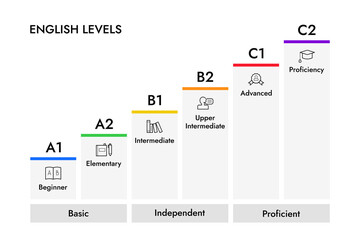
India is a land of paradox. On the one hand, we see most of the communications, whether it be road signs, medicine prescriptions, government notices, documentation, and even advertisements written in English. But, on the other hand, there are literally a handful of people who understand or speak English.
_As per a survey, only six percent of Indians can actually speak English. That, too, is not in a proper, fluent way._
This has resulted in a large section of society being left in the lurch, needing to understand what is written or said in English. This has led to many missed opportunities due to a lack of fluency in English. That is why it becomes imperative for the ordinary Indian citizens to master this language and communicate confidently.
To help people how to learn English fast, we have provided an easy-to-understand how-to-learn English step-by-step method that can be followed to improve your proficiency in the language.
Building a Strong Foundation: How to Learn English Step by Step
---------------------------------------------------------------
Let's start our journey of learning English fast by building a solid foundation to build our English proficiency.
### Importance of mastering the basics in language learning
Whether you are building a single-storied home or a cloud-kissing skyscraper, you need a solid foundation to ensure that it stands the test of time, and a firm grasp of the English language is no different. Think of mastering the basics of how to learn to speak English fast as the strong groundwork for a confident, fluent you!
### Focus on vocabulary acquisition and pronunciation practice
A strong foundation for how to learn to speak English fast at home is based upon the strong partnership of vocabulary acquisition and pronunciation practice. Picture it this way: vocabulary and pronunciation are like Barbie and Ken; they’re a match made in heaven.
So, [start by building your vocabulary](https://clapingo.com/blog/spoken-english-words). Next, speak to someone who knows English better than you do. Be sure to correct yourself and try again if need be. If you're shy, talk to your pet or even yourself. But make sure that you pronounce the words correctly.
### Utilize online resources and courses for structured learning
I would greatly appreciate online resources and courses. Jump into interactive courses, apps, and websites. These resources offer structured lessons that take you from a beginner to a confident communicator. Plus, they're available 24/7, so you can learn how to learn English fast at your own pace from the comfort of your home.
### Practice speaking with native speakers or language exchange partners.
Moreover, you can practice speaking with native speakers or language exchange partners. You can just look for language exchange partners online or join language groups in your area. Engaging in [honest conversations](https://clapingo.com/blog/english-speaking-topics) will help you understand accents, slang, and cultural nuances. This can make the difference between an average (or not so) English speaker and an outstanding one.

Dive into English: Mastering Fluency through Total Immersion
------------------------------------------------------------
Next, consider taking the plunge into total immersion if you are really serious about how to learn English fast. If you are wondering how to learn English fast with total immersion, here's how you can do it.
### Surround Yourself with English Media
So, first, you'd want to include English in your everyday activities in any way possible. If you want to learn to speak English fast at home, then make sure English is all around you – in your workplace, at home, and when out and about. Watch movies and TV shows, and read books, blogs, or magazines in English. Immerse yourself in the language's rhythm and tone. It doesn't matter what the content is as long you hear it in English.
### Engage with Native Speakers
Now, it's time to put your English speaking skills to the test. You need to engage with native speakers – it could be a language exchange partner or a conversation club. And yes, don't worry about making mistakes; they're stepping stones to improvement of how to learn English fast. Conversations bring the language to life, and you'll learn to think on your feet.
### Turn Your Home into an English Oasis
Did you know that your home is a language playground in itself? Confused? Well, let us clear things out. You can label objects in your home in English — your chair, your fridge, your plant. This creates an immersive environment, and you'll find yourself thinking in English even when you're not consciously trying.
### Use language-learning apps and platforms for interactive practice
Remember those handy apps and platforms we mentioned earlier? Time to make them your new sidekicks! These tools offer interactive lessons, quizzes, and games that make learning feel like play. Learn perfect sentence formation in English online, learn new phrases, and watch your skills flourish with these apps and platforms.
Unlocking Your Language Potential: Effective Strategies for Learning English Fast
---------------------------------------------------------------------------------
If you want to supercharge your English learning and get results quickly, then here are a few strategies to help you on your journey:
### Set Clear Goals and Craft Your Study Plan
Remember the saying, 'A goal without a plan is just a wish'? Well, this is especially true when it comes to learning English.
You'll need a clear plan to learn the language fast and reach fluency quickly. Set yourself **_SMART_** (Specific, Measurable, Achievable, Relevant, and Time-bound) goals that you can work towards.
### Conquer Grammar: One Chunk at a Time
Grammar might sound like a daunting task, but fear not – you've got the tools to do it! Break down complex grammar rules into manageable chunks. Tackle one rule at a time, practice it, and only move on when you're comfortable. It's like assembling a language puzzle!

### Mnemonic Magic and Visual Aids
You can also take the help of memory superheroes: [mnemonics](https://www.youtube.com/watch?v=AynLjoiVlQ0) and visual aids! For instance, associate new words with things you already know – it could be a similar word in your native language or a funny image. Stick post-it notes with new vocabulary around your space, and your brain will thank you later.
### Active Learning: Role-Playing and Debates
If you're still thinking, "I want to improve my English speaking - [how to improve spoken English](https://clapingo.com/blog/how-improve-english-speaking-skills)?" then it's time to get active! Imagine scenarios where you're ordering at a restaurant, having a conversation with a coworker, or even talking to your crush. Role-play these situations to boost your practical language skills. Engage in debates to express your opinions confidently.
The Power of Ears: Sharpen Your English Listening Skills
--------------------------------------------------------
_'When you talk, you are only repeating what you already know. But if you listen, you may learn something new.'_ - His Holiness The Dalai Lama.
### Listen to podcasts, audiobooks, and news broadcasts in English.
Listening to English media is a great way how to learn English speaking fast at home and sharpen your listening skills. Podcasts, audiobooks, [songs](https://clapingo.com/blog/can-listening-to-songs-help-you-improve-your-spoken-english-ckxga26vi03801jp75te3i8hx), and news broadcasts are all valuable resources for getting in the habit of hearing spoken English. When you encounter new vocabulary or expressions, make sure to note them down so that you can practice using them later on.
### Practice shadowing by repeating what you hear
Now, are you ready for a speaking workout? Try shadowing! Shadowing involves repeating what you hear. This technique improves your pronunciation, rhythm, and intonation. You're not just listening; you're actively engaging with the language. Plus, you get to practice speaking out loud, which is a great way to build your confidence.
### Watch movies or TV shows with subtitles to improve comprehension
Lights, camera, subtitles!
Watching movies or TV shows with English subtitles helps you not just enjoy the plot but also absorb natural conversations and expressions. It's like learning while having a movie night – win-win!
### Engage in active listening exercises for a better understanding
Finally, engage in active listening exercises. Active listening involves more than just hearing the words; it's about understanding them too. To do this, you'll need to pay attention to intonation and body language, as well as the comments themselves.

Unlocking the Power of Words: How To Learn English Speaking Fast At Home
------------------------------------------------------------------------
Now that your ears are in shape, it's time to work on your speaking. Speaking English fluently is challenging and quick, but with the right mindset and tools, you can make significant progress in a short amount of time. Here's how to learn to speak English fast with the power of words.
### Regular Practice with Language Partners
Practice makes perfect! So, get involved in regular conversations with language partners or participate in language exchange programs. This will help you to get used to the flow of dialogue in English. Plus, you'll be able to learn from native speakers who can provide feedback on your pronunciation and other language-related issues.
### Self-Analysis through Voice Recording
You can also record yourself speaking and check your performance. Identify areas that need improvement – it might be pronunciation, intonation, or even the pacing of your speech.
### Leverage Online Resources for Insights
In this digital era, learning is at your fingertips. Explore online resources tailored to refining your spoken English, such as [Clapingo's](https://www.clapingo.com). How to learn English step-by-step tips. Clapingo provides simple, easy-to-follow advice on a variety of topics, including English public speaking, grammar, and conversation.
### Focus on fluency rather than perfection during conversations
In the world of spoken English, fluency reigns supreme. It's more important to be able to express yourself effectively than to use perfect [grammar](https://clapingo.com/blog/learn-10-ways-to-improve-your-english-fluency-without-resorting-grammar-sitessupernameclapingopostsckybswn4t227621ko5vc96lic8). You should focus on establishing a natural flow of communication rather than worrying about every little mistake you make.
Unleash Your Inner Wordsmith: Mastering Written English
-------------------------------------------------------
Now that you've learned spoken English let's move on to written English. Writing in English requires equal amounts of patience and dedication.
### Expand Vocabulary and Style Through Extensive Reading
The path to writing begins with reading. Immerse yourself in English literature, articles, and online content. This not only broadens your vocabulary but also nurtures your writing style.
### Practice writing regularly through journaling or blogging
Engage in regular writing exercises through journaling or even starting a blog. These allow you to experiment with various tones and genres, sharpening your skills each time.
### Seek feedback from native speakers or professional tutors
An external perspective is essential for how to learn English step by step, as it can provide valuable insight into the mistakes you are making and how to improve them.
### Utilize online tools for grammar and spell-checking
Leverage online tools for grammar and spell-checking to ensure accuracy. These resources act as your vigilant companions, safeguarding your work from common errors. Some of the popular tools include Grammarly, Hemingway Editor, and ProWritingAid.
From Beginner to Fluent: Keeping the Momentum in Language Learning
------------------------------------------------------------------
Tackling the journey of learning a language, like English requires perseverance. Here's how you can continue on your path of how to learn English fast, even when it seems impossible.
### Embrace mistakes as learning opportunities.
View errors not as setbacks but as stepping stones. Each misstep is a chance to learn and refine. Embrace these moments with grace and watch your proficiency grow.
### Find a supportive community of language learners for motivation
Connect with a community of language learners who share your aspirations. Their encouragement and shared experiences will propel you forward.
### Celebrate small victories along the way.
Celebrate every achievement, whether successfully holding a conversation or mastering a complex sentence structure. These wins reinforce your dedication.
### Stay consistent with daily practice and set realistic expectations
Lastly, make sure to dedicate yourself to everyday practice. Consistency is the cornerstone of improvement.
Unlock Your Potential with Clapingo: Accelerate Your English Learning Journey
-----------------------------------------------------------------------------
Clapingo is the best way to learn English fast online. With a variety of English courses crafted by professional tutors and live classes, Clapingo ensures you get the most out of your learning journey. Here's how Clapingo can be your key to accelerating your English learning adventure.
Clapingo is an online learning platform catering specifically to Indian learners. It offers various interactive courses and classes to suit different learning styles, such as audio lessons, video tutorials, led Live Classes, and more.
With Clapingo, you also access a goldmine of resources, spanning interactive courses, engaging exercises, and insightful articles. These are designed to help you master the nuances of English quickly and conveniently.
But [what sets Clapingo apart](https://clapingo.com/blog/spoken-english-guru-clapingo) from the others is its personalized coaching options. You can benefit from guidance tailored to your proficiency level and learning pace. The platform's expert coaches provide insightful feedback and advice, steering you toward fluency.
Take a look at some of the testimonials from Clapingo’s satisfied learners to get an idea of how Clapingo can help you take your English writing skills to the next level.
_"What a Unique and Realistic way of coaching and mentoring!!! It is a well-known fact in the universe that practice makes a man perfect, and so is the mantra of Clapingo. Awesome speakers, patient, give ample tips and guide you throughout the sessions. Lifetime opportunity - worth to invest."_ - Ajanti, Ghaziabad.
_"Clapingo not only helped me to improve my speaking skills, but it also helped me to boost my confidence_." - Kirti, Delhi.
_"Clapingo helped me a lot in improving my English speaking skills." -_ Shahbaz Shaikh, Pune.
Final Thoughts
--------------
If you are wondering how to learn English fast at home, then we hope this article has provided you with some helpful information. From active learning to using words effectively, every step matters. The key is to persistently strive for improvement and never settle. With Clapingo, you can take your English mastery journey to the next level with its comprehensive language courses, expert coaching, and personalized guidance.
So what are you waiting for? Start your English Mastery journey today! Explore [Clapingo's website](https://clapingo.com/) for more learning.
**FAQs**
--------
**What's the best way to learn English step by step?**
Begin with mastering the basics: vocabulary, grammar, and pronunciation. Engage in regular conversations, practice listening, and immerse yourself in English media. Gradually tackle more complex aspects and build your skills step by step.
**Can Clapingo help you learn English fast?**
Yes! With its comprehensive language courses, personalized guidance, and expert coaching, Clapingo can help you learn English faster. Its resources can be tailored to suit your individual needs so that you can maximize the efficiency of your learning journey. Try it now and see just how quickly you can make progress!
**How important is a daily practice in learning English fast?**
Daily practice is crucial for rapid progress. It reinforces your learning, improves retention, and builds confidence. Even dedicating a short time each day to listening, speaking, reading, and writing can make a significant difference.
---
This blog is powered by Superblog. Visit https://superblog.ai to know more.
---
## Learn English While Sleeping - Fact Or Fiction?
Author: Unknown
Published: 2023-09-04
Meta Title: Unlock Fluency: Debunking Myth of Learning While Sleeping
Meta Description: Discover truth behind learning English while sleeping. Separate fact from fiction and explore proven strategies to optimize your English language journey.
Tags: learn english, Learn while Sleeping
URL: https://clapingo.com/blog/learn-english-while-sleeping
Contents
* [Can We Learn English While Sleeping? Separating Fact from Fiction](#can-we-learn-english-while-sleeping-separating-fact-from-fiction)
* [The Science Behind Sleep Learning](#the-science-behind-sleep-learning)
* [Understanding Sleep and its Impact on Learning](#understanding-sleep-and-its-impact-on-learning)
* [The Different Stages of Sleep and Their Functions](#the-different-stages-of-sleep-and-their-functions)
* [Myth vs Reality - Can You Learn English While Sleeping?](#myth-vs-reality-can-you-learn-english-while-sleeping)
* [Is It Possible to Learn English While Sleeping? Examining the Claims](#is-it-possible-to-learn-english-while-sleeping-examining-the-claims)
* [Strategies for Maximizing Language Learning During Wakeful Hours](#strategies-for-maximizing-language-learning-during-wakeful-hours)
* [Optimizing Your Language Learning Journey When Awake](#optimizing-your-language-learning-journey-when-awake)
* [Harnessing Sleep for Language Learning](#harnessing-sleep-for-language-learning)
* [Supportive Strategies to Enhance Learning During Sleep](#supportive-strategies-to-enhance-learning-during-sleep)
* [The Importance of a Comprehensive Learning Approach](#the-importance-of-a-comprehensive-learning-approach)
* [Balancing Wakeful Engagement and Sleep Support](#balancing-wakeful-engagement-and-sleep-support)
* [Achieve Fluency with Clapingo's Personalized Approach](#achieve-fluency-with-clapingos-personalized-approach)
* [Clapingo: Your Reliable Language Learning Partner](#clapingo-your-reliable-language-learning-partner)
* [FAQs: Can We Learn English While Sleeping? Separating Fact from Fiction](#faqs-can-we-learn-english-while-sleeping-separating-fact-from-fiction)

Can We Learn English While Sleeping? Separating Fact from Fiction
-----------------------------------------------------------------
Have you ever wondered if it's possible to learn English while sleeping? It sounds like a dream come true, doesn't it? Imagine effortlessly absorbing new vocabulary and grammar rules as you peacefully slumber. Well, let's separate fact from fiction and dive into the fascinating concept of learning while sleeping.
English language learning is crucial for personal and professional development in today's globalized world. Whether you want to advance your career, communicate with people from different cultures, or simply broaden your horizons, mastering English opens countless doors of opportunity. However, traditional language learning methods can be time-consuming and require focused effort.
This brings us to the common belief that language learning during sleep is possible. Many people have heard stories or claims that listening to audio tapes or podcasts while sleeping can help them magically absorb new information. But is there any truth behind these claims?
This article aims to explore the concept of learning English while sleeping and uncover whether it's a scientifically proven method or merely wishful thinking. We will delve into the science behind sleep learning, examine common claims made about language acquisition during sleep, and discuss strategies for maximizing language learning during wakeful hours.
So, if you've ever wondered if you can genuinely learn English while sleeping, join us on this journey as we separate fact from fiction and discover practical techniques to enhance your language skills. Get ready to unlock the secrets of language acquisition while staying grounded in reality!
The Science Behind Sleep Learning
----------------------------------
### Understanding Sleep and its Impact on Learning
Sleep is a fascinating process that plays a crucial role in our overall health and well-being. But did you know that sleep also has a significant impact on learning and memory? In this section, we will delve into the science behind sleep learning and explore how our brains process information while we slumber.
### The Different Stages of Sleep and Their Functions
Sleep is divided into several stages, each with its unique characteristics and functions. These stages are:
1\. **Stage 1:** This is the lightest stage of sleep, where we drift in and out of wakefulness. During this stage, our brain produces theta waves, which are associated with relaxation.
2\. **Stage 2:** In this stage, our brain activity slows down even further, and we become less aware of our surroundings. This stage accounts for the majority of our sleep.
3\. **Stage 3:** Also known as deep sleep or slow-wave sleep, this stage is characterized by extremely slow brain waves called delta waves. Deep sleep is essential for physical rejuvenation.
4\. **REM Sleep:** Rapid Eye Movement (REM) sleep is the stage where most dreaming occurs. During REM sleep, our brains are highly active, similar to when we are awake. This stage plays a crucial role in processing emotions and consolidating memories.
Information Processing and Consolidation During Sleep
While we sleep, our brains continue to process information acquired during waking hours. Research has shown that during deep sleep and REM sleep, our brains consolidate memories by strengthening neural connections related to recently learned information.
**Subconscious Learning During Sleep**
The idea of subconscious learning during sleep has intrigued many individuals who hope to learn languages or other skills effortlessly while they snooze. However, scientific evidence suggests that authentic learning can only occur with conscious effort and focus. While exposure to audio materials during sleep may improve familiarity with the language, it does not lead to significant language acquisition.
**Scientific Studies on Memory Consolidation During Sleep**
Numerous scientific studies have explored the connection between sleep and memory consolidation. One study from the University of Geneva found that individuals who took a nap after learning new vocabulary words performed better in recall tests than those who did not nap. Another study conducted at Northwestern University revealed that sleep enhances motor skill learning.
In conclusion, while sleep plays a vital role in memory consolidation and overall cognitive function, it is essential to note that learning English or any other language solely through sleep learning is not scientifically proven. To acquire a new language effectively, focused and conscious effort during waking hours is essential.
Myth vs Reality - Can You Learn English While Sleeping?
--------------------------------------------------------
### Is It Possible to Learn English While Sleeping? Examining the Claims
The idea of learning English while sleeping has gained popularity in recent years, fueled by claims of effortless language acquisition overnight. Let's explore some common claims made about learning languages during sleep and examine their validity.
**Claim 1: Will listening to tapes while I'm asleep help me learn?**
**Real Questions –** [Will listening to tapes while I'm asleep help me learn?](https://www.google.com/url?sa=t&rct=j&q=&esrc=s&source=web&cd=&cad=rja&uact=8&ved=2ahUKEwjK1uS5v-CAAxUmcGwGHe9NCusQFnoECBAQAw&url=https%3A%2F%2Fwww.livescience.com%2F64920-how-learn-during-sleep.html%23%3A~%3Atext%3DAbsorbing%2520complex%2520information%2520or%2520picking%2Cforms%2520of%2520learning%2520can%2520happen.&usg=AOvVaw36KqdosVvamZvSKRt_b8Ga&opi=89978449)
This claim suggests that passive exposure to English audio materials during sleep can lead to language acquisition. However, scientific evidence debunks this myth. While auditory perception is possible during sleep, comprehension and active learning require conscious engagement with the material.
**Claim 2: Can you Learn a Language in your Sleep? | Can you Improve your English while Sleeping?**
[**Can you Learn a Language in your Sleep? | Can you Improve your English while Sleeping?**](https://www.google.com/url?sa=t&rct=j&q=&esrc=s&source=web&cd=&cad=rja&uact=8&ved=2ahUKEwjQ7bzGv-CAAxVNSGwGHdYUAsIQFnoECBQQAw&url=https%3A%2F%2Fwww.busuu.com%2Fen%2Flanguages%2Flearn-language-sleeping%23%3A~%3Atext%3DBasically%252C%2520learning%2520a%2520new%2520language%2Cbrain%2520isn%27t%2520totally%2520dormant.&usg=AOvVaw27t9L_eX_ZsJVIKst5Bniy&opi=89978449)
This claim promotes the idea that simply falling asleep with language-learning materials playing in the background can result in linguistic proficiency. Unfortunately, this claim contradicts scientific research. Our brains are naturally selective during sleep, prioritizing processes such as memory consolidation rather than active learning.
Highlighting the Difference Between Auditory Perception and Comprehension During Sleep
While we can perceive sounds and language during sleep, the extent to which we comprehend and retain this information is limited. Our brains process auditory stimuli differently during sleep, focusing primarily on external threats or important sounds rather than complex linguistic patterns.
**Emphasizing the Importance of Focused, Conscious Effort for Effective Language Acquisition.**
Learning a language requires active engagement, concentration, and practice. While sleep plays a role in memory consolidation, it cannot replace the benefits of focused study and deliberate practice. To learn English effectively, it is crucial to dedicate regular waking hours to listening, speaking, reading, and writing in English.
In conclusion, learning English while sleeping is a myth that lacks scientific evidence. While exposure to English audio materials during sleep may increase familiarity with the language over time, accurate language acquisition requires conscious effort and active engagement. So remember, if you want to learn perfect sentence formation in English online or improve your fluency in spoken English through Clapingo's personalized approach, prioritize wakeful engagement and consistent practice for optimal results.

Strategies for Maximizing Language Learning During Wakeful Hours
-----------------------------------------------------------------
### Optimizing Your Language Learning Journey When Awake
Learning English while sleeping may not be possible, but you can use plenty of strategies during your wakeful hours to maximize your language-learning journey. Here are some practical tips for effective language acquisition:
**1\. Engage in active listening, speaking, reading, and writing:**
\- To improve your listening skills, listen to podcasts or audiobooks in English. You should focus on understanding the content and pay attention to pronunciation and intonation.
\- Practice speaking by finding conversation partners or joining language exchange programs. Speaking regularly will help you improve your fluency and gain confidence.
\- Read English books, articles, or newspapers to expand your vocabulary and comprehension skills. Make it a habit to read every day, even just for a few minutes.
\- Writing is an excellent way to reinforce what you have learned. Keep a journal in English or participate in online forums where you can practice writing and receive feedback from native speakers.
**2\. Utilize language exchange programs, online courses, and immersive experiences:**
\- Language exchange programs connect you with native speakers who are learning your native language. You can practice speaking with them while they practice speaking English with you.
\- Online courses offer structured lessons that cater to different proficiency levels. They provide interactive exercises, video tutorials, and assessments to gauge your progress.
\- Immersive experiences such as studying abroad or participating in cultural exchanges allow you to immerse yourself in an English-speaking environment. This helps accelerate your language learning as you constantly interact with native speakers.
**3\. Prioritize regular practice and consistency:**
\- Consistency is critical when it comes to language learning. Set aside dedicated time each day for practicing English.
\- Create a study schedule that suits your lifestyle and commit to following it consistently.
\- Make use of language learning apps and online platforms, like Clapingo, that provide bite-sized lessons and exercises to keep you motivated and on track.
By incorporating these strategies into your language learning routine, you can optimize your progress and make the most of your wakeful hours.
Harnessing Sleep for Language Learning
---------------------------------------
### Supportive Strategies to Enhance Learning During Sleep
While you may not be able to actively learn English while sleeping, there are supportive strategies you can employ to enhance your learning during sleep. Here are some techniques to consider:
**1\. Prime the brain before sleep:**
Before going to bed, could you have some time to review5,000 what you have learned during the day?
This primes your brain for language retention during sleep.
**2\. Listen to English audio materials or podcasts before bedtime:**
Listening to English audio materials or podcasts can help reinforce what you've learned and expose you to natural speech patterns. Here are two recommended resources:
\- **English Conversation: Learn while you Sleep with 5,000 words**.
\- **Learn English Through Stories Level 3 | English Podcasts | Learn English Through Story | Stories**.
**3\. Benefit from exposure to natural speech patterns while falling asleep:**
As you fall asleep, playing ambient background noise in English can expose you to natural speech patterns, helping you familiarize yourself with the rhythm and intonation of the language.
**4\. Utilize passive listening for vocabulary and intonation:**
Passively listening to English audio materials while falling asleep allows your brain to absorb vocabulary and intonation subconsciously. Consider creating a playlist of audio materials specifically designed for this purpose.
Remember that while these strategies can be supportive, they should not replace active engagement during wakeful hours. The key is finding a balanced approach that combines wakeful engagement with supportive sleep strategies.
Now that we've explored how to optimize language learning during wakeful hours and supportive strategies for learning during sleep let's discuss the importance of adopting a comprehensive learning approach in the next section.
The Importance of a Comprehensive Learning Approach
----------------------------------------------------
### Balancing Wakeful Engagement and Sleep Support
More than just relying on sleep learning is required for language acquisition. While it may seem convenient to believe that we can learn English effortlessly while we sleep, the truth is that this approach is not scientifically proven. Language acquisition requires active engagement and conscious effort.
To truly master English, learners should adopt a holistic approach that combines wakeful engagement and sleep support strategies. By actively engaging in various language learning activities during waking hours, learners can develop a solid foundation of English skills.
Here are some examples of how different language skills can be actively developed:
1\. **Listening**: Engage in listening exercises such as podcasts, audiobooks, or watching English movies with subtitles. This will help improve your comprehension skills and expose you to different accents and speech patterns.
2\. **Speaking**: Practice speaking English as much as possible. Find conversation partners or join language exchange programs to enhance your fluency and pronunciation.
3\. **Reading**: Read English books, newspapers, articles, or blogs regularly to expand your vocabulary and improve your reading comprehension.
4\. **Writing**: Set aside time each day to write in English. This could be journaling, writing essays, or even participating in online forums where you can receive feedback from native speakers.
By actively engaging in these language learning activities during waking hours, learners can build their skills more effectively. However, it's important to remember that consistency is critical. Make learning English a habit by dedicating regular time each day for practice.
Achieve Fluency with Clapingo's Personalized Approach
-----------------------------------------------------
Introducing Clapingo, an online English learning platform dedicated to helping Indian learners improve their spoken and written English skills.
[I Want to Improve My English Speaking: How to Improve Spoken English with Clapingo.](https://www.google.com/url?sa=t&rct=j&q=&esrc=s&source=web&cd=&cad=rja&uact=8&ved=2ahUKEwjb7bf4v-CAAxVXjGMGHaKABfAQFnoECCAQAQ&url=https%3A%2F%2Fclapingo.com%2Fblog%2Fi-want-to-improve-my-english-speaking&usg=AOvVaw2IfV1nWg82KfoYWoDxShMI&opi=89978449)
Clapingo understands the unique challenges faced by Indian learners and provides specialized resources and support to address them. With Clapingo's personalized approach, learners can achieve fluency in English at their own pace.
Clapingo offers a wide range of resources and features to support language learning. These include interactive lessons, practice exercises, and real-time feedback from expert tutors. The platform also provides access to a community of learners where you can practice your speaking skills through conversations with native speakers.
With Clapingo's user-friendly interface, learners can easily navigate through the platform and track their progress. Whether you are a beginner or an advanced learner, Clapingo has tailored courses that cater to your specific needs.
Clapingo's supportive resources ensure that learners have all the tools they need to succeed in their English language journey. From grammar drills to vocabulary exercises, Clapingo covers all aspects of language learning.
So why wait? Start your language learning journey today with Clapingo and achieve fluency in English with their personalized approach.
**Clapingo: Your Reliable Language Learning Partner**
------------------------------------------------------
In conclusion, learning English while sleeping has yet to be scientifically proven. While it may be tempting to believe that acquiring language skills can be effortless, the reality is that active engagement and consistent practice are essential to mastering English.
Throughout this article, we have explored the concept of sleep learning and debunked common myths surrounding it. We have emphasized the importance of adopting a comprehensive learning approach that combines wakeful engagement and sleep support strategies.
Learners can develop a solid foundation of English skills by actively engaging in various language learning activities during waking hours, such as listening, speaking, reading, and writing. Consistency is crucial to make progress in language acquisition.
Clapingo serves as a reliable resource for English language learning. With its personalized approach, expertise in helping Indian learners improve their spoken and written English skills, and supportive resources, Clapingo can be a valuable partner in your language learning journey.
So, prioritize active engagement consistent practice, and make use of reliable resources like Clapingo to achieve fluency in English. Start your language learning adventure today and unlock the doors to countless opportunities that await you.
FAQs: Can We Learn English While Sleeping? Separating Fact from Fiction
-----------------------------------------------------------------------
**1\. Can we learn English while sleeping?**
While it may sound appealing to acquire language skills effortlessly during sleep, the scientific evidence does not support the idea of learning a language purely through passive exposure during sleep. Language acquisition requires active engagement, focused effort, and conscious learning strategies. Simply listening to recordings or podcasts while sleeping is unlikely to result in significant language improvement.
**2\. How to learn English while sleeping?**
Although you cannot directly learn English while asleep, there are ways to optimize your learning journey with sleep support strategies. One approach is priming your brain before sleep by listening to English audio materials or podcasts that expose you to natural speech patterns. This can help familiarize you with vocabulary and intonation, even if comprehension does not occur during sleep.
**3\. Is it possible to learn English while sleeping?**
Scientific evidence does not support the claim that you can learn English purely through passive listening during sleep. During sleep, our brains prioritize processes like memory consolidation and restoration rather than actively processing new information. While exposure to the target language before bedtime can have some benefits, it should be combined with wakeful engagement for effective language acquisition.
Language learners need to focus on optimizing their waking hours for active learning and practice.
**Blog from Clapingo**
[How to Improve English Speaking Fluency: 27 Simple Tips](https://clapingo.com/blog/how-improve-english-speaking-fluency)
===========================================================================================================================
---
This blog is powered by Superblog. Visit https://superblog.ai to know more.
---
## English Lectures To Improve English: A Journey to Proficient Speaking
Author: Unknown
Published: 2023-09-04
Meta Title: Master English with 20+ Engaging Lectures for Fluency
Meta Description: Boost your English language skills with practical spoken English lectures covering grammar, vocabulary, pronunciation, and more with the Clapingo blog.
Tags: improve my english speaking, English Speaking Practice, Proficient English
URL: https://clapingo.com/blog/english-lectures-improve-english
Contents
* [](#)
* [Essential English Lectures to Improve English](#essential-english-lectures-to-improve-english)
* [Unlocking Fluent Conversations - Learn from the Best!](#unlocking-fluent-conversations-learn-from-the-best)
* [Improve Your Speaking Fluency with English Lectures](#improve-your-speaking-fluency-with-english-lectures)
* [Addressing common challenges:](#addressing-common-challenges)
* [Practical tips from personal experience:](#practical-tips-from-personal-experience)
* [Suggested exercises and techniques:](#suggested-exercises-and-techniques)
* [Perfect Your Pronunciation - Listen and Learn!](#perfect-your-pronunciation-listen-and-learn)
* [Unleash Your Inner Orator - Public Speaking Made Easy!](#unleash-your-inner-orator-public-speaking-made-easy)
* [Sharpen Your Ears - Become an Active Listener!](#sharpen-your-ears-become-an-active-listener)
* [Elevate Your Lexicon through English Lectures to Improve English- Power up Your Words!](#elevate-your-lexicon-through-english-lectures-to-improve-english-power-up-your-words)
* [Join Clapingo - Your Pathway to English Excellence!](#join-clapingo-your-pathway-to-english-excellence)
* [Continuous learning and practice in improving English language skills](#continuous-learning-and-practice-in-improving-english-language-skills)
* [FAQs](#faqs)

Essential English Lectures to Improve English
----------------------------------------------
Are you ready to take your English skills to the next level? Mastering basic English skills is crucial for effective communication in both personal and professional settings. Whether you want to impress your colleagues at work or confidently navigate social situations, investing time in improving your grammar, vocabulary, and sentence formation will undoubtedly pay off.
To kickstart your journey toward fluency, Clapingo recommends checking out our blog post titled "[15 Things Your Boss wishes you knew about Spoken English.](https://clapingo.com/blog/15-things-your-boss-wishes-you-knew-about-spoken-english-ckue86kgl154371nplz8jdpxvj)" This informative article provides valuable insights into non-native speakers' common mistakes and offers. Practical tips for overcoming them.
Now, let's dive into some essential tips and lecture recommendations that can help you improve your language skills:
1\. **Grammar**: Strengthening your grammatical foundation is essential for clear communication. Clapingo offers a range of lectures that focus on various aspects of grammar, such as verb tenses, sentence structure, and punctuation.
a) "[Mastering Verb Tenses](https://www.youtube.com/watch?v=Ljjiw9mC_Cg&pp=ygUdTWFzdGVyaW5nIFZlcmIgVGVuc2VzIGxlY3R1cmU%3D)" by English with Lucy.
b) [English Sentence Structure - English Grammar Lesson](https://www.youtube.com/watch?v=jul2urONzOQ&pp=ygUcU2VudGVuY2UgU3RydWN0dXJlIE1hZGUgRWFzeQ%3D%3D).
c) [13 Basic Punctuation Rules in English | Essential Writing Essential Series & Punctuation Guide](https://www.youtube.com/watch?v=zVu-XvULZNg&pp=ygUdUHVuY3R1YXRpb24gUnVsZXMgRGVteXN0aWZpZWQ%3D).
2\. **Vocabulary**: Building a rich vocabulary is vital for expressing yourself accurately and precisely.
a) [HOW TO LEARN 100+ ENGLISH WORDS A DAY. ENGLISH VOCABULARY WITH MARINA MOGILKO](https://www.youtube.com/watch?v=qXtKaqJrWCQ&pp=ygU9UG93ZXJmdWwgVm9jYWJ1bGFyeSBCdWlsZGluZyBUZWNobmlxdWVzIiBieSBEci4gRW1pbHkgQ29sbGlucw%3D%3D)
b) [Learn 15 Common English Idioms (With Examples)](https://www.youtube.com/watch?v=HclqADvf35Y&pp=ygUqaWRpb21zIGFuZCBwaHJhc2VzIGZvciBkYWlseSBjb252ZXJzYXRpb24g)
c) [Tips & Tricks To Learn New English Words Faster | The Blending Technique | Increase Your Word Power](https://www.youtube.com/watch?v=IQQqKV6C-GM&pp=ygUXRW5oYW5jZSBZb3VyIFdvcmQgUG93ZXI%3D)
3\. **Sentence Formation:**
Clear and coherent sentences are essential to effectively conveying your thoughts.
**"I am not able to make sentences in English - Words don’t come to mind.”**
Remember, consistent practice is the key to mastering any language skill. By dedicating time to these recommended lectures and implementing the techniques discussed, you'll be well on your way to becoming a proficient English speaker.
Unlocking Fluent Conversations - Learn from the Best!
------------------------------------------------------
Fluent conversations are an essential aspect of day-to-day life as well as professional settings. Whether you're engaging in small talk at social events or participating in business meetings, having strong conversational skills can significantly impact your confidence and success.
To unlock fluent conversations, Clapingo recommends visiting our blog post titled ["5 Importance Tips of Mastering the English Language."](https://clapingo.com/blog/here-are-5-ways-in-which-you-can-master-conversational-english-ckwgil3x055232vruguo1r93k) This article provides valuable insights into developing practical communication skills and highlights the significance of fluency in English.
Also, we suggest exploring lectures delivered by renowned speakers and language experts that focus on boosting conversational proficiency. Here are some recommended lectures, along with their specific focus areas:
1\. "[The Art of Small Talk](https://www.youtube.com/watch?v=kHQKrmfuob4&pp=ygUdVGhlIEFydCBvZiBTbWFsbCBUYWxrIGxlY3R1cmU%3D)" by Elisha Long- Enhance your ability to initiate and engage in casual conversations.
2\. [Professional Communication Skills \[BUSINESS COMMUNICATION PRO\]](https://www.youtube.com/watch?v=WESGDi_ajUU&pp=ygUgTWFzdGVyaW5nIEJ1c2luZXNzIENvbW11bmljYXRpb24%3D) Acquire the skills necessary for successful professional interactions.
3\. "[Improve your Communication Immediately with Active Listening](https://www.youtube.com/shorts/Xuy7Z718b34)"— Develop active listening techniques to better understand others during conversations.
By immersing yourself in these lectures and consciously applying the strategies discussed, you'll witness a significant improvement in your conversational abilities. Remember, practice is vital! Engage in conversations with native speakers or fellow learners to reinforce what you've learned.
Unlock fluent conversations with these valuable resources and watch your communication skills flourish!

Improve Your Speaking Fluency with English Lectures
----------------------------------------------------
Speaking fluently in English can be a challenge for many learners, but with the right strategies and practice, you can overcome these hurdles and improve your spoken fluency.
In this section, we will address common challenges learners face, share practical tips from personal experience, provide links to dynamic lectures offering strategies for improvement, suggest exercises and techniques discussed in these lectures, and highlight key takeaways.
### Addressing common challenges:
\- Many learners need more confidence to speak fluently. They may understand English well but need help with expressing themselves verbally.
\- Some learners may face while speaking spontaneously.
Difficulties with pronunciation, vocabulary selection, or sentence formation
### Practical tips from personal experience:
\- One practical tip is to immerse yourself in English by listening to native speakers through videos, podcasts, or lectures. This exposure helps in developing an understanding of natural conversation flows.
\- Another tip is to practice speaking aloud regularly. You can do this by talking to yourself in English or finding conversation partners who are willing to have discussions with you.
\- [ENGLISH FLUENCY LESSON | Master English Fluency Unlock Your English Fluency With This Simple Rule](https://www.youtube.com/watch?v=adKxxwi9FM0&pp=ygUYTWFzdGVyaW5nIFNwb2tlbiBGbHVlbmN5). This lecture focuses on strategies to improve the flow and speed of your speech.
\- [The surprising secret to speaking with confidence | Caroline Goyder | T](https://www.youtube.com/watch?v=a2MR5XbJtXU&pp=ygUfQnVpbGRpbmcgQ29uZmlkZW5jZSBpbiBTcGVha2luZw%3D%3D)EDx Brixton. This lecture provides techniques for overcoming the fear of speaking and building self-assurance while communicating in English.
### Suggested exercises and techniques:
\- **Shadowing**: Listen to recordings of native speakers and try to imitate their pronunciation, rhythm, and intonation.
\- **Role-playing:** Engage in simulated conversations where you act out different scenarios using appropriate vocabulary and sentence structures.
Key takeaways from the lectures:
\- [ENGLISH FLUENCY LESSON](https://www.youtube.com/watch?v=adKxxwi9FM0&pp=ygUYTWFzdGVyaW5nIFNwb2tlbiBGbHVlbmN5) lecture emphasizes the importance of fluency over accuracy and suggests using filler words to maintain flow.
\- [The surprising secret to speaking confidently | Caroline Goyder](https://www.youtube.com/watch?v=a2MR5XbJtXU&pp=ygUfQnVpbGRpbmcgQ29uZmlkZW5jZSBpbiBTcGVha2luZw%3D%3D)'s lecture highlights the significance of positive self-talk and visualization techniques in building confidence.
By incorporating these practical tips, engaging in dynamic lectures, and practicing recommended exercises, you can improve your speaking fluency and gain confidence in expressing yourself in English.
Perfect Your Pronunciation - Listen and Learn!
-----------------------------------------------
Clear pronunciation plays a crucial role in effective communication. It allows you to be understood easily and enhances your overall language proficiency. In this section, we will emphasize the importance of pronunciation, provide a link to Clapingo's blog post on "[How to Improve English Speaking Fluency: 27 Simple Tips](https://clapingo.com/blog/how-improve-english-speaking-fluency)," and recommend engaging videos focusing on various aspects of pronunciation, including a table with lecture titles, durations, and specific pronunciation topics covered, and highlight the benefits of practicing pronunciation exercises showcased in these lectures.
**Emphasizing clear pronunciation:**
\- Clear pronunciation helps avoid misunderstandings and ensures effective communication.
\- Accurate pronunciation also boosts your confidence when interacting with native speakers.
**Link to Clapingo's blog post:**
\- Clapingo's blog post on ["How to Improve English Speaking Fluency: 27 Simple Tips](https://clapingo.com/blog/how-improve-english-speaking-fluency)" provides practical advice on improving your overall spoken English skills, including pronunciation.
**Benefits of practicing pronunciation exercises:**
\- Improved clarity and intelligibility in your speech.
\- Enhanced listening skills, as you'll become more familiar with different sounds and accents.
By understanding the importance of clear pronunciation, exploring the recommended videos, and practicing the showcased exercises, you can perfect your pronunciation skills and communicate effectively in English.
Unleash Your Inner Orator - Public Speaking Made Easy!
-------------------------------------------------------
Public speaking skills are essential for personal and professional growth. Whether you're presenting ideas in a meeting, giving a speech at a conference, or simply engaging in a conversation, being able to articulate your thoughts effectively is crucial.
It boosts your confidence, enhances your communication abilities, and opens doors to new opportunities.
To further enhance your public speaking skills, here are some inspiring lectures that address various techniques and strategies:
1\. Lecture: "[The Art of Public Speaking" by Chris Anderson](https://www.youtube.com/watch?v=8pJGJqefuYc&pp=ygUtVGhlIEFydCBvZiBQdWJsaWMgU3BlYWtpbmciIGJ5IENocmlzIEFuZGVyc29u)
\- Key elements covered: structure and delivery of a speech, storytelling techniques.
2\. Lecture: "[Overcoming Stage Fright" by Joe Kowan](https://www.youtube.com/watch?v=lq_BVyou38s&pp=ygUlT3ZlcmNvbWluZyBTdGFnZSBGcmlnaHQiIGJ5IEpvZSBLb3dhbg%3D%3D)
\- Key elements covered: tips for managing anxiety while speaking in public
3\. Lecture: ["The Sound of Your Voice" by Dr Carol Fleming](https://www.youtube.com/watch?v=F1-vu53gwak)
\- Key elements covered: vocal projection, tone modulation, clarity of speech
Incorporating these lectures into your learning journey will equip you with the skills necessary to become a confident and compelling public speaker.
Please remember to practice regularly, use body language effectively, and connect with your audience to create meaningful
presentations.
Sharpen Your Ears - Become an Active Listener!
-----------------------------------------------
Effective listening and note-taking abilities play a vital role in language acquisition and overall communication skills. They enhance comprehension, facilitate meaningful interactions, and contribute to personal development. By becoming an active listener, you can improve your understanding of spoken English and engage in more meaningful conversations.
In the video "Speak English FLUENTLY!" by Clapingo,
They share valuable tips on becoming an active listener. They emphasize the importance of focusing on the speaker, avoiding distractions, and using visual cues to aid comprehension. Additionally, taking notes while listening helps retain information and reinforces learning.
To further enhance your listening comprehension and note-taking skills, here are some recommended lectures:
1\. Lecture: ["Note-Taking Strategies for Effective Learning" by Ali Abdaal](https://www.google.com/url?sa=t&rct=j&q=&esrc=s&source=video&cd=&cad=rja&uact=8&ved=2ahUKEwizy779mdyAAxWYR2wGHRuXBBwQuAJ6BAgHEAU&url=https%3A%2F%2Faliabdaal.com%2Fthe-5-rs-of-note-taking%2F&usg=AOvVaw3mj--r_MzmMLNf6qgERg5e&opi=89978449)
\- Key objectives: techniques for efficient note-taking during lectures or presentations.
2\. Lecture: ["Active Listening Skills" by Brian Tracy](https://www.google.com/search?client=safari&rls=en&q=%22Active+Listening+Skills%22+by+Brian+Tracy&ie=UTF-8&oe=UTF-8#fpstate=ive&vld=cid:1f6e1fe7,vid:qqz92liQFHs)
\- Key objectives: Improving concentration, asking practical questions, and responding actively.
Implementing the strategies discussed in these lectures, such as active engagement, effective questioning, and organized note-taking, will enhance your listening skills. By sharpening your ears and becoming an active listener, you'll be able to understand English more proficiently and engage in meaningful conversations.
Elevate Your Lexicon through English Lectures to Improve English- Power up Your Words!
---------------------------------------------------------------------------------------
Do you want to take your English vocabulary to the next level? An extensive lexicon can have a profound impact on your communication skills, enabling you to express yourself with clarity and precision. With a strong vocabulary, you can choose the perfect words to
effectively convey your thoughts and ideas.
.
So, how do you expand your word power? Clapingo's blog post on ["Here are 5 ways in which you can Master Conversational English"](https://clapingo.com/blog/here-are-5-ways-in-which-you-can-master-conversational-english-ckwgil3x055232vruguo1r93k) provides valuable insights into this topic.
To enhance your vocabulary, I recommend exploring captivating lectures that offer vocabulary-building techniques. These lectures not only introduce new words but also provide strategies for their practical wordplay usage in daily conversations. Here are some lecture recommendations:
1\. **Peter Wow, best in wordplay**
Approach: This engaging lecture explores the different ways to play with words, such as puns, idioms, and metaphors, enhancing your creativity and word choice.
2\. **Unlocking English: A Journey through Word Origins and Etymology**
Approach: Delve into the fascinating world of word origins and learn how understanding etymology can help expand your vocabulary.
3\. **Vocabulary Instruction Through Critical Thinking | Beth Lawrence | TEDxMashpeeED**
Approach: Discover techniques for deciphering unfamiliar words through context, enabling you to learn new vocabulary while reading or listening.
In addition to attending these lectures, engaging in activities mentioned during these sessions can further enhance your word power. Some activities recommended include:
\- Creating a personal dictionary of new words encountered during lectures or readings.
\- Participating in word games and puzzles.
\- Utilizing flashcards for quick memorization of new vocabulary.
Join Clapingo - Your Pathway to English Excellence!
----------------------------------------------------
Are you ready to embark on a journey towards English excellence? Clapingo is here to help you achieve your language goals through its comprehensive online learning platform. With the advantages of online learning, you can access high-quality English language resources anytime, anywhere.
Clapingo offers a wide range of resources designed to improve your English skills holistically. Through a combination of lectures, exercises, interactive lessons, and personalized feedback, Clapingo provides a dynamic learning experience that caters to learners at all levels.
Whether you want to strengthen your grammar, expand your vocabulary, enhance your speaking fluency, or perfect your pronunciation, Clapingo has it. The platform boasts an extensive library of lectures by renowned speakers and language experts from around the world.
In addition to lectures, Clapingo offers interactive exercises that allow you to practice what you've learned in a fun and engaging way. These exercises cover various aspects of language learning, such as grammar drills, vocabulary quizzes, and pronunciation practice.
One unique feature of Clapingo is its personalized feedback system. As you progress through the platform's lessons and exercises, you will receive feedback tailored to your specific needs. This feedback helps identify areas for improvement and provides guidance on how to further enhance your language skills.
Ready to take your English learning journey to new heights? Explore Clapingo's offerings today and unlock your full potential. [Visit our website to sign up](https://www.clapingo.com) and start your pathway to English excellence.
Continuous learning and practice are vital to improving your English language skills. By joining Clapingo and embracing a proactive approach to language learning, you can achieve fluency and confidence in English.
Continuous learning and practice in improving English language skills
----------------------------------------------------------------------
To summarize the key points covered in this article regarding English lecture recommendations, we highlighted the impact of an extensive vocabulary on communication skills and provided valuable links to Clapingo's blog post on mastering conversational English.
Continuous learning and practice play a vital role in language improvement. Exploring the recommended lectures and engaging with [Clapingo's resources](https://www.clapingo.com) can enhance your vocabulary, grammar, speaking fluency, pronunciation, listening comprehension, note-taking abilities, and public speaking skills.
Remember, language acquisition is a lifelong journey. Embrace the opportunities for growth offered by Clapingo and commit yourself to ongoing learning. With dedication and perseverance, you can achieve excellence in the English language.
FAQs
----
**FAQ 1: How can English lectures improve my language skills?**
English lectures play a vital role in enhancing your language skills. They provide structured guidance, valuable insights, and practical tips to help you improve your grammar, vocabulary, pronunciation, and overall speaking fluency. These lectures are designed by experienced language experts and renowned speakers who understand the challenges English learners face. By engaging in these lectures, you will gain a deeper understanding of English language nuances and develop your confidence in using the language effectively.
**FAQ 2: Where can I find recommended English lectures?**
Clapingo offers a wide range of recommended English lectures to help you on your journey to proficiency. Visit Clapingo's website and explore their curated classes covering various aspects of English language learning.
There is something for everyone, from grammar lessons to conversational skills and pronunciation exercises to public speaking techniques
. Each lecture is carefully selected to provide you with the most effective strategies and tools for improving your English skills.
**FAQ 3: Are these lectures suitable for all levels of proficiency?**
Yes! The recommended English lectures cater to learners at different proficiency levels - from beginners to advanced learners. Whether you are just starting out or looking to refine your existing skills, there are lectures specifically designed to meet your needs. Clapingo understands that every learner is unique and provides a diverse range of courses that cater to various learning styles and goals.
**FAQ 4: Can I access these lectures online?**
Absolutely! Clapingo is an online platform that offers convenient access to all their recommended English lectures. You can easily access these lectures from the comfort of your home or while on the go. Simply visit Clapingo's website, create an account, and start exploring the vast array of lectures available. With just a few clicks, you can begin improving your English skills by learning from renowned speakers and language experts.
---
This blog is powered by Superblog. Visit https://superblog.ai to know more.
---
## How to Improve Your English Writing Skills: Step-by-Step Guide
Author: Unknown
Published: 2023-09-04
Meta Title: Unlock the Power of Spoken English Communication Skills
Meta Description: Discover practical tips, examples, and resources to enhance your English writing skills, from grammar and vocabulary to sentence structure and organization.
Tags: writeenglish, English Writing, Imrpove writing skills
URL: https://clapingo.com/blog/how-to-improve-english-writing-skills
Contents
* [The Importance of Improving English Writing Skills](#the-importance-of-improving-english-writing-skills)
* [Unlocking Opportunities: Enhance Your English Writing Skills Today!](#unlocking-opportunities-enhance-your-english-writing-skills-today)
* [Understanding Common Writing Challenges](#understanding-common-writing-challenges)
* [Overcoming Obstacles: Tackling Common Challenges in English Writing](#overcoming-obstacles-tackling-common-challenges-in-english-writing)
* [Mastering Grammar and Vocabulary](#mastering-grammar-and-vocabulary)
* [Building Blocks of Excellence: Strengthening Grammar and Vocabulary Skills](#building-blocks-of-excellence-strengthening-grammar-and-vocabulary-skills)
* [Enhancing Sentence Structure and Organization](#enhancing-sentence-structure-and-organization)
* [Constructing Masterpieces: Improving Sentence Structure and Organization](#constructing-masterpieces-improving-sentence-structure-and-organization)
* [Developing Writing Fluency Through Practice](#developing-writing-fluency-through-practice)
* [Words Flowing Freely: Cultivating Writing Fluency through Practice](#words-flowing-freely-cultivating-writing-fluency-through-practice)
* [Feedback and Revision](#feedback-and-revision)
* [Sharpening the Saw: Utilizing Feedback for Effective Writing Revision](#sharpening-the-saw-utilizing-feedback-for-effective-writing-revision)
* [Comparison of features offered by different online English learning platforms](#comparison-of-features-offered-by-different-online-english-learning-platforms)
* [Progress tracking tools available on Clapingo's platform](#progress-tracking-tools-available-on-clapingos-platform)
* [Your Journey Starts Now: Embrace the Power of Strong Written Communication](#your-journey-starts-now-embrace-the-power-of-strong-written-communication)
* [FAQs](#faqs)

The Importance of Improving English Writing Skills
---------------------------------------------------
### Unlocking Opportunities: Enhance Your English Writing Skills Today!
Improving your English writing skills is a key step towards unlocking numerous opportunities in your personal and professional life. Whether you are a student, a working professional, or someone looking to enhance your global communication abilities, developing strong written communication skills in English is essential.
Effective written communication is crucial in various contexts. In education, it helps you excel in assignments, essays, and exams, allowing you to showcase your knowledge and ideas clearly. Furthermore, career advancement heavily relies on the ability to express yourself professionally through emails, reports, and presentations. Employers value individuals who can articulate their thoughts concisely and coherently.
In today's interconnected world, being able to communicate globally is more important than ever. With English being the lingua franca of business and international relations, strengthening your writing skills allows you to connect with people from different cultures and backgrounds.
That's where Clapingo comes in. As an online platform dedicated to helping Indian learners develop their English language skills, Clapingo provides various resources designed specifically for improving writing abilities. From interactive lessons on grammar and vocabulary to practice exercises that hone your skills, Clapingo offers a comprehensive approach to enhancing your English writing proficiency.
By investing time in improving your English writing skills with Clapingo's support, you will gain the confidence and ability to express yourself effectively through the written word. Don't miss out on the opportunities that await you – start enhancing your English writing skills today with Clapingo!
Understanding Common Writing Challenges
----------------------------------------
### Overcoming Obstacles: Tackling Common Challenges in English Writing
Writing in English can pose several challenges for learners at different proficiency levels. Let's explore some of these common hurdles and provide practical solutions.
1\. **Grammar errors:** Many learners need help with grammar, resulting in incorrect sentence construction and confusing messages. For example, using wrong verb forms or confusing tenses can affect the clarity of your writing. It's important to familiarize yourself with grammar rules and practice applying them in your writing.
2**. Lack of vocabulary:** Limited vocabulary can hinder your ability to express ideas accurately and concisely. To expand your lexicon, read extensively, engage in word games, and use online resources like Clapingo's vocabulary-building exercises and curated word lists.
3\. **Incorrect sentence structure:** Poor sentence structure can lead to confusion and lack of coherence in your writing. Please
ensure you understand a sentence's essential components
(subject, verb, object) and how they fit together to convey meaning effectively.
4\. **Poor organization:** Incoherent paragraphs or lack of logical flow can make your writing easier to follow. Use clear topic sentences to introduce each paragraph and provide supporting details related to the main idea.
5\. **Ineffective email communication:** Writing professional emails requires a different set of skills compared to other forms of writing. Be concise, use appropriate language for the context, and clearly state your purpose or request.
You will become a more confident communicator by being aware of these common challenges and actively improving your English writing skills. Practice regularly, seek feedback from peers or mentors, and utilize resources like Clapingo's comprehensive online platform to overcome these obstacles efficiently.

Mastering Grammar and Vocabulary
---------------------------------
### Building Blocks of Excellence: Strengthening Grammar and Vocabulary Skills
Grammar and vocabulary are the building blocks of effective writing. Without a strong foundation in these areas, conveying your thoughts clearly and accurately can be challenging. To help you improve your English writing skills, here are some tips and resources that will assist you in strengthening your grammar and expanding your vocabulary.
One helpful resource for checking grammar is an online grammar checker. These tools highlight any grammatical errors in your writing, allowing you to correct them and learn from your mistakes. Grammarly is a grammar checker that provides real-time suggestions for improving sentence structure, punctuation, and word choice.
When it comes to vocabulary building, there are several apps available that can help you increase your word power. Duolingo, for example, offers interactive exercises specifically designed to enhance vocabulary skills. Another app worth exploring is Memrise, which uses mnemonic techniques to aid in memorizing new words.
Practicing grammar through exercises and activities can significantly improve your writing skills. Please be sure to look for grammar workbooks or online resources that provide practice exercises covering various aspects of grammar, such as tenses, prepositions, and sentence construction. Engaging in these activities will help reinforce the rules of English grammar.
Expanding your vocabulary is equally essential for effective writing. Regular reading exposes you to a wide range of words and phrases used in different contexts. Whether it's books, newspapers, or online articles, make it a habit to read diverse materials in English.
To actively build your vocabulary, create personalized word lists based on themes or topics that interest you. Write down new words
and their meanings and use them in sentences to better understand their usage
. Review these word lists regularly to reinforce your learning.
Mnemonic devices can also be helpful when memorizing new words. Create mental associations or visual images that connect the word with its meaning. For example, to remember the word "ephemeral," imagine a beautiful flower that blooms for only a day.
In summary, improving your grammar and vocabulary skills is essential for enhancing your English writing.
Utilize online grammar checkers and vocabulary-building apps to assist you in this process. Practice grammar through exercises and activities, and expand your vocabulary by reading extensively and creating personalized word lists. Remember to review these lists regularly and use mnemonic devices to aid memorization.
Enhancing Sentence Structure and Organization
----------------------------------------------
### Constructing Masterpieces: Improving Sentence Structure and Organization
Well-structured sentences and organized paragraphs are crucial elements of effective writing. They ensure clarity, coherence, and readability in your work. To help you improve your sentence structure and organization, here are some tips to consider.
Constructing clear, concise, and coherent sentences is essential for effective communication. Keep your sentences simple, avoiding excessive use of complex clauses or phrases that may confuse the reader. Use active voice whenever possible, as it makes the sentence more engaging and direct.
Varying sentence lengths and structure can enhance readability in your writing. Mix short and long sentences to create a natural flow. Incorporate different sentence structures, such as compound or complex sentences, to add depth to your writing.
Introduce topic sentences at the beginning of each paragraph to provide a clear focus for the reader. A topic sentence states the paragraph's main idea, guiding the reader through your thoughts effectively. Supporting details should then be provided in subsequent sentences to develop and strengthen your ideas.
To ensure smooth transitions between ideas, make use of transition words or phrases. These help connect one sentence or paragraph with another, creating a logical flow throughout your writing. Examples of transition words include "however," "therefore," "in addition," or "on the other hand."
Organizing paragraphs logically is crucial for maintaining coherence in your writing. Consider using subheadings or bullet points to break down complex information into manageable sections. This helps the reader navigate through your content quickly and understand the main ideas you are presenting.
In summary, improving your sentence structure and organization is vital for effective writing. Construct clear, concise, and coherent sentences by keeping them simple and using active voice. Vary sentence length and structure for better readability, and utilize transition words to ensure a smooth flow between ideas. Organize paragraphs logically with the help of subheadings or bullet points to enhance coherence in your writing. By implementing these strategies, you can construct masterpieces with ease.
Developing Writing Fluency Through Practice
--------------------------------------------
### Words Flowing Freely: Cultivating Writing Fluency through Practice
To truly improve your English writing skills, regular practice is essential. Just as a musician needs to practice daily to master an instrument, writing fluency can be developed through consistent effort. Here are some effective strategies to help you cultivate your writing skills:
**1\. Start a journal or blog:** Expressing your thoughts and ideas in writing is a great way to enhance your fluency. Whether it's a personal journal or an online blog, the act of regularly reflecting and recording your experiences will strengthen your ability to articulate yourself in English.
**2\. Engage in various writing activities:** Summarizing articles, responding to prompts, and participating in online forums are all excellent ways to practice writing. These activities expose you to different topics and challenge you to express your thoughts effectively.
**3\. Set aside dedicated time for practice:** Treat writing as a priority by allocating specific time each day for this activity. Even just 15 minutes of focused writing practice can make a significant difference in improving your fluency over time.
**4\. Choose topics that interest you:** Writing about something you're passionate about will keep you motivated and engaged. Whether it's sports, travel, or cooking, selecting topics that resonate with you will make the process more enjoyable and productive.
**5\. Seek feedback from peers or mentors:** Getting feedback on your writing is crucial for growth. Please share your work with trusted friends, colleagues, or teachers who can give constructive criticism and suggestions for improvement.
You'll gradually develop greater fluency and confidence in English writing skills by implementing these strategies consistently.
Feedback and Revision
---------------------
### Sharpening the Saw: Utilizing Feedback for Effective Writing Revision
Receiving feedback on your written work is invaluable when it comes to improving your English writing skills. Constructive criticism helps you identify areas for growth and refine your writing style. Here are some strategies to make the most out of feedback and enhance your writing:
**1\. Join writing groups or seek guidance from English teachers:** Engaging with a community of fellow writers or seeking professional guidance provides valuable insights and diverse perspectives. Writing groups can offer support, encouragement, and constructive feedback on your work. English teachers can provide expert advice tailored to your specific needs.
**2\. Embrace the process of revision and editing:** Writing is a process, and revision is an essential part of that process. Take the time to review your work for clarity, coherence, grammar errors, and overall effectiveness. Editing helps ensure that your ideas flow smoothly, making it easier for readers to understand and engage with your writing.
**3\. Use online grammar checkers or proofreading tools:** Online tools like Grammarly can be immensely helpful in identifying grammar mistakes spelling errors, and improving sentence structure. These tools act as virtual assistants that enhance the quality of your writing by providing real-time suggestions.
**4\. Read your writing aloud:** Reading your work aloud enables you to identify issues with flow or coherence that may not be apparent when reading silently. It helps you catch awkward phrasing, repetitive words or ideas, and areas where punctuation could improve clarity.
**5\. Take a break before revising:** After completing a draft, step away from it for a while before revising. This break allows you to approach the work with fresh eyes and gain a new perspective on what needs improvement.
By incorporating these feedback and revision strategies into your writing practice, you'll refine your skills and produce more polished written work.
### Comparison of features offered by different online English learning platforms
When it comes to improving your English writing skills, utilizing online resources can be a game-changer. There are several online platforms available that offer various features to help you enhance your writing abilities.
To make it easier for you to choose the right platform, we have created Table 1, which compares the features offered by different online English learning platforms.
Here is a breakdown of the key features offered by these platforms:
**Platform**
**Interactive Lessons**
**Practice Exercises**
**Expert Guidance**
Clapingo
Yes
Yes
Yes
Spoken English Guru
No
Yes
No
Rapidex
No
Yes
No
As you can see, Clapingo stands out from the rest by offering interactive lessons, practice exercises, and expert guidance. These features are crucial for honing your English writing skills effectively. With interactive lessons, you can engage in immersive learning experiences that enhance your understanding of grammar, vocabulary, and sentence structure.
Practice exercises enable you to apply what you have learned and receive instant feedback on your writing. Expert guidance ensures that you have access to experienced instructors who can provide personalized tips and suggestions for improvement.
### Progress tracking tools available on Clapingo's platform
To further assist learners in their journey toward improving their English writing skills, Clapingo provides progress-tracking tools. These tools allow learners to monitor their development and identify areas where they need more practice or improvement. Here are some of the progress tracking tools available on Clapingo's platform:
1\. **Writing Analytics:** This tool analyzes your writing samples, providing detailed feedback on aspects such as grammar, vocabulary usage, and overall coherence. It highlights areas of strength and areas that need improvement, empowering you to track your progress over time.
2**. Performance Reports:** Clapingo generates performance reports that give you a comprehensive overview of your writing skills. These reports include metrics such as accuracy, fluency, vocabulary usage, and sentence structure. By regularly reviewing these reports, you can identify patterns and set goals for improvement.
3\. **Goal Setting:** Clapingo allows learners to set personalized goals for their English writing journey. Whether it's improving grammar or expanding vocabulary, setting goals provides a roadmap for success and motivates learners to strive for continuous improvement.
4\. **Progress Badges:** As you achieve milestones in your writing journey, Clapingo rewards you with progress badges. These badges serve as tangible reminders of your accomplishments and keep you motivated to push further.
By utilizing these progress tracking tools on Clapingo's platform, you can identify areas for improvement and measure your growth as an English writer over time.
You now have a clearer understanding of how online resources can assist in improving your English writing skills. So why wait? Explore the resources available on Clapingo's website today and unlock the potential within you!
Your Journey Starts Now: Embrace the Power of Strong Written Communication
--------------------------------------------------------------------------
Congratulations! You have taken an essential step towards improving your English writing skills. Throughout this article, we have discussed various strategies and tips to help you enhance your written communication. Now, let's recap the key points we have covered:
1**. Importance of Improving English Writing Skills:** We explored how effective written communication can unlock personal and professional opportunities, allowing you to excel in education, advance your career, and connect with people worldwide.
**2\. Common Writing Challenges:** We addressed common obstacles such as grammar errors, limited vocabulary, incorrect sentence structure, poor organization, and ineffective email communication.
**3\. Mastering Grammar and Vocabulary:** We emphasized the significance of strong grammar and vocabulary skills in enhancing your writing. We also shared resources like online grammar checkers and vocabulary-building apps to aid your practice.
**4\. Enhancing Sentence Structure and Organization:** We discussed the importance of well-structured sentences and organized paragraphs for clarity in writing. Tips such as using active voice, varying sentence length, and organizing paragraphs logically were provided.
**5\. Developing Writing Fluency through Practice:** To build fluency, we encouraged you to start a journal or blog to express your thoughts in writing. Activities like summarizing articles, responding to prompts, and participating in online forums were suggested.
**6\. Feedback and Revision:** Receiving feedback on your written work is crucial for improvement. Strategies like joining writing groups or seeking guidance from English teachers were recommended. Revision techniques such as using online proofreading tools or reading aloud were also discussed.
**7\. Utilizing Online Resources:** We introduced Clapingo as a reliable resource specifically designed to support Indian learners in mastering their English language skills. The website offers interactive lessons, practice exercises, expert guidance, and more.
Now it's time for action! Take the following steps to begin your journey toward becoming a proficient English writer:
**1\. Implement the Strategies:** Start applying this article's strategies to your writing practice. Remember to focus on areas such as grammar, vocabulary, sentence structure, organization, and fluency.
**2\. Continuous Learning:** Embrace a mindset of continuous learning. Seek opportunities to further improve your English writing skills by exploring additional resources, attending workshops or courses, and engaging with native English speakers.
**3\. Clapingo:** As you progress on your language learning journey, Clapingo will continue to be a reliable resource for you. [Visit their website](https://www.clapingo.com) to access a range of valuable tools and resources that will help you enhance your English writing skills further.
Remember, improving your English writing is an ongoing process that requires dedication and practice. Embrace the power of strong written communication and watch as new opportunities unfold before you.
Keep writing, keep learning, and enjoy the journey!
FAQs
----
**1\. How can I improve my English writing skills?**
Improving your English writing skills requires practice, dedication, and the right resources. Start by reading English books, articles, and blogs to expand your vocabulary and expose yourself to different writing styles. Additionally, consider joining an online platform like Clapingo that offers interactive lessons and practice exercises specifically designed to enhance your writing skills.
**2\. Are there any PDF resources available to help me improve my writing skills in English?**
Yes! Clapingo provides valuable PDF resources that can assist you in improving your English writing skills. These resources cover various topics such as grammar rules, essay writing tips, email etiquette, and more. Simply visit Clapingo's website and explore the PDF section to access these helpful materials.
**3\. Can I improve both my speaking and writing skills in English using PDF resources?**
Absolutely! While speaking and writing are distinct language skills, they often go hand in hand. You can effectively enhance your overall communication abilities by utilizing PDF resources that focus on both speaking and writing aspects of English language learning.
**4\. How can students improve their writing skills in English?**
Students can improve their writing skills by practicing regularly and seeking feedback from teachers or peers. They should also dedicate time to revising their work for clarity, organization, and grammar mistakes. Additionally, utilizing online platforms like Clapingo provides access to personalized lessons explicitly tailored to students' needs.
**5\. Is there a specific resource available to improve email writing skills in English?**
Yes! Clapingo offers a PDF guide dedicated explicitly to enhancing email writing skills in English. This resource covers various aspects of effective email communication, such as tone, structure, formatting, and common mistakes to avoid. By following the guidelines provided in this resource and practicing regularly with real-world examples, you'll be able to improve your email writing skills significantly.
You may also want to read
-------------------------
[190+ Creative English Speaking Topics to Speak to Anyone](https://clapingo.com/blog/english-speaking-topics)
===============================================================================================================
---
This blog is powered by Superblog. Visit https://superblog.ai to know more.
---
## Mastering English Speaking Skills Alone: A Practical Guide
Author: Unknown
Published: 2023-09-04
Meta Title: Master English Speaking Alone: Practical Tips & Strategies
Meta Description: Discover techniques for practicing and improving your speaking skills alone. Boost your confidence and fluency with practical tips from language coaches.
Tags: learn english online, Self Learning, Learn English Alone
URL: https://clapingo.com/blog/practice-english-speaking-alone
Contents
* [](#)
* [The Importance of Practicing English Speaking Alone](#the-importance-of-practicing-english-speaking-alone)
* [Setting Goals and Creating an Action Plan](#setting-goals-and-creating-an-action-plan)
* [](#)
* [Utilizing Online Resources for Self-Study](#utilizing-online-resources-for-self-study)
* [Engaging in Conversations with Yourself](#engaging-in-conversations-with-yourself)
* [Practicing Pronunciation and Intonation in English-Speaking Exercises Online](#practicing-pronunciation-and-intonation-in-english-speaking-exercises-online)
* [](#)
* [Enhancing Vocabulary and Sentence Construction While Practicing English Speaking Online](#enhancing-vocabulary-and-sentence-construction-while-practicing-english-speaking-online)
* [Listening Comprehension Practice](#listening-comprehension-practice)
* [The Power of Language Learning Communities](#the-power-of-language-learning-communities)
* [Final Thoughts](#final-thoughts)
* [FAQs](#faqs)

The Importance of Practicing English Speaking Alone
---------------------------------------------------
Practicing English speaking alone is a crucial aspect of language learning that often needs to be noticed. Many learners focus solely on classroom or group conversations, neglecting the immense benefits of practicing independently. By dedicating time to practicing speaking English alone, you can significantly enhance your self-improvement and build confidence in your language skills.
One of the critical advantages of practicing English speaking alone is the freedom it provides for self-improvement. When you practice alone, you have the opportunity to identify and work on specific areas where you may struggle. Whether it's improving pronunciation, expanding vocabulary, or refining sentence construction, independent practice allows you to target these areas at your own pace without feeling self-conscious.
Moreover, practicing English speaking alone plays a pivotal role in developing fluency. Fluency is not only about being able to speak quickly; it's also about expressing yourself effortlessly and confidently. Independent practice helps improve your fluency by allowing you to experiment with different words and phrases, helping you become more comfortable with expressing your thoughts and ideas in real-time conversations.
To further understand the importance of practicing English speaking alone, check out this insightful article on "[5 Importance Tips for Mastering the English Language."](https://www.google.com/url?sa=t&rct=j&q=&esrc=s&source=web&cd=&cad=rja&uact=8&ved=2ahUKEwi_6o-ws-CAAxWJZmwGHb5ACJMQFnoECBQQAw&url=https%3A%2F%2Fclapingo.com%2Fblog%2F5-importance-tips-of-mastering-the-english-language-ckumucdm913471ns9jbv4ftoz&usg=AOvVaw2Toj4qT_BFCTJycHWqmqj3&opi=89978449) This article highlights critical tips that can help you maximize your language learning experience and make significant progress in your spoken English skills.
Setting Goals and Creating an Action Plan
------------------------------------------
Setting goals for effective practice is essential to mastering any skill, including speaking English. With clear objectives in mind, measuring progress or staying motivated becomes easier. Therefore, setting achievable goals that will guide your practice sessions is crucial.
Firstly, determine what specific areas of spoken English you want to improve upon—whether it's pronunciation, vocabulary expansion, or sentence construction. By identifying these areas, you can focus your efforts and track your progress more effectively.
To set achievable goals, it's essential to make them SMART: Specific, Measurable, Achievable, Relevant, and Time-bound. Here are some practical tips to help you set **SMART** goals for your English-speaking practice:
1\. **Be specific:** Instead of setting a vague goal like "improve pronunciation," specify what aspect of pronunciation you want to work on—for example, vowel sounds or consonant clusters.
2\. **Measure your progress:** Break down your goal into smaller milestones that you can track. For instance, if you're working on vocabulary expansion, aim to learn a certain number of new words each week.
3\. **Make it achievable:** Set realistic goals that align with your current skill level and available time for practice. It's better to start with small, attainable objectives and gradually increase the difficulty as you progress.
4\. **Relevance is key:** Ensure that your goals align with your overall language learning objectives and are relevant to the contexts in which you'll be using English.
Creating an action plan is equally important as it provides structure to your practice sessions and helps ensure consistency. Designate specific times during the day when you will dedicate yourself to language practice and outline the activities or exercises you will focus on during those sessions.
By setting clear goals and creating an action plan tailored to your needs, you can maximize the effectiveness of your English-speaking practice and accelerate your progress in mastering the language.

---
Utilizing Online Resources for Self-Study
------------------------------------------
In today's digital age, the internet offers a wealth of resources that can significantly assist you in improving your English speaking skills. Whether you are a beginner or an advanced learner, numerous online platforms are available to help you practice and enhance your spoken English abilities.
Here are some of the best resources you can utilize for self-study:
1\. **Language Learning Websites:** Websites like [Duolingo](https://www.duolingo.com), [Babbel](https://uk.babbel.com), and [FluentU](https://www.google.com/search?client=safari&rls=en&q=FluentU&ie=UTF-8&oe=UTF-8) provide interactive lessons, vocabulary exercises, and speaking practice opportunities. They offer structured courses catering to different proficiency levels, allowing you to learn at your own pace.
2\. **YouTube Channels:** YouTube is a treasure trove of English learning channels that provide lessons on grammar, pronunciation, vocabulary, and conversation skills. Channels like [BBC Learning English](https://youtu.be/rWRL-1Krz_0), [Speak English With Vanessa](https://youtu.be/topBLaz4zgk), and [Learn English with Emma](https://www.google.com/search?client=safari&rls=en&q=Learn+English+with+Emma&ie=UTF-8&oe=UTF-8#fpstate=ive&vld=cid:e75a528d,vid:tswlnt_TcOM) offer engaging content taught by experienced teachers.
3\. **Podcasts:** Listening to podcasts is an excellent way to improve your listening comprehension skills while exposing yourself to authentic conversations in English. Some recommended podcasts include ["EnglishClass101,"](https://www.google.com/url?sa=t&rct=j&q=&esrc=s&source=web&cd=&cad=rja&uact=8&ved=2ahUKEwiel6OxseCAAxUyTGwGHfaEA_YQFnoECAcQAQ&url=https%3A%2F%2Fwww.englishclass101.com%2F&usg=AOvVaw2j8v4LSOKMD_QApjtvDDFN&opi=89978449) "[The Official Cambridge Guide to IELTS](https://www.google.com/url?sa=t&rct=j&q=&esrc=s&source=web&cd=&cad=rja&uact=8&ved=2ahUKEwjegp7BseCAAxWka2wGHZQQCJIQFnoECBAQAQ&url=https%3A%2F%2Fwww.cambridge.org%2Fus%2Fcambridgeenglish%2Fcatalog%2Fcambridge-english-exams-ielts%2Fproduct%2Fofficial-cambridge-guide-ielts&usg=AOvVaw3O6w8yHSEOaP1h01T0Syta&opi=89978449)," and "[Luke's English Podcast.](https://www.google.com/url?sa=t&rct=j&q=&esrc=s&source=web&cd=&cad=rja&uact=8&ved=2ahUKEwi6v9zKseCAAxVCcWwGHbs7BmkQFnoECBcQAQ&url=https%3A%2F%2Fwww.youtube.com%2F%40LukesEnglishPodcast&usg=AOvVaw2yHQWw07hgHDOmNlIXVlmP&opi=89978449)"
By utilizing these online resources for self-study, you can benefit in several ways:
\- **Flexibility**: These resources allow you to access learning materials anytime and anywhere. You have the freedom to create your own study schedule that fits your lifestyle.
\- **Accessibility**: Online platforms provide easy access to various content suitable for learners of different levels. You can choose materials that align with your specific needs and interests.
To further enhance your self-study experience, here are some reputable online platforms worth exploring:
1\. **Clapingo**: [Clapingo](https://www.clapingo.com/) offers a wide range of resources, including blog articles, interactive exercises, and language exchange opportunities. Their blog article "How To Learn English Speaking At Home" provides valuable tips and strategies for practicing English speaking alone.
2\. **British Council**: The [British Council's website](https://learnenglish.britishcouncil.org/online-courses) offers a comprehensive collection of resources for English learners. From grammar lessons to listening practice, you will find an array of materials to enhance your spoken English skills.
3\. **TED Talks**: [TED Talks](https://www.ted.com/talks) provide inspiring and thought-provoking speeches by experts from various fields. Watching these talks can improve both your listening skills and knowledge of diverse topics.
Remember, consistent practice is key to mastering any skill. Make the most of these online resources by incorporating them into your daily routine. Stay motivated, set achievable goals, and track your progress along the way. With dedication and perseverance, you will see significant improvement in your English speaking abilities.
Engaging in Conversations with Yourself
----------------------------------------
Engaging in conversations with yourself may seem unconventional initially, but it is a highly effective technique for improving your spoken English skills when practicing alone. Self-talk involves speaking aloud or silently to yourself as if you were having a conversation with another person. Here's why this technique works:
**1\. Improved Fluency:** Engaging in conversations with yourself allows you to think and respond quickly, helping improve your fluency in spoken English. It trains your brain to process information faster and develop automaticity in speech.
**2\. Enhanced Pronunciation:** By talking to yourself, you can focus on individual sounds, intonation patterns, and stress within words or sentences. This self-awareness aids in refining your pronunciation.
**3\. Increased Confidence:** Conversing with yourself helps build confidence by providing a safe environment free from judgment or criticism. It allows you to experiment with different words, phrases, and sentence structures without the fear of making mistakes in front of others.
To engage in meaningful conversations with yourself, try these techniques:
1**. Role-playing scenarios:** Imagine various situations and act them out as if you were speaking to another person. For example, practice ordering food at a restaurant, giving a presentation, or having a job interview.
**2\. Discuss personal interests and opinions:** Share your thoughts on topics that interest you or discuss current events. This helps expand your vocabulary and improves your ability to express ideas clearly.
**3\. Record your conversations:** Consider recording yourself during these self-talk sessions. This enables you to review and analyze your pronunciation, grammar usage, and fluency. Use it as an opportunity for self-correction and improvement.
Advantages of Engaging in Conversations with Yourself:
Here are the advantages of incorporating self-talk into your English practice routine:
### Advantages
1\. Increased fluency
2\. Enhanced pronunciation
3\. Improved self-confidence
4\. Safe environment for experimentation
5\. Opportunity for self-correction and improvement
By engaging in conversations with yourself, you create a simulated environment where you can freely practice your English speaking skills without any external pressure or time constraints. Embrace this technique as an invaluable tool in your journey toward mastering spoken English.
**Practicing Pronunciation and Intonation in English-Speaking Exercises Online**
---------------------------------------------------------------------------------
You can improve your pronunciation and intonation to sound more natural and confident in English. Accurate pronunciation and natural intonation are essential for effective communication, as they help convey your ideas clearly and make you easier to understand. Here are some exercises and techniques you can use to practice on your own:
1\. **Shadowing**: Listen to native speakers, whether through videos or audio recordings, and try to imitate their pronunciation, rhythm, and intonation. Repeat after them while focusing on matching their speed and tone. This technique helps train your mouth muscles to produce the correct sounds.
2\. **Record Yourself:** Use your smartphone or any recording device to record yourself speaking in English. Pay attention to your pronunciation and intonation when listening back to the recordings. Compare it with native speakers' speech patterns to identify areas for improvement.
3\. **Tongue Twisters:** Practice tongue twisters to improve your articulation skills and enunciation abilities. Start with simple ones like "How can a clam cram in a clean cream can?" Then, gradually move on to more challenging ones as you become more comfortable.
4\. **Mimicking Native Speakers:** Find videos or audio clips of native speakers discussing various topics. Listen carefully, pause the video/audio frequently, and try to repeat what they say exactly as they say it. Focus on mimicking their pronunciation, stress, and intonation patterns.
To enhance your practice further, take advantage of online resources that specifically focus on pronunciation:
\- Watch this YouTube video titled **"How do I practice English when I am alone? How to find a partner to practice English speaking with?"**
In this video, you'll discover helpful tips and techniques for practicing English speaking skills on your own. Incorporating these exercises into your daily practice routine will gradually improve your pronunciation and intonation, allowing you to speak English more confidently and naturally.

---
**Enhancing Vocabulary and Sentence Construction While Practicing English Speaking Online**
--------------------------------------------------------------------------------------------
Expanding your vocabulary and improving sentence construction are key to developing strong English-speaking skills. Here are some strategies to help you in this process:
1\. **Reading**: Read a variety of materials such as books, newspapers, magazines, and online articles. Choose topics that interest you and challenge yourself with different genres. Look up unfamiliar words and try to understand their meanings in context.
2\. **Word Association:** Create associations between new words and concepts to aid memory retention. For example, if you come across the word "tenacious," associate it with the idea of someone being persistent or determined.
3\. **Vocabulary-Building Exercises:** Engage in activities like flashcards, word puzzles, or word games to actively learn new vocabulary. Apps like Duolingo, Memrise, or Quizlet offer interactive tools for vocabulary enhancement.
4\. **Sentence Formation Practice:** Regularly practice constructing sentences using new vocabulary words. Focus on correct grammar usage and sentence structure. Start with simple sentences before progressing to more complex ones.
5\. **Use Transition Words:** Incorporate transition words such as "however," "therefore," "in addition," etc., to connect ideas smoothly within sentences or paragraphs. These words help improve coherence and make your speech more fluent.
To further enhance your vocabulary-building efforts while practicing English speaking online:
\- Visit this blog titled "[Learn 10 Ways To Improve Your English Fluency Without Resorting To Grammar](https://clapingo.com/blog/learn-10-ways-to-improve-your-english-fluency-without-resorting-grammar-sitessupernameclapingopostsckybswn4t227621ko5vc96lic8)." This article provides valuable insights and practical tips for improving your English fluency without solely relying on grammar.
Listening Comprehension Practice
---------------------------------
Listening comprehension is a crucial skill in effective communication. It allows you to understand spoken language, which is essential for engaging in conversations, following instructions, and comprehending various forms of media. By improving your listening skills, you can enhance your overall communication abilities and build stronger connections with others.
To practice and improve your listening skills, there are several activities you can engage in. One effective method is watching movies, TV shows, or TED Talks in English. These provide exposure to natural spoken language and help you become accustomed to different accents and speech patterns. By immersing yourself in authentic English content, you better understand pronunciation, intonation, and vocabulary usage.
Another beneficial activity is listening to podcasts or audiobooks. These resources offer a wide range of topics and speakers with diverse accents. They allow you to expose yourself to different dialects and cultural perspectives while improving your comprehension skills. Additionally, podcasts often include transcripts or show notes, enabling you to follow along while listening.
To further enhance your listening comprehension skills, I recommend checking out the YouTube video "**8 Exercises To Improve Your English Speaking Alone**" by Fluent Communication.
This video provides practical exercises that focus on listening and speaking skills. The activities range from shadowing native speakers to answering questions based on short audio clips. By regularly practicing these exercises alone, you can improve your listening abilities at your own pace.
In conclusion, developing strong listening comprehension skills is essential for effective communication in English. Engaging in activities like watching movies or TED Talks in English and listening to podcasts or audiobooks enhances your understanding of spoken language and exposes you to different accents and speech patterns. By incorporating these activities into your language learning routine, you can significantly improve your listening skills and become a more confident English speaker.
The Power of Language Learning Communities
-------------------------------------------
Connecting with language learning communities and finding language exchange partners can significantly accelerate your progress in English speaking. By interacting with fellow learners and native speakers, you gain valuable insights, practice opportunities, and cultural knowledge that textbooks alone cannot provide.
One way to find online language exchange partners is through social media platforms such as Facebook groups or language learning forums. These platforms allow you to connect with individuals who are also looking to practice their English skills. You can engage in conversations, exchange messages, or even participate in virtual speaking sessions via video calls. Establishing clear communication goals with your language exchange partner and creating a structured practice plan to make the most of these interactions is important.
Language learning platforms like Clapingo offer a valuable opportunity to connect with a supportive community of learners and access professional guidance. Clapingo provides a platform for English learners to interact with teachers, join study groups, and participate in conversation sessions. The active community ensures that you have a network of individuals who are also dedicated to improving their English speaking skills.
For more tips on finding online language exchange partners and making the most out of these interactions, check out the YouTube video **Speak With Me: 2-Hour English Speaking Practice" by Fluent Communication**.
This video provides practical advice on how to engage in meaningful conversations with your language exchange partner and develop your speaking skills.
In conclusion, connecting with language learning communities and finding language exchange partners can greatly enhance your English-speaking journey.
Whether through social media platforms or dedicated language learning platforms like Clapingo, these interactions provide valuable practice opportunities and a supportive network of fellow learners. By actively engaging with others who share the same goal, you can boost your confidence and accelerate your progress in English speaking.
Final Thoughts
---------------
As we end this practical guide on how to practice English speaking alone, let's recap the importance of this powerful technique. Practising English speaking alone is not only a valuable tool for self-improvement but also a confidence-building exercise. By engaging in independent practice, you can develop fluency, enhance pronunciation, expand vocabulary, and improve overall communication skills.
Now that you have gained insight into various strategies for solo practice, it's time to implement them in your daily routine. I think consistency is vital when it comes to language learning, so please make sure to set achievable goals and create an action plan that suits your schedule and learning style.
In your journey towards mastering English speaking skills alone, Clapingo stands as an invaluable online platform. With its wide range of resources and supportive community, Clapingo offers a unique opportunity for English learners to improve their language proficiency. You can access interactive lessons,
expert guidance, and connect with fellow learners with
similar goals.
To explore Clapingo and take advantage of these incredible resources, [visit the website](https://clapingo.com/). Start your language learning journey today and witness the transformative power of practicing English speaking alone with Clapingo by your side.
Remember, by dedicating time daily to practice English speaking alone, you are taking a significant step towards achieving fluency and building confidence in expressing yourself effectively in the English language. Don't wait any longer; begin your solo practice sessions today!
FAQs
----
**1) How can I practice speaking English alone?**
Practicing speaking English alone may initially feel awkward, but it can be an effective way to enhance your fluency and gain confidence. Here are some tips:
**\- Engage in regular self-talk:** Talk to yourself in English as you go about your daily activities. Describe what you see, think, or feel in the language.
**\- Record your voice:** Use a voice recorder or smartphone app to record your conversations with yourself. This will allow you to assess your pronunciation, grammar, and fluency later on.
**\- Role-play scenarios**: Imagine different situations and act them out by playing both sides of the conversation. This helps you practice real-life dialogues.
**2) Can I learn English speaking alone at home without a partner?**
Absolutely! Learning English speaking alone at home is possible with the right approach. Here's how:
**\- Utilize online resources:** Take advantage of language learning websites, YouTube channels, and podcasts that offer interactive lessons and practice exercises. These platforms provide valuable guidance even without a partner.
**\- Join language learning communities:** Online platforms like Clapingo offer a supportive community where you can connect with fellow learners or find language exchange partners for virtual conversation practice.
**3) What are the benefits of practicing English speaking alone?**
Practicing spoken English alone offers several advantages:
**\- Self-improvement:** By engaging in regular self-talk and conversations with yourself, you become more aware of your strengths and areas for improvement. You have the freedom to focus on specific skills that need attention.
**\- Confidence building:** Speaking English alone allows you to build confidence without the fear of making mistakes in front of others. Over time, this boosts your self-assurance when communicating with others.
**\- Fluency development:** Independent practice enables you to work on your fluency at your own pace. You have the opportunity to experiment with different sentence structures, vocabulary, and expressions.
---
This blog is powered by Superblog. Visit https://superblog.ai to know more.
---
## Beyond Grammar: Polishing Your Sentence Formation in English
Author: Unknown
Published: 2023-09-04
Category: spoken english
Meta Title: Master English Sentence Formation: Beyond Grammar Basics
Meta Description: Enhance your sentence formation skills in spoken English and go beyond grammar rules. Learn to craft clear, concise sentences for effective communication.
Tags: conjuctions, improve your English, Sentence Formation
URL: https://clapingo.com/blog/sentence-formation-english
Contents
* [Section 1: Mastering English Sentence Formation Made Easy](#section-1-title-mastering-english-sentence-formation-made-easy)
* [Section 2: Unlocking the Secrets of Different Sentence Structures](#section-2-title-unlocking-the-secrets-of-different-sentence-structures)
* [Section 3: Elevate Your Writing with Conjunctions and Transition Words](#section-3-title-elevate-your-writing-with-conjunctions-and-transition-words)
* [Section 4: Adding Depth with Adjectives and Adverbs](#section-4-adding-depth-with-adjectives-and-adverbs)
* [Title: Mastering English Language Expressions with Adjectives & Adverbs](#title-mastering-english-language-expressions-with-adjectives-and-adverbs)
* [Section 5: Crafting Clear and Concise Sentences: Mastering Sentence Formation in English](#section-5-crafting-clear-and-concise-sentences-mastering-sentence-formation-in-english)
* [Title: The Art of Writing Clearly & Concisely](#title-the-art-of-writing-clearly-and-concisely)
* [Section 6: Achieving Sentence Balance and Parallelism](#section-6-achieving-sentence-balance-and-parallelism)
* [Title: Striking a Perfect Balance in Your Sentences](#title-striking-a-perfect-balance-in-your-sentences)
* [Section 7: Using Examples, Quotes, and Statistics to Support Sentences](#section-7-using-examples-quotes-and-statistics-to-support-sentences)
* [Title: Strengthening Your Sentences with Examples, Quotes & Stats](#title-strengthening-your-sentences-with-examples-quotes-and-stats)
* [Section 8: Becoming a Master Sentence Crafter - Practice is Key!](#section-8-becoming-a-master-sentence-crafter-practice-is-key)
* [Title: Becoming a Master Sentence Crafter - Practice is Key!](#title-becoming-a-master-sentence-crafter-practice-is-key)
* [Section 9: Elevate Your Sentence Formation Skills with Clapingo](#section-9-elevate-your-sentence-formation-skills-with-clapingo)
* [Title: Elevate Your Sentence Formation Skills with Clapingo](#title-elevate-your-sentence-formation-skills-with-clapingo)
* [FAQs](#faqs)

Mastering English Sentence Formation Made Easy
----------------------------------------------
Sentence formation in English is the foundation of effective communication. Without a proper understanding of sentence structure, expressing ideas clearly and coherently can be challenging. In this section, we will explore the basics of sentence formation and provide valuable tips to help you avoid common mistakes.
A critical concept in sentence formation is the subject-verb-object (SVO) pattern.
In English, sentences typically follow this structure, with the subject coming first, followed by the verb, and then the object. For example, "She eats an apple." Here, "she" is the subject, "eats" is the verb, and "an apple" is the object.
To illustrate the correct order of elements in a sentence further, let's look at some examples:
1\. I love reading books.
2\. They are going to the park.
3\. He plays football every weekend.
By following this SVO pattern and placing elements in their appropriate order, you can ensure that your sentences are grammatically correct and easy to understand.
Now let's discuss some tips to avoid common mistakes in sentence formation:
1\. **Pay attention to subject-verb agreement:** Ensure that your verb agrees with the subject in terms of number (singular or plural).
2\. **Use proper punctuation:** Place commas and other punctuation marks correctly to indicate pauses and breaks within your sentences.
3\. **Avoid run-on sentences:** Break long sentences into shorter ones for clarity and ease of comprehension.
4\. **Be mindful of word order:** Place adjectives before nouns and adverbs before verbs for accurate sentence structure.
Please remember that practicing sentence formation regularly will improve your overall language proficiency. So, whether you're speaking or writing English, mastering this fundamental skill will significantly enhance your communication abilities.
Unlocking the Secrets of Different Sentence Structures
------------------------------------------------------
Sentence structures vary depending on the type of sentence you want to convey. You can add depth and variety to your writing or speaking by understanding these different structures.
Let's explore the various types of sentences and their structures.
1\. **Declarative sentences:** These sentences make statements or express facts and opinions. They end with a period and have a subject-verb-object structure.
Example: "She is a talented musician."
2\. **Interrogative sentences**: These sentences ask questions and end with a question mark. They usually have a subject-verb-object structure but invert the subject and verb.
Example: "Are you coming to the party?"
3\. **Imperative sentences:** These sentences give commands or make requests. They typically lack a subject and start with a verb.
Example: "Close the door, please."
4\. **Exclamatory sentences**: These sentences express solid emotions or surprise. They end with an exclamation mark.
Example: "What a beautiful sunset!"
In addition to these basic sentence types, compound and complex sentences involve combining multiple clauses.
### **Compound sentences**
**Compound sentences** consist of two independent clauses joined by coordinating conjunctions like "and," "but," or "or."
Example: "I like coffee, but she prefers tea."
### **Complex sentences**
**Complex sentences** contain one independent clause and at least one dependent clause introduced by subordinating conjunctions such as "because," "although," or "while."
Example: "I studied hard because I wanted to pass the exam."
Varying sentence structures add interest to your writing or speech, making it more engaging for your audience.
Elevate Your Writing with Conjunctions and Transition Words
-----------------------------------------------------------
Are you tired of writing sentences that all sound the same? Do you want to take your writing to the next level and make it more engaging and complex? Well, look no further! This section will explore how conjunctions and transition words can enhance your sentence formation in English.
Conjunctions play a crucial role in connecting ideas within a sentence. There are three types of conjunctions: coordinating, subordinating, and correlative conjunctions. Coordinating conjunctions, such as "and," "but," and "or," join two independent clauses to create compound sentences.
For example, "I love chocolate, but I'm allergic to it." Subordinating conjunctions, like "because," "although," and "while," introduce dependent clauses, giving more information about the main clause.
For example, "I went to bed early because I was tired." Lastly, correlative conjunctions come in pairs such as "either/or" or "neither/nor" and connect two balanced ideas. For instance, "Either you study or you fail."
Using these conjunctions can significantly improve the flow and complexity of your sentences. They help establish relationships between different ideas and add depth to your writing.
Take a look at this example:
"John wanted to go to the party. However, he had too much work."
By using the subordinating conjunction "however," we establish a contrast between John's desire to attend the party and his workload.
Now, let's move on to transition words/phrases that enhance coherence between sentences and paragraphs. These words act as signposts for readers by indicating relationships between ideas like contrast, cause-effect relationships, enumeration, etc.
Here are some common transition words/phrases:
1\. **Contrast**: On the other hand, however, although
2\. **Cause-effect:** Therefore, consequently, as a result
3\. **Enumeration:** First of all, secondly, and finally
Using these transitions can make your writing more organized and easier to follow.
**Let's see an example:**
"I love going to the beach. Firstly, it helps me relax. Secondly, I enjoy swimming in the ocean. Finally, the sound of waves brings me peace."
In this example, the transition words "firstly," "secondly," and "finally" help sequence the ideas and provide a smooth flow to the sentences.
Incorporating conjunctions and transitions into your writing
can elevate your sentence formation in English and make your writing more dynamic and engaging. So, go ahead and experiment with different sentence structures using these tools to enhance your writing skills.
Adding Depth with Adjectives and Adverbs
----------------------------------------
### Mastering English Language Expressions with Adjectives & Adverbs
Adjectives and adverbs are like spices that add flavor to your sentences. They provide descriptions that bring nouns/pronouns to life and modify verbs/adjectives, respectively. In this section, we will explore how adjectives and adverbs can add depth and nuance to your sentence formation in English.
Let's start with adjectives! These words describe nouns or pronouns by providing details about their qualities or characteristics. For example, "beautiful," "tall," or "delicious." Using adjectives can make your sentences more specific and vivid.
Here are different types of adjectives:
1\. **Descriptive Adjectives:** These adjectives describe the physical or observable qualities of a noun/pronoun. For instance, "red car" or "happy child."
2\. **Comparative/Superlative Adjectives:** These adjectives are used when comparing two or more things or expressing the highest degree of quality. Examples include "better," "more beautiful," or "the best."
**Let's see an example of how adjectives can add specificity to a sentence:**
"She wore a beautiful dress." - This sentence provides a generic description.
"She wore a vibrant, flowing dress with intricate embroidery." - This sentence gives a more detailed and vivid description.
Moving on to adverbs, these words modify verbs, adjectives, or other adverbs by providing information about manner, frequency, time, or degree. Adverbs enhance the meaning of a sentence and provide nuanced descriptions.
**Consider this example:**
"He runs fast." - This statement gives basic information but lacks detail.
"He runs effortlessly at lightning speed." - This sentence paints a more vivid image and adds depth to the action.
It's important to use adjectives and adverbs judiciously to avoid common errors. Avoid overusing them or using vague and clichéd words. Be specific in your choice of words to create more impact.
Crafting Clear and Concise Sentences: Mastering Sentence Formation in English
-----------------------------------------------------------------------------
### The Art of Writing Clearly & Concisely
Writing clear and concise sentences is an essential skill for effective communication. Your clear and concise sentences make your message more understandable and engaging. Here are some tips to help you achieve clarity and conciseness in your writing:
1\. **Remove Unnecessary Words and Phrases:**
\- Eliminate redundant words or phrases that do not add meaning to your sentence. For example, instead of saying "She nodded her head," simply say "She nodded."
\- Avoid using filler words such as "very," "really," or "basically." These words add no value to your sentence and can make it sound weak.
\- Be mindful of excessive adjectives or adverbs. You can use them sparingly to avoid wordiness.
**2\. Avoid Wordiness:**
Wordiness occurs when you use too many words to express a simple idea. To avoid this, try the following techniques:
\- Use active voice instead of passive voice. Active voice makes sentences more direct and concise.
\- Replace long phrases with shorter alternatives. For example, replace "because" with "because" or "to" with "to."
\- Break long sentences into shorter ones for better readability.
**3\. Simplify Complex Ideas:**
Complex ideas can be challenging to express clearly without sounding confusing or convoluted. Here are some techniques to simplify complex ideas without losing their meaning:
\- Use simple language and straightforward explanations.
\- Break down complex ideas into smaller, more manageable parts.
\- Provide examples or analogies to illustrate complex concepts.
By crafting clear and concise sentences, you ensure that your message is easily understood by your audience, whether written or spoken.

Achieving Sentence Balance and Parallelism
------------------------------------------
### Striking a Perfect Balance in Your Sentences
Sentence balance refers to the distribution of elements within a sentence, while parallelism involves maintaining a consistent structure in a series of elements. Both concepts are crucial for readability and flow in your writing. Here's what you need to know:
### **1\. Definition and Impact:**
\- Sentence balance refers to the equal distribution of elements within a sentence, such as subjects, verbs, objects, and complements. Balanced sentences are easier to read and understand.
\- Parallelism, on the other hand, ensures that similar grammatical structures are used across multiple sentences or within a single sentence. It enhances clarity and coherence.
### **2\. Examples of Parallel Structure:**
\- "She likes singing, dancing, and painting." (Parallel nouns)
\- "He enjoys running, swimming, and cycling." (Parallel verbs)
\- "She is not only talented but also hardworking." (Parallel adjectives)
### **3\. Guidelines for Achieving Sentence Balance:**
\- Ensure that the subject, verb, and object are properly organized within a sentence.
\- Use parallel structure when listing items or expressing comparisons.
\- Maintain consistency in verb tenses throughout your writing.
By achieving sentence balance and using parallel structure effectively in your writing, you create sentences that are clear, balanced, and easy to follow for your readers or listeners.
Using Examples, Quotes, and Statistics to Support Sentences
-----------------------------------------------------------
### Strengthening Your Sentences with Examples, Quotes & Stats
As you continue to enhance your sentence formation in English, you must learn how to support your ideas with evidence. Incorporating examples, quotes, and statistics not only adds credibility to your arguments but also helps to strengthen the impact of your sentences.
In this section, we'll explore the importance of supporting sentences with evidence and guide you on smoothly incorporating evidence into your writing. Also, we will talk about proper citation methods when using quotes or statistics.
### **1\. The importance of supporting sentences with evidence:**
\- **Evidence provides credibility:** Supporting your statements with evidence shows that you have conducted research and have a strong foundation for your claims.
\- **Enhances persuasiveness:** Including examples, quotes, or statistics can make your arguments more persuasive.
\- **Adds depth to ideas:** Evidence helps expand and provide further context to your ideas.
### **2\. How examples, quotes, and statistics add credibility to arguments:**
\- **Examples illustrate concepts:** By providing real-world examples, you can help readers understand complex ideas more easily.
\- **Quotes from experts lend authority:** Including quotes from reputable sources or experts in the field adds command and demonstrates that you have done thorough research.
**\- Statistics provide empirical evidence:** Incorporating relevant statistics supports your claims with factual data and strengthens the credibility of your arguments.
### **3\. Guidance on incorporating evidence seamlessly into sentences:**
**\- Introduce examples smoothly:** Use transitional phrases such as "for example," "such as," or "to illustrate" when introducing examples in sentences.
**\- Integrate quotes effectively:** Make sure to introduce quotes with a signal phrase (e.g., "According to \[author\],") and properly attribute them using quotation marks.
**\- Present statistics clearly:** Clearly state the source of the statistic and provide context to help readers interpret the data effectively.
### **4\. Proper citation methods when using quotes or statistics:**
**\- Use a consistent citation style:** Whether you choose APA, MLA, or another citation style, be consistent throughout your writing.
**\- Include necessary information:** When citing quotes or statistics, include the author's name, publication year, and page number (if applicable).
**\- Provide a complete reference list:** At the end of your work, include a reference list with all your cited sources.
By incorporating examples, quotes, and statistics into your sentences, you can elevate the quality of your writing and strengthen your arguments.
Please remember to use relevant and reliable evidence to ensure that your statements are credible.
.
Becoming a Master Sentence Crafter - Practice is Key!
-----------------------------------------------------
### Title: Becoming a Master Sentence Crafter - Practice is Key!
Sentence formation in English is a skill that can be mastered with consistent practice. By dedicating time and effort to practice, you can enhance your ability to create clear, concise, and effective sentences. Here are some practical tips to help you become a master sentence crafter:
**1\. Regular Practice:** Make practicing sentence formation a part of your daily routine. Set aside dedicated time each day to work on sentence construction exercises.
**2\. Rewrite Sentences:** Reve existing sentences using different structures or styles. This exercise will expand your knowledge of sentence patterns and help you develop versatility in constructing sentences.
**3\. Create Summaries:** Read articles, books, or news stories, and summarize the main ideas in your own words. This exercise will improve your ability to express complex ideas concisely.
**4\. Seek Additional Exercises:** Various resources provide additional exercises for sentence formation practice. Here are some recommendations:
\- **"**[English Grammar in Use" by Raymond Murphy](https://www.google.com/url?sa=t&rct=j&q=&esrc=s&source=web&cd=&cad=rja&uact=8&ved=2ahUKEwju5ffHytyAAxXEpOkKHYDmBysQFnoECCUQAQ&url=https%3A%2F%2Fenglishfrench.academy%2Fwp-content%2Fuploads%2F2020%2F09%2F235_7-English-Grammar-in-Use.-Murphy-R.-2019-5th-394p-.pdf&usg=AOvVaw0BNdP2YAm-7qlRKv_BO1Zx&opi=89978449)"
**\- "**[Practice Makes Perfect: English Sentence Builder" by Ed Swick](https://www.google.com/url?sa=t&rct=j&q=&esrc=s&source=web&cd=&cad=rja&uact=8&ved=2ahUKEwju673SytyAAxU87zgGHTa8DysQFnoECEsQAQ&url=https%3A%2F%2Fwww.scribd.com%2Fbook%2F479968319%2FPractice-Makes-Perfect-English-Sentence-Builder-Second-Edition&usg=AOvVaw1SrBthB7h4zzXL43zR2ZA_&opi=89978449)"
\- Websites like [**Clapingo**](https://www.clapingo.com) provide online exercises and interactive quizzes to enhance your sentence formation skills.
A consistent practice offers numerous benefits for improving overall English language proficiency:
**\- Improves Fluency:** Regularly practicing sentence formation helps you think and express yourself fluently in English.
**\- Enhances Clarity:** By working on sentence construction exercises, you will develop the ability to convey your thoughts clearly and coherently.
**\- Expands Vocabulary:** As you engage in different sentence formation activities, you will naturally encounter new vocabulary words and phrases, expanding your language repertoire.
**\- Boosts Confidence:** With increased proficiency in forming well-structured sentences, you will gain confidence in communicating effectively in English.
Elevate Your Sentence Formation Skills with Clapingo
----------------------------------------------------
### Elevate Your Sentence Formation Skills with Clapingo
In conclusion, sentence formation in English is a crucial skill that goes beyond grammar rules.
You can effectively communicate effectively and make a lasting impression by mastering the art of constructing clear, concise, and engaging sentences
. Remember these key points:
\- Practice regularly to enhance your sentence formation skills.
\- Rewrite sentences in different structures or styles to improve versatility.
\- Create summaries to express complex ideas concisely.
\- Utilize resources like books and websites for additional exercises.
Clapingo offers a comprehensive online English learning platform to elevate your sentence formation skills. Clapingo provides resources specifically designed to help learners improve their sentence formation abilities. Whether you're a beginner or an advanced learner, Clapingo has tailored exercises and interactive quizzes to suit your needs.
[Visit Clapingo's website](https://www.clapingo.com) or [blog page](https://clapingo.com/blog/english-speaking-practice) on sentence formation to access valuable resources and take your sentence crafting skills to the next level. Start practicing today and watch your English language proficiency soar!
FAQs
----
**1\. How to Learn Sentence Formation in English?**
To learn sentence formation in English, start by understanding the basic structure of a sentence. The subject-verb-object (SVO) pattern is the most common pattern used in English sentences. Here's an example: "She (subject) eats (verb) an apple (object)." By mastering this pattern, you can create clear and concise sentences.
**2\. How to Improve Sentence Formation in English?**
Improving your sentence formation skills involves practice and exposure. Read books, articles, and other materials written in English to familiarize yourself with different sentence structures. Additionally, try incorporating new vocabulary words into your sentences to expand your range of expression.
**3\. How to Correct Sentence Formation in English?**
To correct sentence formation errors, it's important to identify the specific mistake you're making. Common mistakes include incorrect word order or missing essential elements of a sentence. Once you've identified the error, practice using correct sentences and seek feedback from a teacher or native speaker.
**4\. How to Develop Sentence Formation in English?**
Developing strong sentence formation skills requires continuous practice and exposure to the language. Challenge yourself by writing sentences using different structures and types. Experiment with varying lengths and complexity to make your writing more engaging.
**5\. What is Sentence Formation in English?**
Sentence formation refers to the process of constructing grammatically correct and meaningful sentences in the English language. It involves arranging words according to specific patterns and rules to convey ideas effectively.
Remember that mastering sentence formation goes beyond grammar rules alone. It requires practice, exposure, and understanding of sentence types, structures, and variety. By continually honing your skills, you can enhance your English language proficiency.
---
This blog is powered by Superblog. Visit https://superblog.ai to know more.
---
## 100+ Daily Use English Words for Fluent Communication
Author: Unknown
Published: 2023-09-04
Category: spoken english
Meta Title: Essential English Words for Daily Fluent Communication
Meta Description: Enhance your English speaking fluency with this comprehensive list of practical, everyday words. Learn basic vocabulary, commonly used phrases, and more!
Tags: Fluent communication, Daily Use English, english fluency
URL: https://clapingo.com/blog/daily-use-english-words
Contents
* [Enhance Your English Vocabulary For Fluent Communication](#enhance-your-english-vocabulary-for-fluent-communication)
* [Basic English Words](#basic-english-words)
* [Commonly Used Phrases](#commonly-used-phrases)
* [Mastering Pronunciation Through Tongue Twisters](#mastering-pronunciation-through-tongue-twisters)
* [Advanced Vocabulary For Fluent Communication](#advanced-vocabulary-for-fluent-communication)
* [Business English Vocabulary For Fluent Communication](#business-english-vocabulary-for-fluent-communication)
* [Business Vocabulary: Key to Professional Success](#business-vocabulary-key-to-professional-success)
* [Essential Business Words and Phrases](#essential-business-words-and-phrases)
* [Socializing and Small Talk](#socializing-and-small-talk)
* [Conversation Starters:](#conversation-starters)
* [Questions:](#questions)
* [Responses:](#responses)
* [Importance of Daily Used English Words for Fluent Communication](#importance-of-daily-used-english-words-for-fluent-communication)
* [FAQs](#faqs)

Enhance Your English Vocabulary For Fluent Communication
---------------------------------------------------------
Daily use of English words is essential in developing fluency and effective communication skills. By incorporating new words into your daily life conversations, you can expand your vocabulary and improve your ability to express yourself clearly.
Whether you are speaking with friends, colleagues, or clients, having a wide range of vocabulary at your disposal allows you to convey your thoughts and ideas more precisely.
Using simple and common vocabulary is particularly relevant in everyday conversations. Rather than relying on complex or technical terms, using everyday language helps ensure that your message is easily understood by others. It also makes it easier for you to comprehend what others are saying. By using simple words, you can avoid confusion and foster better communication.
The aim of this article is to provide a comprehensive list of practical common words for fluent communication. This list will encompass a variety of topics, ranging from basic vocabulary to advanced terms, idioms, and phrases commonly used in different contexts. Each word will be accompanied by its meaning and contextual examples to help you understand how it can be used in real-life situations.
To further support your journey towards English fluency, Clapingo has published an article titled "[Learn 10 Ways To Improve Your English Fluency Without Resorting To Grammar.](https://clapingo.com/blog/learn-10-ways-to-improve-your-english-fluency-without-resorting-grammar-sitessupernameclapingopostsckybswn4t227621ko5vc96lic8)"
This article offers valuable insights and practical tips on improving fluency through techniques that go beyond grammar rules alone, emphasizing strategies to speak English fluently and effectively.

Basic English Words
--------------------
Learning basic common English words is fundamental for daily use and effective communication. These words form the building blocks of your vocabulary and are frequently used in various situations. Familiarizing yourself with them will greatly enhance your ability to engage in conversations confidently.
Here are some essential basic common English words to get you started:
1\. **Numbers**: One, two, three, four, five...
2\. **Colors**: Red, blue, green, yellow...
3\. **Days of the week:** Monday, Tuesday, Wednesday...
4\. **Months**: January, February, March...
5\. **Family members**: Mother, father, brother...
6\. **Food items:** Apple, banana, bread...
7\. **Animals:** Dog, cat, bird...
By incorporating these words into your daily life conversations and practicing their pronunciation and usage regularly, you will quickly develop a strong English vocabulary.
Remember that consistent practice is key to retaining and expanding your vocabulary. To further reinforce your learning journey with additional resources, interactive exercises for basic English common words, and many more topics related to English language skills development, visit Clapingo's YouTube channel here.
Commonly Used Phrases
----------------------
Learning commonly used phrases is crucial for effective communication. While having a robust vocabulary is important, using everyday phrases in the right context can greatly enhance your ability to communicate fluently and naturally. Here are some reasons why learning commonly used phrases is significant:
1\. **Improved Fluency**: Incorporating commonly used phrases into your conversations helps you sound more fluent and natural in English. It allows you to express yourself effortlessly without thinking too much about constructing sentences.
2\. **Cultural Understanding:** Commonly used phrases often have cultural nuances and show familiarity with the language. By learning these phrases, you gain a deeper understanding of the culture and can connect with native English speakers more personally.
3\. **Politeness and Etiquette:** Using appropriate greetings, expressions of gratitude, and other polite phrases shows respect for others and helps build positive relationships. It allows you to navigate social situations with ease.
4\. **Confidence Booster:** You feel more confident in conversations when you know commonly used phrases. This confidence lets you express yourself effectively, convey your thoughts clearly, and engage in meaningful discussions.
Now let's dive into a comprehensive list of everyday phrases that will be useful for various situations:
**Greetings:**
\- Good morning/afternoon/evening
\- How are you?
\- Nice to meet you
\- Have a great day!
**Expressions of Gratitude:**
\- Thank you
\- I appreciate it
\- You're welcome
\- I'm grateful for your help
**Asking for Directions:**
\- Excuse me, could you tell me how to get to...?
\- Can you please show me the way to...?
\- Is there a nearby...?
**Ordering Food or Drinks:**
\- I'd like...
\- Could I have...?
\- What do you recommend?
**Making Apologies:**
\- I'm sorry
\- My apologies
\- I didn't mean to...
**Asking for Help:**
\- Can you please assist me with...?
\- Could you lend me a hand?
\- I need some help with...
**Giving Instructions:**
\- First, you need to...
\- Then, you should...
\- Finally, make sure to...
**Expressing Preferences:**
\- I prefer...
\- I would rather...
\- I'm more inclined towards...
These are just a few examples of commonly used phrases. Remember to practice using them in context to improve your fluency and confidence in everyday conversations. For a more extensive list of daily use more words and phrases, you can refer to the following
Mastering Pronunciation Through Tongue Twisters
-----------------------------------------------
Tongue twisters are a fun and effective way to improve pronunciation, focus on enunciation, and tackle those tricky sounds that often slip through the cracks of daily conversation. From the whimsical "**wonder wood word work**" that challenges our Ws and Rs, to the complex "**track transport treat tree,**" which tests our ability to transition smoothly between similar sounds, each tongue twister in this collection is designed to refine your speech clarity and speed.
Dive into the dynamic "**team teenage television tell**," perfect for practicing T sounds, or try the sibilant "**size skill sky sleep**" to master the subtle differences between Ss and SKs. The robust "**strong sudden suffix sun**" rolls off the tongue, pushing your pronunciation to new strengths, while "secure security sentence" focuses on S and C sounds, essential for clear communication.
Moving on to more challenging sounds, "**film fine finish fire**" and "**chief child children**" are great for F and Ch sounds, helping you articulate with precision. For those looking to enhance their shadowing skills, "**shade shadow shape share**" and "**deep defeat detail**" offer a rich practice ground. "**Energy entertainment evening**" brings in the E sounds, pushing the envelope of evening elocutions.
On the emotional spectrum, "**sad safe sail sand**" and "**steel story street**" evoke vivid scenarios requiring careful articulation. And for the automotive enthusiast, "**car cardiac careless carnival**" provides a fun ride through hard C and R sounds. Meanwhile, "**fake family fan**" and "**solid something song**" explore F and S sounds in familial contexts, adding a personal touch to practice sessions.
For the builders and makers, "**too tools**" and "**cold colour column**" are not just practical but also a test of fluid transition between similar sounding words. "**Feet fever figure**" and "**brother bucket building**" challenge your ability to maintain rhythm and pace, while "**bottle boy branches**," "**cow craft cravings**," and "**cap capital captain**" turn everyday objects into a verbal playground.
Finally, the adventurous "**first fish flowers**," "**west wet wheels**," "**win wings winner**," wrap up our collection with a celebration of victory, be it in mastering the sounds of English or just getting through these tongue-twisting trials with fewer stumbles. Each twist and turn in these phrases is a step towards more fluent, confident speech. So take a deep breath, and let's twist our way to clearer communication!
Advanced Vocabulary For Fluent Communication
---------------------------------------------
Incorporating advanced vocabulary into your daily life conversations can significantly enhance your language and communication skills. Here are some benefits of using advanced vocabulary:
1\. **Precision and Clarity:** Advanced vocabulary allows you to express yourself precisely and convey your thoughts accurately. It helps you articulate complex ideas and concepts with clarity.
2\. **Impressiveness:** Using advanced vocabulary demonstrates your command over the language and can leave a lasting impression on others. It showcases your intelligence, sophistication, and ability to communicate effectively.
3**. Enhances Writing Skills:** Learning advanced vocabulary not only improves your spoken communication but also enhances your writing skills. It enables you to write with finesse, choose the right words, and communicate your ideas more effectively.
**4\. Better Reading Comprehension:** As you expand your vocabulary, you will find it easier to comprehend and understand a wider range of texts. Advanced vocabulary exposes you to different writing styles and helps you grasp complex ideas in various domains.
To help you enrich your vocabulary, here is a diverse range of advanced words along with their meanings and contextual examples:
**Word**
**Meaning**
**Example**
**Ephemeral**
Lasting for a short time; transient
The beauty of cherry blossoms is ephemeral.
**Ubiquitous**
Present or found everywhere
Technology has become ubiquitous in our lives.
**Esoteric**
Intended for or understood by only a small group
Quantum physics can be quite esoteric for non-scientists.
**Pragmatic**
Dealing with things sensibly and realistically
She took a pragmatic approach to problem-solving.
**Serendipity**
The occurrence of fortunate events by chance
We met through serendipity at the bookstore.
Remember to incorporate these words into your daily life conversations and writing to reap the benefits of an enhanced vocabulary.
Learning idioms and phrasal verbs is crucial for achieving fluency in English. While grammar and vocabulary are important, understanding and using idiomatic expressions and phrasal verbs can take your language skills to the next level.
**Here's why:**
\- Idioms and phrasal verbs are commonly used in everyday English conversations. By learning them, you'll be able to understand native speakers better and communicate more effectively.
\- Idiomatic expressions add color, depth, and nuance to your language. They can help you express yourself more naturally and sophisticatedly, making your speech sound more native-like.
\- Phrasal verbs, which consist of a verb followed by a preposition or an adverb, are an integral part of spoken English. They often have different meanings than their individual components, so understanding them is essential for comprehension.
Now let's dive into some commonly used idioms and phrasal verbs along with their meanings and examples:
**Idioms:**
**1\. Break the ice** - to initiate a conversation or friendship.
Example: "We played a game to break the ice at the team-building event."
**2\. Hit the nail on the head** - to accurately identify or address a problem.
Example: "Sarah hit the nail on the head when she suggested that we need better time management."
**3\. Let the cat out of the bag** - to reveal a secret.
Example: "Don't let the cat out of the bag about our surprise party!"
**Phrasal Verbs:**
**1\. Call off** - to cancel something.
Example: "They called off the meeting due to bad weather."
**2\. Look forward to** - to anticipate or be excited about something in the future.
Example: "I'm really looking forward to my vacation next month."
**3\. Put up with** - to tolerate or endure something unpleasant.
Example: "I can't put up with his constant complaining anymore."
These are just a few examples, but there are hundreds of idioms and phrasal verbs in English. Practice using them in context to become more fluent and confident in your English communication. For a comprehensive list of idioms and phrasal verbs, check out the following video
Business English Vocabulary For Fluent Communication
----------------------------------------------------
In the fast-paced and competitive world of business, effective communication is crucial. One key aspect of successful communication is having a strong grasp of business vocabulary. Whether you are participating in meetings, giving presentations, or negotiating deals, using the right words and phrases can make all the difference.
In this section, we will explore the importance of business vocabulary and provide you with a list of essential words and phrases commonly used in professional settings.
### Business Vocabulary: Key to Professional Success
Having a wide range of business vocabulary is essential for several reasons. Firstly, it enhances your credibility and professionalism. When you use appropriate terminology in your conversations and written communications, you demonstrate that you understand the industry and know how to navigate within it.
Secondly, having a strong business vocabulary allows for clear and concise communication. In professional settings, time is often limited, and being able to express yourself accurately and succinctly is highly valued. Using the right words helps avoid misunderstandings and ensures that your message is effectively conveyed.
Lastly, mastering business vocabulary enables you to build rapport with colleagues and clients. Speaking their language shows that you understand their needs, concerns, and challenges. It establishes trust and fosters stronger relationships.
### Essential Business Words and Phrases
To help you on your journey to becoming fluent in business English, here is a comprehensive list of essential words and phrases commonly used in various professional settings:
**Business Vocabulary**
**Meaning**
**Example**
**Meeting Agenda**
A list of topics to be discussed in a meeting
Let's review the agenda for today's meeting.
**Presentation Slides**
Visual aids used during a presentation
I have prepared slides to support my talk.
**Negotiation Compromise**
Reaching an agreement by finding a middle ground
We need to compromise on certain terms.
These are just a few examples of the many words and phrases used in business settings. You can find a more extensive list of essential business vocabulary on the Clapingo website.
By familiarizing yourself with these words and phrases, you'll be able to navigate professional environments with confidence and communicate effectively. Incorporate them into your daily conversations, emails, and presentations to enhance your professional image and improve your chances of success.
Remember, mastering business vocabulary takes time and practice. Make it a habit to learn a few new words or phrases every day. Soon enough, you'll notice a significant improvement in your communication skills, leading to better opportunities in your career.
So, don't hesitate! Start expanding your business vocabulary today and watch as your professional prospects soar.
[5 Importance Tips of Mastering the English Language](https://clapingo.com/blog/5-importance-tips-of-mastering-the-english-language-ckumucdm913471ns9jbv4ftoz)
Socializing and Small Talk
---------------------------
Socializing and small talk play a crucial role in building relationships. Engaging in casual conversations helps to establish connections, create rapport, and foster a sense of community. When you engage in small talk, you show interest in the other person's life and make them feel valued. It is also an effective way to break the ice and initiate conversations with new acquaintances or colleagues. Here are some common conversation starters, questions, and responses for social situations:
### Conversation Starters:
1\. "Hi, I'm \[Name\]. What's your name?"
2\. "Nice weather we're having today, isn't it?"
3\. "Have you been to this event before?"
4\. "What do you do for a living?"
5\. "Where are you from?"
### Questions:
1\. "How was your weekend?"
2\. "Are you enjoying the event so far?"
3\. "What brings you here today?"
4\. "Do you have any exciting plans for the upcoming holidays?"
5\. "What are your hobbies or interests?"
### Responses:
1\. "Yes, I had a great weekend! How about you?"
2\. "Yes, it's my first time here too! Are you enjoying it?"
3\. "I'm here because I'm interested in \[topic/event\]."
4\. "I'm planning to visit my family during the holidays."
5\. "I enjoy reading and hiking in my free time."
Remember, small talk should be light-hearted and non-controversial to keep the conversation pleasant and enjoyable for both parties involved.
Must read: [_Can listening to songs help you improve your Spoken English?_](https://clapingo.com/blog/can-listening-to-songs-help-you-improve-your-spoken-english-ckxga26vi03801jp75te3i8hx)
Importance of Daily Used English Words for Fluent Communication
----------------------------------------------------------------
Recapping the importance of daily used English words for fluent communication, consistent practice, and exposure to new vocabulary are key factors in language development. By incorporating English vocabulary words into your conversations daily, you become more comfortable and confident in expressing yourself fluently. Daily practice helps you expand your vocabulary and improve your sentence formation.
To effectively develop your language skills, engaging with various resources that offer support for English learners is important. Clapingo is an exceptional online platform that provides resources tailored specifically for Indian learners. With its vast collection of articles, videos, and interactive exercises, Clapingo offers a wealth of learning opportunities to enhance your spoken English skills.
By making a conscious effort to use daily use English vocabulary words regularly, you will notice significant improvements in your communication abilities. Consistency is key in language learning, so strive to incorporate new vocabulary into your daily conversations and interactions. With time and practice, you will become more proficient in expressing yourself fluently and confidently.
Remember, building a strong foundation in the daily used English words is essential for effective communication. Setting clear goals can help achieve the desired or intended result of enhancing your vocabulary and language skills. Regular practice and exposure to new vocabulary will undoubtedly contribute to your overall language development.
[Spoken English Words List To Learn English Under 15 Days!](https://clapingo.com/blog/spoken-english-words)
FAQs
----
**1\. Why is it important to learn daily use English words?**
Using English words daily is essential for developing fluency in the language. By incorporating these words into your vocabulary, you can express yourself more clearly and effectively in everyday conversations.
**2\. What are some examples of simple English words for daily use?**
Simple common English words for daily use include common nouns like "house," "car," and "book," as well as verbs such as "eat," "sleep," and "read." These basic words form the foundation of communication and should be mastered by all learners.
**3\. Can you provide some new words in English for daily use?**
Certainly! Here are a few new words that you can incorporate into your everyday conversations:
**a) Serendipity** - The occurrence of finding something pleasant or valuable by chance.
**b) Resilience** - The ability to bounce back or recover quickly from difficulties.
**c) Equanimity** - Mental calmness, composure, and evenness of temper.
**d) Ubiquitous** - Present or found everywhere.
**e) Pernicious** - Having a harmful effect, especially in a gradual or subtle way.
**4\. What are some examples of the daily use of basic English words?**
Daily use basic English words, including numbers (one, two, three), colors (red, blue, green), days of the week (Monday, Tuesday, Wednesday), months (January, February, March), and common greetings (hello, goodbye).
**5\. Can you suggest some advanced English words for daily use?**
Certainly! Here are a few advanced English words that can elevate your vocabulary:
**a) Eloquent** - Fluent or persuasive in speaking or writing.
**b) Ubiquitous** - Present or found everywhere.
**c) Tenacious** - Tending to keep a firm hold of something; persistent.
**d) Acumen** - The ability to make good judgments and quick decisions.
**e) Mitigate** - To make (something) less severe, serious, or painful.
---
This blog is powered by Superblog. Visit https://superblog.ai to know more.
---
## Breaking through Language Barriers: How to Improve English Speaking Skills
Author: Unknown
Published: 2023-07-14
Meta Title: Master your English Speaking: Break Language Barriers!
Meta Description: Discover effective strategies for improving English speaking skills and overcoming language barriers. Start communicating confidently today with Clapingo!
Tags: speak english, improve your English, Effective Tips for English
URL: https://clapingo.com/blog/how-improve-english-speaking-skills
Contents
* [Why Is It Important to Improve Your English-speaking Skills](#why-is-it-important-to-improve-your-english-speaking-skills)
* [Benefit #1: Enhanced communication](#benefit-1-enhanced-communication)
* [Benefit #2: Expanded opportunities](#benefit-2-expanded-opportunities)
* [Benefit #3: Cultural exchange and integration](#benefit-3-cultural-exchange-and-integration)
* [Benefit #4: Academic advancement](#benefit-4-academic-advancement)
* [Benefit #5: Travel and exploration](#benefit-5-travel-and-exploration)
* [Benefit #6: Personal growth](#benefit-6-personal-growth)
* [Benefit #7: Confidence in public speaking](#benefit-7-confidence-in-public-speaking)
* [Benefit #8: Personal and social relationships](#benefit-8-personal-and-social-relationships)
* [Tips to Build Your Vocabulary](#tips-to-build-your-vocabulary)
* [Read materials for vocabulary expansion](#read-materials-for-vocabulary-expansion)
* [Watch engaging content](#watch-engaging-content)
* [Use vocabulary-building apps and websites.](#use-vocabulary-building-apps-and-websites)
* [Creating word lists and flashcards](#creating-word-lists-and-flashcards)
* [Practice words in context.](#practice-words-in-context)
* [Tips to Enhance Your Pronunciation](#tips-to-enhance-your-pronunciation)
* [Listening to native speakers](#listening-to-native-speakers)
* [Mimicking and imitating native speakers](#mimicking-and-imitating-native-speakers)
* [Using pronunciation guides and resources](#using-pronunciation-guides-and-resources)
* [Tongue twisters and phonetic exercises](#tongue-twisters-and-phonetic-exercises)
* [Self-assessment and recording](#self-assessment-and-recording)
* [Tips to Develop Fluency](#tips-to-develop-fluency)
* [Engaging in regular conversations](#engaging-in-regular-conversations)
* [Joining English-speaking clubs or social groups](#joining-english-speaking-clubs-or-social-groups)
* [Participating in language immersion programs or courses](#participating-in-language-immersion-programs-or-courses)
* [Speaking practice in front of a mirror](#speaking-practice-in-front-of-a-mirror)
* [Recording practice sessions](#recording-practice-sessions)
* [How to Nail Your Grammar and Sentence Structure](#how-to-nail-your-grammar-and-sentence-structure)
* [How to Overcome Speaking Anxiety](#how-to-overcome-speaking-anxiety)
* [How to Improve Your English-speaking Skills by Utilising Technology and Resources](#how-to-improve-your-english-speaking-skills-by-utilising-technology-and-resources)
* [Setting Goals and Tracking Progress](#setting-goals-and-tracking-progress)
* [You may also want to read](#you-may-also-want-to-read)

English-speaking skills have become increasingly essential for effective communication In today's globalized world. Are you ready to unlock your hidden potential and transform your English-speaking abilities from ordinary to extraordinary? In this comprehensive guide, we'll go through some proven strategies and techniques that you can use to improve your English-speaking skills. By incorporating these methods into your language-learning journey, you can unlock fluency and build confidence in expressing your thoughts and ideas.
**Why Is It Important to Improve Your English-speaking Skills**
---------------------------------------------------------------

So, have you always wondered why it is essential to improve your English-speaking skills?
Improving your English-speaking skills offers numerous benefits that can positively impact various aspects of your life. Let's dive right into them!
### **Benefit #1: Enhanced communication**
Developing strong English-speaking skills allows you to express yourself confidently and effectively. You can articulate your thoughts, ideas and opinions clearly, fostering better communication with others.
### **Benefit #2: Expanded opportunities**
Proficiency in English opens up a wide range of personal and professional opportunities. It improves your chances of academic success, career advancement, and international collaboration. Many multinational companies require English proficiency, and fluency in the language can broaden your job prospects. Almost 85% of international organizations use English as one of their working languages, and improving your English-speaking skills can help you with broader job opportunities.
### **Benefit #3: Cultural exchange and integration**
English is an international language that connects people from different cultures and backgrounds. By improving your English-speaking skills, you can engage in meaningful cross-cultural interactions, develop diverse friendships, and gain a deeper understanding of different perspectives. So, if you’re wondering **how to improve your English-speaking skills (by yourself),** then read on for some valuable information.
### **Benefit #4: Academic advancement**
English fluency is crucial for academic success, especially if you plan to study in an English-speaking country or pursue higher education in a field that requires English proficiency. Strong English-speaking skills enable you to participate actively in class discussions, deliver presentations and write research papers effectively. **How to improve your English-speaking skills** is a question most people ask, and with the right help, dedication, and practice, you’ll be able to speak English like a pro!
### Benefit #5: Travel and exploration
English is widely spoken worldwide, making it a valuable asset for travelers. By improving your English-speaking skills, you can navigate different countries more confidently, communicate with locals and immerse yourself in new cultures. It enhances your overall travel experience and allows you to make meaningful connections.
### Benefit #6: Personal growth
Learning a new language like English is a personal growth and self-improvement journey. As you enhance your English-speaking skills, you build self-confidence, overcome challenges and expand your intellectual horizons. It boosts your self-esteem and empowers you to take on new opportunities.
### Benefit #7: Confidence in public speaking
Practical English-speaking skills provide you with the confidence to speak in public settings. Whether delivering presentations, participating in group discussions, or giving speeches, your improved fluency and articulation help you deliver your message with impact and conviction. You may want to read – 8 Emotionally Intelligent Ways To Conquer The Fear Of Public Speaking.
### **Benefit #8: Personal and social relationships**
Strong English-speaking skills facilitate better interpersonal relationships. It allows you to engage in conversations, share experiences, and connect with people from diverse backgrounds. Improved communication skills foster empathy, and understanding, leading to more meaningful and fulfilling relationships.
**Tips to Build Your Vocabulary**
---------------------------------

Building your vocabulary is the very first step when it comes to improving your English-speaking skills. Here are some practical ways to expand your word bank:
### **Read materials for vocabulary expansion**
When learning how to improve your English-speaking skills (by yourself), reading materials to expand your vocabulary is essential. Dive into various reading materials such as books, newspapers, and magazines. These provide exposure to diverse vocabulary. Consider genres like fiction, non-fiction, and news articles to broaden your vocabulary horizon.
### **Watch engaging content**
Movies, TV shows, and documentaries offer an immersive experience where you can encounter new words in context. Create a list of recommended titles across genres and watch them with subtitles for better comprehension.
### **Use vocabulary-building apps and websites.**
Take advantage of technology by using vocabulary-building apps and websites. Platforms like Duolingo, Memrise, and Quizlet offer interactive and gamified approaches to learning new words, making the process engaging and enjoyable. You may also read Spoken English Words List To Learn English Under 15 Days!
### **Creating word lists and flashcards**
Organize new vocabulary into word lists and create flashcards. Categories words based on themes or topics to improve retention. Flashcards can be physical or digital, allowing you to review them anytime.
### **Practice words in context.**
Use new words in sentences and conversations to reinforce your learning. Engage in conversations with native speakers or language partners to practice using vocabulary in real-life scenarios. So, let’s explore the power of practicing words together with [Clapingo](https://learn.clapingo.com/clapingo-adult-ga3/?gclid=CjwKCAjwpuajBhBpEiwA_ZtfhfwYRHMWR-s36RGV1HCtLRbdHWovuR2SK_INFRh97n3XtBFp9oP4ixoCnRcQAvD_BwE).
**Tips to Enhance Your Pronunciation**
--------------------------------------

Developing clear and accurate pronunciation is crucial for effective English communication. Consider the following strategies to enhance your pronunciation skills:
### **Listening to native speakers**
When it comes to learning **how to improve your English-speaking skills (by yourself)**, listening to native speakers is very important. Exposure to native speakers helps you grasp the nuances of pronunciation. Listen to podcasts, watch videos, and immerse yourself in authentic English content to train your ear.
### **Mimicking and imitating native speakers**
Emulate native speakers to improve your pronunciation. Pay attention to their intonation, stress patterns, and rhythm. Repeat phrases and sentences to practice reproducing their speech patterns.
### **Using pronunciation guides and resources**
Make use of online pronunciation guides, dictionaries, and phonetic resources. These tools provide audio examples and phonetic symbols to help you pronounce words correctly. Here’s a video on how to improve your English pronunciation.
### **Tongue twisters and phonetic exercises**
Improving your English-speaking skills may seem challenging at first, but follow these tips and you’ll be able to improve your English without any difficulties. Challenge yourself with tongue twisters and phonetic exercises. These exercises target specific sounds and help improve articulation and clarity in speech.
### **Self-assessment and recording**
Record yourself speaking and listen back to identify areas for improvement. Compare your pronunciation with that of native speakers and make adjustments accordingly.
**Tips to Develop Fluency**
---------------------------

Fluency in English comes with consistent practice and exposure to real-life conversations. Try the following techniques to enhance your fluency:
### **Engaging in regular conversations**
Actively seek opportunities to engage in conversations with native speakers or language partners. Practice speaking English in various contexts and topics to develop your fluency. Here are 5 ways in Which You Can Master Conversational English.
### **Joining English-speaking clubs or social groups**
Participate in English-speaking clubs or social groups to interact with like-minded individuals who are also keen on improving their speaking skills. Such communities offer a supportive environment for practice and feedback.
### **Participating in language immersion programs or courses**
Consider language immersion programs or courses where you can immerse yourself in an English-speaking environment. These programs provide intensive practice and exposure to authentic conversations. Here’s a real conversation that will help you improve your English.
### **Speaking practice in front of a mirror**
Stand in front of a mirror and practice speaking English. Observe your facial expressions, gestures, and body language to align them with your speech. This exercise helps build confidence and self-awareness in your communication.
### **Recording practice sessions**
Record your practice sessions to analyze your speaking patterns, identify areas that need improvement, and track your progress over time. This self-assessment allows you to reflect on your strengths and areas for growth.
**How to Nail Your Grammar and Sentence Structure**
---------------------------------------------------

Correct grammar and sentence structure contribute to clear and effective communication. Here are strategies to enhance your grasp of English grammar:
* **Reviewing grammar rules and concepts:** Brush up on grammar rules and concepts regularly. Refer to reputable grammar resources such as textbooks, online courses and grammar guides.
* **Using grammar exercises and quizzes:** Engage in grammar exercises and quizzes to reinforce your understanding of grammar rules. Numerous websites and books offer interactive exercises that provide immediate feedback.
* **Seeking feedback and correction:** Seek feedback from teachers, language partners, or language exchange programs. Their guidance and corrections will help you identify and rectify grammar errors.
* **Writing practice for sentence structure:** Improve your sentence structure by engaging in regular writing practice. Start with simple sentences and gradually progress to more complex structures. Proofread and edit your writing to enhance accuracy.
* **Creating a grammar reference sheet:** Develop a personalized one that includes vital grammar rules and structures. This handy resource will be a quick reference for you to consult whenever needed.
**How to Overcome Speaking Anxiety**
------------------------------------

Many language learners experience speaking anxiety, which can hinder progress. Use these strategies to overcome speaking anxiety and gain confidence:
* **Identifying the causes of speaking anxiety:** Reflect on the factors that contribute to your speaking anxiety. Common causes include fear of making mistakes, concerns about pronunciation, or self-consciousness. Understanding these causes will help you address them effectively.
* **Gradual exposure to speaking situations:** Start by exposing yourself to low-pressure speaking situations, such as informal conversations with friends or family. Gradually challenge yourself by engaging in more demanding speaking tasks, such as giving presentations or participating in group discussions. With [Clapingo](https://learn.clapingo.com/clapingo-adult-ga/?utm_source=youtube01&utm_medium=154113767648&utm_content=656497686698&utm_campaign=20034003039&gclid=CjwKCAjwhdWkBhBZEiwA1ibLmE_D8XJ8teAIObzO75TLWBoiN4-PXh0uDycGPSaso6QSHb-L74_QvhoCNDAQAvD_BwE), you can practice conversations with various speakers across the country, giving you gradual exposure to speaking situations. This will help you in your journey to improving your English-speaking skills.
* **Relaxation techniques and breathing exercises:** Practice relaxation techniques, such as deep breathing exercises and visualization, to calm nerves before speaking. These techniques help reduce anxiety and promote a more relaxed state of mind. Here is an excellent article on Public Speaking Practice: Complete Guide To Nailing Your Next Speaking Opportunity.
* **Building confidence through positive self-talk:** Cultivate a positive mindset by engaging in positive self-talk. Replace self-doubt and negative thoughts with affirmations that reinforce your abilities and potential for growth.
* **Seeking support from language learning communities:** Connect with fellow learners through online language learning communities or language exchange programs. Engaging with supportive individuals who share similar language-learning goals can provide encouragement and a sense of camaraderie.
**How to Improve Your English-speaking Skills by Utilising Technology and Resources**
-------------------------------------------------------------------------------------
Leverage technology and available resources to enhance your English-speaking skills. Here are some tips on **how to improve your English-speaking skills (by yourself)** using technology.
* **Language-learning apps and software:** Explore language-learning apps and software like Rosetta Stone, Babbel, or FluentU. These platforms offer interactive lessons, speech recognition, and feedback to improve your speaking skills. You could also try [Clapingo](https://learn.clapingo.com/clapingo-adult-ga/?utm_source=youtube01&utm_medium=154113767648&utm_content=656497686698&utm_campaign=20034003039&gclid=CjwKCAjwhdWkBhBZEiwA1ibLmE_D8XJ8teAIObzO75TLWBoiN4-PXh0uDycGPSaso6QSHb-L74_QvhoCNDAQAvD_BwE), where you get mentored by top industry experts who will guide you and train you to improve your English-speaking skills.
* **English podcasts and audiobooks:** Listen to English podcasts and audiobooks to improve your listening comprehension and expose yourself to natural English conversations. This exposure will enhance your speaking abilities as well.
* **Educational YouTube channels and videos:** Utilise educational YouTube channels and videos specifically designed for language learners. These resources cover various topics, including pronunciation, grammar, and vocabulary, to support your speaking improvement. Check out [Clapingo's Youtube](https://www.youtube.com/c/clapingo) channel to hone your English-speaking skills.
* **Online language forums and communities:** **How to improve your English-speaking skills** can be further enhanced through another practical approach - through online language communities and forums. Engage in online language forums and communities where you can ask questions, seek advice and interact with fellow English learners. These platforms provide a supportive and collaborative environment for language practice and improvement.
**Setting Goals and Tracking Progress**
---------------------------------------
Setting goals and tracking your progress is crucial when improving **your English-speaking skills**. Consider the following steps:
1. **Setting achievable and measurable goals:** Set realistic and specific goals that are attainable within a given timeframe. For example, aim to participate in five English conversations per week or deliver a presentation with minimal hesitation.
2. **Creating a study schedule or routine:** Establish a schedule incorporating dedicated speaking practice time. Consistency is critical to making progress.
3. **Tracking progress through regular assessments:** When learning **how to improve your English-speaking skills (by yourself)**, tracking your progress is essential. Regularly assess your speaking skills by recording practice sessions or participating in mock conversations. Compare your performance over time to identify areas of improvement and celebrate milestones.
4. **Celebrating milestones and successes:** Acknowledge and celebrate your achievements along the way. Reward yourself for reaching milestones, whether big or small. This positive reinforcement will fuel your motivation and encourage further growth.
5. **Adjusting strategies and goals as necessary:** When learning **how to improve your English-speaking skills**, it’s important to adjust your goals and strategies for success. Continuously evaluate your strategies and goals. Adapt them based on your evolving needs and progress. Be open to trying new approaches and techniques to continue challenging yourself and expanding your English-speaking skills.
Improving English-speaking skills is an enriching journey that requires dedication, practice, and a growth mindset. You can improve your English-speaking skills by implementing the strategies outlined in this guide. However, 1-on-1 personalized tutoring is always the best solution for improving your English-speaking skills as you get the chance to speak your heart, make mistakes, get corrected, and have fun while you learn.
So, are you set to learn **how to improve your English-speaking skills (by yourself)**? With [Clapingo](https://learn.clapingo.com/clapingo-adult-ga/?utm_source=youtube01&utm_medium=154113767648&utm_content=656497686698&utm_campaign=20034003039&gclid=CjwKCAjw-b-kBhB-EiwA4fvKrBcnYsoP7DOqZny38byguRtRhZcsk15VMkoFlto80W4JVDdze2kSmxoCVZsQAvD_BwE), we help you improve your English-speaking skills and achieve your career goals. We connect you with fluent and dynamic English speakers from India with diverse backgrounds and professions. With our personalized 1-1 classes and tips and tricks, you will master the art of speaking confidently and fluently within weeks.
[**Book Trial @99**](https://pages.razorpay.com/pl_JFcJtQqPstkO5Y/view)
You may also want to read
-------------------------
[How To Learn English Speaking At Home](https://clapingo.com/blog/how-to-learn-english-speaking-at-home-clgwfnak2940643tpbikp9u8sy)
====================================================================================================================================
[How to Improve English Speaking Fluency: 27 Simple Tips](https://clapingo.com/blog/how-improve-english-speaking-fluency)
===========================================================================================================================
---
This blog is powered by Superblog. Visit https://superblog.ai to know more.
---
## 190+ Creative English Speaking Topics to Speak to Anyone
Author: Unknown
Published: 2023-07-14
Meta Title: 190+ Creative English Speaking Topics: Engage Conversations
Meta Description: Discover 190+ creative English speaking topics to effortlessly spark conversations with anyone. From hobbies to travel, explore engaging subjects today!
Tags: improve my english speaking, English fluently, English speaking topics, english fluency
URL: https://clapingo.com/blog/english-speaking-topics
Contents
* [Spoken English Fluency: The Key to Success](#spoken-english-fluency-the-key-to-success)
* [Benefits of Practicing English Speaking Topics](#benefits-of-practicing-english-speaking-topics)
* [190+ English Speaking Topics for Learners](#190-english-speaking-topics-for-learners)
* [1\. Daily life and personal experiences](#1-daily-life-and-personal-experiences)
* [2\. Hobbies and Personal Interests](#2-hobbies-and-personal-interests)
* [3\. Travel and Adventure](#3-travel-and-adventure)
* [4\. Education and Learning](#4-education-and-learning)
* [5\. Health and wellness](#5-health-and-wellness)
* [6\. Culture and Entertainment](#6-culture-and-entertainment)
* [7\. Career and Professional Development](#7-career-and-professional-development)
* [Personalized Coaching to Save the Day!](#personalized-coaching-to-save-the-day)
* [FAQs](#faqs)
**Spoken English Fluency: The Key to Success**
----------------------------------------------

English is widely accepted to be the language of business. Globally, approximately over 1.5 billion people speak English as their first or second language. It is therefore no wonder that English speaking proficiency is directly related to employability and other opportunities.
Let's face it, when it comes to learning and improving spoken English, practicing basic English speaking topics plays a pivotal role. It goes beyond mastering grammar and vocabulary; it empowers individuals to express themselves confidently, engage in meaningful conversations, and connect with people from different cultures and backgrounds.
In this blog, we will list a wide range of English speaking topics fluency. By diversifying your conversations and exploring various subjects, you can enhance your language skills, broaden your knowledge, and develop the ability to express your thoughts and opinions effectively.
So, whether you are a beginner looking to build a strong foundation or an advanced learner aiming to refine your fluency, this comprehensive list of will provide you with the necessary resources and inspiration to take your English-speaking abilities to new heights.
Benefits of Practicing English Speaking Topics
----------------------------------------------
* Practicing English speaking topics helps individuals avoid boredom and monotony, making the learning process more enjoyable.
* It expands vocabulary and enhances language proficiency, allowing individuals to express themselves effectively on different **English speaking topics**.
* Engaging with diverse English speaking topics fosters critical thinking skills and encourages individuals to share their opinions confidently.
**190+ English Speaking Topics for Learners**
---------------------------------------------
We now list for you a range of English speaking practice topics to improve your spoken English. The category of topics covers a wide range of scenarios to prepare you well for any encounters in the personal or professional space that would need you to speak in English.
If you want to practice any of these topics with a 1-1 real human, click [here.](https://clapingo.com/?utm_source=blogs)
### **1\. Daily life and personal experiences**

**English speaking topics** on daily life and personal experiences are important because they allow you to effectively communicate your thoughts, feelings, and experiences in various social situations. It helps you connect with others, share your stories, and build stronger relationships in both personal and professional settings. The following table lists some English speaking practice topics to hone your spoken English on in your daily life and gives some example sentences.
**English speaking topics on Daily Life and Personal Experiences**
**Example Sentences**
1\. My Morning Routine
Sentence 1: "Every morning, I start my day with a refreshing cup of coffee."
Sentence 2: "I like to go for a jog in the park as part of my morning routine."
2\. A Memorable Family Vacation
Sentence 1: "During our family vacation to Nainital, we enjoyed looking at the mountains."
Sentence 2: "One of the most memorable family vacations was when we visited the Taj Mahal."
3\. My Favorite Hobby or Pastime
Sentence 1: "In my free time, I enjoy playing the guitar and composing my own music."
Sentence 2: "One of my favorite hobbies is gardening, and I love growing flowers and vegetables in my backyard."
4\. A Childhood Memory
Sentence 1: "One of my fondest childhood memories is building sandcastles at the beach with my siblings."
Sentence 2: "I still remember the excitement of my first day of school as a child."
5\. Cooking Adventures and Favorite Recipes
Sentence 1: "Last weekend, I tried a new recipe for homemade pizza, and it turned out delicious."
Sentence 2: "I enjoy experimenting with different spices and creating unique dishes in the kitchen."
_Click the button below to practice topics 1-1 with an expert speaker._
[Practice 1-1 with an Expert](https://clapingo.com/?utm_source=blog&utm_content=1-1expertbutton)
### **2\. Hobbies and Personal Interests**
Practicing English to talk about your hobbies and interests helps you communicate your passions and connect with others who share similar interests, leading to meaningful conversations and new friendships. Feel free to choose any of these topics as a starting point for engaging English conversations about your hobbies and interests.
**English speaking practice topics on Hobbies and Interests**
**Example Statements**
1\. Photography
Statement 1: "I love capturing beautiful landscapes during sunset."
Statement 2: "Photography allows me to express my creativity through images."
2\. Playing a Musical Instrument
Statement 1: "I have been practicing the guitar for five years now."
Statement 2: "Playing the piano helps me relax and unwind after a long day."
3\. Painting and Artistic Expression
Statement 1: "I enjoy experimenting with different painting techniques."
Statement 2: "Art allows me to express my emotions and thoughts visually."
4\. Gardening
Statement 1: "I have a small vegetable garden where I grow my own produce."
Statement 2: "Taking care of plants brings me a sense of joy and fulfillment."
5\. Cooking and Culinary Adventures
Statement 1: "I love trying out new recipes from different cuisines."
Statement 2: "Cooking allows me to explore my creativity in the kitchen."
_Click the button below to practice topics 1-1 with an expert speaker._
[Practice 1-1 with an Expert](https://clapingo.com/?utm_source=blog&utm_content=1-1expert%20button)
### 3\. Travel and Adventure

Talking in English about travel and adventure helps you share your exciting experiences, explore new places, and have conversations that ignite a sense of curiosity and cultural discovery.
**English speaking practice topics on Travel and Adventure in India**
**Example Sentences**
1\. Trekking in the Himalayas
Sentence 1: "I recently trekked to Everest Base Camp in the Himalayas. The views were amazing!"
Sentence 2: "I hiked in Himachal Pradesh and saw beautiful snow-capped mountains."
2\. Wildlife Safari in Indian National Parks
Sentence 1: "I went to Ranthambore National Park and saw a Bengal tiger."
Sentence 2: "Jim Corbett National Park was thrilling with elephants and leopards."
3\. Exploring the Backwaters of Kerala
Sentence 1: "I cruised through Kerala's backwaters on a houseboat, it was peaceful."
Sentence 2: "I loved the landscapes and meeting locals along the backwaters in Kerala."
4\. Heritage Sites and Monuments in Rajasthan
Sentence 1: "The Amber Fort in Jaipur was impressive, and I enjoyed exploring Rajasthan's history."
Sentence 2: "Seeing the Taj Mahal in Agra was a dream come true, it's a beautiful monument."
5\. Beach Destinations in Goa
Sentence 1: "I relaxed and tried water sports on the beaches of Goa like Calangute and Baga."
Sentence 2: "Goa has a lively nightlife with beach parties and live music."
_Click the button below to practice topics 1-1 with an expert speaker._
[Practice 1-1 with an Expert](https://clapingo.com/?utm_source=blog&utm_content=1-1expert%20button)
### 4\. Education and Learning

Practicing English for speaking about education and learning allows you to discuss various subjects, gain knowledge, and express your ideas. It helps improve intellectual growth and build effective communication skills. Here are 50 simple English speaking topics on learning and education for English learners to practice:
1\. I enjoy reading books and learning new things.
2\. My favorite subject in school is science because I love conducting experiments.
3\. I like to solve puzzles and brain teasers to improve my critical thinking skills.
4\. Learning English is important for communication with people from different countries.
5\. I often watch educational videos online to expand my knowledge.
6\. Math is challenging, but I find it interesting to solve problems.
7\. I practice writing in English by keeping a journal and writing about my daily experiences.
8\. I listen to English podcasts to improve my listening skills.
9\. I ask questions in class to clarify my understanding of the topic.
10\. Group discussions help me to express my ideas and opinions confidently.
11\. I use flashcards to memorize vocabulary words and their meanings.
12\. I enjoy learning about different cultures and traditions from around the world.
13\. I participate in debates to enhance my persuasive speaking skills.
14\. I watch English movies with subtitles to improve my language comprehension.
15\. I use language learning apps to practice English grammar and vocabulary.
16\. I practice pronunciation by listening to native English speakers and repeating after them.
17\. I take notes during lectures to help me remember important information.
18\. I read news articles in English to stay updated on current events.
19\. I attend English conversation clubs to practice speaking with others.
20\. I set achievable goals to track my progress in language learning.
21\. I use online language exchange platforms to practice speaking with native English speakers.
22\. I enjoy learning through hands-on activities and experiments.
23\. I challenge myself to read books that are slightly above my current reading level.
24\. I use mnemonic techniques to remember difficult words or concepts.
25\. I practice English speaking with a language partner over video calls.
26\. I use online resources to improve my English grammar and writing skills.
27\. I participate in language competitions to showcase my language proficiency.
28\. I watch TED Talks in English to learn about various topics and improve listening skills.
29\. I write essays on different subjects to enhance my writing skills.
30\. I create flashcards with pictures to associate them with English words.
31\. I join English language clubs or communities to practice speaking in a supportive environment.
32\. I use English-language news websites to read articles and improve reading comprehension.
33\. I practice English pronunciation by recording my voice and listening for improvement.
34\. I use language-learning apps that provide interactive exercises for grammar and vocabulary.
35\. I participate in role-playing activities to practice real-life English conversations.
36\. I watch English TV shows or movies with subtitles to improve listening and reading skills.
37\. I challenge myself to learn at least five new English words every day.
38\. I practice listening to English songs and try to understand the lyrics.
39\. I read children's books in English to build vocabulary and improve reading fluency.
40\. I use English language-learning websites to access resources and practice exercises.
41\. I watch educational YouTube channels to learn new concepts and improve language skills.
42\. I practice summarizing articles or stories in English to improve reading comprehension.
43\. I join online forums or discussion boards to interact with other English learners.
44\. I use English-language apps for daily vocabulary exercises and word games.
45\. I listen to English podcasts or audiobooks while commuting or doing household chores.
46\. I practice speaking English in front of a mirror to work on pronunciation and fluency.
47\. I use language learning websites to connect with language exchange partners around the world.
48\. I write short stories in English to practice creativity and storytelling skills.
49\. I practice giving presentations in English to improve public speaking abilities.
50\. I take English language lessons.
_Click the button below to practice topics 1-1 with an expert speaker._
[Practice 1-1 with an Expert](https://clapingo.com/?utm_source=blog&utm_content=1-1expert%20button)
### 5\. Health and wellness

Engaging in English conversations about health and wellness enables you to explore topics related to well-being, share experiences, and learn about strategies to maintain a healthy lifestyle, promoting overall physical and mental wellness. Here are 50 English speaking topics related to health and wellness for English learners:
1\. I try to eat a balanced diet with plenty of fruits and vegetables.
2\. I go for a walk every day to stay active and improve my fitness.
3\. Drinking enough water is important for staying hydrated and maintaining good health.
4\. I like to practice yoga to relax my mind and stretch my body.
5\. It's important to get enough sleep to rejuvenate our bodies and minds.
6\. I enjoy going for a jog in the park to get some fresh air and exercise.
7\. I try to limit my intake of sugary foods and drinks for better dental health.
8\. Meditation helps me to reduce stress and improve my mental well-being.
9\. Regular exercise is essential for maintaining a healthy weight and boosting energy levels.
10\. I make sure to wash my hands thoroughly to prevent the spread of germs and infections.
11\. I take breaks from sitting and stretch my body to prevent stiffness and improve circulation.
12\. Eating a nutritious breakfast helps me start the day with energy and focus.
13\. I enjoy spending time in nature as it promotes relaxation and reduces stress.
14\. I practice deep breathing exercises to calm my mind and reduce anxiety.
15\. Taking regular breaks from screens and technology is important for eye health.
16\. I try to include a variety of colorful vegetables in my meals for a range of nutrients.
17\. I practice mindfulness to stay present and appreciate the little joys in life.
18\. Adequate rest and relaxation are crucial for overall health and well-being.
19\. I try to avoid processed foods and opt for whole, natural foods instead.
20\. Daily stretching helps to improve flexibility and prevent muscle tightness.
21\. I make sure to wear sunscreen when I go outside to protect my skin from harmful UV rays.
22\. Getting regular check-ups with the doctor helps me monitor my health and catch any issues early.
23\. I enjoy listening to calming music to unwind and reduce stress.
24\. I like to try new healthy recipes to keep my meals interesting and nutritious.
25\. Spending time with loved ones and engaging in social activities positively impacts mental health.
26\. I practice good posture to prevent back pain and maintain a healthy spine.
27\. I try to incorporate at least 30 minutes of physical activity into my daily routine.
28\. I limit my intake of sugary beverages and opt for water or herbal tea instead.
29\. I prioritize self-care activities like taking a warm bath or practicing self-reflection.
30\. I avoid smoking and exposure to secondhand smoke for better respiratory health.
31\. I make time for hobbies and activities that bring me joy and reduce stress.
32\. I aim to get at least 8 hours of quality sleep each night for optimal rest and recovery.
33\. I practice positive affirmations to boost self-confidence and maintain a positive mindset.
34\. I choose stairs over elevators whenever possible to incorporate more movement into my day.
35\. I practice good oral hygiene by brushing my teeth twice a day and flossing regularly.
36\. I try to limit my screen time before bed to promote better sleep quality.
37\. I engage in regular cardiovascular exercises like cycling or swimming for a healthy heart.
38\. I take breaks from work or studying to give my mind a chance to rest and recharge.
39\. I enjoy practicing a hobby like painting or playing an instrument for creative expression.
40\. I try to manage stress through techniques like journaling, deep breathing, or meditation.
41\. I choose whole grains over refined grains for better nutrition and sustained energy.
42\. I listen to my body's hunger and fullness cues to maintain a balanced approach to eating.
43\. I practice gratitude by acknowledging and appreciating the positive aspects of my life.
44
. I make time for leisure activities that help me relax and unwind, like reading or gardening.
45\. I try to include regular strength training exercises to build muscle and improve overall fitness.
46\. I use natural remedies and essential oils for minor ailments and to support my well-being.
47\. I limit my consumption of processed snacks and opt for healthier alternatives like nuts or fruits.
48\. I engage in activities that challenge my mind, such as puzzles or learning a new language.
49\. I try to maintain a positive support network of friends and family for emotional well-being.
50\. I practice deep relaxation techniques, such as progressive muscle relaxation, to reduce tension and promote calmness.
Let's now move on to the rather exciting English speaking topics for beginners in the field of culture and entertainment.
_Click the button below to practice topics 1-1 with an expert speaker._
[Practice 1-1 with an Expert](https://clapingo.com/?utm_source=blog&utm_content=1-1expert%20button)
### 6\. Culture and Entertainment
Talking in English about culture and entertainment allows you to discuss various aspects of art, music, movies, traditions, and customs. It helps you appreciate different cultures, share your interests, and learn about diverse forms of entertainment.
**English speaking topics on Culture and Entertainment**
**Example Sentences**
1\. Traditional Festivals and Celebrations
Sentence 1: "During Diwali, people light lamps and celebrate with fireworks to symbolize the victory of light over darkness."
Sentence 2: "Holi is a colorful festival where people play with water and colored powders to celebrate the arrival of spring."
2\. Music and Dance
Sentence 1: "Bollywood music is popular in India and many people enjoy dancing to its energetic beats."
Sentence 2: "Classical Indian dance forms, like Bharatanatyam and Kathak, are known for their graceful movements and expressions."
3\. Indian Cuisine
Sentence 1: "Indian cuisine is known for its rich flavors and spices, such as curry, biryani, and masala chai."
Sentence 2: "Popular Indian dishes include samosas, butter chicken, and dosas, which are enjoyed by people around the world."
4\. Traditional Clothing and Fashion
Sentence 1: "Saris are traditional Indian garments worn by women, while men often wear kurta-pajama for special occasions."
Sentence 2: "The vibrant colors and intricate designs of Indian textiles make them unique and admired globally."
5\. Indian Cinema and Bollywood
Sentence 1: "Bollywood movies are popular in India and feature a mix of drama, romance, music, and dance."
Sentence 2: "Actors like Amitabh Bachchan and Shah Rukh Khan have a huge fan following and are known for their iconic performances."
Now that we have covered culture and entertainment, let us shift our focus to learning some English speaking topics for beginners in career and professional development. Many of us face
_Click the button below to practice topics 1-1 with an expert speaker._
[Practice 1-1 with an Expert](https://clapingo.com/?utm_source=blog&utm_content=1-1expert%20button)
### 7\. Career and Professional Development

You can discuss topics related to job skills, career growth, networking, and personal success. It helps you gain insights, learn from others' experiences, and explore opportunities for professional advancement. Here are 50 simple English speaking practice topics related to the field of career and professional development for English learners:
1\. I am working on improving my communication skills to excel in my career.
2\. I believe setting clear goals is important for professional success.
3\. I enjoy attending workshops and seminars to enhance my knowledge and skills.
4\. Networking is a valuable tool for expanding professional connections and opportunities.
5\. I am developing my leadership abilities to advance in my career.
6\. Continuous learning is essential for staying updated in today's competitive job market.
7\. I am exploring different career paths to find the one that aligns with my passions.
8\. Time management skills are crucial for maintaining productivity and meeting deadlines.
9\. Building a strong professional network can open doors to new career opportunities.
10\. I am working on improving my problem-solving skills to overcome challenges at work.
11\. Professional development courses help me stay relevant and grow in my field.
12\. I believe in the importance of seeking feedback to improve my performance.
13\. I am honing my presentation skills to confidently deliver impactful presentations.
14\. Developing a positive work ethic is key to achieving long-term career success.
15\. I am learning to adapt to change and embrace new technologies in my industry.
16\. I am researching different companies and industries to find the right career fit.
17\. Effective teamwork is essential for accomplishing goals and fostering a positive work environment.
18\. Developing strong negotiation skills can lead to successful outcomes in business.
19\. I am working on enhancing my problem-solving abilities to tackle complex tasks.
20\. I believe in the power of lifelong learning for personal and professional growth.
21\. I am improving my resume and cover letter writing skills to stand out in job applications.
22\. Developing strong time management skills helps me stay organized and meet deadlines.
23\. I am seeking mentors in my field to guide and support my career growth.
24\. Continuous self-improvement is important for advancing in my chosen profession.
25\. I am gaining industry-specific knowledge through online courses and certifications.
26\. I am attending career fairs to explore job opportunities and network with potential employers.
27\. Effective communication skills are vital for building strong professional relationships.
28\. I am developing my critical thinking skills to make informed decisions in my career.
29\. I believe in the importance of maintaining a work-life balance for overall well-being.
30\. I am enhancing my problem-solving skills by seeking innovative solutions to challenges.
31\. Professional development workshops provide valuable insights and skills for career growth.
32\. I am practicing active listening to better understand colleagues and clients.
33\. I am improving my organizational skills to increase productivity and efficiency at work.
34\. Effective time management allows me to prioritize tasks and meet deadlines.
35\. I believe in the power of continuous learning to stay ahead in my career.
36\. I am developing my networking skills to connect with professionals in my industry.
37\. I am researching potential employers to find companies that align with my career goals.
38\. Building a strong personal brand can enhance my professional reputation.
39\. I am seeking opportunities to take on leadership roles and develop my management skills.
40\. I am working on improving my public speaking skills for effective presentations.
41\. I am expanding my knowledge through reading industry-related books and articles.
42\. I am developing my problem-solving abilities to overcome obstacles in my career.
43\. I believe in the importance of adapting to change to thrive in today's dynamic work environment.
44\. I am seeking feedback from supervisors and colleagues to grow and improve in my role.
45\. I am exploring different career paths to find the one that aligns with my strengths and interests.
46\. Continuous professional development helps me stay updated in my field and improve my skills.
47\. I am enhancing my interpersonal skills to build strong relationships
with coworkers and clients.
48\. I believe in the power of setting ambitious goals to drive my career growth.
49\. I am improving my teamwork and collaboration skills to contribute effectively to group projects.
50\. I am developing a growth mindset to embrace challenges and seek opportunities for learning.
Some of these English topics for speaking can help you prepare for interview or job-related situations. You can also read this blog for some additional guidance on presentations in the workplace.
_Click the button below to practice topics 1-1 with an expert speaker._
[Practice 1-1 with an Expert](https://clapingo.com/?utm_source=blog&utm_content=1-1expert%20button)
Personalized Coaching to Save the Day!
--------------------------------------
To conclude, personalized coaching and guidance are crucial for new English learners seeking to improve their speaking skills. By exploring various topics and joining a reputable spoken English tutoring [**program**](https://www.clapingo.com/courses), individuals can enhance their language development significantly. At [**Clapingo**](https://www.clapingo.com/), we offer 1:1 personalized attention and instruction in your native language, ensuring a comfortable and effective learning experience. Take the next step in your language journey and [**book a demo**](https://www.clapingo.com/book-a-demo) with Clapingo today. Our experienced tutors are ready to help you build confidence and fluency in your English conversations. Don't miss this opportunity to unlock your full potential - schedule your demo with Clapingo now!
FAQs
----
### Which topic is the best for speaking English?
The best English topic for speaking depends on your interests and knowledge. Choose a topic that encourages discussion and select topics with relevant vocabulary for your needs.
### What can I talk about for 5 minutes?
For a 5-minute conversation, you can talk about various topics such as a quick personal introduction, sharing a memorable travel experience, discussing a favorite book or movie, describing a hobby or interest, or talking about a recent news article.
### How can I practice English speaking daily?
You can practice English speaking daily by engaging in conversations with native speakers or language partners, joining English-speaking clubs or communities, watching movies, TV shows, or listening to podcasts in English, using language learning apps or websites, and practicing speaking aloud while doing everyday tasks.
### How can I improve my English speaking conversation?
You can improve your English speaking conversation by focusing on pronunciation and intonation, building vocabulary through reading and word games, using idioms and expressions to sound more natural, practicing active listening and responding appropriately, and seeking feedback and learning from your mistakes.
You may also want to read.
[How to Improve English Speaking Fluency](https://clapingo.com/blog/how-improve-english-speaking-fluency)
---
This blog is powered by Superblog. Visit https://superblog.ai to know more.
---
## Spoken English Guru or Clapingo: which is better?
Author: Unknown
Published: 2023-07-12
Meta Title: English Speaking Tips: Spoken English Guru vs Clapingo
Meta Description: Discover the differences between Spoken English Guru and Clapingo for effective English language learning. Choose the best platform for your needs.
Tags: improve spoken english, Spoken English Practice
URL: https://clapingo.com/blog/spoken-english-guru-clapingo
Contents
* [Spoken English Guru Vs. Clapingo: A Detailed Comparison](#spoken-english-guru-vs-clapingo-a-detailed-comparison)
* [](#)
* [Pricing and Plans](#pricing-and-plans)
* [](#)
* [Clapingo:](#clapingo)
* [Teaching Methodology](#teaching-methodology)
* [Learning Resources](#learning-resources)
* [Instructor Qualifications](#instructor-qualifications)
* [Personalized Learning](#personalized-learning)
* [Flexibility and Convenience](#flexibility-and-convenience)
* [Platform and App Support](#platform-and-app-support)
* [Additional Features](#additional-features)
* [Return and Refund Policy](#return-and-refund-policy)
* [Personalized Training: Clapingo's Trump Card](#personalized-training-clapingos-trump-card)
Spoken English Guru Vs. Clapingo: A Detailed Comparison
----------------------------------------------------------

----------------------------------------------------------------------------------------------------------------
As of January 2022, leading mobile apps for language acquisition and practice generated more than [24.65](https://www.statista.com/statistics/1282766/language-learning-apps-monthly-downloads/) million app downloads from users worldwide. English language learning platforms play a crucial role in helping individuals improve their spoken English skills. In this blog, we will compare two popular spoken English coaching platforms in India: Clapingo and Spoken English Guru. We will compare the two platforms on essential metrics, such as instructor qualifications, learning material quality, and pricing and plans.
[Clapingo](https://www.clapingo.com/) is a comprehensive spoken English coaching platform that offers dedicated 1:1 coaching sessions by experienced instructors. Learners practice their lessons under supervision and receive individual guidance. Additionally, Clapingo offers [courses](https://www.clapingo.com/courses) in the learner's native language to ensure a comfortable learning environment.
[Spoken English Guru](https://www.spokenenglish.guru/) provides pre-recorded video lessons, and tutorials. It also provides learning materials including books, practice sheets, and vocabulary notes. It takes the more traditional approach to language instruction. This can help in learning the basics and theory. However, there is no opportunity for students to practice under supervision. This is a limitation when it comes to gaining confidence and fluency in spoken English.
Pricing and Plans
-----------------
Clapingo has a more varied portfolio for courses and 1-1 classes. Additionally, Clapingo has programs targeted towards IELTS and children. There are several customization options, as you may choose the length of sessions, the number of sessions in a week, and the duration of the plan. Spoken English Guru on the other hand provides a standard 6-month plan. It also hosts learning materials on its website that can be purchased separately.
###
* [6-month program: ₹499](https://www.spokenenglish.guru/english-speaking-course/)
### Clapingo:
* **[Clapingo Kids:](https://clapingo.com/kids/subscription-plans)**
* Starter Pack: ₹400 for 10 sessions
* Proficient Pack: ₹300 per session for 60 sessions
* Novice Pack: ₹350 per session for 30 sessions
* **[1-1 Plans to Increase Your Fluency](https://clapingo.com/learner/subscription-plans):**
* English Plan:
* Plan Duration: 1, 3, 6, and 12 months
* Minutes per session: 15/25 min
* Number of sessions per week: 1, 3, 5 and 7
* Pricing (for 3 sessions a week, 15 minutes per session)
* 1-month plan (12 sessions, ₹3299)
* 3-month plan (36 sessions, ₹2474 per month (25% saved))
* 6-month plan (72 sessions, ₹2144 per month (35% saved))
* 12-month plan (144 sessions, ₹1979 per month (40% saved))
* **[](https://clapingo.com/ielts/subscription-plans)[IELTS 3 Months Plan](https://clapingo.com/ielts/subscription-plans):** ₹5400 per month
* 3 days per week
* 36 sessions for 3 months
* One-on-one sessions
Clapingo also offers the flexibility to pay via EMI for their plans.
**Teaching Methodology**
------------------------

[](https://www.spokenenglish.guru/)[Clapingo](https://clapingo.com/) offers video lessons and tutorials covering various aspects of English communication, such as grammar, vocabulary, pronunciation, and fluency. Learners can also purchase books and other materials from the website. Spoken English Guru also provides tips and strategies to build confidence and overcome common challenges in English conversation.
Clapingo on the other hand provides 1:1 sessions with a dedicated instructor. Spoken English fluency can only be cemented by extensive practice under supervision in a judgment-free space. Videos, learning material, and practice exercises can help with be basics. However, as a learner, you require an experienced coach to correct your mistakes in pronunciation and word choice. As non-native speakers, we often lack the cultural context to use words and sentences correctly in different situations. Experienced coaches can help overcome such weaknesses.
Additionally, Clapingo understands the importance of learning comfort, especially for new learners. It offers courses in the learner's native language as the medium of instruction.
**Learning Resources**
----------------------
Clapingo and Spoken English Guru provide a suite of materials to aid learners. These are listed below.
**Spoken English Guru**
**Clapingo**
Conversation Videos
One-on-One Video Sessions
Speaking Practice Videos
Clapingo Video Library
Daily Use Sentences
Session documents with a list of topics and vocabulary
Quizzes
Recorder videos
English Charts
Practice exercises
Story Listening Modules
Written feedback after every session
Vocabulary Exercises
Topic-based practice sessions
Conversation Exercises
**Instructor Qualifications**
--------------------------------


Clapingo ensures its coaches and instructors are highly qualified and experienced in mentoring students to overcome their unique language challenges. The platform screens its coaches with a rigorous interview where a potential instructor's language skills are evaluated alongside their personality and teaching expertise. Spoken English coaching requires empathy and close attention to the unique needs of each learner. Clapingo ensures these values are reinforced with a carefully curated training program.
On the other hand, Spoken English Guru follows a more traditional teaching approach, with pre-recorded lessons and static learning material. The emphasis in Spoken English Guru's teaching methodology is more on non-interactive group instruction rather than one-on-one guidance. While this approach can be good for learning grammar and theory, it does not provide an environment where students can practice under supervision to gain confidence. Ultimately, the choice between the two platforms depends on the learner's preference for a more traditional learning platform or the benefits of tailored guidance and support provided by Clapingo.
**Personalized Learning**
-------------------------

In Clapingo's personalized spoken English coaching, learners benefit from individualized attention and a tailored approach to address their specific needs. Such an approach helps learners overcome their unique challenges and allows for faster progress in speaking skills. However, it may come at a higher cost and rely on technology and a stable internet connection. Clapingo provides flexible plans and EMI options to offset such hurdles.
On the other hand, traditional spoken English teaching offered by Spoken English Guru represents a lower-cost option. However, individual attention may be limited, and the pace and content may not cater to each learner's specific needs. Progress in speaking skills may also be slower compared to personalized coaching.
Overall, individual spoken English coaching, as provided by [**Clapingo**](https://www.youtube.com/watch?v=4FPsLQcM1_A), offers significant advantages in terms of tailored guidance and support. Learners can practice English speech in front of their coaches without fear of judgment.
To summarize, here are some pros and cons of personalized learning:
**Pros**
**Cons**
1\. Individualized attention and guidance
1\. Higher cost compared to group classroom teaching
2\. Tailored approach to address specific needs
2\. Reliance on technology and a stable internet connection
3\. Flexibility in scheduling sessions
3\. Less opportunity for peer learning and collaboration
4\. Focus on overcoming individual challenges
5\. Faster progress in speaking skills
6\. Individualized progress tracking and feedback
7 Supervised speaking practice in a judgment-free space
Flexibility and Convenience
---------------------------

[**Clapingo**](https://www.youtube.com/watch?v=bU4AZN8KpzM)**'s** training program offers unmatched flexibility and convenience to learners. You have options in session duration, number of sessions per week, and length of the overall plan. This provides learners with complete control of their journey. Furthermore, there are plans specifically for children and IELTS learners.
In comparison, Spoken English Guru's traditional 6-month program may not offer the same level of flexibility and convenience. With set schedules and pre-recorded videos and material, learners are limited in their options.
Platform and App Support
------------------------
Clapingo stands out with its exceptional user experience, offering a platform that is incredibly easy to use and navigate. The user-friendly interface of Clapingo's platform ensures that learners can effortlessly access the various features and resources available. With a clear and intuitive layout, learners can quickly find what they need, making their language learning journey convenient and enjoyable.
The ease of navigation on [Clapingo](https://www.youtube.com/watch?v=prABn1AtpX8) is a remarkable aspect of the platform. Its well-organized menu options and intuitive design allow learners to explore course materials easily. Whether it's scheduling lessons, tracking progress, or accessing learning materials, Clapingo's platform ensures a seamless and user-friendly experience.
While Spoken English Guru's English Muni app also offers user-friendly features, Clapingo excels in providing a superior user experience. The menus on the English Muni app are somewhat hard to navigate and the UI does not appear to be the most appealing.
Additional Features
-------------------
Clapingo takes language learning to the next level by offering lessons in learners' native languages, including languages like Malayalam. Learners can choose to receive instruction in a language they are comfortable with, enhancing their understanding and retention of English. Clapingo recognizes the importance of providing a learning experience that aligns with learners' cultural backgrounds and linguistic preferences.
In contrast, Spoken English Guru's lessons do not offer instruction in native languages. While they may provide English language instruction, the absence of native language support can create a barrier for learners who may struggle to fully grasp the nuances and complexities of the English language.
[Clapingo](https://www.youtube.com/watch?v=HIQzWK-HSnI) goes the extra mile to cater to learners of all age groups, including children, through their specialized course offering called Clapingo Kids. The coaches at Clapingo are trained to engage children effectively, using age-appropriate teaching methods and materials that make the learning process enjoyable. Spoken English Guru does not have a dedicated program aimed at children.
Return and Refund Policy
------------------------
When it comes to refund policies, Clapingo outshines Spoken English Guru with its customer-centric approach. Clapingo offers a trial class to see how the classes work. This way you can see whether it is the right fit for you. On the other hand, Spoken English Guru has a more limited 7-day return policy, applicable only to the books they sell, not their courses. Customers seeking a refund from Spoken English Guru must go through a process of clicking a picture of the damaged package while keeping the shrink wrap intact. The refund is processed only after the damaged product is received. Clapingo offers greater flexibility and convenience.
Personalized Training: Clapingo's Trump Card
--------------------------------------------
In conclusion, [Clapingo](https://www.youtube.com/watch?v=JiaEyDut7C0) stands out as a leading spoken English coaching platform, offering several advantages for learners. Their personalized learning approach ensures that each learner receives individual attention and guidance to overcome their unique challenges.
Clapingo's inclusion of coaching in native languages, such as Malayalam, creates a comfortable and supportive learning environment for non-native English speakers. With diverse courses, including Clapingo Kids for children, they cater to learners of all ages and proficiency levels.
Moreover, Clapingo's dedication to user satisfaction is further reinforced by their user-friendly interface and easy navigation. The customizable plan options add to the convenience for learners.
We invite you to [**book a demo**](https://www.clapingo.com/book-a-demo) today to experience the benefits of Clapingo's personalized coaching and unlock your full potential in spoken English. Discover firsthand how their experienced tutors and innovative learning platform can transform your language skills. Don't miss this opportunity to elevate your spoken English proficiency - book your demo with Clapingo now!
You may also want to read.
[**I Want to Improve My English Speaking: How to Improve Spoken English**](https://clapingo.com/blog/i-want-to-improve-my-english-speaking)
---
This blog is powered by Superblog. Visit https://superblog.ai to know more.
---
## How to Improve English Speaking Fluency: 27 Simple Tips
Author: Unknown
Published: 2023-06-02
Meta Title: Improve your Spoken English Fluency: 27 Simple Tips
Meta Description: Discover 27 easy tips to enhance your English speaking fluency and build confidence in everyday conversations. A Clapingo guide to English speaking skills.
Tags: improve spoken english, english speaking at home
URL: https://clapingo.com/blog/how-improve-english-speaking-fluency
Speaking English fluently is a goal shared by millions of non-native English speakers worldwide who want to be close to amazing opportunities and become more confident. I bet you want to do that as well, right?

Whether it's to get into colleges abroad or to climb up your corporate ladder, speaking English confidently has become a must right now as it opens doors to new opportunities, enhances communication, and boosts confidence.
In this blog, we will explore **27 simple tips** that can help you **achieve fluency in English,** allowing you to engage in English conversations effortlessly. So, let's dive in and discover the path to becoming a fluent English speaker!
Why is it Important to Speak English Fluently?
----------------------------------------------
Speaking English fluently is like having a superpower in today's world! Whether you're a student, a professional, or an avid traveler, here are several reasons why speaking English fluently can make a very significant impact on your personal and professional life.

Speaking English fluently is more than just mastering a language; it's about gaining superpowers that transcend borders, cultures, and opportunities. It opens doors to new adventures, enhances your brainpower, supercharges your career, connects you with amazing people, and unlocks a wealth of knowledge. It's not just about sounding fancy or impressing people at parties (although that's a bonus!).
Let's dive into this section to explore more why being fluent in English is so important in today's day:
1. Global Communication Domination: English is the undisputed superhero of languages when it comes to global communication. It's like having a secret code that connects you with people from all corners of the world. By speaking English fluently, you can break down language barriers and communicate with people from different cultures and backgrounds.
2. Open Doors to Adventure: Imagine being able to travel to any English-speaking country and effortlessly converse with the locals. Speaking English fluently gives you the power to navigate new cities, make friends from diverse cultures, and fully immerse yourself in the magic of travel. It's like having a magical passport to endless adventures!
3. Supercharge Your Career: English fluency is like a power-up for your career. In today's global job market, many employers seek candidates who can communicate effectively in English. By speaking English fluently, you expand your career opportunities, increase your chances of landing international jobs, and open doors to promotions and higher salaries. It's like having a career booster pack!
4. Connect with Amazing People: Speaking English fluently allows you to connect with a diverse range of people. You can engage in meaningful conversations, make new friends from different cultures, and broaden your social network. It's like having a universal language that brings people together, fostering understanding, and creating lifelong connections.

How to Speak English Fluently: 27 Simple Tips for Reaching Your Language Goals
------------------------------------------------------------------------------
Are you ready to embark on a quirky yet effective journey to become a fluent English speaker? Great! In this section, we'll explore 27 simple tips that will help you reach your language goals in a fun and easy-to-understand way. Let's dive in and get started!
1. Embrace Your Inner Parrot: One of the easiest ways to improve your English speaking skills is by imitating native speakers. Be a parrot and mimic their pronunciation, intonation, and even their gestures. It's like a language workout for your vocal cords!
2. Talk to Yourself (in English): Don't worry; you're not going crazy! Talking to yourself in English is an excellent way to practice forming sentences and expressing your thoughts. Have a conversation with the mirror or your pet fish – they won't judge!
3. Be a Word Hunter: Channel your inner detective and hunt for new English words. Spot them in books, magazines, or even on cereal boxes. Write them down, make flashcards, and impress your friends with your expanding vocabulary.
4. Sing Your Heart Out: Turn up the volume and sing along to your favorite English songs. It's not just a karaoke session; it's a pronunciation workout disguised as a jamming session. Singing helps you practice sounds and rhythm while having a blast!
5. Time for Show and Tell: Grab a random object from your surroundings and describe it in English. Pretend you're hosting a show and entertain your imaginary audience with your descriptive skills. Who knew a toothbrush could be so fascinating?
6. Make English Your Best Friend: Befriend the English language in every way possible. Change your phone's language settings to English, set your favorite TV show to English audio, and even think in English. Your brain will thank you!
7. The Magical Three: Practice speaking English by following the magical three-step formula: Read, Write, Speak. Read a short passage, write a summary, and then speak about it. This trifecta will reinforce your comprehension and speaking skills.
8. Tackle Tongue Twisters: Tongue twisters aren't just for kids; they're a fun way to improve your pronunciation and dexterity with English sounds. Challenge yourself with classics like "She sells seashells by the seashore" or find new ones to twist your tongue!
9. Be a Chatterbox: Find an English-speaking friend or a language partner online and talk, talk, talk! Engage in lively conversations on various topics, from your favorite pizza toppings to the meaning of life. The more you speak, the more fluent you'll become.
10. Engage in Small Talk Superpowers: Master the art of small talk, the superhero of everyday conversations. Practice introducing yourself, discussing the weather, or sharing your weekend plans. You'll become a small talk superhero in no time!
11. Create Your English World: Surround yourself with English by changing the language on your devices, labeling objects in your home, or sticking English post-it notes everywhere. Your room might resemble a language-learning art installation, but it works wonders!
12. Think in English (with a Twist): Challenge yourself to think in English for a day. But here's the twist: think in the style of a famous movie character or a quirky cartoon character. It's an adventure for your mind and a boost for your speaking skills.
13. Dive into English Podcasts: Tune in to English podcasts on topics that interest you. Whether it's true crime, history, or cooking, there's a podcast out there for everyone. Absorb the language while getting entertained or informed – a win-win situation!
14. Grammar with a Twist: Learning grammar can be as exciting as a roller coaster ride! Create fun mnemonics or silly stories to remember grammar rules. Picture an elephant wearing a party hat while learning the difference between "its" and "it's." Unforgettable!
15. Discover English Idioms: Idioms are the spices of language, adding flavor and fun to your English skills. Learn a new idiom each day and try to use it in conversations. Soon, you'll be as cool as a cucumber and as wise as an owl with your idiomatic expressions.
16. Get Dramatic: Channel your inner actor or actress and perform short skits or monologues in English. Act out your favorite movie scenes, improvise dialogues, or even create your own play. The stage is yours, and the language is your script!
17. Language Swap Adventures: Connect with native English speakers who want to learn your native language. Engage in language exchange adventures where you spend half the time speaking English and the other half speaking their native language. It's a linguistic journey!
18. Spice Up Your Vocabulary: Expand your vocabulary by learning synonyms and antonyms. Instead of just "good," explore words like "excellent," "fantastic," or "outstanding." Playing with words will make you an English wordsmith in no time.
19. Cartoon Time, English Style: Watch your favorite cartoons in English or find new ones to enjoy. Cartoons are not just for kids; they offer simple yet engaging language content. Laugh, learn, and let the cartoons boost your speaking skills.
20. Riddle Me This: Solve English riddles and brain teasers. They challenge your critical thinking skills while exposing you to new vocabulary and idiomatic expressions. Plus, they make you the life of the party with your mind-boggling riddles!
21. Record Your Progress: Record yourself speaking English at regular intervals. It's like a language diary that tracks your improvement over time. Listen to your earlier recordings and revel in the progress you've made. You're on your way to fluency!
22. Conversations with a Twist: Engage in imaginary conversations with famous personalities, fictional characters, or even historical figures. Discuss current events with Einstein or seek fashion advice from Coco Chanel. It's a conversational adventure beyond time and space!
23. Become a Grammar Detective: Unleash your inner Sherlock Holmes and solve grammar mysteries. Investigate the correct usage of articles, prepositions, or verb tenses. Put on your detective hat and sharpen your grammar skills to perfection.
24. English Comedy Club: Laughter is the best medicine, and comedy is the best English teacher! Watch English stand-up comedians or sitcoms that tickle your funny bone. Learn new jokes and practice delivering them with impeccable timing.
25. Explore Different English Accents: English has a variety of accents, from British to American, Australian to Scottish. Challenge yourself to understand different accents by watching movies or listening to podcasts from different regions. Expand your listening skills and cultural understanding along the way.
26. Read Aloud Like a Superhero: Grab your favorite English book or blog post and read it aloud with enthusiasm. Pretend you're narrating a thrilling adventure or performing a grand Shakespearean play. Let your inner superhero shine through your voice!
27. Celebrate Your Achievements: Finally, celebrate each milestone you achieve on your journey to English fluency. Reward yourself with small treats or fun activities to acknowledge your progress and stay motivated. You're on a remarkable path to becoming a fluent English speaker!
Speaking English fluently doesn't have to be a dull and tedious process. With these 27 quirky tips, you can make your language journey exciting, engaging, and fun. Remember, fluency is within your reach – one quirky step at a time.
Does Exposing Yourself To English Every Single Day Help?
--------------------------------------------------------
Imagine English as a mischievous little creature that loves attention. The more you expose yourself to it, the more it grows and becomes a part of your daily life.
Exposing yourself to speak English every single day is like giving your brain a daily dose of language vitamins. And trust us learning English is no longer just about boring textbooks or endless grammar drills (yawn!), it's also about having fun with it while increasing your confidence!
Let's explore how learning the English language every single day can open a pool of opportunities in front of you and increase your confidence like it's magic!
* Imagine starting your day with an English buffet for your brain:
Every morning, feast on a variety of English content that makes you feel interested. Read a newspaper article, watch a funny YouTube video in english, or listen to an engaging podcast. The key is to make it fun and enjoyable, like savoring a delicious English muffin topped with curiosity.
* Turn your binge-watching sessions into English-learning marathons:
Choose your favorite TV shows or movies and set the audio to English (with subtitles if needed). You'll immerse yourself in the language, absorb natural dialogue, and pick up slang and expressions effortlessly. I
* Engage in quirky conversations:
It can also be with your houseplants, pets, or even your mirror. Narrate your day or discuss the latest gossip in English. Your plants may not respond, but it's a very important way to practice speaking and gain confidence. Plus, who knows, your plants might secretly be language love gossip too!
* Sing your heart out and explore English speaking with Music:
Find songs you enjoy and learn the lyrics. Sing along, feel the rhythm, and let the English language flow through you. It's like a private karaoke session where you become the rockstar of speaking English fluently. Dance moves are optional but highly encouraged!
* Master the art of Introducing yourself confidently:
Prepare a short, snappy introduction about yourself or a topic you're passionate about. Practice speaking it aloud in English whenever you have a spare moment – in the shower while waiting in line, or during your morning dance routine. It's an interesting way to polish your speaking skills and capture attention in any situation.
* Maintain a diary or journal in English and pour your thoughts onto the pages:
Write about your day, your dreams, or your favorite fictional characters. It's not just a language exercise; it's a personal outlet for your imagination and creativity!
* Challenge yourself to learn a new English word every day:
And sprinkle it into your conversations. Make it an adventure by using the word in unexpected ways or creating silly stories around it. Expand your vocabulary while unleashing your inner wordsmith. Who knew learning could be so interesting to learn that too every day right?
* Embark on a daily language treasure hunt:
Where you seek out English in unexpected places. Spot English signs, read product labels, or find English phrases in movies or books. It's like being a language detective on a mission to uncover the hidden gems of English. Each discovery brings you closer to language mastery.
So, my language adventurer, exposing yourself to English every single day is the secret ingredient to supercharging your language skills!
Can You Improve Your Self-Confidence By Speaking English?
---------------------------------------------------------
Absolutely! Speaking English can be a powerful tool for boosting self-confidence. It's not just about fluency and grammar (though they are important too!). Let's explore how embracing English can help you unlock a newfound sense of self-assurance and embark on a confident language journey.
1. ### Breaking the Language Barrier:
When you can communicate effectively in English, it breaks down barriers and opens doors to new opportunities. Whether it's expressing yourself in social settings, presenting ideas at work, or engaging in conversations with native English speakers, speaking English confidently allows you to connect with others on a deeper level.
By bridging the language gap, you build stronger relationships and gain a sense of empowerment.
1. ### Overcome Your Fear and Embrace Growth:
Speaking a language that is not your native tongue can be intimidating. However, by facing your fears and pushing yourself to speak English, you challenge yourself to step out of your comfort zone.
Each time you engage in English conversations, you become more confident and adaptable. Over time, your confidence grows as you witness your progress and realize that making mistakes is a natural part of the learning process.
1. ### Building Professional Credibility:
In the professional world, English proficiency is highly valued and can significantly enhance your career prospects. By speaking English confidently, you demonstrate your ability to communicate effectively and navigate international business environments.
This not only boosts your professional credibility but also gives you the confidence to pursue new opportunities, take on challenging tasks, and expand your professional network.
1. ### Embracing Your Unique Voice:
Speaking English confidently means embracing your unique voice and sharing your thoughts and ideas with the world. By expressing yourself in English, you contribute to global conversations, bringing your own perspectives and experiences to the table.
Remember, your voice matters, and by speaking English confidently, you empower yourself to be heard and make a positive impact.
1. ### Developing Effective Communication Skills:
Language is a powerful tool for effective communication, and speaking English confidently allows you to hone this skill. As you practice and improve your English, you become more adept at articulating your thoughts, listening actively, and expressing yourself clearly.
These valuable communication skills extend beyond the realm of language and positively impact various aspects of your life, from personal relationships to professional success.
1. ### Celebrating Progress and Growth:
Language learning is a journey, and every step forward is an accomplishment worth celebrating. By speaking English confidently, you acknowledge and appreciate the progress you've made. Each conversation, no matter how small, is a testament to your dedication and hard work. Embracing your achievements along the way boosts your self-confidence and motivates you to continue on your language-learning adventure.
So, my language-learning friend, by speaking English confidently, you unlock a world of self-assurance and personal growth. Embrace the language, step out of your comfort zone, and let your voice be heard. With each conversation, you'll not only improve your English skills but also nurture a sense of self-confidence that will empower you in all areas of your life. Keep speaking and shining brightly!
Avoid focusing too much on grammar (at the expense of speaking)
---------------------------------------------------------------
Grammar is undoubtedly an essential aspect of language learning, but it's equally important to strike a balance and avoid becoming overly fixated on it at the expense of speaking. Here are a few reasons why:
* ### Communication Takes Priority:
The ultimate goal of learning a language is to communicate effectively. While grammar provides the structure and rules, it's the ability to express oneself and understand others that truly matters. By focusing solely on grammar, you may inhibit your ability to engage in conversations and effectively convey your thoughts.
Speaking, on the other hand, allows you to put your knowledge into practice and build confidence in real-life situations.
* ### Fluency Over Perfection:
Speaking fluently involves more than just using flawless grammar. It includes factors like pronunciation, vocabulary, intonation, and the ability to express ideas coherently. When you prioritize speaking, you allow yourself to develop fluency, which enables smoother and more natural communication.
Remember, native English speakers are more likely to appreciate your effort to communicate rather than nitpick at minor grammatical errors.
* ### Building Confidence:
Speaking a new language can be intimidating, especially if you're overly focused on grammar correctness. However, by shifting your focus to speaking and engaging in conversations, you gradually build confidence. You learn to trust your language abilities, become more comfortable with expressing yourself, and overcome the fear of making mistakes.
Confidence in speaking will empower you to communicate effectively and enjoy the process of language learning.
* ### Learning Through Context and Practice:
While studying grammar rules is valuable, language learning is most effective when it occurs in a meaningful context. By practicing speaking, you immerse yourself in real-life situations where you encounter different vocabulary, idioms, and expressions.
Through active engagement, you develop an intuitive understanding of how the language works, learning to use grammar naturally without the need to overthink its intricacies.
* ### Developing Listening Skills:
Language learning is a two-way street, and effective communication involves active listening. By prioritizing speaking, you give yourself more opportunities to engage in listening exercises. Understanding native English speakers, their accents, and their varying speech patterns is vital for effective communication.
By exposing yourself to spoken English through conversations, you sharpen your listening skills and train your ear to comprehend different accents and nuances.
* ### Adaptability and Practicality:
Language is a living, dynamic entity, constantly evolving through usage and cultural influence. Focusing solely on grammar might limit your ability to adapt to different contexts and understand the ever-changing nuances of the language.
By emphasizing speaking, you expose yourself to the practical aspects of English and develop the flexibility to communicate effectively in various situations, be it formal, informal, or colloquial.
In summary, while grammar is important, it should not overshadow the significance of speaking. By prioritizing speaking, you improve your communication skills, build confidence, develop fluency, and immerse yourself in the practical aspects of the language. Remember, language learning is a holistic process, and balance is key.
So, don't be afraid to make mistakes, embrace the joy of speaking, and let your communication skills soar!
How can I speak English in an easy way?
---------------------------------------
Ah, the quest for easy English speaking! Fear not, my language-learning friend, for there are some delightful strategies to make your English speaking journey smoother and more enjoyable. Let's dive into these simple yet effective tips that will have you speaking English with ease in no time!
* ### Embrace Daily Conversations:
Engage in daily conversations with English speakers, whether in person or online. Seek out opportunities to chat with native speakers, language exchange partners, or fellow English learners. Don't shy away from using English in your everyday life, be it ordering coffee, striking up conversations at social events, or engaging in discussions on your favorite topics.
The more you immerse yourself in spoken English, the easier it becomes.
* ### Start with Basic Phrases:
Begin by learning and mastering basic phrases and expressions that are commonly used in everyday conversations. Start small and build from there. Focus on phrases like greetings, introductions, common questions, and simple responses. By having these foundational phrases at your fingertips, you'll feel more confident in initiating and participating in conversations.
* ### Listen Actively:
Develop your listening skills by immersing yourself in English audio content. Listen to podcasts, audiobooks, or English radio stations. Pay attention to the rhythm, intonation, and pronunciation.
Actively listening to native English speakers will help you understand natural speech patterns, expand your vocabulary, and improve your overall comprehension skills. Remember, listening is the gateway to effective communication.
* ### Mirror Native Speakers:
Immerse yourself in the sounds of English by mirroring native speakers. Pay attention to their pronunciation, intonation, and emphasis on certain words. Repeat after them and try to match their rhythm and cadence.
Practicing speaking in this way will not only improve your pronunciation but also give you a sense of the natural flow of the language. Don't be afraid to put your own spin on it and have fun with it!
* ### Expand Vocabulary:
A rich vocabulary is the key to expressing yourself confidently in English. Continuously work on expanding your word bank by learning new words and phrases. Start with common everyday words and gradually move on to more advanced vocabulary.
Use flashcards, language learning apps, or online resources to practice and reinforce your new vocabulary. The more words you know, the easier it becomes to express yourself accurately.
* ### Practice with Role-Play:
Engage in role-play exercises to simulate real-life conversations. Practice different scenarios, such as ordering food at a restaurant, making a phone call, or having a job interview.
Role-playing helps you become comfortable with common conversational situations, builds your confidence, and allows you to practice various language skills, such as asking questions, giving explanations, and expressing opinions.
* ### Take Advantage of Technology:
Leverage technology to enhance your English speaking skills. Use language learning apps that provide interactive speaking exercises, pronunciation practice, and real-time feedback. You can also find online language communities and forums where you can engage in conversations with fellow English learners from around the world.
Embrace language learning tools and resources that make speaking English an enjoyable and accessible experience.
* ### Be Patient and Persistent:
Remember, language learning is a journey that takes time and patience. Don't get discouraged by occasional mistakes or temporary difficulties. Keep practicing, speaking, and seeking opportunities to use English. Embrace every conversation as an opportunity to grow and improve.
Celebrate your progress, no matter how small, and stay persistent in your pursuit of English fluency.
Can We Learn To Improve English Speaking Skills From Someone Who Speaks English?
--------------------------------------------------------------------------------
Learning from someone who speaks English fluently can be a valuable resource on your journey to improving your English speaking skills. Native English speakers or proficient speakers can provide unique insights, guidance, and practical tips that can greatly enhance your language learning experience. Let's explore how learning from English speakers can benefit you:
Real-Life Conversations are one of the key ways of Learning how to speak English! Engaging in conversations with English speakers offers you the chance to practice your speaking skills in real-life situations.
You can apply the vocabulary, grammar, and expressions you've learned in a meaningful context. Through these interactions, you build confidence, learn to think on your feet, and adapt to different communication styles. This practical experience is crucial for developing fluency and effective communication skills.
When learning from English speakers, you receive immediate feedback on your language skills. They can correct any errors, offer suggestions for improvement, and provide guidance on how to express yourself more clearly.
This feedback loop accelerates your learning process and helps you refine your speaking abilities. It also allows you to address any misconceptions or incorrect language usage early on, preventing the development of bad speaking habits.
Remember, learning from English speakers is a valuable supplement to your language-learning process. Embrace opportunities to interact with them, seek their guidance, and practice speaking in their presence. Their expertise and firsthand experience with the language will undoubtedly contribute to your growth and development as an English speaker.
Conclusion
----------
In conclusion, mastering the art of speaking English fluently is a remarkable achievement that opens doors to countless opportunities. Whether you're aiming to speak English fluently in 10 days or gradually over a longer period, the key is to stay committed and maintain a sense of curiosity. Explore the language, experiment with different strategies, and never lose sight of your language goals.
Remember, the power to speak English fluently lies within you. With these 27 simple tips as your trusty guide, let your language goals unfold, and watch as your English-speaking skills soar to new heights.
Now, let the adventure begin! Happy speaking!
---
This blog is powered by Superblog. Visit https://superblog.ai to know more.
---
## Spoken English Words List To Learn English Under 15 Days!
Author: Unknown
Published: 2023-06-02
Meta Title: Learn English Fast: 15-Day Spoken English Words List
Meta Description: Master spoken English in just 15 days with our curated list of essential tips, examples, and techniques. Start improving your English vocabulary today!
Tags: english speaking at home, english speaking fluency
URL: https://clapingo.com/blog/spoken-english-words
### Are you someone who is looking to learn English quickly and easily and that too under 15 days?

Learning English is very important in today's world as it opens the door to many opportunities and helps us go a long way in our career and make more money. It also helps us to communicate with people in our workplace, day to day life and basically with anyone around the Globe.
Becuase anywhere you go the only constant would be the language ENGLISH! In this article, we'll show you how using a spoken word list can make learning English faster and more fun for you!
English is a language used in business, school, and travel, anywhere you have the opportunity, right? And Speaking English well can open up many doors for you. It allows you to meet new people, connects with more people, learn about different cultures, learn about new opportunities, advances your career, and find better jobs.
So, to learn English fast, you need a good list or phrases that will make the journey much easier for you!
That's where a spoken word list comes in handy. It's a collection of common words and phrases you can use in everyday conversations to become more confident in spoken English and also to advance better in your opportunities.
It also helps you focus on the important things you need to know to speak English well under 15 days!

### Using a spoken word list has many benefits:
First and foremost, using a spoken word list teaches you the most useful words and phrases. Learning these helps you communicate better in English. It also allows you to remember new words and speak more naturally to others who need to see you in your most confident form!
With a spoken word list, you'll feel more confident speaking English, and it will also allow you to have a good vocabulary that will make it easier to express yourself clearly in conversations that matters.
The list helps you learn step by step, from easy to more complex words and expressions through which you can express your thoughts more clearly!
In this blog we will share practical tips and techniques to improve your spoken English; we'll also show you how to use the spoken word list effectively in your daily practice, and by following these few methods, it's a Clapingo guarantee that you will be able to learn English faster and make great progress in under 15 days. It will also help you become a much more confident speaker in the language you are most afraid of today!

So are you excited to start your English learning journey? Let's explore the power of a spoken word list together with [Clapingo.](https://learn.clapingo.com/clapingo-adult-ga3/?gclid=CjwKCAjwpuajBhBpEiwA_ZtfhfwYRHMWR-s36RGV1HCtLRbdHWovuR2SK_INFRh97n3XtBFp9oP4ixoCnRcQAvD_BwE)
### Get ready to improve your English skills and discover new opportunities!

Spoken English Words List To Learn English!
===========================================
When it comes to learning English effectively, a spoken English word list is a valuable tool. It is a curated collection of commonly used words and phrases that can greatly enhance your English language skills.
In this section, we will explore the concept of a spoken English word list, provide examples of frequently used words and phrases that should be included in the list, and emphasize its usefulness in improving your English language proficiency.
A spoken English word list is designed to focus on the words and phrases that are most frequently used in everyday conversations.
Using a list helps learners like you quickly build a solid foundation in English by prioritizing these commonly used terms in regular conversations. It includes essential vocabulary related to greetings, introductions, asking questions, expressing opinions, and much more.

### Here are some examples of commonly used words and phrases that you should consider including in your spoken English word list:
1. Greetings: "Hello," "Hi," "Good morning," "Good afternoon," "Good evening."
2. Introductions: "My name is...," "Nice to meet you," "How are you?"
3. Asking for information: "Can you help me?," "What is this called?," "Where is the nearest...?"
4. Expressing opinions: "I think that...," "In my opinion...," "I believe that...," "I agree/disagree."
5. Making requests: "Could you please...?," "Can I have...?," "Would you mind...?"

By incorporating these and other commonly used words and phrases into your spoken English word list, you can quickly develop a strong vocabulary foundation and improve your ability to communicate effectively in English.
The usefulness of a spoken English word list cannot is like god gift ( or rather a clapingo gift) you should not miss out on. It is a reliable reference tool, allowing you to easily access and review everyday communication's most important words and phrases. Regularly practicing with the word list will reinforce your memory of these terms and naturally incorporate them into your conversations.
Moreover, the spoken English word list aids in improving your language fluency and confidence. As you become more familiar with the words and phrases on the list, you will find it easier to express yourself in English. Your speech will become more natural, and you will gain the confidence to engage in regular conversations with native English speakers.
In summary, a spoken English word list is a powerful resource for English language learners. By focusing on commonly used words and phrases, it helps build a strong vocabulary foundation and improves your overall language proficiency. Incorporating this tool into your learning routine will enhance your ability to communicate effectively and boost your confidence when speaking English.
Continue reading to discover practical tips and techniques for using the spoken English word list to improve your spoken English skills.

How to Improve Spoken English: Tips and Techniques
==================================================

Improving your spoken English skills is essential for effective communication. This section will discuss various methods to enhance your spoken English skills, provide practical tips for daily practice and improvement, and suggest incorporating the spoken English words list as a valuable resource in your language learning journey.
1. ### Immerse Yourself in English:
* Surround yourself with English as much as possible. Watch English movies, TV shows, and listen to English music.
* Engage in conversations with native English speakers or language exchange partners to practice speaking and listening skills.
* Read English books, newspapers, or online articles to expand your vocabulary and comprehension.
2. ### Practice Regularly:
* Dedicate specific time each day for English practice. Consistency is key to improving your skills.
* Practice speaking aloud, even if you are alone. Repeat sentences, engage in self-conversations, or record yourself speaking and listen for improvements.
* Find opportunities to use English in everyday situations, such as ordering food, asking for directions, or participating in group discussions.
3. ### Focus on Pronunciation and Intonation:
* Pay attention to the correct pronunciation of words. Listen to native speakers and imitate their intonation and stress patterns.
* Practice tongue twisters, minimal pairs, and speech exercises to improve your pronunciation.
* Utilize online resources or language learning apps that offer pronunciation guidance and practice exercises.
1. ### Use the Spoken English Words List:
* Incorporate the spoken English words list into your daily practice. Review the list regularly to reinforce your vocabulary and usage.
* Practice using the words and phrases from the list in various contexts. Create sample sentences or engage in role-play exercises to apply them effectively.
* Expand your word list gradually by incorporating new words and phrases as you progress in your learning journey.
2. ### Seek Feedback and Guidance:
* Engage in conversation groups or [1:1 Classes like Clapingo's](https://clapingo.com/) where you can receive feedback from instructors or peers.
* Ask native English speakers to provide feedback on your pronunciation, grammar, and overall fluency.
* Use online language forums or communities to seek guidance and advice from experienced language learners or instructors.
3. 
4.
By incorporating these methods into your daily routine and utilizing the spoken English words list as a valuable resource, you can effectively enhance your spoken English skills. Remember, practice, consistency, and a positive mindset are essential for progress. Embrace the challenges, enjoy the learning process, and celebrate your achievements along the way.

English Words List to Improve English Speaking Skills
-----------------------------------------------------
In this section, we present a comprehensive list of essential English words and phrases that will aid in your fluency development. These words and phrases are grouped into categories such as greetings, conversations, and expressions, making it easier for you to navigate and practice. Clapingo will always encourage you to utilize this list for regular practice and to enhance your English speaking skills.

1. ### Greetings and Introductions:
* Hello, Hi, Good morning, Good afternoon, Good evening
* How are you?, What's up?, How's it going?
* Nice to meet you, Pleased to meet you, It's a pleasure to meet you
2. ### Conversations and Small Talk:
* How's the weather today?, Did you watch the game last night?, What do you do for a living?
* Where are you from?, Have you traveled anywhere recently?, What are your hobbies?
3. ### Asking for and Giving Directions:
* Excuse me, Can you tell me how to get to the nearest bank?
* Is there a restaurant around here?, Which way is the train station?
* Turn left, Turn right, Go straight ahead
4. ### Ordering Food and Drinks:
* I'd like a coffee, please, Can I have a cheeseburger and fries?
* What do you recommend?, Could I get the bill, please?
* Do you have any vegetarian options?, Is this dish spicy?
5. ### Expressing Opinions and Preferences:
* I think that..., In my opinion..., Personally, I believe that...
* I prefer..., I like..., I dislike...
* That sounds great!, I'm not sure about that., I completely agree!
6. ### Common Expressions and Phrases:
* Thank you, Please, Excuse me, Sorry
* Can you repeat that?, Could you speak a little slower?, I don't understand
* How do you say... in English?, What does this word mean?

By practicing these words and phrases regularly, you will improve your vocabulary, fluency, and confidence in English. Start by focusing on a category that interests you or that you find most relevant to your daily life. Gradually expand your knowledge by incorporating new words and phrases from different categories.

To maximize the benefits of this comprehensive English words list, we encourage you to incorporate it into your daily practice. Engage in conversations with friends, language partners, or even practice speaking aloud on your own using these words and phrases. The more you use them, the more comfortable you will become in applying them naturally in different contexts.
Additionally, take advantage of language learning apps or online resources that provide interactive exercises and quizzes to reinforce your understanding and usage of these words and phrases.
Remember, consistent practice is the key to fluency development. Embrace the journey of learning and enjoy the process of expanding your English language skills. Utilize this comprehensive list as a valuable resource, and watch as your spoken English improves over time.

Learning English in Under 15 Days: Challenges and Strategies
------------------------------------------------------------
Learning English within a short period can be a realistic goal, but it's important to set realistic expectations and utilize effective strategies. In this section, we will address the timeframe challenges learners may face and provide recommendations on how to overcome them. We will also suggest effective strategies to optimize your learning within the given time frame.
1. ### Timeframe Challenges:
* Limited time for comprehensive language learning.
* Difficulty achieving fluency within a short period.
* Balancing learning with other commitments.
2. ### Overcoming Timeframe Challenges:
* Prioritize key language skills: Focus on speaking and listening skills, which are crucial for effective communication.
* Set achievable goals: Define specific, measurable goals to track your progress and stay motivated.
* Embrace a growth mindset: View challenges as opportunities for learning and improvement rather than obstacles.
3. ### Effective Learning Strategies:
* Immersion: Surround yourself with English as much as possible. Watch English movies, listen to English podcasts, and engage in English conversations.
* Daily practice: Dedicate consistent time each day for English practice, even if it's only a few minutes. Regular practice is more effective than cramming.
* Utilize technology: Explore language learning apps, online courses, and interactive resources to enhance your learning experience.
* Speak and interact: Engage in conversations with native English speakers, language exchange partners, or practice speaking aloud to build fluency and confidence.
* Use study materials wisely: Focus on targeted resources like the spoken English words list to maximize your learning in a shorter time frame.
* Seek guidance and feedback: Join language learning communities, participate in conversation groups, or seek feedback from language instructors to enhance your progress.
4.

Remember that learning a language is a continuous process that extends beyond a specific timeframe. While it may not be possible to become fully fluent in a short period, you can make significant progress by optimizing your learning strategies and staying dedicated to consistent practice.
Celebrate the milestones you achieve along the way, no matter how small, and remain motivated and persistent. Learning English within a short time frame requires effort and focus, but with the right strategies and mindset, you can make meaningful strides towards your language learning goals.

Unlocking English Language Proficiency with a Spoken English Words List
=======================================================================
In conclusion, the benefits of using a spoken English word list are undeniable. It serves as a valuable tool for building a strong vocabulary foundation, improving language fluency, and boosting confidence in English communication. By incorporating the provided tips and techniques into your daily practice, you can accelerate your learning process and make significant progress within a relatively short period.
The spoken English words list offers a curated collection of commonly used words and phrases, allowing you to focus on essential vocabulary for everyday conversations. This targeted approach helps you grasp key language elements quickly and efficiently, enabling you to engage in meaningful interactions with native English speakers.

By immersing yourself in English, practicing regularly, and utilizing the spoken English words list, you can overcome challenges, such as time constraints, vocabulary acquisition, and speaking confidence. Embrace a growth mindset, be consistent in your efforts, and celebrate your achievements along the way.
Remember, learning English in a short period is a realistic goal when approached with dedication and the right resources. With consistent practice and the guidance provided, you can make substantial progress in your language skills. Whether you have 15 days or a longer timeframe, the key is to start incorporating these tips and techniques into your learning routine today.

Take advantage of the comprehensive list of essential English words and phrases, group them by categories, and practice them regularly. Embrace the challenges, stay motivated, and enjoy the journey of mastering the English language.
With consistent practice, the right resources, and a positive mindset, you can unlock your full potential in English. Start your language learning journey now and witness the remarkable progress you can achieve within a relatively short period of time.
Best of luck on your Spoken English learning adventure with [Clapingo.](https://clapingo.com/)
---
This blog is powered by Superblog. Visit https://superblog.ai to know more.
---
## I Want to Improve English Speaking: How to Improve Spoken English
Author: Unknown
Published: 2023-04-25
Category: spoken english
Meta Title: Improving Your English Speaking Skills: A Complete Guide
Meta Description: This article will provide actionable clear tips, practical examples, exercises, and easy techniques for improving spoken English skills for Indian leaners.
Tags: improve my english speaking, improve spoken english
URL: https://clapingo.com/blog/i-want-to-improve-my-english-speaking
English has become the universal language of business and communication. But for non-native speakers like you and me, improving spoken English can be a daunting task.
Do you struggle to articulate your thoughts in English, lacking confidence in professional or social settings? If you're thinking, "I want to improve my English speaking," you're not alone. There are millions out there with the same problem.

But if you are ready to put in the effort, you can easily stand out from the crowd.
In this article, we'll provide actionable tips and techniques for improving your spoken English. Whether you're a non-native English speaker looking to advance your career or simply seeking to communicate more effectively with English-speaking friends and colleagues, our guide is designed to help you achieve your language goals.
From developing a plan to practicing frequently to taking online courses, we'll offer a comprehensive guide to improving your spoken English. So let's get started with the Secrets of Learning English!
Identify the Challenges of Improving Spoken English
---------------------------------------------------
Improving your English speaking skills can be challenging, and it's essential to understand the obstacles you may face. Here are some common challenges non-native English speakers may encounter when trying to improve their spoken English:
* **Pronunciation:** Pronouncing English words correctly can be difficult, especially if you're unfamiliar with the sounds of the English language. English has many vowel and consonant sounds that don't exist in other languages, so it can take time and practice to master them to improve your English speaking skills.
* 
* **Grammar:** English grammar can be complex and nuanced, and non-native speakers may struggle with subject-verb agreement, prepositions, articles, and other grammatical structures.
* **Vocabulary:** Building a solid language is essential to improve your English speaking of English, but it can be challenging to learn and remember new words and phrases. Lack of confidence: Non-native speakers may feel self-conscious or anxious about speaking in English, which can hinder their progress and make it difficult to practice.
* **Lack of exposure**: If you don't live in an English-speaking country or work in an English-speaking environment, you may not have many opportunities to practice your spoken English.
Understanding these challenges allows you to develop strategies to overcome them and improve your English speaking skills. Here's a Real Conversation Challenge that'll help you to improve your English!
The next section will help you develop a plan for improving spoken English.
Develop a Plan to Improve Your English
--------------------------------------

If you want to improve your English speaking skills, you must put in the dedicated effort. But with a clear plan, you can make steady progress. Here are some steps you can take to develop a plan to improve your spoken English:
1. **Assess your current level:** Objectively examine your existing spoken English skills. Identify areas where you need the most improvement, such as pronunciation, grammar, vocabulary, or fluency.
2. **Set realistic goals:** Based on your assessment, set realistic goals for improving your spoken English. For example, you may aim to reduce your accent, increase your vocabulary by 50 words per week, or have a five-minute conversation in English every day.
3. **Choose appropriate resources:** Many resources are available for improving spoken English, including textbooks, online courses, podcasts, and language exchange programs. Choose resources that align with your goals and learning style.
4. **Create a study schedule:** To make consistent progress, it's crucial to create a study schedule and stick to it. Set aside dedicated time each day or week for practicing your spoken English.
**Practice, practice, practice:** The key to improving your spoken English is to practice as much as possible. Use various techniques, such as recording yourself, speaking with a partner, and mirroring native speakers. We will discuss the methods in detail later in the article.
By following these steps, you can create a plan that will help you improve your spoken English skills over time.
The next section will discuss some of the best methods for improving pronunciation.
How to Improve Your English Pronunciation
-----------------------------------------
Let's face it, English pronunciation can be tricky. As a non-native speaker, you may struggle with words like 'squirrel' and 'Worcestershire' (seriously, how do you pronounce that?).
But fear not; with some practice and helpful tips, you can improve your pronunciation and avoid the embarrassment of saying, 'I put my foot in my mouth' when you meant, 'I put my foot in my shoe.' So, let's dive into some tips for tackling English pronunciation like a pro.

### Listen to Native Speakers
One of the best ways to improve your pronunciation is to listen to native English speakers. Watch English-language TV shows, movies, and YouTube videos, and listen to English-language music and podcasts. Pay attention to the sounds and intonation patterns of the language. This will help you understand how words should sound in context.
### Practice Individual Sounds
English has many vowel and consonant sounds that may be difficult for non-native speakers. Practice individual sounds, such as the "th" sound, the "r" sound, and the "l" sound, until you can pronounce them correctly. Start by saying the sounds slowly and then gradually increase your speed.
### Use a Pronunciation Guide
Use a pronunciation guide, such as the International Phonetic Alphabet (IPA), to help you learn the correct pronunciation of English words. Look up unfamiliar words in a dictionary and practice pronouncing them using the guide. This can help you improve your accuracy and confidence when speaking.
### Speak Slowly and Clearly
When speaking English, speak slowly and clearly to ensure you pronounce words correctly. Pay attention to your enunciation and stress patterns. This will help you avoid common pronunciation mistakes and make your speech easier for others to understand.
### Get Feedback
Ask a native English speaker or a language teacher to listen to you speak and give you feedback on your pronunciation. This can help you identify areas you need to improve and adjust accordingly. Don't be afraid to ask for help - even native speakers can benefit from feedback on their pronunciation.
Following these tips can improve your pronunciation and become a more confident English speaker.
**Tips for Improving Vocabulary and Grammar**
---------------------------------------------
To sound like a fluent English speaker, having a wide range of vocabulary and solid grammar skills is essential. But fear not, my fellow language learners; expanding your vocabulary and mastering grammar doesn't have to be tedious. In fact, with a bit of creativity and a few tips, you can make learning vocabulary and grammar fun! Here are some tips to help you upgrade your language skills and impress your colleagues and friends:
### Read and Listen Widely
Reading and listening to English-language materials, such as books, news articles, and podcasts, can help expose you to new words and sentence structures. Make an effort to read or listen to something in English every day. This will not only help you learn new vocabulary and grammar rules, but it will also improve your comprehension and fluency.
### Keep a Vocabulary Journal
Create a vocabulary journal to keep track of new words you encounter. Write down the word, its definition, and an example sentence. Review your journal regularly to reinforce your learning.
### Use Flashcards
Flashcards are a useful tool for learning new vocabulary. Write a new word on one side of a card and its definition on the other. Quiz yourself regularly to help reinforce your learning.
### Practice Grammar Exercises
Practicing grammar exercises, such as those found in grammar workbooks or online resources, can help you improve your grammar skills. Focus on areas where you struggle, such as verb tenses or sentence structure.
### Engage in Conversation
Having conversations with native English speakers or other English learners is a great way to practice your vocabulary and grammar skills in a real-life context. Don't be afraid to make mistakes - learning from them is part of the process.
By incorporating these tips into your language learning routine, you can improve your vocabulary and grammar skills and become a more confident English speaker.
Here are some additional Tense Tips that'll help you master the Language!
**How to Improve English Speaking by Practicing Frequently**
------------------------------------------------------------
If you want to improve your English speaking skills, one of the most important things you can do is practice frequently. By practicing regularly, you'll not only gain confidence in your abilities, but you'll also become more comfortable speaking in different situations. Here are some tips for incorporating the frequent practice into your language learning routine:
### Record Yourself and Listen Back
Recording yourself speaking in English is a great way to assess your progress and identify areas for improvement. Listen to your recordings and take note of your pronunciation, grammar, and vocabulary. This will help you identify your strengths and weaknesses and work on improving them.
### Practice with a Partner
Find a language learning partner who is also learning English or a native English speaker who can help you practice speaking. Set aside time to chat in English and practice speaking on different topics. This will help you gain confidence in your speaking abilities and develop your language skills.
### Use a Mirror to Practice
Using a mirror to practice speaking can also be helpful. This technique allows you to observe your mouth movements and practice correct pronunciation. Try repeating phrases and sentences while watching yourself in the mirror.
### Engage in Conversation
One of the best ways to improve your English speaking skills is to converse with native speakers or other learners. Seek opportunities to practice your English, whether chatting with colleagues at work or joining a language exchange group online. Don't be afraid to make mistakes - learning from them is an essential part of the process.
Incorporating these techniques into your language learning routine can help you improve your English speaking skills and gain confidence in your abilities.
**Which is the Best Method to Improve My English Speaking?**
------------------------------------------------------------
Now that you know some practical ways to improve your English speaking skills, you may wonder which method is the best for you. The truth is, the best approach is the one that works for you and your specific needs.
For example, if you prefer a structured learning environment and enjoy receiving feedback from a teacher, online courses may be the best option for you. **Many reputable online English courses are** available, such as Clapingo, which offers live 1-on-1 classes with experienced English teachers.
On the other hand, if you prefer more informal and spontaneous practice, finding a language exchange partner or speaking with native English speakers online may be more beneficial for you.
To help you make an informed decision, here's a comparison table of some of the most popular methods for improving English speaking skills:
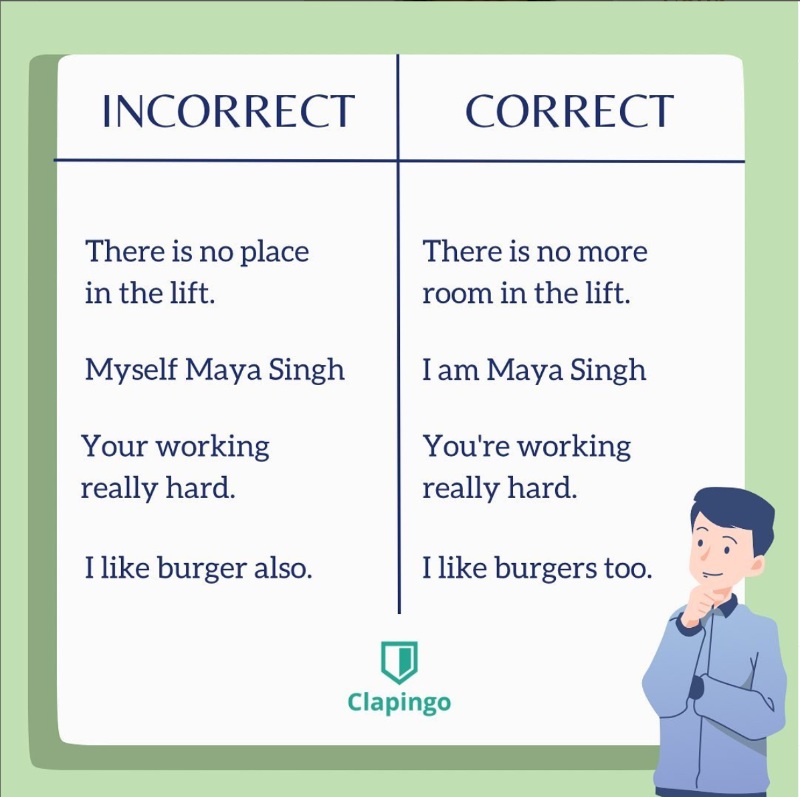
Why My English is Not Improving?
--------------------------------
Are you struggling to improve your English speaking skills despite your best efforts? It can be frustrating and discouraging when you feel like you're not progressing. However, understanding why you do not see the desired results can help you identify the areas you need to focus on to improve.
English learners may not see improvement because they are not practicing consistently or using effective study techniques. It's essential to make a dedicated effort to practice regularly and try different methods to find what works best for you.
Another reason could be a lack of confidence or fear of making mistakes. Remember, making mistakes is a natural part of the learning process, and it's okay not to be perfect. Don't be afraid to take risks and practice speaking with others, even if initially uncomfortable.
Finally, it's essential to recognize that improving your English speaking skills takes time and effort. Don't expect to see overnight results, and be patient with yourself as you work towards your goals.
At Clapingo, we understand the challenges of improving your English speaking skills and are here to help. Our experienced tutors provide live 1-1 classes tailored to your individual needs, focusing on the areas where you need the most help. Regular practice and the proper support can significantly improve your English speaking abilities.
How to Learn English in 30 Days?
--------------------------------
Learning a new language can be daunting, but with enough dedication and practice, it's possible to make significant progress quickly. According to the 10,000-hour rule, becoming an expert in any field takes approximately 10,000 hours of training. While becoming a true English expert in 30 days may not be possible, you can make significant progress toward improving your English speaking skills by committing to a daily practice routine.
To help you get started, we've put together a 30-day action plan that includes a variety of exercises and activities to help you improve your English speaking skills. You'll have many tasks to complete each day, from practicing with a partner to listening to English podcasts. By the end of the 30 days, you should feel more confident and comfortable speaking English, with a more extensive vocabulary and better pronunciation.
Of course, 30 days are just the beginning your English learning journey. If you're serious about improving your skills, it's important to continue practicing regularly and seeking new opportunities to practice with native speakers. But with a solid foundation and plenty of practice, you'll be well on your way to becoming a fluent English speaker in no time.
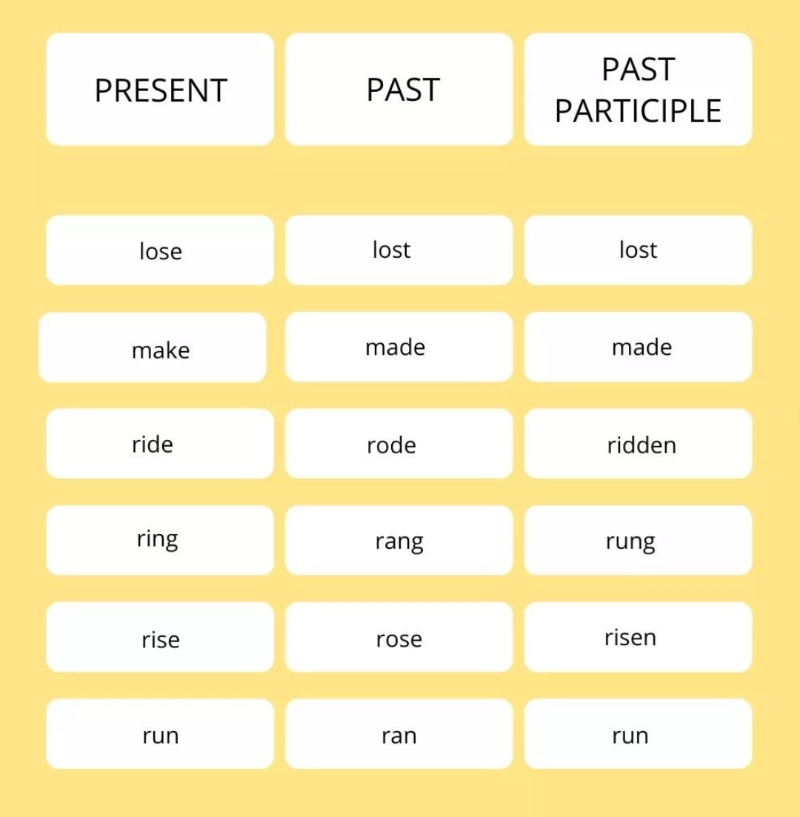
Improving your English speaking skills is not an overnight process, but you can make remarkable progress with consistency, dedication, and a positive attitude. The key is frequently practicing, consistently identifying, and working on your weaknesses. Remember also to stay motivated and have fun while learning. Whether through online courses, practicing with a partner, or using language learning apps, plenty of resources are available to help you on your journey to English fluency. With time and effort, you will notice a significant improvement in your spoken English, opening doors to new opportunities and experiences. So don't give up; keep practicing, and soon enough, you'll speak English like a pro.
If you need additional support or guidance, consider signing up for Clapingo's live 1-1 classes with experienced tutors. Our personalised approach ensures you get the attention and feedback you need to improve your English speaking skills effectively. You can also check out our blog for more language learning resources, including our learners' tips, strategies, and inspirational stories.
At Clapingo, we are committed to helping individuals improve their English speaking skills and achieve their career goals. We have seen many fantastic success stories of individuals who have transformed their careers by enhancing their English-speaking abilities. Our personalised 1-1 classes, combined with the tips and strategies mentioned in this article, have helped our students speak confidently and fluently in a matter of weeks.
We believe anyone can improve their English speaking skills with the proper guidance, practice, and dedication. We encourage you to start your journey towards fluency today and see the transformation for yourself.
Remember to check out [Clapingo's blog](https://clapingo.com/blog/english-speaking-practice) for more resources, tips, and success stories on improving English speaking skills. We are committed to providing the best resources and support to help you achieve your goals.
---
This blog is powered by Superblog. Visit https://superblog.ai to know more.
---
## How To Learn English Speaking At Home
Author: Unknown
Published: 2023-04-25
Category: spoken english
Meta Title: Master English Speaking at Home: Effective Learning Tips
Meta Description: Discover practical and efficient strategies to learn and improve your English speaking skills at home. Achieve fluency with our expert tips and resources.
Tags: improve spoken english, english speaking at home
URL: https://clapingo.com/blog/how-to-learn-english-speaking-at-home-clgwfnak2940643tpbikp9u8sy
_So tell me, are you ready to unleash your superpower of speaking Fluently in English and increasing your confidence?_
Imagine confidently expressing yourself in English, effortlessly engaging in conversations, and achieving your Goals Confidently like you always wanted to but couldn’t because you don’t come from an English Medium Background and are constantly struggling to learn English at home

Tell me, do you often wonder, "Why isn't my English improving even after reading multiple spoken English books?" or "How can I learn English quickly at home?" Well, the answer is from regular practice, 1:1 courses, and much more to find the best method that suits your needs and can help you to learn English at home. Trust us, we've got you covered on your journey to becoming a fluent English speaker.
_So let's dive in and unlock your English-speaking potential._
Challenges You Will Face While Learning Spoken English
------------------------------------------------------
Before we move forward, it’s important to look at what are the main challenges you might face in your journey so that when you start, you can be aware of these challenges properly and learn how to move forward with ease.
So here are some common challenges that you have to face:
### Pronunciation:
Now the major problem that you might come across is Procrastination. It can be really difficult to Pronounce certain words in English as a beginner because English has certain difficult sounds that may differ from word to word and even sentence to sentence, that itself sounded confusing right?
So this can get extremely difficult for non-native speakers which will take a lot of time, tons of practice with a pinch of patience and confidence.
### Vocabulary:
English is known for having a long vocabulary list with synonyms, idioms, and expressions that may be unfamiliar and to be honest even confusing to non-native speakers. Learning and using these words in conversations can be overwhelming, and will require a consistent effort to expand your vocabulary. Story Books and Online dictionaries are generally a good start!
### Grammar:
English grammar rules can be really difficult, and making mistakes in grammar can affect your speaking fluency and might even get you embarrassed in public. Imagine saying the wrong grammar in a crowd and a grammar nazi correcting you while everyone is looking at you. Sounds very scary right?
That’s why it's important to dedicate time to understanding and practicing English grammar to improve your spoken English!
### Listening skills:
Understanding spoken English can be challenging due to the speed of speech, different accents, and informal language usage by native speakers. So it may require active listening and exposure to various English accents to develop better listening and spoken English skills.
### Confidence:
A lack of confidence can harm your ability to speak English fluently and the fear of making mistakes or feeling anxious or embarrassed can greatly impact your speaking skills. That is why it is really important to build confidence through practice and a supportive learning environment where mistakes are considered learning points and not something to be embarrassed about!
### Limited exposure:
Lack of exposure to English access to non-English speakers can be a bad blocker in improving your spoken English, especially for a beginner. Finding ways to create an English-speaking environment can be improved by watching English movies, listening to English podcasts, or practicing 1:1 with native English speakers can help overcome this challenge.
Remember that these challenges are common and can be overcome only if you are aware of the problems properly!
How can I start learning English speaking at home?
--------------------------------------------------

If to this date you thought Learning to speak English at home would be the most difficult task, trust me when I say this it doesn't have to be. Instead, we'll be giving you a few, methods you can use to start learning English at home.
### Start Watching English Videos but with Subtitles:
Watching English TV shows and movies with subtitles can be very helpful for beginners, you know why? As it allows you to practice listening skills while also seeing the words used in real life.
You should choose shows or movies with simple language and clear pronunciation and most importantly it gotta be fun to enhance your understanding and Spoken English at Home.
According to Clapingo's expert tutors, you can watch [Netflix](https://www.netflix.com/) sitcoms like _"Friends" and "The Big Bang Theory" or even animated shows like "Peppa Pig" or "Sesame Street."_
### Practice Speaking Aloud:
It's time for you to just not read or listen to English Books because the only way you'll, effectively learn is by starting to speak English aloud. Now our expert advice would be to just start with simple phrases and gradually work on longer sentences and conversations. But the most important thing would be to start.
### Record Yourself:
Use your phone or get on a Zoom meeting with yourself to record yourself while speaking English. Listen to the recordings to identify areas for improvement, such as pronunciation, tenses, and even fluency, this way you'll exactly know where you are making mistakes and how you can improve them.
### Focus on Pronunciation:
Pay attention to the pronunciation of words and practice mimicking the sounds each word make while you are pronouncing them. Use online resources, such as Youtube videos and to improve your pronunciation skills. You can find pronunciation videos on [Clapingo's](https://www.youtube.com/@Clapingo) Youtube channel and even Other Channels Like [BBC.](https://www.youtube.com/@bbclearningenglish)
### Practice 1:1 With English Speakers :
Connect with Expert English speakers or Expert learners online on apps like Clapingo to practice speaking with them One-on-One and receive feedback on your speaking skills. Get on a judgment-free environment, learn English, improve your fluency, and become a Confident English Speaker.
Here's one video you can watch to learn English while talking about solo travel:
### Practice Listening Skills:
Listen to English audio, such as news, podcasts, or even English songs, to improve your listening skills. Do you know why this is one of the most important steps? Because this way you can practice for different accents, speeds, and tones to enhance your understanding and your spoken English.
These methods will help you learn from the comfort of your home on a weekend or any other time YOU Are Comfortable. So you really can become Confident and a Fluent English Speaker at home by just giving it a few hours!
### How can I learn to speak English Step by Step?
If you think you need a Step by Step Roadmap to stay consistent in your efforts to learn English at home and become a confident speaker then you are probably right! Because a Roadmap will help you stay loyal to your goals and not miss out on even the tiniest bit.
So here's Clapingo's step-by-step guide to learning English at home:
**Step 1: Set Clear Goals**
Start by setting clear and realistic goals for your English learning journey. Identify what you want to achieve, whether it's improving your speaking skills, expanding your vocabulary, becoming more fluent and increasing your confidence, or understanding English grammar. Having clear goals will help you stay focused and motivated and not to mention consistent throughout the learning process.
**Step 2: Read Regularly**
Reading English materials, such as books, articles, or news, regularly to improve your reading and skills is one of the best methods you can start using. Start with simple and interesting content, such as children's books or graded readers, and gradually progress to more challenging materials. Use online resources, such as online dictionaries or reading comprehension exercises, to aid your understanding.
**Step 3: Listen To Podcasts**
Listening is a crucial skill in language learning. Listening to English audio, such as podcasts on various topics such as Global News, Shopping, Travel, or Fashion to improve your listening skills is also an amazing start.
Start with simple and slow-paced paced Podcasts, and gradually progress to more difficult content as you gain back your confidence. Podcasts can be a great resource for improving your listening skills, as they often provide authentic, real-life conversations and discussions in English.
Here's a podcast that you'll surely love!
**Step 4: Join English Learning Programs**
You absolutely need to join English learning programs to get the best guidance because if you just depend on books and podcasts, you will have no one to give you real-time feedback on what mistakes you are making, and you can improve them to improve your English at home.
And who better to give you feedback on [Clapingo's 1:1 Expert Mentors](https://learn.clapingo.com/clapingo-adult-ga3/?gclid=CjwKCAjw6IiiBhAOEiwALNqncfGh5bwGcXVRyTS-q7DvalaZu0fyszrgCWLJR_mbeosWFZ6xGjtLCBoCBCcQAvD_BwE)? The best thing is that you can do these programs at your home whenever you are free.
**Step 5: Mirroring**
Choose an English speaker whose speaking style and pronunciation you admire, it might be someone on youtube or an actor from your favorite movies. The goal is to try to imitate their speech patterns and accents. This can help you develop a more natural and fluent speaking style in English.
**Step 6: Stay Consistent and Motivated**
Consistency is key in language learning. So the most important part of your roadmap is to set a study routine that works for you and stick to it consistently. Stay motivated by setting short-term milestones and rewarding yourself for achieving them (_reward yourself with some ice cream!_).
Find a language learning buddy on [Clapingo](https://learn.clapingo.com/clapingo-adult-ga3/?gclid=CjwKCAjw6IiiBhAOEiwALNqncfGh5bwGcXVRyTS-q7DvalaZu0fyszrgCWLJR_mbeosWFZ6xGjtLCBoCBCcQAvD_BwE) for the best support and encouragement.
### Which is the Best Method to Improve my English Speaking For a Beginner?
There is no one-size-fits-all answer to this question, as the best method to improve English speaking skills is a mix of all the best methods we compiled especially for you.
However, if you still want just one method that you can focus on with all your heart to stay consistent on your journey, that would be:
Practicing As Frequently As Possible: Regular practice is essential for improving English speaking skills. This can involve recording yourself and listening back to identify areas for improvement, practicing with Clapingo's expert tutors to engage in conversations, and mirroring the speech patterns of native English speakers to develop a more natural speaking style.
Remember, the key to improving English speaking skills is always going to be consistent practice. Here's one video that will help you stay consistent!
Why is my English not Improving?
--------------------------------

If after doing all this, you're struggling to improve your English speaking skills, you're not alone in this journey! Many English speakers face similar challenges when they start.
Here are some common reasons why your English may not be improving as quickly as you'd like, along with some practical tips to overcome them:
### Lack of Practice
English, like any language, requires constant practice to improve. If you're not regularly using English in real-life situations or dedicating time to practice speaking, your progress may be slow.
### Limited Vocabulary
English has a vast vocabulary, and if you're not actively learning and using new words, your speaking may feel repetitive and in short very awkward. Focus on expanding your vocabulary by reading English books, and articles, or listening to podcasts, and practice using new words in context to improve your speaking skills.
### Fear of Making Mistakes
This is something that can hold you back from speaking English confidently. Remember that making mistakes is a natural part of the learning process, and it's okay to make errors. Embrace them as opportunities to learn and improve. Surround yourself with a supportive learning environment that encourages you to speak without fear of judgment.
### Ineffective Learning Methods:
Not all learning methods are equally effective for everyone. Experiment with different techniques, such as speaking 1:1 with a partner, recording yourself, or practicing pronunciation exercises, to find what works best for you.
### Lack of Confidence:
Confidence is key when it comes to English fluently. If you lack confidence in your abilities, it can slow down your progress. Practice speaking in a supportive and non-judgmental environment, and most importantly surround yourself with positive influence.
Remember to be patient with yourself in your learning journey and stay committed to regular practice!
Then, What are the Top 3 Best Methods of Learning Spoken English?
-----------------------------------------------------------------
### Conversational Practice
It’s very important to engage in conversations with native English speakers or language partners which is one of the best ways to improve your spoken English. Practicing speaking in real-life situations, such as through online language communities like _Clapingo_ will help you build confidence, improve your pronunciation and build confidence.
### Pronunciation Practice:
Paying attention to pronunciation is crucial for effective communication in English. Practice the sounds, stress patterns, and intonation of English words and phrases. Use resources like pronunciation apps, [YouTube tutorials](https://youtube.com/shorts/7Rt0yVm7QXs?feature=share), or language learning websites that offer pronunciation exercises.
### Online Spoken English Courses:
There are many online courses specifically designed to help non-native English speakers improve their speaking skills. Courses like [Clapingo offer structured 1:1 Live lessons](https://learn.clapingo.com/clapingo-adult-ga3/?gclid=CjwKCAjw6IiiBhAOEiwALNqncfGh5bwGcXVRyTS-q7DvalaZu0fyszrgCWLJR_mbeosWFZ6xGjtLCBoCBCcQAvD_BwE) with Expert Tutors that will provide you with opportunities to build your confidence.
Here are 7 Extra Tips to Boost your Spoken English Journey!
===========================================================

Improving your English speaking skills requires consistent practice, yes! The more you practice, the better you become at expressing yourself confidently in English. Here are some extra techniques you can use for regular practice:
### Make Speaking a Habit:
Practice speaking English regularly, even if it's just for a few minutes each day. Incorporate English into your daily routine, such as talking to yourself, describing things around you, or discussing topics of interest. The more you speak, the more confident and fluent you become.
### Focus on Pronunciation:
Pay attention to the correct pronunciation of English words. Practice individual sounds, stress patterns, and intonation to improve your overall speaking clarity. You can use online pronunciation resources or seek help from a language tutor or native speaker to correct any pronunciation errors.
### Expand Your Vocabulary:
Building a strong vocabulary is essential for effective communication. Learn new words and phrases regularly, and practice using them in context. You can read English books, articles, and newspapers, or use vocabulary-building apps to expand your word bank.
### Practice Listening Skills:
Listening is a crucial aspect of speaking. Practice listening to different English accents, speeds, and styles to improve your understanding and familiarize yourself with different speaking patterns. You can watch English movies, listen to podcasts, or engage in English conversations to sharpen your listening skills.
### Incorporate English into your daily activities.
Practice speaking English while grocery shopping, ordering food, or interacting with people in your community. This helps you apply what you've learned in real-life situations and reinforces your language skills.
### Seek Professional Help:
Consider taking English language courses like Clapingo to receive 1:1 professional guidance and feedback. Clapingo can provide personalized instruction, correct your mistakes, and help you improve your speaking skills more effectively.
You Should Definitely Take Spoken English Courses Online:
---------------------------------------------------------

Why Online Language Learning Platforms are the Best?
You need to speak with someone who can guide you AND who will **correct your mistakes ON-THE-SPOT.** Many online platforms offer spoken English courses like Clapingo that are designed for learners with different challenges to connect with expert tutors. It's crucial because these courses mainly focus on **identifying your problems** and giving you ways to solve them.
Courses like this often include 1:1 structured lessons, interactive exercises, and opportunities to practice speaking skills in a supportive environment. It also allows you to sit at home and master overall communication, sentence formation, accent, and vocabulary.
Conclusion:
===========
Improving your English speaking skills is a journey that requires consistent effort and practice without any fear of judgment. So, if FEAR of Judgment and Fear Of “What Will People Say?” Is Your Biggest Block For Speaking English In Public? Remember, with determination, dedication, and a little bit of consistency, you can achieve your goal of speaking English fluently.
Start implementing these tips today, and with [Clapingo](https://clapingo.com/) by your side, you'll be well on your way to becoming a fluent English speaker. So, why wait? Join Clapingo now and embark on your exciting English language learning adventure!
---
This blog is powered by Superblog. Visit https://superblog.ai to know more.
---
## 13 BEST SPOKEN ENGLISH CLASSES NEAR ME IN INDIA
Author: Unknown
Published: 2022-11-08
Meta Title: 13 BEST SPOKEN ENGLISH CLASSES NEAR ME IN INDIA | Clapingo
Meta Description: Do you want to learn Spoken English? Read this Clapingo blog to discover the best Spoken English classes near you in India to improve your speaking skills!
Tags: conversation classes, spoken english classes online, speak english, English classes near you, learn english online, english classes near me, offline classes, Spoken English Classes Near Me, free english courses
URL: https://clapingo.com/blog/english-classes-near-me-in-india
[Best Spoken English Classes Online](https://clapingo.com/)

**Learning to speak English** opens up many opportunities and can be an exciting and enriching experience! For one thing, mastering a new language requires you to actively listen to the world and pay close attention to subtle distinctions in meaning. In addition, an enriched vocabulary allows you to express ideas more clearly and accurately, ultimately making communication more effective.
**English** is also one of the most widely spoken languages, with every fourth person having good knowledge of the language. Additionally, not only does it help you travel or communicate with new people, but it also helps you even land a job! With the world getting increasingly globalized, the need to **learn English** has never been greater. **English** is the dialect of business, science, and diplomacy, which means that it is essential for anyone who wishes to succeed in these fields. Compared with those who don't **speak English**, **fluent English** speakers [earn 34% more](https://timesofindia.indiatimes.com/india/english-edge-those-who-speak-the-language-fluently-earn-34-more-than-others/articleshow/28414991.cms). Isn't that incredible?
So are you looking to learn a new language or improve your vocabulary? Are you wondering,
“Are there spoken English classes near me?”
--------------------------------------------
This is where I come in. My job is to help you choose a **spoken English class** that’s perfect for you!
> In this article, we'll cover the 13 best spoken **English classes near you!** Once you've read the article, you'll know which spoken English course suits you best.So let's get started!
Content of 13 best spoken English classes near me in India:
### Spoken English Classes Online:
1. Clapingo
2. English Online: British Council
3. Step eLearn - The Hindu
4. Udemy
5. FluentU
6. Duolingo
7. Cambly
8. Speechify
9. Fastinfoclass
### Spoken English Classes Near Me:
10. British Council (Chennai, Kolkata, Delhi, Mumbai)
11\. SpeakEng India (Bangalore - Kormangala, Madiwala, BTM, JP, Electronic City, Malleshwaram, Mangalore)
12\. Cambridge Academy Of English (Bangalore, Chennai, Goa, Hyd)
13\. Bestraits Residential English Training School (Kochi (Kerala))
**Our Ranking Criteria**:
We have selected the **top 13 spoken English classes near you in India** from a list of more than a dozen courses and graded them by a variety of criteria.
Inherent criteria among all courses
### (online and spoken English classes near me):
* All courses are of high quality and, thus, trustworthy and worth the learner’s money.
* **The courses promise to improve spoken English in everyday life.**
* **The courses have convenient start dates or are available multiple times a year.**
* **Instructors and tutors hold credentials in teaching English.**
13 best spoken English classes near me in India:
-------------------------------------------------
Best Spoken English Classes Online:
**Clapingo**
**Practice English One-on-One with Tutors Across India**
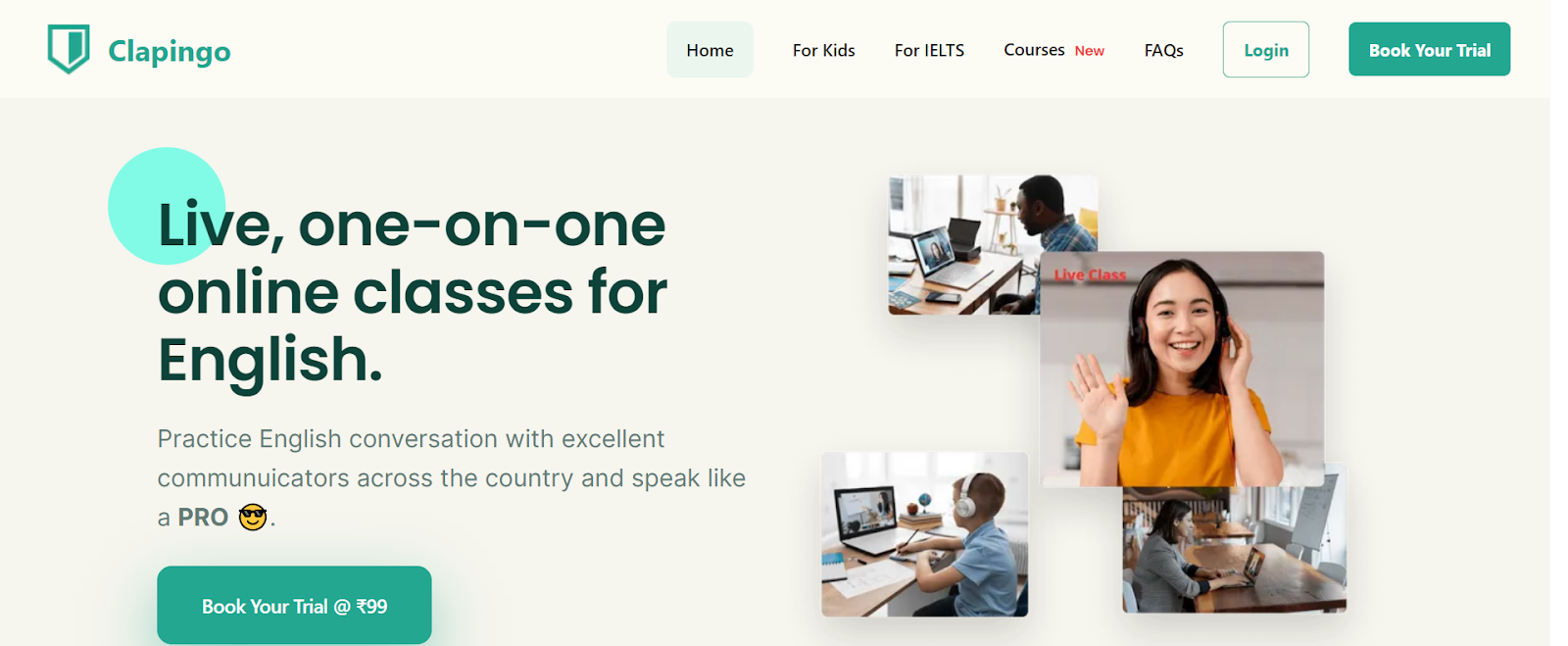
**Image credit: [clapingo.com](https://clapingo.com/)**
**[Clapingo](https://clapingo.com/) is a unique platform that lets you practice **English** with tutors from various backgrounds across India. This platform provides a judgment-free space to develop their skills through engaging content such as one-on-one sessions, video lessons, flashcards, exercises, and quizzes. Additionally, at the end of every session, feedback is provided to the learner to help them work on their weak areas. For practice and revision, the video lessons provided come in handy. Clapingo is also a 24-hour platform where one can book slots according to their convenience.**
**Check out their Youtube lessons here:**
* **Price: Subscription-based platform (Trail starts at Rs.99)**
* **Length: Depending on the learner.**
* **Certificate of Completion: None.**
* **Courses Available:**
**1) [Clapingo for Adults](https://learn.clapingo.com/clapingo-adult-ga/)**
**2) [Clapingo for Kids](https://kids.clapingo.com/)**
**3) [Clapingo for IELTS](https://ielts.clapingo.com/).**
**4) Online classes for other subjects and topics.**
* **Prerequisites required: None. The course is ideal for beginners who want to learn to speak confidently without hesitation.**
* **Link to website: [https://clapingo.com/](https://clapingo.com/)**
* **Link to YouTube: [https://www.youtube.com/c/Clapingo](https://www.youtube.com/c/Clapingo)**
**Still unsure? Check out their learner testimonial:**
Have more questions? Check out their [FAQ](https://clapingo.com/#faq) page before you get started!
**PROS**
**CONS**
Affordable prices.
No certification of completion.
Flexible schedule.
Feedback is provided after every session.
Mobile Friendly.
**English Online: British Council**
****Spoken English Courses to Help Learners Speak With Confidence****
****
**Image credit: [englishonline.britishcouncil.org](https://englishonline.britishcouncil.org/english-language-courses/)**
**British Council Online is a platform designed to help learners of all levels gain proficiency in the** **English language****. Here, students have access to courses and resources tailored to their specific needs and goals, from basic communication skills like pronunciation and vocabulary building to more complex topics like grammar and usage. Additionally, learners can practice and apply their new skills via interactive conversation modules and receive ongoing feedback from skilled tutors. At the end of the course, the learner gets a British Council certification.**
* **Price: The price range starts at Rs.8900.**
* **Length: Depending on how extensively one wants to study. Course duration ranges from 3-9 months.**
* Certificate of Completion: Yes.
* Courses Available:
**1) English for work**
**2) IELTS Preparation**
* **Prerequisites required: Basic knowledge of the English language is required.**
* **Link to website: [https://englishonline.britishcouncil.org/english-language-courses/](https://englishonline.britishcouncil.org/english-language-courses/)**
* **Link to YouTube:**[https://www.youtube.com/user/BritishCouncilLE](https://www.youtube.com/user/BritishCouncilLE)
**PROS**
**CONS**
Certification of completion.
Expensive
Live online classes with a tutor.
No lifetime access
Examinations/tests are conducted after each course.
**Step eLearn - The Hindu**
### **Unleash Your Full Potential In English**
****
**Image credit: [hindu.com](https://step.thehindu.com/)**
**STEP by The Hindu is the ideal tool for anyone who wants to take their English skills to the next level. This popular educational resource provides learners with detailed exercises and interactive lessons making it easy to improve your speaking, listening, reading, and writing skills. Their unique course offers unlimited one-on-one coaching. Here, the learners can interact with their coach helping them improve their speaking and listening skills. Additionally, classes are 80% video best to help you grasp concepts quickly! And the best part? STEP has interactive **English** games to help you practice your **vocabulary and grammar.****
* **Price: Starting at Rs.1999. Prices will vary depending on the course you pick.**
* **Length: Depending on the learners’ pace, but coach calls need to be scheduled in advance.**
* **Certificate of Completion: Yes, depending on the course chosen.**
* **Courses Available:**
**1) Speak with confidence**
**2) STEP for professionals**
**3) STEP for competitive exams**
**4) Courses for kids**
**5) IELTS Course**
* **Prerequisites required: Basic knowledge of the English language is required.**
* **Link to website: [https://step.thehindu.com/](https://step.thehindu.com/)**
* **Link to YouTube: [https://www.youtube.com/c/STEPfromTheHinduGroup](https://www.youtube.com/c/STEPfromTheHinduGroup)**
**PROS**
**CONS**
One-on-one calls with an English expert
Not ideal for beginners
Interaction with other learners during LIVE classes
80% video-based lessons
Mobile Friendly.
**Udemy**
### **Intensive Spoken English Course For Beginners**
****
**Image credit:** [**udemy.com**](https://www.udemy.com/course/complete-intensive-english-course-for-beginners/)
**Udemy is ideal for anyone wanting to learn a new skill. Whether you're looking to improve your marketing strategy or learn a new language, Udemy has it all. There are many** **spoken English courses** **available, but the one we selected will help you improve your spoken** **English skills****. Although it requires 77 hours, the learner will have lifetime access to it. Moreover, it is not only useful for beginners, but also for advanced speakers who wish to brush up on their knowledge before taking a competitive exam.**
* **Price: Rs.3,499 but can go as low as Rs.449 during sale season**
* **Length: 77 hours. But you can divide this into 4 hours a week.**
* **Certificate of Completion: Yes, the certificate is awarded by Udemy.**
* **Courses Available:**
**1) The English Master Course: English Grammar, English Speaking.**
**2) Intermediate-Advanced English Course | Intensive English**
* **Prerequisites required: No previous knowledge of English required**
* **Link to website: [https://www.udemy.com/course/complete-intensive-english-course-for-beginners/](https://www.udemy.com/course/complete-intensive-english-course-for-beginners/)**
* **Link to YouTube: [https://www.youtube.com/c/udemy](https://www.youtube.com/c/udemy)**
**PROS**
**CONS**
Lifetime access to the course.
Expensive when not on sale.
30-day money-back guarantee.
No live interaction with tutors or expert speakers.
Mobile Friendly.
**FluentU**
### Learning English with authentic video content
****
**Image credit: [fluentu.com](https://www.fluentu.com/english/)**
**Learning English** **can seem challenging, but with the right tools and resources, it can be fun! This is what Fluentu aims to do. They strive to make** **English learning** **exciting and accessible for everyone. Their library of authentic content covers a wide range of subjects and themes, from music videos and movie trailers to news broadcasts and travel documentaries. Isn’t that interesting? Also, with interactive captions, real-world examples, and engaging exercises, Fluentu helps you** **learn English** **in a way that feels natural and intuitive.**
* **Price: $30 Monthly subscription/ $240 Annual subscription + 14-day free trial.**
* **Length: 1 month, but can be extended if required.**
* **Certificate of -Completion: No.**
* **Courses Available: No specific course, all are video based.**
* **Prerequisites required: The course is ideal for learners with basic knowledge of English.**
* **Link to website: [https://www.fluentu.com/english/](https://www.fluentu.com/english/)**
* **Link to YouTube: [https://www.youtube.com/user/FluentUEnglish](https://www.youtube.com/user/FluentUEnglish)**
**PROS**
**CONS**
Fun video-based learning.
Not mobile friendly.
In-context definition of subtitles with examples.
**Duolingo**
### Language App to Help You Practice on the go
****
**Image credit: [duolingo.com](https://www.duolingo.com/learn)**
**Duolingo is one of the most popular** **online language-learning** **apps. It’s ideal for learners on any level! Their rewards and daily reminders make the process fun and interactive. Duolingo is for anyone who wants to improve their fluency and confidence in** **English****. By incorporating bite-sized lessons into your everyday routine, you will find that your reading, writing and listening skills quickly improve. And when you practice daily, you’re rewarded for maintaining your streak. Currently, they have** **English-speaking courses** **for speakers of over 20+ languages.**
* **Price: Free.**
* **Length: Depending on the learner.**
* **Certificate of Completion: No**
* **Courses Available: The app has various languages with English as well.**
* **Prerequisites required: No. The course does not require prior knowledge of the language**
* **Link to website: [https://www.duolingo.com/learn](https://www.duolingo.com/learn)**
* **Link to YouTube: [https://www.youtube.com/c/duolingo](https://www.youtube.com/c/duolingo)**
**PROS**
**CONS**
Mobile friendly so you can learn from anywhere.
No live interaction with tutors or expert speakers.
Free!
No examinations/tests are conducted.
Learners only need to practice between 5-10 minutes every day
**Cambly**
### Practice English with native English tutors
****
**Image credit: [cambly.com](https://www.cambly.com/english?lang=en)**
**If your goal is to improve your fluency and learn from native **English speakers**, then Cambly is the place for you! With Cambly, you can schedule calls ahead of time at a time that suits your schedule, with private tutors tailored to your needs and interests. Get hands-on experience in real-time conversations where tutors equip you with powerful tools that help you speak **English confidently!** And every session is recorded to solidify the new concepts learnt.**
* **Price: Subscription-based depending on the requirement of the learner.**
* **Length: The length can be customised between 15-30 minutes a day and 1-5 times a week depending on the learners’ goals.**
* **Certificate of Completion: Yes.**
* **Courses Available:**
**1) Fundamentals of English fluency - multiple course**
**2) Professional Development**
**3) Cambly for Kids**
* **Prerequisites required: Basic knowledge of the language is required.**
* **Link to website: [https://www.cambly.com/english?lang=en](https://www.cambly.com/english?lang=en)**
* **Link to YouTube: [https://www.youtube.com/c/CamblyGlobal](https://www.youtube.com/c/CamblyGlobal)**
**PROS**
**CONS**
Improves pronunciation while interacting with a native speaker.
No examinations/tests are conducted.
Mobile-friendly.
Flexible Schedule.
**Speechify**
### **Speech-focused classes tailored to your needs**
****
**Image credit: [speechify.in](https://speechify.in/)**
**With Speechify's **spoken English courses**, students can improve their **English speaking skills** with courses tailored to their needs. Students spend 50-70% of class time communicating in **English** to build their confidence. Additionally, tutors are available 24/7, so you can schedule classes whenever it is convenient for you. In addition to free study materials, engaging activities help you learn in a fun and interactive environment. Classes last between 30-60 minutes.**
* **Price: The 3-month plan starts at Rs.9999 + free demo.**
* **Length: Depending on the course. 3-12 month courses are available.**
* **Certificate of Completion: No.**
* **Courses Available: The course remains the same, but the number of lessons changes depending on the amount paid.**
* **Prerequisites required: No.**
* **Link to website: [https://speechify.in/](https://speechify.in/)**
* **Link to YouTube: [https://www.youtube.com/channel/UCw6OWgJxjThx8fPsh69GI5Q](https://www.youtube.com/channel/UCw6OWgJxjThx8fPsh69GI5Q)**
****PROS**
**CONS**
Mobile-friendly
Expensive
Flexible schedule
Focus on spoken English**
**Fast Info Class**
### Recognized online English speaking course
****
**Image credit: [fastinfoclass.com](https://www.fastinfoclass.com/spoken-english/)**
**This ISO-certified** **spoken English course** **has a model that lets you interact with experienced faculties but also have one-on-one sessions with them. FastInfo Class provides access to various learning resources to help you focus on your needs and requirements. They also have a 90-day spoken** **English** **challenge to encourage learners to build their confidence in the language. It is also relatively inexpensive and provides 100% placement assistance to the students!**
* **Price: One-time admission fee of Rs.499 with a monthly payment of Rs.299.**
* **Length: 3 months**
* **Certificate of Completion: Yes, it is recognised by the Govt. of India.**
* **Courses Available:**
**1) Online Spoken English**
**2) Individual Spoken English**
**3) Advanced Spoken English.**
**4) Spoken English Super 3.**
* **Prerequisites required: None.**
* **Link to website: [https://www.fastinfoclass.com/spoken-english/](https://www.fastinfoclass.com/spoken-english/)**
* **Link to YouTube: [https://www.youtube.com/c/FastInfoClass](https://www.youtube.com/c/FastInfoClass)**
**PROS**
**CONS**
One-on-one sessions available
No tests/assessments conducted
Affordable
Mobile-friendly
**Spoken English Classes Near Me:**
------------------------------------
**In India, there are multiple, well-established **spoken English institutes** that you can choose from. Here is a list of the top 5 **spoken English classes near you!****
**British Council**
****
**Image credit: [britishcouncil.in](https://www.britishcouncil.in/english)**
**The British Council is a widely recognised institute that conducts spoken English classes at various branches across India. From pronunciation to vocabulary to reading and writing, their excellent spoken English classes cover everything you need. Their classes are taught by experienced ESL instructors, so you'll get all the help and guidance you need to master the art of spoken English. Also, it is important to note that their fee changes depending on the branch, so be sure to check them out!**
**Price: The price varies depending on the course but starts at Rs.437 per class.**
**Certificate of Completion: Yes**
**Courses Available:**
**1) Spoken English**
**2) Everyday English**
**3) Workplace English**
**4) IELTS Coach**
* **Locations near you: New Delhi, Chennai, Kolkata, Mumbai**
* **Link to website: [https://www.britishcouncil.in/english](https://www.britishcouncil.in/english)**
* **Contact number: 0120-4569000 / 6684353**
**SpeakEng India**
****
**Image credit: [speakengindia.com](https://www.speakengindia.com/)**
**SpeakEng India’s **spoken English courses** aim at helping learners express themselves in English confidently and eloquently. They follow activity and practical training with complete student involvement, ensuring that learning is maximised. During classes, they focus on grammar, pronunciation and soft skills, giving learners an all-round brush-up of their spoken **English skills**. SpeakEng also equips learners with interview skills, presentation skills, email etiquette and many more!**
* **Price: Undisclosed.**
* **Certificate of Completion: Undisclosed.**
* **Courses Available:**
**1) Spoken English**
**2) Advanced And Corporate English**
**3) Business English**
**4) IELTS Coaching**
* **Locations near you: Bangalore (Marathahalli, Kormangala, Malleshwaram, Madiwala, BTM Layout, JP Nagar, Electronic City) and Mangalore.**
* **Link to website: [https://www.speakengindia.com/](https://www.speakengindia.com/)**
* **Contact Number: +91 9148294666**
**Cambridge Academy Of English**
****
**Image credit: [cambridgeacademyofenglish.com](https://cambridgeacademyofenglish.com/)**
**Price: Undisclosed**
**Certificate of Completion: Yes**
**Courses Available:**
**1) Spoken English Course - General**
**2) Spoken English Course - Academic**
**3) Spoken English Course - Business**
**4) Business English Communication**
**5) One to One Spoken English Course**
* **Locations near you: Bangalore, Chennai, Hyderabad, Goa**
* **Link to website: [https://cambridgeacademyofenglish.com/](https://cambridgeacademyofenglish.com/)**
* **Contact Number: [https://cambridgeacademyofenglish.com/contact-us/#](https://cambridgeacademyofenglish.com/contact-us/#)**
**Bestraits Residential English Speaking Course**
****
**Image credit: [bzindia.in](https://bzindia.in/english-institutes/)**
**A one-of-a-kind institute, Bestrait is a residential **spoken English institute** that equips people with skills that help them step up in their careers and build relationships. Bestraits teaches learners using Total Physical Response (TPR), a method of teaching language or vocabulary concepts by using physical movement to react to verbal input. At their 7-day residential **spoken English course**, they guarantee learners faultless spoken English skills. Doesn’t that sound interesting?**
**Price: Undisclosed**
**Certificate of Completion: No**
**Courses Available:**
**1) 7-day Residential Spoken English Course**
**2) Residential IELTS English Training Course**
**3) 2-Week IELTS Course**
**4) 1-Week English Accent Residential Course**
* **Locations near you: Kochi (Kerala)**
* **Link to website: [https://bzindia.in/english-institutes/](https://bzindia.in/english-institutes/)**
* **Contact Number: 9633 010 343 - 9633 090 343**
### **Tips for succeeding in an English course:**
**Consider the cost
**
****
**When it comes to choosing the right course for you, consider affordability. There are a dozen of courses that ranges from free to $200. But when it comes to lifetime accessibility and certification, the course usually comes with a fee.**
**Practice, practice, practice!**
****
**Practice is the key to learning a language. As the saying goes, practice makes a man perfect but also gives you confidence. Other than the resources provided by the course, there is plenty of [free content](https://clapingo.com/blog) that you can access online to improve your spoken English skills. Additionally, practice with your friends and don’t forget to take feedback!**
**Keep your tech in hand**
****
**Be it an online or offline course, having your tech handy always helps improve spoken English skills. As for online spoken English courses, some are mobile friendly too, letting you learn wherever you may be.
**
****Frequently A****sked Questions****
----------------------------------------
**Q1.Which course is best for English speaking?**
**You can pick the right spoken English course once you have considered all the criteria above. The knowledge you've gained now allows you to select the course that's right for you!**
**Q2.Where can I learn fluent English for free?**
**There are plenty of free courses and apps where you can learn English. Some of them are free or have freemium options. And in some cases, for example, the first week is offered for free where you have the power to see if the spoken English course is right for you.**
**Q3.How can I speak in English quickly?**
**The best way to learn a language quickly is to engross yourself in it. The process takes time and practice. Take advantage of every opportunity to read. Engage in conversation with friends, neighbours, and people you meet. To expand your vocabulary, download apps and practice wherever you go.**
**Q4.Can I learn spoken English in 1 month?**
**Learning a language takes time and effort. That said, learning English in a month will require you to put in 5 full days every week, which is highley unlikely. Therefore, it is best to take time to fully understand the language and learn it.**
---
This blog is powered by Superblog. Visit https://superblog.ai to know more.
---
## Is Practicing Speaking English All it Takes to Advance Your Career?
Author: Unknown
Published: 2022-11-02
Meta Title: Does practicing speaking English help advance your career?
Meta Description: How Practicing Speaking English Might be the Only Thing Between You & Infinite Success in Life. Read on to discover more about how to do so effectively!
Tags: english language, English Speaking Practice, English fluently, English communication, practicing English speaking, online classes, conversation classes, English blog, englishlearning, Career, Job Opportunities, english book
URL: https://clapingo.com/blog/english-speaking-practice
****English Speaking Practice
------------------------------
What if we told you that **speaking English** fluently is the ultimate secret to success, wealth, and maybe even happiness? Sounds far-fetched? While speaking **English fluently** may or may not promise you all these things, **practicing speaking English** could potentially advance your career & help you capitalize in today's global economy.
They say that practice makes a man perfect, but although it's near impossible to speak English perfectly, you can undoubtedly reap the benefits of **practicing speaking English**. Not only will you sound more confident when communicating in English, but you'll also be able to improve your pronunciation, intonation, and overall fluency.
These are just SOME of the tremendous impacts of **practicing speaking English**. Read on to learn more about the benefits of becoming a confident English speaker.

Why Practice Speaking English?
* **Expand Your Job Opportunities**
> **It's much easier to find success in your personal and professional life when you can communicate fluently in** **English**.
**If you're looking for a new job or getting promoted at your current job, speaking** **English** **can give you a potent advantage over other candidates. And if you're looking to start your own business, good English speaking skills will help you communicate with potential customers and partners from all over the world.**
**Here's a list of expert-curated [interview tips.](https://www.youtube.com/watch?v=KEo2B_NAE0A&list=PL2uSif5LcfbhHPG4YAm9yy34tNNmTnFGS)**
****
* **Unlock Your Earning Potential
**
> **According to a [recent study](https://timesofindia.indiatimes.com/india/english-edge-those-who-speak-the-language-fluently-earn-34-more-than-others/articleshow/28414991.cms) by the National Council for Applied Economic Research, people who can speak fluent** **English** **can earn up to 34% more than those who can't. If you’re looking for a reason to start practicing** **speaking English****, it doesn’t get better than this.**
So if you're looking to unlock your earning potential, learning and communicating in **English** is a great place to start if you're looking to unlock your earning potential. There are many benefits to learning **English** beyond the potential for increased earnings. **English** is the language of international business and diplomacy, making it an essential skill for anyone looking to work in a globalized economy. With over 1.5 billion global **English speakers**, it's also a great way to make new friends and expand your social network.
****
* Advance Your Career
> **Will practicing speaking English help advance your career? According to this [article](https://www.englishnewzealand.co.nz/news/7-ways-that-learning-english-can-boost-your-career-prospects/#:~:text=More%20job%20opportunities,of%20your%20job%20market%20dramatically.), yes, it does!**
**What's more? If you're looking for a promotion or to move into a more senior role, speaking** **English** **will give you a distinct advantage over your colleagues who're not adept in** **English****. In today's increasingly globalized world, many jobs require at least some level of spoken or written English skills. Even if your job doesn't require you to speak English, being able to do so can help you get ahead in your career.**
**Here's how you can advance your career with [Clapingo's](https://clapingo.com/) help!**
****
* **Communicate Effectively
**
> **With close to 1.5 billion global** **English speakers****, don’t you think communicating effectively in** **English** **is the key to international success?**
**Communicating effectively in** **English** **is essential for success in many fields. Whether you're looking to make new friends, find a romantic partner, or just connect with people from different cultures, learning** **English** **will help you do it. As the global language of business, science, and technology, practicing speaking** **English** **is a great way to communicate effectively.**
****
* Articulate Your Ideas
> **Ever felt like you’re not making the desired impact with your ideas? Here’s how** **practicing speaking English** **can make all the difference!**
**By** **practicing English speaking****, you'll develop the ability to express yourself and your ideas with the desired effect on your audience. This will make you a more effective communicator in any situation. Be it a daunting job interview or a detailed presentation at work, communicating clearly and concisely in English is essential to make the right impact. And here's a** [beginner's guide](https://www.youtube.com/watch?v=7Rt0yVm7QXs&list=PL2uSif5Lcfbh8xN73Cz8qr-qLQVyVzOeO)**.**
****
* **Make a Global Impact**
> **It only makes sense to learn the global language to make a global impact, doesn’t it?**
>
>
**If you can master the** **English language****, you'll be able to share your ideas with the world, meet like-minded people, build business connections and make an impact on a global scale. If you're wondering how to get started?** **Practicing English** **speaking with** [Clapingo](https://clapingo.com/) **is a great first step! Since the dawn of social media, anyone with a computer and an internet connection can have a global audience at the click of a button. Now, more than ever, it's essential to communicate effectively in English.**
****
* **Connect with the World**
> ### **Make the most of your [LinkedIn](https://www.linkedin.com/) connections and build connections across the globe!**
**In today's connected world, it's easier than ever to reach out to people from all over the globe. But if you can't** **speak English****, you'll miss out on many opportunities for making connections. From** [online forums](https://www.onrec.com/news/news-archive/top-5-chats-and-forums-websites-in-the-world) **and** [social media](https://blog.hootsuite.com/best-social-media-apps-list/) **to** [international conferences](https://internationalconferencealerts.com/business-conference) **and business meetings, communicating in** **English** **will help you make the most of the world's many connections.**
****
* Strength Your Network
> **Your professional network is one of the most valuable assets in your career and here’s how** **English speaking practice** **can help you strengthen your network.**
**If you** **speak English fluently****, you'll have no trouble connecting with people from all over the globe. Whether you're looking to make new business contacts or find a job in a foreign country, communicating in English will give you a big advantage in inter-country or cross-country communication. Practicing English speaking is one of the best efforts you can put into strengthening your network.**
****
* Develop Your Creativity
> **Creativity and being able to think outside of the box are important skills in any field.** **English speaking practice** **can help you to develop this skill and build your unique perspective!**
**When you're learning a new language, you're finding new ways to communicate concepts and ideas that may not have an exact translation to your native language. This forces you to think creatively and devise innovative solutions to problems. According to some researchers, speaking a second language can help boost your creativity. So if you're looking to challenge yourself,** **learning English** **could be one of your endeavors!**
****
* **Boost Your Self-Confidence
**
> **Are you often holding back from expressing yourself because you’re not confident in speaking English? Here’s how **English speaking practice** can help you be heard!**
**It's no surprise that most of us are hesitant to speak in** **English** **if it's not our first language. After all, it can be pretty daunting to try to communicate in a foreign language. For many people, speaking** **English fluently** **can be a real confidence booster. If you're worried about making mistakes or sounding foolish, don't be – everyone makes mistakes when they're learning a new language. The important thing is to keep practicing and speaking as often as you can. The more you expose yourself to the language, the more confident you'll become. Exploring Clapingo's** **online English classes for INR 99 is a great way to start!**
****
Why You Should Practice Speaking English?
------------------------------------------
Why You Shouldn't Practice Speaking English?
--------------------------------------------
* To Expand Your Job Opportunities
* If you don't want to Articulate Your Ideas
* To Unlock Your Earning Potential
* If you don't want to Make a Global Impact
* To Advance Your Career
* If you don't want to Connect with the world
* To Communicate Effectively
* If you don't want to Strength Your Network
* To Boost Your Self-Confidence
* If you don't want to Develop Your Creativity
> ### **How can I Practice Speaking English?**
****For Beginners****
* ### **Join a 1 v 1 English Conversation Class**
> **Joining an [English conversation class](https://clapingo.com/) is arguably the best way to get **English-speaking practice.****
**You will be encouraged to speak and participate in class activities with other students. This way, you can get comfortable with having conversations in **English** and learn new vocabulary simultaneously. You can also practice correct pronunciation under the guidance of a qualified instructor with [Clapingo](https://clapingo.com/), India's leading **English** teaching platform.**
****
* **Try Shadowing
**
> **Interested in a low-effort exercise that’ll tremendously aid your **English speaking skills**? Shadowing is a light and fun activity that’s a must in your English speaking practice routine.**
**Shadowing is practicing your spoken language skills by repeating back what you hear. You can shadow native speakers by turning on the subtitles or closed captioning on [TV shows](https://www.imdb.com/chart/toptv/) or [TED Talks](https://www.ted.com/talks), pausing after each sentence, and then repeating it aloud. You can find shadowing materials online if you don't have access to TV or movies.**
****
* **English Speaking Practice with a Mirror
**
> **This may sound silly and embarrassing, but it’s actually a great way to **practice speaking English.****
**Stand in front of a mirror and carry on a conversation with yourself. You can make up a scenario, such as ordering food at a restaurant, or you can practice discussing a topic you're interested in.**
* **Try Clapingo's English Classes at ₹99**
**Enrolling in [Clapingo's live, one-on-one, online English classes](https://www.clapingo.com) is the fastest way to **speak English** like a pro.**
**Get personalized attention from expert **English teachers**, choose from flexible class times to fit your schedule, and practice speaking English in a supportive and fun learning environment. With Clapingo, you can learn at your own pace and track your progress with recorded sessions. Sounds exciting? Here's everything you need to know about [Clapingo](https://clapingo.com/).**
****
### **For Advanced Learners**
* **Attempt The IELTS Exam**
> **If you’re looking for a challenge, taking the **IELTS** can give you a definitive goal to work towards.**
****The International English Language Testing System (IELTS)** is a test that measures your language proficiency on a scale of 1 to 9. While the **IELTS** is primarily used to test **English proficiency** for immigration purposes, it can also be useful to track your progress as you learn **English.****
**Here's how you can attempt the **IELTS exam** with [Clapingo](https://ielts.clapingo.com/) and have fun doing it!**
****
* **Start an English Language Blog
**
> **If you’re passionate about **English speaking** **practice**, why not start a blog about it?**
**A blog is a great way to share your experiences and knowledge with other learners, and it's also a way to get feedback and advice from other people who are interested in the same topic. In addition to writing about your own experiences, you can also use your blog to share tips, resources, and advice with other learners. [Here's](https://www.wix.com/blog/2021/02/how-to-start-a-blog/) everything you need to get started with blogging.**
****
* **Try Public Speaking Classes
**
> **Public speaking classes are a great way to take your **English speaking practice** up a notch.**
**These classes teach you how to structure speeches, control your nerves, and project confidence. You'll also get the opportunity to practice your **public speaking skills** in a safe and supportive environment. While public speaking classes can be expensive, there are usually cheaper or even free options available. For example, many community colleges offer non-credit public speaking courses. You can also find affordable online courses like those offered by [Udemy](https://www.udemy.com/courses/search/?q=public+speaking&src=sac&kw=Public).**
****
* **Get Familiar with Different Accents
**
> **There are many different **accents of English**, and it can be helpful to familiarize yourself with as many as possible.**
**This will help you to understand native speakers better and also allow you to practice your own accent. One way to expose yourself to different accents is to watch movies and TV shows from different **English-speaking countries**. For example, you could watch an [American movie](https://www.bbc.com/culture/article/20150720-the-25-greatest-american-films), then a [British movie](https://www.insider.com/the-25-best-british-movies-of-the-last-decade-2021-2), then an [Australian one](https://www.imdb.com/list/ls008807135/). Not only will this help you to improve your listening skills, but it will also give you a better understanding of the various accents of English.**
****
**
How can I Practice Speaking English?
------------------------------------
### For Beginners
### For Advanced Learners
* Join a 1 v 1 [English Conversation Class](https://clapingo.com/)
* Attempt The IELTS Exam with [Clapingo](https://ielts.clapingo.com/)
* Try Shadowing
* Start an English Language Blog
* English Speaking Practice with a Mirror
* Try Public Speaking Classes
* Try [Clapingo's](https://ielts.clapingo.com/) English Classes at ₹99
* Get Familiar with Different Accents
### Where I can practice English speaking for free?
* **Listen to English Radio and Podcasts**
> Listening to the radio or **English podcasts** is the best way to hear how native speakers talk. Plus, it’s absolutely free!
This can help you to improve your own **spoken English**. You can also learn new vocabulary and [discover current affairs](https://blog.feedspot.com/indian_news_podcasts/) and culture. There are many different types of English radio programs and podcasts available. Some are aimed at general audiences, while others are specifically for learners of **English**. This method is also a great way to make listening to **English** a part of your daily routine. Wondering how to get started with listening to English radio? Here's a detailed [beginner's guide](https://preply.com/en/blog/the-best-10-podcasts-to-help-you-learn-english/).

* Watch English TV Shows and Movies
> This is easily the most fun you’ll have with your **English speaking practice.**
This can be a fun and enjoyable way to improve your language skills. You can learn about different accents, grammar, and vocabulary, and you can also learn new vocabulary by watching with subtitles. Watching **English** [TV shows](https://www.imdb.com/chart/toptv/) and [movies](https://www.imdb.com/chart/top/) is a great way to observe how native speakers use body language and gestures. There are many ways to find **English content,** and here's a [super helpful video](https://www.youtube.com/playlist?list=PL2uSif5LcfbhAWQk8hYbzcaB8sn9G8CZH) to help you get started.

* Play Word Games
> Online word games are a delightful way to practice your **English vocabulary and spelling**. They can also help you to learn new words.
Many word games are designed specifically for learners of **English**. You can play these games with other **English learners** from all over the world. This is a great way to make friends and practice your **English** simultaneously. They can also help improve your grammar and reading skills. Here's a guide to the [top 10 English word games](https://www.fluentu.com/blog/english/learn-english-games/).

* Join an Online English-Speaking Club
> There are many online communities on Facebook where you can **practice speaking English** with other learners.
This is a great way to make friends and improve your language skills. You can also join online forums and chat rooms, and this is a great way to get feedback on your **English** from native speakers. These communities are a great way to make friends and improve language skills.
### How can I Practice Speaking English Every Day?
* **Speak English Whenever you can**
> Feel free to speak **English** liberally and practice speaking **English** with ease!
**Practice speaking English** whenever you have a chance. This could be with friends, family, or even strangers. If you don't have anyone to talk with, try speaking aloud to yourself or taking an [English conversation class](https://clapingo.com/). This will help you get used to hearing and speaking the language.
* Start an English Language Diary
One great way to improve your **English skills** is to start a diary in which you write solely in **English**. This will help you to get into the habit of thinking and writing in **English** and also give you a chance to practice your grammar and vocabulary. If you're unsure what to write about, try keeping a journal of your daily activities or start writing short stories.

* Talk to Yourself in English
If you don't have anyone to **practice speaking English** with, don't worry – you can still improve your skills by talking to yourself!
This may sound silly, but it's a great way to become more comfortable with the language. Start by saying simple things out loud, like what you're doing or how you're feeling. Then, try having entire conversations with yourself, discussing your plans for the future, or recounting exciting experiences you've had. You may feel silly at first, but it's a very effective way to improve your **English speaking skills.**

* Read English Books, Magazines, and Newspapers
> Reading is a great way to improve your vocabulary and learn about different topics.
Make a habit of reading **English books**, [magazines](http://subscribe.businessworld.in/blogs/top-10-most-popular-english-magazines-in-india-2020/), and newspapers. If you don't understand something, look up the words in a dictionary. You can also try reading out loud to practice your pronunciation. Here's a list of the [top 10 easy-to-read English books](https://www.fluentu.com/blog/english/easy-simple-english-books-read-beginners/) to help you practice speaking English.

### Conclusion:
Whether you're looking to improve your career prospects, connect with people from other cultures, or just boost your self-confidence, [learning English](https://clapingo.com/blog)can help you achieve your goals. So what are you waiting for? **Start your English-speaking practice today!**

**
Contents
* [English Speaking Practice](#english-speaking-practice)
* [For Advanced Learners](#for-advanced-learners)
**
**
---
This blog is powered by Superblog. Visit https://superblog.ai to know more.
---
## Top 8 powerful English speaking course online in 2022
Author: Unknown
Published: 2022-10-26
Meta Title: Top powerful English-speaking courses online - Clapingo
Meta Description: Boost your English and business skills with the top eight online courses for beginners and intermediates. Learn confidently, effectively, and efficiently.
Tags: online english speaking course, spoken english course, learn english online, english speaking course, english live class
URL: https://clapingo.com/blog/english-speaking-course
> **English** is the most widely spoken language in the world as it is the key to a plethora of opportunities, be it jobs, promotions, travel, business, or cross-cultural conversations. **English** has become integral to global communication and commerce in today’s era. Learning to **speak English** adds to your skillsets and boosts your earning potential.

Contents
* [8 English-speaking online courses](#8-english-speaking-online-courses)
* [Clapingo](#clapingo)
* [Cambly](#cambly)
* [Coursera](#coursera)
* [Udemy](#udemy)
* [Duolingo](#duolingo)
* [Engtalki](#engtalki)
* [Fastinfoclass](#fastinfoclass)
* [FluentU](#fluentu)
* [Inherent Factors Across All Courses](#inherent-factors-across-all-courses)
* [Advanced Ranking Criteria](#advanced-ranking-criteria)
* [8 Best Online English-Speaking Courses](#8-best-online-english-speaking-courses)
* [Clapingo](#clapingo)
* [Cambly](#cambly)
* [Coursera](#coursera)
* [Udemy](#udemy)
* [Duolingo app](#duolingo-app)
* [Engtalki](#engtalki)
* [Fastinfoclass](#fastinfoclass)
* [FluentU](#fluentu)
* [Tips to improve spoken English](#tips-to-improve-spoken-english)
* [1\. Practice makes a man perfect.](#1-practice-makes-a-man-perfect)
* [2. Mistakes are your guides.](#2-mistakes-are-your-guides)
* [3\. Read and Listen carefully.](#3-read-and-listen-carefully)
* [4\. Vocabulary is your best friend.](#4-vocabulary-is-your-best-friend)
* [5\. Tech it out.](#5-tech-it-out)
* [6\. Make Friends and take Feedback.](#6-make-friends-and-take-feedback)
* [Resources to help you become a more confident communicator](#resources-to-help-you-become-a-more-confident-communicator)
* [13 Best Spoken English Classes](#13-best-spoken-english-classes)
* [How To Learn English Speaking At Home](#how-to-learn-english-speaking-at-home)
* [Practicing Speaking English](#practicing-speaking-english)
A LinkedIn survey found that 90% of HR Directors, CEOs, and CMOs felt that having English-speaking employees benefits their businesses. Additionally, according to new research conducted by Wall Street English, half of English speakers reported an average of 25% boost in earnings because of learning English. The 'English at Work Report 2016' from Cambridge University said, according to the Harvard Business Review, HR managers worldwide report that applicants with exceptional English language skills (compared to the average level in their country/territory) earn 30-50% higher salaries. The same report found that over 50% of employers in India use an English test for the interview round. Approximately half offer a better-starting salary package to applicants with good English language skills. Aren’t these numbers mind-blowing? If speaking English can bring a change in not just your personality but also your earnings, then it’s worth learning.
Do you want to improve your English but are confused about which online English speaking course is best for fluent English speaking? How can you learn and improve your English speaking skills online? Don’t worry! I’ve got you covered as I’ve listed down eight powerful English speaking course online for you to choose from in 2022 that are high in quality, focus on improving pronunciation, and include audio and video lessons. I can vouch that once you’ve read this article, you will find an online course to help you speak English fluently. So let’s dive in.
8 English-speaking online courses
---------------------------------
### [Clapingo](https://clapingo.com/)
### [Cambly](https://www.cambly.com/)
### [Coursera](https://www.coursera.org/)
### [Udemy](https://www.udemy.com/)
### [Duolingo](https://www.duolingo.com/)
### [Engtalki](https://engtalki.com/)
### [Fastinfoclass](https://www.fastinfoclass.com/)
### [FluentU](https://www.fluentu.com/en/)
Inherent Factors Across All Courses
-----------------------------------
The following essential factors are inherent across all below-mentioned online course ensuring high-quality learning standards are adhered to across all platforms.
* All the courses are conducted online, making them mobile-friendly to assist learners in learning on the go.
* Each course is beginner-friendly with no prerequisites, which helps familiarize with the language and improve fluency in daily conversations.
* Each program is affordable and thus worth the learner’s money.
* The high-quality session materials and documents include exercises, assessments, and worksheets, enhancing the learning experience.
* Speakers/instructors/tutors are experts and have credentials for teaching learners English.
* The courses are flexible in time, dates, and pace as per the user’s convenience.
* These online English speaking courses enable you to gain confidence and fluency in conversational English.
**Advanced Ranking Criteria**
-----------------------------
The online English speaking courses have been screened based on the following criteria:
* Recorded lectures, live tutoring, or One-on-one sessions with the speaker- Each online course has a specific format that differs from the other, following unique approaches and styles of teaching. The pros and cons of each class have been mentioned in the course description.
* Completion Certificate, whether provided or not at the end of the course completion.
* Examinations or tests, if any, are conducted during regular intervals or at the end of the course.
* Whether or not feedback or Interactivity (rating/scores) is given post every class or session.
* Demo availability or Trial sessions to get a feel of the overall course.
* Mention types and number of courses available in each category.
* Reviews, experiences, or specimens by ex-learners/students to understand what one can expect from the course.
**8 Best Online English-Speaking Courses**
------------------------------------------
### **[Clapingo](https://clapingo.com/)**
**
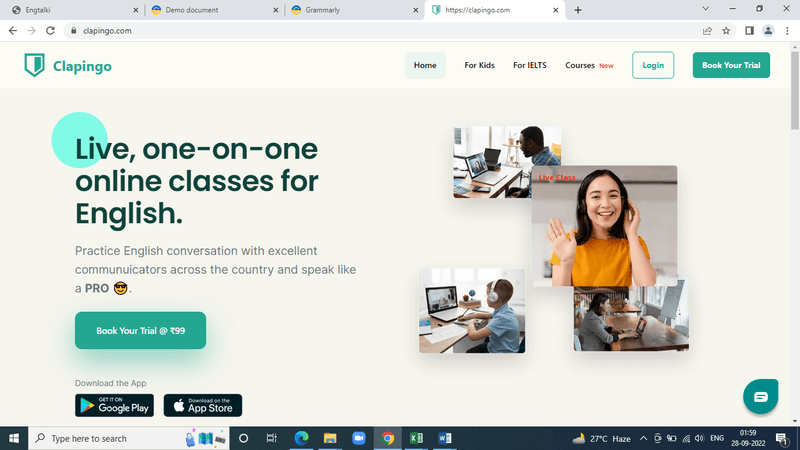
**
**Practice One-on-One with an Expert English Speaker**
Gaining immense popularity in the past year is a unique platform called ‘Clapingo’ where learners can practice conversations with an expert speaker from the comfort of their homes. The learner is provided with a different topic in each session to speak on, enabling them to converse on any real-world scenario-based topic, thereby broadening their horizons. The learners can choose the speaker as per their choice, interacting with different people regularly, which boosts confidence but also aids in getting out of their comfort zones. Their USP is 100% judgment-free practice-based learning leading to fluency in communication. Queries are resolved immediately during the session, and feedback is provided to the learner at the end of the session to focus on weak areas. It’s a **24-hour platform**, allowing you to book slots conveniently. Additionally, recorded sessions are also provided for extra practice and revision.
Master professional situations and expand your new vocabulary with Clapingo's 24-hour platform, where every session offers the chance to dive into diverse topics, ensuring you're well-equipped to handle any scenario with confidence and fluency."
Price: Subscription-based to suit everyone’s budget. (Trial session @Rs.99/-).
Time to complete: Varies from learner to learner.
Certificate of Participation or Completion: No.
Courses to consider:
1) [Clapingo for Adults](https://clapingo.com/learner)
2) [Clapingo for Kids](https://clapingo.com/kids/)
3) [Clapingo for IELTS](https://clapingo.com/ielts/)
4) [Online classes for other subjects and topics.](https://www.clapingo.com/login)
Who should take this course? This course is ideal for English language newcomers who want to overcome their hesitation while speaking English and enhance their English grammar skills.
Link to website: [https://clapingo.com/](https://clapingo.com/)
Link to YouTube channel: [https://www.youtube.com/watch?v=RHxR04XOO0I](https://www.youtube.com/watch?v=RHxR04XOO0I)
### **PROS**
### **CONS**
[Demo](https://clapingo.com/book-instant-demo) session available at Rs.99/- only.
No examinations/tests are conducted.
Undivided attention from exceptional speakers.
Personalized feedback is provided after every session.
### **Cambly**
**

**
Practice One-on-One with a Native English speakers
Cambly emphasizes interactive learning by offering online courses for all skill levels, from basic small talk to advanced discussions on complex topics. It provides targeted lessons in English fundamentals like English grammar, business communication, and exam preparation, categorized into primary, intermediate, and advanced levels. The curriculum is tailored to the learner's needs, incorporating domain-specific vocabulary. Students engage in conversations with native speakers to enhance cross-cultural communication, fostering global connections.
Price: Subscription-based depending on the experience level and requirement.
Time to complete: The course length is around 10-15 lessons; each lesson varies from 15 minutes to an hour, depending on the chosen plan.
Certificate of Participation or Completion: Yes.
More courses to consider:
1) [Cambly for Adults-](https://www.cambly.com/courses) Multiple options to choose from
2)[Cambly for Kids.](https://www.cambly.com/kids?lang=en)
3) [Cambly for Organizations.](https://organizations.cambly.com/india)
Who should take this course? This course is ideal for English language learners who wish to interact with native English speakers or those who cater to global clients.
Link to website: [https://www.cambly.com/](https://www.cambly.com/)
Link to YouTube specimen: [https://www.youtube.com/watch?v=ELF4LN1r130](https://www.youtube.com/watch?v=ELF4LN1r130)
### **PROS**
### **CONS**
Interactions with native speakers.
British and American English pronunciations vary, confusing the learners, and no examinations are conducted.
A free trial is available for specific plans.
Target courses for specific requirements like an exam.
### **Coursera**
**
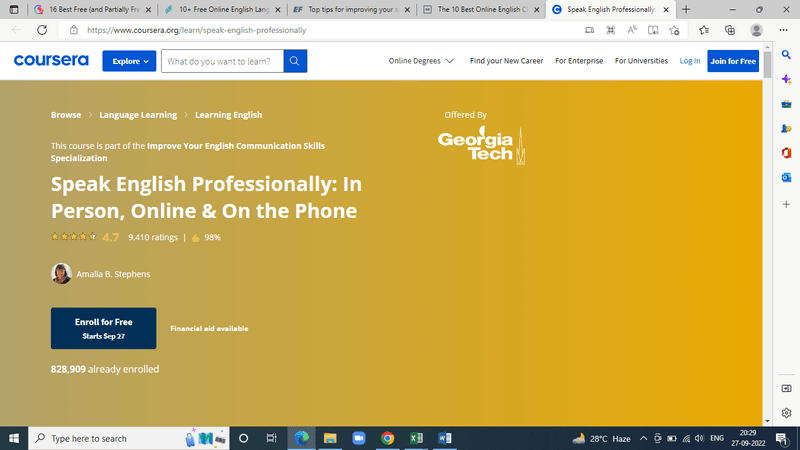
**
Coursera offers a course by Georgia Tech focused on improving English for business, covering topics like networking, sales pitches, and body language. Taught by Ms. Amalia B. Stephens, it uses lectures, assignments, and evaluations to boost fluency and career skills. Free one-week trial available.
Price: $49 per month.
Time to complete: 5 weeks (Approx. 16 hours).
Certificate of Participation or Completion: Yes.
Courses to consider: This course is part of the Improve Your English Communication Skills Specialization course.
Who should take this course? This course is favorable for intermediate-level speakers, especially those interested in leveling up business communications and interactions.
Link to website: [Speak English Professionally: In Person, Online & On the Phone | Coursera](https://www.coursera.org/learn/speak-english-professionally)
### **PROS**
### **CONS**
7-day free trial period.
No interactions with expert speakers.
Great for someone seeking to enhance business language and communication.
Self and peer evaluations.
### **Udemy**
**
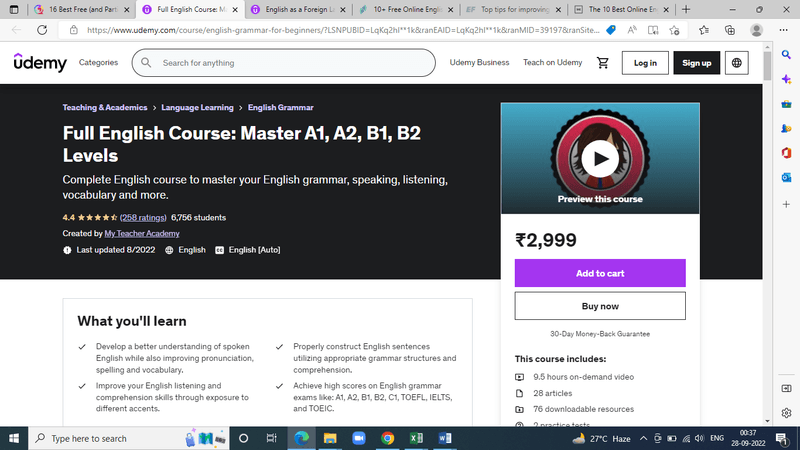
**
Udemy offers a comprehensive, beginner-friendly course focusing on English grammar, suited for learners across CEFR levels A1 to B2 and those aiming for 87-109 points on the TOEFL exam. It includes video lectures, practice packs, vocabulary lessons, real TV examples, and downloadable PDFs, with tests after each chapter to assess understanding.
Price: Rs. 2999/- (Check during the sale season as prices can go as low as Rs. 649/-).
Time to complete: 9.5 hours of on-demand video lessons.
Certificate of Participation or Completion: Yes.
More courses to consider:
1) [English for Beginners: Intensive Spoken English Course.](https://www.udemy.com/courses/search/?src=ukw&q=english+for+beginers)
2) [English as a Foreign language.](https://www.udemy.com/courses/search/?src=ukw&q=english+as+foreign+language)
3) [English Grammar for Beginners: Full English Course.](https://www.udemy.com/courses/search/?src=ukw&q=English+Grammar+for+Beginners%3A+Full+English+Course.)
Who should take this course? This course is ideal for English language learners who wish to construct English sentences utilizing appropriate English grammar structures properly.
Link to website: [Full English Course: Master A1, A2, B1, B2 Levels | Udemy](https://www.udemy.com/course/english-grammar-for-beginners/?LSNPUBID=LqKq2hI**1k&ranEAID=LqKq2hI**1k&ranMID=39197&ranSiteID=LqKq2hI..1k-hZh9UkQG2yJkgZ6GUXMTNA&utm_medium=udemyads&utm_source=aff-campaign)
### **PROS**
### **CONS**
30-day money-back guarantee.
Lack of verbal practice and no interaction with an expert speaker.
Full lifetime access to recorded lectures.
Study at your own pace.
### **Duolingo app**
**
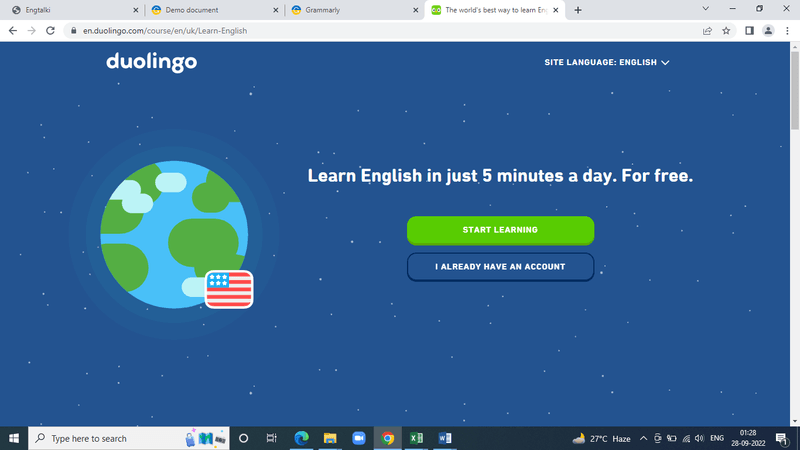
**
Duolingo offers a fun and effective way to learn languages with game-like lessons. It helps beginners practice reading, writing, listening, and speaking skills daily through engaging exercises, playful characters, and challenges. Users earn points and rewards from Duo the owl for completing lessons and maintaining streaks. The app provides mini-tests, a community for doubts, and unlocks new lessons upon leveling up, making learning English and other languages enjoyable and not tedious.
Arabic, Bengali, Chinese, Czech, Dutch, French, German, Greek, Hindi, Hungarian, Indonesian, Italian, Japanese, Korean, Spanish, Polish, Portuguese, Romanian, Russian, Tagalog, Turkish, Ukrainian, and Vietnamese. English courses are in the pipeline for Tamil and Telugu speakers.
Price: Free.
Time to complete: Depends on your consistency.
Certificate of Participation or Completion: No.
Courses to consider: The app features an English language learning segment and other languages.
Who should take this course? This course is ideal for absolute beginners who are completely new to the language and want to gain a light-hand experience of what the language feels like. However, there are lessons for intermediate-level learners too.
Link to website: [https://www.duolingo.com/](https://www.duolingo.com/)
### **PROS**
### **CONS**
High quality and 100% free.
No feedback or personal interactions with experts.
Universally accessible.
Bite-sized lessons for just 5 minutes a day.
### **Engtalki**
**
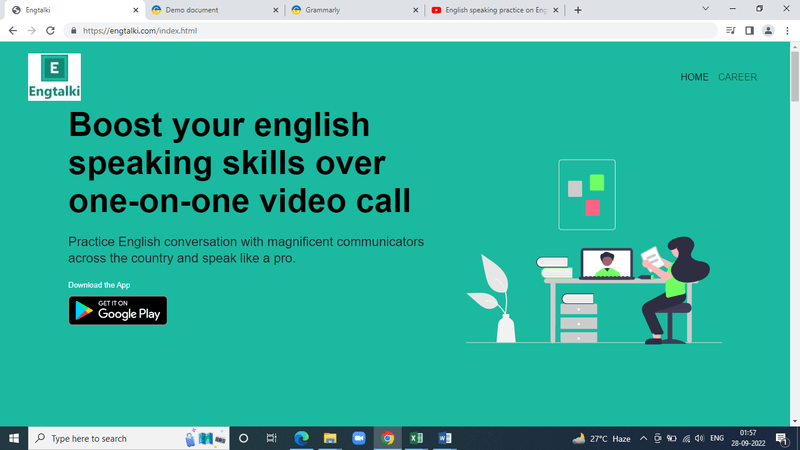
**
Much like [Clapingo’s format,](https://write.superblog.ai/sites/supername/clapingo/posts/https;//www.clapingo.com) Engtalki is an Indian tutoring platform that helps you practice English conversation with magnificent communicators across the country, enabling you to speak like a pro. Engtalki ensures that students should speak for at least 50-70% of the class time. Unlike Clapingo, which is a 24-hour format, Engtalki allows you to book a slot only between 10:00 am to 12 midnight IST.
Price: Based on the chosen subscription plan.
Time to complete: Varies from individual to individual.
Certificate of Participation or Completion: No.
Courses to consider: [Engtalki for Adults.](https://engtalki.com/index.html)
Who should take this course? This course is suitable for learners who want to practice verbal communication and get feedback on their communication skills.
Link to website: [https://engtalki.com/index.html](https://engtalki.com/index.html)
Link to YouTube video: [https://www.youtube.com/watch?v=QL8c2CCHITw](https://www.youtube.com/watch?v=QL8c2CCHITw)
### **PROS**
### **CONS**
Recorded sessions so you can go back and review them.
No examinations to test the learner and no trial session or demo.
One-on-one conversations with tutors.
Feedback based on the conversation.
### **Fastinfoclass**
**

**
Certified & Recognized Spoken English Online Course
This course, ISO certified and recognized by the Government of India, offers an old-school learning model with the option for personalized mentorship. Focused on individual needs, it provides access to various resources and a 90-day spoken English challenge aimed at personal development. The online classroom model has been recognized by Zee News among others and is an affordable choice with 100% placement assistance to boost careers.
Price: One-time admission fee Rs.499/- and monthly fee Rs. 299/- for classroom course beginner level whereas 1-on-1 course fee ranges from Rs.10000 to Rs.20000/-
Time to complete:
Classroom course – 90 days/3 months
Live 1-on-1 course – 1 month.
Certificate of Participation or Completion: Yes.
More courses to consider:
1) [Online Spoken English.](https://www.fastinfoclass.com/spoken-english/)
2)[Individual Spoken English.](https://www.fastinfoclass.com/online-spoken-english-course/)
3) [Advanced Spoken English.](https://www.fastinfoclass.com/spoken-english-course-advanced/)
4) [Spoken English Super 3.](https://www.fastinfoclass.com/super-3-online-spoken-english/)
Who should take this course? This course is apt for those who wish to fix common English errors and learn how to write precise English Grammar.
Link to website: [https://www.fastinfoclass.com/spoken-english/](https://www.fastinfoclass.com/spoken-english/)
Link to YouTube video: [https://www.youtube.com/watch?v=OIjTF1QbXyc](https://www.youtube.com/watch?v=OIjTF1QbXyc)
### PROS
### CONS
Recognized by the Government of India.
No examinations are conducted.
100% placement assistance.
Curriculum-based structured approach.
### FluentU
**

**
Video-based English learning lessons
FluentU offers an innovative approach to learning English through entertainment, using movie trailers, web series, music videos, TV shows, and commercials. It features downloadable audio dialogues, video content with English subtitles and translations, clickable in-context definitions, and examples for easy learning. Content is developed by native English speakers, ensuring learners understand natural language usage. This method combines education with entertainment, making language learning an engaging and memorable experience.
Price: $30 monthly or $240 Annual subscription + 14-day free trial.
Time to complete: 1 month, which can be extended if necessary.
Certificate of Participation or Completion: No.
Courses to consider: No particular course, just video lessons.
Who should take this course? This course is apt for intermediate and advanced learners who want to improve their comprehension and also wish to speak like native speakers to understand their natural tone, body language, and sounds.
Link to website: [English Immersion Online | Learn English with Videos | FluentU](https://www.fluentu.com/english/)
Link to YouTube video: [https://www.youtube.com/watch?v=IEuh17Uik7k](https://www.youtube.com/watch?v=IEuh17Uik7k)
### **PROS**
### **CONS**
Videos are recent and entertaining.
No speaking practice or exams.
It can enhance one’s listening skills.
Subtitles and in-context definitions.
**Tips to improve spoken English**
----------------------------------
### **1\. Practice makes a man perfect.**
Any new skill requires regular practice, so the more you speak, the more fluent your pronunciation and conversations will be. Speak English as much as possible to develop confidence, and while you are at it, don’t shy away from making mistakes. Simply immerse yourself in it and let it flow.
### 2. Mistakes are your guides.
Your mistakes are your teachers; rather than frowning at them, try and learn from them. Focus on your weaker areas and give them some extra love with some extra practice involving new words. The only way to not repeat a mistake is to learn from it, especially when integrating new words into your learning process.
### 3\. Read and Listen carefully.
Enhancing your English listening skills significantly contributes to your overall language acquisition journey. Engaging with a wide array of language-dense materials, such as your preferred books, magazines, novels, or newspapers, alongside listening to music, podcasts, or news bulletins, can greatly aid in this process. Additionally, mimicking the sounds and pronunciation patterns you hear can further refine your English speaking skills.
### 4\. Vocabulary is your best friend.
Knowing the word that would enable you to express yourself with appropriate words is vital. A wrong word can change the meaning of a sentence or statement completely. Try to learn a word or two every day, along with its meaning and usage, and keep repeating it until it becomes a part of your regular conversations; note it down in a book or on your phone whenever you encounter new words.
### 5\. Tech it out.
Tech can be your best friend if you can use it to your advantage. Your phone is a powerhouse for learning any language. From online dictionaries to productivity apps, you can benefit from it all. Take notes, record yourself while speaking English to spot your errors, and learn a new set of idioms to notch it up.
### 6\. Make Friends and take Feedback.
Make friends with people who speak English and can encourage you to do the same. Talk about your day, exchange ideas, and have a discussion or a debate but all in English. It enables one to enhance listening and speaking skills to argue effectively. Don’t forget to get feedback to work on areas of improvement.
**Pointers/Hacks for succeeding in an English Speaking online course**
* A dependable internet connection is essential when enrolling in any course aimed at improving English speaking skills online.
* Please check your mobile device compatibility with the app/platform you choose to learn on.
* Explore the internet for more English learning content but remember, too many cooks spoil the broth, so choose wisely.
* Focus on your requirements and prioritize the course according to your needs.
* I hope the earlier details will help you make an appropriate decision and beautify your language-learning journey. Happy Learning! Until next time, Toodles.
Resources to help you become a more confident communicator
----------------------------------------------------------
### [13 Best Spoken English Classes](https://clapingo.com/blog/english-classes-near-me-in-india)
### [](https://clapingo.com/blog/how-to-learn-english-speaking-at-home-clgwfnak2940643tpbikp9u8sy)[How To Learn English Speaking At Home](https://clapingo.com/blog/how-to-learn-english-speaking-at-home-clgwfnak2940643tpbikp9u8sy)
### [](https://clapingo.com/blog/english-speaking-practice)[Practicing Speaking English](https://clapingo.com/blog/english-speaking-practice)
Click **[here](https://clapingo.com/blog)** for more**.**
---
This blog is powered by Superblog. Visit https://superblog.ai to know more.
---
## The most important English expressions you should know
Author: Unknown
Published: 2022-07-21
Meta Title: Important English expressions you should know
Meta Description: These are the most important expressions to know. Most actions, emotions, situations, and reactions are always described by an English word or phrase.
Tags: english expressions, english phrases meanings, english phrases, learn english online, english vocabularly
URL: https://clapingo.com/blog/the-most-important-english-expressions-to-know
### English is an expressive language...!

Important English expressions to know
There is always a word or **phrase** to describe most actions, emotions, situations or reactions. It is also full of creative forms of expression. This also makes it an interesting **language.**
> However, for new speakers understanding such expressions without any frame of reference can be difficult. It is also confusing because it is mostly full of colloquial expressions which may have cultural references. New learners may struggle to understand these and eventually even have trouble using them in daily conversation.
A good way for new learners to [learn English](https://www.clapingo.com/)expressions is by reading up. This allows learners to familiarize themselves with the different expressions and their meanings. Many times the words in an expression may mean different things on their own but together the meaning changes. This makes it difficult to identify these expressions in any conversation. By reading different expressions, it makes it easier to identify different expressions in everyday conversation.
As a learner identifies different expressions in someone else's speech, it becomes easier to remember to use their phrases in their own speech.
Most expressions are not used in everyday speaking by most fluent speakers. However, there are some expressions that are used more often than others.
**Under the weather:**
----------------------
* **Meaning**: If someone is or feels under the weather, they feel ill
* **Examples:**
1. I think that she is **_under_ _the_ _weather_** at the moment.
2. He is now apparently **_under_ _the_ _weather_.**
3. They continued to work even though they felt a bit **_under the weather._**
4. I will not be able to complete the task today because I am feeling slightly **_under the weather_** today.
**Wrap your head around something**
-----------------------------------
* **Meaning**:to succeed in understanding something difficult or strange
* **Examples**:
1. I [find](https://dictionary.cambridge.org/dictionary/english/find) it hard to **_wrap my head around_** such [complex](https://dictionary.cambridge.org/dictionary/english/complex) [issues](https://dictionary.cambridge.org/dictionary/english/issue).
2. She struggled to **_wrap her head around_** the news.
3. How did you **_wrap your head around_** this?
4. He **_wrapped his head around_** the new responsibilities that came with moving to a new city.
At your fingertips
------------------
* **Meaning**: If you have information at [your](https://dictionary.cambridge.org/dictionary/english/your) fingertips, you can get it and use it very easily; or convenient and easy to find
* **Examples:**
We have all the latest statistics **_at our fingertips._**
1. He had the facts **_at his_** **_fingertips._**
2. She remembered the information **_at her fingertips._**
3. Do you recall the numbers **_at your fingertips_**?
**Live and learn**
------------------
* **Meaning:** said when you hear or discover something that is surprising
* **Examples:**
1. I did not know she lived in my neighbourhood. You **_live and you learn._**
2. No matter how much you prepare, things can still not work out. I guess you **_live and learn._**
**On thin ice**
---------------
* **Meaning:** to be doing something that is dangerous or involves risks
* **Examples:**
1. By lying to the boss, he is _**on thin ice**_ at work.
2. She was skating _**on thin ice**_ by waiting until the last minute to prepare for the exam.
3. Do you think I am _**thin ice**_ because I skipped too many days of school?
**Spill the beans:**
--------------------
* **Meaning:** to tell people secret information
* **Examples:**
1. Do not **_spill the bean_**s about the surprise party.
2. I think she **_spilled the beans_** about the mistake we made.
3. Did you **_spill the beans_** about his background?
4. So who **_spilled the beans_** about the proposal he has planned for her?
**Through thick and thin:**
---------------------------
* **Meaning:** If you support or stay with someone through thick and thin, you always support or stay with them, even if there are problems or difficulties
* **Examples:**
1. I commend her for sticking by him **_through thick and thin._**
2. Would you stand by me **_through thick and thin_**?
3. I want to thank you for being there for me **_through thick and thin._**
4. My mother has been with me **_through thick and thin_**.
**See eye to eye:**
-------------------
* **Meaning:** If two people **_see eye to eye_**, they agree with each other
* **Examples:**
1. We do not **_see eye to eye_** on working styles.
2. Do you **_see eye to eye_** with your siblings?
3. They fought because they did not **_see eye to eye_** on the problem.
4. I hope we **_see eye to eye_** moving forward.
These are not all the expressions commonly used in the **English language.** It depends on the situation and who you may be speaking with. Many times, these expressions are used in written **English**. However, this is a good place to start. There are some others you can also use often.
**Piece of cake**
-----------------
* **Meaning:** something that is very easy to do
* **Examples:**
1. This project was a **_piece of cake._**
**Add insult to injury:**
-------------------------
* **Meaning:** to make a bad situation worse
* **Examples:**
1. I was late to work and **_to add insult to injury_**, I forgot my documents at home.
**You cannot judge a book by its cover:**
-----------------------------------------
* **Meaning:** said to show that you cannot know what something or someone is like by looking only at that person or thing's appearance
* **Examples:**
1. He was not dressed professionally, but his technical skills were beyond any other candidates’. This just goes to show that **_you cannot judge a book by its cover._**
**Cut corners:**
----------------
* **Meaning:** to do something in the easiest, cheapest, or fastest way which way not be the best way to do it
* **Examples:**
1. The projects were mismanaged and they **_cut corners_** while selecting materials.
**Call it a day:**
------------------
* **Meaning:** to stop what you are doing because you do not want to do any more or think you have done enough
* **Examples:**
1. After working at this job for nearly three decades, he decided to **_call it a day._**
**Blessing in disguise:**
-------------------------
**Meaning:** something that seems bad or unlucky at first, but results in something good happening later
**Examples:**
1. Waking up late and missing the bus was a **_blessing in disguise_**, because my classes were cancelled for the day.
**Add fuel to the fire**
------------------------
**Meaning:** to make an argument or bad situation worse
**Examples:**
1. I did not want to **_add fuel to the fire_** by commenting on the situation.
**The last straw:**
-------------------
* **Meaning:** the latest problem in a series of problems, that makes a situation impossible to accept
* **Examples:**
1. Not being allowed to take a decent lunch break was **_the last straw_** for most of the disgruntled employees.
**Hit the books:**
------------------
* **Meaning:** to [study](https://dictionary.cambridge.org/dictionary/english/study)
* **Examples:**
1. I should **_hit the books_** so I cannot go to the movies tonight.
**On cloud nine:**
------------------
* **Meaning:** to be [extremely](https://dictionary.cambridge.org/dictionary/english/extremely) [happy](https://dictionary.cambridge.org/dictionary/english/happy) and [excited](https://dictionary.cambridge.org/dictionary/english/excite)
* **Examples:**
1. I was **_on cloud nine_** when I got promoted.
**How many of these have you used before? How many do you think you can use often?**
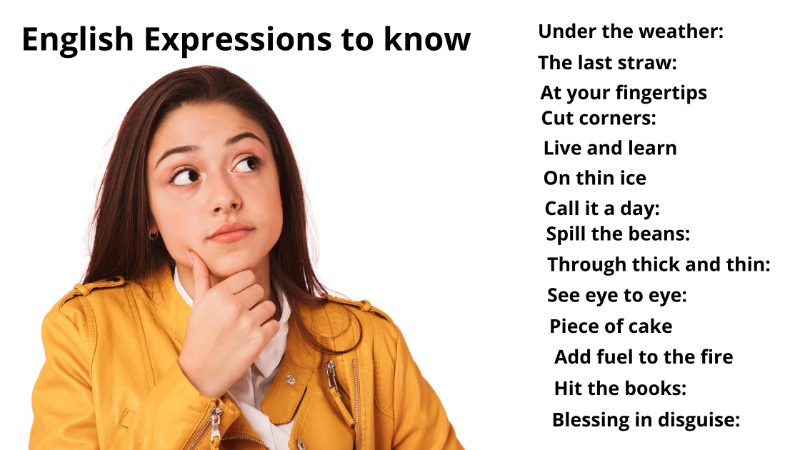
_**visit**_ [Clapingo blogs](https://clapingo.com/blog)
> These expressions can replace long sentences and reduce the confusion you face while thinking of the right set of words. So think of different scenarios in which you can use these expressions to be ready for any time you may need to use them.
Keep learning more expressions to make yourself sound more creative and advanced while speaking. It may seem difficult at first but keep trying. You will definitely begin to enjoy using and learning new expressions.
_For more helpful tips and tricks,visit [clapingo](https://www.clapingo.com)_
**[Book A Trial @99/- only](https://www.clapingo.com/book-demo/:component)**
Contents
* [English is an expressive language...!](#english-is-an-expressive-language)
* [Under the weather:](#under-the-weather)
* [Wrap your head around something](#wrap-your-head-around-something)
* [At your fingertips](#at-your-fingertips)
* [Live and learn](#live-and-learn)
* [On thin ice](#on-thin-ice)
* [Spill the beans:](#spill-the-beans)
* [Through thick and thin:](#through-thick-and-thin)
* [See eye to eye:](#see-eye-to-eye)
* [Piece of cake](#piece-of-cake)
* [Add insult to injury:](#add-insult-to-injury)
* [You cannot judge a book by its cover:](#you-cannot-judge-a-book-by-its-cover)
* [Cut corners:](#cut-corners)
* [Call it a day:](#call-it-a-day)
* [Blessing in disguise:](#blessing-in-disguise)
* [Add fuel to the fire](#add-fuel-to-the-fire)
* [The last straw:](#the-last-straw)
* [Hit the books:](#hit-the-books)
* [On cloud nine:](#on-cloud-nine)
---
This blog is powered by Superblog. Visit https://superblog.ai to know more.
---
## Are you looking for an overseas job? IELTS can help!
Author: Unknown
Published: 2022-07-03
Meta Title: IELTS for People Planning to Migrate or overseas job
Meta Description: IELTS assesses English language proficiency fairly and accurately. Clapingo can assist you if you are looking for an overseas job or if you are migrating.
Tags: englishlearningskills, english learning course, ielts, ielts exam, ielts score, ielts job, ielts learning, ielts english, ielts band score
URL: https://clapingo.com/blog/are-you-looking-for-an-overseas-job-or-migration-ielts-can-help
Is there a job or migration opportunity overseas, **What are you searching for?**
---------------------------------------------------------------------------------

**The International English Language** Testing System **[(IELTS)](https://ielts.clapingo.com/)** has been designed to determine the **English language** proficiency of the Test-Taker in a fair and accurate manner.
------------------------------------------------------------------------------------------------------------------------------------------------------------------------------------------------------------------------
Language experts from Australia, New Zealand, Canada, the United Kingdom, and the United States set up the test questions, which is managed and conducted by IDP in India. **[The IELTS](https://ielts.clapingo.com/) examination** is conducted over about 48 times a year, with no limit on the number of attempts. In addition, there is no official eligibility criteria or prerequisites for the test takers to take the examination.
Basically, **[IELTS](https://ielts.clapingo.com/)** is a basic requirement if you want to study abroad, or are looking for employment opportunities in foreign countries, and also for any migration processes from a non-English country to an **English** country. Essentially, the test measures the competency of a non-native **English speaker** in four sections: Writing, Reading, Speaking and Listening and is recognized by thousands of institutions and developed economies around the world.
### The **[IELTS](https://ielts.clapingo.com/)** test has been **categorised into two forms of test**, both of which serve different purposes.
* **While the IELTS General Training exam** evaluates your English proficiency in an everyday context. As such, you will need to take the General Training test for emigration or work in an **English-speaking** country, or even in the process of obtaining citizenship in certain countries, like Canada.
* **IELTS Academic assesses** whether your **English** level is appropriate for an academic environment. Academic Test if you intend to go to school - college, university bachelor’s, master’s or doctoral programs - in an **English-speaking** country.
> To sum it up, if you plan on enrolling at a university or college in any of the aforementioned countries, or apply to business organisations, or register for a visa from government agencies in countries such as the United Kingdom, Australia, New Zealand, or Canada, the[IELTS test](https://ielts.clapingo.com/) can help you reach your education, career or life goals. Following your **IELTS test**, doors are thrown open to a wide range of career opportunities in **English-speaking nations.**
Many different Institutions and Corporations require a good **[IELTS score](https://ielts.clapingo.com/)** in order to secure an admission into their Institution and Firms.
Hence, if you wish to study, live, or work in an English-speaking country, there are high chances that you would be required to take the **[IELTS](https://ielts.clapingo.com/)**. Almost every program offered by universities would accept a **score of 7 or higher**. A good **IELTS score** can also help you in your Visa Applications.
Government agencies use the **[IELTS exam](https://ielts.clapingo.com/)**as part of their application processes to award citizenship or the right to permanent residency. So many meritorious and skilled individuals consider it a dream and a lucrative opportunity to settle down in countries like Canada, the USA, the UK, and Australia. According to the governments of these countries, language proficiency is important to integrate, communicate, and work in their **English-speaking environment**. The immigration authorities accept and recognize visa and immigration applications only when they are supplemented with an **IELTS score.**
Not only this,[IELTS](https://ielts.clapingo.com/)also helps improve your **English language skills**. Some students tend to favour certain skills over others. When you take an **[IELTS test](https://ielts.clapingo.com/)**, you are tested in all four skills, that is, Listening, Reading, Writing, and Speaking, so you’ll need to practise them all if you want to do well. As such, you gain a better knowledge of the English that you need to survive in majorly **English-speaking environments**. For example, if you take the **IELTS Academic test**, you will become more familiar with the kind of language required for undergraduate or postgraduate study in **English**. Additionally, by taking an [IELTS test,](https://ielts.clapingo.com/) you also receive a test report that is recognised and accepted by thousands of institutions around the world, including companies, universities, professional bodies, and government agencies.
In conclusion, whether you are applying for study, work or a visa, the **[IELTS examination](https://ielts.clapingo.com/)** is the same in terms of content, examiners, format, level of difficulty and scoring. If your test results are not satisfactory, there is no limit on when and how often you can retake it, but it is advisable to take some time and study more before your next attempt. In most countries, test centres offer preparatory courses and language classes, but you can also find **online learning** resources that will help you refresh your knowledge and explain how best to prepare for the exam.
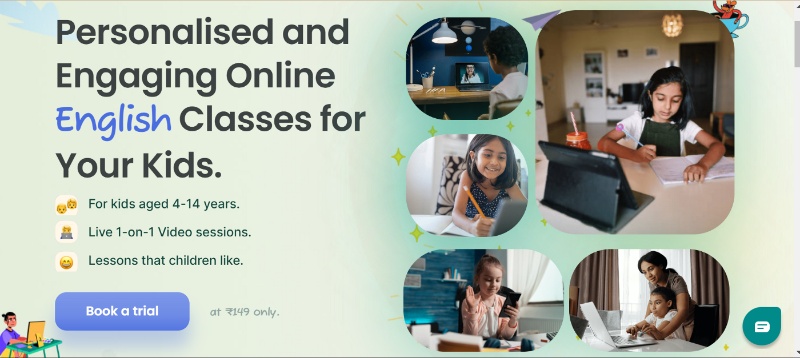
https://ielts.clapingo.com/
Needless to say, in order to take the test and get the score that you need, an error-free preparation plan is essential and [**Clapingo**](https://ielts.clapingo.com/) offers you just that! **[Clapingo](https://clapingo.com/blog)**, with its set of **IELTS Tutors** makes sure that you achieve your desired Band Score and exploit the rewarding job and educational opportunities around the world. What are you waiting for? Enrol now!
---
This blog is powered by Superblog. Visit https://superblog.ai to know more.
---
## Learn 10 Ways To Improve Your English Fluency Without Resorting Grammar
Author: Unknown
Published: 2022-01-12
Meta Title: 10 Ways To Improve Your Spoken English Fluency
Meta Description: We are so fortunate to live in a world with easy access to the English language. Here are the ten best ways to improve your spoken English Fluency online.
Tags: englishlearning, spokenenglish, learnenglish, learning videos, english grammar, grammar
URL: https://clapingo.com/blog/learn-10-ways-to-improve-your-english-fluency-without-resorting-grammar-sitessupernameclapingopostsckybswn4t227621ko5vc96lic8
We are so fortunate to live in a world with easy access to the English language. However, sometimes the excess information can get difficult to filter and process.
-------------------------------------------------------------------------------------------------------------------------------------------------------------------
Learning any language is usually associated with grammar first and sadly that can be one of the more difficult aspects of a language.
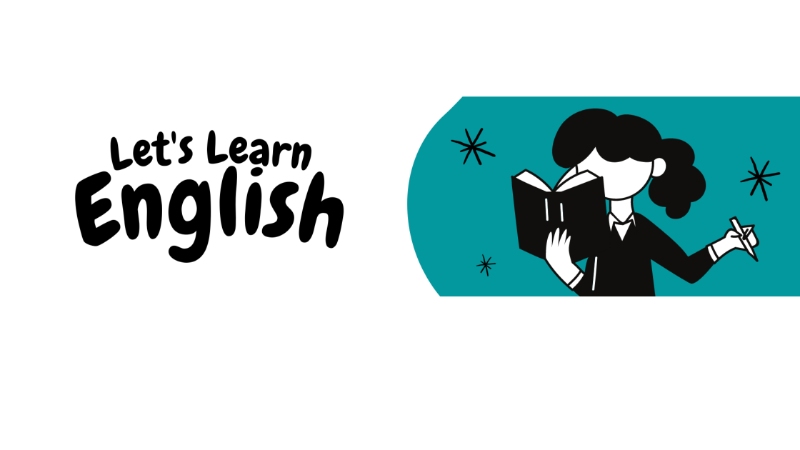
However, here are 10 ways to improve your English fluency that don't include Grammar.
-------------------------------------------------------------------------------------
### [English fluency](https://www.clapingo.com) is not just about grammar. It is about correct sentence structure and good vocabulary too. If you can get your sentences correct just by learning proper sentences from your surroundings, your English will automatically get better too.
1. Absorb as much **[English](https://clapingo.com/blog/)** around you as possible.
> English is all around you so observe and understand as much as you possibly can. It could be through social media, magazines, books, television, blogs or even through instruction manuals. You can read instructions on everything to learn new words or ideas. There are instructions on shampoo bottles, mobile phone handbooks, on websites, on food packaging. It's everywhere and you can probably pick up a lot of phrases and information from these unorthodox sources.
2.Read something short or long every single day.
> Make it a point to read something in English everyday. For better results, read it aloud so you can hear the pronunciation as well. Many times, we feel we know the pronunciation of something until we have to say it out loud. You could read a blog, a short story, a speech, an essay, a book or a magazine.
3.Listen to [podcasts](https://learnenglish.britishcouncil.org/general-english/audio-series/podcasts) about your favourite genre.
> Listening is an important part of English learning. It makes the words and sentences more real and memorable. You learn the pronunciation and the context. You can listen to an audiobook or podcast anytime. Try finding a source that also has subtitles so you learn audio-visually. The more ways you expose yourself to a word or phrase, the better the chances of you retaining the information.
4. Learn two words each day by making sentences with them.
> Try not to overwhelm yourself with too many new words. You probably will not remember even one of them. Learn upto two new words each day and create numerous sentences using those words. Make some sentences long and some short to learn a variety of unfamiliar words. The key to this is repetition. Creating twenty sentences with a word one time and never looking at it again is futile. Randomly flip back to previous words and make more sentences with them.
5. Write something in **English** every week.
> English thinking is important for English fluency. Writing is a good way of inducing this thinking. Pick any topic, simple or complex, write something about it and then read it out loud. The process of thinking in English, penning your thoughts and actually reading them aloud will help you improve your fluency in the long run. You can always read your own writing again and again or even try to improve it by using new words you may have learned.
6. Listen to [English music.](https://wynk.in/music)
> Music is much more catchy than any other learning method. Listen to nursery rhymes, songs or even jingles on repeat to discover new words. Eventually you will notice that you have certain words or phrases stuck in your head. Use those words and phrases when you speak. Odds are that you might sound more poetic!
**You and I...in this beautiful world…green grass, blue skies...in this beautiful world...**
**Does that ring a bell?**
6. Speak in **English** to atleast 5 people each week.
> You cannot really expect English fluency without actually speaking! It is like expecting crops without sowing any seeds. Find five good English speakers that you can speak to each week. They do not have to be the same five people every week. The more the merrier. Keep speaking to someone whose English is better than yours. This is the surest way of improvement.
7. Learn something from advertisements.
> Weird right? How can advertisements help you?
>
> You can learn a lot of vocabulary through advertisements. They can be big hoardings or newspaper ads, as long as they are in English.
>
> You will see certain words that you might like to use. The mega sale is here or do you want a phone with the latest cutting edge technology?
>
> There is so much to learn from these. They can also be super memorable, with the colours, pictures and fonts. There is always something to learn from everything.
8. Watch talk shows.
> You may love watching shows and movies and you may find yourself in similar situations as those characters but not always. You will however find yourself identifying with real people. Watch how people answer and ask questions. You may get some ideas.
9. Stop translating your sentences.
> You will need to learn less grammar if you simply stop translating sentences from your native language. Every language has a different sentence structure. Therefore, directly translated sentences will always sound incorrect. So learn English sentence structure independent of translation. You will definitely sound much better.
You cannot learn **English** just by doing the above but once you improve yourselves in some aspects, you will feel more confident about the more technical aspects like **grammar.** Also, you will be able to identify **grammar** rules in your existing knowledge.
[www.clapingo.com](https://www.clapingo.com/)
**Speaking English** is a lot about confidence so don't get too much in your head and just try your best. You're probably much better at **English** than you think you are.
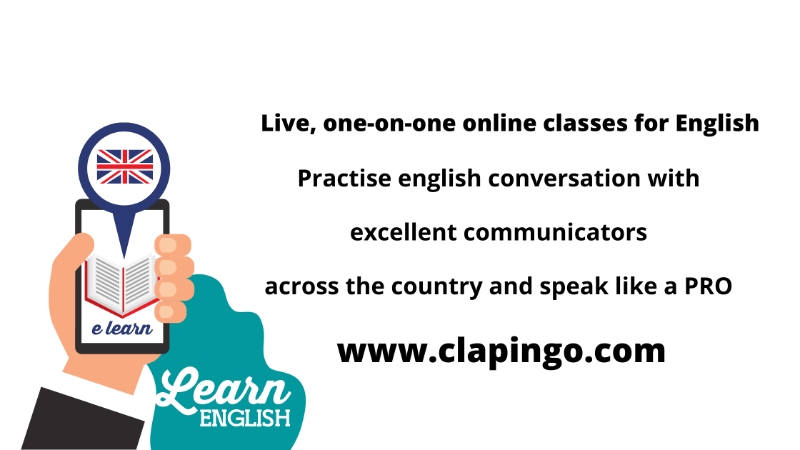
Contents
* [We are so fortunate to live in a world with easy access to the English language. However, sometimes the excess information can get difficult to filter and process.](#we-are-so-fortunate-to-live-in-a-world-with-easy-access-to-the-english-language-however-sometimes-the-excess-information-can-get-difficult-to-filter-and-process)
* [However, here are 10 ways to improve your English fluency that don't include Grammar.](#however-here-are-10-ways-to-improve-your-english-fluency-that-dont-include-grammar)
* [English fluency is not just about grammar. It is about correct sentence structure and good vocabulary too. If you can get your sentences correct just by learning proper sentences from your surroundings, your English will automatically get better too.](#english-fluency-is-not-just-about-grammar-it-is-about-correct-sentence-structure-and-good-vocabulary-too-if-you-can-get-your-sentences-correct-just-by-learning-proper-sentences-from-your-surroundings-your-english-will-automatically-get-better-too)
---
This blog is powered by Superblog. Visit https://superblog.ai to know more.
---
## Improve English Language Skills By Listening To Christmas Music
Author: Unknown
Published: 2021-12-29
Meta Title: Improve Language Skills By Listening To Christmas Music
Meta Description: Yes! Yes! Yes! You absolutely can. Listening to music is always a great way to remember and retain information and improve Spoken English language skills.
Tags: christmassongs, englishlearning, englishsongs, christmassongenglishlearning, runrunrudolph
URL: https://clapingo.com/blog/improve-english-language-skills-by-listening-to-christmas-music-sitessupernameclapingopostsckxrpyxbp246981kn864wh88dq
3 ways to quickly improve your English language skills.
--------------------------------------------------------
### Yes! Yes! Yes! You absolutely can. Listening to music is always a great way to remember and retain information and improve [English language skills](https://clapingo.com/blog/).
**Christmas Songs**, while being festive, also have some great gems of the English language hidden in them.

You can learn a new word or phrase in every other line.
**1. [Run Run Rudolph](https://www.youtube.com/watch?v=VjL031bE9FA)**

**[](https://www.youtube.com/watch?v=VjL031bE9FA)** The first part of this song has so much to learn:
Let me give you some holly jolly examples,
Rudolph, The Red-Nosed Reindeer
Here's the third stanza from the song,
> _All of the other reindeer_
>
> _Used to laugh and **call him names**_
>
> _They never let poor Rudolph_
>
> **_Join in_** _any reindeer games_
**_Call him names_** means insulting someone by calling them rude names.
_Join in_ means to participate in something.
Let's have a look at the fifth one,
> _Then how the reindeer loved him_
>
> _As they **shouted out with glee**_
>
> _"Rudolph the Red-Nosed Reindeer_
>
> _You'll **go down in history**"_
_Shouted out with glee_ means to exclaim or shout out when you are very happy or excited.
_To go down in history_ means to be remembered for years and years for something you have done or for something about you.
Let's look at another **Christmas Song**:
**2. [Run Run Rudolph](https://www.youtube.com/watch?v=SqVtqbzTdVs)**

The first part of this song has so much to learn:
> _Out of all the reindeers you know you are the **mastermind**_
>
> _Run, run Rudolph, Randolph ain't **too far behind**_
>
> _Run, run Rudolph, Santa's gotta **make it to town**_
>
> _Santa, make him hurry, tell him he can **take the freeway down**_
>
> _Run, run Rudolph 'cause I'm reelin' like a merry-go-round_
This song has many ways to improve your **English** and make it sound more like a Native Speaker.
Mastermind: Someone intelligent who is the brains behind some plan
Not too far behind: pretty close
Make it to town: Reach the city or town the person talking also lives in
Take the freeway down: You can use this while discussing which route to take to someplace
**3.[It's Beginning To Look A Lot Like Christmas](https://www.youtube.com/watch?v=vUiHsJrRNGE)**

> _It's **beginning to look a lot like Christmas**_
>
> _Toys in every store_
>
> _But **the prettiest sight to see** is the holly that will be_
>
> _On your own front door_
>
>
Beginning to look a lot like: This phrase can be used for anything special.
For example, It's **_beginning to look a lot like_** wedding season in our home.
Prettiest Sight To See: You can replace 'prettiest' with any word and use it to match the context.
**For example,**
The scariest sight to see was the door opening on its own.
Beginning to look a lot like: This phrase can be used for anything special.
**For example**, It's **_beginning to look a lot like_** wedding season in our home.
Prettiest Sight To See: You can replace 'prettiest' with any word and use it to match the context.
**For example,**
The scariest sight to see was the door opening on its own.
The funniest sight to see was us dropping the cake on the floor.
These are only some of the many examples of learning in **Christmas** Songs & Carols. You can always level up your vocabulary by listening to them repeatedly and using them in your own way.
Of course if you want to brush up your **Christmas** or Winter Vocabulary, you can listen to any one of the traditional **Christmas** Carols. Here are some **favourites,**
● **Deck The Halls**
● **Silent Night**
● **Jingle Bells**
● **Hark! The Herald Angels Sing**
● **Away In A Manger**
● **Joy To The World**
● **The 12 Days Of Christmas**
There are so many Christmas Classics to learn from. Every year new songs come up as well and you can rock to a new rhythm
There's **[English learning](https://clapingo.com/blog/)** in everything if we look hard enough. Learning about Christmas is also culturally important to the **English language** which helps us understand it better. So next time you hear a Christmas Song playing in a restaurant or shop, sing along!
Merry Christmas and Happy Learning!
· · ·
[VISIT OUR WEBSITE](https://www.clapingo.com)
---
This blog is powered by Superblog. Visit https://superblog.ai to know more.
---
## Can listening to songs help you improve your Spoken English?
Author: Unknown
Published: 2021-12-21
Meta Title: Can listening to songs help you improve your English.
Meta Description: Improve your spoken English conversation using English songs. Discover more about how to improve your spoken English using music in this Clapingo blog.
Tags: singers, songs, disneymovie, learnenglish
URL: https://clapingo.com/blog/can-listening-to-songs-help-you-improve-your-spoken-english-ckxga26vi03801jp75te3i8hx
Improve Your Spoken English Conversation,
-------------------------------------------
### English songs could actually be a great resource
> Music can be a great way of improving your familiarity with any language. If you are someone who wishes to speak fluent [English](https://www.clapingo.com), **English songs** could actually be a great resource. Songs can be a great way of acquiring **new vocabulary** as well as **new phrases**. The best part is that it is much easier to remember song lyrics than a dialogue or quote.
>
> 
**1\. Kids cartoons** : Various animated kids cartoons such as **Phineas and Ferb, Doremon, [Mickey Mouse](https://www.youtube.com/channel/UC5K8SEF_7GQBedXIjtXLCRg)** have various songs in English. These songs have a very catchy tune. If you have young children in your house then you can always sit with them and enjoy this very unique selection of songs.

2. **Animated Disney Movies** : These **movies** have some of the most interesting and emotional songs. What makes them ideal for a new **English** learner is the lack of abusive language and slang words. You can listen to the whole album from movies like **Moana, Frozen, [Barbie](https://www.facebook.com/barbie/)**, etc.

**3.Indian Singers in English** : These days a lot of **[Indian singers](https://thelistacademy.com/en/list/most-popular-male-singers-in-india/)** are also releasing songs in **English**, these songs are easier to understand due to their **Indian accent**. You can try listening to singers like **Prateek Kuhad or Ananya Birla.**

**4.****Advertisement Jingles** : These are the songs that are played in the backgrounds of various **advertisement campaigns**. There are a lot of brands that have **English phrases** in their advertising campaigns such as **Thums up.** Most recently companies like **Cadbury** have also started using English songs as their primary jingles. Have you heard the song that is playing in the background of the latest **Whatsapp advertisement?**

*
> Now that we have understood what we can listen to, let’s take a look at the various methods we can employ while listening to these songs.
>
> The mere act of listening to **English** music can be done in a variety of ways
>
>
>
* **The first and the most basic method would be to simply listen to the song while paying attention to the lyrics**. In this method your main focus would be towards understanding the meaning of the song at hand.
* **The second method is looking at the lyrics while listening to the song.** This would help you understand every word with more clarity. It would also help you in understanding as well as correcting your pronunciation of various words. You can easily practice this method while watching various lyrical videos on YouTube.
* **The third and the most impactful method is to sing along with the song.** At first you can start by singing along with the original, later you could record yourself singing to various karaoke versions of the songs. This would help you ensure that you are announcing all the words correctly and would help greatly with your voice modulation. Voice modulation is how you can adjust the tone and tempo of your voice so as to bring more attention to certain words, this is one of the most impactful practices of an impressive speaker.
Contents
* [Improve Your Spoken English Conversation,](#improve-your-spoken-english-conversation)
* [English songs could actually be a great resource](#english-songs-could-actually-be-a-great-resource)
---
This blog is powered by Superblog. Visit https://superblog.ai to know more.
---
## Here are 5 ways in which you can Master Conversational English
Author: Unknown
Published: 2021-11-26
Meta Title: 5 ways in which you can Master Conversational English
Meta Description: The point is that, like any other language, or any other skill for that matter, it will take you a good amount of time to Master Conversational English.
Tags: englishconversation, speakenglish, readenglish, writeenglish, learnenglish, practiceenglish
URL: https://clapingo.com/blog/here-are-5-ways-in-which-you-can-master-conversational-english-ckwgil3x055232vruguo1r93k
MasterConversationalEnglishin2minutes.com
------------------------------------------
> Did we fool you? We hope so.
> ----------------------------
>
> ### Well, on second thought, we don’t think so.
>
> The site name is too long and we are sure you can see through our little trick. Excuse our sad attempt at starting this blog with a joke, although we are trying to make a point. Master conversational English.
>
> 
>
> When we are trying to make a point.
>
>
>
> The point is that, like any other language, or any other skill for that matter, it will take you a good amount of time to **Master Conversational English**. It isn’t possible to master it in 2 minutes, contrary to what the website name says in the first line. Although, it is possible to master it through different ways, means and practices.
· · ·
So, do you wish to take over the world with your fluent, clear and crisp **English**? We have got you.
Here are 5 ways in which you can **Master Conversational English**: -
1) Record, Repeat And Mirror :-

Record & Repeat
Do you know what your voice sounds like in **English**? Or what you look like when you speak in **English**?
Understand your body language and conversational skills better by _recording_ yourself **speaking in English**. This will help you accurately gauge the level of fluency that you are speaking at.
After reviewing your recording, rephrase all the words and sentences that you misspoke in the recording. _Repeat_ the correct sentences numerous times. Speak to yourself. **Listen** to how you **sound in English**. This will help you see the gaps that exist in your conversational English. Don’t fret over embarrassing yourself.
Understand your body **language** and **conversational skills** better by _recording_ yourself speaking in English. This will help you accurately gauge the level of fluency that you are speaking at **Master conversational English.**
2) Put Together A List:-

Listing
Do you have certain words and phrases in your native language that you tend to use a lot?
**_[Put together a list](https://clapingo.com/blog/)_** of these words and translate them into **English**. Please don’t translate them verbatim. Ensure that the meaning of the phrase is correctly translated in **English**. Start with small words. Begin to use this vocabulary in your daily life. Replace the **native language** words with their respective translated **English words**. Carry this list with you and refer to it until you have memorized the **English words**. When you are ready to expand your vocabulary, add tougher **[words and phrases](https://www.dictionary.com/)** in your list. Wait until you are comfortable with the tougher words. Once you memorize them as well, add more. Continue this cycle until you feel confident with your vocabulary!
P.S: To feel good about yourself, revisit the older words in your list to see how far you have come.
3) Avoid Using Slang:-

No to slang
Although slang is common in the **English language**, you should _avoid using it_ until you have a firm grasp on the language. Your priority is to learn and speak in clear **English**. Once you have reached this goal, you will be able to use slang and other informal expressions appropriately. Until then, turn your back on these kinds of expressions and continue with the simple, formal **English**.
4) Read, read & read:-

Reading
Online articles, blogs, magazines, newspapers are some of the many options that exist on our massive internet. Want to cook something new? Search a cooking recipe and read it thoroughly. Have you recently created a new account on a site or have you made a new purchase? Read the terms and conditions. Yes, all of them.
5) Watch & Listen:-

Watch & Listen
Besides movies, watch vlogs where people are speaking in **English**. Travel vlogs, fashion vlogs, food vlogs and more. Look for vlogs that interest you. Ensure that people in these vlogs are having **conversations in English** and pay close attention to how they are forming sentences, replying and asking questions.
Above all, please be patient and kind to yourself. It is challenging to learn a new skill. It requires **practice and diligence**. Be proud of yourself for being on this journey and continue to push through your worries and fears.
Contents
* [MasterConversationalEnglishin2minutes.com](#masterconversationalenglishin2minutescom)
* [Did we fool you? We hope so.](#did-we-fool-you-we-hope-so)
* [Well, on second thought, we don’t think so.](#well-on-second-thought-we-dont-think-so)
**[Clapingo](https://clapingo.com/login) Blogs**
https://clapingo.com/blog/heres-why-you-need-to-start-learning-english-online-right-away-ckv17dmat47431npn8a4yc63e/
https://clapingo.com/blog/5-importance-tips-of-mastering-the-english-language-ckumucdm913471ns9jbv4ftoz/
https://clapingo.com/blog/15-things-your-boss-wishes-you-knew-about-spoken-english-ckue86kgl154371nplz8jdpxvj/
---
This blog is powered by Superblog. Visit https://superblog.ai to know more.
---
## Here’s why you need to start Learning English Online right away!
Author: Unknown
Published: 2021-10-21
Meta Title: Start Learning spoken English Online! Enroll Today!
Meta Description: Wondering what's better than mastering English? Well, it’s being able to do so from the comfort of your own home! Enroll in an Online Spoken English Course.
Tags: spoken english course online, english learning course, spoken english classes online, english spoken classes online, learn english
URL: https://clapingo.com/blog/heres-why-you-need-to-start-learning-english-online-right-away-ckv17dmat47431npn8a4yc63e
Have you ever wondered what could possibly be better than being able to master a global language like English?
--------------------------------------------------------------------------------------------------------------
Well, it’s being able to do so from the comfort of your own home! Enroll in an Online Spoken English Course
-----------------------------------------------------------------------------------------------------------
### “One language sets you in a Corridor. Two languages open every door along the way” — [Frank Smith](https://en.wikipedia.org/wiki/Frank_Smith_\(psycholinguist\))
> In this day and age, with job opportunities slipping away every day in the post-pandemic world, and ever-increasing competition in all career fields, it becomes even more important to equip yourself with a language, a good command over which, is guaranteed to impress your employer.
If you’re still looking for more reasons to convince yourself to immediately enroll in an [Online Spoken English Course](https://clapingo.com/), we’ve got you covered!
1)Maintain a Work-Life Balance
==============================

Balancing between trying to learn a new skill and working at a 9–5 job can be tough, but not if you get to learn the skill at your own time and pace. When you enroll yourselves on online platforms like [Clapingo](https://clapingo.com), you can schedule your own classes, according to your own preferable days and timings!
2) No Conveyance Problems
=========================

Let’s be honest, none of us want to spend our after-work hours and/or weekends travelling long distances, even if it’s for something as important as mastering one of the most popular languages across the world. However, if you choose to learn [English online,](https://clapingo.com/) you can do so at ease, for all you need to do is log into your sessions from wherever, and we take care of the rest!
3) Time-Saving
==============

Once you make up your mind to learn English online, all you need to do is find a good corner of your home to attend your sessions and the correct motivation to do so. No traffic, no spending time on dressing up and/or traveling — yes, it’s THAT easy!
4) One-one-One Conversation
===========================

Many online spoken English training platforms like [Clapingo](https://clapingo.com/) offer one-on-one conversations with your tutor. This means, you’re the only student in class, so all of your tutor’s attention is focused on you, and solely on you! Isn’t that amazing?
5) Personalized Feedback
========================

One of the best parts about having a one-on-one class with your Spoken English Trainer Online is that the feedbacks and corrections offered to you, are meant and designed especially for you. There are a plethora of problems that one might struggle with when it comes to improving English. While some people might struggle with grammar, others have trouble pronouncing certain words correctly. When your tutor’s entire attention is focused on you, they can easily find out YOUR problem area and work on those, in order to help you perfect your spoken English!
**6) Freedom to experiment with Different Tutors**

Online Learning allows you to try different tutors, each to suit a different need! In the mood to discuss a movie that you watched recently? Book your session with a tutor that loves watching and discussing movies! Have a query related to a grammatical concept? Book a session with the tutor who best knows how to clear all your doubts with ease!
7) Cost-Effective
=================

As opposed to offline classes, where you’re required to pay for the classroom, electricity, staff and other resource materials, when you choose to learn english online — all you have to pay for are your sessions, and that too, for a plan that suits you and your needs best. This way, not only do you save your time, but also plenty of money!
8) Enhance your Confidence
==========================

Whereas conventional, offline classroom teaching is usually in the form of one-way lectures, in an online, one-on-one session, it’s you who is required to do most of the talking, with your tutor by your side at all times, to assist you. It is no hidden fact that practice makes perfect — thus, once you get accustomed to talking in English session after session, you boost your confidence without making any extra effort at all!
9) Environment-Friendly
=======================

While you might not often realise this, when you choose to go for online, instead of offline lessons — you’re actually doing a favour to the entire human race! Not only do you contribute to reducing air pollution by way of not having to travel anywhere, but you also reduce the usage of paper since most of your resource materials are saved on your device!
10) It’s just….a lot more fun!
==============================

If you’ve reached this section of the article, you know by now that there is an overabundance of reasons why you should enroll in an Online Spoken English Course like Clapingo right away! In addition to all of the aforementioned reasons, the one undeniable reason that overshadows all is that online learning is so much more fun to experience, which you need it to try by yourself.
So what are you waiting for? Begin your [English Speaking journey](https://www.clapingo.com/) today.
[Install Clapingo App](https://play.google.com/store/apps/details?id=com.app.clapingo)
Summary
-------
• [Have you ever wondered what could possibly be better than being able to master a global language like English?](https://write.superblog.ai/sites/supername/clapingo/posts/heres-why-you-need-to-start-learning-english-online-right-away-ckv0sbph521971pnzvxfcjolr#have-you-ever-wondered-what-could-possibly-be-better-than-being-able-to-master-a-global-language-like-english)
• [Well, it’s being able to do so from the comfort of your own home! Enroll in an Online Spoken English Course](https://write.superblog.ai/sites/supername/clapingo/posts/heres-why-you-need-to-start-learning-english-online-right-away-ckv0sbph521971pnzvxfcjolr#well-its-being-able-to-do-so-from-the-comfort-of-your-own-home-enroll-in-an-online-spoken-english-course)
⁃ [“One language sets you in a Corridor. Two languages open every door along the way” — Frank Smith](https://write.superblog.ai/sites/supername/clapingo/posts/heres-why-you-need-to-start-learning-english-online-right-away-ckv0sbph521971pnzvxfcjolr#one-language-sets-you-in-a-corridor-two-languages-open-every-door-along-the-way-frank-smith)
⁃ [1)Maintain a Work-Life Balance](https://write.superblog.ai/sites/supername/clapingo/posts/heres-why-you-need-to-start-learning-english-online-right-away-ckv0sbph521971pnzvxfcjolr#1maintain-a-work-life-balance)
⁃ [2) No Conveyance Problems](https://write.superblog.ai/sites/supername/clapingo/posts/heres-why-you-need-to-start-learning-english-online-right-away-ckv0sbph521971pnzvxfcjolr#2-no-conveyance-problems)
⁃ [3) Time-Saving](https://write.superblog.ai/sites/supername/clapingo/posts/heres-why-you-need-to-start-learning-english-online-right-away-ckv0sbph521971pnzvxfcjolr#3-time-saving)
⁃ [4) One-one-One Conversation](https://write.superblog.ai/sites/supername/clapingo/posts/heres-why-you-need-to-start-learning-english-online-right-away-ckv0sbph521971pnzvxfcjolr#4-one-one-one-conversation)
⁃ [5) Personalized Feedback](https://write.superblog.ai/sites/supername/clapingo/posts/heres-why-you-need-to-start-learning-english-online-right-away-ckv0sbph521971pnzvxfcjolr#5-personalized-feedback)
⁃ [7) Cost-Effective](https://write.superblog.ai/sites/supername/clapingo/posts/heres-why-you-need-to-start-learning-english-online-right-away-ckv0sbph521971pnzvxfcjolr#7-cost-effective)
⁃ [8) Enhance your Confidence](https://write.superblog.ai/sites/supername/clapingo/posts/heres-why-you-need-to-start-learning-english-online-right-away-ckv0sbph521971pnzvxfcjolr#8-enhance-your-confidence)
⁃ [9) Environment-Friendly](https://write.superblog.ai/sites/supername/clapingo/posts/heres-why-you-need-to-start-learning-english-online-right-away-ckv0sbph521971pnzvxfcjolr#9-environment-friendly)
⁃ [10) It’s just….a lot more fun](https://write.superblog.ai/sites/supername/clapingo/posts/heres-why-you-need-to-start-learning-english-online-right-away-ckv0sbph521971pnzvxfcjolr#10-its-justa-lot-more-fun)
---
This blog is powered by Superblog. Visit https://superblog.ai to know more.
---
## 5 Importance Tips of Mastering the English Language
Author: Unknown
Published: 2021-10-11
Meta Title: 5 Important tips of Mastering English | Clapingo Blog
Meta Description: Looking for a job? A raise at your job? Advancements in your career opportunities? One simple answer to all of these questions -
A good command of English.
Tags: spoken english classes online, spoken english training online
URL: https://clapingo.com/blog/5-importance-tips-of-mastering-the-english-language-ckumucdm913471ns9jbv4ftoz
### Looking for a job? A raise at your job? Advancements in your career opportunities? One simple answer to all of these questions —
### A good command over [English.](https://clapingo.com/blog)

###
> It’s very often that we fail to realise this but we are, as a matter of fact, surrounded by [English](https://clapingo.com/blog), every second of the day, in a hundred different forms. Need to study for an exam? The resource materials that are the easiest to find on the internet are in English. Getting bored and want to use your phone for a while? Statistically, more than half of all content on all social media platforms are in English.
English, in the past decade, has become so common in our day-to-day lives that it’s almost impossible to survive without knowing English, in some degrees at the least. However the human race has never been content with the bare minimum, has it? We’re always looking for, and want more and more of everything. It is therefore, only natural to be interested in mastering English as a language, and wanting to learn English beyond the bare minimum of “Please”, “Thank you” and “Excuse me.”
**However, if you’re still having a hard time trying to decide if you should, in fact, invest your time and energy into learning this language, let us help you understand why you absolutely need to!**
● **Medium of International Communication**
-------------------------------------------

We often come across the phrase — “[English is a Global Language](https://www.icahdq.org/)” — but what does it actually mean? Put simply, it just means that English is the most widely spoken and understood Language all over the world. It is the official language of 53 countries and is spoken by around 400 million people across the globe.
> So, if you wish to speak to people from any of these countries, and are not accustomed with their mother tongues, having a good understanding of English can prove to be your most effective tool of communication!
● **Dominates the Internet**
----------------------------


[The World Wide Web](https://en.wikipedia.org/wiki/World_Wide_Web) opens the whole wide world to you if you know how to do a simple search on the Internet. However, to reiterate the point mentioned above, more than half of the content on the Internet, including the social media, is in English. Thus, the better your hold of the English Language is, the easier it is for you to broaden your intellectual horizon through the Internet.
> Good knowledge of English will allow you to access films, music and literature from hundreds of countries around the globe.
● **Language of the Popular Media**
-----------------------------------


The fact that the American and the [British Entertainment](https://in.mashable.com/entertainment/19193/the-10-best-british-tv-shows-of-2020) Industries are two of the most popular mediums of Entertainment all over the world is beyond dispute. With time, we’ve also seen a rising influence of English in the Indian Entertainment Industry — including our shows, movies and songs. So if you are, by any means, a pop culture enthusiast and/or someone who wants to stay in touch with the current trends across the world .
> Feels like they’ve missed out on a particular show or movie that the social media is filled of references with, all you need to do is learn English, turn on the subtitles — and you’re done!
● **Career Advancement**
------------------------


We’re all aware of how Fluency in English plays a major role in boosting your career — primarily because English is the Language of Business. So, it just becomes imperative to be able to speak and understand English if you want to progress in any given career. Having English language skills secures your chances of getting a good job, whether in a multinational company or of working abroad.
> We’re all aware of how Fluency in English plays a major role in boosting your career
● **Easy to Learn!**
--------------------


As opposed to what it may seem like on the surface, with only two genders, and one definite and two indefinitie articles, English is actually very easy to learn, even if you’re a beginner, as opposed to many other European Languages!
> English is actually very easy to learn
WhWhat are you waiting for?

[Book A Trail](https://www.clapingo.com)
---
This blog is powered by Superblog. Visit https://superblog.ai to know more.
---
## 15 Things your Boss wishes you knew about Spoken English
Author: Unknown
Published: 2021-10-05
Meta Title: 15 Things your Boss wishes you knew about Spoken English
Meta Description: We all have favorite "Boss Stories" to share, but there are things your boss isn't telling you about Spoken English that they wish you knew.
Tags: spoken english course online, spoken skills, english learning course, spoken english classes online, english spoken classes online, spoken english training online
URL: https://clapingo.com/blog/15-things-your-boss-wishes-you-knew-about-spoken-english-ckue86kgl154371nplz8jdpxvj
Well, like it or not, English has become the corporate language of the 21st century.
------------------------------------------------------------------------------------------
> Especially in developing Asian countries, companies are actively seeking collaborations with foreign investors. Most of whom, you guessed it, are [English Speakers.](https://en.wikipedia.org/wiki/List_of_countries_by_English-speaking_population)
>
>

So if you are someone who is stepping into the corporate world soon or is already a part of it, this blog is for you!
---------------------------------------------------------------------------------------------------------------------
> We all have our favourite ‘Boss Stories’ that we tell our friends every weekend. However, there are some things your Boss is not telling you about Spoken English but they wish you knew:
>
> 
>
>
### 1\. It is no longer an added skill but a necessary one for professional success.
[English](https://www.clapingo.com) is no longer just a bonus on your resume. It is an expected skill that your employer assumes you have to qualify for the job.

English is no longer just a bonus on your resume
### 2\. They wish you could speak fluently at least for the first 10 minutes of any conversation.
Some employers love their old employees and value their experience but they do wish you could hold a conversation with anyone for at least the first couple of minutes.

conversation with anyone for at least the first couple of minutes.
### 3\. They could entrust you with more responsibilities and opportunities.
Sometimes your technical know-how might be excellent but you are unable to communicate it effectively. Your Boss wishes they could assign the next project to you but that is difficult when you need help with simple things like presentations to clients or negotiations with partners.
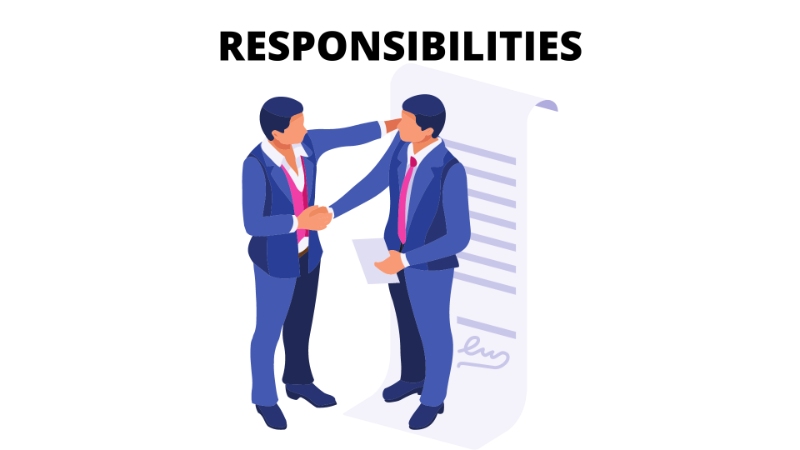
with more responsibilities and opportunities.
### 4.It makes you look more professional in the workplace.
our native languages can create an informal almost cliquey work atmosphere. English is a language that can be seamlessly formal. It helps you effectively communicate with employees from all departments.

more professional in the workplace.
### 5\. Business English is not the same as Spoken English.
Knowing how to talk about last night’s match, will not help you in your next big presentation! Just because you know how to casually communicate with your colleagues, doesn’t mean you are ready to present in the monthly meeting.

Business English is not the same as Spoken English.
### 6\. Both are equally important in a professional environment.
However, both the above skills are useful when it comes to networking and growing in the workplace. As long as you understand when either style is to be used.
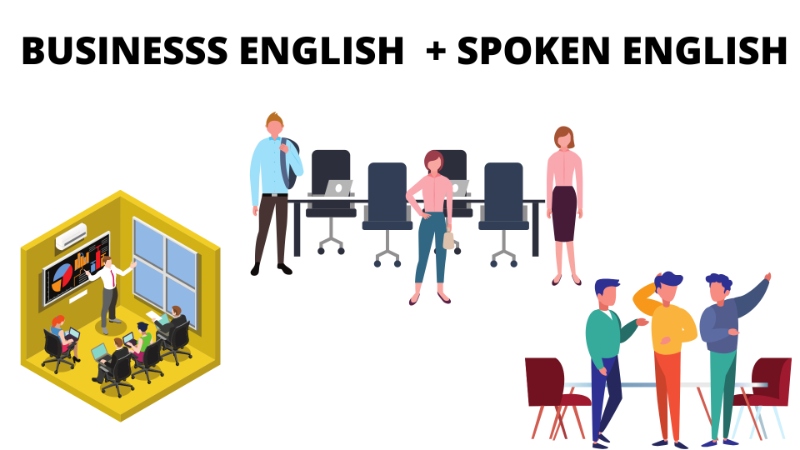
Business English and spoken English both are important for workplace
### 7\. It is better to make mistakes than to not try at all.
Your employer would probably like to see you give it a shot instead of giving up even before trying. They may even overlook your mistakes if they see you trying your best.

Better to make mistakes
### 8\. Confidence is key when it comes to Spoken English.
Just knowing the language in your head and never practising it, does not make a fluent speaker. A large part of Spoken English is the confidence of actually using the language while speaking at work. This is mainly for those who write fantastic emails in English but never actually speak it!
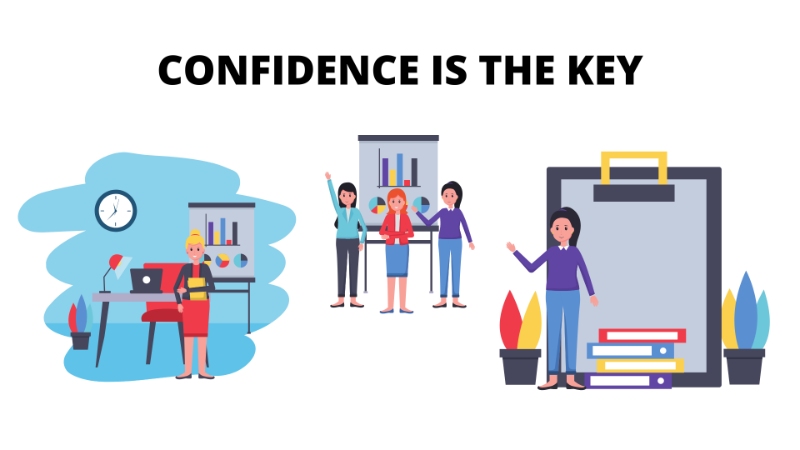
Confidence is the key
### 9\. It is not the most important skill to excel but it sure does help your chances.
Your Boss is probably more concerned if you know how to do the taxes, maintain accounts or operate the machinery properly and less concerned about your Spoken English Skills. However, it does help your chances of being noticed in a large workforce when you are able to effortlessly do both.

you know how to do the taxes
### 10\. Good Spoken English cannot compensate for lack of technical know-how.
If you cause a huge loss to the company because you did not know the technical aspects of your job, your Boss probably is not going to applaud you for communicating the loss in English. It is still important to know the fundamentals for your job and no amount of good English Speaking will make up for that.
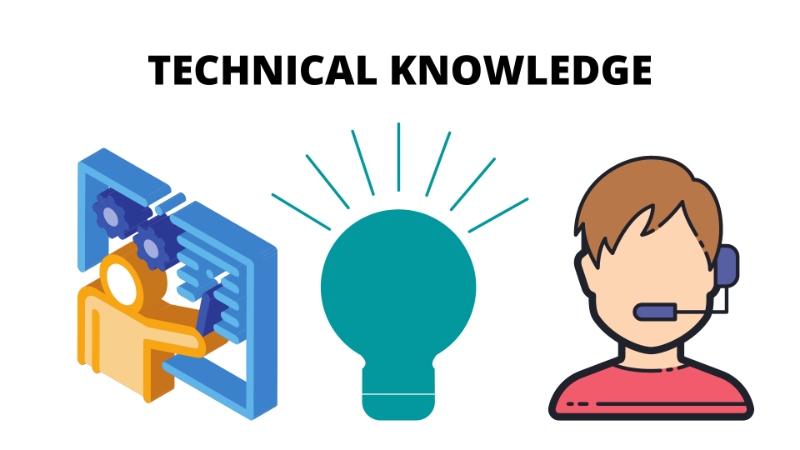
Lack of technical know-how.
### 11\. Speaking properly and clearly does not mean putting on an accent.
Many new speakers learn English with an accent. They abandon their native accent and adopt a new one which can sometimes sound unnatural. Your employer wants you to be clear and proper while speaking minus the odd sounding accent.
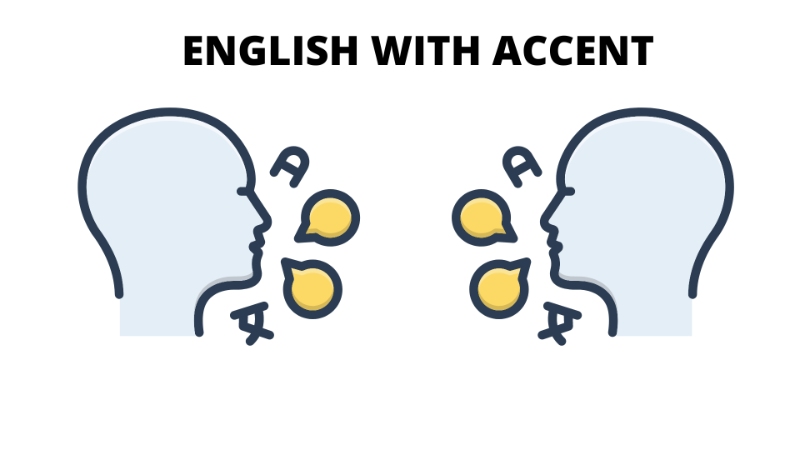
English with an accent
### 12\. Taking meaningful pauses is preferred to ‘uh..aah.. hmm -ing’ all through the conversation.
Even the most experienced Boss can fumble sometimes. Nobody is perfect. Your Boss does not want to be perfect either. However, in a business set up, fumbling and struggling for words usually means low confidence or lack of preparedness. Taking short pauses to think while speaking is definitely the preference choice.
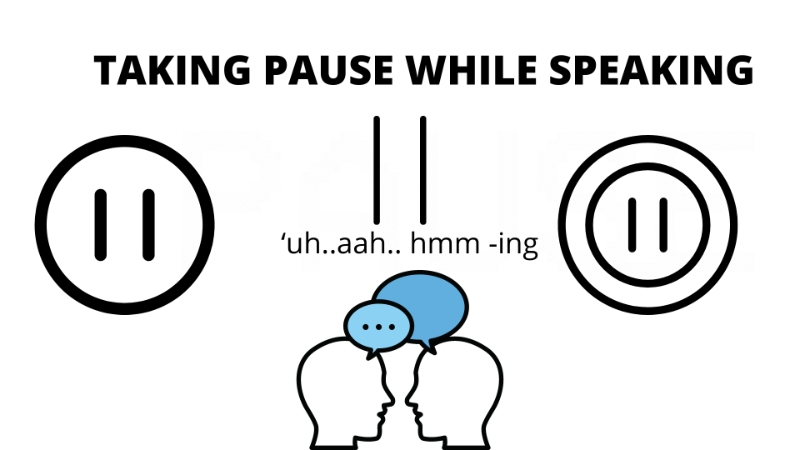
Taking meaningful pauses
### 13, Working on yourself will never be wasted.
Employee skills should also improve as the company grows. Even if your improved English skills do not bring you new opportunities immediately, they will be useful in the long run. Maybe while applying for a new job or in a new position. Working on yourself is never futile. It will always be helpful. If you are working in a small company now, learning English might seem like a waste. However, when the company grows, it will come handy.

Working on yourself
### 14\. Correct grammar is not the only important aspect of Spoken English..
Communication skills are an important aspect of [Spoken English.](https://clapingo.com/blog) Just getting the grammar right, does not make you a good speaker. Being able to communicate effectively and confidently is an important aspect of Spoken English.

Correct Grammar
### 15\. If you’re learning the language, make sure you speak naturally and it doesn’t sound rehearsed.
Many new learners tend to speak English in a boring flat tone. As if they have rehearsed each line. This usually bores the listener. Tone and Voice Modulation captivates your audience’s attention. So pay attention to it while speaking.
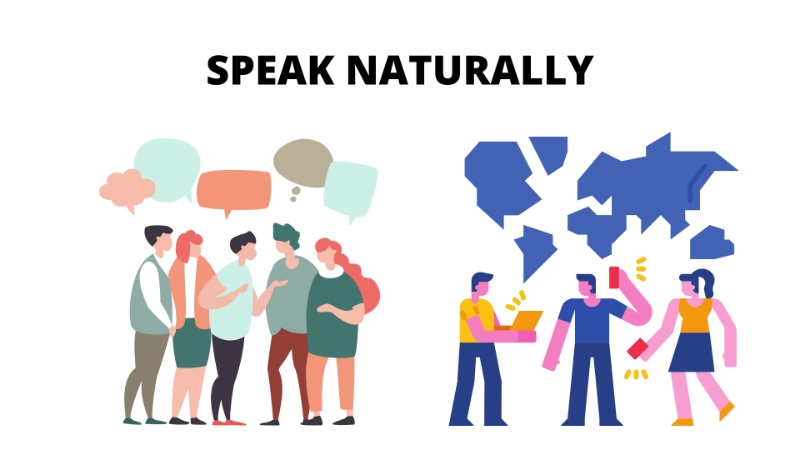
Make sure you speak naturally
> So now that you know what your Boss thinks about [Spoken English,](https://www.clapingo.com/login) what are you going to do to improve yourself? Start small. Every step counts!
[**Clapingo : Best English Spoken Trainings from Dynamic English Speakers**
_Clapingo connects you with fluent and dynamic English Speakers from India with diverse backgrounds and professions…_www.clapingo.com](https://www.clapingo.com/)
###
---
This blog is powered by Superblog. Visit https://superblog.ai to know more.
---